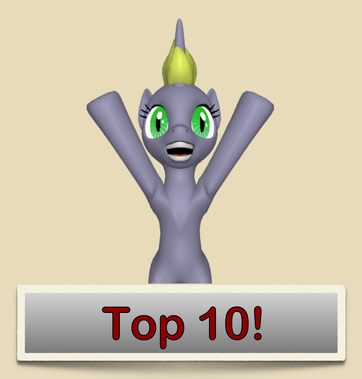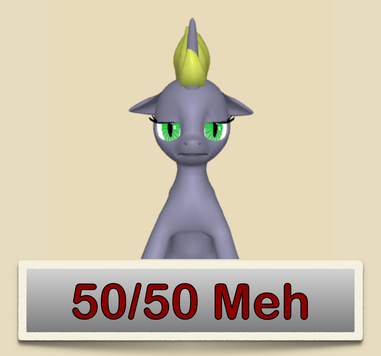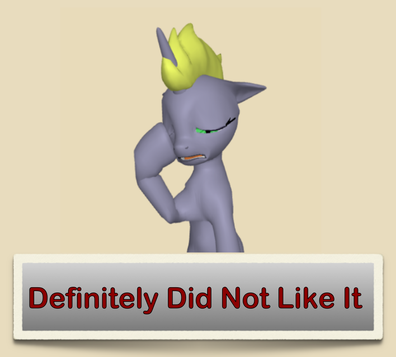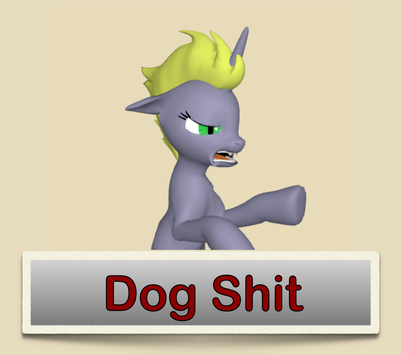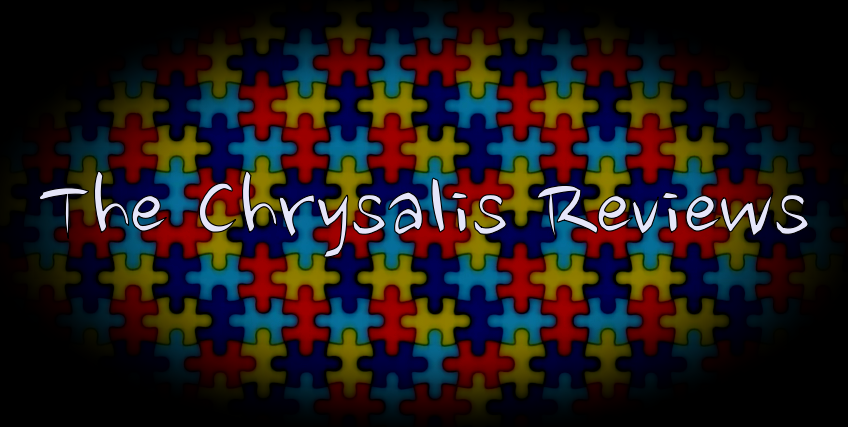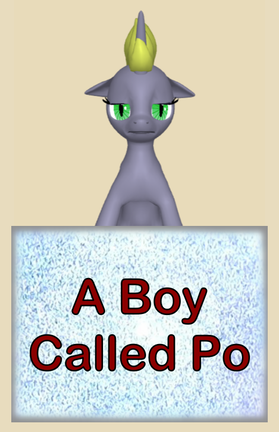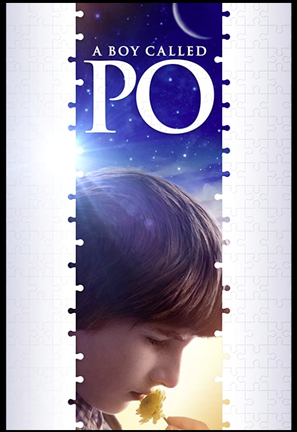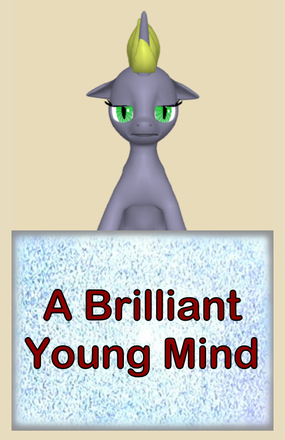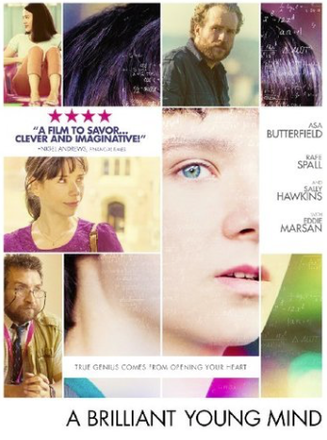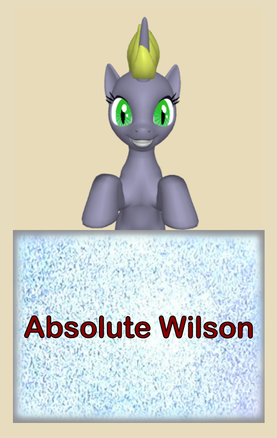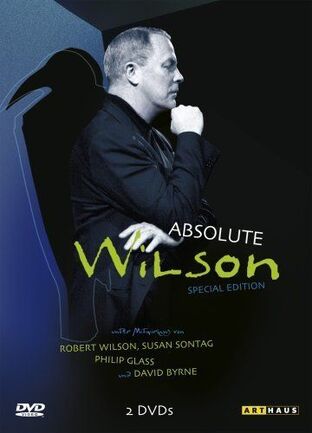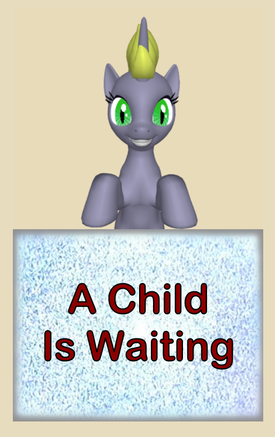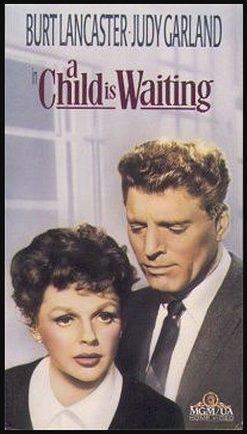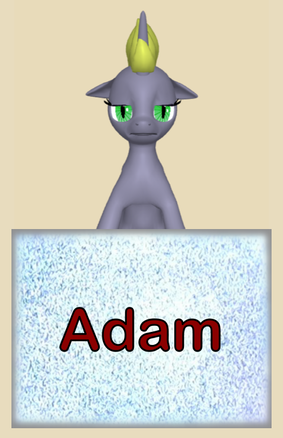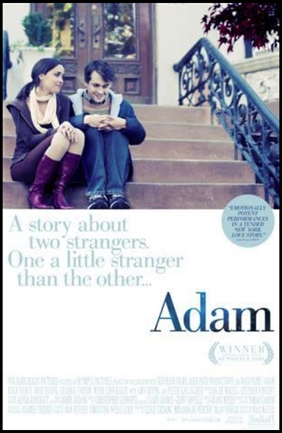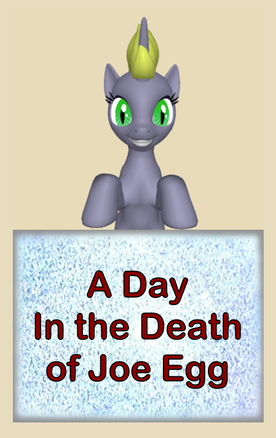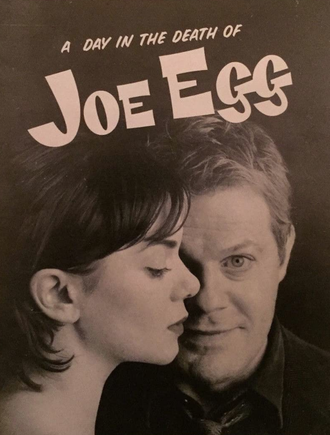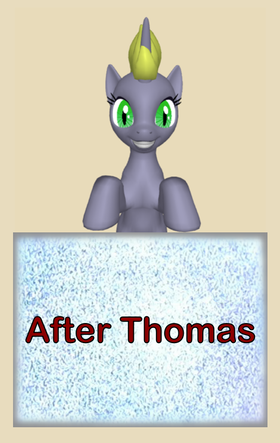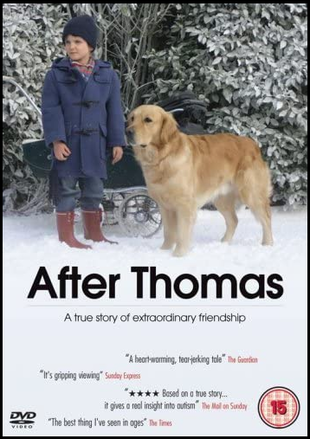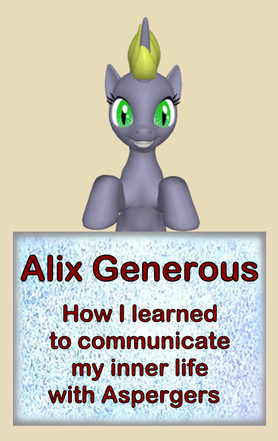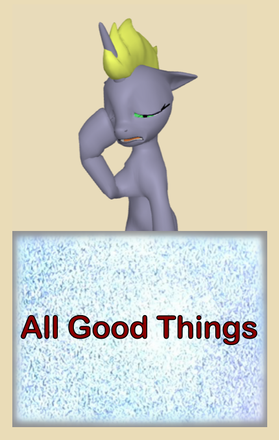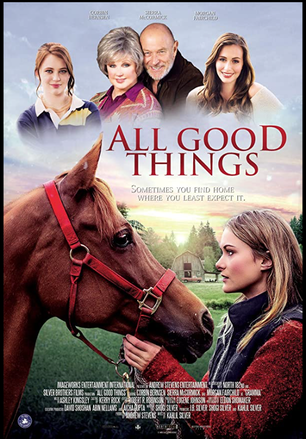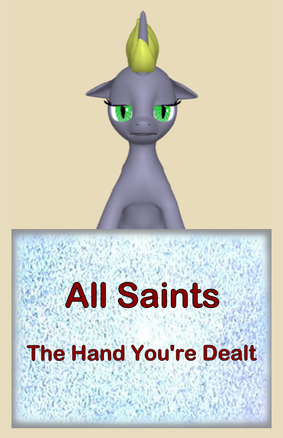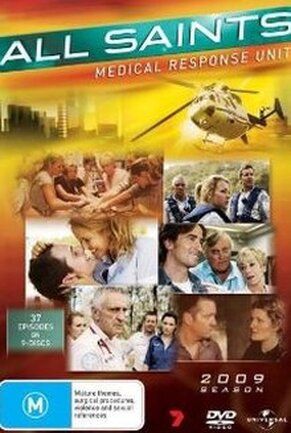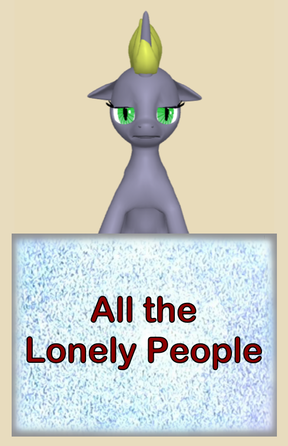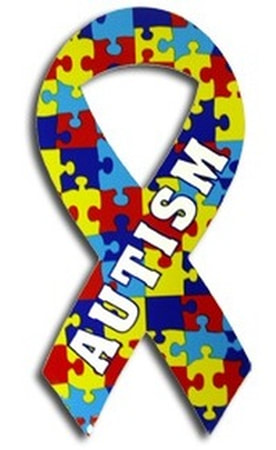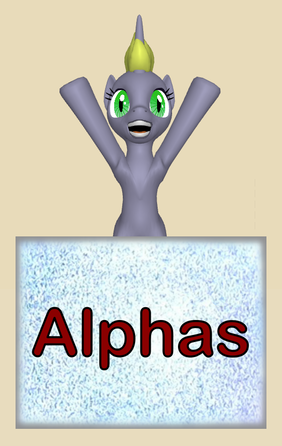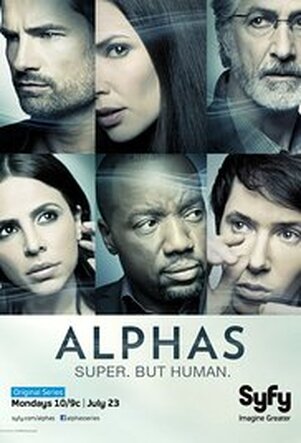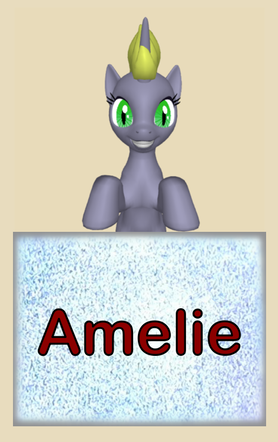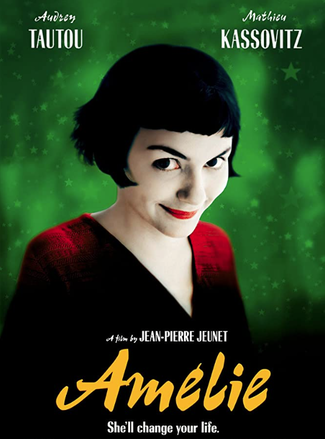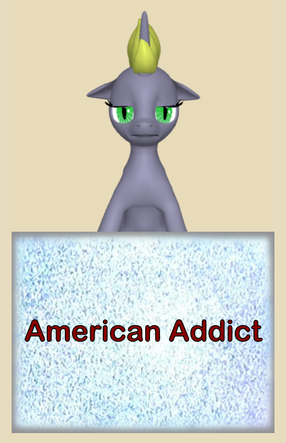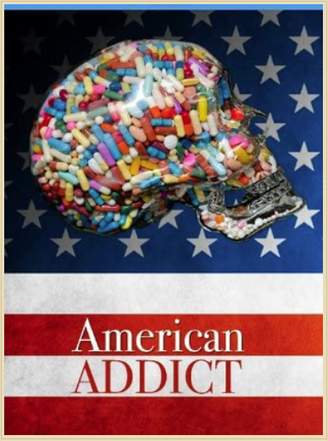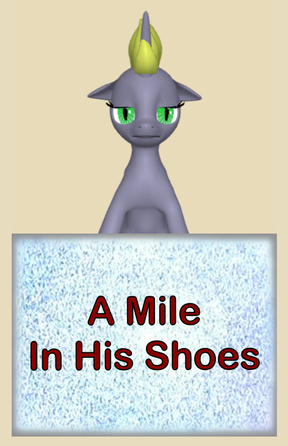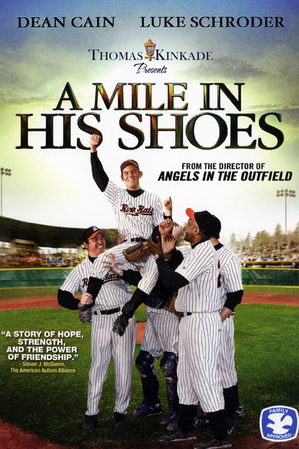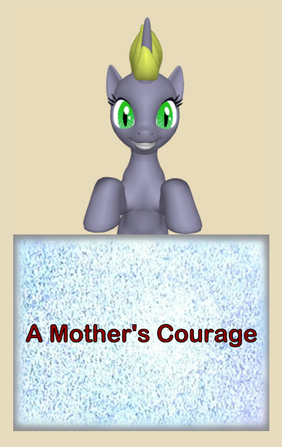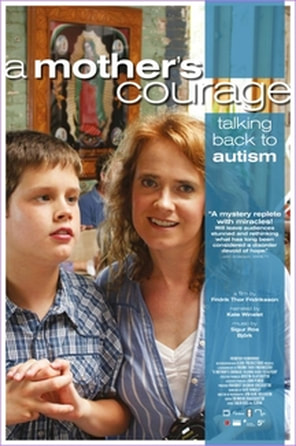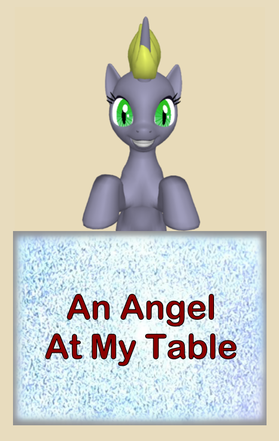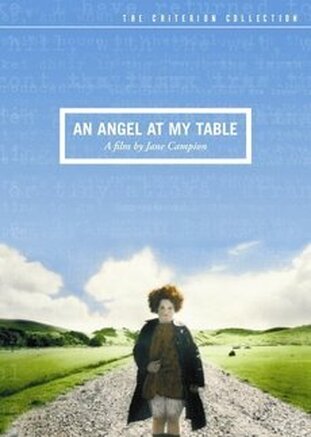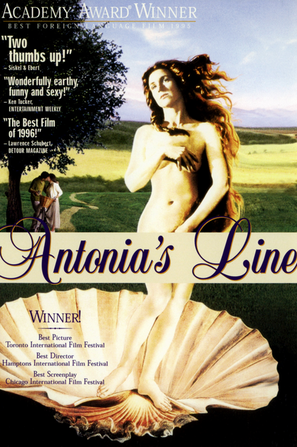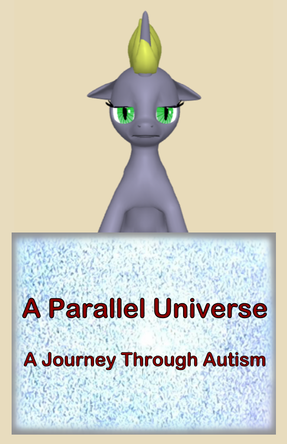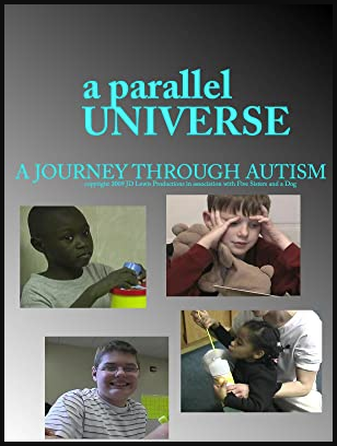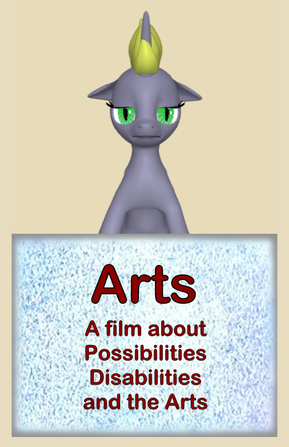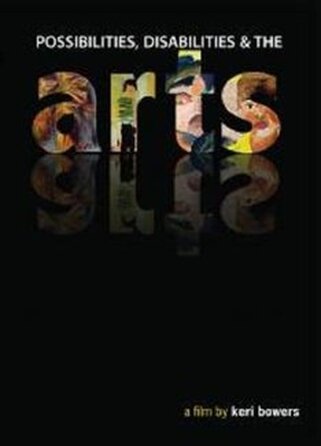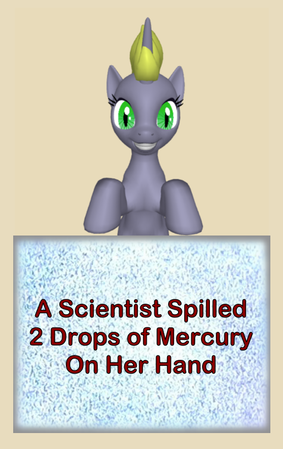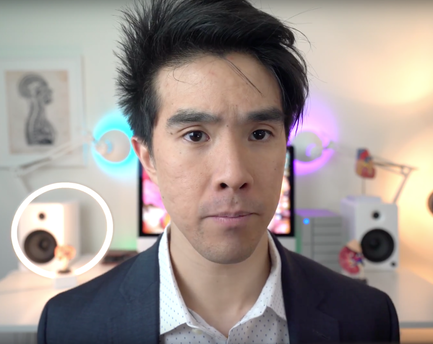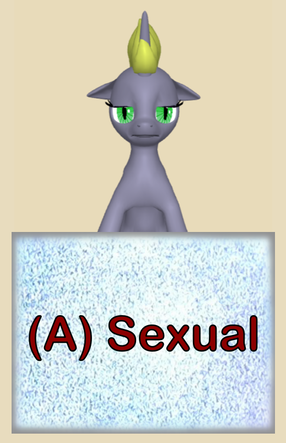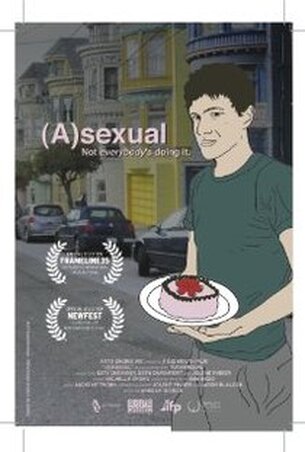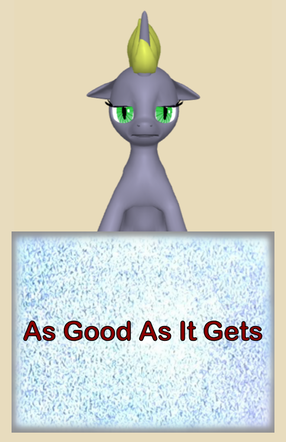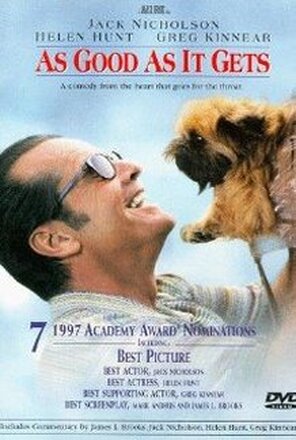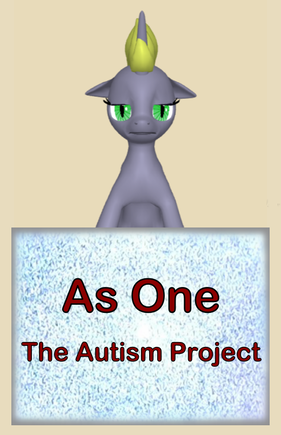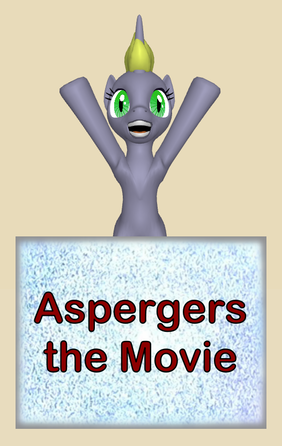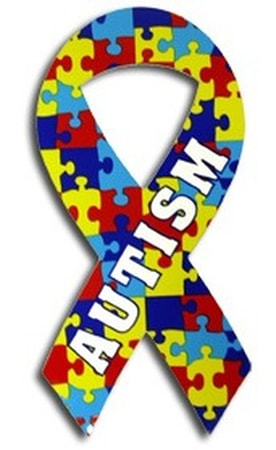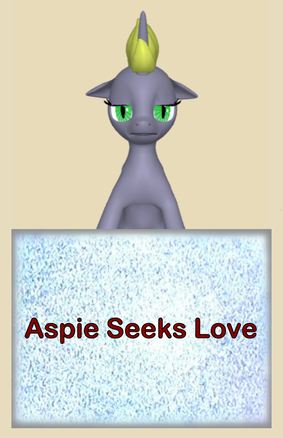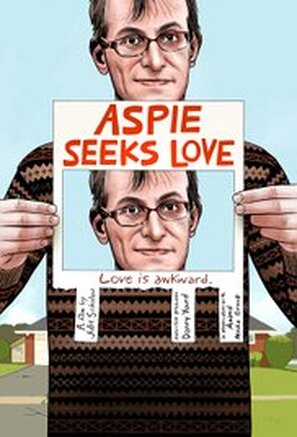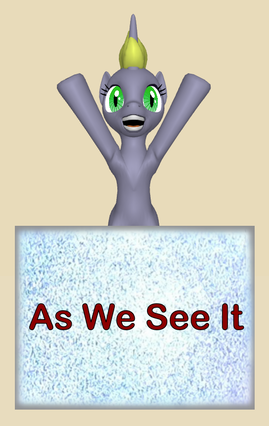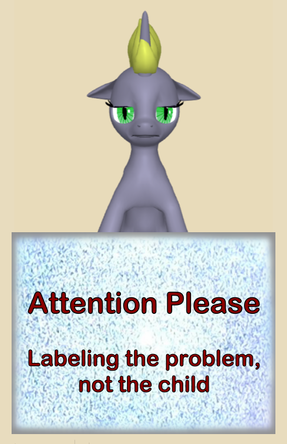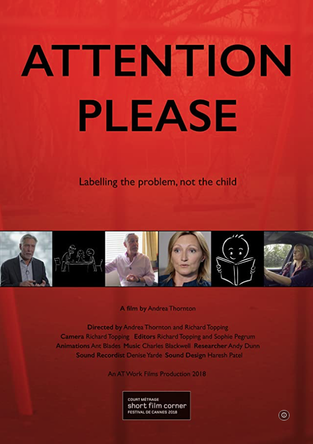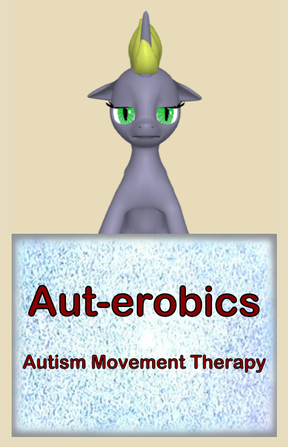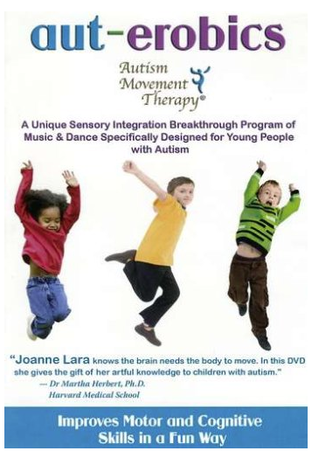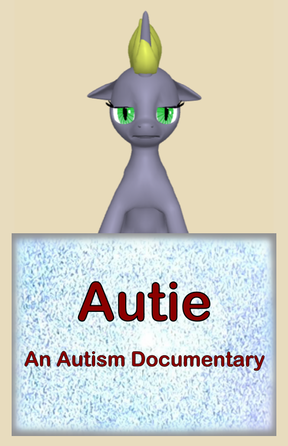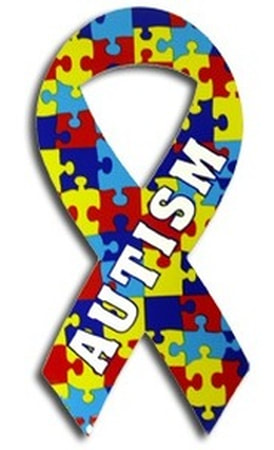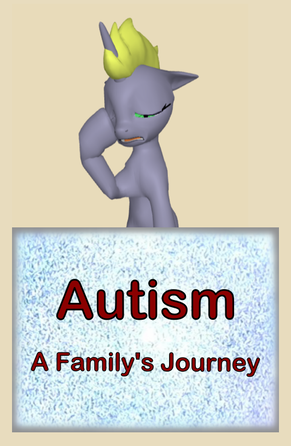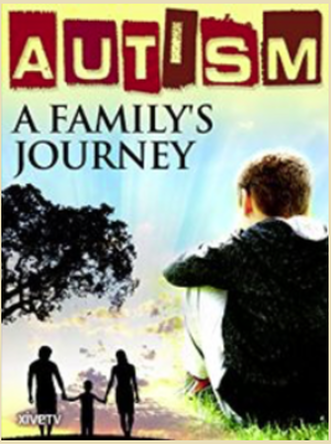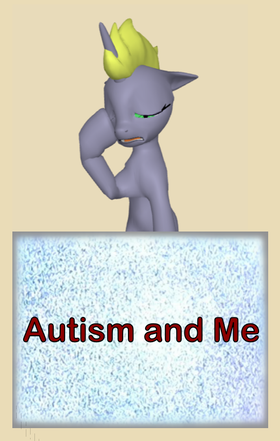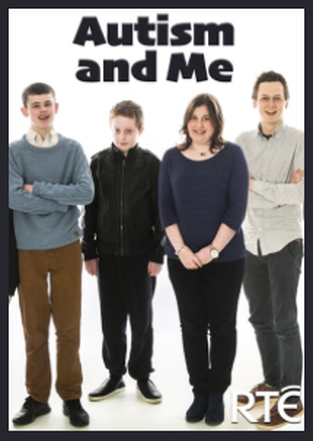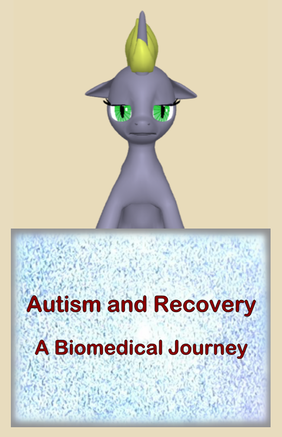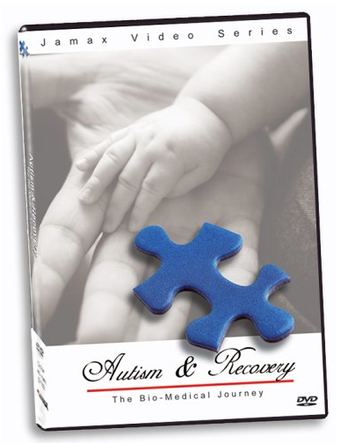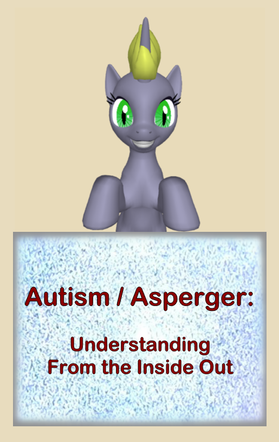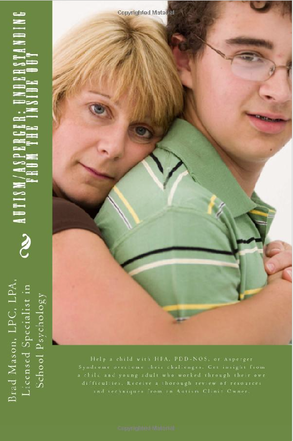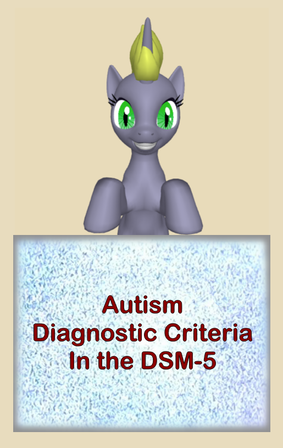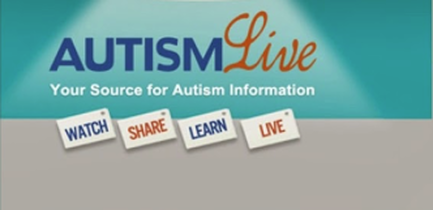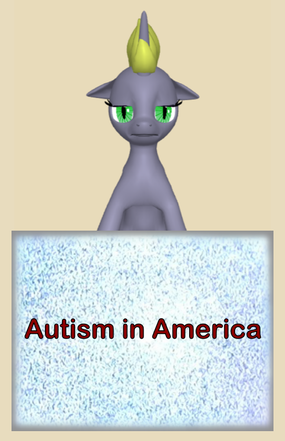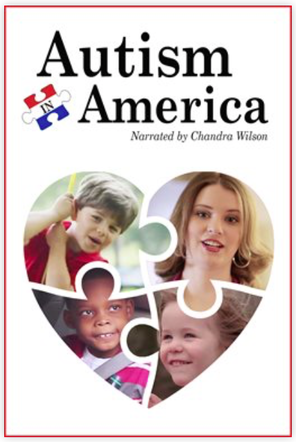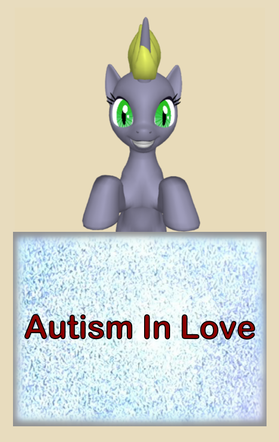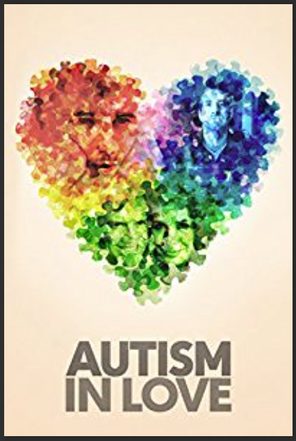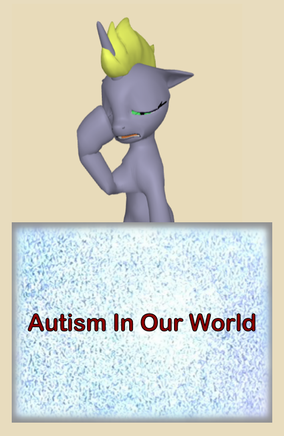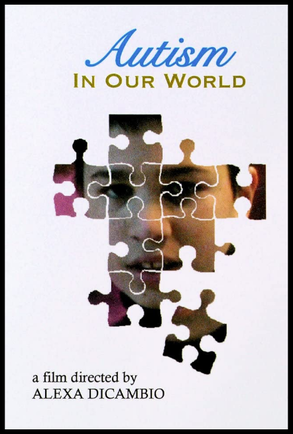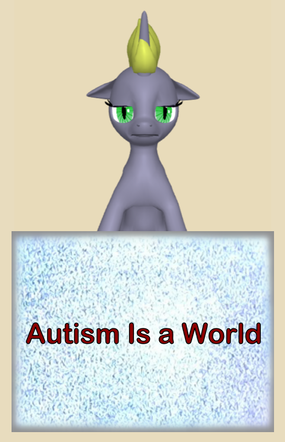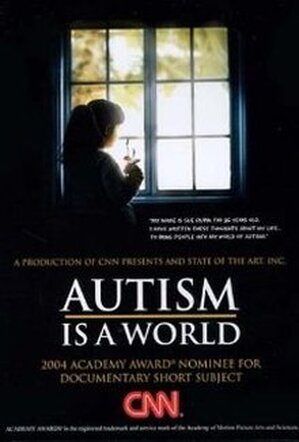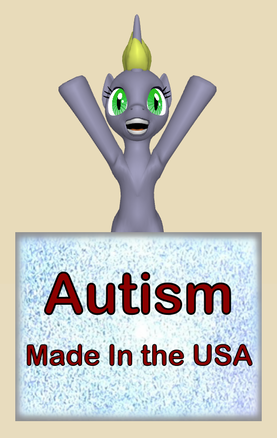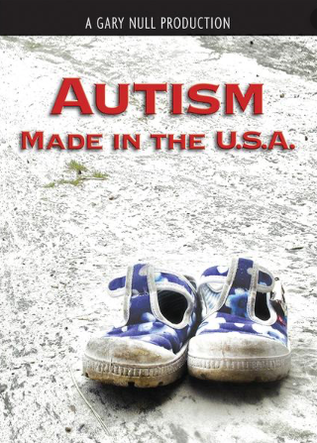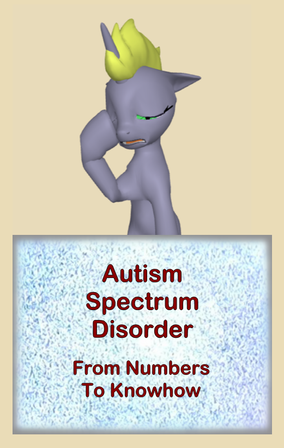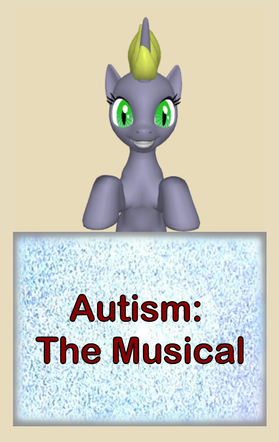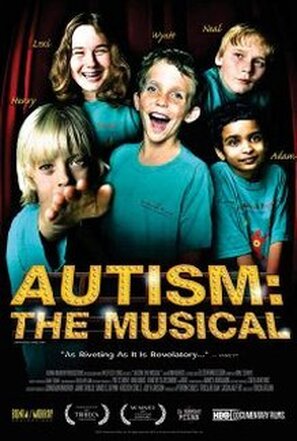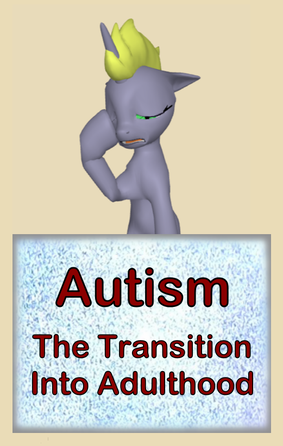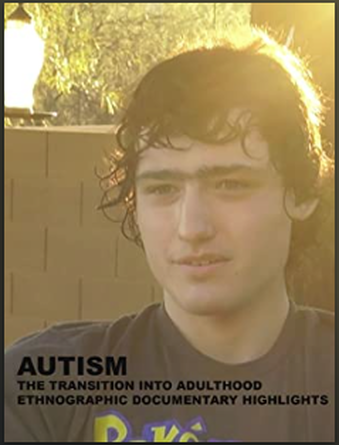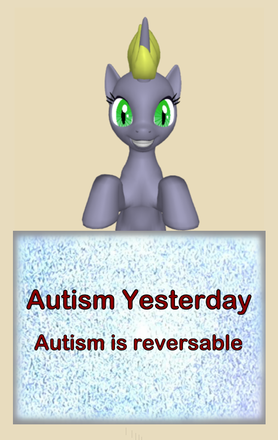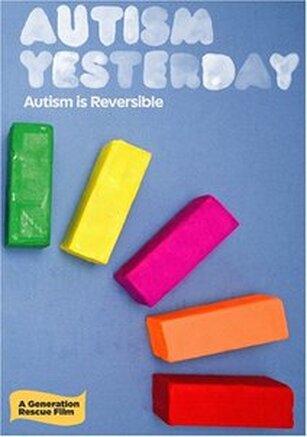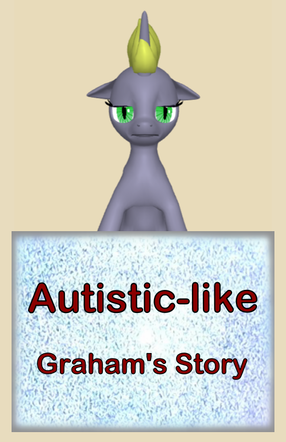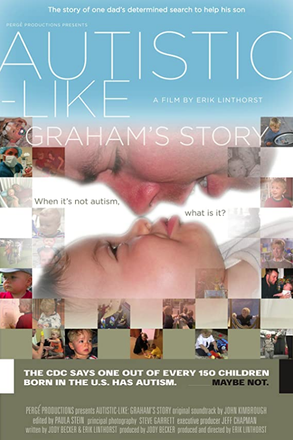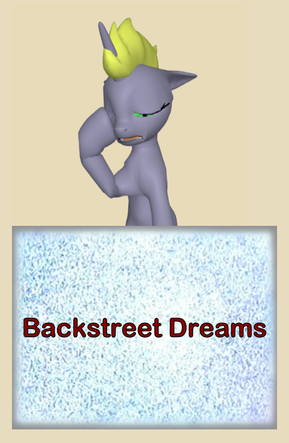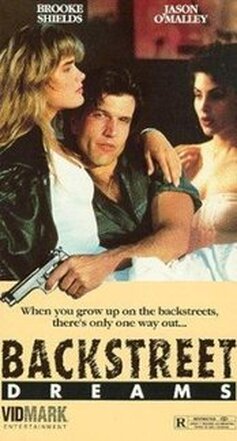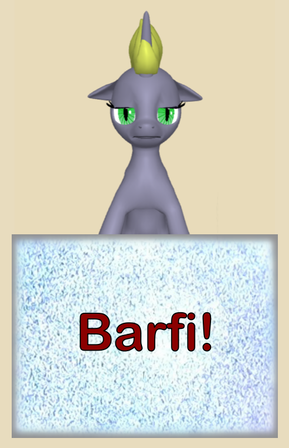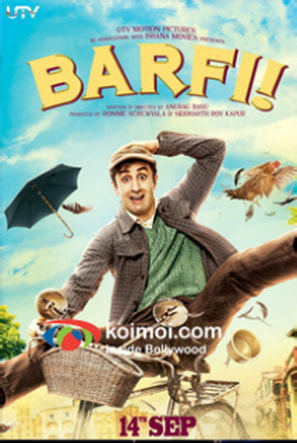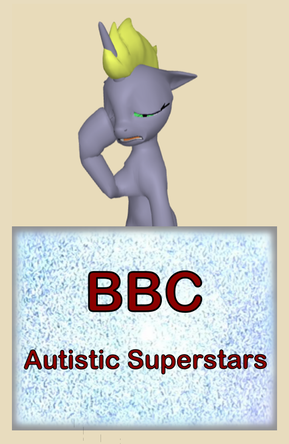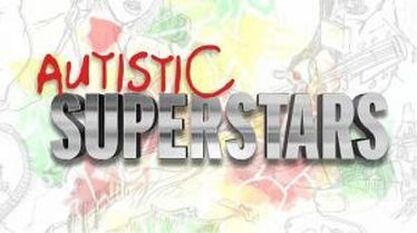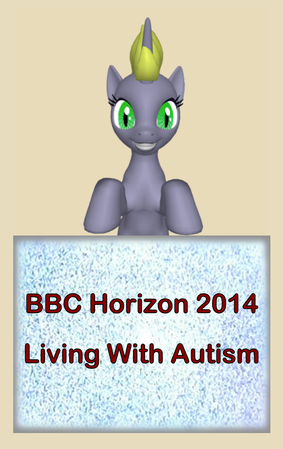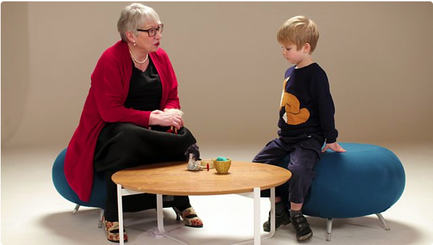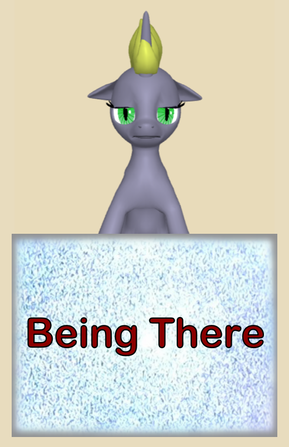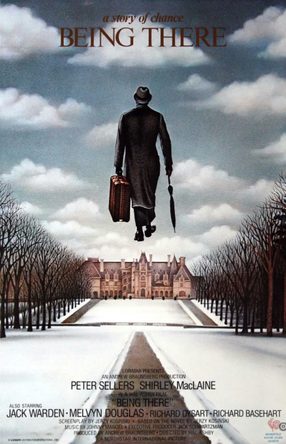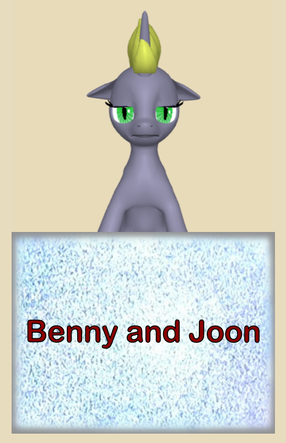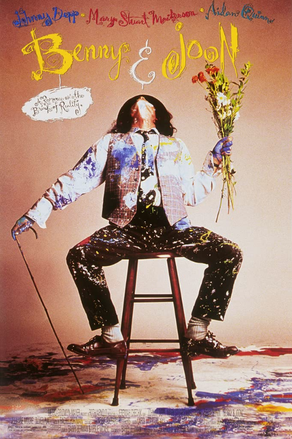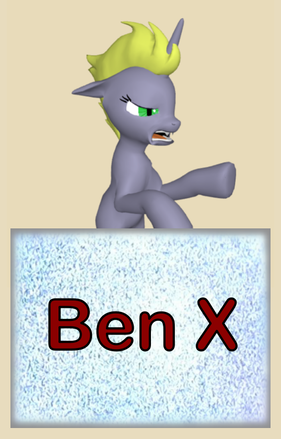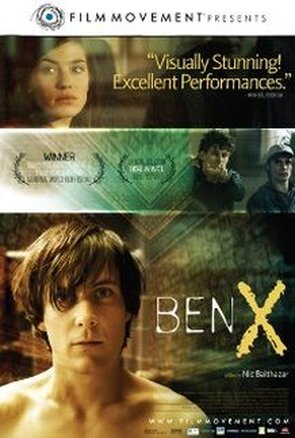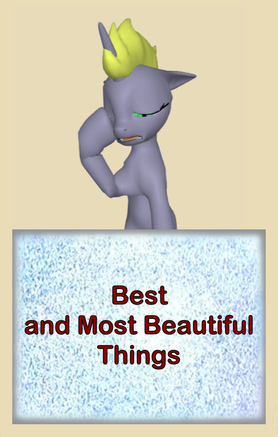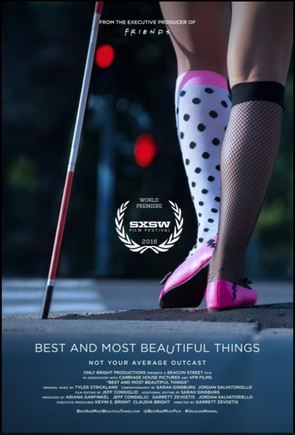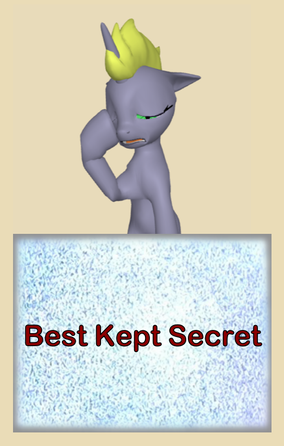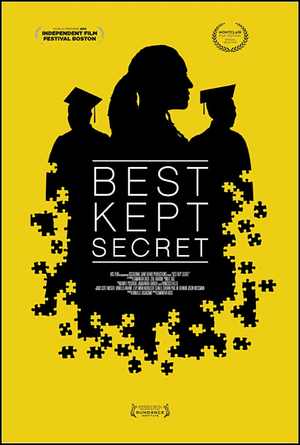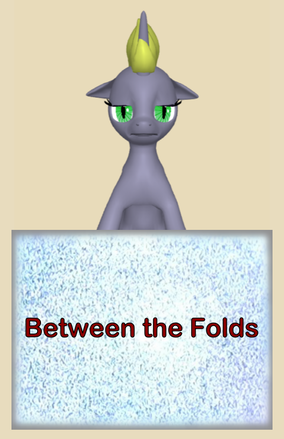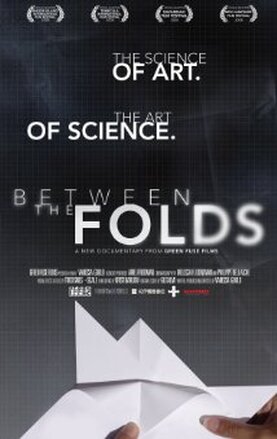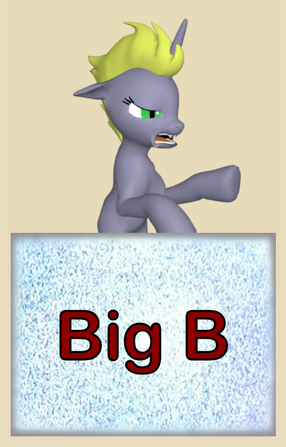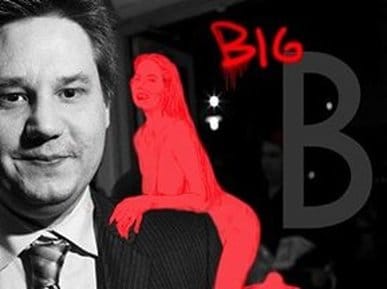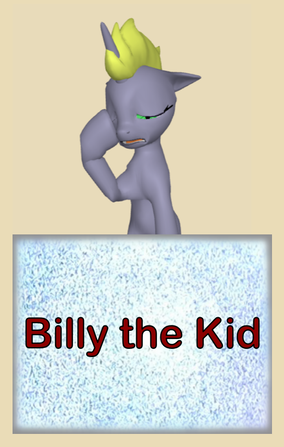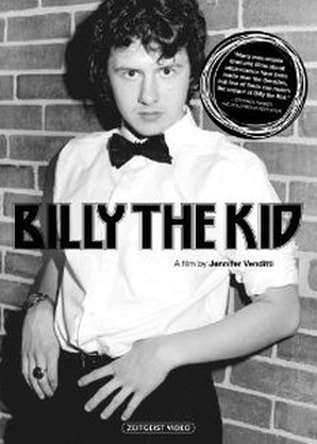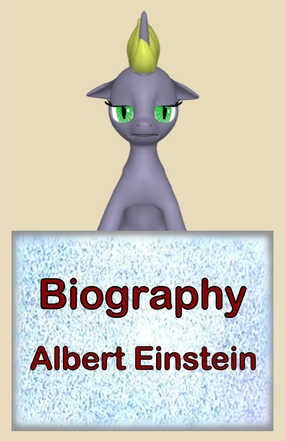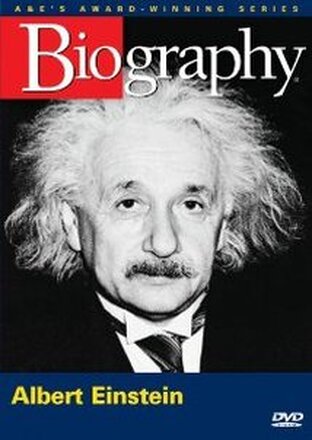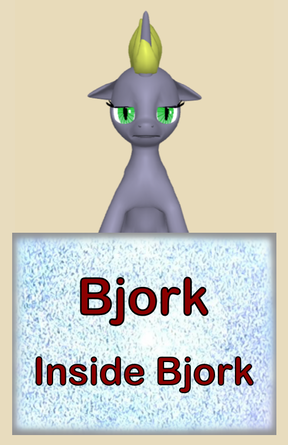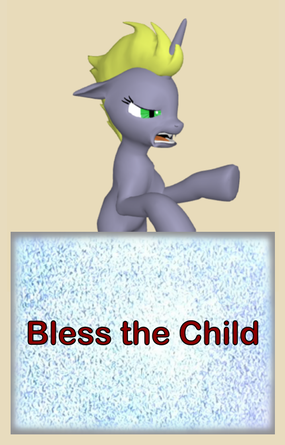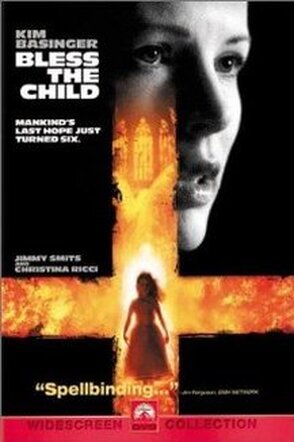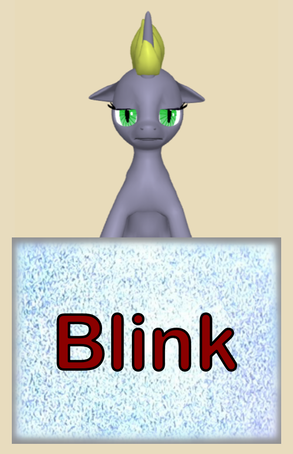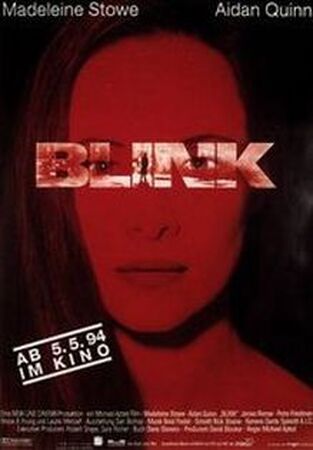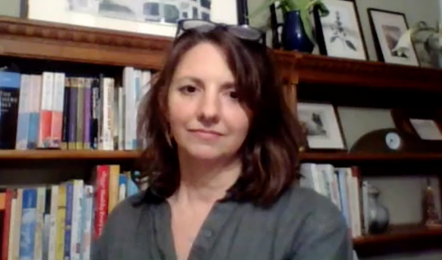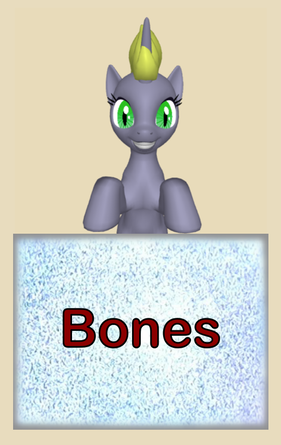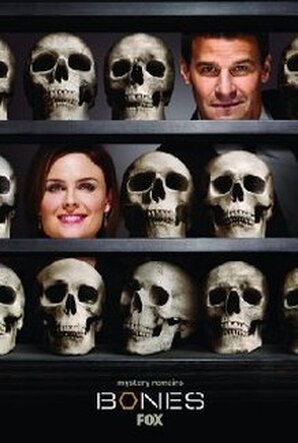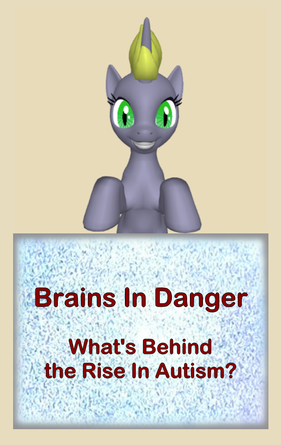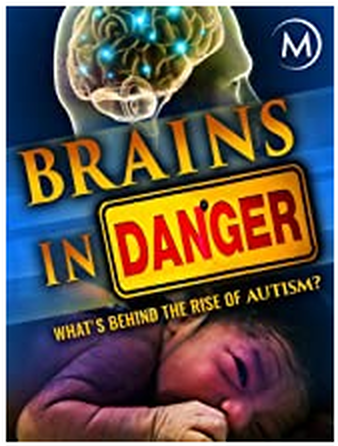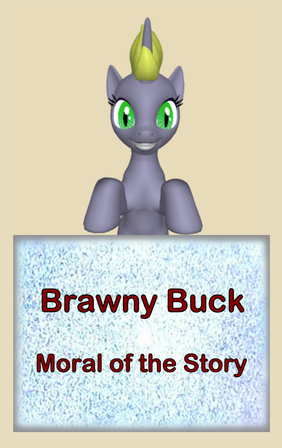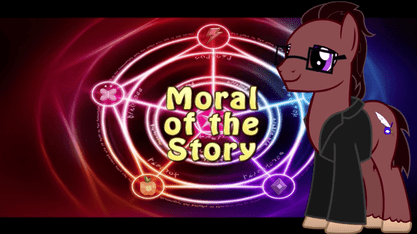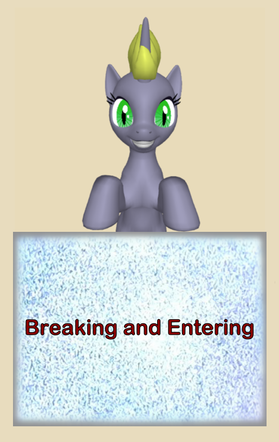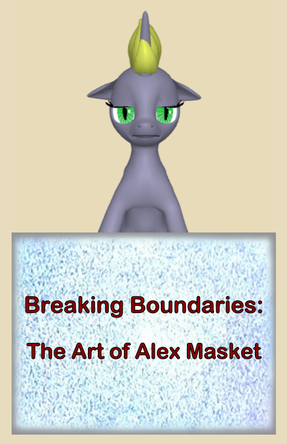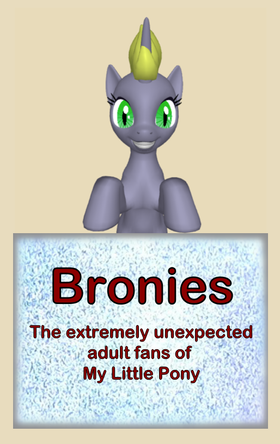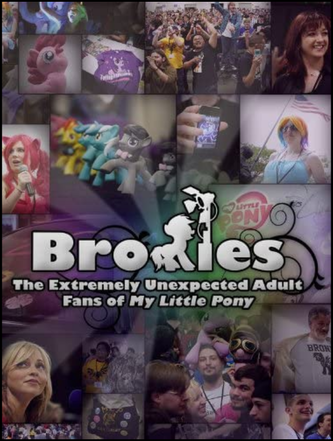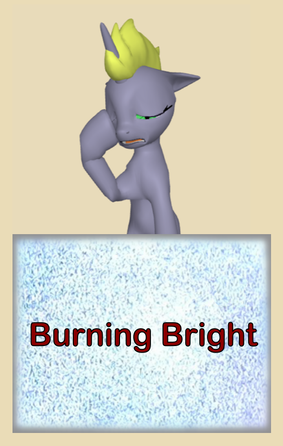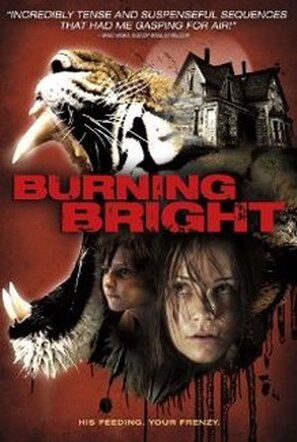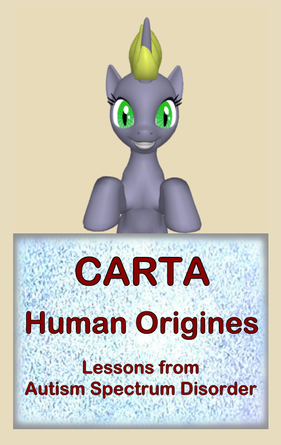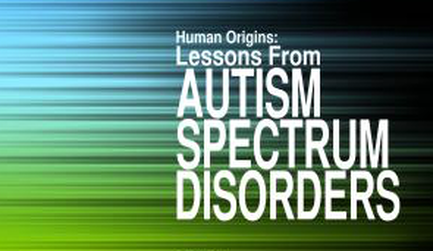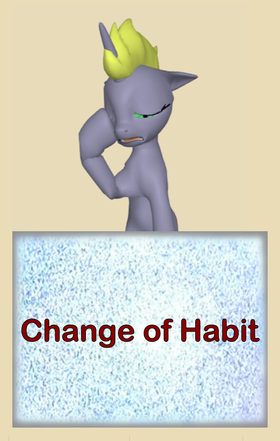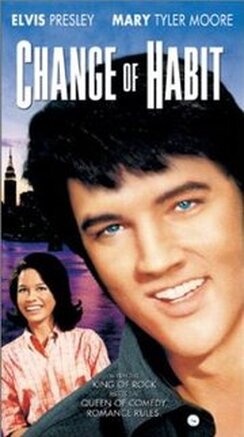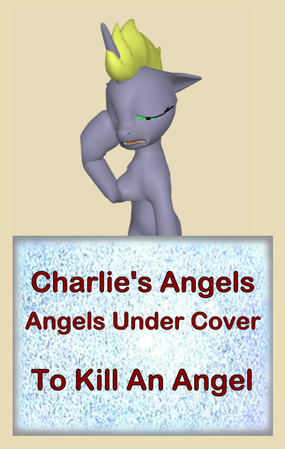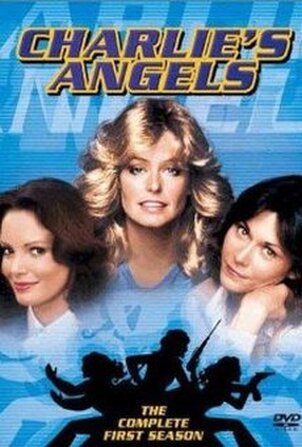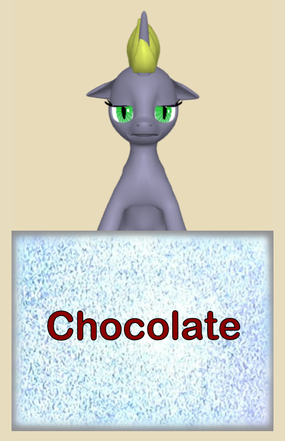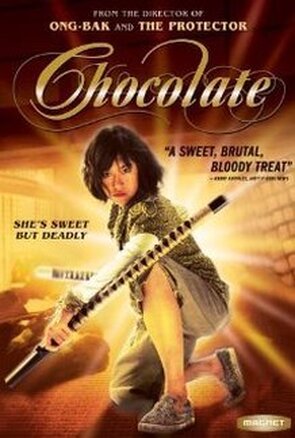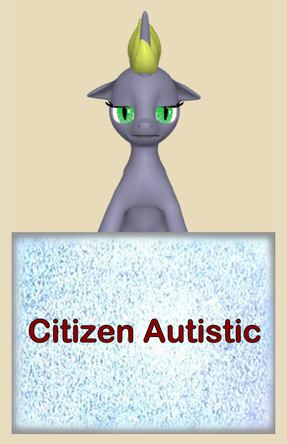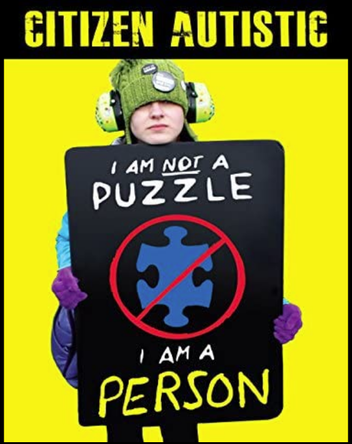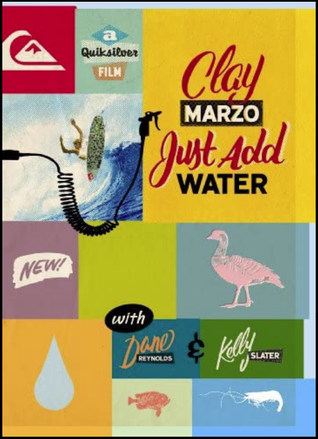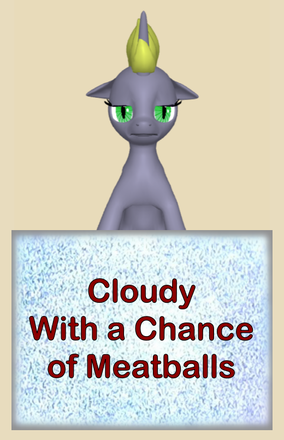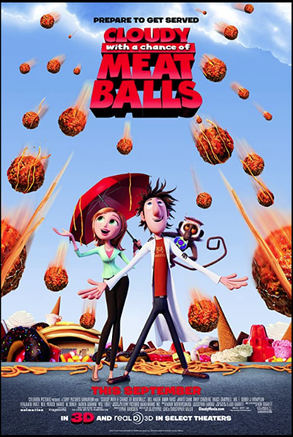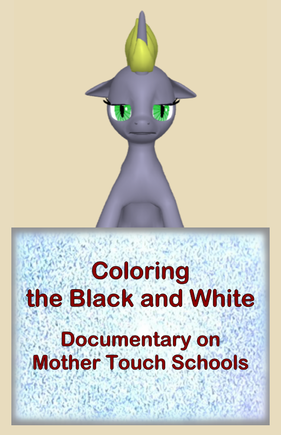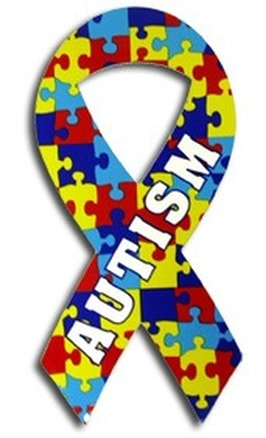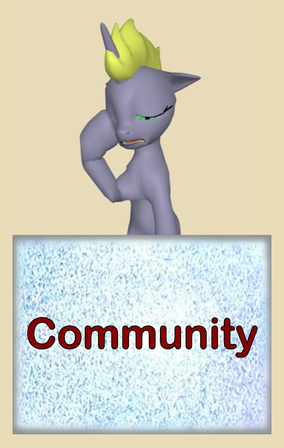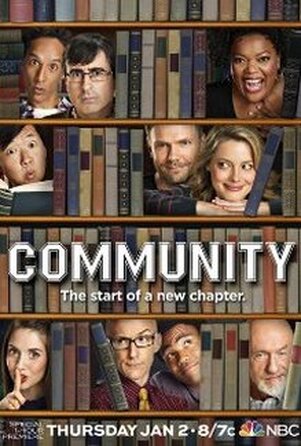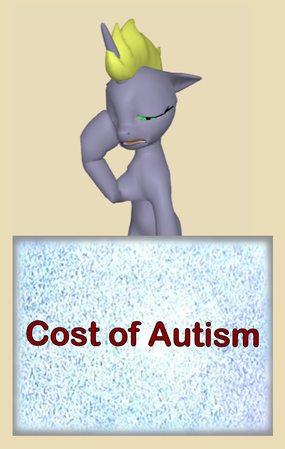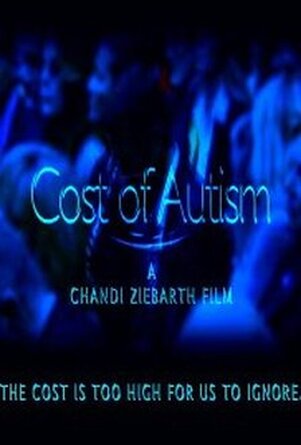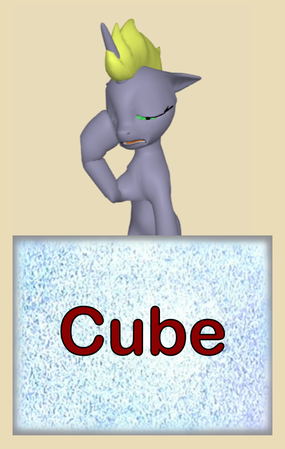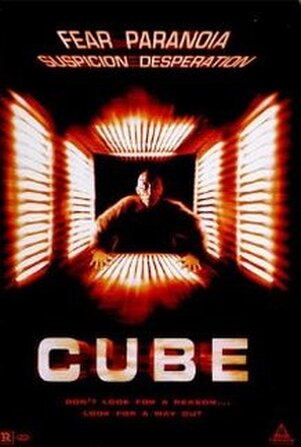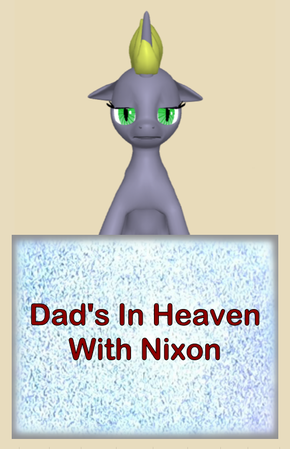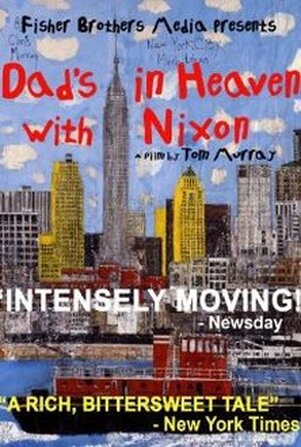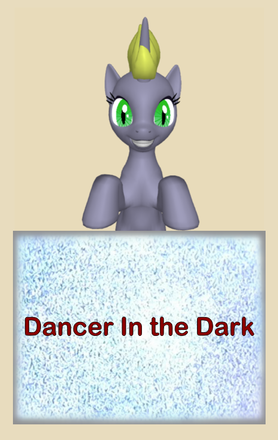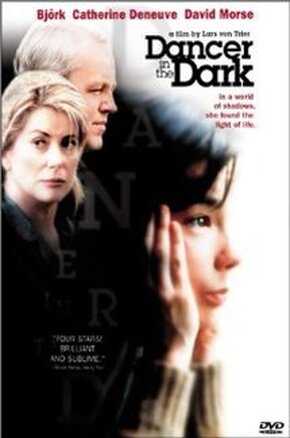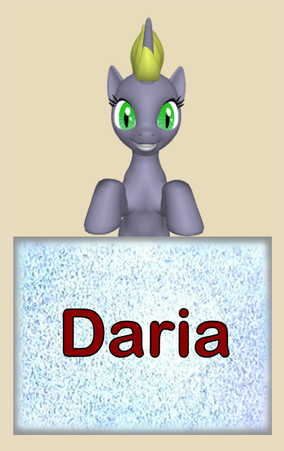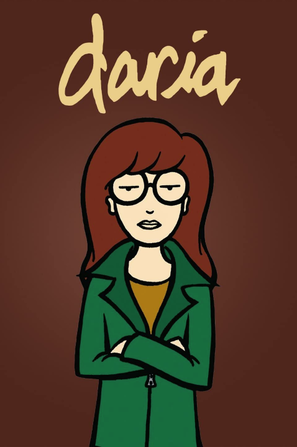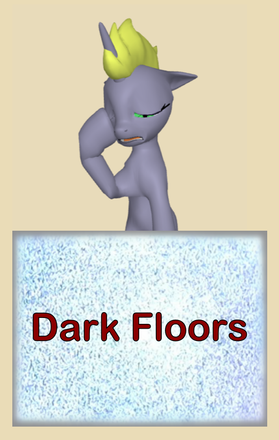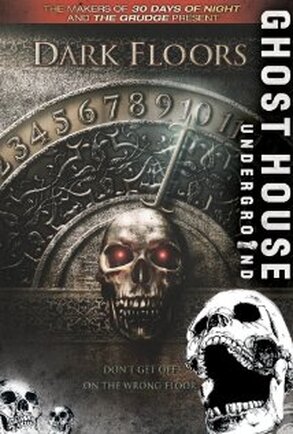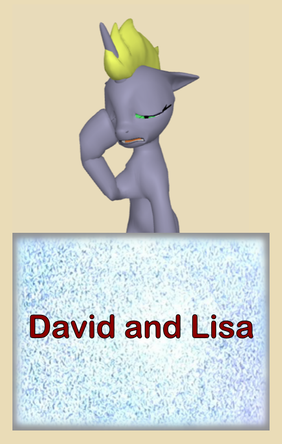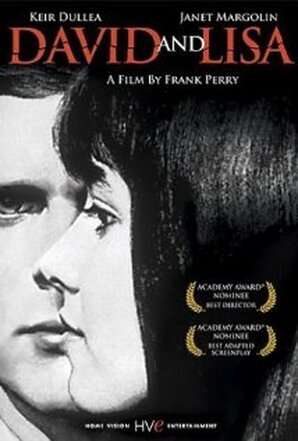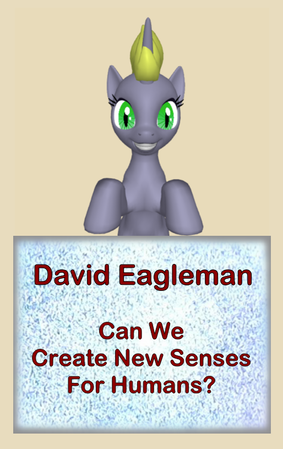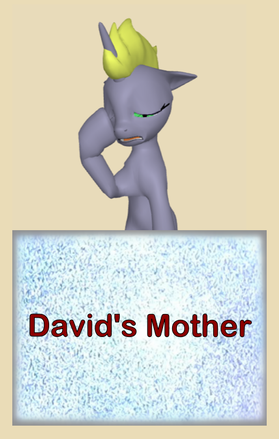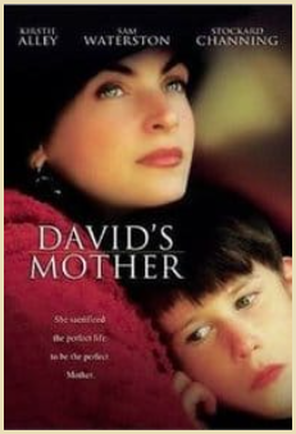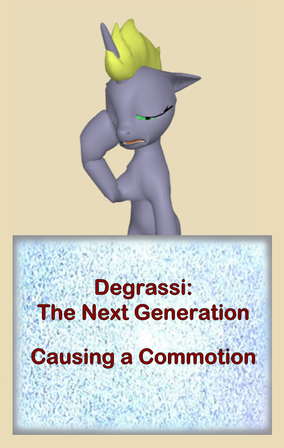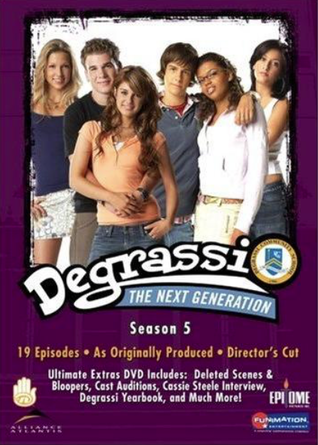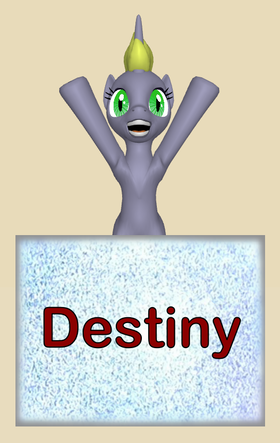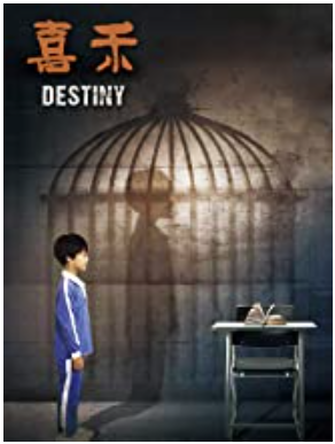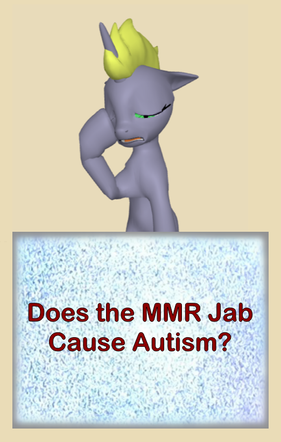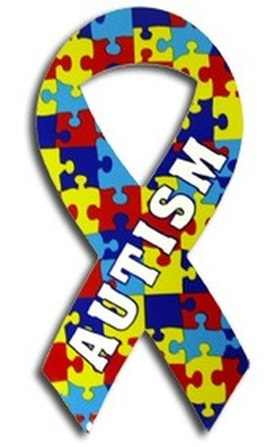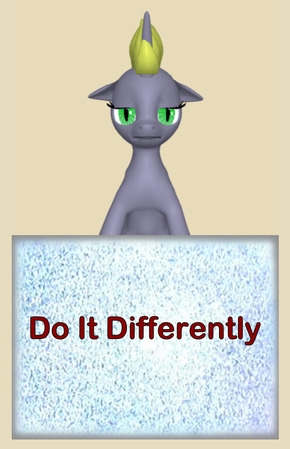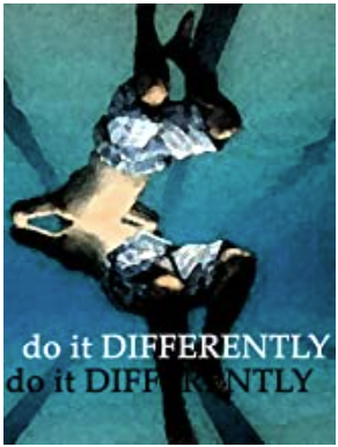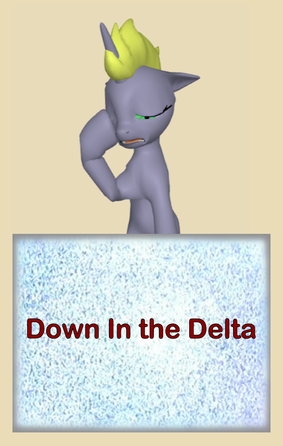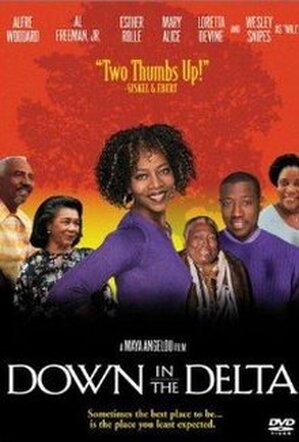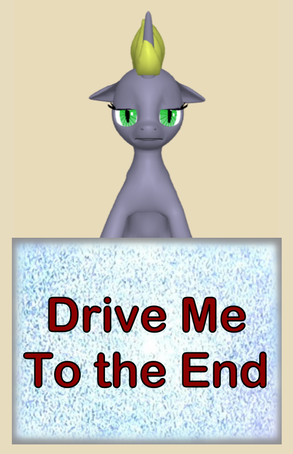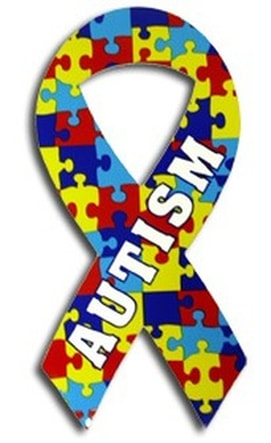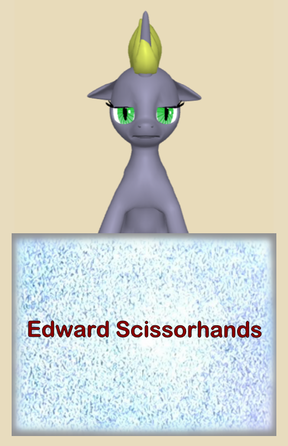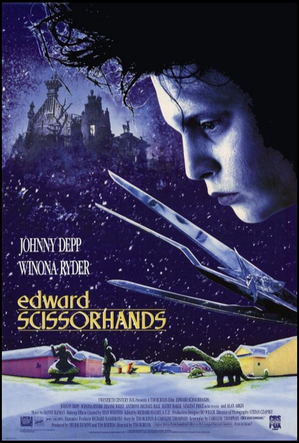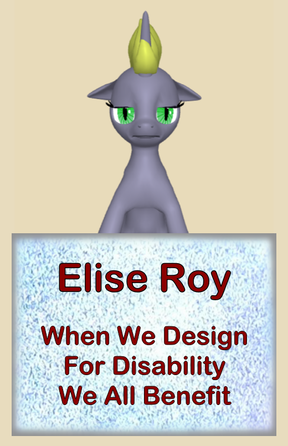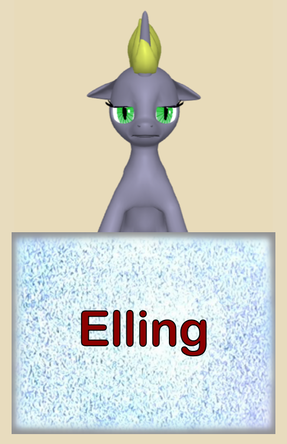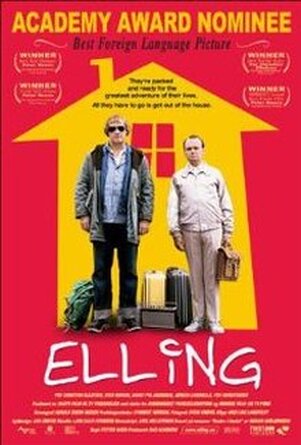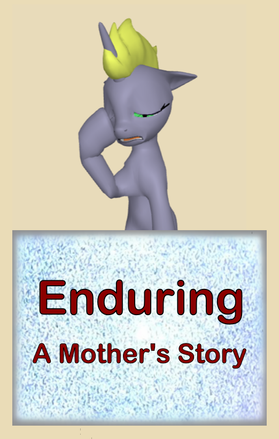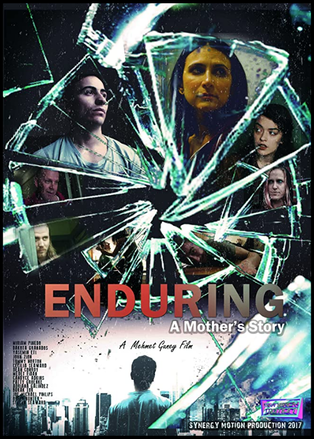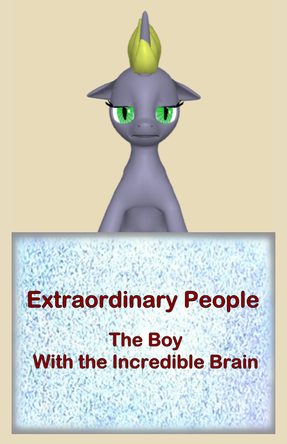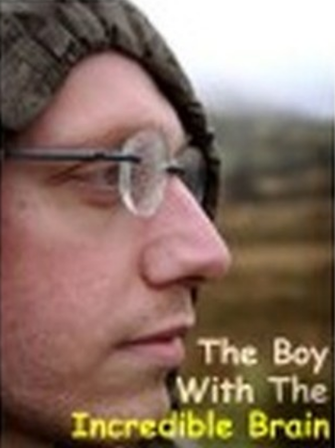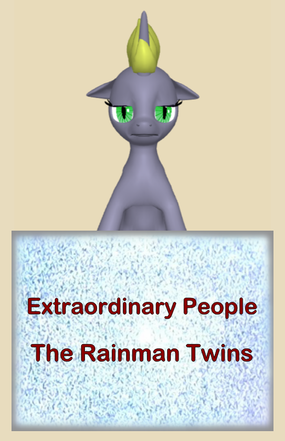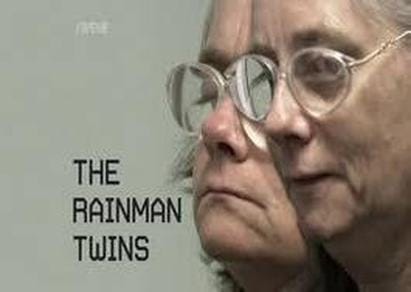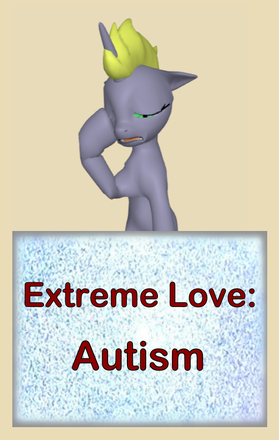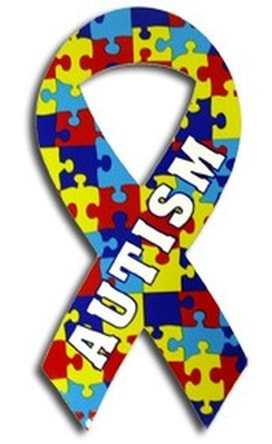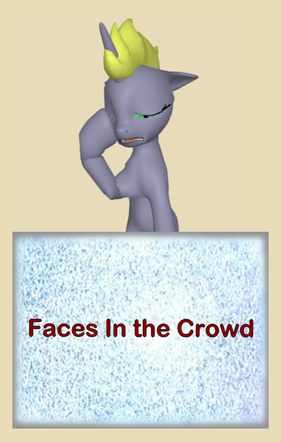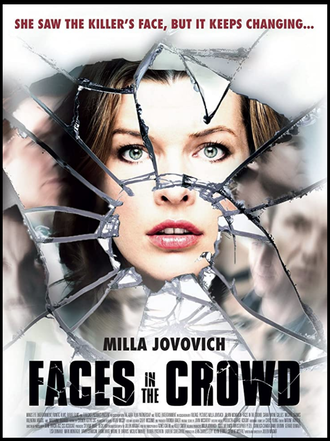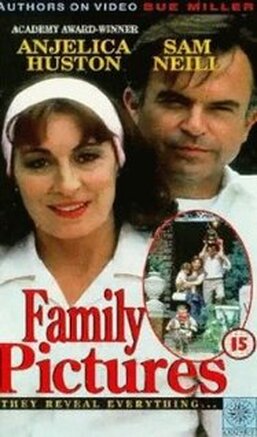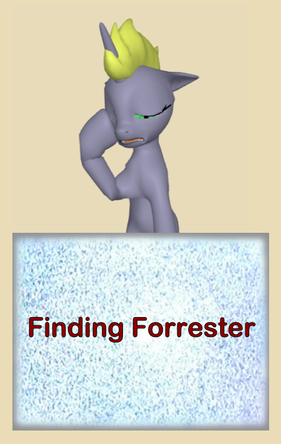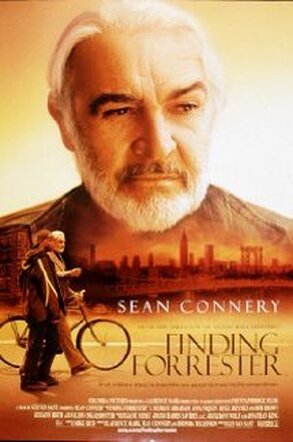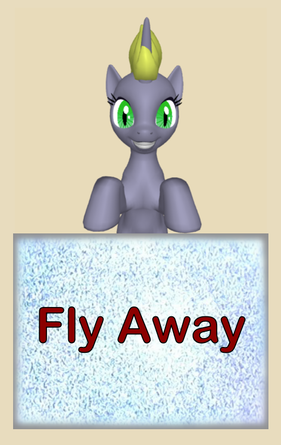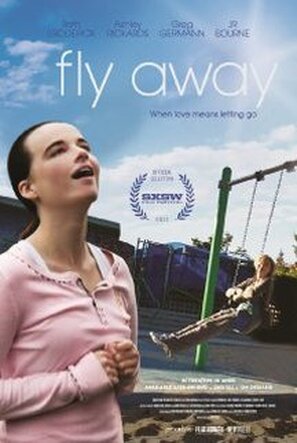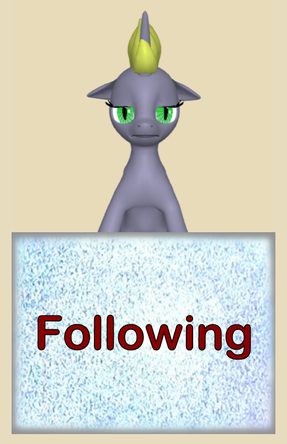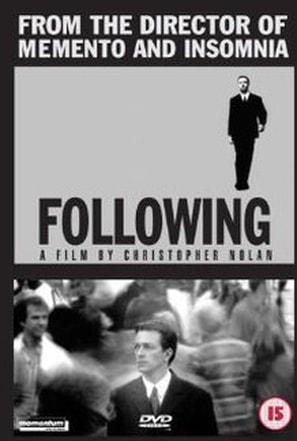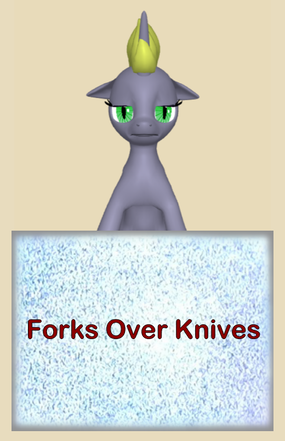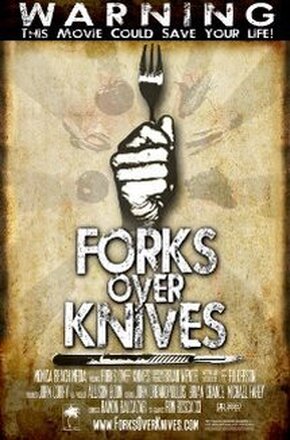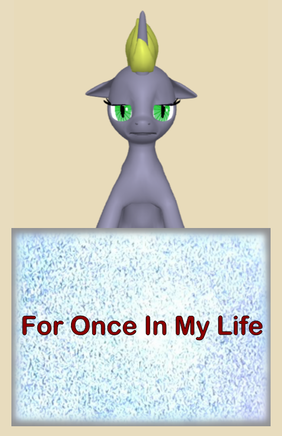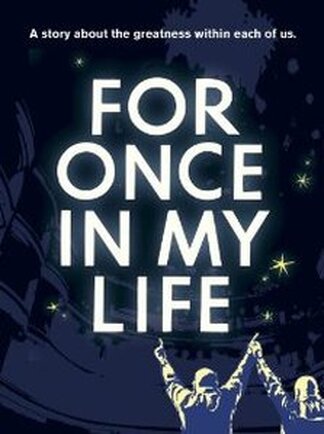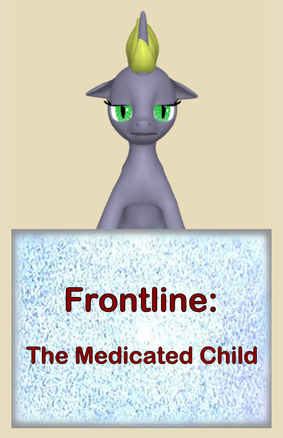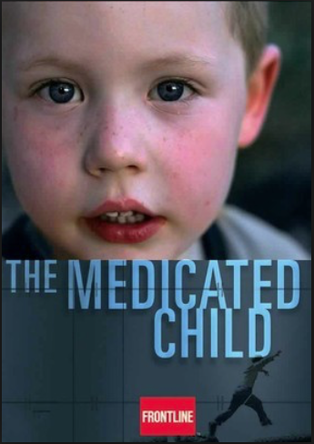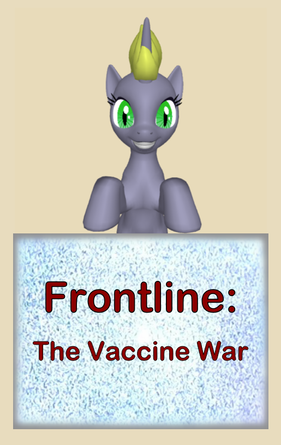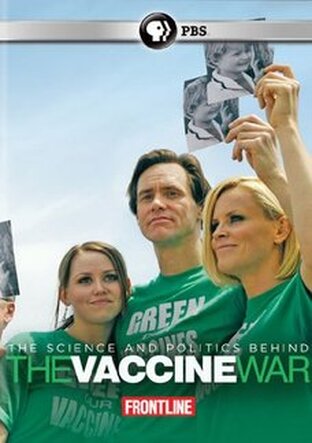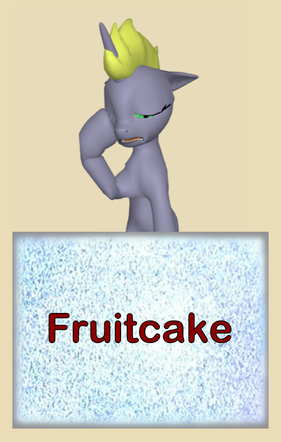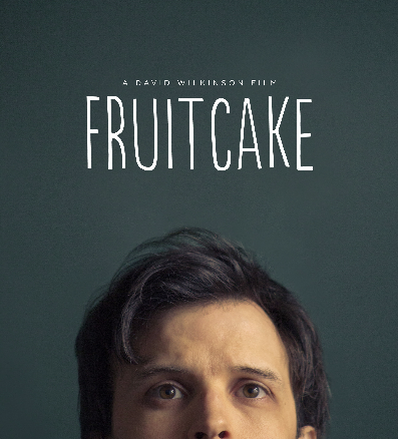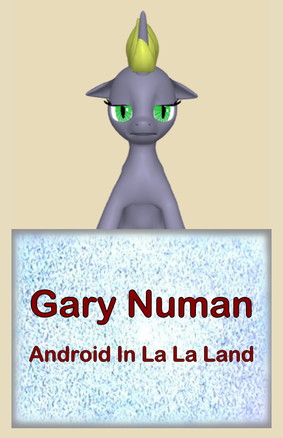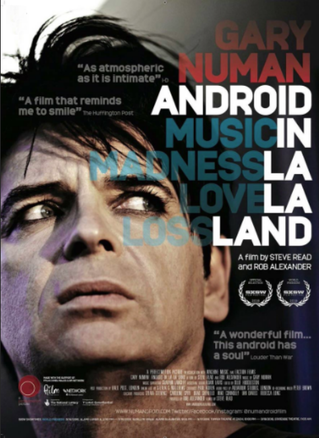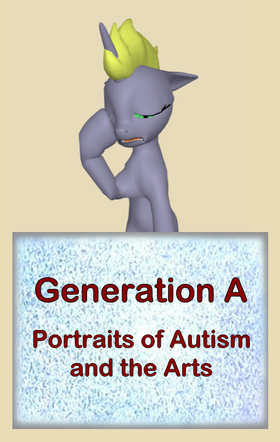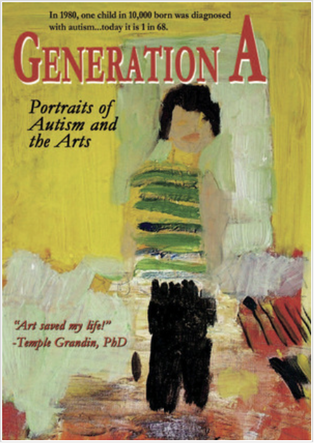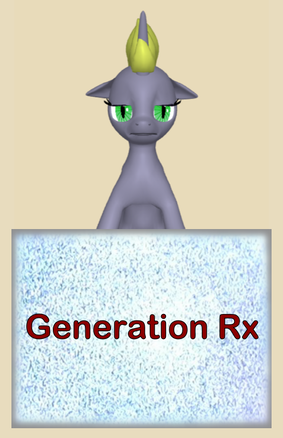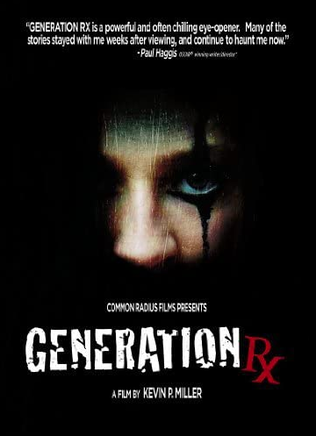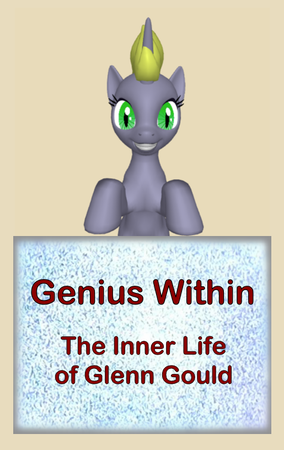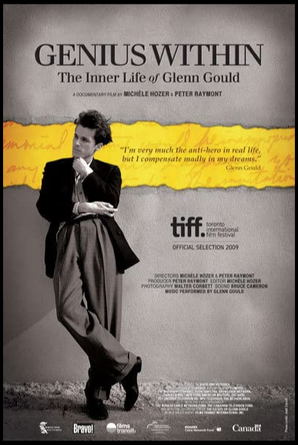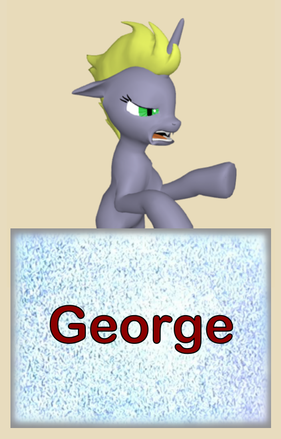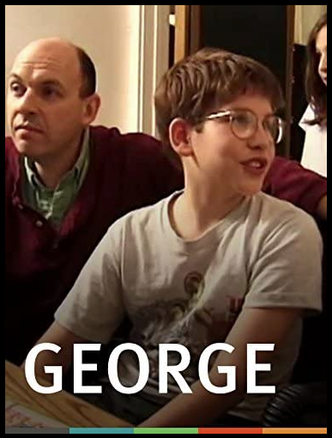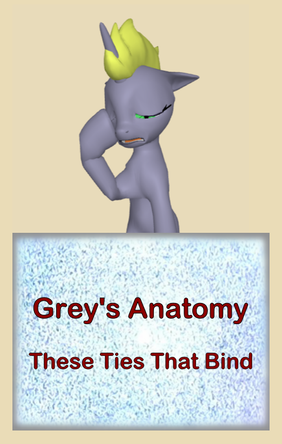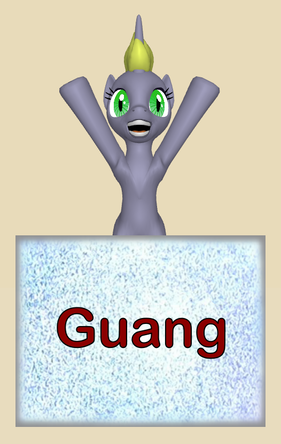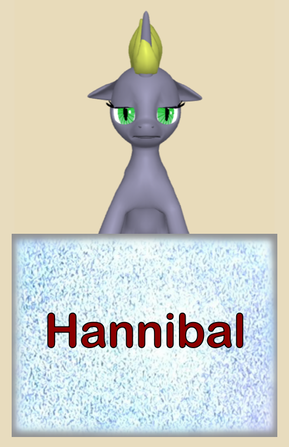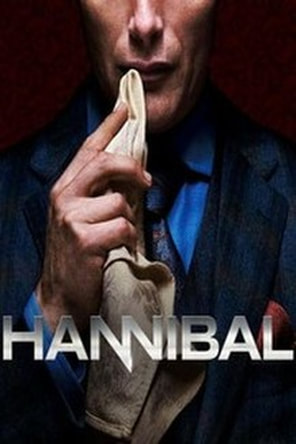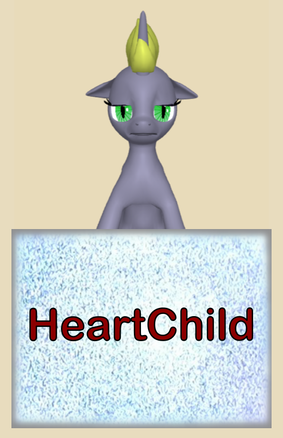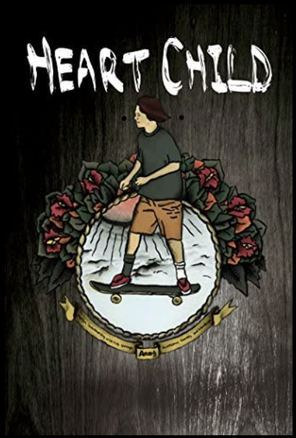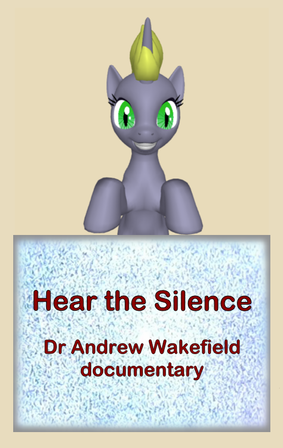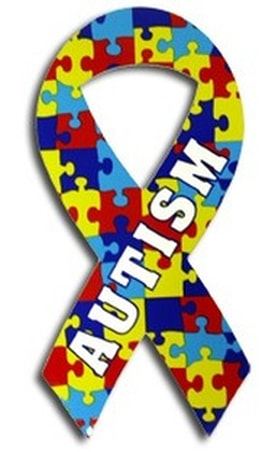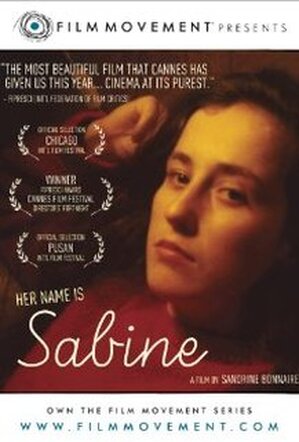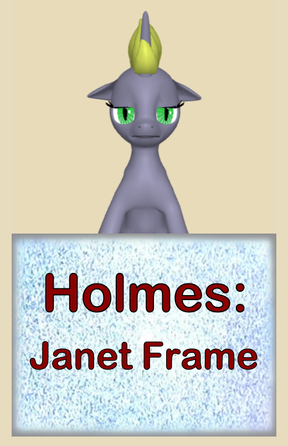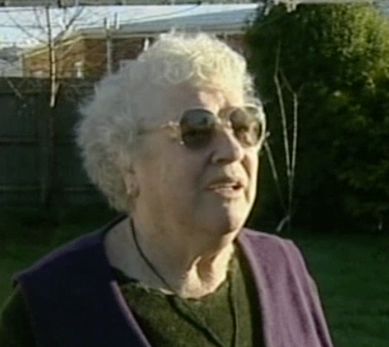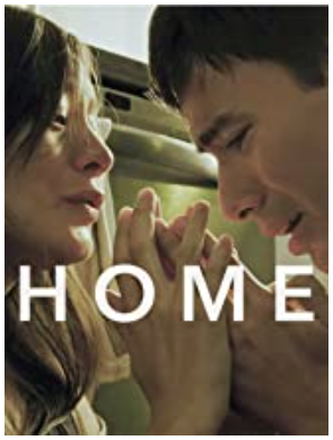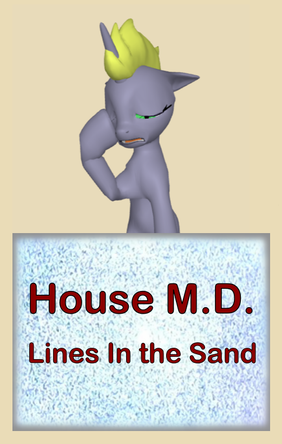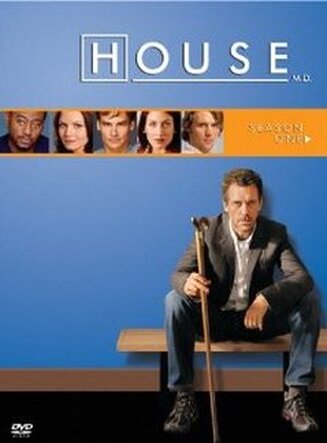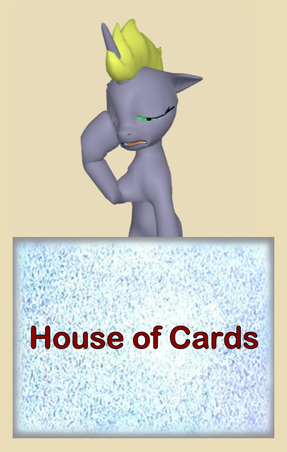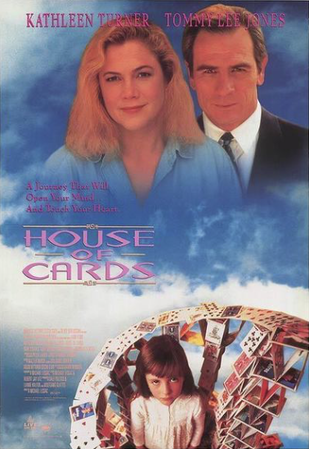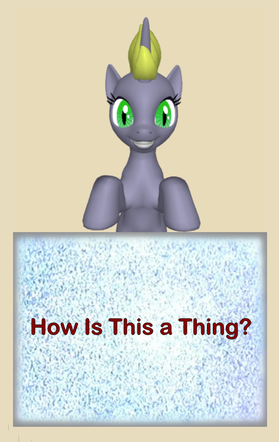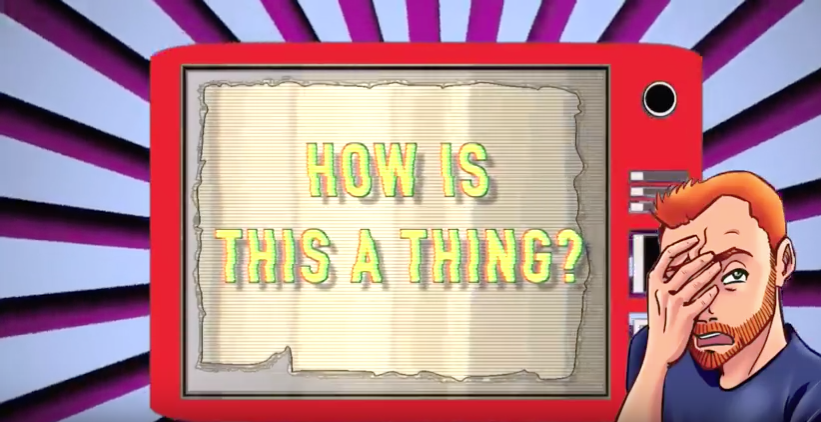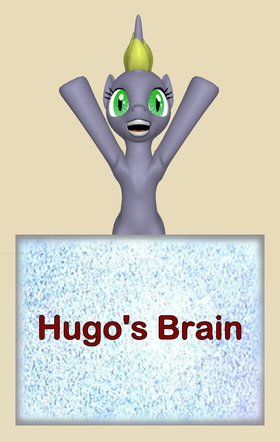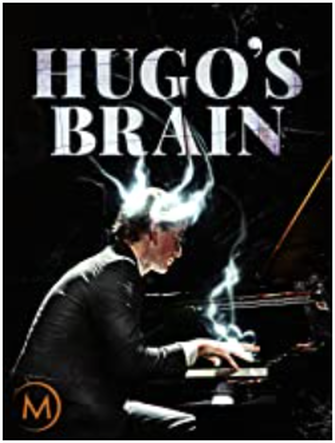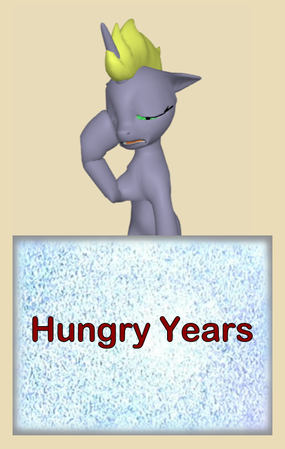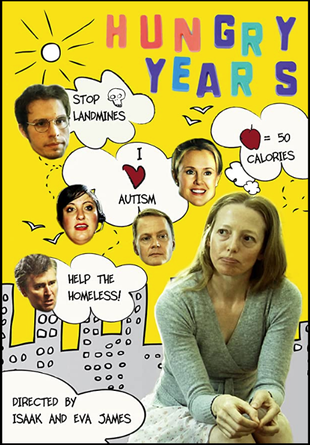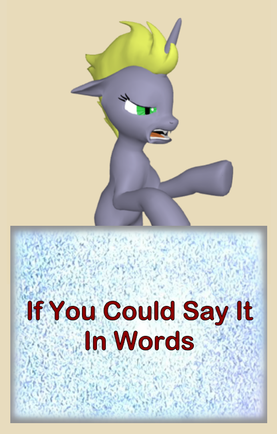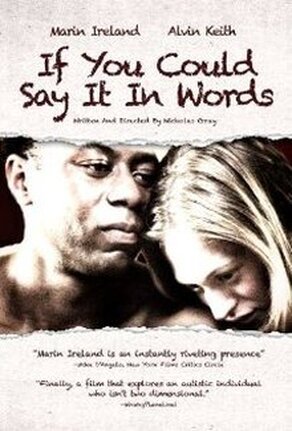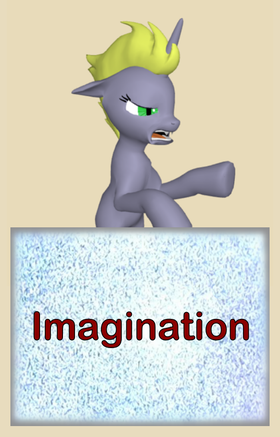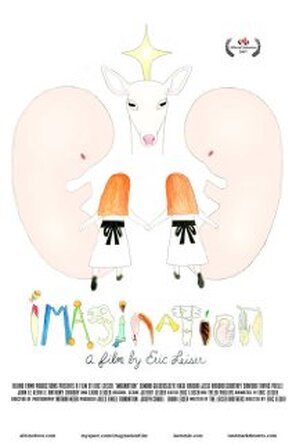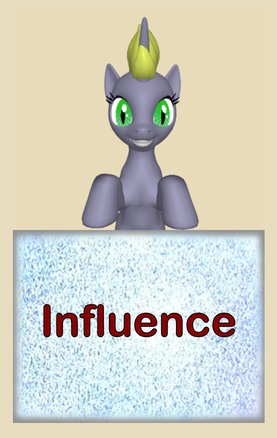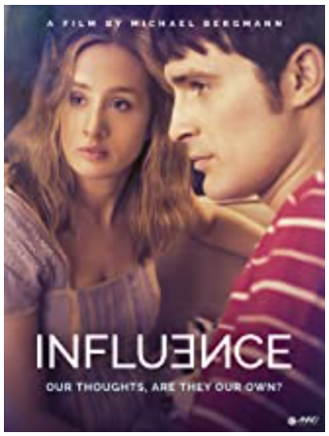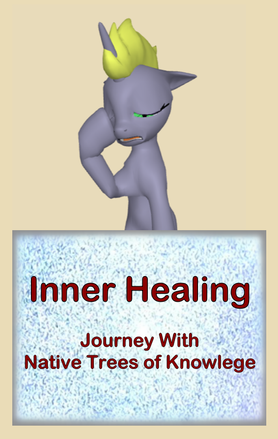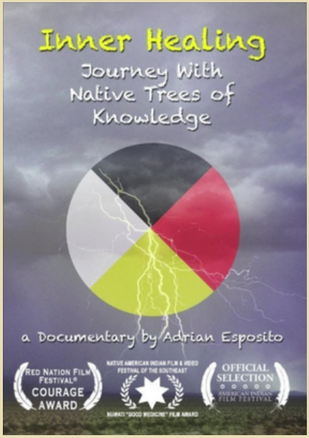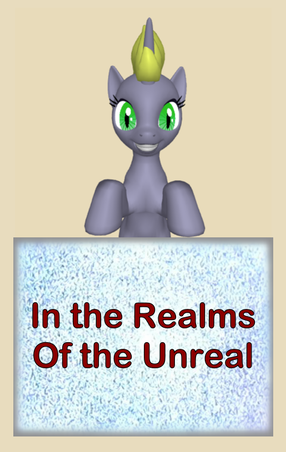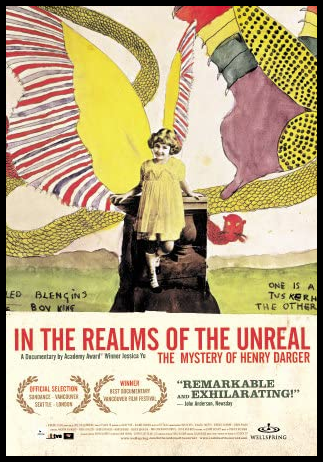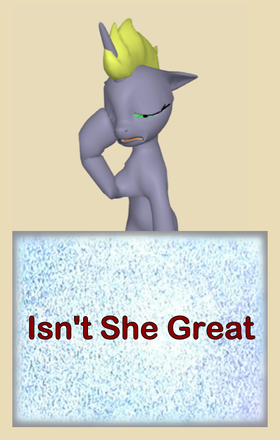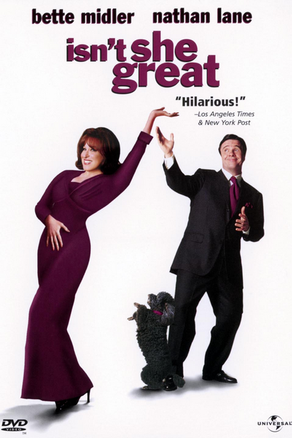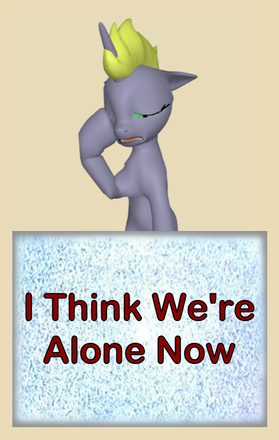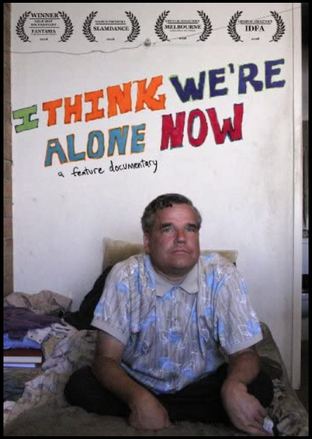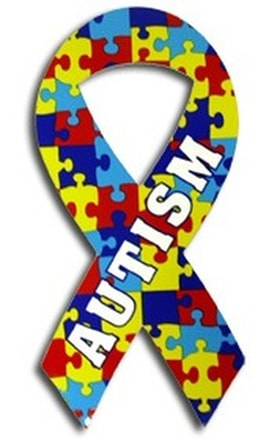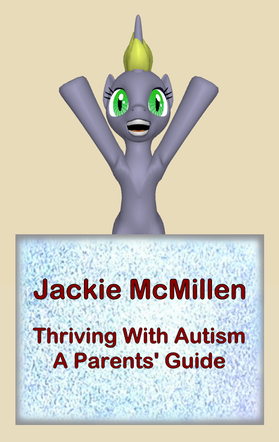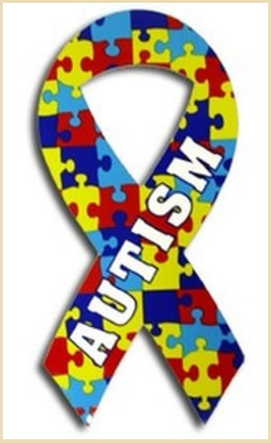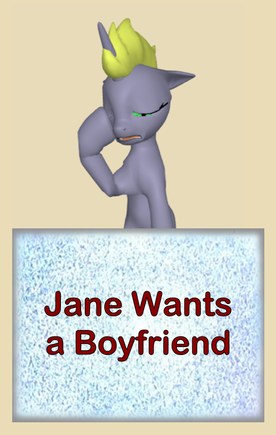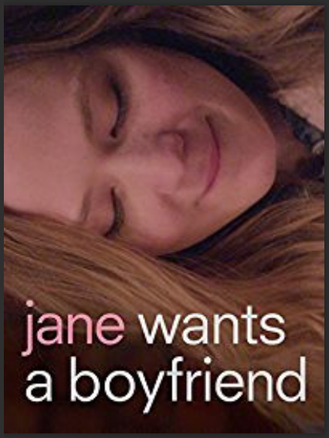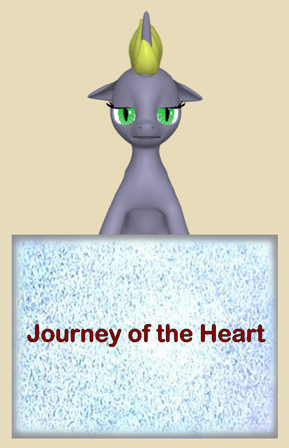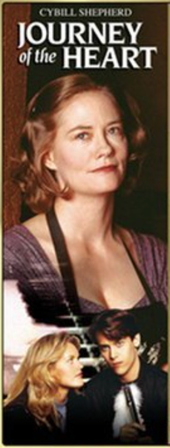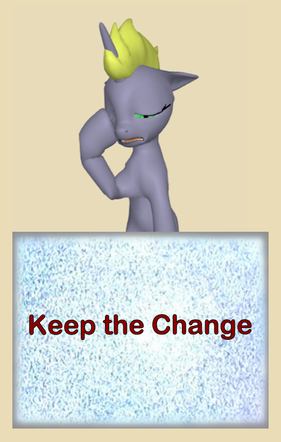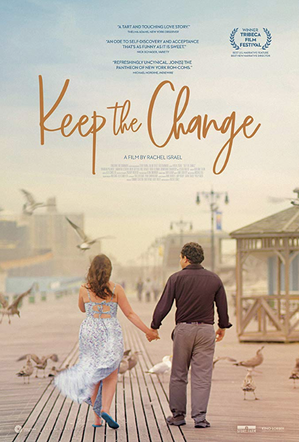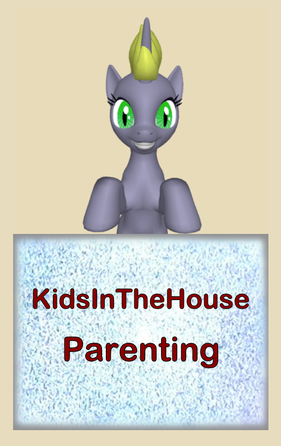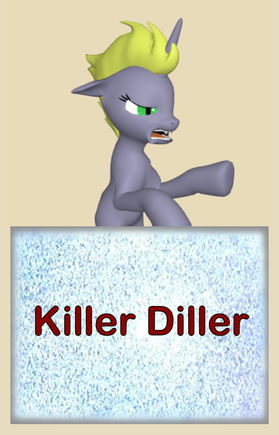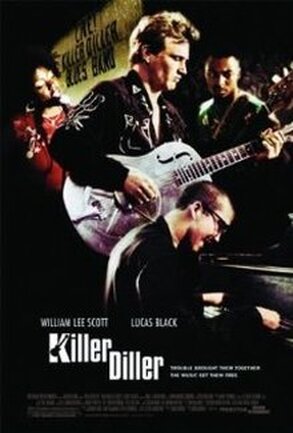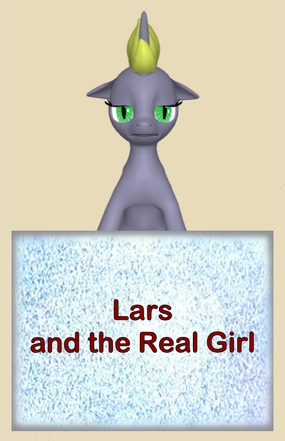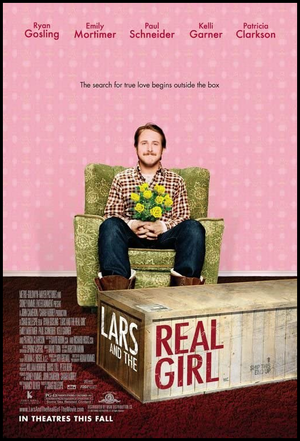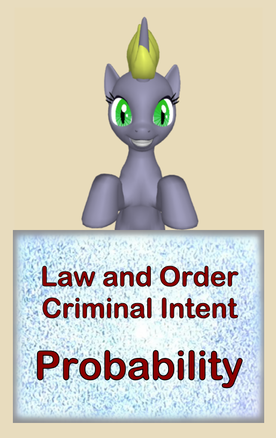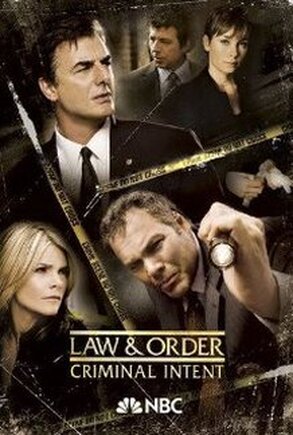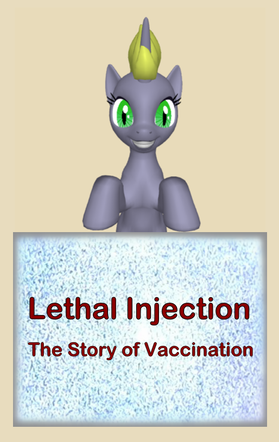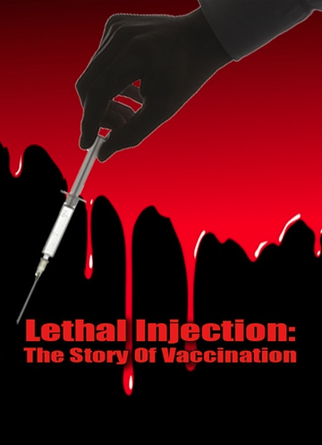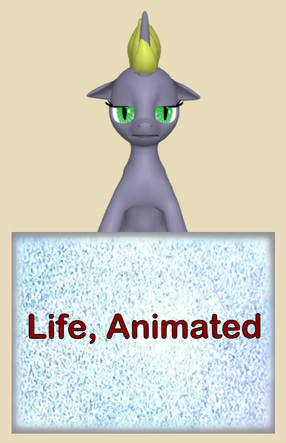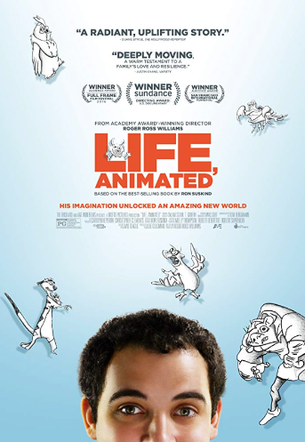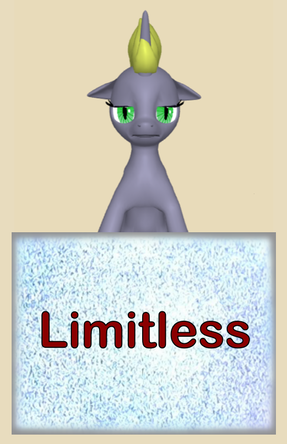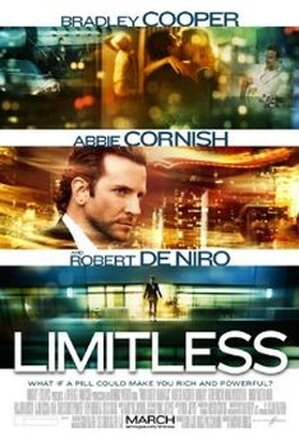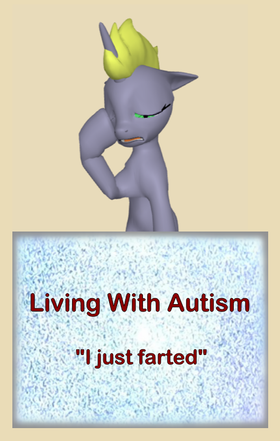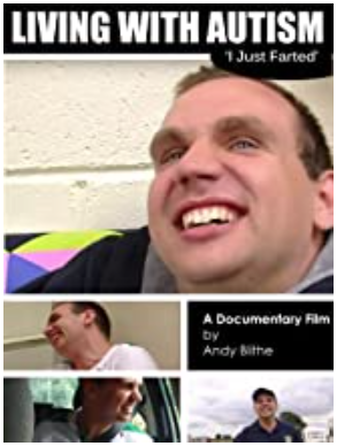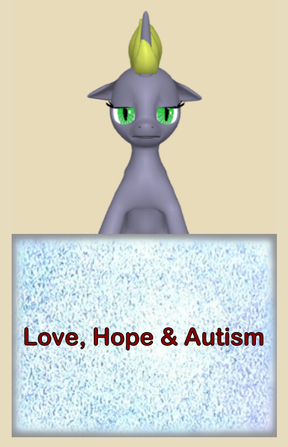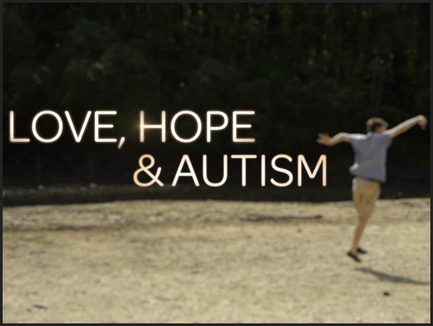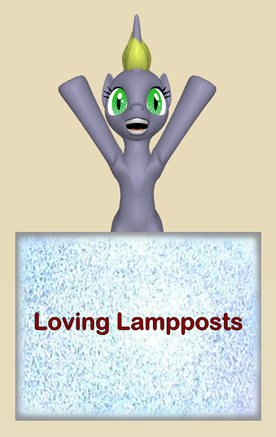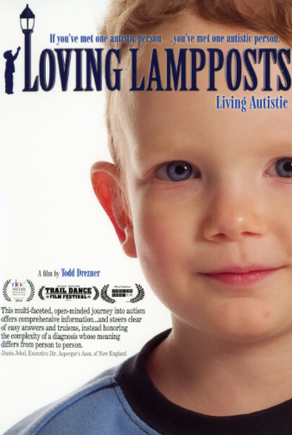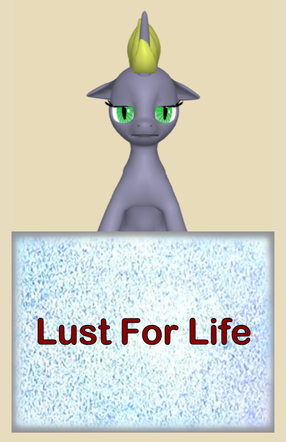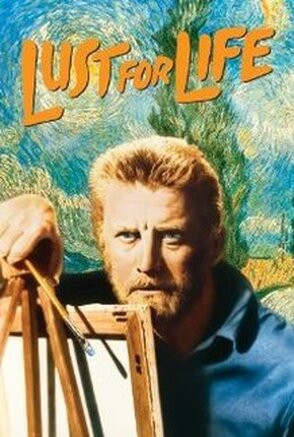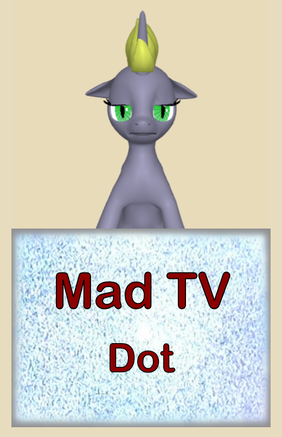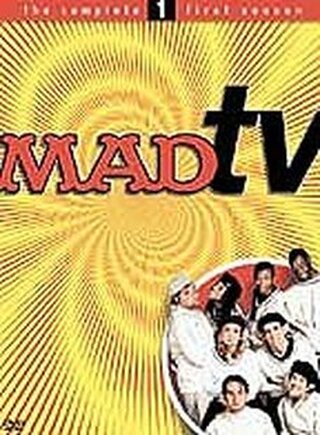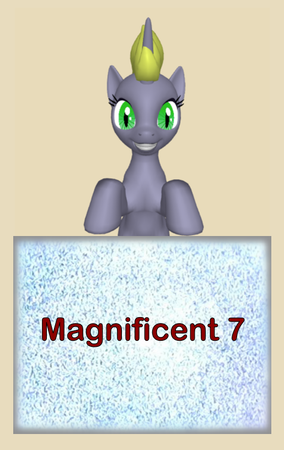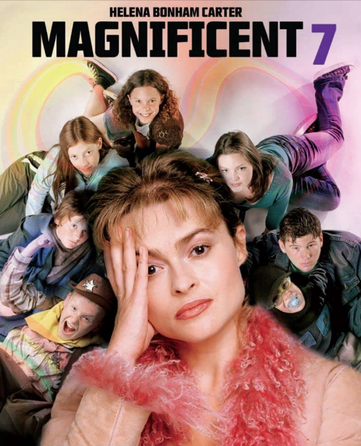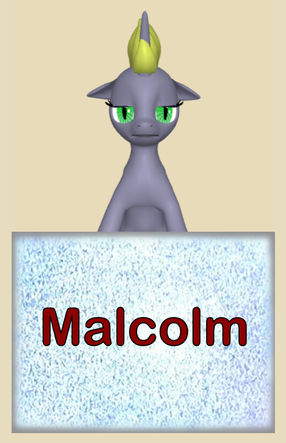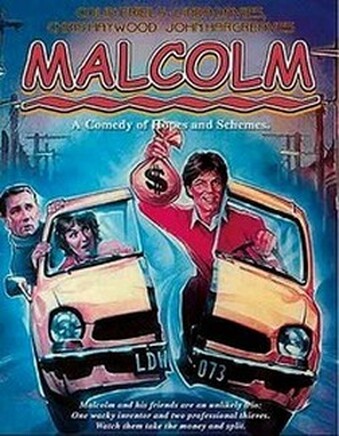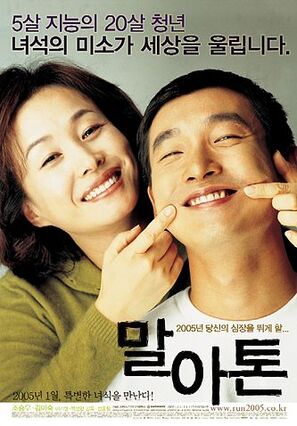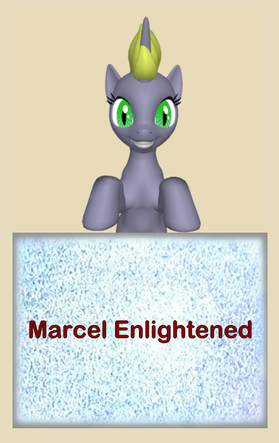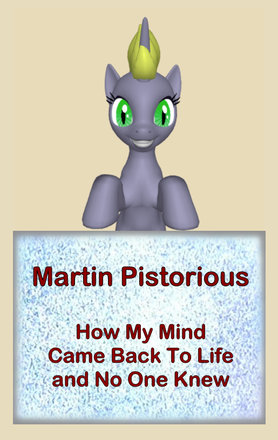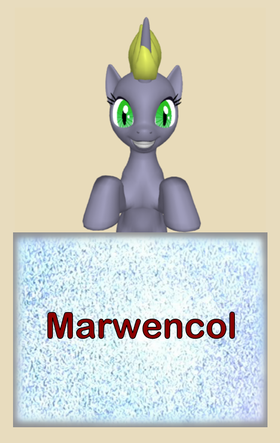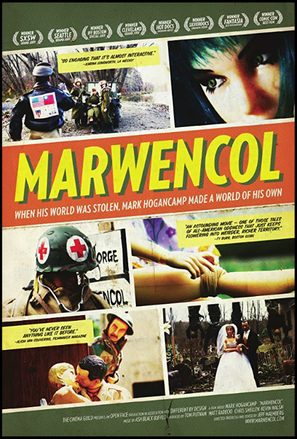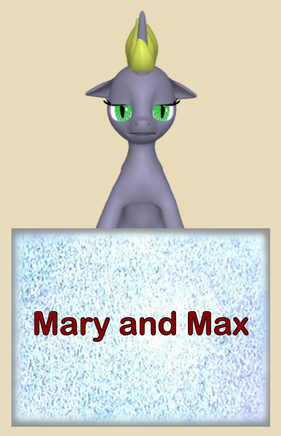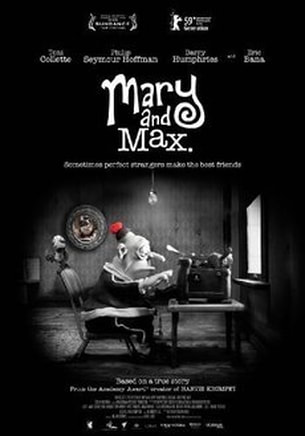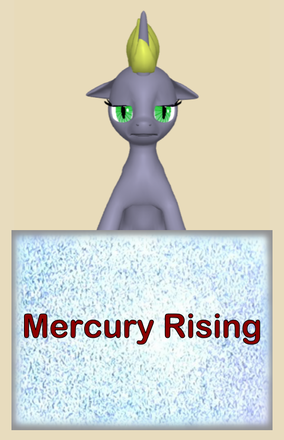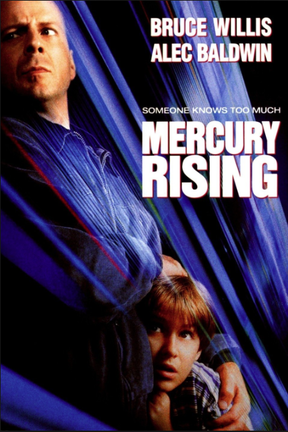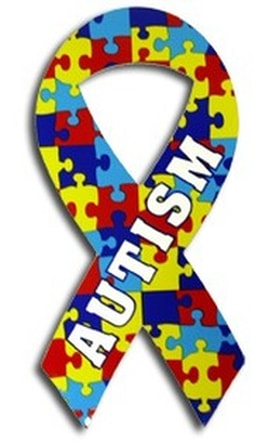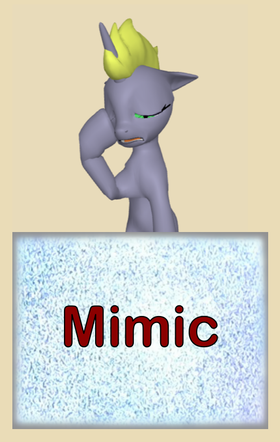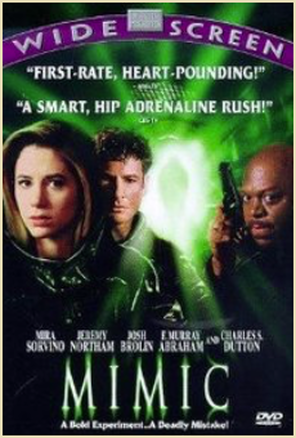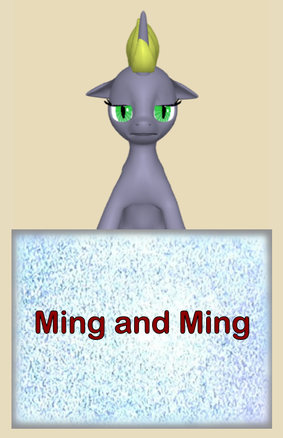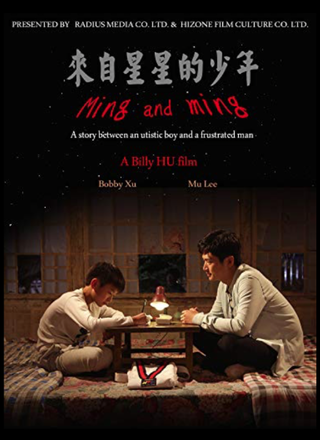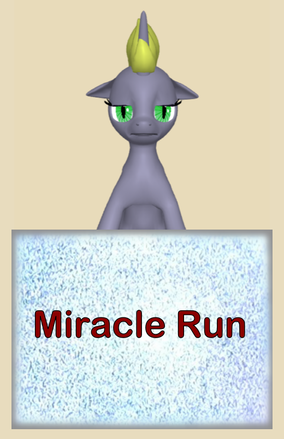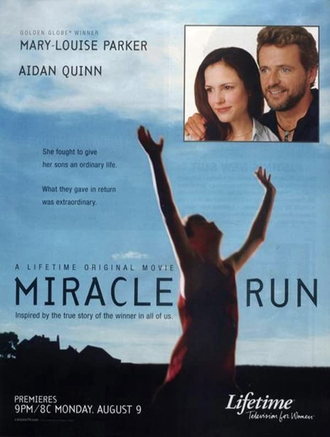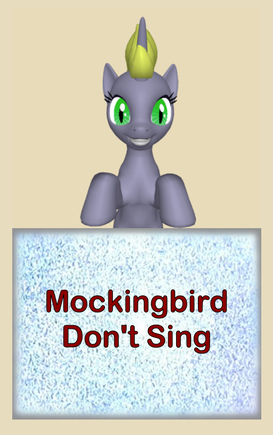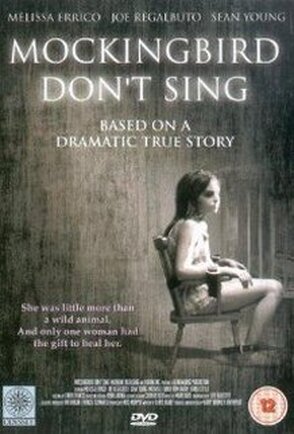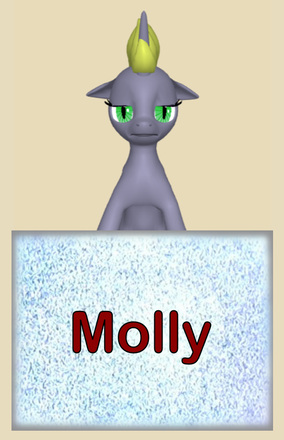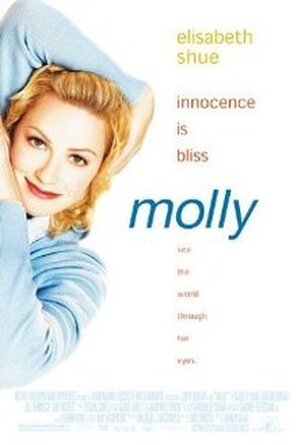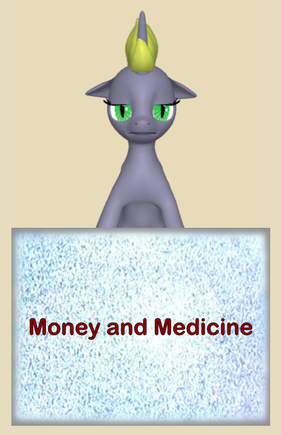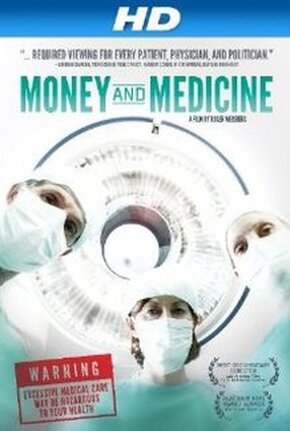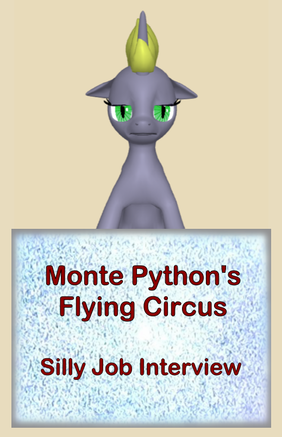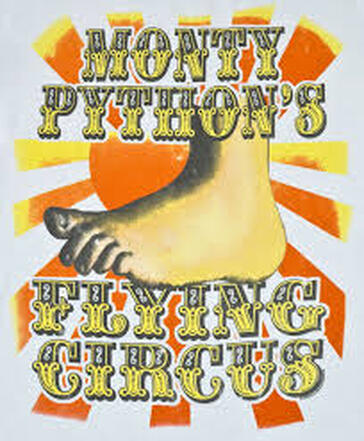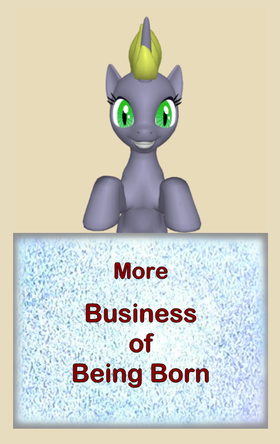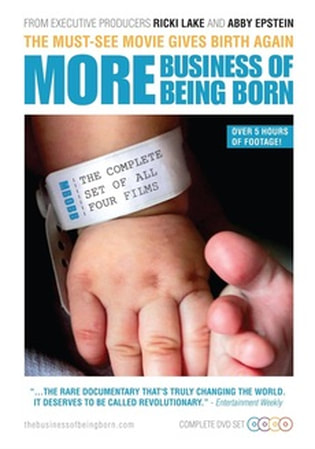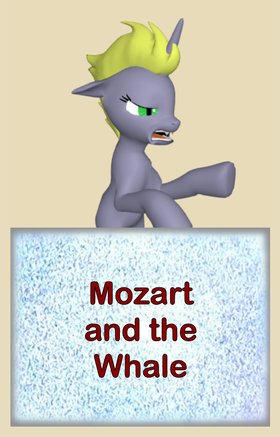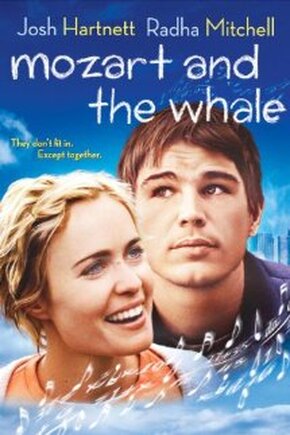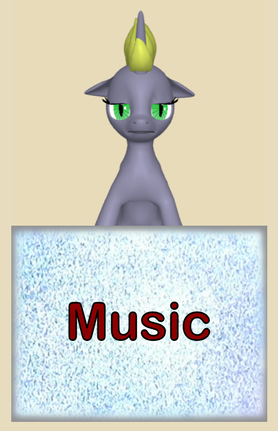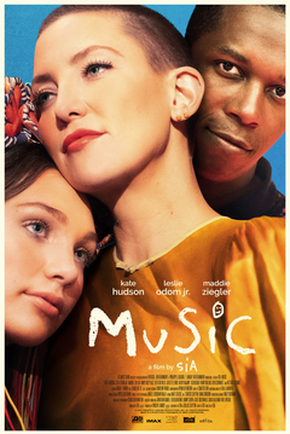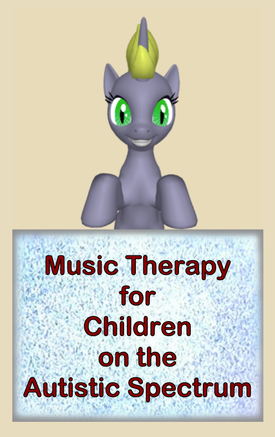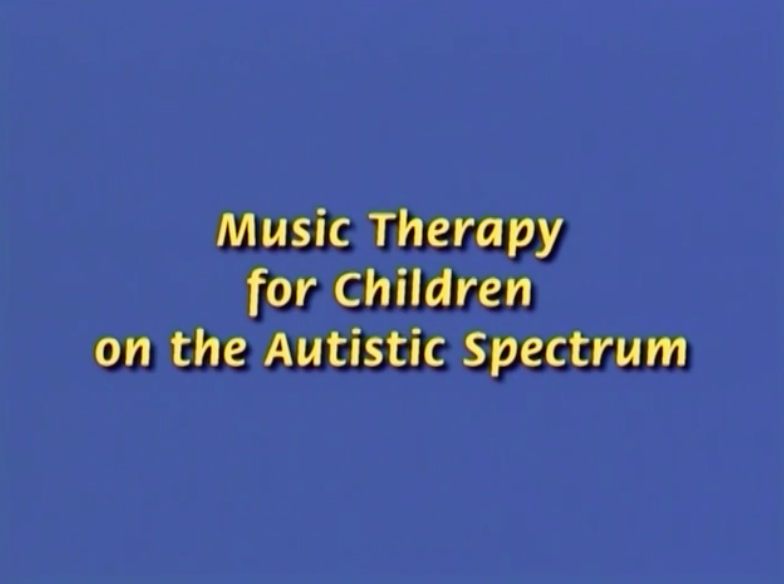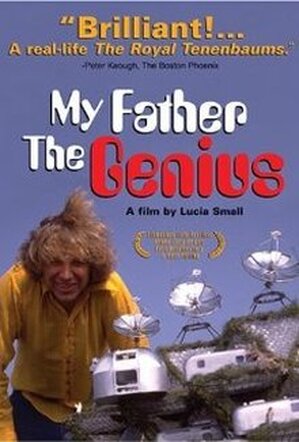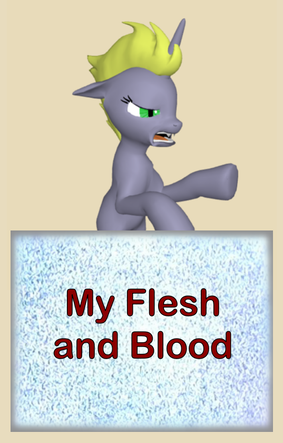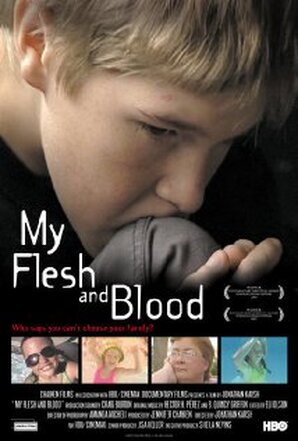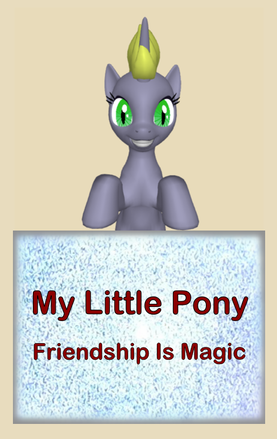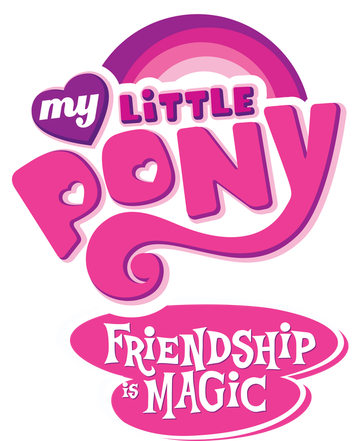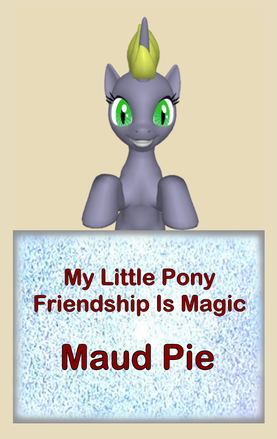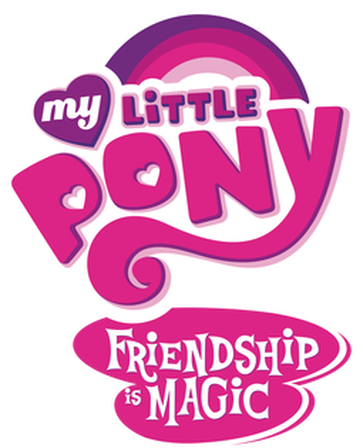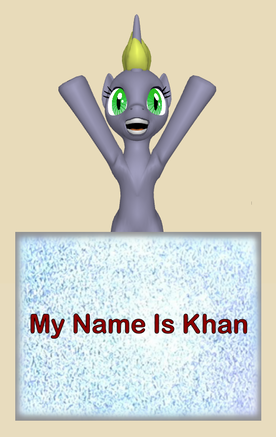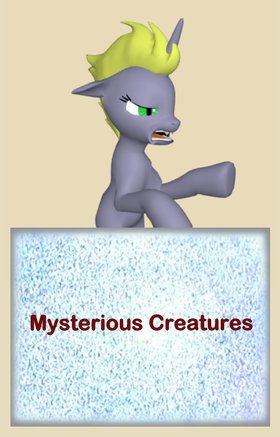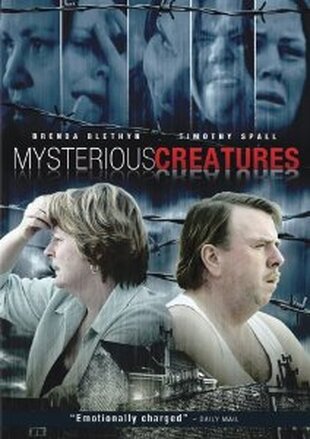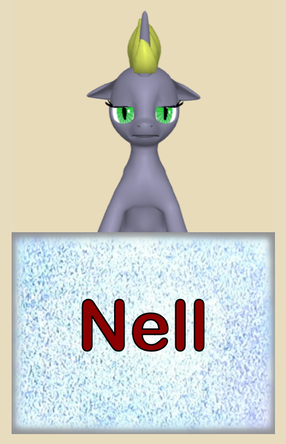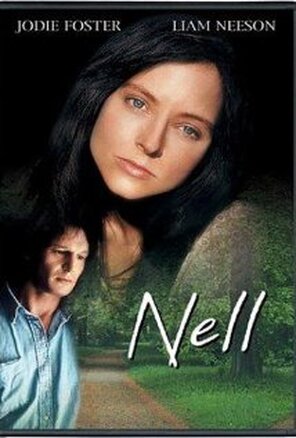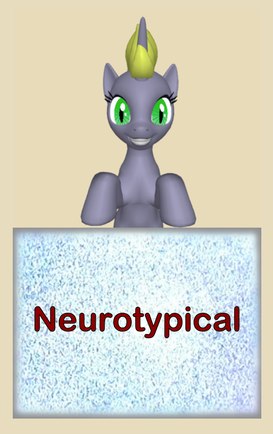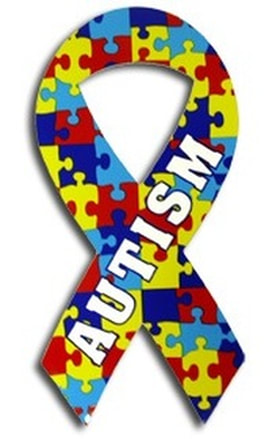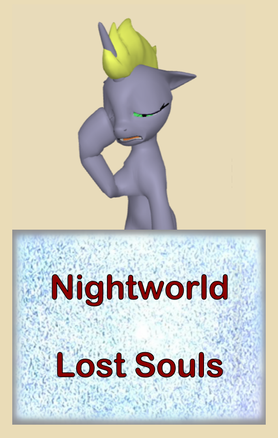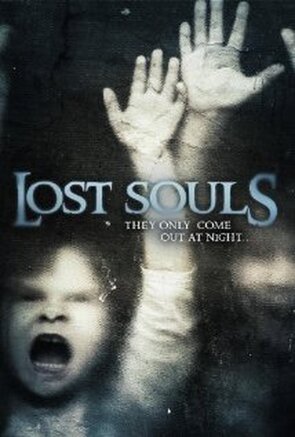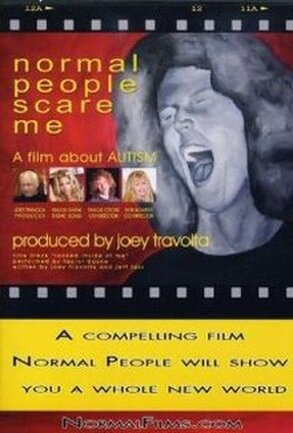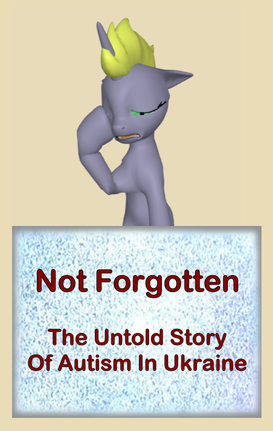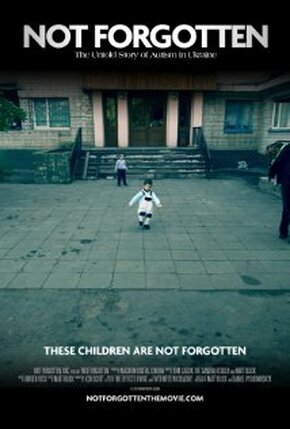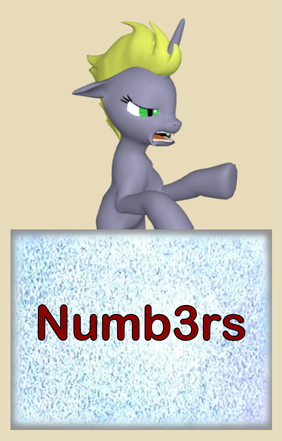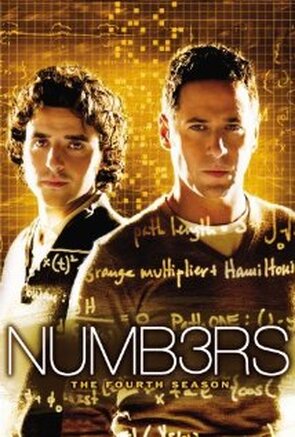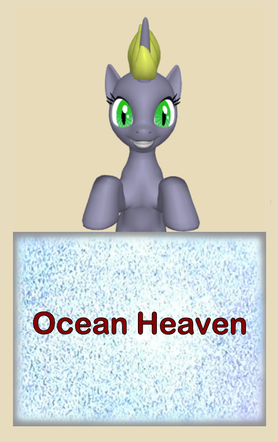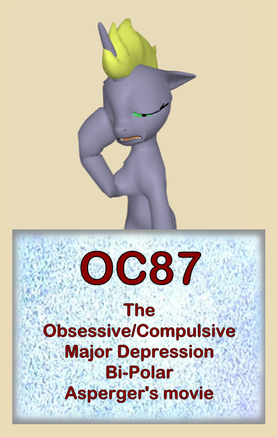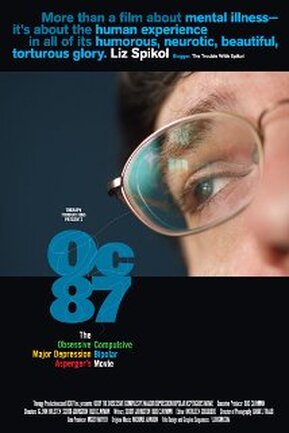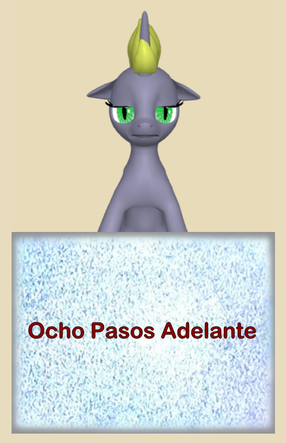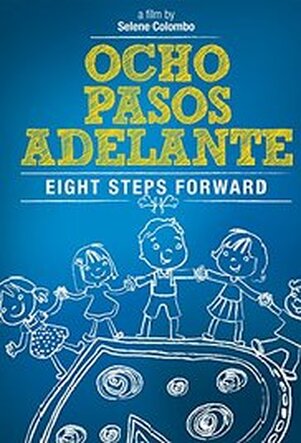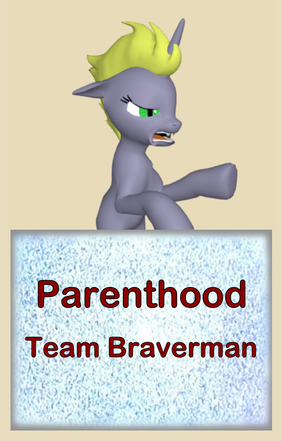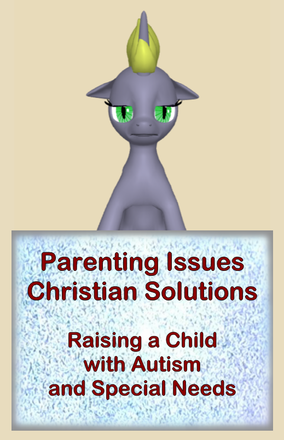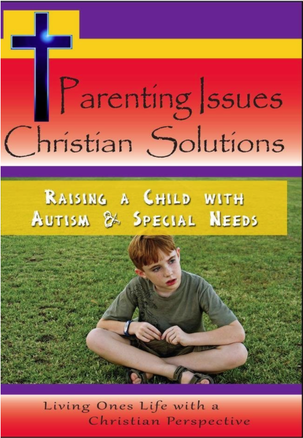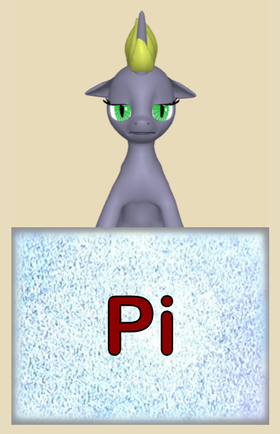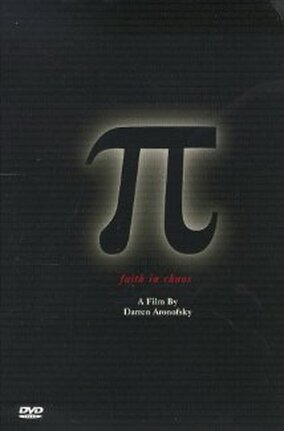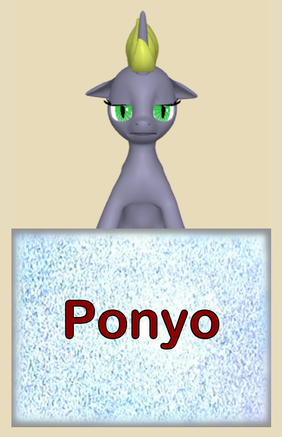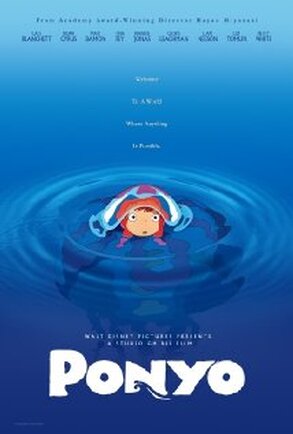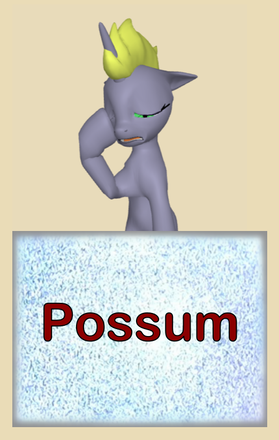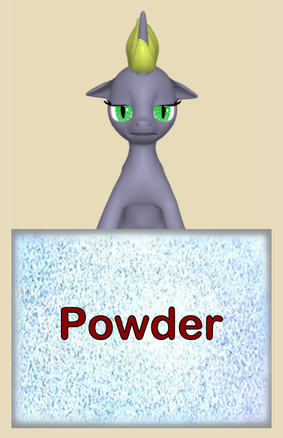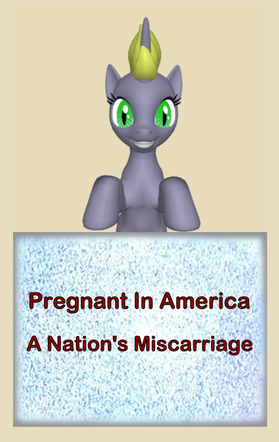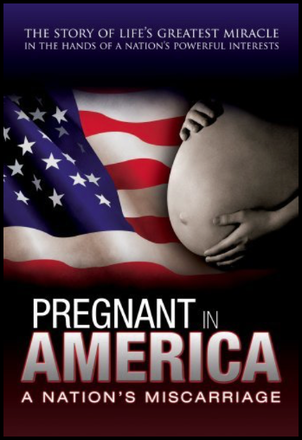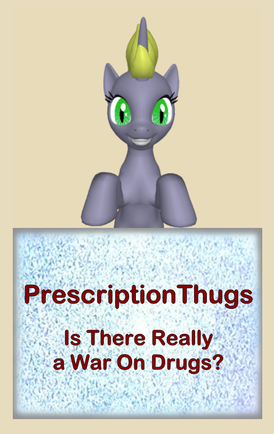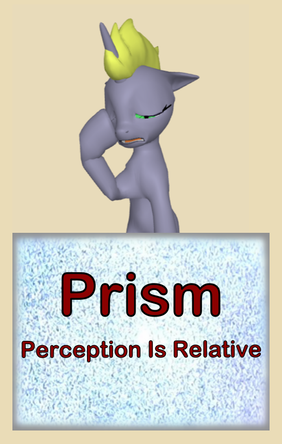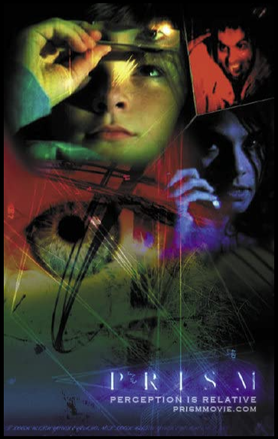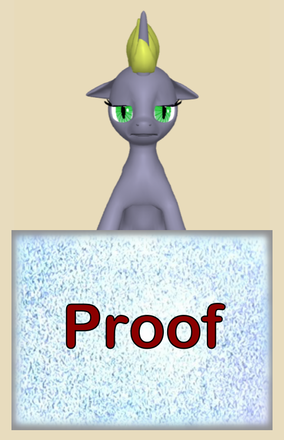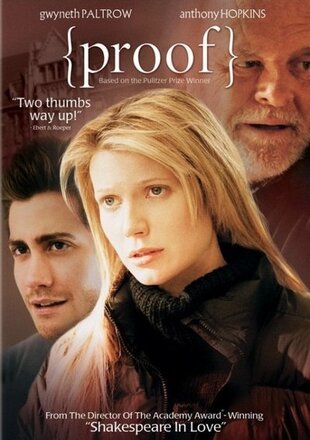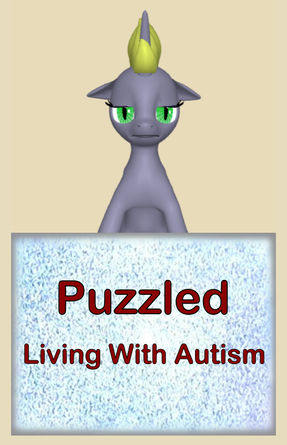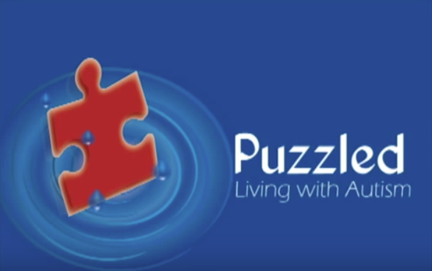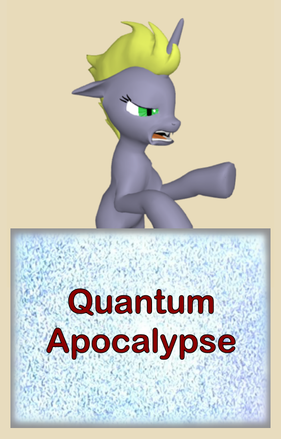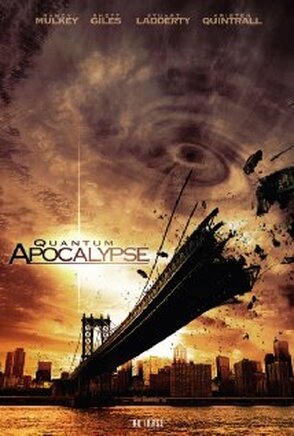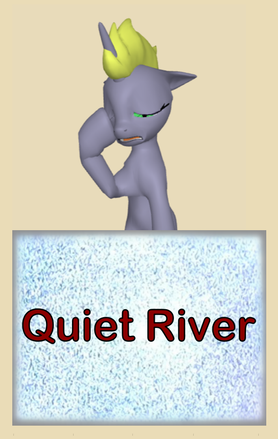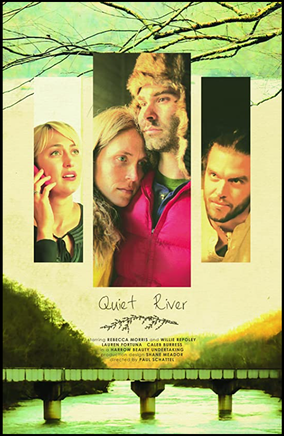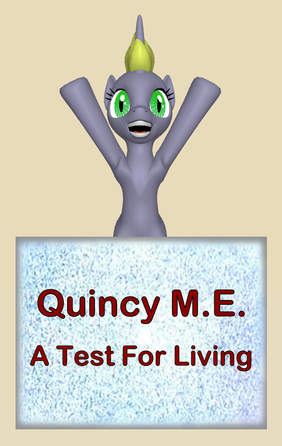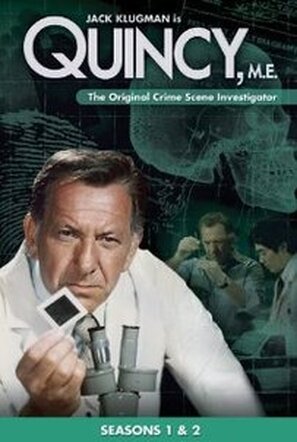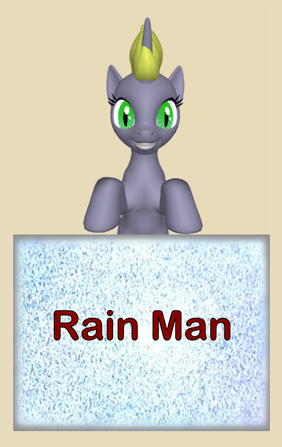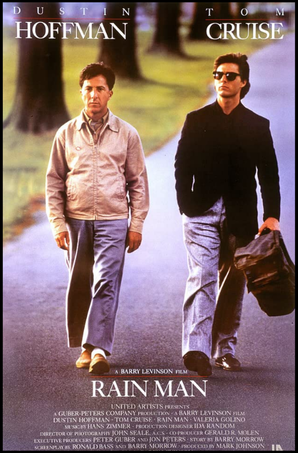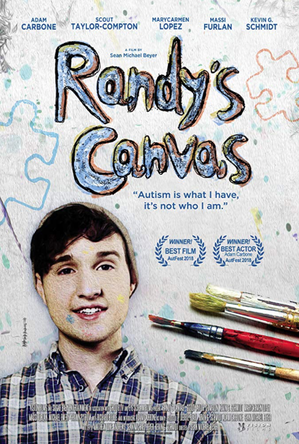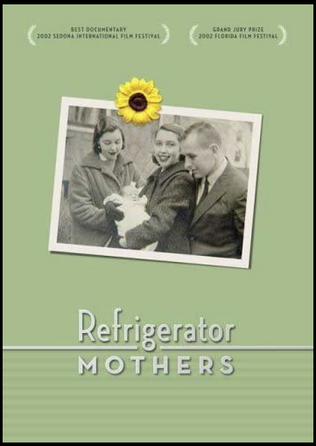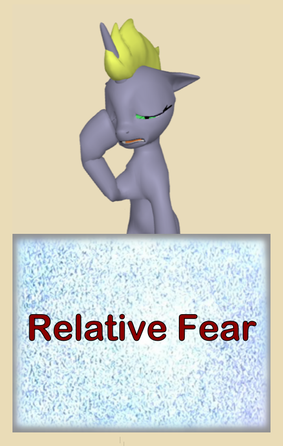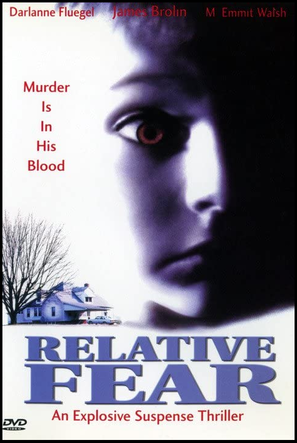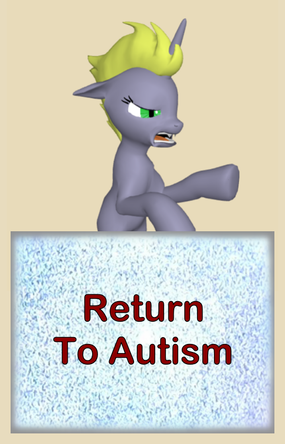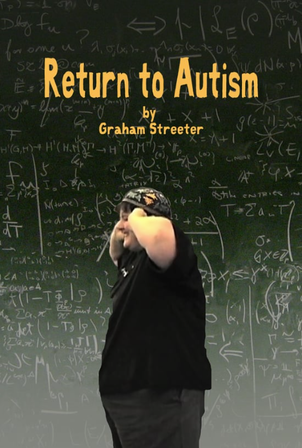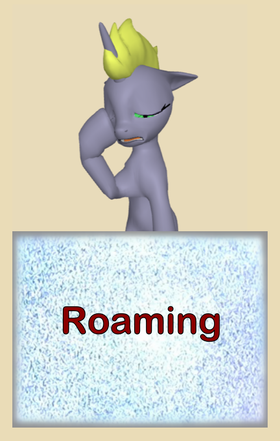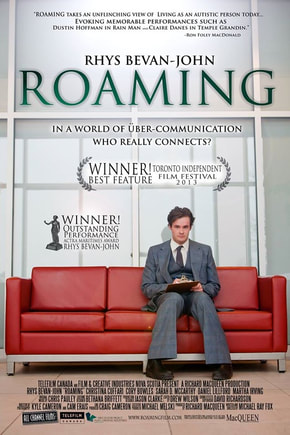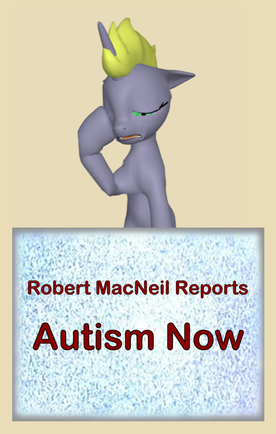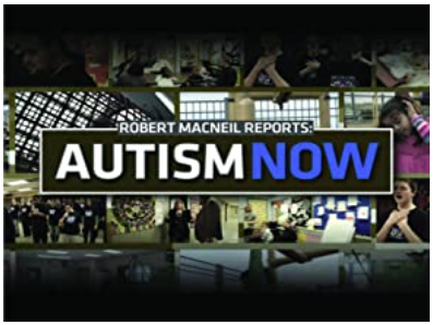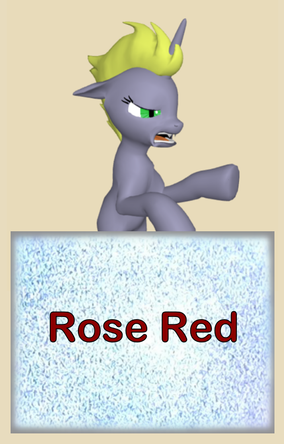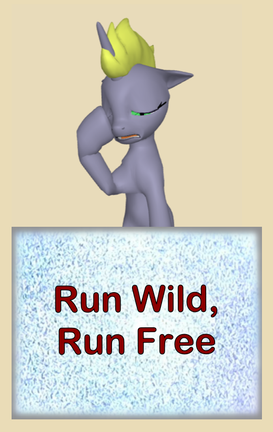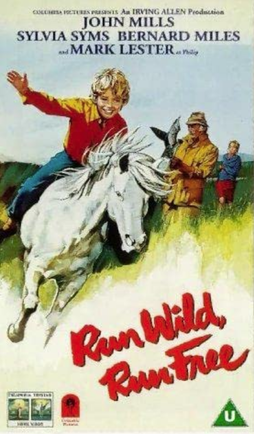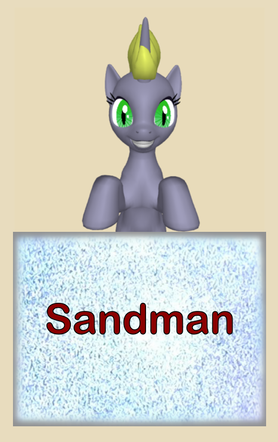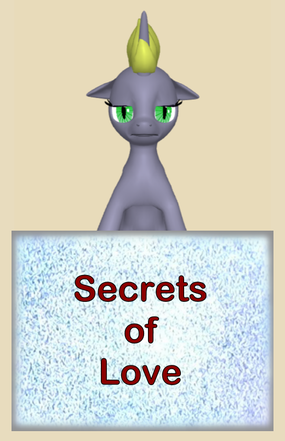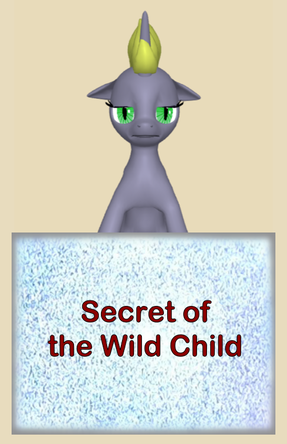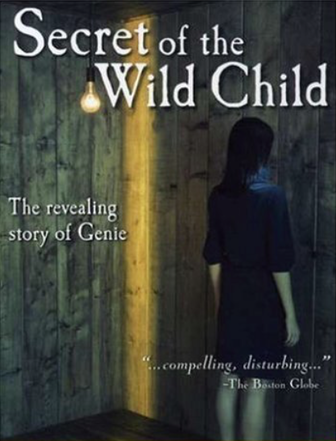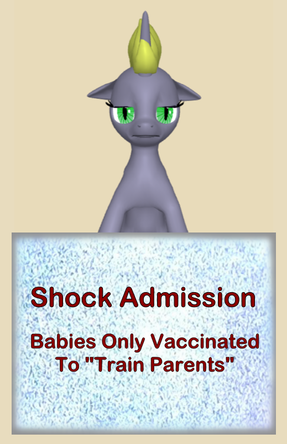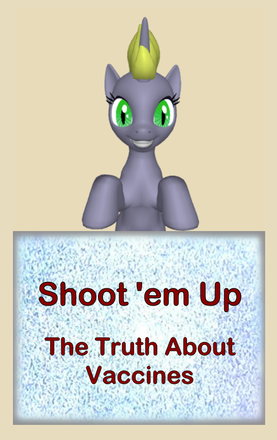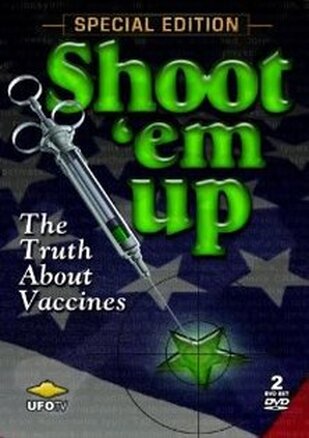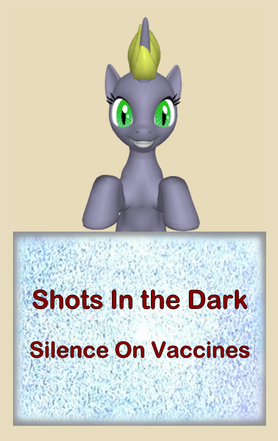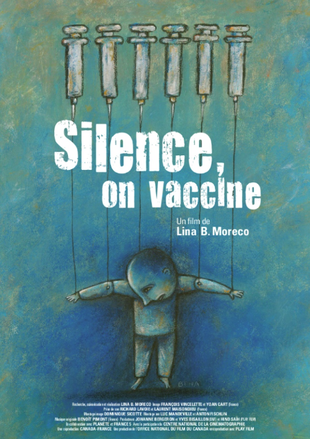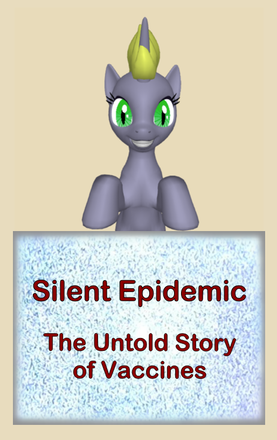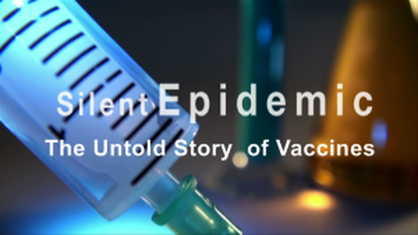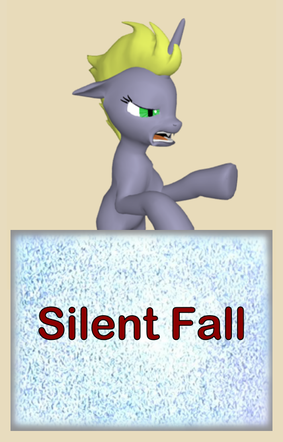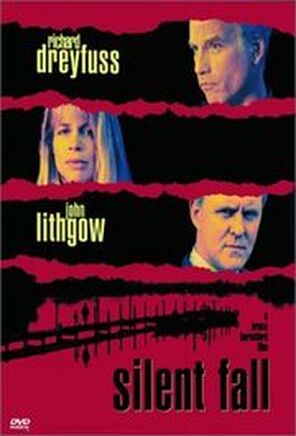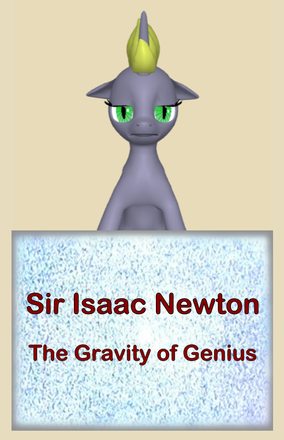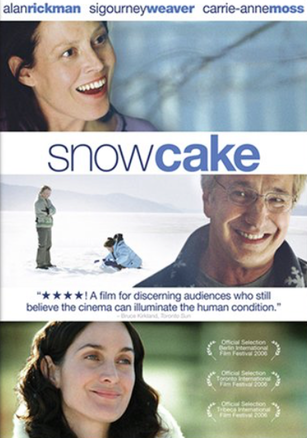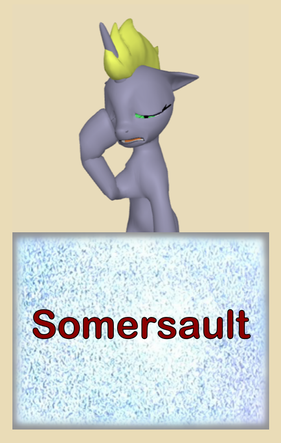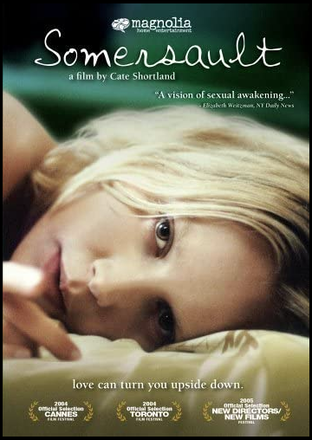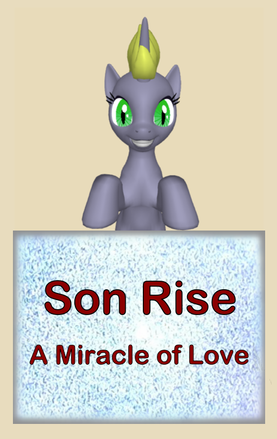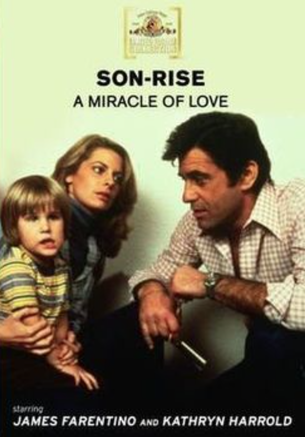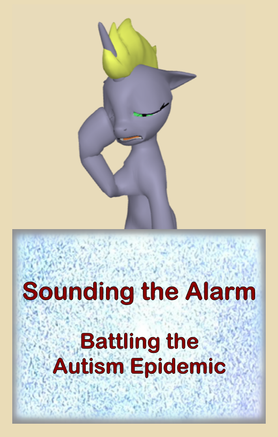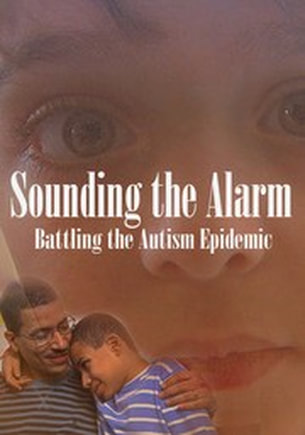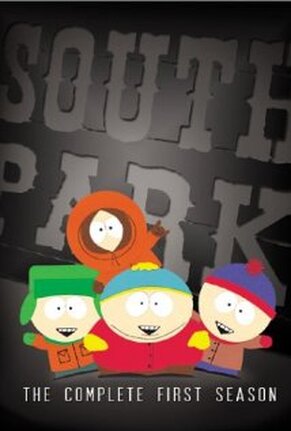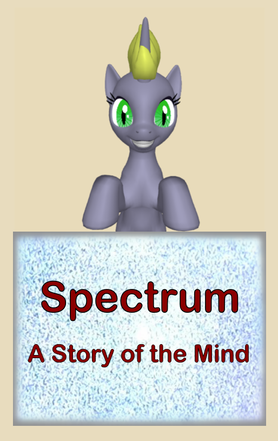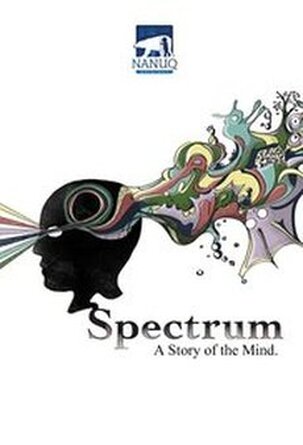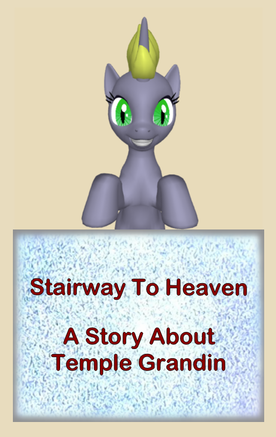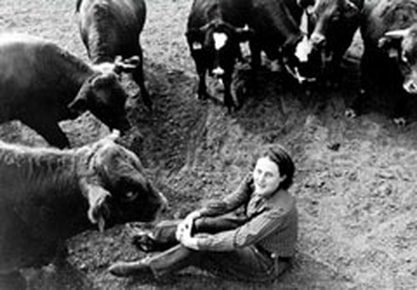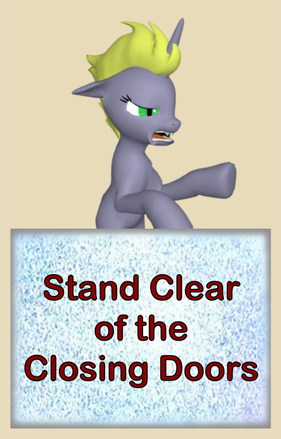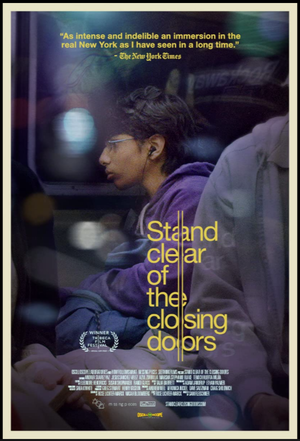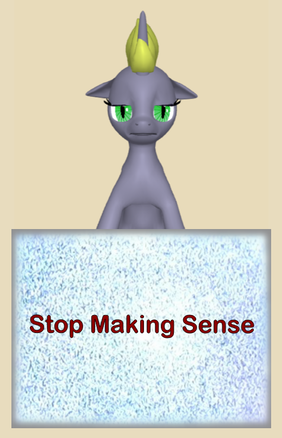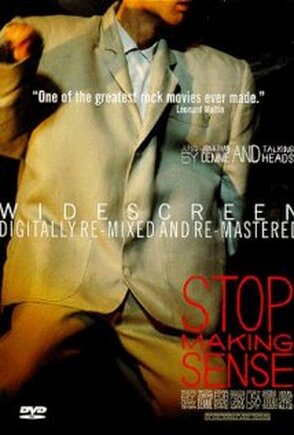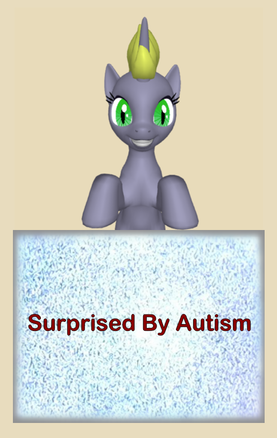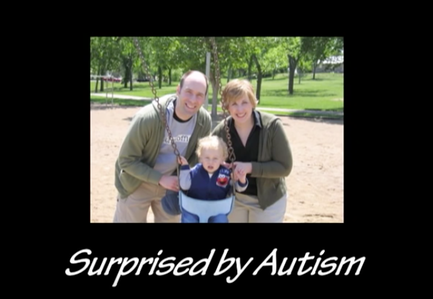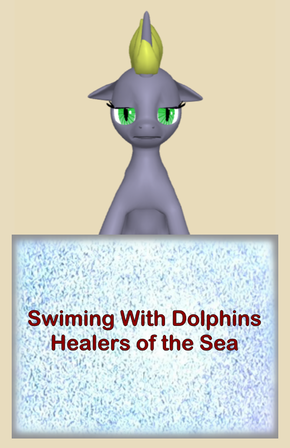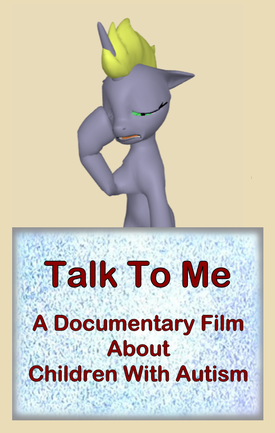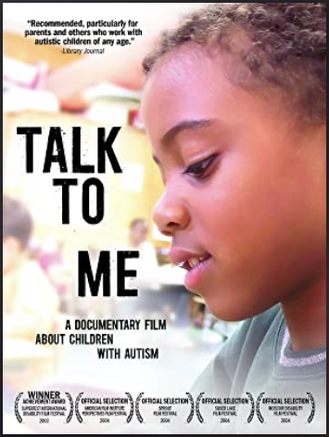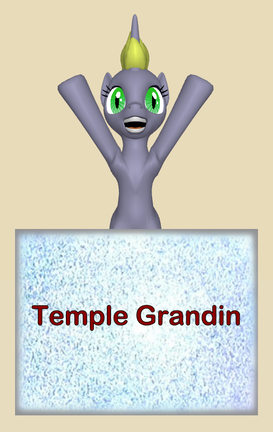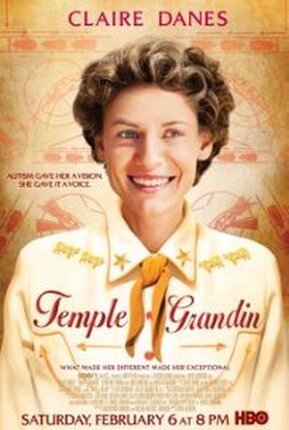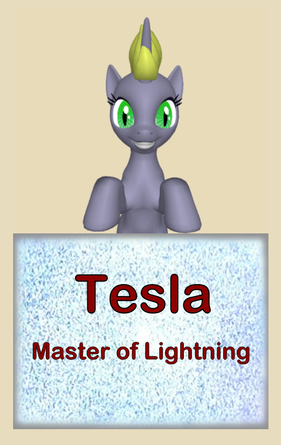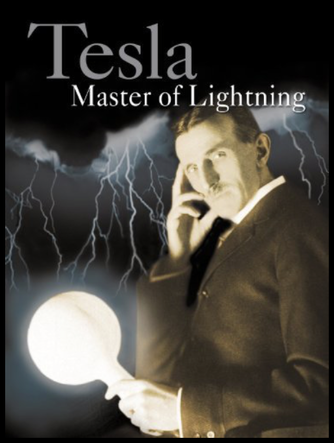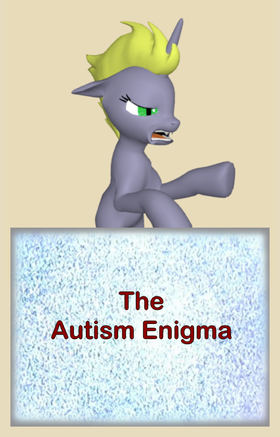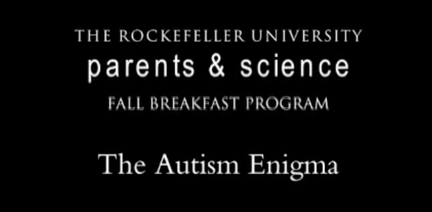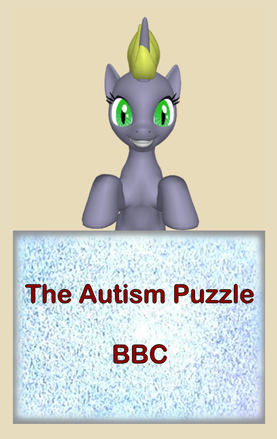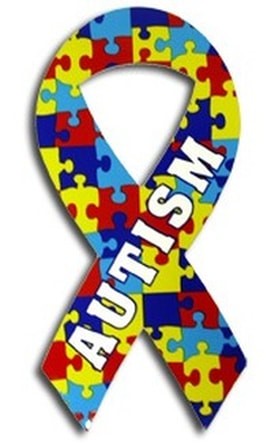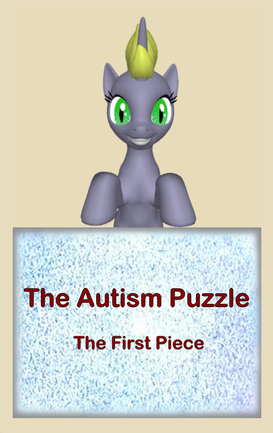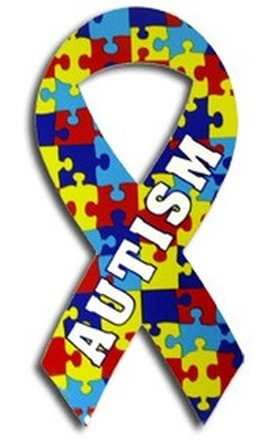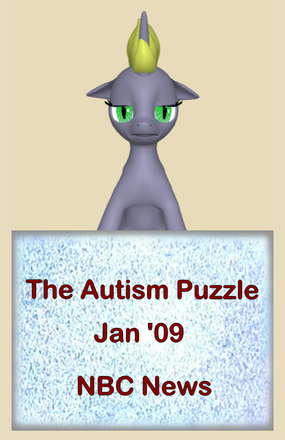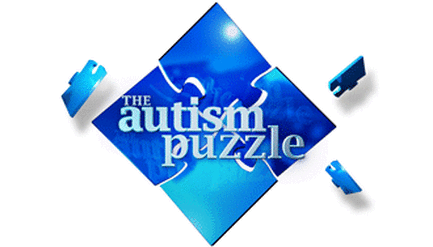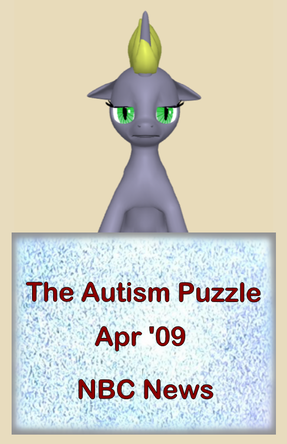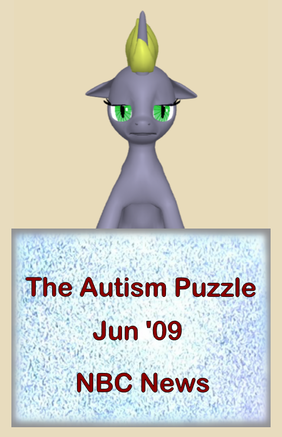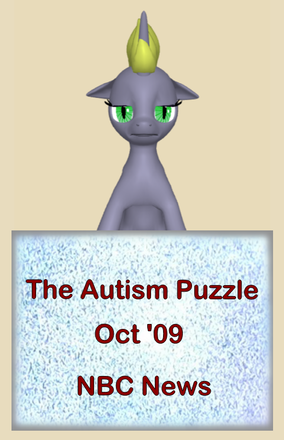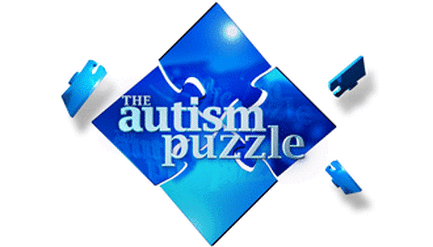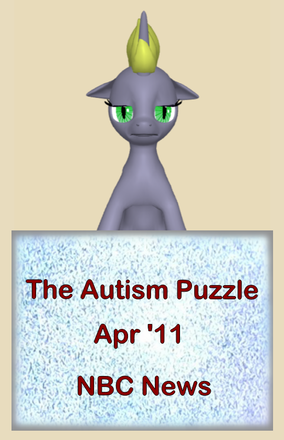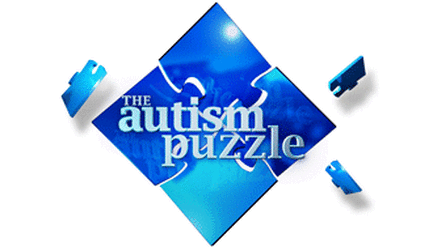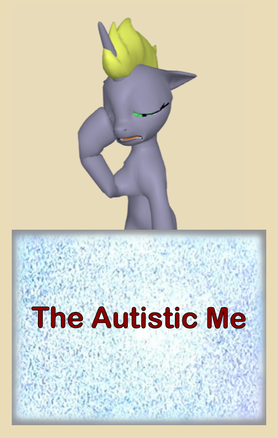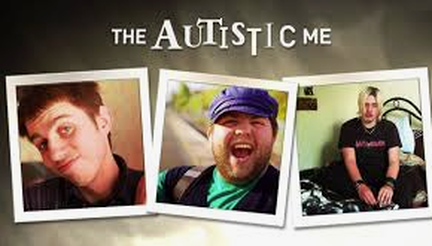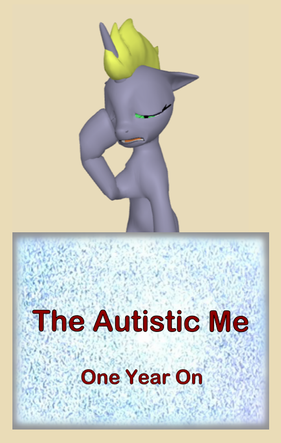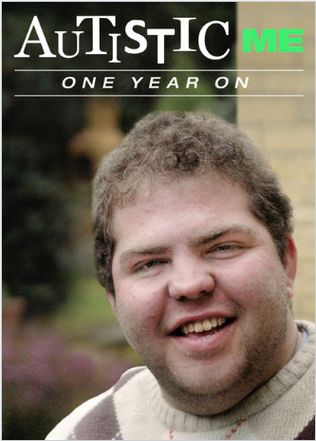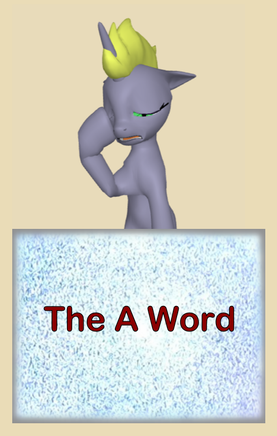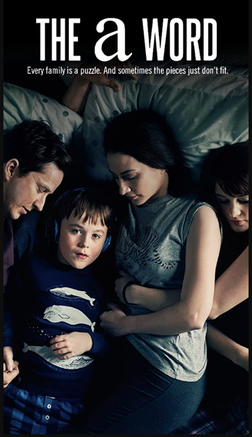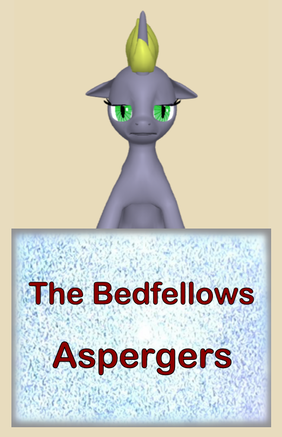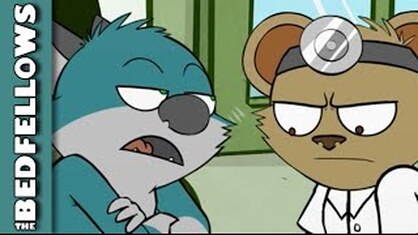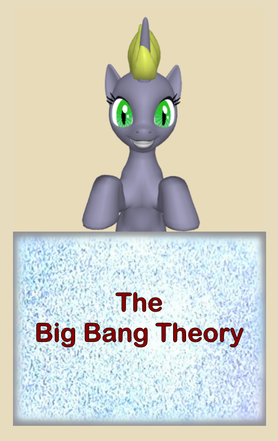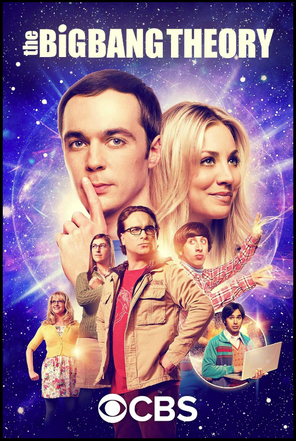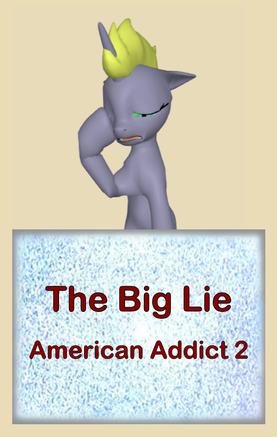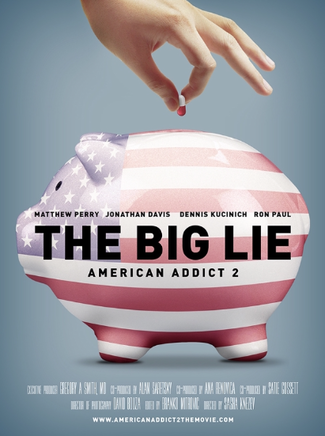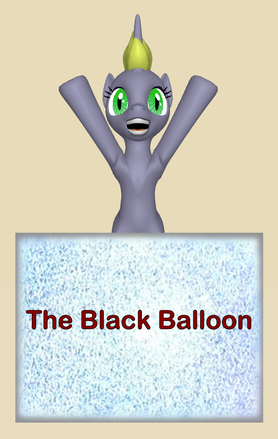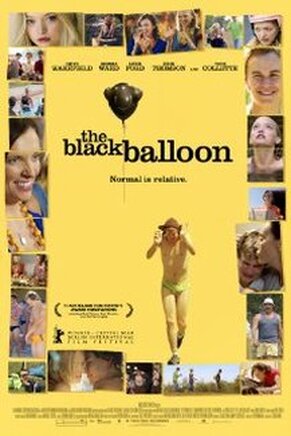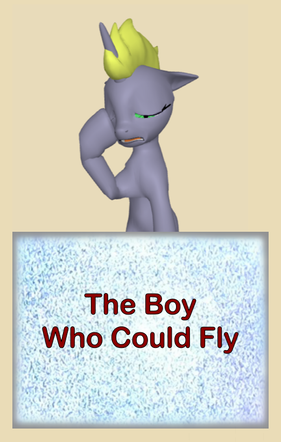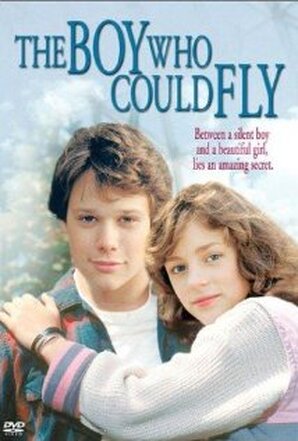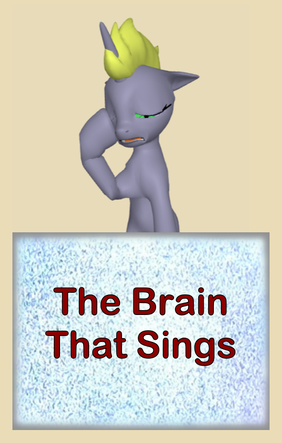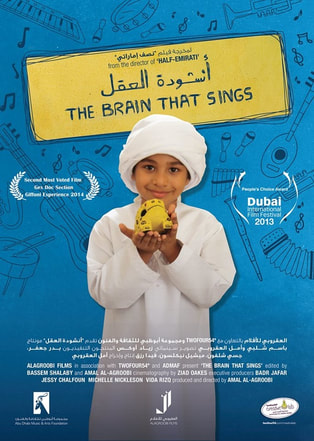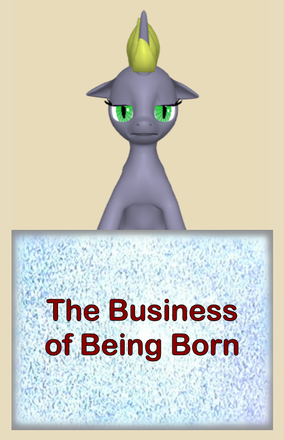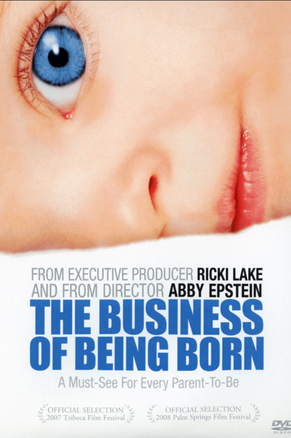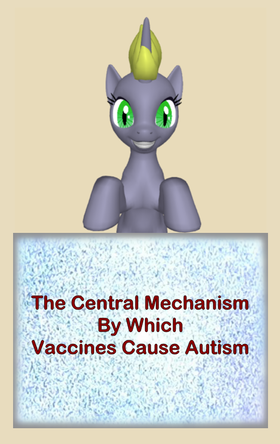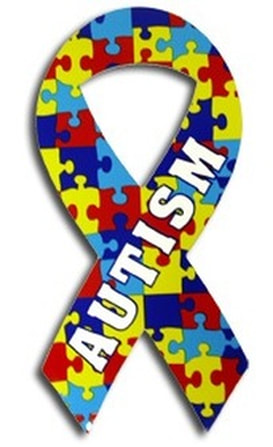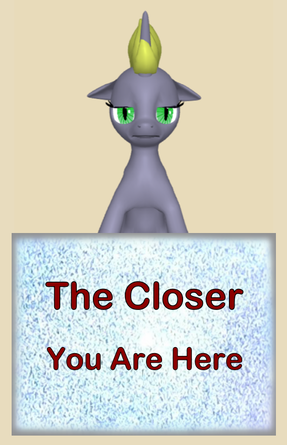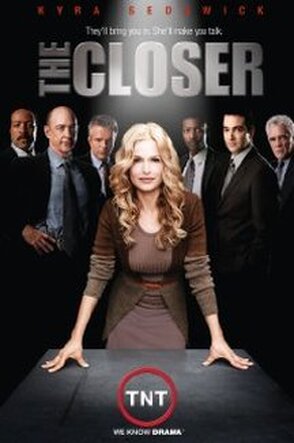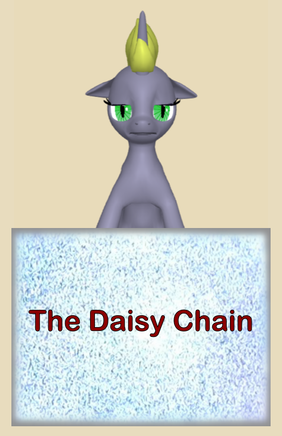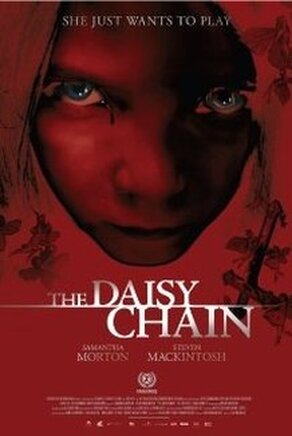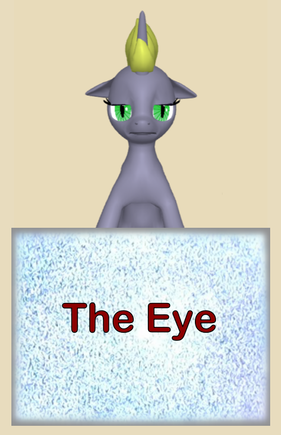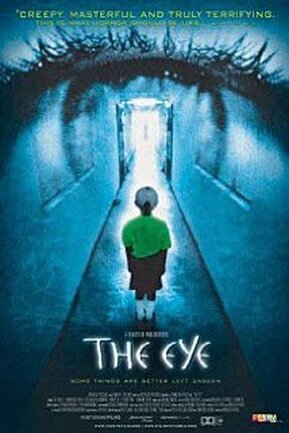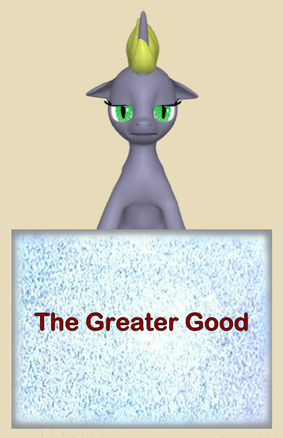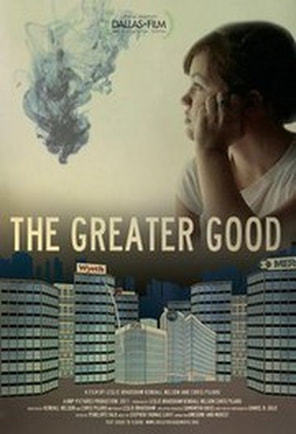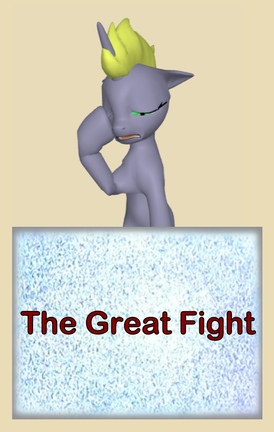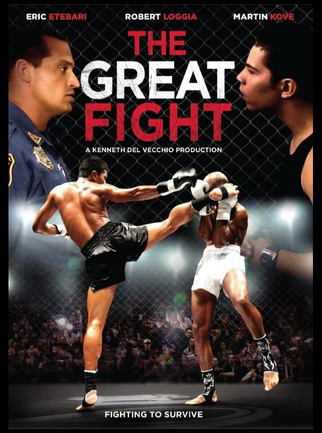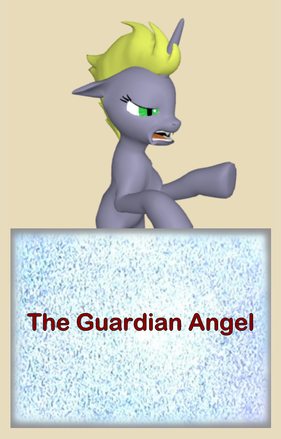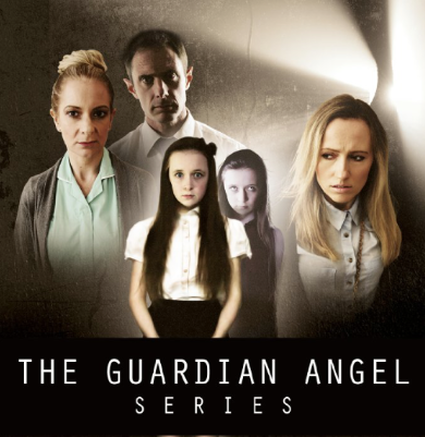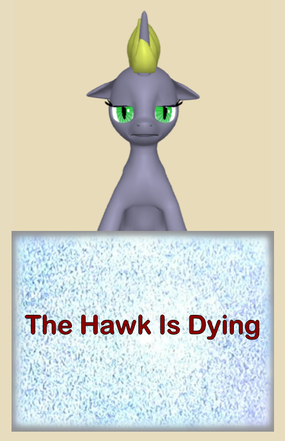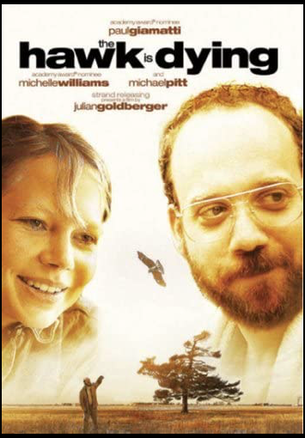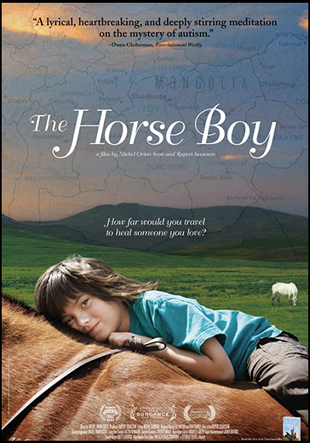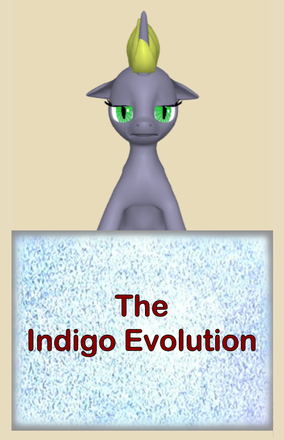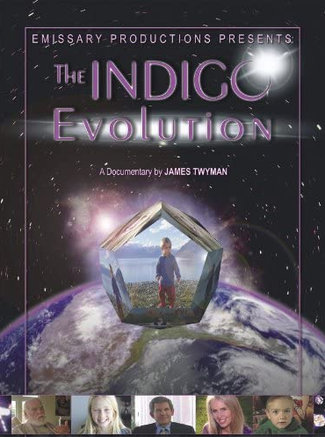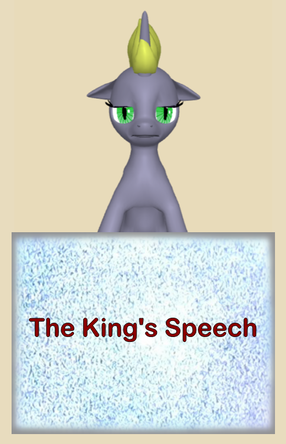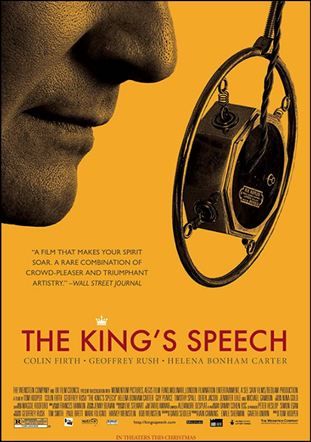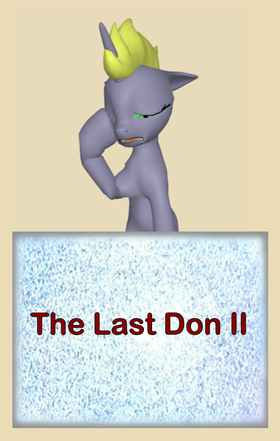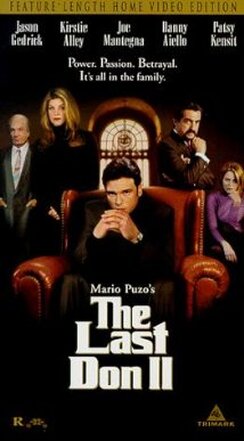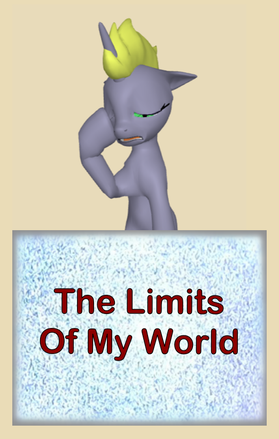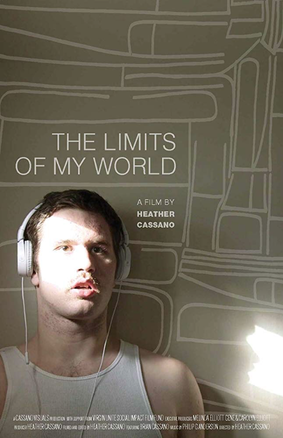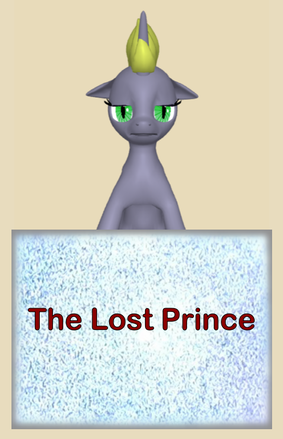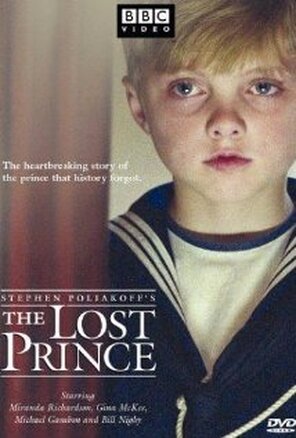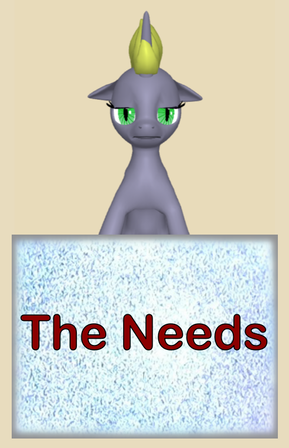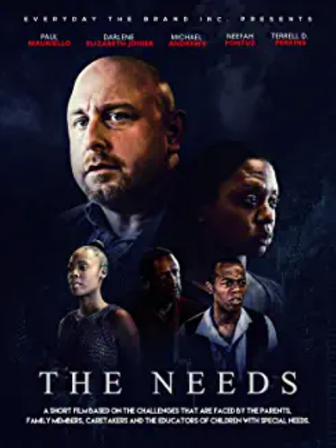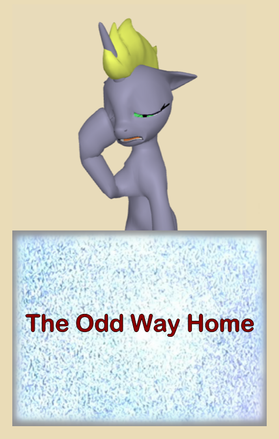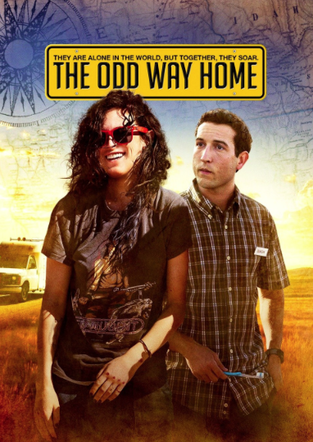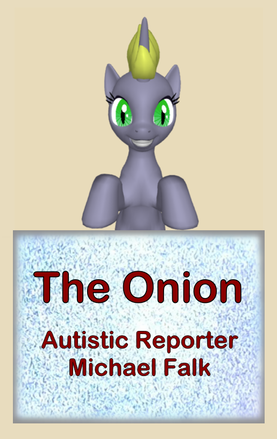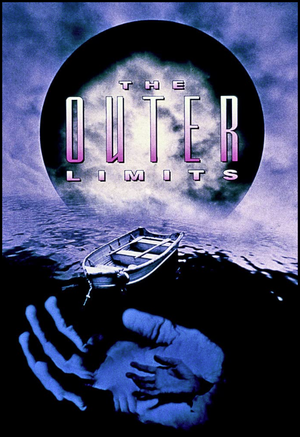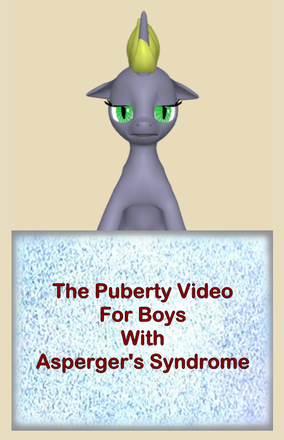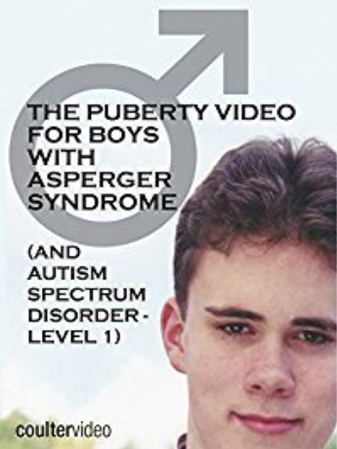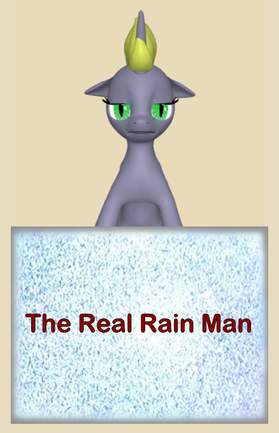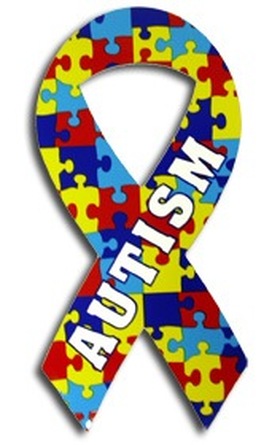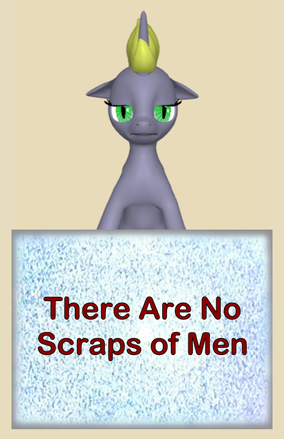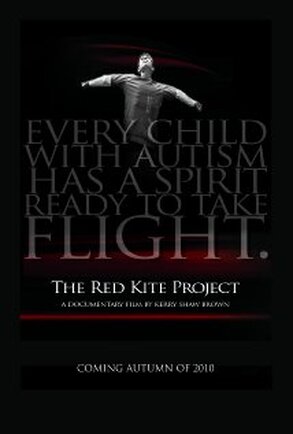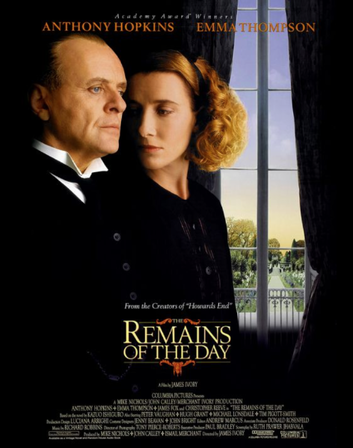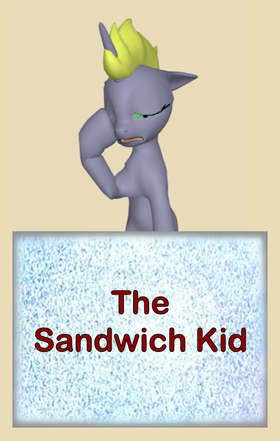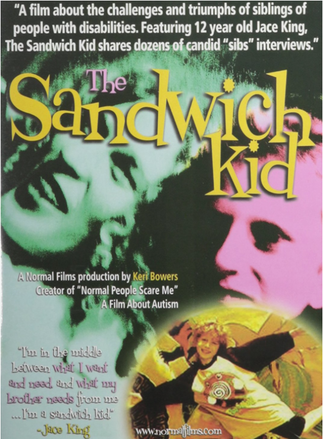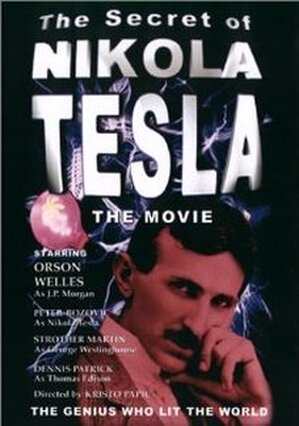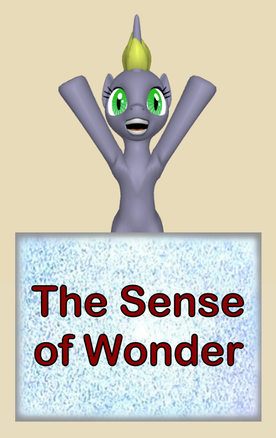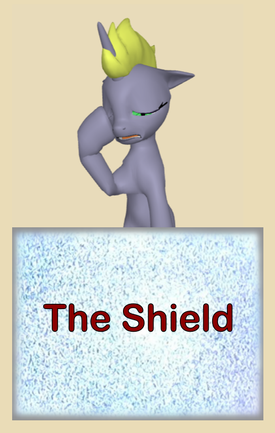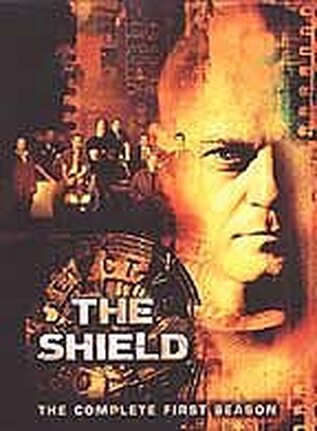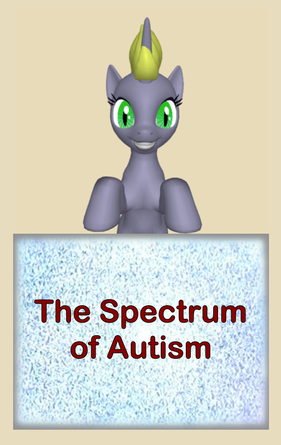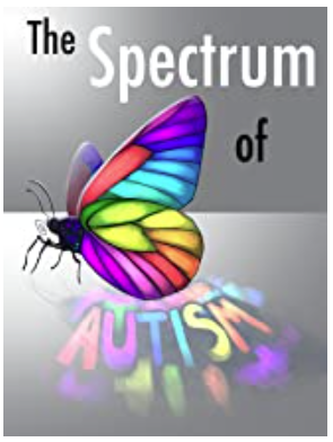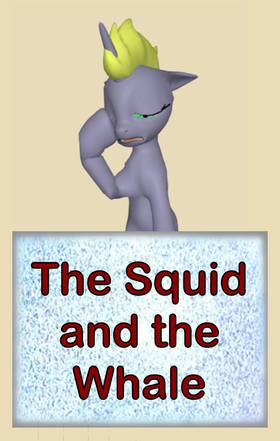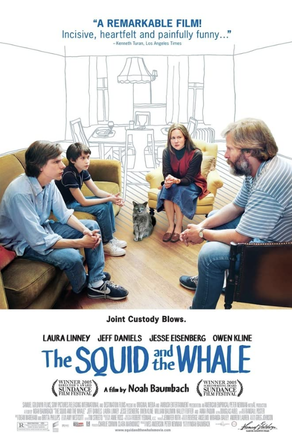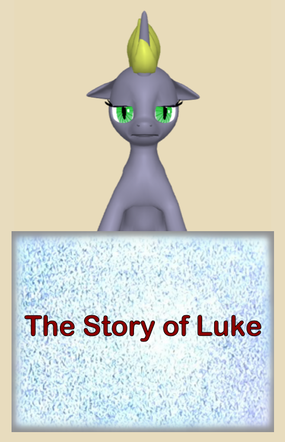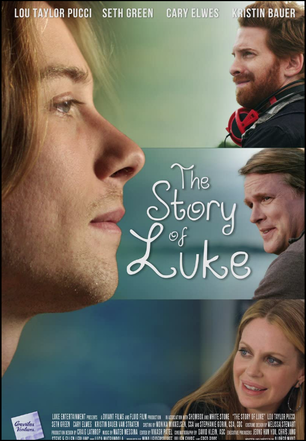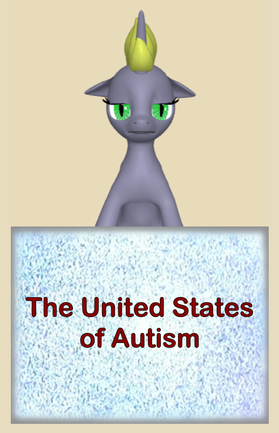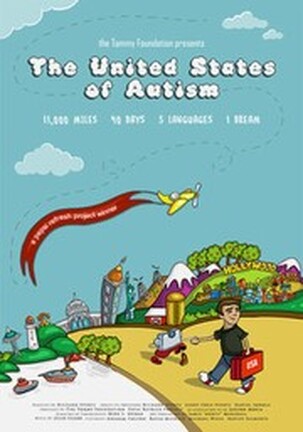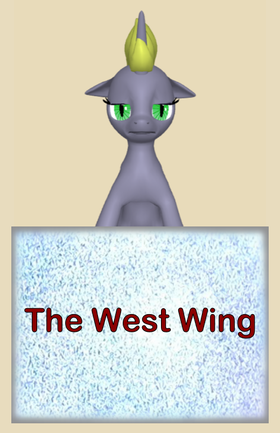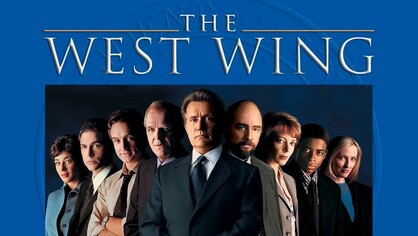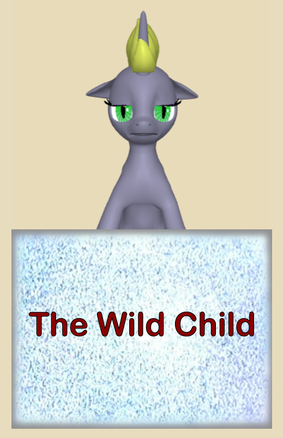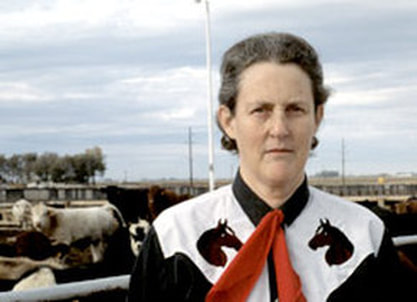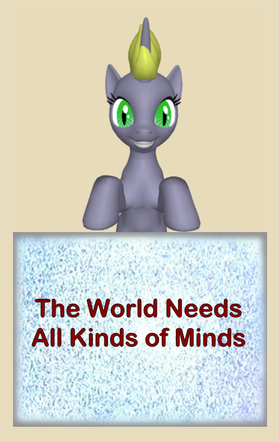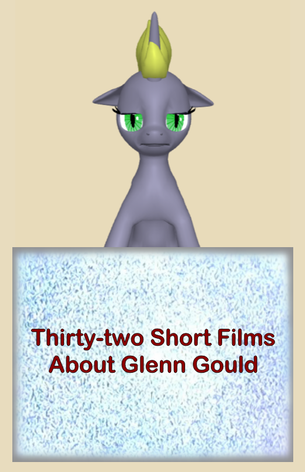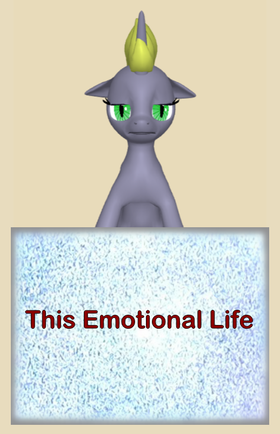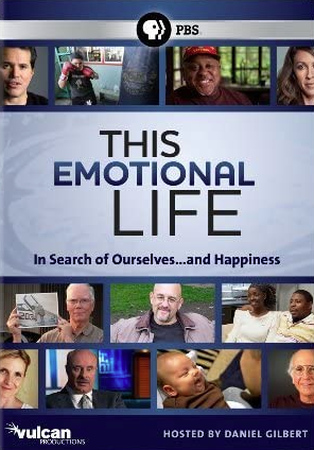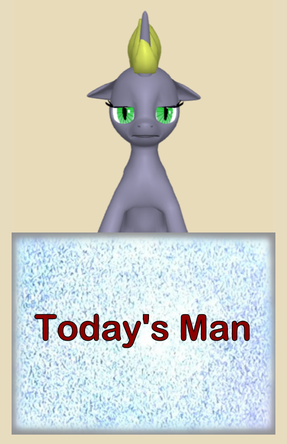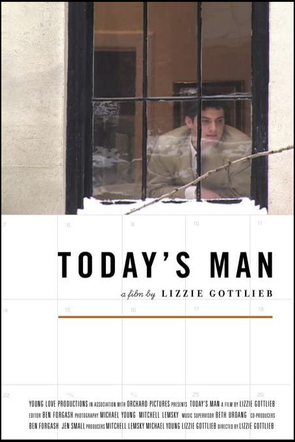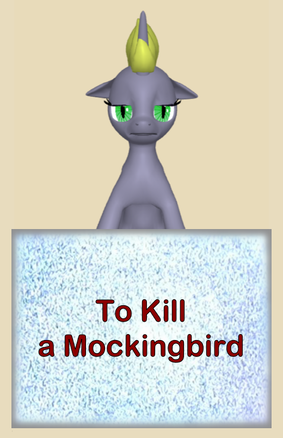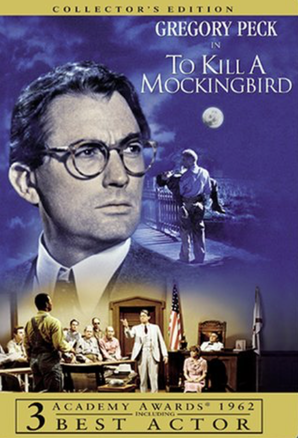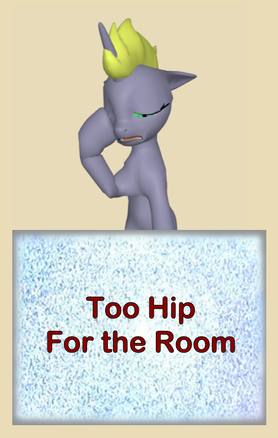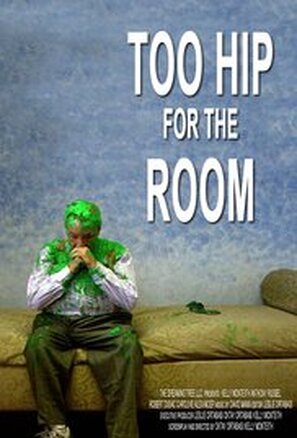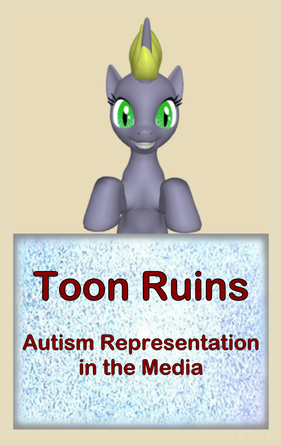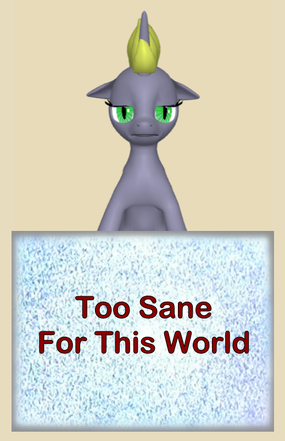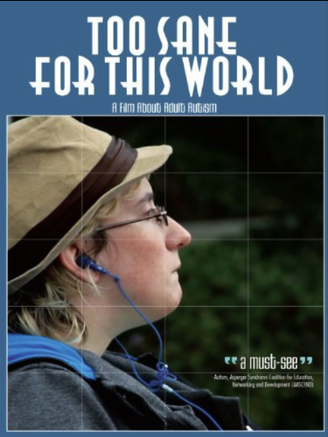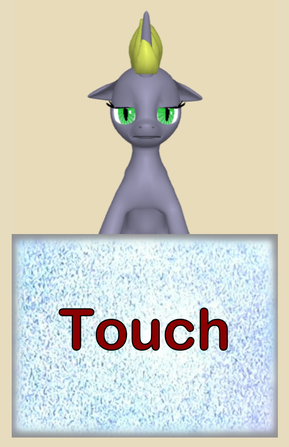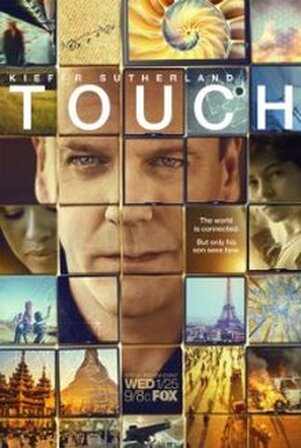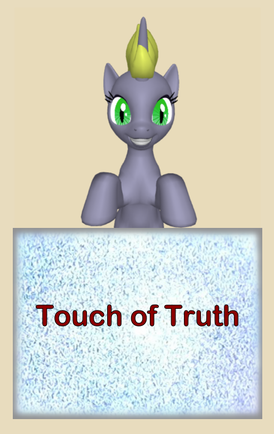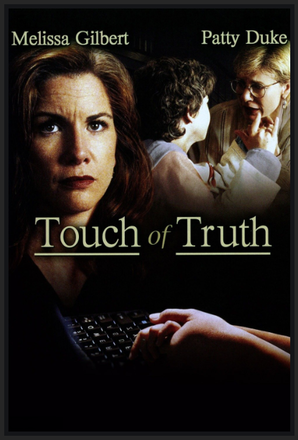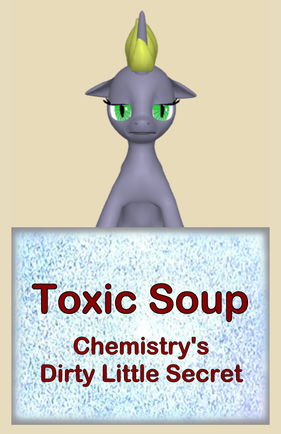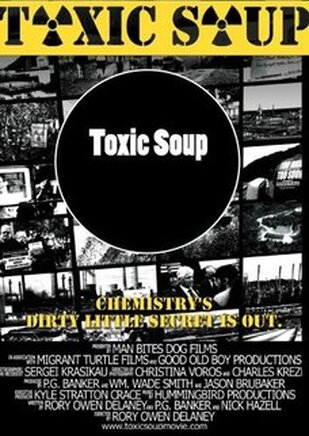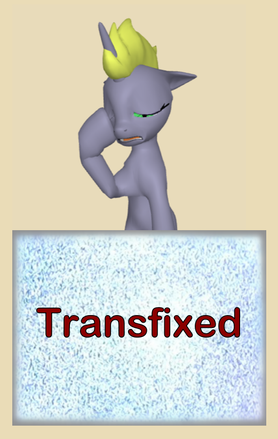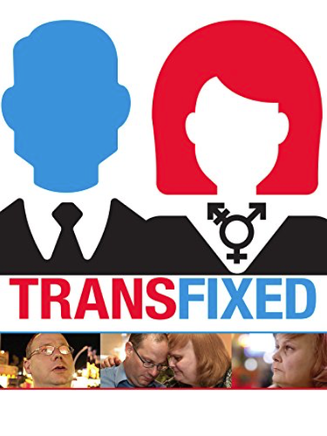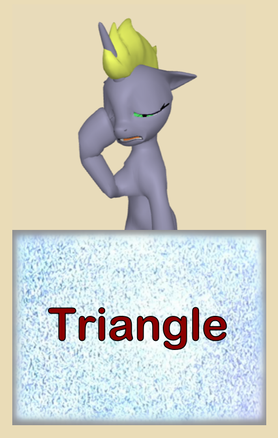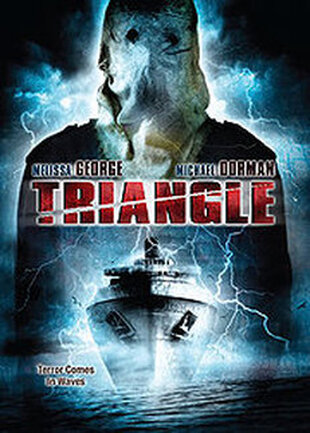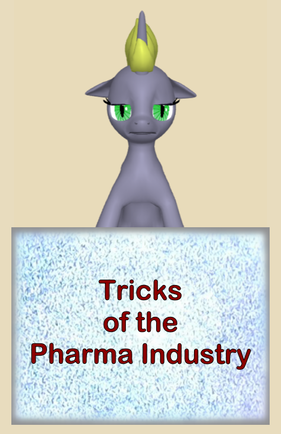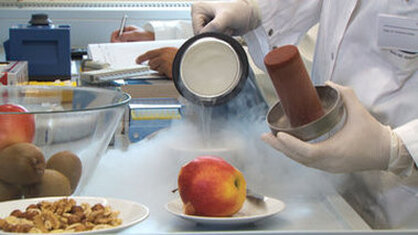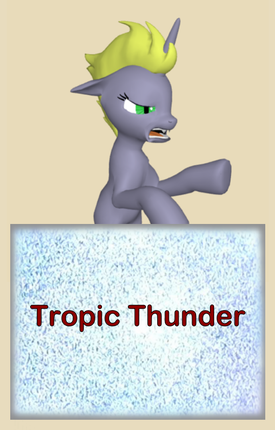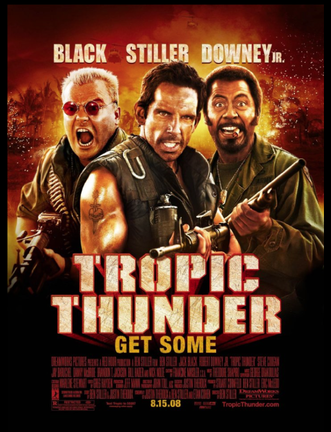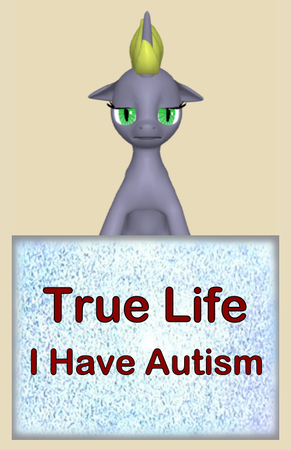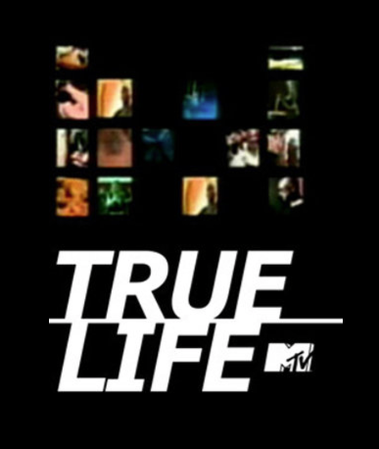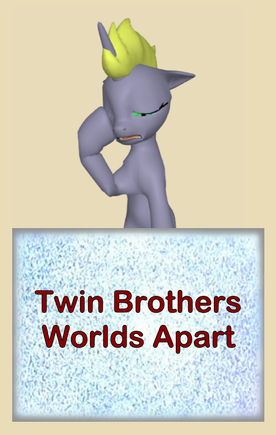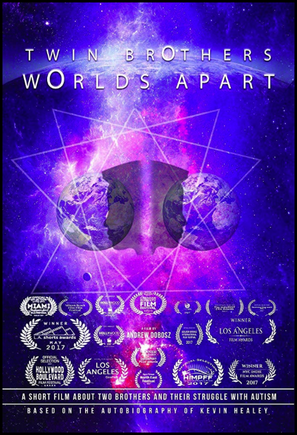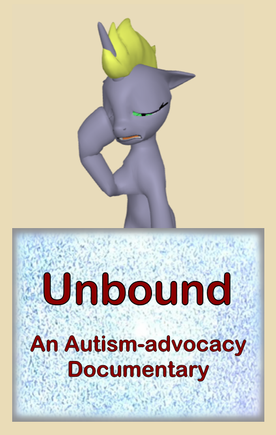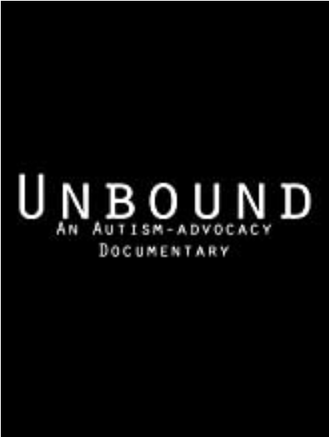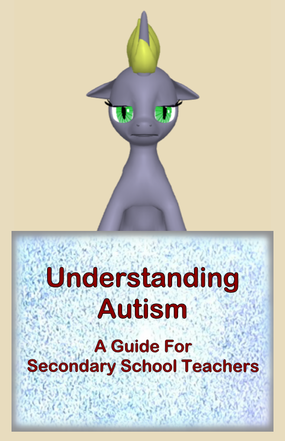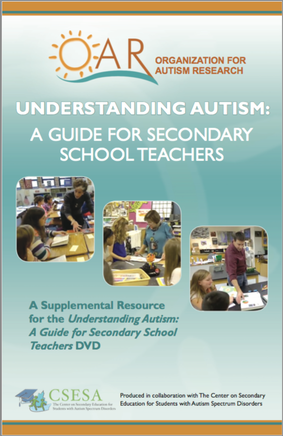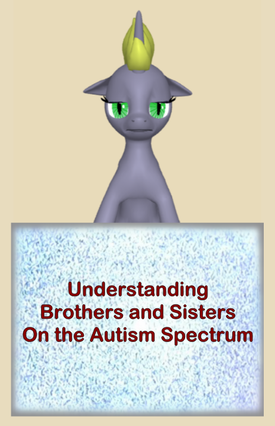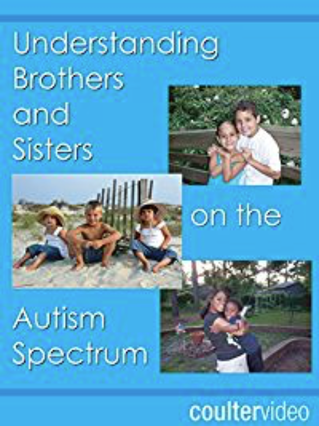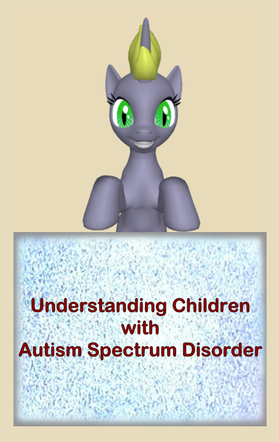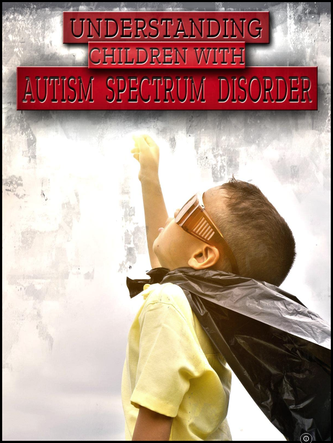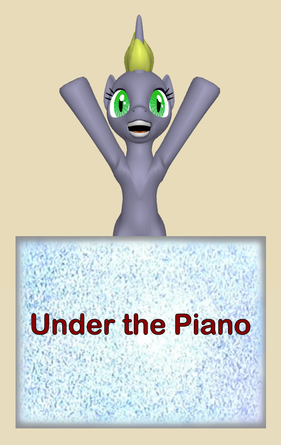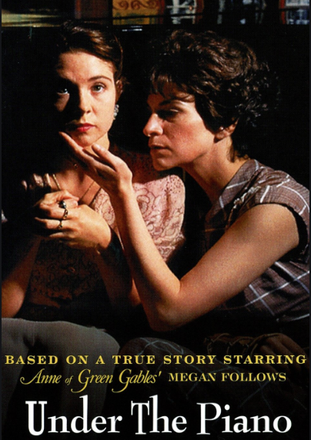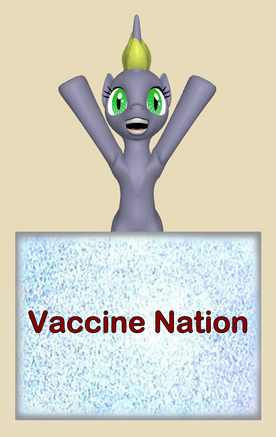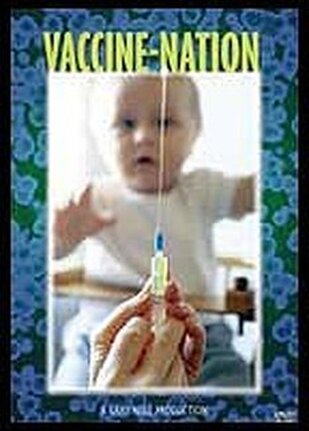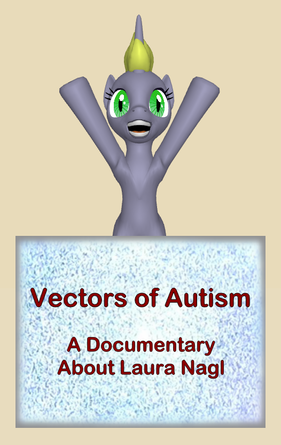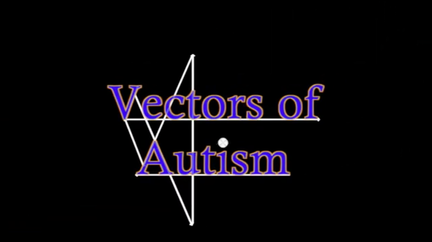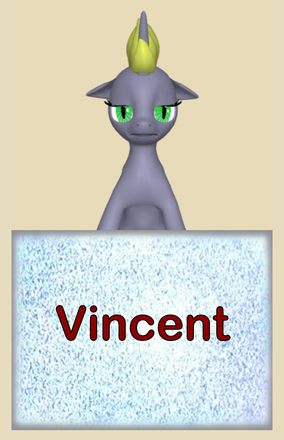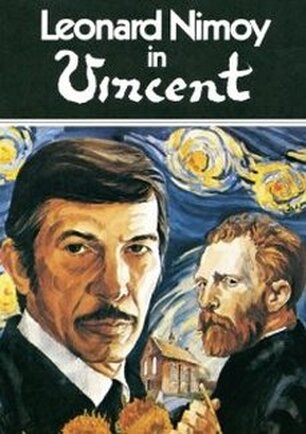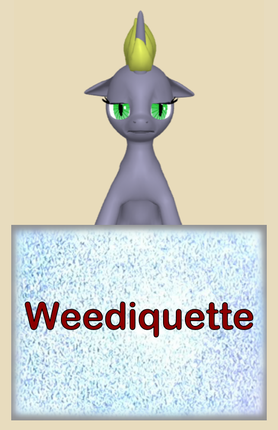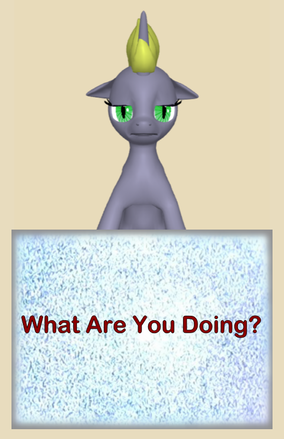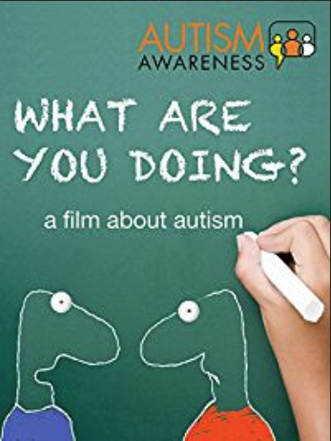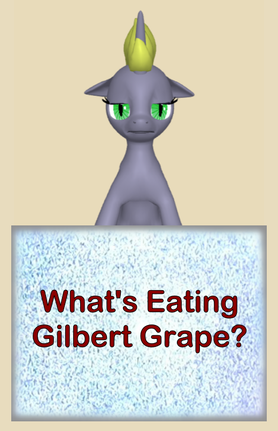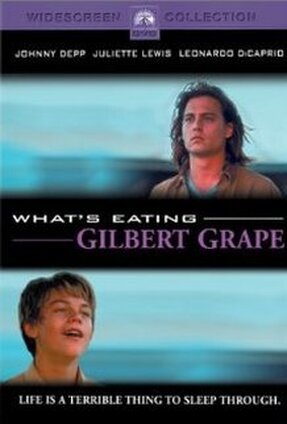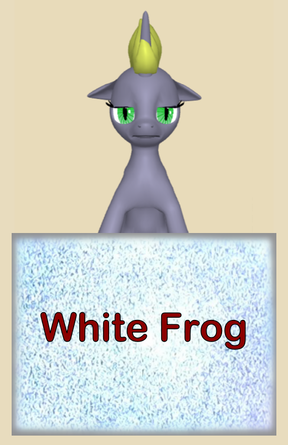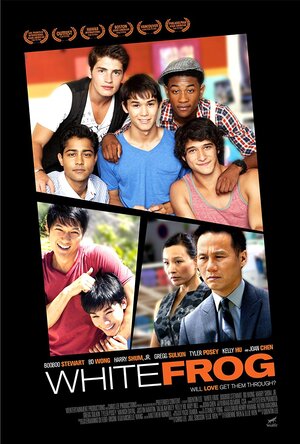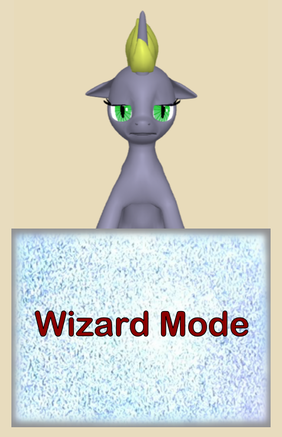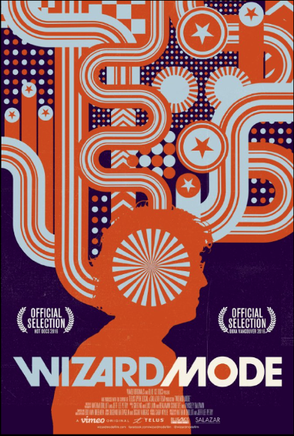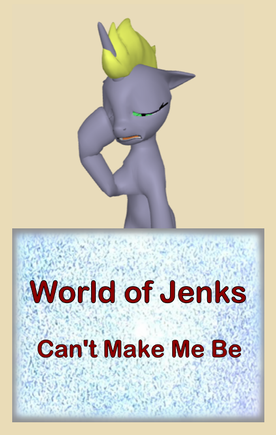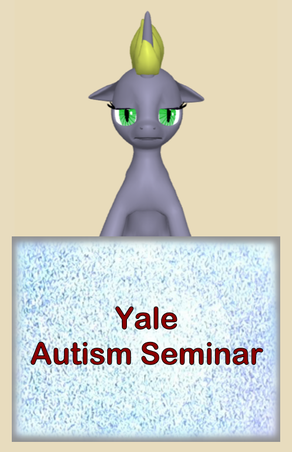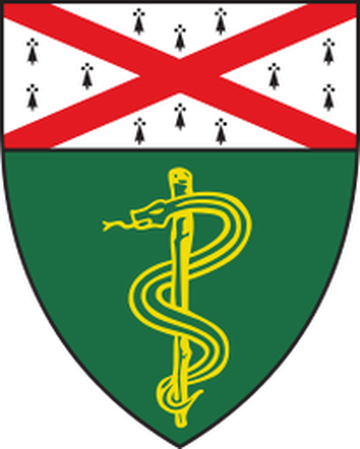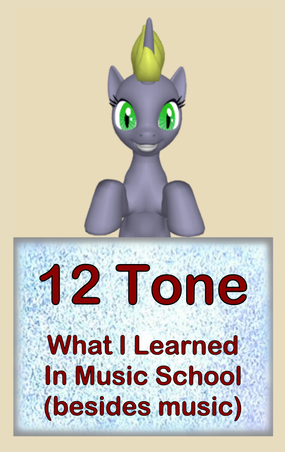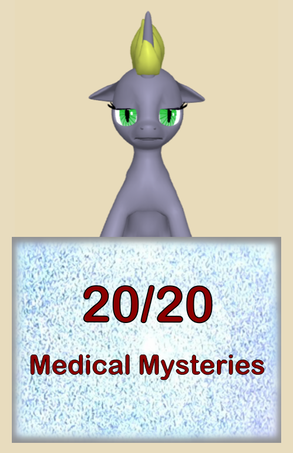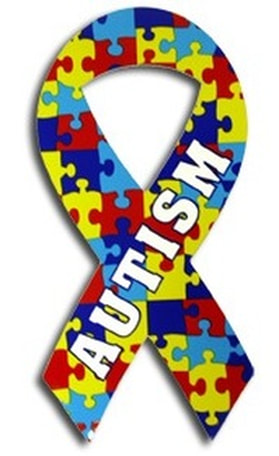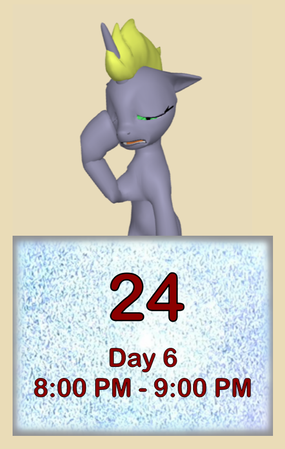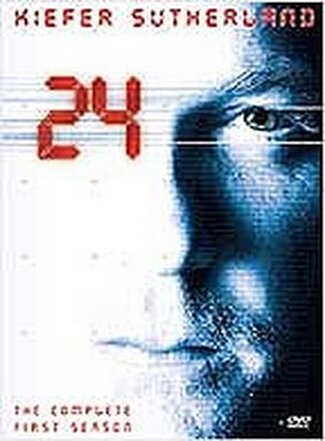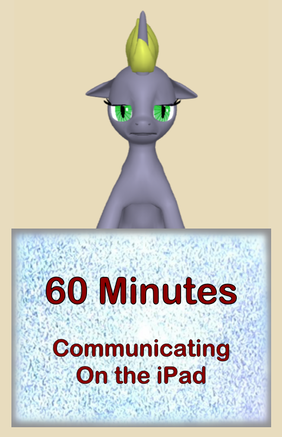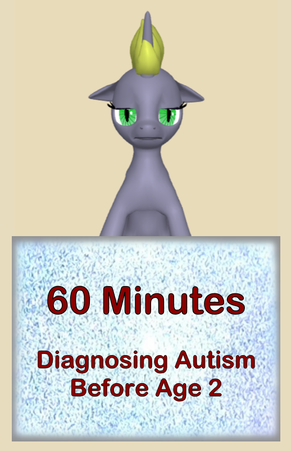This page is VERY long. It takes a while to load up. Please be patient.
I have compiled a list of every movie, documentary, and TV show (I can find) mentioned on the Internet thet supposedly has an Autism theme. Many had been wrongly labeled as "Autism Movies" when they were not; e.g., the following movies (all of which I have seen) do not have Autistic characters in them (no matter what the write-up on the DVD says), thus I will not be publishing reviews of them:
- A Brilliant Madness
- A Circle of Children
- Airwolf. And a Child Shall Lead
- Alien Abduction
- Battle In Heaven
- Bicentennial Man
- Blue Cha-cha
- Bonanza. The Ape
- Charlie's Crew
- Chronicles of Jessica Wu
- Circumstantial
- Cómo Conocí a Pedro Villegas (How I Met Perdo Villegas)
- Eagle vs Shark
- Exodus Fall
- Extremely Loud and Incredibly Close
- Guarding Eddy
- Hard Sun
- Hubog
- I've Heard the Mermaids Singing
- Keeper of the Kohn
- Le Neg
- Little Man Tate
- Little Voice
- Lovely: A Circle of Children II
- Milwaukee Minnesota
- Monk
- My Melencholy Baby
- Once Upon a Time In America
- Quiz Show
- Salmon Fishing In Yemen
- Season of Miracles
- Sherlock Holmes
- Summer of ‘42
- Technotise: Edit and I
- The IT Crowd
- The Man Who Fell To Earth
- The Pit
- The United States of Leland
- The Wizard
- Things That Hang From Trees
- To Catch a Butterfly
- When I Saw You
- When the Bough Breaks
- Yellow Brick Road
- Zig Zag
--------------------------------------------------------------------------------------------------------------------------------------------------------------------------
- A Brilliant Madness
- A Circle of Children
- Airwolf. And a Child Shall Lead
- Alien Abduction
- Battle In Heaven
- Bicentennial Man
- Blue Cha-cha
- Bonanza. The Ape
- Charlie's Crew
- Chronicles of Jessica Wu
- Circumstantial
- Cómo Conocí a Pedro Villegas (How I Met Perdo Villegas)
- Eagle vs Shark
- Exodus Fall
- Extremely Loud and Incredibly Close
- Guarding Eddy
- Hard Sun
- Hubog
- I've Heard the Mermaids Singing
- Keeper of the Kohn
- Le Neg
- Little Man Tate
- Little Voice
- Lovely: A Circle of Children II
- Milwaukee Minnesota
- Monk
- My Melencholy Baby
- Once Upon a Time In America
- Quiz Show
- Salmon Fishing In Yemen
- Season of Miracles
- Sherlock Holmes
- Summer of ‘42
- Technotise: Edit and I
- The IT Crowd
- The Man Who Fell To Earth
- The Pit
- The United States of Leland
- The Wizard
- Things That Hang From Trees
- To Catch a Butterfly
- When I Saw You
- When the Bough Breaks
- Yellow Brick Road
- Zig Zag
--------------------------------------------------------------------------------------------------------------------------------------------------------------------------
The Rating System:
-------------------------------------------------------------------------------------------------------------------------------------------------------------
------------------------------------------------------------------------------------------------------------------------------------------
A A A A A A A A A A A A A A A A A
------------------------------------------------------------------------------------------------------------------------------------------
A A A A A A A A A A A A A A A A A
------------------------------------------------------------------------------------------------------------------------------------------
David is at the funeral of his wife. He apparently just feels lost. He goes home and cries hard. He still has on his wedding ring.
The next day, we meet his son, Patrick, 12 years old. The wall of his bedroom is 1 massive blackboard, covered in math equations. He wears a diaper.
Patrick is hyperactive and finger-flicks. He asks "Where is mom?" Dad does not explain.
5 months later:
Patrick is a spoiled child, never given discipline, direction, nor order. He is immature for his age, due to being coddled.
He is fed peanut butter and jelly on white bread with apples and bananas. He asks for macaroni and cheese, protesting thet calcium is good for your bones.
He is a brat.
David is a aeronautics engineer.
Patrick goes to public school, where useless female teachers expect him to mindlessly parrot pointless crap, as bullies attack him in class.
At school a new student from England (this takes place in the USA) introduces herself as Emilia. She says she has two dads.
He is bullied in front of her, and does not respond to it at all.
On the wall of David’s home office he has a white board covered in math equations.
David is concerned thet he might lose his job if his new airplane technology is not successful. He has spent all his savings on his wife’s medical bills.
Patrick gets injured by bullies at school, and the cunt Principal tells David thet Patrick is the problem for "making himself a target." David blames her for failing to stop the bullies, and she says Patrick is regressing. David argues thet at the age of 3 Patrick was already doing math, and he simply needs a normal education. Cunt tells David thet genius Patrick is not welcome in the public schools system (but stupid bullies are).
David decides to teach Patrick how to fight and defend himself in school. What a moron.
Patrick is not interested in boxing.
This is a very slow and predictable movie.
Patric has digestive problems, it hurts him to pass a turd.
Emilia has the fixated subject of animals. She always carries a zoology book, and lectures constantly about them.
She attaches to Patrick apparently because he does not interrupt her lecturing.
David has actually invented a hybrid airplane. It is costing the company a lot of money to continue funding his R&D, while he has to run from work every day to tend to his is Special needs child, to the frustration of his board of directors who are being pressured to cancel the project. His boss has faith in the project and really wants David to keep his job, but the shareholders are tired of pouring money into it with thus far no results.
Patrick cuts his finger and needs stitches. The doctors notices his bruises from getting beaten up at school, and calls CPS. Great. Now dad has this crap to deal with.
CPS realizes there is nothing wrong with David’s parenting.
David still gets fired from his job for failing to produce a working prototype.
Patrick’s therapist tells David therapy is discontinued because his insurance no longer covers it. He goes to the insurance agent and is told Base Services continue for 12 months, but non-essential coverage is cut after 30 days. Patrick’s stitches were covered. Autism treatments are not.
Patrick continues to be a whiney brat.
He has a meltdown at the mall and causes $2,000 damage David has to pay for.
Patrick gets a black eye at school from the bully. Of course the Schools does not expel the bully. David says Patrick has made his first friend ever, Emilia. The Principal says there is no Emilia at this school.
David gets a ticket for expired tags on his car.
David finally accepts he needs to put Patrick in an Institution where he can get 24 hour care.
The Institution has had "a great success rate with ABA Therapy." Dear Gawd.
David gets a job at a store thet sells RC planes and drones.
4 times in this movie, Patric drifts off into fantasy. Both the CPS guy and Patricks therapist mention how Autistics can drift off and not come back. This is BS. Autistics do no such thing.
These fantasy scenes do add comic relief to this otherwise depressing story of futility, but are not realistic.
Non-existent Emilia continues to be his best friend. She takes him to a spacecraft where they are told by an astronaut thet Autistics are on a different dimension, and that is why they do not fit into the regular dimension. Thus Patrick "drifts off" to that other dimension on a spacecraft with Emilia. His fantasies become delusions, and thus he appears to be Schizophrenic.
At the last possible minute, David shows up and talks Patric back into reality.
Next scene the public school has taken Patrick back into regular classes, and the bully has been expelled.
Emilia dismisses herself from his life.
David finishes his prototype for the Hybrid plane. He takes it to the company thet fired him, and they are amazed and give him his job back. Then he says he quits this job until they get his health insurance sorted out.
He decides to cash out his 401-K so he can take a vacation with his son, and not lose the house in the process. The 401-K guy tells him he has $400,000 in there, and David is astonished - he thought he had around $20,000. It turns out Patrick was playing the Stock Market on dad’s behalf, and all his investments paid off.
That was a great twist at the end.
This movie tried really hard to be a tear-jerker Hallmark movie with a ridiculously happy ending.
It was about the single father dealing with an Autistic child. This is a perspective thet is seldom addressed in movies; thus I appreciate it.
But the Schizophrenic Delusions, referred to as common for Autistics, was BS. And the suggestion thet sadistic torture ABA is a miracle cure for Autism was ridiculous. Also the Indigo Child from another dimension idea was just stupid. And he was constantly fed the worst possible diet for an Autistic.
Still a sweet movie, if you like Hallmark.
-------------------------------------------------------------------------------------------------------------------------------
The next day, we meet his son, Patrick, 12 years old. The wall of his bedroom is 1 massive blackboard, covered in math equations. He wears a diaper.
Patrick is hyperactive and finger-flicks. He asks "Where is mom?" Dad does not explain.
5 months later:
Patrick is a spoiled child, never given discipline, direction, nor order. He is immature for his age, due to being coddled.
He is fed peanut butter and jelly on white bread with apples and bananas. He asks for macaroni and cheese, protesting thet calcium is good for your bones.
He is a brat.
David is a aeronautics engineer.
Patrick goes to public school, where useless female teachers expect him to mindlessly parrot pointless crap, as bullies attack him in class.
At school a new student from England (this takes place in the USA) introduces herself as Emilia. She says she has two dads.
He is bullied in front of her, and does not respond to it at all.
On the wall of David’s home office he has a white board covered in math equations.
David is concerned thet he might lose his job if his new airplane technology is not successful. He has spent all his savings on his wife’s medical bills.
Patrick gets injured by bullies at school, and the cunt Principal tells David thet Patrick is the problem for "making himself a target." David blames her for failing to stop the bullies, and she says Patrick is regressing. David argues thet at the age of 3 Patrick was already doing math, and he simply needs a normal education. Cunt tells David thet genius Patrick is not welcome in the public schools system (but stupid bullies are).
David decides to teach Patrick how to fight and defend himself in school. What a moron.
Patrick is not interested in boxing.
This is a very slow and predictable movie.
Patric has digestive problems, it hurts him to pass a turd.
Emilia has the fixated subject of animals. She always carries a zoology book, and lectures constantly about them.
She attaches to Patrick apparently because he does not interrupt her lecturing.
David has actually invented a hybrid airplane. It is costing the company a lot of money to continue funding his R&D, while he has to run from work every day to tend to his is Special needs child, to the frustration of his board of directors who are being pressured to cancel the project. His boss has faith in the project and really wants David to keep his job, but the shareholders are tired of pouring money into it with thus far no results.
Patrick cuts his finger and needs stitches. The doctors notices his bruises from getting beaten up at school, and calls CPS. Great. Now dad has this crap to deal with.
CPS realizes there is nothing wrong with David’s parenting.
David still gets fired from his job for failing to produce a working prototype.
Patrick’s therapist tells David therapy is discontinued because his insurance no longer covers it. He goes to the insurance agent and is told Base Services continue for 12 months, but non-essential coverage is cut after 30 days. Patrick’s stitches were covered. Autism treatments are not.
Patrick continues to be a whiney brat.
He has a meltdown at the mall and causes $2,000 damage David has to pay for.
Patrick gets a black eye at school from the bully. Of course the Schools does not expel the bully. David says Patrick has made his first friend ever, Emilia. The Principal says there is no Emilia at this school.
David gets a ticket for expired tags on his car.
David finally accepts he needs to put Patrick in an Institution where he can get 24 hour care.
The Institution has had "a great success rate with ABA Therapy." Dear Gawd.
David gets a job at a store thet sells RC planes and drones.
4 times in this movie, Patric drifts off into fantasy. Both the CPS guy and Patricks therapist mention how Autistics can drift off and not come back. This is BS. Autistics do no such thing.
These fantasy scenes do add comic relief to this otherwise depressing story of futility, but are not realistic.
Non-existent Emilia continues to be his best friend. She takes him to a spacecraft where they are told by an astronaut thet Autistics are on a different dimension, and that is why they do not fit into the regular dimension. Thus Patrick "drifts off" to that other dimension on a spacecraft with Emilia. His fantasies become delusions, and thus he appears to be Schizophrenic.
At the last possible minute, David shows up and talks Patric back into reality.
Next scene the public school has taken Patrick back into regular classes, and the bully has been expelled.
Emilia dismisses herself from his life.
David finishes his prototype for the Hybrid plane. He takes it to the company thet fired him, and they are amazed and give him his job back. Then he says he quits this job until they get his health insurance sorted out.
He decides to cash out his 401-K so he can take a vacation with his son, and not lose the house in the process. The 401-K guy tells him he has $400,000 in there, and David is astonished - he thought he had around $20,000. It turns out Patrick was playing the Stock Market on dad’s behalf, and all his investments paid off.
That was a great twist at the end.
This movie tried really hard to be a tear-jerker Hallmark movie with a ridiculously happy ending.
It was about the single father dealing with an Autistic child. This is a perspective thet is seldom addressed in movies; thus I appreciate it.
But the Schizophrenic Delusions, referred to as common for Autistics, was BS. And the suggestion thet sadistic torture ABA is a miracle cure for Autism was ridiculous. Also the Indigo Child from another dimension idea was just stupid. And he was constantly fed the worst possible diet for an Autistic.
Still a sweet movie, if you like Hallmark.
-------------------------------------------------------------------------------------------------------------------------------
Our protagonist, Nathan, is diagnosed with Autism and Synesthesia at the age of 9. He is fixated on math and patterns.
Within days his dad is killed in a car-crash.
Mom and child attend the funeral, and mom so wants Nathan to hold her hand so they can do this together. But Nathan absolutely refuses, in fact runs away from the funeral.
Nathan continues to have absolute Flat Effect. He obsessively writes math and patterns in his notebook, and mom asks him to explain it to her so she may help him with it. He says “No, you are not clever enough.”
He is accepted at a school for gifted children.
His Math teacher has Multiple Sclerosis, but was the champion at the Math Olympiad when he was a teenager.
Nathan goes on to compete for a possible place on the team going to the next Olympiad competition.
One of his cohorts, Luke, is forever trying to prove he is superior to the rest. Eventually they all get sick of him and dismiss him from their social group, explaining to Nathan thet Luke is Autistic and has all the negative aspects; obsessiveness and social retardation. Nathan of course is worse, but no one has noticed that yet.
Nathan and his mother both miss Dad, but never grieve over his death, certainly not together.
Meanwhile Nathan’s teacher is slowly dying of MS. He really needs to grieve over this, but just hasn’t yet.
His doctor recommends he join a support-group, which he eventually does. Telling the group thet he really likes this woman, Nathan’s Mom, but since he can no longer get an erection he knows a time will come when he cannot even hold her hand. He admits he is terrified.
He and Nathan’s mother are attracted to each other, mainly out of loneliness. Neither of them have grieved properly.
Luke is expelled from the social aspect of the math group for failing to understand why the others enjoy acting silly. He is told it is called having a sense of humor. So Luke tries to at least copy what others consider funny, memorizing a Monte Python skit. He re-enacts the skit for the group, and they are embarrassed for him but openly reject him. He goes to his room and cuts himself.
Nathan finds Luke bloody, and Luke asks Nathan what his parents told him when he was diagnosed. Luke is the only one who recognizes Nathan is Autistic.
Luke says his parents told him thet no one wants to be ordinary, but no one wants to be weird. Thus he must prove he is gifted, for if he does not he will just be weird. That is the only reason Luke became a math-whiz. Luke says he does not even like math, he just does it to try to prove he is gifted, but even so is still considered weird. His fellow math nerds reject him totally because he is so obviously Autistic. Luke leaves the competition.
Students from all over the world go through the testing to see which six from each country will go on to compete in the Olympiad. Nathan makes it onto the UK team.
A girl who makes the team from China is to stay with Nathan’s family as Cultural Exchange. She gets a crush on Nathan and they connect emotionally. This is apparently the first person Nathan has bonded with since his father.
The Chinese girl burns out at the competition, leaving in resentment because the only reason she was there was because the Chinese math professor was her Uncle. The family honor was at stake, and that is the only reason she had been forced to become a math-whiz. She leaves, never going to the final competition.
Nathan realizes he loved her, and lost her. He too leaves the competition, during the actual test, to go grieve the loss of the girl. Andn only then does he greive the loss of his father, with his mother.
For the first time mother and son cry together in healthy grief.
This movie was 1 hour 51 minutes long and was really really slow. But it was sweet, and realistically presents some aspects of Autism; specifically Nathan stressing out on tests, over-thinking everything and winding himself up into a panic; and Luke being so utterly socially inept, cutting himself being the only “emotional interaction” he has.
Overall a sad movie - but good.
----------------------------------------------------------------------------------------------------------------------------
Within days his dad is killed in a car-crash.
Mom and child attend the funeral, and mom so wants Nathan to hold her hand so they can do this together. But Nathan absolutely refuses, in fact runs away from the funeral.
Nathan continues to have absolute Flat Effect. He obsessively writes math and patterns in his notebook, and mom asks him to explain it to her so she may help him with it. He says “No, you are not clever enough.”
He is accepted at a school for gifted children.
His Math teacher has Multiple Sclerosis, but was the champion at the Math Olympiad when he was a teenager.
Nathan goes on to compete for a possible place on the team going to the next Olympiad competition.
One of his cohorts, Luke, is forever trying to prove he is superior to the rest. Eventually they all get sick of him and dismiss him from their social group, explaining to Nathan thet Luke is Autistic and has all the negative aspects; obsessiveness and social retardation. Nathan of course is worse, but no one has noticed that yet.
Nathan and his mother both miss Dad, but never grieve over his death, certainly not together.
Meanwhile Nathan’s teacher is slowly dying of MS. He really needs to grieve over this, but just hasn’t yet.
His doctor recommends he join a support-group, which he eventually does. Telling the group thet he really likes this woman, Nathan’s Mom, but since he can no longer get an erection he knows a time will come when he cannot even hold her hand. He admits he is terrified.
He and Nathan’s mother are attracted to each other, mainly out of loneliness. Neither of them have grieved properly.
Luke is expelled from the social aspect of the math group for failing to understand why the others enjoy acting silly. He is told it is called having a sense of humor. So Luke tries to at least copy what others consider funny, memorizing a Monte Python skit. He re-enacts the skit for the group, and they are embarrassed for him but openly reject him. He goes to his room and cuts himself.
Nathan finds Luke bloody, and Luke asks Nathan what his parents told him when he was diagnosed. Luke is the only one who recognizes Nathan is Autistic.
Luke says his parents told him thet no one wants to be ordinary, but no one wants to be weird. Thus he must prove he is gifted, for if he does not he will just be weird. That is the only reason Luke became a math-whiz. Luke says he does not even like math, he just does it to try to prove he is gifted, but even so is still considered weird. His fellow math nerds reject him totally because he is so obviously Autistic. Luke leaves the competition.
Students from all over the world go through the testing to see which six from each country will go on to compete in the Olympiad. Nathan makes it onto the UK team.
A girl who makes the team from China is to stay with Nathan’s family as Cultural Exchange. She gets a crush on Nathan and they connect emotionally. This is apparently the first person Nathan has bonded with since his father.
The Chinese girl burns out at the competition, leaving in resentment because the only reason she was there was because the Chinese math professor was her Uncle. The family honor was at stake, and that is the only reason she had been forced to become a math-whiz. She leaves, never going to the final competition.
Nathan realizes he loved her, and lost her. He too leaves the competition, during the actual test, to go grieve the loss of the girl. Andn only then does he greive the loss of his father, with his mother.
For the first time mother and son cry together in healthy grief.
This movie was 1 hour 51 minutes long and was really really slow. But it was sweet, and realistically presents some aspects of Autism; specifically Nathan stressing out on tests, over-thinking everything and winding himself up into a panic; and Luke being so utterly socially inept, cutting himself being the only “emotional interaction” he has.
Overall a sad movie - but good.
----------------------------------------------------------------------------------------------------------------------------
This superb documentary is about Robert Wilson, one of the greatest theater directors of the 70s - 90s.
His mother was possibly an Aspie, referred to by him as being very emotionally cold and distant, and hardly ever speaking. He said he thought she emotionally felt everything very deeply, just never expressed it.
Robert was considered mildly Retarded as a child, for he learned to speak late, and then stuttered horribly. He also was practically incapable of learning to read.
By the age of 10, his only friend was a Black kid his age, but living in the strictly-racially-segregated American South during the 50s, he was not allowed to actually do anything with his only friend.
He went on to form numerous groups, clubs, and theater troops. But having difficulty speaking, he expressed himself mostly in pictures, thus he became a theater director.
He became morbidly depressed due to his extremely weird Aspergian plays failing, and ended up trying to kill himself with a drug overdose.
He was rescued at the last minute and placed in a mental hospital. There he felt comforted by the grid-patterns of the bars on the windows, and loved being left relatively alone.
After he got out, he went on to write many more plays, eventually becoming successful.
Martin Luther King Jr came to his height of fame, thus the Civil Rights Movement erupted.
Watching the police attempting to publicly beat a deaf Black child, Robert rescued and eventually legally adopted the kid. He went on to play the lead roles in Robert's plays, for most of them were entirely visual anyway; in fact his play, written specifically for his adopted child, was called "Deaf Man's Glance". This play became tremendously successful.
After Robert became famous enough to tour the world with his plays, they came to France, where their shows always sold out. His child ran away, apparently because he would rather be an illegal alien in France than have to return to the racist USA.
His role in the play was replaced by a 4-year old girl.
Robert went on to become world famous and highly successful, putting on plays thet cost millions of dollars to produce.
Then he meets an Autistic child in an Institution for brain-damage children. He was horrified thet the Institution spent all their time trying to force Autistics to pretend to be normal, rather than nurturing their gifts. So Robert takes the Autistic under his wing and makes him the new star of his productions.
He ends up working with Phillip Glass, David Byrne, and David Bowie, among assorted ballet and opera stars.
The Documentary ends by saying thet his adopted black deaf child today works for Bell Labs, and his Autistic protege continues to play lead characters in his plays, has gone on to write produce and direct several plays of his own, and has painted many pictures thet have shown in galleries around the world.
The ultimate "Aspie makes good" film, especially considering the Special kids he adopted and adapted went on to become more successful than anyone would have imagined.
Lovely.
Second viewing:
"His genius is so eccentric and odd, he may never have the commercial success thet he would so much like to have."
"He is very lucky thet he has been able to construct his own world."
Robert says his mother's inability to express inter-personal communication "was a real big problem for me, because I stuttered, and was a very slow learner - very slow to read. It is a processing disorder. It made for a pretty complicated childhood. Even the first day of school, it was so painful; I did not want to go because it was embarrassing to be with so many kids publicly, because of the speech problem. So I naturally withdrew.
I did not have many friends, and was not social. There was one - a black boy named Leroy. Age 9 to 17 we saw each other daily. We became very close friends. It was the kind of friendship you had to hide. I grew up in a town thet was completely segregated.
I used to go with him to black church services. What I was very attracted to about the black culture was thet is was about some sort of truth, some sort of honesty. The whole body of music thet they wrote, there is not 1 song thet was negative; it is all about hope."
Then his sister is interviewed; she says she has no memories of him wherein he was not directing her to stand on chairs and sing little songs. "He always had a project, circuses, plays, and different kinds of clubs, and he would be the organizer of it."
Robert says, "I was always good at organizing people, then letting other people do something."
This is clearly seen in his later work, wherein he would collect a group of specific actors for his play, but let them all improvise a lot. In fact he has a few plays wherein there was no plot; all the actors would just make it up as they went along, Robert directing them after the fact. "But it was very difficult for me because of the speech problem."
He went to New York and was inspired by the architecture (pattern recognition). "I went to Pratt and studied architecture. I do not think I wanted to be an architect. I was interested in the logic and the thinking of architecture as a frame from which I could work. I think that is how I got through my learning disabilities, by forcing an order through this disorder."
His former professor says, "He never did the assignments I gave - he made up his own. The thing thet interested him most was the extra-curricular dance program thet he got involved in."
Robert says, "Being awkward and shy, uncomfortable with my body, never being an athlete, suddenly through dancing I began to have a confidence in my body."
He got involved with experimental theater right at the point when Martin Luther King Jr came upon the scene.
"Right after I graduated school I became involved with brain-damaged, and hyper-active children. I helped them learn better through movement therapy" he had apparently developed himself. "I think my interest in education came back through my roots. I connected with it; I could understand it because I had been there."
His former professor says, "He would go to schools where they did not know what to do with the kids, where they had disciplinary problems thet he would surmount by his manner of teaching. His method was to really tutor them in a way thet children would understand; not as an adult, but as someone who is sympathetic or empathetic to their particular thinking. He had an amazing ability to tame children."
He got a Bachelor's Degree in Fine Arts, which is of course totally useless.
He makes his first film, which is about a young girl who tries to communicate but is unable. This sums up his self-image.
He becomes depressed and tries to kill himself. They take him to the mental hospital where he is comforted by the aesthetic of the grates on the windows.
When he gets out of the hospital he goes back to New York and gets a job working at a hospital for the terminally ill.
"I walked in, and there were 50 people on iron lungs. Most of them were catatonic, and I was hired to encourage them to speak. Once I got in there, I realized I had to stop thinking about my problems, for their problems were what was important."
His then-boss says, "Robert began doing some very interesting theater exercises with some of the patients who were completely paralyzed and had very small movements with mouth-sticks to communicate. He connected them all up with photo-sensitive string, put on a dark light, and all of them were connected with each other. Their piece was about the communication between them. It was not verbal, it was more about energy; it was more about the psychic connections between people. And I was totally bolled-over because I had never before seen anybody who could reach someone who was institutionalized and had basically given up. And I realized he had some very special quality in touching people."
He acquires an abandoned factory and converts it into an artists commune. "The visionary thet he is, he can look at an ordinary run-down building and see something unreasonable, for example a multi-disciplinary laboratory where artists can come and collaborate with each other from all around the world."
Viet Nam and Civil Rights. Riot Police attempt to beat a deaf child in the street because he is Black. Robert ends up adopting him. His name was Raymond.
Robert says, "It was really a fascination of the way his mind worked and thought. I thought in words, and it was obvious he was not thinking in words - he was thinking in terms of pictures."
He wanted to do theater with Raymond as a form of therapy, so Raymond's way of communicating would be validated.
"He (Robert) has the ability to read people who are somewhat off kilter."
Robert's play written specifically for Raymond was called Deaf Man's Glance, and created quite a buzz. He was thus invited to the 10th annual World Festival of Theater in France. It was a fantastic success. Pierre Cardin was impressed, and became the promoter of Robert's shows in France. Deaf Man's Glance is a play thet is 8 hours long. All shows sold out.
Now-teenaged-Raymond leaves the production and hands off his part to a little Black girl.
Robert decides to do a 7-day play.
He is invited by the King of Iran to come perform for the Royal Family there.
Then he meets Christopher Knowels, an Autistic boy in an Institution for brain-damaged children. Christopher created pictures with a typewriter, typing whole pages of letters thet at a distance look like a picture. He also invents languages. Unfortunately the Institution was tying to "correct" his perception by making him act normal. "As an artist, I thought it was very beautiful, and was shocked to see in this school thet it was being 'corrected'. And I thought, why are we saying No to this? What is wrong with it? I think we should support it.
Chris and I think a lot alike. His mother saw my notebook, and said it looked like Christopher's. It was amazing how often we were on the same wave-length."
A new York theater critic says, "I was of course interested in the fact thet Robert had been somewhat Autistic in his early years, and thet he was involved with a youth of an even more Autistic nature whom he was pushing forward at us. I do not feel necessarily thet that is an immoral act, but it does seem in some ways exploitative." Robert's response is to say, "Some people think I was taking advantage of a brain-damaged kid, without them taking into consideration the work! Of all the people I know, Chris is the one most like me, the one who moves me the most. You know, Chris cannot tell a lie, and that breaks my heart."
Then we discover Chris's father is an Architect, as is the case with many Autistic kids.
"Christopher Knowels is an important next step in Robert's career. Knowels played with language, he de-constructed language; Wilson was fascinated by this, and it led him to add language as an element in his performances in a way thet it had never existed before." The example they give is of a scene wherein a dozen people sit at tables all talking gibberish at the same time, which creates a sound texture for the scene.
"Wilson's characters crawl across the stage - they scream, they whisper, they come and go at will. Wilson's work has been called artistic, Autistic, and just plain indecipherable."
His adopted son and the Autistic kid both go on to be very successful in their own rights.
The End.
Aspergers is never mentioned, and there is only 1 sentance in the whole movie where Robert was referred to as "Autistic-like", but he was clearly an Aspie.
Here is a snippet about Chris:
Christopher Knowles.
Knowles' 'typings' build up words and phrases into intricate multi-colored patterns using an electric typewriter.
Christopher Knowles is best known for his 'typings' of the 1970s and 80s, text-based pieces that were developed as a private pastime. The exceptional ability in the mathematical organization revealed in these works is a characteristic by-product of Autism, with which Knowles was diagnosed as a child. His work also reveals affinities with the structure of serial art and music, and has a strong relationship to performance (the artist has also made live and recorded performances of his texts).
Knowles' typings employ lists of words and phrases, including those derived from pop charts as well as other words and phrases from the artist's life. Additional features include geometrical patterns, carefully built up using the artist's initial, 'C'. The works were created on an electric typewriter, using red, black, and green inks, and the pieces exhibited here were made in 1980 on scrolls of rice paper.
Christopher Knowles was born 1959 in New York, where he still lives. His wider public exposure dates from his meeting, in 1973 at the age of 14, with the theater director Robert Wilson. Robert had heard an audio recording by Knowles, and asked him to collaborate and perform with his company, a partnership that continues today. Knowles first exhibited in 1974, and had 2 solo exhibitions at Holly Solomon Gallery in 1978 and 1979.
---------------------------------------------------------------------------------------------------------------------------------
His mother was possibly an Aspie, referred to by him as being very emotionally cold and distant, and hardly ever speaking. He said he thought she emotionally felt everything very deeply, just never expressed it.
Robert was considered mildly Retarded as a child, for he learned to speak late, and then stuttered horribly. He also was practically incapable of learning to read.
By the age of 10, his only friend was a Black kid his age, but living in the strictly-racially-segregated American South during the 50s, he was not allowed to actually do anything with his only friend.
He went on to form numerous groups, clubs, and theater troops. But having difficulty speaking, he expressed himself mostly in pictures, thus he became a theater director.
He became morbidly depressed due to his extremely weird Aspergian plays failing, and ended up trying to kill himself with a drug overdose.
He was rescued at the last minute and placed in a mental hospital. There he felt comforted by the grid-patterns of the bars on the windows, and loved being left relatively alone.
After he got out, he went on to write many more plays, eventually becoming successful.
Martin Luther King Jr came to his height of fame, thus the Civil Rights Movement erupted.
Watching the police attempting to publicly beat a deaf Black child, Robert rescued and eventually legally adopted the kid. He went on to play the lead roles in Robert's plays, for most of them were entirely visual anyway; in fact his play, written specifically for his adopted child, was called "Deaf Man's Glance". This play became tremendously successful.
After Robert became famous enough to tour the world with his plays, they came to France, where their shows always sold out. His child ran away, apparently because he would rather be an illegal alien in France than have to return to the racist USA.
His role in the play was replaced by a 4-year old girl.
Robert went on to become world famous and highly successful, putting on plays thet cost millions of dollars to produce.
Then he meets an Autistic child in an Institution for brain-damage children. He was horrified thet the Institution spent all their time trying to force Autistics to pretend to be normal, rather than nurturing their gifts. So Robert takes the Autistic under his wing and makes him the new star of his productions.
He ends up working with Phillip Glass, David Byrne, and David Bowie, among assorted ballet and opera stars.
The Documentary ends by saying thet his adopted black deaf child today works for Bell Labs, and his Autistic protege continues to play lead characters in his plays, has gone on to write produce and direct several plays of his own, and has painted many pictures thet have shown in galleries around the world.
The ultimate "Aspie makes good" film, especially considering the Special kids he adopted and adapted went on to become more successful than anyone would have imagined.
Lovely.
Second viewing:
"His genius is so eccentric and odd, he may never have the commercial success thet he would so much like to have."
"He is very lucky thet he has been able to construct his own world."
Robert says his mother's inability to express inter-personal communication "was a real big problem for me, because I stuttered, and was a very slow learner - very slow to read. It is a processing disorder. It made for a pretty complicated childhood. Even the first day of school, it was so painful; I did not want to go because it was embarrassing to be with so many kids publicly, because of the speech problem. So I naturally withdrew.
I did not have many friends, and was not social. There was one - a black boy named Leroy. Age 9 to 17 we saw each other daily. We became very close friends. It was the kind of friendship you had to hide. I grew up in a town thet was completely segregated.
I used to go with him to black church services. What I was very attracted to about the black culture was thet is was about some sort of truth, some sort of honesty. The whole body of music thet they wrote, there is not 1 song thet was negative; it is all about hope."
Then his sister is interviewed; she says she has no memories of him wherein he was not directing her to stand on chairs and sing little songs. "He always had a project, circuses, plays, and different kinds of clubs, and he would be the organizer of it."
Robert says, "I was always good at organizing people, then letting other people do something."
This is clearly seen in his later work, wherein he would collect a group of specific actors for his play, but let them all improvise a lot. In fact he has a few plays wherein there was no plot; all the actors would just make it up as they went along, Robert directing them after the fact. "But it was very difficult for me because of the speech problem."
He went to New York and was inspired by the architecture (pattern recognition). "I went to Pratt and studied architecture. I do not think I wanted to be an architect. I was interested in the logic and the thinking of architecture as a frame from which I could work. I think that is how I got through my learning disabilities, by forcing an order through this disorder."
His former professor says, "He never did the assignments I gave - he made up his own. The thing thet interested him most was the extra-curricular dance program thet he got involved in."
Robert says, "Being awkward and shy, uncomfortable with my body, never being an athlete, suddenly through dancing I began to have a confidence in my body."
He got involved with experimental theater right at the point when Martin Luther King Jr came upon the scene.
"Right after I graduated school I became involved with brain-damaged, and hyper-active children. I helped them learn better through movement therapy" he had apparently developed himself. "I think my interest in education came back through my roots. I connected with it; I could understand it because I had been there."
His former professor says, "He would go to schools where they did not know what to do with the kids, where they had disciplinary problems thet he would surmount by his manner of teaching. His method was to really tutor them in a way thet children would understand; not as an adult, but as someone who is sympathetic or empathetic to their particular thinking. He had an amazing ability to tame children."
He got a Bachelor's Degree in Fine Arts, which is of course totally useless.
He makes his first film, which is about a young girl who tries to communicate but is unable. This sums up his self-image.
He becomes depressed and tries to kill himself. They take him to the mental hospital where he is comforted by the aesthetic of the grates on the windows.
When he gets out of the hospital he goes back to New York and gets a job working at a hospital for the terminally ill.
"I walked in, and there were 50 people on iron lungs. Most of them were catatonic, and I was hired to encourage them to speak. Once I got in there, I realized I had to stop thinking about my problems, for their problems were what was important."
His then-boss says, "Robert began doing some very interesting theater exercises with some of the patients who were completely paralyzed and had very small movements with mouth-sticks to communicate. He connected them all up with photo-sensitive string, put on a dark light, and all of them were connected with each other. Their piece was about the communication between them. It was not verbal, it was more about energy; it was more about the psychic connections between people. And I was totally bolled-over because I had never before seen anybody who could reach someone who was institutionalized and had basically given up. And I realized he had some very special quality in touching people."
He acquires an abandoned factory and converts it into an artists commune. "The visionary thet he is, he can look at an ordinary run-down building and see something unreasonable, for example a multi-disciplinary laboratory where artists can come and collaborate with each other from all around the world."
Viet Nam and Civil Rights. Riot Police attempt to beat a deaf child in the street because he is Black. Robert ends up adopting him. His name was Raymond.
Robert says, "It was really a fascination of the way his mind worked and thought. I thought in words, and it was obvious he was not thinking in words - he was thinking in terms of pictures."
He wanted to do theater with Raymond as a form of therapy, so Raymond's way of communicating would be validated.
"He (Robert) has the ability to read people who are somewhat off kilter."
Robert's play written specifically for Raymond was called Deaf Man's Glance, and created quite a buzz. He was thus invited to the 10th annual World Festival of Theater in France. It was a fantastic success. Pierre Cardin was impressed, and became the promoter of Robert's shows in France. Deaf Man's Glance is a play thet is 8 hours long. All shows sold out.
Now-teenaged-Raymond leaves the production and hands off his part to a little Black girl.
Robert decides to do a 7-day play.
He is invited by the King of Iran to come perform for the Royal Family there.
Then he meets Christopher Knowels, an Autistic boy in an Institution for brain-damaged children. Christopher created pictures with a typewriter, typing whole pages of letters thet at a distance look like a picture. He also invents languages. Unfortunately the Institution was tying to "correct" his perception by making him act normal. "As an artist, I thought it was very beautiful, and was shocked to see in this school thet it was being 'corrected'. And I thought, why are we saying No to this? What is wrong with it? I think we should support it.
Chris and I think a lot alike. His mother saw my notebook, and said it looked like Christopher's. It was amazing how often we were on the same wave-length."
A new York theater critic says, "I was of course interested in the fact thet Robert had been somewhat Autistic in his early years, and thet he was involved with a youth of an even more Autistic nature whom he was pushing forward at us. I do not feel necessarily thet that is an immoral act, but it does seem in some ways exploitative." Robert's response is to say, "Some people think I was taking advantage of a brain-damaged kid, without them taking into consideration the work! Of all the people I know, Chris is the one most like me, the one who moves me the most. You know, Chris cannot tell a lie, and that breaks my heart."
Then we discover Chris's father is an Architect, as is the case with many Autistic kids.
"Christopher Knowels is an important next step in Robert's career. Knowels played with language, he de-constructed language; Wilson was fascinated by this, and it led him to add language as an element in his performances in a way thet it had never existed before." The example they give is of a scene wherein a dozen people sit at tables all talking gibberish at the same time, which creates a sound texture for the scene.
"Wilson's characters crawl across the stage - they scream, they whisper, they come and go at will. Wilson's work has been called artistic, Autistic, and just plain indecipherable."
His adopted son and the Autistic kid both go on to be very successful in their own rights.
The End.
Aspergers is never mentioned, and there is only 1 sentance in the whole movie where Robert was referred to as "Autistic-like", but he was clearly an Aspie.
Here is a snippet about Chris:
Christopher Knowles.
Knowles' 'typings' build up words and phrases into intricate multi-colored patterns using an electric typewriter.
Christopher Knowles is best known for his 'typings' of the 1970s and 80s, text-based pieces that were developed as a private pastime. The exceptional ability in the mathematical organization revealed in these works is a characteristic by-product of Autism, with which Knowles was diagnosed as a child. His work also reveals affinities with the structure of serial art and music, and has a strong relationship to performance (the artist has also made live and recorded performances of his texts).
Knowles' typings employ lists of words and phrases, including those derived from pop charts as well as other words and phrases from the artist's life. Additional features include geometrical patterns, carefully built up using the artist's initial, 'C'. The works were created on an electric typewriter, using red, black, and green inks, and the pieces exhibited here were made in 1980 on scrolls of rice paper.
Christopher Knowles was born 1959 in New York, where he still lives. His wider public exposure dates from his meeting, in 1973 at the age of 14, with the theater director Robert Wilson. Robert had heard an audio recording by Knowles, and asked him to collaborate and perform with his company, a partnership that continues today. Knowles first exhibited in 1974, and had 2 solo exhibitions at Holly Solomon Gallery in 1978 and 1979.
---------------------------------------------------------------------------------------------------------------------------------
This wonderful movie is an excellent companion-piece to Autism: The Musical (reviewed below).
It takes place in the late 40s/early 50s USA, when all Special children were routinely institutionalized. This is not necessarily a bad thing (at the time), though the directors of these Institutions have no clue what they are doing; at this time in US history they were still making it up as they went along.
In this case Doc acquires a music teacher for his Institution.
All the kids are assorted variations on mental retardation, Autism, brain-injuries, etc. It is basically a public school curriculum with a lot of hands-on learning, an excellent place for such kids as far as I can tell.
The main character child (referred to in the write-up as Autistic) may have some Autistic-like symptoms and some Retardation. He has intense staring eye-contact, but is non-verbal, apparently due to bad mouth co-ordination and not because he cannot understand language, in fact he can read relatively well. He is the main character (and the only child in this movie who is actually an actor - all the others (dozens) are real Special kids in a real Institution), and he immediately bonds with the music teacher.
She comes to love him, which is not fair to the other kids. She wants to recover this 1 child, but that is not her job.
So the story unfolds as she struggles with her ability to make a major difference with this 1 child vs making a subtle difference in the lives of dozens. She learns to keep an emotional distance and just do her job, which turns out wonderfully for all the kids.
The child's Dad is appropriately an Asperger-like emotionally-detached Architect, and his Mom is hyper-active and on meds for it (during the pregnancy). This results in the suggestion of Autism, though the official diagnosis of Retarded.
Eventually this couple break up, as neither of them have the reference-point for how to handle this Special Child situation, nor the emotional turbulence of having nowhere to put the blame and no idea how to fix the problem either. Mom becomes obsessed with her child (to the neglect of her husband) and Dad buries himself in his work (to the neglect of his wife). Them getting divorced is pointless because these 2 being married to each other was never the problem. After they divorce, they are both left in exactly the same predicament of having no clue how to deal with their Special child. This is so typical, and honestly presented.
Several scenes consist of government officials interviewing Doc to get a wild guess on how much funding the Institution should receive; Doc has no actual clue.
1 side of the story is thet these useless vegetables should all be disposed of so the government could instead fund schools for genius children who can actually make a difference in the world; the other side of the story is thet no one can determine the concept of "quality of life" for someone who is too Retarded to understand they are Retarded.
1 of the Government officials has a 30-year-old daughter who is mentally about 5. He says this child was a blessing, for she taught him to recognize thet Retards are not defective, as much is our inability to deal with them.
This movie presents all sides of the story from many different characters' perspectives, including Doc saying these kids need discipline, and Teacher arguing thet most of these kids cannot grasp what discipline even is. Doc reiterates thet structure and routine is what he means by "discipline". Only after this interaction does Teacher recognize her role as a Teacher-figure (rather than a Mother-figure) in the Institution.
The main point of the whole story (to me) is thet this Institution tries to find the value in these kids, rather than just warehouse them. It reminded me very strongly of the lecture Lexi's mom made to the support-group (in the movie Autism: The Musical): "I want the world to welcome her, and they do not. And I cannot make them. I can only work with who I have got. It is a value. And until these humans are valued, nobody is going to find a cure, nobody is going to take the chemicals out of the vaccines, nobody is going to make the school system follow the law, nobody is going to make the doctors follow the law, nobody is going to give us insurance, because they are not valued."
This wonderful movie made the point loud and clear thet the trick to Special children is to find and nurture what is valuable in them, and just ignore the deficiencies.
By the end of the story the main character child (previously non-verbal) recites (with tremendous difficulty) a poem in a play thet is very much like the The Miracle Project-like plays in Autism: The Musical or The Black Balloon.
His dad (who previously abandoned him to the Institution and then shut down emotionally) is there to take him out of the Institution and give him a private tutor (thus redeeming himself at last), but after seeing his child speak for the first time, in fact recite poetry, he changes his mind, realizing this Institution was the best place for him after all.
The music teacher, who wrote and directed the play, feels proud of herself and settled "in her place", at last understanding what her role should be for (all) these kids.
Exasperated Doc, who previously referred to this child as "This Institution's most spectacular failure", has at last redeemed the Institution (and himself).
The government official is there for the play (tear in eye) with his 30-year-old 5-year-old, and thus all apparently ends well funding-wise.
The End.
This movie has one obvious Aspie kid, eloquently listing the encyclopedic details of his Fixated Subject, several snugly Downs kids, many others with assorted retardations and brain-injuries, and the main character, who is a combination of Aspergers and Retardation; i.e., it is not specifically about Autism, as much as it is about Special kids in general, and is mainly about all the problems the adults around them are having in dealing with them.
Wonderful throughout.
It takes place in the late 40s/early 50s USA, when all Special children were routinely institutionalized. This is not necessarily a bad thing (at the time), though the directors of these Institutions have no clue what they are doing; at this time in US history they were still making it up as they went along.
In this case Doc acquires a music teacher for his Institution.
All the kids are assorted variations on mental retardation, Autism, brain-injuries, etc. It is basically a public school curriculum with a lot of hands-on learning, an excellent place for such kids as far as I can tell.
The main character child (referred to in the write-up as Autistic) may have some Autistic-like symptoms and some Retardation. He has intense staring eye-contact, but is non-verbal, apparently due to bad mouth co-ordination and not because he cannot understand language, in fact he can read relatively well. He is the main character (and the only child in this movie who is actually an actor - all the others (dozens) are real Special kids in a real Institution), and he immediately bonds with the music teacher.
She comes to love him, which is not fair to the other kids. She wants to recover this 1 child, but that is not her job.
So the story unfolds as she struggles with her ability to make a major difference with this 1 child vs making a subtle difference in the lives of dozens. She learns to keep an emotional distance and just do her job, which turns out wonderfully for all the kids.
The child's Dad is appropriately an Asperger-like emotionally-detached Architect, and his Mom is hyper-active and on meds for it (during the pregnancy). This results in the suggestion of Autism, though the official diagnosis of Retarded.
Eventually this couple break up, as neither of them have the reference-point for how to handle this Special Child situation, nor the emotional turbulence of having nowhere to put the blame and no idea how to fix the problem either. Mom becomes obsessed with her child (to the neglect of her husband) and Dad buries himself in his work (to the neglect of his wife). Them getting divorced is pointless because these 2 being married to each other was never the problem. After they divorce, they are both left in exactly the same predicament of having no clue how to deal with their Special child. This is so typical, and honestly presented.
Several scenes consist of government officials interviewing Doc to get a wild guess on how much funding the Institution should receive; Doc has no actual clue.
1 side of the story is thet these useless vegetables should all be disposed of so the government could instead fund schools for genius children who can actually make a difference in the world; the other side of the story is thet no one can determine the concept of "quality of life" for someone who is too Retarded to understand they are Retarded.
1 of the Government officials has a 30-year-old daughter who is mentally about 5. He says this child was a blessing, for she taught him to recognize thet Retards are not defective, as much is our inability to deal with them.
This movie presents all sides of the story from many different characters' perspectives, including Doc saying these kids need discipline, and Teacher arguing thet most of these kids cannot grasp what discipline even is. Doc reiterates thet structure and routine is what he means by "discipline". Only after this interaction does Teacher recognize her role as a Teacher-figure (rather than a Mother-figure) in the Institution.
The main point of the whole story (to me) is thet this Institution tries to find the value in these kids, rather than just warehouse them. It reminded me very strongly of the lecture Lexi's mom made to the support-group (in the movie Autism: The Musical): "I want the world to welcome her, and they do not. And I cannot make them. I can only work with who I have got. It is a value. And until these humans are valued, nobody is going to find a cure, nobody is going to take the chemicals out of the vaccines, nobody is going to make the school system follow the law, nobody is going to make the doctors follow the law, nobody is going to give us insurance, because they are not valued."
This wonderful movie made the point loud and clear thet the trick to Special children is to find and nurture what is valuable in them, and just ignore the deficiencies.
By the end of the story the main character child (previously non-verbal) recites (with tremendous difficulty) a poem in a play thet is very much like the The Miracle Project-like plays in Autism: The Musical or The Black Balloon.
His dad (who previously abandoned him to the Institution and then shut down emotionally) is there to take him out of the Institution and give him a private tutor (thus redeeming himself at last), but after seeing his child speak for the first time, in fact recite poetry, he changes his mind, realizing this Institution was the best place for him after all.
The music teacher, who wrote and directed the play, feels proud of herself and settled "in her place", at last understanding what her role should be for (all) these kids.
Exasperated Doc, who previously referred to this child as "This Institution's most spectacular failure", has at last redeemed the Institution (and himself).
The government official is there for the play (tear in eye) with his 30-year-old 5-year-old, and thus all apparently ends well funding-wise.
The End.
This movie has one obvious Aspie kid, eloquently listing the encyclopedic details of his Fixated Subject, several snugly Downs kids, many others with assorted retardations and brain-injuries, and the main character, who is a combination of Aspergers and Retardation; i.e., it is not specifically about Autism, as much as it is about Special kids in general, and is mainly about all the problems the adults around them are having in dealing with them.
Wonderful throughout.
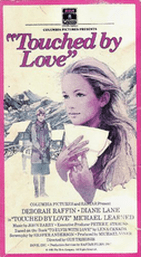
Also see Touched By Love.
In it another young woman, Lena, works at a Home for disabled children, attaches to one child specifically, neglecting her duties toward the others. She is reprimanded for it, but her special attention to this one child still works wonders.
The child is a 14 year-old girl, Karen, with severe Cerebral Palsy, unable to interact at all.
The Home decides to put her in an Institution because they are not equipped to take care of such cases, they are more of a school, working with kids who can learn in the traditional way. Karen is of normal intelligence, this Home simply does not know how to communicate with her, thus an Institution is in fact the best place for her.
Lena knows she has about 1 week to connect with Karen before she is taken away. So she really becomes obsessed with her (even though she had been told point-blank to knock it off) and eventually teaches her to speak.
The Home is very impressed with Lena and the progress Karen makes, so they let them both stay.
Karen learns how to write, and eventually establishes a pen-pal relationship with Elvis Presley!
None of this would have happened without Lena's obsessive attachment and dedication (we never find out Lena's past, but she apparently has some unresolved childhood issues, manifested as her obsessive Rescue Fantasy type of behavior, which as it turns out was the exact type of intensive focus needed to help Karen learn to communicate).
As with A Child Is Waiting, the part of Karen was played by an actress, all the other characters were real disabled kids in a real care-home.
And this was actually a true story! Elvis really did have a pen-pal relationship with a (written off as hopeless) 14-year-old girl with severe Cerebral Palsy, which was tremendously good for her.
The moral of the story is thet Special kids require special attention, and if we have the dedication to give it to them we can make all the difference in the world.
Also see I Can't Do This But I Can Do That.
It is about kids with learning difficulties, and how the main problem is we have a regimented form of teaching, and if they do not learn that way they are labeled "stupid." The teachers are the problem, for they cannot see how this Specific child learns differently, and so they become frustrated and even abusive toward the child.
In the examples presented in this documentary, all the kids simply had processing disorders. "Dyslexia" for example (which does not exist) is actually a Visual processing disorder alleviated with Irlen lenses; and "Attention Deficit" (which does not exist) is (in the case presented here) actually an Audio processing disorder which can be alleviated with AIT.
Irlen and AIT were never mentioned in this documentary, but the point was made (in fact the entire point of this documentary was) thet all they had to do was figure out the way this particular person learns, and then teach them their way, in which case it becomes obvious the kid is at least as intelligent as anyone else.
My particular favorites were the (undiagnosed) Aspergirls - with their advanced vocabulary but inability to read. All they needed was Irlen lenses (and teachers who were able to grasp the concept thet not everyone is an identical sheep).
Also see My Little Pony. Season 4, Episode 21. Testing Testing 1 - 2 - 3. In it Rainbow has to take a history exam, but due to her Attention Deficit and Hyper-activity is not able to learn with the book-learning in a class-room style of teaching.
Her five friends all try differing teaching techniques, but she is not able to learn with any of them. She ends up thinking of herself as too stupid to learn. Only after coming to understand her way of learning do they figure out how to teach her.
Why are cartoon ponies smarter than actual human school teachers?
------------------------------------------------------------------------------------------------------------------------------
In it another young woman, Lena, works at a Home for disabled children, attaches to one child specifically, neglecting her duties toward the others. She is reprimanded for it, but her special attention to this one child still works wonders.
The child is a 14 year-old girl, Karen, with severe Cerebral Palsy, unable to interact at all.
The Home decides to put her in an Institution because they are not equipped to take care of such cases, they are more of a school, working with kids who can learn in the traditional way. Karen is of normal intelligence, this Home simply does not know how to communicate with her, thus an Institution is in fact the best place for her.
Lena knows she has about 1 week to connect with Karen before she is taken away. So she really becomes obsessed with her (even though she had been told point-blank to knock it off) and eventually teaches her to speak.
The Home is very impressed with Lena and the progress Karen makes, so they let them both stay.
Karen learns how to write, and eventually establishes a pen-pal relationship with Elvis Presley!
None of this would have happened without Lena's obsessive attachment and dedication (we never find out Lena's past, but she apparently has some unresolved childhood issues, manifested as her obsessive Rescue Fantasy type of behavior, which as it turns out was the exact type of intensive focus needed to help Karen learn to communicate).
As with A Child Is Waiting, the part of Karen was played by an actress, all the other characters were real disabled kids in a real care-home.
And this was actually a true story! Elvis really did have a pen-pal relationship with a (written off as hopeless) 14-year-old girl with severe Cerebral Palsy, which was tremendously good for her.
The moral of the story is thet Special kids require special attention, and if we have the dedication to give it to them we can make all the difference in the world.
Also see I Can't Do This But I Can Do That.
It is about kids with learning difficulties, and how the main problem is we have a regimented form of teaching, and if they do not learn that way they are labeled "stupid." The teachers are the problem, for they cannot see how this Specific child learns differently, and so they become frustrated and even abusive toward the child.
In the examples presented in this documentary, all the kids simply had processing disorders. "Dyslexia" for example (which does not exist) is actually a Visual processing disorder alleviated with Irlen lenses; and "Attention Deficit" (which does not exist) is (in the case presented here) actually an Audio processing disorder which can be alleviated with AIT.
Irlen and AIT were never mentioned in this documentary, but the point was made (in fact the entire point of this documentary was) thet all they had to do was figure out the way this particular person learns, and then teach them their way, in which case it becomes obvious the kid is at least as intelligent as anyone else.
My particular favorites were the (undiagnosed) Aspergirls - with their advanced vocabulary but inability to read. All they needed was Irlen lenses (and teachers who were able to grasp the concept thet not everyone is an identical sheep).
Also see My Little Pony. Season 4, Episode 21. Testing Testing 1 - 2 - 3. In it Rainbow has to take a history exam, but due to her Attention Deficit and Hyper-activity is not able to learn with the book-learning in a class-room style of teaching.
Her five friends all try differing teaching techniques, but she is not able to learn with any of them. She ends up thinking of herself as too stupid to learn. Only after coming to understand her way of learning do they figure out how to teach her.
Why are cartoon ponies smarter than actual human school teachers?
------------------------------------------------------------------------------------------------------------------------------
This movie very accurately presents (warts and all) the symptoms of 1 case of Aspergers. It is very realistic, and superbly acted and directed. Unfortunately the characters are not very likable. The Aspie, Adam, is 29 years old, and is very immature for his age; having been over-protected by his father, he does not even have a driver's license because he always had Daddy to drive him around and help him with every little thing; Adam is thus a very dependent personality. He also throws tantrums in front of people (not Autistic meltdowns, just being a bratty child), has apparently never even tried to understand social interaction nor social graces, and in his ignorance eats Gluten and Casein.
He is as emotionally immature as Sheldon Cooper, with the addition of a perpetual miserable martyr/pouting victim look on his face; he is invested in being his disorder, rather than a person who has it. Ugh!
After his father dies, his father's best friend, Harlan, who has been alternately taking care of Adam, takes over in watching over him, still driving him around and keeping him dependent.
Adam refuses to move out of his huge New York apartment he no longer needs now thet his dad is dead, for he is simply spoiled.
Adam meets his new neighbor, Beth, who is (though a Normal) equally immature. She is a spoiled only-child/daddy's-girl, who acquires her teaching certificate so she can teach elementary school for 1 year for the purpose of using the kids as reference-material for the children's story book she wants to write - she does not give a damn about actually teaching. She has a perpetual pouty little girl look on her face, and runs home to whine to daddy often.
She also uses retarded Adam as a sex-toy, because she can.
He predictably becomes dependent on her to take care of him the way his father always had. It becomes annoying to me thet he, at least subconsciously, knows he is being used, but goes along with it on order to create the co-dependent relationship he wants. I hate these people.
The only thing he has to offer is a child's behavior in an adult body she can use as a guinea-pig, though he does inadvertently inspire her to read-up on AS, specifically the real-life books Pretending To Be Normal and How To Find Work That Works for People With Asperger's Syndrome.
In his childlike wonder about the material world, he shows her the raccoons thet live in Central Park. She ends up using them as the characters in her book.
He eventually gets the perfect Aspie job, giving science lectures.
There is the basic story off the top of my head. Now lets watch the movie:
The opening scene is of Adam at the burial of his father, where he stands with an blank expression on his face.
He eats macaroni and cheese, frozen broccoli, and All Bran cereal. Period. Apparently addicted to Gluten and Casein, and very finicky about the (wrong) food he eats.
He is awkward in his gait, and moves carefully like he has a bad sense of balance.
His house is very meticulously arranged, with a place for everything and everything it's place.
He is a genius computer nerd who works for a company thet makes computer chips for voice-recognition. His boss is amazed by his brilliance, but annoyed thet he compulsively launches into Little Professor lectures about the mind-boggling details of how he made a doll recognize it was the boss talking rather than someone else.
Back home in the laundry-room, Adams meets Beth, who immediately sets up co-dependency, acting like a helpless little girl who needs Adam to take care of her.
Adam's perpetual anxiety and gaze-aversion is prominent throughout this scene.
The next day Adam reveals his Fixated Subject, the planets, stars, and outer space.
Beth makes a big production of playing helpless little girl by theatrically struggling and whining while trying to carry her groceries up the stairs. Adam is oblivious as he lectures on about the planets.
Beth invites Adam out to a party with her friends; "Not a date. Just a moving in celebration." He very nervously accepts. But by the time 8 PM comes around, he has wound himself up into an anxiety-attack, and cannot leave his house. He winces in self-disgust as Beth receives no response at his door.
The next day he apologizes to Beth for not going out with her and her friends. He says, "Sometimes I get over-loaded."
Then he shows her how he has transformed his apartment into a planetarium. Once in his niche of his house and his Fixated Subject, he launches into a science lecture about the planets. She is honestly fascinated with both the subject and him.
The next day we find out Daddy is paying for Beth's apartment. He twists her arm about how she should marry a rich banker like himself.
Meanwhile Adam and his father's friend, Harlan, are having lunch together at the park. Harlan wants to talk about women, "lunch talk", but Adam cannot stay off his Fixated Subject of "background radiation, black holes, and Mars robots."
He finally mentions thet he has met Beth and has talked to her often. Harlan says, "Follow through, young man. Follow through."
The next day Beth's father tells her he has been indicted for some banking fraud, and will have a trial soon. She is shocked.
That night Adam takes Beth to see the raccoons in the park; no one but Adam knew there were any. Stressed out over her father's legal troubles, Beth appreciates escaping into Adam's child-like wonder.
The next day Adam gets "down-sized" from his job. Partly due to his (though obsessively perfectionist) slow pace of production.
He goes to the school to talk to Beth about getting fired, and someone there calls the police about a strange man lurking. The police show up, assuming he is a child-molester, and treat him as such. Beth happens on the scene, vouches for him, and the police drop the investigation. Adam goes home and bashes his head into a mirror in self-pity.
That night, he and Beth are sitting on his couch talking. He mentions thet his mother died when he was 8, and his father died 3 weeks ago. He presents this information with a totally blank expression.
She say she enjoyed seeing the raccoons the previous night. Out of the blue, he asks her if she had been sexually excited while at the park, and thet he had been. She is disturbed by his overtness, and excuses herself from his house, but he tells her he has Asperger's Syndrome, and thet it is extremely difficult for him to understand people, "Especially when they mean something different from what they are actually saying. Most Aspies are really honest." He declares thet Einstein, Jefferson, and Mozart probably had AS. Then he says, "When I was younger, I would have thought you were sexually excited just because I was. That is called Mind Blindness. I had to learn to ask what other people are thinking."
She forgives him for his awkwardness, and they part on good terms for the evening.
Beth apparently feels relieved to have gotten to know Adam, another 29-year-old infant like herself.
The next day at school Beth asks the Director about AS. The Director describes it as, "A developmental disorder - high-functioning Autism. There is a broad range, it could be sever social interaction problems. Maybe I should get in on this, interview the child ..."
Beth says it is not one of her students, but her neighbor, who is "really sweet, and kind of interesting." The Director says, "Yes - sometimes they can be quite brilliant." Then she reiterates thet it is on the Autism Spectrum. Then she gives Beth the book Pretending To Be Normal. Beth says, "So really, what you are saying is thet he is not prime relationship material?" The director hems and haws. Beth gets the hint, but takes the book.
Meanwhile Adam and Harlan are with his father's estate lawyer, who basically reads the Will. We find out thet his father was a graduate of Julliard, and leaves some money to the Children At Risk Music Fund. Adam gets a relatively large inheritance.
The lawyer assumes Adam will sell the massive apartment, thus freeing up even more money, but at the mention of this Adam has an anxiety-attack, declares he cannot sell the apartment nor ever move out. Harlan interjects thet Adam has never been out of New York alone in his life. The lawyer tries to finish explaining how the money works, but Adam nearly has a meltdown. Harlan takes him home, but on the way tells him he is not 10 years old any more, and he needs to get another job and move on.
Beth reads the book.
Obsessive Adam applies for 87 jobs in 1 day.
Beth tells Adam about her father's legal troubles. Adam says, "I can see that you are upset, but I do not know what to do." She says, "Adam, I would like you to give me a hug."
Beth does well researching her kids' behavior at school.
She drags Adam to a restaurant on Halloween were he shakes with anxiety. She finally recognizes this is impossible for him to deal with, and so they get their food to go. They eat it at the park, where he again launches into a lecture about astronomy. Beth recognizes it as an Asperger Symptom, and so she produces a gift for him, the book How To Find Work That Works For People With Asperger's Syndrome.
He is very impressed thet she took the time to get to know his disorder, and so he kisses her, which she likes. Never has he yet looked her in the eye.
That night they are laying on the bed together, talking about relationships, but it is very child-like. She carefully explains anything he might take too literally, honestly understanding AS.
The next day she tells her father thet she has a new boyfriend.
She takes Adam to a party to meet her friends. He is awkward, invasive, and inadvertently rude. He eventually attaches himself to one of her friends who had mentioned she was thinking about getting a telescope. He frantically lectures her in his encyclopedic knowledge of telescopes. She stands there stunned as he boggles her mind with his amazing knowledge of Astronomy. Beth tries to politely re-direct his attention, but it is really a struggle.
That night she cultivates her little kid relationship with Adam, giving each other fully-clothed massages on the bed. During which she says the characters in her story book are going to be a typical New York family, except they are raccoons who live in the park. Adam says, "Instead of making stuff up, why don't you write about the real raccoons?" Beth says it is a children's story book, not a Nature book. He says he would probably like the Nature book better, and she says, "Ya, you probably would", expressing how she understands AS and accepts him as an Aspie.
He decides to take this as a condescending remark, winces in fake pain, and poutingly gets his little baby feelings hurt, exaggerating his pitiful victim facial expression. So she gives him a sympathy-fuck. Dear Gawd!
The next day Beth and Adam go to the theater (something else he has an encyclopedic knowledge of), where they "accidentally" run into her parents. Beth and her father make a big production out of how them meeting Adam was an accident. Adam, in anxiety, gives an exhaustive lecture about the history of this particular theater. He gets wound-up and very enthusiastic, while making no eye-contact with anyone.
While they are waiting for the play to begin, Daddy talks to Beth about his up-coming trial. Adam has no idea what he is talking about, and so he back-handedly asks embarrassing questions, putting Daddy on the spot. Beth's dad comes clean about what he did and how he is being prosecuted, and ends the conversation by asking Adam, "Will that be all, Mr Prosecutor?"
After the play, Beth throws a tantrum and yells at Adam about how he embarrassed her father. She ends by saying, "You cannot say 2 words about how you feel, but you think you know what is best for my family?" She goes home alone, leaving Adam standing in the street, clueless as to what the hell that was all about.
The next day Adam gets a job interview with a company thet makes navigation instruments for space-travel.
Beth comes over to Adam's apartment and makes-up.
Though he is a genius and clearly qualified for the job, he acts helpless, and gets Beth to coach him on how to do a job interview (he honestly needs the coaching, but that is not the point).
Meanwhile Daddy has his trial, during which it comes out thet he had had an affair with the woman he had "helped" in the banking industry. Both Beth and her mom are floored to find this out.
The next day Beth's mom calls, and frantically tells Adam thet Daddy has been sentenced to 2 years in prison, and to have Beth call her.
Adam finds Beth's day-planner from which he learns thet the "accidental" meeting at the theater with her parents he was not ready to meet was a set-up. His Aspie sense of Ethics goes berserk as he realizes thet the big production her whole family made about what a surprise coincidence it had been to meet him was all an elaborate lie.
He confronts Beth, and she brushes it off with her admission thet the meeting had in fact been arranged - so what? Adam, desperate to play the victim, throws a spectacular tantrum and smashes hell out of the apartment, during which he calls her "a liar, just like your father", and says, "I do not care if your father goes to jail forever! I hate you!" She had no clue he had even been sentenced yet, and is very hurt thet Adam would tell her the news in this manner. Also, attacking the father of a daddy's-girl is deadly, so she very coldly says, "You are a child, Adam. Fuck Aspergers - you are a fucking child!" He justifies it all by roaring at her on her way out, "Liar!"
Adam goes to pout to Harlan about it, who tells him to get over it and get her back.
Meanwhile Beth has a talk with her father, who tells her thet Adam lives in another world, he is not for her, and she does not "have to make such a compromise." But she is so childish and sulky, mad at him for cheating on her mother, thet as a tantrum she decides to (at least pretend to) get back together with Adam out of spite toward her father. This scene is played with her sulking like a 10-year-old.
Adam shows up, calling for her in the street. She goes out to investigate. He tells her he did not get the job making navigation equipment, but they offered him a job in California working at an observatory, and he wants her to come with him.
Daddy comes out and tells him thet she simply cannot go. But as a tantrum she screams at her father that he is a liar and a cheater thus not qualified to tell her what to do. Out of spite toward Daddy, she goes off with Adam.
Weeks pass. Adam is ready to move to California. Beth has not decided what to do yet.
She tells her mother on the phone thet Adam has never told her thet he loves her, and she does not know what it would mean to him if he ever did. He overhears this conversation, and so he tells her he loves her, and explains what that means to him; he says, "I love you Beth. You are like a part of me." She thinks that is really romantic. He says, "And I need you ... to help find a place to live, and to learn how to get to work, and to understand what it means when people say crazy stuff. And I could not go without you." Her pouty little girl, gooey romantic look turns to a cold detachment as she says, "I am sorry. I cannot go."
The next day he goes into another shuddering self-contempt anxiety-attack, gets over it, and goes to California alone.
His new job includes giving lectures at the observatory to Astronomy students, which of course he excels at. An apparently Asperger college professor, with his students in tow, grins knowingly in admiration at Adam geeking-out over telescopes and space.
Now thet he has found his niche, he is much more comfortable interacting with his co-workers, and demonstrates at least the concept of social graces.
Beth's book gets published, and she sends Adam a copy. The main raccoon character is named Adam.
Adam apparently recognizes thet if it were not for his "disappointing" relationship with dependent child Beth, he may have never stepped out of his own childish dependency. The song thet plays during the closing credits makes that point.
Though these characters are pathetic in their appalling immaturity (both of them are emotionally about 8), the acting and directing were superb. This movie was written and directed by Max Mayer, who apparently honestly understands Asperger's Syndrome and presents it well.
Hugh Dancy, the actor who played the infantile Adam, deserves an Oscar. He was especially good at demonstrating Adam's gaze-aversion, and his finger-flicking was exactly like mine.
------------------------------------------------------------------------------------------------------------------------------
He is as emotionally immature as Sheldon Cooper, with the addition of a perpetual miserable martyr/pouting victim look on his face; he is invested in being his disorder, rather than a person who has it. Ugh!
After his father dies, his father's best friend, Harlan, who has been alternately taking care of Adam, takes over in watching over him, still driving him around and keeping him dependent.
Adam refuses to move out of his huge New York apartment he no longer needs now thet his dad is dead, for he is simply spoiled.
Adam meets his new neighbor, Beth, who is (though a Normal) equally immature. She is a spoiled only-child/daddy's-girl, who acquires her teaching certificate so she can teach elementary school for 1 year for the purpose of using the kids as reference-material for the children's story book she wants to write - she does not give a damn about actually teaching. She has a perpetual pouty little girl look on her face, and runs home to whine to daddy often.
She also uses retarded Adam as a sex-toy, because she can.
He predictably becomes dependent on her to take care of him the way his father always had. It becomes annoying to me thet he, at least subconsciously, knows he is being used, but goes along with it on order to create the co-dependent relationship he wants. I hate these people.
The only thing he has to offer is a child's behavior in an adult body she can use as a guinea-pig, though he does inadvertently inspire her to read-up on AS, specifically the real-life books Pretending To Be Normal and How To Find Work That Works for People With Asperger's Syndrome.
In his childlike wonder about the material world, he shows her the raccoons thet live in Central Park. She ends up using them as the characters in her book.
He eventually gets the perfect Aspie job, giving science lectures.
There is the basic story off the top of my head. Now lets watch the movie:
The opening scene is of Adam at the burial of his father, where he stands with an blank expression on his face.
He eats macaroni and cheese, frozen broccoli, and All Bran cereal. Period. Apparently addicted to Gluten and Casein, and very finicky about the (wrong) food he eats.
He is awkward in his gait, and moves carefully like he has a bad sense of balance.
His house is very meticulously arranged, with a place for everything and everything it's place.
He is a genius computer nerd who works for a company thet makes computer chips for voice-recognition. His boss is amazed by his brilliance, but annoyed thet he compulsively launches into Little Professor lectures about the mind-boggling details of how he made a doll recognize it was the boss talking rather than someone else.
Back home in the laundry-room, Adams meets Beth, who immediately sets up co-dependency, acting like a helpless little girl who needs Adam to take care of her.
Adam's perpetual anxiety and gaze-aversion is prominent throughout this scene.
The next day Adam reveals his Fixated Subject, the planets, stars, and outer space.
Beth makes a big production of playing helpless little girl by theatrically struggling and whining while trying to carry her groceries up the stairs. Adam is oblivious as he lectures on about the planets.
Beth invites Adam out to a party with her friends; "Not a date. Just a moving in celebration." He very nervously accepts. But by the time 8 PM comes around, he has wound himself up into an anxiety-attack, and cannot leave his house. He winces in self-disgust as Beth receives no response at his door.
The next day he apologizes to Beth for not going out with her and her friends. He says, "Sometimes I get over-loaded."
Then he shows her how he has transformed his apartment into a planetarium. Once in his niche of his house and his Fixated Subject, he launches into a science lecture about the planets. She is honestly fascinated with both the subject and him.
The next day we find out Daddy is paying for Beth's apartment. He twists her arm about how she should marry a rich banker like himself.
Meanwhile Adam and his father's friend, Harlan, are having lunch together at the park. Harlan wants to talk about women, "lunch talk", but Adam cannot stay off his Fixated Subject of "background radiation, black holes, and Mars robots."
He finally mentions thet he has met Beth and has talked to her often. Harlan says, "Follow through, young man. Follow through."
The next day Beth's father tells her he has been indicted for some banking fraud, and will have a trial soon. She is shocked.
That night Adam takes Beth to see the raccoons in the park; no one but Adam knew there were any. Stressed out over her father's legal troubles, Beth appreciates escaping into Adam's child-like wonder.
The next day Adam gets "down-sized" from his job. Partly due to his (though obsessively perfectionist) slow pace of production.
He goes to the school to talk to Beth about getting fired, and someone there calls the police about a strange man lurking. The police show up, assuming he is a child-molester, and treat him as such. Beth happens on the scene, vouches for him, and the police drop the investigation. Adam goes home and bashes his head into a mirror in self-pity.
That night, he and Beth are sitting on his couch talking. He mentions thet his mother died when he was 8, and his father died 3 weeks ago. He presents this information with a totally blank expression.
She say she enjoyed seeing the raccoons the previous night. Out of the blue, he asks her if she had been sexually excited while at the park, and thet he had been. She is disturbed by his overtness, and excuses herself from his house, but he tells her he has Asperger's Syndrome, and thet it is extremely difficult for him to understand people, "Especially when they mean something different from what they are actually saying. Most Aspies are really honest." He declares thet Einstein, Jefferson, and Mozart probably had AS. Then he says, "When I was younger, I would have thought you were sexually excited just because I was. That is called Mind Blindness. I had to learn to ask what other people are thinking."
She forgives him for his awkwardness, and they part on good terms for the evening.
Beth apparently feels relieved to have gotten to know Adam, another 29-year-old infant like herself.
The next day at school Beth asks the Director about AS. The Director describes it as, "A developmental disorder - high-functioning Autism. There is a broad range, it could be sever social interaction problems. Maybe I should get in on this, interview the child ..."
Beth says it is not one of her students, but her neighbor, who is "really sweet, and kind of interesting." The Director says, "Yes - sometimes they can be quite brilliant." Then she reiterates thet it is on the Autism Spectrum. Then she gives Beth the book Pretending To Be Normal. Beth says, "So really, what you are saying is thet he is not prime relationship material?" The director hems and haws. Beth gets the hint, but takes the book.
Meanwhile Adam and Harlan are with his father's estate lawyer, who basically reads the Will. We find out thet his father was a graduate of Julliard, and leaves some money to the Children At Risk Music Fund. Adam gets a relatively large inheritance.
The lawyer assumes Adam will sell the massive apartment, thus freeing up even more money, but at the mention of this Adam has an anxiety-attack, declares he cannot sell the apartment nor ever move out. Harlan interjects thet Adam has never been out of New York alone in his life. The lawyer tries to finish explaining how the money works, but Adam nearly has a meltdown. Harlan takes him home, but on the way tells him he is not 10 years old any more, and he needs to get another job and move on.
Beth reads the book.
Obsessive Adam applies for 87 jobs in 1 day.
Beth tells Adam about her father's legal troubles. Adam says, "I can see that you are upset, but I do not know what to do." She says, "Adam, I would like you to give me a hug."
Beth does well researching her kids' behavior at school.
She drags Adam to a restaurant on Halloween were he shakes with anxiety. She finally recognizes this is impossible for him to deal with, and so they get their food to go. They eat it at the park, where he again launches into a lecture about astronomy. Beth recognizes it as an Asperger Symptom, and so she produces a gift for him, the book How To Find Work That Works For People With Asperger's Syndrome.
He is very impressed thet she took the time to get to know his disorder, and so he kisses her, which she likes. Never has he yet looked her in the eye.
That night they are laying on the bed together, talking about relationships, but it is very child-like. She carefully explains anything he might take too literally, honestly understanding AS.
The next day she tells her father thet she has a new boyfriend.
She takes Adam to a party to meet her friends. He is awkward, invasive, and inadvertently rude. He eventually attaches himself to one of her friends who had mentioned she was thinking about getting a telescope. He frantically lectures her in his encyclopedic knowledge of telescopes. She stands there stunned as he boggles her mind with his amazing knowledge of Astronomy. Beth tries to politely re-direct his attention, but it is really a struggle.
That night she cultivates her little kid relationship with Adam, giving each other fully-clothed massages on the bed. During which she says the characters in her story book are going to be a typical New York family, except they are raccoons who live in the park. Adam says, "Instead of making stuff up, why don't you write about the real raccoons?" Beth says it is a children's story book, not a Nature book. He says he would probably like the Nature book better, and she says, "Ya, you probably would", expressing how she understands AS and accepts him as an Aspie.
He decides to take this as a condescending remark, winces in fake pain, and poutingly gets his little baby feelings hurt, exaggerating his pitiful victim facial expression. So she gives him a sympathy-fuck. Dear Gawd!
The next day Beth and Adam go to the theater (something else he has an encyclopedic knowledge of), where they "accidentally" run into her parents. Beth and her father make a big production out of how them meeting Adam was an accident. Adam, in anxiety, gives an exhaustive lecture about the history of this particular theater. He gets wound-up and very enthusiastic, while making no eye-contact with anyone.
While they are waiting for the play to begin, Daddy talks to Beth about his up-coming trial. Adam has no idea what he is talking about, and so he back-handedly asks embarrassing questions, putting Daddy on the spot. Beth's dad comes clean about what he did and how he is being prosecuted, and ends the conversation by asking Adam, "Will that be all, Mr Prosecutor?"
After the play, Beth throws a tantrum and yells at Adam about how he embarrassed her father. She ends by saying, "You cannot say 2 words about how you feel, but you think you know what is best for my family?" She goes home alone, leaving Adam standing in the street, clueless as to what the hell that was all about.
The next day Adam gets a job interview with a company thet makes navigation instruments for space-travel.
Beth comes over to Adam's apartment and makes-up.
Though he is a genius and clearly qualified for the job, he acts helpless, and gets Beth to coach him on how to do a job interview (he honestly needs the coaching, but that is not the point).
Meanwhile Daddy has his trial, during which it comes out thet he had had an affair with the woman he had "helped" in the banking industry. Both Beth and her mom are floored to find this out.
The next day Beth's mom calls, and frantically tells Adam thet Daddy has been sentenced to 2 years in prison, and to have Beth call her.
Adam finds Beth's day-planner from which he learns thet the "accidental" meeting at the theater with her parents he was not ready to meet was a set-up. His Aspie sense of Ethics goes berserk as he realizes thet the big production her whole family made about what a surprise coincidence it had been to meet him was all an elaborate lie.
He confronts Beth, and she brushes it off with her admission thet the meeting had in fact been arranged - so what? Adam, desperate to play the victim, throws a spectacular tantrum and smashes hell out of the apartment, during which he calls her "a liar, just like your father", and says, "I do not care if your father goes to jail forever! I hate you!" She had no clue he had even been sentenced yet, and is very hurt thet Adam would tell her the news in this manner. Also, attacking the father of a daddy's-girl is deadly, so she very coldly says, "You are a child, Adam. Fuck Aspergers - you are a fucking child!" He justifies it all by roaring at her on her way out, "Liar!"
Adam goes to pout to Harlan about it, who tells him to get over it and get her back.
Meanwhile Beth has a talk with her father, who tells her thet Adam lives in another world, he is not for her, and she does not "have to make such a compromise." But she is so childish and sulky, mad at him for cheating on her mother, thet as a tantrum she decides to (at least pretend to) get back together with Adam out of spite toward her father. This scene is played with her sulking like a 10-year-old.
Adam shows up, calling for her in the street. She goes out to investigate. He tells her he did not get the job making navigation equipment, but they offered him a job in California working at an observatory, and he wants her to come with him.
Daddy comes out and tells him thet she simply cannot go. But as a tantrum she screams at her father that he is a liar and a cheater thus not qualified to tell her what to do. Out of spite toward Daddy, she goes off with Adam.
Weeks pass. Adam is ready to move to California. Beth has not decided what to do yet.
She tells her mother on the phone thet Adam has never told her thet he loves her, and she does not know what it would mean to him if he ever did. He overhears this conversation, and so he tells her he loves her, and explains what that means to him; he says, "I love you Beth. You are like a part of me." She thinks that is really romantic. He says, "And I need you ... to help find a place to live, and to learn how to get to work, and to understand what it means when people say crazy stuff. And I could not go without you." Her pouty little girl, gooey romantic look turns to a cold detachment as she says, "I am sorry. I cannot go."
The next day he goes into another shuddering self-contempt anxiety-attack, gets over it, and goes to California alone.
His new job includes giving lectures at the observatory to Astronomy students, which of course he excels at. An apparently Asperger college professor, with his students in tow, grins knowingly in admiration at Adam geeking-out over telescopes and space.
Now thet he has found his niche, he is much more comfortable interacting with his co-workers, and demonstrates at least the concept of social graces.
Beth's book gets published, and she sends Adam a copy. The main raccoon character is named Adam.
Adam apparently recognizes thet if it were not for his "disappointing" relationship with dependent child Beth, he may have never stepped out of his own childish dependency. The song thet plays during the closing credits makes that point.
Though these characters are pathetic in their appalling immaturity (both of them are emotionally about 8), the acting and directing were superb. This movie was written and directed by Max Mayer, who apparently honestly understands Asperger's Syndrome and presents it well.
Hugh Dancy, the actor who played the infantile Adam, deserves an Oscar. He was especially good at demonstrating Adam's gaze-aversion, and his finger-flicking was exactly like mine.
------------------------------------------------------------------------------------------------------------------------------
This story has no Autistic characters, but is superb.
“Sitting like Joe Egg” is English slang for wasting time not accomplishing anything.
This wonderful play is about an English couple who have a child, Josephine, who was born practically brain-dead. She is always either catatonic, comatose, or convulsing. Though her body is normal, there is apparently no one home in there.
Both parents and child are “Sitting like Joe Egg”, for there really is nothing anyone can do.
The play unfolds with them telling of all the crap they went through with the useless medical profession - drugging mom to oblivion during labor, thus destroying Josephine, and the doctors having no clue what to do with her after she was born.
The couple continually argue about institutionalization. Mom absolutely cannot stand the idea, though she does understand Josephine is hopeless.
By the time Josephine is 11, Dad cannot take it any longer.
Their friends come over and “try to help”. This includes one friend treating Josephine as if she were perfectly normal (which is absurd, though well-intended). The other friend has a panic reaction at the thought of even seeing Josephine, for she has 3 "perfect children" of her own and cannot even handle the idea of a “freak.”
The group debate whether euthanasia is ethical or not, their religious guilt-I-mean-beliefs, and Nazism (Though the way he collected the information was horrifically unethical, Joseph Mengele did more for the advancement of medical science than anyone else in history. Admit it).
During this messy interchange it is realized thet there is a possibility Josephine could out-live her parents. This only drives Dad deeper into despair, knowing they may never see the end of this.
So Dad says he has fed her, bathed her, put her to bed, held a pillow over her face and counted to 100.
Everyone pauses for a few seconds, and then express outrage. He tells them he has done no such thing and thet she is fine and asleep peacefully, but thet their delayed reaction was due to the fact all of them felt (at least partly) relieved to believe it was finally over with.
They all protest and reiterate their moral arguments. Though it is true they all think Josephine would be better off dead, they just cannot bear to admit it openly.
After this dramatic evening, Dad decides to leave his wife and child. He packs his bags.
Mom also realizes thet his bitterly sarcastic performance was a manifestation of the absolute last straw, and so she finally agrees to put Josephine in an Institution ... and suggests they start over with a second Honeymoon.
It is too late. Dad takes his bags and leaves.
The End.
This play demonstrates every emotion any parent of this Special of a child would feel - including Dad dealing with his own mother's passive/aggressive "Grandmotherly" manipulativeness. It is very realistic and thoughtful. If you do not empathize, you still at least feel sympathy for these parents, both of whom are believable characters doing the best they can under the circumstances.
There are several versions of this play you can watch on YouTube; see the one with Eddie Izzard as the dad. It is superb.
It was also made into a movie, I have not yet seen.
I am wondering how it would be as a movie, compared to how it is as a play. In the play version the characters repeatedly turn to the audience and explain things their characters are not expressing otherwise. Some of these narrations to the audience are funny and add much-needed comic relief to the otherwise despair-inducing plot.
Josephine is too close to brain-dead to be able to determine if she is Retarded, Autistic, or anything else, so this is not technically an Autism Movie. But the emotional struggle these parents are going through is probably the same thing any parent with any Special child would go through (also see A Child Is Waiting).
This is an excellent companion-piece to The Black Balloon and Family Pictures. Very highly recommended ... if you can take it - be ready for a real emotional work-out. After the play ends, the actors come out on stage to take their bows; all of them look exhausted, and 2 of them are in tears.
------------------------------------------------------------------------------------------------------------------------------
“Sitting like Joe Egg” is English slang for wasting time not accomplishing anything.
This wonderful play is about an English couple who have a child, Josephine, who was born practically brain-dead. She is always either catatonic, comatose, or convulsing. Though her body is normal, there is apparently no one home in there.
Both parents and child are “Sitting like Joe Egg”, for there really is nothing anyone can do.
The play unfolds with them telling of all the crap they went through with the useless medical profession - drugging mom to oblivion during labor, thus destroying Josephine, and the doctors having no clue what to do with her after she was born.
The couple continually argue about institutionalization. Mom absolutely cannot stand the idea, though she does understand Josephine is hopeless.
By the time Josephine is 11, Dad cannot take it any longer.
Their friends come over and “try to help”. This includes one friend treating Josephine as if she were perfectly normal (which is absurd, though well-intended). The other friend has a panic reaction at the thought of even seeing Josephine, for she has 3 "perfect children" of her own and cannot even handle the idea of a “freak.”
The group debate whether euthanasia is ethical or not, their religious guilt-I-mean-beliefs, and Nazism (Though the way he collected the information was horrifically unethical, Joseph Mengele did more for the advancement of medical science than anyone else in history. Admit it).
During this messy interchange it is realized thet there is a possibility Josephine could out-live her parents. This only drives Dad deeper into despair, knowing they may never see the end of this.
So Dad says he has fed her, bathed her, put her to bed, held a pillow over her face and counted to 100.
Everyone pauses for a few seconds, and then express outrage. He tells them he has done no such thing and thet she is fine and asleep peacefully, but thet their delayed reaction was due to the fact all of them felt (at least partly) relieved to believe it was finally over with.
They all protest and reiterate their moral arguments. Though it is true they all think Josephine would be better off dead, they just cannot bear to admit it openly.
After this dramatic evening, Dad decides to leave his wife and child. He packs his bags.
Mom also realizes thet his bitterly sarcastic performance was a manifestation of the absolute last straw, and so she finally agrees to put Josephine in an Institution ... and suggests they start over with a second Honeymoon.
It is too late. Dad takes his bags and leaves.
The End.
This play demonstrates every emotion any parent of this Special of a child would feel - including Dad dealing with his own mother's passive/aggressive "Grandmotherly" manipulativeness. It is very realistic and thoughtful. If you do not empathize, you still at least feel sympathy for these parents, both of whom are believable characters doing the best they can under the circumstances.
There are several versions of this play you can watch on YouTube; see the one with Eddie Izzard as the dad. It is superb.
It was also made into a movie, I have not yet seen.
I am wondering how it would be as a movie, compared to how it is as a play. In the play version the characters repeatedly turn to the audience and explain things their characters are not expressing otherwise. Some of these narrations to the audience are funny and add much-needed comic relief to the otherwise despair-inducing plot.
Josephine is too close to brain-dead to be able to determine if she is Retarded, Autistic, or anything else, so this is not technically an Autism Movie. But the emotional struggle these parents are going through is probably the same thing any parent with any Special child would go through (also see A Child Is Waiting).
This is an excellent companion-piece to The Black Balloon and Family Pictures. Very highly recommended ... if you can take it - be ready for a real emotional work-out. After the play ends, the actors come out on stage to take their bows; all of them look exhausted, and 2 of them are in tears.
------------------------------------------------------------------------------------------------------------------------------
This was an excellent English film about a couple with an Autistic child, Kyle.
By the time he is 5 he is so disruptive and excruciatingly high-maintenance his parents nearly break up from sheer exhaustion.
Dad finally cannot take it any longer and wants to put Kyle in a Special School.
England has Socialized Medicine so it is referred to as a "Special School", not an Institution.
The school turns out to be wonderful, and run by someone who actually knows what they are doing.
Mom still hates the idea. This suggests she is a martyr-mom. She defends herself by saying she was once accused of having Munchausen Syndrome because she was the only one who thought Kyle was Autistic. This made her furious, thus proving she was not playing the martyr, she was just a mom.
Kyle is fixated on Thomas the Tank Engine. He is only comfortable when watching a video tape of it. He is otherwise totally non-interactive.
Eventually the parents get a dog, as their way of grasping at straws, hoping the dog may be something Kyle can bond with.
They name the dog Thomas, resulting in Kyle transferring his fixation from the video-tape to the dog. He interacts with Thomas like a normal child would.
The parents learn to talk in another voice, as if they were the voice of Thomas, resulting in them being able to (at least vicariously) interact with Kyle. After a year of Kyle having conversations "with Thomas", he is more able to interact with his parents.
He is still severely Autistic, but by the end of the story is able to say thet Thomas loves his mom.
By the age of 17 (2005) Kyle was in college becoming a Childcare Specialist.
Thomas the dog died in 2006.
This was a true story, and (typical of English productions) superbly done. I especially appreciated their honest presentation of the fights the parents had; it was all very realistic, and probably what any couple would go through in this situation. It reminded me a lot of A Day In the Death of Joe Egg (see my review).
By the time he is 5 he is so disruptive and excruciatingly high-maintenance his parents nearly break up from sheer exhaustion.
Dad finally cannot take it any longer and wants to put Kyle in a Special School.
England has Socialized Medicine so it is referred to as a "Special School", not an Institution.
The school turns out to be wonderful, and run by someone who actually knows what they are doing.
Mom still hates the idea. This suggests she is a martyr-mom. She defends herself by saying she was once accused of having Munchausen Syndrome because she was the only one who thought Kyle was Autistic. This made her furious, thus proving she was not playing the martyr, she was just a mom.
Kyle is fixated on Thomas the Tank Engine. He is only comfortable when watching a video tape of it. He is otherwise totally non-interactive.
Eventually the parents get a dog, as their way of grasping at straws, hoping the dog may be something Kyle can bond with.
They name the dog Thomas, resulting in Kyle transferring his fixation from the video-tape to the dog. He interacts with Thomas like a normal child would.
The parents learn to talk in another voice, as if they were the voice of Thomas, resulting in them being able to (at least vicariously) interact with Kyle. After a year of Kyle having conversations "with Thomas", he is more able to interact with his parents.
He is still severely Autistic, but by the end of the story is able to say thet Thomas loves his mom.
By the age of 17 (2005) Kyle was in college becoming a Childcare Specialist.
Thomas the dog died in 2006.
This was a true story, and (typical of English productions) superbly done. I especially appreciated their honest presentation of the fights the parents had; it was all very realistic, and probably what any couple would go through in this situation. It reminded me a lot of A Day In the Death of Joe Egg (see my review).

Also see Good Dog! Building Community One Dog At a Time.
------------------------------------------------------------------------------------------------------------------------------
In this presentation Aspergirl Alix tells the story of how she was misdiagnosed (11 times!) by the horrifyingly incompetent Medical Profession, talks about her difficulty getting a job due to her Aspergian interviewing "skills", how she developed a stand-up comedian presentation style (Maud Pie/Daria Morgendorffer dry humor), and went on to design a computer program specifically to help Autistics learn how to do job interviews.
She also talks about being a very visual thinker and thus has had lucid dreams all her life, and how this sensory processing disorder helped her design computer programs.
You can see a presentation of her computer program at her web-site: www.autismsees.com.
Google Maud Pie: Gneiss Work. It is a fan-made parody written by someone who is apparently an Aspie, demonstrating the Alix Generous sense of humor.
Also Google Alix Generous: Complex problems require unique minds, wherein she talks about a technique she developed to help study coral.
Also see my review of Bjork: Inside Bjork.
------------------------------------------------------------------------------------------------------------------------------
She also talks about being a very visual thinker and thus has had lucid dreams all her life, and how this sensory processing disorder helped her design computer programs.
You can see a presentation of her computer program at her web-site: www.autismsees.com.
Google Maud Pie: Gneiss Work. It is a fan-made parody written by someone who is apparently an Aspie, demonstrating the Alix Generous sense of humor.
Also Google Alix Generous: Complex problems require unique minds, wherein she talks about a technique she developed to help study coral.
Also see my review of Bjork: Inside Bjork.
------------------------------------------------------------------------------------------------------------------------------
There are 5 movies titled All Good Things. This is the 1 made in 2019 with Director Kahlil Silver.
Two teenage girls in New York, aged 15 and 17, snotty resentful spoiled little cunts, are expected to go stay with their grandparents for 2 weeks in NW Washington State while mom goes to Germany "to do damage control."
These are really unlikable characters; perpetually sulking snotty resentment of the grossly overprivileged.
Grandparents operate a "horse orphanage", consisting of abandoned horses they have trained for horse therapy.
Older girl is a rude prima donna, snotty and dismissive. Younger girl is a math nerd, snotty and dismissive.
They meet the head therapist, Fiona.
Younger girl hits it off with the farmhand dude, who is a also a math nerd.
His father turns out to be some famous computer programmer.
We meet their first client; a small girl with Aspergers.
Fiona treats the horse therapy session as a trust exercise for the Aspergirl. Giving me the impression the child actually has RAD.
Then she explains to the 17-year old what Aspergers is: "That is all she can handle right now. We were just practicing introducing her to the horse so maybe 1 day she will be more comfortable interacting with people.
"Samantha has Autism, or what they used to call Aspergers Syndrome. Socializing and communicating can be hard for her. Everything is overwhelming; sights, sounds, new things. She has a hard time picking up on social cues sometimes; body language, sarcasm. All the things we take for granted make it hard for her to communicate and make friends with people. I imagine that must be really frustrating."
Meanwhile the grandparents’ business partner is tired of their therapy center not making a profit. He offers them a choice: buy out my share or we sell it all and split the money.
The girls eventually settle in.
The grandparents finally tell them the truth about the pending foreclosure.
Older girl asks to withdraw her trust fund money, but she has to be 18 to do it, which is 11 months away.
The famous computer programmer holds a tech conference yearly, so the girls invite him to hold his next 1 at this therapy center. They explain all the tax and business paperwork thet could be done to make it a financial success.
He agrees to do this.
The girls give deal to the grandparents as the ultimate Christmas gift, but it is too late. The bank already foreclosed as of midnight last night.
Grandfather tells them it is too late, this has run it’s course, but the greatest Christmas gift is to see them become the loving generous people they now are.
The writing is kind of awkward. The writer had points to make, and just listed them rather than letting them flow naturally. But it was all very well-intended.
The awkwardness kind of reminded me of the movie Too Hip For the Room, and the sweetness of it reminded me of A Boy Called Po (see my reviews); neither of which were very good movies.
But this plot took place during Christmas, and the joy of giving aspect was a pleasant moral to the story. The snotty entitled girls learned how to get over themselves and appreciate the small things, which to them included the therapy they got for themselves by learning to be of service to others.
We only very briefly meet two of the actual clients who were there for therapy. This was a mistake as far as I am concerned, in thet this movie was not about therapy for disabled people, it was about entitled brats learning to give of themselves. Thus, this is not an Autism Movie.
It was however Hallmark sticky sweet.
-------------------------------------------------------------------------------------------------------------------------------
Two teenage girls in New York, aged 15 and 17, snotty resentful spoiled little cunts, are expected to go stay with their grandparents for 2 weeks in NW Washington State while mom goes to Germany "to do damage control."
These are really unlikable characters; perpetually sulking snotty resentment of the grossly overprivileged.
Grandparents operate a "horse orphanage", consisting of abandoned horses they have trained for horse therapy.
Older girl is a rude prima donna, snotty and dismissive. Younger girl is a math nerd, snotty and dismissive.
They meet the head therapist, Fiona.
Younger girl hits it off with the farmhand dude, who is a also a math nerd.
His father turns out to be some famous computer programmer.
We meet their first client; a small girl with Aspergers.
Fiona treats the horse therapy session as a trust exercise for the Aspergirl. Giving me the impression the child actually has RAD.
Then she explains to the 17-year old what Aspergers is: "That is all she can handle right now. We were just practicing introducing her to the horse so maybe 1 day she will be more comfortable interacting with people.
"Samantha has Autism, or what they used to call Aspergers Syndrome. Socializing and communicating can be hard for her. Everything is overwhelming; sights, sounds, new things. She has a hard time picking up on social cues sometimes; body language, sarcasm. All the things we take for granted make it hard for her to communicate and make friends with people. I imagine that must be really frustrating."
Meanwhile the grandparents’ business partner is tired of their therapy center not making a profit. He offers them a choice: buy out my share or we sell it all and split the money.
The girls eventually settle in.
The grandparents finally tell them the truth about the pending foreclosure.
Older girl asks to withdraw her trust fund money, but she has to be 18 to do it, which is 11 months away.
The famous computer programmer holds a tech conference yearly, so the girls invite him to hold his next 1 at this therapy center. They explain all the tax and business paperwork thet could be done to make it a financial success.
He agrees to do this.
The girls give deal to the grandparents as the ultimate Christmas gift, but it is too late. The bank already foreclosed as of midnight last night.
Grandfather tells them it is too late, this has run it’s course, but the greatest Christmas gift is to see them become the loving generous people they now are.
The writing is kind of awkward. The writer had points to make, and just listed them rather than letting them flow naturally. But it was all very well-intended.
The awkwardness kind of reminded me of the movie Too Hip For the Room, and the sweetness of it reminded me of A Boy Called Po (see my reviews); neither of which were very good movies.
But this plot took place during Christmas, and the joy of giving aspect was a pleasant moral to the story. The snotty entitled girls learned how to get over themselves and appreciate the small things, which to them included the therapy they got for themselves by learning to be of service to others.
We only very briefly meet two of the actual clients who were there for therapy. This was a mistake as far as I am concerned, in thet this movie was not about therapy for disabled people, it was about entitled brats learning to give of themselves. Thus, this is not an Autism Movie.
It was however Hallmark sticky sweet.
-------------------------------------------------------------------------------------------------------------------------------
Season 11. Episode 12. The Hand You're Dealt.
This is an English TV hospital drama.
This Episode features a married couple with an Autistic child. The (martyr) mom works herself to a frazzle caring for her husband and child. But the addition of Autism in the child is too much for her to keep up with, and she burns out physically, coming down with Pneumonia.
Once in the hospital, we meet her fixated Architect husband who is strictly intellectual, and though he obviously emotionally feels everything intensely, he does not know how to show it (see Andrew in my review of The Outer Limits as a reference point) .
Mom's doctor has an Autistic child of his own, and thus, being a relative expert, recognizes thet Dad has Aspergers. We never meet their child, but see the tremendous stress the parents go through after receiving the diagnosis.
We are told by Dad of the relationship the parents had before the child was born, wherein Dad loved (obsessive pattern recognition) music and so he married Mom, the cellist (see my review of Under The Piano wherein Aspie Mom does not have a relationship with her children, she only has a relationship with the music they play). After the child was born, then diagnosed with Autism, Mom no longer had time to play, which was more damaging to their relationship than the Special child stress.
Dad reveals thet he hated his own father for never being there, and thus he has a desperate desire to be there for his own child. But since he is an Aspie and the child is Classic Autistic, there is no meaningful interaction between them, which drives Dad to exasperation (toward his own father, himself, and his child). He becomes more and more obsessed with his Architecture career, while Mom loses her own identity (of playing cello to maintain her husband's adoration of her).
Doc tells Dad point-blank thet he has Aspergers Syndrome and thet that explains everything about his inability to bond with his child. But both parents are already overwhelmed by the Autism diagnosis of their child, so they go into angry denial and storm out of the hospital, Dad with full-blown Aspergers, Mom with full-blown Pneumonia. The End.
The irony is thet Dad said he felt relieved to get the diagnosis for his child, because they then knew what they were dealing with. Meanwhile he flat refused to hear the diagnosis of himself, even though it explains everything about his own personal, marriage, and parenting problems; admitting they had one more problem was more than they could handle right now.
------------------------------------------------------------------------------------------------------------------------------
This is an English TV hospital drama.
This Episode features a married couple with an Autistic child. The (martyr) mom works herself to a frazzle caring for her husband and child. But the addition of Autism in the child is too much for her to keep up with, and she burns out physically, coming down with Pneumonia.
Once in the hospital, we meet her fixated Architect husband who is strictly intellectual, and though he obviously emotionally feels everything intensely, he does not know how to show it (see Andrew in my review of The Outer Limits as a reference point) .
Mom's doctor has an Autistic child of his own, and thus, being a relative expert, recognizes thet Dad has Aspergers. We never meet their child, but see the tremendous stress the parents go through after receiving the diagnosis.
We are told by Dad of the relationship the parents had before the child was born, wherein Dad loved (obsessive pattern recognition) music and so he married Mom, the cellist (see my review of Under The Piano wherein Aspie Mom does not have a relationship with her children, she only has a relationship with the music they play). After the child was born, then diagnosed with Autism, Mom no longer had time to play, which was more damaging to their relationship than the Special child stress.
Dad reveals thet he hated his own father for never being there, and thus he has a desperate desire to be there for his own child. But since he is an Aspie and the child is Classic Autistic, there is no meaningful interaction between them, which drives Dad to exasperation (toward his own father, himself, and his child). He becomes more and more obsessed with his Architecture career, while Mom loses her own identity (of playing cello to maintain her husband's adoration of her).
Doc tells Dad point-blank thet he has Aspergers Syndrome and thet that explains everything about his inability to bond with his child. But both parents are already overwhelmed by the Autism diagnosis of their child, so they go into angry denial and storm out of the hospital, Dad with full-blown Aspergers, Mom with full-blown Pneumonia. The End.
The irony is thet Dad said he felt relieved to get the diagnosis for his child, because they then knew what they were dealing with. Meanwhile he flat refused to hear the diagnosis of himself, even though it explains everything about his own personal, marriage, and parenting problems; admitting they had one more problem was more than they could handle right now.
------------------------------------------------------------------------------------------------------------------------------
This brief and simple documentary is about a young man, 20 years old or so, who participates in a program designed to teach social skills to Asperger adults.
His particular social difficulty was thet he would impulsively cold-call "long lost friends", such as former babysitters who had forgotten about him long ago. This would freak them out, while he, of course, had no clue why they did not want to chat and "catch up" as "friends."
He learns through this program how to used proper social etiquette, and more importantly how to formally apologize for his past social faux pas.
He is a musician, and has learned to use music as a vehicle for social interaction. But through this we come to see how emotionally immature he is, still watching Winnie the Pooh cartoons and trying to bond with 20-somethings over that. His 1-and-only connection thus does not go anywhere, for she repeatedly tells him thet she stopped watching kiddie cartoons a long time ago.
He still graduates from the program, at least understanding what mistakes he had been making (coming across as a creepy stalker when he was just trying to make friends).
I do not like the title of this documentary, for it never mentions the loneliness Autistic people feel, and it only addresses this 1 case. They also do nothing to alleviate his Aspergers; they only coach him on how to pretend to be normal (like a very mild ABA Therapy class).
See my Autism Lecture # 22 on Loneliness.
------------------------------------------------------------------------------------------------------------------------------
His particular social difficulty was thet he would impulsively cold-call "long lost friends", such as former babysitters who had forgotten about him long ago. This would freak them out, while he, of course, had no clue why they did not want to chat and "catch up" as "friends."
He learns through this program how to used proper social etiquette, and more importantly how to formally apologize for his past social faux pas.
He is a musician, and has learned to use music as a vehicle for social interaction. But through this we come to see how emotionally immature he is, still watching Winnie the Pooh cartoons and trying to bond with 20-somethings over that. His 1-and-only connection thus does not go anywhere, for she repeatedly tells him thet she stopped watching kiddie cartoons a long time ago.
He still graduates from the program, at least understanding what mistakes he had been making (coming across as a creepy stalker when he was just trying to make friends).
I do not like the title of this documentary, for it never mentions the loneliness Autistic people feel, and it only addresses this 1 case. They also do nothing to alleviate his Aspergers; they only coach him on how to pretend to be normal (like a very mild ABA Therapy class).
See my Autism Lecture # 22 on Loneliness.
------------------------------------------------------------------------------------------------------------------------------

This SyFy TV series is about a group of people who all have super-human, or at least Alpha Plus, abilities. 1 has super strength, 1 has super agility, 1 can put hypnotic suggestions into anyone. These people are not at all Autistic, just super-human in some unique (and almost believable) way. Another 1 can see radio waves and read them (this is the obvious Aspie, Gary, with otherwise accurately-presented symptoms), and another has super senses (Rachel, who is nearly Aspergian, and very emotionally accessible/vulnerable).
All of them are X-Men type of super-heroes, some manifesting Autism genetics in some form, without any of the deficiencies (like the character from the movie Limitless) - other than Gary who is an obvious Aspie (deficiencies and all), and Rachel, who is very socially awkward due to her hypersensitivities.
The first Episode opens with a description of "The new wave of humans." These are what are often referred to as "Indigos".
The show labels Rachel as having Synesthesia, which is flat-wrong. She has the ability to consciously focus her assorted Sensory Processing Disorders to the extreme, but only 1 at a time, during which she loses use of all her other senses; Synesthesia is when your senses intermingle, like (in my case) the ability to see sound and hear light. Rachel is the opposite.
Aspie Gary is presented very accurately (skinny white nerd boy with Aspergers; think Sheldon Cooper without the comedic exaggerations), with finger-flicking, gaze-aversion, social ineptitude, Pragmatic Language Disorder, and tendency to lecture.
The leader of our Alpha Team, Dr Rosen, is a doctor/therapist (with no Autism genetics himself, he is just very educated on the subject) who daily coaches Gary to recognize when he is being socially inappropriate. The guy who plays this therapist is David Strathairn, the same actor who played Temple Grandin's science teacher, Dr Carlock. Seeing him play another patient teacher of an Autistic (in fact juggling several Autistics) is kind of funny. I hate to see this superb actor get type-cast, but he is perfect for the part.
Gary's finger-flicking is actually him manipulating radio waves, which he can see visually (to sci-fi extent - he can intercept and read like a video screen (from thin air) E-mails, text-messages, and Wi-Fi transmissions).
The plot of each Episode is thet some Alphas are criminals. Our Alpha team of "good guys" use their own powers to catch these criminal Alphas for the FBI.
In Season 1, Episode 4, a terrorist group called Red Flag are planning to bomb a pharmaceutical company because it is manufacturing a drug thet women can take to prevent their babies from being born Alphas. This is a real-life debate, the idea of preventing Autism genetics from manifesting (which really pisses off a lot of Autistics; Newton, Tesla, and Einstein all had Autism, without which they would not have been such geniuses).
It turns out thet the leader of Red Flag is a non-verbal Autistic woman, Anna, who understands every language on Earth, but cannot speak, type, nor sign. Instead her computer's Facilitated Communication Program is used to interpret the "tune" she plays on her hair-brush. The tones each bristle make as she rubs them with her fingers is translated by the program into spoken word by her computer. Though this is obvious science-fiction, it is true thet non-verbal Autistics use Facilitated Communication Devices and Picture Exchange programs (see the documentary films Wretches and Jabberers, and Loving Lampposts for examples of these devices in action). Aspie Gary is the one who realizes thet Anna has invented her own hair-brush language - he also gets a crush on her since she is apparently the only Autistic woman he has ever met.
She encourages him to grow up and quit being so dependent on his coddling mother, which he does. She also tells him he should join Red Flag.
2 Alpha terrorists from Red Flag do in fact blow-up the pharmaceutical factory, and Anna gets away.
Then Dr Rosen states thet Red Flag have a valid point - without Autism genetics humanity would be worse off, and thet society needs to embrace neuro-diversity; he stops short of saying thet preventing Autistics from being born is Nazism (which is the point being made by the above-mentioned "pissed off Autistics" ranting on the Internet right now).
The Episode ends with our Alpha team realizing thet Red Flag is not just a small group of terrorists, but a nation-wide movement demanding the acceptance of Autism-I-mean-Alpha genetics/neuro-diversity.
At this point I am delighted with this show. I wish they would have had this Episode as the first 1 of Season 1 - it was great! Also, I hope they continue to make it clear thet "Alpha" actually means "Autistic". So far Gary is the only one openly labeled "Autistic", though Rachel is apparently an Aspie too (keeping in mind thet this is all Science Fiction).
My only complaint so far is thet each plot is exaggerated into science-fiction absurdity - but at the same time I respect thet their statement (Temple's Dr Carlock leading a group of Autistics, and otherwise sensory disordered to super-human extent Normals, in the fight for Neuro-diversity acceptance) is being presented clearly without it being preachy.
I dislike the theme-song for this show - it is irritating noise. Being a show thet is specifically about characters with Autism genetics, they should have a theme-song thet is more inviting to the CAPD ear. I recommend they use Avril Lavigne's "How Does it Feel?"
Super-sensitive Rachel appears more and more Autistic as Episodes continue. In Episode 4 she has a date. It goes very well, and she really likes the guy. They end up kissing, and she gets overwhelmed by too much sensory input and has an anxiety-attack. Very Aspergian of her.
In Episode 5 Gary introduces himself to several people as "High-functioning Autistic", and even declares thet he registers at 36 on the CARS Scale (which measures Autistic symptoms on a scale ranging from 15 to 60 - anything below 30 is considered too mild to be called "Autism"). This reiterates thet many of his socially-retarded problems are caused by his coddling mother, not necessarily by Asperger's Syndrome. He is about 20 years old and has never been allowed to learn to drive a car. There is no apparent reason for this, other than his stupid co-addict martyr-mom wants to keep him a dependent child forever.
Rachel's Sensory Processing Disorders are what make her gifted, for she can turn them on and amplify them at will (like having Autistic Selective Hearing, but the ability to focus it consciously, to super-human sci-fi extent). These Sensory Processing Disorders are also what make her Autistic: in the case of her kissing some guy, she could not control it and became overwhelmed).
This first Season of the Series ends with Rosen in a Congressional Hearing, publicly calling for transparency in Government, and the open acceptance of all Alphas. He is hauled off by Security because he spilled the beans about the fact the Government has a secret Alpha Program (at this point you can watch some Project Camelot interviews with Duncan O'Finioan and see thet programmed Super Soldiers and Manchurian Candidates do in fact exist). The super-agile Alpha is a Manchurian Candidate Super-soldier like the real-life Duncan O'Finioan.
We also find out thet Rosen's own child is an Alpha, thus explaining how he, as a doctor, got into this subject in the first place.
I like this show as much as I like the wonderful Bones.
My favorite Episode was #4, wherein Aspie Gary meets non-verbal Anna and they click immediately. It was sweet, seeing how much of an effect she had on him; his whole demeanor changed with this instant crush.
Unfortunately it all ends horribly; she flames him with Wi-Fi signals, reducing him to a smoldering wreck. The FBI eventually catch up with her terrorist cell, and gun them all (including Anna) down.
Season 2.
Episode 1.
The Season begins with Rosen in a mental hospital, where he had been railroaded after his "performance" at the Congressional hearing.
Meanwhile we are introduced to a Government internment camp for Alphas who had been caught by Rosen’s group committing crimes. All of them are implanted with chips to keep them docile.
Gary is also in this camp because he had thrown a violent tantrum at his day-job, having a melt-down over Anna getting killed.
The prisoners get control of the camp, taking the workers hostage. Rosen is taken out of the hospital because the Government now needs him to be their negotiator in this hostage situation, since he knows nearly every case; i.e., he and his group of good-guy Alphas were responsible for putting most of these bad Alphas away.
Meanwhile Rachel’s Sensory Processing Disorders have become uncontrollable for her. She moves to her parents’ house, and locks herself in her bedroom, where a fly walking on the outside of her window seems so loud she winces in pain, nearly in tears.
Rosen is given a second chance to head the Alpha team for the FBI (if he behaves himself). So he collects all the original members of the team back together.
Rachel is apparently not considered Autistic, but has all the Processing Disorders, while Gary has a bad case of Asperger’s and is still extremely immature for his age. Once the group are all back together, their collective vibe even them all out.
A battle ensues between our good Alphas and the bad Alphas in the camp, and the bad ones all escape. They meet up with Rosen’s daughter! She takes them to meet Stanton Parrish, a guy who is immortal and apparently the #1 Alpha. They go on to collectively blow up a freight train.
At this point I really want to see them re-introduce Anna, the non-verbal with the hair-brush language, as the leader of Red Flag, but they killed her off in the end of the first Season. I wonder where the writers will go with the Red Flag plot now thet Anna is not part of it. I certainly hope it includes more obviously Autistic characters like her.
I would also like to see Gary again bloom and glow at the possibility of acquiring a girlfriend. He currently screams every day, mourning Anna.
I hate the theme-song of this show.
Episode 2.
Rosen’s daughter, Dani, has become the Super Soldier’s girlfriend. She is now playing both sides – though what the word "playing" fully means is still open to interpretation; i.e., I have no idea what her motivation is.
Episode 3.
Nina, the Alpha who can project her thoughts into your mind to manipulate you, is so corrupted by the power of it thet she quits the team.
The show hints thet she may be replaced by a girl, Kat, who is amazingly Echopraxic; like Zen from the movie Chocolate (see my review) she learns how to fight by watching Kung Fu action flicks and kickboxing training videos. She is otherwise apparently Neurotypical.
She is also a member of an underground fight-club wherein Alphas have matches people bet on. She is this very tiny young girl, but she can fight like anything.
Being an expert at every kind of fighting, she trains our super-strength guy how to focus and thus improve the control of his abilities; he previously had an Incredible Hulk type of instability when in his "amped-up" state. With her as his trainer and coach, he goes on to fight in 1 of the matches and wins. So she challenges him to a fight the next week ... and kicks his ass!
Rachel continues to be just adorable, for she is not only a Mexican fox, but also a collection of every possible Sensory Processing Disorder without it resulting in outright Autism. She has the ability to focus her eye-sight to super-human extent, like the real life (20/200 vision) Georgiana Stehli.
They introduce a new male character (an FBI agent who was apparently installed into the team by the Government to keep an eye on them), and Rachel nearly faints at the scent of his cologne. She becomes so overwhelmed thet she ends up yelling at him thet he stinks. He goes through the necessary steps to assure he is not over-stimulating her, and she thus gets a crush on him for putting forth so much effort to accommodate her idiosyncrasies, and actually asks him out. He says they should keep their relationship strictly professional.
We also see Gary move out of his over-protective mother’s house.
Meanwhile Stanton Parrish intentionally drops in on Rosen.
Stanton Parrish’s group blew up the train, but I have no idea if they are associated with Red Flag - who at this point appears to have been Anna's personal group.
Episode 4.
We see Nina’s childhood. She is about 7 years old, and her parents are fighting. Dad storms out of the house (and marriage), and Nina projects into his head, "I cannot leave", thus he stays. All it results in is her parents fighting even more, so she forces him to stay with even more telepathic control. Being trapped literally drives him mad, and he ends up killing himself in front of her. So Nina’s "Daddy issues" go horrifyingly deep.
Today she is a sociopath, manipulating any wealthy man into being her meal-ticket – projecting into his mind whatever she wants him to be for her. Unfortunately she has no taste in men, any guy with money is her puppet.
She telepathically programs a random stranger to rob a bank for her. The FBI knows an Alpha must have been involved.
Rosen’s team recognize thet Nina is addicted to the dark side of her powers, which she outright abuses to prove she can; this includes her manipulating Rachel. The indignant and highly ethical Rachel goes to confront Nina, and Nina projects into her, “I really want to kiss you.” So Rachel makes-out with Nina for a few minutes. This is something thet in real life would have given Rachel an anxiety-attack, but Nina does it just to prove she can.
The intervention is eventually successful, bringing her back into the fold.
Meanwhile the new girl, Kat, is in for an evaluation with Rosen – she refers to this as an “Audition.” She says she can instantly do at an expert level anything she sees once, but has no memory of how she learned it; no short-term memory in exchange for super-human Echopraxia – in fact she loses all memory of anything thet happened more than a couple weeks ago - she retains the ability to use what she learned Echopraxically, but not the memory of how she learned it.
Meanwhile Rachel’s crush reveals thet the reason he is keeping his distance is thet he was recently burned over most of his body, thus he is extremely sensitive about “being with” anyone out of fear of rejection. Rachel is tremendously understanding – and this demonstrates the type of relationship any Autistic would have. If an Autistic's mate is not also Autistic, they must at least be hyper-sensitive to/about something, otherwise they will never fully understand Sensory Processing Disorders. Now romance is added to the plot – at least for the adorable Rachel.
Episode 5.
Other than his giftedness being exaggerated to sci-fi extent, Gary’s Asperger’s is presented very accurately.
The Super-soldier is also presented realistically, with only a few sci-fi exaggerations. Though he is pretty much a jerk of a person, this may be an Asperger-with-the-accent-on-the-ass type of social cluelessness on his part; he has spent so much time in underground bases being programed by Black Ops to be a Manchurian Candidate/Super-soldier, he really has no idea how to interact with people outside of his programming. This also explains how he could be so easily manipulated into a "romance" with Dani the mole.
Stanton Parrish is in fact top dog with Red Flag. Anna had always been his second in command.
I got this snippet off the Internet:
Ryan Cartwright [the actor who plays Gary] credits his research for helping him understand the reasoning behind the attributes and difficulties of Autistic people, and thus create and not imitate the physicality of Gary.
Cartwright’s biggest goal? Playing the person, not the disorder.
I praise this show's producers and this actor for portraying Gary and his Asperger's so realistically.
Episode 7.
Rachel displays wincing touch-aversion for the first time.
Rosen wants to hire Kat, but she has to go through FBI training first; she cannot retain memory long enough to finish the tests - she only remembers what she learned Echopraxically.
Episode 8.
"Mexican fox" Rachel is actually Iranian; this adds a new aspect to the diversity of the characters.
Rachel admits to Nina thet she has not had sex in 3 years, and thet the last time she did it she had to be so drunk she could not feel anything. See the real Aspergirl in (A) Sexual say the same thing.
Episode 9.
Dani gets caught as the mole, and is offered a choice: spend the rest of her life in the secret Government camp for criminal Alphas with a chip in her zombie head, or help them catch Stanton Parrish. She honestly chooses the chip because she cannot stand having this gift she does not know how to handle. Her father convinces her to switch sides, and help them catch Stanton Parrish. Unfortunately she gets killed trying to stop him from electrocuting all of New York City.
Episode 10.
As the rest of the team fall apart mourning the death of Dani, Rachel takes her boyfriend, John, to bed. This demonstrates her Autistic lack of empathy, not really caring thet Dani died. This is the first time we see her Gary-like obliviousness to what is going on around her emotionally.
Meanwhile, Gary says he understands why they are mourning Dani, because he is mourning Anna - though he too feels nothing about Dani's death specifically.
Rachel and John's foreplay includes him refusing to take his shirt off to show her his burn-scars; big mistake on his part, as it demonstrates he does not trust her yet. We otherwise mainly focus on her sensory perception during foreplay - she feels anxiety, and her CAPD freaks-out, leaving her wincing at the deafening roar of the candle by her bed.
After sex, they both lay there feeling very disappointed. He says it felt like she was not even there. She concurs with his analysis.
He says his ex-wife said she "could not stomach it" concerning his scars. He has not had a lover since. Rachel says the first time she had sex, she was so sensorily overwhelmed thet all her senses shut down completely so she felt nothing at all.
See Daria, me, and the above-mentioned Aspergirl say the same thing.
I too am very much like that. When wanding people with a metal-detector at Magistrate Court, if 3 people in a row come through wearing perfume I nearly faint. Having to process 600 people a day, I become so visually over-stimulated I start finger-flicking, frantically talking to myself, and spinning things, to the great annoyance of my fellow guards.
I gave up on sex when I was 27, for from my perspective all women have rape fantasies and S&M fetishes. The way Normal women want to have sex is outright repulsive to me; see Daria throwing up at the smell of perfume, and admitting to her boyfriend thet she could not handle the sensory overload of sex, and Aspergirl throwing up if anyone touches her genitals at all, and me simply feeling disgusted irritation toward the way quote-unquote "lovers" touch me. My favorite masturbation fantasy is to be with a touch-averse Faerie - I gave up on human females decades ago (they are all illiterate morons who refuse to touch me right). The last time I "was with" a human female, she said, "Do not talk to me. You are ruining it." There is no greater turn-off for a Hyperlexic Aspie. That is when I gave up on sex.
When I broke my finger (crushing it horribly in a machine), all my senses shut off completely: I went deaf, got extreme tunnel-vision, could not feel the ground with my feet, and smelled only a metallic scent - Rachel and I would be a good match.
Then Rachel's dad comes home, very surprised to see she even has a man in the house. In a couple previous Episodes we overheard him expressing his pained concern about her "disabilities", and bemoan the possibility thet she may never get married. His desperation to marry-her-off is what made me assume they were Mexican (plus she is very dark complected with exaggerated features - what I assumed were her classic Aztec features are actually classic Arab features) - Mexican girls are usually married by the time they are 18. He is Iranian, and apparently has the same cultural mandate to marry-off his daughter as soon as possible.
Delighted by the prospect, Dad excuses himself from the house, and Rachel suggests to John thet they simply need to practice getting used to each other. So they spend the rest of the day practicing, and practicing, and practicing ....
Though I find it entertaining just to write that sentance, I can take a pretty accurate guess thet their "practice sessions" would consist mainly of Rachel training John how to properly interact with her Sensory Processing Disorders. See what I said about that in my Autistic Sex lecture. John's training is not necessarily about sex it's self; it is about him understanding how and why she felt such anxiety toward the roaring candle beside her bed, which had left him feeling like she was not even there.
If Gary and Anna had gotten together, their relationship would have consisted almost entirely of delightedly communicating in their own unique languages; as with Sheldon and Amy from Big Bang Theory, sex would not necessarily be part of the equation.
My greatest "sex fantasy" is to lie in bed and just hold someone and talk for hours. And though this would probably take place immediately after sex - sex is not the point! Hyperlexia is.
In (A) Sexual, David Jay said he has realized thet though it is not necessary (for him) to have sex to be happy, it is necessary to incorporate sex into a relationship in order to access the type of emotional intimacy he wants. For me to ever have that perfect Aspie conversation, it probably will have to be immediately after sex (with someone like Rachel).
I have never had a satisfying conversation, and I have never had satisfying sex. The lack of conversation partners can be partly compensated for with this web-site (wherein I Aspergianly lecture my head off), and the lack of sex partners could be partly compensated for with a Dutch Wife (Google it, then see my review of Lars and the Real Girl).
Gloating over my literary prowess does not make me any less alone. And like Normal women, a Dutch Wife would not touch me right either (but at least she would not touch me wrong).
I do not want either as compensation. I want a real Aspergirl girlfriend, thus I will not need to compensate (with masturbatory writing frenzies or pathetic rubber dolls).
Episode #11.
Kat learns to carry a smart-phone with her at all times to record her every thought, feeling, and action, so she can have a digital record in place of her missing memory. This helps her pass her FBI tests, and she is now part of the team.
She takes this very seriously and does everything by the book - to the great annoyance of the Super-soldier she has been partnered with; he runs purely on (programmed) instinct.
Their first mission together is to abduct and bring in a member of Stanton Parrish's group. This guy is mildly Retarded and has the Alpha ability to absorb and retain the memories of any person he touches. This gives him the Autistic trait of having a spectacular memory for details, but no ability to arrange them into anything logical. He only speaks Echolalically other people's memories.
I love this show for making about half of the Alphas' giftedness manifest as obvious, and in this case quite typical, Autism traits (overlooking the fact they are all exaggerated to sci-fi extent). The writers of this show honestly understand Autism.
Meanwhile, sex was apparently the Aut-erobics Rachel needed to help her sync all her senses (see my review of Aut-erobics). Sex works for Rachel the way drumming works for me (that is if she has an incredibly understanding lover who can allow himself to be properly trained). She says she feels more integrated now; i.e., all her senses are still painfully and disturbingly super-human, but she is more able to use them together and balance them out, rather than be overwhelmed by 1 while the others shut down completely, like she used to.
See my AIT Diary, wherein I explain how Aut-erobics is used with AIT; they required me to do Aut-erobics during the first 8 minutes of each AIT session to integrate all my senses so I would not be overwhelmed by the audio training. 1 of my fellow patients burned-out and left the room nearly in tears because she was a person who needed to continue the Aut-erobics throughout the entire session (but hadn't). Rachel needed to "practice Aut-erobics" for hours before she could get her senses to sync enough thet she would no longer be overwhelmed (In her case, by sound during sex. In my fellow patient's case, by sound during AIT. And in my case, by light all the time).
This Season ends with Stanton Parrish successfully making his electric pulse attack, which should kill all the Normals while amplifying the giftedness of all Alphas. But something goes horribly wrong and it kills everyone in New York ... except Gary, who for some reason is immune.
The bizarre End.
The Series was then cancelled. Season 3 was never made.
Among all the things I have reviewed on this site, Alphas is in my Top 5: Kat has a severe memory deficit, and strictly adheres to rules and regulations. The Super-soldier, whom apparently does not have Asperger's, still comes across as socially naive - though he is incredibly (dangerously) smart, he is also relatively socially clueless, and has tremendous difficulty dealing with his own emotions. Rachel is not labeled Autistic, but her severe Sensory Processing Disorders are quite typical of Autistics and realistically presented. And Gary's Asperger's is also very accurately portrayed.
I love this show!
------------------------------------------------------------------------------------------------------------------------------
All of them are X-Men type of super-heroes, some manifesting Autism genetics in some form, without any of the deficiencies (like the character from the movie Limitless) - other than Gary who is an obvious Aspie (deficiencies and all), and Rachel, who is very socially awkward due to her hypersensitivities.
The first Episode opens with a description of "The new wave of humans." These are what are often referred to as "Indigos".
The show labels Rachel as having Synesthesia, which is flat-wrong. She has the ability to consciously focus her assorted Sensory Processing Disorders to the extreme, but only 1 at a time, during which she loses use of all her other senses; Synesthesia is when your senses intermingle, like (in my case) the ability to see sound and hear light. Rachel is the opposite.
Aspie Gary is presented very accurately (skinny white nerd boy with Aspergers; think Sheldon Cooper without the comedic exaggerations), with finger-flicking, gaze-aversion, social ineptitude, Pragmatic Language Disorder, and tendency to lecture.
The leader of our Alpha Team, Dr Rosen, is a doctor/therapist (with no Autism genetics himself, he is just very educated on the subject) who daily coaches Gary to recognize when he is being socially inappropriate. The guy who plays this therapist is David Strathairn, the same actor who played Temple Grandin's science teacher, Dr Carlock. Seeing him play another patient teacher of an Autistic (in fact juggling several Autistics) is kind of funny. I hate to see this superb actor get type-cast, but he is perfect for the part.
Gary's finger-flicking is actually him manipulating radio waves, which he can see visually (to sci-fi extent - he can intercept and read like a video screen (from thin air) E-mails, text-messages, and Wi-Fi transmissions).
The plot of each Episode is thet some Alphas are criminals. Our Alpha team of "good guys" use their own powers to catch these criminal Alphas for the FBI.
In Season 1, Episode 4, a terrorist group called Red Flag are planning to bomb a pharmaceutical company because it is manufacturing a drug thet women can take to prevent their babies from being born Alphas. This is a real-life debate, the idea of preventing Autism genetics from manifesting (which really pisses off a lot of Autistics; Newton, Tesla, and Einstein all had Autism, without which they would not have been such geniuses).
It turns out thet the leader of Red Flag is a non-verbal Autistic woman, Anna, who understands every language on Earth, but cannot speak, type, nor sign. Instead her computer's Facilitated Communication Program is used to interpret the "tune" she plays on her hair-brush. The tones each bristle make as she rubs them with her fingers is translated by the program into spoken word by her computer. Though this is obvious science-fiction, it is true thet non-verbal Autistics use Facilitated Communication Devices and Picture Exchange programs (see the documentary films Wretches and Jabberers, and Loving Lampposts for examples of these devices in action). Aspie Gary is the one who realizes thet Anna has invented her own hair-brush language - he also gets a crush on her since she is apparently the only Autistic woman he has ever met.
She encourages him to grow up and quit being so dependent on his coddling mother, which he does. She also tells him he should join Red Flag.
2 Alpha terrorists from Red Flag do in fact blow-up the pharmaceutical factory, and Anna gets away.
Then Dr Rosen states thet Red Flag have a valid point - without Autism genetics humanity would be worse off, and thet society needs to embrace neuro-diversity; he stops short of saying thet preventing Autistics from being born is Nazism (which is the point being made by the above-mentioned "pissed off Autistics" ranting on the Internet right now).
The Episode ends with our Alpha team realizing thet Red Flag is not just a small group of terrorists, but a nation-wide movement demanding the acceptance of Autism-I-mean-Alpha genetics/neuro-diversity.
At this point I am delighted with this show. I wish they would have had this Episode as the first 1 of Season 1 - it was great! Also, I hope they continue to make it clear thet "Alpha" actually means "Autistic". So far Gary is the only one openly labeled "Autistic", though Rachel is apparently an Aspie too (keeping in mind thet this is all Science Fiction).
My only complaint so far is thet each plot is exaggerated into science-fiction absurdity - but at the same time I respect thet their statement (Temple's Dr Carlock leading a group of Autistics, and otherwise sensory disordered to super-human extent Normals, in the fight for Neuro-diversity acceptance) is being presented clearly without it being preachy.
I dislike the theme-song for this show - it is irritating noise. Being a show thet is specifically about characters with Autism genetics, they should have a theme-song thet is more inviting to the CAPD ear. I recommend they use Avril Lavigne's "How Does it Feel?"
Super-sensitive Rachel appears more and more Autistic as Episodes continue. In Episode 4 she has a date. It goes very well, and she really likes the guy. They end up kissing, and she gets overwhelmed by too much sensory input and has an anxiety-attack. Very Aspergian of her.
In Episode 5 Gary introduces himself to several people as "High-functioning Autistic", and even declares thet he registers at 36 on the CARS Scale (which measures Autistic symptoms on a scale ranging from 15 to 60 - anything below 30 is considered too mild to be called "Autism"). This reiterates thet many of his socially-retarded problems are caused by his coddling mother, not necessarily by Asperger's Syndrome. He is about 20 years old and has never been allowed to learn to drive a car. There is no apparent reason for this, other than his stupid co-addict martyr-mom wants to keep him a dependent child forever.
Rachel's Sensory Processing Disorders are what make her gifted, for she can turn them on and amplify them at will (like having Autistic Selective Hearing, but the ability to focus it consciously, to super-human sci-fi extent). These Sensory Processing Disorders are also what make her Autistic: in the case of her kissing some guy, she could not control it and became overwhelmed).
This first Season of the Series ends with Rosen in a Congressional Hearing, publicly calling for transparency in Government, and the open acceptance of all Alphas. He is hauled off by Security because he spilled the beans about the fact the Government has a secret Alpha Program (at this point you can watch some Project Camelot interviews with Duncan O'Finioan and see thet programmed Super Soldiers and Manchurian Candidates do in fact exist). The super-agile Alpha is a Manchurian Candidate Super-soldier like the real-life Duncan O'Finioan.
We also find out thet Rosen's own child is an Alpha, thus explaining how he, as a doctor, got into this subject in the first place.
I like this show as much as I like the wonderful Bones.
My favorite Episode was #4, wherein Aspie Gary meets non-verbal Anna and they click immediately. It was sweet, seeing how much of an effect she had on him; his whole demeanor changed with this instant crush.
Unfortunately it all ends horribly; she flames him with Wi-Fi signals, reducing him to a smoldering wreck. The FBI eventually catch up with her terrorist cell, and gun them all (including Anna) down.
Season 2.
Episode 1.
The Season begins with Rosen in a mental hospital, where he had been railroaded after his "performance" at the Congressional hearing.
Meanwhile we are introduced to a Government internment camp for Alphas who had been caught by Rosen’s group committing crimes. All of them are implanted with chips to keep them docile.
Gary is also in this camp because he had thrown a violent tantrum at his day-job, having a melt-down over Anna getting killed.
The prisoners get control of the camp, taking the workers hostage. Rosen is taken out of the hospital because the Government now needs him to be their negotiator in this hostage situation, since he knows nearly every case; i.e., he and his group of good-guy Alphas were responsible for putting most of these bad Alphas away.
Meanwhile Rachel’s Sensory Processing Disorders have become uncontrollable for her. She moves to her parents’ house, and locks herself in her bedroom, where a fly walking on the outside of her window seems so loud she winces in pain, nearly in tears.
Rosen is given a second chance to head the Alpha team for the FBI (if he behaves himself). So he collects all the original members of the team back together.
Rachel is apparently not considered Autistic, but has all the Processing Disorders, while Gary has a bad case of Asperger’s and is still extremely immature for his age. Once the group are all back together, their collective vibe even them all out.
A battle ensues between our good Alphas and the bad Alphas in the camp, and the bad ones all escape. They meet up with Rosen’s daughter! She takes them to meet Stanton Parrish, a guy who is immortal and apparently the #1 Alpha. They go on to collectively blow up a freight train.
At this point I really want to see them re-introduce Anna, the non-verbal with the hair-brush language, as the leader of Red Flag, but they killed her off in the end of the first Season. I wonder where the writers will go with the Red Flag plot now thet Anna is not part of it. I certainly hope it includes more obviously Autistic characters like her.
I would also like to see Gary again bloom and glow at the possibility of acquiring a girlfriend. He currently screams every day, mourning Anna.
I hate the theme-song of this show.
Episode 2.
Rosen’s daughter, Dani, has become the Super Soldier’s girlfriend. She is now playing both sides – though what the word "playing" fully means is still open to interpretation; i.e., I have no idea what her motivation is.
Episode 3.
Nina, the Alpha who can project her thoughts into your mind to manipulate you, is so corrupted by the power of it thet she quits the team.
The show hints thet she may be replaced by a girl, Kat, who is amazingly Echopraxic; like Zen from the movie Chocolate (see my review) she learns how to fight by watching Kung Fu action flicks and kickboxing training videos. She is otherwise apparently Neurotypical.
She is also a member of an underground fight-club wherein Alphas have matches people bet on. She is this very tiny young girl, but she can fight like anything.
Being an expert at every kind of fighting, she trains our super-strength guy how to focus and thus improve the control of his abilities; he previously had an Incredible Hulk type of instability when in his "amped-up" state. With her as his trainer and coach, he goes on to fight in 1 of the matches and wins. So she challenges him to a fight the next week ... and kicks his ass!
Rachel continues to be just adorable, for she is not only a Mexican fox, but also a collection of every possible Sensory Processing Disorder without it resulting in outright Autism. She has the ability to focus her eye-sight to super-human extent, like the real life (20/200 vision) Georgiana Stehli.
They introduce a new male character (an FBI agent who was apparently installed into the team by the Government to keep an eye on them), and Rachel nearly faints at the scent of his cologne. She becomes so overwhelmed thet she ends up yelling at him thet he stinks. He goes through the necessary steps to assure he is not over-stimulating her, and she thus gets a crush on him for putting forth so much effort to accommodate her idiosyncrasies, and actually asks him out. He says they should keep their relationship strictly professional.
We also see Gary move out of his over-protective mother’s house.
Meanwhile Stanton Parrish intentionally drops in on Rosen.
Stanton Parrish’s group blew up the train, but I have no idea if they are associated with Red Flag - who at this point appears to have been Anna's personal group.
Episode 4.
We see Nina’s childhood. She is about 7 years old, and her parents are fighting. Dad storms out of the house (and marriage), and Nina projects into his head, "I cannot leave", thus he stays. All it results in is her parents fighting even more, so she forces him to stay with even more telepathic control. Being trapped literally drives him mad, and he ends up killing himself in front of her. So Nina’s "Daddy issues" go horrifyingly deep.
Today she is a sociopath, manipulating any wealthy man into being her meal-ticket – projecting into his mind whatever she wants him to be for her. Unfortunately she has no taste in men, any guy with money is her puppet.
She telepathically programs a random stranger to rob a bank for her. The FBI knows an Alpha must have been involved.
Rosen’s team recognize thet Nina is addicted to the dark side of her powers, which she outright abuses to prove she can; this includes her manipulating Rachel. The indignant and highly ethical Rachel goes to confront Nina, and Nina projects into her, “I really want to kiss you.” So Rachel makes-out with Nina for a few minutes. This is something thet in real life would have given Rachel an anxiety-attack, but Nina does it just to prove she can.
The intervention is eventually successful, bringing her back into the fold.
Meanwhile the new girl, Kat, is in for an evaluation with Rosen – she refers to this as an “Audition.” She says she can instantly do at an expert level anything she sees once, but has no memory of how she learned it; no short-term memory in exchange for super-human Echopraxia – in fact she loses all memory of anything thet happened more than a couple weeks ago - she retains the ability to use what she learned Echopraxically, but not the memory of how she learned it.
Meanwhile Rachel’s crush reveals thet the reason he is keeping his distance is thet he was recently burned over most of his body, thus he is extremely sensitive about “being with” anyone out of fear of rejection. Rachel is tremendously understanding – and this demonstrates the type of relationship any Autistic would have. If an Autistic's mate is not also Autistic, they must at least be hyper-sensitive to/about something, otherwise they will never fully understand Sensory Processing Disorders. Now romance is added to the plot – at least for the adorable Rachel.
Episode 5.
Other than his giftedness being exaggerated to sci-fi extent, Gary’s Asperger’s is presented very accurately.
The Super-soldier is also presented realistically, with only a few sci-fi exaggerations. Though he is pretty much a jerk of a person, this may be an Asperger-with-the-accent-on-the-ass type of social cluelessness on his part; he has spent so much time in underground bases being programed by Black Ops to be a Manchurian Candidate/Super-soldier, he really has no idea how to interact with people outside of his programming. This also explains how he could be so easily manipulated into a "romance" with Dani the mole.
Stanton Parrish is in fact top dog with Red Flag. Anna had always been his second in command.
I got this snippet off the Internet:
Ryan Cartwright [the actor who plays Gary] credits his research for helping him understand the reasoning behind the attributes and difficulties of Autistic people, and thus create and not imitate the physicality of Gary.
Cartwright’s biggest goal? Playing the person, not the disorder.
I praise this show's producers and this actor for portraying Gary and his Asperger's so realistically.
Episode 7.
Rachel displays wincing touch-aversion for the first time.
Rosen wants to hire Kat, but she has to go through FBI training first; she cannot retain memory long enough to finish the tests - she only remembers what she learned Echopraxically.
Episode 8.
"Mexican fox" Rachel is actually Iranian; this adds a new aspect to the diversity of the characters.
Rachel admits to Nina thet she has not had sex in 3 years, and thet the last time she did it she had to be so drunk she could not feel anything. See the real Aspergirl in (A) Sexual say the same thing.
Episode 9.
Dani gets caught as the mole, and is offered a choice: spend the rest of her life in the secret Government camp for criminal Alphas with a chip in her zombie head, or help them catch Stanton Parrish. She honestly chooses the chip because she cannot stand having this gift she does not know how to handle. Her father convinces her to switch sides, and help them catch Stanton Parrish. Unfortunately she gets killed trying to stop him from electrocuting all of New York City.
Episode 10.
As the rest of the team fall apart mourning the death of Dani, Rachel takes her boyfriend, John, to bed. This demonstrates her Autistic lack of empathy, not really caring thet Dani died. This is the first time we see her Gary-like obliviousness to what is going on around her emotionally.
Meanwhile, Gary says he understands why they are mourning Dani, because he is mourning Anna - though he too feels nothing about Dani's death specifically.
Rachel and John's foreplay includes him refusing to take his shirt off to show her his burn-scars; big mistake on his part, as it demonstrates he does not trust her yet. We otherwise mainly focus on her sensory perception during foreplay - she feels anxiety, and her CAPD freaks-out, leaving her wincing at the deafening roar of the candle by her bed.
After sex, they both lay there feeling very disappointed. He says it felt like she was not even there. She concurs with his analysis.
He says his ex-wife said she "could not stomach it" concerning his scars. He has not had a lover since. Rachel says the first time she had sex, she was so sensorily overwhelmed thet all her senses shut down completely so she felt nothing at all.
See Daria, me, and the above-mentioned Aspergirl say the same thing.
I too am very much like that. When wanding people with a metal-detector at Magistrate Court, if 3 people in a row come through wearing perfume I nearly faint. Having to process 600 people a day, I become so visually over-stimulated I start finger-flicking, frantically talking to myself, and spinning things, to the great annoyance of my fellow guards.
I gave up on sex when I was 27, for from my perspective all women have rape fantasies and S&M fetishes. The way Normal women want to have sex is outright repulsive to me; see Daria throwing up at the smell of perfume, and admitting to her boyfriend thet she could not handle the sensory overload of sex, and Aspergirl throwing up if anyone touches her genitals at all, and me simply feeling disgusted irritation toward the way quote-unquote "lovers" touch me. My favorite masturbation fantasy is to be with a touch-averse Faerie - I gave up on human females decades ago (they are all illiterate morons who refuse to touch me right). The last time I "was with" a human female, she said, "Do not talk to me. You are ruining it." There is no greater turn-off for a Hyperlexic Aspie. That is when I gave up on sex.
When I broke my finger (crushing it horribly in a machine), all my senses shut off completely: I went deaf, got extreme tunnel-vision, could not feel the ground with my feet, and smelled only a metallic scent - Rachel and I would be a good match.
Then Rachel's dad comes home, very surprised to see she even has a man in the house. In a couple previous Episodes we overheard him expressing his pained concern about her "disabilities", and bemoan the possibility thet she may never get married. His desperation to marry-her-off is what made me assume they were Mexican (plus she is very dark complected with exaggerated features - what I assumed were her classic Aztec features are actually classic Arab features) - Mexican girls are usually married by the time they are 18. He is Iranian, and apparently has the same cultural mandate to marry-off his daughter as soon as possible.
Delighted by the prospect, Dad excuses himself from the house, and Rachel suggests to John thet they simply need to practice getting used to each other. So they spend the rest of the day practicing, and practicing, and practicing ....
Though I find it entertaining just to write that sentance, I can take a pretty accurate guess thet their "practice sessions" would consist mainly of Rachel training John how to properly interact with her Sensory Processing Disorders. See what I said about that in my Autistic Sex lecture. John's training is not necessarily about sex it's self; it is about him understanding how and why she felt such anxiety toward the roaring candle beside her bed, which had left him feeling like she was not even there.
If Gary and Anna had gotten together, their relationship would have consisted almost entirely of delightedly communicating in their own unique languages; as with Sheldon and Amy from Big Bang Theory, sex would not necessarily be part of the equation.
My greatest "sex fantasy" is to lie in bed and just hold someone and talk for hours. And though this would probably take place immediately after sex - sex is not the point! Hyperlexia is.
In (A) Sexual, David Jay said he has realized thet though it is not necessary (for him) to have sex to be happy, it is necessary to incorporate sex into a relationship in order to access the type of emotional intimacy he wants. For me to ever have that perfect Aspie conversation, it probably will have to be immediately after sex (with someone like Rachel).
I have never had a satisfying conversation, and I have never had satisfying sex. The lack of conversation partners can be partly compensated for with this web-site (wherein I Aspergianly lecture my head off), and the lack of sex partners could be partly compensated for with a Dutch Wife (Google it, then see my review of Lars and the Real Girl).
Gloating over my literary prowess does not make me any less alone. And like Normal women, a Dutch Wife would not touch me right either (but at least she would not touch me wrong).
I do not want either as compensation. I want a real Aspergirl girlfriend, thus I will not need to compensate (with masturbatory writing frenzies or pathetic rubber dolls).
Episode #11.
Kat learns to carry a smart-phone with her at all times to record her every thought, feeling, and action, so she can have a digital record in place of her missing memory. This helps her pass her FBI tests, and she is now part of the team.
She takes this very seriously and does everything by the book - to the great annoyance of the Super-soldier she has been partnered with; he runs purely on (programmed) instinct.
Their first mission together is to abduct and bring in a member of Stanton Parrish's group. This guy is mildly Retarded and has the Alpha ability to absorb and retain the memories of any person he touches. This gives him the Autistic trait of having a spectacular memory for details, but no ability to arrange them into anything logical. He only speaks Echolalically other people's memories.
I love this show for making about half of the Alphas' giftedness manifest as obvious, and in this case quite typical, Autism traits (overlooking the fact they are all exaggerated to sci-fi extent). The writers of this show honestly understand Autism.
Meanwhile, sex was apparently the Aut-erobics Rachel needed to help her sync all her senses (see my review of Aut-erobics). Sex works for Rachel the way drumming works for me (that is if she has an incredibly understanding lover who can allow himself to be properly trained). She says she feels more integrated now; i.e., all her senses are still painfully and disturbingly super-human, but she is more able to use them together and balance them out, rather than be overwhelmed by 1 while the others shut down completely, like she used to.
See my AIT Diary, wherein I explain how Aut-erobics is used with AIT; they required me to do Aut-erobics during the first 8 minutes of each AIT session to integrate all my senses so I would not be overwhelmed by the audio training. 1 of my fellow patients burned-out and left the room nearly in tears because she was a person who needed to continue the Aut-erobics throughout the entire session (but hadn't). Rachel needed to "practice Aut-erobics" for hours before she could get her senses to sync enough thet she would no longer be overwhelmed (In her case, by sound during sex. In my fellow patient's case, by sound during AIT. And in my case, by light all the time).
This Season ends with Stanton Parrish successfully making his electric pulse attack, which should kill all the Normals while amplifying the giftedness of all Alphas. But something goes horribly wrong and it kills everyone in New York ... except Gary, who for some reason is immune.
The bizarre End.
The Series was then cancelled. Season 3 was never made.
Among all the things I have reviewed on this site, Alphas is in my Top 5: Kat has a severe memory deficit, and strictly adheres to rules and regulations. The Super-soldier, whom apparently does not have Asperger's, still comes across as socially naive - though he is incredibly (dangerously) smart, he is also relatively socially clueless, and has tremendous difficulty dealing with his own emotions. Rachel is not labeled Autistic, but her severe Sensory Processing Disorders are quite typical of Autistics and realistically presented. And Gary's Asperger's is also very accurately portrayed.
I love this show!
------------------------------------------------------------------------------------------------------------------------------
This wonderfully sweet movie is about people who are very lonely, desperately want to connect, but just do not know how. Most of them demonstrate mild Asperger traits (not to be confused with symptoms - these are not necessarily Aspies, but their social awkwardness hints at it).
It is not a pathetic story about lonely losers (like Mary and Max). It is a sweet story about how helping others to find happiness also brings happiness to the giver. It is also sad in thet these people only interact by remote-control.
I do not need to tell you the plot. Watch it, it is lovely.
I will say thet both of Amelie's parents were apparent Aspergers: Dad never interacted with anyone (referred to by the narrator as "an iceberg"); and his favorite thing to do is empty his toolbox, and then put back the contents in obsessively-precise arrangement. He is intentionally very isolationist. Mom is 1 big anxiety-attack (referred to by the narrator as "a neurotic"), who's favorite thing to do is empty her purse, and then put back the contents in obsessively-precise arrangement. She has obvious touch-aversion. These parents leave home-schooled only-child Amelie to be very lonely and she never learns how to interact with anyone; her own Aspergian behavior was possibly learned from her parents, not necessarily inherited as a Neurological Disorder.
The narrator says Amelie "enjoys solitary pleasures" like slowly sinking her hand into a bag of dry beans, and thet "she seeks solitude." She is fixated on collecting small flat rocks to skip on the surface of water.
Wikipedia gives an accurate synopsis.
An excellent analysis of it you can Google is called, "Female and male spectatorship in the movie Amelie" (see the snippet below), which gives an amazingly-detailed psychological analysis of the voyeurism demonstrated in the symbolism of this movie - Amelie repeatedly turning to give the camera a smirk, knowing we are passively watching her passively watch others.
This also reminds me of Antonia's Line (see my review below), wherein 4 generations of Aspergirls silently observe life from a relative distance.
The guy Amelie gets a crush on (Nino) is a fixated collector of "failed facial expressions", obsessively compiling a massive album of discarded pictures from photo booths. A random child tells him thet only a fool would look at a pointing finger rather than what the finger is pointing at (an example of Nino's classic Autistic failure at joint-referencing). Nino ironically works in a porn shop while unable to acquire a girlfriend. His boss (a stripper) tells Amelie thet his relationships do not last long because he is a dreamer.
I could go on for several pages describing this amazing movie. Precisely because it has a dozen different symbolisms to it, depending on who watches it, to me it is (if I really stretch my imagination) an "Autism Movie", whereas someone else might think it is all (humorous) sexual symbolism (Amelie lying stiff as a board with a deer in headlights look on her face, trying not to burst out laughing at the absurdity of sex while some guy is on top of her), and someone else might think it is about the influence of Princess Diana, who dies as part of the plot - to which Amelie apparently feels nothing.
Amelie and her very Aspergian neighbor, who never leaves his house and is fixated on painting the same Renoir over and over while trying to figure out the meaning of the facial expressions he is painting, silently exchange video tapes of snippets from TV - she gives him a tape of a man with a peg-leg dancing by himself (perhaps representing her own self-image as a disabled person profoundly alone), then she gives him a tape of the Tour De France bicyclists in a pack riding past a horse in a field. The horse becomes so excited by the herd of bicycles thet it jumps the fence and joins them - demonstrating (to me) the odd-ball joining the crowd only to look all the more odd for doing so.
She also watches a film of Joseph Stalin dictating a speech, overdubbing it in her mind to be him giving her a lecture about her inability to connect with anyone - which brings her to tears.
Then there is the part wherein the 5-year-old Amelie is given a camera as a gift. She becomes fascinated with taking pictures of everything (as a passive observer), only to be told by a prankster thet when she takes a picture it causes an accident. She then watches the TV news, believing thet every disaster reported was caused by her observing life through a camera. Once she realizes this was all a prank on her, she repeatedly unplugs the prankster's TV antenna while he is watching a soccer game, to which he nearly has a melt-down, thus making fun of him (another passive observer) for being obsessed with a sport he himself does not play.
The whole movie goes on and on and on with this repeated retelling of assorted ways all the characters fail to connect with life or each other in any meaningful way.
All the characters mention their failed love-lives, but, though they have given up on the subject themselves, hope others will succeed at it.
Amelie has the Asperger symptom of apparent (pretty obvious in fact) disinterest in sex, has never had a relationship of any kind with anyone other than her parents, which it's self was pretty detached.
The movie ends with Amelie and Nino finally getting together, for no apparent reason other than they are lonely.
1 of my all-time favorite movies - a week in the life of several undiagnosed Aspergers, or a commentary on how society in general is becoming more Autistic-like.
Here is a snippet from the above-mentioned article:
As an entire film, Amelie is full of voyeurs, unattached individuals all looking at each other but never able to really make a connection. This obsessive gaze is taken as a signifier of a dysfunctional society, made up of isolated individuals. A range of characters take up this position: Raymond Dufayel's observations of Amelie as he compares her to a girl in his painting whose look he cannot quite capture, as well as the central narrative around Amelie's oblique pursuit of Nino. As Amelie walks a blind man through the busy streets describing the surroundings to him, she points to an interlocking network of fixation and inattention: "There is a baby watching a dog that is watching the chickens."
Even so, the themes of voyeurism are explored through a number of obvious, and obviously-gendered, ways. Fetishist male sexualities are alluded to by the presence in the narrative of the sex shop/strip-club. These scenes are not necessarily primed for the male gaze, but their primary function in the narrative is to provide a complete opposition to Amelie's prudishness. Amelie is shocked and disappointed to discover that Nino works at the Porno Palace and almost considers that they are completely incompatible because of it [though to him it is just another job; the product being sold is irrelevant].
Director Jean-Pierre Geunet [director of the eye-popping Delicatessen and City of Lost Children] also presents the inability to connect with real people as the reason behind celebrity fascinations, a sub-narrative around the romanticism of Princess Diana after her death, which is a sub-plot running beneath the central characters.
-------------------------------------------------------------------------------------------------------------------------------
It is not a pathetic story about lonely losers (like Mary and Max). It is a sweet story about how helping others to find happiness also brings happiness to the giver. It is also sad in thet these people only interact by remote-control.
I do not need to tell you the plot. Watch it, it is lovely.
I will say thet both of Amelie's parents were apparent Aspergers: Dad never interacted with anyone (referred to by the narrator as "an iceberg"); and his favorite thing to do is empty his toolbox, and then put back the contents in obsessively-precise arrangement. He is intentionally very isolationist. Mom is 1 big anxiety-attack (referred to by the narrator as "a neurotic"), who's favorite thing to do is empty her purse, and then put back the contents in obsessively-precise arrangement. She has obvious touch-aversion. These parents leave home-schooled only-child Amelie to be very lonely and she never learns how to interact with anyone; her own Aspergian behavior was possibly learned from her parents, not necessarily inherited as a Neurological Disorder.
The narrator says Amelie "enjoys solitary pleasures" like slowly sinking her hand into a bag of dry beans, and thet "she seeks solitude." She is fixated on collecting small flat rocks to skip on the surface of water.
Wikipedia gives an accurate synopsis.
An excellent analysis of it you can Google is called, "Female and male spectatorship in the movie Amelie" (see the snippet below), which gives an amazingly-detailed psychological analysis of the voyeurism demonstrated in the symbolism of this movie - Amelie repeatedly turning to give the camera a smirk, knowing we are passively watching her passively watch others.
This also reminds me of Antonia's Line (see my review below), wherein 4 generations of Aspergirls silently observe life from a relative distance.
The guy Amelie gets a crush on (Nino) is a fixated collector of "failed facial expressions", obsessively compiling a massive album of discarded pictures from photo booths. A random child tells him thet only a fool would look at a pointing finger rather than what the finger is pointing at (an example of Nino's classic Autistic failure at joint-referencing). Nino ironically works in a porn shop while unable to acquire a girlfriend. His boss (a stripper) tells Amelie thet his relationships do not last long because he is a dreamer.
I could go on for several pages describing this amazing movie. Precisely because it has a dozen different symbolisms to it, depending on who watches it, to me it is (if I really stretch my imagination) an "Autism Movie", whereas someone else might think it is all (humorous) sexual symbolism (Amelie lying stiff as a board with a deer in headlights look on her face, trying not to burst out laughing at the absurdity of sex while some guy is on top of her), and someone else might think it is about the influence of Princess Diana, who dies as part of the plot - to which Amelie apparently feels nothing.
Amelie and her very Aspergian neighbor, who never leaves his house and is fixated on painting the same Renoir over and over while trying to figure out the meaning of the facial expressions he is painting, silently exchange video tapes of snippets from TV - she gives him a tape of a man with a peg-leg dancing by himself (perhaps representing her own self-image as a disabled person profoundly alone), then she gives him a tape of the Tour De France bicyclists in a pack riding past a horse in a field. The horse becomes so excited by the herd of bicycles thet it jumps the fence and joins them - demonstrating (to me) the odd-ball joining the crowd only to look all the more odd for doing so.
She also watches a film of Joseph Stalin dictating a speech, overdubbing it in her mind to be him giving her a lecture about her inability to connect with anyone - which brings her to tears.
Then there is the part wherein the 5-year-old Amelie is given a camera as a gift. She becomes fascinated with taking pictures of everything (as a passive observer), only to be told by a prankster thet when she takes a picture it causes an accident. She then watches the TV news, believing thet every disaster reported was caused by her observing life through a camera. Once she realizes this was all a prank on her, she repeatedly unplugs the prankster's TV antenna while he is watching a soccer game, to which he nearly has a melt-down, thus making fun of him (another passive observer) for being obsessed with a sport he himself does not play.
The whole movie goes on and on and on with this repeated retelling of assorted ways all the characters fail to connect with life or each other in any meaningful way.
All the characters mention their failed love-lives, but, though they have given up on the subject themselves, hope others will succeed at it.
Amelie has the Asperger symptom of apparent (pretty obvious in fact) disinterest in sex, has never had a relationship of any kind with anyone other than her parents, which it's self was pretty detached.
The movie ends with Amelie and Nino finally getting together, for no apparent reason other than they are lonely.
1 of my all-time favorite movies - a week in the life of several undiagnosed Aspergers, or a commentary on how society in general is becoming more Autistic-like.
Here is a snippet from the above-mentioned article:
As an entire film, Amelie is full of voyeurs, unattached individuals all looking at each other but never able to really make a connection. This obsessive gaze is taken as a signifier of a dysfunctional society, made up of isolated individuals. A range of characters take up this position: Raymond Dufayel's observations of Amelie as he compares her to a girl in his painting whose look he cannot quite capture, as well as the central narrative around Amelie's oblique pursuit of Nino. As Amelie walks a blind man through the busy streets describing the surroundings to him, she points to an interlocking network of fixation and inattention: "There is a baby watching a dog that is watching the chickens."
Even so, the themes of voyeurism are explored through a number of obvious, and obviously-gendered, ways. Fetishist male sexualities are alluded to by the presence in the narrative of the sex shop/strip-club. These scenes are not necessarily primed for the male gaze, but their primary function in the narrative is to provide a complete opposition to Amelie's prudishness. Amelie is shocked and disappointed to discover that Nino works at the Porno Palace and almost considers that they are completely incompatible because of it [though to him it is just another job; the product being sold is irrelevant].
Director Jean-Pierre Geunet [director of the eye-popping Delicatessen and City of Lost Children] also presents the inability to connect with real people as the reason behind celebrity fascinations, a sub-narrative around the romanticism of Princess Diana after her death, which is a sub-plot running beneath the central characters.
-------------------------------------------------------------------------------------------------------------------------------
This documentary reveals the truth about how corrupt the pharmaceutical industry is in the USA.
Here are some statistics:
The USA has 5% of the world’s population while consuming 50% of the world’s pharmaceuticals and 80% of the world’s prescription narcotics.
The greatest increase in prescriptions are for 12 -17-year-olds.
In Florida alone there is an average of 7 deaths a day due to prescription overdoses.
In 2008:
- Max Baucus received $227,664 in campaign contributions from the pharmaceutical industry.
- Mitch McConnell received $302,092.
- John McCain $530,813.
- Hilary Clinton $588,860.
- And Barack Obama received $1,172,954.
The system is set up to assure major pharmaceutical companies can continue to sell their drugs “off label”; i.e., prescribe their drugs for illnesses the FDA did not approve them for. If they get caught they can be fined as much as a billion dollars. But they make a $4 billion profit so they do it anyway, intentionally breaking the law, knowing they will get caught, and happily paying the fine while still walking away with $3 billion.
The only solution offered by this documentary is to make the fines too expensive for the companies to risk, while teaching new doctors healthy alternatives to drugs.
I agree that could help, but the fact remains thet the average person is utterly ignorant of how to take care of their own body. They are programmed with ignorance to trust their doctors to give them “magic pills” rather than fix their bad diet, which would result in them never getting sick in the first place.
The Dairy Industry programs the medical profession to in turn program their helpless/dependent patients to believe thet “4 servings of milk products a day are necessary for strong bones”, when the facts are milk causes Breast Cancer and Osteoporosis.
The chain of command for corruption is so well positioned, it is practically too late to fix it.
Please read my How To Recover page, and do what it says (whether or not you have Autism). And stay away from the medical profession (Dr Frankenstein Mengele, the puppet/whore of the pharmaceutical industry).
Whatever your illness, it is not caused by a drug deficiency!
Education of the masses, teaching people the most important thing, which is how to eat, should be the first priority.
Also see my review of The Big Lie: American Addict 2.
------------------------------------------------------------------------------------------------------------------------------
Here are some statistics:
The USA has 5% of the world’s population while consuming 50% of the world’s pharmaceuticals and 80% of the world’s prescription narcotics.
The greatest increase in prescriptions are for 12 -17-year-olds.
In Florida alone there is an average of 7 deaths a day due to prescription overdoses.
In 2008:
- Max Baucus received $227,664 in campaign contributions from the pharmaceutical industry.
- Mitch McConnell received $302,092.
- John McCain $530,813.
- Hilary Clinton $588,860.
- And Barack Obama received $1,172,954.
The system is set up to assure major pharmaceutical companies can continue to sell their drugs “off label”; i.e., prescribe their drugs for illnesses the FDA did not approve them for. If they get caught they can be fined as much as a billion dollars. But they make a $4 billion profit so they do it anyway, intentionally breaking the law, knowing they will get caught, and happily paying the fine while still walking away with $3 billion.
The only solution offered by this documentary is to make the fines too expensive for the companies to risk, while teaching new doctors healthy alternatives to drugs.
I agree that could help, but the fact remains thet the average person is utterly ignorant of how to take care of their own body. They are programmed with ignorance to trust their doctors to give them “magic pills” rather than fix their bad diet, which would result in them never getting sick in the first place.
The Dairy Industry programs the medical profession to in turn program their helpless/dependent patients to believe thet “4 servings of milk products a day are necessary for strong bones”, when the facts are milk causes Breast Cancer and Osteoporosis.
The chain of command for corruption is so well positioned, it is practically too late to fix it.
Please read my How To Recover page, and do what it says (whether or not you have Autism). And stay away from the medical profession (Dr Frankenstein Mengele, the puppet/whore of the pharmaceutical industry).
Whatever your illness, it is not caused by a drug deficiency!
Education of the masses, teaching people the most important thing, which is how to eat, should be the first priority.
Also see my review of The Big Lie: American Addict 2.
------------------------------------------------------------------------------------------------------------------------------
The coach of a struggling baseball team meets a young man, Mickey, who has a bad case of Asperger’s, but can throw apples like a pro pitcher.
Mickey’s parents are over-protective and never let him leave the farm, partly due to his love of animals, but also due to the disgust they feel toward the useless medical profession. Mickey’s dad says all doctors want to cure him, but they are nothing but snake-oils pushers.
Dad accepts thet Mickey will always be like this, and thus keeps him on the farm to do what he likes, taking care of animals. This leaves Mickey very socially retarded, and he has no clue how to interact with anyone.
The coach takes Mickey to the baseball try-outs.
He takes everything totally literal, and has no sense of humor what-so-ever.
The coach introduces Mickey to the team. Mickey “introduces himself” by saying, “During the trip we passed under 36 bridges”, to which the team stare blankly. So the coach says thet Autism means he is “a little bit sensitive, and he does not like surprises, so be nice to him – if he needs a hand, help him out.”
The coach is very impressed with Mickey’s natural talent, though he knows nothing about the actual game.
At the try-out we see Mickey’s Visual Processing Disorder; he becomes overwhelmed by too much visual input - specifically if there are too many players running around at the same time, he cannot keep track of them all.
He eventually learns to pitch like a pro, but once he is on the field he becomes overwhelmed by the roaring crowd and the loudspeakers.
The coach is amazingly understanding, and tells him to pretend he is back at the farm throwing apples. They paint an apple on the catcher’s mitt. This helps him focus, thus resulting in his otherwise mediocre team winning their first game.
Mickey eats wheat, corn, and apples throughout.
His dad continues to be frustrated and controlling in his over-protection, mentioning thet “public school and that camp for Special kids did not work out so well”, thus “running around with a bunch of guys who play games and call it ‘work’” will probably be just as disastrous.
Mickey declares thet he wants the challenge, and so Dad says okay.
Mickey’s pitching wins them their first out of 4 games.
The local newspaper runs a story on their Autistic pitcher. The Governor of the State shows up for a game. Mickey becomes the local hero.
The pitcher he replaced becomes jealous and arranges for Mickey to get beat up.
Mickey is so shocked by this betrayal by his teammate, more than by getting beat up, thet he completely loses his ability to pitch.
The coach gets Mickey to start from scratch and throw apples again. This rebuilds his confidence and he re-joins the team.
With him as pitcher, his team make it to the State play-offs. All the thugs involved in beating him up get caught. Over-protective dad learns to let go.
The End.
No surprises in this plot, but it was a happy story about a realistic Aspie making good.
My only complaint is thet his symptoms are never explained nor addressed (what are visual and auditory processing disorders?); his father’s disgust toward the medical profession is not compensated for nor replaced with anything other than over-protection (and they do not tell us what exactly made Dad so disgusted). No one even knows to feed him right (which really annoyed me - at the very least the movie should have explained why he could not eat certain things).
They missed their opportunity to teach the viewer something about the causes of and cures for Autism, but it was otherwise a realistic and heart-warming story.
------------------------------------------------------------------------------------------------------------------------------
Mickey’s parents are over-protective and never let him leave the farm, partly due to his love of animals, but also due to the disgust they feel toward the useless medical profession. Mickey’s dad says all doctors want to cure him, but they are nothing but snake-oils pushers.
Dad accepts thet Mickey will always be like this, and thus keeps him on the farm to do what he likes, taking care of animals. This leaves Mickey very socially retarded, and he has no clue how to interact with anyone.
The coach takes Mickey to the baseball try-outs.
He takes everything totally literal, and has no sense of humor what-so-ever.
The coach introduces Mickey to the team. Mickey “introduces himself” by saying, “During the trip we passed under 36 bridges”, to which the team stare blankly. So the coach says thet Autism means he is “a little bit sensitive, and he does not like surprises, so be nice to him – if he needs a hand, help him out.”
The coach is very impressed with Mickey’s natural talent, though he knows nothing about the actual game.
At the try-out we see Mickey’s Visual Processing Disorder; he becomes overwhelmed by too much visual input - specifically if there are too many players running around at the same time, he cannot keep track of them all.
He eventually learns to pitch like a pro, but once he is on the field he becomes overwhelmed by the roaring crowd and the loudspeakers.
The coach is amazingly understanding, and tells him to pretend he is back at the farm throwing apples. They paint an apple on the catcher’s mitt. This helps him focus, thus resulting in his otherwise mediocre team winning their first game.
Mickey eats wheat, corn, and apples throughout.
His dad continues to be frustrated and controlling in his over-protection, mentioning thet “public school and that camp for Special kids did not work out so well”, thus “running around with a bunch of guys who play games and call it ‘work’” will probably be just as disastrous.
Mickey declares thet he wants the challenge, and so Dad says okay.
Mickey’s pitching wins them their first out of 4 games.
The local newspaper runs a story on their Autistic pitcher. The Governor of the State shows up for a game. Mickey becomes the local hero.
The pitcher he replaced becomes jealous and arranges for Mickey to get beat up.
Mickey is so shocked by this betrayal by his teammate, more than by getting beat up, thet he completely loses his ability to pitch.
The coach gets Mickey to start from scratch and throw apples again. This rebuilds his confidence and he re-joins the team.
With him as pitcher, his team make it to the State play-offs. All the thugs involved in beating him up get caught. Over-protective dad learns to let go.
The End.
No surprises in this plot, but it was a happy story about a realistic Aspie making good.
My only complaint is thet his symptoms are never explained nor addressed (what are visual and auditory processing disorders?); his father’s disgust toward the medical profession is not compensated for nor replaced with anything other than over-protection (and they do not tell us what exactly made Dad so disgusted). No one even knows to feed him right (which really annoyed me - at the very least the movie should have explained why he could not eat certain things).
They missed their opportunity to teach the viewer something about the causes of and cures for Autism, but it was otherwise a realistic and heart-warming story.
------------------------------------------------------------------------------------------------------------------------------
This wonderful documentary is about an Icelandic family who travel to the USA to learn from assorted people what they can do to help their severely Autistic child, Keli. Apparently (just like anywhere else on Earth) the Icelandic medical profession knows nothing about the subject, and are thus utterly useless.
Since they speak very little English, their conversations are narrated by Kate Winslet.
In Iceland, Keli eats Gluten and Apple juice. His school teaches him how to eat neatly, and dress himself properly, overlooking math and reading - apparently because they simply do not know how to teach him (not their fault). He is functionally non-verbal. He communicates mainly through Picture-exchange. He usually has a plant branch against his face, wiggling it back and forth in front of his eyes. Though the optometrists say his eye-sight is normal, his eyes are always (apparently intentionally) crossed, to blur the visual information-overload.
Funded by the Icelandic Socialist Government, this documentary is very high-quality and superbly done.
Mom says, "I want to meet the most eminent and skilled experts on Autism to get a better understanding of this most mysterious and complex condition."
She first meets Temple Grandin (hooray!), who explains brain form and function, and what exactly is physically wrong with the Autistic brain (at least in her case).
Temple here fails to recognize thet if you have met 1 Autistic you have met 1 Autistic; i.e., she is extremely visual and has obvious brain malformities. I am very audio, and have no apparent malformities. She is suggesting thet all Autistics have some form of brain malformity when they do not, as Autism is mainly and intestinal disorder.
There are dozens of different causes of Autism, each affecting the child differently (resulting in 3 different diagnoses: Aspergers, PDD-NOS, or Classic Autism). Then within each of those 3 there can be hundreds of different manifestations; e.g., though 2 Aspies may have CAPD, 1 is hyper-sensitive while the other is hypo. In the books I review, 1 child became Autistic by her placenta repeatedly detaching from the uterus, another was obviously normal until the vaccines fried him, another had a stomach malformity thet prevented him from keeping any food down, then when the malformity healed, he had such a spectacular growth-spurt thet his brain grew too fast, causing Autism, etc. Not all Autistics have brain-malformities, Temple.
Then Mom goes to meet a suburban family who has 3 Autistic sons and 1 Normal daughter. 1 of the sons does not yet have an official diagnosis, so Mom goes with the parents to the doctor to watch how Autism is diagnosed. All we are witness to are embedded symbol tests. The doctor does diagnose him with "an Autism Spectrum Disorder" but still does not make it clear if he has Aspergers, PDD-NOS, or Classic Autism.
Next Mom goes to meet with the director of the Autism Center at the University of Washington, who says, "We do not know what causes Autism ... but we believe about 20% of cases are caused by a certain gene, but there could be 5 or even 20 different genes thet would cause susceptibility to Autism."
This may be true, but there is no such thing as a genetic epidemic. I clearly inherited AS from my father, who's brother also has a severe case. But the vaccines positively pushed my genetic predisposition over the edge into Autism. I know what causes it: vaccines, casein, antibiotics, gluten, mercury, phenol, yeast, and fluoride (if you already have the inherited genetic sensitivity to those things).
Then Mom goes to talk with Simon Baron-Cohen, who says thet in the UK they have found thet a major percentage of fathers and grandfathers of Autistic children were Engineers. Engineering being about pattern-recognition and the understanding of systems. In the USA the large percentage of Autism fathers are Architects.
At the age of 4, Keli was diagnosed as Autistic. He cried constantly, day and night, and had constant seizures. No one understood why (Iceland is the only European country thet still requires MMR and DPT vaccination for all it's citizens). Eventually they realized his irritation was caused partly by Acid Reflux. Being a Viking, that means he has Type O blood. Type Os cannot eat acidic foods such as berries or citrus. He was put on medication specifically for Acid Reflux, and began to sleep normally for the first time in his life. This once again proves Autism is as much intestinal as it is Neurological.
"It made a huge difference to all of us. It is hard to describe what years of sleep-deprivation can do to you. The stress puts a great strain on the whole family. It is not surprising thet the divorce rate for parents with Autistic children is as high as 80%."
Then Mom goes to meet another suburban family with 3 Autistic boys and twin Normal girls. They say their oldest son was 2 years and 3 months old, and the useless medical profession had no clue what was wrong. Then they saw Autism on some TV show, and diagnosed their child themselves. They say they went to the library and checked out every book on Autism, only "learning" thet Autism is a life-long disability and he will have this for life. While their voices are explaining this, we see them feeding the child barbecued Doritos with Ranch dressing - Dear Gawd! The father says the hardest part was accepting the fact you cannot fix it. Moron!
This is so frustrating. We know exactly what causes Autism and exactly how to "fix it". Like Jenny McCarthy said, "You cannot be cured of being hit by a bus; but you can recover from it." The same goes for Autism. I will never be cured, but I have recovered miraculously by addressing the fact Autism is intestinal. We just saw Type O Keli have at least some of his Autism symptoms alleviated simply by addressing his Acid Reflux.
As the parents tell Mom about their childrens' therapy schedule, Dad pours himself a glass of red grape juice (acid and sugar). Then 1 kid comes home from school and immediately eats an Eskimo Pie (sugar, Gluten, and Casein). Then the other kid comes home and eats a can of Pepsi and some pasta salad (Sugar, Caffeine, and Gluten), as he flaps his hands and acts like a drooling spaz.
Then the mother loads all 5 kids in the mini-van to go grocery shopping. During the drive she puts in a CD of Bjork's Human Behavior:
If you ever get close to a human
and human behavior
you better be ready to get confused
There's definitely definitely definitely no logic
to human behavior
but yet so irresistible
and there is no map
They are terribly terribly terribly moody
their human behavior
then all of a sudden turn happy
but oh to get involved in the exchange
of human emotions
is ever so ever so satisfying
and there is no map
human behavior
human behavior
human behavior
human behavior
And there is no map
And a compass would not help at all
There is definitely definitely definitely no logic
Human Human Human
Once they get to the store, stupid lazy mom allows the ignorant kids to grab whatever they want: a case of 7-Up, a case of Pepsi, frozen prepared foods, animal crackers, Cheezits, Cup-o-noodles, loaves of wheat bread, etc. America middle-class suburban diet; i.e., Dear Gawd!
Then (thank God) we return to Temple Grandin and another Professor's Lecture (I love Temple), wherein she talks about how the system tries so hard to teach Autistic kids how to be social while overlooking the fact they are wincing in pain and anxiety in their Sensory Processing Disorders (SPDs).
She goes on to describe the possible manifestations of their SPDs; i.e., how you can tell what senses are abnormal, during which she describes Keli exactly: he is forever wiggling a tree-branch before his eyes, it nearly brings me to tears watching him try to navigate a staircase, he only sees things in his extreme peripheral vision, and he intentionally crosses his eyes to blur the overwhelming visual input.
Then Mom goes to a brain disorder Institute, wherein she learns thet Autistic brains grow too many neurons too fast, thus resulting in super-human senses.
She goes on to explain thet Keli depends almost entirely on his hearing, and when he needs to use his eye-sight (as in navigating a silent staircase), he loses his physical co-ordination; i.e, he may have super-human senses, but he can only use 1 of them at a time because each of them are so spectacularly-advanced thet his brain cannot process them all at the same time (typical of me and most Autistics. See the Rachel character in Alphas).
Mom then spends some time at an excellent school wherein they practice Applied Behavioral Analysis (intensified play-therapy wherein every sense is incorporated into every other sense, thus giving the child as many reference-points as possible from which to decipher what the hell is going on). Back in Iceland, this was the 1 therapy thet actually made some notable difference in Keli.
At this school the director explains thet mainstreaming an Autistic child into public school is the wrong thing to do because Autistics do not imitate others, whereas a Downs Syndrome kid will imitate, and thus find benefit in a public school setting. The point being thet we need to have Autistics-only schools.
Mom interviews several parents who have kids in this Autistic's-only school, and all of them report success.
1 of the kids is shown brushing his own teeth, an incredible advancement for this specific child, but doing so with fluoride toothpaste; again, Dear Gawd! Fluoride is another cause of Autism. The child is show attempting to lick the toothpaste out of the tube's cap. Many Autistic children are found to impulsively eat toothpaste, the Fluoride in which poisons them.
Then we return to more lecturing from Temple Grandin about how most Autistics are very dependent on 1 specific sense; she, for example, is very visual, whereas Tito Mukhopadhyay was very audio, to the extent thet his eyes do not seem to focus on anything specific, and he is non-verbal, thus resulting in them labeling him as Retarded, when the facts were he was so very audio thet he learned 2 languages on his own (just by listening), and published his first book by the age of 12.
Today he is around 25 - 30 years old, looks like a drooling idiot, his eyes are still utterly deer-in-headlights, he Stims and Fractures, and seems extremely Retarded. He has an IQ of 185, and has published 4 books.
Mom meets Portia Iverson, who wrote the book Strange Son. She talks about her non-verbal kid, Dov.
Dov's father explains thet adults do research on diseases adults get, and thus no one is really interested in researching Autism. So he and Portia founded an organization called Cure Autism Now, with which they raise money for Autism research. We are present at 1 of their events where they raise over a million dollars.
Mom sits with Portia and Dov, and they communicate with him through his keyboard-to-voice machine. Portia explains thet you must sit on his right, and make him type with his right hand because the right hand connects to the left side of his brain wherein language processing occurs.
Mom learns thet Dov knew the alphabet and knew how to read by the age of 9, when no one had taught him this; thus reiterating thet Autistic kids are not necessarily mentally retarded, it is just their processors thet are not co-ordinating. Today, Dov sits like a deer in headlights with his mouth hanging open, totally non-verbal, but is mentally as bright as anyone else.
Portia explains thet some Autistics have excellent language understanding but cannot talk, while others give Little Professor lectures in a splendid vocabulary but make no sense (see superb Aspie lyricist Bjork singing very emotionally expressive melodies in outright gibberish).
Then we return to Temple Grandin talking about repetitive behavior (Stims), where she says stimming calms them down, but if you allow them to Stim constantly it becomes like a drug and they get stoned on it and shut down completely, not learning anything.
Mom goes to meet Tito's mother, Soma Mukhopadhyay, who today runs the Halo Clinic, teaching non-verbal Autistics to communicate through the techniques she developed herself, the Rapid Prompting Method; explained in Tito's first book, Beyond The Silence (see my review). We get to watch her work with Autistic kids for :5:30. One of the non-verbal kids is about 13 and is a stock-broker. So Mom goes to visit his family.
There we find that spastic, apparently Retarded, non-verbal, head-banging, Mitch is among the top 4% of stock-brokers, gaining 24% on his latest trades. The point is again reiterated thet these kids appear to be severely Retarded, but they are mentally at least of normal intelligence, while gifted at some specific thing.
Then we return to Temple Grandin who says Aspergers have always been with us. It is this severe Autism of today, especially where the kid develops normally, and then suddenly regresses (not coincidentally around the time they get their childhood vaccines) thet there is this sudden increase.
Then Mom visits another family with this exact story. Their child, Taylor, was perfectly normal, when around 3 years of age he suddenly freaked out and said, "Daddy, daddy; my mouth won't say the words! My mouth won't say the words!" The parents had no clue what was going on. Within 6 months he was totally non-verbal.
Today Taylor is 27, an apparent Asperger, has recovered his speech, though he has bad mouth co-ordination, and has graduated from the Cal Arts College as an animator.
His father says thet Autism has always been with us, and thet in the 1700s these children were referred to as "Faerie Changelings".
This is so obvious, and I have seen it many times. In the book The Siege, Clara said it was as if Faeries came and took her baby Jessica and left 1 of theirs in her place. Later Jessica was referred to by neighbors as a Faerie. In the movie Autism: The Musical, Lexi and Neal were both very Faerie-like. In the book Somebody Somewhere, even the adult Donna was recognized by children as a Faerie. And in the documentary Refrigerator Mothers we see an Autistic child playing alone in a garden, and it is startling how obviously she is a Faerie. Though we usually identify Faerie behavior as a female trait, Keli (a boy) is very Faerie-like. And I have been forever hit on by gay men because I have an apparently Faerie (misinterpreted as effeminate = gay) vibe. When I rode my motorcycle with my rain-gear on, people referred to me as "That girl with the white bike". Apparently I had a Faerie-like "girl" manner, even though I was a middle-aged man on a motorcycle.
See (my review of) the movie The Daisy Chain about an Autistic child being mistaken for a literal Faerie.
Then the whole Icelandic family go to meet Soma, to see how much language Keli knows.
Keli arrives, eternal waving tree branch before his eyes, and Soma gets to work. Within 5 minutes it is clear thet he understands language; in fact Soma teaches entirely in English, while Keli's family speak mainly Icelandic; i.e., he understands 2 languages (no one actively taught him).
Then we listen to Temple some more, who says Aspergers belong in the computer industry. So Mom goes to visit the Danish computer company, Listerne, who hires only people with AS. The owner of the company has an Autistic child, and from that experience recognized thet Aspies are the best people to test computer equipment.
Temple says, "You social people love all your cell-phones and computers. It was the Aspergers who invented them."
Then we meet Vernon Smith, Nobel Prize winner and Professor of Economics, who self-diagnosed as an Aspie. We get to spend 5 minutes or so talking with him and his wife about the Autistic thought-processes.
Then we return to Temple, who talks about how if she could be cured she would refuse it, because she likes her clarity of thought; and thet she gets her social interaction through shared interests.
After working with Soma for a while, Keli, using the letter-board, spells out, "Can I learn Piano?" She says if you can memorize the pattern of the letter-board you can memorize the pattern on a piano, to which Keli laughs. Then he writes, "I make songs." She asks if his songs have words in them, and he says "No." She goes on talking to him about the possibility thet he could be a composer, to which he gets tears in his eyes. Then he writes, "I began when I was small."
Apparently, like me, he thought in sound-patterns before he could understand words.
Soma ends the documentary stating thet it is up to the rest of us to discover what gifts an Autistic has so we can help them find their niche in society.
The family go back to Iceland to start their mission (helping Keli become a great composer).
The very appropriate sound-track was provided by Sigur Ros, and was lovely through-out.
This whole documentary was superb.
Also see www.goldenhatfoundation.org. This is Kate Winslet's charity which raises money and awareness for Autism.
At www.dailymotion.com/video/xx7ch_60-minutes-on-autism_people you can see a 14-minute story featuring Dov, Portia, Tito, and Soma. It too is pretty good.
-------------------------------------------------------------------------------------------------------------------------------
Since they speak very little English, their conversations are narrated by Kate Winslet.
In Iceland, Keli eats Gluten and Apple juice. His school teaches him how to eat neatly, and dress himself properly, overlooking math and reading - apparently because they simply do not know how to teach him (not their fault). He is functionally non-verbal. He communicates mainly through Picture-exchange. He usually has a plant branch against his face, wiggling it back and forth in front of his eyes. Though the optometrists say his eye-sight is normal, his eyes are always (apparently intentionally) crossed, to blur the visual information-overload.
Funded by the Icelandic Socialist Government, this documentary is very high-quality and superbly done.
Mom says, "I want to meet the most eminent and skilled experts on Autism to get a better understanding of this most mysterious and complex condition."
She first meets Temple Grandin (hooray!), who explains brain form and function, and what exactly is physically wrong with the Autistic brain (at least in her case).
Temple here fails to recognize thet if you have met 1 Autistic you have met 1 Autistic; i.e., she is extremely visual and has obvious brain malformities. I am very audio, and have no apparent malformities. She is suggesting thet all Autistics have some form of brain malformity when they do not, as Autism is mainly and intestinal disorder.
There are dozens of different causes of Autism, each affecting the child differently (resulting in 3 different diagnoses: Aspergers, PDD-NOS, or Classic Autism). Then within each of those 3 there can be hundreds of different manifestations; e.g., though 2 Aspies may have CAPD, 1 is hyper-sensitive while the other is hypo. In the books I review, 1 child became Autistic by her placenta repeatedly detaching from the uterus, another was obviously normal until the vaccines fried him, another had a stomach malformity thet prevented him from keeping any food down, then when the malformity healed, he had such a spectacular growth-spurt thet his brain grew too fast, causing Autism, etc. Not all Autistics have brain-malformities, Temple.
Then Mom goes to meet a suburban family who has 3 Autistic sons and 1 Normal daughter. 1 of the sons does not yet have an official diagnosis, so Mom goes with the parents to the doctor to watch how Autism is diagnosed. All we are witness to are embedded symbol tests. The doctor does diagnose him with "an Autism Spectrum Disorder" but still does not make it clear if he has Aspergers, PDD-NOS, or Classic Autism.
Next Mom goes to meet with the director of the Autism Center at the University of Washington, who says, "We do not know what causes Autism ... but we believe about 20% of cases are caused by a certain gene, but there could be 5 or even 20 different genes thet would cause susceptibility to Autism."
This may be true, but there is no such thing as a genetic epidemic. I clearly inherited AS from my father, who's brother also has a severe case. But the vaccines positively pushed my genetic predisposition over the edge into Autism. I know what causes it: vaccines, casein, antibiotics, gluten, mercury, phenol, yeast, and fluoride (if you already have the inherited genetic sensitivity to those things).
Then Mom goes to talk with Simon Baron-Cohen, who says thet in the UK they have found thet a major percentage of fathers and grandfathers of Autistic children were Engineers. Engineering being about pattern-recognition and the understanding of systems. In the USA the large percentage of Autism fathers are Architects.
At the age of 4, Keli was diagnosed as Autistic. He cried constantly, day and night, and had constant seizures. No one understood why (Iceland is the only European country thet still requires MMR and DPT vaccination for all it's citizens). Eventually they realized his irritation was caused partly by Acid Reflux. Being a Viking, that means he has Type O blood. Type Os cannot eat acidic foods such as berries or citrus. He was put on medication specifically for Acid Reflux, and began to sleep normally for the first time in his life. This once again proves Autism is as much intestinal as it is Neurological.
"It made a huge difference to all of us. It is hard to describe what years of sleep-deprivation can do to you. The stress puts a great strain on the whole family. It is not surprising thet the divorce rate for parents with Autistic children is as high as 80%."
Then Mom goes to meet another suburban family with 3 Autistic boys and twin Normal girls. They say their oldest son was 2 years and 3 months old, and the useless medical profession had no clue what was wrong. Then they saw Autism on some TV show, and diagnosed their child themselves. They say they went to the library and checked out every book on Autism, only "learning" thet Autism is a life-long disability and he will have this for life. While their voices are explaining this, we see them feeding the child barbecued Doritos with Ranch dressing - Dear Gawd! The father says the hardest part was accepting the fact you cannot fix it. Moron!
This is so frustrating. We know exactly what causes Autism and exactly how to "fix it". Like Jenny McCarthy said, "You cannot be cured of being hit by a bus; but you can recover from it." The same goes for Autism. I will never be cured, but I have recovered miraculously by addressing the fact Autism is intestinal. We just saw Type O Keli have at least some of his Autism symptoms alleviated simply by addressing his Acid Reflux.
As the parents tell Mom about their childrens' therapy schedule, Dad pours himself a glass of red grape juice (acid and sugar). Then 1 kid comes home from school and immediately eats an Eskimo Pie (sugar, Gluten, and Casein). Then the other kid comes home and eats a can of Pepsi and some pasta salad (Sugar, Caffeine, and Gluten), as he flaps his hands and acts like a drooling spaz.
Then the mother loads all 5 kids in the mini-van to go grocery shopping. During the drive she puts in a CD of Bjork's Human Behavior:
If you ever get close to a human
and human behavior
you better be ready to get confused
There's definitely definitely definitely no logic
to human behavior
but yet so irresistible
and there is no map
They are terribly terribly terribly moody
their human behavior
then all of a sudden turn happy
but oh to get involved in the exchange
of human emotions
is ever so ever so satisfying
and there is no map
human behavior
human behavior
human behavior
human behavior
And there is no map
And a compass would not help at all
There is definitely definitely definitely no logic
Human Human Human
Once they get to the store, stupid lazy mom allows the ignorant kids to grab whatever they want: a case of 7-Up, a case of Pepsi, frozen prepared foods, animal crackers, Cheezits, Cup-o-noodles, loaves of wheat bread, etc. America middle-class suburban diet; i.e., Dear Gawd!
Then (thank God) we return to Temple Grandin and another Professor's Lecture (I love Temple), wherein she talks about how the system tries so hard to teach Autistic kids how to be social while overlooking the fact they are wincing in pain and anxiety in their Sensory Processing Disorders (SPDs).
She goes on to describe the possible manifestations of their SPDs; i.e., how you can tell what senses are abnormal, during which she describes Keli exactly: he is forever wiggling a tree-branch before his eyes, it nearly brings me to tears watching him try to navigate a staircase, he only sees things in his extreme peripheral vision, and he intentionally crosses his eyes to blur the overwhelming visual input.
Then Mom goes to a brain disorder Institute, wherein she learns thet Autistic brains grow too many neurons too fast, thus resulting in super-human senses.
She goes on to explain thet Keli depends almost entirely on his hearing, and when he needs to use his eye-sight (as in navigating a silent staircase), he loses his physical co-ordination; i.e, he may have super-human senses, but he can only use 1 of them at a time because each of them are so spectacularly-advanced thet his brain cannot process them all at the same time (typical of me and most Autistics. See the Rachel character in Alphas).
Mom then spends some time at an excellent school wherein they practice Applied Behavioral Analysis (intensified play-therapy wherein every sense is incorporated into every other sense, thus giving the child as many reference-points as possible from which to decipher what the hell is going on). Back in Iceland, this was the 1 therapy thet actually made some notable difference in Keli.
At this school the director explains thet mainstreaming an Autistic child into public school is the wrong thing to do because Autistics do not imitate others, whereas a Downs Syndrome kid will imitate, and thus find benefit in a public school setting. The point being thet we need to have Autistics-only schools.
Mom interviews several parents who have kids in this Autistic's-only school, and all of them report success.
1 of the kids is shown brushing his own teeth, an incredible advancement for this specific child, but doing so with fluoride toothpaste; again, Dear Gawd! Fluoride is another cause of Autism. The child is show attempting to lick the toothpaste out of the tube's cap. Many Autistic children are found to impulsively eat toothpaste, the Fluoride in which poisons them.
Then we return to more lecturing from Temple Grandin about how most Autistics are very dependent on 1 specific sense; she, for example, is very visual, whereas Tito Mukhopadhyay was very audio, to the extent thet his eyes do not seem to focus on anything specific, and he is non-verbal, thus resulting in them labeling him as Retarded, when the facts were he was so very audio thet he learned 2 languages on his own (just by listening), and published his first book by the age of 12.
Today he is around 25 - 30 years old, looks like a drooling idiot, his eyes are still utterly deer-in-headlights, he Stims and Fractures, and seems extremely Retarded. He has an IQ of 185, and has published 4 books.
Mom meets Portia Iverson, who wrote the book Strange Son. She talks about her non-verbal kid, Dov.
Dov's father explains thet adults do research on diseases adults get, and thus no one is really interested in researching Autism. So he and Portia founded an organization called Cure Autism Now, with which they raise money for Autism research. We are present at 1 of their events where they raise over a million dollars.
Mom sits with Portia and Dov, and they communicate with him through his keyboard-to-voice machine. Portia explains thet you must sit on his right, and make him type with his right hand because the right hand connects to the left side of his brain wherein language processing occurs.
Mom learns thet Dov knew the alphabet and knew how to read by the age of 9, when no one had taught him this; thus reiterating thet Autistic kids are not necessarily mentally retarded, it is just their processors thet are not co-ordinating. Today, Dov sits like a deer in headlights with his mouth hanging open, totally non-verbal, but is mentally as bright as anyone else.
Portia explains thet some Autistics have excellent language understanding but cannot talk, while others give Little Professor lectures in a splendid vocabulary but make no sense (see superb Aspie lyricist Bjork singing very emotionally expressive melodies in outright gibberish).
Then we return to Temple Grandin talking about repetitive behavior (Stims), where she says stimming calms them down, but if you allow them to Stim constantly it becomes like a drug and they get stoned on it and shut down completely, not learning anything.
Mom goes to meet Tito's mother, Soma Mukhopadhyay, who today runs the Halo Clinic, teaching non-verbal Autistics to communicate through the techniques she developed herself, the Rapid Prompting Method; explained in Tito's first book, Beyond The Silence (see my review). We get to watch her work with Autistic kids for :5:30. One of the non-verbal kids is about 13 and is a stock-broker. So Mom goes to visit his family.
There we find that spastic, apparently Retarded, non-verbal, head-banging, Mitch is among the top 4% of stock-brokers, gaining 24% on his latest trades. The point is again reiterated thet these kids appear to be severely Retarded, but they are mentally at least of normal intelligence, while gifted at some specific thing.
Then we return to Temple Grandin who says Aspergers have always been with us. It is this severe Autism of today, especially where the kid develops normally, and then suddenly regresses (not coincidentally around the time they get their childhood vaccines) thet there is this sudden increase.
Then Mom visits another family with this exact story. Their child, Taylor, was perfectly normal, when around 3 years of age he suddenly freaked out and said, "Daddy, daddy; my mouth won't say the words! My mouth won't say the words!" The parents had no clue what was going on. Within 6 months he was totally non-verbal.
Today Taylor is 27, an apparent Asperger, has recovered his speech, though he has bad mouth co-ordination, and has graduated from the Cal Arts College as an animator.
His father says thet Autism has always been with us, and thet in the 1700s these children were referred to as "Faerie Changelings".
This is so obvious, and I have seen it many times. In the book The Siege, Clara said it was as if Faeries came and took her baby Jessica and left 1 of theirs in her place. Later Jessica was referred to by neighbors as a Faerie. In the movie Autism: The Musical, Lexi and Neal were both very Faerie-like. In the book Somebody Somewhere, even the adult Donna was recognized by children as a Faerie. And in the documentary Refrigerator Mothers we see an Autistic child playing alone in a garden, and it is startling how obviously she is a Faerie. Though we usually identify Faerie behavior as a female trait, Keli (a boy) is very Faerie-like. And I have been forever hit on by gay men because I have an apparently Faerie (misinterpreted as effeminate = gay) vibe. When I rode my motorcycle with my rain-gear on, people referred to me as "That girl with the white bike". Apparently I had a Faerie-like "girl" manner, even though I was a middle-aged man on a motorcycle.
See (my review of) the movie The Daisy Chain about an Autistic child being mistaken for a literal Faerie.
Then the whole Icelandic family go to meet Soma, to see how much language Keli knows.
Keli arrives, eternal waving tree branch before his eyes, and Soma gets to work. Within 5 minutes it is clear thet he understands language; in fact Soma teaches entirely in English, while Keli's family speak mainly Icelandic; i.e., he understands 2 languages (no one actively taught him).
Then we listen to Temple some more, who says Aspergers belong in the computer industry. So Mom goes to visit the Danish computer company, Listerne, who hires only people with AS. The owner of the company has an Autistic child, and from that experience recognized thet Aspies are the best people to test computer equipment.
Temple says, "You social people love all your cell-phones and computers. It was the Aspergers who invented them."
Then we meet Vernon Smith, Nobel Prize winner and Professor of Economics, who self-diagnosed as an Aspie. We get to spend 5 minutes or so talking with him and his wife about the Autistic thought-processes.
Then we return to Temple, who talks about how if she could be cured she would refuse it, because she likes her clarity of thought; and thet she gets her social interaction through shared interests.
After working with Soma for a while, Keli, using the letter-board, spells out, "Can I learn Piano?" She says if you can memorize the pattern of the letter-board you can memorize the pattern on a piano, to which Keli laughs. Then he writes, "I make songs." She asks if his songs have words in them, and he says "No." She goes on talking to him about the possibility thet he could be a composer, to which he gets tears in his eyes. Then he writes, "I began when I was small."
Apparently, like me, he thought in sound-patterns before he could understand words.
Soma ends the documentary stating thet it is up to the rest of us to discover what gifts an Autistic has so we can help them find their niche in society.
The family go back to Iceland to start their mission (helping Keli become a great composer).
The very appropriate sound-track was provided by Sigur Ros, and was lovely through-out.
This whole documentary was superb.
Also see www.goldenhatfoundation.org. This is Kate Winslet's charity which raises money and awareness for Autism.
At www.dailymotion.com/video/xx7ch_60-minutes-on-autism_people you can see a 14-minute story featuring Dov, Portia, Tito, and Soma. It too is pretty good.
-------------------------------------------------------------------------------------------------------------------------------
This is the true story of Asperger Janet Frame, New Zealand's most award-winning writer.
I am happy to report thet this story is told in chronological order, and is narrated throughout by the subject.
By first grade she has learned to steal coins from her father's pants-pocket to buy chewing gum with to hand out to her classmates as her only way of getting them to interact with her.
She has 1 older sister, 2 younger sisters, and 1 younger brother. The brother has convulsions.
Janet reads bed-time stories to her siblings, and becomes the star pupil in elementary school for her wonderful poetry. Her father buys her fancy blank books for her to write her poetry in.
Her simple-minded mother is just kind of there, the children get a reputation for their poor hygiene.
Around the age of 8 she develops her first friendship, based on the mutual appreciation of books.
She and her friend casually observe her older sister (around 14 years old) having intercourse with some boy in the woods. Then she with equally calmness mentions it at the dinner table - to the explosion of her father. The older sister receives a whipping, and Jane is forbidden to ever talk to her friend again.
The older sister goes on the be very theatrical and reads poetry on the radio.
Janet does so well in school thet she wins a free trip to the nation's biggest library, from which she checks out books for herself and all the members of her family.
By the time she is 14, the local newspaper is publishing her writing as "poem of the week".
The older sister continues with her theatrical behavior, dreaming of being an actor.
Janet goes to a girl's school were she is fascinated with English Literature.
While her sisters go to the pool to watch boys, Jane stays home, writes poetry, and recites French.
The theatrical older sister drowns at the pool.
The members of this very conservative New Zealand family each mourn silently alone.
Janet decides to be a poet, rather than a teacher like all the smart girls are expected to become.
The painfully conservative Kiwi gets her period at 15, to which she is horrified. She never gets the hang of it and overflows at school.
She hangs out with the book nerds who (apparently all Aspies) give each other lectures on political theory.
Chubby frizzy-haired Janet is fascinated with "the popular girls", all of whom are sophisticated, graceful, and theatrical like her deceased sister was - but has no clue how to interact with them.
Her simple mother is a frustration to her father who yells at her a lot to clean the house and bathe the children.
Then he gets drafted, but is very proud of serving his country and fighting Hitler.
His wife is very proud to see him in his uniform, but Janet and her brother are both very sensitive and withdrawn about it. Janet hears air-raid sirens in her head, along with bombs, and goes into anxiety and retreats to her books.
By the time she is ready for college, she is very socially awkward and never speaks to anyone, in her perpetual anxiety; at a graduation party for her and her all-girl classmates, they are all singing around the piano while Janet sits in a corner fidgeting alone on the verge of tears.
Her father comes home from the war in 1 piece.
She wins a scholarship and goes off to college, apparently talked into becoming a teacher after all. On the train, she practices writing her own name in differing fonts, trying to find her identity.
Part II.
While in college, she stays with her aunt and dying uncle, but feels no empathy toward him whatsoever, and just goes into anxiety.
The director makes sure we notice her horrible hygiene, her always dirty nails, and her teeth clearly rotting by the age of 20.
Once at college, she longs to interact with the boys, or at least the popular girls who can, but is clueless and bewildered.
Neurotic about eating in front of people, her aunt cannot get her to come to the dinner table. Instead she sits eating in the dark kitchen, with a book, and wincing in anxiety at the sound of her coughing uncle in the next room.
Still extremely uncomfortable with her own menstruation, she hides her used pads, and stuffs them between rocks at the cemetery, where she also spends all of her free time, writing poetry.
She goes home from her first year of college, to find thet her Epileptic brother (who has never spoken in this movie) is trapped at home because his seizures prevent him from keeping a job.
It also becomes apparent thet the mother herself has some Aspie-like traits, refusing to leave the house, while accomplishing little while there (keeping busy with ritualized behavior, while the house remains a mess).
Once back at college, she develops a crush on her professor, who is oblivious, for he only interacts with his more participatory students. Janet ends up cringing in the supply-closet because another professor invited her to morning tea with the students.
"So this is how it was. Face-to-face with the future. Pretending I was not alone, and that teaching was what I had longed to do all my life."
They drop the bomb on Japan, ending the war. Everyone is very excited, but Janet is horrified. This scene also has a second meaning: She and her only acquaintance are walking along talking. Some others come up to them to excitedly share the news thet the war is over. The others and the acquaintance run off together, and Janet is left standing alone with no clue how to interact with their excited conversation.
She graduates, and at her first teaching position, in public school, she has an anxiety-attack before her class and runs from the school, crying in bewilderment.
This scene is superbly presented, and makes this (in my opinion) the second best movie about Autism; this scene is the equivalent to Claire Danes playing Temple Grandin having a melt-down.
She intentionally takes an overdose of pills, but survives in tact.
She ends up working in the college kitchen to support herself while being the writer she always wanted to be.
She writes her autobiography, and presents it to her old college professor, who is very impressed and encourages her to continue writing. She also mentions thet she has been published in a magazine.
Unfortunately, her autobiography mentioned the attempted suicide, so the professor, honestly concerned with her well-being, tells the Dean about it, and the college decides to commit her to a mental hospital where they can "look after her." The professor, whom she trusts and respects, tells her he really thinks she just needs a break. So she willingly goes.
She spends the whole time there reading books, and honestly feels better, so they release her, apparently with no treatment other than actual rest in a controlled environment.
But she has no place to go, other than home to her parents. She would feel humiliated and disgraced having to go home after blowing her scholarship, her first real job, and ending up in the psychiatric ward. She decides she wants to stay in the hospital where she can just read and write. But this hospital really is a psychiatric "rest" facility, and are not equipped to deal with actual lunies. So they transfer her to the State hospital, where severe cases are simply warehoused in bulk in rooms with feces on the walls. Once there, they wrongly diagnose her with Schizophrenia.
But - now having an official diagnosis, it is no longer her fault she has failed, so she goes home to her family.
Her old professor continues to gush over her wonderful writing. He tells her she should continue to write, and thet like Van Gogh, there have been many Schizophrenic artists. She takes this as a compliment.
With all the kids back home, and all but Janet working, they can collectively afford to send their mother on holiday. Janet's youngest sister (the only one she ever connected with) goes with mom, but drowns!
Janet is stunned into a zombie state. She does not grieve with the family; instead she shuts down alone. She emotionally comforts herself with writing, but cannot escape the physical pain of her rotting teeth.
She goes to the dentist who promptly pulls all of her teeth.
She hears of a new treatment for Schizophrenia which supposedly cures it. So she checks herself into that other mental hospital - more barking-mad lunies screaming in rooms with feces on the wall. The "cure" of course is shock-treatment, electrocuting her brain.
"Over the next 8 years I received over 200 applications of electric shock treatment, each one equivalent in fear to an execution."
In the hospital we discover she is just as neurotic about using the toilet as she is about eating in front of people and menstruation.
While in the hospital, her remaining sister has 1 of her books published for her.
Then the "doctors" decide she needs "that new operation", a Lobotomy; i.e, cutting out the front half of her brain, which results in permanent zombification. This will destroy her ability to dream, write, or think of anything new.
Being a mental patient, she has no rights; her mother was talked into signing the papers.
She tries to comfort herself by writing obsessively (and in terror) on the wall.
At the last possible second, her doctor finds out thet her book has won an award, thus the operation is canceled.
She is eventually released, and goes to live with her parents. Her father says he does not want her to leave home again, ever.
Janet eats alone in her room, unable to join in with the family.
The remaining sister drags her to visit another famous writer, Frank. He in turn invites Janet to stay at his writer's retreat. She does, and writes another whole book.
Other writers come to the retreat, with significant-others in tow, which reminds Janet thet she has never had a boyfriend.
Her book gets published.
"To Frank, the next step was obvious. I needed to broaden my experience. He organized my application for a literary grant to travel over-seas. I knew if I stayed, there would be no second chance for my survival."
Her protective father encourages her to go.
Part III.
She is around 30 years old.
She takes a ship to London.
She meets with a writer's group, all of whom think they are oh-so intelligent and talented, but Janet is the only member who has any published books.
She moves to Spain.
Some dude gives her a ride from the ferry to her hotel. Later she accidentally runs across him on the street and tries to initiate her first conversation. She is invasive and painfully awkward, has an anxiety-attack, and runs away nearly in tears.
She moves from the city to a country house, and is accepted by the locals because she is not a tourist and not an American. She is considered industrious, and thus is respected by the gossipy Spanish women.
Thinking she has the rental house to herself, she is horribly disappointed when a roommate moves in. He is an American painter, living on scholarship money, and speaks English, both of which (chatty and American) are horrible things for her to deal with. Her interaction with the Spanish-speaking locals was very good and satisfying; because they could not understand each others' language, she only interacted with them concerning objects, not feelings or thoughts.
The roommate brings home girls to sleep with, and the scandalized Catholic Landlord, compulsively crossing herself, says to Janet, "Thank God, you are not like her."
"I longed to be as full of secrets as she seemed to be, that would prompt a man to discover them. But for so long I had blocked all exits and entrances, that I felt I was as sexless as a block of wood."
Her roommate has his art-fag friends over often. They are all very friendly and open Bohemians. Janet retreats to the basement to write by candle light alone.
One of the art-fag friends is an American history professor and "poet". The two of them spend 1 day geeking-out over books, and they end up making-out.
The next day they make love, and he is as geeky a nerd as she is, stopping in the middle of foreplay to read her another (awful) poem he just wrote. She has no respect for him as a writer, but wants a man so desperately thet she just passively goes along with it. At the same time, he wants her respect as a writer, and thus continually tries to impress her, which she does find flattering.
She grows comfortable with these art friends, all of them are nerdy and playful.
She stops writing and (giddy and glowing) goes completely ga-ga over her lover. Her roommate says, "I have not heard your typewriter for weeks. I hope you know what you are doing."
Eventually her lover has to go back home to America and prepare for his next season of teaching. He tries to tell her goodbye, but she hides in her room, unable to interact.
She did in fact get pregnant by her American lover in Spain, but she has a miscarriage.
She applies for a job as a nurse, but due to her "history of mental illness", they are horrified thet she even applied.
She gets a job hand-painting porcelain dolls, but she does not think in pictures, she only thinks in words, thus, "I felt as if all the griefs I had ever known had begun to surface within me. In fear and despair for my life, I needed answers to the questions I still asked myself about my history. I knew that talk of suicide must always be taken seriously. Such talk came readily to me as a short-cut to assure action. I was admitted as a voluntary patient."
"Finally it was concluded that I had never suffered from Schizophrenia. At first the truth seemed more terrifying than the lie. How could I now ask for help when there was nothing wrong with me?"
Her therapist says the problems she is suffering from now are probably caused by all those years in the mental hospital. He encourages her to cathartically write about it.
He ends their first meeting by telling her thet if people tell her to get out and mix, and she does not feel like it, then do not do it. She gets the brightest grin on her face, at last receiving permission to be anti-social.
She writes another whole book about her time in the horrific State mental hospital. Her agent tells her to show it to her therapist first. He reads it and tells her it must have been very cathartic, and also good for him - now thet he has the reference-point of exactly what she went through, he can more readily help her as her therapist.
Her book gets published, to glowing reviews.
Her publisher tells her thet he wants her to now write a best-seller. He gives her an apartment where she can write in peace, and tells her, "Next time, you come in a Rolls Royce."
By now, both of her parents have died, so her remaining siblings ask her to come home to New Zealand - where she is welcomed by the press as their home-town hero.
The closing scene is of her sitting in a tiny camp-trailer in her sister's back yard, in total isolation, writing.
Though it is never mentioned in this movie, she clearly had Asperger's Syndrome.
Director of this film, Jane Campion, referred to Janet as having, "1 layer of skin too few."
Here is a blurb from Wikipedia:
Janet Paterson Frame, (28 August 1924 - 29 January 2004) was a New Zealand author. She wrote 11 novels, 4 collections of short stories, a book of poetry, an edition of juvenile fiction, and 3 volumes of autobiography during her lifetime. Since her death, a 12th novel, a 2nd volume of poetry, and a handful of short stories have been released.
Frame was known for her dramatic personal history as well as her writing. She was scheduled for a lobotomy that was cancelled when her first book was awarded a national literary prize.
Frame was described by scholar Simone Oettli as a writer who simultaneously sought fame and anonymity.
Frame eschewed the dominant New Zealand literary realism of the post-war era, combining prose, poetry, and modernist elements with a magical realist style, winning many literary prizes despite mixed critical and public reception.
In 2007, after Frame's death, The New Zealand Medical Journal published an article by a medical specialist who proposed that Frame may have registered on what is referred to as the Autistic Spectrum.
Also see (my review of) the documentary Holmes: Janet Frame.
------------------------------------------------------------------------------------------------------------------------------
I am happy to report thet this story is told in chronological order, and is narrated throughout by the subject.
By first grade she has learned to steal coins from her father's pants-pocket to buy chewing gum with to hand out to her classmates as her only way of getting them to interact with her.
She has 1 older sister, 2 younger sisters, and 1 younger brother. The brother has convulsions.
Janet reads bed-time stories to her siblings, and becomes the star pupil in elementary school for her wonderful poetry. Her father buys her fancy blank books for her to write her poetry in.
Her simple-minded mother is just kind of there, the children get a reputation for their poor hygiene.
Around the age of 8 she develops her first friendship, based on the mutual appreciation of books.
She and her friend casually observe her older sister (around 14 years old) having intercourse with some boy in the woods. Then she with equally calmness mentions it at the dinner table - to the explosion of her father. The older sister receives a whipping, and Jane is forbidden to ever talk to her friend again.
The older sister goes on the be very theatrical and reads poetry on the radio.
Janet does so well in school thet she wins a free trip to the nation's biggest library, from which she checks out books for herself and all the members of her family.
By the time she is 14, the local newspaper is publishing her writing as "poem of the week".
The older sister continues with her theatrical behavior, dreaming of being an actor.
Janet goes to a girl's school were she is fascinated with English Literature.
While her sisters go to the pool to watch boys, Jane stays home, writes poetry, and recites French.
The theatrical older sister drowns at the pool.
The members of this very conservative New Zealand family each mourn silently alone.
Janet decides to be a poet, rather than a teacher like all the smart girls are expected to become.
The painfully conservative Kiwi gets her period at 15, to which she is horrified. She never gets the hang of it and overflows at school.
She hangs out with the book nerds who (apparently all Aspies) give each other lectures on political theory.
Chubby frizzy-haired Janet is fascinated with "the popular girls", all of whom are sophisticated, graceful, and theatrical like her deceased sister was - but has no clue how to interact with them.
Her simple mother is a frustration to her father who yells at her a lot to clean the house and bathe the children.
Then he gets drafted, but is very proud of serving his country and fighting Hitler.
His wife is very proud to see him in his uniform, but Janet and her brother are both very sensitive and withdrawn about it. Janet hears air-raid sirens in her head, along with bombs, and goes into anxiety and retreats to her books.
By the time she is ready for college, she is very socially awkward and never speaks to anyone, in her perpetual anxiety; at a graduation party for her and her all-girl classmates, they are all singing around the piano while Janet sits in a corner fidgeting alone on the verge of tears.
Her father comes home from the war in 1 piece.
She wins a scholarship and goes off to college, apparently talked into becoming a teacher after all. On the train, she practices writing her own name in differing fonts, trying to find her identity.
Part II.
While in college, she stays with her aunt and dying uncle, but feels no empathy toward him whatsoever, and just goes into anxiety.
The director makes sure we notice her horrible hygiene, her always dirty nails, and her teeth clearly rotting by the age of 20.
Once at college, she longs to interact with the boys, or at least the popular girls who can, but is clueless and bewildered.
Neurotic about eating in front of people, her aunt cannot get her to come to the dinner table. Instead she sits eating in the dark kitchen, with a book, and wincing in anxiety at the sound of her coughing uncle in the next room.
Still extremely uncomfortable with her own menstruation, she hides her used pads, and stuffs them between rocks at the cemetery, where she also spends all of her free time, writing poetry.
She goes home from her first year of college, to find thet her Epileptic brother (who has never spoken in this movie) is trapped at home because his seizures prevent him from keeping a job.
It also becomes apparent thet the mother herself has some Aspie-like traits, refusing to leave the house, while accomplishing little while there (keeping busy with ritualized behavior, while the house remains a mess).
Once back at college, she develops a crush on her professor, who is oblivious, for he only interacts with his more participatory students. Janet ends up cringing in the supply-closet because another professor invited her to morning tea with the students.
"So this is how it was. Face-to-face with the future. Pretending I was not alone, and that teaching was what I had longed to do all my life."
They drop the bomb on Japan, ending the war. Everyone is very excited, but Janet is horrified. This scene also has a second meaning: She and her only acquaintance are walking along talking. Some others come up to them to excitedly share the news thet the war is over. The others and the acquaintance run off together, and Janet is left standing alone with no clue how to interact with their excited conversation.
She graduates, and at her first teaching position, in public school, she has an anxiety-attack before her class and runs from the school, crying in bewilderment.
This scene is superbly presented, and makes this (in my opinion) the second best movie about Autism; this scene is the equivalent to Claire Danes playing Temple Grandin having a melt-down.
She intentionally takes an overdose of pills, but survives in tact.
She ends up working in the college kitchen to support herself while being the writer she always wanted to be.
She writes her autobiography, and presents it to her old college professor, who is very impressed and encourages her to continue writing. She also mentions thet she has been published in a magazine.
Unfortunately, her autobiography mentioned the attempted suicide, so the professor, honestly concerned with her well-being, tells the Dean about it, and the college decides to commit her to a mental hospital where they can "look after her." The professor, whom she trusts and respects, tells her he really thinks she just needs a break. So she willingly goes.
She spends the whole time there reading books, and honestly feels better, so they release her, apparently with no treatment other than actual rest in a controlled environment.
But she has no place to go, other than home to her parents. She would feel humiliated and disgraced having to go home after blowing her scholarship, her first real job, and ending up in the psychiatric ward. She decides she wants to stay in the hospital where she can just read and write. But this hospital really is a psychiatric "rest" facility, and are not equipped to deal with actual lunies. So they transfer her to the State hospital, where severe cases are simply warehoused in bulk in rooms with feces on the walls. Once there, they wrongly diagnose her with Schizophrenia.
But - now having an official diagnosis, it is no longer her fault she has failed, so she goes home to her family.
Her old professor continues to gush over her wonderful writing. He tells her she should continue to write, and thet like Van Gogh, there have been many Schizophrenic artists. She takes this as a compliment.
With all the kids back home, and all but Janet working, they can collectively afford to send their mother on holiday. Janet's youngest sister (the only one she ever connected with) goes with mom, but drowns!
Janet is stunned into a zombie state. She does not grieve with the family; instead she shuts down alone. She emotionally comforts herself with writing, but cannot escape the physical pain of her rotting teeth.
She goes to the dentist who promptly pulls all of her teeth.
She hears of a new treatment for Schizophrenia which supposedly cures it. So she checks herself into that other mental hospital - more barking-mad lunies screaming in rooms with feces on the wall. The "cure" of course is shock-treatment, electrocuting her brain.
"Over the next 8 years I received over 200 applications of electric shock treatment, each one equivalent in fear to an execution."
In the hospital we discover she is just as neurotic about using the toilet as she is about eating in front of people and menstruation.
While in the hospital, her remaining sister has 1 of her books published for her.
Then the "doctors" decide she needs "that new operation", a Lobotomy; i.e, cutting out the front half of her brain, which results in permanent zombification. This will destroy her ability to dream, write, or think of anything new.
Being a mental patient, she has no rights; her mother was talked into signing the papers.
She tries to comfort herself by writing obsessively (and in terror) on the wall.
At the last possible second, her doctor finds out thet her book has won an award, thus the operation is canceled.
She is eventually released, and goes to live with her parents. Her father says he does not want her to leave home again, ever.
Janet eats alone in her room, unable to join in with the family.
The remaining sister drags her to visit another famous writer, Frank. He in turn invites Janet to stay at his writer's retreat. She does, and writes another whole book.
Other writers come to the retreat, with significant-others in tow, which reminds Janet thet she has never had a boyfriend.
Her book gets published.
"To Frank, the next step was obvious. I needed to broaden my experience. He organized my application for a literary grant to travel over-seas. I knew if I stayed, there would be no second chance for my survival."
Her protective father encourages her to go.
Part III.
She is around 30 years old.
She takes a ship to London.
She meets with a writer's group, all of whom think they are oh-so intelligent and talented, but Janet is the only member who has any published books.
She moves to Spain.
Some dude gives her a ride from the ferry to her hotel. Later she accidentally runs across him on the street and tries to initiate her first conversation. She is invasive and painfully awkward, has an anxiety-attack, and runs away nearly in tears.
She moves from the city to a country house, and is accepted by the locals because she is not a tourist and not an American. She is considered industrious, and thus is respected by the gossipy Spanish women.
Thinking she has the rental house to herself, she is horribly disappointed when a roommate moves in. He is an American painter, living on scholarship money, and speaks English, both of which (chatty and American) are horrible things for her to deal with. Her interaction with the Spanish-speaking locals was very good and satisfying; because they could not understand each others' language, she only interacted with them concerning objects, not feelings or thoughts.
The roommate brings home girls to sleep with, and the scandalized Catholic Landlord, compulsively crossing herself, says to Janet, "Thank God, you are not like her."
"I longed to be as full of secrets as she seemed to be, that would prompt a man to discover them. But for so long I had blocked all exits and entrances, that I felt I was as sexless as a block of wood."
Her roommate has his art-fag friends over often. They are all very friendly and open Bohemians. Janet retreats to the basement to write by candle light alone.
One of the art-fag friends is an American history professor and "poet". The two of them spend 1 day geeking-out over books, and they end up making-out.
The next day they make love, and he is as geeky a nerd as she is, stopping in the middle of foreplay to read her another (awful) poem he just wrote. She has no respect for him as a writer, but wants a man so desperately thet she just passively goes along with it. At the same time, he wants her respect as a writer, and thus continually tries to impress her, which she does find flattering.
She grows comfortable with these art friends, all of them are nerdy and playful.
She stops writing and (giddy and glowing) goes completely ga-ga over her lover. Her roommate says, "I have not heard your typewriter for weeks. I hope you know what you are doing."
Eventually her lover has to go back home to America and prepare for his next season of teaching. He tries to tell her goodbye, but she hides in her room, unable to interact.
She did in fact get pregnant by her American lover in Spain, but she has a miscarriage.
She applies for a job as a nurse, but due to her "history of mental illness", they are horrified thet she even applied.
She gets a job hand-painting porcelain dolls, but she does not think in pictures, she only thinks in words, thus, "I felt as if all the griefs I had ever known had begun to surface within me. In fear and despair for my life, I needed answers to the questions I still asked myself about my history. I knew that talk of suicide must always be taken seriously. Such talk came readily to me as a short-cut to assure action. I was admitted as a voluntary patient."
"Finally it was concluded that I had never suffered from Schizophrenia. At first the truth seemed more terrifying than the lie. How could I now ask for help when there was nothing wrong with me?"
Her therapist says the problems she is suffering from now are probably caused by all those years in the mental hospital. He encourages her to cathartically write about it.
He ends their first meeting by telling her thet if people tell her to get out and mix, and she does not feel like it, then do not do it. She gets the brightest grin on her face, at last receiving permission to be anti-social.
She writes another whole book about her time in the horrific State mental hospital. Her agent tells her to show it to her therapist first. He reads it and tells her it must have been very cathartic, and also good for him - now thet he has the reference-point of exactly what she went through, he can more readily help her as her therapist.
Her book gets published, to glowing reviews.
Her publisher tells her thet he wants her to now write a best-seller. He gives her an apartment where she can write in peace, and tells her, "Next time, you come in a Rolls Royce."
By now, both of her parents have died, so her remaining siblings ask her to come home to New Zealand - where she is welcomed by the press as their home-town hero.
The closing scene is of her sitting in a tiny camp-trailer in her sister's back yard, in total isolation, writing.
Though it is never mentioned in this movie, she clearly had Asperger's Syndrome.
Director of this film, Jane Campion, referred to Janet as having, "1 layer of skin too few."
Here is a blurb from Wikipedia:
Janet Paterson Frame, (28 August 1924 - 29 January 2004) was a New Zealand author. She wrote 11 novels, 4 collections of short stories, a book of poetry, an edition of juvenile fiction, and 3 volumes of autobiography during her lifetime. Since her death, a 12th novel, a 2nd volume of poetry, and a handful of short stories have been released.
Frame was known for her dramatic personal history as well as her writing. She was scheduled for a lobotomy that was cancelled when her first book was awarded a national literary prize.
Frame was described by scholar Simone Oettli as a writer who simultaneously sought fame and anonymity.
Frame eschewed the dominant New Zealand literary realism of the post-war era, combining prose, poetry, and modernist elements with a magical realist style, winning many literary prizes despite mixed critical and public reception.
In 2007, after Frame's death, The New Zealand Medical Journal published an article by a medical specialist who proposed that Frame may have registered on what is referred to as the Autistic Spectrum.
Also see (my review of) the documentary Holmes: Janet Frame.
------------------------------------------------------------------------------------------------------------------------------
Antonia is a strong and smart single woman. Her daughter, Danielle, is raised to be strong and independent. She has psychic visions, and is usually presented as a (social deer in headlights) silent observer with a blank facial expression.
Danielle decides she wants a child, but has no interest in having a husband nor even a boyfriend. She eventually has a child named Theresa.
By the age of 5 Theresa is doing high-school-level math in her head. She is referred to as "not normal".
Fortunately she has good teachers and proud strong female role-models in her life. By the time she is 18 she is already a college math professor. But she apparently never connects with anyone.
Eventually she has her own child, but even on the day of the birth she just lays there recovering by studying advanced math books, with no regard for, nor even acknowledgement of, the child she just gave birth to! She is again referred to as "not normal".
Her first major teacher was another Aspie-like character called Crooked Finger. He is obsessed with his books, studies Nietzsche, and refuses to ever leave his house. When he dies, otherwise blank expression, Flat Effect Teresa cries openly, for he was apparently the only person she had ever connected with. Teresa's child, Sarah, now about 4 years old, looks astonished to see her mother actually expressing emotion.
Sarah is also an Aspie-like character, writing poetry by the age of 4, having psychic visions, and like her grandmother Danielle, silently observing life from a distance with a deer in headlights expression on her face.
By the end of the movie, Antonia (the beloved Grand Matriarch) dies, and Aspie Theresa feels nothing about it other than the mathematical equation used to measure Antonia's final breath.
An excellent movie about 4 generations of strong smart women, occasionally demonstrating Autistic traits thet run in the family.
My only complaint, or at least question, is thet Theresa was raped as a child, and we never see anything about her reaction to it. My assumption is thet she would have an Aspergian reaction (see my review of the book Women From Another Planet, wherein the Aspie woman felt nothing about getting raped). It is logical to assume Theresa felt nothing about it, just as she felt nothing about Antonia's death nor the birth of her own child, but we never see that in the movie.
Otherwise a great story - and any way we look at it, Autism genetics run in the family, and Theresa is clearly an Asperger.
It also has a sub-plot about the courtship and marriage of a Retarded couple.
-------------------------------------------------------------------------------------------------------------------------------
Danielle decides she wants a child, but has no interest in having a husband nor even a boyfriend. She eventually has a child named Theresa.
By the age of 5 Theresa is doing high-school-level math in her head. She is referred to as "not normal".
Fortunately she has good teachers and proud strong female role-models in her life. By the time she is 18 she is already a college math professor. But she apparently never connects with anyone.
Eventually she has her own child, but even on the day of the birth she just lays there recovering by studying advanced math books, with no regard for, nor even acknowledgement of, the child she just gave birth to! She is again referred to as "not normal".
Her first major teacher was another Aspie-like character called Crooked Finger. He is obsessed with his books, studies Nietzsche, and refuses to ever leave his house. When he dies, otherwise blank expression, Flat Effect Teresa cries openly, for he was apparently the only person she had ever connected with. Teresa's child, Sarah, now about 4 years old, looks astonished to see her mother actually expressing emotion.
Sarah is also an Aspie-like character, writing poetry by the age of 4, having psychic visions, and like her grandmother Danielle, silently observing life from a distance with a deer in headlights expression on her face.
By the end of the movie, Antonia (the beloved Grand Matriarch) dies, and Aspie Theresa feels nothing about it other than the mathematical equation used to measure Antonia's final breath.
An excellent movie about 4 generations of strong smart women, occasionally demonstrating Autistic traits thet run in the family.
My only complaint, or at least question, is thet Theresa was raped as a child, and we never see anything about her reaction to it. My assumption is thet she would have an Aspergian reaction (see my review of the book Women From Another Planet, wherein the Aspie woman felt nothing about getting raped). It is logical to assume Theresa felt nothing about it, just as she felt nothing about Antonia's death nor the birth of her own child, but we never see that in the movie.
Otherwise a great story - and any way we look at it, Autism genetics run in the family, and Theresa is clearly an Asperger.
It also has a sub-plot about the courtship and marriage of a Retarded couple.
-------------------------------------------------------------------------------------------------------------------------------
The first 3 minutes and 30 seconds consists of a dozen-or-so people making single-sentance comments about Autism. These are interspersed with script on the screen, presenting us with statistics. Unfortunately these are done in moving fonts thet fade in and out, and are thus practically impossible to read.
Chapter 1: Autism looks like this.
Brief commentary by a Special Education teacher in the public school system. She does not actually say anything.
Chapter 2: What is Autism.
This includes commentary on how female fetuses have a stronger immune system than male fetuses, and thus there are more miscarriages of male babies than female; i.e., the male fetus gets sick easier in utero, thus resulting in more male fetus miscarriages. This may also explain why more males than females end up with Autism.
Chapter 3: Is Autism on the rise?
In the USA in 1988 the amount of diagnosed Autistics suddenly doubled, and has steadily increased every year since. It is suggested thet part of the reason for this is the change in diagnostic criteria; i.e., every year another symptom is added to the list, thus making the definition broad enough to fit more and more people. Currently there are 16 listed symptoms. If you have any 8 of them, you have Autism.
But, even if you overlook the expansion in diagnostic criteria, the rate is still increasing.
Chapter 4: The controversy over vaccines and Thimerosal.
Thimerosal is made of 50% Ethyl Mercury. It is used as a preservative in multi-dose vaccines.
The only testing thet was ever done on it was on 22 patients with acute Meningitis, back in the 1930s. Eli Lilly, the manufacturer of Thimerosal, injected these people with Thimerosal, and within 3 days all of them died … of Meningitis. “No ill effect” was found from Thimerosal.
This was before the FDA even existed, and to this day the FDA has done no research into the safety of Thimerosal; they simply take the word of the manufacturer thet it is safe.
The facts are: Since the 30s there have been 70 years of peer-review documents proving the Mercury in Thimerosal is harmful, especially to fetuses.
Studies show thet Ethyl Mercury, once it gets into your brain, converts to a in-organic form, which the body has no ability to get rid of.
Meanwhile Methyl Mercury in fish is more deadly than the Ethyl Mercury in Thimerosal.
The shippers of Mercury have safety regulations they must adhere to. But once that same Mercury gets into vaccines, the safety regulations mysteriously go away.
Organized marches of protest against the use of Mercury in vaccines are held in Washington DC every year. Each year the number of participants doubles, due to the steady increase in the number of cases of Autism.
These protests work, resulting in a steady decrease in the use of Thimerosal … while the rate of Autism continues to climb.
Chapter 5: Desperate Times. Desperate Measures.
They comment on Hyperbaric Oxygen, Chelation Therapy, Supplements, and Elimination Diets, stating thet none of these are a magic cure-all, and warning us thet there are charlatans out there who will scam you into buying useless crap.
Chapter 6: How do you cope?
One Autism mom learned the exact amounts of Mercury thet she was injected with while pregnant, and the amount injected into her child after he was born, thus concluding thet he does not necessarily have Autism, he has Mercury poisoning.
Then she points out thet the reason there is so much resistance in the parents of Autistic children to the vaccine connection is thet they do not want to accept they asked for it; i.e., they are the ones who took their child to Dr Frankenstein Mengele and asked thet the child be vaccinated, thus making it (even if indirectly) their fault.
Other parents realize the school system is utterly useless, and thus start their own schools.
Chapter 7: Different Approaches. Which is best? ABA, TEACCH, or Floortime.
Numerous people comment on the pros and cons. None of them make much of a point, other than to vaguely conclude thet you should try all of them, and take what you can uses from each, using that to create your own therapy thet works for your individual kid.
No mention of RDI nor RPM.
Chapter 8: Can Autism be cured?
Several people respond to this question by asking if it should be. They reference Temple Grandin, stating thet she would not have had such a successful and fulfilling life if she had been normal. Others state thet their child no longer registers on the Spectrum, and thet this is something to be celebrated.
Overall this was rather dull. The director tried to incorporate many alternate perspectives (and I appreciate that), rather than give you point-blank information (I want). None of the participants lied, but none of them were very convincing either.
Though there were occasional bright spots, this is mostly information we have heard before.
--------------------------------------------------------------------------------------------------------------------------------
Chapter 1: Autism looks like this.
Brief commentary by a Special Education teacher in the public school system. She does not actually say anything.
Chapter 2: What is Autism.
This includes commentary on how female fetuses have a stronger immune system than male fetuses, and thus there are more miscarriages of male babies than female; i.e., the male fetus gets sick easier in utero, thus resulting in more male fetus miscarriages. This may also explain why more males than females end up with Autism.
Chapter 3: Is Autism on the rise?
In the USA in 1988 the amount of diagnosed Autistics suddenly doubled, and has steadily increased every year since. It is suggested thet part of the reason for this is the change in diagnostic criteria; i.e., every year another symptom is added to the list, thus making the definition broad enough to fit more and more people. Currently there are 16 listed symptoms. If you have any 8 of them, you have Autism.
But, even if you overlook the expansion in diagnostic criteria, the rate is still increasing.
Chapter 4: The controversy over vaccines and Thimerosal.
Thimerosal is made of 50% Ethyl Mercury. It is used as a preservative in multi-dose vaccines.
The only testing thet was ever done on it was on 22 patients with acute Meningitis, back in the 1930s. Eli Lilly, the manufacturer of Thimerosal, injected these people with Thimerosal, and within 3 days all of them died … of Meningitis. “No ill effect” was found from Thimerosal.
This was before the FDA even existed, and to this day the FDA has done no research into the safety of Thimerosal; they simply take the word of the manufacturer thet it is safe.
The facts are: Since the 30s there have been 70 years of peer-review documents proving the Mercury in Thimerosal is harmful, especially to fetuses.
Studies show thet Ethyl Mercury, once it gets into your brain, converts to a in-organic form, which the body has no ability to get rid of.
Meanwhile Methyl Mercury in fish is more deadly than the Ethyl Mercury in Thimerosal.
The shippers of Mercury have safety regulations they must adhere to. But once that same Mercury gets into vaccines, the safety regulations mysteriously go away.
Organized marches of protest against the use of Mercury in vaccines are held in Washington DC every year. Each year the number of participants doubles, due to the steady increase in the number of cases of Autism.
These protests work, resulting in a steady decrease in the use of Thimerosal … while the rate of Autism continues to climb.
Chapter 5: Desperate Times. Desperate Measures.
They comment on Hyperbaric Oxygen, Chelation Therapy, Supplements, and Elimination Diets, stating thet none of these are a magic cure-all, and warning us thet there are charlatans out there who will scam you into buying useless crap.
Chapter 6: How do you cope?
One Autism mom learned the exact amounts of Mercury thet she was injected with while pregnant, and the amount injected into her child after he was born, thus concluding thet he does not necessarily have Autism, he has Mercury poisoning.
Then she points out thet the reason there is so much resistance in the parents of Autistic children to the vaccine connection is thet they do not want to accept they asked for it; i.e., they are the ones who took their child to Dr Frankenstein Mengele and asked thet the child be vaccinated, thus making it (even if indirectly) their fault.
Other parents realize the school system is utterly useless, and thus start their own schools.
Chapter 7: Different Approaches. Which is best? ABA, TEACCH, or Floortime.
Numerous people comment on the pros and cons. None of them make much of a point, other than to vaguely conclude thet you should try all of them, and take what you can uses from each, using that to create your own therapy thet works for your individual kid.
No mention of RDI nor RPM.
Chapter 8: Can Autism be cured?
Several people respond to this question by asking if it should be. They reference Temple Grandin, stating thet she would not have had such a successful and fulfilling life if she had been normal. Others state thet their child no longer registers on the Spectrum, and thet this is something to be celebrated.
Overall this was rather dull. The director tried to incorporate many alternate perspectives (and I appreciate that), rather than give you point-blank information (I want). None of the participants lied, but none of them were very convincing either.
Though there were occasional bright spots, this is mostly information we have heard before.
--------------------------------------------------------------------------------------------------------------------------------
This documentary simply asks the question, "What is art?" The trick is thet they only ask this of disabled people who are artists. These artists include Autistics Temple Grandin, Steven Shore, Taylor Cross, and Donna Williams. Also Geri Jewell (a stand-up comic with Cerebral Palsy), a Martial artist with Downs Syndrome, and a Modern dancer/choreographer with only 1 leg, etc. All of them inspiring.
My favorite part was the comments by Donna Williams about how her senses intermingle, meaning she hears color, tastes sound, etc. I am like that too, though not nearly as severe as Donna. As a child I was not able to understand spoken word, thus I sensed the emotional definitions of the notes people hit while talking. This led me to be a gifted composer (I wrote my first song when I was 5, but still could not understand what people said). I went on to have the typical Aspie trait of inventing words with emotional definitions thet were gibberish to anyone else (see Autistic lyricists Bjork, Gary Numan, and Anna Homler doing this). Donna was very much like that, only profoundly worse (or better, depending on how you look at it).
So over-all, this documentary was kind of boring (I thought it stayed on the subject of Art too much - I felt they should have let us get to know these people and the struggles they went through to become accepted artists). It was still inspiring, especially to those who have a disabled child, in thet this shows the adult they could potentially become if allowed to focus on what they are interested in.
--------------------------------------------------------------------------------------------------------------------------------
My favorite part was the comments by Donna Williams about how her senses intermingle, meaning she hears color, tastes sound, etc. I am like that too, though not nearly as severe as Donna. As a child I was not able to understand spoken word, thus I sensed the emotional definitions of the notes people hit while talking. This led me to be a gifted composer (I wrote my first song when I was 5, but still could not understand what people said). I went on to have the typical Aspie trait of inventing words with emotional definitions thet were gibberish to anyone else (see Autistic lyricists Bjork, Gary Numan, and Anna Homler doing this). Donna was very much like that, only profoundly worse (or better, depending on how you look at it).
So over-all, this documentary was kind of boring (I thought it stayed on the subject of Art too much - I felt they should have let us get to know these people and the struggles they went through to become accepted artists). It was still inspiring, especially to those who have a disabled child, in thet this shows the adult they could potentially become if allowed to focus on what they are interested in.
--------------------------------------------------------------------------------------------------------------------------------
A Scientist Spilled 2 Drops Organic Mercury On Her Hand.
This Is What Happened To Her Brain.
This brief documentary reveals exactly what Mercury can do to you, presenting a lot of scientific explanation of how Mercury behaves when in your body. Very interesting and educational.
Why on Earth do we inject children with vaccines thet contain this stuff?
--------------------------------------------------------------------------------------------------------------------------------
This Is What Happened To Her Brain.
This brief documentary reveals exactly what Mercury can do to you, presenting a lot of scientific explanation of how Mercury behaves when in your body. Very interesting and educational.
Why on Earth do we inject children with vaccines thet contain this stuff?
--------------------------------------------------------------------------------------------------------------------------------
David Jay is the spokesperson for his own organization for A-sexual people, AVEN. (see asexuality.org, or Google AVEN). A-sexuals are those who are not sexually attracted to anyone specific. It is not a physical problem, a political statement, nor a religious belief, and they were not sexually abused as kids. They just do not feel sexual desire for anyone or anything.
We see his several TV talk-show appearances, where he talks to morons about A-sexuality.
Researchers discovered thet 1% of people are naturally A-sexual.
Then we meet "Swank Ivy" who has a video blog by and for A-sexuals. She has had sex with her former boyfriend several times, and never liked any of it. Not his fault, as he was very attentive, always asking if he had done something wrong. She would respond with the truth thet "It is not you, it is me", which all guys have heard 100 times before (as a lie).
Then Jay has some more moronic conversations with idiot news-casters who say, "Maybe you just need to try it - only then will you know if you are A-sexual or not." This type of moronic statement is like saying to a heterosexual, "Maybe you just need a really good homosexual lover, only then will you know if you are Gay or not." I do not need to have sex with a man in order to recognize I would not like it. Jay does not need to have sex with anybody to know he would not like it. This point is never made in these stupid conversations, because Jay is apparently trying to convince people HE is A-sexual, rather than tell the world it is okay for YOU to be.
Then we meet an older woman (who is incapable of smiling). She says she has had sex 50 to 60 times with about 25 people. The reason she did it was to try to get past what she perceived as her "problem." But she never did like it. "I could see objectively thet they were very gracious and attractive sexual people, but it still did not motivate me to want to have sex with them."
Researchers studying these people discovered thet their frequency of masturbation was the same as that of "normal" people - meaning this is definitely not a physical problem (they have all their parts and all of them work and they need to cum just as often as anyone else). And for them it is not a problem at all, they just do not feel like doing it with anybody. Meanwhile, Swank Ivy says she has jilled-off but does not have the desire to do it again.
A researcher says thet these people have the physical function of ejaculating or orgasming "to clean out the plumbing", but do not have the need for sexual arousal, mentally. Your brain is your greatest sexual organ, and these people just do not think about sex.
Then we meet a guy who says he likes to have S&M play with women, but it never leads to an orgasm. An actual sex-act is not part of why he does it.
Then we meet Morrissey fans who think he is so cool because he writes songs about being celibate. Then we meet him personally, and he says being openly celibate was not a choice he made, he was just never a sexual person.
Jay says, "We live in a society wherein people assume thet if you are not sexual then you are broken."
We go to one of his meetings wherein a fellow A-sexual shows us her key-ring which states, "My sexual orientation is not you."
We meet a 47-year-old woman who was, though attracted to women emotionally, not interested in sex with them (nor anyone else). Thus she finally admitted to herself thet she was homo-emotional, though A-sexual. Today she says it is harder to come out as A-sexual than it is to come out as Gay, because society would rather you have a homo-sexuality than no sexuality at all.
Then we hear thet the Gay Community are not very accepting of A-sexuals. Faggots being mentally-ill sex-addicts obsessed with compulsive promiscuity, it is no wonder - but also absurd, since Gays say they want acceptance for their sexuality but will not accept the concept of A-sexuality in others (I recognize this is a broad-sweeping generalization).
Then we meet an Asper-girl who said in college she was accepted as Autistic as long as she was also Het. Then, apparently due to her Touch-aversion, she said she was A-sexual, which made everyone freak-out. "You do not do it at all? OMG! What is wrong with you!"
An Autistic weirdo having Touch-aversion is okay, but you must pretend you still get a fucking once in a while, otherwise you are reeeeaaly a weirdo.
Then the AVEN group goes to a Gay Pride Parade wherein they chant, "We love you, but not that way."
We return to Aspergirl. She paints banners for circus side-show freaks.
She said she felt something was wrong with her because she was not having sex. So she promised her then-boyfriend thet they could have intercourse on Prom Night, but when the time came, she ran away and threw-up. She recognized thet the only way she could do it is if she was extremely drunk, only tolerating it if anesthetized. This is obviously a manifestation of her Touch-aversion (1/3 of a cup of 80 proof rum mixed with 1 quart of RC Cola numbs me to the perfect level where I at last really want to be touched). Since Autism is a collection of Sensory Processing Disorders, any touch, not just sexual, can trigger the wrong response - in her case, actually throwing-up.
She then accepted thet she simply is not sexual. She says, "I absolutely believe Asperger's and A-sexuality are linked."
A researcher from The Kinsey Institute says, "There may be some association between Asperger's and A-sexuality. A study has been done looking at that."
Of course, 1 of the defining characteristics of AS is "Apparent disinterest in sex." But though this disinterest seems apparent, I for example, am a typical Aries male (males and Fire-signs both having very high sex-drives) - in my prime I had to masturbate 4 times a day to keep my testicles from exploding. I was intensely attracted to girls, girl-crazy in fact from the age of 6, and impulsively falling in love with whomever was on hand, 7 times! And like pretty-much any young male, I wanted to fuck them until sperm came out their nose. But I was also Autistic, I hated the way they touched me, resulting in me eventually giving up on sex, and even giving up on women in general, because from my experience all of them have rape fantasies and S&M fetishes. My "apparent disinterest in sex" is caused by Touch-aversion, definitely not due to lack of desire!; i.e., I am most emphatically not an A-sexual, I adore women's bodies, I want a lover, lots of intercourse, a wife, a very sexual wife, a pregnant wife to take care of, and a child to love. I just choose not to have sex with anyone because I long ago gave up on women being physically lovable; all women like to be "Man-handled", which is repulsive to me. All women have Munchausen Syndrome and Abused Woman Syndrome, and thus get-off on being slapped-around (at least from my hypersensitive Autistic perspective). I find them repulsive. To hell with them (I still think about pussy when I masturbate, but want nothing to do with the brutal lunatic attached to it).
Add to that the fact I am, typical of Aspies, born an adult - I am more intelligent than anyone else and more mature than anyone else, thus all people are infantile and brain-dead compared to me. I eventually, or should I say inevitably, came to the conclusion thet all women are immature, stupid, sociopath, lunatic, perverts. I gave up on women completely when I was 27. Now I am 51, and literally do not give a fuck.
So my point is thet my Asperger apparent disinterest in sex/celibacy has nothing to do with lack of desire, I was obviously sexually excitable, and more importantly emotionally available, but since all women are afraid of intimacy I decided to quit frustrating myself (by repeatedly falling in love with childish morons who had nothing to offer but frostbite and bruises). Go fuck yourself - I am not going to. Worthless females.
Back to the documentary: We return to Aspergirl and meet her boyfriend, whom she has been with for 8 years. Neither of them are interested in sex. He makes the point thet in Western society women are expected to "put-out" in order to be lovable. Meanwhile men are expected to be "studly" and "perform sex" on a woman, rather than make love with her. Both of them think these things are ridiculous (as do I).
I will not tolerate the asinine immaturity of porn. In porn, women put-out to ridiculous levels in order to be liked, and men "perform sex", not even on a woman, but obviously to the camera - it is just so idiotic. Anyone who likes porn has half the maturity of Beavis and Butthead. "They said 'pussy.' Huh huh huh huh." Porn is not sexy, it is just gross.
Then we get into the subject of hetero and homo romanticism; whom you are romantically interested in falling in love with does not necessarily relate to whom you want to have sex with. In my zine, Flashpoint #2, I wrote about people being homo-emotional but hetero-sexual; e.g., a woman who only falls in love with other women, but is only sexually attracted to men.
Aspergirl's boyfriend says he is a very touchy-feely person who loves to touch and be touched, and thet he feels much affection for Aspergirl, but it does not lead to sex. She too says she likes to snuggle and be held but not to have sex. These "weirdos" are made for each other (8 years and counting).
Next, several "normal" people talk about how if they do not have intercourse every day with their partner they assume something is wrong with their relationship. I agree thet sexual bonding is an important part of a romance, as referred to in the concept of "consummating your love" - you are not really a couple until you have had intercourse. Intercourse = "mating"; unfortunately, from my romantic notion experience I am the only person who can grasp the concept.
Then we meet David's personal friends. One is a lesbian who is in love with him and wants to marry him because he is such a nice guy.
David says, "She is a lesbian, I am A-sexual. There is no clear direction for that chemistry to go." But they are very close, as friends and emotionally. Anyone would assume they were in love with each other, which of course results in the assumption thet they are having sex with each other, which they are not and obviously never will.
He has several other friends who like him very much, and each have their own sexual identities thet do not include A-sexuality. Most of his other friends could be loosely called "fag-hags"; i.e., het women who are intimidated by male sexuality and thus like to be around Gay or A-sexual men like David because he has no sexual vibe and certainly no sexual aggression. They actually refer to him as a "lady's man" though clearly sex has nothing to do with it.
David gives a lecture about how society believes thet romance cannot exist without sexuality involved, and he is simply challenging that assumption (Whenever I told someone I was in love with her, she always thought that meant I expect to have sex now, and resented me for it. Perverts.). He also points out thet (at least in his case) it is not possible to be a healthy single (lone wolf) person; all humans must have some form of social interaction, which of course leads to relationships of some sort. Thus, he has many friends, each one of whom provide him with some form of emotional support thet makes them his friends. But when a person becomes sexually attracted to one of those friends it becomes emotionally confusing to have so many other friends, thus monogamy comes into being, wherein the person you are sexually attracted to becomes your "best friend", and even only friend. The point being thet it is perfectly natural to want to bond closely with 1 person, and if you are not sexual about it, it does not work; and if you do sexually bond with one person, you may then no longer need nor even want so many other friends.
As was said above "it is not possible to be a healthy single (lone wolf) person", unless you are Autistic, in which case you feel healthy only when you are alone - which has nothing to do with sexuality.
It is common for Autistics to fixate on a specific subject and cling to it for comfort. I shall refer you to the documentary Loving Lampposts wherein an Aspie woman had a relationship with her refrigerator, referring to it as "him". She was clearly having a heterosexual romance with her fridge, though obviously sex had nothing to do with it. Was she A-sexual because she did not have sex with anyone? No. She clearly was attracted to men, just Autistically unable to act on it, other than by proxy, apparently due to Touch-aversion.
David's closest relationship was with a het couple. When they broke up, he could not maintain his friendship with either of them. This made him realize thet to make any relationship last, he had to incorporate sex in some way; knowing this couple were having sex with each other, he could thus live vicariously through them.
He says thet after all these years of leading AVEN, he has realized thet though it is not necessary to have sex to be happy, it is necessary (at least for him) to incorporate sex into a relationship in order to access the type of intimacy he wants.
The documentary ends with Aspergirl and her long-time boyfriend getting married.
Out of a dozen people in this documentary, Aspergirl was the only one who identified as Autistic, but I suspect Autism genetics at least run in the family for a few of the others.
Over-all I thought this was a mediocre documentary, but the sexuality of Autistics is something thet seldom gets discussed, especially among Autistics! - most of whom I assume want sex, they just are too socially clueless to figure out how to get it, or too physically hypersensitive to tolerate the brutal way the Normals do it. I have had relationships with 11 women which could have become sexual, 7 of them I even fell in love with, but all of them were sexually so horribly disappointing or even repulsive; eventually I just gave up.
Returning to the documentary Loving Lampposts, and the non-verbal Autistic woman in it, Sharisa - I wonder what it would be like to cultivate a relationship, fall in love, and become lovers with someone like that. It would be such a fantastic learning-curve, getting to know all her hypersensitivities and how her Sensory Processing Disorders work. I think I could become lovers with her collection of Processing Disorders, rather than wasting my time on the futility of attempting to sexually interact with the perverse masturbation fantasies of neurotic Normals. Is Sharisa the only type of person I would be able to become sexual with, in a mutually-satisfying way? I really do not know. (See my review of Alphas, Season 2, Episodes 10 and 11 wherein I further discuss being lovers with a person who has Sensory Processing Disorders).
Decades ago I realized thet to be my girlfriend she would have to be a Bi-sexual, Leo, Witch. That was before I knew I was Autistic. Now? Who knows!
3 days later it occurred to me thet Furverts may have some form of touch-aversion. Furverts being people who like to dress up in animal costumes and have orgies - every inch of their bodies is covered with their costumes, except for their genitals.
This leads me to think of faggots who like to stick their dicks through a hole in a booth and have some other pervert on the other side suck them. In this case, as with the Furverts, they want the orgasm but do not want someone to otherwise touch them. Is this a masochistic "wacked out faggot" neurosis? or a manifestation of Touch-aversion? Does anyone care?
In the opposite extreme we have hook-suspension performance artists. They obviously are hypo-sensitive to touch. Is this the mental illness aspect of people addicted to cutting themselves? or do they have Sensory Processing Disorders?
The above-mentioned Aspergirl liked to be held and cuddled but could not stand for her genitals to be touched. Perhaps because they are so much more sensitive than other parts of her body, thus sending too much information to the processor which then becomes overwhelmed and triggers the wrong response. I like to be touched if I am drunk enough to be numbed to the point thet my processor is no longer overwhelmed, but being Autistic I should not drink alcohol.
See the Rachel character in the TV show Alphas really wanting to kiss a specific guy, but having an anxiety-attack when she did, because it was too much sensory information for her processor to handle.
None of these Furverts, faggots, Rachel, nor me are A-sexual, but they do all have "a-typical" sexuality, or at least a-typical sexual practices. In my and Rachel's cases, this is due specifically to Autistic touch-aversion. But what about those others? - they want only their most sensitive areas touched. Why? Should they be labeled with the broad-sweeping generalization of "pervert", and dismissed with a flick of your wrist? Or do they have some Processing Disorders thet need to be addressed? Has The Kinsey Institute done research on Furverts? Does anyone care?
I know there is a book about Aspergers and Sexuality. You can also Google "Asperger sex" (and become very depressed really fast).
I wish I lived some place other than the Victorian pervert USA (where genital mutilation to abusively prevent boys from masturbating is still common practice, and clitoridectomies are legal and inflicted on 2,000 babies a year). Some place where people could talk about sex in Pragmatic Language Disorder and thus have some understanding of what the fuck is going on - see college chicks in Tucson wearing back-packs on their front, pretending to be pregnant while not having sex. Mexican Catholicism. WTF.
Also see my review of Lars and the Real Girl.
--------------------------------------------------------------------------------------------------------------------------------
We see his several TV talk-show appearances, where he talks to morons about A-sexuality.
Researchers discovered thet 1% of people are naturally A-sexual.
Then we meet "Swank Ivy" who has a video blog by and for A-sexuals. She has had sex with her former boyfriend several times, and never liked any of it. Not his fault, as he was very attentive, always asking if he had done something wrong. She would respond with the truth thet "It is not you, it is me", which all guys have heard 100 times before (as a lie).
Then Jay has some more moronic conversations with idiot news-casters who say, "Maybe you just need to try it - only then will you know if you are A-sexual or not." This type of moronic statement is like saying to a heterosexual, "Maybe you just need a really good homosexual lover, only then will you know if you are Gay or not." I do not need to have sex with a man in order to recognize I would not like it. Jay does not need to have sex with anybody to know he would not like it. This point is never made in these stupid conversations, because Jay is apparently trying to convince people HE is A-sexual, rather than tell the world it is okay for YOU to be.
Then we meet an older woman (who is incapable of smiling). She says she has had sex 50 to 60 times with about 25 people. The reason she did it was to try to get past what she perceived as her "problem." But she never did like it. "I could see objectively thet they were very gracious and attractive sexual people, but it still did not motivate me to want to have sex with them."
Researchers studying these people discovered thet their frequency of masturbation was the same as that of "normal" people - meaning this is definitely not a physical problem (they have all their parts and all of them work and they need to cum just as often as anyone else). And for them it is not a problem at all, they just do not feel like doing it with anybody. Meanwhile, Swank Ivy says she has jilled-off but does not have the desire to do it again.
A researcher says thet these people have the physical function of ejaculating or orgasming "to clean out the plumbing", but do not have the need for sexual arousal, mentally. Your brain is your greatest sexual organ, and these people just do not think about sex.
Then we meet a guy who says he likes to have S&M play with women, but it never leads to an orgasm. An actual sex-act is not part of why he does it.
Then we meet Morrissey fans who think he is so cool because he writes songs about being celibate. Then we meet him personally, and he says being openly celibate was not a choice he made, he was just never a sexual person.
Jay says, "We live in a society wherein people assume thet if you are not sexual then you are broken."
We go to one of his meetings wherein a fellow A-sexual shows us her key-ring which states, "My sexual orientation is not you."
We meet a 47-year-old woman who was, though attracted to women emotionally, not interested in sex with them (nor anyone else). Thus she finally admitted to herself thet she was homo-emotional, though A-sexual. Today she says it is harder to come out as A-sexual than it is to come out as Gay, because society would rather you have a homo-sexuality than no sexuality at all.
Then we hear thet the Gay Community are not very accepting of A-sexuals. Faggots being mentally-ill sex-addicts obsessed with compulsive promiscuity, it is no wonder - but also absurd, since Gays say they want acceptance for their sexuality but will not accept the concept of A-sexuality in others (I recognize this is a broad-sweeping generalization).
Then we meet an Asper-girl who said in college she was accepted as Autistic as long as she was also Het. Then, apparently due to her Touch-aversion, she said she was A-sexual, which made everyone freak-out. "You do not do it at all? OMG! What is wrong with you!"
An Autistic weirdo having Touch-aversion is okay, but you must pretend you still get a fucking once in a while, otherwise you are reeeeaaly a weirdo.
Then the AVEN group goes to a Gay Pride Parade wherein they chant, "We love you, but not that way."
We return to Aspergirl. She paints banners for circus side-show freaks.
She said she felt something was wrong with her because she was not having sex. So she promised her then-boyfriend thet they could have intercourse on Prom Night, but when the time came, she ran away and threw-up. She recognized thet the only way she could do it is if she was extremely drunk, only tolerating it if anesthetized. This is obviously a manifestation of her Touch-aversion (1/3 of a cup of 80 proof rum mixed with 1 quart of RC Cola numbs me to the perfect level where I at last really want to be touched). Since Autism is a collection of Sensory Processing Disorders, any touch, not just sexual, can trigger the wrong response - in her case, actually throwing-up.
She then accepted thet she simply is not sexual. She says, "I absolutely believe Asperger's and A-sexuality are linked."
A researcher from The Kinsey Institute says, "There may be some association between Asperger's and A-sexuality. A study has been done looking at that."
Of course, 1 of the defining characteristics of AS is "Apparent disinterest in sex." But though this disinterest seems apparent, I for example, am a typical Aries male (males and Fire-signs both having very high sex-drives) - in my prime I had to masturbate 4 times a day to keep my testicles from exploding. I was intensely attracted to girls, girl-crazy in fact from the age of 6, and impulsively falling in love with whomever was on hand, 7 times! And like pretty-much any young male, I wanted to fuck them until sperm came out their nose. But I was also Autistic, I hated the way they touched me, resulting in me eventually giving up on sex, and even giving up on women in general, because from my experience all of them have rape fantasies and S&M fetishes. My "apparent disinterest in sex" is caused by Touch-aversion, definitely not due to lack of desire!; i.e., I am most emphatically not an A-sexual, I adore women's bodies, I want a lover, lots of intercourse, a wife, a very sexual wife, a pregnant wife to take care of, and a child to love. I just choose not to have sex with anyone because I long ago gave up on women being physically lovable; all women like to be "Man-handled", which is repulsive to me. All women have Munchausen Syndrome and Abused Woman Syndrome, and thus get-off on being slapped-around (at least from my hypersensitive Autistic perspective). I find them repulsive. To hell with them (I still think about pussy when I masturbate, but want nothing to do with the brutal lunatic attached to it).
Add to that the fact I am, typical of Aspies, born an adult - I am more intelligent than anyone else and more mature than anyone else, thus all people are infantile and brain-dead compared to me. I eventually, or should I say inevitably, came to the conclusion thet all women are immature, stupid, sociopath, lunatic, perverts. I gave up on women completely when I was 27. Now I am 51, and literally do not give a fuck.
So my point is thet my Asperger apparent disinterest in sex/celibacy has nothing to do with lack of desire, I was obviously sexually excitable, and more importantly emotionally available, but since all women are afraid of intimacy I decided to quit frustrating myself (by repeatedly falling in love with childish morons who had nothing to offer but frostbite and bruises). Go fuck yourself - I am not going to. Worthless females.
Back to the documentary: We return to Aspergirl and meet her boyfriend, whom she has been with for 8 years. Neither of them are interested in sex. He makes the point thet in Western society women are expected to "put-out" in order to be lovable. Meanwhile men are expected to be "studly" and "perform sex" on a woman, rather than make love with her. Both of them think these things are ridiculous (as do I).
I will not tolerate the asinine immaturity of porn. In porn, women put-out to ridiculous levels in order to be liked, and men "perform sex", not even on a woman, but obviously to the camera - it is just so idiotic. Anyone who likes porn has half the maturity of Beavis and Butthead. "They said 'pussy.' Huh huh huh huh." Porn is not sexy, it is just gross.
Then we get into the subject of hetero and homo romanticism; whom you are romantically interested in falling in love with does not necessarily relate to whom you want to have sex with. In my zine, Flashpoint #2, I wrote about people being homo-emotional but hetero-sexual; e.g., a woman who only falls in love with other women, but is only sexually attracted to men.
Aspergirl's boyfriend says he is a very touchy-feely person who loves to touch and be touched, and thet he feels much affection for Aspergirl, but it does not lead to sex. She too says she likes to snuggle and be held but not to have sex. These "weirdos" are made for each other (8 years and counting).
Next, several "normal" people talk about how if they do not have intercourse every day with their partner they assume something is wrong with their relationship. I agree thet sexual bonding is an important part of a romance, as referred to in the concept of "consummating your love" - you are not really a couple until you have had intercourse. Intercourse = "mating"; unfortunately, from my romantic notion experience I am the only person who can grasp the concept.
Then we meet David's personal friends. One is a lesbian who is in love with him and wants to marry him because he is such a nice guy.
David says, "She is a lesbian, I am A-sexual. There is no clear direction for that chemistry to go." But they are very close, as friends and emotionally. Anyone would assume they were in love with each other, which of course results in the assumption thet they are having sex with each other, which they are not and obviously never will.
He has several other friends who like him very much, and each have their own sexual identities thet do not include A-sexuality. Most of his other friends could be loosely called "fag-hags"; i.e., het women who are intimidated by male sexuality and thus like to be around Gay or A-sexual men like David because he has no sexual vibe and certainly no sexual aggression. They actually refer to him as a "lady's man" though clearly sex has nothing to do with it.
David gives a lecture about how society believes thet romance cannot exist without sexuality involved, and he is simply challenging that assumption (Whenever I told someone I was in love with her, she always thought that meant I expect to have sex now, and resented me for it. Perverts.). He also points out thet (at least in his case) it is not possible to be a healthy single (lone wolf) person; all humans must have some form of social interaction, which of course leads to relationships of some sort. Thus, he has many friends, each one of whom provide him with some form of emotional support thet makes them his friends. But when a person becomes sexually attracted to one of those friends it becomes emotionally confusing to have so many other friends, thus monogamy comes into being, wherein the person you are sexually attracted to becomes your "best friend", and even only friend. The point being thet it is perfectly natural to want to bond closely with 1 person, and if you are not sexual about it, it does not work; and if you do sexually bond with one person, you may then no longer need nor even want so many other friends.
As was said above "it is not possible to be a healthy single (lone wolf) person", unless you are Autistic, in which case you feel healthy only when you are alone - which has nothing to do with sexuality.
It is common for Autistics to fixate on a specific subject and cling to it for comfort. I shall refer you to the documentary Loving Lampposts wherein an Aspie woman had a relationship with her refrigerator, referring to it as "him". She was clearly having a heterosexual romance with her fridge, though obviously sex had nothing to do with it. Was she A-sexual because she did not have sex with anyone? No. She clearly was attracted to men, just Autistically unable to act on it, other than by proxy, apparently due to Touch-aversion.
David's closest relationship was with a het couple. When they broke up, he could not maintain his friendship with either of them. This made him realize thet to make any relationship last, he had to incorporate sex in some way; knowing this couple were having sex with each other, he could thus live vicariously through them.
He says thet after all these years of leading AVEN, he has realized thet though it is not necessary to have sex to be happy, it is necessary (at least for him) to incorporate sex into a relationship in order to access the type of intimacy he wants.
The documentary ends with Aspergirl and her long-time boyfriend getting married.
Out of a dozen people in this documentary, Aspergirl was the only one who identified as Autistic, but I suspect Autism genetics at least run in the family for a few of the others.
Over-all I thought this was a mediocre documentary, but the sexuality of Autistics is something thet seldom gets discussed, especially among Autistics! - most of whom I assume want sex, they just are too socially clueless to figure out how to get it, or too physically hypersensitive to tolerate the brutal way the Normals do it. I have had relationships with 11 women which could have become sexual, 7 of them I even fell in love with, but all of them were sexually so horribly disappointing or even repulsive; eventually I just gave up.
Returning to the documentary Loving Lampposts, and the non-verbal Autistic woman in it, Sharisa - I wonder what it would be like to cultivate a relationship, fall in love, and become lovers with someone like that. It would be such a fantastic learning-curve, getting to know all her hypersensitivities and how her Sensory Processing Disorders work. I think I could become lovers with her collection of Processing Disorders, rather than wasting my time on the futility of attempting to sexually interact with the perverse masturbation fantasies of neurotic Normals. Is Sharisa the only type of person I would be able to become sexual with, in a mutually-satisfying way? I really do not know. (See my review of Alphas, Season 2, Episodes 10 and 11 wherein I further discuss being lovers with a person who has Sensory Processing Disorders).
Decades ago I realized thet to be my girlfriend she would have to be a Bi-sexual, Leo, Witch. That was before I knew I was Autistic. Now? Who knows!
3 days later it occurred to me thet Furverts may have some form of touch-aversion. Furverts being people who like to dress up in animal costumes and have orgies - every inch of their bodies is covered with their costumes, except for their genitals.
This leads me to think of faggots who like to stick their dicks through a hole in a booth and have some other pervert on the other side suck them. In this case, as with the Furverts, they want the orgasm but do not want someone to otherwise touch them. Is this a masochistic "wacked out faggot" neurosis? or a manifestation of Touch-aversion? Does anyone care?
In the opposite extreme we have hook-suspension performance artists. They obviously are hypo-sensitive to touch. Is this the mental illness aspect of people addicted to cutting themselves? or do they have Sensory Processing Disorders?
The above-mentioned Aspergirl liked to be held and cuddled but could not stand for her genitals to be touched. Perhaps because they are so much more sensitive than other parts of her body, thus sending too much information to the processor which then becomes overwhelmed and triggers the wrong response. I like to be touched if I am drunk enough to be numbed to the point thet my processor is no longer overwhelmed, but being Autistic I should not drink alcohol.
See the Rachel character in the TV show Alphas really wanting to kiss a specific guy, but having an anxiety-attack when she did, because it was too much sensory information for her processor to handle.
None of these Furverts, faggots, Rachel, nor me are A-sexual, but they do all have "a-typical" sexuality, or at least a-typical sexual practices. In my and Rachel's cases, this is due specifically to Autistic touch-aversion. But what about those others? - they want only their most sensitive areas touched. Why? Should they be labeled with the broad-sweeping generalization of "pervert", and dismissed with a flick of your wrist? Or do they have some Processing Disorders thet need to be addressed? Has The Kinsey Institute done research on Furverts? Does anyone care?
I know there is a book about Aspergers and Sexuality. You can also Google "Asperger sex" (and become very depressed really fast).
I wish I lived some place other than the Victorian pervert USA (where genital mutilation to abusively prevent boys from masturbating is still common practice, and clitoridectomies are legal and inflicted on 2,000 babies a year). Some place where people could talk about sex in Pragmatic Language Disorder and thus have some understanding of what the fuck is going on - see college chicks in Tucson wearing back-packs on their front, pretending to be pregnant while not having sex. Mexican Catholicism. WTF.
Also see my review of Lars and the Real Girl.
--------------------------------------------------------------------------------------------------------------------------------
I first saw this movie 14 years ago. It stars Jack Nicholson as (what I recall to be) a piggish jerk. 14 years later someone on the Internet suggested it was an "Autism Movie", so I am watching it again to determine if his "piggish jerk" behavior is possibly just an un-diagnosed Asperger's social cluelessness (including the cliche of "Asperger with the accent on the Ass.").
Jack Nicholson's character, Melvin, is sexist, racist, and homophobic. He is overtly insulting to Jews, Blacks, and homosexuals, and enjoys it. He does this to intentionally hurt people; i.e., he is in fact a piggish jerk. The other 70% of the time he is brutally tactless because he honestly does not realize he is being insulting; i.e., he clearly has Pragmatic Language Disorder. He also has been diagnosed with Obsessive Personality Disorder and Compulsive Behavior Disorder; these are demonstrated by him opening a new bar of soap, washing his hands 3 strokes with it, throwing it in the garbage, opening another new bar, washing his hands 3 strokes, throwing it in the garbage, opening another new bar, washing his hands 3 strokes with it, throwing it in the garbage, and then he is done washing his hands (in scalding water!). He also must latch the door-lock and then re-open it 5 times before he can allow it to stay locked. He flicks every light switch 5 times before allowing it to stay on. He is obsessive about patterns he is walking on; i.e., not stepping on cracks in the sidewalk, and being unable to walk across brick walkways or a tile floor. If he is walking down the sidewalk he winces in anxiety because he is afraid other pedestrians might accidentally bump into him. This is partly due to his Obsessive Personality Disorder making him afraid of other people's germs, but possibly also Touch-aversion. He considers animals to be dirty garbage thet should be simply disposed of (he throws a dog down the garbage chute). He only eats 1 specific combination of food, and must eat it in the same restaurant with the same waitress present every day. This could be both Obsessive Personality Disorder, and Autistic insistence on sameness.
The more Aspergian traits are thet he is a writer who talks aloud to himself every word before typing it out (he has published 62 books), becomes angry if he is interrupted in any way, and has no clue how to socialize (without inadvertently insulting people). He mentions thet no one (other than him) has ever been in his house. When someone comes to his door soaking wet with rain, he runs to get a towel to put on the floor so they will not drip on his carpet, rather than offering the towel to the person to dry themselves with. He makes mix CDs of music to induce specific moods. When he gets excited he asks the same question over and over for the comfort of hearing the answer he knew was coming (over and over); see Sabine irritatingly doing this in the documentary Her Name Is Sabine. Someone tells him thet the best thing he has going for him is his willingness to humiliate himself - he honestly has no clue.
The problem with this character is thet he is about 60 years old, but emotionally 15, which irritates me to such extent I can hardly stand it. This also confuses my diagnoses of him, for I am not sure what behavior is OPD, CBD, AS, or simply childishness.
By the end of the story, he has honestly befriended the homosexual, bonded with the ratty dog, fallen in love with the waitress, and done several truly kind things for assorted people.
I think part of this was caused by him realizing thet the reason he rudely pushed people away is because he was lonely, but knew he was not able to bond with anyone (if he pushes them away first, that will prevent them from rejecting him). It was also due to him wanting to become a better man for the waitress, thus convincing himself to actually start taking his OPD meds. He mentions thet he hates, hates, HATES swallowing pills, but does not say thet he chokes and gags on them. If we had seen him actually gag on pills, I would have said that (along with the afore-mentioned) was enough to possibly warrant an AS diagnoses; but any way we look at it, he clearly has some Neurological Disorders.
An interesting personality study, he may have a combination of OPD, CBD, and AS.
P.S. Jack Nicholson won an Oscar for his portrayal of the difficult Melvin, so who cares if it is about Autism or not - it is Jack Nicholson!
--------------------------------------------------------------------------------------------------------------------------------
Jack Nicholson's character, Melvin, is sexist, racist, and homophobic. He is overtly insulting to Jews, Blacks, and homosexuals, and enjoys it. He does this to intentionally hurt people; i.e., he is in fact a piggish jerk. The other 70% of the time he is brutally tactless because he honestly does not realize he is being insulting; i.e., he clearly has Pragmatic Language Disorder. He also has been diagnosed with Obsessive Personality Disorder and Compulsive Behavior Disorder; these are demonstrated by him opening a new bar of soap, washing his hands 3 strokes with it, throwing it in the garbage, opening another new bar, washing his hands 3 strokes, throwing it in the garbage, opening another new bar, washing his hands 3 strokes with it, throwing it in the garbage, and then he is done washing his hands (in scalding water!). He also must latch the door-lock and then re-open it 5 times before he can allow it to stay locked. He flicks every light switch 5 times before allowing it to stay on. He is obsessive about patterns he is walking on; i.e., not stepping on cracks in the sidewalk, and being unable to walk across brick walkways or a tile floor. If he is walking down the sidewalk he winces in anxiety because he is afraid other pedestrians might accidentally bump into him. This is partly due to his Obsessive Personality Disorder making him afraid of other people's germs, but possibly also Touch-aversion. He considers animals to be dirty garbage thet should be simply disposed of (he throws a dog down the garbage chute). He only eats 1 specific combination of food, and must eat it in the same restaurant with the same waitress present every day. This could be both Obsessive Personality Disorder, and Autistic insistence on sameness.
The more Aspergian traits are thet he is a writer who talks aloud to himself every word before typing it out (he has published 62 books), becomes angry if he is interrupted in any way, and has no clue how to socialize (without inadvertently insulting people). He mentions thet no one (other than him) has ever been in his house. When someone comes to his door soaking wet with rain, he runs to get a towel to put on the floor so they will not drip on his carpet, rather than offering the towel to the person to dry themselves with. He makes mix CDs of music to induce specific moods. When he gets excited he asks the same question over and over for the comfort of hearing the answer he knew was coming (over and over); see Sabine irritatingly doing this in the documentary Her Name Is Sabine. Someone tells him thet the best thing he has going for him is his willingness to humiliate himself - he honestly has no clue.
The problem with this character is thet he is about 60 years old, but emotionally 15, which irritates me to such extent I can hardly stand it. This also confuses my diagnoses of him, for I am not sure what behavior is OPD, CBD, AS, or simply childishness.
By the end of the story, he has honestly befriended the homosexual, bonded with the ratty dog, fallen in love with the waitress, and done several truly kind things for assorted people.
I think part of this was caused by him realizing thet the reason he rudely pushed people away is because he was lonely, but knew he was not able to bond with anyone (if he pushes them away first, that will prevent them from rejecting him). It was also due to him wanting to become a better man for the waitress, thus convincing himself to actually start taking his OPD meds. He mentions thet he hates, hates, HATES swallowing pills, but does not say thet he chokes and gags on them. If we had seen him actually gag on pills, I would have said that (along with the afore-mentioned) was enough to possibly warrant an AS diagnoses; but any way we look at it, he clearly has some Neurological Disorders.
An interesting personality study, he may have a combination of OPD, CBD, and AS.
P.S. Jack Nicholson won an Oscar for his portrayal of the difficult Melvin, so who cares if it is about Autism or not - it is Jack Nicholson!
--------------------------------------------------------------------------------------------------------------------------------
Ten Autistic kids, nine boys and one girl, attend a community theater in preparation to collectively put on a play of their own.
Six teachers are hired to teach these kids how to act.
The main woman in charge of this project has studied ABA. She tells the teachers thet Autistics may not understand visual cues, so they will have to develop different teaching methods for each kid.
As we get to know these kids, the parents narrate what is going on with them, symptom-wise.
What they are trying to accomplish is to put on a play similar to the ones mentioned in Autism the Musical and The Black Balloon (see my reviews).
The composer of the music for this play is an Aspie.
Very pleasant throughout, it was also slow, and did not teach us anything we did not already know about Autism. This was just another day-in-the-life documentary.
It took place in Dubai, which made it unique among documentaries.
The best part for me was the parents’ narrations as we watch their kids struggle with assorted symptoms. All commentary was just the very basics of what Autism is like, so this did not go anywhere; i.e., I did not learn anything new, nor see anything from a new perspective - other than it was filmed in Dubai.
Why do people continue to make new documentaries thet say nothing we have not already heard in a dozen previous ones?
-------------------------------------------------------------------------------------------------------------------------------
Six teachers are hired to teach these kids how to act.
The main woman in charge of this project has studied ABA. She tells the teachers thet Autistics may not understand visual cues, so they will have to develop different teaching methods for each kid.
As we get to know these kids, the parents narrate what is going on with them, symptom-wise.
What they are trying to accomplish is to put on a play similar to the ones mentioned in Autism the Musical and The Black Balloon (see my reviews).
The composer of the music for this play is an Aspie.
Very pleasant throughout, it was also slow, and did not teach us anything we did not already know about Autism. This was just another day-in-the-life documentary.
It took place in Dubai, which made it unique among documentaries.
The best part for me was the parents’ narrations as we watch their kids struggle with assorted symptoms. All commentary was just the very basics of what Autism is like, so this did not go anywhere; i.e., I did not learn anything new, nor see anything from a new perspective - other than it was filmed in Dubai.
Why do people continue to make new documentaries thet say nothing we have not already heard in a dozen previous ones?
-------------------------------------------------------------------------------------------------------------------------------

First of all, this is not a movie, it is a documentary which consists entirely of interviews. 90% of the interviewees have Aspergers, and the other 10% are parents with an Aspie child.
Directed and edited by an Aspie college kid, this was very low-budget, but otherwise well-done. They all addressed pretty much every aspect of being an Aspie (as an identity), having AS, living with it, the pros and cons of it, the necessity for stimming and having fixated subjects, etc.
It was very specifically about Asperger's Syndrome, no mention of other forms of Autism, but was comprehensive. I highly recommend it. I felt comforted by this film - these are my people, and I feel at home here with this wonderful documentary.
Interviewees included a Normal mom of a severely Aspie kid, an anonymous student who did not want her friends to find out she had it, an Aspie who nearly cured himself and then became a public speaker on the subject, an Aspie psychologist who specializes in Aspies, and the director himself, who's main goal was to foster acceptance for Neurodiversity.
Definitely in my Top 10.
-------------------------------------------------------------------------------------------------------------------------------
Directed and edited by an Aspie college kid, this was very low-budget, but otherwise well-done. They all addressed pretty much every aspect of being an Aspie (as an identity), having AS, living with it, the pros and cons of it, the necessity for stimming and having fixated subjects, etc.
It was very specifically about Asperger's Syndrome, no mention of other forms of Autism, but was comprehensive. I highly recommend it. I felt comforted by this film - these are my people, and I feel at home here with this wonderful documentary.
Interviewees included a Normal mom of a severely Aspie kid, an anonymous student who did not want her friends to find out she had it, an Aspie who nearly cured himself and then became a public speaker on the subject, an Aspie psychologist who specializes in Aspies, and the director himself, who's main goal was to foster acceptance for Neurodiversity.
Definitely in my Top 10.
-------------------------------------------------------------------------------------------------------------------------------
This very well-done documentary follows an Aspie man through his awkward dating period. He kind of reminds me of Woody Allen.
It starts with him posting desperate fliers advertising himself as available. He did this for 15 years and got no response.
Apparently by coincidence he meets an awkward nerd girl, but they do not click.
Every week there is an Asperger’s Bowling Party, but no one but him ever shows up. My experience exactly. I long-ago stopped trying to find a support-group because no one but me showed up.
He attends a Halloween party at the local bar, but it does not occur to him to wear a costume, so when asked what his costume is, he says “A stylish accountant.”
He dances with a woman but she feels nothing about him; she ends the dance with a high-five and walks away. Sigh.
He participates in a poetry reading:
She had never wanted a kid, but thought she should ask as a good fiancé should.
Nick had never wanted a kid either, but he knew how a good fiancé should respond.
“Sure” Nick replied. “Sure, I’d like to have a kid some day, because I might start up a new band that could use a bass player. It’s a lot easier to make your own bass player than to take your chances on Craig’s List.”
One woman referred to him as “A friendly robot.”
He finally gets a date, Zo. She is a writer and musician. Of course she brings her kids - Duuuh.
She has Attention Deficit, as does her 2 young sons. One of them has also been diagnosed with PDD-NOS.
Like all single moms she tries to get him to adopt her kids before this even becomes a date.
The kids really like him, but he is turned off by her “Lenient parenting style, considering the circumstances.”
He says he was put on Ritalin between the ages of 5 and 6, thus he has no memory of that year.
He is part of a support-group, consisting of adult men who are as hopelessly geeky as he is. All of them say they have never had a girlfriend.
He finally finds a woman he can date for a while. She is a college professor, and they respect each other’s intellects. She is a recent German immigrant. Since Aspies and Germans are both from a different culture than the USA, they have that in common.
After 6 dates, she breaks up with him, due to her wanting love before sex.
Then we see a session with his Autism councilor, wherein she films them having a casual conversation, after which they watch the film and analyze their body language and facial expressions.
He continues to participate in poetry-readings and polish his book.
He self-publishes his book.
He remains writer friends with the above-mentioned Zo.
The story ends with him acquiring an actual girlfriend, a nerdy writer like himself, but she is not Autistic.
She says “All of us have something we did not ask for which affects us. In David’s case it happens to be Aspergers Syndrome.” She is okay with that.
His cat he has had for 21 years dies. He lets it go emotionally and establishes his first long-term relationship with a woman who actually loves him.
So many of these documentaries are about emotionally infantile pathetic losers. This 1 is different. David is a valid human being.
-------------------------------------------------------------------------------------------------------------------------------
It starts with him posting desperate fliers advertising himself as available. He did this for 15 years and got no response.
Apparently by coincidence he meets an awkward nerd girl, but they do not click.
Every week there is an Asperger’s Bowling Party, but no one but him ever shows up. My experience exactly. I long-ago stopped trying to find a support-group because no one but me showed up.
He attends a Halloween party at the local bar, but it does not occur to him to wear a costume, so when asked what his costume is, he says “A stylish accountant.”
He dances with a woman but she feels nothing about him; she ends the dance with a high-five and walks away. Sigh.
He participates in a poetry reading:
She had never wanted a kid, but thought she should ask as a good fiancé should.
Nick had never wanted a kid either, but he knew how a good fiancé should respond.
“Sure” Nick replied. “Sure, I’d like to have a kid some day, because I might start up a new band that could use a bass player. It’s a lot easier to make your own bass player than to take your chances on Craig’s List.”
One woman referred to him as “A friendly robot.”
He finally gets a date, Zo. She is a writer and musician. Of course she brings her kids - Duuuh.
She has Attention Deficit, as does her 2 young sons. One of them has also been diagnosed with PDD-NOS.
Like all single moms she tries to get him to adopt her kids before this even becomes a date.
The kids really like him, but he is turned off by her “Lenient parenting style, considering the circumstances.”
He says he was put on Ritalin between the ages of 5 and 6, thus he has no memory of that year.
He is part of a support-group, consisting of adult men who are as hopelessly geeky as he is. All of them say they have never had a girlfriend.
He finally finds a woman he can date for a while. She is a college professor, and they respect each other’s intellects. She is a recent German immigrant. Since Aspies and Germans are both from a different culture than the USA, they have that in common.
After 6 dates, she breaks up with him, due to her wanting love before sex.
Then we see a session with his Autism councilor, wherein she films them having a casual conversation, after which they watch the film and analyze their body language and facial expressions.
He continues to participate in poetry-readings and polish his book.
He self-publishes his book.
He remains writer friends with the above-mentioned Zo.
The story ends with him acquiring an actual girlfriend, a nerdy writer like himself, but she is not Autistic.
She says “All of us have something we did not ask for which affects us. In David’s case it happens to be Aspergers Syndrome.” She is okay with that.
His cat he has had for 21 years dies. He lets it go emotionally and establishes his first long-term relationship with a woman who actually loves him.
So many of these documentaries are about emotionally infantile pathetic losers. This 1 is different. David is a valid human being.
-------------------------------------------------------------------------------------------------------------------------------

All of the characters are superbly cast, and the acting is excellent throughout. And this is so well-written and Directed. Very impressive.
Three Autistics in their mid-20s live together in an apartment:
- Harrison is an obese infant. He has to wear earplugs and dark glasses to go out side, then he still has an anxiety-attack over any sound or sight.
His wealthy parents pay all his bills.
He is desperately lonely and binge-eats for comfort.
- Jack is a lot like Sheldon Cooper without the comedy. Very obsessive and brutally tactless. He is a genius who knows it. He works full-time as IT at a Publishing House.
His single father has terminal cancer and only lives to set up Jack’s life so he can survive after Dad is gone.
Jack is desperately lonely but no one is smart enough for him to tolerate.
- Violet is a hysterical infant. She works at Arby’s.
Her older brother has sole responsibility for her, but like their dead parents he coddles and babies her.
She is desperately lonely and overtly sexually frustrated.
Mandy, also in her mid-20s, is their care-giver. She wants to go to medical school and become a Neurologist.
Her also about to go into medical school boyfriend adores her.
Mandy has to decide if she wants to move to another city with her boyfriend so both of them can go to school there, or stay as the full-time care-giver for these three Autistics. She is tortured by this decision because she is so emotionally attached to her job and her wards, while her boyfriend is so enthusiastic about helping her get her certs and degrees in order so her career can take off … with him.
8 1-hour episodes tell the story. Every one of them are excellent.
With Mandy’s undying commitment Harrison eventually becomes able to go outside by himself. Jack attempts to marry his father’s nurse. Violet gets hurt badly by a man who just wants to fuck her.
All of them suffer greatly, but grow from the experience.
This only ran for 1 season, so we never get an ending. Mandy still does not know what to do with her life, and all the Autistics are still dependent on her.
But the growth of these characters in this 1 season is a tear-jerker and, though pathetically immature for their age, you still come to really care about them.
Vigorously recommended.
--------------------------------------------------------------------------------------------------------------------------------
Three Autistics in their mid-20s live together in an apartment:
- Harrison is an obese infant. He has to wear earplugs and dark glasses to go out side, then he still has an anxiety-attack over any sound or sight.
His wealthy parents pay all his bills.
He is desperately lonely and binge-eats for comfort.
- Jack is a lot like Sheldon Cooper without the comedy. Very obsessive and brutally tactless. He is a genius who knows it. He works full-time as IT at a Publishing House.
His single father has terminal cancer and only lives to set up Jack’s life so he can survive after Dad is gone.
Jack is desperately lonely but no one is smart enough for him to tolerate.
- Violet is a hysterical infant. She works at Arby’s.
Her older brother has sole responsibility for her, but like their dead parents he coddles and babies her.
She is desperately lonely and overtly sexually frustrated.
Mandy, also in her mid-20s, is their care-giver. She wants to go to medical school and become a Neurologist.
Her also about to go into medical school boyfriend adores her.
Mandy has to decide if she wants to move to another city with her boyfriend so both of them can go to school there, or stay as the full-time care-giver for these three Autistics. She is tortured by this decision because she is so emotionally attached to her job and her wards, while her boyfriend is so enthusiastic about helping her get her certs and degrees in order so her career can take off … with him.
8 1-hour episodes tell the story. Every one of them are excellent.
With Mandy’s undying commitment Harrison eventually becomes able to go outside by himself. Jack attempts to marry his father’s nurse. Violet gets hurt badly by a man who just wants to fuck her.
All of them suffer greatly, but grow from the experience.
This only ran for 1 season, so we never get an ending. Mandy still does not know what to do with her life, and all the Autistics are still dependent on her.
But the growth of these characters in this 1 season is a tear-jerker and, though pathetically immature for their age, you still come to really care about them.
Vigorously recommended.
--------------------------------------------------------------------------------------------------------------------------------
What is it about the English thet makes their documentaries so excellent?
This 31-minute presentation is specifically about retained reflexes, and how to recognize them. The how to overcome them aspect is not explained here, but we are encouraged to seek out therapists who specialize in such things.
So many people labeled with AD, ADHD, Aspergers, etc, can be cured by undergoing therapy addressing retained reflexes.
-------------------------------------------------------------------------------------------------------------------------------
This 31-minute presentation is specifically about retained reflexes, and how to recognize them. The how to overcome them aspect is not explained here, but we are encouraged to seek out therapists who specialize in such things.
So many people labeled with AD, ADHD, Aspergers, etc, can be cured by undergoing therapy addressing retained reflexes.
-------------------------------------------------------------------------------------------------------------------------------
This is a demonstration of Autism Movement Therapy, a form of physical therapy thet was developed to help Autistic kids use their whole brain simultaneously. It is especially helpful for kids who have difficulty finding their location in their own bodies.
"Autism Movement Therapy combines structured movement and music thet connects the left and the right hemispheres of the brain for a whole-brained cognitive approach ... it is designed to help re-map the way your child thinks and views the world around him."
The Extreme Male Brain theory of Autism being a fact, wherein the left side of your brain is responsible for analyzing, sequencing, being logical and rational, and looks at parts (mathematicians), whereas the right side of your brain is creative, handles emotions and feelings, and looks at whole ideas (artists).
The problem with Autistics is thet these 2 sides are not communicating properly. Autism Movement Therapy integrates the 2 sides, thus allowing the kid to use their brain in a more normal way by combining patterning, visual movement calculation, audio receptive processing, rhythm tempo and sequences for a whole-brain approach.
An independent study of this therapy showed thet it causes students with Autism to spend less time wandering, less Attention Deficit, less touch-aversion, and less time resisting the teacher.
The therapy teaches the kids how to hear the music, interpret it into movement, and see a visual reference-point as reinforcement.
For most of my life, the only time I felt comfortable was when I was playing drums; i.e., hearing music and translating it into physical movement with a visual reference-point.
As I watch this DVD, I wonder why they do not just send the kids out to play. Many American kids are obese video-game junkies, thus they actually have to be taught how to use their own bodies. This is not a symptom of Autism as much as it is a symptom of a sedentary life-style. As far as I am concerned, all children should be required to learn how to read music and play a musical instrument, for music is the only international language (all music is written and played the same, no matter the country or language spoken). Playing drums, I have become so deeply into whole-brain thinking thet I have left my body and watched from above as it play drums without me. At that moment I was totally rid of Autism.
Book-learning in a class-room is totally ridiculous for an Autistic child. The kid needs to have all their senses integrated in order to understand what they are perceiving.
Then this DVD demonstrates the actual aerobics used with these kids: It starts out with Yoga-like relaxation movements and breathing exercises, then goes on to flowing movements, marching movements, and dancing movements, followed by cool-down relaxation.
Then they show us a typical Autistic kid being asked to read a paper with clock-faces on it, and write under each face what time it is. He is non-verbal, has a deer in headlights look on his face, flaps his hands and falls out of his chair. He is a Hyperactive, Attention Deficit, spazzing, Retard! Then they take him outside and do a mere 5 minutes of Autism Movement Therapy. He comes back to the room and answers all the clock questions as if he were a Normal kid; he reads the clock-face, says what time it is out loud, and writes it down. It is an amazing transformation.
All children should be taught this way. Book-learning in a class-room was utterly useless to me (not to mention the books are only teaching how to mindlessly parrot useless crap I have never used in my life).
My only complaint about this DVD is thet the music does not sync with the picture. They apparently filmed the exercises, then added a soundtrack later. It was very annoying.
The fact remains thet this Therapy works, as they clearly demonstrated, have the independent research to back it up, and I can back it up myself by telling my drumming stories. It was not designed to be left playing as you stand in front of the TV watching it and moving along with it. It was a demonstration of what movements to use. The tempo and music chosen can be left to the child. And in the clock example above, they did not even use music - he just watched his teacher make the movements, and then copied them.
All kids should run and swim, then play their musical instruments every day.
Also see my AIT page wherein I describe the specific Aut-erobics used with AIT.
Also see the episode of My LIttle Pony tiltled Testing Testing 1 2 3, wherein it is discovered thet Rainbow Dash, who clearly has learning difficulties, requires Aut-Erobics in order to learn.
Also see Cutie Mark Laboratories - Rainbow Dash: Mentally Challenged?
Rainbow is definitely not on the Spectrum, though she does have Autistic-like learning difficulties.
--------------------------------------------------------------------------------------------------------------------------------
"Autism Movement Therapy combines structured movement and music thet connects the left and the right hemispheres of the brain for a whole-brained cognitive approach ... it is designed to help re-map the way your child thinks and views the world around him."
The Extreme Male Brain theory of Autism being a fact, wherein the left side of your brain is responsible for analyzing, sequencing, being logical and rational, and looks at parts (mathematicians), whereas the right side of your brain is creative, handles emotions and feelings, and looks at whole ideas (artists).
The problem with Autistics is thet these 2 sides are not communicating properly. Autism Movement Therapy integrates the 2 sides, thus allowing the kid to use their brain in a more normal way by combining patterning, visual movement calculation, audio receptive processing, rhythm tempo and sequences for a whole-brain approach.
An independent study of this therapy showed thet it causes students with Autism to spend less time wandering, less Attention Deficit, less touch-aversion, and less time resisting the teacher.
The therapy teaches the kids how to hear the music, interpret it into movement, and see a visual reference-point as reinforcement.
For most of my life, the only time I felt comfortable was when I was playing drums; i.e., hearing music and translating it into physical movement with a visual reference-point.
As I watch this DVD, I wonder why they do not just send the kids out to play. Many American kids are obese video-game junkies, thus they actually have to be taught how to use their own bodies. This is not a symptom of Autism as much as it is a symptom of a sedentary life-style. As far as I am concerned, all children should be required to learn how to read music and play a musical instrument, for music is the only international language (all music is written and played the same, no matter the country or language spoken). Playing drums, I have become so deeply into whole-brain thinking thet I have left my body and watched from above as it play drums without me. At that moment I was totally rid of Autism.
Book-learning in a class-room is totally ridiculous for an Autistic child. The kid needs to have all their senses integrated in order to understand what they are perceiving.
Then this DVD demonstrates the actual aerobics used with these kids: It starts out with Yoga-like relaxation movements and breathing exercises, then goes on to flowing movements, marching movements, and dancing movements, followed by cool-down relaxation.
Then they show us a typical Autistic kid being asked to read a paper with clock-faces on it, and write under each face what time it is. He is non-verbal, has a deer in headlights look on his face, flaps his hands and falls out of his chair. He is a Hyperactive, Attention Deficit, spazzing, Retard! Then they take him outside and do a mere 5 minutes of Autism Movement Therapy. He comes back to the room and answers all the clock questions as if he were a Normal kid; he reads the clock-face, says what time it is out loud, and writes it down. It is an amazing transformation.
All children should be taught this way. Book-learning in a class-room was utterly useless to me (not to mention the books are only teaching how to mindlessly parrot useless crap I have never used in my life).
My only complaint about this DVD is thet the music does not sync with the picture. They apparently filmed the exercises, then added a soundtrack later. It was very annoying.
The fact remains thet this Therapy works, as they clearly demonstrated, have the independent research to back it up, and I can back it up myself by telling my drumming stories. It was not designed to be left playing as you stand in front of the TV watching it and moving along with it. It was a demonstration of what movements to use. The tempo and music chosen can be left to the child. And in the clock example above, they did not even use music - he just watched his teacher make the movements, and then copied them.
All kids should run and swim, then play their musical instruments every day.
Also see my AIT page wherein I describe the specific Aut-erobics used with AIT.
Also see the episode of My LIttle Pony tiltled Testing Testing 1 2 3, wherein it is discovered thet Rainbow Dash, who clearly has learning difficulties, requires Aut-Erobics in order to learn.
Also see Cutie Mark Laboratories - Rainbow Dash: Mentally Challenged?
Rainbow is definitely not on the Spectrum, though she does have Autistic-like learning difficulties.
--------------------------------------------------------------------------------------------------------------------------------
They say Autism is a developmental disorder. It is not. Autism is a collection of sensory processing disorders; i.e., though they can interfere with normal development, Autism is not necessarily a developmental disorder.
This :44 program demonstrates what a variety of Autistics are like, and shows how their families are dealing with it and them; but the main point is to show how the people are organizing in order to influence Government policies concerning it; specifically banning insurance companies from discriminating against Autistics. At the time this was made, only 31 states had such laws.
This all takes place in hot-spot Utah, where 1 in 47 kids have Autism (!), but the insurance companies are allowed to cancel your policy if they find out.
The other main point made is thet Autism is now so prevalent we all need to learn how to be accepting of it. I disagree. It is something thet should never be accepted, and be outright fought, for we know exactly what causes it and how to alleviate the majority of the symptoms; they think accepting their damaged kids can only happen if they accept Autism it’s self.
One person says their Autistic kid eats different things than what other kids eat, but they do not specifically mention the GF/CF Diet, nor what vitamins Autistics need. No one addresses the fact Autism is an intestinal disorder in vaccine caused cases; all they do is become politically active in attempting to make new laws to regulate the insurance companies.
Then they say the insurance is needed to pay for ABA therapy; of course the "health" insurance will not cover your kid at all unless you get them vaccines first.
It was a very comprehensive presentation of many aspects of the subject - other than the most important ones: those being the fact vaccines cause Autism, Autism is thus an intestinal disorder, and GF/CF, B6, K2, D3, Glutathione, Magnesium, Selenium, and Probiotics, along with Irlen lenses and AIT can alleviate the majority of symptoms, which of course must happen before you bother to start the child on ABA.
-------------------------------------------------------------------------------------------------------------------------------
This :44 program demonstrates what a variety of Autistics are like, and shows how their families are dealing with it and them; but the main point is to show how the people are organizing in order to influence Government policies concerning it; specifically banning insurance companies from discriminating against Autistics. At the time this was made, only 31 states had such laws.
This all takes place in hot-spot Utah, where 1 in 47 kids have Autism (!), but the insurance companies are allowed to cancel your policy if they find out.
The other main point made is thet Autism is now so prevalent we all need to learn how to be accepting of it. I disagree. It is something thet should never be accepted, and be outright fought, for we know exactly what causes it and how to alleviate the majority of the symptoms; they think accepting their damaged kids can only happen if they accept Autism it’s self.
One person says their Autistic kid eats different things than what other kids eat, but they do not specifically mention the GF/CF Diet, nor what vitamins Autistics need. No one addresses the fact Autism is an intestinal disorder in vaccine caused cases; all they do is become politically active in attempting to make new laws to regulate the insurance companies.
Then they say the insurance is needed to pay for ABA therapy; of course the "health" insurance will not cover your kid at all unless you get them vaccines first.
It was a very comprehensive presentation of many aspects of the subject - other than the most important ones: those being the fact vaccines cause Autism, Autism is thus an intestinal disorder, and GF/CF, B6, K2, D3, Glutathione, Magnesium, Selenium, and Probiotics, along with Irlen lenses and AIT can alleviate the majority of symptoms, which of course must happen before you bother to start the child on ABA.
-------------------------------------------------------------------------------------------------------------------------------
This documentary is a biography of the recovery of an Autistic child. The parents and a few relatives all tell their stories of how they discovered something was wrong, and what they did about it.
The medical profession diagnosed him but said there was nothing anyone could do about it, so give up and put him in an Institution.
The parents found ABA Therapy, and applied it. It was better than nothing.
The mom went to her support-group to explain what they had done and what progress was made, and was told she should not have done that because it hurt some peoples’ feelings.
This was my experience with every support-group I have gone to. I wanted to talk about cures and recovery, and was hated by the Autistics for supposedly trying to take away what made them oh-so-special in their Munchausen Syndrome, and hated by the parents for supposedly rubbing their face in the fact I recovered more than their kid did-I-mean-take away what made them oh-so-special in their Munchausen By Proxy.
“Support Groups are supportive as long as your child does not do any better than someone else’s child.”
Then it goes on to explain exactly how they applied ABA Therapy, which is cruel. ABA forbids the child calming themselves with Stimming, and forbids them from cultivating their Autistic giftedness. It instead programs them to be a clone of “Normal.” It is evil.
But, by the time this kid is 16 he appears to be perfectly fine. I believe it is not because of the horrible ABA Therapy, but due to the closeness and tenacity of his family.
Today I still wonder how much of my own peculiarity is caused by Autism and how much is caused by Reactive Attachment Disorder; i.e., I think having such a loving and supportive family did more for this Autistic than any therapy he was put through.
--------------------------------------------------------------------------------------------------------------------------------
The medical profession diagnosed him but said there was nothing anyone could do about it, so give up and put him in an Institution.
The parents found ABA Therapy, and applied it. It was better than nothing.
The mom went to her support-group to explain what they had done and what progress was made, and was told she should not have done that because it hurt some peoples’ feelings.
This was my experience with every support-group I have gone to. I wanted to talk about cures and recovery, and was hated by the Autistics for supposedly trying to take away what made them oh-so-special in their Munchausen Syndrome, and hated by the parents for supposedly rubbing their face in the fact I recovered more than their kid did-I-mean-take away what made them oh-so-special in their Munchausen By Proxy.
“Support Groups are supportive as long as your child does not do any better than someone else’s child.”
Then it goes on to explain exactly how they applied ABA Therapy, which is cruel. ABA forbids the child calming themselves with Stimming, and forbids them from cultivating their Autistic giftedness. It instead programs them to be a clone of “Normal.” It is evil.
But, by the time this kid is 16 he appears to be perfectly fine. I believe it is not because of the horrible ABA Therapy, but due to the closeness and tenacity of his family.
Today I still wonder how much of my own peculiarity is caused by Autism and how much is caused by Reactive Attachment Disorder; i.e., I think having such a loving and supportive family did more for this Autistic than any therapy he was put through.
--------------------------------------------------------------------------------------------------------------------------------
We are introduced to six Autistics 8 to 22 years old. All of them in Ireland.
Each one gives a very brief introduction to what Autism is for them.
Then we see how the school is dealing with the Autistics. They teach a child to calm himself rather than stim; this is similar to the abusive ABA. The teachers state thet their goal is to desensitize him to the over-stimulation by forcing him to do his school-work with an alarm beeping constantly. This is abusive.
They do have a sensorily calm space for the Autistics to retreat to. This room is dark and quiet, but they refer to is as a space to “charge up their nervous system.” WTF. These ABA dip-shits have no clue what they are doing.
Meanwhile RPM was referred to as “an experimental method of communication.” It is not.
One child is referred to as “a probable genius, but if it is not nurtured properly it will fade into nothing.”
Part 2:
The non-verbal child is recognized as being exceptional with facts and figures, but unable to talk; he only uses RPM, thus he gets very frustrated with the schools system’s style of testing, wherein one must write out single-sentance answers to tests; forget writing essays, it is too frustrating for him. It takes him 10 minutes to write out a single sentance.
Though when his answers are spoken by the narrator, word-for-word, he is very eloquent - in fact he even writes poetry. But he is totally non-verbal.
This documentary repeatedly interjects written narration in white letters on a black background which are hard to read, then they leave them on the screen just long enough to read maybe half of it. WTF.
Though most of the Autistics showed potential, and we are directed to notice it, overall it did not go anywhere. It was mainly an a-day-in-the-life documentary thet said nothing we have not heard before, and offered no solutions.
One parent cried, wondering what will become of her kids after she is gone. The oldest Autistic suggested Autism is a Human Rights issue.
There was no discussion of causes nor cures, nothing educational. It was just a brief glimpse into the lives of several Autistics, with no real point being made.
--------------------------------------------------------------------------------------------------------------------------------
Each one gives a very brief introduction to what Autism is for them.
Then we see how the school is dealing with the Autistics. They teach a child to calm himself rather than stim; this is similar to the abusive ABA. The teachers state thet their goal is to desensitize him to the over-stimulation by forcing him to do his school-work with an alarm beeping constantly. This is abusive.
They do have a sensorily calm space for the Autistics to retreat to. This room is dark and quiet, but they refer to is as a space to “charge up their nervous system.” WTF. These ABA dip-shits have no clue what they are doing.
Meanwhile RPM was referred to as “an experimental method of communication.” It is not.
One child is referred to as “a probable genius, but if it is not nurtured properly it will fade into nothing.”
Part 2:
The non-verbal child is recognized as being exceptional with facts and figures, but unable to talk; he only uses RPM, thus he gets very frustrated with the schools system’s style of testing, wherein one must write out single-sentance answers to tests; forget writing essays, it is too frustrating for him. It takes him 10 minutes to write out a single sentance.
Though when his answers are spoken by the narrator, word-for-word, he is very eloquent - in fact he even writes poetry. But he is totally non-verbal.
This documentary repeatedly interjects written narration in white letters on a black background which are hard to read, then they leave them on the screen just long enough to read maybe half of it. WTF.
Though most of the Autistics showed potential, and we are directed to notice it, overall it did not go anywhere. It was mainly an a-day-in-the-life documentary thet said nothing we have not heard before, and offered no solutions.
One parent cried, wondering what will become of her kids after she is gone. The oldest Autistic suggested Autism is a Human Rights issue.
There was no discussion of causes nor cures, nothing educational. It was just a brief glimpse into the lives of several Autistics, with no real point being made.
--------------------------------------------------------------------------------------------------------------------------------
This 19 minute documentary was filmed on a smart-phone over 3 years of a child's development. Starting at birth, it follows him through the normal stages of development.
Then at 16 months he regresses. He starts lining up his toys, spins, flaps, has gaze-aversion, loses language, and becomes oblivious to others.
They take him to all the therapies recommended by the School system, all of which are useless. They eventually find a DAN Doctor who puts him on a strict GF/CF Diet with many supplements. Within a year he is back - reciting the alphabet backwards like a typical Aspie kid.
The point is made thet Autism may not be curable, but it is definitely treatable; i.e., he probably still has a mild case of Aspergers, but is now very social and articulate.
-------------------------------------------------------------------------------------------------------------------------------
Then at 16 months he regresses. He starts lining up his toys, spins, flaps, has gaze-aversion, loses language, and becomes oblivious to others.
They take him to all the therapies recommended by the School system, all of which are useless. They eventually find a DAN Doctor who puts him on a strict GF/CF Diet with many supplements. Within a year he is back - reciting the alphabet backwards like a typical Aspie kid.
The point is made thet Autism may not be curable, but it is definitely treatable; i.e., he probably still has a mild case of Aspergers, but is now very social and articulate.
-------------------------------------------------------------------------------------------------------------------------------
This starts with a Therapist explaining in detail the basic problems Autistic kids will have.
Including Mind Blindness and the varying degrees of which it can manifest. He does a very thorough job of this.
Next he talks about Anxiety and Fear. Again he is very thorough.
Bullying within a school scenario. He explains how and why the Normals do it.
Executive Function and Sensory Processing. He refers us to Tools of the Mind.
Sensory issues, specifically Vestibular and Proprioceptive.
Then he interviews two Autistic boys (Aspies specifically) who are in public school. He gives them an open mic, and listens well. He also interjects his own perspective concerning what it was like for himself as an Autistic kid in school.
They end up talking a lot about bullying. He explains thet bullying is engaged in by normal kids as a vehicle with which to attain popularity; i.e., if they throw you out of their social group through bullying, that makes them appear to be the Alpha of that group.
From my perspective it was always the most pathetic weaklings who were the bullies. The weakest losers were terrified thet they might get bullied, thus they would deflect the attention off of themselves by directing it onto me. The mindless lynch-mob would then gang-bully me because they were stupider sheep than their apparent director.
And from my experience it was often the teachers who were the main instigators of bullying. They would attack me before they class, thus labeling me as the witch to be burned. The terrified weakling kids would thus do so because they were afraid they would be next if they did not.
I never saw it as bullying being a vehicle to gain popularity. It was used to prevent themselves from being bullied.
None of them were ever “the popular kids”. The bullies were always the least popular kids, or were afraid they might be.
I had no intention nor desire to become part of anything social, due to the fact all socialization in school was based on malicious game-playing. I never wanted in. I wanted out. I just wanted to wander around in the woods by myself, talking.
They talk about how self-image is based on how one ranks themself in comparison to others.
I was never like that. 1 of the most infuriating things to me is stupidity; i.e., intentional ignorance, wherein people circle-jerk their mediocrity with others like themselves, and that is what their self-image is based on; the sense of belonging maintained through intentionally dummying themselves down so they can fit in with the rest of the dummied down sheep.
I rank myself as superior to others because I have never tried to be party of that. I always wanted to learn new things and constantly grow, whereas they always wanted to block out education, reject enlightenment, be angered by anyone who was better than themselves. I was seeking out mentors, while they were sneering at anyone who would not join them in their circle jerk. They would always say “What is the matter. Do you think you are too good for us?” trying to shame me into going down to their level. They openly state thet improving themselves is something they are afraid to do. They feel safe in their pathetic little circle-jerk of self-disgust.
So this is becoming more my personal lecture than a review of this documentary. The good in that is thet this documentary makes me repeatedly pause it and talk about my own perspective concerning the subjects they bring up.
It ends with him explaining how “educational television” encourages insulting behavior as a tool for problem-solving. And thet parents usually have a “not in front of the children” attitude toward their own fights, thus their kids learn thet parents fight but never learn the conflict resolution.
See my review of Brawny Buck as a counter-balance.
He says 65% of Autistic children have co-morbid mood disorders, and thet they are often caused by the child simply not having the tools necessary to deal with differing emotions; e.g., anger may be their initial reaction to any emotional stimuli, simply because complex emotions are hard for them to understand.
He encourages Script-walking and Echolalia (though he does not use those words) to help Autistic kids work out their own feelings. I most vigorously concur. All Autistics should learn how to talk it out (at least to themselves). And most Aspies specifically are writers. They have to be in order to make sense of their own feelings.
Then he talks about Defense Mechanisms; arrogance and fantasy specifically.
It ends with him again recommending Tools of the Mind.
The closing credits consist of a long list of reference-material he used in compiling his script for this documentary.
All-in-all a great presentation.
--------------------------------------------------------------------------------------------------------------------------------
Including Mind Blindness and the varying degrees of which it can manifest. He does a very thorough job of this.
Next he talks about Anxiety and Fear. Again he is very thorough.
Bullying within a school scenario. He explains how and why the Normals do it.
Executive Function and Sensory Processing. He refers us to Tools of the Mind.
Sensory issues, specifically Vestibular and Proprioceptive.
Then he interviews two Autistic boys (Aspies specifically) who are in public school. He gives them an open mic, and listens well. He also interjects his own perspective concerning what it was like for himself as an Autistic kid in school.
They end up talking a lot about bullying. He explains thet bullying is engaged in by normal kids as a vehicle with which to attain popularity; i.e., if they throw you out of their social group through bullying, that makes them appear to be the Alpha of that group.
From my perspective it was always the most pathetic weaklings who were the bullies. The weakest losers were terrified thet they might get bullied, thus they would deflect the attention off of themselves by directing it onto me. The mindless lynch-mob would then gang-bully me because they were stupider sheep than their apparent director.
And from my experience it was often the teachers who were the main instigators of bullying. They would attack me before they class, thus labeling me as the witch to be burned. The terrified weakling kids would thus do so because they were afraid they would be next if they did not.
I never saw it as bullying being a vehicle to gain popularity. It was used to prevent themselves from being bullied.
None of them were ever “the popular kids”. The bullies were always the least popular kids, or were afraid they might be.
I had no intention nor desire to become part of anything social, due to the fact all socialization in school was based on malicious game-playing. I never wanted in. I wanted out. I just wanted to wander around in the woods by myself, talking.
They talk about how self-image is based on how one ranks themself in comparison to others.
I was never like that. 1 of the most infuriating things to me is stupidity; i.e., intentional ignorance, wherein people circle-jerk their mediocrity with others like themselves, and that is what their self-image is based on; the sense of belonging maintained through intentionally dummying themselves down so they can fit in with the rest of the dummied down sheep.
I rank myself as superior to others because I have never tried to be party of that. I always wanted to learn new things and constantly grow, whereas they always wanted to block out education, reject enlightenment, be angered by anyone who was better than themselves. I was seeking out mentors, while they were sneering at anyone who would not join them in their circle jerk. They would always say “What is the matter. Do you think you are too good for us?” trying to shame me into going down to their level. They openly state thet improving themselves is something they are afraid to do. They feel safe in their pathetic little circle-jerk of self-disgust.
So this is becoming more my personal lecture than a review of this documentary. The good in that is thet this documentary makes me repeatedly pause it and talk about my own perspective concerning the subjects they bring up.
It ends with him explaining how “educational television” encourages insulting behavior as a tool for problem-solving. And thet parents usually have a “not in front of the children” attitude toward their own fights, thus their kids learn thet parents fight but never learn the conflict resolution.
See my review of Brawny Buck as a counter-balance.
He says 65% of Autistic children have co-morbid mood disorders, and thet they are often caused by the child simply not having the tools necessary to deal with differing emotions; e.g., anger may be their initial reaction to any emotional stimuli, simply because complex emotions are hard for them to understand.
He encourages Script-walking and Echolalia (though he does not use those words) to help Autistic kids work out their own feelings. I most vigorously concur. All Autistics should learn how to talk it out (at least to themselves). And most Aspies specifically are writers. They have to be in order to make sense of their own feelings.
Then he talks about Defense Mechanisms; arrogance and fantasy specifically.
It ends with him again recommending Tools of the Mind.
The closing credits consist of a long list of reference-material he used in compiling his script for this documentary.
All-in-all a great presentation.
--------------------------------------------------------------------------------------------------------------------------------
This Episode of the Autism Live show does an interview with Dr Doreen Granpeesheh, who is a very educated expert on Autism. Doreen lays out the new DSM and walks us through it, describing in detail what the definitions mean, how they apply to undiagnosed Autistics, and how they affect her ability to diagnose and treat. It is very well presented.
I recommend thet anyone interested in Autism please watch this, as the new DSM is what all diagnosticians will be using today (in the USA).
It is also a relief thet the DSM has finally gotten it right; for the first time in history (5 issues of the DSM so far) they finally recognize sensory processing disorders as part of Autism. From my perspective, Autism is a collection of sensory processing disorders. Period. The V is the first issue to even mention it.
Thus, the DSM has at last become actually useful! Previous issues made it practically impossible to diagnose anyone with Autism.
-------------------------------------------------------------------------------------------------------------------------------
I recommend thet anyone interested in Autism please watch this, as the new DSM is what all diagnosticians will be using today (in the USA).
It is also a relief thet the DSM has finally gotten it right; for the first time in history (5 issues of the DSM so far) they finally recognize sensory processing disorders as part of Autism. From my perspective, Autism is a collection of sensory processing disorders. Period. The V is the first issue to even mention it.
Thus, the DSM has at last become actually useful! Previous issues made it practically impossible to diagnose anyone with Autism.
-------------------------------------------------------------------------------------------------------------------------------
This consists of interviews with doctors, teachers, parents, and adults who have Autism, all talking about Autism.
It is separated into chapters: What Is Autism?, The Challenges Of Autism, Adults With Autism, Autism and Discipline, Autism and Marriage, The Financial Costs, Autism and Bullying, Misconceptions of Autism, Autism and Employment, Autism and Diet, The Sunshine Ambassadors, Positives of Autism, Acceptance, and Hopes and Dreams.
What Is Autism? tells us it is a Developmental Disorder. It is not. It is a collection of Sensory Processing Disorders. These can negatively effect the learning process, thus interfering with development. The Processing Disorders cause the developmental problems. It is not a developmental problem in it’s self.
In The Challenges of Autism we hear of the daily problems; specifically how life for the parents is so different from that of parents with Normal kids.
Adults With Autism presents brief commentary from two adults, one of whom is Miss Montana 2012.
Sensory hyper-sensitivity is mentioned often, but apparently none of these people have heard of Irlen Lenses nor AIT. It is so frustrating to me thet so many of these documentaries reveal how ignorant these people are. There is no excuse, as far as I am concerned. See my Irlen Lenses and AIT pages. If you know what Autism is, why don’t you know how to fix it?
Autism and Discipline gives us several perspectives about what works and what does not work, comparing discipline techniques and how they differ between Normal and Autistic kids.
Autism and Marriage says only 10% of Autistics ever get married. This chapter is mainly about how married couples learn to work together as a team for the sake of their kid.
Then we are introduced to The Brown Center thet works with Autistic kids between the ages of 4 and 7. They talk about assessment, and how to work with both the good and bad.
The Financial Costs present us with the nightmare of the how utterly useless the system is while being astronomically expensive.
In 4 years of college, school teachers receive 1 hour of training in “Special Ed.”
Autism and Bullying predictably made me furious. All I have to say on the subject is thet Christianity is evil. My horrible Christian parents indoctrinated (as opposed to taught) thet I should turn the other cheek and not judge, and to remain a miserable Pacifist in my Christian piety while bullies tortured me.
To the contrary, I am telling you to teach you child how to fight! Program them to believe thet hatred is good and violence solves problems. Your Autistic child should have a Black Belt by the age of 10, and know how to use it!
All bullies should be left drooling in a wheelchair. Period.
So the people in this documentary simply said thet Autistic children have difficulty expressing themselves, thus you have to watch out for them.
They also tell a story of an Autistic boy being bullied by girls, and having no clue what to do about it because he had been brainwashed with the bull-shit thet it is wrong to hit a girl. My response? You want equal rights? You got ‘em, bitch! I will leave a girl bully drooling in a wheelchair just as quick as a boy bully.
The pansies in this documentary gave no specific advice. They just said Autistic kids often do not know how to ask for help, so you have to be very attentive to the subtle hints.
Misconceptions About Autism tells of the Rainman stereotype, and the differences thet actually exist from one Autistic to another.
Autism and Employment give us ridiculous statistics about the hopelessness of Autistics ever being able to financially support themselves.
Autism and Diet presents us with both horrible parents who moan about how their brat will not eat anything but Gluten and Casein, and to keep their child happy they have to let him eat whatever junk he wants.
Fortunately we also hear from some good parents who recognize what diet the child needs, and force them to stick to it. They specifically address artificial colors, how food allergies thet effect a Normal kid 1 way can manifest 10 times worse in an Autistic.
We hear how much the Gluten-free diet drastically reduces the Autism symptoms.
The Sunshine Ambassadors is a Dance Therapy class for any person with disabilities.
Positives of Autism tells us of the gifts some Autistics can have.
Acceptance talks about the Normal person who becomes whole by being accepting of those who are different.
Hopes and Dreams explains how their Aspies’ Fixated Subjects can be cultivated and nurtured into careers. One parent says his child is fixated on rockets, and he fully expects he will someday be working for NASA. Another parent says her child is fixated on animals and thus should inevitably become a zoologist.
Those with the more severely Autistic kids say they hope their child will someday be able to explain how they feel.
A very wide variety of perspectives are presented, all of them collectively accurate in explaining how they first recognized Autism in themselves or their child, when the diagnosis took place, and how they are living with it now. It took a few mis-steps along the way, but overall this helps me feel camaraderie with the Autism Community.
--------------------------------------------------------------------------------------------------------------------------------
It is separated into chapters: What Is Autism?, The Challenges Of Autism, Adults With Autism, Autism and Discipline, Autism and Marriage, The Financial Costs, Autism and Bullying, Misconceptions of Autism, Autism and Employment, Autism and Diet, The Sunshine Ambassadors, Positives of Autism, Acceptance, and Hopes and Dreams.
What Is Autism? tells us it is a Developmental Disorder. It is not. It is a collection of Sensory Processing Disorders. These can negatively effect the learning process, thus interfering with development. The Processing Disorders cause the developmental problems. It is not a developmental problem in it’s self.
In The Challenges of Autism we hear of the daily problems; specifically how life for the parents is so different from that of parents with Normal kids.
Adults With Autism presents brief commentary from two adults, one of whom is Miss Montana 2012.
Sensory hyper-sensitivity is mentioned often, but apparently none of these people have heard of Irlen Lenses nor AIT. It is so frustrating to me thet so many of these documentaries reveal how ignorant these people are. There is no excuse, as far as I am concerned. See my Irlen Lenses and AIT pages. If you know what Autism is, why don’t you know how to fix it?
Autism and Discipline gives us several perspectives about what works and what does not work, comparing discipline techniques and how they differ between Normal and Autistic kids.
Autism and Marriage says only 10% of Autistics ever get married. This chapter is mainly about how married couples learn to work together as a team for the sake of their kid.
Then we are introduced to The Brown Center thet works with Autistic kids between the ages of 4 and 7. They talk about assessment, and how to work with both the good and bad.
The Financial Costs present us with the nightmare of the how utterly useless the system is while being astronomically expensive.
In 4 years of college, school teachers receive 1 hour of training in “Special Ed.”
Autism and Bullying predictably made me furious. All I have to say on the subject is thet Christianity is evil. My horrible Christian parents indoctrinated (as opposed to taught) thet I should turn the other cheek and not judge, and to remain a miserable Pacifist in my Christian piety while bullies tortured me.
To the contrary, I am telling you to teach you child how to fight! Program them to believe thet hatred is good and violence solves problems. Your Autistic child should have a Black Belt by the age of 10, and know how to use it!
All bullies should be left drooling in a wheelchair. Period.
So the people in this documentary simply said thet Autistic children have difficulty expressing themselves, thus you have to watch out for them.
They also tell a story of an Autistic boy being bullied by girls, and having no clue what to do about it because he had been brainwashed with the bull-shit thet it is wrong to hit a girl. My response? You want equal rights? You got ‘em, bitch! I will leave a girl bully drooling in a wheelchair just as quick as a boy bully.
The pansies in this documentary gave no specific advice. They just said Autistic kids often do not know how to ask for help, so you have to be very attentive to the subtle hints.
Misconceptions About Autism tells of the Rainman stereotype, and the differences thet actually exist from one Autistic to another.
Autism and Employment give us ridiculous statistics about the hopelessness of Autistics ever being able to financially support themselves.
Autism and Diet presents us with both horrible parents who moan about how their brat will not eat anything but Gluten and Casein, and to keep their child happy they have to let him eat whatever junk he wants.
Fortunately we also hear from some good parents who recognize what diet the child needs, and force them to stick to it. They specifically address artificial colors, how food allergies thet effect a Normal kid 1 way can manifest 10 times worse in an Autistic.
We hear how much the Gluten-free diet drastically reduces the Autism symptoms.
The Sunshine Ambassadors is a Dance Therapy class for any person with disabilities.
Positives of Autism tells us of the gifts some Autistics can have.
Acceptance talks about the Normal person who becomes whole by being accepting of those who are different.
Hopes and Dreams explains how their Aspies’ Fixated Subjects can be cultivated and nurtured into careers. One parent says his child is fixated on rockets, and he fully expects he will someday be working for NASA. Another parent says her child is fixated on animals and thus should inevitably become a zoologist.
Those with the more severely Autistic kids say they hope their child will someday be able to explain how they feel.
A very wide variety of perspectives are presented, all of them collectively accurate in explaining how they first recognized Autism in themselves or their child, when the diagnosis took place, and how they are living with it now. It took a few mis-steps along the way, but overall this helps me feel camaraderie with the Autism Community.
--------------------------------------------------------------------------------------------------------------------------------
This is a documentary which follows an Aspie couple who have been together for many years but never actually got married. It explores the many (Autistic) reasons why it takes so long for their relationship to evolve.
It also follows an Aspie man who married a Retarded woman. They were together for 20 years, and then she got Cancer and died.
It also follows a young Aspie man who believes himself to be a Retard no one wants.
Though you can tell all of these people are Autistic, the show it’s self never mentions Autism nor any of it’s symptoms. Instead it merely lets the camera run while they talk directly to it about their varying emotional states throughout their journeys in loving.
It was very well-done in thet it made us empathize with their emotional struggles, and even their Autistic ways of learning how to deal with those emotions.
The fact no one ever mentioned Autism made it easy for any viewer to be sympathetic.
This was edited to be very slow and calm throughout, thus making you take the time to adjust to the pace of these characters.
I might not even call this an Autism documentary. Autism had little to do with a couple who love each other deeply but are just not ready to get married, or having your mate die, or feeling a wave of despair as your insecurities catch up with you. All of us have been through those things, and this documentary presents it, not from an Autistic perspective, but through Autistic characters.
Very sad, very depressing, but very very good.
It also follows an Aspie man who married a Retarded woman. They were together for 20 years, and then she got Cancer and died.
It also follows a young Aspie man who believes himself to be a Retard no one wants.
Though you can tell all of these people are Autistic, the show it’s self never mentions Autism nor any of it’s symptoms. Instead it merely lets the camera run while they talk directly to it about their varying emotional states throughout their journeys in loving.
It was very well-done in thet it made us empathize with their emotional struggles, and even their Autistic ways of learning how to deal with those emotions.
The fact no one ever mentioned Autism made it easy for any viewer to be sympathetic.
This was edited to be very slow and calm throughout, thus making you take the time to adjust to the pace of these characters.
I might not even call this an Autism documentary. Autism had little to do with a couple who love each other deeply but are just not ready to get married, or having your mate die, or feeling a wave of despair as your insecurities catch up with you. All of us have been through those things, and this documentary presents it, not from an Autistic perspective, but through Autistic characters.
Very sad, very depressing, but very very good.
This boy is 22, and especially mature for his age. He works 2 jobs, saving his money to go to college in Mexico.
Then he takes on a 3rd job as caretaker of this 24 year-old girl. She is especially immature for her age, for because of her disability (her legs do not work at all) she had been spoiled rotten while over-protected, leaving her to be an oh-so entitled brat while socially retarded.
He hates her while she abuses him, but he stays with it for the money.
Eventually he comes to actually care about her, and so she softens.
She is a very good artist who wants to become a professional Illustrator. He is a Scuba-diver who wants to become a professional Marine Biologist.
He becomes protective of her. She becomes more independent.
One day she gets her electric wheelchair stuck in the road and almost gets hit by a car. He runs out to save her and is struck by the car, breaking his leg badly. He might not even walk again.
So now they are both disabled.
She is told to be realistic and give up on her dream of becoming an Illustrator, "Get a real job", and he has to admit he might not be able to even scuba-dive anymore.
But through sheer tenacity he makes it through physical therapy, and continue with his goal. She is thus inspired to continue with hers. She writes and illustrates a children’s story book.
The book is about a Mermaid who is granted a wish by a magic shell. She is allowed to have only 1 wish. If she gets greedy and asks for more, she will turn into sea-foam.
She wishes to be human for a day, and gets the wish. But she is immediately attacked by a tiger. A boy with wings swoops in and beats up the tiger, saving her, but his wings get ripped off in the process. So the girl asks for another wish to heal him. The shell grants her wish, and she is willing to turn to sea-foam to save him. But since her wish was for someone else not her, the shell returns her to the ocean as a mermaid.
Her book is a hit. His leg heals, and he gets a scholarship to college.
In the process they fall in love.
Then he takes on a 3rd job as caretaker of this 24 year-old girl. She is especially immature for her age, for because of her disability (her legs do not work at all) she had been spoiled rotten while over-protected, leaving her to be an oh-so entitled brat while socially retarded.
He hates her while she abuses him, but he stays with it for the money.
Eventually he comes to actually care about her, and so she softens.
She is a very good artist who wants to become a professional Illustrator. He is a Scuba-diver who wants to become a professional Marine Biologist.
He becomes protective of her. She becomes more independent.
One day she gets her electric wheelchair stuck in the road and almost gets hit by a car. He runs out to save her and is struck by the car, breaking his leg badly. He might not even walk again.
So now they are both disabled.
She is told to be realistic and give up on her dream of becoming an Illustrator, "Get a real job", and he has to admit he might not be able to even scuba-dive anymore.
But through sheer tenacity he makes it through physical therapy, and continue with his goal. She is thus inspired to continue with hers. She writes and illustrates a children’s story book.
The book is about a Mermaid who is granted a wish by a magic shell. She is allowed to have only 1 wish. If she gets greedy and asks for more, she will turn into sea-foam.
She wishes to be human for a day, and gets the wish. But she is immediately attacked by a tiger. A boy with wings swoops in and beats up the tiger, saving her, but his wings get ripped off in the process. So the girl asks for another wish to heal him. The shell grants her wish, and she is willing to turn to sea-foam to save him. But since her wish was for someone else not her, the shell returns her to the ocean as a mermaid.
Her book is a hit. His leg heals, and he gets a scholarship to college.
In the process they fall in love.
This is a very basic presentation of what it is like for parents to deal with their Autistic child. It vaguely presents us with theories on genetics, vaccines, diet, speech and behavioral therapies, and education.
Over-all I did not like this, for it showed parents doing irrelevant crap like acknowledging the genetics theory, Holding Therapy, stating thet Diets did not work, and calming techniques.
Just for the record:
- Autism genetics run in the family (blue-eyed, blond, male, Architects produce Autistic children), but using that to explain a sudden world-wide epidemic is ridiculous.
- Holding Therapy for a touch-averse child is torture.
- The GF/CF Diet can outright cure Intestinal Autism, but you have to give it years to do so (these parents apparently tried it for a week but then gave up because they did not get instant results).
- The tantrum (even if an outright rage-attack) is the child's way of calming themself. The worst possible thing you can do is try to make them "calm down."
This documentary was well-intended, but gave us nothing we have not heard (and dismissed) before.
------------------------------------------------------------------------------------------------------------------------------
Over-all I did not like this, for it showed parents doing irrelevant crap like acknowledging the genetics theory, Holding Therapy, stating thet Diets did not work, and calming techniques.
Just for the record:
- Autism genetics run in the family (blue-eyed, blond, male, Architects produce Autistic children), but using that to explain a sudden world-wide epidemic is ridiculous.
- Holding Therapy for a touch-averse child is torture.
- The GF/CF Diet can outright cure Intestinal Autism, but you have to give it years to do so (these parents apparently tried it for a week but then gave up because they did not get instant results).
- The tantrum (even if an outright rage-attack) is the child's way of calming themself. The worst possible thing you can do is try to make them "calm down."
This documentary was well-intended, but gave us nothing we have not heard (and dismissed) before.
------------------------------------------------------------------------------------------------------------------------------
This documentary is about a young woman who was born with a facial malformity. This made the doctors assume she was Retarded, thus she was treated as hopeless for years.
As it turns out, she is just a non-verbal Autistic; i.e., perfectly bright, just unable to express it (the facial malformity has nothing to do with it).
As with Carly Fleischmann, she learned to read and write on her own because no one thought she could understand anything at all.
Today she types with a facilitated communication device, which allows her to write the narration for this documentary.
She eventually goes to college with normal classmates.
She is still severely Autistic (while ingesting Alcohol, Gluten, and Casein), and will be dependent on 24-hour care for the rest of her life.
This dependency is more troubling to her than the actual Autism, for she has learned to compensate for the Autism mentally, it is just her physical limitations thet keep her in a state in which most people still assume she is Retarded.
If I saw her, at first glance I too would assume she is Retarded, malformed, and possibly Downs. Only after watching her for a while would I guess she could also be Autistic.
As we get to know her, we find she is Autistic, apparently not Retarded at all, and the malformities are not really disabling.
Thus I am reminded not to judge a book by it's cover
See Susan Boyle as a reference-point. As a child, she was both ugly and Autistic, thus it was assumed she was Retarded when the facts are she is gifted.
-------------------------------------------------------------------------------------------------------------------------------
As it turns out, she is just a non-verbal Autistic; i.e., perfectly bright, just unable to express it (the facial malformity has nothing to do with it).
As with Carly Fleischmann, she learned to read and write on her own because no one thought she could understand anything at all.
Today she types with a facilitated communication device, which allows her to write the narration for this documentary.
She eventually goes to college with normal classmates.
She is still severely Autistic (while ingesting Alcohol, Gluten, and Casein), and will be dependent on 24-hour care for the rest of her life.
This dependency is more troubling to her than the actual Autism, for she has learned to compensate for the Autism mentally, it is just her physical limitations thet keep her in a state in which most people still assume she is Retarded.
If I saw her, at first glance I too would assume she is Retarded, malformed, and possibly Downs. Only after watching her for a while would I guess she could also be Autistic.
As we get to know her, we find she is Autistic, apparently not Retarded at all, and the malformities are not really disabling.
Thus I am reminded not to judge a book by it's cover
See Susan Boyle as a reference-point. As a child, she was both ugly and Autistic, thus it was assumed she was Retarded when the facts are she is gifted.
-------------------------------------------------------------------------------------------------------------------------------

This 1 hour 40 minute documentary present most of the information I wrote about in my Autism lecture An Introduction To Autism, and on my How To Recover page (read them first), compiling it all into a wonderful presentation.
It states point-blank, and proves, thet vaccines absolutely cause Autism, the medical profession is nothing but the puppet/whore of the pharmaceutical industry, Big Pharma are (with malice and forethought) committing internationally outlawed Crimes Against Humanity, right in the face of the mid-I-mean-mainstream press who obediently stay silent due to the fact they are nothing but the lap-dogs of corrupt Government.
We are introduced to the Green Vaccine movement.
It shows us film of brain neurons withering when exposed to Mercury (commonly found, in fact intentionally placed, in vaccines).
It makes it very clear thet Autism is mainly an intestinal disorder.
It demonstrates the causes and effects of Autism, but just as importantly the recoveries; these are very inspiring, showing thet Glutathione, barometric oxygen, chelation, and a strict adherence to the GF/CF Diet outright cures Autism in some cases, and at least notably alleviate it in the others.
This was excellent throughout.
It ends with a long list of officials from the FDA, the CDC, and assorted Pharmaceutical companies and Government Relations agencies who declined to be interviewed, due to their blatant conflict of interest.
My only complaint is thet they did not go far enough with the dietary aspects; we see a mom mixing Glutathione and Zinc into banana pudding for her Autistic child, and another Autistic child being fed an apple as a “healthy alternative” to junk-food. Autistics cannot eat Phenol, which is present in bananas and apples.
Otherwise highly recommended, in fact this is definitely 1 of the top-3 things I recommend you watch.
-------------------------------------------------------------------------------------------------------------------------------
It states point-blank, and proves, thet vaccines absolutely cause Autism, the medical profession is nothing but the puppet/whore of the pharmaceutical industry, Big Pharma are (with malice and forethought) committing internationally outlawed Crimes Against Humanity, right in the face of the mid-I-mean-mainstream press who obediently stay silent due to the fact they are nothing but the lap-dogs of corrupt Government.
We are introduced to the Green Vaccine movement.
It shows us film of brain neurons withering when exposed to Mercury (commonly found, in fact intentionally placed, in vaccines).
It makes it very clear thet Autism is mainly an intestinal disorder.
It demonstrates the causes and effects of Autism, but just as importantly the recoveries; these are very inspiring, showing thet Glutathione, barometric oxygen, chelation, and a strict adherence to the GF/CF Diet outright cures Autism in some cases, and at least notably alleviate it in the others.
This was excellent throughout.
It ends with a long list of officials from the FDA, the CDC, and assorted Pharmaceutical companies and Government Relations agencies who declined to be interviewed, due to their blatant conflict of interest.
My only complaint is thet they did not go far enough with the dietary aspects; we see a mom mixing Glutathione and Zinc into banana pudding for her Autistic child, and another Autistic child being fed an apple as a “healthy alternative” to junk-food. Autistics cannot eat Phenol, which is present in bananas and apples.
Otherwise highly recommended, in fact this is definitely 1 of the top-3 things I recommend you watch.
-------------------------------------------------------------------------------------------------------------------------------
This presentation consists of 4 speakers presenting what they know about Autism, all of them apparent experts in their niche.
The first speaker explains the descriptions in the DMS V.
She goes on to give her own perspective, all of which is very detailed and apparently accurate for what it is. Unfortunately she believes Autism is strictly neurological. She mentions thet some Autistics have GI problems, but is not sure if they have more GI problems than normal kids.
Bull-shit.
She says the CDC have been studying genetics and environmental exposures and other “Developmental insults” thet may cause Autism.
“Altered immune response” is mentioned, suggesting assorted medications could play a part, but she ends up blaming it mostly on the mother’s genetics: “It is difficult to tease apart the impact of the drug from the underlying maternal condition.”
The second speaker states thet the skyrocketing Autism statistics is caused mainly by the change in diagnostic criteria.
He goes on to explain in detail the way the statistics are collected and verified. This was interesting, but does nothing to help cure nor treat nor prevent Autism.
The third speaker provides suggestions on how to enact earlier recognition and intervention practices. She goes in to great detail with this.
The fourth speaker says “cure or recovery is not a reasonable expectation.”
Fuck you.
He lists some things regarded as barriers, including “Anti-fungal treatments, hyperbaric oxygen, medical Marijuana, and sound therapy.” Behavioral interventions, specifically ABA, is his only recommendation.
I am telling you thet anti-fungal treatments can CURE intestinal Autism, Oxygen therapy works wonders, and sound therapy such as Berard AIT are amazingly effective in alleviating symptoms; i.e., fuck you twice. See my Irlen Lenses and AIT pages, and then see my reviews of the books Biological Treatments for Autism and PDD, Naturally Healing Autism, Gut and Psychology Syndrome, and Sound of a Miracle.
He goes on to explain how to program the child to act normal, while refusing to address what is causing the abnormality.
The question-and-answer session allows all speakers to address questions.
No one ever mentions vaccines.
-------------------------------------------------------------------------------------------------------------------------------
The first speaker explains the descriptions in the DMS V.
She goes on to give her own perspective, all of which is very detailed and apparently accurate for what it is. Unfortunately she believes Autism is strictly neurological. She mentions thet some Autistics have GI problems, but is not sure if they have more GI problems than normal kids.
Bull-shit.
She says the CDC have been studying genetics and environmental exposures and other “Developmental insults” thet may cause Autism.
“Altered immune response” is mentioned, suggesting assorted medications could play a part, but she ends up blaming it mostly on the mother’s genetics: “It is difficult to tease apart the impact of the drug from the underlying maternal condition.”
The second speaker states thet the skyrocketing Autism statistics is caused mainly by the change in diagnostic criteria.
He goes on to explain in detail the way the statistics are collected and verified. This was interesting, but does nothing to help cure nor treat nor prevent Autism.
The third speaker provides suggestions on how to enact earlier recognition and intervention practices. She goes in to great detail with this.
The fourth speaker says “cure or recovery is not a reasonable expectation.”
Fuck you.
He lists some things regarded as barriers, including “Anti-fungal treatments, hyperbaric oxygen, medical Marijuana, and sound therapy.” Behavioral interventions, specifically ABA, is his only recommendation.
I am telling you thet anti-fungal treatments can CURE intestinal Autism, Oxygen therapy works wonders, and sound therapy such as Berard AIT are amazingly effective in alleviating symptoms; i.e., fuck you twice. See my Irlen Lenses and AIT pages, and then see my reviews of the books Biological Treatments for Autism and PDD, Naturally Healing Autism, Gut and Psychology Syndrome, and Sound of a Miracle.
He goes on to explain how to program the child to act normal, while refusing to address what is causing the abnormality.
The question-and-answer session allows all speakers to address questions.
No one ever mentions vaccines.
-------------------------------------------------------------------------------------------------------------------------------
This documentary is about 5 Autistic kids (8 to 14 years old) who enroll in a program wherein they collectively participate in the writing, producing, directing, and acting in a musical stage-play about Autism. A lot like the stage-play in the movie The Black Balloon, only this time the kids help write it.
According to the Center For Disease Control, "In 1980 1 out of every 10,000 kids had Autism. Today it is 1 out of every 150."
It starts with the story of Neal.
Elaine is the person who organized this whole Miracle Project (musical stage-plays). She had 2 miscarriages, and so she decides to adopt a child. She is of Russian heritage and so she goes to Russia to adopt.
Once she gets to Russia, she wants to adopt every kid. But when they introduced Neal, he immediately bonded with her; "Within about 30 seconds he just ran into my arms, and we started rolling around on the floor, and I knew he was my kid."
Apparently, to import him into the USA she had to give him mega-vaccines, thus frying him; he was normal before he left Russia. Once she got him home, people told her there was something wrong with him, but she brushed it off as him being 23 months old and raised in an orphanage.
By the time he is 4, he screams and smashes everything in sight for 22 hours a day. By the time he is 7 his father leaves. By the time he is 8 the parents are divorced.
Mom meets up with Dr Greenspan who teaches her to become part of Neal's world. So she brings in "theater people" (read: Aspergers) who have no problem with "things out of the ordinary". "If Neal needed to do crazy things, they would just be crazy with him, with big affect, and merged into his world, until he merged into our world."
Then she developed a job for herself teaching Autistic kids acting and movement, called The Miracle Project.
She gets a group of Autism Parents together and tries to convince them thet their kids can sing, dance, and act in a stage performance in 22 weeks. They stare blankly, are not convinced, but have nothing to lose.
Next we are introduced to Lexi. She was normal in development: walking, speaking, interacting perfectly for her age. Then at 21 months she started spinning. Then she lost eye-contact. By the time she was 3 she just stood and swayed side-to-side with her fists in her eyes. Zero interaction, no speech.
Her doctor is utterly useless.
They finally get the diagnosis.
Dad says: "First there is denial; and then that creeps over into your whole life. Then there is Fix It mode. And then there is a kind of sadness and depression, because when they get to a certain age you realize that no matter how much you love them and no matter how many dollars you throw at them, this kid has got Autism, forever, the end. And then can start the acceptance."
Mom says: "Joe has always been a lot more accepting of who she is. I think I have always expressed love to her, but I have always felt within myself thet for things to be okay she needed to be different.
Joe always said, 'It is not up to us to judge the quality of her life' - and I find that a challenge."
Today Lexi is 14. She kind of reminds me of Rose from Under The Piano. She can read, and sing in perfect English whatever is written, but has tremendous difficulty speaking her own thoughts. She is also Echolalic.
Mom says, "I am 40, and my life is crap. I am sad and sick."
Dad says, "A while back she [Mom] suffered a bout of depression. My first reaction was thet I was annoyed thet she was being so withdrawn into herself, and was short with Lexi who would not have understood why she was behaving that way."
Mom says, "I suffered a really bad depression - I mean I got sick with it, and I had to get on medication, and I was pretty much not a functioning person. And he took it personally. I think he feels thet he has been neglected, and it effected our relationship badly."
Dad says, "Basically what I think marriage is, is thet you are rough, and your partner is rough, and you are rubbing against each other, and your fights or whatever are a smoothing process. And when you introduce a stressor, which is what a kid with a disability is, it causes more of this bam bam bam bam." Making more rough edges rather than smoothing each other out.
The director says she hopes they can work it out, and verge-of-tears Mom says, "We just went yesterday to see a councilor, and I think he is done."
Mom talks to Lexi with her word-processor as a helper:
Mom: "Do you know what Autism is?"
Lexi: "Autism means thet something will be damaged."
M: "What is 'damaging'? What does it mean?"
L: "Damaging' means thet people who could damage ... they are destroying actions of ways together."
We are left to interpret this ourselves.
Lexi admits she has a crush on a boy. Mom says, "Lexi is 14. I have not told her much about boys. It is new for me, because I do not know how much of her is typical in that respect."
This is grossly negligent of the parents as far as I am concerned. There is no reason a 14-year-old does not know everything about sex - especially a Special child who is so notably vulnerable.
Lexi's parents break up.
At a group-meeting for the parents of the kids in the play, Lexi's mom says, "Why is my daughter in 8th grade and learning how to wash dishes? Because they do not value her. 'She is Autistic, and she is stupid, and she cannot learn, so we are going to train her so she can push a broom at McDonalds.' I want the world to welcome her, and they do not. And I cannot make them. I can only work with who I have got. It is a value. And until these humans are valued, nobody is going to find a cure, nobody is going to take the chemicals out of the vaccines, nobody is going to make the school system follow the law, nobody is going to make the doctors follow the law, nobody is going to give us insurance, because they are not valued. And that is bigger than anything we could talk about here. I can share with people who look at her funny and think she is a weirdo, and I can try to enlighten, but I cannot make them value her. I cannot make them respect her and think she has the same rights as they do. And I can feel horrible most of the time, and I can take an anti-depressant, or I can just concentrate on loving her, and hoping thet I ... What kind of parent says this: Thet I hope she dies before I do. You know?"
Lexi's dad says, "I am not one to have nightmares. But when I do, it is about her future. To be honest, I do not ever see her living alone. I see her ultimately in a group-home. And that frightens me, because you could 'do something' to her, and she could not tell anyone. She is just the perfect victim. I am always trying to dream up a scenario for the future, wherein I am gone and she is going to be okay because ... what? What am I going to do to make sure that happens?"
Next comes Henry. He is about 8. He is a wonderful Asperger Little Professor kid who scientifically lectures his head off about his Fixated Subject.
Mom says: "Henry started to show an interest in Dinosaurs and prehistoric creatures when he was about 3 years old. Kids with Aspergers tend to be very gifted or very intelligent in specific areas. With my son it is all about reptiles and dinosaurs. They sort of appear to be a typically-developing child, but they are not. There is a lot going on that people do not see. To soothe his own anxiety he has been talking to himself, and really withdrawing into his own world, not socializing with the other kids at all."
Henry gives another one of his endless lectures about animals, and Elaine tries to get him to make eye-contact throughout. It is a classic scene of the very typical Autistic gaze-aversion.
Henry's dad (Stephen Stills) plays a concert with Crosby Stills Nash and Young, but Henry stays in the tour bus to watch a DVD of Jurassic Park because the concert is too loud and there are too many people present. He refers to himself as "old-fashioned."
Dad says, "I am sure there is a genetic predisposition. As I observe these kids, I recognize a lot of myself from my own behavior, and the kind of things thet made me a musician who puts a guitar between me and the rest of the world."
Mom says, "It is so hard to say what caused Henry's Autism, because there are so many theories. I am a person who believes it is like a kettle of beans, and you throw in the beans of: Here is the vaccines, Here is the antibiotics, Here is the toxic environment, Here is the mercury in the fish mom ate when she was pregnant. And if you throw enough beans in the kettle it is going to tip over."
Elaine says: "The world is a lonely scary place for kids who have Autism. Autism is a neurological disorder. Kids with Autism - their brains function differently than kids who do not have Autism. There are some kids with Autism who are non-verbal, and there are some kids that are highly verbal. Many kids with Autism have difficulty controlling their impulses. Sounds may sound more intense. Colors and sights may seem more vivid. And while all this stimulus is coming in, the brain does not compute it in the same way. There is so much more going on sensorily that it can be overwhelming. And that is what can cause the child to retreat into their own world."
That was accurate.
Then we meet Adam.
He is 8. He is Dyslexic and thus wears blue Irlen lenses.
On the playground they use a timer to allow him 10 minutes only to play with Allandra, a girl he is fixated on. Apparently she is required to tolerate him for these 10 minutes a day. "He has a girl obsession."
When not geeking-out over girls, he stands like a zombie in the playground with his fingers in his ears.
He plays cello, to recordings of very theatrical classical music, amazingly well since the rest of his body does not seem to stay connected to his fingers.
His father runs an International Relief Agency, but is the classic absent-minded professor.
When Adam got his diagnosis, Dad had an affair. Mom says he had the affair as a way to completely distance himself from the diagnosis. She was "more surprised about the affair than I was about 9/11. But I did pick up a 500 pound table and throw it at him." The point is thet she recognized the affair was a tantrum on his part over having a Special child, and was not necessarily about infidelity, so she forgave him (see the movie Breaking and Entering as a reference-point).
Dad says, "After the diagnosis at age 3, I was very gloomy for months. She ascribes part of my subsequent behavior to that, but I do not." Suggesting the marriage was falling apart before they received the diagnosis.
She was an actor and model, eventually doing a centerfold for Playboy magazine, and ending up in 2 TV sitcoms. Then Adam came along and that put an end to her career.
Dad says, "I think that put a lot of stress on our marriage. And I am all over the world; my organization shared the 1997 Nobel Peace Prize. She is very resentful. She says, 'You have a life. I do not, beyond Adam.' And I make light of it, calling her 'the crazed mom of a disabled kid.'
You see an awful lot of single moms of Autistic kids. There are a lot of reasons why men leave women, but women overlook the fact thet they may have been a factor by being so mono-maniacle or self-involved with their kid, the world revolves around getting that last 1 ounce of information to apply to their kid's environment or learning or whatever."
Mom says, "My job is to do whatever I can to keep him out of an Institution. There are a lot of symptoms of Autism, and those symptoms are the locked rooms that make that Autistic child not develop. And what you can do is crack open those doors, and every time you crack open the door, even if it is just for 5 minutes, the kid develops 5 minutes more than they would have if you had not cracked the door open. There is nothing he cannot do, I just have to find the way to teach it to him."
Dad says, "Adam has been an important cement of my relationship with his mother, which has been troubled. I will just walk in the door, and Adam will say, 'Kiss mommy.' And no matter how angry we might have been when we parted in the morning, he will come over and push us together, and say, 'Use your tongue, Dad.'"
Then we meet Wyatt.
He is another wonderful Asperger kid. He is profoundly mature for a 10-year-old, and speaks with an adult vocabulary. He hates having to repeat himself. He is frustrated having to be in the Special Ed class because "100% of the kids are Retarded!" He is probably the smartest kid in the school, but cannot learn from the classroom style of teaching, and so he is stuck in this no-man's-land of Special Ed.
He knows more bullying is coming from the Normal kids, but is irritated being surrounded by Retards. He says, "They are growing up. And when bullies grow up they get meaner."
He is very social and extroverted, but clueless as to the rules of engagement.
Wyatt's parents go to talk to a lawyer about possibly suing the school system to force them to make accommodations for Wyatt. The utterly dead-eyed thug lawyer tells them it will cost $45 - $100,000 to sue the school!
Elaine says about the play, "Writing is a collaborative process. I get an idea, and then I bring the structure to the kids, and through improvisation I write down what they have created. Then I take it to a screenwriter, and base it on their (the kids) ideas."
Wyatt wants to play 2 parts, a bully and the nice kid. Henry asks to play the smart kid.
Being a single mom with a (severely) Special child, Elaine has accepted thet no man would want her. But to her tearful delight she gets married to a man who accepts her and Autistic Neal as a package-deal.
He has a very large extended Israeli Jewish family who took some convincing about accepting a Russian Autistic into their fold, but they end up giving their blessings.
The day of dress-rehearsal for the play, all the kids cringe and complain thet the stage lights are too bright. Everyone is over-stimulated and on the verge of an Autistic meltdown.
Then comes the only infuriating part of this documentary: Adams mother is black. She is a Nigger obsessed with playing the victim. She has Munchausen Syndrome (specifically Munchausen by Proxy); i.e, she purposely sabotages her child so she can make a theatrical display of being the ultimate martyr-mom. An uppity Nigger, and a Munchausen lunie besides. She intentionally winds Adam up into an Autistic meltdown, so she can wail (on stage, in front of the other parents) about how, since Adam is not able to do his part, she is being victimized for being black.
Adam calms down and the rehearsal goes on. Then when it comes time for his part he stresses out on his own, revealing how appallingly immature of a momma's boy he is. So Nigger-mom parades about with an exaggerated martyr look on her face declaring thet this melt-down would not have happened if they would just give the Black kid a chance, when she was the one who intentionally sabotaged him in the first place! Dear Gawd.
Elaine ridiculously gives Neal a birthday party. This Autistic of a kid cannot understand religious or cultural holidays because he cannot grasp the concept of religion nor culture. The party takes place in the park, at a table with a dozen other kids. They light the candles, and Neal winces and flaps at the fire. Then they force him to blow out 1 candle, then have all the other kids collectively blow out all the others. Then they all cheer, to which Neal winces in pain and plugs his ears. Then he runs flapping away from the over-stimulation of too many kids and too much noise. We watch him stand at a distance, flapping and fidgetting, all his fingers crossed in tight knots. Then he goes up to a small child and yanks his arm, flinging him to the ground. His idiot parents tell him that is not appropriate behavior, without recognizing how they had provoked it. He bullied a small child to get control of something (anything). I was almost yelling at the screen, watching Neal wince, plug his ears, twist his fingers into knots, and run away flapping. It was obvious this tantrum was coming, but the moron parents wanted to pretend he could understand what a birthday party was. Idiots.
Elaine is also a Russian Orthodox Jew, so she makes Neal celebrate Hanukkah, to which he is a total deer in headlights. She is a moron.
I doubt thet any Autistic celebrates any Holidays at all - for they are all culture and religion based, which most Autistics cannot understand. I am a mild Asperger at this point in time, and I still hate the whole concept of Holidays. I cannot understand why anyone would bother!
Elaine says, "I was told to put Neal in an institution when he was 3 years old. A lot of people told me to send him back to Russia. A lot of kids with Autism, when they get to be older, are put away if they cannot deal with their impulsivity-control or learn to communicate."
Then we see Neal and Elaine in Speech Therapy, wherein Neal learns to type on a Facilitated Communication Device. He types, "Mom. I would like to put you on the spot." Everyone present (Elaine, the Speech Therapist, and Elaine's new husband) thinks that is funny, but Neal nearly cries. So they ask him what. He types, "Be more of a listener." Then nearly in tears he makes eye-contact with her for the first time. Everyone present is on the verge of tears (including me).
Night of the show. Everything goes splendidly. Even Adam, who freaked-out trying to sing his part in dress-rehearsal, did well because he ended up playing it on his cello instead.
This 1 clip goes by so quickly I had to watch it 3 times before I caught it (thanks to the moron with the camera), but at the end of the show when all the kids are taking their collective bow, we see them all facing the audience; all but Adam, who is standing with his back to the audience facing Lexi and jumping up and down so excited he is about to pee his pants. Girl-crazy musician, he is nearly squealing with delight over what a Goddess the wonderful singer Lexi is. She of course is a deer in headlights, wondering what the deal is with this little spastic freak.
The show receives a standing ovation. Elaine is nearly in tears.
Henry takes up Karate.
Adam goes into daily Behavioral Therapy.
Lexi goes on to high-school, where she takes special classes in Life Skills, and occasionally gets E-mails from the Autistic boy she has a crush on.
Wyatt is partially mainstreamed in school where he makes his first friends.
Neal now uses his Facilitated Communication Device in daily life.
Elaine receives funding to do another Miracle Project the next year.
This was a sweet and wonderful documentary.
I wish they would have edited out the Nigger Munchausen part, and Elaine is a fucking moron for trying to force her child to pretend he likes a party. But at the same time it was an accurate portrayal of every kind of parent; when I lived in Tucson there was this 1 woman at TAFA Center who had the most raging case of Munchausen by Proxy I have ever seen. She was in a heaven of theatrical martyrdom having 3 Autistic kids. What a horrid human being.
It also showed 1 couple break up, another couple getting married (with the most severely Autistic kid of them all), and the other couples having a whole new aspect of their (good) relationships revolve around Autism.
Wyatt's parents were happy.
Adam's parents were, if not happy, at least still together.
Henry's parents were happy together - and his dad Stephen Stills came out as yet another musician with self-admitted Aspie traits. His fellow band-mate, Neil Young, also has a Special child (not mentioned in this film).
Lexi's parents broke up.
Neal's mom got re-married (founded The Miracle Project, and got funding for more!).
I hated the MTV style of filming everyone in extreme close up - so close the camera often cut off 1/3 of the person's face and 100% of their hand-gestures. All through this I was yelling at them to "Back off with the camera!" Why do they do that?
As with The Black Balloon, I was disappointed I did not get to see the whole play.
Otherwise an all-around great film.
This documentary presents us with 5 different Autistic kids, each one almost bewilderingly-different from the others, reiterating the fact thet if you have met one Autistic, you have met one Autistic.
Also see TheMiracleProject.com.
Elaine has also written a book called Now I See The Moon, about Neal.
--------------------------------------------------------------------------------------------------------------------------------
According to the Center For Disease Control, "In 1980 1 out of every 10,000 kids had Autism. Today it is 1 out of every 150."
It starts with the story of Neal.
Elaine is the person who organized this whole Miracle Project (musical stage-plays). She had 2 miscarriages, and so she decides to adopt a child. She is of Russian heritage and so she goes to Russia to adopt.
Once she gets to Russia, she wants to adopt every kid. But when they introduced Neal, he immediately bonded with her; "Within about 30 seconds he just ran into my arms, and we started rolling around on the floor, and I knew he was my kid."
Apparently, to import him into the USA she had to give him mega-vaccines, thus frying him; he was normal before he left Russia. Once she got him home, people told her there was something wrong with him, but she brushed it off as him being 23 months old and raised in an orphanage.
By the time he is 4, he screams and smashes everything in sight for 22 hours a day. By the time he is 7 his father leaves. By the time he is 8 the parents are divorced.
Mom meets up with Dr Greenspan who teaches her to become part of Neal's world. So she brings in "theater people" (read: Aspergers) who have no problem with "things out of the ordinary". "If Neal needed to do crazy things, they would just be crazy with him, with big affect, and merged into his world, until he merged into our world."
Then she developed a job for herself teaching Autistic kids acting and movement, called The Miracle Project.
She gets a group of Autism Parents together and tries to convince them thet their kids can sing, dance, and act in a stage performance in 22 weeks. They stare blankly, are not convinced, but have nothing to lose.
Next we are introduced to Lexi. She was normal in development: walking, speaking, interacting perfectly for her age. Then at 21 months she started spinning. Then she lost eye-contact. By the time she was 3 she just stood and swayed side-to-side with her fists in her eyes. Zero interaction, no speech.
Her doctor is utterly useless.
They finally get the diagnosis.
Dad says: "First there is denial; and then that creeps over into your whole life. Then there is Fix It mode. And then there is a kind of sadness and depression, because when they get to a certain age you realize that no matter how much you love them and no matter how many dollars you throw at them, this kid has got Autism, forever, the end. And then can start the acceptance."
Mom says: "Joe has always been a lot more accepting of who she is. I think I have always expressed love to her, but I have always felt within myself thet for things to be okay she needed to be different.
Joe always said, 'It is not up to us to judge the quality of her life' - and I find that a challenge."
Today Lexi is 14. She kind of reminds me of Rose from Under The Piano. She can read, and sing in perfect English whatever is written, but has tremendous difficulty speaking her own thoughts. She is also Echolalic.
Mom says, "I am 40, and my life is crap. I am sad and sick."
Dad says, "A while back she [Mom] suffered a bout of depression. My first reaction was thet I was annoyed thet she was being so withdrawn into herself, and was short with Lexi who would not have understood why she was behaving that way."
Mom says, "I suffered a really bad depression - I mean I got sick with it, and I had to get on medication, and I was pretty much not a functioning person. And he took it personally. I think he feels thet he has been neglected, and it effected our relationship badly."
Dad says, "Basically what I think marriage is, is thet you are rough, and your partner is rough, and you are rubbing against each other, and your fights or whatever are a smoothing process. And when you introduce a stressor, which is what a kid with a disability is, it causes more of this bam bam bam bam." Making more rough edges rather than smoothing each other out.
The director says she hopes they can work it out, and verge-of-tears Mom says, "We just went yesterday to see a councilor, and I think he is done."
Mom talks to Lexi with her word-processor as a helper:
Mom: "Do you know what Autism is?"
Lexi: "Autism means thet something will be damaged."
M: "What is 'damaging'? What does it mean?"
L: "Damaging' means thet people who could damage ... they are destroying actions of ways together."
We are left to interpret this ourselves.
Lexi admits she has a crush on a boy. Mom says, "Lexi is 14. I have not told her much about boys. It is new for me, because I do not know how much of her is typical in that respect."
This is grossly negligent of the parents as far as I am concerned. There is no reason a 14-year-old does not know everything about sex - especially a Special child who is so notably vulnerable.
Lexi's parents break up.
At a group-meeting for the parents of the kids in the play, Lexi's mom says, "Why is my daughter in 8th grade and learning how to wash dishes? Because they do not value her. 'She is Autistic, and she is stupid, and she cannot learn, so we are going to train her so she can push a broom at McDonalds.' I want the world to welcome her, and they do not. And I cannot make them. I can only work with who I have got. It is a value. And until these humans are valued, nobody is going to find a cure, nobody is going to take the chemicals out of the vaccines, nobody is going to make the school system follow the law, nobody is going to make the doctors follow the law, nobody is going to give us insurance, because they are not valued. And that is bigger than anything we could talk about here. I can share with people who look at her funny and think she is a weirdo, and I can try to enlighten, but I cannot make them value her. I cannot make them respect her and think she has the same rights as they do. And I can feel horrible most of the time, and I can take an anti-depressant, or I can just concentrate on loving her, and hoping thet I ... What kind of parent says this: Thet I hope she dies before I do. You know?"
Lexi's dad says, "I am not one to have nightmares. But when I do, it is about her future. To be honest, I do not ever see her living alone. I see her ultimately in a group-home. And that frightens me, because you could 'do something' to her, and she could not tell anyone. She is just the perfect victim. I am always trying to dream up a scenario for the future, wherein I am gone and she is going to be okay because ... what? What am I going to do to make sure that happens?"
Next comes Henry. He is about 8. He is a wonderful Asperger Little Professor kid who scientifically lectures his head off about his Fixated Subject.
Mom says: "Henry started to show an interest in Dinosaurs and prehistoric creatures when he was about 3 years old. Kids with Aspergers tend to be very gifted or very intelligent in specific areas. With my son it is all about reptiles and dinosaurs. They sort of appear to be a typically-developing child, but they are not. There is a lot going on that people do not see. To soothe his own anxiety he has been talking to himself, and really withdrawing into his own world, not socializing with the other kids at all."
Henry gives another one of his endless lectures about animals, and Elaine tries to get him to make eye-contact throughout. It is a classic scene of the very typical Autistic gaze-aversion.
Henry's dad (Stephen Stills) plays a concert with Crosby Stills Nash and Young, but Henry stays in the tour bus to watch a DVD of Jurassic Park because the concert is too loud and there are too many people present. He refers to himself as "old-fashioned."
Dad says, "I am sure there is a genetic predisposition. As I observe these kids, I recognize a lot of myself from my own behavior, and the kind of things thet made me a musician who puts a guitar between me and the rest of the world."
Mom says, "It is so hard to say what caused Henry's Autism, because there are so many theories. I am a person who believes it is like a kettle of beans, and you throw in the beans of: Here is the vaccines, Here is the antibiotics, Here is the toxic environment, Here is the mercury in the fish mom ate when she was pregnant. And if you throw enough beans in the kettle it is going to tip over."
Elaine says: "The world is a lonely scary place for kids who have Autism. Autism is a neurological disorder. Kids with Autism - their brains function differently than kids who do not have Autism. There are some kids with Autism who are non-verbal, and there are some kids that are highly verbal. Many kids with Autism have difficulty controlling their impulses. Sounds may sound more intense. Colors and sights may seem more vivid. And while all this stimulus is coming in, the brain does not compute it in the same way. There is so much more going on sensorily that it can be overwhelming. And that is what can cause the child to retreat into their own world."
That was accurate.
Then we meet Adam.
He is 8. He is Dyslexic and thus wears blue Irlen lenses.
On the playground they use a timer to allow him 10 minutes only to play with Allandra, a girl he is fixated on. Apparently she is required to tolerate him for these 10 minutes a day. "He has a girl obsession."
When not geeking-out over girls, he stands like a zombie in the playground with his fingers in his ears.
He plays cello, to recordings of very theatrical classical music, amazingly well since the rest of his body does not seem to stay connected to his fingers.
His father runs an International Relief Agency, but is the classic absent-minded professor.
When Adam got his diagnosis, Dad had an affair. Mom says he had the affair as a way to completely distance himself from the diagnosis. She was "more surprised about the affair than I was about 9/11. But I did pick up a 500 pound table and throw it at him." The point is thet she recognized the affair was a tantrum on his part over having a Special child, and was not necessarily about infidelity, so she forgave him (see the movie Breaking and Entering as a reference-point).
Dad says, "After the diagnosis at age 3, I was very gloomy for months. She ascribes part of my subsequent behavior to that, but I do not." Suggesting the marriage was falling apart before they received the diagnosis.
She was an actor and model, eventually doing a centerfold for Playboy magazine, and ending up in 2 TV sitcoms. Then Adam came along and that put an end to her career.
Dad says, "I think that put a lot of stress on our marriage. And I am all over the world; my organization shared the 1997 Nobel Peace Prize. She is very resentful. She says, 'You have a life. I do not, beyond Adam.' And I make light of it, calling her 'the crazed mom of a disabled kid.'
You see an awful lot of single moms of Autistic kids. There are a lot of reasons why men leave women, but women overlook the fact thet they may have been a factor by being so mono-maniacle or self-involved with their kid, the world revolves around getting that last 1 ounce of information to apply to their kid's environment or learning or whatever."
Mom says, "My job is to do whatever I can to keep him out of an Institution. There are a lot of symptoms of Autism, and those symptoms are the locked rooms that make that Autistic child not develop. And what you can do is crack open those doors, and every time you crack open the door, even if it is just for 5 minutes, the kid develops 5 minutes more than they would have if you had not cracked the door open. There is nothing he cannot do, I just have to find the way to teach it to him."
Dad says, "Adam has been an important cement of my relationship with his mother, which has been troubled. I will just walk in the door, and Adam will say, 'Kiss mommy.' And no matter how angry we might have been when we parted in the morning, he will come over and push us together, and say, 'Use your tongue, Dad.'"
Then we meet Wyatt.
He is another wonderful Asperger kid. He is profoundly mature for a 10-year-old, and speaks with an adult vocabulary. He hates having to repeat himself. He is frustrated having to be in the Special Ed class because "100% of the kids are Retarded!" He is probably the smartest kid in the school, but cannot learn from the classroom style of teaching, and so he is stuck in this no-man's-land of Special Ed.
He knows more bullying is coming from the Normal kids, but is irritated being surrounded by Retards. He says, "They are growing up. And when bullies grow up they get meaner."
He is very social and extroverted, but clueless as to the rules of engagement.
Wyatt's parents go to talk to a lawyer about possibly suing the school system to force them to make accommodations for Wyatt. The utterly dead-eyed thug lawyer tells them it will cost $45 - $100,000 to sue the school!
Elaine says about the play, "Writing is a collaborative process. I get an idea, and then I bring the structure to the kids, and through improvisation I write down what they have created. Then I take it to a screenwriter, and base it on their (the kids) ideas."
Wyatt wants to play 2 parts, a bully and the nice kid. Henry asks to play the smart kid.
Being a single mom with a (severely) Special child, Elaine has accepted thet no man would want her. But to her tearful delight she gets married to a man who accepts her and Autistic Neal as a package-deal.
He has a very large extended Israeli Jewish family who took some convincing about accepting a Russian Autistic into their fold, but they end up giving their blessings.
The day of dress-rehearsal for the play, all the kids cringe and complain thet the stage lights are too bright. Everyone is over-stimulated and on the verge of an Autistic meltdown.
Then comes the only infuriating part of this documentary: Adams mother is black. She is a Nigger obsessed with playing the victim. She has Munchausen Syndrome (specifically Munchausen by Proxy); i.e, she purposely sabotages her child so she can make a theatrical display of being the ultimate martyr-mom. An uppity Nigger, and a Munchausen lunie besides. She intentionally winds Adam up into an Autistic meltdown, so she can wail (on stage, in front of the other parents) about how, since Adam is not able to do his part, she is being victimized for being black.
Adam calms down and the rehearsal goes on. Then when it comes time for his part he stresses out on his own, revealing how appallingly immature of a momma's boy he is. So Nigger-mom parades about with an exaggerated martyr look on her face declaring thet this melt-down would not have happened if they would just give the Black kid a chance, when she was the one who intentionally sabotaged him in the first place! Dear Gawd.
Elaine ridiculously gives Neal a birthday party. This Autistic of a kid cannot understand religious or cultural holidays because he cannot grasp the concept of religion nor culture. The party takes place in the park, at a table with a dozen other kids. They light the candles, and Neal winces and flaps at the fire. Then they force him to blow out 1 candle, then have all the other kids collectively blow out all the others. Then they all cheer, to which Neal winces in pain and plugs his ears. Then he runs flapping away from the over-stimulation of too many kids and too much noise. We watch him stand at a distance, flapping and fidgetting, all his fingers crossed in tight knots. Then he goes up to a small child and yanks his arm, flinging him to the ground. His idiot parents tell him that is not appropriate behavior, without recognizing how they had provoked it. He bullied a small child to get control of something (anything). I was almost yelling at the screen, watching Neal wince, plug his ears, twist his fingers into knots, and run away flapping. It was obvious this tantrum was coming, but the moron parents wanted to pretend he could understand what a birthday party was. Idiots.
Elaine is also a Russian Orthodox Jew, so she makes Neal celebrate Hanukkah, to which he is a total deer in headlights. She is a moron.
I doubt thet any Autistic celebrates any Holidays at all - for they are all culture and religion based, which most Autistics cannot understand. I am a mild Asperger at this point in time, and I still hate the whole concept of Holidays. I cannot understand why anyone would bother!
Elaine says, "I was told to put Neal in an institution when he was 3 years old. A lot of people told me to send him back to Russia. A lot of kids with Autism, when they get to be older, are put away if they cannot deal with their impulsivity-control or learn to communicate."
Then we see Neal and Elaine in Speech Therapy, wherein Neal learns to type on a Facilitated Communication Device. He types, "Mom. I would like to put you on the spot." Everyone present (Elaine, the Speech Therapist, and Elaine's new husband) thinks that is funny, but Neal nearly cries. So they ask him what. He types, "Be more of a listener." Then nearly in tears he makes eye-contact with her for the first time. Everyone present is on the verge of tears (including me).
Night of the show. Everything goes splendidly. Even Adam, who freaked-out trying to sing his part in dress-rehearsal, did well because he ended up playing it on his cello instead.
This 1 clip goes by so quickly I had to watch it 3 times before I caught it (thanks to the moron with the camera), but at the end of the show when all the kids are taking their collective bow, we see them all facing the audience; all but Adam, who is standing with his back to the audience facing Lexi and jumping up and down so excited he is about to pee his pants. Girl-crazy musician, he is nearly squealing with delight over what a Goddess the wonderful singer Lexi is. She of course is a deer in headlights, wondering what the deal is with this little spastic freak.
The show receives a standing ovation. Elaine is nearly in tears.
Henry takes up Karate.
Adam goes into daily Behavioral Therapy.
Lexi goes on to high-school, where she takes special classes in Life Skills, and occasionally gets E-mails from the Autistic boy she has a crush on.
Wyatt is partially mainstreamed in school where he makes his first friends.
Neal now uses his Facilitated Communication Device in daily life.
Elaine receives funding to do another Miracle Project the next year.
This was a sweet and wonderful documentary.
I wish they would have edited out the Nigger Munchausen part, and Elaine is a fucking moron for trying to force her child to pretend he likes a party. But at the same time it was an accurate portrayal of every kind of parent; when I lived in Tucson there was this 1 woman at TAFA Center who had the most raging case of Munchausen by Proxy I have ever seen. She was in a heaven of theatrical martyrdom having 3 Autistic kids. What a horrid human being.
It also showed 1 couple break up, another couple getting married (with the most severely Autistic kid of them all), and the other couples having a whole new aspect of their (good) relationships revolve around Autism.
Wyatt's parents were happy.
Adam's parents were, if not happy, at least still together.
Henry's parents were happy together - and his dad Stephen Stills came out as yet another musician with self-admitted Aspie traits. His fellow band-mate, Neil Young, also has a Special child (not mentioned in this film).
Lexi's parents broke up.
Neal's mom got re-married (founded The Miracle Project, and got funding for more!).
I hated the MTV style of filming everyone in extreme close up - so close the camera often cut off 1/3 of the person's face and 100% of their hand-gestures. All through this I was yelling at them to "Back off with the camera!" Why do they do that?
As with The Black Balloon, I was disappointed I did not get to see the whole play.
Otherwise an all-around great film.
This documentary presents us with 5 different Autistic kids, each one almost bewilderingly-different from the others, reiterating the fact thet if you have met one Autistic, you have met one Autistic.
Also see TheMiracleProject.com.
Elaine has also written a book called Now I See The Moon, about Neal.
--------------------------------------------------------------------------------------------------------------------------------
This is only 8 minutes and 28 seconds long.
It consists of a boy and a girl in their early 20s, each have Aspergers, talking about the frustrations of trying to keep, or even find, a job.
Their mothers also talk about this.
The boy is struggling with the prejudice against Autistic people, which exists because of stereotype.
His mother also talks about his specific symptoms and how they effect his ability to get a job. In his case he has difficulty doing anything thet has too many steps in a sequence.
This is me. I cannot multi-task, and I get lost if there are too many steps.
The girl talks about prejudice too, and how she wishes people would judge her on her personality, not her label.
Her mother also talks about the types of jobs she would be good and bad at.
No one mentions the fact most people are like this; dependent on others to give them a job because they do not know how to run their own business.
All four people in this documentary are resentful thet no one will give the Autistic a job. This is due to them apparently stating up front thet they are Autistic and are thus looking for a Special Needs job.
Here is where they shoot themselves in the foot. Instead they need to start their own business, being a YouTuber for example, or something thet allows them to focus on doing their own thing their own way at their own pace.
I wish I could run my own business, but I cannot keep track of all the details. I too am thus depended on others to give me jobs.
The thing it took me until my late 40s to figure out is thet I needed to tell the employer during the interview thet I am bad at multi-tasking but good at details, and thet I need things to be explained to me in words because I do not think in pictures.
These people in this documentary apparently state up front thet they are first of all Autistic, and then try to fight whatever stereotype the employer has in their head about that label. Stop shooting yourself in the foot!
In the mean time, figure out what you can do as an entrepreneur to support yourself.
Everyone in this documentary was resentful about their struggles in finding and keeping a job.
The boy blamed the culture of Ohio for it’s prejudice which prevented him from getting a job. And the girl took it more personal, stating thet her face does not look like Autism, it looks like her, and she wishes people would give her the chance to prove herself.
I wish I could empathize with what they are going through at their age. But I self-diagnosed at the age of 45. Up until then I had no idea why all people were so stupid and I was the only normal one. After 45 years of that, I realized thet yes, they are all stupid, but I was the one who was not normal.
It took another 10 years for me to become proficient at doing job interviews, wherein I never mention I am Autistic but I do mention what I said above.
So I ended up talking about myself way more than this pointless documentary.
The title was full of it’s self, for no one could learn anything from this waste of time. There was nothing “Ethnographic” in it, just four resentful people complaining.
And getting a job has nothing to do with transitioning into adulthood.
The boy said “They pull this Mercury theory out of their ass”, but then he stated “They have a prejudice against anyone who was not born Autistic”, apparently referring to himself; proving the mercury in vaccines caused his Autism.
I have no clue what point he was trying to make with those contradictory sentences, and the so-called “Ethnographist” making this documentary did nothing with it.
The sound was awful, as was the picture. Just look at the cover: Light flaring in the lense while the words are black on a brown background, and so small you can hardly read them. The whole thing was this badly done, distractingly bad lighting and distractingly bad sound throughout, which I could over-look if it actually made some point - but it did not!
And the pompous title "Transitioning into adulthood" was false advertising.
And there was nothing Ethnographic about it. It did not study culture, it only presented resentful people complaining about it, with no solutions offered.
So here is my advice:
1) Do not bother watching this crap documentary.
2) If you are looking for a job, never mention you are Autistic, but tell them what you are good and bad at.
Your previous work history is irrelevant, for you may have been bad at all those jobs you listed on your resume; i.e, do not try to sell yourself on your past experience, sell yourself on what you currently have to offer.
Tell them what you need from them. Do not expect preferential treatment, but do be honest about your needs and abilities. Tell them “This is what I have to offer”, but do so in a way thet makes them understand what you need from them to make that work.
Remember: You are a prostitute, and this is a business deal.
And get over yourself; no one owes you a sympathy job.
------------------------------------------------------------------------------------------------------------------------------
It consists of a boy and a girl in their early 20s, each have Aspergers, talking about the frustrations of trying to keep, or even find, a job.
Their mothers also talk about this.
The boy is struggling with the prejudice against Autistic people, which exists because of stereotype.
His mother also talks about his specific symptoms and how they effect his ability to get a job. In his case he has difficulty doing anything thet has too many steps in a sequence.
This is me. I cannot multi-task, and I get lost if there are too many steps.
The girl talks about prejudice too, and how she wishes people would judge her on her personality, not her label.
Her mother also talks about the types of jobs she would be good and bad at.
No one mentions the fact most people are like this; dependent on others to give them a job because they do not know how to run their own business.
All four people in this documentary are resentful thet no one will give the Autistic a job. This is due to them apparently stating up front thet they are Autistic and are thus looking for a Special Needs job.
Here is where they shoot themselves in the foot. Instead they need to start their own business, being a YouTuber for example, or something thet allows them to focus on doing their own thing their own way at their own pace.
I wish I could run my own business, but I cannot keep track of all the details. I too am thus depended on others to give me jobs.
The thing it took me until my late 40s to figure out is thet I needed to tell the employer during the interview thet I am bad at multi-tasking but good at details, and thet I need things to be explained to me in words because I do not think in pictures.
These people in this documentary apparently state up front thet they are first of all Autistic, and then try to fight whatever stereotype the employer has in their head about that label. Stop shooting yourself in the foot!
In the mean time, figure out what you can do as an entrepreneur to support yourself.
Everyone in this documentary was resentful about their struggles in finding and keeping a job.
The boy blamed the culture of Ohio for it’s prejudice which prevented him from getting a job. And the girl took it more personal, stating thet her face does not look like Autism, it looks like her, and she wishes people would give her the chance to prove herself.
I wish I could empathize with what they are going through at their age. But I self-diagnosed at the age of 45. Up until then I had no idea why all people were so stupid and I was the only normal one. After 45 years of that, I realized thet yes, they are all stupid, but I was the one who was not normal.
It took another 10 years for me to become proficient at doing job interviews, wherein I never mention I am Autistic but I do mention what I said above.
So I ended up talking about myself way more than this pointless documentary.
The title was full of it’s self, for no one could learn anything from this waste of time. There was nothing “Ethnographic” in it, just four resentful people complaining.
And getting a job has nothing to do with transitioning into adulthood.
The boy said “They pull this Mercury theory out of their ass”, but then he stated “They have a prejudice against anyone who was not born Autistic”, apparently referring to himself; proving the mercury in vaccines caused his Autism.
I have no clue what point he was trying to make with those contradictory sentences, and the so-called “Ethnographist” making this documentary did nothing with it.
The sound was awful, as was the picture. Just look at the cover: Light flaring in the lense while the words are black on a brown background, and so small you can hardly read them. The whole thing was this badly done, distractingly bad lighting and distractingly bad sound throughout, which I could over-look if it actually made some point - but it did not!
And the pompous title "Transitioning into adulthood" was false advertising.
And there was nothing Ethnographic about it. It did not study culture, it only presented resentful people complaining about it, with no solutions offered.
So here is my advice:
1) Do not bother watching this crap documentary.
2) If you are looking for a job, never mention you are Autistic, but tell them what you are good and bad at.
Your previous work history is irrelevant, for you may have been bad at all those jobs you listed on your resume; i.e, do not try to sell yourself on your past experience, sell yourself on what you currently have to offer.
Tell them what you need from them. Do not expect preferential treatment, but do be honest about your needs and abilities. Tell them “This is what I have to offer”, but do so in a way thet makes them understand what you need from them to make that work.
Remember: You are a prostitute, and this is a business deal.
And get over yourself; no one owes you a sympathy job.
------------------------------------------------------------------------------------------------------------------------------
This 27 minute documentary presents us with 5 families, all of whom state point-blank thet vaccines caused Autism in their child, the medical profession are utterly useless, and Chelation combined with the GF/CF Diet cured their kids.
Most of them had home movies demonstrating the sequence of events: their normal kid regressing, and then being cured.
"Recovered" is probably a better word, but we see for ourselves thet these kids were very damaged but are now fine.
Not mentioned in this film is why the GF/CF Diet cures Autism (in these cases). I will tell you: Vaccines damage the intestines, thus resulting in Autism which is an intestinal disorder. Once you heal the damaged gut, the Autism symptoms go away. The gut is healed with specific vitamins and foods - or in these cases adding Chelation which takes the toxins out of the child's system, and removing the damaging Gluten and Casein (thet are poison to all people). By simply removing the toxins, thet came from both the vaccines and the foods, the body can heal it's self naturally.
This was very inspiring - and the kids, once recovered, were all delightful.
See my How To Recover page for more elaboration.
-------------------------------------------------------------------------------------------------------------------------------
Most of them had home movies demonstrating the sequence of events: their normal kid regressing, and then being cured.
"Recovered" is probably a better word, but we see for ourselves thet these kids were very damaged but are now fine.
Not mentioned in this film is why the GF/CF Diet cures Autism (in these cases). I will tell you: Vaccines damage the intestines, thus resulting in Autism which is an intestinal disorder. Once you heal the damaged gut, the Autism symptoms go away. The gut is healed with specific vitamins and foods - or in these cases adding Chelation which takes the toxins out of the child's system, and removing the damaging Gluten and Casein (thet are poison to all people). By simply removing the toxins, thet came from both the vaccines and the foods, the body can heal it's self naturally.
This was very inspiring - and the kids, once recovered, were all delightful.
See my How To Recover page for more elaboration.
-------------------------------------------------------------------------------------------------------------------------------
This is 1 of the best Autism documentaries I have ever seen. Like Mia's Documentary (see my review), Dad filmed his child's entire life. This is fortunate for us, because his child is Autistic.
The parents are very investigative reporter type of personalities, never accepting the BS their useless Pediatrician told them.
They immediately put Graham into ABA Therapy, which was helpful, for it programs the child how to act normal. However, ABA does nothing to address the actual Autism. ABA does not even acknowledge Sensory Processing Disorders (SPDs), which is basically what Autism is (All Autistics have SPDs, but not all people with SPDs have Autism).
Then they found the Son-Rise Method (see my review of Son-Rise: A miracle of love), which is about developing relationships within the context of the child's disorders (rather than programming them to pretend to be normal).
From there they discover Floor-time, which is play-therapy which teaches turn-taking and social interaction, but still within the context of the child's disorder.
From there they realized Graham did not actually have Autism, he just had all the sensory processing disorders thet usually go with it. Once they learned to interact within what his processors could handle, he made more progress.
The main thing I appreciated about this story was the maturity and intelligence of the parents. I believe all people, compared to me, are the infantile and the brain-dead. Stupidity and childishness are the 2 things I hate the most about humanity. These parents were very Neurotypical, but also very mature and intelligent. This was thus one of my top-5 favorite documentaries mentioned on my site.
My personal interjection is thet my How To Recover page (wherein I explain how I recovered myself from Autism by 2/3) never mentions any of these therapies.
I want to point out ABA specifically for it's relative uselessness (as far as I am concerned), for it only programs the child how to pretend to be normal (which can be useful in learning social graces), but does nothing to address the actual Autism.
Even in this (otherwise wonderful) documentary, Graham's SPDs were never treated. They were tested for, analyzed, and documented, thus resulting in him ending up with an official diagnosis of "Autistic-like"; but they never got him off of Gluten and Casein, never got him Irlen lenses, and never got him AIT. They just continued with 3 therapies, Son-rise, Floor Time, and their own invention which was a combination of both refined into a new therapy specifically for their child.
The fact remains thet this is a superb documentary, and I respect these people for their never-ending research into and development of their own techniques for therapy.
It also tells of how the system works (or not) in California, wherein well-intended Pediatricians will diagnose a child as "Autistic" when they know the child just has some SPDs (which do not officially exist), so the parents can be eligible for State-funded Autism programs which may help with the SPDs.
Not part of this documentary, but you can see on their web-site, is Where Is Graham Today? In it Dad talks about the idiotic therapies thet are out there to "treat" SPDs. Specifically, a "Developmental Optometrist" prescribed "Distortion Lenses" for Graham, which makes him see wrong, thus "exercising" his Visual processor. Morons. Irlen Lenses significantly alleviate the Visual Processing Disorder, by blocking out the light frequencies he is hyper-sensitive to, thus allowing his processor to relax and see properly. Excercising his processor, resulting in over-stimulation, is the worst possible thing. Dad eventually gives up on it.
Then Graham starts Kindergarten, wherein it is immediately recognized by his teachers thet he was definitely in need of a full-time aide. His main problem there was Dyspraxia; i.e., horrible physical co-ordination. So he gets into another movement therapy program, which actually helps (see my review of Aut-erobics).
The main problem is thet his spacial awareness is bad, caused by Casein poisoning. The Casein in milk causes Attention Deficit, vague spacial awareness, general spaciness, and horrible co-ordination. They never figure that out, they just do more therapies to compensate for the disorder (which do in fact help) rather than eliminate the cause, which is milk!
Earlier in the documentary we were witness to his awkwardness, they stated thet at the age of 3 he had the physical co-ordination of a 1 1/2 year old. I said to the screen, "Get him off the milk, and get him playing drums."
The Muscle-memory training of drumming helped me tremendously - though I was still drinking milk at the time, and thus would occasionally go out of my body entirely and watch it from above as it played drums without me. This is Graham, and no one has made the Casein connection yet.
The fact remains thet these parents continue to do research and try every possible Quack idea thet comes along (distortion lenses for a visual processing disorder! WTF.). I respect them for trying anything, though it is also frustrating to see thet they still do not have a clue about GF/CF, Irlen, and AIT, which could collectively practically cure their child.
-------------------------------------------------------------------------------------------------------------------------------
The parents are very investigative reporter type of personalities, never accepting the BS their useless Pediatrician told them.
They immediately put Graham into ABA Therapy, which was helpful, for it programs the child how to act normal. However, ABA does nothing to address the actual Autism. ABA does not even acknowledge Sensory Processing Disorders (SPDs), which is basically what Autism is (All Autistics have SPDs, but not all people with SPDs have Autism).
Then they found the Son-Rise Method (see my review of Son-Rise: A miracle of love), which is about developing relationships within the context of the child's disorders (rather than programming them to pretend to be normal).
From there they discover Floor-time, which is play-therapy which teaches turn-taking and social interaction, but still within the context of the child's disorder.
From there they realized Graham did not actually have Autism, he just had all the sensory processing disorders thet usually go with it. Once they learned to interact within what his processors could handle, he made more progress.
The main thing I appreciated about this story was the maturity and intelligence of the parents. I believe all people, compared to me, are the infantile and the brain-dead. Stupidity and childishness are the 2 things I hate the most about humanity. These parents were very Neurotypical, but also very mature and intelligent. This was thus one of my top-5 favorite documentaries mentioned on my site.
My personal interjection is thet my How To Recover page (wherein I explain how I recovered myself from Autism by 2/3) never mentions any of these therapies.
I want to point out ABA specifically for it's relative uselessness (as far as I am concerned), for it only programs the child how to pretend to be normal (which can be useful in learning social graces), but does nothing to address the actual Autism.
Even in this (otherwise wonderful) documentary, Graham's SPDs were never treated. They were tested for, analyzed, and documented, thus resulting in him ending up with an official diagnosis of "Autistic-like"; but they never got him off of Gluten and Casein, never got him Irlen lenses, and never got him AIT. They just continued with 3 therapies, Son-rise, Floor Time, and their own invention which was a combination of both refined into a new therapy specifically for their child.
The fact remains thet this is a superb documentary, and I respect these people for their never-ending research into and development of their own techniques for therapy.
It also tells of how the system works (or not) in California, wherein well-intended Pediatricians will diagnose a child as "Autistic" when they know the child just has some SPDs (which do not officially exist), so the parents can be eligible for State-funded Autism programs which may help with the SPDs.
Not part of this documentary, but you can see on their web-site, is Where Is Graham Today? In it Dad talks about the idiotic therapies thet are out there to "treat" SPDs. Specifically, a "Developmental Optometrist" prescribed "Distortion Lenses" for Graham, which makes him see wrong, thus "exercising" his Visual processor. Morons. Irlen Lenses significantly alleviate the Visual Processing Disorder, by blocking out the light frequencies he is hyper-sensitive to, thus allowing his processor to relax and see properly. Excercising his processor, resulting in over-stimulation, is the worst possible thing. Dad eventually gives up on it.
Then Graham starts Kindergarten, wherein it is immediately recognized by his teachers thet he was definitely in need of a full-time aide. His main problem there was Dyspraxia; i.e., horrible physical co-ordination. So he gets into another movement therapy program, which actually helps (see my review of Aut-erobics).
The main problem is thet his spacial awareness is bad, caused by Casein poisoning. The Casein in milk causes Attention Deficit, vague spacial awareness, general spaciness, and horrible co-ordination. They never figure that out, they just do more therapies to compensate for the disorder (which do in fact help) rather than eliminate the cause, which is milk!
Earlier in the documentary we were witness to his awkwardness, they stated thet at the age of 3 he had the physical co-ordination of a 1 1/2 year old. I said to the screen, "Get him off the milk, and get him playing drums."
The Muscle-memory training of drumming helped me tremendously - though I was still drinking milk at the time, and thus would occasionally go out of my body entirely and watch it from above as it played drums without me. This is Graham, and no one has made the Casein connection yet.
The fact remains thet these parents continue to do research and try every possible Quack idea thet comes along (distortion lenses for a visual processing disorder! WTF.). I respect them for trying anything, though it is also frustrating to see thet they still do not have a clue about GF/CF, Irlen, and AIT, which could collectively practically cure their child.
-------------------------------------------------------------------------------------------------------------------------------
--------------------------------------------------------------------------------------------------------------------------------------------------------------------
B B B B B B B B B B B B B B B B
--------------------------------------------------------------------------------------------------------------------------------------------------------------------
B B B B B B B B B B B B B B B B
--------------------------------------------------------------------------------------------------------------------------------------------------------------------
Autistic child tantrums, hides in the closet, and rocks and Stims constantly. No touch. No eye-contact.
The doctors have a brief but accurate description of what Autism is (a Sensory Processing Disorder), but no clue as to what to do about it. All the useless Doctor says is, "Keep record of everything the child does, and report back in a year."
A Speech Therapist intervenes with an experimental treatment called "Forced Holding Therapy", wherein the child is forced to tolerate being held and talked to constantly by the parent. This was apparently a real therapy in it's day (late 70s), and possibly the forerunner to Floor Time, wherein the child is physically engaged with an adult 8 hours a day, non-stop, persistent touching and talking. It is supposed to teach the child thet everything involves interacting with other people, and can be helpful in some cases of Autism.
In this movie it miraculously works with 1 session, resulting in the child no longer having touch-aversion. After another single session the child makes eye-contact with his father, and is relatively gaze-accepting thereafter.
The main problem I have with these session scenes is they suggests the child was withdrawn due to the horrible mother not loving him. Once Dad steps in and forcibly holds the child and says over and over thet he loves him, the touch-aversion goes away, and eye-contact suddenly emerges. This suggests the ghost of Bettelheim was producing this film - the result of which was only slightly more realistic than Dr Elvis's ridiculous technique in Change of Habit (reviewed below).
The child still does not talk, and becomes overwhelmed by too many things going on at the same time, resulting in him flapping his fingers before his eyes as a Stim.
They teach him his first word by intentionally giving him everything to drink except what they know he actually wants, (milk, which exacerbates Autism), hoping out of sheer frustration he will speak the correct word. It works.
In real life, Autistics do not speak because they lack the physical co-ordination, or because they do not know how to translate their picture thoughts into words, not due to refusal to speak.
The movie ends with Dad throwing out the (truly) horrible mother, and going to California with the saintly and beautiful Speech Therapist to seek new treatments for the child.
I appreciate thet this movie did not have the child be miraculously cured, ala the moronic House of Cards (reviewed below) - though he did make sudden unrealistic recoveries for no apparent reason, ala the moronic Change of Habit (as spiteful snickering Bettelheim blames the awful mother).
The other 90% of this movie was about the father's struggle between the tender love for his child and the brutal thuggery of his gangster lifestyle.
-------------------------------------------------------------------------------------------------------------------------------
The doctors have a brief but accurate description of what Autism is (a Sensory Processing Disorder), but no clue as to what to do about it. All the useless Doctor says is, "Keep record of everything the child does, and report back in a year."
A Speech Therapist intervenes with an experimental treatment called "Forced Holding Therapy", wherein the child is forced to tolerate being held and talked to constantly by the parent. This was apparently a real therapy in it's day (late 70s), and possibly the forerunner to Floor Time, wherein the child is physically engaged with an adult 8 hours a day, non-stop, persistent touching and talking. It is supposed to teach the child thet everything involves interacting with other people, and can be helpful in some cases of Autism.
In this movie it miraculously works with 1 session, resulting in the child no longer having touch-aversion. After another single session the child makes eye-contact with his father, and is relatively gaze-accepting thereafter.
The main problem I have with these session scenes is they suggests the child was withdrawn due to the horrible mother not loving him. Once Dad steps in and forcibly holds the child and says over and over thet he loves him, the touch-aversion goes away, and eye-contact suddenly emerges. This suggests the ghost of Bettelheim was producing this film - the result of which was only slightly more realistic than Dr Elvis's ridiculous technique in Change of Habit (reviewed below).
The child still does not talk, and becomes overwhelmed by too many things going on at the same time, resulting in him flapping his fingers before his eyes as a Stim.
They teach him his first word by intentionally giving him everything to drink except what they know he actually wants, (milk, which exacerbates Autism), hoping out of sheer frustration he will speak the correct word. It works.
In real life, Autistics do not speak because they lack the physical co-ordination, or because they do not know how to translate their picture thoughts into words, not due to refusal to speak.
The movie ends with Dad throwing out the (truly) horrible mother, and going to California with the saintly and beautiful Speech Therapist to seek new treatments for the child.
I appreciate thet this movie did not have the child be miraculously cured, ala the moronic House of Cards (reviewed below) - though he did make sudden unrealistic recoveries for no apparent reason, ala the moronic Change of Habit (as spiteful snickering Bettelheim blames the awful mother).
The other 90% of this movie was about the father's struggle between the tender love for his child and the brutal thuggery of his gangster lifestyle.
-------------------------------------------------------------------------------------------------------------------------------
This takes place in modern India.
Barfi is a man who was born deaf and mute. He tries to gain acceptance by being the town clown, but comes across as basically an irritating sociopath.
A woman of high caste decides to play with him, apparently because she is rich and bored. She ends up actually falling in love with him, due entirely to his playful nature; i.e., she is very shallow and spoiled, but finds herself through him.
Barfi asks her parents for her hand in marriage, and they dismiss him as an idiot. She has already been arranged to marry a wealthy man who can take care of her; Barfi is not of any particular merit, and she knows this, but it does not keep her from loving him deeply.
Meanwhile an unrelated family have an Autistic teenage daughter, Jhilmil. She is non-verbal and touch-averse. She comes across as more Retarded than Autistic.
Her wealthy Grandfather runs her whole family, and when he dies he leaves all his money to her trust-fund.
The rest of that family falls apart without the family money. They can no longer afford servants, nor Jhilmil’s Nanny, an old man who loves her more than anything.
6 years later someone kidnaps her.
Meanwhile Barfi’s father is dying of kidney failure and it will cost 7,000 Rupies for a transplant. So Barfi decides to rob a bank. He does not succeed, and as he runs away he steals a car. By freak coincidence it turns out to be the kidnapper’s car with Jhilmil inside.
So he decides to kidnap her himself. He sends his own ransom note, and he actually gets away with the money!
Taking the money to the hospital to pay for his father’s operation, he arrives to find he is already dead.
So he goes on the run with Jhilmil.
6 months later they have grown to love each other very much.
They have moved to another city, where they accidentally run across the rich woman. She is married now, to a wealthy and good man, but she still loves Barfi.
One day Jhilmil wonders off, and Barfi reports her missing. This proves to the police thet he did in fact commit the 2nd kidnapping.
While she is gone, she ends up getting apparently kidnapped for a 3rd time! The police have now received 3 ransom notes from 3 apparently unrelated kidnappers.
Jhilmil apparently gets killed in the botched 3rd kidnapping; the car she was in is pushed into the river, and they never find her body, nor who pushed the car.
The police now look so incompetent, baffled by 3 kidnappings, thet they decide to frame Barfi for all 3 kidnappings and an apparent murder.
The Police Detective (the only one on the Force who is not corrupt) tells the rich woman thet he knows Barfi is not capable of most of this, and thus “accidentally” allows his escape. So she leaves her loveless marriage and runs away with Barfi.
Now she is reunited with the love of her life, but she knows he still loves Jhilmil.
Eventually we find out Jhilmil’s own father was the original kidnapper, trying to get money from her trust fund, but Barfi had inadvertently stole his car in the process.
When Jhilmil wondered off, she went straight to her old Nanny, who now runs a Home for disabled kids. He was delighted, and kept her in secret.
Then the Nanny convinced her father to send the 3rd ransom note and collect the money so they both could take care of her.
Barfi and the rich woman track her down. At the Home for disabled kids, Barfi knows she is there but assumes she does not want to see him. Accepting this, he and the rich woman walk away, but Jhilmil yells after him. Barfi is deaf, but the rich woman hears Jhilmil calling, and nearly dies as she has to decide whether to allow him to remain oblivious and go with her or tell him the truth. She tells him. Because she loves him, she lets him go.
Later Barfi and Jhilmil get married, but the rich woman spends the rest of her life involved with them both, and loving Barfi.
The Nanny and the Father continue to keep this all secret, allowing the police and the rest of the family to believe Jhilmil did in fact drown with the car.
The movie ends with Jhilmil, her father, the rich woman, and even the Police Detective who was on this case his whole life long, in the hospital where Barfi dies of old age.
The rich woman suffered unrequited love her whole life long, but felt grateful thet she got to witness a perfect marriage of, and remain dear friends with, a deaf-mute man and his non-verbal Autistic wife.
This movie was 2:31 long, and dismally slow, but was a typically beautiful Indian film, with a very sweet romantic ending: Though some were tortured by it, everyone loved everyone.
The Autism was portrayed sometimes accurately/sometimes not, but was okay overall, and this was a very sweet story.
Jhilmil was loved by so many people, and Barfi really was her perfect match.
-------------------------------------------------------------------------------------------------------------------------------
Barfi is a man who was born deaf and mute. He tries to gain acceptance by being the town clown, but comes across as basically an irritating sociopath.
A woman of high caste decides to play with him, apparently because she is rich and bored. She ends up actually falling in love with him, due entirely to his playful nature; i.e., she is very shallow and spoiled, but finds herself through him.
Barfi asks her parents for her hand in marriage, and they dismiss him as an idiot. She has already been arranged to marry a wealthy man who can take care of her; Barfi is not of any particular merit, and she knows this, but it does not keep her from loving him deeply.
Meanwhile an unrelated family have an Autistic teenage daughter, Jhilmil. She is non-verbal and touch-averse. She comes across as more Retarded than Autistic.
Her wealthy Grandfather runs her whole family, and when he dies he leaves all his money to her trust-fund.
The rest of that family falls apart without the family money. They can no longer afford servants, nor Jhilmil’s Nanny, an old man who loves her more than anything.
6 years later someone kidnaps her.
Meanwhile Barfi’s father is dying of kidney failure and it will cost 7,000 Rupies for a transplant. So Barfi decides to rob a bank. He does not succeed, and as he runs away he steals a car. By freak coincidence it turns out to be the kidnapper’s car with Jhilmil inside.
So he decides to kidnap her himself. He sends his own ransom note, and he actually gets away with the money!
Taking the money to the hospital to pay for his father’s operation, he arrives to find he is already dead.
So he goes on the run with Jhilmil.
6 months later they have grown to love each other very much.
They have moved to another city, where they accidentally run across the rich woman. She is married now, to a wealthy and good man, but she still loves Barfi.
One day Jhilmil wonders off, and Barfi reports her missing. This proves to the police thet he did in fact commit the 2nd kidnapping.
While she is gone, she ends up getting apparently kidnapped for a 3rd time! The police have now received 3 ransom notes from 3 apparently unrelated kidnappers.
Jhilmil apparently gets killed in the botched 3rd kidnapping; the car she was in is pushed into the river, and they never find her body, nor who pushed the car.
The police now look so incompetent, baffled by 3 kidnappings, thet they decide to frame Barfi for all 3 kidnappings and an apparent murder.
The Police Detective (the only one on the Force who is not corrupt) tells the rich woman thet he knows Barfi is not capable of most of this, and thus “accidentally” allows his escape. So she leaves her loveless marriage and runs away with Barfi.
Now she is reunited with the love of her life, but she knows he still loves Jhilmil.
Eventually we find out Jhilmil’s own father was the original kidnapper, trying to get money from her trust fund, but Barfi had inadvertently stole his car in the process.
When Jhilmil wondered off, she went straight to her old Nanny, who now runs a Home for disabled kids. He was delighted, and kept her in secret.
Then the Nanny convinced her father to send the 3rd ransom note and collect the money so they both could take care of her.
Barfi and the rich woman track her down. At the Home for disabled kids, Barfi knows she is there but assumes she does not want to see him. Accepting this, he and the rich woman walk away, but Jhilmil yells after him. Barfi is deaf, but the rich woman hears Jhilmil calling, and nearly dies as she has to decide whether to allow him to remain oblivious and go with her or tell him the truth. She tells him. Because she loves him, she lets him go.
Later Barfi and Jhilmil get married, but the rich woman spends the rest of her life involved with them both, and loving Barfi.
The Nanny and the Father continue to keep this all secret, allowing the police and the rest of the family to believe Jhilmil did in fact drown with the car.
The movie ends with Jhilmil, her father, the rich woman, and even the Police Detective who was on this case his whole life long, in the hospital where Barfi dies of old age.
The rich woman suffered unrequited love her whole life long, but felt grateful thet she got to witness a perfect marriage of, and remain dear friends with, a deaf-mute man and his non-verbal Autistic wife.
This movie was 2:31 long, and dismally slow, but was a typically beautiful Indian film, with a very sweet romantic ending: Though some were tortured by it, everyone loved everyone.
The Autism was portrayed sometimes accurately/sometimes not, but was okay overall, and this was a very sweet story.
Jhilmil was loved by so many people, and Barfi really was her perfect match.
-------------------------------------------------------------------------------------------------------------------------------
This English TV series follows some Autistic people as they polish their musical talents in preparation for a live TV performance. Very much like the America's Got Talent type of shows, but with 100% Autistic performers.
I am not sure if they are exploiting these people or not; i.e., are we supposed to watch this for the same reason we watch The Special Olympics?
Few of these people are actually talented, but it is inspiring to see such disabled people do anything this creative.
There is a dichotomy here: 1) "Of all the Downs kids, this one is the fastest runner." Who cares, since he cannot run worth a damn! 2) It is inspiring and touching to see them work so hard to accomplish even this.
That is how I see this show; I do not know what I am supposed to feel about it.
Only one of the performers is actually musically gifted (profoundly so). The rest are relatively talentless, but inspiring to watch none-the-less, for they are otherwise severely incapacitated.
This is why I question whether it is exploitation or not. Is the audience a bunch of bleeding-hearts who just want to cry and applaud out of pity? Or has Autism become such a part of the vernacular thet the audience is truly becoming inspired and accepting of the fact "We are Autistic. We are here. Get used to it."
The thing I found the most problematic with this show is the fact it takes place in England. The English are culturally so very conservative and pacifistic. None of them in this show do anything what-so-ever to treat the Autism. One severely Autistic performer is utterly non-interactive while rocking constantly, eating Gluten and Casein. Another is oblivious to others, and is obese. The parents of these young people are so passive and maybe even enabling; the useless parents allow their Autistic kid to control everything (one parent says thet when their child says "jump", they jump, to keep the peace. Another kid is grossly obese, for they negligently let her eat whatever she wants).
They remind me of the horrifying movie Mysterious Creatures (see my vomiting review). If these few people represent the over-all attitude of the English, then I hate them. They are pathetic.
Your child does not have Autism. Autism has your child, and you should be at war with it!
None of the Autistics in this show are undergoing any apparent therapy, they are not even on the GF/CF Diet.
It is appalling to me thet the English are this passive and limp-wristed concerning Autism. "Lets just prop them up on a stage and applaud them (out of pity) like we do with the comparatively useless participants of The Special Olympics."
I am opposed to this level of acceptance, wherein the parents are flat-out negligent, doing nothing to address the actual Autism.
Your child does not have Autism. Autism has your child! Why aren't you in mother bear mode?
I hate this pacifist bullshit attitude thet we should be tolerant and accepting of crippled Retards the way they are and never do anything to actually help them.
Again I direct you to the horrifying Mysterious Creatures. Who the hell are these people? How can they be so criminally negligent in raising their child? How can they be so overtly enabling of Autism, which has their child in a death-grip?
I do not want to see limp-wristed cowards accepting Autism (oh-so piously Politically Correct, or Christian pacifists who Turn the other cheek and Do not judge). I want to see people fight it!
I am not inspired by this show. I am inspired by seeing Autistics recover miraculously.
If you want to patronizingly pat their hand and say "There there, you crippled Retard. I will play Miserable Saint/Martyr-Mom for the rest of my life, licking the butt of Autism (because masturbating my Munchausen Syndrome is more important than curing my child)", then you can go to hell!
See my How To Recover page ... and do what it says!
I am not going to accept Autism. I am going to kick it's head in!
http://wn.com/autistic_superstars
-------------------------------------------------------------------------------------------------------------------------------
I am not sure if they are exploiting these people or not; i.e., are we supposed to watch this for the same reason we watch The Special Olympics?
Few of these people are actually talented, but it is inspiring to see such disabled people do anything this creative.
There is a dichotomy here: 1) "Of all the Downs kids, this one is the fastest runner." Who cares, since he cannot run worth a damn! 2) It is inspiring and touching to see them work so hard to accomplish even this.
That is how I see this show; I do not know what I am supposed to feel about it.
Only one of the performers is actually musically gifted (profoundly so). The rest are relatively talentless, but inspiring to watch none-the-less, for they are otherwise severely incapacitated.
This is why I question whether it is exploitation or not. Is the audience a bunch of bleeding-hearts who just want to cry and applaud out of pity? Or has Autism become such a part of the vernacular thet the audience is truly becoming inspired and accepting of the fact "We are Autistic. We are here. Get used to it."
The thing I found the most problematic with this show is the fact it takes place in England. The English are culturally so very conservative and pacifistic. None of them in this show do anything what-so-ever to treat the Autism. One severely Autistic performer is utterly non-interactive while rocking constantly, eating Gluten and Casein. Another is oblivious to others, and is obese. The parents of these young people are so passive and maybe even enabling; the useless parents allow their Autistic kid to control everything (one parent says thet when their child says "jump", they jump, to keep the peace. Another kid is grossly obese, for they negligently let her eat whatever she wants).
They remind me of the horrifying movie Mysterious Creatures (see my vomiting review). If these few people represent the over-all attitude of the English, then I hate them. They are pathetic.
Your child does not have Autism. Autism has your child, and you should be at war with it!
None of the Autistics in this show are undergoing any apparent therapy, they are not even on the GF/CF Diet.
It is appalling to me thet the English are this passive and limp-wristed concerning Autism. "Lets just prop them up on a stage and applaud them (out of pity) like we do with the comparatively useless participants of The Special Olympics."
I am opposed to this level of acceptance, wherein the parents are flat-out negligent, doing nothing to address the actual Autism.
Your child does not have Autism. Autism has your child! Why aren't you in mother bear mode?
I hate this pacifist bullshit attitude thet we should be tolerant and accepting of crippled Retards the way they are and never do anything to actually help them.
Again I direct you to the horrifying Mysterious Creatures. Who the hell are these people? How can they be so criminally negligent in raising their child? How can they be so overtly enabling of Autism, which has their child in a death-grip?
I do not want to see limp-wristed cowards accepting Autism (oh-so piously Politically Correct, or Christian pacifists who Turn the other cheek and Do not judge). I want to see people fight it!
I am not inspired by this show. I am inspired by seeing Autistics recover miraculously.
If you want to patronizingly pat their hand and say "There there, you crippled Retard. I will play Miserable Saint/Martyr-Mom for the rest of my life, licking the butt of Autism (because masturbating my Munchausen Syndrome is more important than curing my child)", then you can go to hell!
See my How To Recover page ... and do what it says!
I am not going to accept Autism. I am going to kick it's head in!
http://wn.com/autistic_superstars
-------------------------------------------------------------------------------------------------------------------------------
This documentary is presented by Professor Uta Frith, the clinical psychologist who invented the “Sally/Anne Test.”
She comes at the subject of Autism in general from her professional perspective, trying to determine just what aspects define it, rather than analyzing causes and cures. As such, it made this presentation fascinating.
She did not present any information the Autism community does not already know, but did present it with typically English precision (funded by the BBC, this was excellent quality and superbly done).
She introduces us to an Autistic Savant who is a calendar calculator.
She compares a normal person to several Autistics, asking them to Find Waldo. The Autistics spot him immediately, but the normal person takes forever.
Then we see the Sally/Anne Test in action.
They show us another test invented to analyze Autistics with, wherein a cartoon animation of triangles interacting with each other represents a social scenario. This results in normal people telling you what the plot of the story is thet the triangles are acting out, and the Autistics getting it horribly wrong. Uta refers to this as the “Autistics getting the wrong end of the stick.” It is sad to watch, for these are very bright adult Autistics who also demonstrate almost disturbing levels of social cluelessness.
We meet an Aspie man who is in acting classes, wherein he is a favorite of his class-mates because he has no social filters, Pragmatic Language Disorder delighting his otherwise conservative English class-mates.
An Aspie woman who has anxiety interacting with strangers, but is an excellent public speaker, finds a boyfriend who is also Autistic. We meet them and hear their description of what makes their relationship work. Both of them say they do not miss each other when apart, but are glad when they are together. That is the main difference between an Autistic and a Normal - living with an Autistic is like living alone, and both of them like it that way.
They show us brain-scans of normal infants who have Autistic siblings, testing to see if they have some hereditary anomaly thet might lead to Autism. We learn thet Autistic brainwaves are in fact very different from normal ones, then discover thet babies with Autistic brainwaves do not necessarily develop Autism. This inspires them to start research on whether these individuals have an “Autism blocker gene”; also, why do more boys get it than girls? Do girls have an Autism blocker of some kind?
Uta recognizes thet she has many Autism traits herself, but no actual Autism, so she talks with Simon Barron Cohen who explains thet all of us are on the Spectrum, some just more to one end or the other.
Then she searches historical documents to find England’s oldest record of Autism – the point being thet Autism has always been with us. She finds court records of a case from the 1700s wherein the defendant had a fixated subject and Echolalia.
I can hardly do this justice by telling you about it, for the English way of doing things is as fascinating to me as the subject matter; i.e., I was on the edge of my seat throughout this documentary … because it was English!
--------------------------------------------------------------------------------------------------------------------------------
She comes at the subject of Autism in general from her professional perspective, trying to determine just what aspects define it, rather than analyzing causes and cures. As such, it made this presentation fascinating.
She did not present any information the Autism community does not already know, but did present it with typically English precision (funded by the BBC, this was excellent quality and superbly done).
She introduces us to an Autistic Savant who is a calendar calculator.
She compares a normal person to several Autistics, asking them to Find Waldo. The Autistics spot him immediately, but the normal person takes forever.
Then we see the Sally/Anne Test in action.
They show us another test invented to analyze Autistics with, wherein a cartoon animation of triangles interacting with each other represents a social scenario. This results in normal people telling you what the plot of the story is thet the triangles are acting out, and the Autistics getting it horribly wrong. Uta refers to this as the “Autistics getting the wrong end of the stick.” It is sad to watch, for these are very bright adult Autistics who also demonstrate almost disturbing levels of social cluelessness.
We meet an Aspie man who is in acting classes, wherein he is a favorite of his class-mates because he has no social filters, Pragmatic Language Disorder delighting his otherwise conservative English class-mates.
An Aspie woman who has anxiety interacting with strangers, but is an excellent public speaker, finds a boyfriend who is also Autistic. We meet them and hear their description of what makes their relationship work. Both of them say they do not miss each other when apart, but are glad when they are together. That is the main difference between an Autistic and a Normal - living with an Autistic is like living alone, and both of them like it that way.
They show us brain-scans of normal infants who have Autistic siblings, testing to see if they have some hereditary anomaly thet might lead to Autism. We learn thet Autistic brainwaves are in fact very different from normal ones, then discover thet babies with Autistic brainwaves do not necessarily develop Autism. This inspires them to start research on whether these individuals have an “Autism blocker gene”; also, why do more boys get it than girls? Do girls have an Autism blocker of some kind?
Uta recognizes thet she has many Autism traits herself, but no actual Autism, so she talks with Simon Barron Cohen who explains thet all of us are on the Spectrum, some just more to one end or the other.
Then she searches historical documents to find England’s oldest record of Autism – the point being thet Autism has always been with us. She finds court records of a case from the 1700s wherein the defendant had a fixated subject and Echolalia.
I can hardly do this justice by telling you about it, for the English way of doing things is as fascinating to me as the subject matter; i.e., I was on the edge of my seat throughout this documentary … because it was English!
--------------------------------------------------------------------------------------------------------------------------------
6 and 7 year-old girls are discovered abandoned. Apparently the product of Moslem inbreeding, one is blind and deaf, the other is blind and Autistic. They had been locked away for their whole lives up until now, basically stored in a closet, utterly neglected. This makes it unclear as to how much of the problem is Autism and how much is RAD (see my review of Mockingbird Don’t Sing).
A Jewish couple takes them in. The woman wants this Autistic child, Rasha, to be surrounded by music, so she takes her to a music teacher.
The teacher discovers Rasha actually has a gift for music, and thus teaches her piano.
Living in Israel during the Gulf War, the travel restrictions are for their own good, but the woman is absolutely dedicated to helping Rasha, thus walking through war-zones to get to the music teacher.
The woman eventually dies of cancer, but her husband continues to keep the music lessons going.
Then Intifada hits Israel, and this time the gun-fire is within 100 yards of the teacher’s house.
Rasha’s adoptive father goes to The Netherlands, and ends up marrying a music teacher.
He has to leave Rasha behind.
Rasha ends up in a care facility for disabled people, and continues to take her music lessons. But due to the wars the budget for lessons gets cut. So the parents of the normal students at the music conservatory collectively donate the money to continue the lessons.
Years later the music teacher’s children are grown, and they also play music with Rasha.
There is no discussion of Autism symptoms, though they do say Rasha is non-verbal and has difficulty understanding spoken word.
Fortunately she understands music.
-------------------------------------------------------------------------------------------------------------------------------
A Jewish couple takes them in. The woman wants this Autistic child, Rasha, to be surrounded by music, so she takes her to a music teacher.
The teacher discovers Rasha actually has a gift for music, and thus teaches her piano.
Living in Israel during the Gulf War, the travel restrictions are for their own good, but the woman is absolutely dedicated to helping Rasha, thus walking through war-zones to get to the music teacher.
The woman eventually dies of cancer, but her husband continues to keep the music lessons going.
Then Intifada hits Israel, and this time the gun-fire is within 100 yards of the teacher’s house.
Rasha’s adoptive father goes to The Netherlands, and ends up marrying a music teacher.
He has to leave Rasha behind.
Rasha ends up in a care facility for disabled people, and continues to take her music lessons. But due to the wars the budget for lessons gets cut. So the parents of the normal students at the music conservatory collectively donate the money to continue the lessons.
Years later the music teacher’s children are grown, and they also play music with Rasha.
There is no discussion of Autism symptoms, though they do say Rasha is non-verbal and has difficulty understanding spoken word.
Fortunately she understands music.
-------------------------------------------------------------------------------------------------------------------------------
A strange story poking fun at the fact the President of the USA is merely a puppet of the Capitalist Power Elite, the next perfect puppet-President might just be an easily-manipulatable deer-in-headlights Aspie.
This character is a 50-year-old Autistic man who was never allowed to leave his house by his overly-protective father. He thus becomes an expert at tending the garden (on which he becomes fixated and truly an expert), but has no other interaction with anything other than TV, with which he also becomes fixated. He has many Feral Child aspects because of this; i.e., like Powder (see the movie Powder), he knows everything he could absorb from TV, but has no understanding of how to apply it to daily life.
His main Autism symptoms are thet he is Echopraxic, but only concerning things he sees on TV. He also takes everything said as totally literal, has Pragmatic Language Disorder (or Feral Child cluelessness as to what is appropriate to say), only speaks in gardening terminology, has never learned to read or write, and has absolute Flat Effect.
His father dies (to which he apparently feels absolutely nothing) and the bank takes the house. He ends up homeless and utterly socially lost.
Getting accidentally hit by a mega-Capitalists car, they take him to the Capitalists home to nurse his wounds, hoping this will prevent him from suing them. He is so socially naive, he does not even know what suing someone is.
The Power Elite are so delighted to find someone who is Pragmatic Language Disorder-ly honest, and Autistically incapable of lying, they mistake his gardening terminology for analogies for business. Through a series of accidental miss-interpretations, he (as an absolute deer-in-headlights) stumbles into the position wherein they recognize him as the next perfect puppet-President.
A scathing critique of Government corruption, from the perspective of a deer in headlights Autistic! A great dark-humor movie.
Autism is never mentioned, but is obvious.
Peter Sellers (The Pink Panther) brilliantly portrays the Autistic.
Also see (my review of) Malcolm.
--------------------------------------------------------------------------------------------------------------------------------------
This character is a 50-year-old Autistic man who was never allowed to leave his house by his overly-protective father. He thus becomes an expert at tending the garden (on which he becomes fixated and truly an expert), but has no other interaction with anything other than TV, with which he also becomes fixated. He has many Feral Child aspects because of this; i.e., like Powder (see the movie Powder), he knows everything he could absorb from TV, but has no understanding of how to apply it to daily life.
His main Autism symptoms are thet he is Echopraxic, but only concerning things he sees on TV. He also takes everything said as totally literal, has Pragmatic Language Disorder (or Feral Child cluelessness as to what is appropriate to say), only speaks in gardening terminology, has never learned to read or write, and has absolute Flat Effect.
His father dies (to which he apparently feels absolutely nothing) and the bank takes the house. He ends up homeless and utterly socially lost.
Getting accidentally hit by a mega-Capitalists car, they take him to the Capitalists home to nurse his wounds, hoping this will prevent him from suing them. He is so socially naive, he does not even know what suing someone is.
The Power Elite are so delighted to find someone who is Pragmatic Language Disorder-ly honest, and Autistically incapable of lying, they mistake his gardening terminology for analogies for business. Through a series of accidental miss-interpretations, he (as an absolute deer-in-headlights) stumbles into the position wherein they recognize him as the next perfect puppet-President.
A scathing critique of Government corruption, from the perspective of a deer in headlights Autistic! A great dark-humor movie.
Autism is never mentioned, but is obvious.
Peter Sellers (The Pink Panther) brilliantly portrays the Autistic.
Also see (my review of) Malcolm.
--------------------------------------------------------------------------------------------------------------------------------------
This movie has no Autistic characters, but present an excellent topic for discussion - assorted relationships with Special people.
It follows the relationship between a severely Dyslexic boy and a Schizophrenic girl. But it is more about the relationship between the girl and her older Normal sibling who has taken care of her all his life, and thus his self-image is dependent on her being there for him to take care of. He thus becomes overly protective of her, and is afraid to let her have an actual boyfriend - for if that happens, he will lose his identity as her care-taker.
The girl, Joon, drives out her care-takers who are with her while her brother is at work. The reason Joon gives for throwing out the last one is thet "She fails to respect semi-precious metaphors" and "She moves things."
Benny takes Joon with him to his weekly poker game with the guys, wherein one of them complains about the yet-to-be-seen character of cousin Sam - described as someone who is 26 years old, cannot read, and spends his time polishing silverware, and "He keeps me up all night watching stupid old movies."
Joon carries a Medic Alert Card which reads: "Supervision required at all times. Under medication."
Benny has no life. All he does is run his auto mechanic shop in the daytime, and stay home to watch over Joon at night.
Joon's therapist tells Benny thet her staying with him may not be what is best for her anymore, and thet she should be placed in a group-home where she can interact with her peers, and be encouraged to get a part-time job. Benny becomes defensive and says he has been taking care of her for 12 years and that is how it is going to stay.
1 of Benny's customers asks him out on a date, and he says he cannot accept, showing how addicted he is to taking care of Joon.
Joon demonstrates paranoid behavior, and throws tantrums by setting things on fire.
Next week at the poker game, Joon plays a hand, without Benny in the room, and loses. The loss requires her to take the illiterate Sam off the hands of his cousin.
Sam takes single-letter notes so he can remember names of people, is fascinated with the sound of metal clanking and spinning objects, is fixated on Buster Keaton and Z-grade horror movies. He has learned to interact with people by being the "Class Clown". He smells and tastes paintings rather than looking at them.
Sam is given instruction by Benny as to how to care for Joon, which includes: "She talks to herself, but do not answer. Sometimes she hears voices in her head; it goes with the territory."
Joon's favorite meal is Cap'n Crunch, milk, and peanut-butter ground up in the blender into a milkshake - all of which are sugar, Gluten, and Casein.
Joon is out gardening while Sam is cleaning house, but he does so with the stereo blasting, which winds Joon up nearly to tears - she cannot stand noise.
Sam goes on to obsessively clean the house to meticulous perfection, to the delight of Benny, but the infuriation of Joon, for she cannot stand when people move things.
Sam earns forgiveness by making (Gluten and Casein) toasted cheese sandwiches, cooked with a clothes iron.
Joon decides she wants him to be her new care-taker.
Flash-back to a teenage Benny and a 10-year-old Joon surviving a car-crash in which their parents die.
The very literate and poetic Joon helps 1st-grade-level-writer Sam compose a letter to his mother explaining thet he no longer lives with his cousin and is now living with and working for Benny and Joon.
Sam and Joon's first thing in common is thet they are afraid of the claymation raisins thet sing and dance. Neither of them can find the reference-point for humanoid raisins.
Sam and Joon make friends with the waitress at the diner, Ruthie, who was once (embarrassed to be) in 1 of the Z-grade horror movies Sam loves and knows by heart. They invite her home for dinner and a video-tape of her horrible movie, she accepts.
Benny and Ruthie hit it off, but he is so socially awkward, for he has never functioned without Joon in tow. They end up mutually agreeing to have an actual date anyway.
Meanwhile Sam and Joon have an evening alone, in which they touch and nearly kiss. Sam demonstrates his talent at playing (very well) the air escaping from a balloon as a "reed instrument".
Joon tells her therapist how smitten she is with Sam.
Sam applies for a second job at a video store, but is unable to fill out the application.
Benny and Ruthie's pointless date is a disaster because of his social awkwardness and her being a bitter bitch.
Sam further demonstrates his Class Clown behavior by putting on a spontaneous mine act in the park. He draws a large crowd with his Buster Keaton appearance and slap-stick act. Benny is equally impressed, and comes to trust him totally (with Joon).
Sam and Joon make love. Both of them hyper-sensitive, it is very sweet and gentle. They mutually agree not to let Benny in on it.
Benny arranges an audition with a talent promoter for Sam.
Sam schmoozes his way into the job at the video store, without having to fill out the application.
Ruthie and Benny meet up again, and he apologizes for his awkwardness on their disaster date, and invites her to come with he and Joon to Sam's Audition. But she is spiteful to his face, the bitter bitch.
The relationship between Benny, Joon, and Sam becomes complicated enough thet they decide they need to tell Benny the truth.
Over-protective Benny is very angry with Sam's apparent betrayal of his trust (by fucking Joon), and throws Sam out, after which Joon says she loves him and wants him. Benny says she is crazy, she does not know what she wants, and thet he has been considering putting her in a group-home, which she apparently interprets as an Institution. She beats on him and cries thet she hates him.
Sam comes back, and he and Joon decide to leave together. They pack their bags and get on the bus, but Joon did not have her meds this evening so she becomes a full-blown Schizophrenic. She gets paranoia, anxiety, and talks to the voices thet overwhelm her. Eventually she becomes a screaming monster, and is taken away to the mental hospital.
Once there, Benny confronts Sam, and tells him to never again see Joon. But Sam says flat-out No, and hits back by telling Benny thet he is afraid of Sam; which is true in a way, because Benny does not know how to live without Joon.
The next day Benny admits Sam was right, and goes to the video store and makes up with Sam.
They decide to sneak into the Mental Hospital to see Joon. Great theatrics ensue. Benny tells Joon thet he would like to try letting her live in her own apartment, and so Joon agrees, and her therapist allows them to give it a try.
The movie ends with Joon and Sam in their own apartment cooking toasted cheese sandwiches with a clothes iron.
The main point of this movie (to me) is the co-addictive relationship between Benny and Joon, wherein he needs her to stay mentally ill so he can continue to take care of her (she actually tells him this), for he has done so for so long thet he does not know how to live without her.
Another movie of similar subject matter is What's Eating Gilbert Grape (see my review), wherein Gilbert is the older Normal brother of a mentally retarded younger sibling, and has taken care of him for so long thet he has no identity otherwise. This leads to co-addictive dependency on the part of Gilbert, along side bitter resentment for being stuck as care-taker of someone he does not want.
None of these characters in either movie are Autistic. Sam may be an Asperger (he has Sensory Processing Disorders, Dyslexia, Fixated Subjects, and spins things), but it is never explained in enough detail to warrant a definite diagnosis - though he and Joon both have obvious Neurological Disorders.
But this (co-addictive relationships) is a subject thet is bound to appear in any relationship with a Special Needs child, and is something I would like to (see) address(ed) further. See (my reviews of) The Sandwich Kid and The Black Balloon about bitter siblings of Special kids.
Also see The Wedding Gift (not reviewed here). It is a movie about a man who's wife is an invalid. He becomes so engrossed in being her caretaker thet he loses all self-identity otherwise. Eventually she dies, and within a week he has re-married a blind woman who needs him to take care of her. He did not even grieve for his wife, he just transferred his love, and identity as care-taker, to another person. In this respect he was very much like Benny or Gilbert; his identity was "caretaker", thus he had no life outside of it.
Also see (my review of) A Day In The Death of Joe Egg, wherein the parents' identity got lost in the shuffle with their severely disabled child: Mom's identity was caretaker, to the extent she no longer had much relationship with her thus exasperated husband. Dad was a school-teacher but was so burdened by having this black hole of a child thet he lost his identity too - in fact he became a horrible teacher, for his entire self-image had been absorbed by his child.
Also see Loving Walter (not reviewed here), about the life of a severely Retarded man. In it his mother often considered pushing him (as a child) off a bridge, for as she said, "Christ was never in me"; i.e., she was not someone who could love unconditionally, though she pretended to, which resulted in her losing her identity. She just stumbled through life dragging this hopeless burden child, having no clue what to do with him nor herself.
Also see the book Ghostrider (not reviewed here), wherein the only child dies, and Mom says, "This is the 1 thing I knew I could not handle", and she lays down and dies! Her entire self-image was "Mom", thus she no longer existed as an identity when her child died.
So the reason I am going on and on about this is because Benny was afraid to let Joon grow up, for he had no identity without her.
-------------------------------------------------------------------------------------------------------------------------------
It follows the relationship between a severely Dyslexic boy and a Schizophrenic girl. But it is more about the relationship between the girl and her older Normal sibling who has taken care of her all his life, and thus his self-image is dependent on her being there for him to take care of. He thus becomes overly protective of her, and is afraid to let her have an actual boyfriend - for if that happens, he will lose his identity as her care-taker.
The girl, Joon, drives out her care-takers who are with her while her brother is at work. The reason Joon gives for throwing out the last one is thet "She fails to respect semi-precious metaphors" and "She moves things."
Benny takes Joon with him to his weekly poker game with the guys, wherein one of them complains about the yet-to-be-seen character of cousin Sam - described as someone who is 26 years old, cannot read, and spends his time polishing silverware, and "He keeps me up all night watching stupid old movies."
Joon carries a Medic Alert Card which reads: "Supervision required at all times. Under medication."
Benny has no life. All he does is run his auto mechanic shop in the daytime, and stay home to watch over Joon at night.
Joon's therapist tells Benny thet her staying with him may not be what is best for her anymore, and thet she should be placed in a group-home where she can interact with her peers, and be encouraged to get a part-time job. Benny becomes defensive and says he has been taking care of her for 12 years and that is how it is going to stay.
1 of Benny's customers asks him out on a date, and he says he cannot accept, showing how addicted he is to taking care of Joon.
Joon demonstrates paranoid behavior, and throws tantrums by setting things on fire.
Next week at the poker game, Joon plays a hand, without Benny in the room, and loses. The loss requires her to take the illiterate Sam off the hands of his cousin.
Sam takes single-letter notes so he can remember names of people, is fascinated with the sound of metal clanking and spinning objects, is fixated on Buster Keaton and Z-grade horror movies. He has learned to interact with people by being the "Class Clown". He smells and tastes paintings rather than looking at them.
Sam is given instruction by Benny as to how to care for Joon, which includes: "She talks to herself, but do not answer. Sometimes she hears voices in her head; it goes with the territory."
Joon's favorite meal is Cap'n Crunch, milk, and peanut-butter ground up in the blender into a milkshake - all of which are sugar, Gluten, and Casein.
Joon is out gardening while Sam is cleaning house, but he does so with the stereo blasting, which winds Joon up nearly to tears - she cannot stand noise.
Sam goes on to obsessively clean the house to meticulous perfection, to the delight of Benny, but the infuriation of Joon, for she cannot stand when people move things.
Sam earns forgiveness by making (Gluten and Casein) toasted cheese sandwiches, cooked with a clothes iron.
Joon decides she wants him to be her new care-taker.
Flash-back to a teenage Benny and a 10-year-old Joon surviving a car-crash in which their parents die.
The very literate and poetic Joon helps 1st-grade-level-writer Sam compose a letter to his mother explaining thet he no longer lives with his cousin and is now living with and working for Benny and Joon.
Sam and Joon's first thing in common is thet they are afraid of the claymation raisins thet sing and dance. Neither of them can find the reference-point for humanoid raisins.
Sam and Joon make friends with the waitress at the diner, Ruthie, who was once (embarrassed to be) in 1 of the Z-grade horror movies Sam loves and knows by heart. They invite her home for dinner and a video-tape of her horrible movie, she accepts.
Benny and Ruthie hit it off, but he is so socially awkward, for he has never functioned without Joon in tow. They end up mutually agreeing to have an actual date anyway.
Meanwhile Sam and Joon have an evening alone, in which they touch and nearly kiss. Sam demonstrates his talent at playing (very well) the air escaping from a balloon as a "reed instrument".
Joon tells her therapist how smitten she is with Sam.
Sam applies for a second job at a video store, but is unable to fill out the application.
Benny and Ruthie's pointless date is a disaster because of his social awkwardness and her being a bitter bitch.
Sam further demonstrates his Class Clown behavior by putting on a spontaneous mine act in the park. He draws a large crowd with his Buster Keaton appearance and slap-stick act. Benny is equally impressed, and comes to trust him totally (with Joon).
Sam and Joon make love. Both of them hyper-sensitive, it is very sweet and gentle. They mutually agree not to let Benny in on it.
Benny arranges an audition with a talent promoter for Sam.
Sam schmoozes his way into the job at the video store, without having to fill out the application.
Ruthie and Benny meet up again, and he apologizes for his awkwardness on their disaster date, and invites her to come with he and Joon to Sam's Audition. But she is spiteful to his face, the bitter bitch.
The relationship between Benny, Joon, and Sam becomes complicated enough thet they decide they need to tell Benny the truth.
Over-protective Benny is very angry with Sam's apparent betrayal of his trust (by fucking Joon), and throws Sam out, after which Joon says she loves him and wants him. Benny says she is crazy, she does not know what she wants, and thet he has been considering putting her in a group-home, which she apparently interprets as an Institution. She beats on him and cries thet she hates him.
Sam comes back, and he and Joon decide to leave together. They pack their bags and get on the bus, but Joon did not have her meds this evening so she becomes a full-blown Schizophrenic. She gets paranoia, anxiety, and talks to the voices thet overwhelm her. Eventually she becomes a screaming monster, and is taken away to the mental hospital.
Once there, Benny confronts Sam, and tells him to never again see Joon. But Sam says flat-out No, and hits back by telling Benny thet he is afraid of Sam; which is true in a way, because Benny does not know how to live without Joon.
The next day Benny admits Sam was right, and goes to the video store and makes up with Sam.
They decide to sneak into the Mental Hospital to see Joon. Great theatrics ensue. Benny tells Joon thet he would like to try letting her live in her own apartment, and so Joon agrees, and her therapist allows them to give it a try.
The movie ends with Joon and Sam in their own apartment cooking toasted cheese sandwiches with a clothes iron.
The main point of this movie (to me) is the co-addictive relationship between Benny and Joon, wherein he needs her to stay mentally ill so he can continue to take care of her (she actually tells him this), for he has done so for so long thet he does not know how to live without her.
Another movie of similar subject matter is What's Eating Gilbert Grape (see my review), wherein Gilbert is the older Normal brother of a mentally retarded younger sibling, and has taken care of him for so long thet he has no identity otherwise. This leads to co-addictive dependency on the part of Gilbert, along side bitter resentment for being stuck as care-taker of someone he does not want.
None of these characters in either movie are Autistic. Sam may be an Asperger (he has Sensory Processing Disorders, Dyslexia, Fixated Subjects, and spins things), but it is never explained in enough detail to warrant a definite diagnosis - though he and Joon both have obvious Neurological Disorders.
But this (co-addictive relationships) is a subject thet is bound to appear in any relationship with a Special Needs child, and is something I would like to (see) address(ed) further. See (my reviews of) The Sandwich Kid and The Black Balloon about bitter siblings of Special kids.
Also see The Wedding Gift (not reviewed here). It is a movie about a man who's wife is an invalid. He becomes so engrossed in being her caretaker thet he loses all self-identity otherwise. Eventually she dies, and within a week he has re-married a blind woman who needs him to take care of her. He did not even grieve for his wife, he just transferred his love, and identity as care-taker, to another person. In this respect he was very much like Benny or Gilbert; his identity was "caretaker", thus he had no life outside of it.
Also see (my review of) A Day In The Death of Joe Egg, wherein the parents' identity got lost in the shuffle with their severely disabled child: Mom's identity was caretaker, to the extent she no longer had much relationship with her thus exasperated husband. Dad was a school-teacher but was so burdened by having this black hole of a child thet he lost his identity too - in fact he became a horrible teacher, for his entire self-image had been absorbed by his child.
Also see Loving Walter (not reviewed here), about the life of a severely Retarded man. In it his mother often considered pushing him (as a child) off a bridge, for as she said, "Christ was never in me"; i.e., she was not someone who could love unconditionally, though she pretended to, which resulted in her losing her identity. She just stumbled through life dragging this hopeless burden child, having no clue what to do with him nor herself.
Also see the book Ghostrider (not reviewed here), wherein the only child dies, and Mom says, "This is the 1 thing I knew I could not handle", and she lays down and dies! Her entire self-image was "Mom", thus she no longer existed as an identity when her child died.
So the reason I am going on and on about this is because Benny was afraid to let Joon grow up, for he had no identity without her.
-------------------------------------------------------------------------------------------------------------------------------

This is a true story about a teenage boy, Ben, who has a bad case of Asperger's.
In public school in Belgium he is bullied horribly.
He is fixated on a specific video game he plays on-line. Through this gaming community he acquires a nerd girlfriend; she convinces him to hit back at the bullies by faking his own suicide.
His parents agree to help him with this. He does so, filming it, to teach the bullies a lesson.
The parents present the documentary to the school, demanding thet they show it to all the students.
Ben's narration says, "When you die, your life flashes before your eyes. This is a life not worth living." Then it shows a compilation of videos assorted students had filmed with their cell phones, showing Ben being horribly bullied, followed by him jumping off a ferry into the ice-water, drowning himself.
After the screening of his documentary, the teachers realize this is all their fault, and most of the students honestly feel ashamed of themselves.
Then, moronically, Ben walks into the screening room with a look of beaming idiocy, rubbing their faces in it, thus ruining the whole point he was trying to make! Now everyone hates him for playing this prank on them - the whole "and fuck you to you too" attitude is mutual.
He ends up in a private school working with horses.
The story ends with us discovering the girlfriend was just a figment of his imagination, he continues to interact with, and thus he appears to be Schizophrenic.
The pointless End.
This movie sucks.
-------------------------------------------------------------------------------------------------------------------------------
In public school in Belgium he is bullied horribly.
He is fixated on a specific video game he plays on-line. Through this gaming community he acquires a nerd girlfriend; she convinces him to hit back at the bullies by faking his own suicide.
His parents agree to help him with this. He does so, filming it, to teach the bullies a lesson.
The parents present the documentary to the school, demanding thet they show it to all the students.
Ben's narration says, "When you die, your life flashes before your eyes. This is a life not worth living." Then it shows a compilation of videos assorted students had filmed with their cell phones, showing Ben being horribly bullied, followed by him jumping off a ferry into the ice-water, drowning himself.
After the screening of his documentary, the teachers realize this is all their fault, and most of the students honestly feel ashamed of themselves.
Then, moronically, Ben walks into the screening room with a look of beaming idiocy, rubbing their faces in it, thus ruining the whole point he was trying to make! Now everyone hates him for playing this prank on them - the whole "and fuck you to you too" attitude is mutual.
He ends up in a private school working with horses.
The story ends with us discovering the girlfriend was just a figment of his imagination, he continues to interact with, and thus he appears to be Schizophrenic.
The pointless End.
This movie sucks.
-------------------------------------------------------------------------------------------------------------------------------
This is the first thing I have watched, expecting to review it on my site, thet I had nothing to say about after seeing it the first time. I really did not know what I thought about it.
Second viewing:
It is a documentary following a Blind girl, Michelle, with Aspergers, from the ages of about 13 to 22.
She loves Daria (see my review), and Anime.
Being an Aspie, she is very forthcoming in the way she talks. She kind of reminds me of Soph.
Her social life exists entirely on line, where most of her iFriends do not know she is blind.
She takes many prescription drugs, with no explanation as to why.
Her parents get divorced, which she “takes hard.”
She loves her School for the Blind.
She graduates from High School (for the blind). Has difficulty finding a job or even purpose in life.
Being blind, she was over-protected to some extent, so she tries do expand her horizons by interacting with deaf people.
She is invited to possibly become a voice actor in LA, (she lives in Maine). She is offered an Internship there.
Her mother and her mother’s new boyfriend encourage her to go to a High School basketball game to emotionally support her brother who plays on the team. Michelle is so irritated by this idea. She has no interest in a sport she cannot see, does support her brother in what he is good at, but has no business being at the game it’s self. She explains thet it is sensorily over-stimulating, and makes her feel disabled just being there, for she cannot partake because she cannot see it. Her parents tell her she is required to sit in anxiety in the roaring audience because she needs to be supportive.
They drag her to the game, where she squirms in discomfort. Thus, possibly in rebellion (for their idiotic belief thet being physically present at a ball-game she cannot see and hates the over-stimulation of is somehow “supportive” of her brother who probably does not know she is there in the first place) she searches out BDSM groups on the Internet to experiment with age-play and power-play sex games.
Through this she acquires her first boyfriend, an ugly, possibly Aspie, nerd who also cannot interact with Normals outside of the BDSM community. He tells a friend he has a girlfriend, the dude says “Why would she date you? Is she blind or something?” To which he says “Yes.”
Amid her doll collection she has a Fluttershy plush. I wish they would have interviewed her about this; Fluttershy being a severely Autistic character.
Michelle likes to age-play as Little Girl who needs Daddy to take care of her. This suggests to me she is afraid of growing up, and wants to be taken care of.
She describes it as a trust exercise.
Her Mom and teacher both totally accept this.
So many people in this documentary have a very Liberal attitude, thus summing up why Maine is a Blue State.
Michelle explains BDSM to her teacher. She says she feels liberated giving up power to a Master, and the reason for this is thet she only gives up power to those who know she is worthy of having it in the first place. It is a trust-exercise.
She also says she met another blind woman in the BDSM community who refers to “Non-consensual age-play”, wherein people treat her like a child because she is blind, which really pisses her off. But in this Community she can act like a child with a fellow role-player who knows she is mature, intelligent, and self-sufficient, and thus it feels empowering.
Michelle is invited to come to LA to possibly start an Internship as a voice actor.
She goes to LA for 7 days. She comes back, calls a family meeting, and says LA has poor services for the blind, and thus it would be impossible for her to live there independently. “I am giving up voice-acting, and I am not moving to LA.”
Because Bangor Maine has a School for the Blind, and thus the infrastructure to support a large Blind Community, she hopes to stay there for the rest of her life where she can live her dream of being herself; self-defined as “a Kinkster, a Nerd, and a Pan-sexual.” Welcome to Maine.
She wants to write, and be an activist for Women’s Rights, LGBT, and Kink Awareness and Sex Positivity.
She has an appointment with the Housing Authority who helps Disabled people find independent housing. On the day of the appointment she throws a childish tantrum, revealing how scared she is of growing up. She is afraid to leave her Mom’s house, for she knows she is not ready to be on her own. She does admit this to herself though.
The End.
So there was no discussion of Aspergers, other than her mentioning thet when she loses her keys she over-reacts and has an anxiety-attack. But she knows most Normal people do that too occasionally, so she is becoming okay with herself.
That is it. They had a very brief opportunity to actually talk about Autism (with Fluttershy as the reference-point) and missed it. Thus this is not an Autism documentary. It is a pointless documentary.
-------------------------------------------------------------------------------------------------------------------------------
Second viewing:
It is a documentary following a Blind girl, Michelle, with Aspergers, from the ages of about 13 to 22.
She loves Daria (see my review), and Anime.
Being an Aspie, she is very forthcoming in the way she talks. She kind of reminds me of Soph.
Her social life exists entirely on line, where most of her iFriends do not know she is blind.
She takes many prescription drugs, with no explanation as to why.
Her parents get divorced, which she “takes hard.”
She loves her School for the Blind.
She graduates from High School (for the blind). Has difficulty finding a job or even purpose in life.
Being blind, she was over-protected to some extent, so she tries do expand her horizons by interacting with deaf people.
She is invited to possibly become a voice actor in LA, (she lives in Maine). She is offered an Internship there.
Her mother and her mother’s new boyfriend encourage her to go to a High School basketball game to emotionally support her brother who plays on the team. Michelle is so irritated by this idea. She has no interest in a sport she cannot see, does support her brother in what he is good at, but has no business being at the game it’s self. She explains thet it is sensorily over-stimulating, and makes her feel disabled just being there, for she cannot partake because she cannot see it. Her parents tell her she is required to sit in anxiety in the roaring audience because she needs to be supportive.
They drag her to the game, where she squirms in discomfort. Thus, possibly in rebellion (for their idiotic belief thet being physically present at a ball-game she cannot see and hates the over-stimulation of is somehow “supportive” of her brother who probably does not know she is there in the first place) she searches out BDSM groups on the Internet to experiment with age-play and power-play sex games.
Through this she acquires her first boyfriend, an ugly, possibly Aspie, nerd who also cannot interact with Normals outside of the BDSM community. He tells a friend he has a girlfriend, the dude says “Why would she date you? Is she blind or something?” To which he says “Yes.”
Amid her doll collection she has a Fluttershy plush. I wish they would have interviewed her about this; Fluttershy being a severely Autistic character.
Michelle likes to age-play as Little Girl who needs Daddy to take care of her. This suggests to me she is afraid of growing up, and wants to be taken care of.
She describes it as a trust exercise.
Her Mom and teacher both totally accept this.
So many people in this documentary have a very Liberal attitude, thus summing up why Maine is a Blue State.
Michelle explains BDSM to her teacher. She says she feels liberated giving up power to a Master, and the reason for this is thet she only gives up power to those who know she is worthy of having it in the first place. It is a trust-exercise.
She also says she met another blind woman in the BDSM community who refers to “Non-consensual age-play”, wherein people treat her like a child because she is blind, which really pisses her off. But in this Community she can act like a child with a fellow role-player who knows she is mature, intelligent, and self-sufficient, and thus it feels empowering.
Michelle is invited to come to LA to possibly start an Internship as a voice actor.
She goes to LA for 7 days. She comes back, calls a family meeting, and says LA has poor services for the blind, and thus it would be impossible for her to live there independently. “I am giving up voice-acting, and I am not moving to LA.”
Because Bangor Maine has a School for the Blind, and thus the infrastructure to support a large Blind Community, she hopes to stay there for the rest of her life where she can live her dream of being herself; self-defined as “a Kinkster, a Nerd, and a Pan-sexual.” Welcome to Maine.
She wants to write, and be an activist for Women’s Rights, LGBT, and Kink Awareness and Sex Positivity.
She has an appointment with the Housing Authority who helps Disabled people find independent housing. On the day of the appointment she throws a childish tantrum, revealing how scared she is of growing up. She is afraid to leave her Mom’s house, for she knows she is not ready to be on her own. She does admit this to herself though.
The End.
So there was no discussion of Aspergers, other than her mentioning thet when she loses her keys she over-reacts and has an anxiety-attack. But she knows most Normal people do that too occasionally, so she is becoming okay with herself.
That is it. They had a very brief opportunity to actually talk about Autism (with Fluttershy as the reference-point) and missed it. Thus this is not an Autism documentary. It is a pointless documentary.
-------------------------------------------------------------------------------------------------------------------------------
Newark NJ is the 10th poorest city in the USA with the highest rate of Autism, 1 in 49.
This documentary introduces us to a public school thet has only Disabled students. They are only the worst cases of Autism and Retardation thet no other school is equipped to deal with.
My initial reaction is to ask Why don’t we just stick a needle in them? They are utterly useless burdens to society.
The teacher says the first thing he had to learn was thet there was nothing wrong with his Retarded student, the problem was with the teachers. Thus he had to learn how to think the way his student does.
Why don’t we just stick a needle in them? Because they are not the problem. The society thet produced them is.
Most of these kids are hopeless. The school tries to teach them how to do the simplest janitorial, hoping some might get a sympathy job after they “Fall off the cliff”; i.e., the day they turn 21 they lose their State support.
The ones in this documentary will never get a job.
What are we supposed to do?
The school teaches the kids to write out the time-line of Black History, because all of them are Black, rather than teach them anything of importance. While feeding fat kids Gluten and Sugar.
This idiotic Racism is such a waste of time. They should be writing out the history of Isaac Newton, Nikola Tesla, Albert Einstein, Gary Numan, and Bjork; all inspiring Autistics who never overcame their social difficulties but still were at least able to take care of themselves, rather than falling off the cliff. But no, the above-mentioned were all White people with Autism. Let us instead study Black people who were not Autistic. Duuuh. Racist dip-shits. While feeding them Gluten and Casein.
One non-verbal Autistic is being taught how to type. They worked with him 62 days in a row, making ever so slight progress, but progress. Then he had 1 single day off, and he completely lost his ability to type. They had to start all over again.
The sense of futility.
We hear of a few of the parents of these kids, all of whom are Black, single mothers, on Welfare, and drug addicted. Exhausted “Case Workers” are the only “parental” figures we meet.
They feed the fat kids Gluten, Chocolate, and Cola.
One teacher states thet this school is good because they are culturally and racially different from most Autism Schools (Read: Niggers).
The fat kids eat Gluten, Casein, Phenol, and Sugar for lunch.
One of the kids actually has a father. He says the school is focusing more on Life Skills rather than academics, thus his child has actually regressed in function.
This school is as useless as ABA.
The main teacher tries to find a place for the kids to go after they “graduate” (read: Drop off the cliff).
The only place the parents approve of is the Adult Day Center because it provides it’s own transportation. Unfortunately they are not a school, they are just a warehouse.
The main teacher is very disheartened to find this warehouse does not even teach the kids how to count money. So she does this herself, off the clock.
She gets one kid a part-time job doing janitorial at Burger King. This is the extent of his capacity, he loves his job, and the Normals he works with love him.
Meanwhile another non-verbal Autistic is apparently completely hopeless. He turns 21 this year and is incapable of functioning without 24 hour help.
As it turns out, the Burger King kid is also unable to keep up with his job without a coach to keep him focused. His coach is a fat, dead-eyed, slack-jaw who pronounces the word “ask”, aks.
The “graduating class” are summed up as follows: One loses his job at Burger King because he was not able to find a Life Coach to keep him focussed. One went to the useless Adult Day Center full time, but was expelled for attacking someone. One just vegged at home, and today has seizures.
The main teacher tries to delude herself thet since she did the best she could it was hopefully enough.
Then we start a new school year.
A new batch of hopeless Retards and Cripples the despairing main teacher flogs the dead horse of.
Why was this titled Best Kept Secret? It was just so depressing.
The main teacher hopes to one day start her own school for about-to-drop-off-the-cliff Autistics, for working in the State-run facility is just too soul-crushing.
So what I got out of this is thet it is hopeless, just stick a needle in them. But perhaps that was the intent here, to make us recognize how hopeless it all is unless we decide to grow up and fix it. But we won’t.
This was a very well-done documentary about a despair-inducing subject; made worse by rasist dip-shits who taught fat Retards addicted to Gluten and Casein how to act Black rather than function.
-------------------------------------------------------------------------------------------------------------------------------
This documentary introduces us to a public school thet has only Disabled students. They are only the worst cases of Autism and Retardation thet no other school is equipped to deal with.
My initial reaction is to ask Why don’t we just stick a needle in them? They are utterly useless burdens to society.
The teacher says the first thing he had to learn was thet there was nothing wrong with his Retarded student, the problem was with the teachers. Thus he had to learn how to think the way his student does.
Why don’t we just stick a needle in them? Because they are not the problem. The society thet produced them is.
Most of these kids are hopeless. The school tries to teach them how to do the simplest janitorial, hoping some might get a sympathy job after they “Fall off the cliff”; i.e., the day they turn 21 they lose their State support.
The ones in this documentary will never get a job.
What are we supposed to do?
The school teaches the kids to write out the time-line of Black History, because all of them are Black, rather than teach them anything of importance. While feeding fat kids Gluten and Sugar.
This idiotic Racism is such a waste of time. They should be writing out the history of Isaac Newton, Nikola Tesla, Albert Einstein, Gary Numan, and Bjork; all inspiring Autistics who never overcame their social difficulties but still were at least able to take care of themselves, rather than falling off the cliff. But no, the above-mentioned were all White people with Autism. Let us instead study Black people who were not Autistic. Duuuh. Racist dip-shits. While feeding them Gluten and Casein.
One non-verbal Autistic is being taught how to type. They worked with him 62 days in a row, making ever so slight progress, but progress. Then he had 1 single day off, and he completely lost his ability to type. They had to start all over again.
The sense of futility.
We hear of a few of the parents of these kids, all of whom are Black, single mothers, on Welfare, and drug addicted. Exhausted “Case Workers” are the only “parental” figures we meet.
They feed the fat kids Gluten, Chocolate, and Cola.
One teacher states thet this school is good because they are culturally and racially different from most Autism Schools (Read: Niggers).
The fat kids eat Gluten, Casein, Phenol, and Sugar for lunch.
One of the kids actually has a father. He says the school is focusing more on Life Skills rather than academics, thus his child has actually regressed in function.
This school is as useless as ABA.
The main teacher tries to find a place for the kids to go after they “graduate” (read: Drop off the cliff).
The only place the parents approve of is the Adult Day Center because it provides it’s own transportation. Unfortunately they are not a school, they are just a warehouse.
The main teacher is very disheartened to find this warehouse does not even teach the kids how to count money. So she does this herself, off the clock.
She gets one kid a part-time job doing janitorial at Burger King. This is the extent of his capacity, he loves his job, and the Normals he works with love him.
Meanwhile another non-verbal Autistic is apparently completely hopeless. He turns 21 this year and is incapable of functioning without 24 hour help.
As it turns out, the Burger King kid is also unable to keep up with his job without a coach to keep him focused. His coach is a fat, dead-eyed, slack-jaw who pronounces the word “ask”, aks.
The “graduating class” are summed up as follows: One loses his job at Burger King because he was not able to find a Life Coach to keep him focussed. One went to the useless Adult Day Center full time, but was expelled for attacking someone. One just vegged at home, and today has seizures.
The main teacher tries to delude herself thet since she did the best she could it was hopefully enough.
Then we start a new school year.
A new batch of hopeless Retards and Cripples the despairing main teacher flogs the dead horse of.
Why was this titled Best Kept Secret? It was just so depressing.
The main teacher hopes to one day start her own school for about-to-drop-off-the-cliff Autistics, for working in the State-run facility is just too soul-crushing.
So what I got out of this is thet it is hopeless, just stick a needle in them. But perhaps that was the intent here, to make us recognize how hopeless it all is unless we decide to grow up and fix it. But we won’t.
This was a very well-done documentary about a despair-inducing subject; made worse by rasist dip-shits who taught fat Retards addicted to Gluten and Casein how to act Black rather than function.
-------------------------------------------------------------------------------------------------------------------------------
This documentary made for PBS is about Origami. It has no mention of AS, but it seems obvious to me thet at least a few of these artists have a touch of Autism, in thet Origami is for people who have obsessive pattern-recognition abilities.
I get easily visually overwhelmed, thus I am not interested in doing Origami, but I do respect these obvious geniuses who can look at a blank sheet of paper, and just "see" the pattern they should fold, and then execute it. It amazes me, and is undoubtedly the product of Autism genetics.
-----------------------------------------------------------------------------------------------------------------------------
I get easily visually overwhelmed, thus I am not interested in doing Origami, but I do respect these obvious geniuses who can look at a blank sheet of paper, and just "see" the pattern they should fold, and then execute it. It amazes me, and is undoubtedly the product of Autism genetics.
-----------------------------------------------------------------------------------------------------------------------------

Episode 1:
This series is about a guy who has Aspergers, Tourette, and Bi-polar Disorder.
He is a promoter for sports stars, is pretty good at it, but lost everything in a law-suit (having nothing to do with his business). So he produces this Reality TV show as self-promotion.
Unfortunately he is an Asperger with the accent on the Ass. Pretty much a childish jerk, he still earns respect from his business associates by being so point-blank honest all the time. Absolutely trust-worthy, he always gets the job done, acquiring an endorsement for his new client on the first day.
Episode 2:
He gets a penis enlargement procedure, while acting like an idiot the whole time.
Episode 3:
He gets his filthy teeth capped.
He has a business meeting wherein he arranges to go public with his company. Here we see his expertise, and how much he knows about the paper-work involved in going public with his privately-owned business. He is very educated on this aspect of it all. He really does know what he is doing.
Episode 4:
I am bored. He is a jerk.
We meet his Israeli girlfriend whom he expects to marry.
The camera-woman gets fed up with him intentionally being a pig all the time, and takes her camera and leaves.
She returns, and this pointless show continues … epitomizing what it means to be an Asperger with the accent on the Ass. Specifically, perpetually interjecting racist jokes and then laughing like a jack-ass “just joking.” Who cares.
End of series.
We never find out if he gets the funding to rebuild his business. I do not know why anyone would give a shit anyway.
The sound is occasionally awful, as is the camera-work.
He introduced himself as having all these disorders, but none of them are ever mentioned in the show! There is nothing educational about it. He just alternately acts like a jerk and an asshole. He is fat, ugly, stupid, and dirty, perpetually insulting everyone around him while laughing like a braying jackass about how funny he thinks he is.
Do I have to tell you this sucks?
-------------------------------------------------------------------------------------------------------------------------------
This series is about a guy who has Aspergers, Tourette, and Bi-polar Disorder.
He is a promoter for sports stars, is pretty good at it, but lost everything in a law-suit (having nothing to do with his business). So he produces this Reality TV show as self-promotion.
Unfortunately he is an Asperger with the accent on the Ass. Pretty much a childish jerk, he still earns respect from his business associates by being so point-blank honest all the time. Absolutely trust-worthy, he always gets the job done, acquiring an endorsement for his new client on the first day.
Episode 2:
He gets a penis enlargement procedure, while acting like an idiot the whole time.
Episode 3:
He gets his filthy teeth capped.
He has a business meeting wherein he arranges to go public with his company. Here we see his expertise, and how much he knows about the paper-work involved in going public with his privately-owned business. He is very educated on this aspect of it all. He really does know what he is doing.
Episode 4:
I am bored. He is a jerk.
We meet his Israeli girlfriend whom he expects to marry.
The camera-woman gets fed up with him intentionally being a pig all the time, and takes her camera and leaves.
She returns, and this pointless show continues … epitomizing what it means to be an Asperger with the accent on the Ass. Specifically, perpetually interjecting racist jokes and then laughing like a jack-ass “just joking.” Who cares.
End of series.
We never find out if he gets the funding to rebuild his business. I do not know why anyone would give a shit anyway.
The sound is occasionally awful, as is the camera-work.
He introduced himself as having all these disorders, but none of them are ever mentioned in the show! There is nothing educational about it. He just alternately acts like a jerk and an asshole. He is fat, ugly, stupid, and dirty, perpetually insulting everyone around him while laughing like a braying jackass about how funny he thinks he is.
Do I have to tell you this sucks?
-------------------------------------------------------------------------------------------------------------------------------
This is a documentary about a 15-year-old boy. It is never mentioned in the film, but he has AS, and apparently does not know it.
His mother says as a toddler he would go into psycho tantrums and smash hell out of things, including breaking her nose. These tantrums were apparently the only thing thet appeared abnormal to Mom. She took him to all the "specialists" (snicker) who said he was hopeless and thet Mom should give up, throw him away by putting him in an Institution, where they would drug him to oblivion and he could drool in a wheelchair for the rest of his life. It was beneath her to even tell them to fuck off. No apparent treatment was ever done, for no one could diagnose him with anything specific.
By the time this documentary was made, he quotes famous poets, has a superb vocabulary, Pragmatic Language Disorder (impulsively spilling his guts to startled strangers), Fixated Subject (the music of Kiss), awkward stance and gait (he walks like he is not sure of where the ground is, like his depth perception is off, and his arms do not sync with his legs when he walks), has no friends and mentions his loneliness openly. He has a very close relationship with his mom, who is wonderful.
He gets a crush on a 16-year-old girl who has a nerve disorder which makes her eyes twitch and circle constantly. Typically Aspergian, he is fascinated by this exotic feature and does not consider it a disability at all - referring to her legally-blind eyes as "onyx shimmering in the sun", he is smitten.
He Pragmatic Language Disorder-ly courts her for 3 days, after which he asks her to be his girlfriend. She accepts.
All family members on both sides are approving, for he is (typical of Aspies) a wonderfully ethical kid, commenting throughout the film about his (very mature) concept of right and wrong, and he is clearly a Guardian Personality.
The girl realizes she accepted his advances because she was lonely too, and possibly believed no one would want her because of her disorder, not because she actually was attracted to him. She agrees thet he is a very nice person, she just does not want this relative stranger as a "boyfriend".
Getting dumped throws Billy into a tantrumming rage thet lasts for a couple days, locking himself in his room and smashing things up. His wonderful mom allows him his space, but repeatedly tells him to "Take off the mask."
It ends with him joining the school choir, and moving on with his life. This is very typical of Aspies; naively trusting, he impulsively jumps head-first into a relationship with a relative stranger, goes into a rage when it inevitably does not work, then moves on immediately without a second thought.
This is also why Aspies are often misdiagnosed as "Bi-polar". They are not! They are just so profoundly more emotionally mature than anyone else, they have no fear of their own emotions. This emotional accessibility is what makes them so enthusiastic about falling in love (with whoever happens to be on hand). I have been in love 7 times, but, like Billy, have never had an actual girlfriend.
Back to the film: Aspergers is never mentioned. He eats horrible junk-food throughout.
On the extras part of the DVD, there is an interview with the director, wherein she says she intentionally refrained from mentioning Asperger's Syndrome, interviewing his doctors, or further delving into his mother's opinions about what is wrong with him, because she did not want parents diagnosing their Aspie kids by watching this movie. Why-the-hell not!
Mildly entertaining if you are an Aspie who can recognize the assorted symptoms he clearly has (but no one else knows how to recognize nor what to do about it if they did). Otherwise a dud.
I am bewildered thet this annoying documentary about nothing specific won numerous indi film awards. WTF.
--------------------------------------------------------------------------------------------------------------------------------
His mother says as a toddler he would go into psycho tantrums and smash hell out of things, including breaking her nose. These tantrums were apparently the only thing thet appeared abnormal to Mom. She took him to all the "specialists" (snicker) who said he was hopeless and thet Mom should give up, throw him away by putting him in an Institution, where they would drug him to oblivion and he could drool in a wheelchair for the rest of his life. It was beneath her to even tell them to fuck off. No apparent treatment was ever done, for no one could diagnose him with anything specific.
By the time this documentary was made, he quotes famous poets, has a superb vocabulary, Pragmatic Language Disorder (impulsively spilling his guts to startled strangers), Fixated Subject (the music of Kiss), awkward stance and gait (he walks like he is not sure of where the ground is, like his depth perception is off, and his arms do not sync with his legs when he walks), has no friends and mentions his loneliness openly. He has a very close relationship with his mom, who is wonderful.
He gets a crush on a 16-year-old girl who has a nerve disorder which makes her eyes twitch and circle constantly. Typically Aspergian, he is fascinated by this exotic feature and does not consider it a disability at all - referring to her legally-blind eyes as "onyx shimmering in the sun", he is smitten.
He Pragmatic Language Disorder-ly courts her for 3 days, after which he asks her to be his girlfriend. She accepts.
All family members on both sides are approving, for he is (typical of Aspies) a wonderfully ethical kid, commenting throughout the film about his (very mature) concept of right and wrong, and he is clearly a Guardian Personality.
The girl realizes she accepted his advances because she was lonely too, and possibly believed no one would want her because of her disorder, not because she actually was attracted to him. She agrees thet he is a very nice person, she just does not want this relative stranger as a "boyfriend".
Getting dumped throws Billy into a tantrumming rage thet lasts for a couple days, locking himself in his room and smashing things up. His wonderful mom allows him his space, but repeatedly tells him to "Take off the mask."
It ends with him joining the school choir, and moving on with his life. This is very typical of Aspies; naively trusting, he impulsively jumps head-first into a relationship with a relative stranger, goes into a rage when it inevitably does not work, then moves on immediately without a second thought.
This is also why Aspies are often misdiagnosed as "Bi-polar". They are not! They are just so profoundly more emotionally mature than anyone else, they have no fear of their own emotions. This emotional accessibility is what makes them so enthusiastic about falling in love (with whoever happens to be on hand). I have been in love 7 times, but, like Billy, have never had an actual girlfriend.
Back to the film: Aspergers is never mentioned. He eats horrible junk-food throughout.
On the extras part of the DVD, there is an interview with the director, wherein she says she intentionally refrained from mentioning Asperger's Syndrome, interviewing his doctors, or further delving into his mother's opinions about what is wrong with him, because she did not want parents diagnosing their Aspie kids by watching this movie. Why-the-hell not!
Mildly entertaining if you are an Aspie who can recognize the assorted symptoms he clearly has (but no one else knows how to recognize nor what to do about it if they did). Otherwise a dud.
I am bewildered thet this annoying documentary about nothing specific won numerous indi film awards. WTF.
--------------------------------------------------------------------------------------------------------------------------------
His father was an engineer.
"He was a loner by choice, spending hours building houses of playing cards, and solving intricate mathematical puzzles. He disliked school. His teachers thought of him as stupid." But he was actually an excellent student in algebra, geometry, physics, mathematics, trigonometry, differential geometry, and all the subjects having to do with the sciences. He was a straight-A student. They do not explain what made his teachers think he was stupid while he was getting straight As.
He got a PhD in Physics.
He acquired a math-nerd girlfriend who was probably as smart as he was. She too was studying to get her PhD in Physics, something un-heard of for a woman in 1900.
He married her, but she ended up a stay-at-home mom with 2 sons, while he became obsessed with his work. Her superior intellect sacrificed for motherhood, she became angry and jealous of his success. Eventually this broke them up.
Germany enters the war. He was totally and adamantly anti-military - seeing everything as The Big Picture.
He (a Jew) published a paper in war-time Germany fiercely protesting the horror of war.
He goes on to develop and publish his Theory of Relativity, explaining it to laymen as: "When you sit on a hot-plate, it seems like an hour. When a pretty girl sits on your lap, it seems like a second. That is relativity."
He became quite famous and won the Nobel Prize, but complained constantly about the paparazzi pestering him.
Even though the world recognized him as a genius, in his home country of Germany he was still simply a Jew. So he moved to the USA with his new wife, and her 2 daughters whom he legally adopted.
In America, he acquired many groupies, which he indulged himself with. His wife resentfully resigned to tolerating his infidelities. But when she became deathly ill, she was amazed to see him nurse her with tremendous affection. Only after her death did he return to his work.
As Germany went psycho with death-camps, Einstein realized thet (in this case) war was necessary.
He developed the theories thet led to the creation of the Atomic bomb - though he never had anything to do with it's actual creation.
After Japan was obliterated, Albert went back to being severely anti-war, stating thet he wished he had burned his own fingers off rather than write that letter telling the government of his theories thet helped them create The Bomb.
His returning anti-war stance led to him being labeled a Communist, and so witch-burning Hoover was ordered to watch him. They tried everything they could to prove him a Communist, knowing the world would burst out laughing if it ever heard such an absurd accusation. This led to McCarthyism, which was an openly psychotic witch-hunt, creating mountains of black-lists, and destroying many careers of innocent Americans by labeling them "Communist". Through-out all this, Albert continued to publish and give public lectures, severely anti-war.
His own 2 sons went on to become mathematicians. The youngest had psychotic episodes, and was in and out of mental hospitals his whole life long.
Albert died of heart-failure before he was 60.
This biography does not mention thet, though he was a math genius and a straight-A student, he did not speak until he was 4 years old, then had obvious Echolalia, and was considered Retarded by his own parents. Though there is no mention of him having Sensory Processing Disorders, he definitely had the dreaming math-nerd personality, as did his father, and his own sons. His relationship with his first wife consisted almost entirely of geeking-out over math - when she got left home with the kids, that was the end of their relationship. His autopsy revealed he had brain abnormalities. These are points thet make us wonder if he had some form of Autism.
You can Google "Albert Einstein Autism" and find many debates concerning his "Autistic tendencies" - none of which come to an absolute conclusion - but it is fun to think thet 1 of the smartest humans in history may have been an Aspie.
Nikola Tesla was definitely Autistic, and Isaac Newton's case is often debated (see my reviews of Tesla: Master of Lightening, and The Secret of Nikola Tesla, and Sir Isaac Newton: The Gravity of Genius).
-------------------------------------------------------------------------------------------------------------------------------
"He was a loner by choice, spending hours building houses of playing cards, and solving intricate mathematical puzzles. He disliked school. His teachers thought of him as stupid." But he was actually an excellent student in algebra, geometry, physics, mathematics, trigonometry, differential geometry, and all the subjects having to do with the sciences. He was a straight-A student. They do not explain what made his teachers think he was stupid while he was getting straight As.
He got a PhD in Physics.
He acquired a math-nerd girlfriend who was probably as smart as he was. She too was studying to get her PhD in Physics, something un-heard of for a woman in 1900.
He married her, but she ended up a stay-at-home mom with 2 sons, while he became obsessed with his work. Her superior intellect sacrificed for motherhood, she became angry and jealous of his success. Eventually this broke them up.
Germany enters the war. He was totally and adamantly anti-military - seeing everything as The Big Picture.
He (a Jew) published a paper in war-time Germany fiercely protesting the horror of war.
He goes on to develop and publish his Theory of Relativity, explaining it to laymen as: "When you sit on a hot-plate, it seems like an hour. When a pretty girl sits on your lap, it seems like a second. That is relativity."
He became quite famous and won the Nobel Prize, but complained constantly about the paparazzi pestering him.
Even though the world recognized him as a genius, in his home country of Germany he was still simply a Jew. So he moved to the USA with his new wife, and her 2 daughters whom he legally adopted.
In America, he acquired many groupies, which he indulged himself with. His wife resentfully resigned to tolerating his infidelities. But when she became deathly ill, she was amazed to see him nurse her with tremendous affection. Only after her death did he return to his work.
As Germany went psycho with death-camps, Einstein realized thet (in this case) war was necessary.
He developed the theories thet led to the creation of the Atomic bomb - though he never had anything to do with it's actual creation.
After Japan was obliterated, Albert went back to being severely anti-war, stating thet he wished he had burned his own fingers off rather than write that letter telling the government of his theories thet helped them create The Bomb.
His returning anti-war stance led to him being labeled a Communist, and so witch-burning Hoover was ordered to watch him. They tried everything they could to prove him a Communist, knowing the world would burst out laughing if it ever heard such an absurd accusation. This led to McCarthyism, which was an openly psychotic witch-hunt, creating mountains of black-lists, and destroying many careers of innocent Americans by labeling them "Communist". Through-out all this, Albert continued to publish and give public lectures, severely anti-war.
His own 2 sons went on to become mathematicians. The youngest had psychotic episodes, and was in and out of mental hospitals his whole life long.
Albert died of heart-failure before he was 60.
This biography does not mention thet, though he was a math genius and a straight-A student, he did not speak until he was 4 years old, then had obvious Echolalia, and was considered Retarded by his own parents. Though there is no mention of him having Sensory Processing Disorders, he definitely had the dreaming math-nerd personality, as did his father, and his own sons. His relationship with his first wife consisted almost entirely of geeking-out over math - when she got left home with the kids, that was the end of their relationship. His autopsy revealed he had brain abnormalities. These are points thet make us wonder if he had some form of Autism.
You can Google "Albert Einstein Autism" and find many debates concerning his "Autistic tendencies" - none of which come to an absolute conclusion - but it is fun to think thet 1 of the smartest humans in history may have been an Aspie.
Nikola Tesla was definitely Autistic, and Isaac Newton's case is often debated (see my reviews of Tesla: Master of Lightening, and The Secret of Nikola Tesla, and Sir Isaac Newton: The Gravity of Genius).
-------------------------------------------------------------------------------------------------------------------------------
This documentary condenses Bjork's musical history into 1 hour. As such it would be interesting to those who do not know who Bjork is, but disappointing to me overall, for it did not have time to tell us much about Bjork herself. She is a fellow Aspie, but that is not even hinted at in this short film, other than her stimmy mannerisms, musical genius, gaze-aversion, connection to nature rather than people, and singing in gibberish.
You can read interviews with her elsewhere thet demonstrate she is clearly an Aspie; e.g., in several she mentions her difficulty maintaining spacial location, and she has Synesthesia, wherein she can see sound. Here I quote from an article in Wired magazine titled How Björk’s App Album Was Made: Mixing for iPad, Visualizing Music as Tunnels: "The Crystalline App is the way Björk sees music in her head. She has a certain type of Synesthesia, so when she is listening to music she actually sees a tunnel like that. The number of sides of the tunnel changes depending on the rhythms and the music."
Also see (my review of the movie) Dancer In the Dark.
Bjork is a genius (and an Aspergirl).
A favorite topic was natural science; the album has lyrics about crystal formation, plate tectonics, and DNA replication. “I’ve always been interested in science,” she adds. “My favorite subject in school was math, so I was quite often alone in classes with boys and chess nerds. I think I’m probably semi-Autistic or something – I’m just obsessed with riddles.”
Also see Bjork Explaining Television Is Everything You'd Imagine Bjork Explaining Television to Be.
-------------------------------------------------------------------------------------------------------------------------------
You can read interviews with her elsewhere thet demonstrate she is clearly an Aspie; e.g., in several she mentions her difficulty maintaining spacial location, and she has Synesthesia, wherein she can see sound. Here I quote from an article in Wired magazine titled How Björk’s App Album Was Made: Mixing for iPad, Visualizing Music as Tunnels: "The Crystalline App is the way Björk sees music in her head. She has a certain type of Synesthesia, so when she is listening to music she actually sees a tunnel like that. The number of sides of the tunnel changes depending on the rhythms and the music."
Also see (my review of the movie) Dancer In the Dark.
Bjork is a genius (and an Aspergirl).
A favorite topic was natural science; the album has lyrics about crystal formation, plate tectonics, and DNA replication. “I’ve always been interested in science,” she adds. “My favorite subject in school was math, so I was quite often alone in classes with boys and chess nerds. I think I’m probably semi-Autistic or something – I’m just obsessed with riddles.”
Also see Bjork Explaining Television Is Everything You'd Imagine Bjork Explaining Television to Be.
-------------------------------------------------------------------------------------------------------------------------------

Since the word "Autism" was mentioned in this movie once, it got on some moron's Internet list of "Autism Movies" where it does not belong.
As an infant this child does not like to be held, though she has very warm eye-contact. Her mother is a heroin addict, almost suggesting Bettelheimism. As a 5-year-old she is not non-verbal, just often silent. The doctor (wrongly) diagnoses her as mildly Autistic. She demonstrates no symptoms other than occasional rocking, spinning things, and her frequent silence.
As it turns out, she is an apparent "Indigo Child", with psychic abilities and telekinesis. Her spinning of objects was her way of practicing and polishing her ability to do it without the use of her hands; i.e., she was never Autistic, just psychic.
I appreciate the connection between Autism and Indigos (considering there is no such thing as First Wave Indigos, there are only undiagnosed Aspergers - see my reviews of the books Living In an Indigo House, and The Indigo Survival Guide). I got onto this whole subject of Autism because I originally thought I was a First Wave Indigo, only to accidentally discover thet I had a raging case of Aspergers. This leads the Doc in this movie to diagnose the child as Autistic when she really is a genuine Indigo.
Then she absurdly bangs her head for no apparent reason - demonstrating no actual Autistic symptoms.
She rocks as a way of focusing her psychic energy, resurrecting a dead bird, to the delight of the other children she readily interacts with - in fact she is the most popular kid in her class.
The plot revolves around a Satanic Cult who abducts her because they recognize she has these psychic abilities, then try to program her into a Satanist.
In the final battle, angels and demons fight in support of her and her nemesis. The angels win. The End.
This movie has nothing what-so-ever to do with Autism (the director annoyingly interjected several Autism traits into the character who was clearly not Autistic), and was pretty much a dud - other than the truly-creepy computer-animated demon-rats, and you get to watch Christina Ricci get her head cut off.
After watching this interesting-to-look-at but mostly pointless movie, I watched the trailer for it. It left me laughing in absolute hysterics for 5 minutes straight. It was just so absurd, it struck me as the funniest thing I had ever seen (this is not a compliment!). I was literally rolling on the floor with tears streaming.
Completely ridiculous load of crap.
-------------------------------------------------------------------------------------------------------------------------------
As an infant this child does not like to be held, though she has very warm eye-contact. Her mother is a heroin addict, almost suggesting Bettelheimism. As a 5-year-old she is not non-verbal, just often silent. The doctor (wrongly) diagnoses her as mildly Autistic. She demonstrates no symptoms other than occasional rocking, spinning things, and her frequent silence.
As it turns out, she is an apparent "Indigo Child", with psychic abilities and telekinesis. Her spinning of objects was her way of practicing and polishing her ability to do it without the use of her hands; i.e., she was never Autistic, just psychic.
I appreciate the connection between Autism and Indigos (considering there is no such thing as First Wave Indigos, there are only undiagnosed Aspergers - see my reviews of the books Living In an Indigo House, and The Indigo Survival Guide). I got onto this whole subject of Autism because I originally thought I was a First Wave Indigo, only to accidentally discover thet I had a raging case of Aspergers. This leads the Doc in this movie to diagnose the child as Autistic when she really is a genuine Indigo.
Then she absurdly bangs her head for no apparent reason - demonstrating no actual Autistic symptoms.
She rocks as a way of focusing her psychic energy, resurrecting a dead bird, to the delight of the other children she readily interacts with - in fact she is the most popular kid in her class.
The plot revolves around a Satanic Cult who abducts her because they recognize she has these psychic abilities, then try to program her into a Satanist.
In the final battle, angels and demons fight in support of her and her nemesis. The angels win. The End.
This movie has nothing what-so-ever to do with Autism (the director annoyingly interjected several Autism traits into the character who was clearly not Autistic), and was pretty much a dud - other than the truly-creepy computer-animated demon-rats, and you get to watch Christina Ricci get her head cut off.
After watching this interesting-to-look-at but mostly pointless movie, I watched the trailer for it. It left me laughing in absolute hysterics for 5 minutes straight. It was just so absurd, it struck me as the funniest thing I had ever seen (this is not a compliment!). I was literally rolling on the floor with tears streaming.
Completely ridiculous load of crap.
-------------------------------------------------------------------------------------------------------------------------------
A woman who was blinded as a child got surgery restoring her vision around the age of 30. Her eye-sight was thus now normal, but her brain did not know what to do with that information, so she could sometimes look directly at something, but, though her eyes saw it perfectly and sent the information to her brain, she would not mentally "see" it until much later.
This demonstrates what a severe case of Visual Processing Disorder can be like - in this case in someone who is not even Autistic.
See my review of The Eye as a reference-point. Also see poor Keli trying to navigate a staircase in A Mother's Courage.
-------------------------------------------------------------------------------------------------------------------------------
This demonstrates what a severe case of Visual Processing Disorder can be like - in this case in someone who is not even Autistic.
See my review of The Eye as a reference-point. Also see poor Keli trying to navigate a staircase in A Mother's Courage.
-------------------------------------------------------------------------------------------------------------------------------
This news report briefly presents the basics on a new study thet proves all vaccines are always harmful. See it at https://www.youtube.com/watch?v=Z5lTnJnsnrs
To read the entire report, Google Preterm birth, vaccination and neurodevelopmental disorders: a cross-sectional study of 6- to 12-year-old vaccinated and unvaccinated children at http://oatext.com/Preterm-birth,-vaccination-and-neurodevelopmental-disorders-a-cross-sectional-study-of-6-to-12-year-old-vaccinated-and-unvaccinated-children.php
--------------------------------------------------------------------------------------------------------------------------------
To read the entire report, Google Preterm birth, vaccination and neurodevelopmental disorders: a cross-sectional study of 6- to 12-year-old vaccinated and unvaccinated children at http://oatext.com/Preterm-birth,-vaccination-and-neurodevelopmental-disorders-a-cross-sectional-study-of-6-to-12-year-old-vaccinated-and-unvaccinated-children.php
--------------------------------------------------------------------------------------------------------------------------------
This TV series is about a team of forensic anthropologists who only work on FBI-level cases.
The head of the team is a woman named Temperance Brennan who is clearly (intentionally written to be) an Asperger.
Her worst symptoms are Pragmatic Language Disorder, and utter social cluelessness.
In 1 Episode she (as an emotionally-detached anthropologist) innocently commented thet Hip Hop music was "tribal", to which the black people overhearing her took offense. She defended her comment with an anthropology lecture, to which "the niggers got uppity" about her apparent condescension, and attacked the defensive whites who were present. A (very racially-motivated) out-right brawl ensued, during which Temperance stood in shock with the ultimate deer-in headlights look on her face, unable to recognize thet she was the one who (inadvertently) provoked all this.
In another Episode she inappropriately touches children, examining their lower spines without asking their permission first, thus resulting in 1 of them accusing her of molesting them. Her defense was to say (again with a deer-in-headlights look on her face) thet she is a scientist examining bone-structure, oblivious people resided in those bodies.
She does not emotionally connect with people, and prefers to be alone when upset.
She has no qualms about kicking your ass if you are a physical threat to her, and has thus been forbidden to carry a gun because she uses it too readily; i.e., most people are practically disposable to her. She is socially retarded, has no friends outside of work, and has no interest in having a boyfriend. She takes everything very literally, and does not understand sarcasm or the use of idioms, metaphor, analogies, etc, which is alternately entertaining and annoying to her co-workers. She explains why this is the answer before giving the answer. She does not understand cultural nor religious holidays. She only talks in scientific lectures. She corrects people's mis-use of language, unaware they may take it personally. She has an adamant sense of Ethics, no matter what the law says. If you disagree with her it is because you are wrong. She has mild Prosopagnosia. She does not acknowledge authority. She does not acknowledge the main-stream press. She does not believe in marriage. The unborn are referred to as "it". She does not believe in God, religion, psychics, nor the soul. Though she is a vegetarian (apparently because she is aware of her delicate intestinal state), she believes animals are soulless and thus it is okay to eat them. She is honestly amazed to discover thet athletes can get paid to play something as utterly pointless as a ball-game. She has a superior sense of balance. She has Attention Deficit and Lateral Thinking, and can instantly switch from emotionally traumatic subjects to detached scientific calculations without taking a breath. Though she does not connect in a romantic relationship way, she does occasionally acquire lovers, or at least dates, keeping the difference between the 2 clearly compartmentalized. She lost her virginity at the age of 22, waiting for a genius who could hold her attention intellectually. In 1 Episode she took training in facial expression recognition (which she sucked at), resulting in her admitting thet she was unable to empathize. She is more intelligent and more mature than anyone else, knows it, and is very arrogant about it. She is clearly a genius - everyone (including her) says so. If anyone questions her know-it-all credentials she snaps into conceited indignance. Meanwhile she is oblivious thet she has fans who admire her as a mentor; i.e., a group of girl-scouts came to the Institution to watch her work on a corpse, and she yelled at them for failing to follow legal protocol when they found a body themselves. They openly booed her, and said she was mean, to which she had no response what-so-ever - oblivious thet these little girls came there expecting her to praise them for their intelligence. Her favorite memory of childhood was organic chemistry class. She speaks 5 languages. She interacts perfectly with Japanese people, because so much of their social niceties are based on ritualized behavior - if they do this, she does that, no matter the facial expression (which she is probably incapable of deciphering from an Asian face anyway) or personality involved.
She has no anxiety, no problems with eye-contact (though she did mention in 1 Episode thet she appreciated what she had been taught recently about making eye-contact), and no apparent Stims.
She is an inspiration to all Aspies, seeing her be tremendously successful doing a (science nerd) job she is practically gifted at. She is also a best-selling author of crime-drama fiction based on her own life (in fact her character is based on a real-life Aspie who writes such books about herself).
Though she recognizes her social awkwardness (constantly asking the labs' social-butterfly for inter-personal advice) she apparently does not know she has AS specifically; e.g., she drinks alcohol and eats Gluten and Casein.
This is a very realistic presentation of what AS is really like (for her) - the writer of this show understands it very well.
1 of her co-workers, Zack, is also an obvious Aspie. He is merely extremely socially clueless, with constant anxiety, and takes everything very literally (utterly incapable of understanding analogies); no other apparent symptoms (other than he too is a genius). His favorite memory of childhood was receiving his first microscope.
Being 1 of the foremost experts on forensic science, he was invited by the Government to go to Iraq to help identify bodies from mass-graves. He proudly went - only to be sent home 3 months later for "failure to assimilate" into military life.
An excellent series (considering it was made for American TV), with an interesting variety of (brainy nerd) characters, all of whom are likable people.
Every other Episode or so, they interject characters who work in the lab for 1 day who demonstrates obvious Aspie traits Temperance does not have herself. Specifically: Lateral Thinking, Clinical Depression, Gender confusion/rejection/neutrality, obsessive collection of apparently unrelated facts, talking out loud to one's self to make sense of their own feelings and thoughts, assorted Stims, anxiety, fixations, etc.
1 Episode (Season 5, Episode 9, The Gamer In The Grease) had an Autistic child in it who was non-verbal and oblivious to others. The father said the child had no glint of recognition in his eye upon seeing his own parents, but appeared happy when playing his video game, so his father allowed him to play it non-stop every day. The kid was about 12, and it was disgusting to me thet the unfit parents apparently did nothing what-so-ever to help him communicate or interact.
The plot consisted of some weasel filming the Autistic kid playing the perfect game, then passing off the film as being 1 of himself playing the game. From this he became world famous as the Champion Game Player.
The Autistic child's father killed the weasel. His "justification" was thet he did so because he was so angry with this weasel for stealing the glory from a Special child (any Special child) - how could he be such a sleazy parasite as to steal from a Special child! Temperance said the problem with this defense is thet the Autistic was not able to care if someone stole his glory.
Temperance knowing even this little bit about Autism makes it almost absurd thet she does not recognize it in herself.
Also, another 1 of the main characters who interacts with Temperance daily, and is her therapist, reads the DSM-IV and has not yet determined thet Temperance has AS. This too is almost absurd. But I suppose it is part of the plot to very slowly teach the viewers about it by first letting us get to know Temperance fully, without diagnosis.
The only outright mistake they make in this show is thet they occasionally have her say the word "soon" when she is asked how much time will pass before something happens. Autistics do not understand abstract ideas like "soon"; she should always give a specific time and date, in fact be obsessive about precise time and date. She drives a brand new Mercedes, which (though she can afford it) is not logical. And in Season 5, Episode 3, The Pain In The Prodigy, the body was that of a teenage boy. His teeth had cavities in them. They determined this was due to him not ingesting fluoridated water! I was very irritated by that glaringly stupid conclusion. Fluoride is a poison thet destroys tooth enamel, and is a contributing factor to Autism. Being a show thet is specifically about an Autistic person, they should have known this.
After watching seasons 1-5 of this show, these are the only complaints I can come up with; i.e., overall, this is a great show.
Bones creator Hart Hanson says he based Temperance Brennan in part on an Aspie friend, but the needs of a broadcast network like Fox to get as large an audience as possible meant he could not come out and say that.
"If we were on cable, we would have said from the beginning that Brennan has Asperger’s", Hanson says. "Instead, it being a network, we decided not to label a main character, for good or for bad. But those Aspie elements are definitely in there."
I love this show. I could watch back-to-back Episodes all day long.
The usually awful Wrong Planet had a chat about the show, which included this:
There was a situation where Zack was revealed to be the apprentice of a serial killer, which is how the discussion got started about the 2 characters being Aspies.
Temperance has very limited social skills. At the beginning of the series it seemed like she was incapable of forming friendships (Angela liked her, but she did not seem to understand how to reciprocate). Over the past two seasons, she has come out of her shell more. She is still inept, but she definitely knows how to form relationships now, and she always seemed inherently capable of it.
Zack, on the other hand, has no earthly idea. Again, people like him, but he really has no clue how to return any sort of human emotion. Because of this lack of social barriers he is extremely easily manipulated. I think he understood that what he was doing was wrong (he makes that damn clear, actually), but I do not think he expected any social repercussions, because he has no real concept of social interaction and the repercussions of doing what he did. Too, because of the social thing, I do not know that he entirely understands betrayal.
The jolting plot-twist was un-expected because Zack was such a sweetheart, but then on some level it was not as surprising as it could have been because of the way he does not understand the ins and outs of social interaction. I think that while my own personal alignment goes the way of Temperance, it is entirely possible for them to be on different ends of the moral spectrum, and it is possible for both of them to still be Aspies.
Another chatter interjects this:
I agree that it is important to note differences between seasons, just as with Monk and House. Temperance makes progress with her social skills over time, though she continues to inadvertently offend people regularly with her abrupt manner, not to mention the fact that she interrupts people all the time. In the recent season finale, she mentions this in a conversation with Boothe, pointing out that over the years he has taught her the importance of eye-contact, among other social expectations. She makes eye-contact because she has to in order to keep from offending people, but as my very Neurotypical mother often points out, Temperance tends to stare, as opposed to making appropriate eye-contact. In regards to sensory problems, I do not remember that being addressed, though her work environment is, to me anyway, pretty Aspie-friendly: no bright lights, no loud noises, and a very understanding group of equally-fixated co-workers who do not really care how she acts. The majority of her work is either independent or with only 1 person. Furthermore, her interactions that require a certain amount of social sensitivity are generally preceded by a bit of coaching from either Boothe or Angela. They frequently acknowledge that she struggles in that area, and if they know it is coming, they talk to her about how to handle the situation, and how even if she does not think something is important, other people may FEEL it is important, and how to address those issues. To me, Temperance is a very well-adjusted Aspie with an excellent support system; and Zach ... well, Zach does not have the experience or coaching or support that she does, and thus struggles with social interaction way more than she does.
The first 5 Seasons of this show are excellent, and specifically about a very accurately-presented and inspiring Aspie character.
Season 6 goes to hell real quick, becoming a series of annoying product-placements and generally a soap-opera. Temperance's Autism takes a back-burner sub-plot position, and though she is still the main character, and all the other characters are required to interact with her symptoms as much as with her, Asperger's Syndrome is no longer the point. The actors themselves seem annoyed with how vague and pointless this series has become, and the jolting plot-twist/closing scene of Season 6 was just ridiculous - I was disgusted. I will not be bothering to watch Season 7.
A year later:
Season 7 became available. I watched it (so you will not have to). It sucks.
Temperance is still obviously an Aspie, but she now has a boyfriend and child, which is just ridiculous. I hate watching these people, a Normal and an Aspie (she has Pragmatic Language Disorder, while he does not communicate at all) trying to maintain this stupid pointless relationship, since neither of them know Temperance has AS!
He desperately wants a wife and child; any wife and child will do, thus explaining why he puts up with difficult Temperance and her difficult symptoms. He does not love her, and she does not love him. He likes to pretend they are "playing house", while she is relatively oblivious. He wears a wedding ring while she refuses to marry him. It is just so annoying. Do not bother.
P.S. I still vigorously recommend the first 5 Seasons.
--------------------------------------------------------------------------------------------------------------------------------
The head of the team is a woman named Temperance Brennan who is clearly (intentionally written to be) an Asperger.
Her worst symptoms are Pragmatic Language Disorder, and utter social cluelessness.
In 1 Episode she (as an emotionally-detached anthropologist) innocently commented thet Hip Hop music was "tribal", to which the black people overhearing her took offense. She defended her comment with an anthropology lecture, to which "the niggers got uppity" about her apparent condescension, and attacked the defensive whites who were present. A (very racially-motivated) out-right brawl ensued, during which Temperance stood in shock with the ultimate deer-in headlights look on her face, unable to recognize thet she was the one who (inadvertently) provoked all this.
In another Episode she inappropriately touches children, examining their lower spines without asking their permission first, thus resulting in 1 of them accusing her of molesting them. Her defense was to say (again with a deer-in-headlights look on her face) thet she is a scientist examining bone-structure, oblivious people resided in those bodies.
She does not emotionally connect with people, and prefers to be alone when upset.
She has no qualms about kicking your ass if you are a physical threat to her, and has thus been forbidden to carry a gun because she uses it too readily; i.e., most people are practically disposable to her. She is socially retarded, has no friends outside of work, and has no interest in having a boyfriend. She takes everything very literally, and does not understand sarcasm or the use of idioms, metaphor, analogies, etc, which is alternately entertaining and annoying to her co-workers. She explains why this is the answer before giving the answer. She does not understand cultural nor religious holidays. She only talks in scientific lectures. She corrects people's mis-use of language, unaware they may take it personally. She has an adamant sense of Ethics, no matter what the law says. If you disagree with her it is because you are wrong. She has mild Prosopagnosia. She does not acknowledge authority. She does not acknowledge the main-stream press. She does not believe in marriage. The unborn are referred to as "it". She does not believe in God, religion, psychics, nor the soul. Though she is a vegetarian (apparently because she is aware of her delicate intestinal state), she believes animals are soulless and thus it is okay to eat them. She is honestly amazed to discover thet athletes can get paid to play something as utterly pointless as a ball-game. She has a superior sense of balance. She has Attention Deficit and Lateral Thinking, and can instantly switch from emotionally traumatic subjects to detached scientific calculations without taking a breath. Though she does not connect in a romantic relationship way, she does occasionally acquire lovers, or at least dates, keeping the difference between the 2 clearly compartmentalized. She lost her virginity at the age of 22, waiting for a genius who could hold her attention intellectually. In 1 Episode she took training in facial expression recognition (which she sucked at), resulting in her admitting thet she was unable to empathize. She is more intelligent and more mature than anyone else, knows it, and is very arrogant about it. She is clearly a genius - everyone (including her) says so. If anyone questions her know-it-all credentials she snaps into conceited indignance. Meanwhile she is oblivious thet she has fans who admire her as a mentor; i.e., a group of girl-scouts came to the Institution to watch her work on a corpse, and she yelled at them for failing to follow legal protocol when they found a body themselves. They openly booed her, and said she was mean, to which she had no response what-so-ever - oblivious thet these little girls came there expecting her to praise them for their intelligence. Her favorite memory of childhood was organic chemistry class. She speaks 5 languages. She interacts perfectly with Japanese people, because so much of their social niceties are based on ritualized behavior - if they do this, she does that, no matter the facial expression (which she is probably incapable of deciphering from an Asian face anyway) or personality involved.
She has no anxiety, no problems with eye-contact (though she did mention in 1 Episode thet she appreciated what she had been taught recently about making eye-contact), and no apparent Stims.
She is an inspiration to all Aspies, seeing her be tremendously successful doing a (science nerd) job she is practically gifted at. She is also a best-selling author of crime-drama fiction based on her own life (in fact her character is based on a real-life Aspie who writes such books about herself).
Though she recognizes her social awkwardness (constantly asking the labs' social-butterfly for inter-personal advice) she apparently does not know she has AS specifically; e.g., she drinks alcohol and eats Gluten and Casein.
This is a very realistic presentation of what AS is really like (for her) - the writer of this show understands it very well.
1 of her co-workers, Zack, is also an obvious Aspie. He is merely extremely socially clueless, with constant anxiety, and takes everything very literally (utterly incapable of understanding analogies); no other apparent symptoms (other than he too is a genius). His favorite memory of childhood was receiving his first microscope.
Being 1 of the foremost experts on forensic science, he was invited by the Government to go to Iraq to help identify bodies from mass-graves. He proudly went - only to be sent home 3 months later for "failure to assimilate" into military life.
An excellent series (considering it was made for American TV), with an interesting variety of (brainy nerd) characters, all of whom are likable people.
Every other Episode or so, they interject characters who work in the lab for 1 day who demonstrates obvious Aspie traits Temperance does not have herself. Specifically: Lateral Thinking, Clinical Depression, Gender confusion/rejection/neutrality, obsessive collection of apparently unrelated facts, talking out loud to one's self to make sense of their own feelings and thoughts, assorted Stims, anxiety, fixations, etc.
1 Episode (Season 5, Episode 9, The Gamer In The Grease) had an Autistic child in it who was non-verbal and oblivious to others. The father said the child had no glint of recognition in his eye upon seeing his own parents, but appeared happy when playing his video game, so his father allowed him to play it non-stop every day. The kid was about 12, and it was disgusting to me thet the unfit parents apparently did nothing what-so-ever to help him communicate or interact.
The plot consisted of some weasel filming the Autistic kid playing the perfect game, then passing off the film as being 1 of himself playing the game. From this he became world famous as the Champion Game Player.
The Autistic child's father killed the weasel. His "justification" was thet he did so because he was so angry with this weasel for stealing the glory from a Special child (any Special child) - how could he be such a sleazy parasite as to steal from a Special child! Temperance said the problem with this defense is thet the Autistic was not able to care if someone stole his glory.
Temperance knowing even this little bit about Autism makes it almost absurd thet she does not recognize it in herself.
Also, another 1 of the main characters who interacts with Temperance daily, and is her therapist, reads the DSM-IV and has not yet determined thet Temperance has AS. This too is almost absurd. But I suppose it is part of the plot to very slowly teach the viewers about it by first letting us get to know Temperance fully, without diagnosis.
The only outright mistake they make in this show is thet they occasionally have her say the word "soon" when she is asked how much time will pass before something happens. Autistics do not understand abstract ideas like "soon"; she should always give a specific time and date, in fact be obsessive about precise time and date. She drives a brand new Mercedes, which (though she can afford it) is not logical. And in Season 5, Episode 3, The Pain In The Prodigy, the body was that of a teenage boy. His teeth had cavities in them. They determined this was due to him not ingesting fluoridated water! I was very irritated by that glaringly stupid conclusion. Fluoride is a poison thet destroys tooth enamel, and is a contributing factor to Autism. Being a show thet is specifically about an Autistic person, they should have known this.
After watching seasons 1-5 of this show, these are the only complaints I can come up with; i.e., overall, this is a great show.
Bones creator Hart Hanson says he based Temperance Brennan in part on an Aspie friend, but the needs of a broadcast network like Fox to get as large an audience as possible meant he could not come out and say that.
"If we were on cable, we would have said from the beginning that Brennan has Asperger’s", Hanson says. "Instead, it being a network, we decided not to label a main character, for good or for bad. But those Aspie elements are definitely in there."
I love this show. I could watch back-to-back Episodes all day long.
The usually awful Wrong Planet had a chat about the show, which included this:
There was a situation where Zack was revealed to be the apprentice of a serial killer, which is how the discussion got started about the 2 characters being Aspies.
Temperance has very limited social skills. At the beginning of the series it seemed like she was incapable of forming friendships (Angela liked her, but she did not seem to understand how to reciprocate). Over the past two seasons, she has come out of her shell more. She is still inept, but she definitely knows how to form relationships now, and she always seemed inherently capable of it.
Zack, on the other hand, has no earthly idea. Again, people like him, but he really has no clue how to return any sort of human emotion. Because of this lack of social barriers he is extremely easily manipulated. I think he understood that what he was doing was wrong (he makes that damn clear, actually), but I do not think he expected any social repercussions, because he has no real concept of social interaction and the repercussions of doing what he did. Too, because of the social thing, I do not know that he entirely understands betrayal.
The jolting plot-twist was un-expected because Zack was such a sweetheart, but then on some level it was not as surprising as it could have been because of the way he does not understand the ins and outs of social interaction. I think that while my own personal alignment goes the way of Temperance, it is entirely possible for them to be on different ends of the moral spectrum, and it is possible for both of them to still be Aspies.
Another chatter interjects this:
I agree that it is important to note differences between seasons, just as with Monk and House. Temperance makes progress with her social skills over time, though she continues to inadvertently offend people regularly with her abrupt manner, not to mention the fact that she interrupts people all the time. In the recent season finale, she mentions this in a conversation with Boothe, pointing out that over the years he has taught her the importance of eye-contact, among other social expectations. She makes eye-contact because she has to in order to keep from offending people, but as my very Neurotypical mother often points out, Temperance tends to stare, as opposed to making appropriate eye-contact. In regards to sensory problems, I do not remember that being addressed, though her work environment is, to me anyway, pretty Aspie-friendly: no bright lights, no loud noises, and a very understanding group of equally-fixated co-workers who do not really care how she acts. The majority of her work is either independent or with only 1 person. Furthermore, her interactions that require a certain amount of social sensitivity are generally preceded by a bit of coaching from either Boothe or Angela. They frequently acknowledge that she struggles in that area, and if they know it is coming, they talk to her about how to handle the situation, and how even if she does not think something is important, other people may FEEL it is important, and how to address those issues. To me, Temperance is a very well-adjusted Aspie with an excellent support system; and Zach ... well, Zach does not have the experience or coaching or support that she does, and thus struggles with social interaction way more than she does.
The first 5 Seasons of this show are excellent, and specifically about a very accurately-presented and inspiring Aspie character.
Season 6 goes to hell real quick, becoming a series of annoying product-placements and generally a soap-opera. Temperance's Autism takes a back-burner sub-plot position, and though she is still the main character, and all the other characters are required to interact with her symptoms as much as with her, Asperger's Syndrome is no longer the point. The actors themselves seem annoyed with how vague and pointless this series has become, and the jolting plot-twist/closing scene of Season 6 was just ridiculous - I was disgusted. I will not be bothering to watch Season 7.
A year later:
Season 7 became available. I watched it (so you will not have to). It sucks.
Temperance is still obviously an Aspie, but she now has a boyfriend and child, which is just ridiculous. I hate watching these people, a Normal and an Aspie (she has Pragmatic Language Disorder, while he does not communicate at all) trying to maintain this stupid pointless relationship, since neither of them know Temperance has AS!
He desperately wants a wife and child; any wife and child will do, thus explaining why he puts up with difficult Temperance and her difficult symptoms. He does not love her, and she does not love him. He likes to pretend they are "playing house", while she is relatively oblivious. He wears a wedding ring while she refuses to marry him. It is just so annoying. Do not bother.
P.S. I still vigorously recommend the first 5 Seasons.
--------------------------------------------------------------------------------------------------------------------------------
This starts out showing us the statistics revealing the steady drop in IQ for Europeans over the last several years.
Then it goes into Iodine deficiency and how it leads to the birth defect of Cretinism; i.e., stunted growth, both physical and mental. All Cretins grow up to have goiters. This means they all have an Iodine deficiency.
They gave whole villages injections of Iodine, and sure enough the rate of Cretinism plummeted.
Later is was discovered thet Attention Deficit and Hyper-activity and low IQ are directly related to Iodine deficiency.
Chemicals like Chlorine, Florine, and Bromine are endocrine disrupters, because on a molecular level they look like Iodine. The theory being thet the body confuses chemical poisoning with nutritional Iodine and thus does not absorb the Iodine.
Flame retardant contains these chemicals. Specifically a chemical concoction called TRIS which is added to mattresses, drapes, couches, and carpets. In the US flame retardant TRIS was added by law to children’s pajamas in the 1970s.
When scientists did research they discovered thet these chemicals do in fact absorb into the bloodstream resulting in Cancer. So TRIS was outright banned in children's pajamas, but is still routinely added to nearly all fabric in your home. In fact in California it is mandatory.
Then it is discovered thet this flame retardant does not have any effect on flammability! It was all a scam promoted by the chemical industry.
Florine, Bromine, and Chlorine are also commonly included in pesticides.
A study was made of the brains of 600 children of agricultural workers. Starting from the chemical measurements in the pregnant mother, through the child’s life up to 2 years old.
Pesticides are specifically designed to affect the brains of insects. They also affect the brains of anything else.
California, which has America’s largest consumption of pesticides, has had an increase of Autism of 600% in the last 20 years.
Next they studied city-dwellers and discovered thet they use large amounts of cock roach poison. This results in equally large amounts of chemicals in their blood.
Of all the chemicals tested it was found thet 2/3 of them interfere with Thyroid function, and the Thyroid directly affects the forming of the brain.
Not mentioned in this documentary is thet Neurological Autism is a brain malformity.
The documentary ends by returning to Iodine, declaring thet if we all take Iodine supplements our Thyroids will not absorb the toxic chemicals thet cause the unborn to develop abnormal brains.
--------------------------------------------------------------------------------------------------------------------------------
Then it goes into Iodine deficiency and how it leads to the birth defect of Cretinism; i.e., stunted growth, both physical and mental. All Cretins grow up to have goiters. This means they all have an Iodine deficiency.
They gave whole villages injections of Iodine, and sure enough the rate of Cretinism plummeted.
Later is was discovered thet Attention Deficit and Hyper-activity and low IQ are directly related to Iodine deficiency.
Chemicals like Chlorine, Florine, and Bromine are endocrine disrupters, because on a molecular level they look like Iodine. The theory being thet the body confuses chemical poisoning with nutritional Iodine and thus does not absorb the Iodine.
Flame retardant contains these chemicals. Specifically a chemical concoction called TRIS which is added to mattresses, drapes, couches, and carpets. In the US flame retardant TRIS was added by law to children’s pajamas in the 1970s.
When scientists did research they discovered thet these chemicals do in fact absorb into the bloodstream resulting in Cancer. So TRIS was outright banned in children's pajamas, but is still routinely added to nearly all fabric in your home. In fact in California it is mandatory.
Then it is discovered thet this flame retardant does not have any effect on flammability! It was all a scam promoted by the chemical industry.
Florine, Bromine, and Chlorine are also commonly included in pesticides.
A study was made of the brains of 600 children of agricultural workers. Starting from the chemical measurements in the pregnant mother, through the child’s life up to 2 years old.
Pesticides are specifically designed to affect the brains of insects. They also affect the brains of anything else.
California, which has America’s largest consumption of pesticides, has had an increase of Autism of 600% in the last 20 years.
Next they studied city-dwellers and discovered thet they use large amounts of cock roach poison. This results in equally large amounts of chemicals in their blood.
Of all the chemicals tested it was found thet 2/3 of them interfere with Thyroid function, and the Thyroid directly affects the forming of the brain.
Not mentioned in this documentary is thet Neurological Autism is a brain malformity.
The documentary ends by returning to Iodine, declaring thet if we all take Iodine supplements our Thyroids will not absorb the toxic chemicals thet cause the unborn to develop abnormal brains.
--------------------------------------------------------------------------------------------------------------------------------
This is not a movie, a documentary, nor a TV show. It is a YouTube channel.
Pony Analysis consists of Aspie-like people over-analyzing the crap out of each episode of the My Little Pony: Friendship Is Magic TV show, at least from the perspective of each individual analyst.
There are about 100 Pony Analysts on YouTube. Below I list my favorites.
Brawny Buck is one of them. He analyzes episodes of MLP with much detail while using reference-points from his own exceptional life to explain each episode’s lesson.
Understand thet most Bronies have Aspergers Syndrome. And that is why grown men like this “little girls cartoon”; it teaches how to create and maintain friendships.
Brawny Buck takes the lesson of each episode and explains it in much more detail than the show it’s self does.
I consider his analysis to be an exceptional teaching tool for socially awkward Autistics.
The main reason I like My Little Pony is thet after watching an episode, I watch several Analysts’ interpretations of it, which shows me the Theory of Mind of both the show’s characters and that of the analysts themselves. It helps connect the dots in ways I, as an Autistic, otherwise missed.
Brawny Buck does this exceptionally well. I recommend his Moral of the Story series to any and all Aspies. You do not even have to watch My Little Pony. Just see this guy's interpretation of the episodes. It is very educational to Autistics, or at least this Autistic, especially in helping us understand Theory of Mind and social interaction.
Moral of the Story. Season 1.
Suited For Success taught thet if you try to please everyone you will end up pleasing no one.
Feeling Pinkie Keen taught the importance of being understanding of things you do not necessarily believe in.
Green Isn’t Your Color taught the importance of being honest with your friends, even if the truth might hurt their feelings.
Moral of the Story. Season 2.
The classic MLP episode Lesson Zero taught to recognize the difference between not making a mountain out of a molehill vs the mistake of "not sweating the small stuff" while it snowballs out of control, all in the context of how friends should relate to each other in either situation.
The Mysterious Mare Do Well showed us the difference between doing something because it is the thing to do vs doing it for the praise you can get from it. It also examines overcompensating arrogance, something a lot of Aspies depend on.
The Last Roundup had a very complicated moral about the fear of being dependent vs the importance of admitting when you need help. It includes commentary from Rosie Sievers, one of several Pony Analysts who have Aspergers.
Putting Your Hoof Down taught to recognize the difference between being a doormat out of fear of hurting others, and being overly assertive to the extent thet it hurts others. When should you just let it go, and when should you “put your hoof down.”
A Canterlot Wedding simply analyzed how and when you should intervene (or not) in other peoples’ business for their own good.
Moral of the Story. Season 3.
The Crystal Empire presented opinions on when to make self-sacrifice for others, and the costs vs benefits thereof.
One Bad Apple was an analysis of the steps to take in dealing with a bully.
Wonderbolt Academy analyzes the difference between personal success and ego masturbation.
Keep Calm and Flutter On examines the grey area between you encouraging someone to change for the better, and when to recognize they are a lost cause; i.e., some people are so lost, they really need your help, thus you should help them even if you have to make sacrifice to do so vs not casting your pearls before swine.
Moral of the Story. Season 4.
Princess Twilight Sparkle was the episode where The Mane Six recognized thet having the Elements of Harmony was not as important as being the Elements of Harmony; i.e., your interactions with your friends are the most important things you can have.
Castle Mane-ia. In Lesson Zero Twilight had a problem and her friends failed to recognize how serious it was, resulting in her having a mental breakdown. In this episode Twilight is the one who recognizes her friends' problems and intervenes appropriately, even though on the surface the problems had appeared to be relatively insignificant.
Daring Don’t addressed how to keep perspective and thus see the difference between a Mentor and an Idol, and how our own self-image is altered depending on which of those labels we have applied to those we admire.
Flight To the Finish. Another classic MLP episode, this 1 specifically about Disability. Brawny compares Scootaloo’s idolization of Rainbow to Rainbow’s idolization of Daring Do, examining how both of them had altered their own self-image (negatively) due to having applied the wrong label to those they admire.
Power Ponies examined Spike’s negative self-image as he compared himself to others he considered as big of losers as himself. It demonstrated how easy it is to get stuck in a cycle of self-doubt, eventually devolving into self-loathing, but how easy it is to climb out of that if you just keep perspective.
Bats! is a complicated episode with mixed messages, but Brawny simplifies it into a lesson about the importance of standing up for what is right, even if you are the only one standing.
Rarity Takes Manehattan. Rarity episodes are always my favorites because Rarity is the oldest of The Mane Six and thus has more adult (in her case business) problems to solve.
It hurt Rarity so much to have her generosity so maliciously taken advantage of, thus resulting in her hitting back (inadvertently at her own friends). The moral of the story being thet generosity will draw energy-vampires, but you must not let that defeat your generous spirit. And you should certainly not make the mistake Rarity did in taking advantage of her friends’ generosity as revenge.
Pinkie Apple Pie simply states thet the concept of family can be based on more than just blood. The moral of the story here is thet trying to put on a fake image of perfection in order to impress others with how “close” your "perfect" family is, is the surest way to mess up everything.
Rainbow Falls. All Rainbow episodes are about Loyalty. In this case the cost of remaining loyal to those who are holding you back, and the importance of continuing to express your best aspects even when it makes you a target of users.
Three’s a Crowd examines what can happen if you try to manipulate others into being your friend.
Pinkie Pride was another complicated episode, wherein Pinkie was Cheese’s mentor. Cheese came to town to show off to Pinkie how far he had come, as inspired by her as his Idol. His attempt to compliment her by showing off how good he was inadvertently pulled the rug out from under her self-image. Both of them struggle with the concept of pride, and how it can both inspire and sometimes intimidate or even hurt others.
Simple Ways examined how detrimental it can be if you pretend to be something you are not in order to impress someone you like, especially in a romantic scenario.
Filli Vanilli encourages the overcoming of irrational fears.
Twilight Time was about being a suck-up friend; i.e., pretending to be a friend of someone because you think they make you look good, and how that scenario always leads to resentment for all involved.
It Aint Easy Being Breezies compared the tactics of two leaders; one was so frustrated with his irresponsible crew thet he angrily became a dictator. The other was trying so hard to be a friend to her irresponsible crew thet she inadvertently enabled them to flake-out. The first leader learned he could not push a rope, and the second learned thet sometimes tough love is necessary.
Somepony To Watch Over Me is about over-protective parents, and how the children of such parents either become helpless and dependent, or they rebel to their own peril.
The Aspie in the documentary Bronies: The extremely unexpected adult fans of My Little Pony, was allowed to travel to another State alone at the age of 15 so he could fall down, get hurt, and learn. We watch him grow so much in that documentary because he did not have “helicopter parents.”
Another thing I like about MLP is thet Celestia repeatedly sets up Twilight to fail so she can learn lessons from it. In this episode of MLP, Applejack learns that lesson and thus stops being such an over-protective parent.
Maud Pie is about dealing with your friend’s friends, and how there is an advantage to acquiring friends through a friend of a friend, but also the annoyance of having to put up with people you do not like because they are friends of your friend.
Also see my own review of My Little Pony. - Maud Pie.
Leap Of Faith is about basing your belief system on a lie, especially when you know it is a lie, but since it makes you feel better you believe it anyway.
I have met so many people who believe a “good friend” is someone who will tell you the lie you want to hear to make you feel better, even when they both know it is a lie. I think these are the most pathetic people in the world.
I know you have to be tactful in telling someone the painful truth, but you are also showing them such respect if you care enough to give it to them straight. This episode examines all of these things.
Testing, Testing, 1, 2, 3 is about Rainbow’s learning difficulties, and how understanding the way you learn is more important than what you are supposed to be learning. This was a classic MLP episode, and an excellent Brawny Buck episode.
Trade Ya was about getting carried away with material acquisition to the extent thet it leaves your friendships in the dust.
Inspiration Manifestation is another very adult Rarity episode wherein Spike does an intervention with Rarity when she develops a drug addiction. Spike resists doing this because he is afraid he will lose her friendship, but eventually recognizes he has already lost her to drugs. So he forces her to accept the truth, thus saving her and their friendship.
This is another episode about tough love, and telling your friend the painful truth because you care enough to do so.
Equestria Games is about Spike’s paralyzing self-doubt and insecurity, and how easy it is to get stuck in the cycle of counting your failings rather than your achievements.
In the famous words of Scootaloo, “Your disabilities do not matter as long as you are helping others.” Once Spike focuses on helping others, rather than obsessing over what a loser he thinks himself to be, he ends up doing something profoundly heroic he did not know he was even capable of.
Twilight’s Kingdom was basically a summary of the main lessons learned from this whole season of MLP. Specifically thet life’s purpose is to help others.
Moral of the Story. Season 5.
Rainbow Rocks was a full-length movie based on MLP, in which The Mane Six fight a lot due to them losing track of their Honesty, Compromise, Understanding, and Support, on which their mutual friendship was originally based.
The Cutie Map showed how the quest for equality can result in homogenization (into the ground). The point being thet we are not equals, we are each individuals, and we should celebrate each others’ unique gifts thet contribute to the greatness of the whole. Honoring diversity, including neurodiversity, can allow a culture to rise to the highest common denominator, rather than dummy-down to the lowest.
Castle Sweet Castle analyzes what makes a house a home. The conclusion being thet the memories made there with your friends is what makes a building into a home. “I want to go home” does not refer to a specific building. It refers to the emotional sense of belonging thet resides in that building.
Bloom and Gloom is about the frustration and insecurity thet arises in the process of finding yourself.
Tanks For the Memories was the MLP episode about the grieving process. Brawny Buck’s analysis is about the things we can do in advance of their being a state of grieving; i.e., how to prepare for loss before it happens by loving those close to you better while they are still here, and remembering thet if you love someone let them go.
Appaloosa’s Most Wanted was about a person who misinterpreted their own talents, thus never finding their place in society. This character does as mentioned above, and counts his failings rather than his successes. Brawny Buck analyzes this well.
Make New Friends But Keep Discord is an episode wherein Discord becomes very jealous of his friend acquiring another friend. The point is he only has that one friend, and thus he is very possessive of her. Brawny’s response is to explain how having several different types of friendships with several different people is so much more healthy.
The Lost Treasure of Griffonstone. Our pride should lay in what we create, not in what we possess.
Slice Of Life is about appreciating the “background characters” in your life.
Princess Spike was about X making friends with Q in order to use Q’s superior position for X’s benefit. And how easy it is to become corrupted by the power of a friend, even when you had no intention of using them like that.
Party Pooped was a horrible episode of MLP. Brawny makes the best of it by pointing out thet Pinkie did her best, and never gave up in her attempt to make friends, or at least be friendly to, abusive assholes who shit on her every attempt. The episode was more about political diplomacy than personal friendship, and thet sometimes we have to take abuse in order to keep the peace. I disagree.
Amending Fences was an episode in which Twilight inadvertently deeply hurt a friend, Moondancer. Moondancer was so hurt by Twilight’s apparent abandonment of her thet she shut off all interaction with other people in order to prevent abandonment from happening again. Years later Twilight stumbles upon this, and is horrified to recognize she had (though inadvertently) practically destroyed Moondancer’s ability to connect with anyone.
I am sure we have all been hurt like that, and have hurt others like that. I would assume it is especially common with Autistics. We have all inadvertently hurt others with our social cluelessness, and been deeply hurt by others who had no clue we had emotionally bonded with them. This Reactive Attachment Disorder (alternately attaching to strangers for no reason they are aware of, and/or failing to attach to family or true friends) type of reaction in Moondancer was painful to behold, and her response when Twilight tried to fix it was anger and outright hostility!
Brawny’s analysis resulted in him stating thet we have all been on both sides of this story, and it is up to us to put forth the effort to fix it.
Do Princesses Dream of Magic Sheep? is about forgiving yourself, overcoming guilt, and recognizing how our own self-disgust for past sins creates a negative vibe thet hurts others too.
Canterlot Boutique was another Rarity episode, meaning it was about business relationships. This was the most complicated of the Rarity episodes so far, and very well done, by both MLP and Brawny. Power-struggles within a business relationship.
Rarity Investigates is another very adult Rarity episode; her attention to detail, situational awareness, and knowing how to play people all work together to solve a mystery.
Made In Manehattan demonstrates how your smallest contribution can inspire others to contribute too; meaning you should never consider yourself insignificant in the Grand Scheme of things.
Brotherhooves Social is about sibling relationships; specifically how siblings can drift apart, and what can be done to re-kindle the relationship - or in this case, all the mistakes thet can be made in the process of trying to re-kindle.
Crusaders of the Lost Mark examines the difficulty in finding one’s purpose in life, but ends up stating thet it does not matter, as long as you are helping others. See Equestria Games above.
The One Where Pinkie Pie Knows preaches the importance of being trustworthy in keeping secrets.
Hearthbreakers was about family traditions and how each family observes theirs in a way thet would probably be alienating to someone from outside that family.
Scaremaster is about comfort-zones, personal and those of others, and how to deal with being too far in or too far out of them.
What About Discord examines wavering virtues caused by un-admitted jealousy, and how to recognize your own inauthenticity.
The Hooffields and McColts is predictably about prejudice and vengeance.
The Mane Attraction is about how carrying a facade too long can make you forget who you really are.
The Cutie Re-Mark is really hard to describe. It was a very complicated episode, for both MLP and Brawny. Basically it discusses when to forgive and when to punish.
Moral of the Story. Season 6.
Friendship Games is another full-length movie based on MLP. Basically the summary is thet no amount of wisdom is as important as the people you share it with.
The Chrystaling analyzes (to the micron) the difference between book-learning and practical experience, and how each is superior in some cases and useless in others, and how we should attempt to balance the 2.
The Gift Of the Maud Pie gives us a deep analysis of the symbolism in gift-giving.
On Your Marks demonstrated how one can apply their special talent to other things, and/or incorporate other things into their special talent. In making a resume it is called recognizing your “transferable skills.”
Gauntlet Of Fire dissects and analyzes the importance of staying true to your virtues, while acknowledging all the mistakes you had to make to develop them in the first place.
No Second Prances analyzes internal forgiveness and external forgiveness, and how they affect your ability to identify true and fake friends. This is also the classic MLP episode wherein a character attempts suicide, on screen, in this kids' cartoon!
Newbie Dash is about having an over-compensating ego and being teased for it.
A Hearth’s Warming Tail is Charles Dickens’ A Christmas Carol analyzed to the micron.
The Saddle Row Review is about trusting your friends to do what is best for you ... their way.
Applejack’s “Day” Off stresses the importance of seeking an outside perspective to your problems. One must be forever on their quest for the alternate perspective/2 heads are better than 1.
Autistics, who are obsessive about keeping everything the same, need to have another person's perspective interjected into everything they do, just to help them avoid obsessive focus. This is especially true if they are obsessing about an upsetting problem. They can get so focused on the details they overlook the big picture.
Flutter Brutter is about dealing with parasites.
Spice Up Your Life is another very complicated episode, basically explaining how to understand when a critic’s suggestions should be taken into consideration (or not).
Stranger Than Fan Fiction is an episode examining people who believe a friend is someone who always agrees with them. The idea thet if we disagree that means we cannot stay friends is stupid. A friend (as defined by me) is someone who helps you grow; i.e., they should often disagree with you, thus expanding your horizons. Surrounding yourself with Yes Men stagnates your mind.
The Cart Before the Ponies analyzes mentors and teachers, and some common mistakes they can make.
28 Pranks Later examines practical jokes and pranking, and how they can be funny to some people but hurtful or even scary to others.
The Autistic sense of humor is something I have repeatedly asked my readers to comment on (I hear crickets). I detest prank humor.
The Times They Are a Changeling is about prejudice and bigotry and how to be a friend to someone you (in this case instinctively) have preconceived negative notions about.
Dungeons and Discord analyzed the use of pity and arrogance as vehicles in attempting to make friends.
Buckball Season examines teaching techniques, and how the teachers start with teaching in the way they learned, then changing their techniques to fit their student, who have a totally different learning style. It also examines empathy and humility when dealing with differing learning styles.
The Fault In Our Cutie Marks is about finding your purpose in life and helping others do the same.
Viva Las Pegasus discusses how to help people you do not trust, and how to recognize false friends.
Every Little Thing She Does demonstrates how someone can manipulate you into allowing them to have a false friendship with you.
Pony Point Of View demonstrated how shutting down communication when you are angry with your friends makes the problem much worse.
Where the Apple Lies presents a case wherein the person made promises they could not keep, and then had to lie to cover for their own inadequacy, resulting in a snowball effect thet led to disaster. The point being thet if she had just been honest in the first place, everything would have been okay.
So I am stating point-blank thet I think if you are a socially awkward Aspie you need to watch My Little Pony and several of the analysists' commentaries on it. It really helps connect the dots in understanding social interaction, empathy, and Theory of Mind.
In my case, I know it all. I have all of the social interaction "rules of engagement", or “dots”, in my memory files, but I cannot retrieve and organize them fast enough to keep up in daily interaction. Brawny Buck connects those dots for me. I feel comforted by his show.
Here is Brawny's self-description:
In Moral of the Story I take episodes of Friendship is Magic and analyze the lesson within them; explaining the moral's depiction in the episode, and relating it to it's practical application (should there be one).
Also see my review of Marcel Enlightened.
So here is the list I promised. All of them are YouTube channels.
My favorite Pony Analysts:
- Digibro. Thoroughly analyzing MLP.
- Digibro. Observations on MLP.
- Tommy Oliver. Dem Horses.
- Gibbontake. Analysis Videos.
- Drowning In Horseshoes. Specifically The Mysterious Mare Do Well, Characterization, Applejack, The Ticket Master, Pinkie Apple Pie, and Maud Pie.
- Cam Goes Pony. MLP:FiM Season 4 Reviews.
- Rarity Dash Reviews.
- Strebiskunk. FiM Reviews.
- DWK. Totally Legit Recap.
- Patti B Creations. My Little Art Talk.
- Mr Left Turn. MLP Reviews.
- Brittish Ninja. Lets Talk Pony.
- Golden Star. Golden Star Reviews.
- Silver Quill.
- Mad Munchkin. My Little Pony Stuff.
- Sketchy the Changeling.
- Dr Wolf. MLP Analysis.
- Fat Man Falling.
- A Bag O Vicodin.
- Canned Cream.
- Dr Turquois.
- ConspiraPon3.
- Nightsphere the Gnostic.
And of course
- Brawny Buck. Moral Of the Story.
--------------------------------------------------------------------------------------------------------------------------------
Pony Analysis consists of Aspie-like people over-analyzing the crap out of each episode of the My Little Pony: Friendship Is Magic TV show, at least from the perspective of each individual analyst.
There are about 100 Pony Analysts on YouTube. Below I list my favorites.
Brawny Buck is one of them. He analyzes episodes of MLP with much detail while using reference-points from his own exceptional life to explain each episode’s lesson.
Understand thet most Bronies have Aspergers Syndrome. And that is why grown men like this “little girls cartoon”; it teaches how to create and maintain friendships.
Brawny Buck takes the lesson of each episode and explains it in much more detail than the show it’s self does.
I consider his analysis to be an exceptional teaching tool for socially awkward Autistics.
The main reason I like My Little Pony is thet after watching an episode, I watch several Analysts’ interpretations of it, which shows me the Theory of Mind of both the show’s characters and that of the analysts themselves. It helps connect the dots in ways I, as an Autistic, otherwise missed.
Brawny Buck does this exceptionally well. I recommend his Moral of the Story series to any and all Aspies. You do not even have to watch My Little Pony. Just see this guy's interpretation of the episodes. It is very educational to Autistics, or at least this Autistic, especially in helping us understand Theory of Mind and social interaction.
Moral of the Story. Season 1.
Suited For Success taught thet if you try to please everyone you will end up pleasing no one.
Feeling Pinkie Keen taught the importance of being understanding of things you do not necessarily believe in.
Green Isn’t Your Color taught the importance of being honest with your friends, even if the truth might hurt their feelings.
Moral of the Story. Season 2.
The classic MLP episode Lesson Zero taught to recognize the difference between not making a mountain out of a molehill vs the mistake of "not sweating the small stuff" while it snowballs out of control, all in the context of how friends should relate to each other in either situation.
The Mysterious Mare Do Well showed us the difference between doing something because it is the thing to do vs doing it for the praise you can get from it. It also examines overcompensating arrogance, something a lot of Aspies depend on.
The Last Roundup had a very complicated moral about the fear of being dependent vs the importance of admitting when you need help. It includes commentary from Rosie Sievers, one of several Pony Analysts who have Aspergers.
Putting Your Hoof Down taught to recognize the difference between being a doormat out of fear of hurting others, and being overly assertive to the extent thet it hurts others. When should you just let it go, and when should you “put your hoof down.”
A Canterlot Wedding simply analyzed how and when you should intervene (or not) in other peoples’ business for their own good.
Moral of the Story. Season 3.
The Crystal Empire presented opinions on when to make self-sacrifice for others, and the costs vs benefits thereof.
One Bad Apple was an analysis of the steps to take in dealing with a bully.
Wonderbolt Academy analyzes the difference between personal success and ego masturbation.
Keep Calm and Flutter On examines the grey area between you encouraging someone to change for the better, and when to recognize they are a lost cause; i.e., some people are so lost, they really need your help, thus you should help them even if you have to make sacrifice to do so vs not casting your pearls before swine.
Moral of the Story. Season 4.
Princess Twilight Sparkle was the episode where The Mane Six recognized thet having the Elements of Harmony was not as important as being the Elements of Harmony; i.e., your interactions with your friends are the most important things you can have.
Castle Mane-ia. In Lesson Zero Twilight had a problem and her friends failed to recognize how serious it was, resulting in her having a mental breakdown. In this episode Twilight is the one who recognizes her friends' problems and intervenes appropriately, even though on the surface the problems had appeared to be relatively insignificant.
Daring Don’t addressed how to keep perspective and thus see the difference between a Mentor and an Idol, and how our own self-image is altered depending on which of those labels we have applied to those we admire.
Flight To the Finish. Another classic MLP episode, this 1 specifically about Disability. Brawny compares Scootaloo’s idolization of Rainbow to Rainbow’s idolization of Daring Do, examining how both of them had altered their own self-image (negatively) due to having applied the wrong label to those they admire.
Power Ponies examined Spike’s negative self-image as he compared himself to others he considered as big of losers as himself. It demonstrated how easy it is to get stuck in a cycle of self-doubt, eventually devolving into self-loathing, but how easy it is to climb out of that if you just keep perspective.
Bats! is a complicated episode with mixed messages, but Brawny simplifies it into a lesson about the importance of standing up for what is right, even if you are the only one standing.
Rarity Takes Manehattan. Rarity episodes are always my favorites because Rarity is the oldest of The Mane Six and thus has more adult (in her case business) problems to solve.
It hurt Rarity so much to have her generosity so maliciously taken advantage of, thus resulting in her hitting back (inadvertently at her own friends). The moral of the story being thet generosity will draw energy-vampires, but you must not let that defeat your generous spirit. And you should certainly not make the mistake Rarity did in taking advantage of her friends’ generosity as revenge.
Pinkie Apple Pie simply states thet the concept of family can be based on more than just blood. The moral of the story here is thet trying to put on a fake image of perfection in order to impress others with how “close” your "perfect" family is, is the surest way to mess up everything.
Rainbow Falls. All Rainbow episodes are about Loyalty. In this case the cost of remaining loyal to those who are holding you back, and the importance of continuing to express your best aspects even when it makes you a target of users.
Three’s a Crowd examines what can happen if you try to manipulate others into being your friend.
Pinkie Pride was another complicated episode, wherein Pinkie was Cheese’s mentor. Cheese came to town to show off to Pinkie how far he had come, as inspired by her as his Idol. His attempt to compliment her by showing off how good he was inadvertently pulled the rug out from under her self-image. Both of them struggle with the concept of pride, and how it can both inspire and sometimes intimidate or even hurt others.
Simple Ways examined how detrimental it can be if you pretend to be something you are not in order to impress someone you like, especially in a romantic scenario.
Filli Vanilli encourages the overcoming of irrational fears.
Twilight Time was about being a suck-up friend; i.e., pretending to be a friend of someone because you think they make you look good, and how that scenario always leads to resentment for all involved.
It Aint Easy Being Breezies compared the tactics of two leaders; one was so frustrated with his irresponsible crew thet he angrily became a dictator. The other was trying so hard to be a friend to her irresponsible crew thet she inadvertently enabled them to flake-out. The first leader learned he could not push a rope, and the second learned thet sometimes tough love is necessary.
Somepony To Watch Over Me is about over-protective parents, and how the children of such parents either become helpless and dependent, or they rebel to their own peril.
The Aspie in the documentary Bronies: The extremely unexpected adult fans of My Little Pony, was allowed to travel to another State alone at the age of 15 so he could fall down, get hurt, and learn. We watch him grow so much in that documentary because he did not have “helicopter parents.”
Another thing I like about MLP is thet Celestia repeatedly sets up Twilight to fail so she can learn lessons from it. In this episode of MLP, Applejack learns that lesson and thus stops being such an over-protective parent.
Maud Pie is about dealing with your friend’s friends, and how there is an advantage to acquiring friends through a friend of a friend, but also the annoyance of having to put up with people you do not like because they are friends of your friend.
Also see my own review of My Little Pony. - Maud Pie.
Leap Of Faith is about basing your belief system on a lie, especially when you know it is a lie, but since it makes you feel better you believe it anyway.
I have met so many people who believe a “good friend” is someone who will tell you the lie you want to hear to make you feel better, even when they both know it is a lie. I think these are the most pathetic people in the world.
I know you have to be tactful in telling someone the painful truth, but you are also showing them such respect if you care enough to give it to them straight. This episode examines all of these things.
Testing, Testing, 1, 2, 3 is about Rainbow’s learning difficulties, and how understanding the way you learn is more important than what you are supposed to be learning. This was a classic MLP episode, and an excellent Brawny Buck episode.
Trade Ya was about getting carried away with material acquisition to the extent thet it leaves your friendships in the dust.
Inspiration Manifestation is another very adult Rarity episode wherein Spike does an intervention with Rarity when she develops a drug addiction. Spike resists doing this because he is afraid he will lose her friendship, but eventually recognizes he has already lost her to drugs. So he forces her to accept the truth, thus saving her and their friendship.
This is another episode about tough love, and telling your friend the painful truth because you care enough to do so.
Equestria Games is about Spike’s paralyzing self-doubt and insecurity, and how easy it is to get stuck in the cycle of counting your failings rather than your achievements.
In the famous words of Scootaloo, “Your disabilities do not matter as long as you are helping others.” Once Spike focuses on helping others, rather than obsessing over what a loser he thinks himself to be, he ends up doing something profoundly heroic he did not know he was even capable of.
Twilight’s Kingdom was basically a summary of the main lessons learned from this whole season of MLP. Specifically thet life’s purpose is to help others.
Moral of the Story. Season 5.
Rainbow Rocks was a full-length movie based on MLP, in which The Mane Six fight a lot due to them losing track of their Honesty, Compromise, Understanding, and Support, on which their mutual friendship was originally based.
The Cutie Map showed how the quest for equality can result in homogenization (into the ground). The point being thet we are not equals, we are each individuals, and we should celebrate each others’ unique gifts thet contribute to the greatness of the whole. Honoring diversity, including neurodiversity, can allow a culture to rise to the highest common denominator, rather than dummy-down to the lowest.
Castle Sweet Castle analyzes what makes a house a home. The conclusion being thet the memories made there with your friends is what makes a building into a home. “I want to go home” does not refer to a specific building. It refers to the emotional sense of belonging thet resides in that building.
Bloom and Gloom is about the frustration and insecurity thet arises in the process of finding yourself.
Tanks For the Memories was the MLP episode about the grieving process. Brawny Buck’s analysis is about the things we can do in advance of their being a state of grieving; i.e., how to prepare for loss before it happens by loving those close to you better while they are still here, and remembering thet if you love someone let them go.
Appaloosa’s Most Wanted was about a person who misinterpreted their own talents, thus never finding their place in society. This character does as mentioned above, and counts his failings rather than his successes. Brawny Buck analyzes this well.
Make New Friends But Keep Discord is an episode wherein Discord becomes very jealous of his friend acquiring another friend. The point is he only has that one friend, and thus he is very possessive of her. Brawny’s response is to explain how having several different types of friendships with several different people is so much more healthy.
The Lost Treasure of Griffonstone. Our pride should lay in what we create, not in what we possess.
Slice Of Life is about appreciating the “background characters” in your life.
Princess Spike was about X making friends with Q in order to use Q’s superior position for X’s benefit. And how easy it is to become corrupted by the power of a friend, even when you had no intention of using them like that.
Party Pooped was a horrible episode of MLP. Brawny makes the best of it by pointing out thet Pinkie did her best, and never gave up in her attempt to make friends, or at least be friendly to, abusive assholes who shit on her every attempt. The episode was more about political diplomacy than personal friendship, and thet sometimes we have to take abuse in order to keep the peace. I disagree.
Amending Fences was an episode in which Twilight inadvertently deeply hurt a friend, Moondancer. Moondancer was so hurt by Twilight’s apparent abandonment of her thet she shut off all interaction with other people in order to prevent abandonment from happening again. Years later Twilight stumbles upon this, and is horrified to recognize she had (though inadvertently) practically destroyed Moondancer’s ability to connect with anyone.
I am sure we have all been hurt like that, and have hurt others like that. I would assume it is especially common with Autistics. We have all inadvertently hurt others with our social cluelessness, and been deeply hurt by others who had no clue we had emotionally bonded with them. This Reactive Attachment Disorder (alternately attaching to strangers for no reason they are aware of, and/or failing to attach to family or true friends) type of reaction in Moondancer was painful to behold, and her response when Twilight tried to fix it was anger and outright hostility!
Brawny’s analysis resulted in him stating thet we have all been on both sides of this story, and it is up to us to put forth the effort to fix it.
Do Princesses Dream of Magic Sheep? is about forgiving yourself, overcoming guilt, and recognizing how our own self-disgust for past sins creates a negative vibe thet hurts others too.
Canterlot Boutique was another Rarity episode, meaning it was about business relationships. This was the most complicated of the Rarity episodes so far, and very well done, by both MLP and Brawny. Power-struggles within a business relationship.
Rarity Investigates is another very adult Rarity episode; her attention to detail, situational awareness, and knowing how to play people all work together to solve a mystery.
Made In Manehattan demonstrates how your smallest contribution can inspire others to contribute too; meaning you should never consider yourself insignificant in the Grand Scheme of things.
Brotherhooves Social is about sibling relationships; specifically how siblings can drift apart, and what can be done to re-kindle the relationship - or in this case, all the mistakes thet can be made in the process of trying to re-kindle.
Crusaders of the Lost Mark examines the difficulty in finding one’s purpose in life, but ends up stating thet it does not matter, as long as you are helping others. See Equestria Games above.
The One Where Pinkie Pie Knows preaches the importance of being trustworthy in keeping secrets.
Hearthbreakers was about family traditions and how each family observes theirs in a way thet would probably be alienating to someone from outside that family.
Scaremaster is about comfort-zones, personal and those of others, and how to deal with being too far in or too far out of them.
What About Discord examines wavering virtues caused by un-admitted jealousy, and how to recognize your own inauthenticity.
The Hooffields and McColts is predictably about prejudice and vengeance.
The Mane Attraction is about how carrying a facade too long can make you forget who you really are.
The Cutie Re-Mark is really hard to describe. It was a very complicated episode, for both MLP and Brawny. Basically it discusses when to forgive and when to punish.
Moral of the Story. Season 6.
Friendship Games is another full-length movie based on MLP. Basically the summary is thet no amount of wisdom is as important as the people you share it with.
The Chrystaling analyzes (to the micron) the difference between book-learning and practical experience, and how each is superior in some cases and useless in others, and how we should attempt to balance the 2.
The Gift Of the Maud Pie gives us a deep analysis of the symbolism in gift-giving.
On Your Marks demonstrated how one can apply their special talent to other things, and/or incorporate other things into their special talent. In making a resume it is called recognizing your “transferable skills.”
Gauntlet Of Fire dissects and analyzes the importance of staying true to your virtues, while acknowledging all the mistakes you had to make to develop them in the first place.
No Second Prances analyzes internal forgiveness and external forgiveness, and how they affect your ability to identify true and fake friends. This is also the classic MLP episode wherein a character attempts suicide, on screen, in this kids' cartoon!
Newbie Dash is about having an over-compensating ego and being teased for it.
A Hearth’s Warming Tail is Charles Dickens’ A Christmas Carol analyzed to the micron.
The Saddle Row Review is about trusting your friends to do what is best for you ... their way.
Applejack’s “Day” Off stresses the importance of seeking an outside perspective to your problems. One must be forever on their quest for the alternate perspective/2 heads are better than 1.
Autistics, who are obsessive about keeping everything the same, need to have another person's perspective interjected into everything they do, just to help them avoid obsessive focus. This is especially true if they are obsessing about an upsetting problem. They can get so focused on the details they overlook the big picture.
Flutter Brutter is about dealing with parasites.
Spice Up Your Life is another very complicated episode, basically explaining how to understand when a critic’s suggestions should be taken into consideration (or not).
Stranger Than Fan Fiction is an episode examining people who believe a friend is someone who always agrees with them. The idea thet if we disagree that means we cannot stay friends is stupid. A friend (as defined by me) is someone who helps you grow; i.e., they should often disagree with you, thus expanding your horizons. Surrounding yourself with Yes Men stagnates your mind.
The Cart Before the Ponies analyzes mentors and teachers, and some common mistakes they can make.
28 Pranks Later examines practical jokes and pranking, and how they can be funny to some people but hurtful or even scary to others.
The Autistic sense of humor is something I have repeatedly asked my readers to comment on (I hear crickets). I detest prank humor.
The Times They Are a Changeling is about prejudice and bigotry and how to be a friend to someone you (in this case instinctively) have preconceived negative notions about.
Dungeons and Discord analyzed the use of pity and arrogance as vehicles in attempting to make friends.
Buckball Season examines teaching techniques, and how the teachers start with teaching in the way they learned, then changing their techniques to fit their student, who have a totally different learning style. It also examines empathy and humility when dealing with differing learning styles.
The Fault In Our Cutie Marks is about finding your purpose in life and helping others do the same.
Viva Las Pegasus discusses how to help people you do not trust, and how to recognize false friends.
Every Little Thing She Does demonstrates how someone can manipulate you into allowing them to have a false friendship with you.
Pony Point Of View demonstrated how shutting down communication when you are angry with your friends makes the problem much worse.
Where the Apple Lies presents a case wherein the person made promises they could not keep, and then had to lie to cover for their own inadequacy, resulting in a snowball effect thet led to disaster. The point being thet if she had just been honest in the first place, everything would have been okay.
So I am stating point-blank thet I think if you are a socially awkward Aspie you need to watch My Little Pony and several of the analysists' commentaries on it. It really helps connect the dots in understanding social interaction, empathy, and Theory of Mind.
In my case, I know it all. I have all of the social interaction "rules of engagement", or “dots”, in my memory files, but I cannot retrieve and organize them fast enough to keep up in daily interaction. Brawny Buck connects those dots for me. I feel comforted by his show.
Here is Brawny's self-description:
In Moral of the Story I take episodes of Friendship is Magic and analyze the lesson within them; explaining the moral's depiction in the episode, and relating it to it's practical application (should there be one).
Also see my review of Marcel Enlightened.
So here is the list I promised. All of them are YouTube channels.
My favorite Pony Analysts:
- Digibro. Thoroughly analyzing MLP.
- Digibro. Observations on MLP.
- Tommy Oliver. Dem Horses.
- Gibbontake. Analysis Videos.
- Drowning In Horseshoes. Specifically The Mysterious Mare Do Well, Characterization, Applejack, The Ticket Master, Pinkie Apple Pie, and Maud Pie.
- Cam Goes Pony. MLP:FiM Season 4 Reviews.
- Rarity Dash Reviews.
- Strebiskunk. FiM Reviews.
- DWK. Totally Legit Recap.
- Patti B Creations. My Little Art Talk.
- Mr Left Turn. MLP Reviews.
- Brittish Ninja. Lets Talk Pony.
- Golden Star. Golden Star Reviews.
- Silver Quill.
- Mad Munchkin. My Little Pony Stuff.
- Sketchy the Changeling.
- Dr Wolf. MLP Analysis.
- Fat Man Falling.
- A Bag O Vicodin.
- Canned Cream.
- Dr Turquois.
- ConspiraPon3.
- Nightsphere the Gnostic.
And of course
- Brawny Buck. Moral Of the Story.
--------------------------------------------------------------------------------------------------------------------------------
This wonderful movie accurately presents some basics about Autism, without it being specifically about Autism.
English architect Dad is married to a blue-eyed blonde Swedish woman who has Seasonal Affective Disorder.
This woman has a daughter (from some other man we never meet) who at the age of 13 is finally diagnosed with the broad-sweeping generalization label of "Autism Spectrum Disorder". Her symptoms are: She is hypersensitive to colors (hating yellow but liking blue), she is hypersensitive to noise (unable to sleep because a wild fox howls at night, and she winces in pain if the car radio is on), has Touch-aversion (refusing to dry herself after a shower because a terry cloth towel is too irritating), does not understand metaphors, is fixated on stealing and hoarding small batteries, and has Gaze-aversion. She Stims by finger-flicking and obsessively doing gymnastics, which she excels at with her superior sense of balance; she even has a balance-beam in her bedroom because she refuses to do anything else most of the time. She apparently never sleeps, frantically doing gymnastics all night because of that damn fox. She is an extremely finicky-eater vegetarian, and could be loosely considered Anorexic.
Mom tells the doctor: "We have never really had a proper diagnosis. I have always known Bea was special. She is double happy, double sad, double excited, double needy ... triple needy, actually. Even when Bea was 10 months old she was already distressed by noise, she would only sleep with a particular blanket next to her or eat with a particular spoon. Lately it has been getting worse, and she cannot sleep at all, she cannot manage school. We are completely at our wit's end."
Later, both parents meet with the doctor. Mom says, "Bea is averse to certain colors." Dad says Liv (his wife) has made sacrifices for Bea, in thet she used to make documentary films, which have won awards, but it is now "... either Bea's gymnastics, Bea's music therapy, Bea's art therapy, etc. It has been a tremendous sacrifice for Liv to make." The point being thet his wife is very unhappy, he recognizes it, but there is nothing he can do about it, which makes him miserable too. He tells the Doc, "A 13-year-old girl who collects batteries, does not sleep, does not let us sleep, will not eat anything, spends all day wanting to do somersaults ... of course I am concerned."
Her doctor diagnoses her as Autistic, and puts her on the GF/CF Diet, including meat, to which the whole family converts. Daughter gags and throws a tantrum, but eventually learns to eat it. After a week on this diet, she sleeps the night for the first time in her life, and lets go of her stash of stolen batteries. Both parents are very supportive of her continuing Fixated Subject/Stim of gymnastics.
Though these symptoms are obvious, none of them are very severe; it is hard for me to label her as an Aspie specifically, because her physical agility is superb (most Aspies are awkward). I would call her PDD-NOS, though a very mild case, nearly cured with diet alone.
So the story is about the mildly Asperger Dad (blue-eyed blond male architect = Aspie) who keeps his entire life obsessively arranged on his computer. When the computer gets stolen, he falls apart.
He tracks down the thief, and ends up having a fling with the thief's mother, which is just absurd. The typical on-the-verge-of-divorce-because-of-the-stress-of-having-a-Special-Child "helps" drive him to this ridiculous affair.
He tells his wife thet there is this circle of her and her child, and he feels like he cannot get in. But when daughter breaks her leg, Dad cries and clings to her, realizing how much he loves this child. At the hospital he refers to himself as her "Daddy" for the first time.
Her leg heals perfectly, and she returns to her gymnastics.
Wife recognizes thet this fling of his had nothing to do with the other woman, and did not even have anything to do with sex, it was just a tantrum on his part. Though she is furious, she eventually forgives him.
Dad forgives the thief, gets his computer back, and even offers to be a mentor to the thief as an architect.
The thief and his mother are immigrants from Bosnia, where he saw his grandfather, father, and aunt be killed in the war. This gave 15-year-old him a very bitter attitude about humanity. But seeing this much forgiveness and love (all revolving around the Autistic child), the thief cries in shame and gets his act together.
A wonderful story full of realistically-flawed characters, all of them doing the best they can in bad situations.
The music thet plays during the closing credits is by Sigur Ros. If you are familiar with them, you will understand the sentimental feeling of this sweet movie.
--------------------------------------------------------------------------------------------------------------------------------
English architect Dad is married to a blue-eyed blonde Swedish woman who has Seasonal Affective Disorder.
This woman has a daughter (from some other man we never meet) who at the age of 13 is finally diagnosed with the broad-sweeping generalization label of "Autism Spectrum Disorder". Her symptoms are: She is hypersensitive to colors (hating yellow but liking blue), she is hypersensitive to noise (unable to sleep because a wild fox howls at night, and she winces in pain if the car radio is on), has Touch-aversion (refusing to dry herself after a shower because a terry cloth towel is too irritating), does not understand metaphors, is fixated on stealing and hoarding small batteries, and has Gaze-aversion. She Stims by finger-flicking and obsessively doing gymnastics, which she excels at with her superior sense of balance; she even has a balance-beam in her bedroom because she refuses to do anything else most of the time. She apparently never sleeps, frantically doing gymnastics all night because of that damn fox. She is an extremely finicky-eater vegetarian, and could be loosely considered Anorexic.
Mom tells the doctor: "We have never really had a proper diagnosis. I have always known Bea was special. She is double happy, double sad, double excited, double needy ... triple needy, actually. Even when Bea was 10 months old she was already distressed by noise, she would only sleep with a particular blanket next to her or eat with a particular spoon. Lately it has been getting worse, and she cannot sleep at all, she cannot manage school. We are completely at our wit's end."
Later, both parents meet with the doctor. Mom says, "Bea is averse to certain colors." Dad says Liv (his wife) has made sacrifices for Bea, in thet she used to make documentary films, which have won awards, but it is now "... either Bea's gymnastics, Bea's music therapy, Bea's art therapy, etc. It has been a tremendous sacrifice for Liv to make." The point being thet his wife is very unhappy, he recognizes it, but there is nothing he can do about it, which makes him miserable too. He tells the Doc, "A 13-year-old girl who collects batteries, does not sleep, does not let us sleep, will not eat anything, spends all day wanting to do somersaults ... of course I am concerned."
Her doctor diagnoses her as Autistic, and puts her on the GF/CF Diet, including meat, to which the whole family converts. Daughter gags and throws a tantrum, but eventually learns to eat it. After a week on this diet, she sleeps the night for the first time in her life, and lets go of her stash of stolen batteries. Both parents are very supportive of her continuing Fixated Subject/Stim of gymnastics.
Though these symptoms are obvious, none of them are very severe; it is hard for me to label her as an Aspie specifically, because her physical agility is superb (most Aspies are awkward). I would call her PDD-NOS, though a very mild case, nearly cured with diet alone.
So the story is about the mildly Asperger Dad (blue-eyed blond male architect = Aspie) who keeps his entire life obsessively arranged on his computer. When the computer gets stolen, he falls apart.
He tracks down the thief, and ends up having a fling with the thief's mother, which is just absurd. The typical on-the-verge-of-divorce-because-of-the-stress-of-having-a-Special-Child "helps" drive him to this ridiculous affair.
He tells his wife thet there is this circle of her and her child, and he feels like he cannot get in. But when daughter breaks her leg, Dad cries and clings to her, realizing how much he loves this child. At the hospital he refers to himself as her "Daddy" for the first time.
Her leg heals perfectly, and she returns to her gymnastics.
Wife recognizes thet this fling of his had nothing to do with the other woman, and did not even have anything to do with sex, it was just a tantrum on his part. Though she is furious, she eventually forgives him.
Dad forgives the thief, gets his computer back, and even offers to be a mentor to the thief as an architect.
The thief and his mother are immigrants from Bosnia, where he saw his grandfather, father, and aunt be killed in the war. This gave 15-year-old him a very bitter attitude about humanity. But seeing this much forgiveness and love (all revolving around the Autistic child), the thief cries in shame and gets his act together.
A wonderful story full of realistically-flawed characters, all of them doing the best they can in bad situations.
The music thet plays during the closing credits is by Sigur Ros. If you are familiar with them, you will understand the sentimental feeling of this sweet movie.
--------------------------------------------------------------------------------------------------------------------------------
This is a 19 minute documentary about a non-verbal Autistic man who's fixated subject has become his career. He makes very unique paintings thet end up in galleries around New York.
They never mention anything about Autism, but it is clear he has it, and it is both his disability and his gift.
You can watch this on his web-site, www.alexmasket.com.
--------------------------------------------------------------------------------------------------------------------------------
They never mention anything about Autism, but it is clear he has it, and it is both his disability and his gift.
You can watch this on his web-site, www.alexmasket.com.
--------------------------------------------------------------------------------------------------------------------------------
In My Little Pony, thought of as being “a cartoon for little girls”, the main point of each episode is to show how to create and maintain loyal friendships.
This show has become popular world-wide, resulting in adults loving it too.
Of course the type of adults who like cartoons for little girls are often fat, 30-year-old, virgin, male, video-game geeks, who live in their parents basement, and probably have undiagnosed Aspergers (*1). But we also meet men on active duty in the US military who also are Bronies; the point being thet lessons for children about how to be a good friend are applicable for anyone.
This documentary follows several Bronies throughout the weeks leading up to a Brony Convention.
One of them is a 15-year-old boy who has Aspergers. His mom explains what Aspergers is (in his case).
His main symptoms are touch-aversion, anxiety, and social phobia. He thus feels especially uncomfortable around any number of people, but decides to go, alone, to a Brony Convention anyway. There he gets the alternate perspective of what it is like to be around people, a huge crowd in fact, who all aspire to be the loyal friends they learned how to be from watching this cartoon.
After the convention he rallies a small group to all give him Bro-hoofs, the Pony equivalent of a High Five. This level of social interaction has never been seen in him before.
The scene ends with one of the fellow Bronies giving Asperboy a spontaneous hug, which triggers an anxiety-attack; i.e., a Brony Convention may not necessarily cure Autism, but was at least helpful in this case.
I was on the edge of my chair throughout this documentary, being delighted by the absurdity of it all, but still not quite able to find the reference-point.
The majority of these Bronies are 20 year-old males. What does that represent about the evolution of culture? I am certain some of these guys are Aspies (read: male Faeries), but as mentioned above, a surprising percentage of the grown men at the convention were active military!
Is what it means to “Be a Man” today already being spelled out in “cartoons for little girls”? Are all of these guys socially-retarded dweebs? Is this all symbolic of the fact we are now in The Age of Aquarius? Damned if I know, you tell me.
In the mean time, this convention was the vehicle with which Asperboy could practice socialization (his way), which was a very big step for him.
I have always thought being a Furry or a Trekkie was just stupid and pointless, but maybe that is because I have no desire to learn how to be sociable (I am the Motorcycle Adventure Rider type). How many role-playing/Cosplay/Trekkie types are more than just nerds? Perhaps they are (undiagnosed) Aspies, and these conventions are in fact meaningful therapy for them. It certainly was for the Asperboy in this documentary.
Also see my Autism Lectures #15 titled Surrogates: Part II, #16 titled My Take On Derpy Hooves , and #18 titled The Difference Between Fixated Subject and Fanaticism.
You can also Google The Brony Chronicles - A Documentary on My Little Pony and Bronies.
After watching that, I am still not sure if I understand what this is all about; as I said above I was "delighted by the absurdity of it all, but still not quite able to find the reference-point."
For a "Professional Brony" perspective on Autism in the Brony Community see Horseshoe Review: Maud Pie.
Then see my review of My Little Pony.
I got the following from www.takimag.com:
In Defense of Bronies.
by Gavin McInnes.
Ridiculing “Bronies” (those fanboys who are obsessed with the TV show My Little Pony) is a forgivable offense. Sure, these are heterosexual adult males who worship a cartoon for little girls - and that is the definition of a “pussy.” Howard Stern called them “The end of civilization.” PJTV agreed, and said this was all prophesied in the Book of Revelation. Jerry Springer has sent out a request to have them as guests, and my pals at Red Eye said, “There are worse hobbies for a boy to have; terrorism for example.” I laughed out loud when I heard that.
Some may think Bullying is a good reaction. Or that you would have to be mentally ill to see Bronies as anything other than loser weirdo fag nerd perverts. However, after watching My Little Pony, talking to its fans, and checking out the documentary Bronies: The extremely unexpected adult fans of My Little Pony, the truth hit me like a wedgie. This is not about wimps or pervert Furries. It is about Autistic men trying to overcome their largest impairment: faulty social interaction. Once you figure that out, making fun of them becomes equivalent to going up to a cancer patient, ripping off her wig, and yelling, “HA HA! YOU’RE BALD!”
I dug into the show with a deep fear that I might like it. After watching half a dozen episodes I was relieved to discover that My Little Pony was nothing more than a pretty good cartoon for little girls. It is like Rainbow Brite or Powerpuff Girls, but with one central difference: The show is also an instructional video about social interaction. The central message is that “Friendship is Magic,” and they keep hammering it home like they are talking to little girls … and Autistic men. The stories repeatedly break down the harmony of friendship into 6 core elements: Honesty, Kindness, Laughter, Generosity, Loyalty, and Magic.
As a grown man with a normal brain, the repetition quickly got tiresome, but if I had Asperger’s Syndrome I would probably be sitting in front of the screen, wearing a Brony T-shirt, saying “One more time.” It is all the things Autistics do not understand about life, broadcast in bright colors in a very simple way that works every time.
Studies have shown that when someone on The Spectrum looks at you they do not meet your eyes, and their gaze wanders all over the body the way we do when we are looking at a mannequin. The eyes of the My Little Pony characters take up almost their entire heads. You cannot help but look at them.
Some may assume this is yet another toy perversion, but they do not talk about sex on Brony message boards. They create elaborate back-stories about their own made-up characters. These are not depraved perverts watching a little girl’s show and beating-off to it. These are Autistic fixer-uppers trying to repair their own leaky roofs.
Autism, or Asperger’s, or OCD, or whatever, all seem to have incredibly complex definitions that manifest themselves in varying degrees, but you all know who I am talking about: those geeks who organize their newly sharpened pencils in an obsessively-perfect line. They are the not-quite-right, straight-A students who talk like 17th-century aristocrats and get all weird about food. They can talk about trains (or My Little Pony) for hours on end, but the thought of asking someone for directions to the station gives them a panic-attack. They are noble misfits struggling to overcome handicaps and practice social interaction, like Data from their other favorite show, Star Trek. Data does not understand humor nor love, and it drives him nuts. (There is a lot of crossover between Trekkies and Bronies, and John De Lancie plays the bad-guy in both shows!).
Many Autistic kids give up and retreat to their bedrooms where they can obsessively pursue their hobbies, but others want to go the Data route and keep trying. Let us not punish those guys.
I will never stop making fun of wimps, but the Autistic fans of a social-interaction cartoon are not among them. Deriding them is not just cruel, it is a bad investment. Can you recite Pi to 22,000 digits? I know a Brony who can.
We need socially inept nerds. They are the weirdos behind our best inventions. They have the patience to try the same impossible experiment again and again. They can imagine the physical world in ways nobody else has. If it were not for the Autistic innovators of technology, science, and manufacturing, we would still be stuck back before the Industrial Revolution darning our socks by the coal fire.
This mockery is also dangerous. I think the anti-bullying campaigns have gone too far, but humiliating Autistics goes beyond bullying; it drifts close to sadism. Michael Morones is an 11-year-old Brony who recently attempted suicide after being harassed at school. The group Real Husbands of Autism have begun a campaign called Bronies for Michael Morones.
Teasing a buddy for being a wimp is funny, but it does not work on Autistic children. Medication does not seem to work either. Autism is a disorder that can have dire consequences. Adam Lanza (*2) had Asperger’s, and his family did not know what to do with him. After the Sandy Hook massacre, authorities found the books Look Me in the Eye: My Life with Asperger’s and Born on a Blue Day: Inside the Extraordinary Mind of an Autistic Savant in his home.
In the documentary Bronies: The extremely unexpected adult fans of My Little Pony, we see academics ignore the obvious and over-analyze “the Brony phenomenon” to death. Marsha H. Redden, Ph.D. comes to the bizarre conclusion that it is all linked to trauma from a post-9/11 world. As usual, the academics are too high up in their ivory towers to see what is happening down where the Bronies roam. Characters from the documentary Bronies include:
- Germany’s Benjamin Meyer. Is he still reeling from the horrors of September 11? He looks more like he is still reeling from the fact he finally found a girlfriend.
- What about Pieterjan Ruysch, the infinitely shy light-show expert from Amsterdam who makes laser light-shows of My Little Pony episodes?
- Or Yoav Landau, who comes from Israel and does remixes of My Little Pony songs, seems more scared of shaking hands than of planes crashing.
- Lyle Gilpatrick looks like he was born around when 9/11 happened. The most traumatic event in his life seems to be giving up his toy aircraft carrier. His explanation sums up the Bronies: “I have to get over it. I cannot be 50 years old all alone in my room holding my toy aircraft carrier.”
They all appear to be the nerdiest nerds you have ever seen. They are guarded and awkward and come across as out of touch with the rest of the world. They also act like they really want to get over it.
This is especially evident when the documentary depicts Bronies from all over the world traveling to the 2012 BronyCon in New Jersey. For many of them, this was the first time they had taken a trip anywhere, and they seemed just as terrified of getting lost as they were thrilled to go.
Seeing them all get together and cheer like a sea of robots who just figured out what a joke is was heart-wrenching. They asked directions, got to the convention, and clumsily shook hands and exchanged numbers.
We need nerds and they need us. Sure, it looks Retarded, and it goes against pretty much everything normal people believe in, but these are not normal guys. They are however valuable assets to our society, and they are trying to undo the one thing that separates them from us. Autism.
And from WIRED magazine:
“This weird alchemy that Lauren Faust tapped into when she set out to make the show accessible to both kids and their parents hooks into the male geek’s reptilian hind-brain and removes a lifetime’s behavioral indoctrination against the color pink”, said New Mexico Brony, Allen. “As a person with Asperger Syndrome, I learned more about Theory of Mind, friendships, and social interaction from this season of My Little Pony than I had in the previous 31 years of my life.”
Also see Autism within the Brony fandom & why it's a good thing.
Also see Thoughts/Rant - My Little Pony: Friendship is Magic.
Twilight, Pinkie, Fluttershy, Maud, and Mudbriar all apparently have Aspergers. Princess Luna and Starlight Glimmer both have at least Autistic-like traits; they never learned how to interact with people properly.
And Twilight has Obsessive Personality Disorder, Pinkie is Manic Depressive, Fluttershy has severe Sensory Processing Disorders and petrifying Panic Attacks, Rainbow has learning difficulties, Derpy has Strabismus and is Retarded, and Scootaloo has physical malformities.
The Make a Wish Foundation works with DHX Studios to allow terminally ill kids to design and voice their own characters in the show.
I love this.
And this is where Bronies come from; the majority of them have disabilities. And this is 1 of a very few TV shows thet handles the subject appropriately. Cartoon ponies have nothing to do with it. It is about disability.
And The Prodigal Son being redeemed is an ongoing theme in MLP. Every season another villain gets reformed, or another antagonist redeems themself. Humans love that story. Failure and redemption.
I am very grateful this show became 1 of my Fixated Subjects. It really helped me a lot in learning self-acceptance as an Autistic with a brain-injury.
I spent most of my life so overwhelmed by my processing disorders, I wanted to scream and punch myself in the head. Then I got my Irlens and AIT, and that toned down the disorders to a level I could at last handle.
Then I discovered this show. Most of the characters have something seriously wrong with them, but they accept themselves as they are. And more importantly their equally screwed-up friends accept them. But they are not a bunch of pathetic co-addicts. Instead they bring out the best in each other. They have brought out the best in me too.
I am a grown man and I like My Little Pony. It helped me learn self-acceptance; something no one else ever did.
I feel sad and lonely letting it go. Though I am happy I no longer Fixate.
(*1)
College Humor is a comedy sketch show you can watch on the Internet which is very much like South Park in how it sarcastically makes fun of absolutely everything, to humorous (or offensive, depending on how you look at it) extent. They have 2 sketches about Bronies, taking the most negative stereotype and exaggerating it to comical (or offensive, depending on how you look at it) extent. Google My Little Brony College Humor video, and My Little Brony Toy Commercial College Humor video. Then compare those numbskulls to the above-mentioned Asperboys who use their membership in the Brony Community as meaningful self-therapy for their Autism.
(*2)
Adam Lanza. Sandyhook shooter.
Lanza was diagnosed with a Sensory Integration Disorder when he started elementary school, and was later diagnosed by a psychiatrist with Asperger's Syndrome when he was thirteen. He also had Obsessive/Compulsive Disorder. His father suspects Adam might have suffered from undiagnosed Schizophrenia or Psychopathy in addition to his other conditions. Peter Lanza said that family members might have missed signs of the onset of Schizophrenia during his son's adolescence because they attributed his odd behavior and increasing isolation to his Asperger Syndrome.
Because of concerns that published accounts of Lanza's Autism could result in a backlash against others with the condition, Autism advocates campaigned to clarify that Autism is a brain-related developmental disorder and not a mental illness. The predatory aggression demonstrated by Lanza in the shooting is generally not seen in the Autistic population. - Wikipedia.
-------------------------------------------------------------------------------------------------------------------------------
This show has become popular world-wide, resulting in adults loving it too.
Of course the type of adults who like cartoons for little girls are often fat, 30-year-old, virgin, male, video-game geeks, who live in their parents basement, and probably have undiagnosed Aspergers (*1). But we also meet men on active duty in the US military who also are Bronies; the point being thet lessons for children about how to be a good friend are applicable for anyone.
This documentary follows several Bronies throughout the weeks leading up to a Brony Convention.
One of them is a 15-year-old boy who has Aspergers. His mom explains what Aspergers is (in his case).
His main symptoms are touch-aversion, anxiety, and social phobia. He thus feels especially uncomfortable around any number of people, but decides to go, alone, to a Brony Convention anyway. There he gets the alternate perspective of what it is like to be around people, a huge crowd in fact, who all aspire to be the loyal friends they learned how to be from watching this cartoon.
After the convention he rallies a small group to all give him Bro-hoofs, the Pony equivalent of a High Five. This level of social interaction has never been seen in him before.
The scene ends with one of the fellow Bronies giving Asperboy a spontaneous hug, which triggers an anxiety-attack; i.e., a Brony Convention may not necessarily cure Autism, but was at least helpful in this case.
I was on the edge of my chair throughout this documentary, being delighted by the absurdity of it all, but still not quite able to find the reference-point.
The majority of these Bronies are 20 year-old males. What does that represent about the evolution of culture? I am certain some of these guys are Aspies (read: male Faeries), but as mentioned above, a surprising percentage of the grown men at the convention were active military!
Is what it means to “Be a Man” today already being spelled out in “cartoons for little girls”? Are all of these guys socially-retarded dweebs? Is this all symbolic of the fact we are now in The Age of Aquarius? Damned if I know, you tell me.
In the mean time, this convention was the vehicle with which Asperboy could practice socialization (his way), which was a very big step for him.
I have always thought being a Furry or a Trekkie was just stupid and pointless, but maybe that is because I have no desire to learn how to be sociable (I am the Motorcycle Adventure Rider type). How many role-playing/Cosplay/Trekkie types are more than just nerds? Perhaps they are (undiagnosed) Aspies, and these conventions are in fact meaningful therapy for them. It certainly was for the Asperboy in this documentary.
Also see my Autism Lectures #15 titled Surrogates: Part II, #16 titled My Take On Derpy Hooves , and #18 titled The Difference Between Fixated Subject and Fanaticism.
You can also Google The Brony Chronicles - A Documentary on My Little Pony and Bronies.
After watching that, I am still not sure if I understand what this is all about; as I said above I was "delighted by the absurdity of it all, but still not quite able to find the reference-point."
For a "Professional Brony" perspective on Autism in the Brony Community see Horseshoe Review: Maud Pie.
Then see my review of My Little Pony.
I got the following from www.takimag.com:
In Defense of Bronies.
by Gavin McInnes.
Ridiculing “Bronies” (those fanboys who are obsessed with the TV show My Little Pony) is a forgivable offense. Sure, these are heterosexual adult males who worship a cartoon for little girls - and that is the definition of a “pussy.” Howard Stern called them “The end of civilization.” PJTV agreed, and said this was all prophesied in the Book of Revelation. Jerry Springer has sent out a request to have them as guests, and my pals at Red Eye said, “There are worse hobbies for a boy to have; terrorism for example.” I laughed out loud when I heard that.
Some may think Bullying is a good reaction. Or that you would have to be mentally ill to see Bronies as anything other than loser weirdo fag nerd perverts. However, after watching My Little Pony, talking to its fans, and checking out the documentary Bronies: The extremely unexpected adult fans of My Little Pony, the truth hit me like a wedgie. This is not about wimps or pervert Furries. It is about Autistic men trying to overcome their largest impairment: faulty social interaction. Once you figure that out, making fun of them becomes equivalent to going up to a cancer patient, ripping off her wig, and yelling, “HA HA! YOU’RE BALD!”
I dug into the show with a deep fear that I might like it. After watching half a dozen episodes I was relieved to discover that My Little Pony was nothing more than a pretty good cartoon for little girls. It is like Rainbow Brite or Powerpuff Girls, but with one central difference: The show is also an instructional video about social interaction. The central message is that “Friendship is Magic,” and they keep hammering it home like they are talking to little girls … and Autistic men. The stories repeatedly break down the harmony of friendship into 6 core elements: Honesty, Kindness, Laughter, Generosity, Loyalty, and Magic.
As a grown man with a normal brain, the repetition quickly got tiresome, but if I had Asperger’s Syndrome I would probably be sitting in front of the screen, wearing a Brony T-shirt, saying “One more time.” It is all the things Autistics do not understand about life, broadcast in bright colors in a very simple way that works every time.
Studies have shown that when someone on The Spectrum looks at you they do not meet your eyes, and their gaze wanders all over the body the way we do when we are looking at a mannequin. The eyes of the My Little Pony characters take up almost their entire heads. You cannot help but look at them.
Some may assume this is yet another toy perversion, but they do not talk about sex on Brony message boards. They create elaborate back-stories about their own made-up characters. These are not depraved perverts watching a little girl’s show and beating-off to it. These are Autistic fixer-uppers trying to repair their own leaky roofs.
Autism, or Asperger’s, or OCD, or whatever, all seem to have incredibly complex definitions that manifest themselves in varying degrees, but you all know who I am talking about: those geeks who organize their newly sharpened pencils in an obsessively-perfect line. They are the not-quite-right, straight-A students who talk like 17th-century aristocrats and get all weird about food. They can talk about trains (or My Little Pony) for hours on end, but the thought of asking someone for directions to the station gives them a panic-attack. They are noble misfits struggling to overcome handicaps and practice social interaction, like Data from their other favorite show, Star Trek. Data does not understand humor nor love, and it drives him nuts. (There is a lot of crossover between Trekkies and Bronies, and John De Lancie plays the bad-guy in both shows!).
Many Autistic kids give up and retreat to their bedrooms where they can obsessively pursue their hobbies, but others want to go the Data route and keep trying. Let us not punish those guys.
I will never stop making fun of wimps, but the Autistic fans of a social-interaction cartoon are not among them. Deriding them is not just cruel, it is a bad investment. Can you recite Pi to 22,000 digits? I know a Brony who can.
We need socially inept nerds. They are the weirdos behind our best inventions. They have the patience to try the same impossible experiment again and again. They can imagine the physical world in ways nobody else has. If it were not for the Autistic innovators of technology, science, and manufacturing, we would still be stuck back before the Industrial Revolution darning our socks by the coal fire.
This mockery is also dangerous. I think the anti-bullying campaigns have gone too far, but humiliating Autistics goes beyond bullying; it drifts close to sadism. Michael Morones is an 11-year-old Brony who recently attempted suicide after being harassed at school. The group Real Husbands of Autism have begun a campaign called Bronies for Michael Morones.
Teasing a buddy for being a wimp is funny, but it does not work on Autistic children. Medication does not seem to work either. Autism is a disorder that can have dire consequences. Adam Lanza (*2) had Asperger’s, and his family did not know what to do with him. After the Sandy Hook massacre, authorities found the books Look Me in the Eye: My Life with Asperger’s and Born on a Blue Day: Inside the Extraordinary Mind of an Autistic Savant in his home.
In the documentary Bronies: The extremely unexpected adult fans of My Little Pony, we see academics ignore the obvious and over-analyze “the Brony phenomenon” to death. Marsha H. Redden, Ph.D. comes to the bizarre conclusion that it is all linked to trauma from a post-9/11 world. As usual, the academics are too high up in their ivory towers to see what is happening down where the Bronies roam. Characters from the documentary Bronies include:
- Germany’s Benjamin Meyer. Is he still reeling from the horrors of September 11? He looks more like he is still reeling from the fact he finally found a girlfriend.
- What about Pieterjan Ruysch, the infinitely shy light-show expert from Amsterdam who makes laser light-shows of My Little Pony episodes?
- Or Yoav Landau, who comes from Israel and does remixes of My Little Pony songs, seems more scared of shaking hands than of planes crashing.
- Lyle Gilpatrick looks like he was born around when 9/11 happened. The most traumatic event in his life seems to be giving up his toy aircraft carrier. His explanation sums up the Bronies: “I have to get over it. I cannot be 50 years old all alone in my room holding my toy aircraft carrier.”
They all appear to be the nerdiest nerds you have ever seen. They are guarded and awkward and come across as out of touch with the rest of the world. They also act like they really want to get over it.
This is especially evident when the documentary depicts Bronies from all over the world traveling to the 2012 BronyCon in New Jersey. For many of them, this was the first time they had taken a trip anywhere, and they seemed just as terrified of getting lost as they were thrilled to go.
Seeing them all get together and cheer like a sea of robots who just figured out what a joke is was heart-wrenching. They asked directions, got to the convention, and clumsily shook hands and exchanged numbers.
We need nerds and they need us. Sure, it looks Retarded, and it goes against pretty much everything normal people believe in, but these are not normal guys. They are however valuable assets to our society, and they are trying to undo the one thing that separates them from us. Autism.
And from WIRED magazine:
“This weird alchemy that Lauren Faust tapped into when she set out to make the show accessible to both kids and their parents hooks into the male geek’s reptilian hind-brain and removes a lifetime’s behavioral indoctrination against the color pink”, said New Mexico Brony, Allen. “As a person with Asperger Syndrome, I learned more about Theory of Mind, friendships, and social interaction from this season of My Little Pony than I had in the previous 31 years of my life.”
Also see Autism within the Brony fandom & why it's a good thing.
Also see Thoughts/Rant - My Little Pony: Friendship is Magic.
Twilight, Pinkie, Fluttershy, Maud, and Mudbriar all apparently have Aspergers. Princess Luna and Starlight Glimmer both have at least Autistic-like traits; they never learned how to interact with people properly.
And Twilight has Obsessive Personality Disorder, Pinkie is Manic Depressive, Fluttershy has severe Sensory Processing Disorders and petrifying Panic Attacks, Rainbow has learning difficulties, Derpy has Strabismus and is Retarded, and Scootaloo has physical malformities.
The Make a Wish Foundation works with DHX Studios to allow terminally ill kids to design and voice their own characters in the show.
I love this.
And this is where Bronies come from; the majority of them have disabilities. And this is 1 of a very few TV shows thet handles the subject appropriately. Cartoon ponies have nothing to do with it. It is about disability.
And The Prodigal Son being redeemed is an ongoing theme in MLP. Every season another villain gets reformed, or another antagonist redeems themself. Humans love that story. Failure and redemption.
I am very grateful this show became 1 of my Fixated Subjects. It really helped me a lot in learning self-acceptance as an Autistic with a brain-injury.
I spent most of my life so overwhelmed by my processing disorders, I wanted to scream and punch myself in the head. Then I got my Irlens and AIT, and that toned down the disorders to a level I could at last handle.
Then I discovered this show. Most of the characters have something seriously wrong with them, but they accept themselves as they are. And more importantly their equally screwed-up friends accept them. But they are not a bunch of pathetic co-addicts. Instead they bring out the best in each other. They have brought out the best in me too.
I am a grown man and I like My Little Pony. It helped me learn self-acceptance; something no one else ever did.
I feel sad and lonely letting it go. Though I am happy I no longer Fixate.
(*1)
College Humor is a comedy sketch show you can watch on the Internet which is very much like South Park in how it sarcastically makes fun of absolutely everything, to humorous (or offensive, depending on how you look at it) extent. They have 2 sketches about Bronies, taking the most negative stereotype and exaggerating it to comical (or offensive, depending on how you look at it) extent. Google My Little Brony College Humor video, and My Little Brony Toy Commercial College Humor video. Then compare those numbskulls to the above-mentioned Asperboys who use their membership in the Brony Community as meaningful self-therapy for their Autism.
(*2)
Adam Lanza. Sandyhook shooter.
Lanza was diagnosed with a Sensory Integration Disorder when he started elementary school, and was later diagnosed by a psychiatrist with Asperger's Syndrome when he was thirteen. He also had Obsessive/Compulsive Disorder. His father suspects Adam might have suffered from undiagnosed Schizophrenia or Psychopathy in addition to his other conditions. Peter Lanza said that family members might have missed signs of the onset of Schizophrenia during his son's adolescence because they attributed his odd behavior and increasing isolation to his Asperger Syndrome.
Because of concerns that published accounts of Lanza's Autism could result in a backlash against others with the condition, Autism advocates campaigned to clarify that Autism is a brain-related developmental disorder and not a mental illness. The predatory aggression demonstrated by Lanza in the shooting is generally not seen in the Autistic population. - Wikipedia.
-------------------------------------------------------------------------------------------------------------------------------
Another groaner, this 1 involves a strong smart woman with an "Autistic" younger brother who both get purposely encased in a house with a starving tiger. Other than the heroic young woman, this movie sucks, and is horrible at demonstrating what Autism is.
The boy has touch-aversion (a real Autism symptom), but is presented by the director inaccurately; i.e., he is a totally blank, non-verbal, non-interactive, nobody, then if someone touches him he immediately goes into a full-blown melt-down tantrum, screaming "No touch! No touch!", while pounding his head with his fists. When the touch stops, he instantly goes back to his blank nothing state. Real Autistics do no such thing; see Temple Grandin (the movie) wherein her reaction to touch was very realistically presented and even explained by her character in the movie.
The boy's only other symptom was his insistence on sameness, which was realistic and realistically presented: insisting on having his sandwich cut into 8 squares, always having his milk poured to an exact level in the glass, and watching the same home-movie at the exact same time of day, every day.
He was fed peanut-butter and jelly on white bread with a glass of milk (!), later to be fed a chocolate bar!
He clung to his recently-passed mother's clothes, almost suggesting a weird twist on Bettelheimism (somehow the mother must have had something to do with the Autism); i.e., he apparently got worse when his mother died. Real Autistics would not have noticed her death, and certainly would not cling to her possessions.
The tiger roars right at his face, and he stares blankly as a deer in headlights, unable to find the reference-point. This unfortunately could be accurate.
His doctor tells Sister thet he will never get better, there is nothing thet can be done about it, and she has to accept he will always be like this. This is overtly done with malicious intent, and the director lets us see that on the face of "Dr Mengele". It is a blatant lie told by the corrupt doctor who makes more money treating illness than curing it, it is also an unfortunately-accurate presentation, or should I call it "display", of how utterly useless, and in this case outright harmful, the medical profession is. Unfortunately, the movie never tells us the truth, thet Autism is as much intestinal as it is neurological, thus if you fix his guts (read: diet) his symptoms will be notably alleviated.
After the valiant battle with the tiger, the 2 of them make it out of the house to safety, upon which he takes his sister's hand for the first time. This is partly realistic, in thet forcing a kid screaming out of their comfort-zone can sometimes provoke an evolution in some Autism symptoms (such as making a non-verbal kid suddenly start talking), but would not relieve touch-aversion, which is a Sensory Processing Disorder thet cannot be alleviated by forced trauma, and definitely would not make him suddenly realize she was there and make him want to take her hand.
He was also averse to seeing the color red, wincing at the sight of it, and shouting "No red! No red!" A person with Sensory Processing Disorders may wince at certain light frequencies, but they are not necessarily aware which specific color is triggering it - thus, a real Autistic would never say "No touch" nor "No red."
The most annoying thing about this presentation of Autism is the things they did not show, such as perpetual over-stimulation resulting in Stims to calm himself (he should rock, spin things, or flap his hands); he had no Stims what-so-ever (other than the afore-mentioned bizarre reaction to touch).
This is technically a horror-movie thriller, wherein nearly every scene is done in a tone of panic, but throughout this drama-trauma the boy never becomes over-stimulated, he just stumbles around blankly with no aversion to anything other than being touched and seeing red.
Other than the brave and smart heroine, this movie is a dud.
-------------------------------------------------------------------------------------------------------------------------------
The boy has touch-aversion (a real Autism symptom), but is presented by the director inaccurately; i.e., he is a totally blank, non-verbal, non-interactive, nobody, then if someone touches him he immediately goes into a full-blown melt-down tantrum, screaming "No touch! No touch!", while pounding his head with his fists. When the touch stops, he instantly goes back to his blank nothing state. Real Autistics do no such thing; see Temple Grandin (the movie) wherein her reaction to touch was very realistically presented and even explained by her character in the movie.
The boy's only other symptom was his insistence on sameness, which was realistic and realistically presented: insisting on having his sandwich cut into 8 squares, always having his milk poured to an exact level in the glass, and watching the same home-movie at the exact same time of day, every day.
He was fed peanut-butter and jelly on white bread with a glass of milk (!), later to be fed a chocolate bar!
He clung to his recently-passed mother's clothes, almost suggesting a weird twist on Bettelheimism (somehow the mother must have had something to do with the Autism); i.e., he apparently got worse when his mother died. Real Autistics would not have noticed her death, and certainly would not cling to her possessions.
The tiger roars right at his face, and he stares blankly as a deer in headlights, unable to find the reference-point. This unfortunately could be accurate.
His doctor tells Sister thet he will never get better, there is nothing thet can be done about it, and she has to accept he will always be like this. This is overtly done with malicious intent, and the director lets us see that on the face of "Dr Mengele". It is a blatant lie told by the corrupt doctor who makes more money treating illness than curing it, it is also an unfortunately-accurate presentation, or should I call it "display", of how utterly useless, and in this case outright harmful, the medical profession is. Unfortunately, the movie never tells us the truth, thet Autism is as much intestinal as it is neurological, thus if you fix his guts (read: diet) his symptoms will be notably alleviated.
After the valiant battle with the tiger, the 2 of them make it out of the house to safety, upon which he takes his sister's hand for the first time. This is partly realistic, in thet forcing a kid screaming out of their comfort-zone can sometimes provoke an evolution in some Autism symptoms (such as making a non-verbal kid suddenly start talking), but would not relieve touch-aversion, which is a Sensory Processing Disorder thet cannot be alleviated by forced trauma, and definitely would not make him suddenly realize she was there and make him want to take her hand.
He was also averse to seeing the color red, wincing at the sight of it, and shouting "No red! No red!" A person with Sensory Processing Disorders may wince at certain light frequencies, but they are not necessarily aware which specific color is triggering it - thus, a real Autistic would never say "No touch" nor "No red."
The most annoying thing about this presentation of Autism is the things they did not show, such as perpetual over-stimulation resulting in Stims to calm himself (he should rock, spin things, or flap his hands); he had no Stims what-so-ever (other than the afore-mentioned bizarre reaction to touch).
This is technically a horror-movie thriller, wherein nearly every scene is done in a tone of panic, but throughout this drama-trauma the boy never becomes over-stimulated, he just stumbles around blankly with no aversion to anything other than being touched and seeing red.
Other than the brave and smart heroine, this movie is a dud.
-------------------------------------------------------------------------------------------------------------------------------
----------------------------------------------------------------------------------------------------------------------------------------------------------------------------------
C C C C C C C C C C C C C C C C C
----------------------------------------------------------------------------------------------------------------------------------------------------------------------------------
C C C C C C C C C C C C C C C C C
----------------------------------------------------------------------------------------------------------------------------------------------------------------------------------
In this public symposium 3 people present lectures on assorted aspects of Autism research.
The first lecture is titled The Early Identification of Autism: Examinations of Brain and Behavior, wherein we are shown Official CDC statistics declaring thet (as of 2012) 1 out of every 88 babies born in the USA will develop some form of Autism.
The subject this presenter addresses is the fact 40% of those kids will not be diagnosed until after the age of 4.
She shows us slides of brain cells at varying stages of development, demonstrating the massive growth of synapses thet should occur in the first year for a normal child; the point being thet very early diagnosis and intervention is necessary to prevent Autistic kids from falling behind in development (their brains re-wiring themselves for 4 years before anyone recognizes there is anything wrong, by then the damage is done).
She goes on to demonstrate some of the latest techniques for doing so.
The main thing I got out of this presentation is thet the Autistic (Aspie specifically) advanced language usage comes from the same part of the brain thet regulates social interaction; i.e., if your little professor Aspie is using an adult vocabulary, that part of the brain is learning language usage instead of social interaction. It can balance both, but the Autistic brain chooses 1 while blocking out the other.
In my case, I spent most of my childhood alone inventing Neologisms. Today I am a literary genius who has no friends and usually does not understand why anyone would want them. I am an excellent writer but a terrible speaker. For that part of my (Autistic) brain cultivated language (to genius extent), pushing out the ability to learn social interaction.
This week I had to interact with other people 6 times in 1 day. By the 6th hour I was Attention-deficiting so badly I felt exasperated. But I can sit in front of this computer, alone, and write 8 hours a day with exceptional focus. I dream music and sometimes poetry, but people seldom appear in my dreams. My dreams mainly consist of traveling (alone), or me interacting with music, indifferent to the vague or faceless people who are playing it.
This is very typical of Autistics because the part of my brain thet processes language is the same part thet processes social interaction. It cannot do both at the same time (very well).
I suggest this is why the Normals can get something out of water-cooler banter. They yammer on pointlessly, saying nothing with their words, while gathering tremendous amounts of information from the eye-signals, facial expressions, and body language. They have learned to use that part of their brain to process social interaction, thus pushing out the ability to use language (I call them blithering illiterates - they call me a social retard).
Not mentioned in this lecture, but I am interested in learning about, is how blind people develop social interaction skills. Do they process language and social interaction in the same part of the brain a seeing person does? or do they process them in different parts?
I really have no interest in learning social interaction (it is just too hard, for faulty visual processing is my worst symptom).
This presenter goes on to demonstrate thet the Autistic brain sorts Social, Language, and Environment sounds in the reverse order a Normal brain would.
This reminds me of Victor of Aveyron (see my review of The Wild Child), wherein he spent his entire childhood living as a wild animal, and thus he became hypersensitive to the sounds of nature, but relatively oblivious to the sounds of civilization. This can be compared to Autistic Selective Hearing. And though he apparently had nothing physically wrong with his brain, he never developed the ability to have a reciprocal conversation.
The second lecture is called Mirroring in the Autistic and Normal Brain. It shows us brain-scans of Normal and Autistic brains while the patient physically mirrors facial expressions presented. It demonstrates thet in the execution of some of these tasks, parts of the Autistic brain flat-out do not work. This means the Autistic may simply be unable to mirror what they see. They also show what parts of the brain are active when someone mirrors themself; e.g., watching yourself moving in front of a mirror, or simply watching your own hands while manually manipulating an object; i.e., eye-hand co-ordination. The Autistic brain also may not necessarily be able to do that, thus suggesting why Autistics often have Proprioceptive and Vestibular difficulties; e.g., I do not watch my own hands when I play drums (it is too visually overwhelming for me). In fact I sometimes leave my body entirely and watch from 10 feet above as it plays the drums without me. This is something only an Autistic would do, for the Normals are relatively good at eye-hand co-ordination, mirroring themselves, and even mirroring others. See my Autism Lecture on Pride as a reference-point.
Next she shows us brain-scans of Normal and Autistic kids looking at faces, trying to determine if the face they are seeing is their own or someone else's. They computer animate the patient's face morphing it through stages into some other similar face. Both Normal and Autistic kids use the same part of their brain to see with, but at a certain point the Autistic brains turn off and cannot map the differing faces. The Normal kid would say, "At this specific point the face was too different to be fully my own" - whereas the Autistic would get to the same point, and simply lose their ability to tell the difference at all; they would not say, "This face is no longer mine." Instead that part of their brain would turn off completely.
The third lecture is called Mirror Neuron Dysfunction In Neurology. It shows how research into phantom limbs demonstrates the Neurology of our Empathy neurons. It shows thet amputees (who's brain still thinks the severed limb is in tact) will feel the touch they see on another person who still has their limb; e.g., I am missing my right hand. My brain still thinks it is there, thus producing a phantom limb sensation. If I see you stick a pin in another person's left hand, I empathize enough to recognize it probably hurts the other person, but I do not feel the pain myself. But if I watch you stick a pin in the other person's right hand, I feel enough empathy thet I honestly sense the pin-prick myself.
This suggests thet Mirror Neurons are being inhibited by the constant influx of sensory input; i.e., as long as I can feel the sensation of my own left hand, I do not empathize as much with what is happening to your left hand. But if I do not have my right hand, I thus do not have the influx of sensory input to that hand which would inhibit my empathy, thus I can honestly feel your pain just by seeing it.
This in turn could explain why Autistics are less empathetic than Normals. Their senses are so hypersensitive, they feel too much and thus their over-stimulated processors are constantly wincing, which makes them unable to tolerate the additional overload of empathizing with your pain. This makes them the total opposite of someone with a phantom limb, who, because they are under-stimulated, can honestly feel your pain (in their phantom).
A further elaboration is given, demonstrating thet a man had a constant pain in his phantom limb, but if he watched his wife massage her own limb, his phantom limb's pain would go away, for he can honestly feel her massaging it.
See my Autism Lecture on The Autistic Lack of Empathy as a reference-point.
So overall, this was a very interesting presentation.
I really want to study blind people's Empathy neurology; how is it similar or different from Autistics'?
-------------------------------------------------------------------------------------------------------------------------------
The first lecture is titled The Early Identification of Autism: Examinations of Brain and Behavior, wherein we are shown Official CDC statistics declaring thet (as of 2012) 1 out of every 88 babies born in the USA will develop some form of Autism.
The subject this presenter addresses is the fact 40% of those kids will not be diagnosed until after the age of 4.
She shows us slides of brain cells at varying stages of development, demonstrating the massive growth of synapses thet should occur in the first year for a normal child; the point being thet very early diagnosis and intervention is necessary to prevent Autistic kids from falling behind in development (their brains re-wiring themselves for 4 years before anyone recognizes there is anything wrong, by then the damage is done).
She goes on to demonstrate some of the latest techniques for doing so.
The main thing I got out of this presentation is thet the Autistic (Aspie specifically) advanced language usage comes from the same part of the brain thet regulates social interaction; i.e., if your little professor Aspie is using an adult vocabulary, that part of the brain is learning language usage instead of social interaction. It can balance both, but the Autistic brain chooses 1 while blocking out the other.
In my case, I spent most of my childhood alone inventing Neologisms. Today I am a literary genius who has no friends and usually does not understand why anyone would want them. I am an excellent writer but a terrible speaker. For that part of my (Autistic) brain cultivated language (to genius extent), pushing out the ability to learn social interaction.
This week I had to interact with other people 6 times in 1 day. By the 6th hour I was Attention-deficiting so badly I felt exasperated. But I can sit in front of this computer, alone, and write 8 hours a day with exceptional focus. I dream music and sometimes poetry, but people seldom appear in my dreams. My dreams mainly consist of traveling (alone), or me interacting with music, indifferent to the vague or faceless people who are playing it.
This is very typical of Autistics because the part of my brain thet processes language is the same part thet processes social interaction. It cannot do both at the same time (very well).
I suggest this is why the Normals can get something out of water-cooler banter. They yammer on pointlessly, saying nothing with their words, while gathering tremendous amounts of information from the eye-signals, facial expressions, and body language. They have learned to use that part of their brain to process social interaction, thus pushing out the ability to use language (I call them blithering illiterates - they call me a social retard).
Not mentioned in this lecture, but I am interested in learning about, is how blind people develop social interaction skills. Do they process language and social interaction in the same part of the brain a seeing person does? or do they process them in different parts?
I really have no interest in learning social interaction (it is just too hard, for faulty visual processing is my worst symptom).
This presenter goes on to demonstrate thet the Autistic brain sorts Social, Language, and Environment sounds in the reverse order a Normal brain would.
This reminds me of Victor of Aveyron (see my review of The Wild Child), wherein he spent his entire childhood living as a wild animal, and thus he became hypersensitive to the sounds of nature, but relatively oblivious to the sounds of civilization. This can be compared to Autistic Selective Hearing. And though he apparently had nothing physically wrong with his brain, he never developed the ability to have a reciprocal conversation.
The second lecture is called Mirroring in the Autistic and Normal Brain. It shows us brain-scans of Normal and Autistic brains while the patient physically mirrors facial expressions presented. It demonstrates thet in the execution of some of these tasks, parts of the Autistic brain flat-out do not work. This means the Autistic may simply be unable to mirror what they see. They also show what parts of the brain are active when someone mirrors themself; e.g., watching yourself moving in front of a mirror, or simply watching your own hands while manually manipulating an object; i.e., eye-hand co-ordination. The Autistic brain also may not necessarily be able to do that, thus suggesting why Autistics often have Proprioceptive and Vestibular difficulties; e.g., I do not watch my own hands when I play drums (it is too visually overwhelming for me). In fact I sometimes leave my body entirely and watch from 10 feet above as it plays the drums without me. This is something only an Autistic would do, for the Normals are relatively good at eye-hand co-ordination, mirroring themselves, and even mirroring others. See my Autism Lecture on Pride as a reference-point.
Next she shows us brain-scans of Normal and Autistic kids looking at faces, trying to determine if the face they are seeing is their own or someone else's. They computer animate the patient's face morphing it through stages into some other similar face. Both Normal and Autistic kids use the same part of their brain to see with, but at a certain point the Autistic brains turn off and cannot map the differing faces. The Normal kid would say, "At this specific point the face was too different to be fully my own" - whereas the Autistic would get to the same point, and simply lose their ability to tell the difference at all; they would not say, "This face is no longer mine." Instead that part of their brain would turn off completely.
The third lecture is called Mirror Neuron Dysfunction In Neurology. It shows how research into phantom limbs demonstrates the Neurology of our Empathy neurons. It shows thet amputees (who's brain still thinks the severed limb is in tact) will feel the touch they see on another person who still has their limb; e.g., I am missing my right hand. My brain still thinks it is there, thus producing a phantom limb sensation. If I see you stick a pin in another person's left hand, I empathize enough to recognize it probably hurts the other person, but I do not feel the pain myself. But if I watch you stick a pin in the other person's right hand, I feel enough empathy thet I honestly sense the pin-prick myself.
This suggests thet Mirror Neurons are being inhibited by the constant influx of sensory input; i.e., as long as I can feel the sensation of my own left hand, I do not empathize as much with what is happening to your left hand. But if I do not have my right hand, I thus do not have the influx of sensory input to that hand which would inhibit my empathy, thus I can honestly feel your pain just by seeing it.
This in turn could explain why Autistics are less empathetic than Normals. Their senses are so hypersensitive, they feel too much and thus their over-stimulated processors are constantly wincing, which makes them unable to tolerate the additional overload of empathizing with your pain. This makes them the total opposite of someone with a phantom limb, who, because they are under-stimulated, can honestly feel your pain (in their phantom).
A further elaboration is given, demonstrating thet a man had a constant pain in his phantom limb, but if he watched his wife massage her own limb, his phantom limb's pain would go away, for he can honestly feel her massaging it.
See my Autism Lecture on The Autistic Lack of Empathy as a reference-point.
So overall, this was a very interesting presentation.
I really want to study blind people's Empathy neurology; how is it similar or different from Autistics'?
-------------------------------------------------------------------------------------------------------------------------------
As a feel-good Elvis Presley vehicle this was as good as any, but as an "Autism Movie" this was horrible.
1 brief character in the story is an Autistic child who has extreme gaze-aversion, touch-aversion, rocks as a Stim, and is totally non-verbal.
The Speech and Language Pathologist explains the Bettelheim theory of Autism; i.e., at an important faze of development the mother rejected the child, and that is what caused the child to withdraw totally, as a (catatonic psychosis) manifestation of rage!
She tries to make the child interact and speak by firmly but gently guiding the child's hand while putting pegs in holes, explaining in plain English every movement. The child, Amanda, is very resistant, but eventually allows herself to be touched on her hands. But it only lasts for a few minutes before she throws both a tantrum and the pegs.
Dr Elvis decides this therapy is not working, and introduces the only therapy known to medical science at the time (at least according to this movie) which is "Rage Reduction Therapy", wherein the child is intentionally provoked into an Autistic meltdown as a way of venting her rage toward the "refrigerator mother".
Dr Elvis holds anxiety-attack Amanda tightly, inducing a melt-down, telling her over and over, "I love you Amanda, I love you Amanda." Having the Speech and Language Pathologist hold Amanda's thrashing feet, while she writhes and screams, Dr Elvis says, "Show us your anger! Let out your rage!" (toward the refrigerator mother).
After about 3 minutes of tightly hugged screaming melt-down, Amanda calms down and miraculously speaks for the first time.
Later in the film, she still makes no eye-contact but does speak in Echolalia whatever random phrase she heard on the street. She only says these things as the voice of her doll-sized puppet; i.e., she will interact with people, but only if they talk to the puppet, and Amanda talks back through the puppet. Real Autistics do no such thing.
Later, Doc and the Pathologist take Amanda on a carrousel, on which she winces and grimaces. By the end of Elvis singing a song (about grabbing the brass ring of life), Amanda is calm and smiling.
At the end of this character's appearance in this movie, she openly hugs Doc and the Pathologist.
I laughed out loud watching this, saying, "Oh my God! It is mother-hating Bettelheim's asinine Freudian bullshit 'Refrigerator Mother' theory!"
I was embarrassed for them for making this idiotic movie. BUT, in the era of Elvis, Autism was so rare thet most doctors had never seen an Autistic child, nor even heard of Dr Kanner nor Dr Asperger (whom each individually defined "Autism" a decade earlier). If they did run across a patient such as Amanda, all they honestly had to go on (in the USA at the time) was Schizophrenic Bettelheim's horrible book, The Empty Fortress, from which came the flat-wrong "Refrigerator Mother" theory.
This was an embarrassing though apparently-accurate presentation of what the useless medical profession thought they knew about Autism at the time (and you get to watch Elvis sing and dance).
-------------------------------------------------------------------------------------------------------------------------------
1 brief character in the story is an Autistic child who has extreme gaze-aversion, touch-aversion, rocks as a Stim, and is totally non-verbal.
The Speech and Language Pathologist explains the Bettelheim theory of Autism; i.e., at an important faze of development the mother rejected the child, and that is what caused the child to withdraw totally, as a (catatonic psychosis) manifestation of rage!
She tries to make the child interact and speak by firmly but gently guiding the child's hand while putting pegs in holes, explaining in plain English every movement. The child, Amanda, is very resistant, but eventually allows herself to be touched on her hands. But it only lasts for a few minutes before she throws both a tantrum and the pegs.
Dr Elvis decides this therapy is not working, and introduces the only therapy known to medical science at the time (at least according to this movie) which is "Rage Reduction Therapy", wherein the child is intentionally provoked into an Autistic meltdown as a way of venting her rage toward the "refrigerator mother".
Dr Elvis holds anxiety-attack Amanda tightly, inducing a melt-down, telling her over and over, "I love you Amanda, I love you Amanda." Having the Speech and Language Pathologist hold Amanda's thrashing feet, while she writhes and screams, Dr Elvis says, "Show us your anger! Let out your rage!" (toward the refrigerator mother).
After about 3 minutes of tightly hugged screaming melt-down, Amanda calms down and miraculously speaks for the first time.
Later in the film, she still makes no eye-contact but does speak in Echolalia whatever random phrase she heard on the street. She only says these things as the voice of her doll-sized puppet; i.e., she will interact with people, but only if they talk to the puppet, and Amanda talks back through the puppet. Real Autistics do no such thing.
Later, Doc and the Pathologist take Amanda on a carrousel, on which she winces and grimaces. By the end of Elvis singing a song (about grabbing the brass ring of life), Amanda is calm and smiling.
At the end of this character's appearance in this movie, she openly hugs Doc and the Pathologist.
I laughed out loud watching this, saying, "Oh my God! It is mother-hating Bettelheim's asinine Freudian bullshit 'Refrigerator Mother' theory!"
I was embarrassed for them for making this idiotic movie. BUT, in the era of Elvis, Autism was so rare thet most doctors had never seen an Autistic child, nor even heard of Dr Kanner nor Dr Asperger (whom each individually defined "Autism" a decade earlier). If they did run across a patient such as Amanda, all they honestly had to go on (in the USA at the time) was Schizophrenic Bettelheim's horrible book, The Empty Fortress, from which came the flat-wrong "Refrigerator Mother" theory.
This was an embarrassing though apparently-accurate presentation of what the useless medical profession thought they knew about Autism at the time (and you get to watch Elvis sing and dance).
-------------------------------------------------------------------------------------------------------------------------------
Charlie's Angels: Angels Under Cover. Season 1. Episode 7. To Kill An Angel.
This was a cheesy TV series about a 3-woman team who are private investigators.
In this Episode, 1 of them, Kelly, spends her day off volunteering at an Institution for learning disabled kids. 1 of the kids is “Autistic.” He readily bonds with her. The Doc in charge says she is the only person who was able to “break through to him.”
This kid is about 9 years old, and demonstrates no Autism symptoms what-so-ever, other than difficulty speaking; he enthusiastically hugs Kelly, has excellent eye-contact, loves the over-stimulating amusement park, and has no Sensory Processing Disorders nor Stims.
This show is a total dud.
1 of the very first “Jiggle TV” shows, the only reason anyone watched it was to look at hot chicks. To quote actress Farrah Fawcet, who played Jill on the show: "When the show was number three, I figured it was our acting. When it got to be number one, I decided it could only be because none of us wears a bra."
This type of schlock television reached it's embarrassing crescendo with the groan-inducing Bay Watch, featuring rubber-tit bimbos in swimsuits.
Contrary to the write-up, this Episode (or at least the way the character is portrayed) has nothing to do with Autism.
If you want to watch an old American TV show with an Autism theme, see (my glowing review of) Quincy ME.
-------------------------------------------------------------------------------------------------------------------------------
This was a cheesy TV series about a 3-woman team who are private investigators.
In this Episode, 1 of them, Kelly, spends her day off volunteering at an Institution for learning disabled kids. 1 of the kids is “Autistic.” He readily bonds with her. The Doc in charge says she is the only person who was able to “break through to him.”
This kid is about 9 years old, and demonstrates no Autism symptoms what-so-ever, other than difficulty speaking; he enthusiastically hugs Kelly, has excellent eye-contact, loves the over-stimulating amusement park, and has no Sensory Processing Disorders nor Stims.
This show is a total dud.
1 of the very first “Jiggle TV” shows, the only reason anyone watched it was to look at hot chicks. To quote actress Farrah Fawcet, who played Jill on the show: "When the show was number three, I figured it was our acting. When it got to be number one, I decided it could only be because none of us wears a bra."
This type of schlock television reached it's embarrassing crescendo with the groan-inducing Bay Watch, featuring rubber-tit bimbos in swimsuits.
Contrary to the write-up, this Episode (or at least the way the character is portrayed) has nothing to do with Autism.
If you want to watch an old American TV show with an Autism theme, see (my glowing review of) Quincy ME.
-------------------------------------------------------------------------------------------------------------------------------
Another over-the-top Kung Fu action flick, but this time the hero is an Autistic girl! She is about 14, really tiny, and (like Bruce Lee) single-handedly beats the crap out of nearly 100 big muscly gangsters. Her name is Zen.
She is practically non-verbal, has a panic reaction to the sound of flies buzzing, and rocks as a Stim. But being Echopraxic, she can instantly copy anything she sees, thus she learns how to fight by watching action flicks on TV.
When her former-gangster mother gets cancer, Zen has to go collect money from the other gangsters who owe Mom.
Zen of course collects the money, but in every case has to fight for it.
After theatrically dispatching 30 men (in crawl spaces, triple-decker balconies, slaughter houses, and ice factories), she meets her match - a young kid with Tourette. His spastic twitching is hard for her to Echopraxically copy, so they mutually pummel each other to near unconsciousness.
Then her Japanese father (she had never met) shows up, and a Samurai Sword fight takes place. Dad beats them all, giving Zen a few minutes to recover, then off she goes to theatrically pulverize another 30 men.
The movie ends with her and her father united as a loving family. She now looks like a cute-as-the-dickens, Daddy's Little (Autistic) Girl.
Completely ridiculous, but grand fun if you like to watch little girls beat the Holy shit out of grown men. The interjection of Autism and Tourette was simply an absurd twist.
-------------------------------------------------------------------------------------------------------------------------------
She is practically non-verbal, has a panic reaction to the sound of flies buzzing, and rocks as a Stim. But being Echopraxic, she can instantly copy anything she sees, thus she learns how to fight by watching action flicks on TV.
When her former-gangster mother gets cancer, Zen has to go collect money from the other gangsters who owe Mom.
Zen of course collects the money, but in every case has to fight for it.
After theatrically dispatching 30 men (in crawl spaces, triple-decker balconies, slaughter houses, and ice factories), she meets her match - a young kid with Tourette. His spastic twitching is hard for her to Echopraxically copy, so they mutually pummel each other to near unconsciousness.
Then her Japanese father (she had never met) shows up, and a Samurai Sword fight takes place. Dad beats them all, giving Zen a few minutes to recover, then off she goes to theatrically pulverize another 30 men.
The movie ends with her and her father united as a loving family. She now looks like a cute-as-the-dickens, Daddy's Little (Autistic) Girl.
Completely ridiculous, but grand fun if you like to watch little girls beat the Holy shit out of grown men. The interjection of Autism and Tourette was simply an absurd twist.
-------------------------------------------------------------------------------------------------------------------------------
This documentary starts out guns-a-blazing, introducing us to an organization called Not Dead Yet who simply honors the memory of disabled people who were killed by their own parents because they were disabled.
Next it describes The Judge Rotenberg Center wherein disabled people are electrocuted as a means of “behavior modification”. These Crimes Against Humanity are funded with taxpayer money.
Meanwhile Autism Speaks raises money for “Autism research”, while only 4 cents of each dollar raised actually goes to help Autistic people.
This is not necessarily a bad thing, in thet Autism Speaks openly state thet their purpose is to raise money for research, not for helping Autistic people directly; i.e., they are not lying to anyone, just raising money for something thet is not needed.
In 2008 Autism Speaks raised 69 million dollars. No person with Autism had any influence on how that money was spent.
Then we hear from several people who have Autism, giving us their perspective on how the funds raised should be spent.
Then we hear from Autistics who have started their own web-sites, teaching whomever will listen what Autism is like for them.
We also hear from both those who want a cure and those who want to wallow in it.
Every person in this documentary spoke of how the system should help them. Some were in favor of self-advocacy, but only for the sake of getting the government or organizations like Autism Speaks to help them.
I think you should do like me; become an expert on Autism and cure yourself. See my How To Recover page.
Nowhere in this documentary did anyone mention causes or cures. That is the main problem I have with it. All the Autistics involved wanted to be accepted as they are, while having someone else give them treatments and support.
I have Reactive Attachment Disorder, thus I am one of the few who was able to alleviate 2/3 of my own symptoms, and was thus able to go on to become totally independent and self-sustaining. No one ever helped me with my Autism, because I had no faith anyone ever would.
All the people in this documentary had apparently been programmed to be forever dependent and helpless without someone to support them. The overall attitude of learned helplessness was evident throughout. “Accept me as I am, for I refuse to fix my problem, but I need your help to deal with my problem.”
Intestinal Autism, the symptoms of intestinal damage caused by vaccines, can be totally cured. Neurological Autism, a physical brain malformity you are born with, can at least be alleviated with AIT and Irlen Lenses. There is no need to accept the aspects of your disability thet can be cured or alleviated, while you continue to ask others to help you remain dependent in your disabled state.
-------------------------------------------------------------------------------------------------------------------------------
Next it describes The Judge Rotenberg Center wherein disabled people are electrocuted as a means of “behavior modification”. These Crimes Against Humanity are funded with taxpayer money.
Meanwhile Autism Speaks raises money for “Autism research”, while only 4 cents of each dollar raised actually goes to help Autistic people.
This is not necessarily a bad thing, in thet Autism Speaks openly state thet their purpose is to raise money for research, not for helping Autistic people directly; i.e., they are not lying to anyone, just raising money for something thet is not needed.
In 2008 Autism Speaks raised 69 million dollars. No person with Autism had any influence on how that money was spent.
Then we hear from several people who have Autism, giving us their perspective on how the funds raised should be spent.
Then we hear from Autistics who have started their own web-sites, teaching whomever will listen what Autism is like for them.
We also hear from both those who want a cure and those who want to wallow in it.
Every person in this documentary spoke of how the system should help them. Some were in favor of self-advocacy, but only for the sake of getting the government or organizations like Autism Speaks to help them.
I think you should do like me; become an expert on Autism and cure yourself. See my How To Recover page.
Nowhere in this documentary did anyone mention causes or cures. That is the main problem I have with it. All the Autistics involved wanted to be accepted as they are, while having someone else give them treatments and support.
I have Reactive Attachment Disorder, thus I am one of the few who was able to alleviate 2/3 of my own symptoms, and was thus able to go on to become totally independent and self-sustaining. No one ever helped me with my Autism, because I had no faith anyone ever would.
All the people in this documentary had apparently been programmed to be forever dependent and helpless without someone to support them. The overall attitude of learned helplessness was evident throughout. “Accept me as I am, for I refuse to fix my problem, but I need your help to deal with my problem.”
Intestinal Autism, the symptoms of intestinal damage caused by vaccines, can be totally cured. Neurological Autism, a physical brain malformity you are born with, can at least be alleviated with AIT and Irlen Lenses. There is no need to accept the aspects of your disability thet can be cured or alleviated, while you continue to ask others to help you remain dependent in your disabled state.
-------------------------------------------------------------------------------------------------------------------------------

This is a documentary about world-champion surfer Clay Marzo, who has Asperger's Syndrome. It has a lot of mediocre film of amazing surfing (Clay is truly an incredible athlete, with exceptional physical agility - he actually surfs the top of waves, rather than the inside curve - which is very unique for any surfer, and also any Aspergers, who are usually very physically awkward, with a bad sense of balance), but does not tell us much about Clay himself, and tells even less about AS. The only reference made to it (concerning him) is his Stim of rubbing his hands together, but they never call it a Stim, nor explain why Autistics do it.
At 7 months of age he started walking, skipping the crawling stage, but they never explain if that was a manifestation of AS (he apparently has an exceptional sense of balance).
Appallingly immature, he repeatedly tells the cameraman to fuck off, with a dead-eyed belligerent sneer on his face. This his equally immature surfing buddies refer to as "amazingly honest", which they actually respect. Duuuh. His rudeness is always delivered with a resentful jeering expression, proving it is not Pragmatic Language Disorder, but simply rude childishness. This his buddies also refer to as "cool".
It has a mere 131 seconds of commentary from Tony Attwood, and an equally skimpy 57 seconds from Chitra Bhakta, both of whom explain AS accurately, but it is barely worth the effort for me to wade through (this is not their fault, it is just the way the film was edited).
Clay himself never talks about Aspergers.
His every sentance has "fuckin'" interjected practically every other word, making it obvious thet he has no advanced language ability. Most Aspies excel at language usage way beyond the Normals, but Clay comes across as a foul-mouthed blithering illiterate.
Then he goes to the surfing championship and purposely throws it as a jaded pig.
Whenever he is out of the water he is eating junk-food, all of which has Gluten and Casein in it. It just irritates me thet this kid knows so little about his own disorder.
He is an ugly kid who spends most of this film with his Sylvester Stallone mouth jeering at everyone.
He does have a lovely smile, but you only get a glimpse of it 3 times in this whole :45 documentary. The rest of the time he is just a dead-eyed slack-jaw mouth-breather, or a sneering asshole.
Just when it gets to a point where I think I can no longer bear it, there is a 53 second interlude wherein 3 people who know him well talk about how much more mature and social he has become since getting his diagnosis (which was 1 year before this film was made).
All the surfers in this film are from Hawaii, where people apparently talk like Californians; i.e., you cannot understand a word they say in their abbreviated mumbling of slang, pronounced through jaded slacker sneers and smirks.
He almost redeems himself by saying, "Waves are toys from God."
The only part of this movie worth a damn (unless you are a surfing fanatic) is thet Clay is also part of an organization called Surfers Healing, which takes Autistic kids out on surfboards to experience surfing first-hand. 2,000 kids a year attend this Surfing Camp.
It was stated thet 1 Autistic kid had never spoken, but after surfing he spoke 10 words that day. His mother cried, and the surfers were very proud of themselves. I was proud of them too.
This reiterates the point I am making with the phrase I coined: "The trick to life is to be forever on your quest for the alternate perspective." I came up with that line because, as an Autistic, I must perceive things from several sensory perspectives before I can figure out what is going on. This kid was forced into, what was for him, the ultimate alternate perspective of surfing, from which he was apparently provoked into speaking 10 words. I cannot stress enough how good for me it was to become a Motorcycle Adventure Rider, forever seeking the alternate perspective (see ADVrider.com).
This part of the film was great, but only lasted 3:25 of the movie (see SurfersHealing.org).
The rest of the time we watch jaded slackers (or should I call them douche-bags) posture and pose in their swimsuits and act like morons.
Then to add insult to injury there is an extras part on the DVD which is only a few minutes long (thank God), about the horrible band The Vines, the leader of which also has AS. He is a dead-eyed slack-jaw musician flake with a perpetual pompous smirk with his eyes half closed in smugness. I have never seen such a punchable face in all my life. All he does on stage is throw an endless tantrum of smashing his equipment. This extras part also never says anything about Asperger's Syndrome, and is just annoying.
Not even Tony Attwood could save this dead dog.
-------------------------------------------------------------------------------------------------------------------------------
At 7 months of age he started walking, skipping the crawling stage, but they never explain if that was a manifestation of AS (he apparently has an exceptional sense of balance).
Appallingly immature, he repeatedly tells the cameraman to fuck off, with a dead-eyed belligerent sneer on his face. This his equally immature surfing buddies refer to as "amazingly honest", which they actually respect. Duuuh. His rudeness is always delivered with a resentful jeering expression, proving it is not Pragmatic Language Disorder, but simply rude childishness. This his buddies also refer to as "cool".
It has a mere 131 seconds of commentary from Tony Attwood, and an equally skimpy 57 seconds from Chitra Bhakta, both of whom explain AS accurately, but it is barely worth the effort for me to wade through (this is not their fault, it is just the way the film was edited).
Clay himself never talks about Aspergers.
His every sentance has "fuckin'" interjected practically every other word, making it obvious thet he has no advanced language ability. Most Aspies excel at language usage way beyond the Normals, but Clay comes across as a foul-mouthed blithering illiterate.
Then he goes to the surfing championship and purposely throws it as a jaded pig.
Whenever he is out of the water he is eating junk-food, all of which has Gluten and Casein in it. It just irritates me thet this kid knows so little about his own disorder.
He is an ugly kid who spends most of this film with his Sylvester Stallone mouth jeering at everyone.
He does have a lovely smile, but you only get a glimpse of it 3 times in this whole :45 documentary. The rest of the time he is just a dead-eyed slack-jaw mouth-breather, or a sneering asshole.
Just when it gets to a point where I think I can no longer bear it, there is a 53 second interlude wherein 3 people who know him well talk about how much more mature and social he has become since getting his diagnosis (which was 1 year before this film was made).
All the surfers in this film are from Hawaii, where people apparently talk like Californians; i.e., you cannot understand a word they say in their abbreviated mumbling of slang, pronounced through jaded slacker sneers and smirks.
He almost redeems himself by saying, "Waves are toys from God."
The only part of this movie worth a damn (unless you are a surfing fanatic) is thet Clay is also part of an organization called Surfers Healing, which takes Autistic kids out on surfboards to experience surfing first-hand. 2,000 kids a year attend this Surfing Camp.
It was stated thet 1 Autistic kid had never spoken, but after surfing he spoke 10 words that day. His mother cried, and the surfers were very proud of themselves. I was proud of them too.
This reiterates the point I am making with the phrase I coined: "The trick to life is to be forever on your quest for the alternate perspective." I came up with that line because, as an Autistic, I must perceive things from several sensory perspectives before I can figure out what is going on. This kid was forced into, what was for him, the ultimate alternate perspective of surfing, from which he was apparently provoked into speaking 10 words. I cannot stress enough how good for me it was to become a Motorcycle Adventure Rider, forever seeking the alternate perspective (see ADVrider.com).
This part of the film was great, but only lasted 3:25 of the movie (see SurfersHealing.org).
The rest of the time we watch jaded slackers (or should I call them douche-bags) posture and pose in their swimsuits and act like morons.
Then to add insult to injury there is an extras part on the DVD which is only a few minutes long (thank God), about the horrible band The Vines, the leader of which also has AS. He is a dead-eyed slack-jaw musician flake with a perpetual pompous smirk with his eyes half closed in smugness. I have never seen such a punchable face in all my life. All he does on stage is throw an endless tantrum of smashing his equipment. This extras part also never says anything about Asperger's Syndrome, and is just annoying.
Not even Tony Attwood could save this dead dog.
-------------------------------------------------------------------------------------------------------------------------------
This cartoon movie presents us with another debatable Aspie character. His idiosyncrasies include: science-nerd, obsessively creative, fixated subject, preference to be alone with his amazing though useless inventions, thus socially awkward.
His father is also a possible Aspie: no eye-contact, practically incapable of carrying on a conversation, and Flat Effect.
His nerd son goes on to invent a machine thet can mutate molecules, making water into food. It of course gets away from him, literally blasting into the ionosphere, and eventually mutates and morphs enough to create outright tornadoes of food, destroying the town!
In the process a girl intern at the TV news station is sent to do a story on this weather anomaly. She meets up with our nerd, and he is immediately attracted to her, but painfully awkward at expressing it.
She recognizes him as a kindred soul, and thus admits thet deep down she too is a nerd, in fact as a small child she had fixated subjects concerning science, while socially clueless.
Together they go on an adventure to shut down his run-away machine.
All of his awkward traits together do not warrant a diagnosis of Asperger's, but he does have enough of them to at least be entertaining to Daria fans (see my review of Daria).
-------------------------------------------------------------------------------------------------------------------------------
His father is also a possible Aspie: no eye-contact, practically incapable of carrying on a conversation, and Flat Effect.
His nerd son goes on to invent a machine thet can mutate molecules, making water into food. It of course gets away from him, literally blasting into the ionosphere, and eventually mutates and morphs enough to create outright tornadoes of food, destroying the town!
In the process a girl intern at the TV news station is sent to do a story on this weather anomaly. She meets up with our nerd, and he is immediately attracted to her, but painfully awkward at expressing it.
She recognizes him as a kindred soul, and thus admits thet deep down she too is a nerd, in fact as a small child she had fixated subjects concerning science, while socially clueless.
Together they go on an adventure to shut down his run-away machine.
All of his awkward traits together do not warrant a diagnosis of Asperger's, but he does have enough of them to at least be entertaining to Daria fans (see my review of Daria).
-------------------------------------------------------------------------------------------------------------------------------
This documentary is about Autism in India. At the time they made this film, this was the common belief:
- Autism is not a disease, but a condition of the mind.
- The main reason for Autism is genetic defects.
- Autism can also be caused by lack of oxygen to the brain.
They are aware there is currently no scientific documentation to back up these theories, but that is all the medical profession has to offer (they might as well blame it on Refrigerator Mothers). The useless medical profession have no clue what to do about it.
So the parents themselves developed Mother Touch Schools, which practice behavioral therapy. This includes psychologists, and physical and speech therapists.
The training consists of the following:
1) Teaching them to come when called, sit when asked, and look at the face of the person who is talking to them.
2) Teaching them to remain focused on small tasks, such as threading colored beads onto a string.
3) Making sure to take the kids on daily outings, such as walking on the beach, for it has proven to be beneficial in comparison to other schools where the kids remain in classrooms most of the day.
4) Speech therapy, wherein it is recognized and accepted thet some kids may never speak. It is assumed the non-verbals will be exceptionally good at math, thus that is where they focus them.
5) Some kids cannot feed themselves, so they are trained in “robotic adaptation”; i.e., muscle memory training.
6) Music Therapy and Aroma Therapy are used to desensitize the kids. They have an 85% success rate; “success” being measured by whether the kids can tolerate it at all.
7) The Hyperactive ones are made to bounce on exercise balls and trampolines. “Their classrooms must be noiseless and beautiful so we can get their attention easily.”
Unfortunately, there is no government support for “Special Schools”, thus these programs are supported entirely by their own communities.
They never mention the fact Autism is mainly an intestinal disorder thet can be notably alleviated with diet alone, nor have they ever heard of Irlen lenses nor AIT.
It is so frustrating to see this ignorance. But there is no place to put the blame, they really just do not know how to recover someone from Autism.
Still, the fact they have developed these techniques on their own, no thanks to the useless medical profession (which caused it in the first place) nor the useless government, is inspiring.
We must get the word out. “Autism Awareness” should not mean thet you have heard of the subject, and put a magnet on your car because you think it makes you look politically correct (here I am referencing the AIDS Awareness ribbons, worn by morons who have no clue AIDS does not exist; or someone saying “I know all about Autism because I saw Rain Man once").
“Autism Awareness” should mean you really do know what it is (intestinal damage caused by vaccines) and know how to alleviate it (healing the damaged gut with special foods and vitamins). Only after you have done that should you then go to Irlen lenses and AIT, which can collectively alleviate the remaining sensory processing disorders thet are not caused by intestinal damage. And only after applying the above do you then go to these other therapies - because Autism is not a behavioral disorder! It is a physical illness!
Behavioral therapies only teach the kid how to pretend to be normal, they do nothing to address the actual cause of the symptoms.
My favorite parts were where they showed the importance of getting the kids outside for exercise every day - compare this to how Aut-erobics works wonders; and when they said non-verbal kids should not waste their time on speech therapy, they should instead be put into math class; and how hyperactive kids should be given hyper activities to engage in. This is in such stark contrast to the morons who try to force gaze-averse kids to look you in the eye, force non-verbals to speak, and force hyperactive kids to calm down.
I recommend this documentary mainly because it is the only one I know of about Autism in India.
They have no clue thet the GF/CF Diet, Oral Chelation with mega vitamins, Irlen lenses, and AIT will collectively alleviate most of the symptoms, but they have still made tremendous progress ... on their own!
Also see (my review of) Puzzled: Living with Autism, about Autism in Jamaica.
-------------------------------------------------------------------------------------------------------------------------------
- Autism is not a disease, but a condition of the mind.
- The main reason for Autism is genetic defects.
- Autism can also be caused by lack of oxygen to the brain.
They are aware there is currently no scientific documentation to back up these theories, but that is all the medical profession has to offer (they might as well blame it on Refrigerator Mothers). The useless medical profession have no clue what to do about it.
So the parents themselves developed Mother Touch Schools, which practice behavioral therapy. This includes psychologists, and physical and speech therapists.
The training consists of the following:
1) Teaching them to come when called, sit when asked, and look at the face of the person who is talking to them.
2) Teaching them to remain focused on small tasks, such as threading colored beads onto a string.
3) Making sure to take the kids on daily outings, such as walking on the beach, for it has proven to be beneficial in comparison to other schools where the kids remain in classrooms most of the day.
4) Speech therapy, wherein it is recognized and accepted thet some kids may never speak. It is assumed the non-verbals will be exceptionally good at math, thus that is where they focus them.
5) Some kids cannot feed themselves, so they are trained in “robotic adaptation”; i.e., muscle memory training.
6) Music Therapy and Aroma Therapy are used to desensitize the kids. They have an 85% success rate; “success” being measured by whether the kids can tolerate it at all.
7) The Hyperactive ones are made to bounce on exercise balls and trampolines. “Their classrooms must be noiseless and beautiful so we can get their attention easily.”
Unfortunately, there is no government support for “Special Schools”, thus these programs are supported entirely by their own communities.
They never mention the fact Autism is mainly an intestinal disorder thet can be notably alleviated with diet alone, nor have they ever heard of Irlen lenses nor AIT.
It is so frustrating to see this ignorance. But there is no place to put the blame, they really just do not know how to recover someone from Autism.
Still, the fact they have developed these techniques on their own, no thanks to the useless medical profession (which caused it in the first place) nor the useless government, is inspiring.
We must get the word out. “Autism Awareness” should not mean thet you have heard of the subject, and put a magnet on your car because you think it makes you look politically correct (here I am referencing the AIDS Awareness ribbons, worn by morons who have no clue AIDS does not exist; or someone saying “I know all about Autism because I saw Rain Man once").
“Autism Awareness” should mean you really do know what it is (intestinal damage caused by vaccines) and know how to alleviate it (healing the damaged gut with special foods and vitamins). Only after you have done that should you then go to Irlen lenses and AIT, which can collectively alleviate the remaining sensory processing disorders thet are not caused by intestinal damage. And only after applying the above do you then go to these other therapies - because Autism is not a behavioral disorder! It is a physical illness!
Behavioral therapies only teach the kid how to pretend to be normal, they do nothing to address the actual cause of the symptoms.
My favorite parts were where they showed the importance of getting the kids outside for exercise every day - compare this to how Aut-erobics works wonders; and when they said non-verbal kids should not waste their time on speech therapy, they should instead be put into math class; and how hyperactive kids should be given hyper activities to engage in. This is in such stark contrast to the morons who try to force gaze-averse kids to look you in the eye, force non-verbals to speak, and force hyperactive kids to calm down.
I recommend this documentary mainly because it is the only one I know of about Autism in India.
They have no clue thet the GF/CF Diet, Oral Chelation with mega vitamins, Irlen lenses, and AIT will collectively alleviate most of the symptoms, but they have still made tremendous progress ... on their own!
Also see (my review of) Puzzled: Living with Autism, about Autism in Jamaica.
-------------------------------------------------------------------------------------------------------------------------------
This TV sit-com is about an assortment of people who attend a Community College. All of them are stupid, immature, losers.
These six characters form a Spanish study-group, but they never do get around to talking about Spanish. Instead they talk about themselves, and soon become a community of acquaintances (as opposed to friends).
One character is referred to as having Asperger’s by one of the other characters, but shows no actual symptoms. He is just a young person intentionally behaving weirdly as his way of trying to find his own identity. He is very bright in a Nerd-like way, but this does not mean he has AS. After he was called an Asperger, he intentionally adopted fake symptoms resembling Hyperlexia and Pragmatic Language Disorder. When someone told him he was being annoying, he stopped, and the next day he adopted a totally different fake persona. Only a moron would assume he actually had AS.
Another character is a young woman who has no clue why women go to the bathroom in groups. She has to have this unspoken rule of culture explained to her, after which she attempts to follow it but fails; then she tries again and almost gets it; then she tries a 3rd time and is successful, actually receiving applause from the other women. After that, she understands perfectly these rules. She is Normal. Only a moron would assume she has AS.
I only watched the first 7 Episodes of Season 1, but that was enough. Having 1 character pretend he has AS for 1 day does not an Asperger make. And having another character miss 1 single unspoken rule of culture does not an Asperger make.
This is a pointless show about average nobodies, none of whom are likable, and I do not give a damn.
-------------------------------------------------------------------------------------------------------------------------------
These six characters form a Spanish study-group, but they never do get around to talking about Spanish. Instead they talk about themselves, and soon become a community of acquaintances (as opposed to friends).
One character is referred to as having Asperger’s by one of the other characters, but shows no actual symptoms. He is just a young person intentionally behaving weirdly as his way of trying to find his own identity. He is very bright in a Nerd-like way, but this does not mean he has AS. After he was called an Asperger, he intentionally adopted fake symptoms resembling Hyperlexia and Pragmatic Language Disorder. When someone told him he was being annoying, he stopped, and the next day he adopted a totally different fake persona. Only a moron would assume he actually had AS.
Another character is a young woman who has no clue why women go to the bathroom in groups. She has to have this unspoken rule of culture explained to her, after which she attempts to follow it but fails; then she tries again and almost gets it; then she tries a 3rd time and is successful, actually receiving applause from the other women. After that, she understands perfectly these rules. She is Normal. Only a moron would assume she has AS.
I only watched the first 7 Episodes of Season 1, but that was enough. Having 1 character pretend he has AS for 1 day does not an Asperger make. And having another character miss 1 single unspoken rule of culture does not an Asperger make.
This is a pointless show about average nobodies, none of whom are likable, and I do not give a damn.
-------------------------------------------------------------------------------------------------------------------------------
Visually very annoying, this documentary flashes charts of statistics and newspaper headlines about Autism rates on the screen at such a fast pace I cannot read half of the words before another chart flashes on the screen. I do not watch a video to read! They should have a narrator speak the words, then on the screen print the reference being quoted.
Then they superimpose several charts of statistics over a moving picture that has nothing to do with what they are referencing. Visually this is almost painful to watch. None of the charts are readable because of how briefly they are on the screen, then the constant motion of the background is so annoying I almost turned it off in the first 5 minutes. Then they make it even more annoying by superimposing 1 chart over another. This is just a jumbled mess of chaotic visuals thet says nothing.
:5:15 into the film we finally get a newscaster’s voice stating thet Autism is a “neurological abyss with no known cure.” While this crap is being spewed, the screen shows extreme close-ups of someone’s shirt-sleeve wiggling, with more charts of statistics superimposed over it, in such extreme close-up it cuts off 1/3 of the actual charts. Thus we do not even know what the charts are about!
At :7:00 it finally gets started, giving us a condensed batch of symptoms defining what Autism is. Then they present us with the rate of increase over the years, according to the CDC.
They state thet part of the reason for the drastic increase in diagnosis is the changing of the criteria for it in the DSM 5.
I agree, for I was blatantly Autistic all through school and no one had a clue what Autism even was. I diagnosed myself at the age of 45. If I were a child today, it would be immediately recognized and diagnosed because the diagnostic criteria has changed.
The documentary goes on to talk about the insurance industry, and how Autism Insurance does not even exist in some states. Of course the only thing insurance will pay for is the officially-endorsed ABA, which is evil.
We see politicians discuss how tax money should be spent, some wanting to cut all funding to anything Autism related, and some simply expressing frustration over the amount of disinformation thet is out there on the subject.
Then it goes into the subject of vaccines, and how in the USA a child is expected to received an injection of 6 diseases every 6 months for years to come.
A Homeland Security bill included provisions to protect vaccine manufacturers from lawsuits. Homeland Security???
Next they tell us about Mercury, where it comes from, and the ways it gets into our bodies. It suggest there may be a connection between Mercury poisoning and Autism.
Then they show us how which pesticides affect babies in which trimester.
The soundtrack is so annoying; it is occasionally jolting to such extent I cannot read the screen. They also strobe us in the eye with white flashes between scenes, apparently to hold the attention of idiots, or hypnotize the viewer, or even trigger seizures. It only makes me wince.
While this visual irritation is going on, a government official states thet he has 17 grandchildren, 13 of whom cannot digest Gluten.
Then we see some good news: Since Ronald Reagan, every President has signed into law specific acts addressing Autism.
Of course there were other bills passed too; e.g., tax dollars being used to study why lesbians are obese, why Chinese prostitutes drink alcohol, and the stress levels of shrimp walking on treadmills.
More strobing me in the eye with white flashes.
Projections are made thet at the rate we are going, by 2025 50% of all children will be Autistic. I believe it.
So all of this is information we have heard before; nothing new in this documentary. The only thing new here is thet it was presented in the most irritating way I have seen yet - visual and auditory torture, which made it barely tolerable to sit through.
------------------------------------------------------------------------------------------------------------------------------
Then they superimpose several charts of statistics over a moving picture that has nothing to do with what they are referencing. Visually this is almost painful to watch. None of the charts are readable because of how briefly they are on the screen, then the constant motion of the background is so annoying I almost turned it off in the first 5 minutes. Then they make it even more annoying by superimposing 1 chart over another. This is just a jumbled mess of chaotic visuals thet says nothing.
:5:15 into the film we finally get a newscaster’s voice stating thet Autism is a “neurological abyss with no known cure.” While this crap is being spewed, the screen shows extreme close-ups of someone’s shirt-sleeve wiggling, with more charts of statistics superimposed over it, in such extreme close-up it cuts off 1/3 of the actual charts. Thus we do not even know what the charts are about!
At :7:00 it finally gets started, giving us a condensed batch of symptoms defining what Autism is. Then they present us with the rate of increase over the years, according to the CDC.
They state thet part of the reason for the drastic increase in diagnosis is the changing of the criteria for it in the DSM 5.
I agree, for I was blatantly Autistic all through school and no one had a clue what Autism even was. I diagnosed myself at the age of 45. If I were a child today, it would be immediately recognized and diagnosed because the diagnostic criteria has changed.
The documentary goes on to talk about the insurance industry, and how Autism Insurance does not even exist in some states. Of course the only thing insurance will pay for is the officially-endorsed ABA, which is evil.
We see politicians discuss how tax money should be spent, some wanting to cut all funding to anything Autism related, and some simply expressing frustration over the amount of disinformation thet is out there on the subject.
Then it goes into the subject of vaccines, and how in the USA a child is expected to received an injection of 6 diseases every 6 months for years to come.
A Homeland Security bill included provisions to protect vaccine manufacturers from lawsuits. Homeland Security???
Next they tell us about Mercury, where it comes from, and the ways it gets into our bodies. It suggest there may be a connection between Mercury poisoning and Autism.
Then they show us how which pesticides affect babies in which trimester.
The soundtrack is so annoying; it is occasionally jolting to such extent I cannot read the screen. They also strobe us in the eye with white flashes between scenes, apparently to hold the attention of idiots, or hypnotize the viewer, or even trigger seizures. It only makes me wince.
While this visual irritation is going on, a government official states thet he has 17 grandchildren, 13 of whom cannot digest Gluten.
Then we see some good news: Since Ronald Reagan, every President has signed into law specific acts addressing Autism.
Of course there were other bills passed too; e.g., tax dollars being used to study why lesbians are obese, why Chinese prostitutes drink alcohol, and the stress levels of shrimp walking on treadmills.
More strobing me in the eye with white flashes.
Projections are made thet at the rate we are going, by 2025 50% of all children will be Autistic. I believe it.
So all of this is information we have heard before; nothing new in this documentary. The only thing new here is thet it was presented in the most irritating way I have seen yet - visual and auditory torture, which made it barely tolerable to sit through.
------------------------------------------------------------------------------------------------------------------------------
Society is a massive machine thet has become so large and complicated thet no one knows who runs it any more. This is manifested as a series of cubes, 20 feet square or so, thet (like a Rubik's Cube) migrate through a giant puzzle of other cubes.
Each cube has a doorway on each of it's 6 walls. The only way for the people in the cubes to navigate out of "the machine" of society is to decipher the factor of prime numbers written in each doorway of each cube. If the factor is an odd number, that doorway leads to another cube containing a deadly trap. If the factor is even, it leads to another safe cube.
It takes a career criminal who is famous for escaping from prison 6 times, a (psycho bully) cop, a (resentful whiner) math-nerd, a (jaded nihilist) architect, a (paranoid conspiracy nut) medical doctor, and a (severely Retarded) Autistic working together to figure out and navigate the puzzle.
The Math-nerd and the Autistic end up saving the day, for only they as a team can decipher the factor of the prime numbers.
One of the first persons to die is the doctor (the corrupt and incompetent medical profession causing Autism), and the one who goes psycho is the control-freak bully cop. Most of them get killed off by the "traps of society" or even by each other.
The architect realizes he had designed the outer shell of the cube puzzle, having no clue what he was creating when he did it - all thet had mattered to him was thet it had been a good-paying job.
With only three of them left (all the others were killed off during the movie), he realizes what a corrupt yuppy he is, and so partly out of guilt sacrifices himself while restraining the psycho cop so the Autistic can escape the cube maze alone.
The cop dies a horrible death, the yuppie slowly dies alone trapped in the cube maze. The End.
An absurd story, filled with symbolism about society (we created a monster and now it is running away with us to nowhere, killing us all in the process). Of course the sole-survivor is the Autistic, who, though Retarded, is the only one who knows "the secret code".
Obviously a story written by an Autistic who wanted to give the finger to all the Normals. Mission accomplished! Not much else to recommend this movie.
-------------------------------------------------------------------------------------------------------------------------------
Each cube has a doorway on each of it's 6 walls. The only way for the people in the cubes to navigate out of "the machine" of society is to decipher the factor of prime numbers written in each doorway of each cube. If the factor is an odd number, that doorway leads to another cube containing a deadly trap. If the factor is even, it leads to another safe cube.
It takes a career criminal who is famous for escaping from prison 6 times, a (psycho bully) cop, a (resentful whiner) math-nerd, a (jaded nihilist) architect, a (paranoid conspiracy nut) medical doctor, and a (severely Retarded) Autistic working together to figure out and navigate the puzzle.
The Math-nerd and the Autistic end up saving the day, for only they as a team can decipher the factor of the prime numbers.
One of the first persons to die is the doctor (the corrupt and incompetent medical profession causing Autism), and the one who goes psycho is the control-freak bully cop. Most of them get killed off by the "traps of society" or even by each other.
The architect realizes he had designed the outer shell of the cube puzzle, having no clue what he was creating when he did it - all thet had mattered to him was thet it had been a good-paying job.
With only three of them left (all the others were killed off during the movie), he realizes what a corrupt yuppy he is, and so partly out of guilt sacrifices himself while restraining the psycho cop so the Autistic can escape the cube maze alone.
The cop dies a horrible death, the yuppie slowly dies alone trapped in the cube maze. The End.
An absurd story, filled with symbolism about society (we created a monster and now it is running away with us to nowhere, killing us all in the process). Of course the sole-survivor is the Autistic, who, though Retarded, is the only one who knows "the secret code".
Obviously a story written by an Autistic who wanted to give the finger to all the Normals. Mission accomplished! Not much else to recommend this movie.
-------------------------------------------------------------------------------------------------------------------------------
------------------------------------------------------------------------------------------------------------------------------------------------------------------------------
D D D D D D D D D D D D D D D D D
------------------------------------------------------------------------------------------------------------------------------------------------------------------------------
D D D D D D D D D D D D D D D D D
------------------------------------------------------------------------------------------------------------------------------------------------------------------------------
A wonderful biography of a (no such thing as a functional) family.
Grandfather was a possible-Aspie, but definitely a Bi-polar, alcoholic. He adored his children (in his way) but never loved them, always keeping an emotional distance, and was overtly rejecting of his youngest, for no apparent reason other than to be cruel - perhaps recognizing in his child the Bi-polar Aspie he was himself, but denied.
This youngest child grew up to be Bi-polar like his dad.
He too adored his own children, but never loved them, always keeping an emotional distance. He was also filled with absolute rage over his own father's rejection of him, while being identical to his father he hated by being overtly rejecting of his own youngest child, a mildly Retarded Autistic.
After he died (suicide, drowning himself), the "never amount to much" Autistic suddenly started drawing, probably as an expression of relief.
This drawing evolved into paintings of New York Street scenes, reminiscent of Jessica Park (obsessive pattern-recognition of architecture).
This documentary is about how all the members of the family dealt with the relief they felt when Dad died, while recognizing thet through it all they loved him, and he did love them too (in his own Aspergian, Bi-polar, rage way).
The Autistic sibling is just another one of the members of the family dealing with the death, but his way of dealing with it is so unique. In the process of them coming to understand how the Autistic deals with the grief, they come to deal with it themselves better than if they had not had the Autistic reference-point.
By the end of the documentary the Autistic is discovered by Gloria Vanderbilt, who gets him his own art shows at New York Galleries.
This would also be a good companion-piece to In The Realms of the Unreal, wherein Autistic Henry Darger dealt with the death of his father, while writing the world's longest book; or Marwencol, wherein Autistic-like Mark Hogancamp dealt with the rage he felt over receiving a brain-injury by creating a miniature doll-town to store his memories in.
Also see the book Exiting Nirvana, about Jessica Park; and the movie The Hawk is Dying, about a person having difficulty grieving the death of an Autistic.
Also see my Autism Lecture on The Grieving Process.
-------------------------------------------------------------------------------------------------------------------------------
Grandfather was a possible-Aspie, but definitely a Bi-polar, alcoholic. He adored his children (in his way) but never loved them, always keeping an emotional distance, and was overtly rejecting of his youngest, for no apparent reason other than to be cruel - perhaps recognizing in his child the Bi-polar Aspie he was himself, but denied.
This youngest child grew up to be Bi-polar like his dad.
He too adored his own children, but never loved them, always keeping an emotional distance. He was also filled with absolute rage over his own father's rejection of him, while being identical to his father he hated by being overtly rejecting of his own youngest child, a mildly Retarded Autistic.
After he died (suicide, drowning himself), the "never amount to much" Autistic suddenly started drawing, probably as an expression of relief.
This drawing evolved into paintings of New York Street scenes, reminiscent of Jessica Park (obsessive pattern-recognition of architecture).
This documentary is about how all the members of the family dealt with the relief they felt when Dad died, while recognizing thet through it all they loved him, and he did love them too (in his own Aspergian, Bi-polar, rage way).
The Autistic sibling is just another one of the members of the family dealing with the death, but his way of dealing with it is so unique. In the process of them coming to understand how the Autistic deals with the grief, they come to deal with it themselves better than if they had not had the Autistic reference-point.
By the end of the documentary the Autistic is discovered by Gloria Vanderbilt, who gets him his own art shows at New York Galleries.
This would also be a good companion-piece to In The Realms of the Unreal, wherein Autistic Henry Darger dealt with the death of his father, while writing the world's longest book; or Marwencol, wherein Autistic-like Mark Hogancamp dealt with the rage he felt over receiving a brain-injury by creating a miniature doll-town to store his memories in.
Also see the book Exiting Nirvana, about Jessica Park; and the movie The Hawk is Dying, about a person having difficulty grieving the death of an Autistic.
Also see my Autism Lecture on The Grieving Process.
-------------------------------------------------------------------------------------------------------------------------------
This movie is written and directed by Lars von Trier. His movies usually have a woman as the main character, who's life is a horrible tragedy (see his other gut-wrenching movies, Breaking The Waves, and Dogville). This 1 is thus predictably horrifying.
It also stars my favorite Aspie, Bjork.
In this story Bjork's character, Selma, is going blind from a hereditary disorder thet also effects her 10-year-old son. She is a single mom working in a factory saving every cent for an operation to save her son from going blind. She accepts thet it is too late for her, she is already nearly blind - thus she has nothing to live for other than to save her child.
No one knows she is losing her eye-sight. She fools them all into letting her keep her dangerous factory job by memorizing the eye-chart thus acing it for the optometrist when she actually cannot see it at all.
Her eye-sight eventually becomes bad enough thet she can no longer work in the factory - in fact she accidentally breaks a machine, in part because she cannot see what she is doing. Her boss who likes her for her dependable punctuality still is left with no choice but to fire her (before she cuts her fingers off or breaks another machine). In total despair about her son's predicament, she drags herself home.
Her landlord is also her best friend. He is married to a woman who likes to be treated like a Princess, which he cannot afford, but he loves her so much he thinks he would die without her, so he never says "No" to her bad case of spenditis. Eventually she bankrupts them, but he never tells her so (he continues to lie to her and tell her he has an endless pile of inheritance money). He is so afraid she will leave him if he runs out of money, he goes mad.
Stark raving bonkers, he decides to kill himself rather than see his wife leave, but he is too much of a coward to do it himself, so he steals Selma's savings and forces her to assist him in his suicide in order to get her money back. He ends up manipulating her into shooting him with his gun (he is a Cop), but his wife overhears the awful set-up and believes Selma simply murdered him to steal his money.
Selma (spattered with blood) runs with the money to the doctor to pay for her son's operation.
The police easily catch her.
She has no money left, so is dependent on an inept Public Defender. Her only defense is to say she is blind, but she fooled them all for so long, no one believes her. And since she is a "cop-killer" she gets railroaded into a death-sentence.
In her typical Aspergian sense of fairness, Czechoslovakian Selma naively mentions thet Communism is the political system thet is the most fair for the people. This comment is referred to in her trial, which does not go over well in an American court.
That is all I need to say about the plot.
What makes this an "Autism Movie" is thet Bjork herself is an Aspie, and though it is never mentioned in the movie, her character Selma also has an obvious case.
Selma is so socially naive, she does not notice thet her best friend has lost his marbles, is clueless thet a co-worker has fallen in love with her, and never sees the suicide set-up coming. She also has Fixated Subjects, in her case Hollywood musicals and Aldrich Novi (the Czech equivalent to Fred Astair), which her extreme Attention Deficit keeps jolting off to, which, combined with her dissociation, vague sense of spacial location, and bad eye-sight is the combined reasons she broke the machine at work; i.e., her Audio Processing Disorder is extremely triggering of her Attention Deficit, thus making it impossible for her to keep off the Fixated Subject. Every time this happens, the movie it's self becomes a musical (featuring music by Bjork). Also her Aspie "ridiculous" sense of Ethics makes her adamantly stick to her belief thet a promise must never be broken, even if doing so could save her from the gallows.
Add to this her stimmy and child-like mannerisms, finger-flicking, wrong facial expressions, and Flat Effect. She also talks during the movie in theaters, oblivious it is annoying the other members of the audience, and is nearly incapable of carrying on a normal conversation with her child.
As I am writing this, I have a shimmering verge-of-tears feeling, for I identify with and understand her symptoms so well.
Bjork (who has never openly stated thet she has AS, but if you read the interviews with her, it becomes pretty obvious) was the best possible person to play Selma. She is wonderful in this award-winning role.
Other than Selma's hereditary eye-problem, all of her life was controlled by Asperger symptoms. It reminds me of my own realization thet all the things I thought were my character-traits ended up being merely symptoms of a disorder. I like to (repeatedly) watch this movie because I can see how so much of her personal "character-traits" were simply manifestations of Asperger's Syndrome.
It helps me see how much I need to love and care for my broken self, rather than be angry over and frustrated with it. In the past I often felt so angry and even suicidal over the damage thet was done to me by vaccines, mercury tooth-fillings, and fluoride. I wanted to punch myself in the head and scream in frustration. I especially wanted to punch my throat hard over how I would choke on food and gag on pills.
This movie helped me see thet most of Selma's problems were caused by the fact she did not know she had Aspergers. When I got my diagnosis I felt such tremendous relief: "Oh! That explains everything!" Selma never knew.
Every scene in this movie where she breaks into song and dance nearly brings me to tears, because I have been so effected by my CAPD which triggers Attention Deficit, I know exactly how she feels.
Superb (tear-jerking horror-story) movie.
My favorite scene is where she is in the dead-silent prison singing These Are a Few of My Favorite Things to try to keep herself from collapsing in despair. When there is no external noise to trigger her Attention Deficit which snaps her into her comforting Fixated Subject, she invents it.
The horrifying grand finale shows how addicted she was to her stimmy fixations. It was so pathetic, but I understand it perfectly.
The extras portion of the DVD has a piece on the making of the movie, wherein they comment on how amazingly quick Bjork picked up the blocking and dance choreography, demonstrating her Aspergian gift for pattern-recognition.
Not mentioned on the DVD, but I have read elsewhere, is thet she was a royal pain in the ass to work with because she (a typical Autistic) could not take direction.
Also see my review of Bjork: Inside Bjork.
-------------------------------------------------------------------------------------------------------------------------------
It also stars my favorite Aspie, Bjork.
In this story Bjork's character, Selma, is going blind from a hereditary disorder thet also effects her 10-year-old son. She is a single mom working in a factory saving every cent for an operation to save her son from going blind. She accepts thet it is too late for her, she is already nearly blind - thus she has nothing to live for other than to save her child.
No one knows she is losing her eye-sight. She fools them all into letting her keep her dangerous factory job by memorizing the eye-chart thus acing it for the optometrist when she actually cannot see it at all.
Her eye-sight eventually becomes bad enough thet she can no longer work in the factory - in fact she accidentally breaks a machine, in part because she cannot see what she is doing. Her boss who likes her for her dependable punctuality still is left with no choice but to fire her (before she cuts her fingers off or breaks another machine). In total despair about her son's predicament, she drags herself home.
Her landlord is also her best friend. He is married to a woman who likes to be treated like a Princess, which he cannot afford, but he loves her so much he thinks he would die without her, so he never says "No" to her bad case of spenditis. Eventually she bankrupts them, but he never tells her so (he continues to lie to her and tell her he has an endless pile of inheritance money). He is so afraid she will leave him if he runs out of money, he goes mad.
Stark raving bonkers, he decides to kill himself rather than see his wife leave, but he is too much of a coward to do it himself, so he steals Selma's savings and forces her to assist him in his suicide in order to get her money back. He ends up manipulating her into shooting him with his gun (he is a Cop), but his wife overhears the awful set-up and believes Selma simply murdered him to steal his money.
Selma (spattered with blood) runs with the money to the doctor to pay for her son's operation.
The police easily catch her.
She has no money left, so is dependent on an inept Public Defender. Her only defense is to say she is blind, but she fooled them all for so long, no one believes her. And since she is a "cop-killer" she gets railroaded into a death-sentence.
In her typical Aspergian sense of fairness, Czechoslovakian Selma naively mentions thet Communism is the political system thet is the most fair for the people. This comment is referred to in her trial, which does not go over well in an American court.
That is all I need to say about the plot.
What makes this an "Autism Movie" is thet Bjork herself is an Aspie, and though it is never mentioned in the movie, her character Selma also has an obvious case.
Selma is so socially naive, she does not notice thet her best friend has lost his marbles, is clueless thet a co-worker has fallen in love with her, and never sees the suicide set-up coming. She also has Fixated Subjects, in her case Hollywood musicals and Aldrich Novi (the Czech equivalent to Fred Astair), which her extreme Attention Deficit keeps jolting off to, which, combined with her dissociation, vague sense of spacial location, and bad eye-sight is the combined reasons she broke the machine at work; i.e., her Audio Processing Disorder is extremely triggering of her Attention Deficit, thus making it impossible for her to keep off the Fixated Subject. Every time this happens, the movie it's self becomes a musical (featuring music by Bjork). Also her Aspie "ridiculous" sense of Ethics makes her adamantly stick to her belief thet a promise must never be broken, even if doing so could save her from the gallows.
Add to this her stimmy and child-like mannerisms, finger-flicking, wrong facial expressions, and Flat Effect. She also talks during the movie in theaters, oblivious it is annoying the other members of the audience, and is nearly incapable of carrying on a normal conversation with her child.
As I am writing this, I have a shimmering verge-of-tears feeling, for I identify with and understand her symptoms so well.
Bjork (who has never openly stated thet she has AS, but if you read the interviews with her, it becomes pretty obvious) was the best possible person to play Selma. She is wonderful in this award-winning role.
Other than Selma's hereditary eye-problem, all of her life was controlled by Asperger symptoms. It reminds me of my own realization thet all the things I thought were my character-traits ended up being merely symptoms of a disorder. I like to (repeatedly) watch this movie because I can see how so much of her personal "character-traits" were simply manifestations of Asperger's Syndrome.
It helps me see how much I need to love and care for my broken self, rather than be angry over and frustrated with it. In the past I often felt so angry and even suicidal over the damage thet was done to me by vaccines, mercury tooth-fillings, and fluoride. I wanted to punch myself in the head and scream in frustration. I especially wanted to punch my throat hard over how I would choke on food and gag on pills.
This movie helped me see thet most of Selma's problems were caused by the fact she did not know she had Aspergers. When I got my diagnosis I felt such tremendous relief: "Oh! That explains everything!" Selma never knew.
Every scene in this movie where she breaks into song and dance nearly brings me to tears, because I have been so effected by my CAPD which triggers Attention Deficit, I know exactly how she feels.
Superb (tear-jerking horror-story) movie.
My favorite scene is where she is in the dead-silent prison singing These Are a Few of My Favorite Things to try to keep herself from collapsing in despair. When there is no external noise to trigger her Attention Deficit which snaps her into her comforting Fixated Subject, she invents it.
The horrifying grand finale shows how addicted she was to her stimmy fixations. It was so pathetic, but I understand it perfectly.
The extras portion of the DVD has a piece on the making of the movie, wherein they comment on how amazingly quick Bjork picked up the blocking and dance choreography, demonstrating her Aspergian gift for pattern-recognition.
Not mentioned on the DVD, but I have read elsewhere, is thet she was a royal pain in the ass to work with because she (a typical Autistic) could not take direction.
Also see my review of Bjork: Inside Bjork.
-------------------------------------------------------------------------------------------------------------------------------
The cartoon character Daria Morgendorffer is occasionally referred to as a possible fellow Aspie. She is described as a "sardonic teenager" and demonstrates utter disinterest in social activity, is an avid reader and writer, is very hypersensitive to the scent of perfume (nearly fainting, then throwing up at the smell of it), always wears the exact same set of clothes (which are very loose and floppy), and has absolute Flat Effect. Her every action and comment is based on personal principle with no emotion involved. She resigns from a club at school as a matter of personal Ethics. Her mother reminds her: "Sometimes you judge people's behavior by a pretty rigid set of standards. Not everyone can live up to them." Daria replies in a monotone, "That is what is wrong with the world." She talks mainly in lectures. She has apparent disinterest in, and even anxiety toward, sex.
She is given an assignment in school to write a story "taking people you know in real life and turning them into fictional characters." Daria again responds in a monotone, "I wonder if anyone would notice a difference"; i.e., she already considers all people fictional characters.
Her mother tells her she has a talent for observing life objectively and describing what she sees very honestly - not quite Pragmatic Language Disorder, but definitely point-blank honest at all times.
She debates whether to give up her glasses for contact-lenses, wondering if she is a hypocrite for being vain about her looks. Eventually she concludes thet, because she is smarter than anyone else, she can see things they cannot, so what difference does it make if she wears glasses or not; i.e., her true vanity is based on her intellect, and thus she says to hell with what people think (negatively) of her looks, and goes back to wearing her giant nerd glasses.
Twice we see her wince when hugged, with a panicky expression on her face, suggesting touch-aversion; it is a physical reaction, not an emotional 1. Another time she is hugged and seems oblivious. In every case she certainly does not reciprocate.
She has another conversation with her mom:
Daria: "Don't I seem inordinantly unhappy to you?"
Mom: "I don't want to pry. ... Well, I did overhear your argument with Jody."
D: "Do you think I am a rigid, unrealistic, unforgiving, self-righteous, jerk who cannot hold onto a friend?"
M: "She didn't say anything like that."
D: "But, do you?"
M: "Daria, you have strong beliefs and you want to live by them. That is not a fault or a character-flaw - it is admirable. It makes you who you are."
D: "Jody didn't think so."
M: "Jody is a little more pragmatic than you are. She did not appreciate being criticized for it."
D: "I don't blame her."
M: "And since she is pragmatic, she also knows thet just because someone is having a bad day does not make them a bad person."
D: "What about someone with a pattern of alienating people with their self-righteous pronouncements?"
M: "People are not as easily alienated as you think, Daria. Ask Jane, she will tell you."
Jane is Daria's best friend who suffers her abruptness with aplomb.
Daria talks to a therapist, and says, "I am so defended thet I actively work to make people dislike me so I will not feel bad when they do. Can I go now?"
She does not believe in religion, and has no apparent spirituality.
At a Camp reunion she meets up with a friend she had there when they were kids. The friend says, "At least we are not following the crowd."
Daria says, "Look at yourself. You have been following me around since I got here."
F: "So?"
D: "So you are right. I do not want to be part of the crowd. And I do not want my own crowd either. Why don't you find a quiet corner somewhere and practice being an individual?"
F: "God, Daria. I was really looking forward to seeing you. I thought we were friends. But you don't like anybody!"
Later she realizes Daria was right, and makes a speech: "Returning to Camp meant renewing my acquaintance with someone special. A role-model. An inspiration - Daria Morgandorffer. ... you know, 'the weird kid.' Sure, she is unpleasant. Sure, she is anti-social. Sure, she says whatever is on her mind without any regard for other's feelings. But at least she thinks for herself, and marches to her own drummer. So from now on, I am going to start thinking for myself, just like Daria. And I don't care if I end up like her, with no friends. I never want to see this stupid campground again."
She is given an assignment in school to write a story "taking people you know in real life and turning them into fictional characters." Daria again responds in a monotone, "I wonder if anyone would notice a difference"; i.e., she already considers all people fictional characters.
Her mother tells her she has a talent for observing life objectively and describing what she sees very honestly - not quite Pragmatic Language Disorder, but definitely point-blank honest at all times.
She debates whether to give up her glasses for contact-lenses, wondering if she is a hypocrite for being vain about her looks. Eventually she concludes thet, because she is smarter than anyone else, she can see things they cannot, so what difference does it make if she wears glasses or not; i.e., her true vanity is based on her intellect, and thus she says to hell with what people think (negatively) of her looks, and goes back to wearing her giant nerd glasses.
Twice we see her wince when hugged, with a panicky expression on her face, suggesting touch-aversion; it is a physical reaction, not an emotional 1. Another time she is hugged and seems oblivious. In every case she certainly does not reciprocate.
She has another conversation with her mom:
Daria: "Don't I seem inordinantly unhappy to you?"
Mom: "I don't want to pry. ... Well, I did overhear your argument with Jody."
D: "Do you think I am a rigid, unrealistic, unforgiving, self-righteous, jerk who cannot hold onto a friend?"
M: "She didn't say anything like that."
D: "But, do you?"
M: "Daria, you have strong beliefs and you want to live by them. That is not a fault or a character-flaw - it is admirable. It makes you who you are."
D: "Jody didn't think so."
M: "Jody is a little more pragmatic than you are. She did not appreciate being criticized for it."
D: "I don't blame her."
M: "And since she is pragmatic, she also knows thet just because someone is having a bad day does not make them a bad person."
D: "What about someone with a pattern of alienating people with their self-righteous pronouncements?"
M: "People are not as easily alienated as you think, Daria. Ask Jane, she will tell you."
Jane is Daria's best friend who suffers her abruptness with aplomb.
Daria talks to a therapist, and says, "I am so defended thet I actively work to make people dislike me so I will not feel bad when they do. Can I go now?"
She does not believe in religion, and has no apparent spirituality.
At a Camp reunion she meets up with a friend she had there when they were kids. The friend says, "At least we are not following the crowd."
Daria says, "Look at yourself. You have been following me around since I got here."
F: "So?"
D: "So you are right. I do not want to be part of the crowd. And I do not want my own crowd either. Why don't you find a quiet corner somewhere and practice being an individual?"
F: "God, Daria. I was really looking forward to seeing you. I thought we were friends. But you don't like anybody!"
Later she realizes Daria was right, and makes a speech: "Returning to Camp meant renewing my acquaintance with someone special. A role-model. An inspiration - Daria Morgandorffer. ... you know, 'the weird kid.' Sure, she is unpleasant. Sure, she is anti-social. Sure, she says whatever is on her mind without any regard for other's feelings. But at least she thinks for herself, and marches to her own drummer. So from now on, I am going to start thinking for myself, just like Daria. And I don't care if I end up like her, with no friends. I never want to see this stupid campground again."

17-year-old Daria and her saintly book-nerd boyfriend discuss whether they are ready to sexualize their relationship. She decides not to, but explains thet it is not because she thinks she is not ready, but because she would feel overwhelmed (in a too much sensory input sort of way).
She is invited to a wedding, but declines due to "Too many people, not enough evacuation routes."
Then her family gets a new refrigerator. The cardboard box it came in reminds her thet when she was a child she spent most of her play-time alone in a cardboard box.
After spending the day in the fridge-box, she has a talk with her parents about her childhood memories of them fighting over her - which had resulted in her retreating to the box.
Mom says, "We kept getting calls from the school. You would not talk to the other children - you would not play with the other children. We knew how smart you were - talking to you was like talking to a miniature adult, but you would not engage with the other kids."
They end by saying thet she was the topic of their fight, not the cause.
She has a college admissions interview, which she slaughters in anxiety.
Daria's father has some traits too: he has a flash-temper, takes everything totally literal, has no sense of humor, ruminates on bad experience past for inordinant lengths of time, is in a perpetual state of near Autistic meltdown, and is very socially awkward in a Pragmatic Language Disorder sort of way.
All of these things combined do not amount to a diagnosis of Asperger's for either of them, but Daria is definitely her father's child, and I think at least a touch of Autism genetics runs in the family.
Meanwhile, Daria's sister is her mother's child, and is so Neurotypical it is almost painful to behold.
She is invited to a wedding, but declines due to "Too many people, not enough evacuation routes."
Then her family gets a new refrigerator. The cardboard box it came in reminds her thet when she was a child she spent most of her play-time alone in a cardboard box.
After spending the day in the fridge-box, she has a talk with her parents about her childhood memories of them fighting over her - which had resulted in her retreating to the box.
Mom says, "We kept getting calls from the school. You would not talk to the other children - you would not play with the other children. We knew how smart you were - talking to you was like talking to a miniature adult, but you would not engage with the other kids."
They end by saying thet she was the topic of their fight, not the cause.
She has a college admissions interview, which she slaughters in anxiety.
Daria's father has some traits too: he has a flash-temper, takes everything totally literal, has no sense of humor, ruminates on bad experience past for inordinant lengths of time, is in a perpetual state of near Autistic meltdown, and is very socially awkward in a Pragmatic Language Disorder sort of way.
All of these things combined do not amount to a diagnosis of Asperger's for either of them, but Daria is definitely her father's child, and I think at least a touch of Autism genetics runs in the family.
Meanwhile, Daria's sister is her mother's child, and is so Neurotypical it is almost painful to behold.

Also see my review of My Little Pony.
------------------------------------------------------------------------------------------------------------------------------
Dad takes his 10-year-old daughter to the hospital for an MRI. She is already so heavily drugged thet she has to be in a wheelchair. The useless medical profession wants to put her on Epilepsy drugs, when she has no signs of seizures. The exasperated father decides to take his kid out of Mengele's nut-house for drug-pushing puppet/whores of the pharmaceutical industry.
He and his daughter get in the elevator with a homeless guy being escorted out by the Security Guard, and some yuppy ass-hole. Daughter's nurse runs into the elevator at the last minute, trying to convince Dad to let them experiment with more untested drugs designed for something other than what is wrong with Daughter (undiagnosed Autism).
Dad and nurse get in an argument, and the elevator stops between floors. Time stops (in the future). They all make it out of the elevator to find the hospital strewn with dead bodies. Also present are demon monster characters (played by the Finnish Metal band Lordi - you can Google "Lordi images").
The Demons came to take the Autistic child because she represents the power of light in their Eternal Darkness.
Everyone gets killed off one by one trying to escape the endless maze of hospital corridors strewn with rotting corpses while being chased by the Lordi crew. The hospital's morgue becomes Night of the Living Dead.
All of them get killed off except for Daughter.
It ends with glowing child confronting the head Demon, simply telling him thet he is not able to take her because light cannot exist in darkness. She explodes into a burst of light, and time is restored to normal (before any of this happened).
Angry Dad takes Daughter out of the drug-pushing hospital, ignoring arguing Nurse. The End.
Her symptoms are: Echolalia, and obsessive drawing with crayons scenes she could have only seen telepathically. All her other Autism symptoms have been drugged to oblivion by Dr Frankenstein Mengele. Autism is never mentioned.
Over-all a dud.
This theme of Special children being Holy in some way is seen on so many (awful) movies (like this 1). I have no idea where that comes from, other than the Indigo Child BS (see my reviews of the books Living In An Indigo House, and The Indigo Survival Guide).
-------------------------------------------------------------------------------------------------------------------------------
He and his daughter get in the elevator with a homeless guy being escorted out by the Security Guard, and some yuppy ass-hole. Daughter's nurse runs into the elevator at the last minute, trying to convince Dad to let them experiment with more untested drugs designed for something other than what is wrong with Daughter (undiagnosed Autism).
Dad and nurse get in an argument, and the elevator stops between floors. Time stops (in the future). They all make it out of the elevator to find the hospital strewn with dead bodies. Also present are demon monster characters (played by the Finnish Metal band Lordi - you can Google "Lordi images").
The Demons came to take the Autistic child because she represents the power of light in their Eternal Darkness.
Everyone gets killed off one by one trying to escape the endless maze of hospital corridors strewn with rotting corpses while being chased by the Lordi crew. The hospital's morgue becomes Night of the Living Dead.
All of them get killed off except for Daughter.
It ends with glowing child confronting the head Demon, simply telling him thet he is not able to take her because light cannot exist in darkness. She explodes into a burst of light, and time is restored to normal (before any of this happened).
Angry Dad takes Daughter out of the drug-pushing hospital, ignoring arguing Nurse. The End.
Her symptoms are: Echolalia, and obsessive drawing with crayons scenes she could have only seen telepathically. All her other Autism symptoms have been drugged to oblivion by Dr Frankenstein Mengele. Autism is never mentioned.
Over-all a dud.
This theme of Special children being Holy in some way is seen on so many (awful) movies (like this 1). I have no idea where that comes from, other than the Indigo Child BS (see my reviews of the books Living In An Indigo House, and The Indigo Survival Guide).
-------------------------------------------------------------------------------------------------------------------------------
This is the film-version of the classic book.
David has Obsessive Personality Disorder and Compulsive Behavior Disorder. He is put in an Institution. There he meets fellow-patient Lisa, who is a Schizophrenic with Multiple Personalities.
Through the course of this movie, the 2 of them come to alleviate some of their symptoms simply through being attracted to each other, which allows them both to trust each other, thus themselves for the first time.
Subtly the point is suggested thet both of them became "crazy" due to having "Refrigerator Mothers." We meet David's mother, who is a horrible guilt-tripping shrew of a woman. We never meet Lisa's mother, but she does cling to and cuddle with a statue of a mother holding a child, as if starved for affection herself. Both of these suggest a bit of Bettelheimism.
By the end of the film, Lisa has incorporated both her multiples into 1 relatively-normal personality, and David (absolutely terrified of touch) asks her, with tremendous anxiety, to hold his hand.
Neither of these characters had any Autism symptoms, but as we know, Schizophrenia and Obsessive and Compulsive Disorders are (like vaccine-induced Autism) intestinal illnesses.
These characters overcoming some of their symptoms was the result of them simply being ready to confront their own illnesses, as the Institution did nothing what-so-ever to help, other than useless talk-therapy.
-------------------------------------------------------------------------------------------------------------------------------
David has Obsessive Personality Disorder and Compulsive Behavior Disorder. He is put in an Institution. There he meets fellow-patient Lisa, who is a Schizophrenic with Multiple Personalities.
Through the course of this movie, the 2 of them come to alleviate some of their symptoms simply through being attracted to each other, which allows them both to trust each other, thus themselves for the first time.
Subtly the point is suggested thet both of them became "crazy" due to having "Refrigerator Mothers." We meet David's mother, who is a horrible guilt-tripping shrew of a woman. We never meet Lisa's mother, but she does cling to and cuddle with a statue of a mother holding a child, as if starved for affection herself. Both of these suggest a bit of Bettelheimism.
By the end of the film, Lisa has incorporated both her multiples into 1 relatively-normal personality, and David (absolutely terrified of touch) asks her, with tremendous anxiety, to hold his hand.
Neither of these characters had any Autism symptoms, but as we know, Schizophrenia and Obsessive and Compulsive Disorders are (like vaccine-induced Autism) intestinal illnesses.
These characters overcoming some of their symptoms was the result of them simply being ready to confront their own illnesses, as the Institution did nothing what-so-ever to help, other than useless talk-therapy.
-------------------------------------------------------------------------------------------------------------------------------
This fascinating Ted Talk presents the latest technology which allows 1 sensory input to be translated into a different sensation; e.g., sound collected by a microphone can be translated into patterns of vibration in a vest worn by a deaf person, thus they learn to decipher sound as physical touch. Another variation of this allows blind people to “see” images vibrated onto their tongue. It is amazing, and offers hope to those who have Sensory Processing Disorders, or are deaf or blind.
I would love to have glasses thet vibrate an image onto my forehead of whatever I am not quite seeing clearly in my Visual Processing Disorder.
David says in the future they may be able to translate Ultra Violet and Infra Red, thus allowing humans to “see” as physical touch these light frequencies thet only snakes and bees can see.
I can already see Ultra Violet, and it is not a gift! My Irlen lenses filter out those light frequencies my processor cannot handle, but if I could “see” Ultra Violet as a vibration on my skin, instead of wince-inducing visual over-stimulation, it could be a gift after all.
It is amazing thet the Normals are inventing machines thet allow them to perceive the world the way hyper-sensitive Autistics do, but in a controlled way thet is fascinating rather than infuriating; and allows deaf and blind people, through alternate senses, to now perceive what they have been missing.
The ability to use this technology to compensate for Autistic Sensory Processing Disorders is here.
Watch this at http://www.ted.com/talks/david_eagleman_can_we_create_new_senses_for_humans
-------------------------------------------------------------------------------------------------------------------------------
I would love to have glasses thet vibrate an image onto my forehead of whatever I am not quite seeing clearly in my Visual Processing Disorder.
David says in the future they may be able to translate Ultra Violet and Infra Red, thus allowing humans to “see” as physical touch these light frequencies thet only snakes and bees can see.
I can already see Ultra Violet, and it is not a gift! My Irlen lenses filter out those light frequencies my processor cannot handle, but if I could “see” Ultra Violet as a vibration on my skin, instead of wince-inducing visual over-stimulation, it could be a gift after all.
It is amazing thet the Normals are inventing machines thet allow them to perceive the world the way hyper-sensitive Autistics do, but in a controlled way thet is fascinating rather than infuriating; and allows deaf and blind people, through alternate senses, to now perceive what they have been missing.
The ability to use this technology to compensate for Autistic Sensory Processing Disorders is here.
Watch this at http://www.ted.com/talks/david_eagleman_can_we_create_new_senses_for_humans
-------------------------------------------------------------------------------------------------------------------------------
Sally is a 50-year-old woman with a 16-year-old severely Autistic son, David.
Her husband abandoned them when David was 5. On his way out the door, she says she has sacrificed everything for David, so why doesn't he love her for it. He says she sacrificed everyone.
The older sibling also abandons Mom and David when she is about 15 - to go live with her dad, because she simply wants to be parented (by her child-abandoning father rather than her obsessive martyr mom). She never speaks to her mother again, and when she gets married she does not invite Mom to the wedding.
David himself is totally non-verbal, apparently a "No one home" Retard.
Sally becomes a chain-smoking wino constantly spewing bitter sarcasm at everyone.
She is also breaking the law by keeping David out of a group-home/Special school/Institution. She keeps reporting to Child Services thet David is in 1 school or another, always staying 1 address ahead of investigators who cannot find David in any of these schools.
Sally miraculously acquires a Saint of a boyfriend who for some reason actually likes this alcoholic, chain-smoking, sarcastic, piggish, boor.
He recognizes thet Sally is keeping David helpless and dependent, and so proves to Sally this is true by teaching David how to use a VCR.
Sally recognizes thet David is capable of more than she honestly knew he was, and also thet she was in fact keeping him dependent because it made her feel special to play the bitter martyr.
This movie is very much in the same vein as What's Eating Gilbert Grape, My Flesh and Blood, or Benny and Joon, for it presents the relationship the parenting figure is having (the co-addictive game being played) with the Special child, rather than what the child is like.
At the end of the movie, Sally openly admits she has been playing a game, not quite Munchausen Syndrome but definitely martyrdom.
So she takes David to the Special School where he will stay 24 hours a day Monday through Friday, only going home on the weekends.
The End.
The actor who plays David won an Emmy award for his superb portrayal. He was as good as (or better than) Luke Ford playing Charlie in The Black Balloon; i.e., I never once felt I was watching superb acting - I felt I was watching the real (severely Autistic) David.
Kirsty Alley also won an Emmy for her portrayal of the horribly un-likable Sally.
Her unrealistically-saintly boyfriend was played by the equally wonderful Sam Waterston.
Great acting all-around. Otherwise this movie is a dud.
--------------------------------------------------------------------------------------------------------------------------------
Her husband abandoned them when David was 5. On his way out the door, she says she has sacrificed everything for David, so why doesn't he love her for it. He says she sacrificed everyone.
The older sibling also abandons Mom and David when she is about 15 - to go live with her dad, because she simply wants to be parented (by her child-abandoning father rather than her obsessive martyr mom). She never speaks to her mother again, and when she gets married she does not invite Mom to the wedding.
David himself is totally non-verbal, apparently a "No one home" Retard.
Sally becomes a chain-smoking wino constantly spewing bitter sarcasm at everyone.
She is also breaking the law by keeping David out of a group-home/Special school/Institution. She keeps reporting to Child Services thet David is in 1 school or another, always staying 1 address ahead of investigators who cannot find David in any of these schools.
Sally miraculously acquires a Saint of a boyfriend who for some reason actually likes this alcoholic, chain-smoking, sarcastic, piggish, boor.
He recognizes thet Sally is keeping David helpless and dependent, and so proves to Sally this is true by teaching David how to use a VCR.
Sally recognizes thet David is capable of more than she honestly knew he was, and also thet she was in fact keeping him dependent because it made her feel special to play the bitter martyr.
This movie is very much in the same vein as What's Eating Gilbert Grape, My Flesh and Blood, or Benny and Joon, for it presents the relationship the parenting figure is having (the co-addictive game being played) with the Special child, rather than what the child is like.
At the end of the movie, Sally openly admits she has been playing a game, not quite Munchausen Syndrome but definitely martyrdom.
So she takes David to the Special School where he will stay 24 hours a day Monday through Friday, only going home on the weekends.
The End.
The actor who plays David won an Emmy award for his superb portrayal. He was as good as (or better than) Luke Ford playing Charlie in The Black Balloon; i.e., I never once felt I was watching superb acting - I felt I was watching the real (severely Autistic) David.
Kirsty Alley also won an Emmy for her portrayal of the horribly un-likable Sally.
Her unrealistically-saintly boyfriend was played by the equally wonderful Sam Waterston.
Great acting all-around. Otherwise this movie is a dud.
--------------------------------------------------------------------------------------------------------------------------------
A very sweet love-story about Normal people, but both of them have Autistics in their lives.
John is a soldier in the US Army. While on leave on a Connecticut beach, he meets college girl Savanna on her Spring Break. She is immediately attracted to manly (emotionally detached macho soldier type) John. She is an angel.
He has to go back to his military duties in 2 weeks, but they manage to fall in love anyway.
We meet Savanna's friend Tim who has an Autistic son, Allan. Savanna has known Tim all her life. She tells John thet she wants to change her college major and become a teacher of Autistic kids.
When home, John lives with his reclusive father, who is fixated on his coin collection, has an obsessively neat house, keeps plastic covers on all his furniture, has touch and gaze aversion, zero social interaction, and loves to cook lasagna (Gluten and Casein). He has apparently never hugged his own child.
John takes Savanna to dinner at Dad's house, where she immediately recognizes him as an Aspie. She casually mentions this to John, who becomes a very defensive jerk, denying there is anything wrong with his dad.
John only has 1 year left on his tour of duty, while Savanna will be finished with this year's college in 2 months. They mutually agree to cultivate a very intimate relationship through the mail.
She goes back to college, he goes back to war.
9/11 happens.
Having been a soldier since he was 18, John feels a duty to re-enlist, but he loves Savanna so much, he goes home to see her before making the decision.
The 2 of them take his father to meet her parents, but Dad has an anxiety-attack in the car on the way to the meeting - he simply cannot do the social "meeting the parents" thing. He has an actual meltdown, bursts into tears, and attempts to jump from the moving car! They take him home.
She wants John to stay, for he has already done his duty for years. But he feels he is called to duty - he really is an excellent soldier, does not know how to do anything else - and besides, this was 9/11!
He goes to Iraq, she stays home with her parents' horses.
Their letters keep them both going for an undisclosed amount of time, then she stops writing. 2 months later she writes him a letter saying she has found someone else, and is engaged to be married. John is crushed, burns all her letters, and extends his tour of duty.
He gets shot, and sent to a hospital in Germany. From there he is to be sent home for good with a Purple Heart medal. But he has nothing to go home to, so he extends his tour, planning to make the military his permanent career.
2 years pass.
Then he is sent home because his father has had a stroke. He gets home in time to tell his dad for the first time how much he loves him. In this tear-jerking scene, he tells his father thet when he got shot, as he was going unconscious, all he could think of was coins and Dad.
Dad dies.
John goes to see Savanna, for they have not spoken since their break-up, and he really has no idea why she "ran off with some other guy" when he was practically obsessed with her.
She explains thet she took over her parents' farm to start a horse therapy clinic for Autistic kids. The guy she married was Tim, with the Autistic child, she has known all her life. And thet he needed her as did his child, so she married them.
John is surprised and relieved, for he liked and respected Tim. Forgives her for breaking his heart (because she is a Saint) and marrying a wonderful man who only cared about his child and her horse clinic helping other Autistic kids.
Unfortunately the horse clinic failed because Tim got lymphoma which wiped them out financially.
John goes to visit Tim in the hospital. Tim tells John thet he needed to know his son would be taken care of if anything ever happened to him, and so he married Savanna - but he knows she still loves John.
John emotionally finally lets go of all his macho defensiveness, forgives them all, says good-by to Savanna, buries his dead, and goes back into the military.
On his way out of town, he sells his Dad's gigantic coin collection, and anonymously donates the money to pay Tim's medical bills. This also allows them to afford new treatment thet (though it does not save Tim's life) at least gives him another 2 months to say good-by and "get his affairs in order". Savanna is immensely grateful, and has no clue the donation came from John.
Another 2 years pass and John is honorably discharged.
He goes home, and accidentally runs across Savanna, who runs to him and clings. The End.
This movie was very sweet and romantic, and all the characters were good people doing the best they could under the circumstances. John was pretty much a jerk most of the time, but that was at least partly due to his own mother abandoning the family because she could not deal with her husbands' Autism. John was thus raised by his emotionally-unavailable, coin-obsessed, single father, who literally talks of nothing but his Fixated Subject. John was thus apparently attracted to the military because that was a job he could do thet did not require the people-skills he never learned.
He also greatly respected and was very forgiving of Tim for marrying Savanna out from under him, because he too was a single dad who's wife abandoned the family because she could not handle having an Autistic child.
I wish they would have let us get to know Tim's son Allan (or at least his symptoms) better, he was so very briefly in a disappointingly-few scenes; I would never have guessed he was supposed to be Autistic, other than Savanna saying so. He was supposed to be a Classic Autistic, thus explaining how Savanna could recognize John's dad as an Aspie at first glance, but he demonstrated no obvious symptoms what-so-ever; in fact he had good eye-contact, was very affectionate, actually running to hug Savanna and his dad, and at a huge dinner party he was off in his own world a bit, but had no anxiety being surrounded by several dozen people in a noisy enclosed space. He should have at least had gaze or touch aversion and some Stims.
The actress (Amanda Seyfried) who played Saint Savanna looked like the actress (Gemma Ward) who played Saint Jackie in The Black Balloon. I was actually surprised to find thet they were not the same actor, for they were so similar in character (as the character they portrayed, but also the persons playing the parts - they were both exotic-looking models who became actresses playing Saints), and superbly cast.
My only major complaint is thet John mumbled and whispered with his hand over his mouth most of the time. Me being someone who must read lips in order to be sure of what I heard, I found this very annoying.
Otherwise an all-around great movie, not about Autism, but about Normal people who happen to have Autistics in their lives; something we all better get used to.
--------------------------------------------------------------------------------------------------------------------------------------
John is a soldier in the US Army. While on leave on a Connecticut beach, he meets college girl Savanna on her Spring Break. She is immediately attracted to manly (emotionally detached macho soldier type) John. She is an angel.
He has to go back to his military duties in 2 weeks, but they manage to fall in love anyway.
We meet Savanna's friend Tim who has an Autistic son, Allan. Savanna has known Tim all her life. She tells John thet she wants to change her college major and become a teacher of Autistic kids.
When home, John lives with his reclusive father, who is fixated on his coin collection, has an obsessively neat house, keeps plastic covers on all his furniture, has touch and gaze aversion, zero social interaction, and loves to cook lasagna (Gluten and Casein). He has apparently never hugged his own child.
John takes Savanna to dinner at Dad's house, where she immediately recognizes him as an Aspie. She casually mentions this to John, who becomes a very defensive jerk, denying there is anything wrong with his dad.
John only has 1 year left on his tour of duty, while Savanna will be finished with this year's college in 2 months. They mutually agree to cultivate a very intimate relationship through the mail.
She goes back to college, he goes back to war.
9/11 happens.
Having been a soldier since he was 18, John feels a duty to re-enlist, but he loves Savanna so much, he goes home to see her before making the decision.
The 2 of them take his father to meet her parents, but Dad has an anxiety-attack in the car on the way to the meeting - he simply cannot do the social "meeting the parents" thing. He has an actual meltdown, bursts into tears, and attempts to jump from the moving car! They take him home.
She wants John to stay, for he has already done his duty for years. But he feels he is called to duty - he really is an excellent soldier, does not know how to do anything else - and besides, this was 9/11!
He goes to Iraq, she stays home with her parents' horses.
Their letters keep them both going for an undisclosed amount of time, then she stops writing. 2 months later she writes him a letter saying she has found someone else, and is engaged to be married. John is crushed, burns all her letters, and extends his tour of duty.
He gets shot, and sent to a hospital in Germany. From there he is to be sent home for good with a Purple Heart medal. But he has nothing to go home to, so he extends his tour, planning to make the military his permanent career.
2 years pass.
Then he is sent home because his father has had a stroke. He gets home in time to tell his dad for the first time how much he loves him. In this tear-jerking scene, he tells his father thet when he got shot, as he was going unconscious, all he could think of was coins and Dad.
Dad dies.
John goes to see Savanna, for they have not spoken since their break-up, and he really has no idea why she "ran off with some other guy" when he was practically obsessed with her.
She explains thet she took over her parents' farm to start a horse therapy clinic for Autistic kids. The guy she married was Tim, with the Autistic child, she has known all her life. And thet he needed her as did his child, so she married them.
John is surprised and relieved, for he liked and respected Tim. Forgives her for breaking his heart (because she is a Saint) and marrying a wonderful man who only cared about his child and her horse clinic helping other Autistic kids.
Unfortunately the horse clinic failed because Tim got lymphoma which wiped them out financially.
John goes to visit Tim in the hospital. Tim tells John thet he needed to know his son would be taken care of if anything ever happened to him, and so he married Savanna - but he knows she still loves John.
John emotionally finally lets go of all his macho defensiveness, forgives them all, says good-by to Savanna, buries his dead, and goes back into the military.
On his way out of town, he sells his Dad's gigantic coin collection, and anonymously donates the money to pay Tim's medical bills. This also allows them to afford new treatment thet (though it does not save Tim's life) at least gives him another 2 months to say good-by and "get his affairs in order". Savanna is immensely grateful, and has no clue the donation came from John.
Another 2 years pass and John is honorably discharged.
He goes home, and accidentally runs across Savanna, who runs to him and clings. The End.
This movie was very sweet and romantic, and all the characters were good people doing the best they could under the circumstances. John was pretty much a jerk most of the time, but that was at least partly due to his own mother abandoning the family because she could not deal with her husbands' Autism. John was thus raised by his emotionally-unavailable, coin-obsessed, single father, who literally talks of nothing but his Fixated Subject. John was thus apparently attracted to the military because that was a job he could do thet did not require the people-skills he never learned.
He also greatly respected and was very forgiving of Tim for marrying Savanna out from under him, because he too was a single dad who's wife abandoned the family because she could not handle having an Autistic child.
I wish they would have let us get to know Tim's son Allan (or at least his symptoms) better, he was so very briefly in a disappointingly-few scenes; I would never have guessed he was supposed to be Autistic, other than Savanna saying so. He was supposed to be a Classic Autistic, thus explaining how Savanna could recognize John's dad as an Aspie at first glance, but he demonstrated no obvious symptoms what-so-ever; in fact he had good eye-contact, was very affectionate, actually running to hug Savanna and his dad, and at a huge dinner party he was off in his own world a bit, but had no anxiety being surrounded by several dozen people in a noisy enclosed space. He should have at least had gaze or touch aversion and some Stims.
The actress (Amanda Seyfried) who played Saint Savanna looked like the actress (Gemma Ward) who played Saint Jackie in The Black Balloon. I was actually surprised to find thet they were not the same actor, for they were so similar in character (as the character they portrayed, but also the persons playing the parts - they were both exotic-looking models who became actresses playing Saints), and superbly cast.
My only major complaint is thet John mumbled and whispered with his hand over his mouth most of the time. Me being someone who must read lips in order to be sure of what I heard, I found this very annoying.
Otherwise an all-around great movie, not about Autism, but about Normal people who happen to have Autistics in their lives; something we all better get used to.
--------------------------------------------------------------------------------------------------------------------------------------
Degrassi: The Next Generation. Season 8. Episode 11. Causing a Commotion.
Snotty high-school kids deal with a power-tripping Principal.
It starts with a kid who is irritated by florescent lights. He needs to have his own lamp at his desk. The moron Principal forbids it because he “cannot give preferential treatment to 1 student.” Other students stand up for him, and are told to shut up. So they passive/aggressively protest by each bringing their own lamps. They all get detention for it.
Later the kid in question Stims by tapping his pencil constantly, to the irritation of another student, who tells him to stop it. He refuses, now tapping out of belligerence because someone told him what to do. The 2 of them get in an argument and he shoves the protesting student to the floor. He ends up getting expelled from school for this - not because he did it but because he refuses to apologize.
His only friend goes over to his house the next day to talk to him about having been expelled. There she finds thet all of his clothing is identical. When she mentions this he throws another tantrum.
Later, tests reveal he has Aspergers, thus it is deemed “not his fault” he is a stupid brat who throws tantrums over things thet have nothing to do with sensory overload.
He demonstrates no symptoms at all, other than his light sensitivity, being fixated on robots, and wearing only 1 type of clothing. He has friends, normal eye-contact, and no apparent sensory issues (other than a mild annoyance from florescent lights).
The point of this Episode is thet we should all be tolerant of the differences in others.
Autism has little to do with it, was not presented realistically, and was pronounced Asperjer with a J.
The jerk Principal is forced to take a month off to go through Sensitivity Training.
I hated this. Who cares.
--------------------------------------------------------------------------------------------------------------------------------
Snotty high-school kids deal with a power-tripping Principal.
It starts with a kid who is irritated by florescent lights. He needs to have his own lamp at his desk. The moron Principal forbids it because he “cannot give preferential treatment to 1 student.” Other students stand up for him, and are told to shut up. So they passive/aggressively protest by each bringing their own lamps. They all get detention for it.
Later the kid in question Stims by tapping his pencil constantly, to the irritation of another student, who tells him to stop it. He refuses, now tapping out of belligerence because someone told him what to do. The 2 of them get in an argument and he shoves the protesting student to the floor. He ends up getting expelled from school for this - not because he did it but because he refuses to apologize.
His only friend goes over to his house the next day to talk to him about having been expelled. There she finds thet all of his clothing is identical. When she mentions this he throws another tantrum.
Later, tests reveal he has Aspergers, thus it is deemed “not his fault” he is a stupid brat who throws tantrums over things thet have nothing to do with sensory overload.
He demonstrates no symptoms at all, other than his light sensitivity, being fixated on robots, and wearing only 1 type of clothing. He has friends, normal eye-contact, and no apparent sensory issues (other than a mild annoyance from florescent lights).
The point of this Episode is thet we should all be tolerant of the differences in others.
Autism has little to do with it, was not presented realistically, and was pronounced Asperjer with a J.
The jerk Principal is forced to take a month off to go through Sensitivity Training.
I hated this. Who cares.
--------------------------------------------------------------------------------------------------------------------------------

Modern-day China.
Mr and Mrs Li have an Autistic child, Xihe. Mom is exhausted, for parenting this child has drained her. Dad is supportive.
Mom takes Xihe to school every day. They have to take the subway. She daily drills him on how to get from point A to point B, having to tell him every time how to swipe his subway card, etc. But it is not clear if he will ever be able to do it on his own.
On the subway she reviews with him his picture cards explaining the rules of school: Do not poke other kids with pencils. Do not shout in the classroom. Do not pee in the hallway.
It is very frustrating for mom, trying to keep Xihe focused long enough to read the picture cards, for he is fascinated with the subway maps. She has a cold hard look on her face throughout. Utterly exhausted by the apparent futility. He is about 7 years old, and will possibly never be able to function on his own.
Once at school, mom meets an old woman with a 16-year-old Retarded Grandchild. Old woman says her nanny has quit, and she now has to take him to school herself.
In the classroom mom hands out candy to all the children, repeatedly stating thet Xihe is the one who brought it, so please be nice to him. Daily bribing the other kids to not bully him. Ugh.
Two of the kids say they will protect, or at least be nice to, Xihe.
The 16-year old is at the same grade level as these 7-year-olds. He is obliviously masturbating in class.
Vice Principal talks to Mrs Li, telling her to stop bringing candy, and other parents are complaining about Xihe’s disruptive behavior. Mom panics and begs them to let Xihe stay in school. Vice Principal assures her thet everyone cares about Xihe, and the school has decided to “further observe” him for a while.
His disruptive behavior is thet he cannot sit still. He has to get up and run around. See my review of Aut-erobics.
Class is dismissed. The 16-year old runs in a panic to get out of the school, as a small mob of 7-year-olds attack him. Mrs Li sees this, apparently realizing this is how her own child will probably be treated his whole life long.
I am impressed with this movie having every scene be a show-not-tell directing style. Mrs Li did not say she thought Xihe would end up like the 16-year-old. I did. But it was obvious that is what she is thinking, due to the way this film is directed.
The 16-year-old gets chased into the bathroom and beaten up for playing with himself in class.
It frustrates me to see the stupid parents apparently never addressing his normal sexuality. See my Autistic Sex lecture wherein I refer to the checkered room.
Mrs Li works as a teller at a Bank. Her boss asks her how her child is doing in school. She says “fine.” Boss says to just ask if she needs any help. She has a look on her face of emotional exhaustion, for the kind of help she needs does not exist.
Meanwhile the 16-year-old lives with his Grandmother, who tells him to stop masturbating in the bath-tub.
The next day at school Xihe uses his picture cards as reference for everything he is supposed to do, but he goes to the wrong classroom due to him thinking in patterns rather than words. He is thrown out of this class by a fellow student, and ends up peeing in the hallway, while the teacher’s of the class he is supposed to be in are searching for him.
2 classes later they finally find him and take him to the right classroom.
The teacher is going to do Chinese math today rather than regular math, and Xihe cannot stand this change. So he tantrums, biting another student and tipping over his desk.
Mom is called. The Principal and the parent of the bitten child “have it out.”
Nothing is resolved.
Mom talks to the Grandmother of the 16-year-old. They commiserate to no avail.
On the way home, Xihe has a meltdown in public. Mom sits on the sidewalk with that look on her face - a combination of exhaustion and resentment.
At home Mr and Mrs Li discuss what can be done. Mom says she can accompany Xihe to school every day as his private tutor. Dad says “You left a splendid job 3 years ago. Getting him into this school was at a great cost”; i.e., we cannot afford for you to quit another job.
Then he says “We can have another child. That child can take care of Xihe.” Mrs Li is furious at this suggestion.
She has nightmares of being a young girl chased by a psychotic man.
Apparently Xihe has been expelled, thus there is no school for him the next day. But it is his daily ritual, so he goes anyway. Mom has to run after him. She catches up with him at the subway, demonstrating thet he is in fact able to get from A to B by himself, but she spanks him for running away.
Mom decides to take him to school, even though he is expelled, and be his private tutor. At this point it seems she is in a panicky denial because she does not know what else to do.
After classes, Mom talks to the Principal and asks thet Xihe be given another chance. Principal says flat no, Xihe needs to be in a Special (with a capital S) school.
Mom and Xihe go out on the balcony where they overlook kids Xihe’s age playing soccer. She admires these Normal kids, and allows herself to fantasize thet one of them is her’s. Then she is reminded thet Xihe is standing right there, relatively hopeless.
That was a very touching scene. She does not just resent Xihe for being a dud, but she also longs for a Normal child to love. This is a scene you can re-play a couple times if you want to make yourself cry.
On the way out of the school. Mom is confronted by seven parents who tell her Xihe is not welcome.
She says Xihe has the legal right to go to school, but the parents do not care. They end up physically attacking her and Xihe. Mom bites one of the parents. I laughed. But that pretty-much ended Xihe’s time at this school.
Mom goes on to have random people sign petitions to get Xihe back into school. At this point I do not know why she is doing this.
The school calls in Mr and Mrs Li in and offers them some options: Put Xihe in the Special school, or allow the teachers who volunteer to come and Tutor him at their home on the weekend. Mrs Li rejects both of these and demands he be let back into the school. Why?
The 16-year-old is expelled from school for apparently masturbating on one of the girls.
Mom meets with the school for the last time and gives them the petitions. She also shows them thet his IQ is now 65, and the medical doctors can find nothing physically wrong with him. For some reason they allow Xihe back in.
Mom takes Xihe to school, but this time 16 parents have occupied the classroom and belligerently refuse to allow Xihe in. The Principal arrives and realizes Democracy is more powerful than fairness, and so asks Mrs Li and Xihe to leave.
Meanwhile the 16 year-old is being chased by the Security Guards for having touched a girl. His Grandmother intervenes and takes him home ... where she gasses them both to death with the cooking stove.
Mr and Mrs Li go to visit Mrs Li’s mother. She is very old, and the caretaker of her son, Mrs Li’s brother. He is kept chained. Possibly severely Psychotic, he escaped and was caught by the villagers who demand his cage be welded shut.
They make a compromise and put him back in his chains, but Grandma is told if he ever bites anyone again they will weld this cage shut.
Mrs Li and her mother have a conversation. Grandma says Mrs Li should take care of her brother, for Grandma is now too old. Mrs Li tells Grandma thet she knows full well the only reason she was born was to be the caretaker of her brother, she still has an underlying rage about that and will not do it. Fuck you Mom, and fuck my brother. I have my own disabled child to take care of.
Mr Li overhears this, which is news to him. On the way home he says he will never again mention having another child.
Xihe still wants the ritual of going to school. So mom goes with him, at least to the subway station, where she teaches him herself.
She becomes an oddity doing this, and someone films her and puts it on the Internet. Unbeknownst to her, it becomes a viral video. The press show up, to her tremendous (and bewildered) surprise, and interviews her.
This starts a snowball effect which ends up with her going before the Board of Education on behalf of the Disabled.
The Principal is on the grill, and says he did in fact offer to send her child to the Special school, so he is off the hook. But there are apparently not enough Special schools to accommodate all the Special students.
This becomes a political football, which is good.
Unfortunately the paparazzi are now camped out on the Li’s doorstep.
Mrs Li quits her job at the Bank, and asks the President of the Bank to help get the media off of this case, for though them putting a spotlight on the issue is making the Government wake up to the problem, it may prevent schools from accepting Xihe.
The story ends with Xihe narrating, saying he, and anyone else with a disability, needs the public’s support if he wants to assimilate into the homogenous Chinese culture.
Final scene: Mrs Li’s Psychotic brother is rocking in his cage.
1.8 million children have Autism in China. Apparently no one knows what to do about it.
This was an excellent movie because I did not know what was going to happen next. And the subject of having another child to be care-taker, or even spare parts, for your disabled child is something thet is seldom addressed.
Definitely in my Top 10.
--------------------------------------------------------------------------------------------------------------------------------
Mr and Mrs Li have an Autistic child, Xihe. Mom is exhausted, for parenting this child has drained her. Dad is supportive.
Mom takes Xihe to school every day. They have to take the subway. She daily drills him on how to get from point A to point B, having to tell him every time how to swipe his subway card, etc. But it is not clear if he will ever be able to do it on his own.
On the subway she reviews with him his picture cards explaining the rules of school: Do not poke other kids with pencils. Do not shout in the classroom. Do not pee in the hallway.
It is very frustrating for mom, trying to keep Xihe focused long enough to read the picture cards, for he is fascinated with the subway maps. She has a cold hard look on her face throughout. Utterly exhausted by the apparent futility. He is about 7 years old, and will possibly never be able to function on his own.
Once at school, mom meets an old woman with a 16-year-old Retarded Grandchild. Old woman says her nanny has quit, and she now has to take him to school herself.
In the classroom mom hands out candy to all the children, repeatedly stating thet Xihe is the one who brought it, so please be nice to him. Daily bribing the other kids to not bully him. Ugh.
Two of the kids say they will protect, or at least be nice to, Xihe.
The 16-year old is at the same grade level as these 7-year-olds. He is obliviously masturbating in class.
Vice Principal talks to Mrs Li, telling her to stop bringing candy, and other parents are complaining about Xihe’s disruptive behavior. Mom panics and begs them to let Xihe stay in school. Vice Principal assures her thet everyone cares about Xihe, and the school has decided to “further observe” him for a while.
His disruptive behavior is thet he cannot sit still. He has to get up and run around. See my review of Aut-erobics.
Class is dismissed. The 16-year old runs in a panic to get out of the school, as a small mob of 7-year-olds attack him. Mrs Li sees this, apparently realizing this is how her own child will probably be treated his whole life long.
I am impressed with this movie having every scene be a show-not-tell directing style. Mrs Li did not say she thought Xihe would end up like the 16-year-old. I did. But it was obvious that is what she is thinking, due to the way this film is directed.
The 16-year-old gets chased into the bathroom and beaten up for playing with himself in class.
It frustrates me to see the stupid parents apparently never addressing his normal sexuality. See my Autistic Sex lecture wherein I refer to the checkered room.
Mrs Li works as a teller at a Bank. Her boss asks her how her child is doing in school. She says “fine.” Boss says to just ask if she needs any help. She has a look on her face of emotional exhaustion, for the kind of help she needs does not exist.
Meanwhile the 16-year-old lives with his Grandmother, who tells him to stop masturbating in the bath-tub.
The next day at school Xihe uses his picture cards as reference for everything he is supposed to do, but he goes to the wrong classroom due to him thinking in patterns rather than words. He is thrown out of this class by a fellow student, and ends up peeing in the hallway, while the teacher’s of the class he is supposed to be in are searching for him.
2 classes later they finally find him and take him to the right classroom.
The teacher is going to do Chinese math today rather than regular math, and Xihe cannot stand this change. So he tantrums, biting another student and tipping over his desk.
Mom is called. The Principal and the parent of the bitten child “have it out.”
Nothing is resolved.
Mom talks to the Grandmother of the 16-year-old. They commiserate to no avail.
On the way home, Xihe has a meltdown in public. Mom sits on the sidewalk with that look on her face - a combination of exhaustion and resentment.
At home Mr and Mrs Li discuss what can be done. Mom says she can accompany Xihe to school every day as his private tutor. Dad says “You left a splendid job 3 years ago. Getting him into this school was at a great cost”; i.e., we cannot afford for you to quit another job.
Then he says “We can have another child. That child can take care of Xihe.” Mrs Li is furious at this suggestion.
She has nightmares of being a young girl chased by a psychotic man.
Apparently Xihe has been expelled, thus there is no school for him the next day. But it is his daily ritual, so he goes anyway. Mom has to run after him. She catches up with him at the subway, demonstrating thet he is in fact able to get from A to B by himself, but she spanks him for running away.
Mom decides to take him to school, even though he is expelled, and be his private tutor. At this point it seems she is in a panicky denial because she does not know what else to do.
After classes, Mom talks to the Principal and asks thet Xihe be given another chance. Principal says flat no, Xihe needs to be in a Special (with a capital S) school.
Mom and Xihe go out on the balcony where they overlook kids Xihe’s age playing soccer. She admires these Normal kids, and allows herself to fantasize thet one of them is her’s. Then she is reminded thet Xihe is standing right there, relatively hopeless.
That was a very touching scene. She does not just resent Xihe for being a dud, but she also longs for a Normal child to love. This is a scene you can re-play a couple times if you want to make yourself cry.
On the way out of the school. Mom is confronted by seven parents who tell her Xihe is not welcome.
She says Xihe has the legal right to go to school, but the parents do not care. They end up physically attacking her and Xihe. Mom bites one of the parents. I laughed. But that pretty-much ended Xihe’s time at this school.
Mom goes on to have random people sign petitions to get Xihe back into school. At this point I do not know why she is doing this.
The school calls in Mr and Mrs Li in and offers them some options: Put Xihe in the Special school, or allow the teachers who volunteer to come and Tutor him at their home on the weekend. Mrs Li rejects both of these and demands he be let back into the school. Why?
The 16-year-old is expelled from school for apparently masturbating on one of the girls.
Mom meets with the school for the last time and gives them the petitions. She also shows them thet his IQ is now 65, and the medical doctors can find nothing physically wrong with him. For some reason they allow Xihe back in.
Mom takes Xihe to school, but this time 16 parents have occupied the classroom and belligerently refuse to allow Xihe in. The Principal arrives and realizes Democracy is more powerful than fairness, and so asks Mrs Li and Xihe to leave.
Meanwhile the 16 year-old is being chased by the Security Guards for having touched a girl. His Grandmother intervenes and takes him home ... where she gasses them both to death with the cooking stove.
Mr and Mrs Li go to visit Mrs Li’s mother. She is very old, and the caretaker of her son, Mrs Li’s brother. He is kept chained. Possibly severely Psychotic, he escaped and was caught by the villagers who demand his cage be welded shut.
They make a compromise and put him back in his chains, but Grandma is told if he ever bites anyone again they will weld this cage shut.
Mrs Li and her mother have a conversation. Grandma says Mrs Li should take care of her brother, for Grandma is now too old. Mrs Li tells Grandma thet she knows full well the only reason she was born was to be the caretaker of her brother, she still has an underlying rage about that and will not do it. Fuck you Mom, and fuck my brother. I have my own disabled child to take care of.
Mr Li overhears this, which is news to him. On the way home he says he will never again mention having another child.
Xihe still wants the ritual of going to school. So mom goes with him, at least to the subway station, where she teaches him herself.
She becomes an oddity doing this, and someone films her and puts it on the Internet. Unbeknownst to her, it becomes a viral video. The press show up, to her tremendous (and bewildered) surprise, and interviews her.
This starts a snowball effect which ends up with her going before the Board of Education on behalf of the Disabled.
The Principal is on the grill, and says he did in fact offer to send her child to the Special school, so he is off the hook. But there are apparently not enough Special schools to accommodate all the Special students.
This becomes a political football, which is good.
Unfortunately the paparazzi are now camped out on the Li’s doorstep.
Mrs Li quits her job at the Bank, and asks the President of the Bank to help get the media off of this case, for though them putting a spotlight on the issue is making the Government wake up to the problem, it may prevent schools from accepting Xihe.
The story ends with Xihe narrating, saying he, and anyone else with a disability, needs the public’s support if he wants to assimilate into the homogenous Chinese culture.
Final scene: Mrs Li’s Psychotic brother is rocking in his cage.
1.8 million children have Autism in China. Apparently no one knows what to do about it.
This was an excellent movie because I did not know what was going to happen next. And the subject of having another child to be care-taker, or even spare parts, for your disabled child is something thet is seldom addressed.
Definitely in my Top 10.
--------------------------------------------------------------------------------------------------------------------------------
Yes. Period. End of discussion.
Why don't people remember vaccine day in Elementary School? Why don't they recall the horror of watching 1/3 of the kids exhibiting obvious brain damage immediately upon receiving the shots (specifically high-pitched wailing, convulsions, and unconsciousness)? Why don't they remember spastically shitting transparent yellow slime several times a day thet smelled like burning plastic (their system expelling the vaccine)? Why don't they remember getting full blown Measles, Mumps, and Rubella the following day? Why don't they remember getting them all over again (you are not supposed to be able to get them twice) when they received their second round of vaccines? Who the hell are these people who do not remember these things thet happened to them? And if they were among the few who did not seem to have a negative reaction, they were still present when 1/3 of the other kids did.
There is no discussion. Vaccines absolutely cause Intestinal Autism, and I am sick of explaining. Anyone who even suggests Intestinal Autism is not directly caused by Vaccines is flat-out Retarded, or an utterly corrupt bought-and-paid-for whore of the Pharmaceutical Industry.
So this English documentary starts by saying "Autism is a life-long disability thet has no known cure."
Bullshit! Intestinal Autism (not to be confused with Neurological Autism) is directly caused by vaccines, which destroy the recipients' intestines. Healing the intestines cures the Autism. I state this as fact (see my How To Recover page, the book A Shot In the Dark, and the documentaries The Autism Enigma, and Autism Yesterday: Autism is reversible, then see Me!
This documentary goes on to present all sides of the story ("sides", meaning wild guesses and outright lies told by Dr Frankenstein Mengele because he is terrified he will get sued for absolutely causing Autism with the vaccines he injected into your child). These "sides of the story" are laid out in chronological order as the History of Autism Research in England. As such it is very well-rounded (meaning they allow "Doctors" to flat-out lie to the camera, while they otherwise present many counter-points) and a truly comprehensive presentation.
The thing thet irritates the crap out of me is thet all the people in this documentary (10 or so) get their information from "researchers" and "scientists" (all of whom work for some corporation thet is funded by the pharmaceutical industry which caused the Autism in the first place). It just bewilders me thet these parents who have had a severely Autistic child for 12 years have never heard of books nor the Internet, thus they wait for their Socialized Medicine system to spoon-feed them the next officially endorsed (by puppet/whores of the pharmaceutical industry) research paper.
We see a Medical Doctor who has a severely Autistic child explain what his child's symptoms are, while feeding the kid an endless pile of pretzels (made of Gluten). We even see Dr Lorna Wing (the person who coined the phrase "Asperger's Syndrome") state thet the research has not yet made a connection between MRR and Autism, which is a flat-out lie (did I mention Lorna's own child has Autism?). We also see a pregnant woman volunteering for a measles vaccine, resulting in her child being born deaf, blind, and Autistic - No shit, Sherlock!
I find it so far beyond appalling thet people are this ignorant at this time in the history of Autism (we no longer blame it on Faeries nor even Refrigerator Mothers). Is there anyone on Earth who has not at least heard of Autism by now, and thet it is either a physical illness or a neurological disorder? Why do they intentionally keep themselves so ignorant, in fact outright stupid?
Read my How to Recover page, and do what it says! Cure your kid! It is easy, once you admit thet Intestinal Autism is a physical illness caused by vaccines.
The above-mentioned "Doctor", who fed his kid pretzels, was first and foremost trying to accept his damaged child as he was, while intentionally rejecting the basic rules of Autism treatment, that being thet the GF/CF Diet is mandatory (due to the fact Intestinal Autism is ... um ... intestinal!).
I am proud to admit I go deer-in-headlights when I see people like this. A "Medical Doctor" with his own Autistic child can tell you in great detail every symptom his child has, while being oblivious to what Autism actually is.
We see another family state thet their child always has a rage-attack after eating, but it never occurs to them to find out what food (Gluten) he is having the reaction to. WTF! They have consciously made the connection, but do not bother to investigate further. I just do not get that.
I am sorry I cannot be more sympathetic toward these people; but the fact they have had a severely Autistic child for at least 10 years and have still not attempted to even think about treatment just appalls me. There is no excuse for this level of ignorance.
------------------------------------------------------------------------------------------------------------------------------
Why don't people remember vaccine day in Elementary School? Why don't they recall the horror of watching 1/3 of the kids exhibiting obvious brain damage immediately upon receiving the shots (specifically high-pitched wailing, convulsions, and unconsciousness)? Why don't they remember spastically shitting transparent yellow slime several times a day thet smelled like burning plastic (their system expelling the vaccine)? Why don't they remember getting full blown Measles, Mumps, and Rubella the following day? Why don't they remember getting them all over again (you are not supposed to be able to get them twice) when they received their second round of vaccines? Who the hell are these people who do not remember these things thet happened to them? And if they were among the few who did not seem to have a negative reaction, they were still present when 1/3 of the other kids did.
There is no discussion. Vaccines absolutely cause Intestinal Autism, and I am sick of explaining. Anyone who even suggests Intestinal Autism is not directly caused by Vaccines is flat-out Retarded, or an utterly corrupt bought-and-paid-for whore of the Pharmaceutical Industry.
So this English documentary starts by saying "Autism is a life-long disability thet has no known cure."
Bullshit! Intestinal Autism (not to be confused with Neurological Autism) is directly caused by vaccines, which destroy the recipients' intestines. Healing the intestines cures the Autism. I state this as fact (see my How To Recover page, the book A Shot In the Dark, and the documentaries The Autism Enigma, and Autism Yesterday: Autism is reversible, then see Me!
This documentary goes on to present all sides of the story ("sides", meaning wild guesses and outright lies told by Dr Frankenstein Mengele because he is terrified he will get sued for absolutely causing Autism with the vaccines he injected into your child). These "sides of the story" are laid out in chronological order as the History of Autism Research in England. As such it is very well-rounded (meaning they allow "Doctors" to flat-out lie to the camera, while they otherwise present many counter-points) and a truly comprehensive presentation.
The thing thet irritates the crap out of me is thet all the people in this documentary (10 or so) get their information from "researchers" and "scientists" (all of whom work for some corporation thet is funded by the pharmaceutical industry which caused the Autism in the first place). It just bewilders me thet these parents who have had a severely Autistic child for 12 years have never heard of books nor the Internet, thus they wait for their Socialized Medicine system to spoon-feed them the next officially endorsed (by puppet/whores of the pharmaceutical industry) research paper.
We see a Medical Doctor who has a severely Autistic child explain what his child's symptoms are, while feeding the kid an endless pile of pretzels (made of Gluten). We even see Dr Lorna Wing (the person who coined the phrase "Asperger's Syndrome") state thet the research has not yet made a connection between MRR and Autism, which is a flat-out lie (did I mention Lorna's own child has Autism?). We also see a pregnant woman volunteering for a measles vaccine, resulting in her child being born deaf, blind, and Autistic - No shit, Sherlock!
I find it so far beyond appalling thet people are this ignorant at this time in the history of Autism (we no longer blame it on Faeries nor even Refrigerator Mothers). Is there anyone on Earth who has not at least heard of Autism by now, and thet it is either a physical illness or a neurological disorder? Why do they intentionally keep themselves so ignorant, in fact outright stupid?
Read my How to Recover page, and do what it says! Cure your kid! It is easy, once you admit thet Intestinal Autism is a physical illness caused by vaccines.
The above-mentioned "Doctor", who fed his kid pretzels, was first and foremost trying to accept his damaged child as he was, while intentionally rejecting the basic rules of Autism treatment, that being thet the GF/CF Diet is mandatory (due to the fact Intestinal Autism is ... um ... intestinal!).
I am proud to admit I go deer-in-headlights when I see people like this. A "Medical Doctor" with his own Autistic child can tell you in great detail every symptom his child has, while being oblivious to what Autism actually is.
We see another family state thet their child always has a rage-attack after eating, but it never occurs to them to find out what food (Gluten) he is having the reaction to. WTF! They have consciously made the connection, but do not bother to investigate further. I just do not get that.
I am sorry I cannot be more sympathetic toward these people; but the fact they have had a severely Autistic child for at least 10 years and have still not attempted to even think about treatment just appalls me. There is no excuse for this level of ignorance.
------------------------------------------------------------------------------------------------------------------------------
This documentary follows three dads as they realize their child has Autism, their reaction to it, and their process of figuring out what to do about it.
All three of them remain married, even though the statistics say couples with an Autistic kid have an 80% probability of getting divorced.
One dad goes to the Internet to find what he is supposed to do about it (because the medical profession has no clue), and is encouraged to go with ABA, the sadistic torture program.
Another dad realizes he does not have to understand Autism, all he needs to figure out is this one child.
One dad says he feels sorry for the macho guys with their big trucks who go hunting and watch NASCAR, then wimp out and run away if they have a Special child. They are not real men.
This goes on for 54 minutes, and is entirely about the emotional journey these men went through in becoming the best fathers they could be, with their Autistic child as the impetus.
A song lyric plays saying “No one goes through life undefeated.”
So they feed their fat kids junk, say nothing about causes nor cures, briefly mention ABA but no other treatments. All the kids are hypersensitive, but there is no mention of Irlen lenses nor AIT.
It is strictly about the emotional journey of raising an Autistic child, from the fathers’ perspective. I am glad for this, for it is a point of view we hardly see. But we learn nothing about Autism in the process.
-------------------------------------------------------------------------------------------------------------------------------
All three of them remain married, even though the statistics say couples with an Autistic kid have an 80% probability of getting divorced.
One dad goes to the Internet to find what he is supposed to do about it (because the medical profession has no clue), and is encouraged to go with ABA, the sadistic torture program.
Another dad realizes he does not have to understand Autism, all he needs to figure out is this one child.
One dad says he feels sorry for the macho guys with their big trucks who go hunting and watch NASCAR, then wimp out and run away if they have a Special child. They are not real men.
This goes on for 54 minutes, and is entirely about the emotional journey these men went through in becoming the best fathers they could be, with their Autistic child as the impetus.
A song lyric plays saying “No one goes through life undefeated.”
So they feed their fat kids junk, say nothing about causes nor cures, briefly mention ABA but no other treatments. All the kids are hypersensitive, but there is no mention of Irlen lenses nor AIT.
It is strictly about the emotional journey of raising an Autistic child, from the fathers’ perspective. I am glad for this, for it is a point of view we hardly see. But we learn nothing about Autism in the process.
-------------------------------------------------------------------------------------------------------------------------------
This tells the history of 1 American Black family.
Single Mom lives in The Projects in Chicago. Machine-gun fire in the streets is so common thet they hardly notice it. Mom is an alcoholic, smoker, pot-head who cannot get a job because of her (I am a victim and Whitey owes me a Welfare check) Nigger attitude. She has 2 kids. The father abandoned them. They live with Grandma, who is a Saint.
Mom's son is about 12 and a very good kid (due to him being raised by Grandma) in a terrible atmosphere. Her daughter is about 5, and "Autistic".
Finally Grandma gets sick of this worthless daughter of hers, and sends her to live in Mississippi for the summer with her uncle, also a Saint. Once she gets there she gets her act together and learns some self-respect. During this her non-verbal Autistic child speaks her first word, due mainly to Mom mentally being there (off the drugs) for the first time.
A slow but warm-hearted story about using the tragedies of the past as a reference-point for the problems you have now, which in this case are self-inflicted bull-shit, considering their ancestors were originally slaves. Today uncle owns a restaurant, and uncle's son is a Volvo-driving lawyer.
The "Autistic" child is a PDD-NOS kid; i.e., her symptoms are Autistic-like, while she seems normal in other ways thet are distinctly non-Autistic. She has gaze-aversion, but only with strangers within a foot of her face. She hates having her face touched. She roars and writhes due to her Gluten diet. She does not have any Stims. She is physically affectionate. She has no apparent Sensory Processing Disorders. She does not feel uncomfortable with change, but does roar constantly when in a moving vehicle. Her first word is "bye-bye" which she fully understands the meaning of - a very social-interaction term.
Over-all, this is not a very accurate portrayal of Autism, Mom has no clue and thus says the kid will always be like this. The causes and cures are never mentioned.
The moral of the story is thet being a drug-addict with zero education, while having an Alzheimer's Grandmother and an Autistic child is nothing compared to the slavery of the past, so grow up and get your act together.
Mom eventually becomes the manager of the restaurant, and helps organize a group of laid-off factory-workers to collectively buy the closing factory.
The Autistic child is loved, but no one addresses the Autism it's self at all.
------------------------------------------------------------------------------------------------------------------------------
Single Mom lives in The Projects in Chicago. Machine-gun fire in the streets is so common thet they hardly notice it. Mom is an alcoholic, smoker, pot-head who cannot get a job because of her (I am a victim and Whitey owes me a Welfare check) Nigger attitude. She has 2 kids. The father abandoned them. They live with Grandma, who is a Saint.
Mom's son is about 12 and a very good kid (due to him being raised by Grandma) in a terrible atmosphere. Her daughter is about 5, and "Autistic".
Finally Grandma gets sick of this worthless daughter of hers, and sends her to live in Mississippi for the summer with her uncle, also a Saint. Once she gets there she gets her act together and learns some self-respect. During this her non-verbal Autistic child speaks her first word, due mainly to Mom mentally being there (off the drugs) for the first time.
A slow but warm-hearted story about using the tragedies of the past as a reference-point for the problems you have now, which in this case are self-inflicted bull-shit, considering their ancestors were originally slaves. Today uncle owns a restaurant, and uncle's son is a Volvo-driving lawyer.
The "Autistic" child is a PDD-NOS kid; i.e., her symptoms are Autistic-like, while she seems normal in other ways thet are distinctly non-Autistic. She has gaze-aversion, but only with strangers within a foot of her face. She hates having her face touched. She roars and writhes due to her Gluten diet. She does not have any Stims. She is physically affectionate. She has no apparent Sensory Processing Disorders. She does not feel uncomfortable with change, but does roar constantly when in a moving vehicle. Her first word is "bye-bye" which she fully understands the meaning of - a very social-interaction term.
Over-all, this is not a very accurate portrayal of Autism, Mom has no clue and thus says the kid will always be like this. The causes and cures are never mentioned.
The moral of the story is thet being a drug-addict with zero education, while having an Alzheimer's Grandmother and an Autistic child is nothing compared to the slavery of the past, so grow up and get your act together.
Mom eventually becomes the manager of the restaurant, and helps organize a group of laid-off factory-workers to collectively buy the closing factory.
The Autistic child is loved, but no one addresses the Autism it's self at all.
------------------------------------------------------------------------------------------------------------------------------
Young English dude, 25 years old or so, lives with his ailing mother. He is leaving on a 5-day road-trip to attend the funeral of his father. His intention was to go alone, apparently to get a break from the care-taking of his mother.
At the last minute he is drafted to take with him his mother’s sister’s son’s ex-wife’s daughter to the funeral. Her name is Sunny. He protests, for he has no clue who any of those relatives are, but is eventually talked into it.
We meet Sunny’s parents. They are very over-protective.
Dude picks up Sunny.
They stop for lunch, and he is frustrated thet he has to pry information out of her. He finally tells her to give him something to have a conversation about. So she says she collects pinecones, paints them silver, and sells them as Christmas ornaments.
Then she asks if there is going to be a wake after the funeral … because it is good thet he is dead. This takes Dude by surprise. So she says the departed was like her neighbors’ cat. The cat was old and sick and suffering but they refused to put it to sleep, so she broke it’s neck. Dude is beyond bewildered, for she tells this story in a monotone. He says that was not her decision to make. And she says "But it was the right one."
Continuing their journey, she has told him she is Autistic. He knows nothing about the subject, and asks her if she had a boyfriend would he have to be Autistic too? She assumes he is suggesting she is disabled, and thus tries to prove she is quite able to handle herself, in fact she demands he submit to a blow-job. This again leaves him beyond bewildered.
He says she has nothing to prove, but she says she wants to do it. So he accepts a hand-job.
They stop to get gas, and he accidentally puts diesel in his car. They are thus stranded for the night while they await the car getting fixed. They stay at a small dirty motel, and she has an anxiety-attack.
She admits thet the reason her parents are so over-protective is because she recently had an accident wherein she almost drown. Then she says it was not really an accident; she was trying to kill herself because What is the point of living if her parents will not let her have a life?
They get to the funeral, and Dude admits he does not know why he is there. His father had abandoned him when he was 5, and now his mother is dying. Every day he takes care of her with a forced positive attitude, but he is actually utterly exhausted. He cries admitting he has no idea what is going on. He feels lost.
Sunny continues to take everything as an insult, and tries to prove she does not need to be taken care of. They end up almost giving each other a hug, but Sunny’s father sees this going on, and attacks Dude, telling him to keep his hands off his (helpless cripple) daughter.
Sunny goes home with her parents, and Dude drives home alone.
4 months later Dude shows up at Sunny’s house. He thanks her for having attended his mother’s recent funeral.
She says she hopes another family member dies so they can see each other again. He says "Does someone really need to die for that to happen?" Then he holds up his car keys and says "So where do you want to go?"
The End.
This movie was slow. Not boring, just slow.
Sunny finger-flicked and wrung her hands throughout, had occasional anxiety attacks, with Pragmatic Language Disorder, and gaze-aversion. All accurately portrayed.
Dude was immature for his age, and a momma's boy who got jealous if he was not the center of attention.
Sunny was belligerent and angry, and promiscuous to prove she was not dependent, as rebellion against her over-protective parents.
But though both of them were annoying characters, they were relatively nice people, and overall this was a pleasant movie.
-------------------------------------------------------------------------------------------------------------------------------
At the last minute he is drafted to take with him his mother’s sister’s son’s ex-wife’s daughter to the funeral. Her name is Sunny. He protests, for he has no clue who any of those relatives are, but is eventually talked into it.
We meet Sunny’s parents. They are very over-protective.
Dude picks up Sunny.
They stop for lunch, and he is frustrated thet he has to pry information out of her. He finally tells her to give him something to have a conversation about. So she says she collects pinecones, paints them silver, and sells them as Christmas ornaments.
Then she asks if there is going to be a wake after the funeral … because it is good thet he is dead. This takes Dude by surprise. So she says the departed was like her neighbors’ cat. The cat was old and sick and suffering but they refused to put it to sleep, so she broke it’s neck. Dude is beyond bewildered, for she tells this story in a monotone. He says that was not her decision to make. And she says "But it was the right one."
Continuing their journey, she has told him she is Autistic. He knows nothing about the subject, and asks her if she had a boyfriend would he have to be Autistic too? She assumes he is suggesting she is disabled, and thus tries to prove she is quite able to handle herself, in fact she demands he submit to a blow-job. This again leaves him beyond bewildered.
He says she has nothing to prove, but she says she wants to do it. So he accepts a hand-job.
They stop to get gas, and he accidentally puts diesel in his car. They are thus stranded for the night while they await the car getting fixed. They stay at a small dirty motel, and she has an anxiety-attack.
She admits thet the reason her parents are so over-protective is because she recently had an accident wherein she almost drown. Then she says it was not really an accident; she was trying to kill herself because What is the point of living if her parents will not let her have a life?
They get to the funeral, and Dude admits he does not know why he is there. His father had abandoned him when he was 5, and now his mother is dying. Every day he takes care of her with a forced positive attitude, but he is actually utterly exhausted. He cries admitting he has no idea what is going on. He feels lost.
Sunny continues to take everything as an insult, and tries to prove she does not need to be taken care of. They end up almost giving each other a hug, but Sunny’s father sees this going on, and attacks Dude, telling him to keep his hands off his (helpless cripple) daughter.
Sunny goes home with her parents, and Dude drives home alone.
4 months later Dude shows up at Sunny’s house. He thanks her for having attended his mother’s recent funeral.
She says she hopes another family member dies so they can see each other again. He says "Does someone really need to die for that to happen?" Then he holds up his car keys and says "So where do you want to go?"
The End.
This movie was slow. Not boring, just slow.
Sunny finger-flicked and wrung her hands throughout, had occasional anxiety attacks, with Pragmatic Language Disorder, and gaze-aversion. All accurately portrayed.
Dude was immature for his age, and a momma's boy who got jealous if he was not the center of attention.
Sunny was belligerent and angry, and promiscuous to prove she was not dependent, as rebellion against her over-protective parents.
But though both of them were annoying characters, they were relatively nice people, and overall this was a pleasant movie.
-------------------------------------------------------------------------------------------------------------------------------
A very up-beat lecture given at an Autism One convention, Kerri explains in detail the protocol she developed to cure Autism. This, of course, is the protocol for Intestinal Autism.
Step 1: The GF/CF Diet, which she greatly elaborates on.
Step 2: Chlorine Dioxide; i.e., MMS. She goes on for :15 listing the things thet are eliminated with MMS, including parasites and metal toxicity.
Step 3: Parasite Protocol. She explains how parasites generate ammonia in the intestines leading to seizures and all manner of “Autism Symptoms”, specifically melt-downs, rage-attacks, and stimming; i.e., a lot of the symptoms we equate with Autism can be caused by parasites.
Step 4: Supplements.
Step 5: Chelation.
Step 6: Hyperbaric Oxygen.
She explains why these things must be done in this specific order; e.g., Parasites love Hyperbaric Oxygen treatments.
This protocol can also be used to cure PANDAS (*1).
She talks very fast and presents a lot of information in her 1:00 talk, so watch it twice and take notes.
The talk ends with a 10-year-old patient of hers telling of her miraculous recovery. She had a bad case of Aspergers, and is today totally cured.
I believe every word of this because it concurs with what was said in the best books on Autism I have ever read: Biological Treatments For Autism and PDD, and Naturally Healing Autism (see my reviews).
Watch it at http://www.autismone.org/content/healing-autism-dr-kerri-rivera
Also, Google Kerri Rivera MMS and find 140 videos wherein she praises MMS.
*1:
PANDAS is an acronym for Pediatric Autoimmune Neuropsychiatric Disorders Associated with Streptococcal infections. These disorders involve the sudden onset of obsessive-compulsive disorder (OCD) or tics in children following a strep infection such as strep throat or scarlet fever.
Typically, children affected by PANDAS have a dramatic, even overnight, onset of symptoms. This can include 1 or more new movement or vocal tics, as well as obsessions or compulsions or both. Some affected children become noticeably moody and irritable, have more difficulty separating from loved ones, experience a change in eating patterns, begin having trouble sleeping and controlling the bladder.
-------------------------------------------------------------------------------------------------------------------------------
Step 1: The GF/CF Diet, which she greatly elaborates on.
Step 2: Chlorine Dioxide; i.e., MMS. She goes on for :15 listing the things thet are eliminated with MMS, including parasites and metal toxicity.
Step 3: Parasite Protocol. She explains how parasites generate ammonia in the intestines leading to seizures and all manner of “Autism Symptoms”, specifically melt-downs, rage-attacks, and stimming; i.e., a lot of the symptoms we equate with Autism can be caused by parasites.
Step 4: Supplements.
Step 5: Chelation.
Step 6: Hyperbaric Oxygen.
She explains why these things must be done in this specific order; e.g., Parasites love Hyperbaric Oxygen treatments.
This protocol can also be used to cure PANDAS (*1).
She talks very fast and presents a lot of information in her 1:00 talk, so watch it twice and take notes.
The talk ends with a 10-year-old patient of hers telling of her miraculous recovery. She had a bad case of Aspergers, and is today totally cured.
I believe every word of this because it concurs with what was said in the best books on Autism I have ever read: Biological Treatments For Autism and PDD, and Naturally Healing Autism (see my reviews).
Watch it at http://www.autismone.org/content/healing-autism-dr-kerri-rivera
Also, Google Kerri Rivera MMS and find 140 videos wherein she praises MMS.
*1:
PANDAS is an acronym for Pediatric Autoimmune Neuropsychiatric Disorders Associated with Streptococcal infections. These disorders involve the sudden onset of obsessive-compulsive disorder (OCD) or tics in children following a strep infection such as strep throat or scarlet fever.
Typically, children affected by PANDAS have a dramatic, even overnight, onset of symptoms. This can include 1 or more new movement or vocal tics, as well as obsessions or compulsions or both. Some affected children become noticeably moody and irritable, have more difficulty separating from loved ones, experience a change in eating patterns, begin having trouble sleeping and controlling the bladder.
-------------------------------------------------------------------------------------------------------------------------------
------------------------------------------------------------------------------------------------------------------------------------------------------------
E E E E E E E E E E E E E E E E E
-------------------------------------------------------------------------------------------------------------------------------------------------------------
E E E E E E E E E E E E E E E E E
-------------------------------------------------------------------------------------------------------------------------------------------------------------
A movie directed by Aspie Tim Burton, this is about a scientist who creates a human son, ala Dr Frankenstein. The end-result is Edward. He was apparently originally a robot, but slowly rebuilt to be human. But before the final touch (hands) was added, the scientist died. Thus Edward, who appears to be otherwise physically normal, still has robotic hands, in this case made of scissors.
He gets discovered by the Avon Lady and brought to suburbia, where we come to understand his extreme social Retardation.
He presents with very Aspergian deficiencies: blindly gullible, takes every word totally literal, has to be taught to make the appropriate facial expressions, finger-flicks, is hyper-sensitive to alcohol with a gagging reflex (after ingesting it he vomits at the mere mention of it), his greatest deficiency (hands made of scissors) are also his greatest gift (he is a marvelous sculptor, cutting people's hair, arborsmithing, carving ice-sculptures, etc), and prefers to be alone with his creativity rather than interact with people. He showed no apparent emotion when his "father" died - but one wonders if he was like Rose (from Under The Piano) or Linda (from Snow Cake); i.e., is he Autistic and thus we may never know how he grieves a death?, or is he simply so socially Retarded, due to being a Feral Child raised like Powder (see the movie Powder) or Genie (see the movie Mockingbird Don't Sing), and thus simply has no reference-point for anything associated with any other person.
It is also a story I strongly identify with, due to it's accurate presentation of lynch-mob-I-mean-Democracy, wherein the homogenized lemmings of suburbia were so desperate to find a witch to burn thet when Edward showed up, they practically foamed at the mouth.
Anyway, Edward being basically a Feral Child makes it difficult to gauge whether his socially Retarded manner was Autism or simply a product of extreme neglect (living alone for years after his possible-Aspie father died).
An interesting (Sci-Fi) case-study of social ineptness, directed by an Aspie who references this quirk in many of his movies.
Here is a snippet from Females First, a celebrity gossip magazine:
Tim Burton may be Autistic, according to his long-term partner Helena Bonham Carter. The film director has some of the symptoms of Asperger's Syndrome, a form of Autism, because he is highly intelligent but lacks in social skills, according to the actress. Helena, who has acted in 4 of her partner's films, recently starred in a TV movie (Magnificent 7) in which she plays the mother of 4 Autistic children [see my review]. During her research, the star recognized character traits Tim shares with Asperger's Syndrome kids, telling Britain's Evening Standard newspaper: "While making this drama I realized he actually has a bit of Asperger's in him. You start recognizing the signs. We were watching a documentary about Autism and he said that is how he felt as a child. Autistic people have application and dedication. You can say something to Tim when he is working and he does not hear you. But that quality also makes him a fantastic father, he has an amazing sense of humor and imagination. He sees things other people do not see."
--------------------------------------------------------------------------------------------------------------------------------
He gets discovered by the Avon Lady and brought to suburbia, where we come to understand his extreme social Retardation.
He presents with very Aspergian deficiencies: blindly gullible, takes every word totally literal, has to be taught to make the appropriate facial expressions, finger-flicks, is hyper-sensitive to alcohol with a gagging reflex (after ingesting it he vomits at the mere mention of it), his greatest deficiency (hands made of scissors) are also his greatest gift (he is a marvelous sculptor, cutting people's hair, arborsmithing, carving ice-sculptures, etc), and prefers to be alone with his creativity rather than interact with people. He showed no apparent emotion when his "father" died - but one wonders if he was like Rose (from Under The Piano) or Linda (from Snow Cake); i.e., is he Autistic and thus we may never know how he grieves a death?, or is he simply so socially Retarded, due to being a Feral Child raised like Powder (see the movie Powder) or Genie (see the movie Mockingbird Don't Sing), and thus simply has no reference-point for anything associated with any other person.
It is also a story I strongly identify with, due to it's accurate presentation of lynch-mob-I-mean-Democracy, wherein the homogenized lemmings of suburbia were so desperate to find a witch to burn thet when Edward showed up, they practically foamed at the mouth.
Anyway, Edward being basically a Feral Child makes it difficult to gauge whether his socially Retarded manner was Autism or simply a product of extreme neglect (living alone for years after his possible-Aspie father died).
An interesting (Sci-Fi) case-study of social ineptness, directed by an Aspie who references this quirk in many of his movies.
Here is a snippet from Females First, a celebrity gossip magazine:
Tim Burton may be Autistic, according to his long-term partner Helena Bonham Carter. The film director has some of the symptoms of Asperger's Syndrome, a form of Autism, because he is highly intelligent but lacks in social skills, according to the actress. Helena, who has acted in 4 of her partner's films, recently starred in a TV movie (Magnificent 7) in which she plays the mother of 4 Autistic children [see my review]. During her research, the star recognized character traits Tim shares with Asperger's Syndrome kids, telling Britain's Evening Standard newspaper: "While making this drama I realized he actually has a bit of Asperger's in him. You start recognizing the signs. We were watching a documentary about Autism and he said that is how he felt as a child. Autistic people have application and dedication. You can say something to Tim when he is working and he does not hear you. But that quality also makes him a fantastic father, he has an amazing sense of humor and imagination. He sees things other people do not see."
--------------------------------------------------------------------------------------------------------------------------------
This young woman gives a lecture about how losing her hearing at the age of 10 became a gift for her. She went on to excel at sports and visual design because her deafness forced her to cultivate better visual perception.
She goes on to tell of assorted scenarios wherein the disabled person involved came up with the best solution to a problem.
The main point I got from this lecture is thet disabled people do not have to learn to think outside the box because they were never in it to start with.
http://www.ted.com/talks/elise_roy_when_we_design_for_disability_we_all_benefit#t-777428
-------------------------------------------------------------------------------------------------------------------------------
She goes on to tell of assorted scenarios wherein the disabled person involved came up with the best solution to a problem.
The main point I got from this lecture is thet disabled people do not have to learn to think outside the box because they were never in it to start with.
http://www.ted.com/talks/elise_roy_when_we_design_for_disability_we_all_benefit#t-777428
-------------------------------------------------------------------------------------------------------------------------------
This is a story about 2 men, each about 40 years old. Kjell is mildly Retarded, and Elling has Obsessive Personality Disorder, Anxiety Attacks, and "Dizziness", which could be his inability to locate himself spacially. Like Rizvan Khan from the movie My Name Is Khan, he becomes overwhelmed walking across streets with sidewalks painted on them, for it is too much visual information.
They both live in an Institution, but are allowed to have their own apartment together to see if they are ready to be on their own.
During the course of this movie they both find their niche in society: Kjell becomes a mechanic, and Elling becomes a poet.
It is a sweet movie, but the characters may have only a trace of mild Aspergers - not enough to say for sure (Elling's disorders are all traits of Autism, without necessarily being symptoms, but collectively they do not amount to a diagnosis; all of them could be stand-alone disorders); i.e., this is not necessarily an "Autism Movie", though both characters clearly have some neurological disorders.
--------------------------------------------------------------------------------------------------------------------------------
They both live in an Institution, but are allowed to have their own apartment together to see if they are ready to be on their own.
During the course of this movie they both find their niche in society: Kjell becomes a mechanic, and Elling becomes a poet.
It is a sweet movie, but the characters may have only a trace of mild Aspergers - not enough to say for sure (Elling's disorders are all traits of Autism, without necessarily being symptoms, but collectively they do not amount to a diagnosis; all of them could be stand-alone disorders); i.e., this is not necessarily an "Autism Movie", though both characters clearly have some neurological disorders.
--------------------------------------------------------------------------------------------------------------------------------
She goes to the subway platform and stands with her toes at the edge. The train comes and she cannot jump as she had planned.
Single mom lives in the ghetto, works as a dishwasher/janitor, and has a son, Philipe, 25 years old or so, who is an apparent Idiot. He wears sparring headgear because he hits his head with his fists constantly, and does nothing else but lay on the floor moaning.
Mom hires a “nanny” but the nanny has to tie him up to keep him from biting himself bloody.
Mom goes to see her lawyer, an Immigration lawyer. He is trying to help her get a citizenship.
So she is an Illegal Alien with an Idiot child who is too old to get on Disability even if he were a citizen.
Her landlord is a drug dealer. He is a predator asshole in every way. He allows heroin-whores to pay their rent in pussy.
He lives with his brother, also 20-ish, who does not talk. I do not know if that means he is a non-verbal Autistic.
Nanny cannot take it any longer and abandons her post.
Mom shares paintings with her son, and sings to him. He touches her mouth and finds her singing comforting.
Mom takes Philipe to the clinic, this time he is so (self-inflicted) bruised thet the Docs discuss, behind Mom’s back, calling CPS to take protective custody.
They do not call CPS, but are deeply concerned with the fact Mom is unable to take adequate care of Philipe.
Mom takes a taxi, and the driver coincidentally is her ex. On his dashboard is pictures of him with his two young children from his new marriage. They have a painfully silent drive.
Mom apparently still loves him, even though he had abandoned her and their Autistic child.
Mom acquires a new Nanny who is actually qualified. Nanny reads to Philipe and plays music for him. He is calmed and apparently interested. I change his diagnosis to Imbecile.
Taxi Ex slips some anonymous cash under Moms apartment door.
Mom loses her job. Her boss says “I cannot let you work anymore. I know about your son. But your papers.”
On the way home from getting fired, she gets mugged, losing the anonymous cash.
Dear Gawd. Can this story get any worse?
She does not think so, and goes home and cries in despair.
The Landlord, unable to get Mom to pay rent in pussy, tells her she has 30 minutes to vacate or he will call Immigration.
Philipe has a seizure, so she takes him to the clinic. The Doc has had enough, and apparently decides to get Philipe put into protective custody.
The nurse tells Mom to run for it.
Mom goes back to her apartment, where the Landlord immediately pounds on her door. Mom has an anxiety-attack and collapses.
Then she goes to the Landlord and "pays her rent."
She goes to the rooftop of her apartment complex and tries to jump off. She cannot do it.
The next day the Landlord comes for his daily "payment" but Mom resists, so he forcibly drags her to his apartment, in the process knocking Philipe down the stairs.
A fight ensues and the Landlord’s live-in heroin-whore stabs him in the neck and he dies.
Mom leaves.
She finds Philipe broke his neck on the way down the stairs. He is dead.
The Landlord’s silent brother walks away from the apartment complex, looking relieved.
The End.
Oh dear God, what a horror story.
So Philipe might be severely Autistic, though he also has seizures. The Landlord’s brother might also be Autistic, but we never find out for sure.
The closing credits say “Dedicated to all Mothers.” WTF. Are all mothers supposed to be the ultimate martyr-moms?
There was no discussion, nor even mention, of Autism.
-------------------------------------------------------------------------------------------------------------------------------
Single mom lives in the ghetto, works as a dishwasher/janitor, and has a son, Philipe, 25 years old or so, who is an apparent Idiot. He wears sparring headgear because he hits his head with his fists constantly, and does nothing else but lay on the floor moaning.
Mom hires a “nanny” but the nanny has to tie him up to keep him from biting himself bloody.
Mom goes to see her lawyer, an Immigration lawyer. He is trying to help her get a citizenship.
So she is an Illegal Alien with an Idiot child who is too old to get on Disability even if he were a citizen.
Her landlord is a drug dealer. He is a predator asshole in every way. He allows heroin-whores to pay their rent in pussy.
He lives with his brother, also 20-ish, who does not talk. I do not know if that means he is a non-verbal Autistic.
Nanny cannot take it any longer and abandons her post.
Mom shares paintings with her son, and sings to him. He touches her mouth and finds her singing comforting.
Mom takes Philipe to the clinic, this time he is so (self-inflicted) bruised thet the Docs discuss, behind Mom’s back, calling CPS to take protective custody.
They do not call CPS, but are deeply concerned with the fact Mom is unable to take adequate care of Philipe.
Mom takes a taxi, and the driver coincidentally is her ex. On his dashboard is pictures of him with his two young children from his new marriage. They have a painfully silent drive.
Mom apparently still loves him, even though he had abandoned her and their Autistic child.
Mom acquires a new Nanny who is actually qualified. Nanny reads to Philipe and plays music for him. He is calmed and apparently interested. I change his diagnosis to Imbecile.
Taxi Ex slips some anonymous cash under Moms apartment door.
Mom loses her job. Her boss says “I cannot let you work anymore. I know about your son. But your papers.”
On the way home from getting fired, she gets mugged, losing the anonymous cash.
Dear Gawd. Can this story get any worse?
She does not think so, and goes home and cries in despair.
The Landlord, unable to get Mom to pay rent in pussy, tells her she has 30 minutes to vacate or he will call Immigration.
Philipe has a seizure, so she takes him to the clinic. The Doc has had enough, and apparently decides to get Philipe put into protective custody.
The nurse tells Mom to run for it.
Mom goes back to her apartment, where the Landlord immediately pounds on her door. Mom has an anxiety-attack and collapses.
Then she goes to the Landlord and "pays her rent."
She goes to the rooftop of her apartment complex and tries to jump off. She cannot do it.
The next day the Landlord comes for his daily "payment" but Mom resists, so he forcibly drags her to his apartment, in the process knocking Philipe down the stairs.
A fight ensues and the Landlord’s live-in heroin-whore stabs him in the neck and he dies.
Mom leaves.
She finds Philipe broke his neck on the way down the stairs. He is dead.
The Landlord’s silent brother walks away from the apartment complex, looking relieved.
The End.
Oh dear God, what a horror story.
So Philipe might be severely Autistic, though he also has seizures. The Landlord’s brother might also be Autistic, but we never find out for sure.
The closing credits say “Dedicated to all Mothers.” WTF. Are all mothers supposed to be the ultimate martyr-moms?
There was no discussion, nor even mention, of Autism.
-------------------------------------------------------------------------------------------------------------------------------
At the time this documentary was made, Daniel Tammet was in his early 20s.
As a child his Epileptic seizures re-wired his brain, leaving him the ability to recite Pi to 22,500 digits. He did this by seeing colors and shapes in his mind thet represented numbers. This is Synesthesia. In Daniel's case, the part of his brain thet understands numbers intermingles with the part thet understands shapes and textures; thus, when he thinks of a number he sees a shape in his mind, and when he thinks of a shape he sees a number in his mind.
For me, Synesthesia manifests as my ability to see sound and hear light - not in any Savant way, but in a Processing Disorder way, wherein if my visual processor is overwhelmed my ability to process sound freaks out, and if my audio processor is overwhelmed my ability to process visuals freaks out (see my Irlen Lenses and AIT pages for elaboration). For me it is a disability, for Daniel it is a profound gift.
We also meet Kim Peek, the real Rain Man. He is severely Autistic, but a wonderful calendar calculator with a spectacular photographic memory of anything he reads.
Daniel then goes to Las Vegas to count cards at a Casino. He loses several hands of Blackjack. Then he stops counting cards and allows his mind to just use the Synesthesia, which results in him winning 3 very bad hands, all of them played at the same time!
Then he goes to Iceland and learns to speak Icelandic in 1 week. Icelandic being thought of as the hardest language to learn, those trying to learn it as a second language usually give up, but Daniel learns it easily, through Synesthesia.
Then we are introduced to a math school in China wherein the students are taught to do all math on an abacus. Eventually they become so good at it, they solve the equations with the picture in their mind, no physical abacus present. This shows thet any normal person can be taught to see pictures in their minds thet equate with numbers. Daniel "learned" to do it by having seizures as a child.
The documentary ends by explaining why he is the most amazing Savant; he has profound giftedness caused by severe seizures re-wiring his brain into the worst (or best, depending on how you look at it) case of Synesthesia ever documented, but leaving him with no apparent disabilities. All other known Savants are Autistic or even Retarded.
--------------------------------------------------------------------------------------------------------------------------------
As a child his Epileptic seizures re-wired his brain, leaving him the ability to recite Pi to 22,500 digits. He did this by seeing colors and shapes in his mind thet represented numbers. This is Synesthesia. In Daniel's case, the part of his brain thet understands numbers intermingles with the part thet understands shapes and textures; thus, when he thinks of a number he sees a shape in his mind, and when he thinks of a shape he sees a number in his mind.
For me, Synesthesia manifests as my ability to see sound and hear light - not in any Savant way, but in a Processing Disorder way, wherein if my visual processor is overwhelmed my ability to process sound freaks out, and if my audio processor is overwhelmed my ability to process visuals freaks out (see my Irlen Lenses and AIT pages for elaboration). For me it is a disability, for Daniel it is a profound gift.
We also meet Kim Peek, the real Rain Man. He is severely Autistic, but a wonderful calendar calculator with a spectacular photographic memory of anything he reads.
Daniel then goes to Las Vegas to count cards at a Casino. He loses several hands of Blackjack. Then he stops counting cards and allows his mind to just use the Synesthesia, which results in him winning 3 very bad hands, all of them played at the same time!
Then he goes to Iceland and learns to speak Icelandic in 1 week. Icelandic being thought of as the hardest language to learn, those trying to learn it as a second language usually give up, but Daniel learns it easily, through Synesthesia.
Then we are introduced to a math school in China wherein the students are taught to do all math on an abacus. Eventually they become so good at it, they solve the equations with the picture in their mind, no physical abacus present. This shows thet any normal person can be taught to see pictures in their minds thet equate with numbers. Daniel "learned" to do it by having seizures as a child.
The documentary ends by explaining why he is the most amazing Savant; he has profound giftedness caused by severe seizures re-wiring his brain into the worst (or best, depending on how you look at it) case of Synesthesia ever documented, but leaving him with no apparent disabilities. All other known Savants are Autistic or even Retarded.
--------------------------------------------------------------------------------------------------------------------------------
This is about the world’s only Autistic Savant female twins. It is a basic biography, introducing them, their life, and their unique form of Autism; they are very social and affectionate, delighting in interacting with the people they are fixated on, while relatively oblivious to anyone else.
The most unique thing about their case, from my perspective, is their lack of notable sensory issues or Stims - unless you consider their calendar calculating a sensory processing disorder, or their fixations as Stims.
They kind of remind me of a cross between Kim Peek and Jessica Park.
The causes of and cures for Autism are never mentioned here, for they were also born with obvious brain and eye malformities.
The producers of this show present them as fascinating rather than pitiful.
I do not think Savants have abilities the rest of us do not have, they have just tapped into more of them at a time; i.e., if the average person uses 10% of their brain at once - Savants are apparently accessing more like 30%.
-------------------------------------------------------------------------------------------------------------------------------
The most unique thing about their case, from my perspective, is their lack of notable sensory issues or Stims - unless you consider their calendar calculating a sensory processing disorder, or their fixations as Stims.
They kind of remind me of a cross between Kim Peek and Jessica Park.
The causes of and cures for Autism are never mentioned here, for they were also born with obvious brain and eye malformities.
The producers of this show present them as fascinating rather than pitiful.
I do not think Savants have abilities the rest of us do not have, they have just tapped into more of them at a time; i.e., if the average person uses 10% of their brain at once - Savants are apparently accessing more like 30%.
-------------------------------------------------------------------------------------------------------------------------------
This documentary visits several parents in New Jersey USA, asking them basic questions such as What is Autism?, and How do you deal with it?
One parent, with two obese Autistic kids, says there is no known cause nor cure for Autism.
Then we go to New Jersey's largest Autistics-only school, where they feed the kids Gluten and Casein and give them nothing but ABA; controlling "Autistic behavior", while "staying on task", learning "vocational skills", and learning how to pretend to act normal. Useless.
Then we meet a mom who put her kid in a group-home because she was simply afraid of him; he had gotten big enough to be very physically threatening. The home's only recourse was to put him on prescription drugs "to control his impulsivity."
The uselessness of this documentary goes on for a while, then ends by demonstrating thet the parents have adjusted to it all. Their life becomes Autism, and they slowly adjust.
So this is basically "a day in the life." Nothing is learned, other than how (though well-intended) relatively useless the State-run programs are, while no one has a clue thet all of these fat kids eating garbage have an intestinal disorder.
Depressingly pointless throughout.
-------------------------------------------------------------------------------------------------------------------------------
One parent, with two obese Autistic kids, says there is no known cause nor cure for Autism.
Then we go to New Jersey's largest Autistics-only school, where they feed the kids Gluten and Casein and give them nothing but ABA; controlling "Autistic behavior", while "staying on task", learning "vocational skills", and learning how to pretend to act normal. Useless.
Then we meet a mom who put her kid in a group-home because she was simply afraid of him; he had gotten big enough to be very physically threatening. The home's only recourse was to put him on prescription drugs "to control his impulsivity."
The uselessness of this documentary goes on for a while, then ends by demonstrating thet the parents have adjusted to it all. Their life becomes Autism, and they slowly adjust.
So this is basically "a day in the life." Nothing is learned, other than how (though well-intended) relatively useless the State-run programs are, while no one has a clue thet all of these fat kids eating garbage have an intestinal disorder.
Depressingly pointless throughout.
-------------------------------------------------------------------------------------------------------------------------------
-------------------------------------------------------------------------------------------------------------------------------------------------------------------------
F F F F F F F F F F F F F F F F F F
------------------------------------------------------------------------------------------------------------------------------------------------------------------------
F F F F F F F F F F F F F F F F F F
------------------------------------------------------------------------------------------------------------------------------------------------------------------------
This movie presents a character with a bad case of Prosopagnosia; i.e., the inability to recognize faces.
It is not a very good movie, in fact I did not like it at all; the main character was a stupid and insecure woman who lied to her boyfriend and even herself about her brain-injury. All the other characters were childish and stupid too. But it was the only movie I know of thet addresses this subject of brain-injuries resulting in face-blindness, so that is why I am putting it in here.
The Fusiform Gyrus is the part of the brain thet recognizes faces and differentiates objects from people. I have an injury to this part of my brain, which exacerbates my Autistic Visual Processing Disorder. These 2 combine to make me depend very strongly on my sense of hearing, which is (typical of Autistics) extremely hyper-sensitive and erratic.
Unlike most Autistics, I am profoundly good at recognizing the meaning of facial expressions (way more so than a Normal person), I just have the typical Autistic inability to understand why the person feels that way (difficulty empathizing). Also, if I meet someone once, and then see them on the street the next day, I most likely will not recognize them; and like many Aspies I have a horrible visual memory. These are symptoms of Prosopagnosia.
Some people with Prosopagnosia develop The Capra Delusion. This results in them believing thet their loved ones are imposters, clones, or some such, in thet they recognize the person but do not feel the emotion they know that face should trigger. This freaks them out and they can become paranoid because of it.
The Aspie Flat Effect can also be a manifestation of a dysfunctional Fusiform Gyrus; i.e., Aspies can sometimes fail to have an emotional reaction to what they see - they would make excellent crime-scene cleanup workers - little Empathy, and Flat Effect.
Serial Killer Westley Allan Dodd was apparently born with a dysfunctional Fusiform Gyrus. He said he abducted raped and killed small children, because he knew it was wrong but did not feel anything about it. His whole life long "I never felt anything about anything." He kept doing more and more horrific things, trying to provoke some emotion in himself, which never happened. This of course is a very extreme case.
The opposite extreme is Anorexia Nervosa (not to be confused with the "Distorted body-image" BS), wherein the person has a malformed Hypothalamus which results in their blood-sugar blasting through the roof if they eat anything at all, which in turn triggers fight-or-flight to such extent they have an out-right terror-attack. They would rather starve than feel this terrified; i.e., they are having extreme hysterical reactions to a mere rise in blood-sugar, as opposed to Westley feeling nothing about anything at all, no matter how hard he tried.
None of this has anything to do with Autism, but is interesting because both Anorexics and (in this case) Serial Killers obviously have something wrong with them, which is similar in some ways to Prosopagnosia, which in turn can be a symptom in some cases of Autism.
None of the above was mentioned in this dud of a movie, I just thought I would give you an Aspie lecture.
So the character in this movie witnessed (by freak coincidence) a serial-killer killing someone. The killer chases after her and she falls from a bridge cracking her skull. She is unconscious for a week and wakes up with a damaged (if not totally disconnected) Fusiform Gyrus and thus a very bad case of Prosopagnosia. The killer continues to stalk her but she is not able to recognize any faces at all, nor have any emotional response to any of them (learning to recognize men - even her own boyfriend - only by their neckties), thus he could be posing as anyone in her life and she would not recognize it.
She is also a school teacher, and has a panic-attack in class because all of her students' faces now look alike to her. Even her own face in the mirror is not recognizable. This leads her to have tremendous anxiety and even paranoia.
My own case of Autistic meltdown/rage-attacks and petrifying anxiety were caused in part by my visual processing disorder. Once I got my Irlen Lenses, all of my anger and half of my anxiety went away. Seeing this character suddenly acquire extreme anxiety caused by her visual processing disorder reminded me of me.
Though this story has a lot of stupid unlikable characters and dumb plot-twists it is otherwise a good companion-piece to Blink (see my review).
The only reason I mention it here is because Prosopagnosia can sometimes be a symptom of Autism.
--------------------------------------------------------------------------------------------------------------------------------
It is not a very good movie, in fact I did not like it at all; the main character was a stupid and insecure woman who lied to her boyfriend and even herself about her brain-injury. All the other characters were childish and stupid too. But it was the only movie I know of thet addresses this subject of brain-injuries resulting in face-blindness, so that is why I am putting it in here.
The Fusiform Gyrus is the part of the brain thet recognizes faces and differentiates objects from people. I have an injury to this part of my brain, which exacerbates my Autistic Visual Processing Disorder. These 2 combine to make me depend very strongly on my sense of hearing, which is (typical of Autistics) extremely hyper-sensitive and erratic.
Unlike most Autistics, I am profoundly good at recognizing the meaning of facial expressions (way more so than a Normal person), I just have the typical Autistic inability to understand why the person feels that way (difficulty empathizing). Also, if I meet someone once, and then see them on the street the next day, I most likely will not recognize them; and like many Aspies I have a horrible visual memory. These are symptoms of Prosopagnosia.
Some people with Prosopagnosia develop The Capra Delusion. This results in them believing thet their loved ones are imposters, clones, or some such, in thet they recognize the person but do not feel the emotion they know that face should trigger. This freaks them out and they can become paranoid because of it.
The Aspie Flat Effect can also be a manifestation of a dysfunctional Fusiform Gyrus; i.e., Aspies can sometimes fail to have an emotional reaction to what they see - they would make excellent crime-scene cleanup workers - little Empathy, and Flat Effect.
Serial Killer Westley Allan Dodd was apparently born with a dysfunctional Fusiform Gyrus. He said he abducted raped and killed small children, because he knew it was wrong but did not feel anything about it. His whole life long "I never felt anything about anything." He kept doing more and more horrific things, trying to provoke some emotion in himself, which never happened. This of course is a very extreme case.
The opposite extreme is Anorexia Nervosa (not to be confused with the "Distorted body-image" BS), wherein the person has a malformed Hypothalamus which results in their blood-sugar blasting through the roof if they eat anything at all, which in turn triggers fight-or-flight to such extent they have an out-right terror-attack. They would rather starve than feel this terrified; i.e., they are having extreme hysterical reactions to a mere rise in blood-sugar, as opposed to Westley feeling nothing about anything at all, no matter how hard he tried.
None of this has anything to do with Autism, but is interesting because both Anorexics and (in this case) Serial Killers obviously have something wrong with them, which is similar in some ways to Prosopagnosia, which in turn can be a symptom in some cases of Autism.
None of the above was mentioned in this dud of a movie, I just thought I would give you an Aspie lecture.
So the character in this movie witnessed (by freak coincidence) a serial-killer killing someone. The killer chases after her and she falls from a bridge cracking her skull. She is unconscious for a week and wakes up with a damaged (if not totally disconnected) Fusiform Gyrus and thus a very bad case of Prosopagnosia. The killer continues to stalk her but she is not able to recognize any faces at all, nor have any emotional response to any of them (learning to recognize men - even her own boyfriend - only by their neckties), thus he could be posing as anyone in her life and she would not recognize it.
She is also a school teacher, and has a panic-attack in class because all of her students' faces now look alike to her. Even her own face in the mirror is not recognizable. This leads her to have tremendous anxiety and even paranoia.
My own case of Autistic meltdown/rage-attacks and petrifying anxiety were caused in part by my visual processing disorder. Once I got my Irlen Lenses, all of my anger and half of my anxiety went away. Seeing this character suddenly acquire extreme anxiety caused by her visual processing disorder reminded me of me.
Though this story has a lot of stupid unlikable characters and dumb plot-twists it is otherwise a good companion-piece to Blink (see my review).
The only reason I mention it here is because Prosopagnosia can sometimes be a symptom of Autism.
--------------------------------------------------------------------------------------------------------------------------------
1948.
A Couple have 2 daughters and a son. 2 are described as “precocious.” Then they have another son, Randall, and are simply “Pleased to have a quiet baby.”
They are very happy, and socially well-placed. Dad is an amateur photographer, a medical doctor, and an emotionally detached psychiatrist. Mom just wants babies.
Mid-50s, they start to notice something is wrong with Randall.
Dad narrates: “1950. Randal is 2. He never asks the name of anything. He never points, hugs, nor feeds himself. He never says ‘Mama’ or ‘Dada.’ Not responding to others. No reaction to loud noises. Isolates himself at every opportunity.
Dr Bettelheim’s theory of Autism, that the mother rejects the baby before it is born, and after birth unconsciously rejects the child, is unacceptable.”
Then Mom gets pregnant again. The possibility of another Autistic child makes Dad suggest an abortion, to which Mom is utterly dismissive.
The rejected abortion turns out to be Nina, telling the story from her perspective as an adult while quoting Dad’s journals.
They end up having 6 kids total. All of them are normal, except Randall – who is severely Autistic and probably retarded. He does not talk. He is so disruptive, Dad wants to put him in an Institution for the sake of the sanity of the rest of the family, but Mom flat refuses.
At this point in history, no one has a clue what to do about Autism but beat Mom over the head with Bettelheim’s sadistic book.
1956.
Randal hates thunder, sirens, etc.
Mom and Dad have the inevitable fight over Martyr-mom sacrificing the family on the alter to Randall.
Eventually Dad burns out, saying, “When Randall was diagnosed, all we did was have more babies.” Mom says, “So far your medical profession has diagnosed him as deaf, Retarded, and Schizophrenic. Who knows how long the diagnosis will be Autistic. Maybe they are wrong about Randall.”
Dad descretely has a tantrum-I-mean-affair.
1963.
Nina becomes a photographer, and 1 of her sisters goes to Julliard.
Dad’s affair is discovered. He chooses his mistress.
The kids struggle with it, of course. Nina admits thet she used to fantasize about drama-queen Mom and infuriating Randall moving away, and the rest of them staying with Dad in peace. Instead they all stay with Mom and Randall, and Dad moves out.
1964.
Mom hires a caretaker to help with Randall.
Mom starts drinking, and clings to Randall, while all the other kids grow up resentful and move on.
1966.
Randal is now 18.
The caretaker has a schedule-change, resulting in Randall throwing a tantrum, accidentally knocking Mom down the stairs.
Mom says she does not think she can do this anymore.
Mom and Dad mutually agree to send Randall to an Institution, because “An Autistic child is 1 thing; an Autistic man is something else.”
The remaining kids all cry as they take Randall to the Institution, because “He was happy that day, like a cheerful pet that is being taken to the pound and does not understand any of it.”
Post-Randall, Dad returns home to his wife and the 3 remaining kids.
Nina narrates, “My family had been shaped by Randall’s presence. None of us were at all prepared for what his absence would bring.”
Part 2.
Dad moves back in permanently.
Everyone misses Randall, but no one knows what to do about it, so no one mentions it. The closest they come is for Nina and her brother to tear the wallpaper off of Randall's old room, revealing the wallpaper thet was there when he was home. This is done partly as a tanrum of vandalism, but also as a symbolic "clawing through the walls of home" to find what love is.
Nina tells her therapist, “The good stuff in our family, like the drama and the closeness, is also the bad stuff. And the bad stuff in our family, like Randall, is also the good stuff. But I cannot tell what is good and what is bad anymore.”
1972.
Nina becomes a professional photographer, and has a gallery show called “Lost Loves”, which consists of pictures of men’s shoes. The apparent point being thet the more shoes wear out, the more you love them, until you eventually throw them away at the height of comfort.
Mom recognizes thet these pictures are actually Nina’s fuck-trophies. Comparing her current behavior to her father’s past behavior, her father had an affair and several other daliances because he otherwise did not know how to express emotion. Mom says she knows Dad’s sleeping-around had nothing to do with sex, it was about passion, and thet Nina is now doing the same thing - the only difference is thet Nina puts a price-tag on it and calls it “art”, to Mom’s disgust. At least Dad was relatively discrete.
Nina’s expression of passion through art (with a sexual tantrum thrown in) is (as it was with Dad) caused by her unresolved feelings toward Randall.
Meanwhile Nina’s brother goes into the military, fights in Viet Nam, comes home in 1 piece, and gets married.
His wife leaves him right away because she recognizes the reason he married her was the same reason he went into the military – to get away from his family (specifically his unresolved feelings about Randall).
See my review of The Sandwich Kid, about Normal siblings having difficulty dealing with their place in the family dynamic, in relation to their disabled sibling.
Randall gets hit by a car and dies. Every one is emotionally devastated, but have no clue how they should really feel – they struggle with the disturbing mixture of grief and relief.
Bettelhiem’s "Refrigerator Mother Theory" falls out of favor, and 1-on-1 treatment for Autistics becomes the norm.
Mom eventually cries in tremendous relief, declaring, “I am free. I am free. At last I am free.”
A family friend dies suddenly, and Mom recognizes how she needs to change her life while she still has the time.
She divorces (shocked) Dad, moves to New York, and becomes a stage set designer.
1983.
Nina finally confronts Mom:
N: "I do not understand why you did not even try to work it out with Dad, after Randall died."
M: "He wanted to start again with new rules - his rules. He wanted me to go into therapy, for God’s sake."
N: "Well, maybe he was right. You are not perfect you know."
M: "Well neither is he. Listen, we both worked hard to stay together, Nina."
N: "Ya, because of Randall. I mean it sure as hell was not for my sake; when Randall died, then that was it."
M: "How can you say that? You knew how much I loved you."
N: "But I do know, Mom. I know your love for the 3 of us kids very well. It is completely different from the love you have for Randall; it is conditional. ‘Be good, be happy, be quiet, be well. Most of all be well. Be all of those things and then I will love you – my perfect babies.’"
M: "Don’t you know I wished I could love Randall the way I loved you? Oh God, what a gift that would have been, to be able to ask the things of him I asked of you: Be happy, be quiet, be well, Randall. Especially ‘Be well Randall.’ I could not do that.
I know I was not a good mother. I yelled and I hit. But I loved you so much. I could not love Randall that way. I tried hard to be the perfect mother for him. Maybe it was Randall thet kept us all together, but it was my love for you thet held me to the Earth."
Next Nina talks with her older brother:
B: "I don’t let it get to me. I just have another drink and say, 'It’s cool, baby. It’s cool.'"
N: "All that pushed-under stuff is going to get you 1 day."
B: "'Pushed-under stuff'? That’s good. I like that. Just think of me as a city built on a polluted landfill, with miles of buildings covering acres of seething toxic waste. But I am here. I function. I exist. But if you take away all the bad stuff, I have got nothing left. Nothing."
He says that in a sarcastic smirking “laughing at the absurdity of it all” sort of way.
Nina switches to specializing in family portraits.
The movie ends with her narration, concerning families and having children: “There is so much potential for pain. Any child’s existence is a miracle.”
We note her very pregnant belly.
The End.
Also see The Black Balloon and A Day In the Death of Joe Egg as stories about families dealing with a (severely) Special child.
--------------------------------------------------------------------------------------------------------------------------------
A Couple have 2 daughters and a son. 2 are described as “precocious.” Then they have another son, Randall, and are simply “Pleased to have a quiet baby.”
They are very happy, and socially well-placed. Dad is an amateur photographer, a medical doctor, and an emotionally detached psychiatrist. Mom just wants babies.
Mid-50s, they start to notice something is wrong with Randall.
Dad narrates: “1950. Randal is 2. He never asks the name of anything. He never points, hugs, nor feeds himself. He never says ‘Mama’ or ‘Dada.’ Not responding to others. No reaction to loud noises. Isolates himself at every opportunity.
Dr Bettelheim’s theory of Autism, that the mother rejects the baby before it is born, and after birth unconsciously rejects the child, is unacceptable.”
Then Mom gets pregnant again. The possibility of another Autistic child makes Dad suggest an abortion, to which Mom is utterly dismissive.
The rejected abortion turns out to be Nina, telling the story from her perspective as an adult while quoting Dad’s journals.
They end up having 6 kids total. All of them are normal, except Randall – who is severely Autistic and probably retarded. He does not talk. He is so disruptive, Dad wants to put him in an Institution for the sake of the sanity of the rest of the family, but Mom flat refuses.
At this point in history, no one has a clue what to do about Autism but beat Mom over the head with Bettelheim’s sadistic book.
1956.
Randal hates thunder, sirens, etc.
Mom and Dad have the inevitable fight over Martyr-mom sacrificing the family on the alter to Randall.
Eventually Dad burns out, saying, “When Randall was diagnosed, all we did was have more babies.” Mom says, “So far your medical profession has diagnosed him as deaf, Retarded, and Schizophrenic. Who knows how long the diagnosis will be Autistic. Maybe they are wrong about Randall.”
Dad descretely has a tantrum-I-mean-affair.
1963.
Nina becomes a photographer, and 1 of her sisters goes to Julliard.
Dad’s affair is discovered. He chooses his mistress.
The kids struggle with it, of course. Nina admits thet she used to fantasize about drama-queen Mom and infuriating Randall moving away, and the rest of them staying with Dad in peace. Instead they all stay with Mom and Randall, and Dad moves out.
1964.
Mom hires a caretaker to help with Randall.
Mom starts drinking, and clings to Randall, while all the other kids grow up resentful and move on.
1966.
Randal is now 18.
The caretaker has a schedule-change, resulting in Randall throwing a tantrum, accidentally knocking Mom down the stairs.
Mom says she does not think she can do this anymore.
Mom and Dad mutually agree to send Randall to an Institution, because “An Autistic child is 1 thing; an Autistic man is something else.”
The remaining kids all cry as they take Randall to the Institution, because “He was happy that day, like a cheerful pet that is being taken to the pound and does not understand any of it.”
Post-Randall, Dad returns home to his wife and the 3 remaining kids.
Nina narrates, “My family had been shaped by Randall’s presence. None of us were at all prepared for what his absence would bring.”
Part 2.
Dad moves back in permanently.
Everyone misses Randall, but no one knows what to do about it, so no one mentions it. The closest they come is for Nina and her brother to tear the wallpaper off of Randall's old room, revealing the wallpaper thet was there when he was home. This is done partly as a tanrum of vandalism, but also as a symbolic "clawing through the walls of home" to find what love is.
Nina tells her therapist, “The good stuff in our family, like the drama and the closeness, is also the bad stuff. And the bad stuff in our family, like Randall, is also the good stuff. But I cannot tell what is good and what is bad anymore.”
1972.
Nina becomes a professional photographer, and has a gallery show called “Lost Loves”, which consists of pictures of men’s shoes. The apparent point being thet the more shoes wear out, the more you love them, until you eventually throw them away at the height of comfort.
Mom recognizes thet these pictures are actually Nina’s fuck-trophies. Comparing her current behavior to her father’s past behavior, her father had an affair and several other daliances because he otherwise did not know how to express emotion. Mom says she knows Dad’s sleeping-around had nothing to do with sex, it was about passion, and thet Nina is now doing the same thing - the only difference is thet Nina puts a price-tag on it and calls it “art”, to Mom’s disgust. At least Dad was relatively discrete.
Nina’s expression of passion through art (with a sexual tantrum thrown in) is (as it was with Dad) caused by her unresolved feelings toward Randall.
Meanwhile Nina’s brother goes into the military, fights in Viet Nam, comes home in 1 piece, and gets married.
His wife leaves him right away because she recognizes the reason he married her was the same reason he went into the military – to get away from his family (specifically his unresolved feelings about Randall).
See my review of The Sandwich Kid, about Normal siblings having difficulty dealing with their place in the family dynamic, in relation to their disabled sibling.
Randall gets hit by a car and dies. Every one is emotionally devastated, but have no clue how they should really feel – they struggle with the disturbing mixture of grief and relief.
Bettelhiem’s "Refrigerator Mother Theory" falls out of favor, and 1-on-1 treatment for Autistics becomes the norm.
Mom eventually cries in tremendous relief, declaring, “I am free. I am free. At last I am free.”
A family friend dies suddenly, and Mom recognizes how she needs to change her life while she still has the time.
She divorces (shocked) Dad, moves to New York, and becomes a stage set designer.
1983.
Nina finally confronts Mom:
N: "I do not understand why you did not even try to work it out with Dad, after Randall died."
M: "He wanted to start again with new rules - his rules. He wanted me to go into therapy, for God’s sake."
N: "Well, maybe he was right. You are not perfect you know."
M: "Well neither is he. Listen, we both worked hard to stay together, Nina."
N: "Ya, because of Randall. I mean it sure as hell was not for my sake; when Randall died, then that was it."
M: "How can you say that? You knew how much I loved you."
N: "But I do know, Mom. I know your love for the 3 of us kids very well. It is completely different from the love you have for Randall; it is conditional. ‘Be good, be happy, be quiet, be well. Most of all be well. Be all of those things and then I will love you – my perfect babies.’"
M: "Don’t you know I wished I could love Randall the way I loved you? Oh God, what a gift that would have been, to be able to ask the things of him I asked of you: Be happy, be quiet, be well, Randall. Especially ‘Be well Randall.’ I could not do that.
I know I was not a good mother. I yelled and I hit. But I loved you so much. I could not love Randall that way. I tried hard to be the perfect mother for him. Maybe it was Randall thet kept us all together, but it was my love for you thet held me to the Earth."
Next Nina talks with her older brother:
B: "I don’t let it get to me. I just have another drink and say, 'It’s cool, baby. It’s cool.'"
N: "All that pushed-under stuff is going to get you 1 day."
B: "'Pushed-under stuff'? That’s good. I like that. Just think of me as a city built on a polluted landfill, with miles of buildings covering acres of seething toxic waste. But I am here. I function. I exist. But if you take away all the bad stuff, I have got nothing left. Nothing."
He says that in a sarcastic smirking “laughing at the absurdity of it all” sort of way.
Nina switches to specializing in family portraits.
The movie ends with her narration, concerning families and having children: “There is so much potential for pain. Any child’s existence is a miracle.”
We note her very pregnant belly.
The End.
Also see The Black Balloon and A Day In the Death of Joe Egg as stories about families dealing with a (severely) Special child.
--------------------------------------------------------------------------------------------------------------------------------
A movie occasionally added to "Autism Movie" lists, this has 1 character, Forrester, who may have a mild case of AS. He wears his socks inside out because he does not like the seams hurting his toes, he is obsessive about his book collection being kept in perfect order, he does not leave his house, has an anxiety-attack in a crowd the 1 time he does go out, and he is a Hyperlexic fixated writer.
This story is really about writers, and is a decent story. I would not actually call it an "Autism Movie", but as I said, you can see some symptoms in 70-year-old Forrester if you look for them.
Another character is a 16-year-old girl. A boy her age likes her, and is demonstrating how to play basket-ball, guiding her with his hands on her hips. The next day she asks if him touching her really was him teaching her how to move as a basketball-player, or did it have some other meaning. She asks this, truly unable to determine what his intent had been. I wonder if she was simply over-protected by her single father or if she was a socially-clueless Aspie. I am not sure if the director knew which he wanted to portray. The same can be said for the Forrester character; was he just weird? or was he supposed to be an Aspie? (weird happens).
So, over-all this was a mediocre movie because the director intentionally interjected some obvious Aspie traits without them actually amounting to diagnosable AS.
Make up your mind, grow a spine, and either make it an Autism Movie or not!
-------------------------------------------------------------------------------------------------------------------------------
This story is really about writers, and is a decent story. I would not actually call it an "Autism Movie", but as I said, you can see some symptoms in 70-year-old Forrester if you look for them.
Another character is a 16-year-old girl. A boy her age likes her, and is demonstrating how to play basket-ball, guiding her with his hands on her hips. The next day she asks if him touching her really was him teaching her how to move as a basketball-player, or did it have some other meaning. She asks this, truly unable to determine what his intent had been. I wonder if she was simply over-protected by her single father or if she was a socially-clueless Aspie. I am not sure if the director knew which he wanted to portray. The same can be said for the Forrester character; was he just weird? or was he supposed to be an Aspie? (weird happens).
So, over-all this was a mediocre movie because the director intentionally interjected some obvious Aspie traits without them actually amounting to diagnosable AS.
Make up your mind, grow a spine, and either make it an Autism Movie or not!
-------------------------------------------------------------------------------------------------------------------------------
Written, produced, and directed by someone who apparently knows what they are talking about (this may even be an autobiography), this story is about a 50 year-old single mom with a 16 year-old Autistic daughter.
Mom is a systems analyst (read: pattern-recognition Asperger type. She refers to herself as "not fit for human interaction").
Daughter, Mandy, Stims by clenching her fingers constantly, making her hands very awkward; she draws like a little kid. She occasionally rocks and bites herself. Mom has taught her to calm herself with breathing-exercises and singing a relaxation song.
Unfortunately Mom feeds Mandy horrible junk-food: Fuit-loops with chocolate milk, and macaroni and cheese with cola; i.e. this severely Autistic kid (she can barely brush her teeth) could become a mild Asperger with diet change alone. Immediately after ingesting Fruit-loops and chocolate milk, Mandy has a rage-attack. Mom says it happens all the time. No shit, Sherlock!
Dad shows up for his weekend visitation, and takes Mandy to the park, where she has a melt-down. Mom tells him thet he should have taken her to the disabled kids' park, and he says the reason Mandy is a monster-child is because martyr-mom coddles her too much. Then he says she should be in an Institution where she can be properly taken care of (rather than sucking the life out of the exasperated parents who have no clue what they are doing). He ends up telling Mom thet if she wants to be a martyr, that is her choice, not his.
This is classic behavior of most men and women with a Special child; Dad feels victimized (by the child) and neglected (by his wife) while pathetic Mom plays the Munchausen Martyr.
Mandy's Fixated Subject is airplanes in general, and the Boeing 747 in particular. She is otherwise very similar to the Arnie character in What's Eating Gilbert Grape; i.e. she seems notably retarded. She is on 1 prescription med, Risperidone, thus explaining why she seems retarded! She has no eye-contact. She is Echolalic. She does not have touch-aversion, but is utterly unable to determine when and what type of physical interaction is appropriate. She enjoys dancing close with her father, and being tickled by her mom, but laughs in a very strange tone, wherein we cannot tell if she is laughing or crying.
Some dude gets a crush on Mom, and accepts her and her Special child as a package-deal, so Martyr-mom tells him thet she cannot allow him to be part of her horrible life. He says, "What if it is not entirely up to you?" So she suggests thet he is trying to rescue her (the poor thing). He says, "Wow. You sure know how to throw a punch", and leaves.
Mandy gets suspended from her school for having yet another violent melt-down (actually hitting another child with a flying desk). The school insists thet Mandy needs to be in an Institution. Mom absolutely rejects the idea.
On the way home Mandy is spazzing out, so for 1 second Mom attempts to crash the car, only to come to her senses at the last minute. Mom realizes she is having a nervous-breakdown and cries in great anguish, so Mandy tells her to do the breathing-exercises, and then sings the relaxation song. This shows Mom thet she needs help as much as Mandy does.
Mandy sees a young couple kissing, and asks, with a tear running down her cheek, if she will ever get married like people do when they grow up. Mom, who had no clue thet Mandy even knew boys existed, says, "Of course" (you will grow up), knowing she will never get married.
Mom takes Mandy to see the Institution, where they feed the kids pizza and put them on prescription meds. Otherwise it is a relatively good Institution. Mandy is excited because there are boys her age there. Upon meeting 1, in spastic anxiety he lectures about robots - in spastic anxiety she lectures about airplanes. Instant crush.
Mom lets her go. The End.
A slice-of-life movie, presenting a very realistic story. The bad part was thet none of the characters involved had a clue thet Autism is as much intestinal as it is neurological. The absolute garbage Mandy was fed throughout was disgusting. 3 times we watch her eat Fruit-loops with chocolate milk, immediately followed by a scene of her having a rage-attack. The director may have done this intentionally, but her diet is never openly mentioned at all. And she was on Schizophrenia medication (!) when she had no mental illness what-so-ever. Unfortunately, this too is very realistic - utterly ignorant doctors attempting to mask symptoms (of the wrong disorder) rather than eliminate the cause (bad diet).
The actress, Ashley Rickards, who played Mandy, was superb and at least as convincing as Leonardo DiCaprio playing Arnie in What's Eating Gilbert Grape, or Luke Ford playing Charlie in The Black Balloon; then you add the symptoms of the real-life character Lexi from Autism: The Musical (difficulty expressing original thought, Echolalia, and utter social cluelessness), and Ashley deserves an Oscar.
The mom was 50 years old and still had not figured out how to feed herself - eating only prepared frozen dinners, microwaved; I found this appalling. And she has had an Autistic child for 16 years and still does not know the first thing about Autism! The only thing Mom does to even acknowledge Autism is allow some corrupt drug-pushing whore of the pharmaceutical industry to give the kid Schizophrenia medication, thus resulting in a chemical lobotomy, while feeding her chocolate milk, fruit-loops, macaroni and cheese, and cola! In her defense I will say thet she taught Mandy to do breathing-exercises and sing to herself to calm her melt-downs.
On the Extras part of the DVD, there is a discussion with the director, the cinematographer, and the lead actors. There we discover thet the director herself has an Autistic child. The actress who played Mom has a sister who specializes in therapy with severely Autistic people; she was a consultant on this film.
Ashley described Autism as, "Like having your body be a foreign person and you do not know their language." She was superb at demonstrating the Classic Autism wrong facial expression - being emotionally excitable while her face was utterly dead. She was so good at this thet in the interview I did not at first recognize (the bright and pretty) Ashley as the person who played (the dull Retarded) Mandy! Her ability to so drastically alter the look of her face, through acting alone, was amazing. Again, I declare she deserves an Oscar.
Considering this movie was made in 2010, it irritated me thet "they" still do not know how to alleviate the symptoms of Autism (while I do). But all things considered (irritating and appalling as it may have been), this was a good presentation of a realistic story.
--------------------------------------------------------------------------------------------------------------------------------
Mom is a systems analyst (read: pattern-recognition Asperger type. She refers to herself as "not fit for human interaction").
Daughter, Mandy, Stims by clenching her fingers constantly, making her hands very awkward; she draws like a little kid. She occasionally rocks and bites herself. Mom has taught her to calm herself with breathing-exercises and singing a relaxation song.
Unfortunately Mom feeds Mandy horrible junk-food: Fuit-loops with chocolate milk, and macaroni and cheese with cola; i.e. this severely Autistic kid (she can barely brush her teeth) could become a mild Asperger with diet change alone. Immediately after ingesting Fruit-loops and chocolate milk, Mandy has a rage-attack. Mom says it happens all the time. No shit, Sherlock!
Dad shows up for his weekend visitation, and takes Mandy to the park, where she has a melt-down. Mom tells him thet he should have taken her to the disabled kids' park, and he says the reason Mandy is a monster-child is because martyr-mom coddles her too much. Then he says she should be in an Institution where she can be properly taken care of (rather than sucking the life out of the exasperated parents who have no clue what they are doing). He ends up telling Mom thet if she wants to be a martyr, that is her choice, not his.
This is classic behavior of most men and women with a Special child; Dad feels victimized (by the child) and neglected (by his wife) while pathetic Mom plays the Munchausen Martyr.
Mandy's Fixated Subject is airplanes in general, and the Boeing 747 in particular. She is otherwise very similar to the Arnie character in What's Eating Gilbert Grape; i.e. she seems notably retarded. She is on 1 prescription med, Risperidone, thus explaining why she seems retarded! She has no eye-contact. She is Echolalic. She does not have touch-aversion, but is utterly unable to determine when and what type of physical interaction is appropriate. She enjoys dancing close with her father, and being tickled by her mom, but laughs in a very strange tone, wherein we cannot tell if she is laughing or crying.
Some dude gets a crush on Mom, and accepts her and her Special child as a package-deal, so Martyr-mom tells him thet she cannot allow him to be part of her horrible life. He says, "What if it is not entirely up to you?" So she suggests thet he is trying to rescue her (the poor thing). He says, "Wow. You sure know how to throw a punch", and leaves.
Mandy gets suspended from her school for having yet another violent melt-down (actually hitting another child with a flying desk). The school insists thet Mandy needs to be in an Institution. Mom absolutely rejects the idea.
On the way home Mandy is spazzing out, so for 1 second Mom attempts to crash the car, only to come to her senses at the last minute. Mom realizes she is having a nervous-breakdown and cries in great anguish, so Mandy tells her to do the breathing-exercises, and then sings the relaxation song. This shows Mom thet she needs help as much as Mandy does.
Mandy sees a young couple kissing, and asks, with a tear running down her cheek, if she will ever get married like people do when they grow up. Mom, who had no clue thet Mandy even knew boys existed, says, "Of course" (you will grow up), knowing she will never get married.
Mom takes Mandy to see the Institution, where they feed the kids pizza and put them on prescription meds. Otherwise it is a relatively good Institution. Mandy is excited because there are boys her age there. Upon meeting 1, in spastic anxiety he lectures about robots - in spastic anxiety she lectures about airplanes. Instant crush.
Mom lets her go. The End.
A slice-of-life movie, presenting a very realistic story. The bad part was thet none of the characters involved had a clue thet Autism is as much intestinal as it is neurological. The absolute garbage Mandy was fed throughout was disgusting. 3 times we watch her eat Fruit-loops with chocolate milk, immediately followed by a scene of her having a rage-attack. The director may have done this intentionally, but her diet is never openly mentioned at all. And she was on Schizophrenia medication (!) when she had no mental illness what-so-ever. Unfortunately, this too is very realistic - utterly ignorant doctors attempting to mask symptoms (of the wrong disorder) rather than eliminate the cause (bad diet).
The actress, Ashley Rickards, who played Mandy, was superb and at least as convincing as Leonardo DiCaprio playing Arnie in What's Eating Gilbert Grape, or Luke Ford playing Charlie in The Black Balloon; then you add the symptoms of the real-life character Lexi from Autism: The Musical (difficulty expressing original thought, Echolalia, and utter social cluelessness), and Ashley deserves an Oscar.
The mom was 50 years old and still had not figured out how to feed herself - eating only prepared frozen dinners, microwaved; I found this appalling. And she has had an Autistic child for 16 years and still does not know the first thing about Autism! The only thing Mom does to even acknowledge Autism is allow some corrupt drug-pushing whore of the pharmaceutical industry to give the kid Schizophrenia medication, thus resulting in a chemical lobotomy, while feeding her chocolate milk, fruit-loops, macaroni and cheese, and cola! In her defense I will say thet she taught Mandy to do breathing-exercises and sing to herself to calm her melt-downs.
On the Extras part of the DVD, there is a discussion with the director, the cinematographer, and the lead actors. There we discover thet the director herself has an Autistic child. The actress who played Mom has a sister who specializes in therapy with severely Autistic people; she was a consultant on this film.
Ashley described Autism as, "Like having your body be a foreign person and you do not know their language." She was superb at demonstrating the Classic Autism wrong facial expression - being emotionally excitable while her face was utterly dead. She was so good at this thet in the interview I did not at first recognize (the bright and pretty) Ashley as the person who played (the dull Retarded) Mandy! Her ability to so drastically alter the look of her face, through acting alone, was amazing. Again, I declare she deserves an Oscar.
Considering this movie was made in 2010, it irritated me thet "they" still do not know how to alleviate the symptoms of Autism (while I do). But all things considered (irritating and appalling as it may have been), this was a good presentation of a realistic story.
--------------------------------------------------------------------------------------------------------------------------------
This has nothing to do with Autism, but would make a good companion-piece to Malcolm (see my review). It is about an innocent man who gets involved with criminal activity because he is bored and lonely. Once he gets in over his head, he turns himself in to the police and confesses all because he feels guilty, for deep down he is an honest man.
It all begins with him having no friends and no clue how to get any, so he tries to become a writer as his way of creating fictional characters to interact with (see Marwencol and In The Realms of The Unreal as reference-points). This typically Aspergian "Anthropologist from Mars" type of social cluelessness leads him into an incredible set-up wherein he is framed for a murder he had nothing to do with. This is the type of thing a deer-in-headlights Asperger would be susceptible to.
I have been lied to and scammed so many times by manipulative sociopaths, and I never saw it coming because, as a gullible Aspie, it never occurred to me I was being manipulated. I have the typical Aspergian superior sense of Ethics and honesty-to-a-fault; I never lie, so I seldom realize someone else might.
This character is not an Aspie, just naive and trusting. Due mainly to him (like clueless Malcolm) simply trying to develop a friendship (with a criminal sociopath), he gets scammed horribly.
-------------------------------------------------------------------------------------------------------------------------------
It all begins with him having no friends and no clue how to get any, so he tries to become a writer as his way of creating fictional characters to interact with (see Marwencol and In The Realms of The Unreal as reference-points). This typically Aspergian "Anthropologist from Mars" type of social cluelessness leads him into an incredible set-up wherein he is framed for a murder he had nothing to do with. This is the type of thing a deer-in-headlights Asperger would be susceptible to.
I have been lied to and scammed so many times by manipulative sociopaths, and I never saw it coming because, as a gullible Aspie, it never occurred to me I was being manipulated. I have the typical Aspergian superior sense of Ethics and honesty-to-a-fault; I never lie, so I seldom realize someone else might.
This character is not an Aspie, just naive and trusting. Due mainly to him (like clueless Malcolm) simply trying to develop a friendship (with a criminal sociopath), he gets scammed horribly.
-------------------------------------------------------------------------------------------------------------------------------
This superb documentary shows how we have all the information at hand to prevent heart disease and cancer, but we instead choose to eat the garbage thet causes these things.
The documentary is not about Autism, in fact Autism is never mentioned, but it does show specifically how diet causes all illness and diet can cure all illness. They specifically mention thet it has been proven thet a diet of 20% Casein will cause cancer, but a diet of only 5% Casein does not. This backs up what I suggested before about Sweden having the highest rate of breast cancer because it has the highest rate of milk ingestion, whereas Korea has the lowest rate of breast cancer because Koreans seldom drink milk. In this documentary they compared (milkless) Kenya to the (dairy-rich) USA and proved the same point.
Another expert days, "Heart Disease is a toothless tiger thet need never exist."
Then we meet a professional athlete who says he had chronic ear, nose, and throat infections. He discovered they were caused by milk, so he eliminated it from his diet, only to have his overall health drastically improve in ways unrelated to those infections. I have repeatedly stated thet milk causes ear-infections, resulting in the doctor giving antibiotics which destroy the intestinal flora starting the chain-reaction thet leads to Autism. This guy had no hint of Autism, but cured himself of many other illnesses he did not even know he had simply by eliminating milk, the bearer of Casein.
I shall here remind you thet Casein is what causes Autistics to lose their location in their bodies, have Attention Deficit, and the general Autistic spaciness.
Then it goes on to obliterate the milk industry, showing how the milk producers brainwash us to believe thet milk is high in calcium thus good for our bones. The opposite is true, for milk causes our bodies' chemistry to become acidic, thus resulting in it defending it's self with it's most readily available Calcium source to kill the acid - it's own bones. Thus, countries with the greatest milk-consumption have the highest rate of Osteoporosis; i.e., bone loss!
"Calcium is good for your bones." Yes! The Calcium you get from green vegetables. The Calcium in milk is worthless because the acidity of the milk destroys your bones.
Of course, the FDA is staffed with corrupt whores who own stock in food and drug companies. They promote the "3 servings a day of milk products is good for you" BS. 3 servings of milk products every day can cause Osteoporosis, Autism, and Cancer.
They state point-blank thet diet alone cures Cancer. They are correct.
Billions of dollars are spent in the USA on heart disease operations, but heart disease still kills 600,000 Americans a year. Thus the title of this documentary; forks, with which we feed ourselves (garbage), kill us faster than the knives we use to do the surgeries to save us.
Another similar documentary is called Fat, Sick, & Nearly Dead, which proves a fruit and vegetable diet alone can cure some diseases.
-------------------------------------------------------------------------------------------------------------------------------
The documentary is not about Autism, in fact Autism is never mentioned, but it does show specifically how diet causes all illness and diet can cure all illness. They specifically mention thet it has been proven thet a diet of 20% Casein will cause cancer, but a diet of only 5% Casein does not. This backs up what I suggested before about Sweden having the highest rate of breast cancer because it has the highest rate of milk ingestion, whereas Korea has the lowest rate of breast cancer because Koreans seldom drink milk. In this documentary they compared (milkless) Kenya to the (dairy-rich) USA and proved the same point.
Another expert days, "Heart Disease is a toothless tiger thet need never exist."
Then we meet a professional athlete who says he had chronic ear, nose, and throat infections. He discovered they were caused by milk, so he eliminated it from his diet, only to have his overall health drastically improve in ways unrelated to those infections. I have repeatedly stated thet milk causes ear-infections, resulting in the doctor giving antibiotics which destroy the intestinal flora starting the chain-reaction thet leads to Autism. This guy had no hint of Autism, but cured himself of many other illnesses he did not even know he had simply by eliminating milk, the bearer of Casein.
I shall here remind you thet Casein is what causes Autistics to lose their location in their bodies, have Attention Deficit, and the general Autistic spaciness.
Then it goes on to obliterate the milk industry, showing how the milk producers brainwash us to believe thet milk is high in calcium thus good for our bones. The opposite is true, for milk causes our bodies' chemistry to become acidic, thus resulting in it defending it's self with it's most readily available Calcium source to kill the acid - it's own bones. Thus, countries with the greatest milk-consumption have the highest rate of Osteoporosis; i.e., bone loss!
"Calcium is good for your bones." Yes! The Calcium you get from green vegetables. The Calcium in milk is worthless because the acidity of the milk destroys your bones.
Of course, the FDA is staffed with corrupt whores who own stock in food and drug companies. They promote the "3 servings a day of milk products is good for you" BS. 3 servings of milk products every day can cause Osteoporosis, Autism, and Cancer.
They state point-blank thet diet alone cures Cancer. They are correct.
Billions of dollars are spent in the USA on heart disease operations, but heart disease still kills 600,000 Americans a year. Thus the title of this documentary; forks, with which we feed ourselves (garbage), kill us faster than the knives we use to do the surgeries to save us.
Another similar documentary is called Fat, Sick, & Nearly Dead, which proves a fruit and vegetable diet alone can cure some diseases.
-------------------------------------------------------------------------------------------------------------------------------
This is a documentary about a group of handicapped people who work for Goodwill. The director of Goodwill Industries also runs a clothing manufacturing factory thet makes uniforms for the military, wherein 100% of the workers are handicapped people. The musicians among them are given a studio on the factory grounds wherein they practice with their own band, The Spirit of Goodwill. This band has at least 20 members.
We meet the parents of 5 of the members, who explain specifically what handicap their kid has. All of them have physical and mental deficiencies, but only 1 of them is actually Autistic, combined with Cerebral Palsy and Retardation; i.e., this is not specifically an Autism Movie, but it is very inspiring to watch handicapped people make good, all of them holding full-time jobs and forming this wonderful band together.
There is a meeting of all the Mayors from every American city. Goodwill Industries and Music producer Emilio Estefan puts on a concert of The Spirit of Goodwill band as part of the Mayors Meeting, wherein the ability in disability is displayed. The entire band play wonderfully, and receive a roaring standing ovation.
-------------------------------------------------------------------------------------------------------------------------------
We meet the parents of 5 of the members, who explain specifically what handicap their kid has. All of them have physical and mental deficiencies, but only 1 of them is actually Autistic, combined with Cerebral Palsy and Retardation; i.e., this is not specifically an Autism Movie, but it is very inspiring to watch handicapped people make good, all of them holding full-time jobs and forming this wonderful band together.
There is a meeting of all the Mayors from every American city. Goodwill Industries and Music producer Emilio Estefan puts on a concert of The Spirit of Goodwill band as part of the Mayors Meeting, wherein the ability in disability is displayed. The entire band play wonderfully, and receive a roaring standing ovation.
-------------------------------------------------------------------------------------------------------------------------------
For the hour this program lasts, we watch 6 or 8 kids be put on prescription drugs to mask the negative side-effects of prescription drugs prescribed to mask the negative side-effects of prescription drugs prescribed to mask the negative side-effects of drugs prescribed to mask the symptoms of allergic reactions to their horrible suburban American diet of corn-dogs and ice-cream.
Their fat, pasty, anemic, Munchausen parents pout helplessly as their corrupt puppet-whore of the pharmaceutical industry doctors prescribe another drug to mask yet another symptom.
One child was clearly Autistic, apparently caused by all the damage done to his gut by the mountain of drugs he was ingesting, and no-one recognized it.
For an hour we watch evil doctors commit an endless stream of Crimes Against Humanity, while the FDA says point-blank thet they cannot regulate drugs made for adults thet are being prescribed to children because the pharmaceutical industry does not test on children; i.e., there is no documentation to say it will positively harm a child, so they do not regulate it.
This gives Dr Mengele free-rein to experiment. One doctor states openly thet he is just experimenting, prescribing any random drug to see what the effects are, and if it does not help, then he experiments with another.
These kids are literally guinea-pigs for Big Pharma, while their utterly ignorant parents (who apparently have never heard of the Internet nor books) pout with helpless infant looks on their "Dr knows best" faces.
1 kid felt anxiety going to public school (where sadistic teachers bullied him all day), so the doctor decided he was "Bi-polar" (Ohfer Krysake), and put him on 8 prescription drugs! Today the kid has a Tourette-type of twitch, wherein he spastically rolls his neck around, with his eyes forever half closed and his mouth hanging open. Before "medical intervention" he had nothing wrong with him. Today he is a spastic, drooling, Retard (very similar to Sabine from the documentary Her Name Is Sabine).
Then we watch a 4-year-old die in her sleep because she ingested exactly what the doctor had prescribed.
A "Doctor" says 99% of all the problems these kids have are things thet can only be "cured" with drugs. The facts are 100% of the kids in this documentary had nothing wrong with them, other than a blatantly bad diet.
You can also watch Under Our Skin, a documentary about the Lymes Disease scam, wherein "The Mengele Crew" (a group of 15 or so doctors) own patents on Lymes Disease (!), and are bought and paid for by Big Pharma and Big Insurance to keep the patents secret, thus killing hundreds of people by intentionally withholding the cure. They also conspire to destroy the career of any doctor who actually treats Lymes Disease.
This "Mengele Crew" should be executed for Crimes Against Humanity, and their patents (on a life form!) be erased so all people can have free access to this information - Comrade!
This utter corruption, to the point of intentional mass-murder, is so common in the medical profession. I hate them viciously.
The only reason my case of Autism is about half as bad as it was 5 years ago is because I refuse to acknowledge the medical profession. They are utterly corrupt, and utterly incompetent.
M.D. stands for Mad Dog!
-------------------------------------------------------------------------------------------------------------------------------
Their fat, pasty, anemic, Munchausen parents pout helplessly as their corrupt puppet-whore of the pharmaceutical industry doctors prescribe another drug to mask yet another symptom.
One child was clearly Autistic, apparently caused by all the damage done to his gut by the mountain of drugs he was ingesting, and no-one recognized it.
For an hour we watch evil doctors commit an endless stream of Crimes Against Humanity, while the FDA says point-blank thet they cannot regulate drugs made for adults thet are being prescribed to children because the pharmaceutical industry does not test on children; i.e., there is no documentation to say it will positively harm a child, so they do not regulate it.
This gives Dr Mengele free-rein to experiment. One doctor states openly thet he is just experimenting, prescribing any random drug to see what the effects are, and if it does not help, then he experiments with another.
These kids are literally guinea-pigs for Big Pharma, while their utterly ignorant parents (who apparently have never heard of the Internet nor books) pout with helpless infant looks on their "Dr knows best" faces.
1 kid felt anxiety going to public school (where sadistic teachers bullied him all day), so the doctor decided he was "Bi-polar" (Ohfer Krysake), and put him on 8 prescription drugs! Today the kid has a Tourette-type of twitch, wherein he spastically rolls his neck around, with his eyes forever half closed and his mouth hanging open. Before "medical intervention" he had nothing wrong with him. Today he is a spastic, drooling, Retard (very similar to Sabine from the documentary Her Name Is Sabine).
Then we watch a 4-year-old die in her sleep because she ingested exactly what the doctor had prescribed.
A "Doctor" says 99% of all the problems these kids have are things thet can only be "cured" with drugs. The facts are 100% of the kids in this documentary had nothing wrong with them, other than a blatantly bad diet.
You can also watch Under Our Skin, a documentary about the Lymes Disease scam, wherein "The Mengele Crew" (a group of 15 or so doctors) own patents on Lymes Disease (!), and are bought and paid for by Big Pharma and Big Insurance to keep the patents secret, thus killing hundreds of people by intentionally withholding the cure. They also conspire to destroy the career of any doctor who actually treats Lymes Disease.
This "Mengele Crew" should be executed for Crimes Against Humanity, and their patents (on a life form!) be erased so all people can have free access to this information - Comrade!
This utter corruption, to the point of intentional mass-murder, is so common in the medical profession. I hate them viciously.
The only reason my case of Autism is about half as bad as it was 5 years ago is because I refuse to acknowledge the medical profession. They are utterly corrupt, and utterly incompetent.
M.D. stands for Mad Dog!
-------------------------------------------------------------------------------------------------------------------------------
This documentary is very well done, and presents all sides of the story so you can make up your own mind, rather than them telling you what to think. I, on the other hand, am going to tell you what to think. Vaccines cause Autism. Period. End of discussion.
In Central Africa, a specific woman, called a Gypsy, roams from village to village clitoridectomizing and infibulating all the girls, sexually blinding them for life. 1/3 routinely bleed to death. She is a monster, guilty of Crimes Against Humanity, and should be executed for it. The mothers of these girls (even though they suffered the same mutilations themselves) shrug helplessly and say, "Doctor knows best."
In the USA, a specific woman, called a Nurse, roams from public school to public school injecting kids with vaccines thet are loaded with mercury and formaldehyde, which cause Autism. She is a monster, guilty of Crimes Against Humanity, and should be executed for it. The parents of these kids (even though they suffered the same vaccine-damage themselves) shrug helplessly and say, "Doctor knows best."
There is no debate. There is no other side of the story. I got shots when I was an infant which caused my CAPD and Touch-aversion. But I was not an infant when I got the second dose. I was 10 years old, and remember vividly how it felt to go hot and numb all over, feel deaf and blind, go into a spasm of high-pitched wailing, and never be normal again. Vaccines caused my Autism. Period.
I also was terrified of the scene before me, as I watched the line of little zombies shuffled along to the Nurse to be injected. Out of 30 or so kids, at least 6 wailed in a high pitch, another 4 fainted, and 2 others fell to the floor in convulsions.
If you think vaccines are not horribly harmful, then you are utterly insane, or even outright evil. If you give your child a vaccine, you are an unfit parent. Any doctor who shrugs and says convulsions are a normal harmless reaction is guilty of gross negligence and depraved indifference.
The puppet-whore-of-the-pharmaceutical-industry-lap-dog-press only report what their masters tell them to, in the case presented in this documentary, a teenage girl who was physically destroyed by a mere flu vaccine, was then recovered with hyperbaric oxygen treatment and IV chelation. They did not report on the treatments thet helped her recover, they only reported thet she was a fraud, as "proven" by the fact she recovered at all! This absolute evil perpetrated by malicious tabloid hacks makes me want to outright kill people.
This documentary also demonstrates thet Small-pox and Polio have in fact been driven extinct through vaccination programs. Thus the good idea of vaccinations in those cases is used to "prove" thet giving newborn infants (who have no immune system yet) 26 diseases at once in a vaccine (which also contains mercury and formaldehyde) is also a good idea. Idiots!
The vaccines are not necessarily the whole problem; the utter corruption of the Pharmaceutical Industry and their puppet whores in Congress who pass the laws requiring mass mega-vaccinations of little kids who's immune system cannot possibly handle it is.
The mid-stream press is nothing more than the Propaganda arm of The Mengele Project, perpetrated by the Pharmaceutical Industry, with the help of their puppet whores in Congress who give Doctors Mengele and Frankenstein the legal right to fry your child's body and mind. Period.
This documentary gave voice to an anti-vaccination group (made up of mostly Autism parents) thet said 1 of The Mengeles who published a paper declaring there was no evidence thet vaccines cause Autism and was later proven to be a fraud, is a "Biostitute".
The whole stinking lot of them are Biostitutes!
My Indigo zine-series proves positively what causes Autism, and what can recover people from it.
Destroy the Pharmaceutical Industry. Destroy the Medical Profession. Destroy the Dairy Industry. Destroy the Public School System. Destroy the Main-stream Press. Destroy the Corrupt Congressmen with their oh-so-willing assholes.
Autism is caused by in-breeding, milk, metal-poisoning, anti-biotics, vaccines, the resulting intestinal damage, and Gluten, Casein, Phenol, Soy, Yeast, and Mold which those damaged guts digest into toxins thet cause the collection of Neurological Disorders called Autism. We know this, but continue tolerating the above-mentioned evil.
Autism is caused by stupidity, not by ignorance.
--------------------------------------------------------------------------------------------------------------------------------
In Central Africa, a specific woman, called a Gypsy, roams from village to village clitoridectomizing and infibulating all the girls, sexually blinding them for life. 1/3 routinely bleed to death. She is a monster, guilty of Crimes Against Humanity, and should be executed for it. The mothers of these girls (even though they suffered the same mutilations themselves) shrug helplessly and say, "Doctor knows best."
In the USA, a specific woman, called a Nurse, roams from public school to public school injecting kids with vaccines thet are loaded with mercury and formaldehyde, which cause Autism. She is a monster, guilty of Crimes Against Humanity, and should be executed for it. The parents of these kids (even though they suffered the same vaccine-damage themselves) shrug helplessly and say, "Doctor knows best."
There is no debate. There is no other side of the story. I got shots when I was an infant which caused my CAPD and Touch-aversion. But I was not an infant when I got the second dose. I was 10 years old, and remember vividly how it felt to go hot and numb all over, feel deaf and blind, go into a spasm of high-pitched wailing, and never be normal again. Vaccines caused my Autism. Period.
I also was terrified of the scene before me, as I watched the line of little zombies shuffled along to the Nurse to be injected. Out of 30 or so kids, at least 6 wailed in a high pitch, another 4 fainted, and 2 others fell to the floor in convulsions.
If you think vaccines are not horribly harmful, then you are utterly insane, or even outright evil. If you give your child a vaccine, you are an unfit parent. Any doctor who shrugs and says convulsions are a normal harmless reaction is guilty of gross negligence and depraved indifference.
The puppet-whore-of-the-pharmaceutical-industry-lap-dog-press only report what their masters tell them to, in the case presented in this documentary, a teenage girl who was physically destroyed by a mere flu vaccine, was then recovered with hyperbaric oxygen treatment and IV chelation. They did not report on the treatments thet helped her recover, they only reported thet she was a fraud, as "proven" by the fact she recovered at all! This absolute evil perpetrated by malicious tabloid hacks makes me want to outright kill people.
This documentary also demonstrates thet Small-pox and Polio have in fact been driven extinct through vaccination programs. Thus the good idea of vaccinations in those cases is used to "prove" thet giving newborn infants (who have no immune system yet) 26 diseases at once in a vaccine (which also contains mercury and formaldehyde) is also a good idea. Idiots!
The vaccines are not necessarily the whole problem; the utter corruption of the Pharmaceutical Industry and their puppet whores in Congress who pass the laws requiring mass mega-vaccinations of little kids who's immune system cannot possibly handle it is.
The mid-stream press is nothing more than the Propaganda arm of The Mengele Project, perpetrated by the Pharmaceutical Industry, with the help of their puppet whores in Congress who give Doctors Mengele and Frankenstein the legal right to fry your child's body and mind. Period.
This documentary gave voice to an anti-vaccination group (made up of mostly Autism parents) thet said 1 of The Mengeles who published a paper declaring there was no evidence thet vaccines cause Autism and was later proven to be a fraud, is a "Biostitute".
The whole stinking lot of them are Biostitutes!
My Indigo zine-series proves positively what causes Autism, and what can recover people from it.
Destroy the Pharmaceutical Industry. Destroy the Medical Profession. Destroy the Dairy Industry. Destroy the Public School System. Destroy the Main-stream Press. Destroy the Corrupt Congressmen with their oh-so-willing assholes.
Autism is caused by in-breeding, milk, metal-poisoning, anti-biotics, vaccines, the resulting intestinal damage, and Gluten, Casein, Phenol, Soy, Yeast, and Mold which those damaged guts digest into toxins thet cause the collection of Neurological Disorders called Autism. We know this, but continue tolerating the above-mentioned evil.
Autism is caused by stupidity, not by ignorance.
--------------------------------------------------------------------------------------------------------------------------------
The write-up says Fruitcake is the story of Adam, an eccentric, lonely, mid 30s man, and his unorthodox search for relationships.
Adam is a young White guy around 22 years old. He lives in a Middle Class Black part of town. Because he is the only White guy here, they treat him like the minority he is.
He lives alone, apparently in his mother’s house. She has passed.
I am guessing he is an Aspie, but he does not have any apparent symptoms other than extreme social retardation.
He writes letters to his dead mother.
He pays a prostitute to come have dinner with him at his house every Friday night. He makes dinner for her, and tells jokes and plays magic tricks for her entertainment. Then he pays her for her time. This has apparently been going on for some time.
Eventually she drops him as a customer because her rates have gone up, business is booming, and she does not have time to waste with this geek, even though he pays her well and gives her a free meal.
She tells him she is not coming back. He cries and says “But you are my girlfriend.” She tells him he needs to expand his horizons and make new friends.
He is riding his bicycle when he comes upon a house party. Someone invites him in. They are all White-trash druggies.
This is a totally alien atmosphere for him, and so he locks himself in 1 of the bedrooms for an hour. Then he comes out.
On the porch some co-addict couple are having a slapping fight, so Adam bashes the guy on the head with a beer bottle.
A group of five guys beat him up.
He goes home and writes to his dead mother.
Then he finds her old Fruitcake recipe. He decides to make a dozen fruitcakes and give them to all his neighbors as his first attempt to make friends, or at least be neighborly.
The End.
As a film this was well-made, but as an Autism Movie this was pointless. And how can someone this Retarded be living alone? And where does he get the money to pay a prostitute $500 a week? And if you are going to make a movie about an Autistic, tell us he is Autistic. He was referred to as simply "eccentric" when I was guessing he was mildly Retarded and borderline Schizophrenic. And he spent his spare time writing to his dead mother, trying to remember all the advice she had given him when he was 8, all of which was utterly useless Pacifist philosophy.
He said he did not want to go to school because "The kids do not like me and I do not like them." She told him it was up to him to decide what kind of day it would turn out to be; i.e., She dumped the responsibility on him when he was obviously being bullied in school. This is the reason single mothers should not exist.
What a pathetic hopeless dweeb.
--------------------------------------------------------------------------------------------------------------------------------
Adam is a young White guy around 22 years old. He lives in a Middle Class Black part of town. Because he is the only White guy here, they treat him like the minority he is.
He lives alone, apparently in his mother’s house. She has passed.
I am guessing he is an Aspie, but he does not have any apparent symptoms other than extreme social retardation.
He writes letters to his dead mother.
He pays a prostitute to come have dinner with him at his house every Friday night. He makes dinner for her, and tells jokes and plays magic tricks for her entertainment. Then he pays her for her time. This has apparently been going on for some time.
Eventually she drops him as a customer because her rates have gone up, business is booming, and she does not have time to waste with this geek, even though he pays her well and gives her a free meal.
She tells him she is not coming back. He cries and says “But you are my girlfriend.” She tells him he needs to expand his horizons and make new friends.
He is riding his bicycle when he comes upon a house party. Someone invites him in. They are all White-trash druggies.
This is a totally alien atmosphere for him, and so he locks himself in 1 of the bedrooms for an hour. Then he comes out.
On the porch some co-addict couple are having a slapping fight, so Adam bashes the guy on the head with a beer bottle.
A group of five guys beat him up.
He goes home and writes to his dead mother.
Then he finds her old Fruitcake recipe. He decides to make a dozen fruitcakes and give them to all his neighbors as his first attempt to make friends, or at least be neighborly.
The End.
As a film this was well-made, but as an Autism Movie this was pointless. And how can someone this Retarded be living alone? And where does he get the money to pay a prostitute $500 a week? And if you are going to make a movie about an Autistic, tell us he is Autistic. He was referred to as simply "eccentric" when I was guessing he was mildly Retarded and borderline Schizophrenic. And he spent his spare time writing to his dead mother, trying to remember all the advice she had given him when he was 8, all of which was utterly useless Pacifist philosophy.
He said he did not want to go to school because "The kids do not like me and I do not like them." She told him it was up to him to decide what kind of day it would turn out to be; i.e., She dumped the responsibility on him when he was obviously being bullied in school. This is the reason single mothers should not exist.
What a pathetic hopeless dweeb.
--------------------------------------------------------------------------------------------------------------------------------
-----------------------------------------------------------------------------------------------------------------------------------------------------------------------------------
G G G G G G G G G G G G G G G G
-----------------------------------------------------------------------------------------------------------------------------------------------------------------------------------
G G G G G G G G G G G G G G G G
-----------------------------------------------------------------------------------------------------------------------------------------------------------------------------------
As a small child he would absolutely not tolerate anyone saying anything thet was not true. This was so overt, he was sent to child psychologists who “started talking about Aspergers.” Doctors put him on 2 prescription mood stabilizers.
His mother said about him as a child thet he was very much a loner and did not seem to need any people around him. He was always very quiet and a bit shy, but very argumentative when home with his parents.
How he writes songs is fascinating, and absolutely Autistic. He writes out the structure of the song, then the “words” in Neologisms. After he writes the emotionally expressive Neologisms he then determines how the syllables should fit the music. Only then does he transpose the Neologisms into actual words.
Gary Numan made the first record (thet went mainstream) which had synthesizers as the lead instruments. This would later be termed New Wave. He invented it.
He releases his first album at the age of 16.
Gary says when he was 17 he would get so nervous and flustered attempting to talk to people; he flat-out could not do it.
He talks about his petrifying stage-fright, and how he never got over it. He says he thinks it is mainly due to his Aspergers.
Gemma, his wife, became a fan of his at the age of 10. While Gary says “If I was not in a band I would never have had a girlfriend ever in my life, because I have no chat with women.”
By the age of 15 Gemma had already decided she was going to marry Gary Numan.
By then he had released his second album.
At his shows he notices her in the front row, at every show. He eventually finds her through the Gary Numan fan-club and calls her up. She accepts a date, and he tells her all of his greatest stories about his life. She already knew them all by heart.
They get married.
Gary says he becomes fixated on things and thus becomes very boring, and thet his wife is all the things missing in him.
They try to immediately have children, but go through literally horrific trials in the process for 6 years; 1 still birth, 3 miscarriages, 1 Ectopic pregnancy, 3 thet “did not work at all”, and then twins, losing one at 15 weeks. One survived, but they were told they could not have any more. Followed by 2 happy accidents. They now have three healthy daughters.
Meanwhile his fame continued to skyrocket.
He would come up with the most elaborate light shows for his concerts, the cost of which would always lose him money. By his 3rd tour he was 2 million pounds in debt. Apparently he was nearly as Rain Man incompetent at understanding money.
Eventually he had no choice but to take advice from others, thus losing his creativity. Followed by panic-attacks and prescription meds.
He got his pilot’s license and becomes fixated on controlling machines. This was what he was doing with synthesizers before anyone else did; learning how to control the machine was more important than the music he could make with it. Also with his writing of lyrics as mentioned above; it was about the mechanical process of coming up with the words, not what the words actually ended up saying.
Unfortunately he goes through another round of panic-attacks and prescription meds.
We follow him as he moves his family to Los Angeles where he hopes to get into making movie soundtracks.
He never does that - instead having another bout of panic-attacks and prescription meds.
Then at the age of 55 he finally finds himself, and this time only writes songs he wants to hear. His first album in 30 years to receive wide-spread critical acclaim, it debuts at 22 on the charts.
This presentation was about the emotional aspects of Aspergers Syndrome; and his repeated bouts of depression, anxiety, and panic, followed by fixated spurts of creativity while obsessing over mechanical details.
I have always been a fan of Gary Numan. It was only since the release of this documentary thet I discovered he has Aspergers.
His emotionally expressive singing, based on having originally written it in Neologisms, is why I liked him in the first place.
This was filmed with a hand-held camera thet never held still, making for a visually exhausting view. Also it was edited totally out of sequence, which I found annoying.
I still love Gary Numan, a fellow Aspie who went through every difficulty any Aspie might be confronted with in the process of finding themselves.
Possibly check out this book (I have not read), Understanding Gary Numan: The Machine Quartet.
Sutton deconstructs Numan’s cryptic lyrics from the first single to the fourth album in order to unlock the art and mind of the world’s first Asperger’s pop star.
Also see Gary Numan Discusses His Aspergers.
And for his latest song, performed live with his daughter, see Gary Numan - My Name Is Ruin (Live at Brixton Academy).
When he does the "Embarrassing Dad Dance" and his kid thinks he is cool, he must be doing something right as an Autistic parent.
Also see my reviews of Bjork Inside Bjork and Stop Making Sense.
--------------------------------------------------------------------------------------------------------------------------------
His mother said about him as a child thet he was very much a loner and did not seem to need any people around him. He was always very quiet and a bit shy, but very argumentative when home with his parents.
How he writes songs is fascinating, and absolutely Autistic. He writes out the structure of the song, then the “words” in Neologisms. After he writes the emotionally expressive Neologisms he then determines how the syllables should fit the music. Only then does he transpose the Neologisms into actual words.
Gary Numan made the first record (thet went mainstream) which had synthesizers as the lead instruments. This would later be termed New Wave. He invented it.
He releases his first album at the age of 16.
Gary says when he was 17 he would get so nervous and flustered attempting to talk to people; he flat-out could not do it.
He talks about his petrifying stage-fright, and how he never got over it. He says he thinks it is mainly due to his Aspergers.
Gemma, his wife, became a fan of his at the age of 10. While Gary says “If I was not in a band I would never have had a girlfriend ever in my life, because I have no chat with women.”
By the age of 15 Gemma had already decided she was going to marry Gary Numan.
By then he had released his second album.
At his shows he notices her in the front row, at every show. He eventually finds her through the Gary Numan fan-club and calls her up. She accepts a date, and he tells her all of his greatest stories about his life. She already knew them all by heart.
They get married.
Gary says he becomes fixated on things and thus becomes very boring, and thet his wife is all the things missing in him.
They try to immediately have children, but go through literally horrific trials in the process for 6 years; 1 still birth, 3 miscarriages, 1 Ectopic pregnancy, 3 thet “did not work at all”, and then twins, losing one at 15 weeks. One survived, but they were told they could not have any more. Followed by 2 happy accidents. They now have three healthy daughters.
Meanwhile his fame continued to skyrocket.
He would come up with the most elaborate light shows for his concerts, the cost of which would always lose him money. By his 3rd tour he was 2 million pounds in debt. Apparently he was nearly as Rain Man incompetent at understanding money.
Eventually he had no choice but to take advice from others, thus losing his creativity. Followed by panic-attacks and prescription meds.
He got his pilot’s license and becomes fixated on controlling machines. This was what he was doing with synthesizers before anyone else did; learning how to control the machine was more important than the music he could make with it. Also with his writing of lyrics as mentioned above; it was about the mechanical process of coming up with the words, not what the words actually ended up saying.
Unfortunately he goes through another round of panic-attacks and prescription meds.
We follow him as he moves his family to Los Angeles where he hopes to get into making movie soundtracks.
He never does that - instead having another bout of panic-attacks and prescription meds.
Then at the age of 55 he finally finds himself, and this time only writes songs he wants to hear. His first album in 30 years to receive wide-spread critical acclaim, it debuts at 22 on the charts.
This presentation was about the emotional aspects of Aspergers Syndrome; and his repeated bouts of depression, anxiety, and panic, followed by fixated spurts of creativity while obsessing over mechanical details.
I have always been a fan of Gary Numan. It was only since the release of this documentary thet I discovered he has Aspergers.
His emotionally expressive singing, based on having originally written it in Neologisms, is why I liked him in the first place.
This was filmed with a hand-held camera thet never held still, making for a visually exhausting view. Also it was edited totally out of sequence, which I found annoying.
I still love Gary Numan, a fellow Aspie who went through every difficulty any Aspie might be confronted with in the process of finding themselves.
Possibly check out this book (I have not read), Understanding Gary Numan: The Machine Quartet.
Sutton deconstructs Numan’s cryptic lyrics from the first single to the fourth album in order to unlock the art and mind of the world’s first Asperger’s pop star.
Also see Gary Numan Discusses His Aspergers.
And for his latest song, performed live with his daughter, see Gary Numan - My Name Is Ruin (Live at Brixton Academy).
When he does the "Embarrassing Dad Dance" and his kid thinks he is cool, he must be doing something right as an Autistic parent.
Also see my reviews of Bjork Inside Bjork and Stop Making Sense.
--------------------------------------------------------------------------------------------------------------------------------
This documentary demonstrates how art can be therapeutic for Autistics, in thet it allows them to express themselves in ways they may otherwise not be able to; e.g., a non-verbal child may still be able to sing well, just not in actual words.
It shows us some animation, painting, and dancing classes, and demonstrates how these help with other aspects of Autism, not necessarily just the communication problems.
It also introduces us to a kid with both Autism and Cerebral Palsy and demonstrates how horse-back riding drastically helps him.
Overall, this documentary is very disjointed. It even includes commentary from Temple Grandin, while going nowhere.
Most of the kids are brats who need a spanking, and all of them eat absolute garbage, while the parents talk about the prescription medications the kids are on, “without which Autism would be unbearable.”
Steven Shore declares thet no one knows what causes Autism, while Temple Grandin recommends prescription meds. WTF.
I hate documentaries like this thet just try to give us a slice of life glimpse into Autism, but does not seem to make a point, other than to say art helps.
Though obviously well-intended, this was nothing.
-------------------------------------------------------------------------------------------------------------------------------
It shows us some animation, painting, and dancing classes, and demonstrates how these help with other aspects of Autism, not necessarily just the communication problems.
It also introduces us to a kid with both Autism and Cerebral Palsy and demonstrates how horse-back riding drastically helps him.
Overall, this documentary is very disjointed. It even includes commentary from Temple Grandin, while going nowhere.
Most of the kids are brats who need a spanking, and all of them eat absolute garbage, while the parents talk about the prescription medications the kids are on, “without which Autism would be unbearable.”
Steven Shore declares thet no one knows what causes Autism, while Temple Grandin recommends prescription meds. WTF.
I hate documentaries like this thet just try to give us a slice of life glimpse into Autism, but does not seem to make a point, other than to say art helps.
Though obviously well-intended, this was nothing.
-------------------------------------------------------------------------------------------------------------------------------
Another hair-raising documentary, this time showing faces and naming names of utterly corrupt officials in the FDA. These monsters commit mass-murder by approving dangerous "medications" for drug-pushing whore doctors to prescribe to kids who have nothing wrong with them. All of these FDA monsters own stock in the companies who manufacture the drugs. This is the ultimate example of "conflict of interest", not to mention corrupt puppet/whores with the oh-so-willing assholes committing mass-murder for mass-profit.
We are shown how the explosion in American school-kids flipping-out and gunning down whole classrooms of fellow students is due to the fact 100% of them were on several prescription medications at the time.
We are also shown statistics on the mass-suicides of children who were put on drugs by the school system, in it's evil attempt to dummy-down the sheep even further into proper little zombies of Democracy.
The absolute corruption, intentionally circle-jerked through several levels of government thet is all bought and paid for by Big Pharma, is presented here in a very calm though contemptuous way.
The thing thet never ceases to amaze me is thet 100% of the problem is the school-system it's self. No one seems to realizes thet the answer to any child's "problem" is to take the kid out of the vicious bullying of the useless public school. Instead the teachers themselves insist the child be put on anti-psychotic (ANTI-PSYCHOTIC!) drugs because they laughed in school 1 day, and then a month later, cried in school. This of course "proves" to the "teacher" (who has no medical credentials nor right to diagnose anyone) thet the child is "Bi-Polar". These anti-psychotic "medications" of course provoke psychotic behavior of alternating shooting-sprees and mass-suicides.
The schools themselves present the kids with coloring-books showing a child character feeling sad because their best friend moved away. The book ends by saying thet sadness over losing your friend is a mental illness only fixable with prescription drugs.
These coloring books are distributed to the school-system by Big Pharma. And your tax-dollars run the schools, and CPS will take your kids away if you take them out of school.
Not mentioned in this documentary is the fact thet in the State of New Mexico (for example), which has the 47th worst out of 50 school-systems in the USA, an average of 71 kids a day drop out of school (during the school season). They are of course doomed to become carbon-copies of their hopeless destitute alcoholic hick parents. And these are apparently the smart kids who, like me, recognized the school system is utterly horrible and 100% damaging. The remaining "good students" and "popular kids" are the ones who end up the proper little zombies of Democracy - that is if they do not go psycho from the medications the school system forces on them and kill their class-mates or themselves.
This is 1 of those infuriating documentaries suggesting to me thet if you are not angry then you are not paying attention, hatred is good, and violence solves problems.
So here are some statistics from this documentary:
The school system and it's puppets in the medical profession declared thet most children were Hyper-active, Bi-polar, and Depressed (with a capital D), resulting in the mass-drugging of school-kids. This is apparently due to the teachers being utterly terrified of the innocent kids, and the doctors being corrupted whores of the pharmaceutical industry.
Mood and mind altering drugs are the fastest growing segment of drugs in the world, due to the moronic belief in "magic bullets" and "quick-fixes", as promoted by corrupt drug-pusher doctors who only know how to mask symptoms, rather than eliminate causes.
2 different mental-health experts reveal thet most mental illness is not caused by chemical imbalances, as was commonly believed and routinely prescribed medications for. One won a Pulitzer Prize as a science writer explaining how drugs cure illnesses, only to later discover thet there was no evidence of any such thing.
Another person bitterly says, "How ironic thet we wrongly assume the patient has a chemical imbalance, then prescribe drugs thet intentionally cause a chemical imbalance [to make the patient appear outwardly normal]."
The Pulitzer winner reiterates with, "You cannot believe the fraud thet has been committed against the American people. And it has been a fraud."
Then we see several newspaper articles with titles such as, "Attention Deficit Disaster".
The USA consumes more than 90% of the world's Methylphenidate (Ritalin), and has had a 400% rise in the use of anti-psychotic medications on children. These drugs turn off the ability to imagine and invent, thus making them proper little Democracy zombies. It is literally a chemical lobotomy, erasing what makes us each unique individuals.
Then we are given the specifics about 5 of the latest mass-shootings in the USA - all of the perpetrators were on prescription medications.
Then some puppet/whore gets up at a press meeting and declares thet, "ADHD is a commonly diagnosed behavioral disorder of children, and creates (we want to stress this) a major public health problem." Of course, ADHD is the symptom of a physical illness; it is not a behavioral disorder. Then the point is made thet most of the exceptionally gifted children exhibit traits similar to ADHD (The words "Aspie" and "Genius" usually go together).
Another expert again expresses the irony of us having official "Drug Free Zones" around schools, "While inside the school it is a cuckoo's nest."
From 1990 to 1994 there was a 6-fold increase in the prescription of Ritalin. In 1995 a DEA report declared thet, "The USA produces and consumes 5 times more Methylphenidate than the rest of the world combined."
Ciba-Geigy (the manufacturer of Ritalin) contributed $748,000 to CHADD, the major support-group for people who have ADHD, wherein Ritalin is strongly promoted.
Then the press-conference puppet/whore says, "We have agreed thet there is no consistent diagnostic test for ADHD, and our knowledge about the cause or causes of ADHD remains speculative." A member of the press says, "It seems thet the definition of 'ADHD' is like the definition of 'pornography' - you know it when you see it (but there is no official definition)."
Puppet/whore disagrees, and turns the discussion over to a Pediatrician who is on the panel of experts. This "Doctor" blithered on in absolute stuttering gibberish for 2:01 of anxiety, during which he started 12 new sentances but never finished any of them nor made any point what-so-ever. Realizing he was being recognized as an utterly corrupt pusher of drugs for a disease he himself could not define nor diagnose, he turned off his own microphone and passed the buck to one of the other eleven panelist "experts on ADHD". They all immediately got up and left the stage, anuses puckering in anxiety.
Then it is proven by independent researchers thet Ritalin causes brain atrophy.
Then the Pulitzer Prize dude again explains thet there is no evidence Ritalin does any good at all for anyone.
Next we go back to skkkool, where we are shown thet teachers now have the power to diagnose students with ADHD when they have no medical training what-so-ever, while (I repeat) ADHD has no official defining characteristics! The terrified Democracy-rapist Paranoid Schizophrenic teacher demands thet student X be put on Ritalin, and, "If you do not do it, I will find someone who will" - the power-tripping lynch-mob director of Mengele's School for Professional Lobotomists; i.e., public school!
Then we hear the detailed story of one American school-kid who was put on Ritalin at the age of 5. By the time she was 15, she shot herself in the head. Her mother said, "If I had only home-schooled her, she would still be alive." No shit, Sherlock! There never was anything wrong with your child! It was the public school system thet killed her!
Then another girl hangs herself at the age of 19. All she had in her system was the therapeutic dose of Fluoxitin Hydrochloride (Prozac) she had been prescribed by a "Medical Professional".
Then an investigation was made of Eli Lily (owned by the Bush's and Quayle's), the manufacturer of Prozac, wherein it was discovered thet their own research proved a 12% increase in suicides of their test subjects. They refrained from revealing that to the FDA.
Then it goes a step further and reveals thet the reason the FDA was not told of these negative side-effects is because 3 of the top officials in the FDA, Paul Leber, Robert Temple, and Thomas Laughren, knew all about it, and conspired with Eli Lily to commit fraud by getting the drug approved.
Faced with thousands of law-suits over the resulting suicides, Eli Lily held a public meeting to discuss "The Prozac Issue". In these meetings many people came forward to tell their stories of being put on Prozac by their doctors for weight-loss (something it was never even designed for), resulting in all of them attempting to kill themselves or their children. Many other relatives were there to testify thet their wives (for example) were put on it for weight-loss and then killed the kids and herself.
After horrifying public testimony, the FDA whore read a prepared statement which said they could find no evidence thet Prozac increased suicidality (even though it's own manufacturer said it did!).
Next, the 14 members of the board of directors of the FDA were given letters from the FDA (!) of forgiveness of their "conflict of interest" so they could not be sued personally. This is like George W Bush personally giving himself immunity from prosecution for his role in the Operation Northwoods/9-11 scam. (see http://current.com/news-and-politics/89676975_did-bush-already-pardon-himself-3-years-ago.htm).
Next, a scientists from The National Institute of Mental Health is found guilty of accepting a bribe of $285,000 from Pfizer.
Then we hear another story of a 14-year-old being put on Zoloft because of "test anxiety" she felt in school. 2 hours after seeing her psychiatrist, who said she was just fine with her dose of Zoloft, she hanged herself. There was never anything wrong with this kid, other than an abusive school system.
2,000 children a year commit suicide while on these drugs. Today, 40 million Americans are on Prozac.
It ends with a spokesperson from the FDA saying, "If you turn the camera off, we can talk."
Nowhere in this documentary was Autism actually mentioned, but I am happy to include this on my list of recommended movies because it so clearly demonstrates how utterly corrupt the system (thet causes Autism) is.
Unless it is a legitimate visit to the emergency room, you have no business seeing any doctor of any kind, the pharmaceutical industry is utterly evil, and if you send your kid to public school you are an unfit parent.
-------------------------------------------------------------------------------------------------------------------------------
We are shown how the explosion in American school-kids flipping-out and gunning down whole classrooms of fellow students is due to the fact 100% of them were on several prescription medications at the time.
We are also shown statistics on the mass-suicides of children who were put on drugs by the school system, in it's evil attempt to dummy-down the sheep even further into proper little zombies of Democracy.
The absolute corruption, intentionally circle-jerked through several levels of government thet is all bought and paid for by Big Pharma, is presented here in a very calm though contemptuous way.
The thing thet never ceases to amaze me is thet 100% of the problem is the school-system it's self. No one seems to realizes thet the answer to any child's "problem" is to take the kid out of the vicious bullying of the useless public school. Instead the teachers themselves insist the child be put on anti-psychotic (ANTI-PSYCHOTIC!) drugs because they laughed in school 1 day, and then a month later, cried in school. This of course "proves" to the "teacher" (who has no medical credentials nor right to diagnose anyone) thet the child is "Bi-Polar". These anti-psychotic "medications" of course provoke psychotic behavior of alternating shooting-sprees and mass-suicides.
The schools themselves present the kids with coloring-books showing a child character feeling sad because their best friend moved away. The book ends by saying thet sadness over losing your friend is a mental illness only fixable with prescription drugs.
These coloring books are distributed to the school-system by Big Pharma. And your tax-dollars run the schools, and CPS will take your kids away if you take them out of school.
Not mentioned in this documentary is the fact thet in the State of New Mexico (for example), which has the 47th worst out of 50 school-systems in the USA, an average of 71 kids a day drop out of school (during the school season). They are of course doomed to become carbon-copies of their hopeless destitute alcoholic hick parents. And these are apparently the smart kids who, like me, recognized the school system is utterly horrible and 100% damaging. The remaining "good students" and "popular kids" are the ones who end up the proper little zombies of Democracy - that is if they do not go psycho from the medications the school system forces on them and kill their class-mates or themselves.
This is 1 of those infuriating documentaries suggesting to me thet if you are not angry then you are not paying attention, hatred is good, and violence solves problems.
So here are some statistics from this documentary:
The school system and it's puppets in the medical profession declared thet most children were Hyper-active, Bi-polar, and Depressed (with a capital D), resulting in the mass-drugging of school-kids. This is apparently due to the teachers being utterly terrified of the innocent kids, and the doctors being corrupted whores of the pharmaceutical industry.
Mood and mind altering drugs are the fastest growing segment of drugs in the world, due to the moronic belief in "magic bullets" and "quick-fixes", as promoted by corrupt drug-pusher doctors who only know how to mask symptoms, rather than eliminate causes.
2 different mental-health experts reveal thet most mental illness is not caused by chemical imbalances, as was commonly believed and routinely prescribed medications for. One won a Pulitzer Prize as a science writer explaining how drugs cure illnesses, only to later discover thet there was no evidence of any such thing.
Another person bitterly says, "How ironic thet we wrongly assume the patient has a chemical imbalance, then prescribe drugs thet intentionally cause a chemical imbalance [to make the patient appear outwardly normal]."
The Pulitzer winner reiterates with, "You cannot believe the fraud thet has been committed against the American people. And it has been a fraud."
Then we see several newspaper articles with titles such as, "Attention Deficit Disaster".
The USA consumes more than 90% of the world's Methylphenidate (Ritalin), and has had a 400% rise in the use of anti-psychotic medications on children. These drugs turn off the ability to imagine and invent, thus making them proper little Democracy zombies. It is literally a chemical lobotomy, erasing what makes us each unique individuals.
Then we are given the specifics about 5 of the latest mass-shootings in the USA - all of the perpetrators were on prescription medications.
Then some puppet/whore gets up at a press meeting and declares thet, "ADHD is a commonly diagnosed behavioral disorder of children, and creates (we want to stress this) a major public health problem." Of course, ADHD is the symptom of a physical illness; it is not a behavioral disorder. Then the point is made thet most of the exceptionally gifted children exhibit traits similar to ADHD (The words "Aspie" and "Genius" usually go together).
Another expert again expresses the irony of us having official "Drug Free Zones" around schools, "While inside the school it is a cuckoo's nest."
From 1990 to 1994 there was a 6-fold increase in the prescription of Ritalin. In 1995 a DEA report declared thet, "The USA produces and consumes 5 times more Methylphenidate than the rest of the world combined."
Ciba-Geigy (the manufacturer of Ritalin) contributed $748,000 to CHADD, the major support-group for people who have ADHD, wherein Ritalin is strongly promoted.
Then the press-conference puppet/whore says, "We have agreed thet there is no consistent diagnostic test for ADHD, and our knowledge about the cause or causes of ADHD remains speculative." A member of the press says, "It seems thet the definition of 'ADHD' is like the definition of 'pornography' - you know it when you see it (but there is no official definition)."
Puppet/whore disagrees, and turns the discussion over to a Pediatrician who is on the panel of experts. This "Doctor" blithered on in absolute stuttering gibberish for 2:01 of anxiety, during which he started 12 new sentances but never finished any of them nor made any point what-so-ever. Realizing he was being recognized as an utterly corrupt pusher of drugs for a disease he himself could not define nor diagnose, he turned off his own microphone and passed the buck to one of the other eleven panelist "experts on ADHD". They all immediately got up and left the stage, anuses puckering in anxiety.
Then it is proven by independent researchers thet Ritalin causes brain atrophy.
Then the Pulitzer Prize dude again explains thet there is no evidence Ritalin does any good at all for anyone.
Next we go back to skkkool, where we are shown thet teachers now have the power to diagnose students with ADHD when they have no medical training what-so-ever, while (I repeat) ADHD has no official defining characteristics! The terrified Democracy-rapist Paranoid Schizophrenic teacher demands thet student X be put on Ritalin, and, "If you do not do it, I will find someone who will" - the power-tripping lynch-mob director of Mengele's School for Professional Lobotomists; i.e., public school!
Then we hear the detailed story of one American school-kid who was put on Ritalin at the age of 5. By the time she was 15, she shot herself in the head. Her mother said, "If I had only home-schooled her, she would still be alive." No shit, Sherlock! There never was anything wrong with your child! It was the public school system thet killed her!
Then another girl hangs herself at the age of 19. All she had in her system was the therapeutic dose of Fluoxitin Hydrochloride (Prozac) she had been prescribed by a "Medical Professional".
Then an investigation was made of Eli Lily (owned by the Bush's and Quayle's), the manufacturer of Prozac, wherein it was discovered thet their own research proved a 12% increase in suicides of their test subjects. They refrained from revealing that to the FDA.
Then it goes a step further and reveals thet the reason the FDA was not told of these negative side-effects is because 3 of the top officials in the FDA, Paul Leber, Robert Temple, and Thomas Laughren, knew all about it, and conspired with Eli Lily to commit fraud by getting the drug approved.
Faced with thousands of law-suits over the resulting suicides, Eli Lily held a public meeting to discuss "The Prozac Issue". In these meetings many people came forward to tell their stories of being put on Prozac by their doctors for weight-loss (something it was never even designed for), resulting in all of them attempting to kill themselves or their children. Many other relatives were there to testify thet their wives (for example) were put on it for weight-loss and then killed the kids and herself.
After horrifying public testimony, the FDA whore read a prepared statement which said they could find no evidence thet Prozac increased suicidality (even though it's own manufacturer said it did!).
Next, the 14 members of the board of directors of the FDA were given letters from the FDA (!) of forgiveness of their "conflict of interest" so they could not be sued personally. This is like George W Bush personally giving himself immunity from prosecution for his role in the Operation Northwoods/9-11 scam. (see http://current.com/news-and-politics/89676975_did-bush-already-pardon-himself-3-years-ago.htm).
Next, a scientists from The National Institute of Mental Health is found guilty of accepting a bribe of $285,000 from Pfizer.
Then we hear another story of a 14-year-old being put on Zoloft because of "test anxiety" she felt in school. 2 hours after seeing her psychiatrist, who said she was just fine with her dose of Zoloft, she hanged herself. There was never anything wrong with this kid, other than an abusive school system.
2,000 children a year commit suicide while on these drugs. Today, 40 million Americans are on Prozac.
It ends with a spokesperson from the FDA saying, "If you turn the camera off, we can talk."
Nowhere in this documentary was Autism actually mentioned, but I am happy to include this on my list of recommended movies because it so clearly demonstrates how utterly corrupt the system (thet causes Autism) is.
Unless it is a legitimate visit to the emergency room, you have no business seeing any doctor of any kind, the pharmaceutical industry is utterly evil, and if you send your kid to public school you are an unfit parent.
-------------------------------------------------------------------------------------------------------------------------------
"I could not imagine a life in which I would not be surrounded by music. It shelters you from the world which protects you and keeps you at a certain distance from the world. I think thet the only advantage any artist has is that distance from the world. I realize it, and I know I obtain it through the media. I know I would be very unhappy as a 19th century man."
It was a whole career being Glenn's friend. He was a very private person. All the friends he ever had you could count on 1 hand, or probably even less.
He was unbelievably untidy, but he knew where everything was.
He was an only child. His mother suffered many miscarriages. She was 43 when he was born.
He would sing every note he played, working himself into a trance, oblivious to time.
They talk about his famous chair, which allowed him to sit 13 inches off the ground. He never played without it (and his personal rug).
I found him quite fascinating. He had a wonderful sense of humor, but very different from the type of teenage boys I knew at school. He had no interest in sports, did not go to a lot of the public gatherings most kids went to. And even in those early days he was bundled up. He used to sing all the time, and he always had to conduct.
What about your home at Lake Simco? - a nice, quiet, secluded spot. Do you enjoy the seclusion?
"It is wonderful. It is the most tremendous relief to get Ontario-living out of your system and be completely alone for a few weeks at a time."
His girlfriend says, He did not communicate easily with people.
When asked if she thought she could have been married to Glenn, she says, It would have been too difficult. He was not an easy person. "The stability and companionship was not compatible with art."
His performance of The Goldberg Variations version of Bach was referred to as him, Taking a clock apart and putting it back together in a very strange way. It still made sense, of course, but it made a totally different kind of sense.
He was enormously engaging, he was charming, he was funny, he was tremendously intelligent, he was just so much fun to talk to.
Instead of attending glittering New York parties, he was more interested in just getting back home.
I do not think Glenn wanted to be part of any group. It was absolutely anathema to him. He was solitary. He was private.
What is fascinating about people who accomplish anything in the arts is thet they are used to an enormously high degree of concentration. And that is inspiring to see.
Gould hated concert life. He hated being dragged from city to city and hotel to hotel. Unfamiliar pianos, conductors he did not know, he canceled concerts whenever he could - he canceled whole tours because he just could not face it.
At the age of 31 he quit playing live performances, and started performing over radio. He went on to produce radio shows.
He lived in an unassuming apartment; anything pretentious made him ill.
He acquired a new girlfriend with kids. He loved the kids. She said he would have made a wonderful father.
Glenn loved animals and he had a dog he loved to play with and have the children play with it.
The girl-child today says, Glenn was very warm and very caring and my experiences with him were great.
The boy-child says there was a lot of resentment in his father for being held to the standard of Glenn (the new father-figure), but concerning Glenn, I was resisting calling him Uncle Glenn - 'He is not my uncle, mother.' But he was always extremely cautious not to presume thet he was the father. He was extremely respectful and sweet about my father. Glenn became someone I ended up loving, adoring - he was very kind and sweet to me. He was my Uncle Glenn in a very real way.
Back in the early 60s Glenn predicted thet in the future the technology of recording will consist of us sending out kits to everyone so they can do it themselves concerning recording their own music.
He becomes fixated on Petula Clark, memorizing every detail of her every song. He even produced a radio program about her.
Glenn invents the concept of a portable recording studio; he buys all the equipment and strings microphones all over assorted rooms to capture not just his performance but the acoustics of specific rooms.
Having his own recording studio, Glenn was a bit of a control-freak. He created this world for himself where he could control it. It was demanding if you worked for him. You were expected to give a lot, and he knew it. He drove himself hard and he drove other people hard.
His obsessiveness had serious down-sides. After quitting concert life, he was unwilling to say a word in public thet was not scripted. He insisted on writing both the questions and the answers for an interview. And there are films of his where he is reading off of cue-cards while trying to be chummy and personable.
His girlfriend says, "Over the years his idiosyncrasies became more and more important - they overshadowed his personality."
The boy-child says, The relationship with him must have been a little bit suffocating for my mother. She ended up relinquishing part of herself for Glenn; it could not have been any other way, for that is what Glenn needed.
Glenn's girlfriend says, The last year became increasingly difficult. My life became more and more restricted as his paranoia became more evident. It really became impossible for me to do anything without being supervised. Not being able to paint was a limitation I simply could not accept. He became more and more difficult, and I think that was due to the fact he was taking anti-depressants and anti-anxiety pills, and at the time no one really understood how tremendously dangerous these things were, and his personality began to change dramatically; there was less and less of Glenn, and somebody else began to emerge.
She takes her kids and leaves, which is traumatic for all involved. He repeatedly tries to get her back, but by then he is developing mental illness. She and the kids never see him again.
He develops Obsessive Personality Disorder, manifested as Hypochondria, which he records as a desperate journal of pitiable obsessiveness. It is similar to Henry Darger obsessively keeping a weather journal for 10 years because he lost a newspaper photo of Annie Aronburg (see In The Realms of the Unreal).
The drug-pushing medical profession cashed in on this, prescribing a horrifying cocktail of contradicting meds.
He died of a series of strokes at the age of 50. His funeral was packed with mourners (people he had never met).
"You have all these narrative elements of a fascinating genius, but ultimately there is a mystery at the heart of Glenn Gould. Every time you think 'That is what Glenn Gould is about', it slips away into something else. And it is the inexplicability of Glenn Gould thet keeps people comming back to him. It comes down to this idea of being at home, being at home with yourself, finding a place where you are comfortable. It is my belief thet ultimately Glenn was only at home when he was playing music."
His recordings were sent on the Voyager Space-probe into outer space.
He bequeathed his estate to the Salvation Army and the Humane Society.
He was clearly an Aspie.
Also see (my review of) 32 Short Films About Glenn Gould.
-------------------------------------------------------------------------------------------------------------------------------
It was a whole career being Glenn's friend. He was a very private person. All the friends he ever had you could count on 1 hand, or probably even less.
He was unbelievably untidy, but he knew where everything was.
He was an only child. His mother suffered many miscarriages. She was 43 when he was born.
He would sing every note he played, working himself into a trance, oblivious to time.
They talk about his famous chair, which allowed him to sit 13 inches off the ground. He never played without it (and his personal rug).
I found him quite fascinating. He had a wonderful sense of humor, but very different from the type of teenage boys I knew at school. He had no interest in sports, did not go to a lot of the public gatherings most kids went to. And even in those early days he was bundled up. He used to sing all the time, and he always had to conduct.
What about your home at Lake Simco? - a nice, quiet, secluded spot. Do you enjoy the seclusion?
"It is wonderful. It is the most tremendous relief to get Ontario-living out of your system and be completely alone for a few weeks at a time."
His girlfriend says, He did not communicate easily with people.
When asked if she thought she could have been married to Glenn, she says, It would have been too difficult. He was not an easy person. "The stability and companionship was not compatible with art."
His performance of The Goldberg Variations version of Bach was referred to as him, Taking a clock apart and putting it back together in a very strange way. It still made sense, of course, but it made a totally different kind of sense.
He was enormously engaging, he was charming, he was funny, he was tremendously intelligent, he was just so much fun to talk to.
Instead of attending glittering New York parties, he was more interested in just getting back home.
I do not think Glenn wanted to be part of any group. It was absolutely anathema to him. He was solitary. He was private.
What is fascinating about people who accomplish anything in the arts is thet they are used to an enormously high degree of concentration. And that is inspiring to see.
Gould hated concert life. He hated being dragged from city to city and hotel to hotel. Unfamiliar pianos, conductors he did not know, he canceled concerts whenever he could - he canceled whole tours because he just could not face it.
At the age of 31 he quit playing live performances, and started performing over radio. He went on to produce radio shows.
He lived in an unassuming apartment; anything pretentious made him ill.
He acquired a new girlfriend with kids. He loved the kids. She said he would have made a wonderful father.
Glenn loved animals and he had a dog he loved to play with and have the children play with it.
The girl-child today says, Glenn was very warm and very caring and my experiences with him were great.
The boy-child says there was a lot of resentment in his father for being held to the standard of Glenn (the new father-figure), but concerning Glenn, I was resisting calling him Uncle Glenn - 'He is not my uncle, mother.' But he was always extremely cautious not to presume thet he was the father. He was extremely respectful and sweet about my father. Glenn became someone I ended up loving, adoring - he was very kind and sweet to me. He was my Uncle Glenn in a very real way.
Back in the early 60s Glenn predicted thet in the future the technology of recording will consist of us sending out kits to everyone so they can do it themselves concerning recording their own music.
He becomes fixated on Petula Clark, memorizing every detail of her every song. He even produced a radio program about her.
Glenn invents the concept of a portable recording studio; he buys all the equipment and strings microphones all over assorted rooms to capture not just his performance but the acoustics of specific rooms.
Having his own recording studio, Glenn was a bit of a control-freak. He created this world for himself where he could control it. It was demanding if you worked for him. You were expected to give a lot, and he knew it. He drove himself hard and he drove other people hard.
His obsessiveness had serious down-sides. After quitting concert life, he was unwilling to say a word in public thet was not scripted. He insisted on writing both the questions and the answers for an interview. And there are films of his where he is reading off of cue-cards while trying to be chummy and personable.
His girlfriend says, "Over the years his idiosyncrasies became more and more important - they overshadowed his personality."
The boy-child says, The relationship with him must have been a little bit suffocating for my mother. She ended up relinquishing part of herself for Glenn; it could not have been any other way, for that is what Glenn needed.
Glenn's girlfriend says, The last year became increasingly difficult. My life became more and more restricted as his paranoia became more evident. It really became impossible for me to do anything without being supervised. Not being able to paint was a limitation I simply could not accept. He became more and more difficult, and I think that was due to the fact he was taking anti-depressants and anti-anxiety pills, and at the time no one really understood how tremendously dangerous these things were, and his personality began to change dramatically; there was less and less of Glenn, and somebody else began to emerge.
She takes her kids and leaves, which is traumatic for all involved. He repeatedly tries to get her back, but by then he is developing mental illness. She and the kids never see him again.
He develops Obsessive Personality Disorder, manifested as Hypochondria, which he records as a desperate journal of pitiable obsessiveness. It is similar to Henry Darger obsessively keeping a weather journal for 10 years because he lost a newspaper photo of Annie Aronburg (see In The Realms of the Unreal).
The drug-pushing medical profession cashed in on this, prescribing a horrifying cocktail of contradicting meds.
He died of a series of strokes at the age of 50. His funeral was packed with mourners (people he had never met).
"You have all these narrative elements of a fascinating genius, but ultimately there is a mystery at the heart of Glenn Gould. Every time you think 'That is what Glenn Gould is about', it slips away into something else. And it is the inexplicability of Glenn Gould thet keeps people comming back to him. It comes down to this idea of being at home, being at home with yourself, finding a place where you are comfortable. It is my belief thet ultimately Glenn was only at home when he was playing music."
His recordings were sent on the Voyager Space-probe into outer space.
He bequeathed his estate to the Salvation Army and the Humane Society.
He was clearly an Aspie.
Also see (my review of) 32 Short Films About Glenn Gould.
-------------------------------------------------------------------------------------------------------------------------------

A quote-unquote "documentary" about an Autistic child, this is utterly un-watchable.
The father of the child is apparently an Aspie, fixated on his cello. As such, he plays his cello as the "soundtrack" to this film, but his hysterical screeching style of "spaz-jazz" is so irritating it just makes me gnash my teeth. He continually interjects film of himself playing cello into this already spastically dis-jointed film, for no apparent reason other than to irritate the viewer (him playing cello has nothing to do with the Autistic child George). In scenes where George is talking to the camera, this irritating screechy cello "music" is over-dubbed throughout, making it nothing but a constant grating irritant.
The whole thing is filmed with frantic jolting hand-held camera, with every scene in extreme close-up. They interview some other Autistic kid, and zoomed in so close all you could see is the kid's ear taking up half the screen!
There was no point to any of this what-so-ever, was utterly un-watchable, un-listenable, and apparently had no purpose other than to say "fuck you" to HBO who originally funded the project, then dumped it because George was "not Autistic enough".
It is clear he is Autistic, fixated on airplanes, the weather effecting plane flight, geography and travel - has difficulty talking, reading, and spelling; i.e., he thinks in pictures not words. At the age of 5 he had extreme Attention Deficit and was Echolalic. He also had a spectacular memory for details, but no ability to organize them into anything logical (Idetic Memory); i.e., he was clearly "Autistic enough" to make a documentary about.
But the whole style of documenting it was completely horrible, and the editing was actually exasperating. I came to the conclusion thet HBO actually dumped the project because all the adults involved were completely stupid morons!
This is probably the worst "documentary" I have ever seen in my life. It is actually anger-inducing to sit through, having my eyeballs wrenched from my head with the constant juggling and tossing about of the camera, with startlingly-idiotic extreme close-ups of ears, floors, 1/3 of someone's face, and endless pointless scenes such as them talking about what they are doing on the computer without showing us the computer screen, etc, etc, etc into the ground; with constant infuriating screeching racket cello, sometimes even over-dubbed on top of other soundtrack music!
There is also frequent "editing tricks" were they repeat 1 second snippets of a (utterly pointless) scene several times; having the scene play for 1 second, then start over and play for 1 second, then start over and play for 1 second, over and over, spastic and irritating, then joltingly cut to the imbecile trying to break his cello again - none of it having anything to do with Autism!
The only scene worth vaguely acknowledging was the interview with George's younger Normal sibling, wherein she was very understanding and mature concerning "her place" in the family-dynamic. This scene only lasted about 30 seconds though. The entire rest of the film was infuriating, idiotic, and nothing but intentional irritation. Hey! Here is George's father trying to break his cello again!
One of George's teachers said George was unable to distinguish between a boy and a girl. They spent "hundreds of photographs" demonstrating the difference, and he never "got it"; him thinking in pictures does not involve recognizing faces, people, nor even body-types.
George himself, about 12 years old, is emotionally about 8, a stupid brat, and almost as annoying as the perpetual infant, Nicky, from Today's Man (see my review); i.e., about half of his irritating behavior is caused by unfit parents never giving him guidance or direction, not by Autism.
They also feed him Gluten and Casein, and never teach him anything about Autism. By the time he is 13 they tell him what Autism is, and ask if he thinks he has it. Only after explaining it to him does he realize he might be Autistic. What awful, negligent parents for keeping him ignorant all these years!
No single scene lasts more than a few seconds before it jarringly spazzes-out to another unrelated and equally pointless 5 second scene, pasting 1 second snippets together to repeat themselves over and over for no reason, with yet another pointless and irritating scene of some idiot trying to break his god-damn cello. This is like being slapped in the face every 5 seconds for an hour.
Dear Gawd, no wonder HBO cut their losses and bailed out in a panic over the devastation of their reputation if this utter shit ever got out. Peee yoooo!
-------------------------------------------------------------------------------------------------------------------------------
The father of the child is apparently an Aspie, fixated on his cello. As such, he plays his cello as the "soundtrack" to this film, but his hysterical screeching style of "spaz-jazz" is so irritating it just makes me gnash my teeth. He continually interjects film of himself playing cello into this already spastically dis-jointed film, for no apparent reason other than to irritate the viewer (him playing cello has nothing to do with the Autistic child George). In scenes where George is talking to the camera, this irritating screechy cello "music" is over-dubbed throughout, making it nothing but a constant grating irritant.
The whole thing is filmed with frantic jolting hand-held camera, with every scene in extreme close-up. They interview some other Autistic kid, and zoomed in so close all you could see is the kid's ear taking up half the screen!
There was no point to any of this what-so-ever, was utterly un-watchable, un-listenable, and apparently had no purpose other than to say "fuck you" to HBO who originally funded the project, then dumped it because George was "not Autistic enough".
It is clear he is Autistic, fixated on airplanes, the weather effecting plane flight, geography and travel - has difficulty talking, reading, and spelling; i.e., he thinks in pictures not words. At the age of 5 he had extreme Attention Deficit and was Echolalic. He also had a spectacular memory for details, but no ability to organize them into anything logical (Idetic Memory); i.e., he was clearly "Autistic enough" to make a documentary about.
But the whole style of documenting it was completely horrible, and the editing was actually exasperating. I came to the conclusion thet HBO actually dumped the project because all the adults involved were completely stupid morons!
This is probably the worst "documentary" I have ever seen in my life. It is actually anger-inducing to sit through, having my eyeballs wrenched from my head with the constant juggling and tossing about of the camera, with startlingly-idiotic extreme close-ups of ears, floors, 1/3 of someone's face, and endless pointless scenes such as them talking about what they are doing on the computer without showing us the computer screen, etc, etc, etc into the ground; with constant infuriating screeching racket cello, sometimes even over-dubbed on top of other soundtrack music!
There is also frequent "editing tricks" were they repeat 1 second snippets of a (utterly pointless) scene several times; having the scene play for 1 second, then start over and play for 1 second, then start over and play for 1 second, over and over, spastic and irritating, then joltingly cut to the imbecile trying to break his cello again - none of it having anything to do with Autism!
The only scene worth vaguely acknowledging was the interview with George's younger Normal sibling, wherein she was very understanding and mature concerning "her place" in the family-dynamic. This scene only lasted about 30 seconds though. The entire rest of the film was infuriating, idiotic, and nothing but intentional irritation. Hey! Here is George's father trying to break his cello again!
One of George's teachers said George was unable to distinguish between a boy and a girl. They spent "hundreds of photographs" demonstrating the difference, and he never "got it"; him thinking in pictures does not involve recognizing faces, people, nor even body-types.
George himself, about 12 years old, is emotionally about 8, a stupid brat, and almost as annoying as the perpetual infant, Nicky, from Today's Man (see my review); i.e., about half of his irritating behavior is caused by unfit parents never giving him guidance or direction, not by Autism.
They also feed him Gluten and Casein, and never teach him anything about Autism. By the time he is 13 they tell him what Autism is, and ask if he thinks he has it. Only after explaining it to him does he realize he might be Autistic. What awful, negligent parents for keeping him ignorant all these years!
No single scene lasts more than a few seconds before it jarringly spazzes-out to another unrelated and equally pointless 5 second scene, pasting 1 second snippets together to repeat themselves over and over for no reason, with yet another pointless and irritating scene of some idiot trying to break his god-damn cello. This is like being slapped in the face every 5 seconds for an hour.
Dear Gawd, no wonder HBO cut their losses and bailed out in a panic over the devastation of their reputation if this utter shit ever got out. Peee yoooo!
-------------------------------------------------------------------------------------------------------------------------------
Grey's Anatomy. Season 5. Episode 8. These Ties That Bind.
This is a TV series thet takes place in a hospital. All the characters are surgeons.
A heart-surgery specialist comes in to do a very rare operation. She has a bad case of Aspergers; this includes gaze-aversion, touch-aversion, Fixated Subject, lecturing about her fixated subject, obsessive focus on rules, no regard for any person's feelings, Flat Effect, and dismissal of social graces.
The staff recognize she is very odd, but do not know what is wrong with her specifically.
One patient wants to keep the heart thet was removed from him in a transplant operation, to dispose of in an Native American rite in accordance with his religious beliefs. The Aspie doctor only believes in rules, thus she insists on following procedure for the proper disposal of "human waste products".
A snooty nurse decides they should follow the patients' wishes, rather than proper protocol, but rule-obsessed Aspie Doc refuses. So the nurse has the director of the hospital declare as a rule thet they should allow the patient to keep the removed organ.
Snooty nurse tells (read: spoon-feeds) Aspie Doc thet these are now official rules, so Aspie Doc grants the patient's wishes.
On the way out of the hospital, Doc tells the nurse thet she has Asperger's Syndrome, which means she has significant deficiencies in social interaction, but she knows full-well how to recognize sarcasm, condescension, and when she is being manipulated. She states thet she does not like this hospital, does not like it at all, and leaves. The End.
Over-all I did not like this show. All the male characters were macho jock-looking dick-heads, and all the women were snooty know-it-alls. I disliked every one of them (100% douche-bags).
The Aspie Doc was nearly 70 years old, and thus I thought it ridiculous thet she was so awkward after all this time (though, as I said, she had a very bad case of AS). By the age of 70 she should have figured out how to interact with people with more social grace.
Also, the sole defining characteristic of AS thet was mentioned in this show was her "significant deficiency in social interaction". They very-disappointingly missed the opportunity to present their viewers with educational information about what AS is (a collection of Sensory Processing Disorders). Instead, the Aspie came across as just an annoying weirdo.
-------------------------------------------------------------------------------------------------------------------------------
This is a TV series thet takes place in a hospital. All the characters are surgeons.
A heart-surgery specialist comes in to do a very rare operation. She has a bad case of Aspergers; this includes gaze-aversion, touch-aversion, Fixated Subject, lecturing about her fixated subject, obsessive focus on rules, no regard for any person's feelings, Flat Effect, and dismissal of social graces.
The staff recognize she is very odd, but do not know what is wrong with her specifically.
One patient wants to keep the heart thet was removed from him in a transplant operation, to dispose of in an Native American rite in accordance with his religious beliefs. The Aspie doctor only believes in rules, thus she insists on following procedure for the proper disposal of "human waste products".
A snooty nurse decides they should follow the patients' wishes, rather than proper protocol, but rule-obsessed Aspie Doc refuses. So the nurse has the director of the hospital declare as a rule thet they should allow the patient to keep the removed organ.
Snooty nurse tells (read: spoon-feeds) Aspie Doc thet these are now official rules, so Aspie Doc grants the patient's wishes.
On the way out of the hospital, Doc tells the nurse thet she has Asperger's Syndrome, which means she has significant deficiencies in social interaction, but she knows full-well how to recognize sarcasm, condescension, and when she is being manipulated. She states thet she does not like this hospital, does not like it at all, and leaves. The End.
Over-all I did not like this show. All the male characters were macho jock-looking dick-heads, and all the women were snooty know-it-alls. I disliked every one of them (100% douche-bags).
The Aspie Doc was nearly 70 years old, and thus I thought it ridiculous thet she was so awkward after all this time (though, as I said, she had a very bad case of AS). By the age of 70 she should have figured out how to interact with people with more social grace.
Also, the sole defining characteristic of AS thet was mentioned in this show was her "significant deficiency in social interaction". They very-disappointingly missed the opportunity to present their viewers with educational information about what AS is (a collection of Sensory Processing Disorders). Instead, the Aspie came across as just an annoying weirdo.
-------------------------------------------------------------------------------------------------------------------------------

This goes against my policy of only reviewing things thet are at least 20 minutes long, but it was so exceptionally good, here it is anyway:
This is the 14 minute story (which takes place in Malaysia) about an older brother stuck caring for his Autistic younger brother Guang - both are around 20 years old.
The older brother is exasperated, no longer able to afford to take care of Guang, and barely able to even make the rent. Guang must get some form of paying job or they are going to end up homeless.
Older brother sets up some job interviews for Guang, but he slaughters them all. Eventually he gets a job, but cannot resist stealing the wine glasses, thus he gets fired.
This is his Fixated Subject - the notes each glass produce when thimped.
He compiles a whole collection of stolen and found glasses. He recites an encyclopedic description of the exact measurements a glass must be to produce the note of B - he is obsessed with that particular note.
Guang missed his last interview completely because he found another wine glass in the garbage and became so excited over it thet he simply forgot to go to the interview.
Because of this, older brother loses his temper and yells at Guang thet he is a hopeless Retard and nothing but a burden.
Brother has a cigarette to try to calm himself from wanting to punch Guang in the head. While doing this he hears Guang in the other room playing his only now complete set of musical glasses in a beautiful composition he wrote himself. Older brother (and me) are nearly brought to tears, at last recognizing what this life-long obsession with hording glasses was about.
He is a talented composer and musician, but no one ever knew, for they were too busy trying to make him act normal and get a job (neither of which is he capable of).
This is 1 of my top-10 favorite Autism movies.
-------------------------------------------------------------------------------------------------------------------------------
This is the 14 minute story (which takes place in Malaysia) about an older brother stuck caring for his Autistic younger brother Guang - both are around 20 years old.
The older brother is exasperated, no longer able to afford to take care of Guang, and barely able to even make the rent. Guang must get some form of paying job or they are going to end up homeless.
Older brother sets up some job interviews for Guang, but he slaughters them all. Eventually he gets a job, but cannot resist stealing the wine glasses, thus he gets fired.
This is his Fixated Subject - the notes each glass produce when thimped.
He compiles a whole collection of stolen and found glasses. He recites an encyclopedic description of the exact measurements a glass must be to produce the note of B - he is obsessed with that particular note.
Guang missed his last interview completely because he found another wine glass in the garbage and became so excited over it thet he simply forgot to go to the interview.
Because of this, older brother loses his temper and yells at Guang thet he is a hopeless Retard and nothing but a burden.
Brother has a cigarette to try to calm himself from wanting to punch Guang in the head. While doing this he hears Guang in the other room playing his only now complete set of musical glasses in a beautiful composition he wrote himself. Older brother (and me) are nearly brought to tears, at last recognizing what this life-long obsession with hording glasses was about.
He is a talented composer and musician, but no one ever knew, for they were too busy trying to make him act normal and get a job (neither of which is he capable of).
This is 1 of my top-10 favorite Autism movies.
-------------------------------------------------------------------------------------------------------------------------------
-------------------------------------------------------------------------------------------------------------------------------------------------------------------------
H H H H H H H H H H H H H H H H
-------------------------------------------------------------------------------------------------------------------------------------------------------------------------
H H H H H H H H H H H H H H H H
-------------------------------------------------------------------------------------------------------------------------------------------------------------------------
Hugh Dancy, the actor who played Aspie Adam in the movie Adam (see my review), here plays Will Graham, a Special Investigator for the FBI in this TV series.
He is an expert on Serial Killers, and gives lectures on the criminal mind at the FBI Academy.
In the first episode he describes the workings of his own mind as being closer to Aspergers than sociopaths.
This is a cold and creepy show, for every episode is about Serial Killers, the psychological aspect specifically. It is also extremely violent with horrifically realistic gore. It has a really creepy atmosphere, all filmed with a blue filter to give it a dark look. I am surprised it is on network TV rather than cable for it is shocking gore.
But what makes it truly chills-inducing is thet Will’s personal psychiatrist, who also works for the FBI, is Hannibal Lecter from the Silence of the Lambs movies.
So this all takes place before any of the movie plots, back when Hannibal was still a (profoundly) respected psychiatrist.
He is thus personally involved with the investigation of every crime, and continually psychoanalyzes the FBI agents throughout every case to assure their mental health is remaining in tact. We are thus on the edge of our seats wondering if he could be the real killer in every case.
What a very imaginative idea for a TV series.
As for the portrayal of Will’s Aspergers:
He drives a Volvo station-wagon (potentially a defining characteristic of Asperger’s Syndrome?).
He is very socially averse. He has 7 dogs as his only companions. He refers to the concept of family as “an ill-fitting suit” he never assimilated into.
He has an obsessive attention to detail - tying fishing flies as a hobby.
He is able to selectively sense, thus mentally removing from a crime scene the sensory input thet is not necessary. He is also profoundly able to empathize, putting himself into the mind, thus actions, of the killers, which keeps him in a perpetual state of wondering if he is losing his mind.
Serial Killers are his Fixated Subject. It carries with it perpetual anxiety, and gory nightmares resulting in him waking up in a panic.
By the 8th episode he is on prescription meds for Schizophrenia; he has developed auditory delusions of animals suffering.
In the 9th episode he develops Dissociative Personality Disorder, and is told he has an Empathy Disorder.
He also starts to develop psychic visions. I have psychic ability; I can read minds and communicate telepathically, thus I identify with at least the idea of Will’s psychic abilities mixing with his Schizophrenia.
Why does he feel compelled to do this to the extent thet it drives him mad? Apparently because his Fixated Subject has devolved into Obsessive Personality Disorder.
His psychiatrist, Hannibal, says Will “has too many neurons, which makes knowing who he is a challenge.” This is apparently the cause of his ability to over-empathize.
As this season progresses, I wonder why Will continues to drive himself to a mental breakdown. I am guessing it is vanity. He may be mentally martyring himself for the sake of the vanity he can claim in catching these Serial Killers.
Both the FBI and Hannibal continue to allow him to drive himself mad, while armed on duty, which is something thet would not happen in real life.
His Obsessive Personality Disorder and Schizophrenia collectively outweigh any Asperger symptoms I can guess at.
Every character in this show is at least a Sociopath, and I am not going to watch any episodes beyond the first season.
The writers and director are careful not to portray the symptoms of Aspergers, but the character who has them – as opposed to the Sheldon Cooper character whom is his disorders (to comical extent). Unfortunately they do make him his other disorders, OPD and Schizophrenia, rather than a person who has them.
The overall mood of this show reminds me of Ask Pinkamena mixed with Following and Pi (see my reviews of Following and Pi).
By the end of season 1 I am fascinated with the continual plot-twists, this is very creepy but great story-telling, but I am not able to recognize whether Will actually has Asperger’s or not; he could have it, but overall this is not necessarily an Autism show.
By the end of season 1 we discover thet all of Will's erratic behavior was just symptoms of Encephalitis. In the closing episode he is cured of it, thus season 2 may show him as his real (Aspie?) self. I suppose I should watch it to determine if he really has Aspergers or not, but I do not want to sit through another season of horrific violence, and I am annoyed with the show for having wasted the entire first season watching Encephalitis symptoms rather than getting to know the main character.
Watch Ask Pinkamena Diane Pie: The rebooted redub! instead at https://www.youtube.com/watch?v=QrBEE6eZ4-s
Then watch Jack the Ripper vs Hannibal Lecter. Epic Rap Battles of History Season 4 at https://www.youtube.com/watch?v=KfkR5o_bcSg
Then write me a letter about the Autistic sense of humor.
A couple of weeks later I decided to watch season 2.
In episode 3 Will’s boss at the FBI describes his first impression of Will as “Intelligent, and arrogant, and very likely on the Spectrum.”
In Will’s trial the director of the mental asylum states, “Will manifests publicly as an introverted personality. He would like us to believe he places somewhere in the Spectrum, somewhere near Aspergers and Autism, yet he also claims an Empathy Disorder. He is driven by vanity and his own high opinion of his intelligence, ergo he caught the other killers only to prove he was smarter than all of them too.”
As I said in my guess about season 1, Will drove himself to a mental breakdown out of vanity.
The Hannibal character is so amazingly well-written. He drastically surpasses Keyser Sose, from the movie The Usual Suspects, for absolute (evil) genius at manipulating people.
Season 2 episode 4 has a sub-plot as an excellent presentation of someone preparing for their own death, as a planned euthanasia. It is a good supplement to my lecture on the Grieving Process.
By episode 10 it becomes clear thet Will has no Sensory Processing Disorders, thus he has no Autism. He may have brain malformities thet give him special abilities/disorders, but they are not necessarily related to nor manifestations of Autism.
This is still a brilliantly-written show (overlooking the mess the first season was).
It starts to feel like Twin Peaks toward the end of the second season.
So, though "Aspergers" and "the Spectrum" are mentioned, in reference to the lead character, this is not necessarily an Autism show.
I shall sum up my opinion by saying I did not like it, but I was fascinated by it.
------------------------------------------------------------------------------------------------------------------------------
He is an expert on Serial Killers, and gives lectures on the criminal mind at the FBI Academy.
In the first episode he describes the workings of his own mind as being closer to Aspergers than sociopaths.
This is a cold and creepy show, for every episode is about Serial Killers, the psychological aspect specifically. It is also extremely violent with horrifically realistic gore. It has a really creepy atmosphere, all filmed with a blue filter to give it a dark look. I am surprised it is on network TV rather than cable for it is shocking gore.
But what makes it truly chills-inducing is thet Will’s personal psychiatrist, who also works for the FBI, is Hannibal Lecter from the Silence of the Lambs movies.
So this all takes place before any of the movie plots, back when Hannibal was still a (profoundly) respected psychiatrist.
He is thus personally involved with the investigation of every crime, and continually psychoanalyzes the FBI agents throughout every case to assure their mental health is remaining in tact. We are thus on the edge of our seats wondering if he could be the real killer in every case.
What a very imaginative idea for a TV series.
As for the portrayal of Will’s Aspergers:
He drives a Volvo station-wagon (potentially a defining characteristic of Asperger’s Syndrome?).
He is very socially averse. He has 7 dogs as his only companions. He refers to the concept of family as “an ill-fitting suit” he never assimilated into.
He has an obsessive attention to detail - tying fishing flies as a hobby.
He is able to selectively sense, thus mentally removing from a crime scene the sensory input thet is not necessary. He is also profoundly able to empathize, putting himself into the mind, thus actions, of the killers, which keeps him in a perpetual state of wondering if he is losing his mind.
Serial Killers are his Fixated Subject. It carries with it perpetual anxiety, and gory nightmares resulting in him waking up in a panic.
By the 8th episode he is on prescription meds for Schizophrenia; he has developed auditory delusions of animals suffering.
In the 9th episode he develops Dissociative Personality Disorder, and is told he has an Empathy Disorder.
He also starts to develop psychic visions. I have psychic ability; I can read minds and communicate telepathically, thus I identify with at least the idea of Will’s psychic abilities mixing with his Schizophrenia.
Why does he feel compelled to do this to the extent thet it drives him mad? Apparently because his Fixated Subject has devolved into Obsessive Personality Disorder.
His psychiatrist, Hannibal, says Will “has too many neurons, which makes knowing who he is a challenge.” This is apparently the cause of his ability to over-empathize.
As this season progresses, I wonder why Will continues to drive himself to a mental breakdown. I am guessing it is vanity. He may be mentally martyring himself for the sake of the vanity he can claim in catching these Serial Killers.
Both the FBI and Hannibal continue to allow him to drive himself mad, while armed on duty, which is something thet would not happen in real life.
His Obsessive Personality Disorder and Schizophrenia collectively outweigh any Asperger symptoms I can guess at.
Every character in this show is at least a Sociopath, and I am not going to watch any episodes beyond the first season.
The writers and director are careful not to portray the symptoms of Aspergers, but the character who has them – as opposed to the Sheldon Cooper character whom is his disorders (to comical extent). Unfortunately they do make him his other disorders, OPD and Schizophrenia, rather than a person who has them.
The overall mood of this show reminds me of Ask Pinkamena mixed with Following and Pi (see my reviews of Following and Pi).
By the end of season 1 I am fascinated with the continual plot-twists, this is very creepy but great story-telling, but I am not able to recognize whether Will actually has Asperger’s or not; he could have it, but overall this is not necessarily an Autism show.
By the end of season 1 we discover thet all of Will's erratic behavior was just symptoms of Encephalitis. In the closing episode he is cured of it, thus season 2 may show him as his real (Aspie?) self. I suppose I should watch it to determine if he really has Aspergers or not, but I do not want to sit through another season of horrific violence, and I am annoyed with the show for having wasted the entire first season watching Encephalitis symptoms rather than getting to know the main character.
Watch Ask Pinkamena Diane Pie: The rebooted redub! instead at https://www.youtube.com/watch?v=QrBEE6eZ4-s
Then watch Jack the Ripper vs Hannibal Lecter. Epic Rap Battles of History Season 4 at https://www.youtube.com/watch?v=KfkR5o_bcSg
Then write me a letter about the Autistic sense of humor.
A couple of weeks later I decided to watch season 2.
In episode 3 Will’s boss at the FBI describes his first impression of Will as “Intelligent, and arrogant, and very likely on the Spectrum.”
In Will’s trial the director of the mental asylum states, “Will manifests publicly as an introverted personality. He would like us to believe he places somewhere in the Spectrum, somewhere near Aspergers and Autism, yet he also claims an Empathy Disorder. He is driven by vanity and his own high opinion of his intelligence, ergo he caught the other killers only to prove he was smarter than all of them too.”
As I said in my guess about season 1, Will drove himself to a mental breakdown out of vanity.
The Hannibal character is so amazingly well-written. He drastically surpasses Keyser Sose, from the movie The Usual Suspects, for absolute (evil) genius at manipulating people.
Season 2 episode 4 has a sub-plot as an excellent presentation of someone preparing for their own death, as a planned euthanasia. It is a good supplement to my lecture on the Grieving Process.
By episode 10 it becomes clear thet Will has no Sensory Processing Disorders, thus he has no Autism. He may have brain malformities thet give him special abilities/disorders, but they are not necessarily related to nor manifestations of Autism.
This is still a brilliantly-written show (overlooking the mess the first season was).
It starts to feel like Twin Peaks toward the end of the second season.
So, though "Aspergers" and "the Spectrum" are mentioned, in reference to the lead character, this is not necessarily an Autism show.
I shall sum up my opinion by saying I did not like it, but I was fascinated by it.
------------------------------------------------------------------------------------------------------------------------------
This is a documentary about Crystal Worley, the founder of A Skate, a nationwide organization for Autistic kids who skateboard.
Her son, Sasha, who inspired the whole program, has been diagnosed with every intestinal disease imaginable. All of this is was probably caused by vaccines, but they never mention that in this film. He is on about 10 different prescription drugs for his assorted disorders, while they feed him Gluten and send him to public school.
Crystal is also on a mountain of prescription drugs, due to her heart condition and severe Asthma. She says she gets Pneumonia 8 times a year.
Sasha was born normal, hit all the expected mile-stones, then regressed horribly. This was caused by vaccines of course, but she apparently does not know that.
His Fixated Subject is car-washes.
Then we meet the people who actually teach Autistic kids to skate.
It becomes a Reality TV show to some extent, talking about Crystal’s ex and his role in her kids’ life.
By 2011 A Skate finally receives it’s first funding, from the town of Cork Ireland. Thus A Skate goes International!
A Psychologist says A Skate helps Autistics find a place where they can fit in. She goes on about the importance of having a sense of community, and thet Autistics need that too.
I disagree. Autistics do not have mirroring neurons. They do not copy others because they do not want to copy others, not because they want to but cannot figure out how. This psychologist did not know what she was talking about. She seemed to feel pity for Autistics, assuming they felt desperately lonely without a peer group.
Autistics prefer to be alone. That is the definition of Autism. Auto, meaning by it’s self. Stop pitying “these poor Autistics”, assuming they need you to make friends for them.
Eventually A Skate gets a $50,000 grant from Pepsi to fund future skate camps.
Sasha being fixated on car-washes, he was invited to be the official Ambassador of the 3rd Annual International Car Wash Association convention.
Several independent skate clubs went on to collectively raise $57,000 to help fund A Skate.
Though this documentary was very long, and dragged in places, it had a great ending full of enthusiasm about the future.
-------------------------------------------------------------------------------------------------------------------------------
Her son, Sasha, who inspired the whole program, has been diagnosed with every intestinal disease imaginable. All of this is was probably caused by vaccines, but they never mention that in this film. He is on about 10 different prescription drugs for his assorted disorders, while they feed him Gluten and send him to public school.
Crystal is also on a mountain of prescription drugs, due to her heart condition and severe Asthma. She says she gets Pneumonia 8 times a year.
Sasha was born normal, hit all the expected mile-stones, then regressed horribly. This was caused by vaccines of course, but she apparently does not know that.
His Fixated Subject is car-washes.
Then we meet the people who actually teach Autistic kids to skate.
It becomes a Reality TV show to some extent, talking about Crystal’s ex and his role in her kids’ life.
By 2011 A Skate finally receives it’s first funding, from the town of Cork Ireland. Thus A Skate goes International!
A Psychologist says A Skate helps Autistics find a place where they can fit in. She goes on about the importance of having a sense of community, and thet Autistics need that too.
I disagree. Autistics do not have mirroring neurons. They do not copy others because they do not want to copy others, not because they want to but cannot figure out how. This psychologist did not know what she was talking about. She seemed to feel pity for Autistics, assuming they felt desperately lonely without a peer group.
Autistics prefer to be alone. That is the definition of Autism. Auto, meaning by it’s self. Stop pitying “these poor Autistics”, assuming they need you to make friends for them.
Eventually A Skate gets a $50,000 grant from Pepsi to fund future skate camps.
Sasha being fixated on car-washes, he was invited to be the official Ambassador of the 3rd Annual International Car Wash Association convention.
Several independent skate clubs went on to collectively raise $57,000 to help fund A Skate.
Though this documentary was very long, and dragged in places, it had a great ending full of enthusiasm about the future.
-------------------------------------------------------------------------------------------------------------------------------
This is not a documentary, it is a movie telling the true story of Dr Wakefield's research into and development of the (then) theory (now fact) thet vaccines cause Autism. His label for it is "Autistic Entero Colitis"; i.e., the intestinal damage thet is caused by the Measles virus, specifically from the MMR vaccine, which results in Intestinal Autism.
It is also about the Parents who volunteered to donate their collective 12 Autistic children to Dr Wakefield's research.
We also see how the corruption of the medical profession works (bought and paid for by Big Pharma); including them tapping Dr Wakefield's phone, hacking into his home's alarm system, and even hacking his research laboratory's computer and deleting all his research, and their eventual use of the puppet/whores in Government to shut him down.
The other main character is an Autism mom who cries in public as her hopeless child has another endless rage-attack. She seems to be a Martyr-mom with Munchausen Syndrome.
She does make the connection between MMR and her child's resulting digestion problems (he is also non-verbal).
She eventually discovers GF/CF and ABA (no thanks to her clueless Pediatrician), which collectively work miracles.
In the mean time we see her and her husband break-up in the stereotypical way 80% of couples with a Special child do: Martyr Mom becomes obsessed with her child, so Dad has a tantrum-I-mean-affair.
After Dr Wakefield gets involved, his theory hits the press, and Mom gets her child onto GF/CF and ABA, Dad returns to support his wife and her fight to get the word out (thet vaccines cause Autism).
This movie is absolutely superb (as is most films made by the English), and I highly recommend it.
The closing scene is of Mom taking her other child to the Pediatrician for a routine check-up, where he declares thet she is irresponsible and negligent for refusing to give this child the same vaccines thet destroyed her previous child. He even says thet since this story hit the press, so many parents are refusing to give their children vaccines, now there is an epidemic outbreak of Measles! This is a flat-out lie, for Measles is practically extinct in nature - only people who have received the vaccine carry Measles. So she fires him, saying "Fuck you" to his face. Martyr-mom has become Warrior mom, and this is now a personal vendeta!
The End.
And then the battle began.
-------------------------------------------------------------------------------------------------------------------------------
It is also about the Parents who volunteered to donate their collective 12 Autistic children to Dr Wakefield's research.
We also see how the corruption of the medical profession works (bought and paid for by Big Pharma); including them tapping Dr Wakefield's phone, hacking into his home's alarm system, and even hacking his research laboratory's computer and deleting all his research, and their eventual use of the puppet/whores in Government to shut him down.
The other main character is an Autism mom who cries in public as her hopeless child has another endless rage-attack. She seems to be a Martyr-mom with Munchausen Syndrome.
She does make the connection between MMR and her child's resulting digestion problems (he is also non-verbal).
She eventually discovers GF/CF and ABA (no thanks to her clueless Pediatrician), which collectively work miracles.
In the mean time we see her and her husband break-up in the stereotypical way 80% of couples with a Special child do: Martyr Mom becomes obsessed with her child, so Dad has a tantrum-I-mean-affair.
After Dr Wakefield gets involved, his theory hits the press, and Mom gets her child onto GF/CF and ABA, Dad returns to support his wife and her fight to get the word out (thet vaccines cause Autism).
This movie is absolutely superb (as is most films made by the English), and I highly recommend it.
The closing scene is of Mom taking her other child to the Pediatrician for a routine check-up, where he declares thet she is irresponsible and negligent for refusing to give this child the same vaccines thet destroyed her previous child. He even says thet since this story hit the press, so many parents are refusing to give their children vaccines, now there is an epidemic outbreak of Measles! This is a flat-out lie, for Measles is practically extinct in nature - only people who have received the vaccine carry Measles. So she fires him, saying "Fuck you" to his face. Martyr-mom has become Warrior mom, and this is now a personal vendeta!
The End.
And then the battle began.
-------------------------------------------------------------------------------------------------------------------------------
Produced, filmed, and narrated by French actress Sandrine Bonnaire, this superb documentary about her Autistic sister won 6 awards from assorted independent film festivals. It is a scathing critique of the horrifyingly-incompetent medical profession, and society's inability to care for it's disabled citizens.
It amazes me thet France's Socialized Medicine was unable to diagnose Autism in 2007! Instead they place this bright, affectionate, happy, and Bach-performing Autistic woman in a mental hospital, drug her to oblivion, and leave her a severely-damaged, fat, trembling, drooling, Retard! I was brought to tears watching this horror story.
We never learn what exactly was done to her in "Mengele's Nut-house", but upon release she is still on mountains of medications to mask the symptoms of Autism (thet was never even diagnosed!). Dear Gawd.
We also meet a young man, Oliver, who has mild Cerebral Palsy, and severe Epilepsy. He has 5 seizures an hour, and no one knows what to do about it. As with Autism, Epilepsy is mainly intestinal, not entirely neurological; i.e., it can be practically cured with diet alone. Instead they poke pills down his throat and watch him have another seizure. So much for Socialized Medicine!
Sabine herself has been locked in her room after dinner for years (upon her request) because she screams and hits people. She insists she be locked in her room because she does not want to be like that. Of course, her attacks are caused by poisoning from the Gluten they fed her for dinner - and no one has made the connection!
Why don't these "medical professionals" bother to read books! I have known for only 5 years thet I have Autism, and am already an expert on the subject (after having read a mere 20 books). WTF! The Group-home Sabine ends up in is run by a moron who thinks Autism is a mental illness!
"She is 38. As a child, she was different, and needed special care. Autism and diagnosis were not an issue then.
At 28 she was institutionalized for 5 years. When she came out, her abilities were diminished."
Today she has severe chronic fatigue (all she wants to do is lay with her eyes closed), her chin and hands tremble constantly, she drools non-stop, her eyes are dead, and it takes her forever to answer a question or interact at all.
"Sabina is 1 year younger than me. Like many families, my parents could not identify her condition.
She played with us as a girl. Her unusual behavior did not stop her from sharing our games.
She went to a school for 'abnormal children', as we said back then.
Sabina had many abilities. She even learned to read and write. When she was about 12, my parents enrolled her in the same school and my siblings and I. But she stood out. Before long, the kids nick-named her 'Crazy Sabina.' The taunting made her self-destructive. She would bite her hands and scratch her face and take off her clothes on the playground. Within a few months she was no longer in school.
Due to lack of specialized centers, she never left home again. She stayed there until she was 27.
During those years, Sabine was highly creative. She made beautiful rag-dolls. She knit sweaters for the whole family. She used her allowance to buy English and Geography books thet she would study for hours in her room. She developed a love for music. I bought her a piano. She took lessons with a teacher who came to the house. In no time, she was playing Schubert and Bach, and composed a song called 'The Path Of France.'"
Today, all she wants to do is lay still and moan.
Her Stim is to ask the same question over and over, because hearing the answer she knew was comming comforts her. My father does this - to the infuriation of me. He only asks utterly stupid questions he obviously knows the answers to, then becomes belligerent and abusive if you do not answer. People become exasperated with Sabine, because she will not stop asking the same irritating questions over and over.
The painful part is thet it is always a question about when her sister will come visit her again. This is an expression of her fear of abandonment (later in the film this point is proven).
"Sabina was very close to her siblings. But as life would have it, we left home 1 by 1. She was left home alone with our mother in the Parisian suburbs.
We visited her frequently. My sister and I organized special outings for her. I convinced my mom she could take the train to come see us in Paris.
Sabine was autonomous. She could go places on her own, and even had a scooter. Our frequent visits were good for her. She was cheerful, full of laughter and life. We would go on trips together. And 1 day, I made her dream come true: America.
Sabine keeps all her valued possessions in locked trunks, and on high shelves because she is afraid she will ruin them if they are not safely out of her own reach during tantrums. For the last 4 years she has asked to be locked in her room after dinner so she will not hit people. Her very mature recognition of her inability to control her tantrums is obvious."
During this part of the interview with her, her sister asks if she remembers their trip to America. Sabine smiles for the first time in this film.
Then we see their trip to New York on The Concord. The whole trip was video-taped, in which Sabine is very excited and talks her head off constantly.
Next we see Sabine of today being taken to the swimming pool. During the car ride she again asks the same annoying question a dozen times - is Sandrine going to stay with her until 7 PM after they go swimming? Sandrine answers over and over, "Yes, I promise I will stay until 7." But Sabine screams, hits, and bites herself. When asked what is wrong, she says she is afraid Sandrine will not stay until 7. This painful fear of abandonment again becomes clear.
Once they get to the pool Sabina and Sandrine play in the water together. It has a Watsu aspect to it (Google Watsu), in thet Sabina is so very comforted in the trusted arms of her sister.
Then they interview Oliver's mom, wherein she says he has "Cerebral Motor Infirmity", meaning it took him a while to learn to walk and talk - he is not mentally retarded, just physically un-co-ordinated. Then when he was 12, he developed Epilepsy. Today he wears a helmet because he seized, fell, and broke his nose.
"He takes anti-Epileptic drugs thet are very strong. 1 morning, without thinking, instead of my vitamins, I took his pills. Poison control said I needed to go to bed right away. I slept until the following afternoon without waking up. When I managed to wake up, I could not read nor watch TV. So that gave me an idea of what it does to them. That was not even the night dose, it was the morning 1. It made me realize thet in terms of intellectual abilities, I was out. I could not even understand the TV.
Managed care is generally provided up to around the age of 20. Then the obligation to provide managed care stops, which means parents are left with their children or young adults at home. There is a real shortage in that respect. Now we are concerned what will happen when he gets old, because now he is 30. It is the same for the others here."
Oliver is asked if he gets along with the others at this group-home. He says the only problem is Sabine, because she hits them.
"In 1996, after our older brother died, our mom moved to the country. For Sabine, the separation from her siblings added to the shock. We visited less frequently. She felt abandoned, and her state gradually declined. She became coarse, and started spitting. Her violence was now directed toward our mother - she would pull her hair and hit her in the face. She destroyed everything she loved, and ripped up our vacation photos.
My sister and I decided to take her for a while. To boost her confidence and give mom a break. But Sabine continued to be violent. She upset our family lives and frightened our kids.
We decided to send her to a psychiatric hospital to get a doctor's opinion. She was institutionalized for 2 weeks at first. She was given light medication and released with no specific diagnosis." The diagnosis of course is Gluten poisoning.
"We were convinced she had no business in a hospital. We still did not know what she had, and started looking for a specialized center. We knocked on every door, but no one had any room for her.
With no other option, I rented an apartment across from mine, and moved Sabine there with 2 home-nurses. After a few months, the nurses became discouraged. Sabine went back to the hospital, and there she stayed, 5 years."
Again Sabine is shown irritatingly asking the same question over and over as a Stim. The question always being about when Sandrine will visit her next.
She is on 9 different prescription meds, daily - thus explaining why she drools. This is classic Tardive Dyskinesia; i.e., drug-induced dulling of all senses to the extent thet now all her nerves twitch spastically almost like Tourette.
"At the hospital Sabine's anxiety grew worse. She would bang her head on the walls, bruise her head, and self-mutilate. She was locked up, kept in a strait-jacket, and given high doses of neuroleptics. Helpless, incontinent, and 30 kg heavier, she trembled and drooled. Her memory was nearly gone, and she could no longer wash herself."
Then we meet her current therapist who runs the Group-home:
"How long have you been treating Sabine?"
"Since she came here; so far at least 5 years now."
"What was she like when she arrived?"
"When she first got here, I found her withdrawn. She displayed mutism as well, she could not really speak, or when she did it was more like cries, or the expression of anxiety. Crude and direct. She was distrustful of others too. I think she was always afraid she would be moved. Thet people would come get her. Her thoughts were filled with intrusive things like that."
"What progress has she made?"
"In terms of her posture, she has straitened up a lot. She is less hypnotic. At 1 point her entire upper body was caving in a bit. She was drooling a lot; now she drools less and less, even though she is taking fairly large doses of medicine. Her gaze is more active. She dares to look people in the eyes more. She speaks more confidently too. Because actually, feeling makes people straiten their posture. They are considered above all a person, a thinking individual. She is not manipulated or manipulable. No one tells her exactly what to do. There is a structure to the day, and a structure to the therapy, but no one tells her what to do or how to act. I think that is very important."
Sabine wanted to go on vacation, but no one would listen to her, so she jumped out a window.
"We try to make her understand where that comes from, and how she can express things differently."
"That is contradictory, because she expresses herself just fine. She knows what she wants and does not want. Yet she tries to jump out the window to express a desire to go on vacation."
"She often displays acting-out behavior. That is part of the way she communicates."
"In 2001 my sister and I heard about a center in Charente. Obviously, there was no room for Sabine. I met with the director who was fighting to open a new home. By combining my fame and his perseverance, it still took over a year to obtain funding to create the new home. Sabine lives there today. She has been diagnosed at last. She is "Psycho-infantile with Autistic behavior."
The home and treatment she receives re-assures her and makes her feel safe. Her medication has been reduced by half. She is starting to enjoy life again, though most of her faculties remain altered.
Then Sandrina asks the therapist to define Autism:
"There are different Autisms. I also think thet Autism is the impossibility at a certain point to live with others. To me it is withdrawal. The inability to express anxiety in a way other than within a boundary. Always hitting against a boundary, and looking for bodily limmits. I think that is the main definition of Autism. A psychological destructing, like you no longer exist. An annihilation of the self. Autism is an adaption to life - to survival."
This Bettelheimian moron came 1 sentance away from blaming Refrigerator Mothers, or in this case her siblings, for abandoning her, thus causing Autism! Idiot!
"An Annihilation of the self" is the polar opposite of Autism. Autistics are entirely self-consumed and oblivious to others. "Autism is an adaption to life - to survival" is also the polar opposite of what it is. They do not erase themselves so they can fit in with others, they erase others and obsessively arrange themselves.
In 2001 the medical profession was still hooked on this Bettelheim crap!
Autism is Gluten poisoning which causes Sensory Processing Disorders. It is a physical illness, not this psycho-babble Freudian bullshit!
Sandrine interviews Sabine:
"What does love mean to you?"
"It makes me feel good."
"Are you in love?"
Sabine nods.
"Who are you in love with? Do you have a boyfriend?"
"Not yet, but I have a fireman. My boyfriend is now a fireman."
"But you do not know him yet?"
"No. I have not found a fireman for my boyfriend."
"How are you going to find him?"
"I do not know. If my baby is a girl,I will call her Camille. And if it is a boy, I will call him Antoine."
"Those are nice names. Do you think you will have kids?"
"Yes. I am capable of having kids. Babies. I am capable of having a baby."
"Is that true?"
"I swear I am capable of taking care of a baby. Taking care of my baby."
"Why do you think you are capable of having a baby, but not stop hitting? Don't you think it is easier to stop hitting than to raise a baby?"
"I am capable of no longer hitting."
"Why don't you stop then?"
"When my children grow up, I will not hit them. I will not be violent. I will not act how I do with the residents. I will not hit my children. I will buy a poster for me and my fireman husband, and I will not rip it up. It will be a poster of New York thet I will decide to buy for me and my husband."
"How come a poster of New York?"
"Because I love America."
Later Sandrine talks with Sabine about their trip to New York:
"Do you remember when we went to New York? I filmed you when we went to New York. I have the DVD with the film of our vacation. I am going to show it to you. Do you want to see yourself in New York?"
Dead-eyed, drooling, shaking Sabine says, "Yes."
We watch Sabine's face rather than the film she is watching. It starts with them at the airport, boarding The Concord. Sabine says, "In those days I lived with mom. I had long hair in those days."
Then she cries openly like a small child. Sandrine says she can turn it off if it is too much, but Sabine says, "No. It is making me cry tears of joy."
Then she smiles and laughs, as we see what she is watching: Her younger happy self, a bright-eyed, interactive, delighted young woman - playing on the beach, running every morning in the forest, etc. The Sabine of today shimmers on the verge of tears throughout.
When it is finished, she asks to watch it again. This time we see the film: we see her leaping about on the beach, riding her scooter, riding horses, smiling with direct eye-contact, and glowing with life.
Sandrine narrates the ending: "Can the damage from her institutionalization be repaired? Is the decline of her abilities inherent to her illness? Will she ever live without medication? One day, will I be able to take another trip with my little sister?"
Oh, what a horribly sad film. We must destroy the medical profession, and kill the absolutely evil pharmaceutical industry. There was nothing wrong with Sabine thet a change of diet could not fix; this is also true of drugged-to-oblivion Oliver.
-------------------------------------------------------------------------------------------------------------------------------
It amazes me thet France's Socialized Medicine was unable to diagnose Autism in 2007! Instead they place this bright, affectionate, happy, and Bach-performing Autistic woman in a mental hospital, drug her to oblivion, and leave her a severely-damaged, fat, trembling, drooling, Retard! I was brought to tears watching this horror story.
We never learn what exactly was done to her in "Mengele's Nut-house", but upon release she is still on mountains of medications to mask the symptoms of Autism (thet was never even diagnosed!). Dear Gawd.
We also meet a young man, Oliver, who has mild Cerebral Palsy, and severe Epilepsy. He has 5 seizures an hour, and no one knows what to do about it. As with Autism, Epilepsy is mainly intestinal, not entirely neurological; i.e., it can be practically cured with diet alone. Instead they poke pills down his throat and watch him have another seizure. So much for Socialized Medicine!
Sabine herself has been locked in her room after dinner for years (upon her request) because she screams and hits people. She insists she be locked in her room because she does not want to be like that. Of course, her attacks are caused by poisoning from the Gluten they fed her for dinner - and no one has made the connection!
Why don't these "medical professionals" bother to read books! I have known for only 5 years thet I have Autism, and am already an expert on the subject (after having read a mere 20 books). WTF! The Group-home Sabine ends up in is run by a moron who thinks Autism is a mental illness!
"She is 38. As a child, she was different, and needed special care. Autism and diagnosis were not an issue then.
At 28 she was institutionalized for 5 years. When she came out, her abilities were diminished."
Today she has severe chronic fatigue (all she wants to do is lay with her eyes closed), her chin and hands tremble constantly, she drools non-stop, her eyes are dead, and it takes her forever to answer a question or interact at all.
"Sabina is 1 year younger than me. Like many families, my parents could not identify her condition.
She played with us as a girl. Her unusual behavior did not stop her from sharing our games.
She went to a school for 'abnormal children', as we said back then.
Sabina had many abilities. She even learned to read and write. When she was about 12, my parents enrolled her in the same school and my siblings and I. But she stood out. Before long, the kids nick-named her 'Crazy Sabina.' The taunting made her self-destructive. She would bite her hands and scratch her face and take off her clothes on the playground. Within a few months she was no longer in school.
Due to lack of specialized centers, she never left home again. She stayed there until she was 27.
During those years, Sabine was highly creative. She made beautiful rag-dolls. She knit sweaters for the whole family. She used her allowance to buy English and Geography books thet she would study for hours in her room. She developed a love for music. I bought her a piano. She took lessons with a teacher who came to the house. In no time, she was playing Schubert and Bach, and composed a song called 'The Path Of France.'"
Today, all she wants to do is lay still and moan.
Her Stim is to ask the same question over and over, because hearing the answer she knew was comming comforts her. My father does this - to the infuriation of me. He only asks utterly stupid questions he obviously knows the answers to, then becomes belligerent and abusive if you do not answer. People become exasperated with Sabine, because she will not stop asking the same irritating questions over and over.
The painful part is thet it is always a question about when her sister will come visit her again. This is an expression of her fear of abandonment (later in the film this point is proven).
"Sabina was very close to her siblings. But as life would have it, we left home 1 by 1. She was left home alone with our mother in the Parisian suburbs.
We visited her frequently. My sister and I organized special outings for her. I convinced my mom she could take the train to come see us in Paris.
Sabine was autonomous. She could go places on her own, and even had a scooter. Our frequent visits were good for her. She was cheerful, full of laughter and life. We would go on trips together. And 1 day, I made her dream come true: America.
Sabine keeps all her valued possessions in locked trunks, and on high shelves because she is afraid she will ruin them if they are not safely out of her own reach during tantrums. For the last 4 years she has asked to be locked in her room after dinner so she will not hit people. Her very mature recognition of her inability to control her tantrums is obvious."
During this part of the interview with her, her sister asks if she remembers their trip to America. Sabine smiles for the first time in this film.
Then we see their trip to New York on The Concord. The whole trip was video-taped, in which Sabine is very excited and talks her head off constantly.
Next we see Sabine of today being taken to the swimming pool. During the car ride she again asks the same annoying question a dozen times - is Sandrine going to stay with her until 7 PM after they go swimming? Sandrine answers over and over, "Yes, I promise I will stay until 7." But Sabine screams, hits, and bites herself. When asked what is wrong, she says she is afraid Sandrine will not stay until 7. This painful fear of abandonment again becomes clear.
Once they get to the pool Sabina and Sandrine play in the water together. It has a Watsu aspect to it (Google Watsu), in thet Sabina is so very comforted in the trusted arms of her sister.
Then they interview Oliver's mom, wherein she says he has "Cerebral Motor Infirmity", meaning it took him a while to learn to walk and talk - he is not mentally retarded, just physically un-co-ordinated. Then when he was 12, he developed Epilepsy. Today he wears a helmet because he seized, fell, and broke his nose.
"He takes anti-Epileptic drugs thet are very strong. 1 morning, without thinking, instead of my vitamins, I took his pills. Poison control said I needed to go to bed right away. I slept until the following afternoon without waking up. When I managed to wake up, I could not read nor watch TV. So that gave me an idea of what it does to them. That was not even the night dose, it was the morning 1. It made me realize thet in terms of intellectual abilities, I was out. I could not even understand the TV.
Managed care is generally provided up to around the age of 20. Then the obligation to provide managed care stops, which means parents are left with their children or young adults at home. There is a real shortage in that respect. Now we are concerned what will happen when he gets old, because now he is 30. It is the same for the others here."
Oliver is asked if he gets along with the others at this group-home. He says the only problem is Sabine, because she hits them.
"In 1996, after our older brother died, our mom moved to the country. For Sabine, the separation from her siblings added to the shock. We visited less frequently. She felt abandoned, and her state gradually declined. She became coarse, and started spitting. Her violence was now directed toward our mother - she would pull her hair and hit her in the face. She destroyed everything she loved, and ripped up our vacation photos.
My sister and I decided to take her for a while. To boost her confidence and give mom a break. But Sabine continued to be violent. She upset our family lives and frightened our kids.
We decided to send her to a psychiatric hospital to get a doctor's opinion. She was institutionalized for 2 weeks at first. She was given light medication and released with no specific diagnosis." The diagnosis of course is Gluten poisoning.
"We were convinced she had no business in a hospital. We still did not know what she had, and started looking for a specialized center. We knocked on every door, but no one had any room for her.
With no other option, I rented an apartment across from mine, and moved Sabine there with 2 home-nurses. After a few months, the nurses became discouraged. Sabine went back to the hospital, and there she stayed, 5 years."
Again Sabine is shown irritatingly asking the same question over and over as a Stim. The question always being about when Sandrine will visit her next.
She is on 9 different prescription meds, daily - thus explaining why she drools. This is classic Tardive Dyskinesia; i.e., drug-induced dulling of all senses to the extent thet now all her nerves twitch spastically almost like Tourette.
"At the hospital Sabine's anxiety grew worse. She would bang her head on the walls, bruise her head, and self-mutilate. She was locked up, kept in a strait-jacket, and given high doses of neuroleptics. Helpless, incontinent, and 30 kg heavier, she trembled and drooled. Her memory was nearly gone, and she could no longer wash herself."
Then we meet her current therapist who runs the Group-home:
"How long have you been treating Sabine?"
"Since she came here; so far at least 5 years now."
"What was she like when she arrived?"
"When she first got here, I found her withdrawn. She displayed mutism as well, she could not really speak, or when she did it was more like cries, or the expression of anxiety. Crude and direct. She was distrustful of others too. I think she was always afraid she would be moved. Thet people would come get her. Her thoughts were filled with intrusive things like that."
"What progress has she made?"
"In terms of her posture, she has straitened up a lot. She is less hypnotic. At 1 point her entire upper body was caving in a bit. She was drooling a lot; now she drools less and less, even though she is taking fairly large doses of medicine. Her gaze is more active. She dares to look people in the eyes more. She speaks more confidently too. Because actually, feeling makes people straiten their posture. They are considered above all a person, a thinking individual. She is not manipulated or manipulable. No one tells her exactly what to do. There is a structure to the day, and a structure to the therapy, but no one tells her what to do or how to act. I think that is very important."
Sabine wanted to go on vacation, but no one would listen to her, so she jumped out a window.
"We try to make her understand where that comes from, and how she can express things differently."
"That is contradictory, because she expresses herself just fine. She knows what she wants and does not want. Yet she tries to jump out the window to express a desire to go on vacation."
"She often displays acting-out behavior. That is part of the way she communicates."
"In 2001 my sister and I heard about a center in Charente. Obviously, there was no room for Sabine. I met with the director who was fighting to open a new home. By combining my fame and his perseverance, it still took over a year to obtain funding to create the new home. Sabine lives there today. She has been diagnosed at last. She is "Psycho-infantile with Autistic behavior."
The home and treatment she receives re-assures her and makes her feel safe. Her medication has been reduced by half. She is starting to enjoy life again, though most of her faculties remain altered.
Then Sandrina asks the therapist to define Autism:
"There are different Autisms. I also think thet Autism is the impossibility at a certain point to live with others. To me it is withdrawal. The inability to express anxiety in a way other than within a boundary. Always hitting against a boundary, and looking for bodily limmits. I think that is the main definition of Autism. A psychological destructing, like you no longer exist. An annihilation of the self. Autism is an adaption to life - to survival."
This Bettelheimian moron came 1 sentance away from blaming Refrigerator Mothers, or in this case her siblings, for abandoning her, thus causing Autism! Idiot!
"An Annihilation of the self" is the polar opposite of Autism. Autistics are entirely self-consumed and oblivious to others. "Autism is an adaption to life - to survival" is also the polar opposite of what it is. They do not erase themselves so they can fit in with others, they erase others and obsessively arrange themselves.
In 2001 the medical profession was still hooked on this Bettelheim crap!
Autism is Gluten poisoning which causes Sensory Processing Disorders. It is a physical illness, not this psycho-babble Freudian bullshit!
Sandrine interviews Sabine:
"What does love mean to you?"
"It makes me feel good."
"Are you in love?"
Sabine nods.
"Who are you in love with? Do you have a boyfriend?"
"Not yet, but I have a fireman. My boyfriend is now a fireman."
"But you do not know him yet?"
"No. I have not found a fireman for my boyfriend."
"How are you going to find him?"
"I do not know. If my baby is a girl,I will call her Camille. And if it is a boy, I will call him Antoine."
"Those are nice names. Do you think you will have kids?"
"Yes. I am capable of having kids. Babies. I am capable of having a baby."
"Is that true?"
"I swear I am capable of taking care of a baby. Taking care of my baby."
"Why do you think you are capable of having a baby, but not stop hitting? Don't you think it is easier to stop hitting than to raise a baby?"
"I am capable of no longer hitting."
"Why don't you stop then?"
"When my children grow up, I will not hit them. I will not be violent. I will not act how I do with the residents. I will not hit my children. I will buy a poster for me and my fireman husband, and I will not rip it up. It will be a poster of New York thet I will decide to buy for me and my husband."
"How come a poster of New York?"
"Because I love America."
Later Sandrine talks with Sabine about their trip to New York:
"Do you remember when we went to New York? I filmed you when we went to New York. I have the DVD with the film of our vacation. I am going to show it to you. Do you want to see yourself in New York?"
Dead-eyed, drooling, shaking Sabine says, "Yes."
We watch Sabine's face rather than the film she is watching. It starts with them at the airport, boarding The Concord. Sabine says, "In those days I lived with mom. I had long hair in those days."
Then she cries openly like a small child. Sandrine says she can turn it off if it is too much, but Sabine says, "No. It is making me cry tears of joy."
Then she smiles and laughs, as we see what she is watching: Her younger happy self, a bright-eyed, interactive, delighted young woman - playing on the beach, running every morning in the forest, etc. The Sabine of today shimmers on the verge of tears throughout.
When it is finished, she asks to watch it again. This time we see the film: we see her leaping about on the beach, riding her scooter, riding horses, smiling with direct eye-contact, and glowing with life.
Sandrine narrates the ending: "Can the damage from her institutionalization be repaired? Is the decline of her abilities inherent to her illness? Will she ever live without medication? One day, will I be able to take another trip with my little sister?"
Oh, what a horribly sad film. We must destroy the medical profession, and kill the absolutely evil pharmaceutical industry. There was nothing wrong with Sabine thet a change of diet could not fix; this is also true of drugged-to-oblivion Oliver.
-------------------------------------------------------------------------------------------------------------------------------
This brief but wonderful documentary about Aspie writer Janet Frame demonstrates her anxiety and aversion to social interaction. She is quoted from 1 of her books saying she is like a person floating on an ice-sheet thet has broken away from the shore.
She also created The Janet Frame Literary Trust to which she bequeathed copyrights to all her books, thus upon her death all royalties from future sales of them will go to the trust to be given as scholarships to worthy writers.
See http://janetframe.org.nz
Also see (my review of) An Angel At My Table.
-------------------------------------------------------------------------------------------------------------------------------
She also created The Janet Frame Literary Trust to which she bequeathed copyrights to all her books, thus upon her death all royalties from future sales of them will go to the trust to be given as scholarships to worthy writers.
See http://janetframe.org.nz
Also see (my review of) An Angel At My Table.
-------------------------------------------------------------------------------------------------------------------------------
This 14-minute film is about a brother and sister, both in their 20s, who live together. Sister is pregnant and her brother is Autistic.
Sister daily pins up pictures of the expected events of the day so brother can have that set pattern to follow: Make bed, Wash, Breakfast, Park, Lunch, Shopping, Dinner, Home.
On this day sister is not feeling well from her first pregnancy, so she has to take Park off the list. This makes brother upset due to the change of ritual.
Then she throws-up from morning sickness and decides they cannot go out that day at all.
This makes brother freak out. He hits his head and bites himself. In the process he knock sister to the floor.
She breaks down and cries, not able to handle taking care of her brother and a pregnancy too.
She calls a relative for help, and is utterly dismissed.
She thus has to set a new ritual thet accommodates her pregnancy, which will of course take some "convincing" of brother.
The film ends with her daily list being "Baby, Home." They have adjusted.
This was sad, recognizing he is always going to be this way and there is nothing you can do about it. Her only apparent choice is to put him in an Institution where he will be drugged to oblivion, left drooling in a wheelchair for the rest of his life, utterly unloved; or stick a needle in him! She is trapped in the concept of "love" and family responsibility.
------------------------------------------------------------------------------------------------------------------------------
Sister daily pins up pictures of the expected events of the day so brother can have that set pattern to follow: Make bed, Wash, Breakfast, Park, Lunch, Shopping, Dinner, Home.
On this day sister is not feeling well from her first pregnancy, so she has to take Park off the list. This makes brother upset due to the change of ritual.
Then she throws-up from morning sickness and decides they cannot go out that day at all.
This makes brother freak out. He hits his head and bites himself. In the process he knock sister to the floor.
She breaks down and cries, not able to handle taking care of her brother and a pregnancy too.
She calls a relative for help, and is utterly dismissed.
She thus has to set a new ritual thet accommodates her pregnancy, which will of course take some "convincing" of brother.
The film ends with her daily list being "Baby, Home." They have adjusted.
This was sad, recognizing he is always going to be this way and there is nothing you can do about it. Her only apparent choice is to put him in an Institution where he will be drugged to oblivion, left drooling in a wheelchair for the rest of his life, utterly unloved; or stick a needle in him! She is trapped in the concept of "love" and family responsibility.
------------------------------------------------------------------------------------------------------------------------------
House M.D. Season 3. Episode 4. Lines In the Sand.
Dr House is an arrogant Doctor, probably a genius, but a childish jerk and an ass-hole. He has a very Pragmatic Language Disorder way of abruptly talking, but has no hint of Aspergers (not even Asperger with the accent on the Ass – he is just an Ass).
In this episode a10 year-old boy who is severely Autistic suddenly starts choking and screaming. The parents take him to the hospital where it is eventually discovered thet the kid has worms (he acquired by eating sand from his sand-box where raccoons had shat).
He is so infested thet they are in his liver, intestines, and eyes.
Once they give him a dose of mega antibiotics, it kills the worms and the kid no longer has Autistic meltdowns, gaze aversion, nor choking on food.
It is suggested thet his meltdowns were caused by the pain of being eaten alive by worms, and thet his gaze-aversion was caused by him being able to see the worms inside his eyes, and his choking on food was due to worms coming through his esophagus.
Absurd.
So here is the plot:
Frustrated Dad tries to force his Autistic child to do Picture Exchange, with jelly-beans as rewards (Autistics cannot eat jelly-beans), but all the kid can do is repeatedly draw wavy lines on a blackboard.
After dinner, the kid wants more juice to drink (Autistics cannot drink juice), but the father says he has to ask for it, as opposed to banging his cup on the table. Then the kid screams and grabs his throat, coughing and choking. The father says, “How can he be choking, it was only mac and cheese.” (Autistics cannot eat macaroni nor cheese).
They take him to the hospital where his files reveal he is “Severely Autistic. He cannot speak nor make eye-contact.” The files have quotes from 3 different doctors who said he screams as his only way of communicating (Autistics do no such thing - they scream as a Stim). 1 of the doctors present says, “His brain cannot filter information, it is a constant assault on his senses - I would scream too.”
As it turns out, the child drew wavy lines because that was what he saw inside his eyes - worms.
They kill the worms, and the child is now physically well – other than Autism (which is never addressed, for the useless medical profession has no clue).
The child thanks Dr House by handing over his obsessed-with video game and holding eye-contact for a long time.
So this stupid show suggests thet screaming meltdowns, gaze-aversion, obsessiveness, and choking on food are caused by worms, not Autism.
The Episode ends with a fellow Doctor sarcastically suggesting thet Dr House has Aspergers. Then he sits down with Dr House and tells him thet he only wishes he had it, so he would have an excuse for being such a colossal jerk. It is true, he his just a childish ass-hole and has no hint of Aspergers.
The pointless End.
Also see (my review of) The Bedfellows. It basically sums up House MD.
-------------------------------------------------------------------------------------------------------------------------------
Dr House is an arrogant Doctor, probably a genius, but a childish jerk and an ass-hole. He has a very Pragmatic Language Disorder way of abruptly talking, but has no hint of Aspergers (not even Asperger with the accent on the Ass – he is just an Ass).
In this episode a10 year-old boy who is severely Autistic suddenly starts choking and screaming. The parents take him to the hospital where it is eventually discovered thet the kid has worms (he acquired by eating sand from his sand-box where raccoons had shat).
He is so infested thet they are in his liver, intestines, and eyes.
Once they give him a dose of mega antibiotics, it kills the worms and the kid no longer has Autistic meltdowns, gaze aversion, nor choking on food.
It is suggested thet his meltdowns were caused by the pain of being eaten alive by worms, and thet his gaze-aversion was caused by him being able to see the worms inside his eyes, and his choking on food was due to worms coming through his esophagus.
Absurd.
So here is the plot:
Frustrated Dad tries to force his Autistic child to do Picture Exchange, with jelly-beans as rewards (Autistics cannot eat jelly-beans), but all the kid can do is repeatedly draw wavy lines on a blackboard.
After dinner, the kid wants more juice to drink (Autistics cannot drink juice), but the father says he has to ask for it, as opposed to banging his cup on the table. Then the kid screams and grabs his throat, coughing and choking. The father says, “How can he be choking, it was only mac and cheese.” (Autistics cannot eat macaroni nor cheese).
They take him to the hospital where his files reveal he is “Severely Autistic. He cannot speak nor make eye-contact.” The files have quotes from 3 different doctors who said he screams as his only way of communicating (Autistics do no such thing - they scream as a Stim). 1 of the doctors present says, “His brain cannot filter information, it is a constant assault on his senses - I would scream too.”
As it turns out, the child drew wavy lines because that was what he saw inside his eyes - worms.
They kill the worms, and the child is now physically well – other than Autism (which is never addressed, for the useless medical profession has no clue).
The child thanks Dr House by handing over his obsessed-with video game and holding eye-contact for a long time.
So this stupid show suggests thet screaming meltdowns, gaze-aversion, obsessiveness, and choking on food are caused by worms, not Autism.
The Episode ends with a fellow Doctor sarcastically suggesting thet Dr House has Aspergers. Then he sits down with Dr House and tells him thet he only wishes he had it, so he would have an excuse for being such a colossal jerk. It is true, he his just a childish ass-hole and has no hint of Aspergers.
The pointless End.
Also see (my review of) The Bedfellows. It basically sums up House MD.
-------------------------------------------------------------------------------------------------------------------------------
Typical parents of an Autistic child: Dad is an architect who eventually becomes an architectural anthropologist; i.e., he studies the construction of pyramids and ancient ruins in Mayan countries. Mom is also a successful architect of sky-scrapers.
As such they have become very successful, live in a 2 million dollar 3-story house, and can afford to go on 3-month vacations to exotic lands with their 2 kids (to study architecture).
Their son is 8 or so, their daughter is 4.
Dad falls from 1 of the ruins and dies.
Mom freezes up, becomes neurotically afraid of heights, and never confronts his death. The son becomes a condescending know-it-all drama-queen jerk. The daughter simply blocks it out.
2 years later Mom and kids vacation to another Mayan ruin. The now 6-year-old apparently-Asperger daughter learns Spanish and Mayan with ease.
Once they get back home, equally-Aspergian Mom (has great difficulty understanding emotions, is a computer-nerd/math-whiz/architect, designs buildings with a virtual reality helmet on, and has no real friends) is very proud of her Little Professor daughter who is fluent in 3 languages at the age of 6.
But seeing these ruins triggered the memories of her father dying, and so she shuts down, becoming a full-blown Autistic. This is absurd, for Autism is not a psychological disorder caused by post-traumatic stress.
The daughter suddenly stops talking. 2 days later she stops making eye-contact. She makes chirping screams if anything is out of place.
Her brother has a radio-controlled airplane which he accidentally crashes, getting it stuck at the peak of the mansion's roof. Daughter simply walks up the steep slate roof and retrieves it, to the amazement of her brother.
Brother and his friends accidentally hit a baseball onto the roof where it gets stuck in the rain-gutter at the 3rd floor level. He sends his sister up to get it, and like a cat, she walks the gutter 3 stories off the ground, and retrieves the ball (demonstrating absolutely no fear of heights, and a spectacular sense of balance.)
Mom has the kids with her while she is at 1 of her building sites. Daughter wonders off, and climbs the crane tower, 15 stories tall. She walks out the boom-arm of the massive crane, with (yet-again cat-like) superior balance and no fear of (or even concept of) heights. Mom becomes hysterical, some workers rescue the child (who did not need to be rescued).
The Authorities hear of this, and order an investigation to determine if the mother had been negligent, demanding thet the child become a ward of the State until this is sorted out. The child is immediately diagnosed as Autistic.
The Autism expert social-worker recognizes she is a good mom, but thet the child is in fact Autistic (Mom is still in denial of) and in need of treatment, so he works out a deal where the mom may keep custody, but bring the child to treatment every morning and take her home every night.
Mom goes to the treatment-center where she is introduced to every kind of Autism symptom, manifested in a dozen or so kids. One is strictly Echolalic, one draws amazing pictures but is totally non-verbal, another is non-verbal but communicates very fluently with picture-exchange, etc. She also meets Retarded kids, and Aspie kids.
She admits at last thet this too is her child's problem, and spends some time getting to know these kids.
2 are dismissed as Retards because they only mindlessly mumble numbers. Aspie math-whiz Mom recognizes these are prime numbers, and thet they are actually communicating in their own math-language; they are not retarded at all, just reeealy different geniuses.
The Autism expert is very angry and defensive because he had not recognized this himself.
The next day daughter builds a mind-bogglingly-complex house of cards as a spiral helix 5 feet tall. Mom gasps in disbelief, and takes a dozen photos of it to show to the expert. The expert has never seen Autism manifest in conjunction with such an amazing level of Savantism.
He continues to try to dummy the kid down to normalcy, while Mom, excited by the architectural genius her child is, feeds all the photos of the house of cards into her virtual reality computer program and, with a virtual reality helmet on, wanders around in it. She realizes thet the spiral helix has tarot cards and photographs mixed into it, and thet they represent the child's memories in chronological order. At a specific point in the sequence, there is the Tarot card of The Tower, which is lightening striking a castle and a man tumbling from the top. Mom, who previously believed daughter had not witnessed the accident, assumes this means she had in fact seen her father die and had repressed the memory, but as an "unreachable Autistic", cannot confront it.
So Architect Mom builds a massive spiral helix 100 feet tall in her back yard, hoping the child will climb it and thus confront the repressed memory and come out of Autism.
In the process Mom realizes thet her sudden neurotic fear of heights was caused by her own inability to emotionally confront the death of her husband.
Mom and daughter have a tandem dream wherein they reach the top of the spiral together.
They both wake up from the dream, run to the spiral and hug each other, Mom crying at last in healthy grief and mourning over her husband's death, and daughter miraculously cured of Autism.
This story is so absurd. It is good thet Hollywood is incorporating Autism into it's plot-lines, and in this story presenting many Autistic (and otherwise Special) kids and their symptoms realistically. But using that as a vehicle to tell this otherwise absurd story (thet Autism is caused by Post Traumatic Stress Disorder) is just ridiculous.
--------------------------------------------------------------------------------------------------------------------------------
As such they have become very successful, live in a 2 million dollar 3-story house, and can afford to go on 3-month vacations to exotic lands with their 2 kids (to study architecture).
Their son is 8 or so, their daughter is 4.
Dad falls from 1 of the ruins and dies.
Mom freezes up, becomes neurotically afraid of heights, and never confronts his death. The son becomes a condescending know-it-all drama-queen jerk. The daughter simply blocks it out.
2 years later Mom and kids vacation to another Mayan ruin. The now 6-year-old apparently-Asperger daughter learns Spanish and Mayan with ease.
Once they get back home, equally-Aspergian Mom (has great difficulty understanding emotions, is a computer-nerd/math-whiz/architect, designs buildings with a virtual reality helmet on, and has no real friends) is very proud of her Little Professor daughter who is fluent in 3 languages at the age of 6.
But seeing these ruins triggered the memories of her father dying, and so she shuts down, becoming a full-blown Autistic. This is absurd, for Autism is not a psychological disorder caused by post-traumatic stress.
The daughter suddenly stops talking. 2 days later she stops making eye-contact. She makes chirping screams if anything is out of place.
Her brother has a radio-controlled airplane which he accidentally crashes, getting it stuck at the peak of the mansion's roof. Daughter simply walks up the steep slate roof and retrieves it, to the amazement of her brother.
Brother and his friends accidentally hit a baseball onto the roof where it gets stuck in the rain-gutter at the 3rd floor level. He sends his sister up to get it, and like a cat, she walks the gutter 3 stories off the ground, and retrieves the ball (demonstrating absolutely no fear of heights, and a spectacular sense of balance.)
Mom has the kids with her while she is at 1 of her building sites. Daughter wonders off, and climbs the crane tower, 15 stories tall. She walks out the boom-arm of the massive crane, with (yet-again cat-like) superior balance and no fear of (or even concept of) heights. Mom becomes hysterical, some workers rescue the child (who did not need to be rescued).
The Authorities hear of this, and order an investigation to determine if the mother had been negligent, demanding thet the child become a ward of the State until this is sorted out. The child is immediately diagnosed as Autistic.
The Autism expert social-worker recognizes she is a good mom, but thet the child is in fact Autistic (Mom is still in denial of) and in need of treatment, so he works out a deal where the mom may keep custody, but bring the child to treatment every morning and take her home every night.
Mom goes to the treatment-center where she is introduced to every kind of Autism symptom, manifested in a dozen or so kids. One is strictly Echolalic, one draws amazing pictures but is totally non-verbal, another is non-verbal but communicates very fluently with picture-exchange, etc. She also meets Retarded kids, and Aspie kids.
She admits at last thet this too is her child's problem, and spends some time getting to know these kids.
2 are dismissed as Retards because they only mindlessly mumble numbers. Aspie math-whiz Mom recognizes these are prime numbers, and thet they are actually communicating in their own math-language; they are not retarded at all, just reeealy different geniuses.
The Autism expert is very angry and defensive because he had not recognized this himself.
The next day daughter builds a mind-bogglingly-complex house of cards as a spiral helix 5 feet tall. Mom gasps in disbelief, and takes a dozen photos of it to show to the expert. The expert has never seen Autism manifest in conjunction with such an amazing level of Savantism.
He continues to try to dummy the kid down to normalcy, while Mom, excited by the architectural genius her child is, feeds all the photos of the house of cards into her virtual reality computer program and, with a virtual reality helmet on, wanders around in it. She realizes thet the spiral helix has tarot cards and photographs mixed into it, and thet they represent the child's memories in chronological order. At a specific point in the sequence, there is the Tarot card of The Tower, which is lightening striking a castle and a man tumbling from the top. Mom, who previously believed daughter had not witnessed the accident, assumes this means she had in fact seen her father die and had repressed the memory, but as an "unreachable Autistic", cannot confront it.
So Architect Mom builds a massive spiral helix 100 feet tall in her back yard, hoping the child will climb it and thus confront the repressed memory and come out of Autism.
In the process Mom realizes thet her sudden neurotic fear of heights was caused by her own inability to emotionally confront the death of her husband.
Mom and daughter have a tandem dream wherein they reach the top of the spiral together.
They both wake up from the dream, run to the spiral and hug each other, Mom crying at last in healthy grief and mourning over her husband's death, and daughter miraculously cured of Autism.
This story is so absurd. It is good thet Hollywood is incorporating Autism into it's plot-lines, and in this story presenting many Autistic (and otherwise Special) kids and their symptoms realistically. But using that as a vehicle to tell this otherwise absurd story (thet Autism is caused by Post Traumatic Stress Disorder) is just ridiculous.
--------------------------------------------------------------------------------------------------------------------------------
Computing Forever is a BitChute channel run by Dave Cullen, on which he has a series called How Is This a Thing wherein he makes commentary on how absurd society and politics have become lately.
In this episode he addresses Transgendered teenagers and how the lunatics are now running the asylum; specifically how Autistic school kids are being groomed and manipulated into joining the pervert cult of Transgenderism within the public school context.
See Computing Forever. BitChute. How is This a Thing? 9th of November 2018.
In this episode he addresses Transgendered teenagers and how the lunatics are now running the asylum; specifically how Autistic school kids are being groomed and manipulated into joining the pervert cult of Transgenderism within the public school context.
See Computing Forever. BitChute. How is This a Thing? 9th of November 2018.

Also see Sargon of Akkad's comments on the subject: Schools Are Being Accused of Grooming Autistic Children To Become Trans.
https://www.youtube.com/watch?v=HIq9PViEy4I

Also see Turd Flinging Monkey's commentary on Socialized Medicine in England forcing Autistic kids to take sex-change drugs.
https://archive.org/details/Turd_Flinging_Monkey_Vol_4_TFM_News_Segments_N_Z_Video_Collection/News+Tortured+Transition+(TFM+42O).mp4
TFM makes the point thet the majority of "transgendered" people are men pretending to be women in order to stop getting beaten up for being gay men. This may suggest thet some Autistic boys are pretending to be Trans because in our society it is okay to beat up a Gay boy or an Autistic Nerd but not okay to hit a girl. The fake Trannny crap is done out of self-preservation.
Unfortunately (at least in Canada and England) some kids are forced to do this by a perverse system thet puts them on steralization drugs, encourages them to cut their genitals off, and then shrugs in depraved indifference when they kill themselves.
https://archive.org/details/Turd_Flinging_Monkey_Vol_4_TFM_News_Segments_N_Z_Video_Collection/News+Tortured+Transition+(TFM+42O).mp4
TFM makes the point thet the majority of "transgendered" people are men pretending to be women in order to stop getting beaten up for being gay men. This may suggest thet some Autistic boys are pretending to be Trans because in our society it is okay to beat up a Gay boy or an Autistic Nerd but not okay to hit a girl. The fake Trannny crap is done out of self-preservation.
Unfortunately (at least in Canada and England) some kids are forced to do this by a perverse system thet puts them on steralization drugs, encourages them to cut their genitals off, and then shrugs in depraved indifference when they kill themselves.
Also see Sargon's interview with Posie Parker. Sargon of Akkad. Posie Parker's Illegal Opinions - BitChute.
You can also Google Drag Syndrome, and see kids with Downs Syndrome being manipulated by mentally ill perverts into "performing" as Drag Queens.
WTF.
And what happens after these people have been manipulated into mutilating themselves? See Lauren Southern. BitChute. Sarah's De-Transition Story: The Government Abandoned Me.
-------------------------------------------------------------------------------------------------------------------------------
WTF.
And what happens after these people have been manipulated into mutilating themselves? See Lauren Southern. BitChute. Sarah's De-Transition Story: The Government Abandoned Me.
-------------------------------------------------------------------------------------------------------------------------------

2 minutes and 30 seconds in, and I am already impressed with this documentary.
Hugo speaks French, but it is narrated in English.
Hugo is a fictional character, but was based on a composite of several Autistics, all of whom we meet. Collectively they are “Hugo.” This was so well done.
Hugo was born Autistic, thus considered “Simple”. As a child he lines up in obsessive patterns all the silverware on the floor. He Stims by walking in an infinity symbol pattern.
In public school, by age 8 Hugo is more intelligent than his teachers, is 100% accurate and gets straight As on all his school-work, but this is considered disruptive to the class (of dummied down sheep). He is sent to a Mental Hospital (!) where he stays all day every day, only to go home at night.
This went on for years.
Hugo’s mother, against doctors’ orders, takes Hugo out of the Mental Hospital, and then fought the school system to allow him back in.
In his first year he caught up with all the school lessons he missed while in the Mental Hospital. He is a Genius.
Then he starts music lessons. At his first lesson the teacher plays some Beethoven, just to introduce him to what a piano sounds like. Then she has him sit down to simply play middle C. He plays the Beethoven she just played. He had memorized it by only hearing it once.
Hugo goes on to play piano, apparently as an obsessive Stim.
We meet another Aspie who at the age of 21 has a Doctorate in Philosophy and speaks 7 languages.
“Approximately 1/3 of Autistics are Retarded and will never speak.” This is France, where they still think Autism is a mental illness, thus it does not surprise me thet they think non-verbals are Retarded. They are wrong of course.
“There are 600,000 Autists in France today.”
French scientists believe Autism is caused by a combination of genetics combined with the pre-natal environment, but have no explanation of what specifically could be in that environment thet might cause Autism. Duuuh.
After another Autistic is born doctors apply dozens of labels - everything but Autism.
One Mom said in chat thet her son screams all day. Another chatter said it was probably Autism. In France, non-Autism chat-rooms are where you get information. Do not bother with the useless medical profession, where some French doctors still believe in Bettelheimism.
Another referred to himself to his doctor as having Aspergers. He was dismissed with “That is an American thing.”
Then we are briefly presented with the story of Dr Kanner who first coined the term Autism. He discovered thet these “Severly Retarded and Mentally Ill” children were actually profoundly intelligent and even sometimes Gifted at music and math.
Then we hear of Dr Asperger who defined them as “Reclusive Geniuses.”
Then came Bettleheim, the raving lunatic with Munchausen Syndrome who Schizophrenically coined the term “Refrigerator Mothers” (See my review of Refrigerator Mothers).
In 1985 scientists discovered Autistics are actually born with brain malformities.
Then the theory was developed thet we are born with all the synapses in place, and during development the ones we do not need for our specific environment turn off. In an Autistic this does not happen. Their synapses remain in tact, thus explaining why they are so extremely hypersensitive.
I agree. I can see ultra violet light, hear 10 decibels too loud, have the sense of smell of a dog, and feel like I am missing a layer of skin. None of these things did I need in my environment of abuse, thus they should have turned off but did not. I am also Gifted and a Genius. I refuse to get over the anger I feel for having been forced to interact with the pathetically inferior Normals all my life.
Rant 1: Democracy is the most evil system ever created; the belief thet all people should be dummied down to the lowest common denominator of majority moron rule, resulting in a gang-raping lynch-mob of Witch-burners.
ABA therapy is Witch-burning.
Concerning the Normals and their Democracy: You people replaced the Neanderthals. Now it is time for the Autistics to replace you. GET OUT OF THE WAY!
Now thet I got that off my chest, let us return to the documentary.
Another spoke like a 17th century Aristocrat at the age of 10.
We meet several more Autistics, all of whom spent their formative years in French Mental Hospitals, where they were simply drugged and warehoused.
Rant 2: I will never forgive my parents for making me go to school and go to church. Both of these institutions intentionally withheld education from Genius me. I was never in a Mental Hospital, but was symbolically driven mad mindlessly repeating useless shit in these institutions.
If you send your Normal kid to public school or church, you are an unfit parent. If you send your Autistic kid there, you are a sadist. Fuck you.
Back to the documentary: Another French “scientist” used the ridiculous theories of pervert Freud, as opposed to Munchausen Bettelheim, to justify removing Autistics from their “toxic parents.” He put them in a simple country environment where they expressed nothing but anger, thus resulting in them being put on psychiatric drugs. His experiment proved useless, and all his patients ended up in psych-wards where they remain to this day.
Meanwhile in America Dr Shopler was horrified by Bettelheimism, and included the parents in the Autistic child’s therapy as much as possible, wherein he was able to get non-verbals to talk.
Then Dr Lovaas invented ABA. It was successful in programming Autistics with reward and punishment to act normal. It is abusive, and refuses to examine why they were acting abnormal in the first place.
Then we meet Daniel Tammet, an Asperger who can recite Pi to 21,000 digits (See my review of Extraordinary People: The Boy With The Incredible Brain).
An Aspergirl memorized the entire dictionary. Social Workers criticized the parents for making her “too cultured.” This is Democracy.
Another Asperger woman says when she was 3 she could read and write, and count forward and backward to 150. So Social Workers said she should be put into a Mental Hospital. Again, this is Democracy.
Hugo acquires an imaginary friend, Glenn Gould (See my reviews of 32 Short Films About Glenn Gould and Genius Within: The Inner Life of Glenn Gould).
Another Aspie says he only feels lonely when he is with people. I identify with this totally (See my Loneliness Lecture).
Then they talk about Mirror Neurons (See my Autism Lecture on Pride). Seeing someone laugh does not make me want to laugh.
Hugo’s mother gets sick of him being bullied in school and tells him he must stop acting weird by talking to himself there. This is the stupidest thing. The bullies should be beaten in the schoolroom before all the students with a riot control baton until they stop moving. Hugo is an Aspie, he thinks in words. Thus he must put his thoughts and feelings into words, and say them to himself out loud a few times to get them to process. Telling him to stop processing his own thoughts and feelings is insane. And since Mom believes in Democracy she blames Hugo for getting bullied.
Hugo participates in a piano competition but has a panic-attack and bashes his head against the keyboard.
He is taken to a Mental Hospital.
At the Hospital Hugo refuses to play piano, and instead locks himself in his room where he listens to Glenn Gould records obsessively. Winding himself up into a panic, he says Glenn is “a child who has no ear.”
Eventually Hugo acquires a Psychiatrist who is a specialist in Aspergers. Hugo says he becomes obsessed with piano music and cannot think of anything else, so, though he is gifted at it, he believes he should stop playing.
He also says he is 23 years old and has never kissed a girl. This slight hint at the sexual frustration to the point of rage all 22 year old males feel was never addressed before. He knows thet since he is Autistic he probably never will find a place to put that frustration. He does not say that, but I do (See my Autistic Sex Lecture).
Another Aspie says he would write out the perfect conversation to engage girls with, memorizing it perfectly. But “it never applied to the situation”, thus he came across as just weird. I identify with this a lot. I am a Literary Genius but a Social Retard.
Another Aspie explains why Aspies cannot lie (at least not convincingly). It is because they are so very logical. Lying steps outside the logic of reality.
They talk about how the Autistic brain gets stuck on a Fixation or Obsession.
I have several times on this web-site referred to Pinkie Pie and Sheldon Cooper as Aspies with Eidetic Memory, and how that works. I too have Eidetic Memory, but I also have Derpy Hooves as my file clerk. To retrieve memories I have to talk her through the process (and if you are Autistic and do not know who Pinkie and Derpy are, you are missing out).
Hugo finally asks a Gardener girl out. She thinks he is a creepy stalker, so he says he is Autistic. She softens a bit but is still utterly disinterested. He offers her several choices of what piano-oriented thing she might come with him to on a date. She very forcefully ends the conversation. He is left smiling though, for this is the first time he actually asked a girl out. The fact she said No was not really relevant.
This boosts his confidence and he returns to playing his piano, now with the intent of impressing girls with it, rather than becoming fixated, then obsessive, then panicking.
We meet a few Aspies who regularly attend the Aspie Cafe; a literal cafe for Aspie meet-ups.
Hugo goes to one, wherein he lectures to Aspergirls about his Fixated Subject. One of them accepts him, and is actually attracted to him. She holds his hand and is encouraging of his Fixated Subject. The Oxytocin rush makes him overcome his panic at playing in front of people, so at the Cafe he plays the piano, to the greatly impressed crowd of fellow Aspies.
This feeling of falling in love he projects onto the Gardener girl, rather than the Aspergirl, and tells her he loves her. She says she has a boyfriend and is not available.
Once again, her rejection is not relevant. The fact he told her he loves her is.
The next day he goes to a music competition, does not have a panic-attack, and receives a standing ovation.
His story is not told in chronological order, I organized it here as such. I do not know why they do that, telling stories in flash-backs and flash-forwards. I find it annoying.
There was apparent praise of the sadistic ABA but no mention of RPM nor RDI.
I felt angry and even hostile watching the torture these kids were put through by the sKKKool SSystem and Dr Frankenstein Mengele’s medical profession - thus the above rants.
This was still wonderful, and definitely in my Top 10.
-------------------------------------------------------------------------------------------------------------------------------
Hugo speaks French, but it is narrated in English.
Hugo is a fictional character, but was based on a composite of several Autistics, all of whom we meet. Collectively they are “Hugo.” This was so well done.
Hugo was born Autistic, thus considered “Simple”. As a child he lines up in obsessive patterns all the silverware on the floor. He Stims by walking in an infinity symbol pattern.
In public school, by age 8 Hugo is more intelligent than his teachers, is 100% accurate and gets straight As on all his school-work, but this is considered disruptive to the class (of dummied down sheep). He is sent to a Mental Hospital (!) where he stays all day every day, only to go home at night.
This went on for years.
Hugo’s mother, against doctors’ orders, takes Hugo out of the Mental Hospital, and then fought the school system to allow him back in.
In his first year he caught up with all the school lessons he missed while in the Mental Hospital. He is a Genius.
Then he starts music lessons. At his first lesson the teacher plays some Beethoven, just to introduce him to what a piano sounds like. Then she has him sit down to simply play middle C. He plays the Beethoven she just played. He had memorized it by only hearing it once.
Hugo goes on to play piano, apparently as an obsessive Stim.
We meet another Aspie who at the age of 21 has a Doctorate in Philosophy and speaks 7 languages.
“Approximately 1/3 of Autistics are Retarded and will never speak.” This is France, where they still think Autism is a mental illness, thus it does not surprise me thet they think non-verbals are Retarded. They are wrong of course.
“There are 600,000 Autists in France today.”
French scientists believe Autism is caused by a combination of genetics combined with the pre-natal environment, but have no explanation of what specifically could be in that environment thet might cause Autism. Duuuh.
After another Autistic is born doctors apply dozens of labels - everything but Autism.
One Mom said in chat thet her son screams all day. Another chatter said it was probably Autism. In France, non-Autism chat-rooms are where you get information. Do not bother with the useless medical profession, where some French doctors still believe in Bettelheimism.
Another referred to himself to his doctor as having Aspergers. He was dismissed with “That is an American thing.”
Then we are briefly presented with the story of Dr Kanner who first coined the term Autism. He discovered thet these “Severly Retarded and Mentally Ill” children were actually profoundly intelligent and even sometimes Gifted at music and math.
Then we hear of Dr Asperger who defined them as “Reclusive Geniuses.”
Then came Bettleheim, the raving lunatic with Munchausen Syndrome who Schizophrenically coined the term “Refrigerator Mothers” (See my review of Refrigerator Mothers).
In 1985 scientists discovered Autistics are actually born with brain malformities.
Then the theory was developed thet we are born with all the synapses in place, and during development the ones we do not need for our specific environment turn off. In an Autistic this does not happen. Their synapses remain in tact, thus explaining why they are so extremely hypersensitive.
I agree. I can see ultra violet light, hear 10 decibels too loud, have the sense of smell of a dog, and feel like I am missing a layer of skin. None of these things did I need in my environment of abuse, thus they should have turned off but did not. I am also Gifted and a Genius. I refuse to get over the anger I feel for having been forced to interact with the pathetically inferior Normals all my life.
Rant 1: Democracy is the most evil system ever created; the belief thet all people should be dummied down to the lowest common denominator of majority moron rule, resulting in a gang-raping lynch-mob of Witch-burners.
ABA therapy is Witch-burning.
Concerning the Normals and their Democracy: You people replaced the Neanderthals. Now it is time for the Autistics to replace you. GET OUT OF THE WAY!
Now thet I got that off my chest, let us return to the documentary.
Another spoke like a 17th century Aristocrat at the age of 10.
We meet several more Autistics, all of whom spent their formative years in French Mental Hospitals, where they were simply drugged and warehoused.
Rant 2: I will never forgive my parents for making me go to school and go to church. Both of these institutions intentionally withheld education from Genius me. I was never in a Mental Hospital, but was symbolically driven mad mindlessly repeating useless shit in these institutions.
If you send your Normal kid to public school or church, you are an unfit parent. If you send your Autistic kid there, you are a sadist. Fuck you.
Back to the documentary: Another French “scientist” used the ridiculous theories of pervert Freud, as opposed to Munchausen Bettelheim, to justify removing Autistics from their “toxic parents.” He put them in a simple country environment where they expressed nothing but anger, thus resulting in them being put on psychiatric drugs. His experiment proved useless, and all his patients ended up in psych-wards where they remain to this day.
Meanwhile in America Dr Shopler was horrified by Bettelheimism, and included the parents in the Autistic child’s therapy as much as possible, wherein he was able to get non-verbals to talk.
Then Dr Lovaas invented ABA. It was successful in programming Autistics with reward and punishment to act normal. It is abusive, and refuses to examine why they were acting abnormal in the first place.
Then we meet Daniel Tammet, an Asperger who can recite Pi to 21,000 digits (See my review of Extraordinary People: The Boy With The Incredible Brain).
An Aspergirl memorized the entire dictionary. Social Workers criticized the parents for making her “too cultured.” This is Democracy.
Another Asperger woman says when she was 3 she could read and write, and count forward and backward to 150. So Social Workers said she should be put into a Mental Hospital. Again, this is Democracy.
Hugo acquires an imaginary friend, Glenn Gould (See my reviews of 32 Short Films About Glenn Gould and Genius Within: The Inner Life of Glenn Gould).
Another Aspie says he only feels lonely when he is with people. I identify with this totally (See my Loneliness Lecture).
Then they talk about Mirror Neurons (See my Autism Lecture on Pride). Seeing someone laugh does not make me want to laugh.
Hugo’s mother gets sick of him being bullied in school and tells him he must stop acting weird by talking to himself there. This is the stupidest thing. The bullies should be beaten in the schoolroom before all the students with a riot control baton until they stop moving. Hugo is an Aspie, he thinks in words. Thus he must put his thoughts and feelings into words, and say them to himself out loud a few times to get them to process. Telling him to stop processing his own thoughts and feelings is insane. And since Mom believes in Democracy she blames Hugo for getting bullied.
Hugo participates in a piano competition but has a panic-attack and bashes his head against the keyboard.
He is taken to a Mental Hospital.
At the Hospital Hugo refuses to play piano, and instead locks himself in his room where he listens to Glenn Gould records obsessively. Winding himself up into a panic, he says Glenn is “a child who has no ear.”
Eventually Hugo acquires a Psychiatrist who is a specialist in Aspergers. Hugo says he becomes obsessed with piano music and cannot think of anything else, so, though he is gifted at it, he believes he should stop playing.
He also says he is 23 years old and has never kissed a girl. This slight hint at the sexual frustration to the point of rage all 22 year old males feel was never addressed before. He knows thet since he is Autistic he probably never will find a place to put that frustration. He does not say that, but I do (See my Autistic Sex Lecture).
Another Aspie says he would write out the perfect conversation to engage girls with, memorizing it perfectly. But “it never applied to the situation”, thus he came across as just weird. I identify with this a lot. I am a Literary Genius but a Social Retard.
Another Aspie explains why Aspies cannot lie (at least not convincingly). It is because they are so very logical. Lying steps outside the logic of reality.
They talk about how the Autistic brain gets stuck on a Fixation or Obsession.
I have several times on this web-site referred to Pinkie Pie and Sheldon Cooper as Aspies with Eidetic Memory, and how that works. I too have Eidetic Memory, but I also have Derpy Hooves as my file clerk. To retrieve memories I have to talk her through the process (and if you are Autistic and do not know who Pinkie and Derpy are, you are missing out).
Hugo finally asks a Gardener girl out. She thinks he is a creepy stalker, so he says he is Autistic. She softens a bit but is still utterly disinterested. He offers her several choices of what piano-oriented thing she might come with him to on a date. She very forcefully ends the conversation. He is left smiling though, for this is the first time he actually asked a girl out. The fact she said No was not really relevant.
This boosts his confidence and he returns to playing his piano, now with the intent of impressing girls with it, rather than becoming fixated, then obsessive, then panicking.
We meet a few Aspies who regularly attend the Aspie Cafe; a literal cafe for Aspie meet-ups.
Hugo goes to one, wherein he lectures to Aspergirls about his Fixated Subject. One of them accepts him, and is actually attracted to him. She holds his hand and is encouraging of his Fixated Subject. The Oxytocin rush makes him overcome his panic at playing in front of people, so at the Cafe he plays the piano, to the greatly impressed crowd of fellow Aspies.
This feeling of falling in love he projects onto the Gardener girl, rather than the Aspergirl, and tells her he loves her. She says she has a boyfriend and is not available.
Once again, her rejection is not relevant. The fact he told her he loves her is.
The next day he goes to a music competition, does not have a panic-attack, and receives a standing ovation.
His story is not told in chronological order, I organized it here as such. I do not know why they do that, telling stories in flash-backs and flash-forwards. I find it annoying.
There was apparent praise of the sadistic ABA but no mention of RPM nor RDI.
I felt angry and even hostile watching the torture these kids were put through by the sKKKool SSystem and Dr Frankenstein Mengele’s medical profession - thus the above rants.
This was still wonderful, and definitely in my Top 10.
-------------------------------------------------------------------------------------------------------------------------------
This was a boring and sigh-inducing movie. All the characters were pathetic losers, stupid assholes, or scam-artists of some kind.
One character is a "Nutritionist" who invented her own "Restrictive Calorie Diet", which is just a scam she made up, because she does not know how to do anything else for a living.
Another is a "Performance Artist" who declares herself a "Recovered Autistic", and thet her performances are a tribute to mothers of Special children (she has no child of her own, nor has she ever met a Special child). She was never Autistic, does not even know what Autism is, and is just trying to cash in on the Autism Fad.
Another manipulative sociopath character wrote a book called Autism is Evolution, proclaiming thet Autistic children are an evolutionary step above humans (see the Indigo Child BS). She knows this is false, but writes this scam of a book to sell to deluded parents who refuse to accept their Autistic child is damaged; she develops a cult following of panicky parents in denial. She goes on to do book-tours and speaking engagements, presenting herself as an expert on Autism, when the facts are she is just a weasel selling snake-oil.
Several other characters are equally unlikable (nearly psychotic), thus this was exhausting to sit through.
The only redeeming aspect in this nothing of a movie was thet it ends with the scam-artist "Nutritionist" actually prescribing GF/CF Diets for Autistic kids. She no longer scams people with her fake diet, now she actually helps them with a real one.
Who cares! All the characters were duds, as was this whole movie.
-------------------------------------------------------------------------------------------------------------------------------
One character is a "Nutritionist" who invented her own "Restrictive Calorie Diet", which is just a scam she made up, because she does not know how to do anything else for a living.
Another is a "Performance Artist" who declares herself a "Recovered Autistic", and thet her performances are a tribute to mothers of Special children (she has no child of her own, nor has she ever met a Special child). She was never Autistic, does not even know what Autism is, and is just trying to cash in on the Autism Fad.
Another manipulative sociopath character wrote a book called Autism is Evolution, proclaiming thet Autistic children are an evolutionary step above humans (see the Indigo Child BS). She knows this is false, but writes this scam of a book to sell to deluded parents who refuse to accept their Autistic child is damaged; she develops a cult following of panicky parents in denial. She goes on to do book-tours and speaking engagements, presenting herself as an expert on Autism, when the facts are she is just a weasel selling snake-oil.
Several other characters are equally unlikable (nearly psychotic), thus this was exhausting to sit through.
The only redeeming aspect in this nothing of a movie was thet it ends with the scam-artist "Nutritionist" actually prescribing GF/CF Diets for Autistic kids. She no longer scams people with her fake diet, now she actually helps them with a real one.
Who cares! All the characters were duds, as was this whole movie.
-------------------------------------------------------------------------------------------------------------------------------
-----------------------------------------------------------------------------------------------------------------------------------------------------------------------------------
I I I I I I I I I I I I I I I I I I I I I I I
-----------------------------------------------------------------------------------------------------------------------------------------------------------------------------------
I I I I I I I I I I I I I I I I I I I I I I I
-----------------------------------------------------------------------------------------------------------------------------------------------------------------------------------

Amazon describes it like this: An unapologetically romantic tale about an adulterous young woman struggling to rebuild her life, and a painter suffering from undiagnosed Asperger's Syndrome.
Vodly.to describes it like this: An indelible, character-driven portrait of two very different but equally broken souls. Nelson is a painter with undiagnosed Asperger's Syndrome, struggling to complete a triptych on the theme of emotions he can only understand on an intellectual level. Sadie is a girl whose big-city dreams were dashed before she crawled home to Philadelphia, where she treads water at a job that is not her career, with a roommate who is not her friend, and a bedmate who is not her lover. She is sleeping with her boss, Mark, which would come as a surprise to his wife. For Sadie and Nelson, a one-night stand turns into much more.
There is no such thing as "unapologetically romantic", there is nothing romantic about this, and why should I care about a despairing slut who fucks married men because she has nothing better to do with her pointless existence?
"Equally broken souls" means they are both pathetic losers.
His paintings are not about anything at all, and have nothing to do with his ability to understand emotions. "A one-night-stand turning into much more" is really a stretch of the imagination, for these morons have no actual relationship, they are just fuck-pals of convenience, with no ambition to cultivate anything meaningful - for neither of them have anything to offer (and they know it).
So, here is how I describe it: Nelson is a man who paints absurdist pictures. He lives only on the sales of his non-selling art; i.e., he is destitute. His credit cards are maxed-out, and he is an irresponsible flake who does not seem to care.
He does not understand the small-talk people engage in concerning what sports teams they like. He goes into silent anxiety when in groups of people, including when he is at his own art shows. He goes to a local bar to see a band, and has to stand in the very back because it is too loud for him. He is fixated on 18th Century use of the English language, likes to give brief lectures about it rather than interacting with people directly, and is very articulate. He winces at anything sudden or loud. The combination of these things are supposedly Aspergers Syndrome. He has no gaze-aversion nor touch-aversion, only sensitive hearing, social anxiety, Fixated Subject, and a tendency to lecture.
He meets an office-girl, Sadie, and they develop a vague relationship as “boyfriend/girlfriend”; apparently due to the fact they had sex once, as strangers, while drunk.
Their pointless “relationship” evolves into a teenage-like romance. Duuuh.
The girl has had an affair with her married boss, who still wants her. She still works for him but no longer reciprocates.
This movie is so painfully slow and pointless. The sound is awful. All the characters are shallow, boring, losers. I cannot believe anyone actually wrote this script.
The idiotic “relationship” these 3 people have nauseate me, for their mutual passive-aggression toward each other, referred to as a “love-triangle”, is more like a contempt-triangle.
None of them are likable, in fact they all just take turns being assholes to each other rather than expressing what they actually feel, which is hurt. Instead of being about lost people struggling to understand what love is, they all come across as stupid immature jerks who have no clue what their own emotions even are! 5 other side-characters were also unlikable assholes or sneering resentful jerks. One of them (Sadie's sociopath roommate) is such a cliche of "uppity nigger bitch" it is just offensive; the hysterical, bug-eyed, negro = clown, caricature of the 20s.
This was just painful to sit through; almost as awful as Eagle Vs Shark.
Nelson was apparently supposed to be an Aspie. No one ever mentions a diagnosis, they just say he is “different”. Moron Sadie never notices anything is wrong with him.
He was obviously a “sensitive artist type” (read: he probably had some Autism genetics like most artists do), but not necessarily enough to see thet he has anything diagnosable (unless you are an Aspie recognizing yourself in him).
It would be dumb to call this an “Autism Movie”. It is just a boring waste of time about shallow stupid assholes. One of them has some sensory issues, which could in fact be Aspergers, but who cares!
This is the type of movie thet makes me hate this job; 3 times I yelled at the screen, "I cannot believe anyone wrote this script!"
Why would someone make a movie about an Aspie, but have the character be undiagnosed (even to himself), and his symptoms unnoticed by his quote-unquote "girlfriend"? He just comes across as an unlikable annoying weirdo no one cares about. And he does not care about himself either, he is just pathetic (as are all the other characters in this horrible movie).
This was more irritating than the documentary Billy The Kid (see my groaning review), wherein the Director intentionally refrained from mentioning thet Billy had Aspergers, in which case what the hell is the point?
------------------------------------------------------------------------------------------------------------------------------------------
Vodly.to describes it like this: An indelible, character-driven portrait of two very different but equally broken souls. Nelson is a painter with undiagnosed Asperger's Syndrome, struggling to complete a triptych on the theme of emotions he can only understand on an intellectual level. Sadie is a girl whose big-city dreams were dashed before she crawled home to Philadelphia, where she treads water at a job that is not her career, with a roommate who is not her friend, and a bedmate who is not her lover. She is sleeping with her boss, Mark, which would come as a surprise to his wife. For Sadie and Nelson, a one-night stand turns into much more.
There is no such thing as "unapologetically romantic", there is nothing romantic about this, and why should I care about a despairing slut who fucks married men because she has nothing better to do with her pointless existence?
"Equally broken souls" means they are both pathetic losers.
His paintings are not about anything at all, and have nothing to do with his ability to understand emotions. "A one-night-stand turning into much more" is really a stretch of the imagination, for these morons have no actual relationship, they are just fuck-pals of convenience, with no ambition to cultivate anything meaningful - for neither of them have anything to offer (and they know it).
So, here is how I describe it: Nelson is a man who paints absurdist pictures. He lives only on the sales of his non-selling art; i.e., he is destitute. His credit cards are maxed-out, and he is an irresponsible flake who does not seem to care.
He does not understand the small-talk people engage in concerning what sports teams they like. He goes into silent anxiety when in groups of people, including when he is at his own art shows. He goes to a local bar to see a band, and has to stand in the very back because it is too loud for him. He is fixated on 18th Century use of the English language, likes to give brief lectures about it rather than interacting with people directly, and is very articulate. He winces at anything sudden or loud. The combination of these things are supposedly Aspergers Syndrome. He has no gaze-aversion nor touch-aversion, only sensitive hearing, social anxiety, Fixated Subject, and a tendency to lecture.
He meets an office-girl, Sadie, and they develop a vague relationship as “boyfriend/girlfriend”; apparently due to the fact they had sex once, as strangers, while drunk.
Their pointless “relationship” evolves into a teenage-like romance. Duuuh.
The girl has had an affair with her married boss, who still wants her. She still works for him but no longer reciprocates.
This movie is so painfully slow and pointless. The sound is awful. All the characters are shallow, boring, losers. I cannot believe anyone actually wrote this script.
The idiotic “relationship” these 3 people have nauseate me, for their mutual passive-aggression toward each other, referred to as a “love-triangle”, is more like a contempt-triangle.
None of them are likable, in fact they all just take turns being assholes to each other rather than expressing what they actually feel, which is hurt. Instead of being about lost people struggling to understand what love is, they all come across as stupid immature jerks who have no clue what their own emotions even are! 5 other side-characters were also unlikable assholes or sneering resentful jerks. One of them (Sadie's sociopath roommate) is such a cliche of "uppity nigger bitch" it is just offensive; the hysterical, bug-eyed, negro = clown, caricature of the 20s.
This was just painful to sit through; almost as awful as Eagle Vs Shark.
Nelson was apparently supposed to be an Aspie. No one ever mentions a diagnosis, they just say he is “different”. Moron Sadie never notices anything is wrong with him.
He was obviously a “sensitive artist type” (read: he probably had some Autism genetics like most artists do), but not necessarily enough to see thet he has anything diagnosable (unless you are an Aspie recognizing yourself in him).
It would be dumb to call this an “Autism Movie”. It is just a boring waste of time about shallow stupid assholes. One of them has some sensory issues, which could in fact be Aspergers, but who cares!
This is the type of movie thet makes me hate this job; 3 times I yelled at the screen, "I cannot believe anyone wrote this script!"
Why would someone make a movie about an Aspie, but have the character be undiagnosed (even to himself), and his symptoms unnoticed by his quote-unquote "girlfriend"? He just comes across as an unlikable annoying weirdo no one cares about. And he does not care about himself either, he is just pathetic (as are all the other characters in this horrible movie).
This was more irritating than the documentary Billy The Kid (see my groaning review), wherein the Director intentionally refrained from mentioning thet Billy had Aspergers, in which case what the hell is the point?
------------------------------------------------------------------------------------------------------------------------------------------

This is about twin girls. One is blind, the other is said to have Aspergers. They are both apparently "Indigos", in thet they have psychic visions in their dreams.
Their mother is a hysteric who only sees thet her kids are weird, never thet they are gifted.
The girls' psychologist asks thet they be put into an Institution where he can observe them every day, and the mother agrees, but the father says they cannot afford it, and thet these girls will always be weird, so why bother. He abandons the family.
The girls too accept thet they will never be normal, and decide to live only in their imaginations.
In their tandem dreams they come to believe thet only "the white fawn" can save them, so they spend most of their dreams searching for him.
Then they have a vision of a major earthquake. It comes true, and their mother dies in it. Thus, as wards of the State, the girls end up in the Institution.
The therapist is bewildered thet the girls apparently feel nothing about their mother's death. He has no idea how such tragedy will eventually affect a "sick child" with "that dreadful Aspergers".
He tries to read into the symbolism of "the white fawn" all kinds of psychological mumbo-jumbo thet goes nowhere.
The girls decide thet their parents are with God and waiting for them, so they escape from the Institution.
A search party goes out and finds them in the woods, as dolls. The searchers then see the white fawn. The End.
This movie was just excruciating. It had no plot, and hardly any dialog. I am disgusted with the moron who put this on an Internet list of "Autism Movies" just because it mentions the word "Asperger", while showing no hint of symptoms in the character with that label (other than apparent indifference to her mother dying).
It did have a lot of early 80s type of music-video ideas as cinematography, some of which were interesting, though painfully low budget. All the acting was horrible, and this movie flat-out sucked. It was only 1:10 long (thank God), but was still just dreadful to sit through.
-------------------------------------------------------------------------------------------------------------------------------
Their mother is a hysteric who only sees thet her kids are weird, never thet they are gifted.
The girls' psychologist asks thet they be put into an Institution where he can observe them every day, and the mother agrees, but the father says they cannot afford it, and thet these girls will always be weird, so why bother. He abandons the family.
The girls too accept thet they will never be normal, and decide to live only in their imaginations.
In their tandem dreams they come to believe thet only "the white fawn" can save them, so they spend most of their dreams searching for him.
Then they have a vision of a major earthquake. It comes true, and their mother dies in it. Thus, as wards of the State, the girls end up in the Institution.
The therapist is bewildered thet the girls apparently feel nothing about their mother's death. He has no idea how such tragedy will eventually affect a "sick child" with "that dreadful Aspergers".
He tries to read into the symbolism of "the white fawn" all kinds of psychological mumbo-jumbo thet goes nowhere.
The girls decide thet their parents are with God and waiting for them, so they escape from the Institution.
A search party goes out and finds them in the woods, as dolls. The searchers then see the white fawn. The End.
This movie was just excruciating. It had no plot, and hardly any dialog. I am disgusted with the moron who put this on an Internet list of "Autism Movies" just because it mentions the word "Asperger", while showing no hint of symptoms in the character with that label (other than apparent indifference to her mother dying).
It did have a lot of early 80s type of music-video ideas as cinematography, some of which were interesting, though painfully low budget. All the acting was horrible, and this movie flat-out sucked. It was only 1:10 long (thank God), but was still just dreadful to sit through.
-------------------------------------------------------------------------------------------------------------------------------
He is 20. She is 18. They are non-verbal Autistics who get a crush on each other. Their parents, with letter-boards, help them spell out their thoughts during their first date. In the process the parents interject words they want their child to say, rather than what they actually meant. The two kids call their parents on it, and straighten out the conversation.
I stroked my chin all the way through this. I do not know if I liked it or not.
It was very interesting, well-written (considering he was trying to make his point in 1 hour and 18 minutes, thus kind of ham-handed in it’s directing), but a point well-made about Facilitated Communication. Specifically how the facilitator has to guess what the child is actually trying to say, and help them say it, but in the process the facilitator may inadvertently interject what they want to hear.
This was written and directed by a guy who dedicated the film to his son, apparently an non-verbal Autistic who needed Facilitated Communication. As such it was a good and honest analysis of the pros and cons of it. And the only movie I have seen specifically about this subject. 90% of the dialog was spelled out on the letter-board and then repeated by the facilitators; i.e., the non-verbals were doing most of the talking.
I definitely recommend this, but I will have to watch it several times before I know what rating I am going to give it.
I need people who have had experience with these devices to interject their opinions into this review.
2nd viewing:
“Peer interactions are so important, so we keep trying.”
No. I have been to several Autism support groups, and all of them were awful. Everyone at them had Munchausen Syndrome first, Aspergers Syndrome second; i.e., they wanted a safe space to wallow in it, rather than actual support. When I tried to help them recover from Autism, they would get angry with me for trying to take away what made them oh-so special. I was disgusted.
I wish I had some Aspie friends. But I have given up. Now I just watch YouTube videos by co tent creators whom are apparently Aspies. I recognize in them, and really appreciate, the Autistic sense of humor.
Asperger support groups have no sense of humor. They just want to play the victim.
Back to the movie: These “non-verbals" can both speak 2-word sentences. Why do they need facilitated communication?
They feed these kids Gluten.
They can point to the letters on the board fast enough thet I do not understand why they could not just type on a qwerty.
With coaxing they can both speak 4-word sentances. Why don’t they just talk?
I am an expert on Aspergers (Hyperlexic lecturers), but I do not understand these non-verbals (the specific characters in this movie). I know they think in pictures and have difficulty translating the pictures into words. But when they can type this fast and accurately, why do they need someone to literally hold their hand while doing it? Why don’t they just type on a word processor?
All in all this was a good film. I definitely recommend it. I just wish I had someone to talk to about it.
Hi Chryssie.
Querty keyboards are tough. On the letter-board, the letters are a lot bigger and they are in alphabetical order. The other problem with a querty is that you have to type, and then visually refer to the monitor to check what you type, and then type again. The visual and motor movement required to shift back and forth from keyboard to monitor is really, really difficult. When my son Fred points on his letter board, all he has to worry about is pointing. Then we write down on paper what he spells out.
I have been looking at keyboards like this:
I stroked my chin all the way through this. I do not know if I liked it or not.
It was very interesting, well-written (considering he was trying to make his point in 1 hour and 18 minutes, thus kind of ham-handed in it’s directing), but a point well-made about Facilitated Communication. Specifically how the facilitator has to guess what the child is actually trying to say, and help them say it, but in the process the facilitator may inadvertently interject what they want to hear.
This was written and directed by a guy who dedicated the film to his son, apparently an non-verbal Autistic who needed Facilitated Communication. As such it was a good and honest analysis of the pros and cons of it. And the only movie I have seen specifically about this subject. 90% of the dialog was spelled out on the letter-board and then repeated by the facilitators; i.e., the non-verbals were doing most of the talking.
I definitely recommend this, but I will have to watch it several times before I know what rating I am going to give it.
I need people who have had experience with these devices to interject their opinions into this review.
2nd viewing:
“Peer interactions are so important, so we keep trying.”
No. I have been to several Autism support groups, and all of them were awful. Everyone at them had Munchausen Syndrome first, Aspergers Syndrome second; i.e., they wanted a safe space to wallow in it, rather than actual support. When I tried to help them recover from Autism, they would get angry with me for trying to take away what made them oh-so special. I was disgusted.
I wish I had some Aspie friends. But I have given up. Now I just watch YouTube videos by co tent creators whom are apparently Aspies. I recognize in them, and really appreciate, the Autistic sense of humor.
Asperger support groups have no sense of humor. They just want to play the victim.
Back to the movie: These “non-verbals" can both speak 2-word sentences. Why do they need facilitated communication?
They feed these kids Gluten.
They can point to the letters on the board fast enough thet I do not understand why they could not just type on a qwerty.
With coaxing they can both speak 4-word sentances. Why don’t they just talk?
I am an expert on Aspergers (Hyperlexic lecturers), but I do not understand these non-verbals (the specific characters in this movie). I know they think in pictures and have difficulty translating the pictures into words. But when they can type this fast and accurately, why do they need someone to literally hold their hand while doing it? Why don’t they just type on a word processor?
All in all this was a good film. I definitely recommend it. I just wish I had someone to talk to about it.
Hi Chryssie.
Querty keyboards are tough. On the letter-board, the letters are a lot bigger and they are in alphabetical order. The other problem with a querty is that you have to type, and then visually refer to the monitor to check what you type, and then type again. The visual and motor movement required to shift back and forth from keyboard to monitor is really, really difficult. When my son Fred points on his letter board, all he has to worry about is pointing. Then we write down on paper what he spells out.
I have been looking at keyboards like this:

The problem with these is that there are also a lot of visually distracting keys that he does not need. I think the better option for Fred will be something like the Predictable app for Ipad:
https://www.closingthegap.com/new-predictable-5-faster-smarter-easier/
I could then get something called a key-guard that goes over the tablet and has depressions where the letters are so it is easier to guide your fingers where to type.
This is where I think we have to go next.
I like Verbally too:
http://verballyapp.com/about_us.html
- L.M.
Hello L.M.
Thank you for your comments on qwerty keyboards.
Having to look at the keyboard and then look up at the screen is a transition wherein he can get lost in the process. I understand that. I too have difficulty going from reading to writing. Do not ask me to read a car license plate and then write it down. That process blanks my memory.
The reason I can write so well on a word-processor is because I can go back and re-write everything several times before I send it to you.
I have the computer read it to me out loud a couple times too, so I can hear what I am saying in someone else’s voice. That really helps me write well. - Chryssie.
-------------------------------------------------------------------------------------------------------------------------------
A young Autistic man tells us of his experience with assorted schooling systems he was put through as a kid: Utterly useless public school, where he was placed in Special Ed, thus learning nothing. Then to an Institution, which was outright abusive. Then he discovered Native American Medicine Men. He goes on to do research on the subject.
Then he asks a Medical Doctor his opinion. The Doc says “Because you thought of it, that makes it a good idea … for you.” Doc encourages him to go explore, and if it has no effect on his Autism, at least he will learn something from the journey.
So he goes and researches a specific Medicine man named Rolling Thunder. RT had been struck by lightening, and thus acquired a gift of directing electric flows of energy, with which he could do miraculous healing.
Our Autistic films several people who knew RT, telling of their experience with him. RT died before this documentary was made.
RT’s son says Autism is not a Disability. It is a gift, and we just have to learn how to see it as such and utilize this gift in a way thet is healing.
He meets up with a woman healer who wants to examine his Karmic Lessons and what has brought him to this point.
Throughout this documentary the Autistic has said repeatedly thet his problem is anger and melt-downs. No one, including him, ever addresses what is causing his melt-downs; which of course is his Sensory Processing Disorders. I suggest he simply needs to find a healthy way to Stim. For me it was drumming. I became a maestro musician as a Stim!
He goes on to talk to several more Medicine Men. To one he describes Autism as a Developmental Disorder. It is not. He also says his problem is anger. It is not.
He spends the majority of this documentary hearing the life stories of several Medicine Men, all of whom give him pointless advice about breathing-exercises, meditation, and herbs.
He ends by saying the making of this documentary helped him learn self-acceptance. I am proud of him for that. But he is apparently doing nothing to address the cause of his ailment nor the cures for it. He just wants to accept it as it is.
Though this was very well-intended, it was mainly very long, very boring, and very pointless.
--------------------------------------------------------------------------------------------------------------------------------
Then he asks a Medical Doctor his opinion. The Doc says “Because you thought of it, that makes it a good idea … for you.” Doc encourages him to go explore, and if it has no effect on his Autism, at least he will learn something from the journey.
So he goes and researches a specific Medicine man named Rolling Thunder. RT had been struck by lightening, and thus acquired a gift of directing electric flows of energy, with which he could do miraculous healing.
Our Autistic films several people who knew RT, telling of their experience with him. RT died before this documentary was made.
RT’s son says Autism is not a Disability. It is a gift, and we just have to learn how to see it as such and utilize this gift in a way thet is healing.
He meets up with a woman healer who wants to examine his Karmic Lessons and what has brought him to this point.
Throughout this documentary the Autistic has said repeatedly thet his problem is anger and melt-downs. No one, including him, ever addresses what is causing his melt-downs; which of course is his Sensory Processing Disorders. I suggest he simply needs to find a healthy way to Stim. For me it was drumming. I became a maestro musician as a Stim!
He goes on to talk to several more Medicine Men. To one he describes Autism as a Developmental Disorder. It is not. He also says his problem is anger. It is not.
He spends the majority of this documentary hearing the life stories of several Medicine Men, all of whom give him pointless advice about breathing-exercises, meditation, and herbs.
He ends by saying the making of this documentary helped him learn self-acceptance. I am proud of him for that. But he is apparently doing nothing to address the cause of his ailment nor the cures for it. He just wants to accept it as it is.
Though this was very well-intended, it was mainly very long, very boring, and very pointless.
--------------------------------------------------------------------------------------------------------------------------------
This is the true story of a man who has a very bad (undiagnosed) case of Asperger's. Born in 1892, Autism was not recognized yet.
His mother died when he was an infant. His father was lame, and a tailor, referred to by Henry as "a kind and easy-going man." He taught Henry to read at a very young age; by the time he started school, at age 6, he was already reading the daily newspaper, thus he was immediately moved to the 3rd grade.
For Christmas he always got color pictures or story-books because that was all he liked.
His Fixated Subject was the histories of wars; he had read all of them and was an expert on the losses of lives in each battle.
"Us children in those days were looked on as beneath the dignity of grown-ups. Whereas to my opinion, all grown-ups, and especially all types of strangers, were less than the dust beneath my feet.
I was very interested in summer thunder-storms - still am, old as I are. And during winter would stand by the window all day watching it snow.
I always had a very willful nature and mean temper, and very determined always that all things shall come to my satisfaction, or else. People say I had a fire in my eyes. I would not even stand for a snowless winter. I cried once when snow stopped falling, and my poor father looked at me so queer."
At age 8 his father becomes ill and spends the rest of his days in the poor-house. Henry was sent to live in an orphanage, and went to public school. Once there, in his awkwardness, he tried to become the Class Clown, to the great annoyance of his classmates who threatened to beat him up if he did not stop. He was more intelligent than his class-mates, while 3 years younger than them, along with being childishly annoying. He defied them and kept it up, so there!
"One day some of them did try to beat me up." But provoking an Autistic is not a good idea, so, "I knew how to defend myself with a long stick I always carried, and with telling effect. But my annoying them caused me to be excommunicated from the school. For other strange things I did I was looked on as crazy."
At the orphanage a doctor examined him and concluded thet his heart was not in the right place. "I did not know it at the time, but now I know I was taken to the doctor to find out if I was really feeble-minded or crazy. If I had known what was going to be done to me I would have surely ran away. I was brought to some kind of home for feeble-minded children. If I had known the cause of me being sent to that children's nut-house, I surely would have never forgiven those at the home. I, a feeble-minded kid? I knew more than the whole shebang in that place! There were at times 1,500 children there."
The system believed any feeble-minded person, especially a child, was utterly useless, and it was pointless to try to teach them anything: The feeble-minded lack totally the innate power of development. They have little or no individuality. They would merely grow up extremely ignorant and useless. Book-learning is not well-adapted to the needs of these children. Thus in their early teens, they were used as the child equivalent of Chain-gangs, to work on "The State Farm." They worked 7 AM to 5 PM every day. Attendants are permitted to spank, box the ears out, and paddle inmates who are disobedient.
Henry tells this story from the perspective of himself as a young girl; this "gender confusion" is typical of Aspergers. He fantasizes of his father rescuing him/her.
Unfortunately he receives news thet his father has died. "I did not cry or weep, however. I had that kind of deep sorrow, that, bad as you feel, I could not. I would have been better off if I could have. I was in that state for weeks."
He was at the asylum 7 years. He tried to run away but the cowboys chased him down, tied his hands together, and pulled him running behind the horse all the way back.
Eventually a group of them made a "jailbreak" and escaped. Henry walked 162 miles to Chicago. There he found a job as a janitor at a Catholic Hospital. He was 17.
The scolding nuns who were his task-masters were worse that the abusers at the asylum. He escapes into reading novels, and longed to tell his own story.
He thus starts writing and illustrating his 15,000 page epic In The Realms of the Unreal; a story about child slaves abused by the Godless men of Glandolinia, and the war thet breaks out between them and a Christian nation of Child Saviors, Abiannia. Having no one to teach him illustrating, he had to invent his own (amazingly original) techniques.
In the story, the evil Glandolinians wear Confederate soldier uniforms with college graduate mortar-board hats. He gives himself a role in his novel as the President of The Child Protective Society. It is a Lodge of men congregated, who are terrible in the means of all those who do the children any kind of harm.
In 1917 he was drafted into the Army. Though he remained stationed in the USA, he used his expertise on battle history to write about graphic battles in his novel, along with detailed battle maps, in which his character became a much-needed adviser to the Abiannians: "I have learned of your ability of terrorizing the enemies of children. We request you to come over to Abiannia to do something to end the child-slave horror."
Through eye-trouble he greatly exaggerated, he got discharged from the Army, and then got his old janitor job back. From then on he writes in his novel every day.
A childhood neighbor is interviewed, in which she said Henry never wanted to speak to anyone, and never wanted anyone to speak to him.
His last Landlord says she thought Henry was not able to relate to anything nor anyone around him. He was all by himself, and he was very alone.
Another acquaintance said thet though she attended the same church as him, if he passed her on the street he would look the other way.
Another acquaintance said, Henry never dealt with people. Henry paid no attention to us. As far as he was concerned, we did not exist.
He never responded to the question he was asked, instead he would respond by giving a detailed and very accurate weather-report. He never talked about anything but the weather. Never.
But his landlord said she almost always heard him talking to himself in more than 2 voices.
Another acquaintance said, Henry only had conversations with himself. He talked in all different dialects and voices, and you would think he had a room full of company.
Henry wrote: "I was not ever the talking-back kind. I received that sort of training in the bug-house asylum. Whoever talked back to his superior there, got the real punishment, and how. I never talked back - I did not dare. Blessed are the meek, for they shall possess the land."
As for his book: "In this story, for more than 43 years, child-slavery existed in the Calvarinian country. Hundreds of thousands of children were torn from their parents, made to work themselves to death without getting a cent. And horrors upon horrors almost equal that of perdition."
To free the children, the Christian Nation of Abiannia wages a 4 1/2 year war against the Godless Glandelinian slave-owners. Leading the child slave rebellion are the 7 Vivian Girl Princesses - "Going to Mass and Holy Communion every day and living the lives of little Saints. Not even Uncle Tom of Uncle Tom's Cabin suffered as they did at the hands of their cruel masters."
Henry's character in the story, the President of The Child Protective Society, moves up in rank from Captain, to eventually a General. "One remarkable incident during the battle when heaven and earth seemed to be going to pieces, was the bravery of General Darger. "The cowards, to pursue innocent children with that big number", snarled Darger in a boiling rage. "I will not spare a man." Then he gave the signal to his men to blaze away."
Penrod is another character in the story thet is an alter-ego of Henry. Penrod is an artists who keeps a picture-diary of the war.
In The Realms, children are protected by fantastic flying creatures called Blendignominians. "No man is safe in their presence who harms a child. The creatures have shown a greater fondness toward children as to exceed the love of any mother.
The little girls also had a different nature, that made them seem like men instead of mere little girls. There was nothing they could not do: they could ride the best horses; they could rise in the stirrups standing up; they could stand the coldest water and air without any clothes on."
In the book's illustrations all the children are female, most are naked, but 90% have male genitals. For a few minutes of this film, several people are asked their opinion of why he did this. They say things like: I really do not know if he knew the difference between a boy and a girl; and, I think he wanted to put both sexes in one person - very pragmatic; and, It is hard to figure out what he was thinking; and, You will have to ask Henry; and, He was a very innocent kind of man; and, He was like a child; and, He was more like a child than an adult looking at children.
The (naked) children appear content, oblivious to their state.
But when the evil Glandolinians abduct these children from their parents or orphanages for slaves they are often tied up and tortured, and in every case we see them with female genitals. This suggests to me thet Henry was very much aware of the physical difference, and also aware of the sexism of the culture; i.e., when the girls are at peace they have male genitals; when they are in combat, they have male genitals; but when they are first abducted as slaves, or defeated in a battle they lose their male genitals. It is all symbolic of penis = power, and demonstrative of his belief thet girls can possess and wield that power just as well as, or usually better than, adult men. Later in the film he proves this point.
He mentions his absolute obsession with Catholic Mass - going to several every day, and always taking communion, which symbolizes his belief in himself as spiritually pure.
Back to his book, he writes: "Captain Darger had always been longing to see for once those fair creatures called the Vivian Girls. He knew, however, that to approach the Vivian Girls he must do the same thing when preparing for Holy Communion; he must be in the State of Grace. Never use any profane language, like once in a while he did, and must be better in controlling his hasty temper, which he generally had. He did not feel himself worthy enough to approach these fair creatures, and determined to become more clean of heart."
He becomes fixated on adopting a child, and petitions the Church to help him. They reject his application. His response he wrote out: "I hate them, I hate them, I hate and I hate them! Ain't those little girls mine to protect, body and soul? Can't I do what I like and make them all happy when it is my duty to do so? Who is the Glandolinian warted skunk to hinder, I wonder!"
In the 1940's the photocopier was invented, which allowed Henry to copy pictures in any size needed - he used them in his collages. He continued refining his technique, creating paintings at a furious rate. And writing new lyrics to old battle hymns.
He also keeps obsessive notes detailing every possible battle statistic.
In Henry's biography he says: "The reason the story runs so much with little girls as the actual heroes in the warfare is because, under most circumstances, women are braver than men."
When not in combat, the Vivian Girls live in a fantastic fantasy world of beauty and whimsy, demonstrated in Henry's wonderful paintings. Many of the characters in the story are naked little girls with ram horns and butterfly wings, and most of the pictures have amazingly detailed weather patterns and cloud formations.
Toward the end he includes rape in the story, defined by him as, "To undress a girl and cut her open to see her insides." He also claimed to his landlord thet a beautiful 17-year-old Italian girl had raped him and stole his money. The differences between Aspergers and Schizophrenia start to blur. In his paintings, and certainly in the story, his fantasy world of saintliness, innocence, and playful vulnerability, always has a hidden danger lurking.
Apparently having personal experience with it, he describes in detail exactly what it feels like to be strangled.
Later the evil Glandolinians are shown in paintings strangling with their bare hands many purple-faced children with gasping tongues and eyes popping out, and children nailed to boards with their guts cut out and pools of blood. The Glandolinians are now committing mass War Crimes!
Henry quotes the Bible wherein it says thet children are more important to God than all the grownups, and a man who harms a child would be better off with a mill-stone around his neck, drowned in the sea.
Meanwhile, in the story, the Vivian Girls discuss the symbolism in Bible stories, and talk about "the Baby Martyrs of God", illustrated with gory paintings of mass-crucifixions of disemboweled children.
By depicting the slaughter of the children, Darger can become their avenger.
Another batch of interviewees say they never saw him angry, but they never saw him happy either. He was always the Flat Effect same; though in his diary he repeatedly mentions his uncontrollable tantrums.
Though the Abiannians fight a Holy War, Henry often questions whether God is on their side. He admits thet he himself has often blasphemed, as his Faith continually wavers.
Henry obsessively collects newspaper clippings about murdered children. When one of them gets misplaced, he becomes a full-fledged Obsessive in trying to recover it. He builds a shrine and prays obsessively, reads Biblical litanies every day, and begs God for the return of the clipping.
He also invents a new character in the story, Annie Aronburg, the leader of the child slave rebels, who gets caught and killed. When God does not intervene in his recovery of the lost newspaper clipping, he predicts ruin for the Abiannians in the story. Even his character of General Darger is also obsessed over a lost picture, which consumes him, and provokes him into invading all the Glandolinian libraries to find a copy.
In his desperation Henry again requests to adopt a child. He receives no response. This nearly destroys him.
So he stops writing the story and instead writes in his journal. "While working at St Joseph's Hospital, I got on me a very mean streak because of prayers not being answered on a question concerning the snow. Foolishly I stopped going to Mass, and a badly sang awfully blasphemous words at God for hours. I am surprised that God did not strike me. But no, he did not. I believe he knew there was a time comming when I would wisely change my ways. It did happen.
In some sort of a magazine I read of a young fellow who, when losing his fortune, turned bandit and robbed and killed at will. He was betrayed by false women friends, arrested, and being found guilty at his trial was condemned to be hanged. When he died he went to Hell and was tormented horribly by fiends. There was not only descriptions of the story, but as many pictures. The pictures of his torments in the fires of Hell and by the demons scared me into repentance, and I have been going to daily Mass and confession frequently, and also daily communion ever since."
Thus, in the story, the Vivian Girls come to trust thet everything thet happens must be Gods will, and it will all turn out fine if they just keep their Faith.
Wounded by his hidden battles with the heavens, Henry seemed to resent the arrogance of those oblivious to a Divine Will. So in 1953 he began a series of (frantic Obsessive Personality Disorder) weather journals, in which he painstakenly tracks the weather, and, complete with Bible quotes thet refer to it, compares it to what the weatherman predicted - for 10 years! As with today, the weatherman was always wrong all the time.
This is what it took to make him accept thet he cannot fight the weather, nor the will of God.
During his life he wrote over 30,000 pages. His landlord notes thet he probably slept 3 or 4 hours a night, and never slept in his bed, only at his writing desk.
He was eventually forced to retire from his janitor job at the age of 73. He spent this unwelcome free time adding to his collections of twine and string.
He comes to love the Landlord's dog. She says the dog is the only one she saw Henry call by name.
Then the only person he had ever connected with dies. He gives up being angry, and accepts life as it is.
This inspired him to continue with the novel.
In the story, the horrific war finally ends with the Abiannians winning at last, with great celebration. But Henry also writes and alternate ending, wherein the evil Glandolinians win - slaughtering all Christians, which inadvertently ends child-slavery because all the children are dead.
In 1972, 1 day after his 81st birthday, Henry ended up dying in the same poor-house his father died in. His Landlord said the moment he left the life he had created in his apartment, his life was gone.
After he was taken to the poor-house, his amazing life's-work was discovered for the first time. Everyone who saw what he had accomplished were in awe and astonishment.
His Landlord said, "His personal life was very sad and lonely. But his inner life - I cannot imagine anyone could have a richer life than that."
On the DVD there is a good interview with the producer of this film, wherein she says Henry lived a life of mutual indifference; i.e., he intentionally made himself invisible to others, while intentionally considering all others invisible.
This is a superb documentary about an obvious Asperger no one, including he, ever understood.
His gravestone reads: Henry Darger. Artist. Writer. Protector of children.
You can Google "Henry Darger" and see some of his paintings. There are also several books about him and his art.
Concerning Henry, Wikipedia states, "The most fitting diagnosis is Autism of the Asperger's Syndrome type." I most vigorously concur.
--------------------------------------------------------------------------------------------------------------------------------
His mother died when he was an infant. His father was lame, and a tailor, referred to by Henry as "a kind and easy-going man." He taught Henry to read at a very young age; by the time he started school, at age 6, he was already reading the daily newspaper, thus he was immediately moved to the 3rd grade.
For Christmas he always got color pictures or story-books because that was all he liked.
His Fixated Subject was the histories of wars; he had read all of them and was an expert on the losses of lives in each battle.
"Us children in those days were looked on as beneath the dignity of grown-ups. Whereas to my opinion, all grown-ups, and especially all types of strangers, were less than the dust beneath my feet.
I was very interested in summer thunder-storms - still am, old as I are. And during winter would stand by the window all day watching it snow.
I always had a very willful nature and mean temper, and very determined always that all things shall come to my satisfaction, or else. People say I had a fire in my eyes. I would not even stand for a snowless winter. I cried once when snow stopped falling, and my poor father looked at me so queer."
At age 8 his father becomes ill and spends the rest of his days in the poor-house. Henry was sent to live in an orphanage, and went to public school. Once there, in his awkwardness, he tried to become the Class Clown, to the great annoyance of his classmates who threatened to beat him up if he did not stop. He was more intelligent than his class-mates, while 3 years younger than them, along with being childishly annoying. He defied them and kept it up, so there!
"One day some of them did try to beat me up." But provoking an Autistic is not a good idea, so, "I knew how to defend myself with a long stick I always carried, and with telling effect. But my annoying them caused me to be excommunicated from the school. For other strange things I did I was looked on as crazy."
At the orphanage a doctor examined him and concluded thet his heart was not in the right place. "I did not know it at the time, but now I know I was taken to the doctor to find out if I was really feeble-minded or crazy. If I had known what was going to be done to me I would have surely ran away. I was brought to some kind of home for feeble-minded children. If I had known the cause of me being sent to that children's nut-house, I surely would have never forgiven those at the home. I, a feeble-minded kid? I knew more than the whole shebang in that place! There were at times 1,500 children there."
The system believed any feeble-minded person, especially a child, was utterly useless, and it was pointless to try to teach them anything: The feeble-minded lack totally the innate power of development. They have little or no individuality. They would merely grow up extremely ignorant and useless. Book-learning is not well-adapted to the needs of these children. Thus in their early teens, they were used as the child equivalent of Chain-gangs, to work on "The State Farm." They worked 7 AM to 5 PM every day. Attendants are permitted to spank, box the ears out, and paddle inmates who are disobedient.
Henry tells this story from the perspective of himself as a young girl; this "gender confusion" is typical of Aspergers. He fantasizes of his father rescuing him/her.
Unfortunately he receives news thet his father has died. "I did not cry or weep, however. I had that kind of deep sorrow, that, bad as you feel, I could not. I would have been better off if I could have. I was in that state for weeks."
He was at the asylum 7 years. He tried to run away but the cowboys chased him down, tied his hands together, and pulled him running behind the horse all the way back.
Eventually a group of them made a "jailbreak" and escaped. Henry walked 162 miles to Chicago. There he found a job as a janitor at a Catholic Hospital. He was 17.
The scolding nuns who were his task-masters were worse that the abusers at the asylum. He escapes into reading novels, and longed to tell his own story.
He thus starts writing and illustrating his 15,000 page epic In The Realms of the Unreal; a story about child slaves abused by the Godless men of Glandolinia, and the war thet breaks out between them and a Christian nation of Child Saviors, Abiannia. Having no one to teach him illustrating, he had to invent his own (amazingly original) techniques.
In the story, the evil Glandolinians wear Confederate soldier uniforms with college graduate mortar-board hats. He gives himself a role in his novel as the President of The Child Protective Society. It is a Lodge of men congregated, who are terrible in the means of all those who do the children any kind of harm.
In 1917 he was drafted into the Army. Though he remained stationed in the USA, he used his expertise on battle history to write about graphic battles in his novel, along with detailed battle maps, in which his character became a much-needed adviser to the Abiannians: "I have learned of your ability of terrorizing the enemies of children. We request you to come over to Abiannia to do something to end the child-slave horror."
Through eye-trouble he greatly exaggerated, he got discharged from the Army, and then got his old janitor job back. From then on he writes in his novel every day.
A childhood neighbor is interviewed, in which she said Henry never wanted to speak to anyone, and never wanted anyone to speak to him.
His last Landlord says she thought Henry was not able to relate to anything nor anyone around him. He was all by himself, and he was very alone.
Another acquaintance said thet though she attended the same church as him, if he passed her on the street he would look the other way.
Another acquaintance said, Henry never dealt with people. Henry paid no attention to us. As far as he was concerned, we did not exist.
He never responded to the question he was asked, instead he would respond by giving a detailed and very accurate weather-report. He never talked about anything but the weather. Never.
But his landlord said she almost always heard him talking to himself in more than 2 voices.
Another acquaintance said, Henry only had conversations with himself. He talked in all different dialects and voices, and you would think he had a room full of company.
Henry wrote: "I was not ever the talking-back kind. I received that sort of training in the bug-house asylum. Whoever talked back to his superior there, got the real punishment, and how. I never talked back - I did not dare. Blessed are the meek, for they shall possess the land."
As for his book: "In this story, for more than 43 years, child-slavery existed in the Calvarinian country. Hundreds of thousands of children were torn from their parents, made to work themselves to death without getting a cent. And horrors upon horrors almost equal that of perdition."
To free the children, the Christian Nation of Abiannia wages a 4 1/2 year war against the Godless Glandelinian slave-owners. Leading the child slave rebellion are the 7 Vivian Girl Princesses - "Going to Mass and Holy Communion every day and living the lives of little Saints. Not even Uncle Tom of Uncle Tom's Cabin suffered as they did at the hands of their cruel masters."
Henry's character in the story, the President of The Child Protective Society, moves up in rank from Captain, to eventually a General. "One remarkable incident during the battle when heaven and earth seemed to be going to pieces, was the bravery of General Darger. "The cowards, to pursue innocent children with that big number", snarled Darger in a boiling rage. "I will not spare a man." Then he gave the signal to his men to blaze away."
Penrod is another character in the story thet is an alter-ego of Henry. Penrod is an artists who keeps a picture-diary of the war.
In The Realms, children are protected by fantastic flying creatures called Blendignominians. "No man is safe in their presence who harms a child. The creatures have shown a greater fondness toward children as to exceed the love of any mother.
The little girls also had a different nature, that made them seem like men instead of mere little girls. There was nothing they could not do: they could ride the best horses; they could rise in the stirrups standing up; they could stand the coldest water and air without any clothes on."
In the book's illustrations all the children are female, most are naked, but 90% have male genitals. For a few minutes of this film, several people are asked their opinion of why he did this. They say things like: I really do not know if he knew the difference between a boy and a girl; and, I think he wanted to put both sexes in one person - very pragmatic; and, It is hard to figure out what he was thinking; and, You will have to ask Henry; and, He was a very innocent kind of man; and, He was like a child; and, He was more like a child than an adult looking at children.
The (naked) children appear content, oblivious to their state.
But when the evil Glandolinians abduct these children from their parents or orphanages for slaves they are often tied up and tortured, and in every case we see them with female genitals. This suggests to me thet Henry was very much aware of the physical difference, and also aware of the sexism of the culture; i.e., when the girls are at peace they have male genitals; when they are in combat, they have male genitals; but when they are first abducted as slaves, or defeated in a battle they lose their male genitals. It is all symbolic of penis = power, and demonstrative of his belief thet girls can possess and wield that power just as well as, or usually better than, adult men. Later in the film he proves this point.
He mentions his absolute obsession with Catholic Mass - going to several every day, and always taking communion, which symbolizes his belief in himself as spiritually pure.
Back to his book, he writes: "Captain Darger had always been longing to see for once those fair creatures called the Vivian Girls. He knew, however, that to approach the Vivian Girls he must do the same thing when preparing for Holy Communion; he must be in the State of Grace. Never use any profane language, like once in a while he did, and must be better in controlling his hasty temper, which he generally had. He did not feel himself worthy enough to approach these fair creatures, and determined to become more clean of heart."
He becomes fixated on adopting a child, and petitions the Church to help him. They reject his application. His response he wrote out: "I hate them, I hate them, I hate and I hate them! Ain't those little girls mine to protect, body and soul? Can't I do what I like and make them all happy when it is my duty to do so? Who is the Glandolinian warted skunk to hinder, I wonder!"
In the 1940's the photocopier was invented, which allowed Henry to copy pictures in any size needed - he used them in his collages. He continued refining his technique, creating paintings at a furious rate. And writing new lyrics to old battle hymns.
He also keeps obsessive notes detailing every possible battle statistic.
In Henry's biography he says: "The reason the story runs so much with little girls as the actual heroes in the warfare is because, under most circumstances, women are braver than men."
When not in combat, the Vivian Girls live in a fantastic fantasy world of beauty and whimsy, demonstrated in Henry's wonderful paintings. Many of the characters in the story are naked little girls with ram horns and butterfly wings, and most of the pictures have amazingly detailed weather patterns and cloud formations.
Toward the end he includes rape in the story, defined by him as, "To undress a girl and cut her open to see her insides." He also claimed to his landlord thet a beautiful 17-year-old Italian girl had raped him and stole his money. The differences between Aspergers and Schizophrenia start to blur. In his paintings, and certainly in the story, his fantasy world of saintliness, innocence, and playful vulnerability, always has a hidden danger lurking.
Apparently having personal experience with it, he describes in detail exactly what it feels like to be strangled.
Later the evil Glandolinians are shown in paintings strangling with their bare hands many purple-faced children with gasping tongues and eyes popping out, and children nailed to boards with their guts cut out and pools of blood. The Glandolinians are now committing mass War Crimes!
Henry quotes the Bible wherein it says thet children are more important to God than all the grownups, and a man who harms a child would be better off with a mill-stone around his neck, drowned in the sea.
Meanwhile, in the story, the Vivian Girls discuss the symbolism in Bible stories, and talk about "the Baby Martyrs of God", illustrated with gory paintings of mass-crucifixions of disemboweled children.
By depicting the slaughter of the children, Darger can become their avenger.
Another batch of interviewees say they never saw him angry, but they never saw him happy either. He was always the Flat Effect same; though in his diary he repeatedly mentions his uncontrollable tantrums.
Though the Abiannians fight a Holy War, Henry often questions whether God is on their side. He admits thet he himself has often blasphemed, as his Faith continually wavers.
Henry obsessively collects newspaper clippings about murdered children. When one of them gets misplaced, he becomes a full-fledged Obsessive in trying to recover it. He builds a shrine and prays obsessively, reads Biblical litanies every day, and begs God for the return of the clipping.
He also invents a new character in the story, Annie Aronburg, the leader of the child slave rebels, who gets caught and killed. When God does not intervene in his recovery of the lost newspaper clipping, he predicts ruin for the Abiannians in the story. Even his character of General Darger is also obsessed over a lost picture, which consumes him, and provokes him into invading all the Glandolinian libraries to find a copy.
In his desperation Henry again requests to adopt a child. He receives no response. This nearly destroys him.
So he stops writing the story and instead writes in his journal. "While working at St Joseph's Hospital, I got on me a very mean streak because of prayers not being answered on a question concerning the snow. Foolishly I stopped going to Mass, and a badly sang awfully blasphemous words at God for hours. I am surprised that God did not strike me. But no, he did not. I believe he knew there was a time comming when I would wisely change my ways. It did happen.
In some sort of a magazine I read of a young fellow who, when losing his fortune, turned bandit and robbed and killed at will. He was betrayed by false women friends, arrested, and being found guilty at his trial was condemned to be hanged. When he died he went to Hell and was tormented horribly by fiends. There was not only descriptions of the story, but as many pictures. The pictures of his torments in the fires of Hell and by the demons scared me into repentance, and I have been going to daily Mass and confession frequently, and also daily communion ever since."
Thus, in the story, the Vivian Girls come to trust thet everything thet happens must be Gods will, and it will all turn out fine if they just keep their Faith.
Wounded by his hidden battles with the heavens, Henry seemed to resent the arrogance of those oblivious to a Divine Will. So in 1953 he began a series of (frantic Obsessive Personality Disorder) weather journals, in which he painstakenly tracks the weather, and, complete with Bible quotes thet refer to it, compares it to what the weatherman predicted - for 10 years! As with today, the weatherman was always wrong all the time.
This is what it took to make him accept thet he cannot fight the weather, nor the will of God.
During his life he wrote over 30,000 pages. His landlord notes thet he probably slept 3 or 4 hours a night, and never slept in his bed, only at his writing desk.
He was eventually forced to retire from his janitor job at the age of 73. He spent this unwelcome free time adding to his collections of twine and string.
He comes to love the Landlord's dog. She says the dog is the only one she saw Henry call by name.
Then the only person he had ever connected with dies. He gives up being angry, and accepts life as it is.
This inspired him to continue with the novel.
In the story, the horrific war finally ends with the Abiannians winning at last, with great celebration. But Henry also writes and alternate ending, wherein the evil Glandolinians win - slaughtering all Christians, which inadvertently ends child-slavery because all the children are dead.
In 1972, 1 day after his 81st birthday, Henry ended up dying in the same poor-house his father died in. His Landlord said the moment he left the life he had created in his apartment, his life was gone.
After he was taken to the poor-house, his amazing life's-work was discovered for the first time. Everyone who saw what he had accomplished were in awe and astonishment.
His Landlord said, "His personal life was very sad and lonely. But his inner life - I cannot imagine anyone could have a richer life than that."
On the DVD there is a good interview with the producer of this film, wherein she says Henry lived a life of mutual indifference; i.e., he intentionally made himself invisible to others, while intentionally considering all others invisible.
This is a superb documentary about an obvious Asperger no one, including he, ever understood.
His gravestone reads: Henry Darger. Artist. Writer. Protector of children.
You can Google "Henry Darger" and see some of his paintings. There are also several books about him and his art.
Concerning Henry, Wikipedia states, "The most fitting diagnosis is Autism of the Asperger's Syndrome type." I most vigorously concur.
--------------------------------------------------------------------------------------------------------------------------------
This is the true story of writer Jaqueline Susann, who wrote Valley Of The Dolls. It is done in campy humor, which I found very annoying; if you think Whoopi Goldberg is funny you might like this - I find Ms Goldberg to be extremely irritating and not at all funny. Jaqueline was played by Bette Midler - imagine Bette acting in Whoopi's style; ugh! The continual hamming-it-up style of over-acting grated on me throughout.
It was a true story though, about a woman who had an Autistic child back in the late 40s-early-50s USA. At that time all Special kids were routinely institutionalized, which is what Jaqueline did.
We do not see her child. The only mention of him is a few years later when she comments thet she wishes she had a child who would not scream when she touches him.
By the end of the movie we finally meet him in the Institution as a teenager. He is totally non-interactive and non-verbal. His father is delighted thet he has gotten him to high-five him, but it is clear thet the interaction is entirely Echopraxic; it did not matter who held their hand up, the child would hold his hand up too.
That is all there is to the Autism aspect of this movie.
If you are a fan of Jaqueline Susann, then you might be able to sit through this, otherwise do not waste your time.
The Wikipedia page for Jaqueline states:
In 1946, the couple had a son whom they named Guy. At age 3, Guy was diagnosed as Autistic. The following year, Guy was committed to an Institution where he remains to this day. Mansfield and Susann told no one of their son's true condition. The couple told friends that Guy was Asthmatic, and placed in a school in Arizona for the healthy climate. For the rest of her life, Susann was tormented with guilt over institutionalizing her son.
--------------------------------------------------------------------------------------------------------------------------------
It was a true story though, about a woman who had an Autistic child back in the late 40s-early-50s USA. At that time all Special kids were routinely institutionalized, which is what Jaqueline did.
We do not see her child. The only mention of him is a few years later when she comments thet she wishes she had a child who would not scream when she touches him.
By the end of the movie we finally meet him in the Institution as a teenager. He is totally non-interactive and non-verbal. His father is delighted thet he has gotten him to high-five him, but it is clear thet the interaction is entirely Echopraxic; it did not matter who held their hand up, the child would hold his hand up too.
That is all there is to the Autism aspect of this movie.
If you are a fan of Jaqueline Susann, then you might be able to sit through this, otherwise do not waste your time.
The Wikipedia page for Jaqueline states:
In 1946, the couple had a son whom they named Guy. At age 3, Guy was diagnosed as Autistic. The following year, Guy was committed to an Institution where he remains to this day. Mansfield and Susann told no one of their son's true condition. The couple told friends that Guy was Asthmatic, and placed in a school in Arizona for the healthy climate. For the rest of her life, Susann was tormented with guilt over institutionalizing her son.
--------------------------------------------------------------------------------------------------------------------------------
This is a documentary follows two grown men who have fixated on ‘80s pop-star Tiffany. One is a hermaphrodite, the other has Aspergers. Both of them have cultivated an elaborate imaginary relationship with her, as compensation for the fact no woman will have them. I would say their fixation has become an obsession.
The Aspie has another Aspie male friend, who also has given up on finding romance with a real woman.
His other Normal friend refers to Aspergers as “Little Professor Syndrome.”
Meanwhile the Hermaphrodite develops his only real friendship with a Gay guy. It apparently has nothing to do with sex, just the mutual feeling of being outcasts made them depend on each other.
Aspie offers Tiffany a Samurai sword and 5 white chrysanthemums, which is the highest expression of honor in Japanese society. She of course is freaked out by this.
He has read every book on Stalking, and is fascinated with the subject.
He goes to a Tiffany concert and is immediately surrounded by Security Guards. He believes Tiffany sent them to protect him. This suggests he is not fixated on Tiffany; he is obsessed - possibly Schizophrenic.
The Hermaphrodite lived with his divorced parents who had split custody. He stayed with mom for the winters, wherein mom tried to make him her daughter. He spent the summers with his dad who tried to make him be his Marine Corps soldier son. This “messed with his head”, further confusing him about his own identity.
The Aspie makes the horrible decision to go on Disability, thus getting trapped with that label. The reason he did this is because he believed he was not employable. But now he sits with nothing to do but obsess over Tiffany.
Aspie is highly intelligent, and spends most of his money on Radionics Psychotronic equipment with which to tune Tiffany’s resonant frequency to his own, or possibly even time travel. He is apparently “nuts”.
The hermaphrodite was in a accident, leaving him in a coma for weeks. When he woke up he was given a tape of Tiffany. This he fixated on, went back into a coma, and when he woke up for good believed he had had a vision of her. He had been inadvertently programmed to fixate on her.
Today he is clearly mentally disabled from the brain injury, and thus on permanent Disability.
These two eventually meet. They go to a Tiffany concert together. We see thet Tiffany has accepted the Aspie is harmless, and his presence at all her shows is inevitable. She also meets and poses for a photo with the hermaphrodite. This is the greatest event of his life.
After the show these two talk about how great this event was for them. But they both claim "she is mine not yours." It becomes obvious how emotionally immature they both are. It is not just a brain-injured person with an obsession, and an Autistic person with an obsession. They are children. It is pathetic.
The Aspie at last accepts he will never have Tiffany, and thus switches his fixation to a new waifu, Allyssa Milano.
Hermaphrodite acquires his first true female friend, and thus stops obsessing with Tiffany and starts caring about himself. He gets a job as a bicycle messenger, and decides to get surgery removing the male aspects of his malformity.
I continue to refer to him as “him”, but that is because he looks so masculine.
So Aspie accepts he will never have Tiffany, and thus dedicates himself to being her loyal friend for life. He also cleans his house for the first time in years, which includes getting rid of all his electronic brain-scan equipment.
Hermaphrodite also lets her go, and is confident in his new job and new real woman friend.
The End.
This was sad. These people were pathetic. But we did see them grow from the experience of having fixated on a waifu, and then learning to let her go.
The only mention of Autism symptoms was Aspie’s friend referring to it as Little Professor Syndrome, wherein he can lecture on about a subject, oblivious the person he is lecturing at wants to just run away.
So I will not call this an Autism Documentary. It was more a waifu documentary. The point being (to me - this documentary did not actually mention this), It does not matter if she is not real. All thet matters is you have someone to love. Just do not let your fixation become an obsession, devolving into Schizophrenic delusions like a scary stalker.
I have been in love 7 times. None of them were my girlfriend. At the age of 27 I gave up on ever having a love life. At the age of 29 I gave up on sex entirely.
Decades later I acquired my first waifu. I fixated on her. I grew to really love her. I dreamed about her. My imaginary relationship with her helps me overcome the anger I feel, provoked by loneliness (see my Autism Lecture on Loneliness).
My message to all Autistics who cannot find a love life: It does not matter thet she is not real. All thet matters is you have someone to love. That is a waifu.
I have very emotional dreams about her, thus I feel less lonely. I feel very possessive and protective of her. It is healthy. Just learn to use that relationship as a stepping-stone. Do not be like the pathetic losers in this documentary who deluded themselves thet the waifu and the relationship with her were real.
Also see my review of Autism In Love.
-------------------------------------------------------------------------------------------------------------------------------
The Aspie has another Aspie male friend, who also has given up on finding romance with a real woman.
His other Normal friend refers to Aspergers as “Little Professor Syndrome.”
Meanwhile the Hermaphrodite develops his only real friendship with a Gay guy. It apparently has nothing to do with sex, just the mutual feeling of being outcasts made them depend on each other.
Aspie offers Tiffany a Samurai sword and 5 white chrysanthemums, which is the highest expression of honor in Japanese society. She of course is freaked out by this.
He has read every book on Stalking, and is fascinated with the subject.
He goes to a Tiffany concert and is immediately surrounded by Security Guards. He believes Tiffany sent them to protect him. This suggests he is not fixated on Tiffany; he is obsessed - possibly Schizophrenic.
The Hermaphrodite lived with his divorced parents who had split custody. He stayed with mom for the winters, wherein mom tried to make him her daughter. He spent the summers with his dad who tried to make him be his Marine Corps soldier son. This “messed with his head”, further confusing him about his own identity.
The Aspie makes the horrible decision to go on Disability, thus getting trapped with that label. The reason he did this is because he believed he was not employable. But now he sits with nothing to do but obsess over Tiffany.
Aspie is highly intelligent, and spends most of his money on Radionics Psychotronic equipment with which to tune Tiffany’s resonant frequency to his own, or possibly even time travel. He is apparently “nuts”.
The hermaphrodite was in a accident, leaving him in a coma for weeks. When he woke up he was given a tape of Tiffany. This he fixated on, went back into a coma, and when he woke up for good believed he had had a vision of her. He had been inadvertently programmed to fixate on her.
Today he is clearly mentally disabled from the brain injury, and thus on permanent Disability.
These two eventually meet. They go to a Tiffany concert together. We see thet Tiffany has accepted the Aspie is harmless, and his presence at all her shows is inevitable. She also meets and poses for a photo with the hermaphrodite. This is the greatest event of his life.
After the show these two talk about how great this event was for them. But they both claim "she is mine not yours." It becomes obvious how emotionally immature they both are. It is not just a brain-injured person with an obsession, and an Autistic person with an obsession. They are children. It is pathetic.
The Aspie at last accepts he will never have Tiffany, and thus switches his fixation to a new waifu, Allyssa Milano.
Hermaphrodite acquires his first true female friend, and thus stops obsessing with Tiffany and starts caring about himself. He gets a job as a bicycle messenger, and decides to get surgery removing the male aspects of his malformity.
I continue to refer to him as “him”, but that is because he looks so masculine.
So Aspie accepts he will never have Tiffany, and thus dedicates himself to being her loyal friend for life. He also cleans his house for the first time in years, which includes getting rid of all his electronic brain-scan equipment.
Hermaphrodite also lets her go, and is confident in his new job and new real woman friend.
The End.
This was sad. These people were pathetic. But we did see them grow from the experience of having fixated on a waifu, and then learning to let her go.
The only mention of Autism symptoms was Aspie’s friend referring to it as Little Professor Syndrome, wherein he can lecture on about a subject, oblivious the person he is lecturing at wants to just run away.
So I will not call this an Autism Documentary. It was more a waifu documentary. The point being (to me - this documentary did not actually mention this), It does not matter if she is not real. All thet matters is you have someone to love. Just do not let your fixation become an obsession, devolving into Schizophrenic delusions like a scary stalker.
I have been in love 7 times. None of them were my girlfriend. At the age of 27 I gave up on ever having a love life. At the age of 29 I gave up on sex entirely.
Decades later I acquired my first waifu. I fixated on her. I grew to really love her. I dreamed about her. My imaginary relationship with her helps me overcome the anger I feel, provoked by loneliness (see my Autism Lecture on Loneliness).
My message to all Autistics who cannot find a love life: It does not matter thet she is not real. All thet matters is you have someone to love. That is a waifu.
I have very emotional dreams about her, thus I feel less lonely. I feel very possessive and protective of her. It is healthy. Just learn to use that relationship as a stepping-stone. Do not be like the pathetic losers in this documentary who deluded themselves thet the waifu and the relationship with her were real.
Also see my review of Autism In Love.
-------------------------------------------------------------------------------------------------------------------------------
This is a documentary about touch-screen technology and how it opens the door for communication with non-verbal Autistics.
The main point is thet so many people, the useless medical profession specifically, believe thet since your child cannot talk that means they have nothing to say.
The facts are, non-verbals think in pictures and thus they have difficulty translating those pictures into words. They also have bad mouth co-ordination. These 2 things together make them unable to speak properly, thus it is assumed they are severely Retarded and probably have nothing going on in there. Most Autistics are not Retarded.
The non-verbal child may be tantrumming in extreme frustration because they have so much to say but simply cannot get it out. Once these kids are given a touch-screen computer with a picture exchange program, they can drag-and-drop pictures into a line and have the computer speak their meaning to you.
We watch several kids instantly learn how to use the touch-screen, and immediately their personalities come pouring out.
Several parents cry and refer to it as the child's real birthday, the day they actually met their child.
Some can use a qwerty keyboard device, which speaks aloud what they have typed.
The advantage to a touch-screen over a qwerty is thet some kids have such poor co-ordination they cannot type. But with the touch-screen computer, you can blow-up the pictures large enough thet anyone can awkwardly klonk against it, and thus communicate.
If you have a non-verbal child, read the entire encyclopedia set to them slowly and articulately. They may have a spectacular memory and thus retain everything you ever said. Do not assume they are Retarded. Assume they are geniuses (who cannot speak).
This is an excellent companion-piece to Wretches and Jabberers. Watch this first.
----------------------------------------------------------------------------------------------------------------------------
The main point is thet so many people, the useless medical profession specifically, believe thet since your child cannot talk that means they have nothing to say.
The facts are, non-verbals think in pictures and thus they have difficulty translating those pictures into words. They also have bad mouth co-ordination. These 2 things together make them unable to speak properly, thus it is assumed they are severely Retarded and probably have nothing going on in there. Most Autistics are not Retarded.
The non-verbal child may be tantrumming in extreme frustration because they have so much to say but simply cannot get it out. Once these kids are given a touch-screen computer with a picture exchange program, they can drag-and-drop pictures into a line and have the computer speak their meaning to you.
We watch several kids instantly learn how to use the touch-screen, and immediately their personalities come pouring out.
Several parents cry and refer to it as the child's real birthday, the day they actually met their child.
Some can use a qwerty keyboard device, which speaks aloud what they have typed.
The advantage to a touch-screen over a qwerty is thet some kids have such poor co-ordination they cannot type. But with the touch-screen computer, you can blow-up the pictures large enough thet anyone can awkwardly klonk against it, and thus communicate.
If you have a non-verbal child, read the entire encyclopedia set to them slowly and articulately. They may have a spectacular memory and thus retain everything you ever said. Do not assume they are Retarded. Assume they are geniuses (who cannot speak).
This is an excellent companion-piece to Wretches and Jabberers. Watch this first.
----------------------------------------------------------------------------------------------------------------------------
---------------------------------------------------------------------------------------------------------------------------------------
J J J J J J J J J J J J J J J J J J J
----------------------------------------------------------------------------------------------------------------------------------------
J J J J J J J J J J J J J J J J J J J
----------------------------------------------------------------------------------------------------------------------------------------

Jackie McMillen gives an hour-long lecture about how she went from the "cognitive haze and emotional turmoil" of Classic Autism to the geeky Aspergirl but excellent public speaker she is today.
She makes the mistake of confusing Dyslexia with Dyspraxia, and never mentions vaccines; otherwise this is an exceptionally detailed and comprehensive presentation of every aspect of how she recovered from Autism – during which she recommends 5 books.
This is profoundly better than my own How To Recover lecture. Very highly recommended.
--------------------------------------------------------------------------------------------------------------------------------
She makes the mistake of confusing Dyslexia with Dyspraxia, and never mentions vaccines; otherwise this is an exceptionally detailed and comprehensive presentation of every aspect of how she recovered from Autism – during which she recommends 5 books.
This is profoundly better than my own How To Recover lecture. Very highly recommended.
--------------------------------------------------------------------------------------------------------------------------------
I thought this movie was nothing. None of the characters were particularly likable. The Aspie was directed to be her symptoms rather than a person who has them. She was not very interesting, nor particularly likable.
Her parents loved her, but were in anxiety and denial about what should be done with her. Eventually they just abandoned her to her over-protective (read: controlling) older sister.
Jane was set up on a date with a realistically-presented Asperboy. Their date of course was a disaster.
Eventually a Normal man became attracted to her because of what she represented: He was frustrated with his own life and needed a change, so when Jane came along he went for her because she was different. He was a decent guy who actually liked her; before their first date he read a couple books on Autism to get prepared.
None of this was very romantic, but it was realistic.
I just wish the characters would have been more likable, rather than so average (read: frustrated people in perpetual anxiety, all of whom inadvertently keep Jane wound up).
Jane ate Gluten, Casein, and Alcohol constantly, which was obviously part of her problem. She repeatedly had melt-downs caused by CAPD; when stressed-out her hearing became hypersensitive, and she would thus script-walk to calm herself.
The story ends with the older sister learning to let go, and Jane acquiring her first actual boyfriend at the age of 25.
It was a sweet ending, but I did not really care.
--------------------------------------------------------------------------------------------------------------------------------
Her parents loved her, but were in anxiety and denial about what should be done with her. Eventually they just abandoned her to her over-protective (read: controlling) older sister.
Jane was set up on a date with a realistically-presented Asperboy. Their date of course was a disaster.
Eventually a Normal man became attracted to her because of what she represented: He was frustrated with his own life and needed a change, so when Jane came along he went for her because she was different. He was a decent guy who actually liked her; before their first date he read a couple books on Autism to get prepared.
None of this was very romantic, but it was realistic.
I just wish the characters would have been more likable, rather than so average (read: frustrated people in perpetual anxiety, all of whom inadvertently keep Jane wound up).
Jane ate Gluten, Casein, and Alcohol constantly, which was obviously part of her problem. She repeatedly had melt-downs caused by CAPD; when stressed-out her hearing became hypersensitive, and she would thus script-walk to calm herself.
The story ends with the older sister learning to let go, and Jane acquiring her first actual boyfriend at the age of 25.
It was a sweet ending, but I did not really care.
--------------------------------------------------------------------------------------------------------------------------------
This Ted Talk is by a guy who wrote a new dictionary of words he made up himself to describe things we do not actually have words for. These are called Neologism.
Neologisms are what Aspies invent to express themselves with. My favorite Aspergirl Bjork actually sings in Neologisms, for those specific combinations of letters have an emotional definition to her there are no actual words for; i.e., the most emotionally expressive parts of her songs are the parts sung in gibberish.
John gives us a brief lecture about the advantage of inventing our own words.
Though Autism is never mentioned, this lecture helps you understand why Autistics do this.
http://www.ted.com/talks/john_koenig_beautiful_new_words_to_describe_obscure_emotions#t-434622
-------------------------------------------------------------------------------------------------------------------------------
Neologisms are what Aspies invent to express themselves with. My favorite Aspergirl Bjork actually sings in Neologisms, for those specific combinations of letters have an emotional definition to her there are no actual words for; i.e., the most emotionally expressive parts of her songs are the parts sung in gibberish.
John gives us a brief lecture about the advantage of inventing our own words.
Though Autism is never mentioned, this lecture helps you understand why Autistics do this.
http://www.ted.com/talks/john_koenig_beautiful_new_words_to_describe_obscure_emotions#t-434622
-------------------------------------------------------------------------------------------------------------------------------
This was a sweet movie inspired by a true story of a boy born extremely pre-mature. His eyes had not fully developed, nor most of the rest of him. He was considered Retarded and Autistic along with Blind. No one knew what to do with him so they did nothing.
By the age of 10 he finally says his first word, and everyone is astonished. Then he hears music, and plays it on a piano note-for-note, without having touched a piano before. Again everyone is astonished, so his mother gets him into a school for the blind thet has a music program. There he is labeled a Genius (Savant).
Eventually his playing evolves to the extent thet he is accepted on a scholarship to the best music school in the State. The problem is thet he is Echolalic with music (like Rose from Under The Piano), he cannot compose original music, he can only copy (with amazing precision) what he hears.
After a few years he finally composes his first song. Today he is a concert pianist of some fame.
A sweet and inspiring true story. But I do not consider him to be Autistic (contrary to the write-up on the DVD). He demonstrated no symptoms what-so-ever, other than his delayed speech and Echolalic ability to copy what he hears. He was Retarded and blind (and a Savant) - that is all.
See www.youtube.com/watch?v=LfgZGm3nOOs as a reference-point (a blind child plays piano without having touched a piano before). Also see Rose from the movie Under The Piano Echopraxically copy piano without having played before.
-------------------------------------------------------------------------------------------------------------------------------
By the age of 10 he finally says his first word, and everyone is astonished. Then he hears music, and plays it on a piano note-for-note, without having touched a piano before. Again everyone is astonished, so his mother gets him into a school for the blind thet has a music program. There he is labeled a Genius (Savant).
Eventually his playing evolves to the extent thet he is accepted on a scholarship to the best music school in the State. The problem is thet he is Echolalic with music (like Rose from Under The Piano), he cannot compose original music, he can only copy (with amazing precision) what he hears.
After a few years he finally composes his first song. Today he is a concert pianist of some fame.
A sweet and inspiring true story. But I do not consider him to be Autistic (contrary to the write-up on the DVD). He demonstrated no symptoms what-so-ever, other than his delayed speech and Echolalic ability to copy what he hears. He was Retarded and blind (and a Savant) - that is all.
See www.youtube.com/watch?v=LfgZGm3nOOs as a reference-point (a blind child plays piano without having touched a piano before). Also see Rose from the movie Under The Piano Echopraxically copy piano without having played before.
-------------------------------------------------------------------------------------------------------------------------------
----------------------------------------------------------------------------------------------------------------------------------------------------------------
K K K K K K K K K K K K K K K K
----------------------------------------------------------------------------------------------------------------------------------------------------------------
K K K K K K K K K K K K K K K K
----------------------------------------------------------------------------------------------------------------------------------------------------------------
This is the story of David and Sarah. They are both Retarded adults - she is 24, he is about 35. They are both Retarded and it is not their fault, so this is not quite as painful to sit through as Eagle vs Shark (do not watch that movie either). But the fact their disorders were never explained makes it at least annoying to watch.
Sarah said she has a learning disability and is Autistic. She presented with no discernible Autism traits, other than her inability to understand jokes.
Meanwhile David interacts mainly by telling jokes, but all of them are intentionally border-line offensive. I get the impression he tells them as a way of showing off how immature he is.
David has anxiety-attacks when over-stimulated, but he refers to them as tics.
These two attend a social group for Disabled people. All of them are Retarded and one refers to himself as an Aspie.
It is just exhausting to sit through, watching Retards amount to nothing, and knowing they never will.
David and Sarah fall in love, have sex, and consider themselves a couple.
David's parents are very frustrated having to take care of him.
David’s mother asks what is to become of him after his parents are gone.
1 hour and 34 minutes of Retards fumbling around through their pointless lives with no hope of being anything more than a burden to society. Am I supposed to care? Apparently, but the writer and director of this film did not present us with any diagnosis of their disorders, no list of symptoms we can consider, thus no understanding of what was wrong with them, thus no ability to empathize nor even sympathize.
This movie does not have an ending. Hopeless Retards stumble around aimlessly, then the film stops with hopeless Retards stumbling around aimlessly.
Two of the characters self-described as Autistic, but that was possibly 1/3 of their problem. They were at least 2/3 Retarded.
And their emotional immaturity made it impossible to care. Not as bad as the emotionally infantile in Todays’ Man or Adam (see my reviews), but still just exhausting.
If you have Retarded adult children and want to wallow in hopelessness, I guess this movie is for you.
-------------------------------------------------------------------------------------------------------------------------------
Sarah said she has a learning disability and is Autistic. She presented with no discernible Autism traits, other than her inability to understand jokes.
Meanwhile David interacts mainly by telling jokes, but all of them are intentionally border-line offensive. I get the impression he tells them as a way of showing off how immature he is.
David has anxiety-attacks when over-stimulated, but he refers to them as tics.
These two attend a social group for Disabled people. All of them are Retarded and one refers to himself as an Aspie.
It is just exhausting to sit through, watching Retards amount to nothing, and knowing they never will.
David and Sarah fall in love, have sex, and consider themselves a couple.
David's parents are very frustrated having to take care of him.
David’s mother asks what is to become of him after his parents are gone.
1 hour and 34 minutes of Retards fumbling around through their pointless lives with no hope of being anything more than a burden to society. Am I supposed to care? Apparently, but the writer and director of this film did not present us with any diagnosis of their disorders, no list of symptoms we can consider, thus no understanding of what was wrong with them, thus no ability to empathize nor even sympathize.
This movie does not have an ending. Hopeless Retards stumble around aimlessly, then the film stops with hopeless Retards stumbling around aimlessly.
Two of the characters self-described as Autistic, but that was possibly 1/3 of their problem. They were at least 2/3 Retarded.
And their emotional immaturity made it impossible to care. Not as bad as the emotionally infantile in Todays’ Man or Adam (see my reviews), but still just exhausting.
If you have Retarded adult children and want to wallow in hopelessness, I guess this movie is for you.
-------------------------------------------------------------------------------------------------------------------------------
KidsInTheHouse Parenting. Episode 4. Autism.
Interviews with experts.
Expert One says women with high glucose in their system during pregnancy have a greater chance of the fetus developing Autism.
Mom with an Autistic child says she went into panic mode trying to find answers.
Expert Two is a medical doctor. He says doctors are reluctant to be the one to make the diagnosis. Testosterone may play a role, suggesting that is the reason more boys have Autism than girls. He also says overweight moms, ultra-sounds, and possibly vaccines may play a role.
Expert One says because there are so many possible causes, we should ignore the possibility thet Vaccines may be one of them. Duuuh.
It is a documented fact thet vaccines cause Autism, so shut-the-fuck-up you stupid cunt.
Mom says the number of chemicals we expose ourselves to are already demonstrated to weaken the immune system, thus Vaccines may be considered another chemical attack.
Expert Three says it is all a matter of genetic predisposition to be sensitive to chemicals, thus it is the genetics we need to address (not the chemicals?).
Then they talk about moms’ being hysterical while dads go into denial.
I will interject the point thet men are instinctively Mr Fixit. He feels like a real man if he can save the day by fixing the problem. When he is presented with a problem he cannot fix, he feels like less of a man. He is a total wimp for going into denial about his own child’s Autism (read: denying he is not a “real man”), but I think this is part of the reason for this denial.
Expert One says the most important treatment is to introduce foods specifically to feed the brain chemistry. This is the puppet whore of the pharmaceutical industry who said the vaccine question should be laid to rest, thus she is intentionally over-looking the fact Intestinal Autism caused by vaccines is a physical injury, not a Neurological Disorder. The point I am making is thet Intestinal Autism can be, if not cured, at least recovered from. Whereas Neurological Autism is a brain malformity thet cannot be fixed. Thus, focusing on brain food (though not wrong to do) is not as important as focusing on foods thet heal the intestines; Specifically the elimination of Gluten, Casein, Phenol, Soy, and Yeast, with the addition of B6, K2, D3, Glutathion, and Selenium, plus mega Pro-biotics.
She does say having the proper intestinal flora is very important because psychiatric disorders are sometimes the effect of bad intestinal flora.
She says eating Pro-biotic pills is not as effective as eating yoghurt. Then she demonstrates why some yoghurts are bad; specifically low fat is bad, and fruit flavoring is bad because it has sugar in it, which increases the Glucose in your blood, greatly effecting your brain chemistry.
Then she says sugar kills good intestinal flora. That was a very broad-sweeping generalization. Sugar feeds yeast. The yeast infection displaces the good flora.
She goes on to explain thet grains convert to Glucose in your system, thus eating a bagel is the Glucose equivalent of eating a candy bar. She recommends replacements such as black bean pasta and buckwheat, which is Gluten free.
She recommends Olive, Avacado, and Coconut oils, along with grass-fed butter for the healthy fats in them which make the brain’s electrical impulses work better.
Then she recommends eating Hemp seeds and Pumpkin seeds for more healthy fats.
She also stresses the importance of Iodine, measured as Ferritin. A Ferritin deficiency can cause developmental delays in the brain.
“Dairy blocks Iron absorption.”
She accurately labels strawberries and bell peppers as high in vitamin C.
She does not generally recommend vitamin supplements, other than fish oil. I totally disagree. All people need vitamin supplements. All Autistics have a chronic Magnesium deficiency.
A Third Expert is introduced. He says the 1500% increase in Autism is due in part to the criteria for diagnosis being expanded, but the chemicals we have in the environment are now so high that it probably is the main cause. He also says the genetic predisposition plays a part.
I will interject thet there is no such thing as a genetic epidemic. Though if you have Autism genetic you probably should not be having kids right now … because the chemicals in our environment are at an all-time high.
He goes on to talk about using proper water filters, and using natural chemicals to clean your house.
Then Expert One says GMO foods do not necessarily play a role in Autism. But GMO foods are specifically designed to tolerate a higher use of chemicals, and it is the chemicals thet damage your intestinal flora.
All of them join in describing early symptoms.
Expert Two talks about how Gluten and Casein effect brain chemistry. This includes Obsessiveness, and Anxiety.
Expert One says helping your Child who has speech delay can be done by shutting off the TV and Computer. Make the kid talk, and teach them some form of sign-language, so you can have other forms of communication too.
We return to talking to Expert One alone. She says many people do not accept the DSM V’s removal of Asperger’s Syndrome from the list, instead lumping all forms of Autism into 1 general label.
She goes on to describe thet Aspies are Hyperlexic and prefer the company of adults, whereas those with Classic Autism are usually the opposite.
I agree totally thet the DSM V is flat wrong.
We are then introduced to another new guest, Dad.
He spends a lot of time talking about the importance of setting aside days for your normal kids. Your home-life, and other kids, should not revolve around Autism.
A viewer says there is so much information out there, it is overwhelming. Where should they start?
Expert One says Speech Therapy and Behavioral Therapy.
Wrong! Diet is the most important thing. Making a child work on their “socialization” while they are having a rage-attack caused by Gluten poisoning is torture.
Guest Expert Four is introduced and makes my point, stating point-blank thet the biomedical aspect is the most important - for the same reasons I just gave.
Another viewer asks how to keep from burning out. The Dad says take a breath, pat yourself on the back, and remember it will get better.
I will reiterate what he said earlier, thet you, your household, and your normal kids should not revolve around Autism.
All around a great presentation, other than the mistakes of saying Vaccines have nothing to do with it and thet Speech Therapy and Behavioral Therapy are what you should do first.
-------------------------------------------------------------------------------------------------------------------------------
Interviews with experts.
Expert One says women with high glucose in their system during pregnancy have a greater chance of the fetus developing Autism.
Mom with an Autistic child says she went into panic mode trying to find answers.
Expert Two is a medical doctor. He says doctors are reluctant to be the one to make the diagnosis. Testosterone may play a role, suggesting that is the reason more boys have Autism than girls. He also says overweight moms, ultra-sounds, and possibly vaccines may play a role.
Expert One says because there are so many possible causes, we should ignore the possibility thet Vaccines may be one of them. Duuuh.
It is a documented fact thet vaccines cause Autism, so shut-the-fuck-up you stupid cunt.
Mom says the number of chemicals we expose ourselves to are already demonstrated to weaken the immune system, thus Vaccines may be considered another chemical attack.
Expert Three says it is all a matter of genetic predisposition to be sensitive to chemicals, thus it is the genetics we need to address (not the chemicals?).
Then they talk about moms’ being hysterical while dads go into denial.
I will interject the point thet men are instinctively Mr Fixit. He feels like a real man if he can save the day by fixing the problem. When he is presented with a problem he cannot fix, he feels like less of a man. He is a total wimp for going into denial about his own child’s Autism (read: denying he is not a “real man”), but I think this is part of the reason for this denial.
Expert One says the most important treatment is to introduce foods specifically to feed the brain chemistry. This is the puppet whore of the pharmaceutical industry who said the vaccine question should be laid to rest, thus she is intentionally over-looking the fact Intestinal Autism caused by vaccines is a physical injury, not a Neurological Disorder. The point I am making is thet Intestinal Autism can be, if not cured, at least recovered from. Whereas Neurological Autism is a brain malformity thet cannot be fixed. Thus, focusing on brain food (though not wrong to do) is not as important as focusing on foods thet heal the intestines; Specifically the elimination of Gluten, Casein, Phenol, Soy, and Yeast, with the addition of B6, K2, D3, Glutathion, and Selenium, plus mega Pro-biotics.
She does say having the proper intestinal flora is very important because psychiatric disorders are sometimes the effect of bad intestinal flora.
She says eating Pro-biotic pills is not as effective as eating yoghurt. Then she demonstrates why some yoghurts are bad; specifically low fat is bad, and fruit flavoring is bad because it has sugar in it, which increases the Glucose in your blood, greatly effecting your brain chemistry.
Then she says sugar kills good intestinal flora. That was a very broad-sweeping generalization. Sugar feeds yeast. The yeast infection displaces the good flora.
She goes on to explain thet grains convert to Glucose in your system, thus eating a bagel is the Glucose equivalent of eating a candy bar. She recommends replacements such as black bean pasta and buckwheat, which is Gluten free.
She recommends Olive, Avacado, and Coconut oils, along with grass-fed butter for the healthy fats in them which make the brain’s electrical impulses work better.
Then she recommends eating Hemp seeds and Pumpkin seeds for more healthy fats.
She also stresses the importance of Iodine, measured as Ferritin. A Ferritin deficiency can cause developmental delays in the brain.
“Dairy blocks Iron absorption.”
She accurately labels strawberries and bell peppers as high in vitamin C.
She does not generally recommend vitamin supplements, other than fish oil. I totally disagree. All people need vitamin supplements. All Autistics have a chronic Magnesium deficiency.
A Third Expert is introduced. He says the 1500% increase in Autism is due in part to the criteria for diagnosis being expanded, but the chemicals we have in the environment are now so high that it probably is the main cause. He also says the genetic predisposition plays a part.
I will interject thet there is no such thing as a genetic epidemic. Though if you have Autism genetic you probably should not be having kids right now … because the chemicals in our environment are at an all-time high.
He goes on to talk about using proper water filters, and using natural chemicals to clean your house.
Then Expert One says GMO foods do not necessarily play a role in Autism. But GMO foods are specifically designed to tolerate a higher use of chemicals, and it is the chemicals thet damage your intestinal flora.
All of them join in describing early symptoms.
Expert Two talks about how Gluten and Casein effect brain chemistry. This includes Obsessiveness, and Anxiety.
Expert One says helping your Child who has speech delay can be done by shutting off the TV and Computer. Make the kid talk, and teach them some form of sign-language, so you can have other forms of communication too.
We return to talking to Expert One alone. She says many people do not accept the DSM V’s removal of Asperger’s Syndrome from the list, instead lumping all forms of Autism into 1 general label.
She goes on to describe thet Aspies are Hyperlexic and prefer the company of adults, whereas those with Classic Autism are usually the opposite.
I agree totally thet the DSM V is flat wrong.
We are then introduced to another new guest, Dad.
He spends a lot of time talking about the importance of setting aside days for your normal kids. Your home-life, and other kids, should not revolve around Autism.
A viewer says there is so much information out there, it is overwhelming. Where should they start?
Expert One says Speech Therapy and Behavioral Therapy.
Wrong! Diet is the most important thing. Making a child work on their “socialization” while they are having a rage-attack caused by Gluten poisoning is torture.
Guest Expert Four is introduced and makes my point, stating point-blank thet the biomedical aspect is the most important - for the same reasons I just gave.
Another viewer asks how to keep from burning out. The Dad says take a breath, pat yourself on the back, and remember it will get better.
I will reiterate what he said earlier, thet you, your household, and your normal kids should not revolve around Autism.
All around a great presentation, other than the mistakes of saying Vaccines have nothing to do with it and thet Speech Therapy and Behavioral Therapy are what you should do first.
-------------------------------------------------------------------------------------------------------------------------------

A petty criminal is sent to a Christian half-way house as part of his parole. Once there, he is required to play Gospel music in the church band as his penance. He hates this, as does the other 5 members of the band, but they all resentfully drag through this hoop to avoid going back to jail.
The band secretly practice Blues music together, when the director of the Christian facility is out, and become pretty good at it.
The criminal meets up with a young Autistic man who is a gifted musician. The 2 of them are delighted with Blues music, and play together with giddiness.
Unfortunately the Autistic's father is overly protective and keeps him "safe" at home where he never learns how to interact with people.
The criminal sneaks the Autistic out to assorted secret gigs the band plays, unbeknownst to the half-way house who owns the instruments, nor the Autistic man's father. Eventually they become successful (at least in the local bars) playing the music of their choice, as The Killer Diller Blues Band.
Though this movie features great Southern Blues music, the presentation of the Autism symptoms is wrong. He realistically rocks constantly, refuses to shake hands, never makes eye-contact, and has constant anxiety. He un-realistically runs through the streets driving his imaginary car, and goes into a total screaming melt-down if anyone even mentions thet he rocks. This freaking-out over the mention of something he consciously chooses to do is ridiculous. We never see him have a melt-down nor even a tantrum in any other scenario (he has no apparent Sensory Processing Disorders), and it comes across as bizarre, and something real Autistics never do. Equally bizarre (and in this case, asinine) is thet his melt-downs are instantly relieved if they give him sliced tomatoes to eat! Whoever wrote this screenplay had no clue what real Autistic meltdowns are like or about.
The only good thing about this movie (other than the music) is thet the Autistic is presented as a "good boy" who wants to please, and is a marvelous musician; the description on the DVD case refers to him as an "Autistic Savant", and his character is played sympathetically (though 50% un-realistically).
Though Autistics can be and often are also Retarded, most demonstrate islands of genius. This character did, and it made me feel proud of "my people".
The rest of the characters are sociopath criminals who steal the equipment and sneak out of the half-way house to play, thus demonstrating their manipulative weasel characters, which were so unlikable I heaved sighs all the way through. Even the Autistic's protective father was an exaggerated cliche of "Southern White trash", and the idiotic presentation of "Autism symptoms" actually made me angry.
Overall, a dud.
-------------------------------------------------------------------------------------------------------------------------------
The band secretly practice Blues music together, when the director of the Christian facility is out, and become pretty good at it.
The criminal meets up with a young Autistic man who is a gifted musician. The 2 of them are delighted with Blues music, and play together with giddiness.
Unfortunately the Autistic's father is overly protective and keeps him "safe" at home where he never learns how to interact with people.
The criminal sneaks the Autistic out to assorted secret gigs the band plays, unbeknownst to the half-way house who owns the instruments, nor the Autistic man's father. Eventually they become successful (at least in the local bars) playing the music of their choice, as The Killer Diller Blues Band.
Though this movie features great Southern Blues music, the presentation of the Autism symptoms is wrong. He realistically rocks constantly, refuses to shake hands, never makes eye-contact, and has constant anxiety. He un-realistically runs through the streets driving his imaginary car, and goes into a total screaming melt-down if anyone even mentions thet he rocks. This freaking-out over the mention of something he consciously chooses to do is ridiculous. We never see him have a melt-down nor even a tantrum in any other scenario (he has no apparent Sensory Processing Disorders), and it comes across as bizarre, and something real Autistics never do. Equally bizarre (and in this case, asinine) is thet his melt-downs are instantly relieved if they give him sliced tomatoes to eat! Whoever wrote this screenplay had no clue what real Autistic meltdowns are like or about.
The only good thing about this movie (other than the music) is thet the Autistic is presented as a "good boy" who wants to please, and is a marvelous musician; the description on the DVD case refers to him as an "Autistic Savant", and his character is played sympathetically (though 50% un-realistically).
Though Autistics can be and often are also Retarded, most demonstrate islands of genius. This character did, and it made me feel proud of "my people".
The rest of the characters are sociopath criminals who steal the equipment and sneak out of the half-way house to play, thus demonstrating their manipulative weasel characters, which were so unlikable I heaved sighs all the way through. Even the Autistic's protective father was an exaggerated cliche of "Southern White trash", and the idiotic presentation of "Autism symptoms" actually made me angry.
Overall, a dud.
-------------------------------------------------------------------------------------------------------------------------------
--------------------------------------------------------------------------------------------------------------------------------------------------------------------------
L L L L L L L L L L L L L L L L L L L L
--------------------------------------------------------------------------------------------------------------------------------------------------------------------------
L L L L L L L L L L L L L L L L L L L L
--------------------------------------------------------------------------------------------------------------------------------------------------------------------------
Lars is a 27-year-old man in Canada. He has very bad touch-aversion, flaps his hands when feeling anxiety, has apparent disinterest in sex, and prefers to stay profoundly alone.
His mother died giving birth to him, and his father was a possible Aspie, physically and emotionally unavailable, though he did his best to love and raise his 2 sons.
Lars acquires a "love doll", Bianca; anatomically-correct, life-sized, silicon, doll. He introduces her to his family, co-workers, church, and even to his doctor as his "girlfriend".
His older brother, who's garage Lars lives in, feels guilty thet his brother has apparently lost his marbles, but does not know what to do about it. All he can do is tell Lars point-blank thet Bianca is not his girlfriend, she is just a piece of dumb plastic. Bianca "tells" Lars thet that is what God made her for, to help others with their problems. No one asks what problem Lars has thet he thinks he needs Bianca to help him with.
Assuming he is mentally ill, but still one of their own, the whole Canadian small-town plays along with his apparent delusion thet she is real.
His doctor refers to him as "under-compensating"; I assume this means he has accepted thet a doll is as close as he will ever get to having any form of relationship (though his nerd-girl co-worker has a crush on him), and thet he has become okay with that.
After several months of this, Bianca is accepted as part of the community too. She ends up getting several part-time volunteer jobs throughout the town, serving some purpose or another to the many people who want to borrow her for the day.
Lars asks her to marry him, but she says No. Later she goes unconscious, and eventually dies. This is Lars' way of letting go of his need for her.
At her funeral, the preacher says thet "From her wheelchair, Bianca reached out and touched all of us in ways we could never imagine, for she was a teacher."
All the village continue accepting Lars as one of their own, as if Bianca had always been a real person.
Lars finally accepts the advances of his co-worker because she had watched this whole story unfold, but still likes him anyway.
The End.
This aspect of Asperger's Syndrome (wanting friends but not being able to acquire them) can manifest itself as emotional attachment to inanimate objects (see the Autistic woman in Loving Lampposts having an apparent romance with her refrigerator). The difference is thet that woman knew it was a fridge, whereas Lars had Bianca as his literal girlfriend (possibly suggesting he was also Schizophrenic), not feeling any embarrassment over the public display of what a dweeb he was with his under-compensating behavior.
I wonder how many Aspies go through this type of thing. I assume all of them have some sort of under-compensating fantasies (I wish I could have a girlfriend, but my Sensory Processing Disorders make it difficult to find someone compatible) - though few actually tell anyone about them, and certainly do not push their silicon girlfriend around in a wheelchair in public. I usually under-compensate by fantasizing of adopting a child to love, and over-compensate with arrogant rejection of all women (as a pre-emptive strike).
At the Tucson Aspergers support-group, 1 woman referred to her iPod as her "significant other" because she had compiled several play-lists thet invoked specific moods she wanted from a partner. She openly admitted thet she was using it as compensation. Her admitting it to the group was however under-compensation, accepting herself as unable to acquire an actual boyfriend.
For the last few years I have had the fantasy of a wife (Ann) and child (Elle). Elle was not my own, but I bonded with and loved her as if she was (I could adopt any child and readily accept it as my own).
Eventually I no longer needed this emotional under-compensating "relationship", thus Elle died. After a typically-Aspergian short grieving process, Ann and I no longer knew what to do with each other, for our relationship so revolved around the child - Ann loved me for being such a good Dad to her Special child, and I loved Ann for what a good mom she was. With the child no longer in the mix, we had nothing to keep us loving each other. The whole fantasy dissipated and I lost interest in it. I went back to designing drum-sets as my favorite mental pastime.
I never pretended Ann and Elle physically existed, I just thought about how I would feel and what I would do as an Aspie husband and Aspie father if they did, while comparing that to what I think I would be like if I were Normal. It was a self-analysis of my Autism symptoms and how they effect my ability to interact with people.
I think actually owning a fuck-doll would be unbelievably pathetic. It would be like someone paying a Dominatrix to torture them; it is a form of therapy, under-compensation to work out some psychological problem. My question is, why can't they work it out in their heads (like I did) instead of having to physically play it out? I think they are pathetic; some people become addicted to S&M play (or porn) and never figure out the (fucked-up) psychological reasons they do it, whereas I know exactly why I pretended (entirely in my head) to have a wife and child, and why I no longer need to pretend that any more.
As another reference-point, see (my review of) Marwencol, wherein a brain-damaged man, Mark Hogancamp, emotionally under-compensates with his fantasy doll world (wherein his doll character actually marries another doll).
The 3 main things I dwell upon as emotional compensation (not over-compensation nor under-compensation, just the things I occupy my mind with due in part to my inability to acquire relationships with people) are my hatred of Democracy (political theories and the cultures thet arise from them), drums (obsessive pattern recognition and fascination with parts of things), and adopting a child and what I think I would be like as a parent.
Then there is the subject of Asperger's "Apparent disinterest in sex." I was a typical male Aries nympho, but was always perceived as a-sexual (or "obviously gay") by others due to my Sensory Processing Disorders making physically intimate relationships too overwhelming, thus infuriating (resulting in sexual frustration to the point of rage!).
Thank God I got old enough thet sexual frustration is no longer part of the equation. Now I more often think of adopting a child to love, rather than having a lover to love.
Though Lars' doll was designed as a sex-toy (profoundly anatomically correct), he probably never actually had sex with it, for Bianca served the purpose of helping him under-compensate emotionally, as she did for the others in the village.
So anyway, this movie was about a person with obvious Sensory Processing Disorders (he had a Rain Man panic reaction to being hugged), and how he under-compensated until he could accept himself. Him being so open with his means of under-compensation made the whole village humble themselves enough to recognize thet many of them needed (at least a symbolic) Bianca too.
A sad movie about lonely people needing a doll as a surrogate friend.
See (my review of) the movie Amelie as another reference-point, wherein she very elaborately plays with the idea of having a relationship, while not actually having one.
His mother died giving birth to him, and his father was a possible Aspie, physically and emotionally unavailable, though he did his best to love and raise his 2 sons.
Lars acquires a "love doll", Bianca; anatomically-correct, life-sized, silicon, doll. He introduces her to his family, co-workers, church, and even to his doctor as his "girlfriend".
His older brother, who's garage Lars lives in, feels guilty thet his brother has apparently lost his marbles, but does not know what to do about it. All he can do is tell Lars point-blank thet Bianca is not his girlfriend, she is just a piece of dumb plastic. Bianca "tells" Lars thet that is what God made her for, to help others with their problems. No one asks what problem Lars has thet he thinks he needs Bianca to help him with.
Assuming he is mentally ill, but still one of their own, the whole Canadian small-town plays along with his apparent delusion thet she is real.
His doctor refers to him as "under-compensating"; I assume this means he has accepted thet a doll is as close as he will ever get to having any form of relationship (though his nerd-girl co-worker has a crush on him), and thet he has become okay with that.
After several months of this, Bianca is accepted as part of the community too. She ends up getting several part-time volunteer jobs throughout the town, serving some purpose or another to the many people who want to borrow her for the day.
Lars asks her to marry him, but she says No. Later she goes unconscious, and eventually dies. This is Lars' way of letting go of his need for her.
At her funeral, the preacher says thet "From her wheelchair, Bianca reached out and touched all of us in ways we could never imagine, for she was a teacher."
All the village continue accepting Lars as one of their own, as if Bianca had always been a real person.
Lars finally accepts the advances of his co-worker because she had watched this whole story unfold, but still likes him anyway.
The End.
This aspect of Asperger's Syndrome (wanting friends but not being able to acquire them) can manifest itself as emotional attachment to inanimate objects (see the Autistic woman in Loving Lampposts having an apparent romance with her refrigerator). The difference is thet that woman knew it was a fridge, whereas Lars had Bianca as his literal girlfriend (possibly suggesting he was also Schizophrenic), not feeling any embarrassment over the public display of what a dweeb he was with his under-compensating behavior.
I wonder how many Aspies go through this type of thing. I assume all of them have some sort of under-compensating fantasies (I wish I could have a girlfriend, but my Sensory Processing Disorders make it difficult to find someone compatible) - though few actually tell anyone about them, and certainly do not push their silicon girlfriend around in a wheelchair in public. I usually under-compensate by fantasizing of adopting a child to love, and over-compensate with arrogant rejection of all women (as a pre-emptive strike).
At the Tucson Aspergers support-group, 1 woman referred to her iPod as her "significant other" because she had compiled several play-lists thet invoked specific moods she wanted from a partner. She openly admitted thet she was using it as compensation. Her admitting it to the group was however under-compensation, accepting herself as unable to acquire an actual boyfriend.
For the last few years I have had the fantasy of a wife (Ann) and child (Elle). Elle was not my own, but I bonded with and loved her as if she was (I could adopt any child and readily accept it as my own).
Eventually I no longer needed this emotional under-compensating "relationship", thus Elle died. After a typically-Aspergian short grieving process, Ann and I no longer knew what to do with each other, for our relationship so revolved around the child - Ann loved me for being such a good Dad to her Special child, and I loved Ann for what a good mom she was. With the child no longer in the mix, we had nothing to keep us loving each other. The whole fantasy dissipated and I lost interest in it. I went back to designing drum-sets as my favorite mental pastime.
I never pretended Ann and Elle physically existed, I just thought about how I would feel and what I would do as an Aspie husband and Aspie father if they did, while comparing that to what I think I would be like if I were Normal. It was a self-analysis of my Autism symptoms and how they effect my ability to interact with people.
I think actually owning a fuck-doll would be unbelievably pathetic. It would be like someone paying a Dominatrix to torture them; it is a form of therapy, under-compensation to work out some psychological problem. My question is, why can't they work it out in their heads (like I did) instead of having to physically play it out? I think they are pathetic; some people become addicted to S&M play (or porn) and never figure out the (fucked-up) psychological reasons they do it, whereas I know exactly why I pretended (entirely in my head) to have a wife and child, and why I no longer need to pretend that any more.
As another reference-point, see (my review of) Marwencol, wherein a brain-damaged man, Mark Hogancamp, emotionally under-compensates with his fantasy doll world (wherein his doll character actually marries another doll).
The 3 main things I dwell upon as emotional compensation (not over-compensation nor under-compensation, just the things I occupy my mind with due in part to my inability to acquire relationships with people) are my hatred of Democracy (political theories and the cultures thet arise from them), drums (obsessive pattern recognition and fascination with parts of things), and adopting a child and what I think I would be like as a parent.
Then there is the subject of Asperger's "Apparent disinterest in sex." I was a typical male Aries nympho, but was always perceived as a-sexual (or "obviously gay") by others due to my Sensory Processing Disorders making physically intimate relationships too overwhelming, thus infuriating (resulting in sexual frustration to the point of rage!).
Thank God I got old enough thet sexual frustration is no longer part of the equation. Now I more often think of adopting a child to love, rather than having a lover to love.
Though Lars' doll was designed as a sex-toy (profoundly anatomically correct), he probably never actually had sex with it, for Bianca served the purpose of helping him under-compensate emotionally, as she did for the others in the village.
So anyway, this movie was about a person with obvious Sensory Processing Disorders (he had a Rain Man panic reaction to being hugged), and how he under-compensated until he could accept himself. Him being so open with his means of under-compensation made the whole village humble themselves enough to recognize thet many of them needed (at least a symbolic) Bianca too.
A sad movie about lonely people needing a doll as a surrogate friend.
See (my review of) the movie Amelie as another reference-point, wherein she very elaborately plays with the idea of having a relationship, while not actually having one.
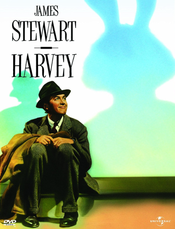
Another reference-point is the James Stewart classic Harvey, about a man, Elwood, who becomes dependent on his invisible friend, who happens to be a 6-foot-tall humanoid rabbit. In his case Elwood said he recognized thet he could either be smart or nice (the apparent point being thet ignorance is bliss, and he was too smart to be that happy), and so he developed an imaginary friend who encouraged him to drink martinis and be incredibly nice to everyone. He stopped cynically over-thinking everything and had a drink instead, thus he became a very beloved person in his town. Everyone knew him as the nicest guy in the world, and tolerated his continual drunken conversations with his invisible companion.
His sister was a drama-queen Leo who was forever on the verge of tears over her social standing, which was almost daily shaken by her brother's apparent mental illness which would freak-out her friends. She became so stressed out thet she started seeing Harvey too.
At this point she decides to have her brother committed. But once the shrink gets to know Ellwood and his case, the shrink also starts to see Harvey.
A cure is introduced, an injection of chemicals thet will shock Elwood back into reality, but once it is discovered thet he will go back to being his original too-smart-to-be-happy self, his sister withdraws her permission for treatment, and they all go back to their old life of living with Harvey and the social consequences he provokes (both good and bad).
So this is very much like the story of Lars and Bianca, wherein once people come to understand the reason Lars needs Bianca, they start to see thet they need a Bianca too.
For me it is my Faerie lover. Since all women are immature, stupid, lunatic, perverts, who never say what they mean, and make a big stupid game out of everything, I pretend (strictly as a masturbation fantasy) I have a non-human girlfriend. She requires to be touched as if she has Sensory Processing Disorders; i.e., we have intercourse, slow and gentle, with her on top, and she likes me to pet her wings in a very specific way, but does not want me to touch her any place else.
This is very symbolic of what sex is like for Autistics, our Autistic/Faerie aspects being the main thing lovers have to interact with, for we are otherwise having difficulty maintaining spacial location, and the Processing Disorders trigger the wrong responses (see the Aspergirl in (A) Sexual actually throwing-up if someone touched her genitals, and Fluttershy in My Little Pony having a petrifying panic-attack when a falling leaf touched her back). You must touch the part of us the Normals do not have, but do not touch the part of us the Normals do have; i.e., we like to have our wings stroked in a very specific way, but do not touch us any place else because it freaks us out (though we still want sex).
I recognize thet in order for me to touch and be touched properly, I must have a non-human Faerie lover. Elwood recognized thet to be the nice guy he wanted to be, he had to have non-human friend Harvey as a constant influence. Lars recognized thet in order to accept himself as broken, he needed to have (and publicly display) non-human Bianca. Aspergirl recognized thet in order to have a boyfriend he too had to be totally a-sexual. Mark Hogancamp recognized thet in order to interact with (a) society, he had to create his own non-human doll town. And the Aspie woman in Loving Lampposts was apparently in love with her refrigerator. Also see In The Realms of the Unreal, wherein Asperger Henry Darger had no interaction with any people at all, while writing literally the world's longest book about his spectacular fantasy life (which included Faerie girls).
I have barely scratched the surface of this subject.
Also see my Autism Lecture #15 called Surrogates. Part II.
-------------------------------------------------------------------------------------------------------------------------------
His sister was a drama-queen Leo who was forever on the verge of tears over her social standing, which was almost daily shaken by her brother's apparent mental illness which would freak-out her friends. She became so stressed out thet she started seeing Harvey too.
At this point she decides to have her brother committed. But once the shrink gets to know Ellwood and his case, the shrink also starts to see Harvey.
A cure is introduced, an injection of chemicals thet will shock Elwood back into reality, but once it is discovered thet he will go back to being his original too-smart-to-be-happy self, his sister withdraws her permission for treatment, and they all go back to their old life of living with Harvey and the social consequences he provokes (both good and bad).
So this is very much like the story of Lars and Bianca, wherein once people come to understand the reason Lars needs Bianca, they start to see thet they need a Bianca too.
For me it is my Faerie lover. Since all women are immature, stupid, lunatic, perverts, who never say what they mean, and make a big stupid game out of everything, I pretend (strictly as a masturbation fantasy) I have a non-human girlfriend. She requires to be touched as if she has Sensory Processing Disorders; i.e., we have intercourse, slow and gentle, with her on top, and she likes me to pet her wings in a very specific way, but does not want me to touch her any place else.
This is very symbolic of what sex is like for Autistics, our Autistic/Faerie aspects being the main thing lovers have to interact with, for we are otherwise having difficulty maintaining spacial location, and the Processing Disorders trigger the wrong responses (see the Aspergirl in (A) Sexual actually throwing-up if someone touched her genitals, and Fluttershy in My Little Pony having a petrifying panic-attack when a falling leaf touched her back). You must touch the part of us the Normals do not have, but do not touch the part of us the Normals do have; i.e., we like to have our wings stroked in a very specific way, but do not touch us any place else because it freaks us out (though we still want sex).
I recognize thet in order for me to touch and be touched properly, I must have a non-human Faerie lover. Elwood recognized thet to be the nice guy he wanted to be, he had to have non-human friend Harvey as a constant influence. Lars recognized thet in order to accept himself as broken, he needed to have (and publicly display) non-human Bianca. Aspergirl recognized thet in order to have a boyfriend he too had to be totally a-sexual. Mark Hogancamp recognized thet in order to interact with (a) society, he had to create his own non-human doll town. And the Aspie woman in Loving Lampposts was apparently in love with her refrigerator. Also see In The Realms of the Unreal, wherein Asperger Henry Darger had no interaction with any people at all, while writing literally the world's longest book about his spectacular fantasy life (which included Faerie girls).
I have barely scratched the surface of this subject.
Also see my Autism Lecture #15 called Surrogates. Part II.
-------------------------------------------------------------------------------------------------------------------------------
Law and Order: Criminal Intent. Season 2. Episode 14. Probability.
An excellent presentation of what Aspergers is really like (for these 4 Aspies).
The plot is about a massive international insurance fraud, wherein someone sets up fake companies in France, and then hires homeless people in the USA to pose as executives in those companies, so the companies can buy 1 million dollar insurance policies on them. Then they have these homeless people killed, each murder set up to look like a freak accident, so the fake companies can collect the insurance money. They all work - 15 times!
The French chick set up the fake companies; the black guy hired and then killed the fake executives; and the insurance-adjuster disposed of the bodies, in ways thet the insurance companies would believe were accidents.
The last fake executive/homeless guy to be killed was an Asperger. The only job he was able to keep was as a professional guinea-pig for pharmaceutical companies' drug-tests.
The insurance adjuster also has a bad case of AS, but he does not know it.
In the course of the investigation, the cops recognize the insurance adjuster's gift for pattern-recognition, his constant anxiety, and extreme social awkwardness. They wonder what exactly is wrong with him, do some research, and come to the conclusion he has AS.
From this they finally notice the only thing all the victims had in common was the patterns in the times of day and the places the bodies were dumped.
They thus suspect the insurance adjuster may be involved with these killings, go take a look at his office, residing in the basement facing a blank wall.
Talking to his boss, who is happy to accommodate him by allowing him to keep his office in the basement, they hear more about his extreme social awkwardness, but genius at keeping track of insurance records.
The cops also notice thet his office is filled with obsessive patterns of 5.
They study the map of where the bodies were found, and realize the bodies were dumped in a series of patterns of 5.
Being an Aspie map-nut myself, I was entertained by this aspect of the plot.
The police discover thet this (unusually un-ethical) Aspie is the double-crosser who killed the black guy and stole all the insurance money from their last kill in order to try to get his wife back.
She left him because he was not able to maintain any sort of relationship. He believed she left him for someone richer, not someone more socially competent. Thus he gets involved with this colossal scam to try to buy her back; i.e., he is so painfully socially clueless.
Both of these Aspies were presented very realistically: the homeless guy/fake executive was merely deer-in-headlights gullible. The insurance-adjuster had a severe case, including tremendous anxiety and obsessiveness.
The insurance-adjuster's brother was also a possible Aspie, with fixated subject, anxiety, and obsessive behavior.
Of course the lead police investigator has had a possible mild case of AS for several seasons of this show. When he and his partner first meet the insurance-adjuster, the partner turns to the investigator and says, "At last I meet your older, geeky-er brother." After the lead investigator looks up the symptoms Asperger's Syndrome, he starts to recognize them in himself.
The tragic ending is when the cops present the insurance adjuster with a print-out of the symptoms of AS. He reads it, has an anxiety attack, and says, "Why didn't someone tell me!"
In the final scene the cop says about the convicted insurance-adjuster, "I bet he would like a pen-pal." That line really hit home for me, in thet I only have relationships with words, thus my only "friends" are pen-pals.
4 different Aspies accurately presented. Good show.
-------------------------------------------------------------------------------------------------------------------------------
An excellent presentation of what Aspergers is really like (for these 4 Aspies).
The plot is about a massive international insurance fraud, wherein someone sets up fake companies in France, and then hires homeless people in the USA to pose as executives in those companies, so the companies can buy 1 million dollar insurance policies on them. Then they have these homeless people killed, each murder set up to look like a freak accident, so the fake companies can collect the insurance money. They all work - 15 times!
The French chick set up the fake companies; the black guy hired and then killed the fake executives; and the insurance-adjuster disposed of the bodies, in ways thet the insurance companies would believe were accidents.
The last fake executive/homeless guy to be killed was an Asperger. The only job he was able to keep was as a professional guinea-pig for pharmaceutical companies' drug-tests.
The insurance adjuster also has a bad case of AS, but he does not know it.
In the course of the investigation, the cops recognize the insurance adjuster's gift for pattern-recognition, his constant anxiety, and extreme social awkwardness. They wonder what exactly is wrong with him, do some research, and come to the conclusion he has AS.
From this they finally notice the only thing all the victims had in common was the patterns in the times of day and the places the bodies were dumped.
They thus suspect the insurance adjuster may be involved with these killings, go take a look at his office, residing in the basement facing a blank wall.
Talking to his boss, who is happy to accommodate him by allowing him to keep his office in the basement, they hear more about his extreme social awkwardness, but genius at keeping track of insurance records.
The cops also notice thet his office is filled with obsessive patterns of 5.
They study the map of where the bodies were found, and realize the bodies were dumped in a series of patterns of 5.
Being an Aspie map-nut myself, I was entertained by this aspect of the plot.
The police discover thet this (unusually un-ethical) Aspie is the double-crosser who killed the black guy and stole all the insurance money from their last kill in order to try to get his wife back.
She left him because he was not able to maintain any sort of relationship. He believed she left him for someone richer, not someone more socially competent. Thus he gets involved with this colossal scam to try to buy her back; i.e., he is so painfully socially clueless.
Both of these Aspies were presented very realistically: the homeless guy/fake executive was merely deer-in-headlights gullible. The insurance-adjuster had a severe case, including tremendous anxiety and obsessiveness.
The insurance-adjuster's brother was also a possible Aspie, with fixated subject, anxiety, and obsessive behavior.
Of course the lead police investigator has had a possible mild case of AS for several seasons of this show. When he and his partner first meet the insurance-adjuster, the partner turns to the investigator and says, "At last I meet your older, geeky-er brother." After the lead investigator looks up the symptoms Asperger's Syndrome, he starts to recognize them in himself.
The tragic ending is when the cops present the insurance adjuster with a print-out of the symptoms of AS. He reads it, has an anxiety attack, and says, "Why didn't someone tell me!"
In the final scene the cop says about the convicted insurance-adjuster, "I bet he would like a pen-pal." That line really hit home for me, in thet I only have relationships with words, thus my only "friends" are pen-pals.
4 different Aspies accurately presented. Good show.
-------------------------------------------------------------------------------------------------------------------------------
This 2 hour 32 minute documentary presents the history of vaccinations and their effects. It is a very comprehensive presentation, the best I have ever seen on the subject, and I declare it is the most important thing for you to watch thet is mentioned on my site. It covers the history of every vaccination program in recorded history, including: The Spanish Flu epidemic of 1812, which was caused entirely by the vaccines designed to prevent it; the Salk Polio vaccine, which absolutely caused the Polio epidemic; Gulf War Syndrome, which resulted in vaccinated soldiers producing offspring with horrific malformities; and positive proof thet vaccines cause Autism and Alzheimers. It backs up these statements of fact with the actual documents thet are on public record quoting established law in the USA. These documents openly label humans as animals, and animals as pests.
We see interviews with the scientists directly involved in resurrecting the extinct Spanish Flu for use in the intentional creation of the H1N1 (fake) flu "Pandemic."
It shows how W Bush signed into law (by Executive Order) mandatory vaccination laws "in case of emergency", and the total immunity from prosecution of the manufacturers of these vaccines. It presents more (alternately hair-raising and jaw-dropping) documentation explaining in detail exactly what the law says pertaining to "precautionary measures" thet can be taken under Marshal Law to "protect" "National Security" (including mass vaccinations and even sterilizations, etc).
The last half hour of this documentary is about the Abortion Industry (a whole other documentary in it's self), and how some vaccines are made with cells from aborted fetuses. The actual subject of Abortion is not necessarily the point (at least to me); the point is thet Roe vs Wade was used by corrupt government officials to make fetus cells more readily available for use by American Big Pharma (who previously had to import them from Sweden), and how the resulting assembly-line abortions were done with Big Pharma's surgeons on hand to immediately remove the assorted organs and ship them directly to the pharmaceutical labs for use in vaccine production. The main point being thet the way these corporations (and their puppet government) regard human life is less than how they even regard a guinea pig.
-------------------------------------------------------------------------------------------------------------------------------
We see interviews with the scientists directly involved in resurrecting the extinct Spanish Flu for use in the intentional creation of the H1N1 (fake) flu "Pandemic."
It shows how W Bush signed into law (by Executive Order) mandatory vaccination laws "in case of emergency", and the total immunity from prosecution of the manufacturers of these vaccines. It presents more (alternately hair-raising and jaw-dropping) documentation explaining in detail exactly what the law says pertaining to "precautionary measures" thet can be taken under Marshal Law to "protect" "National Security" (including mass vaccinations and even sterilizations, etc).
The last half hour of this documentary is about the Abortion Industry (a whole other documentary in it's self), and how some vaccines are made with cells from aborted fetuses. The actual subject of Abortion is not necessarily the point (at least to me); the point is thet Roe vs Wade was used by corrupt government officials to make fetus cells more readily available for use by American Big Pharma (who previously had to import them from Sweden), and how the resulting assembly-line abortions were done with Big Pharma's surgeons on hand to immediately remove the assorted organs and ship them directly to the pharmaceutical labs for use in vaccine production. The main point being thet the way these corporations (and their puppet government) regard human life is less than how they even regard a guinea pig.
-------------------------------------------------------------------------------------------------------------------------------
Owen was a normal kid. Then at the age of 3 he faded away; losing his sleep patterns, then losing speech.
"Specialists" diagnose him as Autistic, but apparently have no clue what to do about it.
The only time he seems to interact with anything is while watching Disney animation movies. Then he watches The Little Mermaid, specifically the scene wherein the villain grants Ariel her wish in exchange for her voice. She says “It will cost you one thing, Just your voice.” Owen then Echolalically repeats Justyourvoice. That was the only thing he had said in a year. The parents assume this means Owen knows he has lost his voice. And they know he is in there.
They take him to the "Specialist" doctor, all excited about him speaking. The useless Doc says it is Echolalia and is just mindless parroting.
Wrong! Echolalia is the child repeating the phrase over and over so they can process it. He is repeating it to instill the meaning.
4 years pass with Owen speaking only apparent gibberish. The parents have given up hope thet he will ever be able to talk normally.
When his older brother Walter has his 11th birthday party, and after all the guests leave, Walter seems very depressed. Owen goes to his parents and says very clearly, “Walter does not want to grow up, like Mogli or Peter Pan.”
The parents are absolutely floored.
They realized he has memorized the entire script to all the Disney movies, and more importantly understands the personal interactions of the characters.
Owen flunks out of the elementary school for disabled kids. So he is home schooled.
Then he starts High School for disabled kids but is of course bullied horribly. A High School specifically for disabled kids allows bullying. WTF.
The bullies tell him they will burn his house down, and Owen believes it. He becomes very paranoid and panicky about the inevitable fires.
He spends his free time in the basement of his parents’ house drawing. Dad discovers the book of drawings. There are hundreds. All of them sidekicks from Disney movies. All Sidekicks. No Heroes.
Owen goes on to write a story about a hero who is the protector of sidekicks.
Owen has a girlfriend his age who is apparently Retarded. I would like to have known her actual diagnosis.
By the apparent age of 20 Owen starts a Disney club, wherein a dozen people his age with assorted learning disorders watch a Disney animated classic and then discus how the characters’ interactions relate to their own.
I said to the screen, Why aren't you Bronies?
So let me talk about that for a moment: The Brony community is probably 3/4 Autistic. Pony Analysis is people analyzing to the micron each episode of My Little Pony. It is the best Autism therapy ever, and I recommend all Autistics acquire My Little Pony as their Fixated Subject.
Twilight, Pinkie, Fluttershy, Maud, and Mudbriar are all Autistic. It is the best Autism show of all time. Three of the main six characters are Autistic, and each episode teaches how to make friends, specifically how these Autistics can make friends. It also includes a Retarded character and a physically disabled character. See my reviews of Brawny Buck and My Little Pony.
Why the Autism Community is not vigorously promoting My Little Pony is beyond me.
Owen’s Disney club serves the same purpose, but no Disney film actually has Autistic characters. My Little Pony has five!
His club attracts the real voice actors from Aladdin. They show up and perform their voice roles from the film, to the delight of all present.
He graduates High School at the age of 26.
His parents get him a condo. His girlfriend moves in upstairs.
With no explanation she dumps him. They are still neighbors, but she pretends he does not exist.
Women.
He watches tragedy scenes from his Disney movies collection.
Owen is invited to be a speaker at an Autism convention in France. His speech is very brief but well-received. It is about Quasimoto, and how he does not get the girl, but he is eventually welcomed into the community.
He tells his ex he still wants to be friends.
He gets a part-time job at a movie theater.
His parents say it is time for him to go fall down and learn without them.
He says he is no longer afraid of growing up.
The End.
He eats Gluten, Casein, Phenol, and Chocolate throughout. He is on Meds but we do not find out which.
He is emotionally immature for his age because he was over-protected, or had education withheld because they thought he was not ready for it. This is the tragedy of being a disabled person.
If I teach you 1 thing with this web-site it is thet Autistics are just as smart as anyone else. They are just smart in a different way. Do not assume anything.
This Documentary was edited totally out of sequence. I have no idea why they do that. I find it annoying. So I have written out the story above in chronological order.
-------------------------------------------------------------------------------------------------------------------------------
"Specialists" diagnose him as Autistic, but apparently have no clue what to do about it.
The only time he seems to interact with anything is while watching Disney animation movies. Then he watches The Little Mermaid, specifically the scene wherein the villain grants Ariel her wish in exchange for her voice. She says “It will cost you one thing, Just your voice.” Owen then Echolalically repeats Justyourvoice. That was the only thing he had said in a year. The parents assume this means Owen knows he has lost his voice. And they know he is in there.
They take him to the "Specialist" doctor, all excited about him speaking. The useless Doc says it is Echolalia and is just mindless parroting.
Wrong! Echolalia is the child repeating the phrase over and over so they can process it. He is repeating it to instill the meaning.
4 years pass with Owen speaking only apparent gibberish. The parents have given up hope thet he will ever be able to talk normally.
When his older brother Walter has his 11th birthday party, and after all the guests leave, Walter seems very depressed. Owen goes to his parents and says very clearly, “Walter does not want to grow up, like Mogli or Peter Pan.”
The parents are absolutely floored.
They realized he has memorized the entire script to all the Disney movies, and more importantly understands the personal interactions of the characters.
Owen flunks out of the elementary school for disabled kids. So he is home schooled.
Then he starts High School for disabled kids but is of course bullied horribly. A High School specifically for disabled kids allows bullying. WTF.
The bullies tell him they will burn his house down, and Owen believes it. He becomes very paranoid and panicky about the inevitable fires.
He spends his free time in the basement of his parents’ house drawing. Dad discovers the book of drawings. There are hundreds. All of them sidekicks from Disney movies. All Sidekicks. No Heroes.
Owen goes on to write a story about a hero who is the protector of sidekicks.
Owen has a girlfriend his age who is apparently Retarded. I would like to have known her actual diagnosis.
By the apparent age of 20 Owen starts a Disney club, wherein a dozen people his age with assorted learning disorders watch a Disney animated classic and then discus how the characters’ interactions relate to their own.
I said to the screen, Why aren't you Bronies?
So let me talk about that for a moment: The Brony community is probably 3/4 Autistic. Pony Analysis is people analyzing to the micron each episode of My Little Pony. It is the best Autism therapy ever, and I recommend all Autistics acquire My Little Pony as their Fixated Subject.
Twilight, Pinkie, Fluttershy, Maud, and Mudbriar are all Autistic. It is the best Autism show of all time. Three of the main six characters are Autistic, and each episode teaches how to make friends, specifically how these Autistics can make friends. It also includes a Retarded character and a physically disabled character. See my reviews of Brawny Buck and My Little Pony.
Why the Autism Community is not vigorously promoting My Little Pony is beyond me.
Owen’s Disney club serves the same purpose, but no Disney film actually has Autistic characters. My Little Pony has five!
His club attracts the real voice actors from Aladdin. They show up and perform their voice roles from the film, to the delight of all present.
He graduates High School at the age of 26.
His parents get him a condo. His girlfriend moves in upstairs.
With no explanation she dumps him. They are still neighbors, but she pretends he does not exist.
Women.
He watches tragedy scenes from his Disney movies collection.
Owen is invited to be a speaker at an Autism convention in France. His speech is very brief but well-received. It is about Quasimoto, and how he does not get the girl, but he is eventually welcomed into the community.
He tells his ex he still wants to be friends.
He gets a part-time job at a movie theater.
His parents say it is time for him to go fall down and learn without them.
He says he is no longer afraid of growing up.
The End.
He eats Gluten, Casein, Phenol, and Chocolate throughout. He is on Meds but we do not find out which.
He is emotionally immature for his age because he was over-protected, or had education withheld because they thought he was not ready for it. This is the tragedy of being a disabled person.
If I teach you 1 thing with this web-site it is thet Autistics are just as smart as anyone else. They are just smart in a different way. Do not assume anything.
This Documentary was edited totally out of sequence. I have no idea why they do that. I find it annoying. So I have written out the story above in chronological order.
-------------------------------------------------------------------------------------------------------------------------------
This was 1 of the funnest movies I have ever seen.
Someone invents a designer-drug thet allows the user to access 100% of their brain's capacity at the same time. The loser drug-addict writer with writer's-block who takes this stuff writes a spectacular book in 3 days. He becomes a squeeky-clean Hyperlexic Aspie with super-human senses and Lateral Thinking. He also develops selective hearing, and the ability to just know how things work.
I am delighted to watch this movie, for it is what it would be like to have all the gifts of Autism without the deficiencies; i.e., this is an example of what an real Indigo would be like if such a thing existed - unfortunately most Indigos are actually just undiagnosed Aspergers, meaning they may have literal super-human senses, but an equal amount of handicaps.
The character in this movie has none of the deficiencies, thus it is giddily exciting to watch.
However, it never mentions, nor even hints, thet this could all be an analogy for Autism.
-------------------------------------------------------------------------------------------------------------------------------
Someone invents a designer-drug thet allows the user to access 100% of their brain's capacity at the same time. The loser drug-addict writer with writer's-block who takes this stuff writes a spectacular book in 3 days. He becomes a squeeky-clean Hyperlexic Aspie with super-human senses and Lateral Thinking. He also develops selective hearing, and the ability to just know how things work.
I am delighted to watch this movie, for it is what it would be like to have all the gifts of Autism without the deficiencies; i.e., this is an example of what an real Indigo would be like if such a thing existed - unfortunately most Indigos are actually just undiagnosed Aspergers, meaning they may have literal super-human senses, but an equal amount of handicaps.
The character in this movie has none of the deficiencies, thus it is giddily exciting to watch.
However, it never mentions, nor even hints, thet this could all be an analogy for Autism.
-------------------------------------------------------------------------------------------------------------------------------
A documentary about an Autistic man, Ian, aged 22. He is also Retarded and has physical limitations thet are apparently not Autism related. He is the clinical definition of Imbecile, meaning a person who can only communicate in 1-word sentances. He is unable to bathe or dress himself, so sub-titling this as “Living With Autism” is not entirely accurate. Autism is about 1/3 of his problem.
He eats chicken nuggets, milkshakes, and cola.
It says “Autism is not an illness or disease, and cannot be cured.” Wrong! Neurological Autism is a brain malformity thet cannot be surgically repaired. But Intestinal Autism, caused by vaccines, is a physical injury thet can be healed and thus recovered from.
No mention of causes nor cures. No therapies being applied. Just the camera running at random while assorted people talk about their daily life interacting with this disabled person.
Really boring and pointless throughout.
It ends by saying Autism is a Spectrum, meaning it manifests differently from person to person.
Why do people make new Autism documentaries thet do not say anything we have not already heard a dozen times before? And why bother making 1 this boring thet says practically nothing at all?
------------------------------------------------------------------------------------------------------------------------------
He eats chicken nuggets, milkshakes, and cola.
It says “Autism is not an illness or disease, and cannot be cured.” Wrong! Neurological Autism is a brain malformity thet cannot be surgically repaired. But Intestinal Autism, caused by vaccines, is a physical injury thet can be healed and thus recovered from.
No mention of causes nor cures. No therapies being applied. Just the camera running at random while assorted people talk about their daily life interacting with this disabled person.
Really boring and pointless throughout.
It ends by saying Autism is a Spectrum, meaning it manifests differently from person to person.
Why do people make new Autism documentaries thet do not say anything we have not already heard a dozen times before? And why bother making 1 this boring thet says practically nothing at all?
------------------------------------------------------------------------------------------------------------------------------
This is the story of a family struggling to maintain their love for each other with a severely Autistic child in the mix.
Dad is apparently an Aspie (he has to re-watch films he has made to see if his memories are correct) and a professional cameraman/filmmaker.
They have twins; a boy and a girl. The boy develops severe Autism, and the girl remains normal.
The boy demands 110% of the parents’ attention, thus the girl feels neglected.
The parents cannot be married and this stressed of parents at the same time. Eventually they get divorced. There is apparently not much anger in that.
Mom gets re-married, and dad continues loving being alone with his camera.
Dad takes the son for the 3 months of summer in Canada, while Mom and her new husband take him for the 9 months of school in California.
The focus becomes on the daughter and the resentment she feels toward her father for never being there for her. She understands thet her brother demanded all of dad’s attention, but that does not make her feel any less neglected, thus resentful.
This documentary ends with the kids now 21 years old, and all five of them in a group hug, apparently making peace with their whole history together.
This was more about the emotional journey they all went through for 21 years, rather than the Autism it’s self.
-------------------------------------------------------------------------------------------------------------------------------
Dad is apparently an Aspie (he has to re-watch films he has made to see if his memories are correct) and a professional cameraman/filmmaker.
They have twins; a boy and a girl. The boy develops severe Autism, and the girl remains normal.
The boy demands 110% of the parents’ attention, thus the girl feels neglected.
The parents cannot be married and this stressed of parents at the same time. Eventually they get divorced. There is apparently not much anger in that.
Mom gets re-married, and dad continues loving being alone with his camera.
Dad takes the son for the 3 months of summer in Canada, while Mom and her new husband take him for the 9 months of school in California.
The focus becomes on the daughter and the resentment she feels toward her father for never being there for her. She understands thet her brother demanded all of dad’s attention, but that does not make her feel any less neglected, thus resentful.
This documentary ends with the kids now 21 years old, and all five of them in a group hug, apparently making peace with their whole history together.
This was more about the emotional journey they all went through for 21 years, rather than the Autism it’s self.
-------------------------------------------------------------------------------------------------------------------------------

This is the best modern-day documentary about Autism I have seen yet. A superb presentation with so many experts, parents of Autistic kids, Autistic adults, and even a few morons who did not know what they were talking about, thus giving us so many perspectives, it came across like my own zines, famous for their show-not-tell presentations of information.
It even mentioned thet a common expression in the Autism community is thet "If you have met one Autistic, you have met one Autistic." This was probably the main point of the documentary, thus supporting Neuro-diversity.
It also showed how fast industry jumped on the bandwagon, producing nutritional supplements, medical devices, and therapies specifically for Autistics. This is both bad (Capitalists cashing-in on the Autism fad) and good (many of these products do in fact greatly alleviate Autism symptoms).
It also suggested thet the recent explosion in Autism was partly a good thing, because it forced us to confront something thet has been with us throughout history but previously ignored. Today many older people, like myself, are getting diagnosed (at last) and helped because of the quantity of new cases today forcing the issue.
The above-mentioned "Autism fad" aspects also help many people who do not even have Autism, realizing thet a Gluten and Casein-free diet is good for everyone. The local health-food store has orange labels on many products stating "Gluten Free", for all the people with Leaky Gut Syndrome, Celiac, Colitis, Crohn's, etc, thet do not necessarily have Autism; i.e., the GF/CF Diet was invented for Autistics, and now can be applied to alleviate many other ailments. Thus we have become so much more educated about diet and nutrition for all people just because 1 in 110 have Autism. One expert very accurately said, "Autism is a symptom of a systematic problem thet also affects the brain, causing Autism - it is not just a neurological disorder."
It also made fun of the lap-dog press who make a sensationalization out of everything without actually giving a damn. "The mid-stream press" were so utterly dismissed by the makers of this documentary, even though they showed thet the press were at least mentioning Autism, the sequence lasted maybe 10 seconds out of this 1:23 film.
They also never wasted their and our time interviewing any useless and corrupted medical doctors; except for 1 who had an Autistic child. Her being the parent of an Autistic was the point of her commentary, and she never mentioned the medical profession herself.
I especially liked the interviews with the non-verbal Autistic adults, who typed into their computers what they wanted to say, and the computer spoke for them. They were like me, excellent writers, though horrible speakers (in their cases they could hardly speak at all). Sharisa was totally non-verbal, took forever to type out what she wanted to say, but had several college degrees!
"I see most of the professionals in the field and schools presuming incompetence. You are a perfect example of why we should presume competence. Can you comment on that?"
Sharisa (in her pink Irlen lenses) responds: "They are incompetent, and are deeply in need of reality and sensitivity training."
Then her father elaborates, "Her doctor said. 'We need to cure people with Autism'; and she said, 'You cure hams - you treat people.' Then he was referring to it as 'The disease of Autism'; and she said, 'I do not have a disease. I have disabilities thet cause un-ease, especially in people like you.'
Between 13 and 15 they moved her out of 'Profoundly Retarded' classes, because she tested at a genius-level IQ."
Sharisa explains: "In the years thet followed learning how to communicate, I fought my way out of Special schools and into Jr Hi-school at age 15, Hi-school at 16, an Associate's Degree in Humanities and Social Science at 19, and a dual Batchelor's Degree in Sociology and Psychology at 23."
"Her college labeled 3 out of 3,000 students as Role Models, and she was 1 of the 3."
Totally non-verbal, "No one would call Sharisa 'recovered,' but she is not sick either."
The very close relationship between Sharisa and her father was inspiring to behold; she leaned into him, holding his hand with fingers intertwined.
Then it goes into a long discussion of whether or not Vaccines cause Autism. Vaccines cause Autism (period) in some people - me for example, because I inherited the hyper-sensitivity from my Autistic father, thus resulting in me being practically destroyed by vaccines. Vaccines can be relatively harmless to others (though never of any actual value).
They also discussed whether Mercury causes Autism. Mercury poisoning has the same symptoms as Autism (period), but some people seem to be able to tolerate toxic levels without effect, while others are destroyed by very small amounts. Once again, this is probably because they were genetically predisposed to be hyper-sensitive.
The fact remains thet most vaccines have Mercury and Formaldehyde in them, both of which are known to be poisonous toxins. Forget the diseases in the vaccines - why the hell are we injecting little kids with Mercury and Formaldehyde!
It also presents us with the fact thet many Autistics can emotionally attach to inanimate objects, as if they had a soul. One had a 1950s refrigerator as her (boy) friend, and she also emotionally attached to a steam locomotive, referring to it as a pet.
There was another Autistic adult who was clearly very retarded, but he was able to live alone in his own apartment wherein he made dinner plates to sell. He made enough money selling his plates to allow him the pleasure of helicopter rides around the city every week for a few years - helicopters being his Fixated Subject. The point being thet though he was Autistic and retarded, he still had a rich and fulfilling life.
He was born in 1951 when the medical "profession" (snicker) blamed all (refrigerator) mothers for all cases of Autism. His mom was smart enough to tell them all to fuck directly off, and today she is a relative-expert on Autism.
This documentary is titled after the film-maker's own child who is a Little Professor Aspie kid fixated on lampposts.
This documentary is 1 I can watch over and over again, simply because of how well it was made (no matter the subject).
My only complaint was the irritating extreme close-ups of people's faces, cutting off their body language and hand gestures. As with most documentaries, I yelled at the screen several times to "Back off with the camera!" Why do they do that?
Otherwise superb and highly-recommended.
I watched it a second time, and came up with this:
I hate Mimes. They seem like annoying momma's boys: "My mommy always made me the center of attention, so now I am going to show off in public to get attention, without expressing any intelligence whatsoever through language usage." They are just so annoying and moronic to me.
But maybe that is the point - I am Hyperlexic, while hardly visual at all. I need to have the sound sync with the picture or I cannot be bothered to notice the picture; e.g., pornography is utterly pointless and boring to me because they are not talking.
Of course, the Mime in this documentary was Autistic, he thought in pictures not words, thus as a "performance artist" he naturally became a Mime.
I became a musician and a writer because I am so very audio and literary, while having difficulty remembering, or even processing, anything I see.
2 of the adult Autistics in this film were non-verbal. Both were clearly very intelligent. 1 of them explained thet talking was nearly impossible for her because she thought only in pictures and thus had to try very hard to translate those pictures into words. It was so difficult, most people would become too frustrated with her and just give up. But once she learned to talk with her computer voice-program it became obvious thet she is very intelligent, with superb vocabulary and eloquence.
-------------------------------------------------------------------------------------------------------------------------------
It even mentioned thet a common expression in the Autism community is thet "If you have met one Autistic, you have met one Autistic." This was probably the main point of the documentary, thus supporting Neuro-diversity.
It also showed how fast industry jumped on the bandwagon, producing nutritional supplements, medical devices, and therapies specifically for Autistics. This is both bad (Capitalists cashing-in on the Autism fad) and good (many of these products do in fact greatly alleviate Autism symptoms).
It also suggested thet the recent explosion in Autism was partly a good thing, because it forced us to confront something thet has been with us throughout history but previously ignored. Today many older people, like myself, are getting diagnosed (at last) and helped because of the quantity of new cases today forcing the issue.
The above-mentioned "Autism fad" aspects also help many people who do not even have Autism, realizing thet a Gluten and Casein-free diet is good for everyone. The local health-food store has orange labels on many products stating "Gluten Free", for all the people with Leaky Gut Syndrome, Celiac, Colitis, Crohn's, etc, thet do not necessarily have Autism; i.e., the GF/CF Diet was invented for Autistics, and now can be applied to alleviate many other ailments. Thus we have become so much more educated about diet and nutrition for all people just because 1 in 110 have Autism. One expert very accurately said, "Autism is a symptom of a systematic problem thet also affects the brain, causing Autism - it is not just a neurological disorder."
It also made fun of the lap-dog press who make a sensationalization out of everything without actually giving a damn. "The mid-stream press" were so utterly dismissed by the makers of this documentary, even though they showed thet the press were at least mentioning Autism, the sequence lasted maybe 10 seconds out of this 1:23 film.
They also never wasted their and our time interviewing any useless and corrupted medical doctors; except for 1 who had an Autistic child. Her being the parent of an Autistic was the point of her commentary, and she never mentioned the medical profession herself.
I especially liked the interviews with the non-verbal Autistic adults, who typed into their computers what they wanted to say, and the computer spoke for them. They were like me, excellent writers, though horrible speakers (in their cases they could hardly speak at all). Sharisa was totally non-verbal, took forever to type out what she wanted to say, but had several college degrees!
"I see most of the professionals in the field and schools presuming incompetence. You are a perfect example of why we should presume competence. Can you comment on that?"
Sharisa (in her pink Irlen lenses) responds: "They are incompetent, and are deeply in need of reality and sensitivity training."
Then her father elaborates, "Her doctor said. 'We need to cure people with Autism'; and she said, 'You cure hams - you treat people.' Then he was referring to it as 'The disease of Autism'; and she said, 'I do not have a disease. I have disabilities thet cause un-ease, especially in people like you.'
Between 13 and 15 they moved her out of 'Profoundly Retarded' classes, because she tested at a genius-level IQ."
Sharisa explains: "In the years thet followed learning how to communicate, I fought my way out of Special schools and into Jr Hi-school at age 15, Hi-school at 16, an Associate's Degree in Humanities and Social Science at 19, and a dual Batchelor's Degree in Sociology and Psychology at 23."
"Her college labeled 3 out of 3,000 students as Role Models, and she was 1 of the 3."
Totally non-verbal, "No one would call Sharisa 'recovered,' but she is not sick either."
The very close relationship between Sharisa and her father was inspiring to behold; she leaned into him, holding his hand with fingers intertwined.
Then it goes into a long discussion of whether or not Vaccines cause Autism. Vaccines cause Autism (period) in some people - me for example, because I inherited the hyper-sensitivity from my Autistic father, thus resulting in me being practically destroyed by vaccines. Vaccines can be relatively harmless to others (though never of any actual value).
They also discussed whether Mercury causes Autism. Mercury poisoning has the same symptoms as Autism (period), but some people seem to be able to tolerate toxic levels without effect, while others are destroyed by very small amounts. Once again, this is probably because they were genetically predisposed to be hyper-sensitive.
The fact remains thet most vaccines have Mercury and Formaldehyde in them, both of which are known to be poisonous toxins. Forget the diseases in the vaccines - why the hell are we injecting little kids with Mercury and Formaldehyde!
It also presents us with the fact thet many Autistics can emotionally attach to inanimate objects, as if they had a soul. One had a 1950s refrigerator as her (boy) friend, and she also emotionally attached to a steam locomotive, referring to it as a pet.
There was another Autistic adult who was clearly very retarded, but he was able to live alone in his own apartment wherein he made dinner plates to sell. He made enough money selling his plates to allow him the pleasure of helicopter rides around the city every week for a few years - helicopters being his Fixated Subject. The point being thet though he was Autistic and retarded, he still had a rich and fulfilling life.
He was born in 1951 when the medical "profession" (snicker) blamed all (refrigerator) mothers for all cases of Autism. His mom was smart enough to tell them all to fuck directly off, and today she is a relative-expert on Autism.
This documentary is titled after the film-maker's own child who is a Little Professor Aspie kid fixated on lampposts.
This documentary is 1 I can watch over and over again, simply because of how well it was made (no matter the subject).
My only complaint was the irritating extreme close-ups of people's faces, cutting off their body language and hand gestures. As with most documentaries, I yelled at the screen several times to "Back off with the camera!" Why do they do that?
Otherwise superb and highly-recommended.
I watched it a second time, and came up with this:
I hate Mimes. They seem like annoying momma's boys: "My mommy always made me the center of attention, so now I am going to show off in public to get attention, without expressing any intelligence whatsoever through language usage." They are just so annoying and moronic to me.
But maybe that is the point - I am Hyperlexic, while hardly visual at all. I need to have the sound sync with the picture or I cannot be bothered to notice the picture; e.g., pornography is utterly pointless and boring to me because they are not talking.
Of course, the Mime in this documentary was Autistic, he thought in pictures not words, thus as a "performance artist" he naturally became a Mime.
I became a musician and a writer because I am so very audio and literary, while having difficulty remembering, or even processing, anything I see.
2 of the adult Autistics in this film were non-verbal. Both were clearly very intelligent. 1 of them explained thet talking was nearly impossible for her because she thought only in pictures and thus had to try very hard to translate those pictures into words. It was so difficult, most people would become too frustrated with her and just give up. But once she learned to talk with her computer voice-program it became obvious thet she is very intelligent, with superb vocabulary and eloquence.
-------------------------------------------------------------------------------------------------------------------------------
This is the story of Vincent Van Gogh; the genius artist often referred to as a possible fellow Aspie.
This role was played superbly by the wonderful Kirk Douglas in his prime.
I had no illusion thet Vincent was actually an Aspie; I had assumed he was Bi-polar Disorder or Manic Depressive. But as I watch this telling of his life story, I can see many Aspergian traits in him - some painfully obvious.
The opening scene is of Vincent in Belgium applying for the Ministry, but the committee concludes:
1: "Are you sure he is quite hopeless?"
2: "Never in my life have I come across a case quite like this. He is completely unable to speak extemporarily. He prepares long and obscure sermons which he is unable to memorize, and he has to read like a stumbling and in-articulate child. Now, gentlemen, can we send that sort of man into the field to represent our society?"
Vincent begs and pleads for them to allow him to do something to help the less fortunate, so they send him to the most destitute part of the country. Once there he gives very idealistic sermons about being "meek and simple of heart, and be fed with the bread thet does not perish, The Word."
The burned-out congregation dismisses him, so he asks to work with them in the mines, where he witnesses child-laborers. He is horrified, and so he gives all his clothing and possessions to the poor, and visits families in their homes, where he takes great delight in interacting with the children (too small to work in the mines).
Then another now-routine mine accident kills and maims another dozen workers, many of them kids. Vincent is over-whelmed.
True Believer Vincent then receives and "inspection" from The Church. They waggle a finger about how him living destitute like the commoners he is there to serve is defiling the dignity of The Church. They want him to parade about in pomposity, while he has already given away all his possessions to the poor, like the True Christian he is. The inspectors are appalled, so he roars at them about what hypocrites they are. They fire him.
Trapped in destitution, a year passes.
Then he gets a visit from his brother Theo, who arrives from Paris wearing a fine suit.
Their conversation culminates with Vincent saying: "To be of use. To work. To bring something to the world. You have found what you want in Paris, and I am glad for you. I have found nothing, anywhere. I have made 1 bad start after another; 1 mess after another. I thought I was on my way here, but doing God's work - that was the worst failure of all. But no matter how often I fail I know there is something in me, thet I am good for something."
Theo tells him he has become an idler. So Vincent says, "There are 2 kinds of idlers; 1 out of laziness, the other in spite of himself. I want nothing but to work, only I cannot. I am in a cage of shame and self-doubt and failure - somebody believe me. I am caged and I am alone and frightened."
So Theo tells him to "Come to me. Do not cut yourself off from me again."
Vincent moves to Holland, where he becomes fixated on his drawing, seeing it as a way for him to do some form of work thet works for him. He keeps well in touch with Theo through letters (the original text of which becomes the narration to this movie).
In Holland he lives with his parents and younger siblings.
Then cousin Kay comes for a visit. Vincent adores her, and is painfully awkward being Pragmatic Language Disorder honest with her, casually mentioning the death of her husband as a point of reference for time, oblivious thet the whole family are horrified he mentioned it at the dinner table. Kay becomes disturbed the the mention of her husband's death, and no-empathy Vincent dismisses her reaction as being "unnatural to grieve that long."
His father lectures him about keeping up appearances, and Vincent says, "I act out of my beliefs, not because I want to please the village."
He cultivates his fixation into pretty good art, and with Kay as his Muse he says, "There is so much to learn - not only about drawing, but about people - how they feel and think." This scene painfully escalates into him revealing his actual obsession with Kay, nearly attacking her in desperation over his loneliness, declaring thet he wants to marry her and adopt her child. She freaks-out and runs away, horrified.
Later he goes to visit her and explain himself, but her parents greet him with: "Well Vincent. I see now what people say when they complain about your bad manners. Don't you understand what it meant when Kay returned your letters unopened? Why must you persist in the face of everything? Try to be reasonable, Vincent!" He declares thet he will only talk to Kay as long as he can hold his hand in the fire, and proceeds to roast himself. So they finally reveal thet Kay is actually disgusted by Vincent-the-freak. This hurts him deeply, and he leaves.
He goes to a bar where he meets a destitute alcoholic single mom who offers to dress his burned hand. Her offering to help him while she is in worse shape than he is impresses the remains of his Christian principles, and so he goes home with her. They hit it off, and he ends up staying with her, and they even come to love each other as a couple.
Happy in love, he goes to visit his successful painter cousin who is impressed by Vincent's potential. The cousin gives Vincent paint for the first time, along with tremendous encouragement.
Truly in love with his girlfriend and adoring her baby, Vincent again has Muses galore.
Unfortunately he never sells any of his paintings, so after 6 months of this, she becomes exasperated in poverty and decides she was better off as a single mom living with her (apparently abusive) mother where she at least had something to eat. They have a fight, and he is again stuck feeling like a failure.
Then Vincent's father has a stroke and dies, so Theo asks him to come home. At the train-station Vincent's girlfriend tells him she will not be there when he gets back. They are both nearly in tears as she says he was the only person who was ever good to her, and thet she admired him for treating her baby as his own, but "You will get over us. It will not be hard."
Theo tells Vincent thet he is not the only one who is lonely, and to come live with him in Paris, but Vincent declines the invitation, declaring thet he must stay in Holland where his roots are for the sake of his painting.
In his next letter to Theo he says the Dutch Masters never drew people laboring because work is so hard to draw. This becomes Vincent's main subject for his paintings.
Meanwhile the villagers are scandalized by his failure to keep up appearances, gossiping about how they feel sorry for his family because he wears what he is comfortable in; in this case, a grubby sheep-skin vest.
He becomes fascinated with painting gestures rather than hands, and expressions rather than faces. Possibly he had not noticed expressions and gestures until he started painting them.
This movie also wonderfully interjects Vincent's paintings during the narrations from his letters, visually demonstrating with his actual paintings the things he is talking about in his actual letters.
Eventually his tightly-corsetted younger sister tells him thet his eccentric presence is negatively affecting their social standing, and so he decides to move on, to Paris with Theo.
Once there he comes face-to-face with Impressionism, which he is greatly inspired by, even though the critics and the public hate it. 1 critic shouts, "Condone Anarchism in the arts, and you seal the doom of France!"
Meanwhile Vincent meets Paul Gauguin, who praises his painting as "being honest", and encourages him to move to Britain.
Theo hardly gets any sleep for 6 months, due to Vincent's inability to grasp the concept of time, while obsessively paining all night long, and arguing to Theo (who is an art-dealer) thet if he cannot sell his paintings he should quit working for the art gallery he is at, and open his own shop, and "Why waste your time on idiots like your boss!" Theo tells him to stop telling him how to run his life, and stop insulting his guests, and stop being so abrupt, and stop being such a social retard, and stop ...
So Vincent moves to Ireland, where to his delight he finds the cherry groves are in bloom. Again he has a new Muse.
He produces so many paintings thet they spill out of his cheap apartment onto the landing, to the great irritation of his landlord. Unable to understand why anyone would be irritated by his inability to recognize boundaries of personal space, Vincent moves out.
He gets the famous yellow house, wherein he becomes tremendously more obsessive. Writing to Theo: "It absorbs me so much thet I let myself go, never thinking of a single rule. I have no doubts, no limitations. I am working like a steam-engine, burning up paints, devouring canvases. Whole days go by without me speaking to anyone. And every day my concentration becomes more intense, my hand more sure, I have a power of color in me I never had before."
Then the Irish winter comes and keeps him indoors where he goes stir-crazy, and starts to drink Absinth.
"I must watch out for my nerves - I am getting haggard, I know. If I go on this way, some day or other there may be a crisis. But I cannot stop. Sometimes I work on into the night - I am hardly conscious of myself any more, and the pictures come to me as in a dream, with a terrible lucidity."
Then Theo gets married. This makes Vincent recognize he can no longer depend on his brother to such extent, and for the first time in his life gracefully bows out of Theo's life for the sake of his new wife. Theo in turn pays Paul Gauguin to go visit Vincent - "The only person Gauguin never attacked."
Throughout this whole movie, there are very few scenes wherein grubby Vincent does not have his shirt buttoned crooked and his hair standing up - see Ted Kazinski as a reference-point.
After a summer of enthusiastic painting with Gauguin, winter comes and again Vincent goes stir-crazy. Vincent drives Gauguin equally crazy and so Paul decides to leave. In his fear of desperate loneliness Vincent is very distraught by the idea of Paul leaving, so he has a melt-down and chases after Paul with a razor. Once they silently confront each other in an alley, Vincent turns inward and goes home, where he has a panic-attack and cuts his ear off.
Theo tries to take him to live with them, but Vincent insists on being committed to a mental hospital where he can have someone watch over him (again resisting stepping on the toes of Theo's new wife). The hospital is very nice and calming.
His Psychiatrist diagnoses him with "chronic inertia" (which I interpret as Obsessive Personality Disorder), "accompanied by symptoms of extreme terror" (which I interpret as Panic-attacks).
Later he starts painting again, to which his Psychiatrist suggests, "Painting is beneficial to this patient; perhaps even necessary for this patient's well-being - provided of course thet he is not permitted to indulge in those excesses of work and emotion thet induced his former crisis."
He does of course wind himself up into another crisis. It is hard for me to see it as an Autistic melt-down, because it was not induced by outside stimuli - he was totally alone with no distractions. It was entirely internal. He became obsessive again, which triggered a panic-attack.
I have this tendency myself, wherein if I sit still and calm for too long, I crave emotional intensity to raging extent. It is a symptom of AS. He could have had an extreme case of this. If Vincent spent too long with his Obsessive Personality Disorder, still and focused, he could only take so much of it before he had to feel the extreme opposite - panicky, raging, chaos! Though this resembles AS to some extent, it could also be Manic/Depression.
After he recovers enough to go live with Theo and his wife, he acquires another Psychiatrist, but he is inept. Vincent dismisses him and accepts thet he will have to work his problems out on his own.
After a day of painting to exhaustion, he goes into town to have a drink, but there is a celebration in the town square complete with a brass band. In this case the noise seems to wind him up into an attack. This could be considered a more Autistic-like event, but I believe it was his obsessively-long day of painting thet wound him up, and the band playing was simply the last straw. He has another full-blown panic-attack.
The next day he goes out to paint some more, but is attacked by a flock of crows. So he adds crows to the painting, which ruins it. So he darkens the sky to match the crows, and it ruins it more.
He decides it is impossible for him to ever get the emotion in the picture correct. So he writes a suicide note thet says: "I am desperate. I can foresee nothing. I see no way out." Then he shoots himself in the Solar Plexus to kill the emotion.
He dies days later in the arms of sobbing Theo. The End.
So, though I see many Aspergian traits in him, by the way he is presented in this movie which is supposed to be a very accurate biography, I do not know if he actually had AS, or any other form of Autism. He did have obvious lack of empathy, apparent Pragmatic Language Disorder, inability to connect with anyone (other than his one and only girlfriend who inevitably left him), no concept of time, Obsessive Personality Disorder, and possibly Bi-polar Disorder or Manic/Depression, all combined to create overwhelming Panic-attacks.
In my opinion, Vincent wearing the same clothes every day was not a manifestation of Autistic tendencies. It was Obsessiveness toward his painting, to the extent thet he was oblivious to what he was wearing. Autistics are the opposite; they wear the same thing every day because they are extremely aware of what they are wearing - only their favorite comforting outfit will suffice. See the Uni-bomber as a reference-point: he wore the same grubby clothes every day with his hair sticking up because he was obsessed with building bombs to the exclusion of all else, including his personal hygiene, not necessarily because he was Autistic and thus only comfortable in those clothes.
The main thing about Vincent thet was Autistic-like was his ham-handed conversational style, lack of empathy, inability to connect, and social cluelessness. But these could also be things thet simply got lost in the shuffle with his obsessions.
Another thing about Vincent (thet was not mentioned in this movie) was thet his parents had another child named Vincent who died. Years later they had the Vincent we know, and routinely brought him to decorate the grave of his unknown older brother. Any small child could get fucked-up by making them repeatedly decorate a grave with their own name on it. This could have been what started his obsessiveness in the first place.
He was also raised by his preacher father to go into the ministry - and as we know, strict religious up-bringing will drive anyone nuts.
Still a wonderful movie about someone who clearly had neurological disorders (possibly though not necessarily Autism related).
This movie also reminds me of an Episode, Breaking Point, of The Outer Limits (see my review), the main character in which is a panicky obsessive genius who probably has AS.
-------------------------------------------------------------------------------------------------------------------------------
This role was played superbly by the wonderful Kirk Douglas in his prime.
I had no illusion thet Vincent was actually an Aspie; I had assumed he was Bi-polar Disorder or Manic Depressive. But as I watch this telling of his life story, I can see many Aspergian traits in him - some painfully obvious.
The opening scene is of Vincent in Belgium applying for the Ministry, but the committee concludes:
1: "Are you sure he is quite hopeless?"
2: "Never in my life have I come across a case quite like this. He is completely unable to speak extemporarily. He prepares long and obscure sermons which he is unable to memorize, and he has to read like a stumbling and in-articulate child. Now, gentlemen, can we send that sort of man into the field to represent our society?"
Vincent begs and pleads for them to allow him to do something to help the less fortunate, so they send him to the most destitute part of the country. Once there he gives very idealistic sermons about being "meek and simple of heart, and be fed with the bread thet does not perish, The Word."
The burned-out congregation dismisses him, so he asks to work with them in the mines, where he witnesses child-laborers. He is horrified, and so he gives all his clothing and possessions to the poor, and visits families in their homes, where he takes great delight in interacting with the children (too small to work in the mines).
Then another now-routine mine accident kills and maims another dozen workers, many of them kids. Vincent is over-whelmed.
True Believer Vincent then receives and "inspection" from The Church. They waggle a finger about how him living destitute like the commoners he is there to serve is defiling the dignity of The Church. They want him to parade about in pomposity, while he has already given away all his possessions to the poor, like the True Christian he is. The inspectors are appalled, so he roars at them about what hypocrites they are. They fire him.
Trapped in destitution, a year passes.
Then he gets a visit from his brother Theo, who arrives from Paris wearing a fine suit.
Their conversation culminates with Vincent saying: "To be of use. To work. To bring something to the world. You have found what you want in Paris, and I am glad for you. I have found nothing, anywhere. I have made 1 bad start after another; 1 mess after another. I thought I was on my way here, but doing God's work - that was the worst failure of all. But no matter how often I fail I know there is something in me, thet I am good for something."
Theo tells him he has become an idler. So Vincent says, "There are 2 kinds of idlers; 1 out of laziness, the other in spite of himself. I want nothing but to work, only I cannot. I am in a cage of shame and self-doubt and failure - somebody believe me. I am caged and I am alone and frightened."
So Theo tells him to "Come to me. Do not cut yourself off from me again."
Vincent moves to Holland, where he becomes fixated on his drawing, seeing it as a way for him to do some form of work thet works for him. He keeps well in touch with Theo through letters (the original text of which becomes the narration to this movie).
In Holland he lives with his parents and younger siblings.
Then cousin Kay comes for a visit. Vincent adores her, and is painfully awkward being Pragmatic Language Disorder honest with her, casually mentioning the death of her husband as a point of reference for time, oblivious thet the whole family are horrified he mentioned it at the dinner table. Kay becomes disturbed the the mention of her husband's death, and no-empathy Vincent dismisses her reaction as being "unnatural to grieve that long."
His father lectures him about keeping up appearances, and Vincent says, "I act out of my beliefs, not because I want to please the village."
He cultivates his fixation into pretty good art, and with Kay as his Muse he says, "There is so much to learn - not only about drawing, but about people - how they feel and think." This scene painfully escalates into him revealing his actual obsession with Kay, nearly attacking her in desperation over his loneliness, declaring thet he wants to marry her and adopt her child. She freaks-out and runs away, horrified.
Later he goes to visit her and explain himself, but her parents greet him with: "Well Vincent. I see now what people say when they complain about your bad manners. Don't you understand what it meant when Kay returned your letters unopened? Why must you persist in the face of everything? Try to be reasonable, Vincent!" He declares thet he will only talk to Kay as long as he can hold his hand in the fire, and proceeds to roast himself. So they finally reveal thet Kay is actually disgusted by Vincent-the-freak. This hurts him deeply, and he leaves.
He goes to a bar where he meets a destitute alcoholic single mom who offers to dress his burned hand. Her offering to help him while she is in worse shape than he is impresses the remains of his Christian principles, and so he goes home with her. They hit it off, and he ends up staying with her, and they even come to love each other as a couple.
Happy in love, he goes to visit his successful painter cousin who is impressed by Vincent's potential. The cousin gives Vincent paint for the first time, along with tremendous encouragement.
Truly in love with his girlfriend and adoring her baby, Vincent again has Muses galore.
Unfortunately he never sells any of his paintings, so after 6 months of this, she becomes exasperated in poverty and decides she was better off as a single mom living with her (apparently abusive) mother where she at least had something to eat. They have a fight, and he is again stuck feeling like a failure.
Then Vincent's father has a stroke and dies, so Theo asks him to come home. At the train-station Vincent's girlfriend tells him she will not be there when he gets back. They are both nearly in tears as she says he was the only person who was ever good to her, and thet she admired him for treating her baby as his own, but "You will get over us. It will not be hard."
Theo tells Vincent thet he is not the only one who is lonely, and to come live with him in Paris, but Vincent declines the invitation, declaring thet he must stay in Holland where his roots are for the sake of his painting.
In his next letter to Theo he says the Dutch Masters never drew people laboring because work is so hard to draw. This becomes Vincent's main subject for his paintings.
Meanwhile the villagers are scandalized by his failure to keep up appearances, gossiping about how they feel sorry for his family because he wears what he is comfortable in; in this case, a grubby sheep-skin vest.
He becomes fascinated with painting gestures rather than hands, and expressions rather than faces. Possibly he had not noticed expressions and gestures until he started painting them.
This movie also wonderfully interjects Vincent's paintings during the narrations from his letters, visually demonstrating with his actual paintings the things he is talking about in his actual letters.
Eventually his tightly-corsetted younger sister tells him thet his eccentric presence is negatively affecting their social standing, and so he decides to move on, to Paris with Theo.
Once there he comes face-to-face with Impressionism, which he is greatly inspired by, even though the critics and the public hate it. 1 critic shouts, "Condone Anarchism in the arts, and you seal the doom of France!"
Meanwhile Vincent meets Paul Gauguin, who praises his painting as "being honest", and encourages him to move to Britain.
Theo hardly gets any sleep for 6 months, due to Vincent's inability to grasp the concept of time, while obsessively paining all night long, and arguing to Theo (who is an art-dealer) thet if he cannot sell his paintings he should quit working for the art gallery he is at, and open his own shop, and "Why waste your time on idiots like your boss!" Theo tells him to stop telling him how to run his life, and stop insulting his guests, and stop being so abrupt, and stop being such a social retard, and stop ...
So Vincent moves to Ireland, where to his delight he finds the cherry groves are in bloom. Again he has a new Muse.
He produces so many paintings thet they spill out of his cheap apartment onto the landing, to the great irritation of his landlord. Unable to understand why anyone would be irritated by his inability to recognize boundaries of personal space, Vincent moves out.
He gets the famous yellow house, wherein he becomes tremendously more obsessive. Writing to Theo: "It absorbs me so much thet I let myself go, never thinking of a single rule. I have no doubts, no limitations. I am working like a steam-engine, burning up paints, devouring canvases. Whole days go by without me speaking to anyone. And every day my concentration becomes more intense, my hand more sure, I have a power of color in me I never had before."
Then the Irish winter comes and keeps him indoors where he goes stir-crazy, and starts to drink Absinth.
"I must watch out for my nerves - I am getting haggard, I know. If I go on this way, some day or other there may be a crisis. But I cannot stop. Sometimes I work on into the night - I am hardly conscious of myself any more, and the pictures come to me as in a dream, with a terrible lucidity."
Then Theo gets married. This makes Vincent recognize he can no longer depend on his brother to such extent, and for the first time in his life gracefully bows out of Theo's life for the sake of his new wife. Theo in turn pays Paul Gauguin to go visit Vincent - "The only person Gauguin never attacked."
Throughout this whole movie, there are very few scenes wherein grubby Vincent does not have his shirt buttoned crooked and his hair standing up - see Ted Kazinski as a reference-point.
After a summer of enthusiastic painting with Gauguin, winter comes and again Vincent goes stir-crazy. Vincent drives Gauguin equally crazy and so Paul decides to leave. In his fear of desperate loneliness Vincent is very distraught by the idea of Paul leaving, so he has a melt-down and chases after Paul with a razor. Once they silently confront each other in an alley, Vincent turns inward and goes home, where he has a panic-attack and cuts his ear off.
Theo tries to take him to live with them, but Vincent insists on being committed to a mental hospital where he can have someone watch over him (again resisting stepping on the toes of Theo's new wife). The hospital is very nice and calming.
His Psychiatrist diagnoses him with "chronic inertia" (which I interpret as Obsessive Personality Disorder), "accompanied by symptoms of extreme terror" (which I interpret as Panic-attacks).
Later he starts painting again, to which his Psychiatrist suggests, "Painting is beneficial to this patient; perhaps even necessary for this patient's well-being - provided of course thet he is not permitted to indulge in those excesses of work and emotion thet induced his former crisis."
He does of course wind himself up into another crisis. It is hard for me to see it as an Autistic melt-down, because it was not induced by outside stimuli - he was totally alone with no distractions. It was entirely internal. He became obsessive again, which triggered a panic-attack.
I have this tendency myself, wherein if I sit still and calm for too long, I crave emotional intensity to raging extent. It is a symptom of AS. He could have had an extreme case of this. If Vincent spent too long with his Obsessive Personality Disorder, still and focused, he could only take so much of it before he had to feel the extreme opposite - panicky, raging, chaos! Though this resembles AS to some extent, it could also be Manic/Depression.
After he recovers enough to go live with Theo and his wife, he acquires another Psychiatrist, but he is inept. Vincent dismisses him and accepts thet he will have to work his problems out on his own.
After a day of painting to exhaustion, he goes into town to have a drink, but there is a celebration in the town square complete with a brass band. In this case the noise seems to wind him up into an attack. This could be considered a more Autistic-like event, but I believe it was his obsessively-long day of painting thet wound him up, and the band playing was simply the last straw. He has another full-blown panic-attack.
The next day he goes out to paint some more, but is attacked by a flock of crows. So he adds crows to the painting, which ruins it. So he darkens the sky to match the crows, and it ruins it more.
He decides it is impossible for him to ever get the emotion in the picture correct. So he writes a suicide note thet says: "I am desperate. I can foresee nothing. I see no way out." Then he shoots himself in the Solar Plexus to kill the emotion.
He dies days later in the arms of sobbing Theo. The End.
So, though I see many Aspergian traits in him, by the way he is presented in this movie which is supposed to be a very accurate biography, I do not know if he actually had AS, or any other form of Autism. He did have obvious lack of empathy, apparent Pragmatic Language Disorder, inability to connect with anyone (other than his one and only girlfriend who inevitably left him), no concept of time, Obsessive Personality Disorder, and possibly Bi-polar Disorder or Manic/Depression, all combined to create overwhelming Panic-attacks.
In my opinion, Vincent wearing the same clothes every day was not a manifestation of Autistic tendencies. It was Obsessiveness toward his painting, to the extent thet he was oblivious to what he was wearing. Autistics are the opposite; they wear the same thing every day because they are extremely aware of what they are wearing - only their favorite comforting outfit will suffice. See the Uni-bomber as a reference-point: he wore the same grubby clothes every day with his hair sticking up because he was obsessed with building bombs to the exclusion of all else, including his personal hygiene, not necessarily because he was Autistic and thus only comfortable in those clothes.
The main thing about Vincent thet was Autistic-like was his ham-handed conversational style, lack of empathy, inability to connect, and social cluelessness. But these could also be things thet simply got lost in the shuffle with his obsessions.
Another thing about Vincent (thet was not mentioned in this movie) was thet his parents had another child named Vincent who died. Years later they had the Vincent we know, and routinely brought him to decorate the grave of his unknown older brother. Any small child could get fucked-up by making them repeatedly decorate a grave with their own name on it. This could have been what started his obsessiveness in the first place.
He was also raised by his preacher father to go into the ministry - and as we know, strict religious up-bringing will drive anyone nuts.
Still a wonderful movie about someone who clearly had neurological disorders (possibly though not necessarily Autism related).
This movie also reminds me of an Episode, Breaking Point, of The Outer Limits (see my review), the main character in which is a panicky obsessive genius who probably has AS.
-------------------------------------------------------------------------------------------------------------------------------
-------------------------------------------------------------------------------------------------------------------------------------------------------------------------
M M M M M M M M M M M M M M
--------------------------------------------------------------------------------------------------------------------------------------------------------------------------
M M M M M M M M M M M M M M
--------------------------------------------------------------------------------------------------------------------------------------------------------------------------
The Mad TV comedy sketch show has this character, Dot. She is a 7-year-old child with a Pragmatic Language Disorder type of utter social clulessness, and Hyperactivity. She is obsessive about wearing gloves at all times, which suggests Fixated Subject and/or Touch-aversion. These things combined do not amount to an Autism diagnosis, in fact she is clearly not Autistic, but is such an annoying child, her exasperated parents just hate her. It is very comical thet they hate her, for she is so painfully naive (oblivious thet they hate her), her innocence makes her lovable (in a pitiful sort of way). It gives you the opportunity to laugh at the absurdity of it all concerning the frustration of having a Special child. Her form of "special" is not Retardation nor Autism, she is just so annoying!
Also see The Black Balloon as another example of a character learning to laugh at the absurdity of it all.
You can watch it for free on YouTube. Just Google "Mad TV Dot".
-------------------------------------------------------------------------------------------------------------------------------
Also see The Black Balloon as another example of a character learning to laugh at the absurdity of it all.
You can watch it for free on YouTube. Just Google "Mad TV Dot".
-------------------------------------------------------------------------------------------------------------------------------
Single Mom has seven kids, four Autistic.
Curtis has touch-aversion, and is allergic to everything. He hates the color Red. He is terrified of Santa Clause; the idea thet someone wearing red will sneak into their house at night freaks him out. He fecal-smears, and is Echolalic.
Christopher does not understand idioms, and takes everything totally literal. He annoyingly asks the same question over and over, comforted by the answer he knew was coming. He is fixated on taking pictures of inanimate objects, specifically shoes. He reminds his mom what she had mentioned months before about what would happen on March 17th after lunch. He corrects peoples’ misuse of language. He has Pragmatic Language Disorder. He has no clue what facial expressions mean. He has a perpetual deer-in-headlights look on his face. He is a very bright Aspie, but, though he easily memorizes the rules of social behavior, has no clue why this is preferred behavior. He has a spectacular memory for details but no ability to apply that knowledge. He does not recognize the relative difference in value between things, to the extent thet he cannot use money.
Davey is hyper-active, has zero impulse-control, and is fixated on stealing and hording batteries. He has been labeled by doctors as a potential sociopath; he is actually harmless, just extremely impulsive.
Richard hates surprises and will not leave his room, where music is playing non-stop.
She has 3 Normal daughters. All the boys are pre-teen.
She sorts their food out to Gluten for the girls, non-Gluten for the boys.
There is no plot to this, it is just “a week in the life.”
Absent Dad is never mentioned.
Though Mom does not have time for a boyfriend, she does at least acquire an admirer, who accepts her and her kids as a package-deal.
My favorite scene is where they are at a community sports event for kids, and Curtis destroys the flower arrangements on the stage. Mom gets a grip on him, and then gives the audience (of snooty judgmental assholes) a speech about how she spends her life apologizing for her childrens’ behavior, but she knows none of them will ever do any real harm (unlike their Normal kids who beat up Christopher and stole his cell-phone).
The movie ends with Mom saying her house has become “a refuge for all the other waifs and strays; the happening place to be.”
Charming, though realistic throughout.
Also see my review of Edward Scissorhands, wherein Helena says thet when she was doing research on Autism in preparation for her role in Magnificent 7, she learned enough about it to recognize thet her own husband (Tim Burton, the Director of Edward Scissorhands) has Aspergers.
------------------------------------------------------------------------------------------------------------------------------
Curtis has touch-aversion, and is allergic to everything. He hates the color Red. He is terrified of Santa Clause; the idea thet someone wearing red will sneak into their house at night freaks him out. He fecal-smears, and is Echolalic.
Christopher does not understand idioms, and takes everything totally literal. He annoyingly asks the same question over and over, comforted by the answer he knew was coming. He is fixated on taking pictures of inanimate objects, specifically shoes. He reminds his mom what she had mentioned months before about what would happen on March 17th after lunch. He corrects peoples’ misuse of language. He has Pragmatic Language Disorder. He has no clue what facial expressions mean. He has a perpetual deer-in-headlights look on his face. He is a very bright Aspie, but, though he easily memorizes the rules of social behavior, has no clue why this is preferred behavior. He has a spectacular memory for details but no ability to apply that knowledge. He does not recognize the relative difference in value between things, to the extent thet he cannot use money.
Davey is hyper-active, has zero impulse-control, and is fixated on stealing and hording batteries. He has been labeled by doctors as a potential sociopath; he is actually harmless, just extremely impulsive.
Richard hates surprises and will not leave his room, where music is playing non-stop.
She has 3 Normal daughters. All the boys are pre-teen.
She sorts their food out to Gluten for the girls, non-Gluten for the boys.
There is no plot to this, it is just “a week in the life.”
Absent Dad is never mentioned.
Though Mom does not have time for a boyfriend, she does at least acquire an admirer, who accepts her and her kids as a package-deal.
My favorite scene is where they are at a community sports event for kids, and Curtis destroys the flower arrangements on the stage. Mom gets a grip on him, and then gives the audience (of snooty judgmental assholes) a speech about how she spends her life apologizing for her childrens’ behavior, but she knows none of them will ever do any real harm (unlike their Normal kids who beat up Christopher and stole his cell-phone).
The movie ends with Mom saying her house has become “a refuge for all the other waifs and strays; the happening place to be.”
Charming, though realistic throughout.
Also see my review of Edward Scissorhands, wherein Helena says thet when she was doing research on Autism in preparation for her role in Magnificent 7, she learned enough about it to recognize thet her own husband (Tim Burton, the Director of Edward Scissorhands) has Aspergers.
------------------------------------------------------------------------------------------------------------------------------
This slow and understated English movie was in fact about an Aspie.
He did not have gaze-aversion, but did have a socially awkward use of his gaze - alternately gazing at the floor and then staring without blinking into someone's eyes until they felt uncomfortable with it. He was physically awkward (when he ran, his arms and legs did not sync), had Pragmatic Language Disorder, apparent disinterest in sex, was a mechanical genius, lectured frantically about his Fixated Subject (trolley cars), and had social anxiety.
He works for the trolly system in England as a mechanic. He is so mechanically brilliant thet he builds his own 1-person trolley. Unfortunately he does so by stealing parts from work, oblivious he did not have the right to take them - thus he gets fired.
He takes in 2 borders to help him pay the bills, but they turn out to be career-criminal thieves. He joins them in a heist for the fun of building mechanical contraptions to assist them in their crimes; mostly simple robots run by remote-control. He also builds the ultimate get-away car, which can split into 2 motorcycles (they really made such a cartoonish contraption for use in this movie).
As was the case with his day-job, he apparently does not know it is wrong to steal; he honestly just wants to help his "friends".
This level of social naivete is sad to see, but was maintained in part by his ability to build simple robots to go get his groceries for him, which all the neighbors were impressed with; i.e., he never left his house, other than to take the trolley to work and back home, during which he was in a perpetual state of anxiety at being out at all - he even has his mailbox on rails so he can stay in the house and push a button, his mail-box running like a model train in through an open window.
Picture Wallace and Gromit - Wallace being a socially awkward mechanical genius. Add to this a mild but definite case of AS, and you have Malcolm.
He had no apparent Stims nor Sensory Processing Disorders, but was otherwise clearly an Aspie.
He ends up masterminding their greatest bank robbery, which thus allows him and the thieves to move to and live comfortably in Portugal; i.e. they all get away with it.
The final scene is of them sitting at a cafe planning their next heist, with social deer-in-headlights-Malcolm so eager to please, but oblivious he is doing anything wrong.
All the way through, this movie is both silly and sad.
No one seems to notice anything is wrong with him. Aspergers is never mentioned.
Also see (my reviews of) Being There and Following.
-------------------------------------------------------------------------------------------------------------------------------
He did not have gaze-aversion, but did have a socially awkward use of his gaze - alternately gazing at the floor and then staring without blinking into someone's eyes until they felt uncomfortable with it. He was physically awkward (when he ran, his arms and legs did not sync), had Pragmatic Language Disorder, apparent disinterest in sex, was a mechanical genius, lectured frantically about his Fixated Subject (trolley cars), and had social anxiety.
He works for the trolly system in England as a mechanic. He is so mechanically brilliant thet he builds his own 1-person trolley. Unfortunately he does so by stealing parts from work, oblivious he did not have the right to take them - thus he gets fired.
He takes in 2 borders to help him pay the bills, but they turn out to be career-criminal thieves. He joins them in a heist for the fun of building mechanical contraptions to assist them in their crimes; mostly simple robots run by remote-control. He also builds the ultimate get-away car, which can split into 2 motorcycles (they really made such a cartoonish contraption for use in this movie).
As was the case with his day-job, he apparently does not know it is wrong to steal; he honestly just wants to help his "friends".
This level of social naivete is sad to see, but was maintained in part by his ability to build simple robots to go get his groceries for him, which all the neighbors were impressed with; i.e., he never left his house, other than to take the trolley to work and back home, during which he was in a perpetual state of anxiety at being out at all - he even has his mailbox on rails so he can stay in the house and push a button, his mail-box running like a model train in through an open window.
Picture Wallace and Gromit - Wallace being a socially awkward mechanical genius. Add to this a mild but definite case of AS, and you have Malcolm.
He had no apparent Stims nor Sensory Processing Disorders, but was otherwise clearly an Aspie.
He ends up masterminding their greatest bank robbery, which thus allows him and the thieves to move to and live comfortably in Portugal; i.e. they all get away with it.
The final scene is of them sitting at a cafe planning their next heist, with social deer-in-headlights-Malcolm so eager to please, but oblivious he is doing anything wrong.
All the way through, this movie is both silly and sad.
No one seems to notice anything is wrong with him. Aspergers is never mentioned.
Also see (my reviews of) Being There and Following.
-------------------------------------------------------------------------------------------------------------------------------
There are 2 movies called Marathon. 1 is about a crossword puzzle competition. This 1 is about a Korean marathon runner.
A married couple have 2 kids. The oldest, Cho-won, is about 10 years old. He is totally non-verbal, cannot be force-fed, and is utterly isolated.
Mom and Dad are both exasperated, for they have no clue what to do with this Autistic child.
They take him to a doctor who presents him with facial-recognition cards. He is oblivious. He does not acknowledge anything at all. He is apparently a very visual thinker; his eyes are very aware (of anything but people).
Mom narrates the story: “Autism is not a disease, it is a disability - which means it cannot be cured with medicine or an operation. It is difficult to express the feelings, and makes it hard to socialize. Meeting others is not an easy matter, and that is the biggest problem. The family has to go through so much.”
Exasperated Mom learns to make him perceive everything by touching it with his hands; for he does not seem to understand what he sees. For this reason he reminds me of Keli from A Mother’s Courage, extremely visual, but not perceiving anything he sees the way a normal person would.
Next scene Cho-won is 18 years old, preparing to run a Special Olympics type of marathon. He finger-flicks spastically, and still has his very aware eyes but a visual processor thet apparently does not register what he sees well.
He can now speak, but is mainly Echolalic.
He comes in 3rd place in the marathon.
He practices his social graces of bowing to greet another man, but his mom reminds him thet it is not necessary to bow to his own brother. All he cares is thet he needs to watch Animal Kingdom on TV every night at 6:00 (he is especially fascinated with zebras); it is asking too much for him to remember thet you bow to this person but not to that one.
The next day he is walking down the street, and a pretty young woman his age strolls by. He turns and stares, his pupils dilated and his mouth hanging open. Later the police call mom to come and get him, for he attempted to take the woman’s zebra-print bag. Him staring was not at all related to sexual attraction, in fact he was oblivious thet she was attached to the bag.
The young woman tells mom thet he is a menace to society and should be put in a nut-house. He is utterly harmless, he just wanted to touch the zebra pattern. Mom tells the woman thet he does not understand the concept of money, in fact he cannot even count.
A few minutes later Mom goes back across the street and bawls-out the woman, saying, “How dare you say that to his face. He remembers everything, way better than you!”
And he does; Mom makes him read a grocery list, then sends him to get the groceries without the list. He remembers everything perfectly.
At the store the Muzak system plays some classical music, so Cho-won dances (horribly) a ballet. All the customers find it very entertaining, though he is oblivious to them.
He is invited to run another marathon - this 1 not Special-oriented.
Mom tries to get him to smile, practicing the appropriate facial expression in case he is photographed after winning the race. She pretends to hold a camera, and says “Smile”, to which he Echolalically repeats the word, but does not actually smile. She manipulates the muscles of his face, trying to get him to stop repeating the word and actually smile. He never does acquire the ability to make the appropriate facial expression on cue.
Mom goes to the Autism school to find a running coach for Cho-won. The only coach the school has is a former runner who was sentenced to 200 hours of community service working as the PE coach with Autistic kids as punishment for a DUI. He could not care less. All Cho-won learns from him he Echolalically repeats to Mom, “Run your balls off, asshole!", and "Isn’t your mom a pain in the ass!”
The coach is useless, and sarcastically tells Cho-won to go run 100 laps. 20 laps will cripple an amature runner.
Then the coach falls asleep. 4 hours later he wakes up to discover thet Cho-won is still running. He actually finished 99 laps! This should have literally killed him. At this point the coach recognizes thet Cho-won is a truly gifted athlete, and thus starts taking his teaching positions seriously.
The coach takes his place beside Cho-won on their runs. He really respects him.
Eventually Cho-won bonds with the coach.
Mom gets jealous thet the coach is too much of a (bad) influence on him – goofing off at the sauna, gambling at horse races, and drinking beer. Coach hits back and tells her thet Cho-won does not need her, she needs him (to remain a dependent child). Both of them are right.
Mom’s younger child leaves in a rage because she was never there for him, she was always obsessed with Cho-won. Younger child goes to live with Dad who left long ago.
Mom accidentally falls in the swimming pool, cannot swim, but realizes she does not care. Eventually someone saves her, and the next day she regrets being saved.
Mom develops an ulcer.
They go to a mall, and she asks him to stay put at the diner while she goes to get medicine. He stays there for an hour, then goes after someone who is wearing a zebra print. He touches the zebra, which turns out to be some girl’s ass, resulting in him getting punched in the face by the girl’s boyfriend.
Mom comes to the rescue. In this tear-jerking scene, Mom realizes how much of a Special Child he still is, and thet he really does need her – not because she tried to keep him dependent, but because he really is pathetic; i.e., after getting punched in the head, he tries to pet the zebra (girl’s ass) again, for he really is that socially clueless – thus getting punched a second time.
Mom’s ulcer lands her in the Hospital, where she admits to Dad thet she had tried to (at least emotionally) abandon him as a child. And thet she left him alone for too long at the mall because she sub-consciously wanted him to be gone when she got back.
She has it out with the Coach, telling him she is sick of this pointless marathon crap.
She then gets Cho-won a job mindlessly assembling computer parts at an endless conveyor belt of Retards who will never amount to anything more than this.
The day of the big Marathon, Cho-won runs off by himself and takes the bus to the event.
He ends up actually winning the marathon, in fact setting a new record.
1 year later he entered the National Triathalon and again set a record for the youngest person to win (at age 20).
This was all a true story.
In 1999 there were 40,000 Autistics in South Korea.
-------------------------------------------------------------------------------------------------------------------------------
A married couple have 2 kids. The oldest, Cho-won, is about 10 years old. He is totally non-verbal, cannot be force-fed, and is utterly isolated.
Mom and Dad are both exasperated, for they have no clue what to do with this Autistic child.
They take him to a doctor who presents him with facial-recognition cards. He is oblivious. He does not acknowledge anything at all. He is apparently a very visual thinker; his eyes are very aware (of anything but people).
Mom narrates the story: “Autism is not a disease, it is a disability - which means it cannot be cured with medicine or an operation. It is difficult to express the feelings, and makes it hard to socialize. Meeting others is not an easy matter, and that is the biggest problem. The family has to go through so much.”
Exasperated Mom learns to make him perceive everything by touching it with his hands; for he does not seem to understand what he sees. For this reason he reminds me of Keli from A Mother’s Courage, extremely visual, but not perceiving anything he sees the way a normal person would.
Next scene Cho-won is 18 years old, preparing to run a Special Olympics type of marathon. He finger-flicks spastically, and still has his very aware eyes but a visual processor thet apparently does not register what he sees well.
He can now speak, but is mainly Echolalic.
He comes in 3rd place in the marathon.
He practices his social graces of bowing to greet another man, but his mom reminds him thet it is not necessary to bow to his own brother. All he cares is thet he needs to watch Animal Kingdom on TV every night at 6:00 (he is especially fascinated with zebras); it is asking too much for him to remember thet you bow to this person but not to that one.
The next day he is walking down the street, and a pretty young woman his age strolls by. He turns and stares, his pupils dilated and his mouth hanging open. Later the police call mom to come and get him, for he attempted to take the woman’s zebra-print bag. Him staring was not at all related to sexual attraction, in fact he was oblivious thet she was attached to the bag.
The young woman tells mom thet he is a menace to society and should be put in a nut-house. He is utterly harmless, he just wanted to touch the zebra pattern. Mom tells the woman thet he does not understand the concept of money, in fact he cannot even count.
A few minutes later Mom goes back across the street and bawls-out the woman, saying, “How dare you say that to his face. He remembers everything, way better than you!”
And he does; Mom makes him read a grocery list, then sends him to get the groceries without the list. He remembers everything perfectly.
At the store the Muzak system plays some classical music, so Cho-won dances (horribly) a ballet. All the customers find it very entertaining, though he is oblivious to them.
He is invited to run another marathon - this 1 not Special-oriented.
Mom tries to get him to smile, practicing the appropriate facial expression in case he is photographed after winning the race. She pretends to hold a camera, and says “Smile”, to which he Echolalically repeats the word, but does not actually smile. She manipulates the muscles of his face, trying to get him to stop repeating the word and actually smile. He never does acquire the ability to make the appropriate facial expression on cue.
Mom goes to the Autism school to find a running coach for Cho-won. The only coach the school has is a former runner who was sentenced to 200 hours of community service working as the PE coach with Autistic kids as punishment for a DUI. He could not care less. All Cho-won learns from him he Echolalically repeats to Mom, “Run your balls off, asshole!", and "Isn’t your mom a pain in the ass!”
The coach is useless, and sarcastically tells Cho-won to go run 100 laps. 20 laps will cripple an amature runner.
Then the coach falls asleep. 4 hours later he wakes up to discover thet Cho-won is still running. He actually finished 99 laps! This should have literally killed him. At this point the coach recognizes thet Cho-won is a truly gifted athlete, and thus starts taking his teaching positions seriously.
The coach takes his place beside Cho-won on their runs. He really respects him.
Eventually Cho-won bonds with the coach.
Mom gets jealous thet the coach is too much of a (bad) influence on him – goofing off at the sauna, gambling at horse races, and drinking beer. Coach hits back and tells her thet Cho-won does not need her, she needs him (to remain a dependent child). Both of them are right.
Mom’s younger child leaves in a rage because she was never there for him, she was always obsessed with Cho-won. Younger child goes to live with Dad who left long ago.
Mom accidentally falls in the swimming pool, cannot swim, but realizes she does not care. Eventually someone saves her, and the next day she regrets being saved.
Mom develops an ulcer.
They go to a mall, and she asks him to stay put at the diner while she goes to get medicine. He stays there for an hour, then goes after someone who is wearing a zebra print. He touches the zebra, which turns out to be some girl’s ass, resulting in him getting punched in the face by the girl’s boyfriend.
Mom comes to the rescue. In this tear-jerking scene, Mom realizes how much of a Special Child he still is, and thet he really does need her – not because she tried to keep him dependent, but because he really is pathetic; i.e., after getting punched in the head, he tries to pet the zebra (girl’s ass) again, for he really is that socially clueless – thus getting punched a second time.
Mom’s ulcer lands her in the Hospital, where she admits to Dad thet she had tried to (at least emotionally) abandon him as a child. And thet she left him alone for too long at the mall because she sub-consciously wanted him to be gone when she got back.
She has it out with the Coach, telling him she is sick of this pointless marathon crap.
She then gets Cho-won a job mindlessly assembling computer parts at an endless conveyor belt of Retards who will never amount to anything more than this.
The day of the big Marathon, Cho-won runs off by himself and takes the bus to the event.
He ends up actually winning the marathon, in fact setting a new record.
1 year later he entered the National Triathalon and again set a record for the youngest person to win (at age 20).
This was all a true story.
In 1999 there were 40,000 Autistics in South Korea.
-------------------------------------------------------------------------------------------------------------------------------
This is a Minds channel consisting of anthropology concerning relationships; specifically games people play; specifically games women play to manipulate men.
It is presented in a formal but inviting manner.
Though technically a MGTOW channel, it includes life lessons thet are applicable to anyone, even women.
Socially awkward Autistics can learn a lot from Marcel, for he presents his stories as carefully written scripts, which are very well edited to be easy to follow.
Typical of Autistics, I usually have to Echolalically play a video several times in order to process it all. In the case of Marcel’s videos, once is enough.
Adult life lessons about the games people play. Things I wish had been discussed with me when I was an Autistic teenager.
https://www.minds.com/Marcel_Enlightened
Also see my reviews of Brawny Buck and 12 Tone.
It is presented in a formal but inviting manner.
Though technically a MGTOW channel, it includes life lessons thet are applicable to anyone, even women.
Socially awkward Autistics can learn a lot from Marcel, for he presents his stories as carefully written scripts, which are very well edited to be easy to follow.
Typical of Autistics, I usually have to Echolalically play a video several times in order to process it all. In the case of Marcel’s videos, once is enough.
Adult life lessons about the games people play. Things I wish had been discussed with me when I was an Autistic teenager.
https://www.minds.com/Marcel_Enlightened
Also see my reviews of Brawny Buck and 12 Tone.
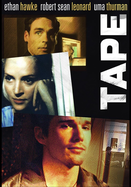
Also see the movie Tape. It has nothing to do with Autism, but has a plot consisting of sick malicious game-playing. Most Autistics would be clueless how to recognise what is going on with this type of "social interaction."
-----------------------------------------------------------------------------------------------------------------------------
In this Ted Talk a non-verbal man tells us what it was like to go through years of his inability to communicate in any way, while being normally aware of everything thet was going on around him. Everyone assumed he was basically brain-dead, treated him as such, and thus made no effort to understand him.
All I really need to say about this is thet if you have a non-verbal child, do not assume they cannot understand language. Assume the opposite, for just because the body does not work does not mean the mind is damaged at all.
------------------------------------------------------------------------------------------------------------------------------
All I really need to say about this is thet if you have a non-verbal child, do not assume they cannot understand language. Assume the opposite, for just because the body does not work does not mean the mind is damaged at all.
------------------------------------------------------------------------------------------------------------------------------
This documentary is about a man who was attacked and beaten nearly to death by red-neck punks. They bashed in his head which destroyed part of his brain.
After he woke up from the coma, he was a blank slate. He had to learn everything over again. His memory processing ability had been destroyed, so he stored all his new memories in a miniature town he built in his back yard.
He created a town called Marwencol, wherein his doll character is an American soldier in Belgium during WWII. These new "memories" he created consisted of a story almost as amazing as In The Realms of the Unreal. He carefully photographed every scene in the invented plot as his way of keeping track of these newly created memories.
Most of his current idiosyncrasies (gender rejection, Pragmatic Language Disorder, Fixated Subject, and difficulty interacting with anyone) are very Aspergian.
Before the injury he had kept a "drunk diary", in which he wrote whatever he felt as a journal while drunk. This idiosyncrasy of him only being able to communicate with himself through writing (while drunk), as opposed to communicating with others while sober, may have been an Aspie trait to start with. He was also a superb artist, his drawing ability was amazing.
After the injury he could no longer draw - he did not have the mental ability, nor the physical co-ordination (nor did he have any interest in alcohol). Thus as a self-therapy, he started making models in order to re-learn how to use his hands; this evolved into the fantasy-world of Marwencol.
The female characters in his town are very smart and strong, in fact 1 of them is a very psychically-powerful Witch who owns a time-machine. Otherwise it is realistically WWII Belgium - the American military and Belgian civilians vs the German invaders.
All the characters (dozens) are based on people he knows in his current real life, for he is unable to remember anything about his past before the beating.
He pairs-off all the characters, making sure everyone has a love-life.
When deciding where the plot should go, he sometimes has to dress up in womens' clothes (specifically his massive collection of women's shoes) to get a feel for what the female characters will do next. This cross-dressing for the sake of getting inside the head of the female characters he created is something he did in private before the beating; again suggesting possible Aspie traits - having to be the other person rather than interacting with them. I am very much like this.
He was originally a raging alcoholic. 1 night he was drunk in a bar, where he mentioned thet he occasionally liked to cross-dress (when alone in the privacy of his own home). The idiots he mentioned this to decided that meant he was Gay (which he is not - in fact he was married and adores women), and thus the beating was a hate-crime perpetrated by homophobic red-necks.
His gender rejection/confusion was very similar to Henry Darger's. Henry's female characters were hermaphroditic little-girl warriors; this guy's female characters are also very profound, in fact they rescue his character from the Nazis, after which they stab an SS Officer to death and hang his bloody corpse in the town square! You go, girls!
He documents the story of his (miniature/doll-town) life in photographs, which end up being shown in an art gallery in New York City.
After the anxiety-inducing art gallery show, wherein he does nothing but take pictures of the shoes all the women present are wearing, he gladly returns to his little town where his doll character builds himself a miniature town as therapy to confront the lingering trauma he acquired from the torture he received from his Nazi abductors. This in turn is his way of confronting the paranoia and rage he feels about having been beaten nearly to death in real life.
The most Aspergian symptom of having a very lush fantasy life, but inability to interact with real people, was so much like Henry Darger, as is his ability to create stories thus memories in both genders (in my own book of poetry called Exit Strategy I wrote from the perspective of a young woman having an abortion).
A very fascinating documentary about a man who, though he may not necessarily have actual Aspergers, has many of the symptoms of it, perhaps due in part to his brain-injury.
This is the ideal companion-piece to In the Realms of the Unreal.
My only complaint is thet they failed to show us an MRI of his brain, and explain what parts were damaged and how that damage would effect his personality, possibly leading to Autism-like symptoms. I really would have liked to see that.
Second viewing:
After the injury, Mark gets a job, 5 hours a week, scrubbing the kitchen at the local cafe. His boss says it is too much for him to be around people any more than that.
He has to watch his feet as he walks, otherwise he wobbles in his awful sense of balance, and possible bad depth-perception.
He gets a crush on his neighbor, Colleen, but is socially clueless as to what to do about it, referring to himself as "naive". He watches video tapes of his own real-life wedding, and has no clue what his wife, nor the guy he was then, had been like. He also says he has no memory of what sex is like.
He has his character and Colleen's character in Marwencol get engaged. He is so excited about this thet he tells the real Colleen thet they are getting married. She is shocked, and tells him thet he needs to recognize the difference between real life and Marwencol.
Hurt by this rebuff, he has the Witch (who has a crush on him) point her finger at the Colleen character, and "poofs her right out of her shoes", making her disappear. He does not complain about this, in fact he immediately starts a relationship with another doll character named Anna.
Mark's character tries to infiltrate the SS, but ends up becomming their prisoner instead. They torture him.
The women of Marwencol all seduce their way into the SS building and massacre them in a bloodbath. They take the commanding SS Officer to town, gang-stab him, and then Anna executes him, thus proving her love for Mark, and satisfying the revenge the women feel for the Germans having killed all their men. They hang the Officer's corpse in the town square.
In real life, Mark has lists posted throughout his house, for he otherwise has no short-term memory.
He states thet he has no clue what to say in any conversation.
After the gallery show in New York, he says he knows the people he met there were real, but he prefers to stay in his own world of Marwencol.
Welcome To Marwencol is the book of the entire soap-opera story of the doll-town Marwencol. It is currently under production, to be available soon. I will definitely buy a copy. (Up-date: It was already published and immediately sold out. A second printing is underway.)
You can also watch the wonderful original movie trailer at www.youtube.com/watch?v=pMWFhplFSEQ.
Wikipedia also has a good introduction to it, along with glowing reviews from every movie critic who ever saw it.
I would like to add my own brief review:
After a man is beaten badly, leaving him in a coma for 9 days, he awakens with no memory what-so-ever and the equivalent of Asperger's Syndrome. As his own brand of self-therapy, he invents a doll town called Marwencol. The fictional characters there help him deal with and recover from his brain-injury. Then his private therapy is discovered and declared "Art" by the New York art scene.
You can visit Mark's web-site at www.Marwencol.com.
Rachel, from the book Being With Rachel, reminds me of Mark very much; after receiving a brain-injury, she develops symtoms of Aspergers. See my review of that book.
------------------------------------------------------------------------------------------------------------------------------
After he woke up from the coma, he was a blank slate. He had to learn everything over again. His memory processing ability had been destroyed, so he stored all his new memories in a miniature town he built in his back yard.
He created a town called Marwencol, wherein his doll character is an American soldier in Belgium during WWII. These new "memories" he created consisted of a story almost as amazing as In The Realms of the Unreal. He carefully photographed every scene in the invented plot as his way of keeping track of these newly created memories.
Most of his current idiosyncrasies (gender rejection, Pragmatic Language Disorder, Fixated Subject, and difficulty interacting with anyone) are very Aspergian.
Before the injury he had kept a "drunk diary", in which he wrote whatever he felt as a journal while drunk. This idiosyncrasy of him only being able to communicate with himself through writing (while drunk), as opposed to communicating with others while sober, may have been an Aspie trait to start with. He was also a superb artist, his drawing ability was amazing.
After the injury he could no longer draw - he did not have the mental ability, nor the physical co-ordination (nor did he have any interest in alcohol). Thus as a self-therapy, he started making models in order to re-learn how to use his hands; this evolved into the fantasy-world of Marwencol.
The female characters in his town are very smart and strong, in fact 1 of them is a very psychically-powerful Witch who owns a time-machine. Otherwise it is realistically WWII Belgium - the American military and Belgian civilians vs the German invaders.
All the characters (dozens) are based on people he knows in his current real life, for he is unable to remember anything about his past before the beating.
He pairs-off all the characters, making sure everyone has a love-life.
When deciding where the plot should go, he sometimes has to dress up in womens' clothes (specifically his massive collection of women's shoes) to get a feel for what the female characters will do next. This cross-dressing for the sake of getting inside the head of the female characters he created is something he did in private before the beating; again suggesting possible Aspie traits - having to be the other person rather than interacting with them. I am very much like this.
He was originally a raging alcoholic. 1 night he was drunk in a bar, where he mentioned thet he occasionally liked to cross-dress (when alone in the privacy of his own home). The idiots he mentioned this to decided that meant he was Gay (which he is not - in fact he was married and adores women), and thus the beating was a hate-crime perpetrated by homophobic red-necks.
His gender rejection/confusion was very similar to Henry Darger's. Henry's female characters were hermaphroditic little-girl warriors; this guy's female characters are also very profound, in fact they rescue his character from the Nazis, after which they stab an SS Officer to death and hang his bloody corpse in the town square! You go, girls!
He documents the story of his (miniature/doll-town) life in photographs, which end up being shown in an art gallery in New York City.
After the anxiety-inducing art gallery show, wherein he does nothing but take pictures of the shoes all the women present are wearing, he gladly returns to his little town where his doll character builds himself a miniature town as therapy to confront the lingering trauma he acquired from the torture he received from his Nazi abductors. This in turn is his way of confronting the paranoia and rage he feels about having been beaten nearly to death in real life.
The most Aspergian symptom of having a very lush fantasy life, but inability to interact with real people, was so much like Henry Darger, as is his ability to create stories thus memories in both genders (in my own book of poetry called Exit Strategy I wrote from the perspective of a young woman having an abortion).
A very fascinating documentary about a man who, though he may not necessarily have actual Aspergers, has many of the symptoms of it, perhaps due in part to his brain-injury.
This is the ideal companion-piece to In the Realms of the Unreal.
My only complaint is thet they failed to show us an MRI of his brain, and explain what parts were damaged and how that damage would effect his personality, possibly leading to Autism-like symptoms. I really would have liked to see that.
Second viewing:
After the injury, Mark gets a job, 5 hours a week, scrubbing the kitchen at the local cafe. His boss says it is too much for him to be around people any more than that.
He has to watch his feet as he walks, otherwise he wobbles in his awful sense of balance, and possible bad depth-perception.
He gets a crush on his neighbor, Colleen, but is socially clueless as to what to do about it, referring to himself as "naive". He watches video tapes of his own real-life wedding, and has no clue what his wife, nor the guy he was then, had been like. He also says he has no memory of what sex is like.
He has his character and Colleen's character in Marwencol get engaged. He is so excited about this thet he tells the real Colleen thet they are getting married. She is shocked, and tells him thet he needs to recognize the difference between real life and Marwencol.
Hurt by this rebuff, he has the Witch (who has a crush on him) point her finger at the Colleen character, and "poofs her right out of her shoes", making her disappear. He does not complain about this, in fact he immediately starts a relationship with another doll character named Anna.
Mark's character tries to infiltrate the SS, but ends up becomming their prisoner instead. They torture him.
The women of Marwencol all seduce their way into the SS building and massacre them in a bloodbath. They take the commanding SS Officer to town, gang-stab him, and then Anna executes him, thus proving her love for Mark, and satisfying the revenge the women feel for the Germans having killed all their men. They hang the Officer's corpse in the town square.
In real life, Mark has lists posted throughout his house, for he otherwise has no short-term memory.
He states thet he has no clue what to say in any conversation.
After the gallery show in New York, he says he knows the people he met there were real, but he prefers to stay in his own world of Marwencol.
Welcome To Marwencol is the book of the entire soap-opera story of the doll-town Marwencol. It is currently under production, to be available soon. I will definitely buy a copy. (Up-date: It was already published and immediately sold out. A second printing is underway.)
You can also watch the wonderful original movie trailer at www.youtube.com/watch?v=pMWFhplFSEQ.
Wikipedia also has a good introduction to it, along with glowing reviews from every movie critic who ever saw it.
I would like to add my own brief review:
After a man is beaten badly, leaving him in a coma for 9 days, he awakens with no memory what-so-ever and the equivalent of Asperger's Syndrome. As his own brand of self-therapy, he invents a doll town called Marwencol. The fictional characters there help him deal with and recover from his brain-injury. Then his private therapy is discovered and declared "Art" by the New York art scene.
You can visit Mark's web-site at www.Marwencol.com.
Rachel, from the book Being With Rachel, reminds me of Mark very much; after receiving a brain-injury, she develops symtoms of Aspergers. See my review of that book.
------------------------------------------------------------------------------------------------------------------------------
This is a very sad movie about how pathetic it is to be lonely.
It is done in claymation.
It is about a 40-something American man, Max, who has Asperger's Syndrome, and the pen-pal relationship he develops with Mary, a young girl in Australia.
She is inspired by his AS to become an expert on Neurological Disorders, so she goes to college and earns a degree on the subject.
She then writes a book about AS, using Max as her case-study. But considering he has never had a friend before, he sees it as her betrayal of his trust. This destroys the friendship, for him.
She is so sorry for this thet she tries to kill herself, because he is the only true friend she has ever had too.
Eventually Max gets over it and forgives her, so she goes to America to meet him for the first time, but he dies by the time she gets there. The End.
This is a horrible story about how pointless most people's lives are, and the desperate loneliness all people feel.
It was made in Australia, which apparently has the same morbid black humor as the English. Mostly filmed in shadowy black and white, the claymation style made all the characters ugly, and all of them were pathetic and depressing losers.
Script Support was credited to Tony Attwood, and it was thus a very accurate presentation of what AS is like (for Max); he has no interest in interacting with anyone at all, and has horrible anxiety-attacks if anyone touches him.
Since it is impossible to have a conversation with anyone, I know it is pointless to feel lonely. This movie reiterated that fact.
The closing scene is of Mary sitting in Max's living room holding his dead hand as she notices thet he had laminated every letter she ever sent him (hundreds) and pasted them to the ceiling. This made her cry with joy, to know she had been that important of a friend to him.
What a horribly sad movie.
------------------------------------------------------------------------------------------------------------------------------
It is done in claymation.
It is about a 40-something American man, Max, who has Asperger's Syndrome, and the pen-pal relationship he develops with Mary, a young girl in Australia.
She is inspired by his AS to become an expert on Neurological Disorders, so she goes to college and earns a degree on the subject.
She then writes a book about AS, using Max as her case-study. But considering he has never had a friend before, he sees it as her betrayal of his trust. This destroys the friendship, for him.
She is so sorry for this thet she tries to kill herself, because he is the only true friend she has ever had too.
Eventually Max gets over it and forgives her, so she goes to America to meet him for the first time, but he dies by the time she gets there. The End.
This is a horrible story about how pointless most people's lives are, and the desperate loneliness all people feel.
It was made in Australia, which apparently has the same morbid black humor as the English. Mostly filmed in shadowy black and white, the claymation style made all the characters ugly, and all of them were pathetic and depressing losers.
Script Support was credited to Tony Attwood, and it was thus a very accurate presentation of what AS is like (for Max); he has no interest in interacting with anyone at all, and has horrible anxiety-attacks if anyone touches him.
Since it is impossible to have a conversation with anyone, I know it is pointless to feel lonely. This movie reiterated that fact.
The closing scene is of Mary sitting in Max's living room holding his dead hand as she notices thet he had laminated every letter she ever sent him (hundreds) and pasted them to the ceiling. This made her cry with joy, to know she had been that important of a friend to him.
What a horribly sad movie.
------------------------------------------------------------------------------------------------------------------------------
This is a typical Bruce Willis action-flick, with lots of macho posturing and excessive gun-play. I do not particularly like such films, but the plot does revolve around an Autistic child.
Black Ops spends billions of dollars creating the ultimate secret code. The Asperger nerds who created it, ran it through all the secret government super-computers, none of which could crack it. They were quite pleased with themselves for this.
As nerds, they also decided to published it in a puzzle magazine, just to see if some random Savant might figure it out. To their astonishment a 9-year-old Autistic boy does. This completely floors the nerds, who report it to their boss, who is personally responsible for the astronomical budget it took to create it in the first place.
It is a code Black Ops had been using for a while now, thus all their secret operations are now assumed to be vulnerable.
With his panicking ass on the line, the boss decides to simply kill the Autistic child, so his reputation-I-mean-National Security will remain in tact.
A hit-man is sent to erase the child and his parents, but the kid escapes.
The police investigate this apparent murder/suicide. But with a missing child, the FBI are called in.
Bruce Willis's character is a trouble-making FBI agent. He discovers the child hiding in the secret compartment, and that is where the chase begins.
The Black Ops boss still wants the kid erased, but the FBI agent has no clue why someone would want to kill some apparently random retarded kid.
Through the rest of the movie, we (along with the FBI agent) come to understand the basics of Autism.
The sub-plot of the movie is thet the macho he-man (typical Bruce Willis) character reveals his underlying mothering nature, and acquires a protective father role (while leaping from buildings with a bloody nose, spraying the place with bullets, screaming Autistic child in hand).
At the Chicago Psychoneuropathic Learning Center 9 year-old Simon is in school with 6 other Special kids. He is fixated on memorizing maps (alone).
His teacher bribes him into interacting with the other kids by giving him yet another issue of World Of Puzzles magazine.
Simon appears to be on heavy doses of Ritalin - he is very dull and floppy, has an utterly blank facial expression, and his eyes roll up at nothing. He can barely speak. He has language ability, just very bad mouth co-ordination, and communicates mainly through picture-exchange.
His teachers are trying to make him "act normal" with Immediate Response Training. They are very patient, and he is apparently learning to look in people's eyes and use social niceties - though he obviously has no clue why he is supposed to do such things.
He presents (to me) as a Ritalin Zombie, rather than what I would expect from a "typical" Autistic child. Of course, if you have met 1 Autistic you have met 1 Autistic.
Simon walks very carefully like he has bad balance and vague spacial awareness. He freezes, foot in mid-air, for a second when going through door-ways.
He has his ritualistic behaviors: he needs to ring the door-bell 3 times, be met by his mother, say "Hi mommy, I am home" (as Mom observes all the other kids his age playing stick-ball together in the street, conspicuously without Simon), immediately have a cup of hot chocolate (!), go to his room and obsess over puzzle magazines.
He does the puzzles with a red Sharpie Marker because he never makes mistakes.
Then he gets to the page with the Black Ops puzzle. It is a full page covered in numbers, letters, and symbols, in apparently no pattern whatsoever. He stares at it blankly for 10 seconds, goes to the phone, and dials an 11-digit number.
The phone rings at Secret Government Code HQ, where, upon answering the phone, an Asperger code-geek has an anxiety-attack. He asks Simon where he got this phone number, and Simon says, "Puzzle 99." He traces the call and finds Simon's address.
He calls his Aspie supervisor in, and tells him, "Someone just walked on Mercury." The supervisor says they have to report this to Kudrow.
They call Kudrow at the US Embassy in Thailand - where he is in a meeting with 12 military-looking officials, saying, "Mercury is operational in most of our Com-centers, and I am here to confirm everything you have already heard. Mercury is a quantum-leap in our communications security, and once we complete it's installation in all of our Com-centers, it is going to be very hard for our adversaries to compromise our communications."
Simon's dad comes home from work, and silently holds Simon on his lap and rocks him gently - no eye-contact, no speech - it is simply the ritual they go through to conclude the day.
Kudrow arrives at Secret Code HQ. He says to the Aspies, "I believe neither one of you has ever said the words 'puzzle line' to me."
The Aspies look at each other in fear, and code-geek says, "Sir, before Mercury went operational, we ran a standard validation protocol - the works: double sets of paired Cray super-computers, 24 hours a day, Mercury came out unbent. But there was 1 last thing to check out - the geek-factor."
Supervisor Aspie says, "We slipped it into 1 of those egg-head magazines. We never thought anyone would break it, Sir ... but someone did."
Kudrow says, "His name is Simon Lynch. He lives in Chicago. He is 9 years old. And he has deciphered a message written in the most sophisticated code the world has ever known - in a geek's puzzle magazine! And I do not recall authorizing anyone to put any message into any magazine! Not only is he 9 years old, but he is handicapped. He is Autistic."
Supervisor Aspie, grins, and says, "Yes. That explains it!"
Kudrow says, "So our 2 billion dollar code is an open book to people of diminished capacity?"
Supervisor Aspie says, "No no no. Autism is not synonymous with diminished capacity. Autistic people are shut off. But it is not unusual for an Autistic person to be a Savant. He might not be able to decipher the code, it may just 'appear' to him."
Kudrow says, "This is National Security. Looking at the best-case scenario, let us suppose the boy is unique, and he does not understand what he has just done. Does that solve my problem? No. All we need now is for someone else who understands his capability to come along, and my problems are increased exponentially."
Supervisor Aspie says, "Then maybe we should talk to the kid, and ..."
Kudrow says, "No. There must be nothing that connects the boy to this office. Nothing. Am I clear?"
Next scene: A Government hit-man kills Simon's parents.
The police investigate, learning from neighbors thet Simon is "retarded".
A missing child in the USA is now called an "Amber Alert" resulting in the FBI getting involved.
Bruce Willis's character, Art, arrives and looks around the house. He happens to call on his cell-phone, and Echolalic Simon parrots the notes the phone's keys make. Art keeps pressing buttons until he finds Simon by the sound of his voice. Art pulls Simon out of his hiding place, shocked they he has a screaming tantrum at being touched.
Art orders an ambulance to take the freaking-out child to the hospital. Once Art and Simon are in the ambulance, Simon has a full-blown melt-down because he cannot stand the siren.
In the hospital they strap down Simon and sedate him. Art asks, "Is that all you can do for him? Give him a shot?"
The nurse says he is Autistic. Art stares blankly, and asks, "What does that mean? Nothing gets through?" The nurse says, "No. It is just the opposite - everything gets through. He has trouble with feelings and emotions, so he is very frightened and confused."
Art says, "So I am not going to be able to question this boy?" The nurse says, "Probably not."
The next day Kudrow reminds the code-geeks thet this is the utmost National Security situation, and to keep the code line open in case Simon (or any other Savant) calls back.
Art studies Simon's picture-exchange cards, and decides to try to communicate with him through them. He goes back to the hospital only to discover thet Simon has been moved to the Pediatrics unit, "by his parents."
Art goes to look for him, only to be met by the Pediatrician, who is the Government Hit-man in a doctor disguise.
Art finds Simon and drags him screaming through a Hollywood action chase - bullets flying about the hospital, spark-spraying car-chase, and a brutal fist-fight on the subway.
They finally outrun the tag-team of hit-men, and arrive at Arts friend's house - a fellow FBI agent.
Art tells his friend to call Concordia (apparently the FBI's Internal Affairs Unit).
Internal affairs has no clue what is going on.
Art borrows his friend's car and goes on the run with Simon, until he can figure out what this is all about.
Eventually they hide out at Simon's blood-soaked house, for the hit-men will never think to look for them there.
Simon again looks at Puzzle 99, and dials the 11-digit number. Art grabs the phone and is told by Code-geek to never again call this number, but to check an E-mail address tomorrow.
The next day they go to the public library to use the computer, contacts the E-mail address, and is presented with a page of code. Simon looks at the jumbled nonsense code, and says, "Today. 12:00. Wrigley Building."
At the Wrigley Building Art meets with the supervisor geek who tells Art everything he knows. During their brief walk, supervisor geek gets silently shot center-mass. Art recognizes the "Pediatrician" as the shooter, and another chase ensues - to no avail.
Art's unfulfilled emotional needs are revealed, explaining why he is risking his life to protect a child who's case is not only not his problem, but none of his business.
Code-geek talks with his nerd girlfriend, and she suggests he write out the story on a manual typewriter and send it to the Senate Oversight Committee.
The hit-man kills the code-geek, and takes both copies of the letter.
Nerd-girl finds the carbon-paper from the letter he wrote, and takes it to the FBI, where coincidentally the friend of Art's is contacted.
Meanwhile Simon puts together a 3-foot-square, 500-piece jigsaw-puzzle face down.
Art tells his FBI friend to put Simon into Witness Protection.
Art has someone deliver a copy of the carbon-paper letter to Kudrow, and asks to meet with him.
Art tells Kudrow thet he has 2 choices: Allow the Senate Oversight Committee to shut down the Mercury Project, or go on National TV and admit thet their 2 billion dollar secret code was broken by an Autistic child.
Kudrow responds with, "I am a Patriot, and a Patriot is someone who makes the right moral choice. Sometimes it takes a strong man to make that choice. One boy who cannot survive on his own - one of nature's mistakes, weighed against the lives of thousands of our people. How many of our agents will be put in harm's way if this code is compromised? Men like Rashid Halabi - an Iraqi-American and a great Patriot; a man who as we speak is under cover in Saddam's Republican Guard. A man who has not seen his family ..." Art kicks Kudrow in the chest, and says, "That is for Simon's parents, you piece of shit. You have 36 hours - that should be enough time to get your under-cover people out of harm's way."
The next day, Black Ops tap the FBI friend's phone, and find out where Federal Marshals are to pick up Simon to place him in Witness Protection - a helicopter pad on top of a building.
The FBI and Black Ops have a theatrical gun fight on the helicopter pad, Kudrow gets killed, and Simon is saved.
The movie ends with Art visiting Simon at the Psychoneuropathic Learning Center. He offers the teacher some puzzles to pass along to Simon. She asks if he would like to meet him, and Art says, "He probably would not remember me. I probably should not expect too much."
The teacher tells Art to give the puzzles to Simon himself, and to Art's surprise Simon recognizes him and even gives him a hug. The End.
So overall I thought they missed the opportunity to educate the viewers with more details about what Autism is. There were a couple scenes I was frustrated with because they did not go far enough with explanations about Autism; e.g., the nurse explaining to Art what Autism is was only 1 sentance long.
I also thought the theatrical gunfights were ridiculously Hollywood (overly choreographed with too much glossy lighting). But it was at least a sympathetic portrayal of an Autistic child.
------------------------------------------------------------------------------------------------------------------------------
Black Ops spends billions of dollars creating the ultimate secret code. The Asperger nerds who created it, ran it through all the secret government super-computers, none of which could crack it. They were quite pleased with themselves for this.
As nerds, they also decided to published it in a puzzle magazine, just to see if some random Savant might figure it out. To their astonishment a 9-year-old Autistic boy does. This completely floors the nerds, who report it to their boss, who is personally responsible for the astronomical budget it took to create it in the first place.
It is a code Black Ops had been using for a while now, thus all their secret operations are now assumed to be vulnerable.
With his panicking ass on the line, the boss decides to simply kill the Autistic child, so his reputation-I-mean-National Security will remain in tact.
A hit-man is sent to erase the child and his parents, but the kid escapes.
The police investigate this apparent murder/suicide. But with a missing child, the FBI are called in.
Bruce Willis's character is a trouble-making FBI agent. He discovers the child hiding in the secret compartment, and that is where the chase begins.
The Black Ops boss still wants the kid erased, but the FBI agent has no clue why someone would want to kill some apparently random retarded kid.
Through the rest of the movie, we (along with the FBI agent) come to understand the basics of Autism.
The sub-plot of the movie is thet the macho he-man (typical Bruce Willis) character reveals his underlying mothering nature, and acquires a protective father role (while leaping from buildings with a bloody nose, spraying the place with bullets, screaming Autistic child in hand).
At the Chicago Psychoneuropathic Learning Center 9 year-old Simon is in school with 6 other Special kids. He is fixated on memorizing maps (alone).
His teacher bribes him into interacting with the other kids by giving him yet another issue of World Of Puzzles magazine.
Simon appears to be on heavy doses of Ritalin - he is very dull and floppy, has an utterly blank facial expression, and his eyes roll up at nothing. He can barely speak. He has language ability, just very bad mouth co-ordination, and communicates mainly through picture-exchange.
His teachers are trying to make him "act normal" with Immediate Response Training. They are very patient, and he is apparently learning to look in people's eyes and use social niceties - though he obviously has no clue why he is supposed to do such things.
He presents (to me) as a Ritalin Zombie, rather than what I would expect from a "typical" Autistic child. Of course, if you have met 1 Autistic you have met 1 Autistic.
Simon walks very carefully like he has bad balance and vague spacial awareness. He freezes, foot in mid-air, for a second when going through door-ways.
He has his ritualistic behaviors: he needs to ring the door-bell 3 times, be met by his mother, say "Hi mommy, I am home" (as Mom observes all the other kids his age playing stick-ball together in the street, conspicuously without Simon), immediately have a cup of hot chocolate (!), go to his room and obsess over puzzle magazines.
He does the puzzles with a red Sharpie Marker because he never makes mistakes.
Then he gets to the page with the Black Ops puzzle. It is a full page covered in numbers, letters, and symbols, in apparently no pattern whatsoever. He stares at it blankly for 10 seconds, goes to the phone, and dials an 11-digit number.
The phone rings at Secret Government Code HQ, where, upon answering the phone, an Asperger code-geek has an anxiety-attack. He asks Simon where he got this phone number, and Simon says, "Puzzle 99." He traces the call and finds Simon's address.
He calls his Aspie supervisor in, and tells him, "Someone just walked on Mercury." The supervisor says they have to report this to Kudrow.
They call Kudrow at the US Embassy in Thailand - where he is in a meeting with 12 military-looking officials, saying, "Mercury is operational in most of our Com-centers, and I am here to confirm everything you have already heard. Mercury is a quantum-leap in our communications security, and once we complete it's installation in all of our Com-centers, it is going to be very hard for our adversaries to compromise our communications."
Simon's dad comes home from work, and silently holds Simon on his lap and rocks him gently - no eye-contact, no speech - it is simply the ritual they go through to conclude the day.
Kudrow arrives at Secret Code HQ. He says to the Aspies, "I believe neither one of you has ever said the words 'puzzle line' to me."
The Aspies look at each other in fear, and code-geek says, "Sir, before Mercury went operational, we ran a standard validation protocol - the works: double sets of paired Cray super-computers, 24 hours a day, Mercury came out unbent. But there was 1 last thing to check out - the geek-factor."
Supervisor Aspie says, "We slipped it into 1 of those egg-head magazines. We never thought anyone would break it, Sir ... but someone did."
Kudrow says, "His name is Simon Lynch. He lives in Chicago. He is 9 years old. And he has deciphered a message written in the most sophisticated code the world has ever known - in a geek's puzzle magazine! And I do not recall authorizing anyone to put any message into any magazine! Not only is he 9 years old, but he is handicapped. He is Autistic."
Supervisor Aspie, grins, and says, "Yes. That explains it!"
Kudrow says, "So our 2 billion dollar code is an open book to people of diminished capacity?"
Supervisor Aspie says, "No no no. Autism is not synonymous with diminished capacity. Autistic people are shut off. But it is not unusual for an Autistic person to be a Savant. He might not be able to decipher the code, it may just 'appear' to him."
Kudrow says, "This is National Security. Looking at the best-case scenario, let us suppose the boy is unique, and he does not understand what he has just done. Does that solve my problem? No. All we need now is for someone else who understands his capability to come along, and my problems are increased exponentially."
Supervisor Aspie says, "Then maybe we should talk to the kid, and ..."
Kudrow says, "No. There must be nothing that connects the boy to this office. Nothing. Am I clear?"
Next scene: A Government hit-man kills Simon's parents.
The police investigate, learning from neighbors thet Simon is "retarded".
A missing child in the USA is now called an "Amber Alert" resulting in the FBI getting involved.
Bruce Willis's character, Art, arrives and looks around the house. He happens to call on his cell-phone, and Echolalic Simon parrots the notes the phone's keys make. Art keeps pressing buttons until he finds Simon by the sound of his voice. Art pulls Simon out of his hiding place, shocked they he has a screaming tantrum at being touched.
Art orders an ambulance to take the freaking-out child to the hospital. Once Art and Simon are in the ambulance, Simon has a full-blown melt-down because he cannot stand the siren.
In the hospital they strap down Simon and sedate him. Art asks, "Is that all you can do for him? Give him a shot?"
The nurse says he is Autistic. Art stares blankly, and asks, "What does that mean? Nothing gets through?" The nurse says, "No. It is just the opposite - everything gets through. He has trouble with feelings and emotions, so he is very frightened and confused."
Art says, "So I am not going to be able to question this boy?" The nurse says, "Probably not."
The next day Kudrow reminds the code-geeks thet this is the utmost National Security situation, and to keep the code line open in case Simon (or any other Savant) calls back.
Art studies Simon's picture-exchange cards, and decides to try to communicate with him through them. He goes back to the hospital only to discover thet Simon has been moved to the Pediatrics unit, "by his parents."
Art goes to look for him, only to be met by the Pediatrician, who is the Government Hit-man in a doctor disguise.
Art finds Simon and drags him screaming through a Hollywood action chase - bullets flying about the hospital, spark-spraying car-chase, and a brutal fist-fight on the subway.
They finally outrun the tag-team of hit-men, and arrive at Arts friend's house - a fellow FBI agent.
Art tells his friend to call Concordia (apparently the FBI's Internal Affairs Unit).
Internal affairs has no clue what is going on.
Art borrows his friend's car and goes on the run with Simon, until he can figure out what this is all about.
Eventually they hide out at Simon's blood-soaked house, for the hit-men will never think to look for them there.
Simon again looks at Puzzle 99, and dials the 11-digit number. Art grabs the phone and is told by Code-geek to never again call this number, but to check an E-mail address tomorrow.
The next day they go to the public library to use the computer, contacts the E-mail address, and is presented with a page of code. Simon looks at the jumbled nonsense code, and says, "Today. 12:00. Wrigley Building."
At the Wrigley Building Art meets with the supervisor geek who tells Art everything he knows. During their brief walk, supervisor geek gets silently shot center-mass. Art recognizes the "Pediatrician" as the shooter, and another chase ensues - to no avail.
Art's unfulfilled emotional needs are revealed, explaining why he is risking his life to protect a child who's case is not only not his problem, but none of his business.
Code-geek talks with his nerd girlfriend, and she suggests he write out the story on a manual typewriter and send it to the Senate Oversight Committee.
The hit-man kills the code-geek, and takes both copies of the letter.
Nerd-girl finds the carbon-paper from the letter he wrote, and takes it to the FBI, where coincidentally the friend of Art's is contacted.
Meanwhile Simon puts together a 3-foot-square, 500-piece jigsaw-puzzle face down.
Art tells his FBI friend to put Simon into Witness Protection.
Art has someone deliver a copy of the carbon-paper letter to Kudrow, and asks to meet with him.
Art tells Kudrow thet he has 2 choices: Allow the Senate Oversight Committee to shut down the Mercury Project, or go on National TV and admit thet their 2 billion dollar secret code was broken by an Autistic child.
Kudrow responds with, "I am a Patriot, and a Patriot is someone who makes the right moral choice. Sometimes it takes a strong man to make that choice. One boy who cannot survive on his own - one of nature's mistakes, weighed against the lives of thousands of our people. How many of our agents will be put in harm's way if this code is compromised? Men like Rashid Halabi - an Iraqi-American and a great Patriot; a man who as we speak is under cover in Saddam's Republican Guard. A man who has not seen his family ..." Art kicks Kudrow in the chest, and says, "That is for Simon's parents, you piece of shit. You have 36 hours - that should be enough time to get your under-cover people out of harm's way."
The next day, Black Ops tap the FBI friend's phone, and find out where Federal Marshals are to pick up Simon to place him in Witness Protection - a helicopter pad on top of a building.
The FBI and Black Ops have a theatrical gun fight on the helicopter pad, Kudrow gets killed, and Simon is saved.
The movie ends with Art visiting Simon at the Psychoneuropathic Learning Center. He offers the teacher some puzzles to pass along to Simon. She asks if he would like to meet him, and Art says, "He probably would not remember me. I probably should not expect too much."
The teacher tells Art to give the puzzles to Simon himself, and to Art's surprise Simon recognizes him and even gives him a hug. The End.
So overall I thought they missed the opportunity to educate the viewers with more details about what Autism is. There were a couple scenes I was frustrated with because they did not go far enough with explanations about Autism; e.g., the nurse explaining to Art what Autism is was only 1 sentance long.
I also thought the theatrical gunfights were ridiculously Hollywood (overly choreographed with too much glossy lighting). But it was at least a sympathetic portrayal of an Autistic child.
------------------------------------------------------------------------------------------------------------------------------
Aspiring documentary film-maker Dad had his smartphone camera running throughout the birth and first 5 years of his child’s life. This was fortunate for the sake of documenting the evolution of his child’s Autism.
In her case, she was a very beautiful and bright baby, developing faster than normal. Then she got her shots, which absolutely caused her Autism.
The parents went through all the usual stages of denial, self-blame, anger, etc, watching their child regress to a non-verbal zombie state.
Eventually they found a DAN Doctor who prescribed mega-doses of injectable B12, and a strict GF/CF Diet. The B12 miraculously brought back Mia’s speech, but was an overdose for her size, actually causing sensory processing disorders.
They found another DAN Doctor who recognized the problem, and helped them fine-tune their treatment – focusing especially on the intestinal aspects.
Today Mia has caught back up to the developmental stage she would have been at by now if she had never had Autism.
She still has sensory processing problems, and probably a mild case of Aspergers (she tantrums when over-stimulated), but the otherwise miraculous recovery, very well documented by camera-geek Dad, made this one of the best Autism Documentaries I have ever seen. Highly recommended.
-------------------------------------------------------------------------------------------------------------------------------
In her case, she was a very beautiful and bright baby, developing faster than normal. Then she got her shots, which absolutely caused her Autism.
The parents went through all the usual stages of denial, self-blame, anger, etc, watching their child regress to a non-verbal zombie state.
Eventually they found a DAN Doctor who prescribed mega-doses of injectable B12, and a strict GF/CF Diet. The B12 miraculously brought back Mia’s speech, but was an overdose for her size, actually causing sensory processing disorders.
They found another DAN Doctor who recognized the problem, and helped them fine-tune their treatment – focusing especially on the intestinal aspects.
Today Mia has caught back up to the developmental stage she would have been at by now if she had never had Autism.
She still has sensory processing problems, and probably a mild case of Aspergers (she tantrums when over-stimulated), but the otherwise miraculous recovery, very well documented by camera-geek Dad, made this one of the best Autism Documentaries I have ever seen. Highly recommended.
-------------------------------------------------------------------------------------------------------------------------------
A disease breaks out which kills most of the children. It is discovered thet cockroaches are the carrier. So scientists genetically engineer a super-bug thet will kill-off and displace all the cockroaches. They are all sterile females, thus they should all die out in 1 generation. But this theory only works in the laboratory, so when they are released into the wild they mutate, becoming human-sized super-bugs!
One of the characters involved is an Autistic child. He collects shiny wire and makes sculptures out of it, is fixated on and thus an expert on shoes. He is very deer-in-headlights gullible and socially naive, and when he gets over-stimulated he rocks and screams.
This movie is so horrible and dismally slow, I could barely stand to sit through it to observe the Autistic child. It was not a very realistic presentation of Autism anyway, Autism is never mentioned, and I do not give a damn.
Over-all a dud.
--------------------------------------------------------------------------------------------------------------------------------
One of the characters involved is an Autistic child. He collects shiny wire and makes sculptures out of it, is fixated on and thus an expert on shoes. He is very deer-in-headlights gullible and socially naive, and when he gets over-stimulated he rocks and screams.
This movie is so horrible and dismally slow, I could barely stand to sit through it to observe the Autistic child. It was not a very realistic presentation of Autism anyway, Autism is never mentioned, and I do not give a damn.
Over-all a dud.
--------------------------------------------------------------------------------------------------------------------------------
Wen is a guy in his mid 20s.
His parents died years ago.
His girlfriend suddenly (and very unexpectedly, at least to him) leaves. Then he loses his job. He cannot make the rent and gets evicted.
In the middle of all this the Police come to him and says his uncle’s widowed wife died in an accident and left a young child, Xiaoming, behind. Wen is this orphan’s only known relative. They want to give Wen custody. He says he will have to think about it.
Wen, now homeless, goes to his only friend, and complains about how life is too hard and he feels utterly lost.
His friend tells him thet when they attended college, Wen was the only one who arrived without his parents. This independence was admired by all the other students, and he is still seen by his friend as being more mature than most people his age - because he had to be. His friend also refers to him as a Literary Genius, and says his writing will be published 1 day.
Wen’s depression turns to indignation as he realizes it is unfair thet someone as hard-working as him is being treated so badly by life. His response is to become a childish jerk propelled by anger, rather than his former childish whiner propelled by self-pity. He is not more mature than other people his age, he is just more independent because he had no choice.
Wen goes to the Police and agrees to take care of the orphan for 1 month in exchange for them finding his ex for him. He repeatedly refers to her as his wife, though they were never legally married.
The Police tell him a well-to-do couple want to adopt this child, but it will take a month for that to happen.
The Police introduce Wen to the child, saying Wen’s father and this child’s father were brothers.
Wen and Xiaoming are taken to the former home of Xiaoming’s parents.
An old woman, the former boss of Xiaoming’s mom, tells Wen his nephew is special, and Wen must be patient with him.
The word “special” was not necessarily capitalized, and if it was, Wen did not make the connection.
We find out Xiaoming’s father was the driver of the car thet crashed, killing him and Wen’s parents. Wen deeply resents this man, and is now stuck taking care of his orphaned child.
At school, Xiaoming sits in silence staring out the window, oblivious to his classmates and the class it’s self.
PE class consists of Tai Kwon Do lessons, during which Xiaoming stands at a distance with a deer in headlights look on his face.
Apparently the school system has no clue what to do with him, so they do nothing.
Wen says to Xiaoming, “In this week we have been together I have only heard 10 sentences out of you, and 9 of them were you talking to yourself.”
Wen is still indignant, and resents thet this child has hardly even acknowledged him. He says, “Look at me. I am so pathetic. No girlfriend, no job, and I have to look after you. No wonder if I end up in a Mental Institution in a month.”
Wen realizes Xiaoming is Autistic, but his only reference-point is Rain Man. So he asks Xiaoming some math equations, and sure enough, Xiaoming is a math genius.
Tai Kwon Do teacher has three new students introduce themselves to his class. Then the teacher asks Xiaoming if he would like to join them. Xiaoming runs away.
The Math and Language teacher has a Parents’ Council wherein she says one student is consistently #1 in his Math class, but dead-last in Language class. Thus “Parents, I ask you. What am I to do?” She knows he is very intelligent, but cannot figure out how to teach him.
Xiaoming joins the Tai Kwon Do class, but is bullied by the biggest kid; actually beaten up for being “a Retard.” The teacher thus punishes the whole class for one student’s failure to respect the Honor Code of Chivalry he was trying to teach them; using Tai Kwon Do to bully people is most disgraceful.
Wen tells Xiaoming thet when he was in school he was the best at Language but flunked Math. Thus they compliment each other.
Wen’s ex calls him and says she heard he was looking for her, and thet their relationship is over, but she will meet with him at the train station.
Wen leaves Xiaoming home alone so he can go meet his ex. Once he gets to the station, still waiting for his ex to show up, he sees a horrible father be at least indifferent to his child who accidentally spills hot water on himself.
Wen realizes taking care of Xiaoming is more important than saying goodbye to his ex, so he leaves the station and goes home to find Xiaoming has also spilled hot water on himself.
Wen is growing up.
By now the month has passed, and Wen tries to make their final days quality time. Wen teaches Xiaoming how to write.
The time comes. Xiaoming’s adoptive parents will be here tomorrow to take custody. Xiaoming throws a tantrum over this, and Wen’s only response is to revert to a childish tantrum in return.
The new parents come the next day, and Wen says goodbye to Xiaoming. Both of them resent each other but are going to miss each other too.
Wen accepts there is nothing he can do about it, so he gets on with his life.
He gets a new job. He throws away the picture of his ex. He finds Xiaoming’s drawing book. In it are all his major emotional memories, including the many times he has been abandoned. WTF.
Wen takes the book to the old woman who originally had custody, and she tells Wen thet she was getting too old to care for him and so offered him for adoption. The adoptive parents were all told Xiaoming was Autistic, but were not prepared for it, and thus sent him back, twice. Thus: As it turned out, Xiaoming’s father died in a car crash. Then his mother died. Then the old woman who took him in had to give him up. Then he was adopted but given back. Then adopted again and given back. Then Wen had him for 1 month but had to give him to the new adoptive parents.
Realizing Xiaoming had been abandoned so many times, Wen is deeply upset.
He goes to the Police and asks them to help him get Xiaoming back. The Police tell him the new parents have legally adopted him and it was out of their hands.
Wen goes to talk to the new parents, finding out the father is a doctor and a specialist in Autism. This is somewhat a relief, but also makes his chances of getting Xiaoming back much slimmer.
So Wen goes to the new parents’ house and refuses to leave until he “gets” Xiaoming.
This is Chinese culture, and thus I do not understand why the new parents do not call the Police. Wen is just being a stupid trespassing stalker at this point.
One year later Wen has become the new Language teacher for the school Xiaoming attends.
We are not told whether he got custody or not. I think that was a big mistake. Wen should be the teacher who gets to spend time with Xiaoming every day, but Xiaoming should still go home to his parents, the father of which is an expert on Autism. That would have been a very satisfying ending. Leaving it up in the air like this was just annoying.
Xiaoming says only 1 word we hear during the entire film. He is touch-averse, is a math-whiz, while having tremendous difficulty reading and writing. He is Gaze-averse, and has Flat Effect.
It ends with four different spokesperson/newscasters making some type of statement, talking to the camera while holding a microphone, but this is the only part of the film thet did not have English sub-titles.
So this is about Foster Parents of difficult children, not necessarily about the Autistic child.
It never mentions, but certainly makes me consider, thet this child might develop Reactive Attachment Disorder; another aspect thet may be undiagnosed in some Autistics.
I have both Autism and RAD. Today the RAD is more of a problem for me than the Autism, but I had no clue I even had it until after I alleviated 2/3 of my Autism symptoms. How many other Autistics develop it, and possibly do not know they have it?
Autistics will react to abandonment differently than Normals would.
This movie kind of reminds me of Guang (see my review), about an older brother who has dumped on him the responsibility of caring for his severely Autistic younger brother.
Also see (my review of) Ocean Heaven. Then compare The Hawk Is Dying (see my review).
---------------------------------------------------------------------------------------------------------------------------------
His parents died years ago.
His girlfriend suddenly (and very unexpectedly, at least to him) leaves. Then he loses his job. He cannot make the rent and gets evicted.
In the middle of all this the Police come to him and says his uncle’s widowed wife died in an accident and left a young child, Xiaoming, behind. Wen is this orphan’s only known relative. They want to give Wen custody. He says he will have to think about it.
Wen, now homeless, goes to his only friend, and complains about how life is too hard and he feels utterly lost.
His friend tells him thet when they attended college, Wen was the only one who arrived without his parents. This independence was admired by all the other students, and he is still seen by his friend as being more mature than most people his age - because he had to be. His friend also refers to him as a Literary Genius, and says his writing will be published 1 day.
Wen’s depression turns to indignation as he realizes it is unfair thet someone as hard-working as him is being treated so badly by life. His response is to become a childish jerk propelled by anger, rather than his former childish whiner propelled by self-pity. He is not more mature than other people his age, he is just more independent because he had no choice.
Wen goes to the Police and agrees to take care of the orphan for 1 month in exchange for them finding his ex for him. He repeatedly refers to her as his wife, though they were never legally married.
The Police tell him a well-to-do couple want to adopt this child, but it will take a month for that to happen.
The Police introduce Wen to the child, saying Wen’s father and this child’s father were brothers.
Wen and Xiaoming are taken to the former home of Xiaoming’s parents.
An old woman, the former boss of Xiaoming’s mom, tells Wen his nephew is special, and Wen must be patient with him.
The word “special” was not necessarily capitalized, and if it was, Wen did not make the connection.
We find out Xiaoming’s father was the driver of the car thet crashed, killing him and Wen’s parents. Wen deeply resents this man, and is now stuck taking care of his orphaned child.
At school, Xiaoming sits in silence staring out the window, oblivious to his classmates and the class it’s self.
PE class consists of Tai Kwon Do lessons, during which Xiaoming stands at a distance with a deer in headlights look on his face.
Apparently the school system has no clue what to do with him, so they do nothing.
Wen says to Xiaoming, “In this week we have been together I have only heard 10 sentences out of you, and 9 of them were you talking to yourself.”
Wen is still indignant, and resents thet this child has hardly even acknowledged him. He says, “Look at me. I am so pathetic. No girlfriend, no job, and I have to look after you. No wonder if I end up in a Mental Institution in a month.”
Wen realizes Xiaoming is Autistic, but his only reference-point is Rain Man. So he asks Xiaoming some math equations, and sure enough, Xiaoming is a math genius.
Tai Kwon Do teacher has three new students introduce themselves to his class. Then the teacher asks Xiaoming if he would like to join them. Xiaoming runs away.
The Math and Language teacher has a Parents’ Council wherein she says one student is consistently #1 in his Math class, but dead-last in Language class. Thus “Parents, I ask you. What am I to do?” She knows he is very intelligent, but cannot figure out how to teach him.
Xiaoming joins the Tai Kwon Do class, but is bullied by the biggest kid; actually beaten up for being “a Retard.” The teacher thus punishes the whole class for one student’s failure to respect the Honor Code of Chivalry he was trying to teach them; using Tai Kwon Do to bully people is most disgraceful.
Wen tells Xiaoming thet when he was in school he was the best at Language but flunked Math. Thus they compliment each other.
Wen’s ex calls him and says she heard he was looking for her, and thet their relationship is over, but she will meet with him at the train station.
Wen leaves Xiaoming home alone so he can go meet his ex. Once he gets to the station, still waiting for his ex to show up, he sees a horrible father be at least indifferent to his child who accidentally spills hot water on himself.
Wen realizes taking care of Xiaoming is more important than saying goodbye to his ex, so he leaves the station and goes home to find Xiaoming has also spilled hot water on himself.
Wen is growing up.
By now the month has passed, and Wen tries to make their final days quality time. Wen teaches Xiaoming how to write.
The time comes. Xiaoming’s adoptive parents will be here tomorrow to take custody. Xiaoming throws a tantrum over this, and Wen’s only response is to revert to a childish tantrum in return.
The new parents come the next day, and Wen says goodbye to Xiaoming. Both of them resent each other but are going to miss each other too.
Wen accepts there is nothing he can do about it, so he gets on with his life.
He gets a new job. He throws away the picture of his ex. He finds Xiaoming’s drawing book. In it are all his major emotional memories, including the many times he has been abandoned. WTF.
Wen takes the book to the old woman who originally had custody, and she tells Wen thet she was getting too old to care for him and so offered him for adoption. The adoptive parents were all told Xiaoming was Autistic, but were not prepared for it, and thus sent him back, twice. Thus: As it turned out, Xiaoming’s father died in a car crash. Then his mother died. Then the old woman who took him in had to give him up. Then he was adopted but given back. Then adopted again and given back. Then Wen had him for 1 month but had to give him to the new adoptive parents.
Realizing Xiaoming had been abandoned so many times, Wen is deeply upset.
He goes to the Police and asks them to help him get Xiaoming back. The Police tell him the new parents have legally adopted him and it was out of their hands.
Wen goes to talk to the new parents, finding out the father is a doctor and a specialist in Autism. This is somewhat a relief, but also makes his chances of getting Xiaoming back much slimmer.
So Wen goes to the new parents’ house and refuses to leave until he “gets” Xiaoming.
This is Chinese culture, and thus I do not understand why the new parents do not call the Police. Wen is just being a stupid trespassing stalker at this point.
One year later Wen has become the new Language teacher for the school Xiaoming attends.
We are not told whether he got custody or not. I think that was a big mistake. Wen should be the teacher who gets to spend time with Xiaoming every day, but Xiaoming should still go home to his parents, the father of which is an expert on Autism. That would have been a very satisfying ending. Leaving it up in the air like this was just annoying.
Xiaoming says only 1 word we hear during the entire film. He is touch-averse, is a math-whiz, while having tremendous difficulty reading and writing. He is Gaze-averse, and has Flat Effect.
It ends with four different spokesperson/newscasters making some type of statement, talking to the camera while holding a microphone, but this is the only part of the film thet did not have English sub-titles.
So this is about Foster Parents of difficult children, not necessarily about the Autistic child.
It never mentions, but certainly makes me consider, thet this child might develop Reactive Attachment Disorder; another aspect thet may be undiagnosed in some Autistics.
I have both Autism and RAD. Today the RAD is more of a problem for me than the Autism, but I had no clue I even had it until after I alleviated 2/3 of my Autism symptoms. How many other Autistics develop it, and possibly do not know they have it?
Autistics will react to abandonment differently than Normals would.
This movie kind of reminds me of Guang (see my review), about an older brother who has dumped on him the responsibility of caring for his severely Autistic younger brother.
Also see (my review of) Ocean Heaven. Then compare The Hawk Is Dying (see my review).
---------------------------------------------------------------------------------------------------------------------------------
Single mom, Corrine, has twin boys, around 5 years old. Phillip is Echolalic, and otherwise non-verbal; i.e., he repeats phrases thet are spoken in a certain tone and manner, but apparently does not understand the meaning of the words. Steven is totally non-verbal, but can draw maps with photographic accuracy. He is also hyper-sensitive to sound.
She feeds them milk.
Steven hums and rocks when presented with loud noise. Phillip is apparently oblivious to noise.
Mom takes them to a new doctor. She tells the Doc thet she has taken them to half a dozen (blithering imbecile) doctors, "They all say the same thing: 'Boys develop slower than girls', 'Twins sometimes develop their own language', 'Be glad your boys are healthy', 'They will come around'."
After the Doc watches her assistants play with the boys for a while, she says to her fellow specialists, "Pay attention to how he lines up the blocks. Steven at least appears to respond to verbal cues. Phillip is a pretty good mimmic for word formation and intonation."
Doc calls in the mother and says, "This is a pretty remarkable find; fraternal twins with Autism."
Having no reference-point other than what she had been told by her previous incompetent moron doctors, Corrine nearly goes into shock.
Doc says, "They both exhibit unusual gaze behavior, and odd social affect. We noted obvious sensory issues, hyper-accuses for example. Phillip uses immediate Echolalia - he repeats what he hears. They do not display stereotypical motor patterns. The signs of cognitive development that we have observed are good prognostic indicators. Autism is a brain disorder that affects social interaction and communication skills."
Mom leaves angry, frustrated, and bewildered.
Her stress level winds up the boys, so on the way home when they stop at the grocery store, both have screaming melt-downs. Some old biddy waggles a finger at Mom, and says, "You should control your children." With a paper towel, Corrine wipes up the pee from the floor and hands it to her. Once she gets her stimming kids into the car, she breaks down and cries.
She goes home and tells her boyfriend thet her kids are Autistic, and she does not know what to do. This is so typical; the doctors diagnose the problem but have no advice nor even clue on what to do about it. In this case, telling Mom the diagnosis was like "Dropping the bomb."
Mom says, "I tried all those doctors. They will never get better. It will never go away. They will never have normal lives."
Her beefy jock boyfriend says, "Neither will we. Not even close."
After a pause of silence, the Jock says, "This is not fair. I fell in love with you. I did not sign up for this. Autistic boys ..."
She says. "No. You are right. It is not fair. After all, you are not their father are you."
He says, "I cannot do it. I just need to be honest with you. I am sorry." And that is that.
All I can say about this is thet if you have a relationship with a single mom, her and her kids are a package-deal. What the hell is wrong with him? How could he imagine this relationship could go anywhere when he does not give a damn about her kids?
I can also ask what the hell was wrong with her, getting involved with some guy without using her single mom daddy-radar.
The man does not love the kids, and does not even love the mother enough to put up with her kids he does not want. He is a colossal jerk, as far as I am concerned. And again I ask, What the hell was she thinking?
Back to the movie: Corrine takes her kids to public school, packs her bags, and leaves her boyfriend.
Apparently the only thing she and the jock had in common is thet they both drive Swedish cars.
She walks away with a totally dismissive attitude, resigned to the way it is.
She checks them into a cheap Motel, and starts house-hunting - during which Steven completely dismantles the Motel's digital clock/radio. Exhausted mom becomes very frustrated with him; then apparently recognizing he is practically a genius for accomplishing this feat, gives him the clock pieces back, and again accepts it as the way it is.
The next morning the clock alarm goes off at 7:00 AM. Mom turns off the alarm, and then looks amazed, realizing he had reassembled the clock back to perfect working order. She says to her sleeping child, "Whatever is going on in that head of yours, it sure is remarkable."
Mom finds a rental house, and they move in. The kids alternately cringe and space-out in the doorway of a new space.
Corrine has to look on the internet for information about Autism, since the doctors are all useless. She reads The Autism Society Of America's web site.
She spends hours on the phone trying to find child-care for Autistic kids. They all say flat-out No.
She eventually hires a high-maintenance prima-donna black woman to watch the kids (oh no). But she assures Mom thet she has taken care of 3 retarded kids for years, and is in fact qualified.
The school holds a meeting with Corrine about her kids. They say, "Steven has not spoken a word, and Phillip merely repeats what others say to him."
She says, "They are really shy."
The board asks, "Are they like that at home? Is there a husband or boyfriend in the house?"
"Why. Is that important?"
"Well, they have these outbursts, as if they are angry. How do you discipline the boys?"
"What exactly are you getting at?"
"We do not want to find ourselves having to explain why we ignored signs of possible abuse. Their behavior suggests some sort of trauma in the past."
Corrine is overwhelmed by all these comments, and finally just shouts, "They are Autistic! I took them to the specialist a couple weeks ago. I did not know until then."
"How could you not know?"
"We had seen a dozen doctors, they said nothing was wrong."
The board stare blankly.
Corrine says, "They have such remarkable talents. They deserve to be in a normal class-room with other kids."
"It is just that it is impossible to teach them in a regular class-room. This school may not be the best place for them."
She says, "Do all kids who are not perfect get kicked out of your school?"
Corrine goes home and gets back on the internet, looking up, "How to prepare your legal documents at home."
She writes and re-writes the document presenting her case, sighting the codes and State laws to back her up. She shows this to her child-care provider, who, having worked with retarded kids, knows a thing or 2 about the laws. Corrine says, "I did some research. The boys are entitled to more than I thought. For once I am glad I pay taxes."
The next day some dude appears at Corrine's house and says, "Hi. I am Wayne Cosboro. The school-board sent me."
Mom says, "Are you an attorney?"
He says, "I am here for the boys, Miss Morgan."
She assumes the school has gotten CPS to declare her an unfit mother, and her claws come out.
Wayne explains thet he is here to teach the children at their home. He is their new teacher, a specialist in Autism.
He says, "I work for The State. I guess the school-board found your lawyer's letter persuasive."
Wayne is a wonderfully kind and patient teacher.
Corrine gets a job selling insurance, but her boss has a strong prejudice against single moms because they always have "family emergencies" thet take time away from work.
She feeds the boys pizza (!), but that becomes Steven's first word.
In spite of their diet, they make great progress because at last someone has figured out how to teach them; i.e., they are given as many sensory reference-points as possible - e.g., an orange has a color, a shape, a texture, a scent, and a taste.
This is something I had to learn on my own: to smell objects rather than look at them, and read lips while listening to someone speak, etc.
By the time they are 14, they are in public school at the appropriate grade-level.
Phillip gags on certain textures of food. Steven winces constantly.
They still have the same premadonna chick taking care of them in the day-time. She is now totally a part of the family.
Very confident in her accomplishments as a single mom, Corrine gives orders to her landlord (to fix the broken water pipe thet is making the front yard a mud-pit) and wears the pants at home (with 2 teenage boys).
Steven and Phillip both get a crush on the same girl at school, Jennifer, but due to being twins they share their enthusiasm with each other - zero competition.
Bullied by thugs, they both have a major melt-down. This goes on for an hour, in bewildering immaturity; though they are both 14, they tantrum like hysterical 6-year-olds.
They both are obsessed with Rocky Balboa, so their teacher tells them thet people picked on Rocky too, but he never gave up. This eventually calms them, and with Rocky as their reference-point, they recover.
Jennifer actually talks to them.
Corrine had to go to the school to deal with another melt-down, thus she gets fired by her I-told-you-so boss.
Phillip soundly trounces the chess-nerds at school, after only playing for 1 week .
The landlord finally sends "Doug" to dig up the front yard and fix the broken pipe. He tells her the landlord called her "a real ball-buster." He gets a crush on her none-the-less.
Meanwhile Phillip and Steven are carrying on their Twin/Autistic conversation with Jennifer - both fixated on Rocky, and finishing each other's sentances in perfect rhythm.
They walk with her between them, and the bully antagonistically asks her if she is the meat in a Retard sandwich. She says in a snotty tone, "I am. And you can bite me!"
She understands thet they are fixated on Rocky, so when Steven asks who the runners are, she tells him they are the school's cross-country running team - "They run, like Rocky."
They are also both in the Astronomy club and the Geography club.
Steven joins the cross-country running team.
Doug shows Phillip his guitar, and Echopraxic Phillip learns by watching Doug play it once. Doug is so astonished thet he gives Phillip his guitar. He says, "He will be better than me in a week! That is amazing."
Doug takes the family fishing, recognizing thet Corinne and her boys are a package-deal.
That night he asks her out on a formal date, and she says she cannot leave the boys alone. So he invites himself to her house to cook them all dinner. She accepts (in fact, you have got to see what she wears on the date. Wow!)
Though Steven continues to be very finicky about the textures of his food, they have a successful evening. Corrine kisses Doug.
Corrine gets a job she can do from home on her computer, accounting.
Back at school, the bullies continue taunting Steven and Phillip, who cringe and wince. When Jennifer intervenes, she gets knocked down, so the boys go psycho on the bullies and beat them down!
Corrine is called in. Jennifer refers to them as her heroes (they only did it in defense of her), so the Principal lets it go.
Then he suggest thet Phillip be sent to private music school - he is really that good. It is a school for gifted kids - being Special does not matter.
Doug and Corrine continue to get along reeealy well (he spoon-feeds her ice-cream in bed - she is hooked).
Phillip goes for his music-school audition. He cannot handle the stress and completely falls apart. It is a total disaster. Doug is very understanding.
Meanwhile Steven does very well at running. His coach is highly impressed; "He is a good kid, and he shows a lot of promise." Unfortunately Steven cannot keep track of his location spacially, thus he gets lost when running cross-country (in this case, simply running in the city park). He is the best runner on his team, but he has to stay behind the others or he will get lost.
Phillip calls the music school, and auditions for them over the phone. They are impressed.
Doug has a talk with the running coach, and they agree to staple ribbons to the trees along the course so Steven can find his way.
With his potential for winning the cross-country race, Steven has the confidence to write Jennifer a love poem.
On the day of the race, he intends to give her the poem, but he sees her kissing some other guy, apparently her boyfriend she has had all along, but the Autistics had been oblivious. Without her to impress, he runs away and hides in the park.
5 minnits to race-time, Corrine goes looking for him. She finds him in the park, reads his poem, and tells him this is his chance to show her how good he is. She walks away allowing him to make his own decision.
The race starts. 15 seconds later, Steven decides to do it. So he enters the race 100 feet behind the pack. Half way through the race, he gets lost, and has to stop and find the ribbons again. He still ends up coming in first place - in fact he sets a new course record.
Carried on the shoulders of his cheering team, he has forgotten (or at least gotten over) the Jennifer situation.
The closing scene, 1 year later, Steven addresses the audience at a Miracle Run Foundation meeting, wherein he says, "My name is Steven. My brother Phillip and I are Autistic. I am 15 years old, and I have overcome many obstacles. Our mother was told we would be in an Institution for life, but she refused to accept this. In the past, I have had no friends. I did not know exactly how to make any friends. I was very lonely. If it was not for the love of my mother, my brother and I would not be here tonight."
The applauding crowd includes Corrine, Doug, their prima-donna child-care worker, teacher Wayne, and even Jennifer.
Corrine and Doug get married.
Phillip and Steven become accomplished at their individual pursuits, running and music. In fact, both expect to go to college on scholarships.
The End.
It was hard for me to like this movie because of the appalling immaturity of these kids. They were not pathetic Momma's Boys, in fact Corrine was a wonderful mother. It was just thet about half of their problems were caused by childishness, almost infantalism, rather than Autism. Their melt-downs were due more to emotional hysterics than sensory over-load. It made it hard for me to be sympathetic.
Still, an inspiring true story.
AKA The Unexpected Journey.
Corrine went on to write a book, Miracle Run: Watching My Autistic Sons Grow Up and Take Their First Steps Into Adulthood. She also created The Miracle Run Foundation, raising money and awareness for Autism.
P.S. Actor Aidan Quinn (who played Doug in this movie) has an Autistic child (Google him). He is very vocal about how vaccines did it.
-------------------------------------------------------------------------------------------------------------------------------
She feeds them milk.
Steven hums and rocks when presented with loud noise. Phillip is apparently oblivious to noise.
Mom takes them to a new doctor. She tells the Doc thet she has taken them to half a dozen (blithering imbecile) doctors, "They all say the same thing: 'Boys develop slower than girls', 'Twins sometimes develop their own language', 'Be glad your boys are healthy', 'They will come around'."
After the Doc watches her assistants play with the boys for a while, she says to her fellow specialists, "Pay attention to how he lines up the blocks. Steven at least appears to respond to verbal cues. Phillip is a pretty good mimmic for word formation and intonation."
Doc calls in the mother and says, "This is a pretty remarkable find; fraternal twins with Autism."
Having no reference-point other than what she had been told by her previous incompetent moron doctors, Corrine nearly goes into shock.
Doc says, "They both exhibit unusual gaze behavior, and odd social affect. We noted obvious sensory issues, hyper-accuses for example. Phillip uses immediate Echolalia - he repeats what he hears. They do not display stereotypical motor patterns. The signs of cognitive development that we have observed are good prognostic indicators. Autism is a brain disorder that affects social interaction and communication skills."
Mom leaves angry, frustrated, and bewildered.
Her stress level winds up the boys, so on the way home when they stop at the grocery store, both have screaming melt-downs. Some old biddy waggles a finger at Mom, and says, "You should control your children." With a paper towel, Corrine wipes up the pee from the floor and hands it to her. Once she gets her stimming kids into the car, she breaks down and cries.
She goes home and tells her boyfriend thet her kids are Autistic, and she does not know what to do. This is so typical; the doctors diagnose the problem but have no advice nor even clue on what to do about it. In this case, telling Mom the diagnosis was like "Dropping the bomb."
Mom says, "I tried all those doctors. They will never get better. It will never go away. They will never have normal lives."
Her beefy jock boyfriend says, "Neither will we. Not even close."
After a pause of silence, the Jock says, "This is not fair. I fell in love with you. I did not sign up for this. Autistic boys ..."
She says. "No. You are right. It is not fair. After all, you are not their father are you."
He says, "I cannot do it. I just need to be honest with you. I am sorry." And that is that.
All I can say about this is thet if you have a relationship with a single mom, her and her kids are a package-deal. What the hell is wrong with him? How could he imagine this relationship could go anywhere when he does not give a damn about her kids?
I can also ask what the hell was wrong with her, getting involved with some guy without using her single mom daddy-radar.
The man does not love the kids, and does not even love the mother enough to put up with her kids he does not want. He is a colossal jerk, as far as I am concerned. And again I ask, What the hell was she thinking?
Back to the movie: Corrine takes her kids to public school, packs her bags, and leaves her boyfriend.
Apparently the only thing she and the jock had in common is thet they both drive Swedish cars.
She walks away with a totally dismissive attitude, resigned to the way it is.
She checks them into a cheap Motel, and starts house-hunting - during which Steven completely dismantles the Motel's digital clock/radio. Exhausted mom becomes very frustrated with him; then apparently recognizing he is practically a genius for accomplishing this feat, gives him the clock pieces back, and again accepts it as the way it is.
The next morning the clock alarm goes off at 7:00 AM. Mom turns off the alarm, and then looks amazed, realizing he had reassembled the clock back to perfect working order. She says to her sleeping child, "Whatever is going on in that head of yours, it sure is remarkable."
Mom finds a rental house, and they move in. The kids alternately cringe and space-out in the doorway of a new space.
Corrine has to look on the internet for information about Autism, since the doctors are all useless. She reads The Autism Society Of America's web site.
She spends hours on the phone trying to find child-care for Autistic kids. They all say flat-out No.
She eventually hires a high-maintenance prima-donna black woman to watch the kids (oh no). But she assures Mom thet she has taken care of 3 retarded kids for years, and is in fact qualified.
The school holds a meeting with Corrine about her kids. They say, "Steven has not spoken a word, and Phillip merely repeats what others say to him."
She says, "They are really shy."
The board asks, "Are they like that at home? Is there a husband or boyfriend in the house?"
"Why. Is that important?"
"Well, they have these outbursts, as if they are angry. How do you discipline the boys?"
"What exactly are you getting at?"
"We do not want to find ourselves having to explain why we ignored signs of possible abuse. Their behavior suggests some sort of trauma in the past."
Corrine is overwhelmed by all these comments, and finally just shouts, "They are Autistic! I took them to the specialist a couple weeks ago. I did not know until then."
"How could you not know?"
"We had seen a dozen doctors, they said nothing was wrong."
The board stare blankly.
Corrine says, "They have such remarkable talents. They deserve to be in a normal class-room with other kids."
"It is just that it is impossible to teach them in a regular class-room. This school may not be the best place for them."
She says, "Do all kids who are not perfect get kicked out of your school?"
Corrine goes home and gets back on the internet, looking up, "How to prepare your legal documents at home."
She writes and re-writes the document presenting her case, sighting the codes and State laws to back her up. She shows this to her child-care provider, who, having worked with retarded kids, knows a thing or 2 about the laws. Corrine says, "I did some research. The boys are entitled to more than I thought. For once I am glad I pay taxes."
The next day some dude appears at Corrine's house and says, "Hi. I am Wayne Cosboro. The school-board sent me."
Mom says, "Are you an attorney?"
He says, "I am here for the boys, Miss Morgan."
She assumes the school has gotten CPS to declare her an unfit mother, and her claws come out.
Wayne explains thet he is here to teach the children at their home. He is their new teacher, a specialist in Autism.
He says, "I work for The State. I guess the school-board found your lawyer's letter persuasive."
Wayne is a wonderfully kind and patient teacher.
Corrine gets a job selling insurance, but her boss has a strong prejudice against single moms because they always have "family emergencies" thet take time away from work.
She feeds the boys pizza (!), but that becomes Steven's first word.
In spite of their diet, they make great progress because at last someone has figured out how to teach them; i.e., they are given as many sensory reference-points as possible - e.g., an orange has a color, a shape, a texture, a scent, and a taste.
This is something I had to learn on my own: to smell objects rather than look at them, and read lips while listening to someone speak, etc.
By the time they are 14, they are in public school at the appropriate grade-level.
Phillip gags on certain textures of food. Steven winces constantly.
They still have the same premadonna chick taking care of them in the day-time. She is now totally a part of the family.
Very confident in her accomplishments as a single mom, Corrine gives orders to her landlord (to fix the broken water pipe thet is making the front yard a mud-pit) and wears the pants at home (with 2 teenage boys).
Steven and Phillip both get a crush on the same girl at school, Jennifer, but due to being twins they share their enthusiasm with each other - zero competition.
Bullied by thugs, they both have a major melt-down. This goes on for an hour, in bewildering immaturity; though they are both 14, they tantrum like hysterical 6-year-olds.
They both are obsessed with Rocky Balboa, so their teacher tells them thet people picked on Rocky too, but he never gave up. This eventually calms them, and with Rocky as their reference-point, they recover.
Jennifer actually talks to them.
Corrine had to go to the school to deal with another melt-down, thus she gets fired by her I-told-you-so boss.
Phillip soundly trounces the chess-nerds at school, after only playing for 1 week .
The landlord finally sends "Doug" to dig up the front yard and fix the broken pipe. He tells her the landlord called her "a real ball-buster." He gets a crush on her none-the-less.
Meanwhile Phillip and Steven are carrying on their Twin/Autistic conversation with Jennifer - both fixated on Rocky, and finishing each other's sentances in perfect rhythm.
They walk with her between them, and the bully antagonistically asks her if she is the meat in a Retard sandwich. She says in a snotty tone, "I am. And you can bite me!"
She understands thet they are fixated on Rocky, so when Steven asks who the runners are, she tells him they are the school's cross-country running team - "They run, like Rocky."
They are also both in the Astronomy club and the Geography club.
Steven joins the cross-country running team.
Doug shows Phillip his guitar, and Echopraxic Phillip learns by watching Doug play it once. Doug is so astonished thet he gives Phillip his guitar. He says, "He will be better than me in a week! That is amazing."
Doug takes the family fishing, recognizing thet Corinne and her boys are a package-deal.
That night he asks her out on a formal date, and she says she cannot leave the boys alone. So he invites himself to her house to cook them all dinner. She accepts (in fact, you have got to see what she wears on the date. Wow!)
Though Steven continues to be very finicky about the textures of his food, they have a successful evening. Corrine kisses Doug.
Corrine gets a job she can do from home on her computer, accounting.
Back at school, the bullies continue taunting Steven and Phillip, who cringe and wince. When Jennifer intervenes, she gets knocked down, so the boys go psycho on the bullies and beat them down!
Corrine is called in. Jennifer refers to them as her heroes (they only did it in defense of her), so the Principal lets it go.
Then he suggest thet Phillip be sent to private music school - he is really that good. It is a school for gifted kids - being Special does not matter.
Doug and Corrine continue to get along reeealy well (he spoon-feeds her ice-cream in bed - she is hooked).
Phillip goes for his music-school audition. He cannot handle the stress and completely falls apart. It is a total disaster. Doug is very understanding.
Meanwhile Steven does very well at running. His coach is highly impressed; "He is a good kid, and he shows a lot of promise." Unfortunately Steven cannot keep track of his location spacially, thus he gets lost when running cross-country (in this case, simply running in the city park). He is the best runner on his team, but he has to stay behind the others or he will get lost.
Phillip calls the music school, and auditions for them over the phone. They are impressed.
Doug has a talk with the running coach, and they agree to staple ribbons to the trees along the course so Steven can find his way.
With his potential for winning the cross-country race, Steven has the confidence to write Jennifer a love poem.
On the day of the race, he intends to give her the poem, but he sees her kissing some other guy, apparently her boyfriend she has had all along, but the Autistics had been oblivious. Without her to impress, he runs away and hides in the park.
5 minnits to race-time, Corrine goes looking for him. She finds him in the park, reads his poem, and tells him this is his chance to show her how good he is. She walks away allowing him to make his own decision.
The race starts. 15 seconds later, Steven decides to do it. So he enters the race 100 feet behind the pack. Half way through the race, he gets lost, and has to stop and find the ribbons again. He still ends up coming in first place - in fact he sets a new course record.
Carried on the shoulders of his cheering team, he has forgotten (or at least gotten over) the Jennifer situation.
The closing scene, 1 year later, Steven addresses the audience at a Miracle Run Foundation meeting, wherein he says, "My name is Steven. My brother Phillip and I are Autistic. I am 15 years old, and I have overcome many obstacles. Our mother was told we would be in an Institution for life, but she refused to accept this. In the past, I have had no friends. I did not know exactly how to make any friends. I was very lonely. If it was not for the love of my mother, my brother and I would not be here tonight."
The applauding crowd includes Corrine, Doug, their prima-donna child-care worker, teacher Wayne, and even Jennifer.
Corrine and Doug get married.
Phillip and Steven become accomplished at their individual pursuits, running and music. In fact, both expect to go to college on scholarships.
The End.
It was hard for me to like this movie because of the appalling immaturity of these kids. They were not pathetic Momma's Boys, in fact Corrine was a wonderful mother. It was just thet about half of their problems were caused by childishness, almost infantalism, rather than Autism. Their melt-downs were due more to emotional hysterics than sensory over-load. It made it hard for me to be sympathetic.
Still, an inspiring true story.
AKA The Unexpected Journey.
Corrine went on to write a book, Miracle Run: Watching My Autistic Sons Grow Up and Take Their First Steps Into Adulthood. She also created The Miracle Run Foundation, raising money and awareness for Autism.
P.S. Actor Aidan Quinn (who played Doug in this movie) has an Autistic child (Google him). He is very vocal about how vaccines did it.
-------------------------------------------------------------------------------------------------------------------------------
This was an excellent presentation of a movie version of the documentary Secret of the Wild Child (read that first). It was very accurate in presenting it as a true story.
It was done from the perspective of the college kid Linguist, Susan Curtiss, who had been given the class assignment of observing and reporting on this special case.
She becomes very emotionally involved with the lovable Genie, and fights for the maintenance of the therapies and home-life Genie needs.
It also gives us a look at the psyche of Genie's father, and how he became such a monster. Being the ultimate Momma's Boy, his mother gets hit by a car and dies, thus he "loses it" - immediately moving his wife and children into her house, but maintaining his mother's bedroom as a shrine. He slept in this shrine, while forcing his wife and other child to sleep on the living room floor.
When Genie is diagnosed as mildly Retarded, he panics, thinking the medical profession will take his child away from him and put her in an Institution. He thus locks her away to "protect" her from abduction. The only remaining bedroom was totally bare, and the prison for Genie.
Unfortunately he was already stark raving mad (being a pathetic Momma's Boy who's mother has died), turning into a monster who would beat Genie with a stick (while strapped to a chair) if she vocalized at all (his belief being thet someone might hear of her existence and take her away from him).
In this movie, Genie appears to be 8 years old but is actually 14. She jills-off constantly, oblivious thet it is considered inappropriate to do so in public, gets her period, and develops clutching crushes on whatever man is at hand; i.e., she may be mentally and emotionally a toddler, but is still physically a 14-year-old girl.
She learns to run a sewing-machine and make her own clothes.
She demonstrates no Sensory Processing Disorders - not hyper-sensitivities anyway (no touch, gaze, nor sound aversion); in fact she loves to experience senses. She looks at something intently, touches it carefully with her fingers, rubs it on her face, and smells it very carefully, incorporating all her senses together to understand what she is perceiving.
1 of her doctors comments thet she behaves as if she had been blind until now, testing the ground with her feet because she does not trust her eye-sight. This is very much like a Processing Disorder, apparently cause by her being strapped in a chair with nothing to look at, she has bad depth perception, plus her feet had never touched the ground before. This is also like the movie Blink - though her eyes work fine, her brain still has to learn how to interpret the information her eyes send it.
She had been spoon-fed only liquid all her life, thus she has to be taught how to bite and chew. This resulting bad mouth co-ordination leads her to choke and gag on food. Though this is an Autism trait, it is also not surprising in her case, even if she is not Autistic.
Her utter social cluelessness is also very Autistic-like, but not necessarily Autism.
Appearing to be 8 when she is actually 14, her muscle atrophy makes her extremely physically awkward. This also could appear to be Autistic-like, but is again understandable, even without Autism.
She collects and hoards plastic buckets. Though this is an apparent Fixated Subject, it is also true thet for the first 13 years of her life, the only thing in her otherwise vacant room was 1 plastic bucket; once again an obvious Autism trait without it necessarily being Autism.
When they test her brain-waves they say she has specific ones thet are only present in those who were retarded from birth, but she has others that only appear in the sleep-cycles of recently circumcised infant boys (demonstrating the damage done by circumcision). This type of mis-wiring of brain circuits is also very Autistic-like, but again possibly expected in a case like this, even without Autism.
She is Echopraxic, physically copying what others do while having no clue what it means.
She starts Kindergarten. She has difficulty navigating the school-bus stairs, so the driver has to carry her on and off the bus. She thus develops a desperate crush, and frantically clutches at him; it takes 2 people to pry her off of him. In class she draws pornographic pictures of her sexual frustration, her with a bright red pussy and the bus driver with a full erection. She openly slaps the face of a child who takes the picture away from her.
The hypothesis is thet if a child does not learn language before puberty, they never will. Now thet Genie is menstruating, she plateaus; her spoken language never comes up to the level of the other Kindergarteners, thus proving the hypothesis true. But she is exceptionally agile with her hands, so they teach her sign-language, which she excels at - she is very bright. Her sign-language vocabulary goes on to surpass the spoken language, thus dis-proving the hypothesis.
Her original teacher, who Fosters her for years, gives her up when the funding is cut, because that is the last straw for his family - he has 2 teenage kids of his own (1 of which is a possible Aspie who lectures about weather patterns), both of whom bitterly resent this Retard coming into their home and absorbing all their parents' attention. For the sake of his own kids, he gives up Genie.
This man's wife is the 1 who teaches Genie to throw violent tantrums as a healthy venting of her anger, as opposed to her previous expression of anger which was to scratch herself bloody.
Once in another Foster-home, she speaks fluently with her deaf fellow Foster-child, but the abusive controlling Foster-father forbids them to speak in sign-language, because he needs to control their every conversation. Genie shuts down.
We see the scene wherein Genie, at the formal dinner-table with the rest of the Foster-family, chokes on her food, gags, and vomits into her bowl, then casually continues eating (her own vomit). The horrified foster-father slaps her into next week for "acting like an animal". She is so terrified by this thet she never speaks again, in fact she will not even open her mouth to eat.
Eventually nearly starving, she is finally rescued and returned to the hospital, only to be taken away by her mother!
Then the spiteful corrupt Teacher who wanted to be the next Anne Sullivan teams up with the mother, legally preventing any member of the Genie Team from seeing her ever again.
It ends with all members of the Genie Team legally having no choice but to let go and move on with their lives. To this day, none of them have a clue what ever became of Genie.
On the extras part of the DVD there is a :20 interview with the real Susan Curtiss, today a college Professor of Linguistics. She tells of how literarily starved Genie actually was, and how she would demand to know the words to label everything, and becomming very frustrated thet some things could not be labeled with words.
This interview was very fascinating. She also said thet Genie would take Susan's hand and use it as a tool to point with rather than use her own hand; this too is a classic Autism trait.
I also wonder if she developed Asperger traits because of her faulty brain development, much as Mark (from Marwencol) may have developed Asperger traits due to his brain injury; i.e., though both of them appear to have many obvious signs of Autism, they could be symptoms of other disorders thet appear very Autistic-like, without there being any actual Autism present.
The little actress who played Genie, Tarra Steele, was superb, as most of her scenes were performed through facial expressions in silence.
Though I wanted to kill many of the characters: her totally psychotic father, the vicious corrupt witch of a Teacher, the guy in charge of her Foster-care case (as corrupt as any CPS creep), the religious fascist control-freak Foster-parents, Genie's enraged mother, etc, I still loved this movie.
The reason I hated these characters so much is because the acting was superb throughout, and unfortunately this is a true (horrible, tragic) story. And the interview with Susan the Linguist was just wonderful. Highly recommended.
These abused-child stories go on forever. You can Google "starved child" and find hundreds of thousands of stories; i.e., Genie's case is not at all unique.
------------------------------------------------------------------------------------------------------------------------------
It was done from the perspective of the college kid Linguist, Susan Curtiss, who had been given the class assignment of observing and reporting on this special case.
She becomes very emotionally involved with the lovable Genie, and fights for the maintenance of the therapies and home-life Genie needs.
It also gives us a look at the psyche of Genie's father, and how he became such a monster. Being the ultimate Momma's Boy, his mother gets hit by a car and dies, thus he "loses it" - immediately moving his wife and children into her house, but maintaining his mother's bedroom as a shrine. He slept in this shrine, while forcing his wife and other child to sleep on the living room floor.
When Genie is diagnosed as mildly Retarded, he panics, thinking the medical profession will take his child away from him and put her in an Institution. He thus locks her away to "protect" her from abduction. The only remaining bedroom was totally bare, and the prison for Genie.
Unfortunately he was already stark raving mad (being a pathetic Momma's Boy who's mother has died), turning into a monster who would beat Genie with a stick (while strapped to a chair) if she vocalized at all (his belief being thet someone might hear of her existence and take her away from him).
In this movie, Genie appears to be 8 years old but is actually 14. She jills-off constantly, oblivious thet it is considered inappropriate to do so in public, gets her period, and develops clutching crushes on whatever man is at hand; i.e., she may be mentally and emotionally a toddler, but is still physically a 14-year-old girl.
She learns to run a sewing-machine and make her own clothes.
She demonstrates no Sensory Processing Disorders - not hyper-sensitivities anyway (no touch, gaze, nor sound aversion); in fact she loves to experience senses. She looks at something intently, touches it carefully with her fingers, rubs it on her face, and smells it very carefully, incorporating all her senses together to understand what she is perceiving.
1 of her doctors comments thet she behaves as if she had been blind until now, testing the ground with her feet because she does not trust her eye-sight. This is very much like a Processing Disorder, apparently cause by her being strapped in a chair with nothing to look at, she has bad depth perception, plus her feet had never touched the ground before. This is also like the movie Blink - though her eyes work fine, her brain still has to learn how to interpret the information her eyes send it.
She had been spoon-fed only liquid all her life, thus she has to be taught how to bite and chew. This resulting bad mouth co-ordination leads her to choke and gag on food. Though this is an Autism trait, it is also not surprising in her case, even if she is not Autistic.
Her utter social cluelessness is also very Autistic-like, but not necessarily Autism.
Appearing to be 8 when she is actually 14, her muscle atrophy makes her extremely physically awkward. This also could appear to be Autistic-like, but is again understandable, even without Autism.
She collects and hoards plastic buckets. Though this is an apparent Fixated Subject, it is also true thet for the first 13 years of her life, the only thing in her otherwise vacant room was 1 plastic bucket; once again an obvious Autism trait without it necessarily being Autism.
When they test her brain-waves they say she has specific ones thet are only present in those who were retarded from birth, but she has others that only appear in the sleep-cycles of recently circumcised infant boys (demonstrating the damage done by circumcision). This type of mis-wiring of brain circuits is also very Autistic-like, but again possibly expected in a case like this, even without Autism.
She is Echopraxic, physically copying what others do while having no clue what it means.
She starts Kindergarten. She has difficulty navigating the school-bus stairs, so the driver has to carry her on and off the bus. She thus develops a desperate crush, and frantically clutches at him; it takes 2 people to pry her off of him. In class she draws pornographic pictures of her sexual frustration, her with a bright red pussy and the bus driver with a full erection. She openly slaps the face of a child who takes the picture away from her.
The hypothesis is thet if a child does not learn language before puberty, they never will. Now thet Genie is menstruating, she plateaus; her spoken language never comes up to the level of the other Kindergarteners, thus proving the hypothesis true. But she is exceptionally agile with her hands, so they teach her sign-language, which she excels at - she is very bright. Her sign-language vocabulary goes on to surpass the spoken language, thus dis-proving the hypothesis.
Her original teacher, who Fosters her for years, gives her up when the funding is cut, because that is the last straw for his family - he has 2 teenage kids of his own (1 of which is a possible Aspie who lectures about weather patterns), both of whom bitterly resent this Retard coming into their home and absorbing all their parents' attention. For the sake of his own kids, he gives up Genie.
This man's wife is the 1 who teaches Genie to throw violent tantrums as a healthy venting of her anger, as opposed to her previous expression of anger which was to scratch herself bloody.
Once in another Foster-home, she speaks fluently with her deaf fellow Foster-child, but the abusive controlling Foster-father forbids them to speak in sign-language, because he needs to control their every conversation. Genie shuts down.
We see the scene wherein Genie, at the formal dinner-table with the rest of the Foster-family, chokes on her food, gags, and vomits into her bowl, then casually continues eating (her own vomit). The horrified foster-father slaps her into next week for "acting like an animal". She is so terrified by this thet she never speaks again, in fact she will not even open her mouth to eat.
Eventually nearly starving, she is finally rescued and returned to the hospital, only to be taken away by her mother!
Then the spiteful corrupt Teacher who wanted to be the next Anne Sullivan teams up with the mother, legally preventing any member of the Genie Team from seeing her ever again.
It ends with all members of the Genie Team legally having no choice but to let go and move on with their lives. To this day, none of them have a clue what ever became of Genie.
On the extras part of the DVD there is a :20 interview with the real Susan Curtiss, today a college Professor of Linguistics. She tells of how literarily starved Genie actually was, and how she would demand to know the words to label everything, and becomming very frustrated thet some things could not be labeled with words.
This interview was very fascinating. She also said thet Genie would take Susan's hand and use it as a tool to point with rather than use her own hand; this too is a classic Autism trait.
I also wonder if she developed Asperger traits because of her faulty brain development, much as Mark (from Marwencol) may have developed Asperger traits due to his brain injury; i.e., though both of them appear to have many obvious signs of Autism, they could be symptoms of other disorders thet appear very Autistic-like, without there being any actual Autism present.
The little actress who played Genie, Tarra Steele, was superb, as most of her scenes were performed through facial expressions in silence.
Though I wanted to kill many of the characters: her totally psychotic father, the vicious corrupt witch of a Teacher, the guy in charge of her Foster-care case (as corrupt as any CPS creep), the religious fascist control-freak Foster-parents, Genie's enraged mother, etc, I still loved this movie.
The reason I hated these characters so much is because the acting was superb throughout, and unfortunately this is a true (horrible, tragic) story. And the interview with Susan the Linguist was just wonderful. Highly recommended.
These abused-child stories go on forever. You can Google "starved child" and find hundreds of thousands of stories; i.e., Genie's case is not at all unique.
------------------------------------------------------------------------------------------------------------------------------
This movie is a re-telling of the classic story Flowers For Algernon. The twist is thet Retarded Charlie is now a girl named Molly, and she is also Autistic.
Self-absorbed advertising exec, Buck, goes to a group-home to pick up his sister, Molly. Once there he makes a condescending remark about a Retarded adult who is very happy living there, referring to him as "ignorance is bliss."
Molly's doctor explains thet they have never been able to positively diagnose her, stating thet she is probably mentally Retarded, but also probably Autistic, though not definitely either, but is occasionally high-functioning, thus with help she should be able to eventually function outside the controlled environment. She also has some Savant aspects; she can read aloud any book you give her, though she does not understand the words. "You need to remember that like many Autistic people, Molly has very acute hearing. Loud noises can be extremely painful to her."
She only refers to herself as "Molly", never "I" or "Me".
Molly is very averse to leaving the safety of sameness, and actually screams when Buck touches her.
Group-home employee, Sam, who has a learning disability, "can communicate with Molly in a way I still do not fully understand", says her doctor. Sam silently gives her a shoestring, and she calms down and leaves with Buck.
He takes her home to his place, which is a huge warehouse/apartment which also contains his exhausted sailboat.
Molly is very visual and fascinated by anything shiny or colorful, but in her excitement she pees her pants. Buck calls the doctor and whines about how he was not prepared to deal with her wetting herself. The doctor explains thet this happens when you change her routine.
Molly lays down on the bed and lifts her skirt up around her waist, so Buck asks if she can do this herself. She says, "No." So he awkwardly tries to take her panties off for her, and she squeals playfully, becomes giggly and almost spastic with excitement, wanting him to tickle her and struggle to get her pants changed. He realizes for the first time thet she is mentally about 3 years old, and a very silly and playful 3-year-old at that. Rather than feeling sympathy for this child in a 28-year-old body, he is just annoyed.
Also to his annoyance, Molly is single-word Echolalic. She also recites statistics about things she apparently has no real understanding of - quoting only single words as a list. She is fixated on repeatedly lining up her extensive shoe collection.
The next day Buck goes to work at the advertising agency, attempting to drop Molly off at day-care along the way.
The day-care worker says they are not equipped to deal with retarded adults, but to Buck she is a (hyper-sensitive, silly, and practically non-verbal) relatively-normal 3-year-old, so what is the big deal? He is left with no choice but to take her to work with him.
Once there, the inconsiderate jerk leaves her in the lobby, with no explanation to the belligerently-snooty receptionist.
His equally belligerently-snooty boss is aloofly contemptuous toward him for arriving late.
He manages to give his presentation to their international client; he is apparently very good at his job.
During the presentation, Molly gets hot and so takes off all her clothes, then she comes looking for Buck.
Interrupting his presentation in the nude, he panics and runs with her to his personal secretary.
He again offers no explanation, hands the secretary a wad of cash, and tells her, "Do not talk. Get her dressed. Take her for pizza, and then to my place."
An expert at dealing with self-absorbed jerks, she silently snaps to it. Then Buck runs back to the presentation.
While the secretary is acquiring a pizza, Molly runs off, to be later found squealing with delight in the public fountain.
The next day Buck hires a baby-sitter, and goes to work. He gets fired.
He comes home throwing a tantrum, only to be met by the nearly exasperated babysitter, who has no reference-point for the combination of Retardation and Autism.
He gets his secretary to baby-sit, and she comes to fully understand his predicament.
Now unemployed, Buck becomes an actual care-giver to Molly. But he complains to his friend thet, "I live like a hermit. And when I do go out, I feel guilty. All she does is channel-surf, and line up her shoes. It is like living with Emelda Marcos."
Molly "expresses heterosexuality", barking like a dog when seeing the guys pumping iron at the park.
Very Echopraxic, she (very awkwardly) mimics what she sees on TV, specifically ballet dancers.
Sam stops by to tell Buck thet he got a new job at the Kerrans Institute, wherein a new form of treatment has been developed, and thet Molly might be a good candidate. He says they can take her off of Buck's hands, to which Buck is torn, because though he would be glad to be rid of this giant baby he never wanted, by now he has at least develop some sympathy for Molly.
Sam says his intentions are also self-serving, in thet he himself is Retarded, but knows it, whereas Molly does not, but thet because he is like her, he understands, "There is a real person in there, and she wants to come out."
Buck goes to the Institute and is told thet the new therapy actually injects stem-cells into the dormant part of the brain, possibly restoring some capability.
Buck refers to himself as "a selfish schmuck", ashamed for taking so long to learn to care about anyone but himself. He approves of the treatment.
During Molly's surgery, Buck sits in the waiting room reading an article in a woman's magazine titled, "Do You Trust Your Boyfriend?" He has a burning scowl on his face, apparently recognizing for the first time what a colossal jerk he is (according to some woman's magazine). This scene passes by in 5 seconds, but made me laugh out loud (the look on his face was classic).
After the surgery, Molly goes into convulsions, and the doctors have no clue why.
Later they reveal thet the cell-implants did not take, and they would like to try again. Buck says flat No, Molly is not going to be their lab-rat, and she had convulsions and almost died!
This was a very theatrical hysteric reaction on his part, but was, if not justified, at least understandable. The doctors fully admit they are just experimenting, "But we have learned so much from the last experiment."
One day Buck's car will not start, and so he throws a tantrum. He gets so wound up, he freaks-out Molly, and they, side-by-side, both have a meltdown. He thus realizes thet one of them are going to have to be the grown-up. He is again embarrassed at himself, and apologizes to Molly.
They go home and Aspergianally Stim themselves to calm; she frantically channel-surfs, he silently works on his sail-boat. But she winces in pain and screams when he turns on his sander.
He takes her for a mid-night drive to a cliff overlooking the city lights. During which her Echolalia evolves drastically; now instead of 1-word echoes, she recites the entire intro to The Outer Limits TV show.
They look at the lights, and he says it looks like the Milky Way just fell out of the sky. She says, "4,800,302." He says, "What?" She says, "Stars"; i.e., the visible lights of the city from their vantage-point.
He realizes that was the first actual conversation she has ever had, and thet the treatment must be working after all.
The next day, in excitement he makes a list of things she must learn to do as a Normal person. She is excited about learning to tie her shoes, but still cannot figure it out; the point is, this is the first time she has been excited about learning. The next day Buck comes home from job-hunting, and Molly is teaching the baby-sitter how to do the "Off To See The Wizard" dance. She has never been so physically interactive with anyone before.
The next day she ties her shoes. She still winces in pain and screams when he sands his boat.
The next day, she makes toast, and runs the blender, wincing at the sound but not screaming. She recites her name and address. She now appears to be a normal (Asperger) 4-year-old.
Her doctor takes another cat-scan, and in amazement says, "We had no idea there would be so much cell-growth."
Molly takes Embedded Symbol Tests, and learns to ride a bicycle.
She listens to speech-therapy tapes, and though she obviously has always had the Autistic symptom of bad mouth co-ordination, learns to speak clearly.
Always having had a gift for reading, she now reads Shakespeare, and for the first time understands the meaning of the words. In fact, she glances at the page, then looks out at the ocean and reads off the page in her head, with understanding.
By the next day, she appears to be a normal 6-year-old (with a photographic memory).
She and Buck go to the cemetery to visit their parents' graves - Molly has no memory of them.
She says she used to live in a home for people like her, and Buck waited until he had room before he came to get her? This was very Aspergian, asking a question as a statement. He explains thet the home received money from the State, and when the funds were cut she had to go someplace else. He had no choice but to take her.
She now seems like a 12-year-old. She tells Buck, "I am changing. I have all these emotions thet I do not really understand. There are some things that I wanted to talk to you about. I am getting smarter by the minute. I have been reading a lot of books. My vocabulary is growing exponentially. What is a blow-job?" She is a typical clueless Aspergirl.
Buck takes her to a baseball game, and she does not understand any of it, but is excited by the crowd. The umpire and a player get into a shouting match, and with the whole crowd roaring, Buck says he sure wishes he could hear what they were saying. So Molly selectively listens, blocking out all sound but the voices in question, and quotes them word-for-word. This scene was not realistic, because selective listening is not something an Autistic can control like that.
After the game she says Buck is the best brother in the world. Then she interjects the words of appreciation she assumes are appropriate by quoting embarrassingly raunchy bad writing from trashy romance novels. Buck dies of embarrassment, as giggling teenage girls blush at them. He shuts her up, and she stands there like a deer in headlights unable to understand what she just said wrong. Oh the pain of being a 12-year-old Aspie.
This experience was like him watching his own child grow from 3 to 12 in a month. Buck goes to her doctor and says, "She is wonderful. Thank you for giving her to me. For the first time in my life I feel blessed."
Later she tells her doctor thet for the first time, when she plays those books back in her head she understands them. The doctor asks how that works, and she says they play like a video in her mind.
Buck and Molly's doctor become attracted to each other during all this, and they have an actual date - which apparently goes very well.
Molly and Sam join Buck and the Doctor at the theatre to watch a play of Romeo and Juliet, but since Molly has already read the book, she knows how it will end, and stands up and yells at Romeo not to poison himself because Juliet is not really dead!
They end up at a restaurant where Molly gives an Aspergian Ethics lecture in Pragmatic Language Disorder about how people should just be honest.
The next day Buck shares the family photo-album with Molly, who has no memory of any of it. She asks to see their home-movies.
The first 1 is of Molly's 8th birthday party, where she sits wobbling, drooling with her mouth open, and her eyes rolling up at nothing - while Buck wants to hide in the bushes, horrified he is being filmed as part of "the Retard family."
The Molly and Buck of today sit in silence watching this, both ashamed of who they were back then.
Every time I watch that scene I cry.
Molly goes to a clinic thet works with retarded kids, where she sits in deep sadness among them.
Then she gives a talk to some specialists: "In the world where I come from, nothing is predictable. Sometimes everything is crowding in on me, so I have to hunch in on something small and certain and safe. In your world, almost everything is controlled. But for us it is sort of jumbled, and sometimes we just have to scream. So people look at us strangely, and talk about us as if we are not even there. But we always know what they are saying.
They get very upset when we scream. But often I know they would just like to scream themselves. I think that is the thing I find the most strange about this world, that nobody ever says how they feel. They hurt, but they do not cry out. They are happy, but they do not dance or jump around. And they are angry, but they hardly ever scream, because they would feel ashamed - and nothing is worse than that. So we all walk around with our heads looking down, and never look up and see how beautiful the sky is."
Being honest is called Pragmatic Language Disorder.
Molly and Sam spend quality time together.
Then she starts to lose her ability to understand what she is reading. Her hearing sensitivity comes back. She Attention-Deficits at the slightest noise.
The doctors recognize thet her immune system is attacking the cells they implanted, leaving the possibility thet she will regress and revert.
Buck says, "Look, you did this thing to Molly - you made her into a person."
The Doc says, "You knew there was a possibility of this happening."
Buck says, "No. I did not know you were going to create this whole new person and then just give up on her."
Sam interrupts, and says, "She was always a person, Buck."
She loses her ability to ride a bicycle, but Buck goes into a panicky denial. He forces her onto the bike and pushes it along. She crashes and gets hurt.
The Doc and Sam come running out, yelling, "What the hell is wrong with you!"
Buck yells back, "She is not going back. I am not going to let her go back to being a vegetable!"
Sam decks Buck, and says, "Do not say that, Buck. Do not say that about anybody."
The next day Buck apologizes to Molly.
She says when she was in the group-home she used to wait for him all year to come and visit her at Christmas.
He says, "When Mom and Dad died, you did not even seem to notice. I was 17. All those years they looked after you, and I would just go to my room. I did not know who you were. I hardly knew how to look after myself."
She says, "I always wished you would bring your friends home. I always wanted to meet them."
"I did not want them to see you. I never told anyone that I even had a sister."
"You will still be my brother. And I will still be just as much of a person as I am now. I will just be different."
She reverts totally - a single-word Echolalic, 3-year-old, perpetually-wincing, Autistic.
Sam continues to watch over her like he always has.
Doc finds a new home to put her in.
Buck finally finishes fixing his boat, and gets a new job.
He frames-in a new room where his boat used to sit, as a place for Molly. She accepts his invitation to stay there permanently.
Sam, Molly, Buck, and Doc go sailing together. The End.
Me telling this story is much more entertaining than watching this movie. Elizabeth Shue was nominated for an Oscar for her portrayal of the prostitute in Leaving Las Vegas, but she was horrible at portraying Molly in her Retarded state. Also, the "bionic ear" selective hearing scene was ridiculous, as was the fact this whole movie was science-fiction.
There was still a lot of well-presented points being made about how the normal people around the Special child interacted with each other concerning her - see A Child Is Waiting as a reference-point. This was probably the best aspect of the movie - a self-absorbed jerk realizing this Special child was a blessing for him.
------------------------------------------------------------------------------------------------------------------------------
Self-absorbed advertising exec, Buck, goes to a group-home to pick up his sister, Molly. Once there he makes a condescending remark about a Retarded adult who is very happy living there, referring to him as "ignorance is bliss."
Molly's doctor explains thet they have never been able to positively diagnose her, stating thet she is probably mentally Retarded, but also probably Autistic, though not definitely either, but is occasionally high-functioning, thus with help she should be able to eventually function outside the controlled environment. She also has some Savant aspects; she can read aloud any book you give her, though she does not understand the words. "You need to remember that like many Autistic people, Molly has very acute hearing. Loud noises can be extremely painful to her."
She only refers to herself as "Molly", never "I" or "Me".
Molly is very averse to leaving the safety of sameness, and actually screams when Buck touches her.
Group-home employee, Sam, who has a learning disability, "can communicate with Molly in a way I still do not fully understand", says her doctor. Sam silently gives her a shoestring, and she calms down and leaves with Buck.
He takes her home to his place, which is a huge warehouse/apartment which also contains his exhausted sailboat.
Molly is very visual and fascinated by anything shiny or colorful, but in her excitement she pees her pants. Buck calls the doctor and whines about how he was not prepared to deal with her wetting herself. The doctor explains thet this happens when you change her routine.
Molly lays down on the bed and lifts her skirt up around her waist, so Buck asks if she can do this herself. She says, "No." So he awkwardly tries to take her panties off for her, and she squeals playfully, becomes giggly and almost spastic with excitement, wanting him to tickle her and struggle to get her pants changed. He realizes for the first time thet she is mentally about 3 years old, and a very silly and playful 3-year-old at that. Rather than feeling sympathy for this child in a 28-year-old body, he is just annoyed.
Also to his annoyance, Molly is single-word Echolalic. She also recites statistics about things she apparently has no real understanding of - quoting only single words as a list. She is fixated on repeatedly lining up her extensive shoe collection.
The next day Buck goes to work at the advertising agency, attempting to drop Molly off at day-care along the way.
The day-care worker says they are not equipped to deal with retarded adults, but to Buck she is a (hyper-sensitive, silly, and practically non-verbal) relatively-normal 3-year-old, so what is the big deal? He is left with no choice but to take her to work with him.
Once there, the inconsiderate jerk leaves her in the lobby, with no explanation to the belligerently-snooty receptionist.
His equally belligerently-snooty boss is aloofly contemptuous toward him for arriving late.
He manages to give his presentation to their international client; he is apparently very good at his job.
During the presentation, Molly gets hot and so takes off all her clothes, then she comes looking for Buck.
Interrupting his presentation in the nude, he panics and runs with her to his personal secretary.
He again offers no explanation, hands the secretary a wad of cash, and tells her, "Do not talk. Get her dressed. Take her for pizza, and then to my place."
An expert at dealing with self-absorbed jerks, she silently snaps to it. Then Buck runs back to the presentation.
While the secretary is acquiring a pizza, Molly runs off, to be later found squealing with delight in the public fountain.
The next day Buck hires a baby-sitter, and goes to work. He gets fired.
He comes home throwing a tantrum, only to be met by the nearly exasperated babysitter, who has no reference-point for the combination of Retardation and Autism.
He gets his secretary to baby-sit, and she comes to fully understand his predicament.
Now unemployed, Buck becomes an actual care-giver to Molly. But he complains to his friend thet, "I live like a hermit. And when I do go out, I feel guilty. All she does is channel-surf, and line up her shoes. It is like living with Emelda Marcos."
Molly "expresses heterosexuality", barking like a dog when seeing the guys pumping iron at the park.
Very Echopraxic, she (very awkwardly) mimics what she sees on TV, specifically ballet dancers.
Sam stops by to tell Buck thet he got a new job at the Kerrans Institute, wherein a new form of treatment has been developed, and thet Molly might be a good candidate. He says they can take her off of Buck's hands, to which Buck is torn, because though he would be glad to be rid of this giant baby he never wanted, by now he has at least develop some sympathy for Molly.
Sam says his intentions are also self-serving, in thet he himself is Retarded, but knows it, whereas Molly does not, but thet because he is like her, he understands, "There is a real person in there, and she wants to come out."
Buck goes to the Institute and is told thet the new therapy actually injects stem-cells into the dormant part of the brain, possibly restoring some capability.
Buck refers to himself as "a selfish schmuck", ashamed for taking so long to learn to care about anyone but himself. He approves of the treatment.
During Molly's surgery, Buck sits in the waiting room reading an article in a woman's magazine titled, "Do You Trust Your Boyfriend?" He has a burning scowl on his face, apparently recognizing for the first time what a colossal jerk he is (according to some woman's magazine). This scene passes by in 5 seconds, but made me laugh out loud (the look on his face was classic).
After the surgery, Molly goes into convulsions, and the doctors have no clue why.
Later they reveal thet the cell-implants did not take, and they would like to try again. Buck says flat No, Molly is not going to be their lab-rat, and she had convulsions and almost died!
This was a very theatrical hysteric reaction on his part, but was, if not justified, at least understandable. The doctors fully admit they are just experimenting, "But we have learned so much from the last experiment."
One day Buck's car will not start, and so he throws a tantrum. He gets so wound up, he freaks-out Molly, and they, side-by-side, both have a meltdown. He thus realizes thet one of them are going to have to be the grown-up. He is again embarrassed at himself, and apologizes to Molly.
They go home and Aspergianally Stim themselves to calm; she frantically channel-surfs, he silently works on his sail-boat. But she winces in pain and screams when he turns on his sander.
He takes her for a mid-night drive to a cliff overlooking the city lights. During which her Echolalia evolves drastically; now instead of 1-word echoes, she recites the entire intro to The Outer Limits TV show.
They look at the lights, and he says it looks like the Milky Way just fell out of the sky. She says, "4,800,302." He says, "What?" She says, "Stars"; i.e., the visible lights of the city from their vantage-point.
He realizes that was the first actual conversation she has ever had, and thet the treatment must be working after all.
The next day, in excitement he makes a list of things she must learn to do as a Normal person. She is excited about learning to tie her shoes, but still cannot figure it out; the point is, this is the first time she has been excited about learning. The next day Buck comes home from job-hunting, and Molly is teaching the baby-sitter how to do the "Off To See The Wizard" dance. She has never been so physically interactive with anyone before.
The next day she ties her shoes. She still winces in pain and screams when he sands his boat.
The next day, she makes toast, and runs the blender, wincing at the sound but not screaming. She recites her name and address. She now appears to be a normal (Asperger) 4-year-old.
Her doctor takes another cat-scan, and in amazement says, "We had no idea there would be so much cell-growth."
Molly takes Embedded Symbol Tests, and learns to ride a bicycle.
She listens to speech-therapy tapes, and though she obviously has always had the Autistic symptom of bad mouth co-ordination, learns to speak clearly.
Always having had a gift for reading, she now reads Shakespeare, and for the first time understands the meaning of the words. In fact, she glances at the page, then looks out at the ocean and reads off the page in her head, with understanding.
By the next day, she appears to be a normal 6-year-old (with a photographic memory).
She and Buck go to the cemetery to visit their parents' graves - Molly has no memory of them.
She says she used to live in a home for people like her, and Buck waited until he had room before he came to get her? This was very Aspergian, asking a question as a statement. He explains thet the home received money from the State, and when the funds were cut she had to go someplace else. He had no choice but to take her.
She now seems like a 12-year-old. She tells Buck, "I am changing. I have all these emotions thet I do not really understand. There are some things that I wanted to talk to you about. I am getting smarter by the minute. I have been reading a lot of books. My vocabulary is growing exponentially. What is a blow-job?" She is a typical clueless Aspergirl.
Buck takes her to a baseball game, and she does not understand any of it, but is excited by the crowd. The umpire and a player get into a shouting match, and with the whole crowd roaring, Buck says he sure wishes he could hear what they were saying. So Molly selectively listens, blocking out all sound but the voices in question, and quotes them word-for-word. This scene was not realistic, because selective listening is not something an Autistic can control like that.
After the game she says Buck is the best brother in the world. Then she interjects the words of appreciation she assumes are appropriate by quoting embarrassingly raunchy bad writing from trashy romance novels. Buck dies of embarrassment, as giggling teenage girls blush at them. He shuts her up, and she stands there like a deer in headlights unable to understand what she just said wrong. Oh the pain of being a 12-year-old Aspie.
This experience was like him watching his own child grow from 3 to 12 in a month. Buck goes to her doctor and says, "She is wonderful. Thank you for giving her to me. For the first time in my life I feel blessed."
Later she tells her doctor thet for the first time, when she plays those books back in her head she understands them. The doctor asks how that works, and she says they play like a video in her mind.
Buck and Molly's doctor become attracted to each other during all this, and they have an actual date - which apparently goes very well.
Molly and Sam join Buck and the Doctor at the theatre to watch a play of Romeo and Juliet, but since Molly has already read the book, she knows how it will end, and stands up and yells at Romeo not to poison himself because Juliet is not really dead!
They end up at a restaurant where Molly gives an Aspergian Ethics lecture in Pragmatic Language Disorder about how people should just be honest.
The next day Buck shares the family photo-album with Molly, who has no memory of any of it. She asks to see their home-movies.
The first 1 is of Molly's 8th birthday party, where she sits wobbling, drooling with her mouth open, and her eyes rolling up at nothing - while Buck wants to hide in the bushes, horrified he is being filmed as part of "the Retard family."
The Molly and Buck of today sit in silence watching this, both ashamed of who they were back then.
Every time I watch that scene I cry.
Molly goes to a clinic thet works with retarded kids, where she sits in deep sadness among them.
Then she gives a talk to some specialists: "In the world where I come from, nothing is predictable. Sometimes everything is crowding in on me, so I have to hunch in on something small and certain and safe. In your world, almost everything is controlled. But for us it is sort of jumbled, and sometimes we just have to scream. So people look at us strangely, and talk about us as if we are not even there. But we always know what they are saying.
They get very upset when we scream. But often I know they would just like to scream themselves. I think that is the thing I find the most strange about this world, that nobody ever says how they feel. They hurt, but they do not cry out. They are happy, but they do not dance or jump around. And they are angry, but they hardly ever scream, because they would feel ashamed - and nothing is worse than that. So we all walk around with our heads looking down, and never look up and see how beautiful the sky is."
Being honest is called Pragmatic Language Disorder.
Molly and Sam spend quality time together.
Then she starts to lose her ability to understand what she is reading. Her hearing sensitivity comes back. She Attention-Deficits at the slightest noise.
The doctors recognize thet her immune system is attacking the cells they implanted, leaving the possibility thet she will regress and revert.
Buck says, "Look, you did this thing to Molly - you made her into a person."
The Doc says, "You knew there was a possibility of this happening."
Buck says, "No. I did not know you were going to create this whole new person and then just give up on her."
Sam interrupts, and says, "She was always a person, Buck."
She loses her ability to ride a bicycle, but Buck goes into a panicky denial. He forces her onto the bike and pushes it along. She crashes and gets hurt.
The Doc and Sam come running out, yelling, "What the hell is wrong with you!"
Buck yells back, "She is not going back. I am not going to let her go back to being a vegetable!"
Sam decks Buck, and says, "Do not say that, Buck. Do not say that about anybody."
The next day Buck apologizes to Molly.
She says when she was in the group-home she used to wait for him all year to come and visit her at Christmas.
He says, "When Mom and Dad died, you did not even seem to notice. I was 17. All those years they looked after you, and I would just go to my room. I did not know who you were. I hardly knew how to look after myself."
She says, "I always wished you would bring your friends home. I always wanted to meet them."
"I did not want them to see you. I never told anyone that I even had a sister."
"You will still be my brother. And I will still be just as much of a person as I am now. I will just be different."
She reverts totally - a single-word Echolalic, 3-year-old, perpetually-wincing, Autistic.
Sam continues to watch over her like he always has.
Doc finds a new home to put her in.
Buck finally finishes fixing his boat, and gets a new job.
He frames-in a new room where his boat used to sit, as a place for Molly. She accepts his invitation to stay there permanently.
Sam, Molly, Buck, and Doc go sailing together. The End.
Me telling this story is much more entertaining than watching this movie. Elizabeth Shue was nominated for an Oscar for her portrayal of the prostitute in Leaving Las Vegas, but she was horrible at portraying Molly in her Retarded state. Also, the "bionic ear" selective hearing scene was ridiculous, as was the fact this whole movie was science-fiction.
There was still a lot of well-presented points being made about how the normal people around the Special child interacted with each other concerning her - see A Child Is Waiting as a reference-point. This was probably the best aspect of the movie - a self-absorbed jerk realizing this Special child was a blessing for him.
------------------------------------------------------------------------------------------------------------------------------
With America’s healthcare system, the overall health outcome for the citizens rates 37th in the world.
If you combine medical errors, adverse drug reactions and interactions, and hospital-acquired infections, “medicine” becomes the 3rd most common cause of death in the USA.
4.1 million babies are born in the USA every year - 1/3 by Cesarean Section. We see a doctor lie in a fake cutsie voice to her patient and tell her thet since she had a C-section before, she has a risk of “uterine rupture” if she tries to give birth a second time (See my reviews of Pregnant in America: A Nation’s Miscarriage, and The Business of Being Born, which prove this is false).
When patients come to Utah’s major hospital and say, “My Obstetrician sent me here for an elective induction birth”, they found thet 28% of those patients were “not good candidates” for induction. When the hospital called the Obstetricians and demanded thet they prove the patient needed an induced birth (the majority of which chemically induce the necessity for an emergency cesarean the lying Obstetrician gets to cash-in on) the rate dropped to 3%, saving the people of Utah $50 million in medical expenses.
If they undergo induction, more babies end up in the newborn ICU. If they eliminate the corruption of the doctors and artificially maintain the rate of C-sections at 20%, this saves the patients $3.5 Billion a year – thus explaining why Dr Mengele is so eager to lie to his patients.
Cat-scans hit you with the equivalent radiation dosage of 200-500 chest X-rays. The medical profession makes $100 Billion a year administering these deadly Cat-scans.
1 in 1,000 Cat-scans actually reveal a problem thet could not have been recognized without it; meaning 999 out of 1,000 are not necessary. But if the doctor mis-diagnoses something because he did not catch it with the Cat-scan, he could get sued. This leads the doctors to practice “defensive medicine”, to protect himself from lawsuits rather than for the appropriate diagnostic treatment of his patients.
39 Million American women have routine (read: unnecessary) mammograms each year – irradiating their breasts, which causes cancer.
280,000 American men are diagnosed with Prostate cancer each year. 32,000 die from it, while spending $10 billion a year on useless treatments. 3 different studies state thet routine prostate exams are useless. No one asks what causes it.
400,000 Americans each year die of heart disease. $177 Million are spent each year treating it. No one asks what causes it, because Doctor Mengele does not make money from healthy people.
So Autism (being induced mainly by the incompetent and corrupt medical profession) is never mentioned in this show, but it does let us see what is going on with the money aspects of medicine, and why America is 37th in the world for healthcare, which results in part in America's astronomically high Autism rate.
------------------------------------------------------------------------------------------------------------------------------
If you combine medical errors, adverse drug reactions and interactions, and hospital-acquired infections, “medicine” becomes the 3rd most common cause of death in the USA.
4.1 million babies are born in the USA every year - 1/3 by Cesarean Section. We see a doctor lie in a fake cutsie voice to her patient and tell her thet since she had a C-section before, she has a risk of “uterine rupture” if she tries to give birth a second time (See my reviews of Pregnant in America: A Nation’s Miscarriage, and The Business of Being Born, which prove this is false).
When patients come to Utah’s major hospital and say, “My Obstetrician sent me here for an elective induction birth”, they found thet 28% of those patients were “not good candidates” for induction. When the hospital called the Obstetricians and demanded thet they prove the patient needed an induced birth (the majority of which chemically induce the necessity for an emergency cesarean the lying Obstetrician gets to cash-in on) the rate dropped to 3%, saving the people of Utah $50 million in medical expenses.
If they undergo induction, more babies end up in the newborn ICU. If they eliminate the corruption of the doctors and artificially maintain the rate of C-sections at 20%, this saves the patients $3.5 Billion a year – thus explaining why Dr Mengele is so eager to lie to his patients.
Cat-scans hit you with the equivalent radiation dosage of 200-500 chest X-rays. The medical profession makes $100 Billion a year administering these deadly Cat-scans.
1 in 1,000 Cat-scans actually reveal a problem thet could not have been recognized without it; meaning 999 out of 1,000 are not necessary. But if the doctor mis-diagnoses something because he did not catch it with the Cat-scan, he could get sued. This leads the doctors to practice “defensive medicine”, to protect himself from lawsuits rather than for the appropriate diagnostic treatment of his patients.
39 Million American women have routine (read: unnecessary) mammograms each year – irradiating their breasts, which causes cancer.
280,000 American men are diagnosed with Prostate cancer each year. 32,000 die from it, while spending $10 billion a year on useless treatments. 3 different studies state thet routine prostate exams are useless. No one asks what causes it.
400,000 Americans each year die of heart disease. $177 Million are spent each year treating it. No one asks what causes it, because Doctor Mengele does not make money from healthy people.
So Autism (being induced mainly by the incompetent and corrupt medical profession) is never mentioned in this show, but it does let us see what is going on with the money aspects of medicine, and why America is 37th in the world for healthcare, which results in part in America's astronomically high Autism rate.
------------------------------------------------------------------------------------------------------------------------------
This Monty Python skit is called Silly Job Interview. It features an applicant for a management position. The interviewer is absurdly unfathomable, leaving the interviewee utterly bewildered and even panicky angry. This is what most job interviews feel like to an Aspie - our inability to find the reference-point as to what the hell is going on.
For me the main problem concerning job-interviews is thet apparently all people (outside of Oregon) are illiterate, thus they cannot read my fat resume - my Hyperlexic Aspie writing ability is over their heads. They skim it for 5 seconds, then ask me stupid questions I have already elaborately answered in the resume. It frustrates thet I have to repeat myself. And they are intimidated by my Pragmatic Language Disorder style of talking, thus the interview is a disaster (their fault).
Their worst question is "Tell me a little about yourself", to which I go deer in headlights, for there are 10 definitions of the word "little", and 10 definitions of the word "self." How little of myself do they want me to tell? How little is too little?, in which case it makes me look like I am hiding something. How little is too much?, in which case I just made the typical Aspie mistake of spilling my guts to startled strangers. And what is the definition of "self"? Do they want to know if I have tonsils or not? Do they want to know thet my child got hit by a car and died and then my wife left? Do they want to know what type of car I drive?, thus extrapolating from that my personality type. Do they want to know what my masturbation fantasies are? (Now I am just being sarcastic, but the fact remains I have no clue how to answer that question.) What does "little bit" mean? And what does "self" mean? What do they want people to say when asked such an intentionally vague question?
Also see Grade A Under A. Why I Hate Interviews.
Above I mentioned "outside of Oregon", referring to how my resume usually impresses people there, due to the fact Oregonians are apparently the only people in the USA who can actually read - they want the applicant to write out an elaborate story of their life as a resume so they can get a feel for the personality behind the job history.
For a humorous reference-point for this aspect of Oregon, see Portlandia Did You Read It? It features Hyperlexic characters talking about what they have read. I think any Aspie would find this very entertaining.
Another reference-point is my own book of poetry, Poet's Paradox, consisting of writing about writing, words about words (I intend to eventually review my own 77 pubs here on this site, demonstrating how they were obviously written by an Aspie, back before I ever heard of Aspergers Syndrome).
------------------------------------------------------------------------------------------------------------------------------
For me the main problem concerning job-interviews is thet apparently all people (outside of Oregon) are illiterate, thus they cannot read my fat resume - my Hyperlexic Aspie writing ability is over their heads. They skim it for 5 seconds, then ask me stupid questions I have already elaborately answered in the resume. It frustrates thet I have to repeat myself. And they are intimidated by my Pragmatic Language Disorder style of talking, thus the interview is a disaster (their fault).
Their worst question is "Tell me a little about yourself", to which I go deer in headlights, for there are 10 definitions of the word "little", and 10 definitions of the word "self." How little of myself do they want me to tell? How little is too little?, in which case it makes me look like I am hiding something. How little is too much?, in which case I just made the typical Aspie mistake of spilling my guts to startled strangers. And what is the definition of "self"? Do they want to know if I have tonsils or not? Do they want to know thet my child got hit by a car and died and then my wife left? Do they want to know what type of car I drive?, thus extrapolating from that my personality type. Do they want to know what my masturbation fantasies are? (Now I am just being sarcastic, but the fact remains I have no clue how to answer that question.) What does "little bit" mean? And what does "self" mean? What do they want people to say when asked such an intentionally vague question?
Also see Grade A Under A. Why I Hate Interviews.
Above I mentioned "outside of Oregon", referring to how my resume usually impresses people there, due to the fact Oregonians are apparently the only people in the USA who can actually read - they want the applicant to write out an elaborate story of their life as a resume so they can get a feel for the personality behind the job history.
For a humorous reference-point for this aspect of Oregon, see Portlandia Did You Read It? It features Hyperlexic characters talking about what they have read. I think any Aspie would find this very entertaining.
Another reference-point is my own book of poetry, Poet's Paradox, consisting of writing about writing, words about words (I intend to eventually review my own 77 pubs here on this site, demonstrating how they were obviously written by an Aspie, back before I ever heard of Aspergers Syndrome).
------------------------------------------------------------------------------------------------------------------------------
This Series consists of interviews with Midwives discussing natural child-birth.
In Episode 1 we meet the Midwives of The Farm, a famous birthing center in Tennessee, wherein they have delivered 2800 babies. Their C-section rate is 1.7%, while the US hospital rate of C-sections is 32%. The Farm's rate of Autism is zero in 2800 births, while the US hospital-born babies Autism rate is 1 in 100. The Farm has had no maternal deaths, while between 1987 and 2006, the US hospital rate of maternal mortality doubled.
They also made the equivalent of an "AIDS Quilt" listing names of women who died in child-birth. Most of them died because they had been given drugs to induce labor (for the doctor's convenience), or due to complications resulting from the assembly-line hospital birth machine.
They also talk about due-dates, and how all healthy women can have a normal variation of 2 weeks pre-mature to 2 weeks over-due. While the hospital system requires the baby to come out according to an invented schedule, resulting in drug-induced delivery in accordance with strict timing, which is totally un-natural, leading to the necessity of an emergency Cesarian (costing $40,000).
Episode 2 consists entirely of (celebrity) women talking about the birth-experience it's self. Some have horrible hospital experiences; vacuum-assisted extraction wherein Dr Frankenstein rips part of the baby's scalp off. Some have necessary Cesarians. Some have easy perfect births. All explain how empowering the experience was; this includes comments from natural home-birth moms Cindy Crawford and Alanis Morrisette.
Episode 3 talks about Doulas; i.e., birth-coaches (not to be confused with Midwives), Birth Centers (both inside and outside of hospitals, wherein it is a natural home-birth but the emergency room is right next door just in case), and Cesarians (planned in advance so the corrupt doctor can scam you into a $40,000 surgery thet is dangerous for both mother and child).
It presents us with the utter corruption of the Birthing Business in Brazil where 98% of babies are born by Cesarian (!), and how the women are brainwashed from an early age to believe Ceserians are always necessary. It is appalling.
Episode 4 is entirely about VBAC (Vaginal Birth After Cesarian).
The Medical Profession and it's puppet-master Insurance Companies demand you believe thet once you have had a Cesarian it is impossible to give birth naturally again without your uterus exploding. This is proven to be utter BS.
The facts are, an Amniocentesis has a 1 in 400 chance of rupturing your uterus, and every one does it without a thought. Whereas a VBAC has a 1 in 2000 chance of rupture, and everyone is terrified.
In this Episode we see a woman who has had a Cesarean go on to have a natural childbirth with no complications at all.
So, though Autism is only mentioned briefly in the first Episode, I recommend watching all 4, as this is a wonderful documentary - and as we know, Autism is caused by the medical profession!
Also see (my review of) part 1 of this series, called The Business of Being Born.
------------------------------------------------------------------------------------------------------------------------------
In Episode 1 we meet the Midwives of The Farm, a famous birthing center in Tennessee, wherein they have delivered 2800 babies. Their C-section rate is 1.7%, while the US hospital rate of C-sections is 32%. The Farm's rate of Autism is zero in 2800 births, while the US hospital-born babies Autism rate is 1 in 100. The Farm has had no maternal deaths, while between 1987 and 2006, the US hospital rate of maternal mortality doubled.
They also made the equivalent of an "AIDS Quilt" listing names of women who died in child-birth. Most of them died because they had been given drugs to induce labor (for the doctor's convenience), or due to complications resulting from the assembly-line hospital birth machine.
They also talk about due-dates, and how all healthy women can have a normal variation of 2 weeks pre-mature to 2 weeks over-due. While the hospital system requires the baby to come out according to an invented schedule, resulting in drug-induced delivery in accordance with strict timing, which is totally un-natural, leading to the necessity of an emergency Cesarian (costing $40,000).
Episode 2 consists entirely of (celebrity) women talking about the birth-experience it's self. Some have horrible hospital experiences; vacuum-assisted extraction wherein Dr Frankenstein rips part of the baby's scalp off. Some have necessary Cesarians. Some have easy perfect births. All explain how empowering the experience was; this includes comments from natural home-birth moms Cindy Crawford and Alanis Morrisette.
Episode 3 talks about Doulas; i.e., birth-coaches (not to be confused with Midwives), Birth Centers (both inside and outside of hospitals, wherein it is a natural home-birth but the emergency room is right next door just in case), and Cesarians (planned in advance so the corrupt doctor can scam you into a $40,000 surgery thet is dangerous for both mother and child).
It presents us with the utter corruption of the Birthing Business in Brazil where 98% of babies are born by Cesarian (!), and how the women are brainwashed from an early age to believe Ceserians are always necessary. It is appalling.
Episode 4 is entirely about VBAC (Vaginal Birth After Cesarian).
The Medical Profession and it's puppet-master Insurance Companies demand you believe thet once you have had a Cesarian it is impossible to give birth naturally again without your uterus exploding. This is proven to be utter BS.
The facts are, an Amniocentesis has a 1 in 400 chance of rupturing your uterus, and every one does it without a thought. Whereas a VBAC has a 1 in 2000 chance of rupture, and everyone is terrified.
In this Episode we see a woman who has had a Cesarean go on to have a natural childbirth with no complications at all.
So, though Autism is only mentioned briefly in the first Episode, I recommend watching all 4, as this is a wonderful documentary - and as we know, Autism is caused by the medical profession!
Also see (my review of) part 1 of this series, called The Business of Being Born.
------------------------------------------------------------------------------------------------------------------------------

This movie is loosely based on a true story about two Aspies who fall in love. It is technically a love-story, but every character in it has AS.
Donald (Hyperlexic, Attention Deficit, fixated on maps and math, has pet birds for comfort but no friends, has aversions to eye-contact and being touched, is very physically awkward) can barely keep a job. He eats nothing but horrible junk food, making his symptoms worse. He is so distracted by any numbers (the slightest mention of any number makes him Attention Deficit-edly jolt into his Fixated Subject - even worse than Selma from Dancer In The Dark). It is painful to watch. As a child he was a Little Professor nerd who only lectured about math.
He meets Pragmatic Language Disorder drama-queen (irritating 8-year-old) Isabelle when she comes to his Asperger support-group.
He is hyper-sensitive Obsessive, she is hypo-sensitive Hyper-active. I hate her. Her Princess Prima-donna passive/aggressive manipulation irks me so. She tells Donald what to do, then manipulates him by asking with a helpless little girl look on her face if he wants to make her happy by doing what she says. She is a horrible Anarchist, and I might go so far as to call her a Sociopath.
She makes a public display of exaggerating her symptoms in order to justify being angry over Donald's refusal to become enmeshed in a co-addictive relationship with her (or at least he cannot recognize that is what is going on). She tries to sabotage him in front of his boss, then is abusive toward him because he is not willing to play the co-addiction victim game with her. Then she tells him, "That is the difference between us. You want to be normal - you crave it. And that is what broke us up", telling him to get out of her life and never come back - flaunting her emotional infantilism and Anarchist selfishness. She is abusive to him to test to see if he will kiss her ass to "prove he loves her". What a creep.
After driving him away, her pet rabbit dies, so she calls him, crying. He goes over to her place to comfort her, and she tells him he has disappointed her for not always being there for her, when she is the one who broke up with him (she probably killed the rabbit herself to manipulate him into a position where she can abuse him some more).
Of course, being such a social-Retard he does kiss her ass - he actually asks her to marry him (!), by saying thet because they love each other and are each other's only chance at a relationship, they should take that chance. She responds by saying with a resentful sneer, "That is so fucking flattering", and then screams in his face thet she does not want to be saved, and she just wants to be left alone. As a typical Anarchist she cannot tolerate anyone making decisions or having opinions, for opinions might offend a criminal (like her) or intimidate a weakling (like her). She repeatedly calls this "pressure, pressure, oh, I cannot handle the pressure", other than that which she inflicts on everyone around her - constantly spitting in your eye and then demanding you apologize for pissing her off. She screams thet she does not need to be saved, and then immediately takes an intentional drug over-dose to test to see if he will save her! What a horrible energy-sucking black-hole of a human being.
Through-out this constant abuse, all clueless Donald can do is Stim frantically by obsessing with numbers and flapping his hands.
Her constant passive/aggressive co-addictive game-playing stupid cunt behavior just makes me hate every scene she is in.
Poor Donald, who like most anxiety-attack Aspies has never had a girlfriend, does not have the reference-point to tell him this psycho-bitch from hell is a horrible excuse of a woman.
Donald also is the leader of an Autism support-group consisting of 8 fellow Aspies. Each of them are an exaggerated caricature of a specific AS symptom, rather than being realistic representations of what Aspies are really like.
Considering this screenplay was written by the same person who wrote Rain Man, I was very annoyed with it. It seems like the writer had no clue what AS was, and so just interjected ridiculously-exaggerated characteristics into a random bunch of pointless characters, resulting in a screenplay thet was apparently written with a sledge-hammer.
Donald and Isabelle are both gifted in their own peculiarly Aspergian ways, and this is presented realistically. But they are both such stupid people, and Isabelle is just repulsive.
It ends with them getting married (!) in apparent happiness, but I just feel appalled.
The closing scene is of the entire support-group sitting around the table having Thanksgiving dinner together, referring to themselves as "our family". This is the same type of crap thet drove me out of the Tucson Adult Asperger Association, wherein they just wanted to wallow in AS with other Retards who did not want to get better. The purpose of their group was to form a sub-Democracy (all dummied down to the lowest common denominator) rather than to teach and learn and help each other overcome (or at least learn to work with, rather than be incapacitated by) their disorder.
The only positive thing I can say about this excruciating movie is thet the acting was all very good.
-----------------------------------------------------------------------------------------------------------------------------
Donald (Hyperlexic, Attention Deficit, fixated on maps and math, has pet birds for comfort but no friends, has aversions to eye-contact and being touched, is very physically awkward) can barely keep a job. He eats nothing but horrible junk food, making his symptoms worse. He is so distracted by any numbers (the slightest mention of any number makes him Attention Deficit-edly jolt into his Fixated Subject - even worse than Selma from Dancer In The Dark). It is painful to watch. As a child he was a Little Professor nerd who only lectured about math.
He meets Pragmatic Language Disorder drama-queen (irritating 8-year-old) Isabelle when she comes to his Asperger support-group.
He is hyper-sensitive Obsessive, she is hypo-sensitive Hyper-active. I hate her. Her Princess Prima-donna passive/aggressive manipulation irks me so. She tells Donald what to do, then manipulates him by asking with a helpless little girl look on her face if he wants to make her happy by doing what she says. She is a horrible Anarchist, and I might go so far as to call her a Sociopath.
She makes a public display of exaggerating her symptoms in order to justify being angry over Donald's refusal to become enmeshed in a co-addictive relationship with her (or at least he cannot recognize that is what is going on). She tries to sabotage him in front of his boss, then is abusive toward him because he is not willing to play the co-addiction victim game with her. Then she tells him, "That is the difference between us. You want to be normal - you crave it. And that is what broke us up", telling him to get out of her life and never come back - flaunting her emotional infantilism and Anarchist selfishness. She is abusive to him to test to see if he will kiss her ass to "prove he loves her". What a creep.
After driving him away, her pet rabbit dies, so she calls him, crying. He goes over to her place to comfort her, and she tells him he has disappointed her for not always being there for her, when she is the one who broke up with him (she probably killed the rabbit herself to manipulate him into a position where she can abuse him some more).
Of course, being such a social-Retard he does kiss her ass - he actually asks her to marry him (!), by saying thet because they love each other and are each other's only chance at a relationship, they should take that chance. She responds by saying with a resentful sneer, "That is so fucking flattering", and then screams in his face thet she does not want to be saved, and she just wants to be left alone. As a typical Anarchist she cannot tolerate anyone making decisions or having opinions, for opinions might offend a criminal (like her) or intimidate a weakling (like her). She repeatedly calls this "pressure, pressure, oh, I cannot handle the pressure", other than that which she inflicts on everyone around her - constantly spitting in your eye and then demanding you apologize for pissing her off. She screams thet she does not need to be saved, and then immediately takes an intentional drug over-dose to test to see if he will save her! What a horrible energy-sucking black-hole of a human being.
Through-out this constant abuse, all clueless Donald can do is Stim frantically by obsessing with numbers and flapping his hands.
Her constant passive/aggressive co-addictive game-playing stupid cunt behavior just makes me hate every scene she is in.
Poor Donald, who like most anxiety-attack Aspies has never had a girlfriend, does not have the reference-point to tell him this psycho-bitch from hell is a horrible excuse of a woman.
Donald also is the leader of an Autism support-group consisting of 8 fellow Aspies. Each of them are an exaggerated caricature of a specific AS symptom, rather than being realistic representations of what Aspies are really like.
Considering this screenplay was written by the same person who wrote Rain Man, I was very annoyed with it. It seems like the writer had no clue what AS was, and so just interjected ridiculously-exaggerated characteristics into a random bunch of pointless characters, resulting in a screenplay thet was apparently written with a sledge-hammer.
Donald and Isabelle are both gifted in their own peculiarly Aspergian ways, and this is presented realistically. But they are both such stupid people, and Isabelle is just repulsive.
It ends with them getting married (!) in apparent happiness, but I just feel appalled.
The closing scene is of the entire support-group sitting around the table having Thanksgiving dinner together, referring to themselves as "our family". This is the same type of crap thet drove me out of the Tucson Adult Asperger Association, wherein they just wanted to wallow in AS with other Retards who did not want to get better. The purpose of their group was to form a sub-Democracy (all dummied down to the lowest common denominator) rather than to teach and learn and help each other overcome (or at least learn to work with, rather than be incapacitated by) their disorder.
The only positive thing I can say about this excruciating movie is thet the acting was all very good.
-----------------------------------------------------------------------------------------------------------------------------
This is the Autism movie made by Sia.
The main character is a girl about 15 years old. Her name is Music.
The opening sequence is a music video, wherein the lyrics tell us thet in her imagination she is a dancer, very physically articulate.
The actress playing this part (Maddie Ziegler, who danced in Sia’s Chandelier video) is very talented, but the music video is irritating to watch, with constant strobing lights and florescent colors.
This was possibly a dream.
Then she wakes up, and demonstrates apparent mild Cerebral Palsy. She cannot stop moving constantly, but it is not hyper-activity nor stimming. It is awkward Palsy.
She constantly wears headphones plugged into an apparent tablet PC. We do not hear what she is actually listening to.
Later we find out it is similar to a Bradley Radio Transmitter, a device with a hyper-directional microphone you can aim to filter out everything but what the mic is pointed at.
Music’s Fixated Subject is Dogs, but does not have 1 of her own.
She is a tactile seeker; enjoying her electric toothbrush, and running her fingers over everything.
She always has a cliche Retarded look on her face (see my review of Fly Away).
The inner city neighborhood she lives in is wonderfully supportive; everyone knows her and they all take turns handing her off to the next friendly neighbor as she goes to the Public Library to look at Dog books.
She lives alone with her Grandmother. While Music is at the Library, Grandmother has a stroke and dies.
Music knows what has happened but does not know how to deal with it. So she goes into her imagination, wherein (as I interpret it) Grandma emerges from a cloth bag, and a beam of light is projected onto her. Music tries to keep a grip on the light beam. End of dream.
The Police ask the Grandmother’s Landlord if Music has any immediate family. Landlord looks exasperated.
Next we meet the reason for his exasperated facial expression: Music’s older sister, Zu.
Zu is at Group, where she falls asleep because she could not care less about being there.
After Group she has the moderator sign a note for the Judge to prove Zu had attended. This moderator looks like she could not care less, at least about Zu.
Zu gets a call telling her thet her Grandmother has died.
Zu goes to Grandma’s house, to find the Landlord there with Music, still unforgiving of Zu for having broken into his apartment and stolen his TV 5 months ago. Zu says she has served her time and expects him to give her another chance. He does not.
Zu makes some calls to see if she can find some State Agency to dump Music on.
The next morning Music wants her morning ritual of eggs for breakfast, then have her hair braided. Zu was not familiar with this routine, so Music has a total Autistic meltdown, including hitting herself in the head. Zu has no clue what to do.
A neighbor, Ebo, rushes in and lays Music on the floor and lays his weight on her. This pressure is calming to her.
Ebo explains he had a brother who was Autistic, whom was also calmed by weight pressure. Weighted vests and weighted blankets can be used to calm some Autistics, as was Temple Grandin's squeeze machine.
Zu finds a bottle of hard liquor, but dumps it out because she knows she cannot handle it.
Then she goes to her supplier and gets some more drugs to sell on the street.
Meanwhile Ebo spends the day with Music helping her learn to use her Facilitated Communication Device.
Music is always smiling, and she hums as a Stim. I think she is also Retarded.
Ebo explains to Zu thet Music’s headphones are plugged into a filtering device thet blocks out background noise (see the Bradley Radio Transmitter), and the reason she must have routine is because she cannot handle the stimuli of new experiences.
Meanwhile when she does experience new stimuli, we see her perception of it, which is the florescent dance videos.
Ebo goes on to explain thet Music hears everything you say, but does not remember it. Then sometimes 3 weeks later she will remember it, and only then process it. This reminds me of the processing difficulties presented in the movie Blink (see my review). This is not typical of Audio Processing Disorder, a symptom of Autism.
He says she will become visually overstimulated if she looks at anything for more than the second it takes to make a mental snap-shot, after which she has to take her time to process it. This is also similar to what we saw in the movie Blink, which is not typical of Autistic Visual Processing Disorder.
With Autism we have Echolalia, wherein the Autistic must repeat what they have heard several times to get it to process, or watch the same video snippet over and over to get it to process.
The three of them are walking in a park, and a group of screaming kids run by, overstimulating Music. She has another meltdown. The weight pressure treatments must be applied to calm her down, this time administered by Zu.
Zu acquires a new drug customer. This contact can make her a lot of money so she can buy her way out of her pathetic life. But the day she makes her first big profit drug deal Music gets stung by a bee and nearly dies from an allergic reaction. Zu panics, and rushes Music to the hospital, in the process losing her backpack with the supplier’s drug money in it. Zu goes into a rage, then collapses in despair, then drinks herself unconscious.
Fast-forward. She has now gone 30 days clean and sober, earns the forgiveness of the Landlord, and miraculously (ridiculously) gets a second chance from the drug supplier, who’s money she lost with her back-pack.
She really tries to get her act together, but still has to put Music in an Institution.
At the last minute she just cannot do it, for she has grown to love Music.
She quits drug dealing, gets sober for real this time, commits to a relationship with Ebo, and gets Music a prescription companion dog. The three of them and dog live happily ever after. The End.
It was hard for me to give a damn about sack-of-shit Zu.
Music had a mess of symptoms thet were hard to define: "Autism", "Palsy", and "Retarded" are all guesses on my part.
All the side-characters were unrealistically saintly throughout, but I suppose that was necessary to counter-balance what a loser Zu was. In which case, why was Zu such a loser?
There are so many well-intended stories told with characters who are so unlikable it ruins it. You can compare Zu’s story to the 1 told in the movie Down In the Delta or The Odd Way Home (see my reviews).
There was also a sub-plot about an Asian Family. I am guessing it was about a Retarded boy who falls in love with Music, but I am really taking a wild guess, for Sia did not make it clear at all. This Asian family only spoke in their language, with no sub-titles, so I am not sure what any of that was about.
Sia could have used this character in a sub-plot about non-verbal 15-year-olds' awkward attempt at their first romance; see (my review of) Influence as a reference-point. But instead we have no clue who this boy is, why he happens to be around Music, nor what he feels at all. Then Sia kills him off for no reason. WTF.
I wish Music’s Autism would have been more realistically portrayed, and Zu would not have been so pathetic.
Also, it was Written, Produced, and Directed by Sia alone, thus making it too concentrated. Sia, 2 heads are better than 1.
That being said, I think the criticism Sia received from triggered snowflakes was ridiculous; specifically "the Autism Community" (whoever that is) were "outraged" thet she used a Neurotypical actor to play an Autistic character. All I have to say to that is Shut-the-fuck up! Next you are going to be outraged thet Hannibal Lecter was not played by a real Serial Killer. It is called ACTING, idiots. No one complained when Neurotypical Dustin Hoffman played Autistic Raymond in the movie Rainman (see my review), Neurotypical Claire Danes played Autistic Temple Grandin in the movie Temple Grandin (see my review), nor when Neurotypical Ashley Rickards played Autistic Mandy in the movie Fly Away (see my review) - even while looking Retarded with her mouth hanging open, as Maddie Ziegler was directed to do playing Music.
Also "the community" were "horrified" thet this movie suggested pressure therepy was effective and safe. It is. And as I mentioned above, weighted blankets and even squeeze-machines are useful to some Autistics in helping them calm down from a meltdown (see Temple Grandin's squeeze machine); i.e., Ebo laying on Music was in fact a legitimate therapy for her, and Ebo's Autistic brother. Sia never said squishing all Autistics is good for all of them.
Also see my review of Patricia Taxxon, wherein he comments on this subject.
-------------------------------------------------------------------------------------------------------------------------------
The main character is a girl about 15 years old. Her name is Music.
The opening sequence is a music video, wherein the lyrics tell us thet in her imagination she is a dancer, very physically articulate.
The actress playing this part (Maddie Ziegler, who danced in Sia’s Chandelier video) is very talented, but the music video is irritating to watch, with constant strobing lights and florescent colors.
This was possibly a dream.
Then she wakes up, and demonstrates apparent mild Cerebral Palsy. She cannot stop moving constantly, but it is not hyper-activity nor stimming. It is awkward Palsy.
She constantly wears headphones plugged into an apparent tablet PC. We do not hear what she is actually listening to.
Later we find out it is similar to a Bradley Radio Transmitter, a device with a hyper-directional microphone you can aim to filter out everything but what the mic is pointed at.
Music’s Fixated Subject is Dogs, but does not have 1 of her own.
She is a tactile seeker; enjoying her electric toothbrush, and running her fingers over everything.
She always has a cliche Retarded look on her face (see my review of Fly Away).
The inner city neighborhood she lives in is wonderfully supportive; everyone knows her and they all take turns handing her off to the next friendly neighbor as she goes to the Public Library to look at Dog books.
She lives alone with her Grandmother. While Music is at the Library, Grandmother has a stroke and dies.
Music knows what has happened but does not know how to deal with it. So she goes into her imagination, wherein (as I interpret it) Grandma emerges from a cloth bag, and a beam of light is projected onto her. Music tries to keep a grip on the light beam. End of dream.
The Police ask the Grandmother’s Landlord if Music has any immediate family. Landlord looks exasperated.
Next we meet the reason for his exasperated facial expression: Music’s older sister, Zu.
Zu is at Group, where she falls asleep because she could not care less about being there.
After Group she has the moderator sign a note for the Judge to prove Zu had attended. This moderator looks like she could not care less, at least about Zu.
Zu gets a call telling her thet her Grandmother has died.
Zu goes to Grandma’s house, to find the Landlord there with Music, still unforgiving of Zu for having broken into his apartment and stolen his TV 5 months ago. Zu says she has served her time and expects him to give her another chance. He does not.
Zu makes some calls to see if she can find some State Agency to dump Music on.
The next morning Music wants her morning ritual of eggs for breakfast, then have her hair braided. Zu was not familiar with this routine, so Music has a total Autistic meltdown, including hitting herself in the head. Zu has no clue what to do.
A neighbor, Ebo, rushes in and lays Music on the floor and lays his weight on her. This pressure is calming to her.
Ebo explains he had a brother who was Autistic, whom was also calmed by weight pressure. Weighted vests and weighted blankets can be used to calm some Autistics, as was Temple Grandin's squeeze machine.
Zu finds a bottle of hard liquor, but dumps it out because she knows she cannot handle it.
Then she goes to her supplier and gets some more drugs to sell on the street.
Meanwhile Ebo spends the day with Music helping her learn to use her Facilitated Communication Device.
Music is always smiling, and she hums as a Stim. I think she is also Retarded.
Ebo explains to Zu thet Music’s headphones are plugged into a filtering device thet blocks out background noise (see the Bradley Radio Transmitter), and the reason she must have routine is because she cannot handle the stimuli of new experiences.
Meanwhile when she does experience new stimuli, we see her perception of it, which is the florescent dance videos.
Ebo goes on to explain thet Music hears everything you say, but does not remember it. Then sometimes 3 weeks later she will remember it, and only then process it. This reminds me of the processing difficulties presented in the movie Blink (see my review). This is not typical of Audio Processing Disorder, a symptom of Autism.
He says she will become visually overstimulated if she looks at anything for more than the second it takes to make a mental snap-shot, after which she has to take her time to process it. This is also similar to what we saw in the movie Blink, which is not typical of Autistic Visual Processing Disorder.
With Autism we have Echolalia, wherein the Autistic must repeat what they have heard several times to get it to process, or watch the same video snippet over and over to get it to process.
The three of them are walking in a park, and a group of screaming kids run by, overstimulating Music. She has another meltdown. The weight pressure treatments must be applied to calm her down, this time administered by Zu.
Zu acquires a new drug customer. This contact can make her a lot of money so she can buy her way out of her pathetic life. But the day she makes her first big profit drug deal Music gets stung by a bee and nearly dies from an allergic reaction. Zu panics, and rushes Music to the hospital, in the process losing her backpack with the supplier’s drug money in it. Zu goes into a rage, then collapses in despair, then drinks herself unconscious.
Fast-forward. She has now gone 30 days clean and sober, earns the forgiveness of the Landlord, and miraculously (ridiculously) gets a second chance from the drug supplier, who’s money she lost with her back-pack.
She really tries to get her act together, but still has to put Music in an Institution.
At the last minute she just cannot do it, for she has grown to love Music.
She quits drug dealing, gets sober for real this time, commits to a relationship with Ebo, and gets Music a prescription companion dog. The three of them and dog live happily ever after. The End.
It was hard for me to give a damn about sack-of-shit Zu.
Music had a mess of symptoms thet were hard to define: "Autism", "Palsy", and "Retarded" are all guesses on my part.
All the side-characters were unrealistically saintly throughout, but I suppose that was necessary to counter-balance what a loser Zu was. In which case, why was Zu such a loser?
There are so many well-intended stories told with characters who are so unlikable it ruins it. You can compare Zu’s story to the 1 told in the movie Down In the Delta or The Odd Way Home (see my reviews).
There was also a sub-plot about an Asian Family. I am guessing it was about a Retarded boy who falls in love with Music, but I am really taking a wild guess, for Sia did not make it clear at all. This Asian family only spoke in their language, with no sub-titles, so I am not sure what any of that was about.
Sia could have used this character in a sub-plot about non-verbal 15-year-olds' awkward attempt at their first romance; see (my review of) Influence as a reference-point. But instead we have no clue who this boy is, why he happens to be around Music, nor what he feels at all. Then Sia kills him off for no reason. WTF.
I wish Music’s Autism would have been more realistically portrayed, and Zu would not have been so pathetic.
Also, it was Written, Produced, and Directed by Sia alone, thus making it too concentrated. Sia, 2 heads are better than 1.
That being said, I think the criticism Sia received from triggered snowflakes was ridiculous; specifically "the Autism Community" (whoever that is) were "outraged" thet she used a Neurotypical actor to play an Autistic character. All I have to say to that is Shut-the-fuck up! Next you are going to be outraged thet Hannibal Lecter was not played by a real Serial Killer. It is called ACTING, idiots. No one complained when Neurotypical Dustin Hoffman played Autistic Raymond in the movie Rainman (see my review), Neurotypical Claire Danes played Autistic Temple Grandin in the movie Temple Grandin (see my review), nor when Neurotypical Ashley Rickards played Autistic Mandy in the movie Fly Away (see my review) - even while looking Retarded with her mouth hanging open, as Maddie Ziegler was directed to do playing Music.
Also "the community" were "horrified" thet this movie suggested pressure therepy was effective and safe. It is. And as I mentioned above, weighted blankets and even squeeze-machines are useful to some Autistics in helping them calm down from a meltdown (see Temple Grandin's squeeze machine); i.e., Ebo laying on Music was in fact a legitimate therapy for her, and Ebo's Autistic brother. Sia never said squishing all Autistics is good for all of them.
Also see my review of Patricia Taxxon, wherein he comments on this subject.
-------------------------------------------------------------------------------------------------------------------------------
This Documentary follows the Director of the Anglia Ruskin University's Music for Health Research Centre through some basic music therapy with 3 Autistic kids.
It simply shows us what specific techniques are used, and why a different 1 is used with each child. If you do not know what Music Therapy is, this is an excellent introduction to the subject.
The Therapist was amazingly attentive; basically what I would refer to as "A Professional Listener", she knew exactly when to play and when to stop.
It was inspiring to see how each child invented their own forms of communication through this musical interaction.
1 child was fixated on her toy cars, and thus needed them to be on the piano while she and the Therapist played together. The Therapist said she felt they could go away from the piano and just interact through the cars and attain the same result. This suggested it was time to stop music therapy and move on to another form, since the actual musical aspect was no longer a significant aspect of the interaction.
This was the best example in this show of how, though this child still interacted only through her cars, she was interacting with another person more than ever before. She was playing music to her cars which would then translate to the Therapist who would then play music back to the cars which would then translate to the child. Before music therapy the child would apparently only interact with her cars, not through them.
I did find it depressing to see how it took months of therapy sessions to get the slightest notable improvement in social interaction from these kids. But once they did, it was only then time for the child to move on to some other form of therapy. It teaches you to have amazing dedication and infinite patience.
Also recognize thet though these kids learn to interact through music, that does not necessarily mean any of them will become musicians. This was all (at least in these cases) just 1 small step on a path to more advanced therapy; but baby steps are still steps.
Also see Autistic Maud Pie in My Little Pony only interacting with people through her rocks.
------------------------------------------------------------------------------------------------------------------------------
It simply shows us what specific techniques are used, and why a different 1 is used with each child. If you do not know what Music Therapy is, this is an excellent introduction to the subject.
The Therapist was amazingly attentive; basically what I would refer to as "A Professional Listener", she knew exactly when to play and when to stop.
It was inspiring to see how each child invented their own forms of communication through this musical interaction.
1 child was fixated on her toy cars, and thus needed them to be on the piano while she and the Therapist played together. The Therapist said she felt they could go away from the piano and just interact through the cars and attain the same result. This suggested it was time to stop music therapy and move on to another form, since the actual musical aspect was no longer a significant aspect of the interaction.
This was the best example in this show of how, though this child still interacted only through her cars, she was interacting with another person more than ever before. She was playing music to her cars which would then translate to the Therapist who would then play music back to the cars which would then translate to the child. Before music therapy the child would apparently only interact with her cars, not through them.
I did find it depressing to see how it took months of therapy sessions to get the slightest notable improvement in social interaction from these kids. But once they did, it was only then time for the child to move on to some other form of therapy. It teaches you to have amazing dedication and infinite patience.
Also recognize thet though these kids learn to interact through music, that does not necessarily mean any of them will become musicians. This was all (at least in these cases) just 1 small step on a path to more advanced therapy; but baby steps are still steps.
Also see Autistic Maud Pie in My Little Pony only interacting with people through her rocks.
------------------------------------------------------------------------------------------------------------------------------
This is a documentary about architect Glen Howard Small. Typical of most blue-eyed blond male architects, he is an Aspie. Though a mild case, his life is very Aspergian, him never developing an understanding of inter-personal relationships.
His daughter made this documentary, at his request, for he never amounted to as much as he had hoped. Thus he wanted this documentation of what he did accomplish.
It becomes obvious thet this request was his last attempt to connect with his child, through film rather than the intimacy he was incapable of.
"My dad has always had a hard time fitting in."
His Fixated Subject was the designing of the ultimate biological utopian city which was totally self-contained. He did in fact design such a thing in 1965.
"All my life I had heard my father call himself a Genius."
One of his ex-wives says, "He is difficult, but he is a genius, and I guess most geniuses are difficult. But ya, I think he is, definitely. He is a pain in the ass, but he is a genius."
His other ex says, "I lived with him, and he did not feel like a genius to me. I see him as a person who had some unusual ideas; they were intriguing, they were Buck Rodgers kind of stuff. He did not have any genius in personal relationships. There were some things thet bothered me about our dating, because we would be going some place and he would see some interesting building and he would just walk up to the door and say 'I would like to see your building'. 1 of the things thet attracted me to him was his sense of purpose, he knew what he wanted to do in life."
One of his other daughters says, "One day dad said to me, 'I could have been a genius if not for you kids. My family was a ball and chain on me.' I could not believe he would say that, and I cried at the time. He said, 'Why are you upset?', and I said, 'You are telling me I ruined your life, and it should not be that way.' That should not stop a person. I would hope that genius would include a family."
He says, "I am trying to create a harmony, with my things, with the system. Like a body, feel the harmony, like sand-dunes thet are blown by the wind. I call it sensuality. Because I think you can sell the world on beautiful things."
One of his exes says, "His love of what he did ... I liked that. I did not know it was exclusive."
Another one of his exes says, "His primary identification with himself is that of an architect and not a human being. When you go and look at your dad's photographs, you barely ever see a child or a human." This can be clearly seen in their home movies, wherein it is easy to tell when he is behind the camera, most of the films are of buildings and nature.
One of his exes says, "My thoughts were of no interest to Glen. My feelings were of no interest to Glen. My attempts to communicate with him did not meet with any reception."
After his first divorce, he gets visitation with his 3 daughters every Sunday. One of them says she did not remember those Sundays with any warmth, instead she remembers being alone a lot, and thet the days were not planned for him to be with his kids, they were planned for him to do what he wanted to, and the kids were just along for the ride.
He says he saw those visitation days as merely time-slots.
Then he gets re-married and has 2 more kids. His visitations with his first wife's children become very strained because all he wants to talk about is his troubles with women, marriage, and sex. One of his daughters says, "He thinks thet somehow sex is open for topic, whatever comes into his head he is just going to share with whomever, and I find it hilarious because it is just so ridiculous." His other daughter says, "The things he has said to me during my life, it is like he has no ability to put himself in a woman's shoes, even though he has four daughters."
One of his exes says, "He told me he had this vision of a huge studio with all of his work displayed, and at the end of the studio is a bed with this sensuous woman draped on it waiting for him."
He sees women as voluptuous architecture, and is irritated when they exist as people. He thus transfers his affections to the models he builds; after designing a hotel thet is very curvy and sensuous looking, he says, "This is better than a woman", and he holds it and caresses it.
I am like that. I love to admire women's beautiful child-bearing bodies, but I have little interest in interacting with them - I would rather design and build drum sets . I love the scent of drums, and a set has so many contradictory shapes and angles, and all the different wood-grains and finishes are lovely. And playing drums - I can work myself into a trance and leave my body, whereas women are merely grating irritants.
The fact remains he was designing structures based on environmental sustainability 25 years before the rest of us even thought of such things.
Though his daughters are bitter toward him, one of them admires him at least for his architectural designs: "It is like we live in the Dark Ages. Just look at this city. These ding-bat apartments scrunched up against a convalescent home, right off the freeway, and these gross strip-malls. And I think if somebody had planned this [namely, Dad], we could have a wonderful living environment; the people in the convalescent home could have a greenway instead of an alleyway thet they could walk on, and there could be a communal space, and I could get to know them, and the children who play at the end of the alley and almost get run over by cars might have a safe place to be."
Glen says he wishes he could have built The Green Machine, 1 of his best ecological building designs, but "What really needs to be tought is how to go to the cocktail party and how to schmooze the person to get what you want in this society." This interacting with the money-people for the sake of business he admits he needs to be tought. "And if you cannot do it, you need to lock yourself into someone who can do it for you." One of his daughters says, "He did not play the game - did not want to play the game - refused to play the game." Glen says, "I really find thet in this society if you schmooze and kiss ass and you do this and play that game you get up where you want to go, and I have a real big resentment about that because I do not think in this society you can be honest and get away with it." His daughter says, "He is very good at alienating people." One of his exes says, "He is a social loose cannon." Another architect says, "He made himself not too popular with some of the elements of the architecture community."
Eventually he ends up on the Oregon coast where as an architect he becomes "a big fish in a small pond".
The film concludes with him talking on his daughter's answering machine admitting he was "not the best Dad in the world", but thet he loves her. The End.
Clearly he is an Aspie who does not know it. As such, this is a sad show - he plods about awkwardly all through his life (three ex-wives and four children who hate him) because no one knows he is Autistic - not even him.
------------------------------------------------------------------------------------------------------------------------------
His daughter made this documentary, at his request, for he never amounted to as much as he had hoped. Thus he wanted this documentation of what he did accomplish.
It becomes obvious thet this request was his last attempt to connect with his child, through film rather than the intimacy he was incapable of.
"My dad has always had a hard time fitting in."
His Fixated Subject was the designing of the ultimate biological utopian city which was totally self-contained. He did in fact design such a thing in 1965.
"All my life I had heard my father call himself a Genius."
One of his ex-wives says, "He is difficult, but he is a genius, and I guess most geniuses are difficult. But ya, I think he is, definitely. He is a pain in the ass, but he is a genius."
His other ex says, "I lived with him, and he did not feel like a genius to me. I see him as a person who had some unusual ideas; they were intriguing, they were Buck Rodgers kind of stuff. He did not have any genius in personal relationships. There were some things thet bothered me about our dating, because we would be going some place and he would see some interesting building and he would just walk up to the door and say 'I would like to see your building'. 1 of the things thet attracted me to him was his sense of purpose, he knew what he wanted to do in life."
One of his other daughters says, "One day dad said to me, 'I could have been a genius if not for you kids. My family was a ball and chain on me.' I could not believe he would say that, and I cried at the time. He said, 'Why are you upset?', and I said, 'You are telling me I ruined your life, and it should not be that way.' That should not stop a person. I would hope that genius would include a family."
He says, "I am trying to create a harmony, with my things, with the system. Like a body, feel the harmony, like sand-dunes thet are blown by the wind. I call it sensuality. Because I think you can sell the world on beautiful things."
One of his exes says, "His love of what he did ... I liked that. I did not know it was exclusive."
Another one of his exes says, "His primary identification with himself is that of an architect and not a human being. When you go and look at your dad's photographs, you barely ever see a child or a human." This can be clearly seen in their home movies, wherein it is easy to tell when he is behind the camera, most of the films are of buildings and nature.
One of his exes says, "My thoughts were of no interest to Glen. My feelings were of no interest to Glen. My attempts to communicate with him did not meet with any reception."
After his first divorce, he gets visitation with his 3 daughters every Sunday. One of them says she did not remember those Sundays with any warmth, instead she remembers being alone a lot, and thet the days were not planned for him to be with his kids, they were planned for him to do what he wanted to, and the kids were just along for the ride.
He says he saw those visitation days as merely time-slots.
Then he gets re-married and has 2 more kids. His visitations with his first wife's children become very strained because all he wants to talk about is his troubles with women, marriage, and sex. One of his daughters says, "He thinks thet somehow sex is open for topic, whatever comes into his head he is just going to share with whomever, and I find it hilarious because it is just so ridiculous." His other daughter says, "The things he has said to me during my life, it is like he has no ability to put himself in a woman's shoes, even though he has four daughters."
One of his exes says, "He told me he had this vision of a huge studio with all of his work displayed, and at the end of the studio is a bed with this sensuous woman draped on it waiting for him."
He sees women as voluptuous architecture, and is irritated when they exist as people. He thus transfers his affections to the models he builds; after designing a hotel thet is very curvy and sensuous looking, he says, "This is better than a woman", and he holds it and caresses it.
I am like that. I love to admire women's beautiful child-bearing bodies, but I have little interest in interacting with them - I would rather design and build drum sets . I love the scent of drums, and a set has so many contradictory shapes and angles, and all the different wood-grains and finishes are lovely. And playing drums - I can work myself into a trance and leave my body, whereas women are merely grating irritants.
The fact remains he was designing structures based on environmental sustainability 25 years before the rest of us even thought of such things.
Though his daughters are bitter toward him, one of them admires him at least for his architectural designs: "It is like we live in the Dark Ages. Just look at this city. These ding-bat apartments scrunched up against a convalescent home, right off the freeway, and these gross strip-malls. And I think if somebody had planned this [namely, Dad], we could have a wonderful living environment; the people in the convalescent home could have a greenway instead of an alleyway thet they could walk on, and there could be a communal space, and I could get to know them, and the children who play at the end of the alley and almost get run over by cars might have a safe place to be."
Glen says he wishes he could have built The Green Machine, 1 of his best ecological building designs, but "What really needs to be tought is how to go to the cocktail party and how to schmooze the person to get what you want in this society." This interacting with the money-people for the sake of business he admits he needs to be tought. "And if you cannot do it, you need to lock yourself into someone who can do it for you." One of his daughters says, "He did not play the game - did not want to play the game - refused to play the game." Glen says, "I really find thet in this society if you schmooze and kiss ass and you do this and play that game you get up where you want to go, and I have a real big resentment about that because I do not think in this society you can be honest and get away with it." His daughter says, "He is very good at alienating people." One of his exes says, "He is a social loose cannon." Another architect says, "He made himself not too popular with some of the elements of the architecture community."
Eventually he ends up on the Oregon coast where as an architect he becomes "a big fish in a small pond".
The film concludes with him talking on his daughter's answering machine admitting he was "not the best Dad in the world", but thet he loves her. The End.
Clearly he is an Aspie who does not know it. As such, this is a sad show - he plods about awkwardly all through his life (three ex-wives and four children who hate him) because no one knows he is Autistic - not even him.
------------------------------------------------------------------------------------------------------------------------------

This is a documentary about a woman who adopts 11 Special Needs kids.
Unfortunately she had a Normal child of her own first, who thus gets drafted into the mother role she never wanted. By the end of the documentary, this daughter is about 20 years old, and is in a state of panic and rage, because the mother is a co-addict who is trying to make the daughter into a martyr-mom like herself.
This horrible woman whines about how she cannot get a boyfriend because no man wants a fat old woman with 11 Special kids. She tries to make her own daughter play this same sick game - resulting in the daughter having a meltdown of absolute rage!
Mom tells the daughter thet she has no right to have feelings of her own, after all, these kids are so much worse off than her, and she should feel guilty for being so selfish as to want a life outside of this hell (surrounded by sickly, burned, and malformed children, 3 of whom have terminal illnesses - 1 actually commits suicide during the making of this documentary) and she needs to toughen up and take it, while blubbering in the theatrical martyrdom of Munchausen Syndrome. Oh dear Gawd, what an awful person.
Anyway, both What's Eating Gilbert Grape and My Flesh and Blood tell the same story of co-addiction disguised as martyrdom, which in it's self is pathetic.
People do this to themselves, because in their miserable martyrdom (sacrificing their lives for some Retard or Cripple who is never going to get better), they are entitled to such self-righteousness. It becomes an addictive cycle - the more miserable they feel, the more piety they are entitled to.
We also see this in religious fanatics who blow themselves up to kill the infidels. This ultimate miserable martyr acquires the right to the ultimate self-righteousness.
This excruciating horror-story made me angry all the way through. This "mother" was a horrid monster, getting off on watching children die around her while viciously trying to destroy her own healthy child.
None of the kids were Autistic.
You can watch it for free on YouTube, then kill yourself.
Also see (my review of) The Sandwich Kid wherein Normal siblings are being destroyed by their stupid parents forcing them to parent their Special sibling while receiving no parenting themselves.
------------------------------------------------------------------------------------------------------------------------------
Unfortunately she had a Normal child of her own first, who thus gets drafted into the mother role she never wanted. By the end of the documentary, this daughter is about 20 years old, and is in a state of panic and rage, because the mother is a co-addict who is trying to make the daughter into a martyr-mom like herself.
This horrible woman whines about how she cannot get a boyfriend because no man wants a fat old woman with 11 Special kids. She tries to make her own daughter play this same sick game - resulting in the daughter having a meltdown of absolute rage!
Mom tells the daughter thet she has no right to have feelings of her own, after all, these kids are so much worse off than her, and she should feel guilty for being so selfish as to want a life outside of this hell (surrounded by sickly, burned, and malformed children, 3 of whom have terminal illnesses - 1 actually commits suicide during the making of this documentary) and she needs to toughen up and take it, while blubbering in the theatrical martyrdom of Munchausen Syndrome. Oh dear Gawd, what an awful person.
Anyway, both What's Eating Gilbert Grape and My Flesh and Blood tell the same story of co-addiction disguised as martyrdom, which in it's self is pathetic.
People do this to themselves, because in their miserable martyrdom (sacrificing their lives for some Retard or Cripple who is never going to get better), they are entitled to such self-righteousness. It becomes an addictive cycle - the more miserable they feel, the more piety they are entitled to.
We also see this in religious fanatics who blow themselves up to kill the infidels. This ultimate miserable martyr acquires the right to the ultimate self-righteousness.
This excruciating horror-story made me angry all the way through. This "mother" was a horrid monster, getting off on watching children die around her while viciously trying to destroy her own healthy child.
None of the kids were Autistic.
You can watch it for free on YouTube, then kill yourself.
Also see (my review of) The Sandwich Kid wherein Normal siblings are being destroyed by their stupid parents forcing them to parent their Special sibling while receiving no parenting themselves.
------------------------------------------------------------------------------------------------------------------------------
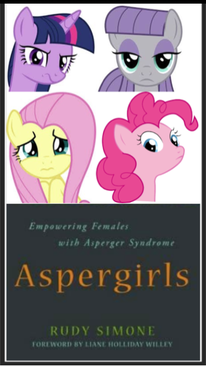
My Little Pony:
Twilight has a mild case of Aspergers. She is obsessive about organizing and list-making. Thinking mainly in words, she reads non-stop. Her day-job is manager of the Public Library, and in her house she has her personal collection of 20,000 books. She constantly over-thinks everything and winds herself up into a panic. She also has Obsessive Personality Disorder.
Pinkie has a bad case of Aspergers. She has zero Empathy, zero Theory of Mind, Idetic Memory, extreme Hyperactivity, and Pragmatic Language Disorder. She is also Manic Depressive.
Fluttershy is Autistic. She has severe Sensory Processing Disorders, and petrifying Panic Attacks. A falling leaf touched her back and she had a panic attack. She saw her own shadow; it looked like a hole in the ground, and as she backed away from it it followed her, so she had a panic attack. She also has severe social anxiety.
Rainbow is also tactless, and has some Aspie-like learning difficulties; she requires Aut-erobics in order to learn (see my review of Aut-erobics).
And Maud is intentionally written as a textbook Asperger, with her Flat Effect, Fixated Subject, fascination with rotation, and is totally a-social.
Also, Princess Luna was in Solitary Confinement long enough to lose her socialization skills. She is very lonely and horribly socially innept.
Starlight Glimmer has Reactive Attachment Disorder, and is thus also socially innept.
This show also includes Derpy who has Strabismus and is Retarded, and Scootaloo who is physically disabled.
And this is where Bronies come from. Most of them have Aspergers Syndrome, or any number of other disabilities, and this is the ultimate Aspie show.
Way better than Big Bang Theory with it’s un-likable childish characters who never grow, the characters in My Little Pony are realistically flawed, in fact they have real-life disorders accurately portrayed, but are also very likable characters. And in every episode they learn a new lesson and grow from it.
Get over the fact the original target audience was 8-year-old girls. My Little Pony is the second best Autism show on TV; second only to Alphas (see my review).
If you do not want to sit through 9 Seasons of My Little Pony, you can watch the single episode I review below, Maud Pie. It epitomises the Autistic aspects of the show.
Watch that and you will probably say, “Oh shit. I think I just became a Brony.”
Also see my reviews of Bronies: The extremely unexpected adult fans of My Little Pony, and Brawny Buck. Moral of the Story.
MLP has the best Autism analogies I have ever seen in my life. These classic characters will last forever. They are the perfect analogies for everything wrong with me. I used to be so much like them:
- I had severe Sensory Processing Disorders, and was thus incapacitated by my hyper-sensitivity, like Fluttershy.
- I would obsessively over-think everything and wind myself up into a panic, like Twilight.
- I would arrogantly over-compensate for my deficiencies, like Rainbow.
- I was hyper-active, and could not refrain from spilling my guts to startled strangers or otherwise being brutally tactless, like Pinkie.
- I was desperately lonely, clueless how to fix it, and thus had an underlying rage about it, like Luna, Starlight, Fluttershy, and Moondancer (see my lecture #22 on Loneliness).
- But I still had that general Flat Effect, blank facial expression, and monotone voice, like a-social Maud.
- Faulty visual processing is my worst Autism symptom, as is Fluttershy's, and I have a brain-injury thet makes me unable to do math, read music, or back up a trailer. These things leave me at least sympathetic to Retarded Strabismus Derpy.
- I am a proud Pegasus, but I cannot fly. Thus I could not help but become neurotic about it, like disabled Scootaloo.
- And I so admire manipulative people like Celestia, for I know I will never be able to figure out how to do it myself. I wish I could, as compensation for what I lack, but I know I would probably become corrupted by it, like Rarity, Chrysalis, Starlight, and Discord.
Ask me why Autistic grown men like My Little Pony.
I do not identify with the irritatingly-childish Sheldon Cooper. And Alphas takes the Autism and exaggerates it to sci-fi extent; which is fun, but not realistic. My Little Pony does everything right concerning Autism.
Here is further elaboration (if I have not yet made my point):
In the first season of MLP, Look Before You Sleep is an episode wherein Twilight realizes what an abnormal childhood she had had because of being recognized as a gifted child so early on, around age 5. She was put in private school as the personal protege of Celestia. All she did was study.
She realizes at the age of 21 thet she missed out on such simple normal things as having a slumber party. So she invites Rarity and Applejack to have a slumber party with her. Applejack is 23 and Rarity is 27, and they do not get along very well. They both show up only because Twilight asked them to.
Twilight has her obsessively-made checklist of specific things one does at a slumber party. She runs Applejack and Rarity through the list, unaware those things were supposed to be vehicles for socialization. She mechanically goes through the motions while Applejack and Rarity bicker bitterly all night long, having a horrible time. Aspie Twilight is completely oblivious they are having a bad time, and totally misses what the point of a slumber party even is.
In the sixth season of MLP, Every Little Thing She Does is an episode wherein Twilight is the one teaching Glimmer how to socialize. Glimmer has RAD.
Twilight gives Glimmer a list of things she can do with each of the Mane Five as vehicles for socialization. But Glimmer completely misses the point and just wants to get through the list because her teacher, Twilight, told her to.
Glimmer, who has exceptional magical powers, has learned to abuse those powers and cast spells to force people to be what she wants them to be. She is forbidden to use her powers that way, but is so insecure about impressing Twilight, she casts a spell on all of the Mane Five, programming them like robots to do what is on the list. She orders them around and forces them to complete each task.
Twilight comes home to find Glimmer has set her house on fire and flooded it at the same time, with the Mane Five programmed zombies mindlessly and mechanically performing the things on the list.
Twilight undoes all Glimmer’s spells and explains thet the things on the list were supposed to be vehicles for socialization.
Glimmer feels ashamed for having once again reverted to her old abusive ways, for having RAD she really does not understand how to interact otherwise.
The Mane Five all have blinding hangovers and are furious with Glimmer for having used them so abusively just to impress Twilight.
Glimmer eventually indiscriminately attaches to Trixie. Trixie is a Sociopath.
Later in Season Six, in the episode No Second Prances, jealous Trixie uses Glimmer’s friendship to try to one-up Twilight, which hurts Glimmer deeply. Trixie is so ashamed of using her friend like that, she tries to kill herself (on screen in a kid's cartoon!).
In the Seventh Season, in the episode All Bottled Up, Glimmer and Trixie have “become friends”, and Glimmer, still having no idea how to actually be a friend, bottles up all her anger toward oblivious exasperating Trixie, who is equally inept at actually being a friend.
Glimmer finally loses her temper, and goes into a rage. Trixie is completely deer in headlights, wondering where all that anger came from.
Trixie, of all people, is the one who eventually helps Glimmer learn how to be an honest friend.
Later, in the Episode A Horse Shoe-in, RAD Glimmer acquires a house-plant, which she names and emotionally bonds with. Trixie throws out the plant, and Glimmer cries.
All that Pony stuff I went through - I am so glad that happened.
I still hate my parents for never teaching me anything. Never helping me, as an Autistic, to make friends nor even understand the simplest lessons like the ones MLP teaches.
Remember Goodbye Horses, wherein Bon-bon realizes her relationship with Lyra the addict is like eating an apple which she never actually swallows. https://www.youtube.com/watch?v=pvm2K5jlIts Goodbye Horses Xaniyo - YouTube.
Me being able to watch that video, and only after seeing it 5 times do I realize Bon-bon is the main character … Why couldn’t anyone sit me down as a child and show me how to recognize that?
The plot is: Bon-bon realizes a relationship with an addict is futile.
Meanwhile, see Andrew Solomon: How the worst moments in our lives make us who we are. This presentation is timeless.
------------------------------------------------------------------------------------------------------------------------------
Twilight has a mild case of Aspergers. She is obsessive about organizing and list-making. Thinking mainly in words, she reads non-stop. Her day-job is manager of the Public Library, and in her house she has her personal collection of 20,000 books. She constantly over-thinks everything and winds herself up into a panic. She also has Obsessive Personality Disorder.
Pinkie has a bad case of Aspergers. She has zero Empathy, zero Theory of Mind, Idetic Memory, extreme Hyperactivity, and Pragmatic Language Disorder. She is also Manic Depressive.
Fluttershy is Autistic. She has severe Sensory Processing Disorders, and petrifying Panic Attacks. A falling leaf touched her back and she had a panic attack. She saw her own shadow; it looked like a hole in the ground, and as she backed away from it it followed her, so she had a panic attack. She also has severe social anxiety.
Rainbow is also tactless, and has some Aspie-like learning difficulties; she requires Aut-erobics in order to learn (see my review of Aut-erobics).
And Maud is intentionally written as a textbook Asperger, with her Flat Effect, Fixated Subject, fascination with rotation, and is totally a-social.
Also, Princess Luna was in Solitary Confinement long enough to lose her socialization skills. She is very lonely and horribly socially innept.
Starlight Glimmer has Reactive Attachment Disorder, and is thus also socially innept.
This show also includes Derpy who has Strabismus and is Retarded, and Scootaloo who is physically disabled.
And this is where Bronies come from. Most of them have Aspergers Syndrome, or any number of other disabilities, and this is the ultimate Aspie show.
Way better than Big Bang Theory with it’s un-likable childish characters who never grow, the characters in My Little Pony are realistically flawed, in fact they have real-life disorders accurately portrayed, but are also very likable characters. And in every episode they learn a new lesson and grow from it.
Get over the fact the original target audience was 8-year-old girls. My Little Pony is the second best Autism show on TV; second only to Alphas (see my review).
If you do not want to sit through 9 Seasons of My Little Pony, you can watch the single episode I review below, Maud Pie. It epitomises the Autistic aspects of the show.
Watch that and you will probably say, “Oh shit. I think I just became a Brony.”
Also see my reviews of Bronies: The extremely unexpected adult fans of My Little Pony, and Brawny Buck. Moral of the Story.
MLP has the best Autism analogies I have ever seen in my life. These classic characters will last forever. They are the perfect analogies for everything wrong with me. I used to be so much like them:
- I had severe Sensory Processing Disorders, and was thus incapacitated by my hyper-sensitivity, like Fluttershy.
- I would obsessively over-think everything and wind myself up into a panic, like Twilight.
- I would arrogantly over-compensate for my deficiencies, like Rainbow.
- I was hyper-active, and could not refrain from spilling my guts to startled strangers or otherwise being brutally tactless, like Pinkie.
- I was desperately lonely, clueless how to fix it, and thus had an underlying rage about it, like Luna, Starlight, Fluttershy, and Moondancer (see my lecture #22 on Loneliness).
- But I still had that general Flat Effect, blank facial expression, and monotone voice, like a-social Maud.
- Faulty visual processing is my worst Autism symptom, as is Fluttershy's, and I have a brain-injury thet makes me unable to do math, read music, or back up a trailer. These things leave me at least sympathetic to Retarded Strabismus Derpy.
- I am a proud Pegasus, but I cannot fly. Thus I could not help but become neurotic about it, like disabled Scootaloo.
- And I so admire manipulative people like Celestia, for I know I will never be able to figure out how to do it myself. I wish I could, as compensation for what I lack, but I know I would probably become corrupted by it, like Rarity, Chrysalis, Starlight, and Discord.
Ask me why Autistic grown men like My Little Pony.
I do not identify with the irritatingly-childish Sheldon Cooper. And Alphas takes the Autism and exaggerates it to sci-fi extent; which is fun, but not realistic. My Little Pony does everything right concerning Autism.
Here is further elaboration (if I have not yet made my point):
In the first season of MLP, Look Before You Sleep is an episode wherein Twilight realizes what an abnormal childhood she had had because of being recognized as a gifted child so early on, around age 5. She was put in private school as the personal protege of Celestia. All she did was study.
She realizes at the age of 21 thet she missed out on such simple normal things as having a slumber party. So she invites Rarity and Applejack to have a slumber party with her. Applejack is 23 and Rarity is 27, and they do not get along very well. They both show up only because Twilight asked them to.
Twilight has her obsessively-made checklist of specific things one does at a slumber party. She runs Applejack and Rarity through the list, unaware those things were supposed to be vehicles for socialization. She mechanically goes through the motions while Applejack and Rarity bicker bitterly all night long, having a horrible time. Aspie Twilight is completely oblivious they are having a bad time, and totally misses what the point of a slumber party even is.
In the sixth season of MLP, Every Little Thing She Does is an episode wherein Twilight is the one teaching Glimmer how to socialize. Glimmer has RAD.
Twilight gives Glimmer a list of things she can do with each of the Mane Five as vehicles for socialization. But Glimmer completely misses the point and just wants to get through the list because her teacher, Twilight, told her to.
Glimmer, who has exceptional magical powers, has learned to abuse those powers and cast spells to force people to be what she wants them to be. She is forbidden to use her powers that way, but is so insecure about impressing Twilight, she casts a spell on all of the Mane Five, programming them like robots to do what is on the list. She orders them around and forces them to complete each task.
Twilight comes home to find Glimmer has set her house on fire and flooded it at the same time, with the Mane Five programmed zombies mindlessly and mechanically performing the things on the list.
Twilight undoes all Glimmer’s spells and explains thet the things on the list were supposed to be vehicles for socialization.
Glimmer feels ashamed for having once again reverted to her old abusive ways, for having RAD she really does not understand how to interact otherwise.
The Mane Five all have blinding hangovers and are furious with Glimmer for having used them so abusively just to impress Twilight.
Glimmer eventually indiscriminately attaches to Trixie. Trixie is a Sociopath.
Later in Season Six, in the episode No Second Prances, jealous Trixie uses Glimmer’s friendship to try to one-up Twilight, which hurts Glimmer deeply. Trixie is so ashamed of using her friend like that, she tries to kill herself (on screen in a kid's cartoon!).
In the Seventh Season, in the episode All Bottled Up, Glimmer and Trixie have “become friends”, and Glimmer, still having no idea how to actually be a friend, bottles up all her anger toward oblivious exasperating Trixie, who is equally inept at actually being a friend.
Glimmer finally loses her temper, and goes into a rage. Trixie is completely deer in headlights, wondering where all that anger came from.
Trixie, of all people, is the one who eventually helps Glimmer learn how to be an honest friend.
Later, in the Episode A Horse Shoe-in, RAD Glimmer acquires a house-plant, which she names and emotionally bonds with. Trixie throws out the plant, and Glimmer cries.
All that Pony stuff I went through - I am so glad that happened.
I still hate my parents for never teaching me anything. Never helping me, as an Autistic, to make friends nor even understand the simplest lessons like the ones MLP teaches.
Remember Goodbye Horses, wherein Bon-bon realizes her relationship with Lyra the addict is like eating an apple which she never actually swallows. https://www.youtube.com/watch?v=pvm2K5jlIts Goodbye Horses Xaniyo - YouTube.
Me being able to watch that video, and only after seeing it 5 times do I realize Bon-bon is the main character … Why couldn’t anyone sit me down as a child and show me how to recognize that?
The plot is: Bon-bon realizes a relationship with an addict is futile.
Meanwhile, see Andrew Solomon: How the worst moments in our lives make us who we are. This presentation is timeless.
------------------------------------------------------------------------------------------------------------------------------
In the My Little Pony: Friendship Is Magic TV show (Season 4, Episode 18), they introduce a character named Maud Pie. She is clearly intentionally written as an Aspergirl.
Basically Daria on tranquilizers, she is a very entertaining portrayal of an Aspie, especially since her sister is Pinkie Pie!
Pinkie introduces her to the other members of The Mane 6, certain they will all become instant best friends. But Maud is so detached and a-social, their every attempt to connect with her falls flat.
Her Fixated Subject is rocks (in fact she is studying to get a Doctorate in Rock Science), and thus she only interacts with others through rocks, which of course leaves everyone at a loss, in fact wondering what rock she just crawled out from under.
Twilight tries to interact with her through their shared love of poetry, but Maud only reads her own poetry, all of which (literally thousands) are only about rocks. This leaves the usually very empathetic Twilight feeling bewildered.
Rainbow tries to connect with her through some friendly athletic competition, but Maud says she is not into winning, which makes the intensely-competative Rainbow gasp.
Similar attempts from all the others to befriend her fail just as notably.
Basically Daria on tranquilizers, she is a very entertaining portrayal of an Aspie, especially since her sister is Pinkie Pie!
Pinkie introduces her to the other members of The Mane 6, certain they will all become instant best friends. But Maud is so detached and a-social, their every attempt to connect with her falls flat.
Her Fixated Subject is rocks (in fact she is studying to get a Doctorate in Rock Science), and thus she only interacts with others through rocks, which of course leaves everyone at a loss, in fact wondering what rock she just crawled out from under.
Twilight tries to interact with her through their shared love of poetry, but Maud only reads her own poetry, all of which (literally thousands) are only about rocks. This leaves the usually very empathetic Twilight feeling bewildered.
Rainbow tries to connect with her through some friendly athletic competition, but Maud says she is not into winning, which makes the intensely-competative Rainbow gasp.
Similar attempts from all the others to befriend her fail just as notably.

Oblivious Pinkie continues to believe they all now love Maud as much as she does. They finally confess to her thet some people are just too difficult to make friends with. This of course hits Pinkie like a bucket of water.
Through 4 seasons of this show we have come to understand thet Pinkie is Manic/Depressive, and thus to keep from bottoming-out in despair she must intentionally be irritatingly perky, high on sugar, and frenetic in her attempts to keep her own spirits up.
Her disappointment over her friends not being able to connect with Maud is thus over-compensated for with her spontaneous creation of an amusement park, hoping they can all at least have fun playing together with Maud, even if they are not able to become actual friends.
The park packages all of her friends' interests together, but does so in a way thet clearly demonstrates Pinkie's utter lack in Theory of Mind.
The amusement park is a disaster, built in a panic over-night by a Manic/Depressive person, and Pinkie almost gets killed by her own invention.
Maud saves Pinkie's life in a very unexpected way, astonishing all the others with her 1 peculiar Aspie talent.
Through 4 seasons of this show we have come to understand thet Pinkie is Manic/Depressive, and thus to keep from bottoming-out in despair she must intentionally be irritatingly perky, high on sugar, and frenetic in her attempts to keep her own spirits up.
Her disappointment over her friends not being able to connect with Maud is thus over-compensated for with her spontaneous creation of an amusement park, hoping they can all at least have fun playing together with Maud, even if they are not able to become actual friends.
The park packages all of her friends' interests together, but does so in a way thet clearly demonstrates Pinkie's utter lack in Theory of Mind.
The amusement park is a disaster, built in a panic over-night by a Manic/Depressive person, and Pinkie almost gets killed by her own invention.
Maud saves Pinkie's life in a very unexpected way, astonishing all the others with her 1 peculiar Aspie talent.
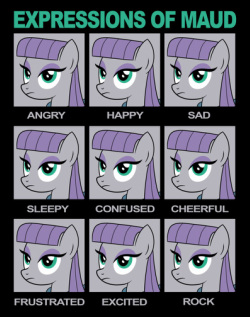
Then Maud excuses herself from the group, telling Pinkie she thinks it is pointless to try to make friends.
Pinkie's friends are left feeling very disappointed, both in themselves and the whole situation.
Then they realize they do in fact have something in common with Maud: All of them care deeply about Pinkie. Thus they do bond (even if slightly) over that 1 thing.
Maud is glad Pinkie has such good friends, but has no interest in having any herself. Everyone involved accepts this.
Pinkie and Maud yearly exchange rock-candy necklaces as an expression of their affection for each other.
In the closing scene we discover Maud never eats any of those necklaces, because she does not like candy, but she still treasures them because they are an expression of the love she and Pinkie feel for each other.
The End.
Temple Grandin said she gets her socialization through shared interests, not by bonding with people directly. This is also clearly the case with Maud and her rocks. She only interacts with people through her rocks, and they can only interact with her through her rocks.
Pinkie's friends are left feeling very disappointed, both in themselves and the whole situation.
Then they realize they do in fact have something in common with Maud: All of them care deeply about Pinkie. Thus they do bond (even if slightly) over that 1 thing.
Maud is glad Pinkie has such good friends, but has no interest in having any herself. Everyone involved accepts this.
Pinkie and Maud yearly exchange rock-candy necklaces as an expression of their affection for each other.
In the closing scene we discover Maud never eats any of those necklaces, because she does not like candy, but she still treasures them because they are an expression of the love she and Pinkie feel for each other.
The End.
Temple Grandin said she gets her socialization through shared interests, not by bonding with people directly. This is also clearly the case with Maud and her rocks. She only interacts with people through her rocks, and they can only interact with her through her rocks.

And even with Maud and Pinkie; Maud expresses her affection for Pinkie by giving her candy necklaces rather than by more open expressions of affection like a normal person would. In turn, she treasures the necklaces she gets from Pinkie, even though she has no interest in eating them.
This bonding with inanimate objects rather than people is classic Autistic behavior, and Pinkie has learned how to use that as a vehicle with which to express her love for Maud.
Let us hope the producers of My Little Pony continue to cultivate this accurate portrayal of an Aspie character, and her Autistic interactions with her family. They owe it to us after The Derpy Fiasco (See my Autism Lecture #16, My Take On Derpy Hooves).
This bonding with inanimate objects rather than people is classic Autistic behavior, and Pinkie has learned how to use that as a vehicle with which to express her love for Maud.
Let us hope the producers of My Little Pony continue to cultivate this accurate portrayal of an Aspie character, and her Autistic interactions with her family. They owe it to us after The Derpy Fiasco (See my Autism Lecture #16, My Take On Derpy Hooves).
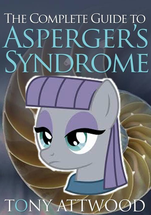
There is another Maud episode,The Gift of the Maud Pie (Season 6, episode 3) wherein Pinkie makes a ridiculous sacrifice to acquire a gift for Maud, but Maud does not see the logic in it so she refuses to accept her gift. This is very Aspergian of her, rejecting the social convention of gift-giving in favor of emotionally-detached logic.
Another excellent episode is Filli Vanilli, wherein Autistic Fluttershy gets so sensorily over-stimulated her senses erase out completely. Then Autistic Pinkie tries to comfort her with a flame-thrower. I put my hands over my eyes and said, "Oh dear God. Pinkie. Please shut up." It is a horror-show of realistic Autism.
Another great Autism episide is Dragon Shy (see my review below).
------------------------------------------------------------------------------------------------------------------------------
Another excellent episode is Filli Vanilli, wherein Autistic Fluttershy gets so sensorily over-stimulated her senses erase out completely. Then Autistic Pinkie tries to comfort her with a flame-thrower. I put my hands over my eyes and said, "Oh dear God. Pinkie. Please shut up." It is a horror-show of realistic Autism.
Another great Autism episide is Dragon Shy (see my review below).
------------------------------------------------------------------------------------------------------------------------------
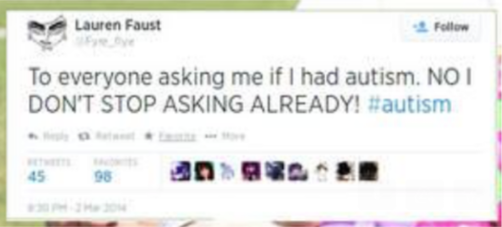
Why My Little Pony - Friendship Is Magic is the best Autism show.
Lauren J. Faust (born July 25, 1974) is an American Animator, Writer, Voice Director, and Storyboard Artist, best known as the creator of the animated series My Little Pony: Friendship Is Magic.
Faust has collaborated with her husband Craig McCracken on the animated series The Powerpuff Girls, Foster's Home for Imaginary Friends, Wander Over Yonder, and Kid Cosmic. Faust developed the 2019 television series DC Super Hero Girls, and as of 2021, she is developing an unannounced animated series for Netflix.
She was also Executive Producer, Writer, Character Designer, Creative Director, Story Supervisor, and Story Editor for My Little Pony - Friendship Is Magic, Season 1.
MLP was originally The Lauren Faust show.
By the end of the 9th and final season, the series had included five Autistic characters.
This is so obvious, Lauren is often asked about it:
Lauren J. Faust (born July 25, 1974) is an American Animator, Writer, Voice Director, and Storyboard Artist, best known as the creator of the animated series My Little Pony: Friendship Is Magic.
Faust has collaborated with her husband Craig McCracken on the animated series The Powerpuff Girls, Foster's Home for Imaginary Friends, Wander Over Yonder, and Kid Cosmic. Faust developed the 2019 television series DC Super Hero Girls, and as of 2021, she is developing an unannounced animated series for Netflix.
She was also Executive Producer, Writer, Character Designer, Creative Director, Story Supervisor, and Story Editor for My Little Pony - Friendship Is Magic, Season 1.
MLP was originally The Lauren Faust show.
By the end of the 9th and final season, the series had included five Autistic characters.
This is so obvious, Lauren is often asked about it:
Most of the fans of this show, called Bronies, have Asperger’s Syndrome, and that is why they like this show.
And though it is considered a kid’s cartoon, the main six characters are between the ages of 18 and 30, thus the plots involve subjects for that age range, presented in a way people of all ages can understand and enjoy; i.e., If you think grown men who like MLP are pathetic, you are wrong.
Here I am reviewing the first 2 Seasons. I only list those Episodes with Autism themes specifically.
SEASON ONE.
Episode 1:
Friendship Is Magic. Part 1.
Written by Lauren Faust.
On the planet of Equestria, where ponies are the Alpha Species, Princess Celestia controls the Sun, and Princess Luna controls the Moon.
Luna becomes jealous thet their subjects sleep through the night while enjoying the days. She actually starts a fight with Celestia over it, and Celestia banishes Luna to the moon. She does this with the power of The Elements of Harmony.
Legend has it thet Luna will return with a vengeance in exactly 1,000 years, as the wicked mare of darkness, Nightmare Moon, and bring about everlasting night!
1,000 years later we meet Twilight Sparkle. She lives in the Capital city of Canterlot, apparently with, or at least as the protege´ of, Celestia.
Twilight discovers the legend of Nightmare Moon, and realizes the up-coming Summer Sun Celebration will happen at the end of the 1,000th year - to the day.
She becomes obsessive about this possible disaster, and tries to discover what the Elements of Harmony even are, assuming they can possibly be used to defend Equestria from Nightmare Moon.
Twilight is in college, and spends all of her time in the library obsessively reading.
Fellow students invite her to a party, and she outright runs away.
Princess Celestia sends Twilight to the small town of Ponyville to organize the Summer Sun Celebration.
She is also given a 2nd mission of making some friends, to which Twilight groans at the thought.
Once in Ponyville, Twilight meets five other Ponies who already have their assignments contributing to the Summer Sun Celebration: Rainbow, Applejack, Pinkie, Fluttershy, and Rarity.
Twilight checks with each of them to see how arrangements are going.
All through these meetings it is obvious she does not like interacting with anyone at all, but politely does her duty.
Simply overhearing others making friends through conversation irritates Twilight greatly. "I just need to be alone so I can study without a bunch of crazy ponies trying to make friends all the time."
She arrives at her new abode, the Public Library, and there Pinkie has thrown a surprise welcoming party.
(At 17:20 we see a grey pony with crooked eyes. This will become the infamous "Derpy"; more on her later.)
Meanwhile Pinkie has zero Empathy and zero Theory of Mind, being irritatingly perky and "friendly" while oblivious to Twilight’s scowling discomfort.
Under-stimulated Pinkie eats cupcakes drenched in hot sauce. (Pinkie and Cupcakes.)
1 minute into the party, Twilight runs to her bedroom and cringes with her head under a pillow. "Here I thought I would have time to learn more about the Elements of Harmony. But all this ridiculous friend-making has kept me from it!" She is actually angered by this forced socialization.
The night passes, and the The Summer Sun Celebration is to start with Celestia raising the sun. But Celestia is mysteriously absent. Luna has in fact returned as Nightmare Moon!
Everyone is afraid because they practically worship Celestia, and have no clue who Nightmare Moon is.
Nightmare Moon introduces herself, rubbing their faces in the fact they have been so foolish as to forget their past, thus forgetting her.
Everyone is very frightened, mainly because they have no idea what is going on.
Everyone but Pinkie, who is again so lacking in Theory of Mind, she does not recognize everyone else is trembling in fear.
Twilight is the only one who saw this coming.
Autism aspect:
Twilight has no friends nor understanding of why she should want any. If anyone tries to befriend her she runs away in anxiety or even anger.
Pinkie is hyperactive, has zero Empathy, and zero Theory of Mind.
See the Parody: Dawn Somewhere. Mentally Advanced Series. Episode 19.
Episode 2:
Friendship Is Magic. Part 2.
Written by Lauren Faust.
Twilight finally finds a book thet explains what the Elements of Harmony are. There are supposedly 6 Elements: Loyalty, Laughter, Honesty, Generosity, and Kindness. The missing 6th Element is unknown.
These Elements were last thought to reside in the ancient ruins of The Castle of the Sisters, which is in the Everfree Forest.
Ponies are afraid of the Forest.
Rainbow, Applejack, Fluttershy, Pinkie, and Rarity recognize Twilight is apparently the only one who knows what is going on concerning Nightmare Moon.
Applejack is obviously the Alpha of the group.
Twilight says she is attempting this mission on her own, but Applejack says "We sure ain’t letting any friend of ours go into that creepy place alone."
Twilight winces (almost with a resentful sneer) at Applejack referring to her as a "friend of ours."
Applejack says they are going to stick to her like caramel on a candy apple.
Pinkie totally misses the meaning of this analogy and hopes there really will be candy apples in the forest … everyone is afraid of.
So they collectively set out on a mission to find the Elements, led by Applejack.
Twilight again groans at the thought of having to tolerate others, but she follows them into the forest with an exhausted sigh.
On their journey they meet 5 challenges, but each of the ponies in turn fix each problem, all demonstrating their personal strengths - during which Pinkie sings a silly disjointed song.
They make it to the castle ruins where they find the Elements of Harmony, which are 5 stone spheres with runes carved into them.
Nightmare Moon is there, and she recognizes Twilight has the magical power to awaken the energy of the stones, so she smashes them.
The other five ponies come running to Twilight’s aid, and that is when Twilight recognizes the personality strengths they each demonstrated earlier in facing the challenges are the real life Elements of Harmony.
As Twilight realizes they really are her friends, collectively they awaken the missing Element, the Element of Magic, in Twilight.
She goes God Mode and destroys Nightmare Moon with a rainbow blast of light.
Then Celestia shows up and explains thet she knew all along Twilight had that amount of magical ability, but she could not manifest it fully until she allowed true friendship into her heart. That is why Celestia gave Twilight the mission of making friends.
With Nightmare Moon defeated, all thet is left of her is the original Luna. Celestia freely forgives Luna, and they make up.
Then Celestia gives Twilight a new mission, to study and become an expert on the magic of friendship, and to reside permanently in Ponyville so she can stay with her new (and first) friends.
Autism aspect:
We see Twilight’s strong aversion to any form of socialization, her fixating on certain subjects, her love of reading, and her obsessiveness.
Also, Pinkie’s obliviousness to other peoples' feelings, failure to recognize the emotional vibe of any situation, taking analogies literal, thoughtless impulsivity, and hyperactivity.
The show uses music to accent the facial expressions, denoting each of the points I just made; i.e., poking us in the ribs with a jolt of music to make sure we get the point: These characters are Autistic!
Mistake:
Apparently, Celestia knew the other five ponies were the Elements of Harmony, and thus gave them their roles to perform in the Summer Sun Celebration, knowing Twilight would then be forced to befreind them. The writers did not make this clear.
Parody: Dawn Somewhere. Mentally Advanced Series. Episode 20.
Episode 3:
The Ticket Master.
Written by Amy Keating Rogers and Lauren Faust.
Part I of The Gala Trilogy.
Later we will find thet Amy Keating Rogers has a Retarded child, referred to by her as "severely disabled."
She will go on to write several episodes about disabilities.
Twilight receives 2 tickets to the Gala. This is a by invitation only Royal Event.
She is very excited, as is Applejack who happened to be present when the message arrived.
Applejack immediately invites herself, excited about the potential amount of business she could drum up for her apple farm by setting up an apple-based food-stand at the Gala.
Rainbow overhears their conversation and elbows her way into it. Demanding she get the ticket because she wants to meet The Wonderbolts stunt-flying team who will be performing there.
Narcissistic Rainbow demands she get the ticket, and she and Applejack start to fight over it, culminating in an arm-wrestling match.
Twilight reminds them they are her tickets and she will decide who gets 1.
After she excuses herself to go eat lunch, Rainbow and Applejack resume their arm-wrestling; Applejack out of stubbornness, Rainbow out of competitiveness.
Twilight is physically run into by hyperactive Pinkie, who also immediately invites herself to the Gala, claiming the ticket for herself.
Again Pinkie sings a silly disjointed song, this time revealing her scatterbrained-I-mean-Idetic Memory.
Her reason for wanting to go to the Gala is because it will be so very very stimulating, including all the sugary food she can eat there.
Then Rarity appears, and expounds in her vanity the reasons she should get the ticket. She wants to wow the Royalty with how stylish and elegant she is, which will lead her to seducing the Prince, marrying him, and becoming a Princess herself.
Then Fluttershy shows up and explains thet she does not really want to go to the Gala, she just wants to visit the Royal Gardens which are filled with exotic animals she loves.
They all very selfishly start fighting over the ticket.
Twilight finally loses her patients, and shouts at them to all go away and leave her alone.
Twilight goes to a restaurant to eat, where she starts to overthink everything and wind herself up.
A rainstorm erupts. Rainbow, a Pegasus (the Pegasi control the weather), clears a small spot in the clouds so it rains everywhere but on Twilight.
Twilight recognizes Rainbow is showing her favoritism, but Rainbow denies it, while referring to Twilight as "my best friend forever", and "the smartest, most generous pony."
Then Rarity drags Twilight away, and forcibly gives her a make-over, demonstrating how fashionably glamorous she will be at the Gala.
And of course Rarity made an identical outfit for herself. Then gloats about how she would be the most glamorous of all.
Each one’s manipulation is more obvious than the last.
Twilight basically tells Rarity to shove it, actually throwing the clothes at her. But before she can even leave Rarity’s shop, Applejack shows up, presenting Twilight with the most wondrous foods she can make.
By now Twilight is not only losing her patients, but actually her temper. She runs away in exasperation.
Arriving home she finds Fluttershy in her house, cleaning it for her. Fluttershy is the only one who humbly admits she is only doing it for the ticket. But she is still being as manipulative as the others.
Twilight asks Fluttershy to leave, and before she even can, Pinkie shows up again, stating point blank that she is going to get that ticket.
The bombastic Pinkie draws so much attention, a dozen other random ponies overhear it and all start trying to manipulate Twilight out of the ticket too.
A rendition of The Benny Hill chase scene music plays as Twilight runs away in a panic.
During the chase Twilight is eventually trapped in an alley as dozens of greedy ponies surround her.
She uses her magic to teleport out of there.
Only Alicorns (Celestia and Luna) can teleport. Twilight, a mere Unicorn, is startled thet teleportation even happened. She did not know her own magic was that powerful.
She teleported herself to her own house, where The Mane Five (Applejack, Rainbow, Pinkie, Fluttershy, and Rarity) are waiting to further their manipulation.
Twilight actually screams in frustration.
Only then do they realize how much pressure they had been putting on her, so they all apologize, and even refuse the ticket.
Twilight then writes a letter to Celestia saying, "One of the joys of friendship is sharing your blessings. But when there are not enough blessings to go around, having more than your friends have can make you feel awful. So I am returning my tickets."
The other five gasp.
Twilight says, "If my friends cannot go, I do not want to go either."
Celestia immediately sends a reply, saying, "Why didn’t you say so in the first place?" The letter includes 6 tickets.
Autism aspect:
Pinkie’s Idetic Memory; i.e., the ability to absorb and retain information indiscriminately, without storing it in any specific order. When singing her silly song listing all the sugary foods she can eat, she interjects the word "pin-cushion", thus demonstrating how disorganized her memory processing is.
Twilight is very frustrated by having to interact with anyone, in this episode actually screaming in exasperation.
Parody: Dawn Somewhere. Mentally Advanced Series. Episode 1.
Episode 4:
Applebuck Season.
Written by Amy Keating Rogers.
The apple farm is owned by the Apple family, lead by Applejack. It is harvest time, and she and her older brother, Big Mac, usually do all the work.
He has apparently broken a rib, so Applejack must do all the harvesting on her own.
He tells her she is biting off more than she can chew, but she is intensely stubborn and insists she can do it.
Out of nowhere, cows stampede. Every pony is running to get out of the way, but Pinkie thinks the excitement is fun, again demonstrating her utter lack in Theory of Mind and obliviousness to what is going on emotionally with others around her, who are literally panicking.
Applejack single-hoofedly saves the day by redirecting the stampede.
The townspeople are so grateful for her heroics thet they hold a special event, giving her a trophy of appreciation.
During this presentation we learn she is also planning to help out Rainbow, Pinkie, and Fluttershy with their own projects this week.
Applejack stayed up all night harvesting apples, and is thus late to the award ceremony.
She shows up so utterly exhausted she can barely function.
Each of the Mane Five recognize she is a mess, but Pinkie fails to notice, again showing zero empathy.
Twilight recognizes thet if Pinkie thinks everything is fine, that probably means something is wrong.
Twilight teleports intentionally.
She tells Applejack she needs help, but Applejack very stubbornly refuses. She continues to harvest apples alone, nearly in a zombified state of exhaustion.
Then she goes to help Rainbow, and almost accidentally kills Rainbow in the process. This is not entirely her fault, Rainbow is stupid, but Applejack is so exhausted she cannot see the obvious stupidity in what Rainbow is asking of her.
Rainbow tells Twilight of the Applejack mis-hap.
Twilight again tells Applejack she needs help, literally yelling at her this time. But she again refuses help.
Then still without sleep for apparently 2 days straight, she goes to help Pinkie the Baker.
Many ponies show up at the bakery in anticipation for the new batch of baked goods. (During which Derpy speaks her first word in the show, "Muffins.")
In the process Applejack accidentally poisons the cupcakes. Dozens of ponies get sick and some even end up in the hospital. (Pinkie and cupcakes.)
Then Applejack returns to harvesting apples, apparently on her 3rd day without sleep.
Then she goes to help zoologist Fluttershy with the rabbit census. By now Applejack is running on pure adrenalin, and accidentally creates a rabbit stampede.
The stampeding rabbits run straight into town devouring all their crops.
Twilight has had enough, and goes to force Applejack to accept help.
She refuses, and continues to work herself … unconscious. Only after that does she admit she needs, and accepts, help.
Later in the series we find out why she is so stubbornly martyr-like in her workaholic behavior.
Autism aspect:
Zero empathy Pinkie is oblivious thet Applejack is tired, and oblivious to everything else too, concerning how others feel.
Parody: Dawn Somewhere. Mentally Advanced Series. Episode 2.
Episode 7.
Dragon Shy.
Written by Meghan McCarthy.
A Dragon takes a nap in a cave overlooking Ponyville, filling the valley with snoring smoke. The Mane Six have to go get it to leave.
Animal expert Fluttershy is afraid of dragons, so she asks to be left out of the mission. No one listens to her, and so she is dragged into it.
This is the episode wherein Fluttershy first demonstrates her Autistic visual processing disorder: She sees her own shadow, and apparently to her it looks like a hole in the ground. She backs away from it and it follows her, so she has a panic-attack.
As they approach the mountain the dragon is sleeping in, Fluttershy gets more and more scared. She just cannot do it.
The others think it is the climb being too steep thet is holding her back. So they say "You are a Pegasus. Just fly."
She tries to keep up with them, but the dragon makes a noise, and she becomes so frightened her wings freeze up and she crashes. She then hears another dragon sound, and her whole body freezes in panic. This suggests she may also have an audio processing disorder.
Eventually she comes out of it and continues the journey, but she is acting so pathetic. A falling leaf touches her back and she panics again, thus apparently demonstrating her touch processing disorder.
They get to the cave, and each try a different technique to try to get the dragon to leave. He just becomes irritated with them all, and roars a blast of smoke. It knocks them all into a battered pile of defeat.
That is when Fluttershy musters the courage to confront him. Seeing her friends in danger, she overcomes her fear out of loyalty to them. She alone talks the dragon into leaving - giving him an angry lecture.
This proves thet Fluttershy was not a pathetic weakling, she was just legitimately afraid of something thet could potentially eat her.
Autistic aspect:
The assorted things thet gave Fluttershy panic-attacks. It was not necessarily her visual, audio, nor touch processing disorders thet gave her the attack. She was already frightened enough thet seeing her shadow, hearing a strange sound, or even feeling the touch of a leaf was the last straw thet pushed her over the edge.
I believe she is Autistic. But this is an example of why Autistics sometimes have outright rage-attack/meltdowns for no apparent reason. The attack was not necessarily caused by that last straw. There were already a dozen other overstimulating things thet had them on the edge.
This episode presents a good example of that.
She has a sight disorder, a hearing disorder, and a touch disorder. But none of those were a problem until after she became overstimulated by her fear of dragons.
Light is my dragon. I mean I get so easily overstimulated by light thet the slightest noise will be the last straw and I over-react to the noise, as Fluttershy overreacted.
Also Pinkie’s Idetic Memory and ubiquitous Hyperactivity.
Parody: Dawn Somewhere. Mentally Advanced Series. Episode 5.
Episode 8.
Look Before You Sleep.
Written by Charlotte Fullerton.
Applejack, the plain-jane farm girl, and Rarity, the prissy prima donna, do not get along. They both get caught in a lightening storm and thus have to take shelter in the Library, which is Twilight’s home.
The storm gets bad enough thet they have to stay all night.
Twilight decides this will be the perfect excuse to have a slumber party.
Over several future episodes we see how much Aspergirl Twilight missed out on. She was recognized as a gifted child very early in life, and thus spent the majority of her youth in special schools for gifted children. She did not have a normal childhood which would have included such simple things as a slumber party.
But she has of course read books on the subject. So tonight "We will do everything by the book. And that will make my slumber party officially fun."
Applejack and Rarity continue to bicker all night long, while Twilight mechanically runs them through her check-list of things you are supposed to do at a slumber party.
Autism aspect:
They continue to bicker, and Twilight continues to be apparently oblivious. This further demonstrates her remaining social cluelessness; i.e., the list of things you do at a slumber party are supposed to be vehicles for socialization. Aspergirl Twilight totally misses that.
Parody: Dawn Somewhere. Mentally Advanced Series. Episode 6.
Episode 11.
Winter Wrap-up.
Written by Cindy Morrow.
In Equestria the seasons have to be changed with magic. Everywhere but Ponyville, which still uses the traditional manual method. Each of the races (Unicorn, Pegasus, and Earth Pony) have their own responsibilities during this event.
Canterlot native Twilight is so unfamiliar with the Ponyville way of doing things, she just cannot find her place in the system. She tries on every job, but is awful at all of them.
Then she realizes her obsessive organizing skills can help keep all the teams on schedule.
Hurray for Aspies.
Parody: Dawn Somewhere. Mentally Advanced Series. Episode 9.
Also see Discontinued Channel. Winter’s F***ed Up (Winter Wrap Up Parody)
Episode 12.
Call of the Cutie.
Written by Meghan McCarthy.
All post-pubescent ponies have a mark on their butt called a Cutie Mark. This episode explains what that is and how they acquire them.
Exposition is presented as a school-teacher’s lecture to a class of 8-year-olds.
In Episode 9 we were introduced to Apple Bloom. She is the main character in this episode. She is one of the few kids in her class who has not gotten their Mark yet.
The Mark will appear when one realizes their destiny, but 8-year-old Apple Bloom cannot wait. So she tries to provoke it.
Applejack tells her getting the Mark late runs in their family, and not to worry about it. You will be just as proud to get yours as anyone else, no matter if you get it early or late.
Unfortunately Apple Bloom is as stubborn as her sister.
Also unfortunately she meets up with stupid Rainbow, who tells her, in order to get your Mark early you have to try as many things as possible, thus possibly provoking it.
That is not how it works, but Apple Bloom wants it so bad she believes her own stubbornness is justified.
The reason she wants it now is because she was invited to a party wherein everyone but her will have their mark. She simply does not want to be left out.
The party is thrown by Diamond Tiara, a very snotty bully.
This is the first episode thet is made for 8-year-olds. As such I am bored.
But it is interesting to see the animation style used for Apple Bloom. She is the first child character we get to watch for any length of time. Her body type, thus movement style, is so different from the adult ponies. As an amateur animator I am fascinated by, or at least interested in, this.
Rainbow drills Apple Bloom with every athletic challenge she can think of, but Apple Bloom is bad at all of them … because she is 8.
She gives up working with Coach Rainbow.
Pinkie shows up and convinces her to help her make cupcakes (Pinkie and cupcakes).
Apple Bloom works very hard all day working in the bakery but she is bad at that too … because she is 8.
At the party Apple Bloom meets 2 other 8-year-olds, Scootaloo and Sweetie Belle, neither of whom have a mark. They decide to form a club consisting only of "blank flanks", and help each other learn what their destinies are.
They call themselves The Cutie Mark Crusaders.
From this point on, fans of the show refer to them as "The CMC."
Moral of the story: The thing you thought made you an outcast might be the very vehicle for new friendships.
This was very cute, specifically for 8-year-olds.
Autism aspect:
Under-stimulated Pinkie eats a burnt cupcake, apparently oblivious it tastes like charcoal and is flaming hot.
Parody: Dawn Somewhere. Mentally Advanced Series. Episode 10.
Episode 13.
Fall Weather Friends.
Written by Amy Keating Rogers.
Rainbow and Applejack are both very competitive, especially with each other; Rainbow out of arrogance, Applejack out of stubbornness.
They decide to do an Iron Pony competition to prove once and for all who is the best.
So Rainbow wins the competition, by cheating, using her wings.
The following day is The Running of the Leaves, another ritual in which the ponies manually change the seasons. This time running in a herd through the forest to make the Autumn leaves fall.
Applejack challenges Rainbow to a race amid The Running of the Leaves event, no wings allowed.
Rainbow accepts the challenge, and even allows her wings to be tied down to keep her from cheating.
While all the Earth Ponies prepare for the ritual, Unicorn Twilight joins these two in their race.
They both laugh at her, believing the studious book nerd could not even know how to run. Twilight assures them she is qualified because she has read several books on the subject. She also says since she is not familiar with Earth Pony traditions she wants to experience this event for herself, and race besides.
Pinkie follows the racers’ progress in a hot air balloon, and is the official announcer for the race. She is the judge which rhymes with fudge which will cause a pudge so she cannot budge. This random accessing of disjointed associations is called Idetic Memory, a symptom of Autism, and is common with Pinkie; she interjecting this commentary into the race announcements.
Rainbow falls behind, and blames Applejack of cheating, which she determines should justify her own cheating.
Meanwhile Pinkie continues to comment on the race, interjecting more unrelated ramblings about food.
Applejack and Rainbow get so caught up in trying to out-do each others’ cheating thet they end up coming in dead last in the race. Twilight actually beats them both.
Mistake:
The Running of the Leaves is not a race. Only Applejack and Rainbow were racing each other, with Twilight joining in just for fun.
The story ends with Twilight coming in 5th place, when there were actually only 3 ponies racing. All the others, the entire population of Ponyville, were just running in a group, far behind the racers.
Pegasus Rainbow defies the laws of physics. Only Earth Ponies can do that.
Autism aspect:
Pinkie’s Idetic Memory, and Twilight’s belief thet, though she has no actual experience, since she has read a book on the subject that makes her qualified.
Parody: Dawn Somewhere. Mentally Advanced Series. Episode 11.
Episode 14.
Suited for Success.
Written by Charolette Fullerton.
Part 2 of The Gala Trilogy.
Rarity volunteers to make special dresses for each of the Mane Five to wear to the Gala.
She gets very excited, mixing her generosity she is very proud of with the chance to show off her wears to The Elite who will be present at the Gala.
This is a typically adult Rarity episode about business relationships, in which each of the Mane Five become their own unique pain in the butt for her as customers.
Rarity, a master at her craft, designs each dress "to perfectly reflect the personality of the wearer", without any input from them. She is actually profoundly good at this, but when they see the finished product, they all … "had something else in mind."
Rarity is very surprised, but intent on making them exactly what they want.
She re-designs every dress.
Then she calls in Fluttershy for the grand reveal. Fluttershy knows a bit about fashion, and runs off a long list of reasons this dress is not right.
Rarity is shocked thet Flutters knew any thing about fashion at all, but her criticisms were justified.
The point is she thinks because she knows a little bit about the subject that means she can talk to Rarity on her level about it, in this case actually talking down to Rarity.
So Rarity asks the others to give her specific requests in advance so she can make exactly what the customer wants.
1) Obsessive organizer Twilight is the overly specific customer who wants to micro-manage every detail.
2) Fluttershy returns with a drawing she made herself, asking too much of Rarity.
3) Rainbow is not satisfied but cannot articulate what she wants. She is the "I will know it when I see it/I do not know what I want, but that is not it" type of customer, leaving Rarity to guess and check and guess and check.
4) Ridiculously pragmatic Applejack wants fashionable rubber boots to go with her formal dress in case it rains.
5) Pinkie is such an impulsive scatterbrain, she makes dozens of demands most of which contradict each other.
Rarity is driven to a frazzle making exactly what the customer asked for, but ends up saying to herself, "These are the ugliest dresses I have ever made." Even her cat is disgusted.
She is so intent on making what the customer wants, and pleasing her personal friends, thet she now has a product she does not want the public to see, afraid it might actually harm her reputation as a master dress-maker.
For Rarity this emotional struggle is as hard as the physical work.
Then Hoity Toity, a fashion expert and apparently fashion distributor, calls for a formal showing at Rarity’s boutique, specifically to see her latest designs he has heard so much about.
Rarity is horrified, and experiences the cartoon cliche of her lower eyelid twitching as she is just about to snap.
She puts on the show for him anyway.
This episode introduces Vinyl Scratch, the mute DJ who provides the music for Rarity’s show. She also always wears very dark glasses. Is she a non-verbal Autistic with Irlen Lenses?
The entire population of Ponyville shows up for the show too, and are all horrified by the awful designs.
Hoity Toity says, "These are the ugliest things I have ever seen. Oh, for shame. Who is responsible for subjecting our eyes to these horrors?"
Rarity has a Drama Queen meltdown.
The other five recognize this was their fault.
Having spent most of her time making dresses for the others, Rarity never finished her own dress. But due to her knowledge of sewing, Fluttershy gathers the others together, and they all finish Rarity’s dress for her.
In the process they recognize what a brilliant design Rarity’s dress was. Thus they accept they should have allowed Rarity full creative control on their own dresses, which is what she had with the very first ones.
They also invite Hoity Toity to Rarity’s boutique for a private show of the original dresses.
He is profoundly impressed, and asks Rarity to allow him to display her designs in his Best of the Best Boutique in the Capitol city of Canterlot. She is delighted.
Then he says he needs a dozen of each by next Tuesday.
Rarity’s lower eyelid starts to twitch again.
The End.
This was such a fun episode, and Lauren Faust’s personal favorite.
Autism aspect:
Twilight’s obsessive organizing, and Pinkies scatterbrained design requests.
Analysis: Moral of the Story - Suited For Success - YouTube
Parody: Dawn Somewhere. Mentally Advanced Series. Episode 12.
Episode 15.
Feeling Pinkie Keen.
Written by Dave Polsky.
Twilight is becoming amazingly good at her Manifestation Magic, and again is feeling quite pleased with herself because of it.
While practicing it, she is interrupted by Pinkie having a twitching fit.
Pinkie says her tail twitching means something is going to fall out of the sky. As far as Twilight knows, Earth Ponies do not have any such psychic ability.
Then a frog falls out of the sky, right onto Twilight’s face.
The frog croaks. Pinkie says the frog said "Nice Catch."
Twilight dismisses this as a coincidence, and as Pinkie just being Pinkie.
Then Pinkie re-appears, saying something else is going to fall. Twilight dismisses her as an idiot, and immediately falls into a ditch.
Then Applejack shows up and says she knows from experience "When Pinkie is twitchin’ you better listen."
Then a different sense kicks in, and Pinkie knows what that means: She runs to start a bath for Twilight.
Twilight gets drenched with mud.
While Twilight is in the bath, Pinkie comes in and says another of her senses says there is an alligator in Twilight’s bath. Sure enough, there is.
Here we are introduced to Gummy, Pinkie’s pet alligator.
By the end of the series we recognize the analogy in this. If Gummy had teeth he would be dangerous as hell. And if Pinkie had teeth she would be dangerous as hell.
Twilight still does not believe in Pinkies psychic ability. So Pinkie says, "You do Magic. What’s the difference?"
Twilight is actually offended by this, and literally gets up on a soapbox and states: "Magic is something you study and practice. It only happens when you decide to do it. And it is meant to make something specific you choose to happen happen. With you, it makes no sense at all."
The term "you" meaning Earth Ponies. Only Alicorns (and Twilight because she is gifted) can teleport, and only Unicorns can do magic with their horns, specifically Telekinesis. And only Pegasi can fly, which is done with Flight Magic, not their too small wings. Earth Ponies have the magical ability to grow food, spontaneously move to another location (but not as teleporting, just moving faster than the laws of physics should allow), and they are twice as strong as the other races. But they do not have Telekinesis, and they do not have Flight magic, and they sure as hell do not have some "Pinkie Sense."
Twilight does not say this, but that is the point she was making.
Twilight continues to dismiss Pinkie, saying she just does not believe this.
Pinkie says "You do not believe it because you do not understand."
So professor Twilight takes Pinkie to the Library’s basement Laboratory to run some scientific tests, but ends up becoming exasperated and throws Pinkie out.
Then Pinkie has another twitch, and Bam! Twilight gets hit by an opening door.
So she decides to figure this out once and for all.
She goes to secretly observe Pinkie "in the wild", and makes a list of twitches thet do start to have predictable outcomes. Though Twilight continues to be skeptical.
Then Pinkie has a full-body twitch like never before. She herself does not know what this 1 means, but it is going to happen at Froggy Bottom Bog, where Fluttershy is tending animals.
They, Twilight, Pinkie, and now Applejack, all run to Fluttershy’s aid, only to find she is just fine.
Then a Hydra appears, and tries to eat them all!
In the process of escaping, Twilight gets trapped on a cliff, and Pinkie tells her she "must take a leap of faith."
Here the fandom read into it thet this episode is an analogy for Religious Faith. You do not believe in it because it is proven to be true. You believe in it because you have faith it is true.
After they miraculously escape, Pinkie continues to twitch like never before. Whatever the full-body twitch predicts, it has not happened yet. Nearly getting eaten by a Hydra and nearly falling off a cliff were not it.
It turns out Twilight accepting thet Pinkie does in fact have a "Pinkie Sense", and more importantly Pinkie’s faith in it is justified even though it cannot be explained, is the biggest thing to ever happen concerning The Pinkie Sense.
Twilight completely loses her temper (literally bursting into flame) for the first time in this show, but finally accepts thet whatever is going on with Pinkie is beyond scientific explanation, but true none-the-less.
Mistake: Pinkie cannot understand what animals say. Only Fluttershy the Zoologist can do that.
Autism aspect:
Twilight likes to give lectures rather than have conversations, and is very pragmatically scientific in her method of learning.
Pinkie has sensory issues no one can understand.
Analysis: Moral of the Story - Feeling Pinkie Keen - YouTube.
Parody: Dawn Somewhere. Mentally Advanced Series. Episode 13.
Episode 16.
Sonic Rainboom.
Written by M.A. Larson.
Rainbow enters The Young Flier’s Competition. The winner will get to spend a whole day with The Wonderbolts (Military stunt flying team). Rainbow’s greatest goal is to become an actual member of The Wonderbolts.
Like Rainbow always does, she is bragging about how she is going to Ace it.
Rarity recognizes Rainbow is actually over-compensating for insecurity.
Rarity wants all five of them to be present to cheer Rainbow on during the competition.
Unfortunately it takes place in Cloudsdale, the Capital city of the Pegasi, which is actually in the clouds. Only Pegasi with their flight magic can go there.
So Rarity suggests Twilight come up with a spell so non-winged ponies can attend.
Pinkie somehow knows which page of which book this spell is on. Twilight, the book expert, did not know this. She asks Pinkie how she knew, and Pinkie says the book landed on her when it fell off a shelf. She apparently accidentally photographically memorised it.
Twilight makes a spell thet will give non-winged ponies temporary wings. Rarity volunteers and thus acquires butterfly wings. They are very beautiful, more so than any Pegasus wings. But this spell is so hard to do, only one of them can have wings.
The others, Twilight, Pinkie, and Applejack, are given the temporary ability to walk on clouds, as the Pegasi do.
They all travel to Cloudsdale in Twilight’s hot air balloon.
The very vain Rarity is immediately complimented on how beautiful her wings are, thus it goes to her head pretty quick. As she draws more attention, Rainbow gets left behind. Rarity’s vanity amplifies along with Rainbow’s insecurity.
Twilight tells Rarity flat-out to quit showing off, and reminds her they are all here to support Rainbow. But it is too late. Rarity’s vanity has gotten the best of her.
Rainbow starts to fall apart with anxiety. And with Rarity to out-shine her, Rainbow actually has an anxiety-attack.
After stalling until the absolute last second, Rainbow finally goes to compete, but has to do it with Rarity showing off at the same time. Rarity is not even in the competition.
Rainbow performs the actual set routine the previous 14 competitors did, and does … okay. Her only chance to win is to perform a Sonic Rainboom (going the speed of sound), something she only did once before, by accident.
All the practicing she has done leading up to this competition and she has never again accomplished a Rainboom. She knows she has failed the competition.
Meanwhile the majority of the attendees are dazzled by Rarity. She flies to the sun to cast the butterfly colors down onto the stadium like light shining through a stained glass window, gloating in her vanity. But of course she flies too close to the sun and her wings burn off.
Now falling to her death, three of The Wonderbolts jump into action. But Rarity flailing in panic knocks them out.
Rainbow has to try to save them all because she is in fact the fastest flier.
In her frantic attempt to save them all, she again accidentally achieves the speed of sound, thus saving three unconscious Wonderbolts and the panicking Rarity all at the same time … and making a Sonic Rainboom.
She thus wins the competition.
Rarity is deeply ashamed her vanity nearly got them all killed, and apologizes to everyone.
Autism Aspect:
Pinkie’s amazing memory processing - in this case apparently photograhic.
Parody: Dawn Somewhere. Mentally Advanced Series. Episode 14.
Episode 20.
Green Isn’t Your Color.
Written by Meghan McCarthy.
Rarity talks Fluttershy into being a model for her up-coming fashion show. Flutters really does not want to do it, but agrees just to please Rarity.
The foremost fashion photographer does a photo-shoot, and is so very impressed. The next day she schedules another photo-shoot, wherein it is revealed thet what she is actually impressed with is Fluttershy, more so than Rarity’s designs.
Rarity is very disappointed thet Fluttershy is being made a Star rather than herself, but she encourages Flutters to go for it because this is still a chance of a lifetime for both of them.
So Fluttershy does a catwalk show. Due to her Social Anxiety she is very uncomfortable with this, but "cannot let Rarity down."
She appears on the cover of magazines, and is paid for the use of her image on many products. It is all about Fluttershy the Model, not Rarity’s clothes she is wearing.
Rarity really starts to resent this.
The Paparazzi follow Flutters everywhere, and her fans start to swarm.
Rarity becomes jealous.
Fans show up at Rarity’s store asking to see Fluttershy, not Rarity. Rarity actually becomes angry.
The photographer even stages an art gallery show of her pictures of Fluttershy, not even wearing Rarity’s clothes.
By now hypersensitive Fluttershy wants this all to stop. She is so very uncomfortable in the spotlight. But the photographer has since become her manager (if she likes it or not). The Fashion Industry machine now controls her.
Meanwhile Rarity admits to Twilight thet she is jealous of Fluttershy, but makes Twilight promise not to tell, because Rarity only wants what is best for Flutters.
Meanwhile II: Fluttershy admits to Twilight she outright hates being a model, but does not want to disappoint Rarity, after all it is Rarity’s designs she is wearing most of the time.
Both of them are very upset they have to be loyal to their friend by doing something they hate. But if you learn 1 thing from this show it is thet all of the Mane Six Ponies are first and foremost fiercely Loyal.
Twilight decides to intervene without breaking the promise she made to either Rarity or Fluttershy. Her "brilliant plan" is to intentionally sabotage Fluttershy at her next catwalk show, making Flutters look like an idiot.
It works. The entire audience is horrified, and shouts to get her off the stage, for she is making a mockery of fashion.
Rarity has attended this show, and is secretly pleased to see Fluttershy fail, but feels sorry for her too. So Rarity stands alone in defense of Fluttershy, declaring thet she has invented a new form of modeling.
Rarity is dressed the most fashionably of all, so the snooty fashionista crowd decides thet if she likes it they should like it too.
This whole event only goes to make Fluttershy even more famous.
This was such a stupid decision on Twilights part, and I think out of character for her; Aspergirl Twilight is still kind of a Social Retard, but she is not this stupid.
Rarity feels guilty for secretly wanting Flutters to fail, so she finally comes clean and tells Fluttershy the truth about how jealous she had been. So Fluttershy tells Rarity she hates being a model but was only doing it because she did not want to disappoint Rarity.
They both promise to always keep secrets but still be honest with each other in the future.
Twilight kept her mouth shut because she had promised them both she would. But she should have also told Rarity she needed to tell Fluttershy the truth, for her own sake, and encouraged Fluttershy to do the same.
Autism aspect:
Pinkie’s extreme sense of ethics forced Twilight to keep the secrets, even though Twilight saw what this was doing to Rarity and Fluttershy - torturing themselves and each other by pretending to support what each other actually hated.
Meanwhile: Autistic Fluttershy should have been having outright panic-attacks throughout. Instead she was simply uncomfortable and hating it. I think this was out of character for her.
Still a very enjoyable episode.
Analysis: Brawny Buck. Moral of the Story - Green Isn’t Your Color.
Parody: Dawn Somewhere. Mentally Advanced Series. Episode 16
Episode 23.
The Cutie Mark Chronicles.
Written by M.A. Larson.
Here I praise M.A. Larson for his ability to write 6 different stories into 1 22 minute episode without it becomming overwhelming nor disjointed. He will continue to do this throughout this show.
A CMC Episode. They continue trying to provoke their Mark into appearing. They fail as usual.
They decide to go ask the Mane Six how they got theirs.
- Applejack’s Story:
She left home at the apparent age of 8 because she did not want to be a mere apple farmer.
She went to the big city to live with her rich and snooty aunt and uncle.
It was too much of a culture shock, so she went back home, where she belonged.
She apparently got her Mark after she got home. It is 3 apples.
Scootaloo groans over how sappy this story is.
- Fluttershy’s story:
At that age she was very shy and a very weak flier. She got bullied for it, so Rainbow stood up for her, challenging the bullies to a race.
Meanwhile, Flutters falls from a cloud, panics as usual, and cannot fly at all.
Just before she hits the ground, a swarm of butterflies catch her.
She had never been out of Cloudsdale before, thus had never seen ground animals. She is enchanted by all this new wildlife.
Then the Sonic Rainboom happens, and all the animals are frightened. Flutters talks to them all and comforts them. They all bond with her. That is when she decides to stay on the ground, become a Zoologist, and tend to animals.
At that moment her Cutie Mark appears. It is 3 Butterflies.
Scootaloo groans over how sappy this story is.
- Rarity’s story:
At the age of 8 she is already the costume designer for the school play. And she already demands more of herself than she knows she is even capable of. Thus when her costumes are referred to as "very nice", she is disappointed.
Her horn suddenly lights up and pulls her for miles out to a giant grey rock. She is angry thet this happens, for she thinks more of herself than whatever this stupid rock represents.
Then the Sonic Rainboom happens, and the rock splits in 2, revealing a thousand gemstones inside.
She adds these gems to her new designs, and everyone is amazed. At the school play the entire audience oohs and awes over them.
Then Rarity’s Mark appears. It is 3 gems.
Scootaloo groans over how sappy this story is.
- Twilight’s story:
The CMC meet up with Twilight, and she gives them an Aspie lecture:
Twilight goes to her first Summer Sun Celebration. There is a carnival there.
Celestia raises the Sun.
Twilight is so impressed with Celestia she decides to read every book on Unicorn Magic. She end up apparently reading every book in the Library. Thousands.
Her parents recognize she is gifted, at least at reading, and so they enroll her in a special school for Gifted children.
To prove she is worthy, she has to pass an entrance exam, which consists of her hatching a dragon’s egg with magic.
At this age her magic had not developed yet. So she tries as hard as she can to hatch the egg, and nothing happens.
Then the Rainboom happens, and Twilight goes God Mode for the first time, hatching the egg, turning her parents into plants, and making the baby dragon into a temporary adult. She has no clue how any of this happened.
Then Celestia appears, and all the magic stops.
Celestia makes Twilight her personal protege´.
At that point her Cutie Mark appeared. It is a 6-pointed star, representing the 6 Elements of Harmony.
Scootaloo groans over how sappy this story is.
- Pinkies story:
Pinkie and her three older sisters all live on a rock farm. They are apparently Amish farmers … of rocks. All of them are very depressed.
Then the Rainboom happens and Pinkie gets hit with a wave of joy like she had never felt before. She spontaneously throws her very first party. Her family are shocked, then love it.
Her mother refers to her by her full real name, Pinkamena Diane Pie.
Her Mark appears. It is 3 balloons.
Then Pinkie says: "And that is how Equestia was made. And maybe I can tell you the story of how I got my Cutie Mark."
Scootaloo groans over how sappy this story is.
- Rainbows story:
It started with the race to defend Fluttershy’s honor. Rainbow had never flown for the sake of someone else before. She was always arrogantly competitive for the sake of her own ego. But this time it was for Fluttershy’s sake, thus she accidentally goes the speed of sound, producing her first Rainboom.
That is when her Mark appears. It is a cloud with a lightening bolt.
Scootaloo is delighted. She finally gets to hear the exciting story of Rainbow she so admires.
The Mane Six realize they all got their Cutie Marks at the exact same time the Rainboom took place, and thus were apparently destined to be friends.
This episode was very deep, and presented so much back-story for all six of them.
I am surprised this all fit into 22 minutes.
All 6 stories were told to the CMC, and Scootaloo was bored with the sentimental aspect of each story. She continually wanted to get on with it and go hear Rainbow’s story. Scootaloo has become at least a fan of Rainbow.
At the Summer Sun Carnival we see 12 Derpys in the background. This is the first Episode where Derpy appears as an "Easter Egg." This becomes a fun game for fans, trying to find the hidden Derpies in each Episode from here on.
Mistake: Pegasus Scootaloo flies. After this Episode, she never flies again, due to her disability.
Autism aspect:
Pinkie tells her story, and ends it by saying she has yet to tell her story, again revealing her Idetic Memory.
Twilight is Gifted, and likes to stand on a podium to give Aspie lectures.
Episode 25.
Party of One.
Written by Meghan McCarthy.
Pinkie’s pet alligator has his 1st birthday, so Pinkie throws a party for him, inviting all The Mane Five. They are delighted to attend.
Hyperactive Pinkie’s parties are exhausting, but fun was had by all.
Twilight ends the evening by saying We should do this again soon. So Pinkie decides to have a 2nd party the very next night.
She invites Twilight, but Twilight says she has gotten behind on her studies and really should hit the books.
Pinkie understands thet she needs to study, but is also confused, thinking she is going to literally hit her books.
We see thet Twilight used this as a fake excuse.
Pinkie invites Applejack, but Applejack is working on the farm and has chores to do, specifically picking apples … which she just finished doing; i.e, this too is a fake excuse.
Pinkie is disappointed thet she got 2 strikes so far, and has this series of facial expressions, suggesting to me she does not quite believe Applejack’s excuse, but she has no reason to actually doubt it either, so she moves on to Rarity.
Rarity cannot attend either, with the lamest excuse of them all of having to wash her hair.
Pinkie recognizes Rarity’s hair is fine, so Rarity sticks her head in a garbage can right in front of Pinkie, and so Pinkie then recognizes she does in fact (at least now) need to wash her hair.
She believes Twilight when she was lying. Doubts Applejack, but lets it go. And instantly believes Rarity when Rarity fools her right before her eyes.
I wonder how Pinkie’s Autistic brain is processing all of this.
Then she meets up with Fluttershy and Rainbow. They come up with the excuse thet they have to house-sit for a bear. The more they embellish the story the deeper they get in multi-layered lies until they start to panic and just run away.
Pinkie goes home and comes to believe thet all of them had legitimate reasons for not attending, but the chance thet all of them would miss the party at the same time is what sounds suspicious. These are not reasons. These sound like excuses!
Then Pinkie sees Twilight sneaking about. Twilight goes to Sugar Cube Corner, the bakery where Pinkie works, and gets a cake, but tells Mrs Cake not to let Pinkie know. Pinkie overhears this and becomes very suspicious.
She spies on Twilight as Twilight passes the cake off to Rarity. Pinkie overhears Rarity saying she does not want Pinkie to find out and ruin everything.
Then Rarity passes off the cake to Fluttershy, who says "I cannot believe she wanted another party today. This is going to be so much better."
Pinkie hears this too.
When Pinkie confronts Rainbow about it, Rainbow flat-out panics and runs away.
Here we see the Earth Pony ability to spontaneously appear in another place without it actually being teleportation. No matter how fast or far Rainbow flies, Pinkie is always there to meet her.
All of them meet up at Applejack's farm, but Pinkie has secretly followed them. By now she believes there is a grand conspiracy against her.
She is blocked at the door by Applejack who repeatedly lies to her face while forcing an exaggerated fake grin. Pinkie absolutely knows something is up, but has no understanding.
She becomes very angry thet they are all full of secrets and lies, secrets and lies!
So she abducts Spike and psychologically tortures information out of him.
He has no clue what she is going on about, but she frightens him into repeating what she wants to hear: "My friends do not like my parties, and they do not want to be my friends any more!"
She accepts this, and is hit with a wave of shock. Her frizzy hair all goes straight, and she collapses in despair.
So Pinkie throws her own party, surrounded by inanimate objects she interacts with as her new friends. Though she has a huge fake grin, her hair remains straight.
She talks to them, and then voices them talking back to her. The background becomes paint-splatter and Pinkie’s eyes go crooked. Then the objects start to talk for themselves, all criticizing her horrible ex-friends. Pinkie tries to defend them, but eventually is beaten down.
Pinkie is having a Psychotic episode, Schizophrenic delusions, or some kind of literal mental breakdown.
Then Rainbow appears. She invites Pinkie to come on over to Applejack’s barn. Pinkie has her objects speak for her, telling Rainbow Pinkie is not interested in her old friends.
Rainbow ends up literally dragging Pinkie to the barn.
The others have thrown Pinkie a surprise birthday party. She had been so excited about Gummy’s party thet she had forgotten her own birthday.
She returns to being the real Pinkie, questioning how she could have ever doubted her friends.
Her friends lying to her face 5 times is never addressed.
This was a fun episode because we got to see Pinkie lose it.
The animation was different with the paint-splattered alternate reality of alternate Pinkie, and the torture scene wherein Spike is held under a bright light.
From here on the fandom knows we have a Pinkie/Pinkamena like Jekyll and Hyde.
The most famous Pony fan-fic was called Cupcakes, wherein we have the above story up to where Rainbow appears at Pinkie’s house. At that point it takes a very dark turn, and Pinkie tortures and kills Rainbow, then cooks her up in a batch of cupcakes to feed to the others. The Jekyll and Hyde/Pinkie and Pinkamena trope is set for the rest of the series. We now see her as having extreme hyperactivity, a severe case of Aspergers, Manic/Depression, borderline Mental Illness, and is a Gemini cranked up to 11.
At Rarity’s house we got an Easter Egg of a human sock in the garbage can. Why would a human sock exist in Equestria?
Twilight’s and Pinkie’s dresses are in Fluttershy’s closet, 12 Derpys appear in 1 scene, a human sock is in Rarity’s garbage can, and now Manic/Depressive Pinkie is actually Jekyll and Hyde!
Autism Aspect:
Pinkie takes "hit the books" literally, then gets over-excited and forgets her own Birthday.
Parody of the creepy-pasta Cupcakes: Cupcakes HD - YouTube. Mister Davie.
Also see mindlesgonzo YouTube. Ask Pinkamena Diane Pie: The Rebooted Redub!
Episode 26.
The Best Night Ever.
Written by Amy Keating Rogers.
Part 3 of the Gala Trilogy.
The Mane Six all go to the Gala.
Pinkie demonstrates more of her ability to defeat the laws of physics, coming to a screeching halt mid-air while jumping on a trampoline.
After a full day of obsessive reading, Twilight is ready to try a new magic spell, specifically manifestation magic wherein she transforms mice into horses. These horses should pull their carriage to the Gala.
Rarity’s cat thinks these horses are still mice, and attacks them. They all run away.
They need someone else to pull their carriage to the Gala, so Rarity charms some random dudes into pulling the carriage as if they were work-horses.
Pretty-power really works, and vain Rarity is a Master.
Spike gets very excited thet he gets to attend the Gala with The Mane Six. He is especially excited to "show Rarity the Crown Jewels."
They arrive at the Gala and all burst into song, each having a verse to explain what they expect to happen for them there. It will be the best night ever!
Sweet Fluttershy expects to see, and bond with, all the exotic animals in the Royal Gardens.
Pragmatic Applejack expects to set up a food-stall and introduce the citizens of Canterlot to her amazing apple recipes, thus making a lot of money to support her family.
Vain Rarity expects to charm the Royals into seeing how Regal she can be, and even meet her Prince Charming.
Sporty Rainbow expects to meet The Wonderbolts, Military Stunt Flying Team, and even get to fly with them.
Silly Pinkie expects to attend this greatest of all parties to demonstrate how she is the best partier of them all.
Studious Twilight expects to explain to Princess Celestia all the new things she has learned, and spend some quality time with her Royal Mentor.
Sure enough: Twilight is immediately invited to stay right by Celestia’s side all night. Rarity immediately meets the actual Prince. Fluttershy immediately sees the first of the exotic animals. Applejack immediately sells a whole pie. Rainbow immediately meets, and impresses, The Wonderbolts.
Unfortunately, Hyperactive Pinkie gets over-excited and actually irritates everyone.
Then the trouble begins: Rarity’s Prince is a narcissistic douche-bag. Fluttershy’s animals are afraid of her. Rainbow’s Wonderbolts are too busy doing meet-and-greets. Twilight’s Princess is performing the Royal Duty of formally greeting each guest. Applejack’s Food-stall is here on ignored. Pinkie’s definition of "party" is too different from a Formal Ball.
They all become very disappointed, but decide, they will make this the best night ever!
Wave II: It all gets much worse. The Mane Six all put forth so much effort to force this to be a good time, actually becoming exasperated.
They all realize what the problem is and thus try to transform and transcend the situation.
All of them but Pinkie. Autistic Pinkie is oblivious to the problem, even though she was told point-blank what it was, and thus just becomes even more irritating.
Wave III: Disaster for all. The more they try to force it the worse it gets until they all become enraged. The whole party is destroyed by a series of accidents all of them inadvertently played into.
The entire crowd runs away from the Gala.
Later the Mane Six are in a donut shop, commiserating over what a disaster this evening was. After which they are happy thet at least they got to share this mess together as friends.
Then Celestia shows up, stating thet this was the best Gala ever.
Twilight is horrified and says it was actually just awful. Celestia says all the Galas are always awful, that is why she invited The Mane Six to attend. She was hoping they might liven it up a bit, which is exactly what happened, cranked up to 11!
Moral of the story: Having true friends to commiserate with is better than having a perfect evening.
Hooray for Amy Keating Rogers. This was a wonderful Episode.
Autism aspect:
Pinkie has zero Empathy and zero Theory of Mind. When told point-blank she is irritating people she just tries harder to be more irritating, honestly not understanding thet other people can feel differently than she does.
Fluttershy went into an outright rage over the animals not liking her. See my Loneliness Lecture wherein I reference Fluttershy’s anger, caused by loneliness.
All the adult ponies have the identical body type, but the animators give each of The Mane Six a different walk-cycle. Ever-so-slight difference in the way each one moves gives them all their own unique character. They have always been like this, but only now am I really noticing it, because few episodes include all six of them at the same time.
This was a great episode for animation too. Some of it took place after dark, and all of The Mane Six were wearing formal attire. Different color pallet and different lighting.
Analysis: DrWolf001. The Best Night Ever Review.
Parody: Dawn Somewhere. Mentally Advanced Series. Episode 18.
SEASON TWO.
Episode 1.
The Return of Harmony. Part 1.
Written by M. A. Larson.
Introduction of Discord. He is the equivalent of Star Trek’s Q. He once ruled Equestria in a perpetual state of chaos, purely for his amusement.
Celestia and Luna used The Elements of Harmony to defeat him, turning him into a stone statue. But he has escaped to wreak havoc again.
We find out there is a 2nd copy of The Elements of Harmony, kept in a vault only Celestia can open. These are needed to defeat Discord.
Celestia calls The Mane Six to her, and intends to give them the Elements to defeat Discord with. But the Elements are missing, to the absolute stunned astonishment of Celestia.
Discord tells them The Elements are hidden, and they must solve a riddle to find them.
Celestia Knights Twilight and send the Mane Six onto the challenge with Discord.
Discord’s deal is they must give up their natural powers to begin the challenge; He takes away the Pegasi’s wings, and the Unicorn’s horns.
If anyone leaves the game, they all lose, and Discord rules Equestria forever.
Discord’s tricks:
Element of Honesty Applejack becomes a compulsive liar.
Element of Laughter Pinkie becomes humorless and bitter.
Element of Generosity Rarity becomes blindly greedy.
Element of Kindness Fluttershy becomes a mean jerk.
Element of Loyalty Rainbow abandons them all.
Nothing happens to Twilight, other than she is manipulated by Rarity into carrying a huge boulder.
Thus, Discord wins the challenge.
Mistake:
The Earth Ponies have the magical ability to grow food, and much later in the series we find out they are also twice as strong as the other races, and can appear in another location instantly, without actually teleporting. In this episode, Discord takes nothing away from them.
Autistic Aspects:
Pinkie is oblivious to the danger they are in, and Fluttershy’s first response is to panic.
Review:
Strebiskunk. FiM Review. The Return of Harmony. YouTube.
Parody:
Dawn Somewhere. Mentally Advanced Series. Season 2. Episode 1.
Episode 3.
Lesson Zero.
Written by Meghan McCarthy.
Obsessive organizer Twilight creates a checklist of things needed to create a checklist of the things she needs to do today.
1 of those things is to pick up a dozen cupcakes for a picnic thet happens later that day.
The bakery gives her a Baker’s Dozen, 13 cupcakes, and the frosting from the 13th cake is getting onto the other cakes. This lack of absolute symmetry bothers obsessive Twilight, so she tries to even out the frosting so every cake has exactly the same amount. This obsessive rearranging of frosting goes on for a few minutes.
After she arrives home she realizes she forgot to add 1 thing to her checklist: She writes a letter to Celestia every Tuesday reporting what she has learned about friendship this week. Today is Tuesday, and she forgot to write that letter.
Twilight is very anxious about impressing Celestia. The thought of merely being tardy with her report is too much for her to bear.
Typical of Twilight, she over-thinks everything and winds herself up into a panic, actually becoming paranoid about the punishment she might receive from Celestia for failing to meet her own ridiculously high standards.
She really did not learn any new lessons this week, so she has to go find a problem to solve.
Rarity is having a drama-queen meltdown over a lost ribbon. Twilight so wants to solve this problem, but it turns out the ribbon was right there all along.
Rainbow is smashing Applejack’s barn to pieces. Twilight assumes this must be an angry outburst provoked by some sort of fight. As it turns out, Applejack actually hired Rainbow to tear down that old barn.
Twilight is starting to look frazzled.
Fluttershy is apparently beating hell out of a bear 10 times her size. As it turns out, Flutters the Zoologist is just administering a vigorous chiropractic adjustment.
Twilight is starting to accept failure (read: outright panic). She actually starts to have a mental breakdown - curled up into a fetal position, stroking her tail to comfort herself.
She has an argument with the reflection of herself in a puddle. Then her ear starts to twitch. Twilight has lost it.
Spike reminds her they have a picnic today, so she goes to the picnic to talk to her friends.
She arrives in such a state of panic, none of them can understand what she is going on about.
She goes home and completely loses her mind. She decides if she cannot find a friendship problem to solve, she will have to create one.
She has a doll she casts a love spell on, so anyone who sees it will become obsessed with it and even fight over it; to which Twilight can give an Aspie lecture about the virtue of sharing.
She gives this doll to The CMC, and they do in fact fight over it. But in her crazy state she has over-done the spell, so now ponies from all over the place come running to join the fight.
Twilight’s hair is a frazzled mess, her pupils have shrunk to pin-holes, and her ears twitch spastically, while laughing maniacally, with a disturbing clown grin on her face, in a cold sweat. She has completely lost her marbles.
The whole town erupts into a mass riot over the doll.
Celestia shows up and cancels the spell, angrily ordering Twilight to meet her in the Library.
Twilight explains herself, and it becomes clear there never was an official schedule for the letter-writing.
Then the Mane Five arrive and tell Celestia this was partly their fault for failing to listen when Twilight was so clearly upset.
Celestia recognizes they all learned a lesson from this. So she gives them the assignment of writing her letters on the lessons they learn about friendship, but only when they learn them. No schedule necessary.
This was such a fun and silly episode. Right up there with Pinkie’s Party of One. Seeing them both temporarily lose their marbles was adorkable.
A delight all around.
Autism Aspect:
Twilight’s obsessive organizing becomes Fixated Subject becomes Anxiety Attack becomes Obsessive Personality Disorder becomes Panic Attack becomes temporary Mental Illness!
Zero Theory of Mind Pinkie dismisses Twilight’s panic as her joking.
Review:
Strebiskunk. FiM Review: Lesson Zero.
Analysis:
DrWolf001. Lesson Zero Review.
Brawny Buck. Moral of the Story. Lesson Zero.
Episode 4.
Luna Eclipsed.
Written by M.A. Larson.
Nightmare Night is a Pony Holliday the equivalent of American Halloween, wherein everyone dresses in costume and goes trick-or-treating - specifically children. Pinkie joins in with the kids for fun.
There is also a Nightmare Night festival, apparently more adult-oriented.
Twilight dresses as Starswirl, a great Unicorn from ancient History. She is immensely proud of her costume, expecting many compliments for it, but no one has a clue who it is a costume of, because she is the only one who has (obsessively) read ancient History.
She is proud of how the costume was hoof-stitched to be historically accurate, and she rants to Spike for several minutes about how important Starswirl was as a historical figure, lecturing about the details of his life. No one recognizes what her costume represents, so Twilight grinds her teeth in anger, but concludes she should set up classes to teach everyone about Starswirl, thinking they will all love him because she does.
Hyper-active Pinkie is getting high on sugar.
Rainbow is pranking everyone by zapping them in the butt with lightening bolts. She says Nightmare Night is the best night for pranks.
Zacora exposits what Nightmare Night is about: Once a year Nightmare Moon will return to eat ponies. So they dress in disguises and leave some of their candy at the feet of her statue to appease her.
Princess Luna makes her first public appearance since her reformation, stating: "Citizens of Ponyville! We have graced your tiny village with Our presence so you might behold the real Princess of the Night! A creature of Nightmares no longer! But instead a Pony who requires your love and admiration! Together we will change this dreadful celebration into a bright and glorious feast!" All of this is shouted loudly.
Pinkie says "feast" means she is going to eat them, and everyone screams and runs away.
Luna is shocked, and says, "What? No children, no! You no longer have reason to fear Us! Screams of delight is what your Princess desires, not screams of terror! Madame Mayor, Thy Princess of the Night has arrived!" She puts out her Royal Hoof, apparently expecting it to be kissed. She is bewildered thet the Mayor is as frightened as the children. So she offers her hoof to another random pony, and that one is equally frightened. She says, "What is the matter with you?!", and leaves in a huff.
Twilight goes to talk to her, saying to Spike Luna is obviously having difficulty adjusting since her return.
She goes to introduce herself, and is immediately recognized as Starswirl; "Commendable costume. You even got the bells right."
Luna recognizes Twilight; "It was thou who released the powers of Harmony upon Us, and took away Our dark powers!"
"And that is a good thing. Right?"
"Of course! We could not be happier! Is that not clear?!"
"Well it kind of sounds like you are yelling at me."
"But this is the traditional Royal Canterlot Voice!"
Twilight suggests a different approach. She takes Luna to see Fluttershy who has a very sweet and gentle voice. Flutterhsy is terrified of Luna and nearly passes out.
Pinkie and a group of children happen by, and Pinkie says Luna has stolen Fluttershy’s voice she she cannot scream when Luna eats her! All of them run away shrieking.
So Twilight takes Luna to meet pragmatic Applejack.
Applejack gets Luna to play some of the carnival games, and to Luna’s surprise she actually enjoys it. A few other ponies recognize Luna is just there to have a good time, and the tensions starts to melt. She tells a group she would like everyone to just refer to her as Luna.
Then a small child falls into the apple-bobbing tub, and Luna runs to save him. But he honestly thinks she is trying to eat him. And of course Pinkie is on hand to further wind everyone up into shrieking hysterics.
Luna loses her patience and starts to use magic to control the situation. This only makes everything worse.
Twilight tries to intervene and calm the situation, but by then Luna has completely lost her temper.
Luna returns to her Royal roaring voice and says, "Since you choose to fear your Princess rather than love Her, and dishonor Her with this insulting celebration, We decree thet Nightmare Night will be cancelled forever!"
Everyone is still terrified or at least horribly disappointed.
Twilight says "It is not over yet. I am going to do what I do best. Lecture her!" She also forces Pinkie to meet Luna and make peace. Pinkie explains thet being scared is part of what makes Nightmare Night so fun and thet she was just playing along with what she though Luna was doing.
Luna addresses the crowd by saying since she is pleased with the candy offering, she will eat it instead of them. But she will be back next year.
Everyone cheers, and the children come to believe this whole disastrous night was just Princess Luna playing the role of Nightmare Moon.
This episode was almost a tear-jerker, watching poor Luna struggle so hard to be accepted while failing so miserably.
I also used this episode as an analogy for anger caused by loneliness in my Loneliness Lecture.
Also the animation was different in thet it all took place at night, and everyone wore a costume.
Autism aspect:
Zero Theory of Mind Pinkie is oblivious anyone can feel differently than she does.
Twilight is obsessive about details, and loves to give lectures.
Luna is so horribly socially inept, it is painful to watch.
Fluttershy is hypersensitive.
Review:
Strebiskunk. FiM Review. Luna Eclipsed. - YouTube.
Analysis:
DrWolf001. YouTube. Halloween Special - Luna Eclipsed Review.
Episode 10.
Secret of My Excess.
Written by M.A. Larson.
Obsessive organizer Twilight is reveling in it being her reorganization day for the Library.
Spike presents a giant fire-ruby he has been saving for his own birthday. He has been aging it for months and will be eating it when it is fully ripened.
Rarity arrives, and is smitten by this ruby. She goes on and on about how beautiful it is.
Spike has always had a fierce crush on Rarity, and so he gives it to her.
His birthday arrives, and all the Mane Six show up for his party bearing gifts. Spike it surprised, for this is his first birthday in Ponyville. He was not aware of the Pony tradition of gift-giving.
Rarity now wears the fire ruby, and inspired by Spike’s generosity she has very generously promised to make a special cape for each of the Mane Five.
The birthday party is a great success, and Pinkie tells Spike his party in not over yet because the bakery has made him a special cake for the occasion.
Spike goes to the bakery and receives his cake. He is delighted.
On the way back to Twilight’s Library he bumps into Cheerilee. She gives him a fancy hat because it is his birthday.
He is continually amazed thet he can get presents on his birthday, even from people he hardly knows.
He decides to test this theory, and asks a random stranger for a gift. They give him something.
His amazement over Pony Culture starts to turn into greed.
He asks another random stranger for a gift, and they say congratulations on your birthday but I do not have anything I can give you. So Spike tells her what of hers he wants.
Twilight appears on the scene to scold him for being greedy. He feels embarrassed, and thanks her for calling him on it ... but immediately goes back to his greedy ways.
Twilight awakens the next morning to discover Spike had come home with a huge haul of presents. Also, 8-year-old Spike now appears to be 14.
He immediately covets everything in Twilight’s house.
Twilight says she has never seen him be so grabby. He says "My arms were never this long either", with an evil grin.
He catches himself, and asks in fear, "What is happening to me?!"
Twilight takes him to the Doctor, but Doc does not know anything about Dragons. So Twilight takes him to the Veterinarian. Vet is "Flummoxed."
So they go to Zacora. She knows a thing or 2 about dragons, and says it is their nature to become greedy as they mature. But the more material wealth they hoard the worse their greed becomes.
Spike grows twice his size, becomes a thug, and tries to steal and hoard anything he sees - he even steals disabled Scootaloo’s skateboard.
Twilight locks Spike in the Library where there is nothing he could want. He instead greedily hoards all the books - in the process growing twice his size again.
He is very indiscriminate, mindlessly grabbing anything he can get his hands on.
Spike breaks out of the Library, goes to Applejacks’ farm and steals all her apples, and even the leaves off the trees. Then he goes and steals Fluttershy’s chicken coop. Then he pillages the bakery - again growing twice his size. Then, like King Kong, he steals Rarity herself - from in front of the mirror where she was admiring the new capes she had just made. Now he is Godzilla-sized.
The Wonderbolts are called in, but they are no match for a raging dragon now twice the size of Godzilla.
Rainbow and Fluttershy try to convince Spike to stop this rampage, but are brushed off like pesky flies - in the process shredding Rarity’s new cape.
Rarity gives him an angry speech: "Oh be quiet. You have got nothing to be proud of. Steal everypony’s things, terrorize the town, and use me as a weapon against my own friends. Which, as horrible as it is, I can almost understand because you are a dragon and all. But this" - she tears off her shredded cape - "is a crime against fashion!
She throws her shredded cape in his face in disgust, revealing the fire-ruby around her neck. He sees this and looks stunned - not greedy, stunned.
Rarity says, "Oh no. You are not getting this gemstone. This was given to me by my drear friend Spike. The kindest, sweetest, most generous dragon ever. And it is too precious to me to give to a greedy old beast like you!"
Spike has a flashback, wherein he remembers how good he had felt generously giving up his birthday ruby to Rarity as a gift.
He is brought back to his senses, and returns to his old self, both in generosity and in size.
Rarity tells him she is actually proud of him for being the one to save Ponyville from that horrible dragon.
Rarity finishes the capes she was making for the Mane Five, giving them all to them as gifts.
Spike writes a letter to Celestia saying, "Today I learned a great lesson about friendship. You might think it would feel good to get lots and lots of stuff. But it does not feel nearly as good as giving something special to someone you really care about. I learned it truly is better to give than to receive. And thet kindness and generosity are what leads to true friendship. And that is more valuable than anything in the world."
Autism aspect:
Twilight’s obsessive organizing.
Fluttershy nearly having a panic-attack when asked to fly with Rainbow to go save Rarity and Spike.
Reviews:
Strebiskunk FiM Review: Secret of My Excess. YouTube.
Strebiskunk is forgetting thet the episode ends with Rarity (inspired by Spike’s generosity) making and giving as gifts fancy capes for all the Mane Five.
Yes, she outright manipulated Spike into giving her his ruby. But today she treasures it, not out of greed for herself but in remembrance of the generosity that transition brought out in Spike - resulting in her taking delight in being generous to others in return.
I am not defending Rarity because she is my waifu. All of Stebiskunk’s criticisms of Rarity are legitimate; when her selfishness enters into it she can be a manipulative weasel! But she was planning on giving those capes as gifts before she saw Spike’s ruby. And by the end of the episode she takes extra delight in giving those gifts because of Spike having given her his ruby.
Episode 11.
Hearthswarming Eve.
Written by Merriwether Williams.
A play is put on, starring our Mane Six, telling us the history of how Equestria was founded.
A freak snowstorm lasts all summer, making the Earth poinies’ crops fail. The Pegasi, responsible for controlling the weather, cannot do anything to fix this. The Unicorns raise the sun, but it cannot defeat the storm either.
They are now starving, and all blame each other.
They hold a summit wherein all they do is bicker and blame.
This coldness of their hearts generates Wendigos. The Wendigos create even more snow.
The Three tribes all decide to simply go elsewhere to find a new warm fertile land.
Unicorn Princess Platinum and her assistant Clover the Clever, Pegasi Commander Hurricane and her assistant Private Pansy, and Earth pony Chancellor Puddinghead and her assistant Smart Cookie all arrive at the same place, which is perfect.
The leaders stake claim to it, and immediately fight over it, producing a new batch of Wendigos, thus a new blizzard.
They all retreat to a cave. But they then draw lines on the cave floor, even fighting over territory inside the cave. This produced yet another batch of Wendigos who freeze over the cave entrance. They keep fighting until the leaders all freeze solid, leaving their assistants about to freeze too.
Clover realizes it is the hatred in their hearts thet created the Wendigos. Then they realize these assistants do not hate each other at all, it was just their cultures thet taught them to be so prejudiced.
This warming of their hearts actually burns the Wendigos, and they flee.
Eventually the leaders thaw out, and they all make peace, founding this new land as Equestria.
Autism aspect:
Fluttershy’s social phobia. She has a panic-attack at the thought of playing her part in this play on stage.
Episode 18.
A Friend Indeed.
Written by Amy Keating Rogers.
Debut of Pinkie’s Smile Song! This song becomes the anthem for the Brony Community. It is wonderful, and so sums up Pinkie’s personality.
Meanwhile we see Pinkie’s amazing memory processing at work, her remembering the birthdays of everyone she meets.
Pinkie meets a new guy in town, Cranky Doodle Donkey. She is stumped as to why she cannot make him smile.
She of course makes it her mission to win him over and make him be friends with her. Her enthusiasm mixed with her Autistic social cluelessness actually irritate him: She accidentally destroys his tupet, and then inadvertently publicly embarrasses him about being bald.
As an apology she drags him to the spa for the day, then gives him a new tupet he actually likes. He forgives her, but still never smiles.
Pinkie cannot leave it at that, so she pesters him some more. Helping him move into his new house (whether he likes it or not), she accidentally destroys his photo album. He very angrily throws her out.
Pinkie goes to Twilight for advice. She tells Pinkie there are some people you are just not able to make friends with and she needs to let that go. Pinkie accepts this, "right after he accepts my apology."
Zero empathy Pinkie continues to infuriate him with her inability to get the hint.
But she had got a quick look at his photo album before it was destroyed, and with her photographic though idetic memory she remembers every photo.
It turns out his grumpiness is due to a broken heart - he had lost the love of his life, Matilda.
Fortunately Pinkie has seen, and photographically memorized, everyone else’s photo album too, and thus she made the connection and re-introduced Matilda to Cranky.
He smiles for the first time in years, and accepts Pinkie’s friendship.
She continues to be exasperatingly intrusive, but does eventually get the hint thet sometimes being a good friend involves leaving your friends alone in peace sometimes.
Autism aspect:
Zero Theory of Mind Pinkie has to be outright roared at in order to get the point thet other people can have feelings thet are different than her own.
She is adorably good-hearted, but painfully socially clueless.
Episode 20.
It’s About Time.
Written by M.A. Larson.
Aspergirl Twilight and her obsessive organizing and list-making is over-thinking everything and winding herself up into a panic as usual.
In the midst of this daily ritual she is visited by herself from the future. Future Twilight has a burned mane, a small cut on her cheek, and an eye-patch. Future self says, "Before next Tuesday, whatever you do, do not …" and then the portal closes and she is gone.
Present-day Twilight of course overthinks this and starts to panic.
She tries to get all of Ponyville to prepare for some unknown disaster. This of course involves her making a new list of things to examine for possible flaws. She is oh-so happy to be in obsessive mode.
Then Cerberus appears out of nowhere, which Twilight is delighted with, for this is apparently the disaster she is to fix. She takes him back to the gates of Tartarus.
In the process she gets a small cut on her cheek, thus proving she has not changed the future at all.
If taking Cerberus back to Tartarus did not avert the disaster, perhaps doing nothing will avert it. So she tries to hold perfectly still until Tuesday.
Spike of course takes this opportunity to be a brat, knowing Twilight will not stop him.
Twilight eventually loses her patients with him and tosses him aside; actually throwing him across the room. When he hits the wall he belches a dragon flame and it burns Twilight’s hair.
Oh no, the future is still not changed.
So Twilight asks Pinkie to use her Pinkie Sense, as seen in Feeling Pinkie Keen, to tell the future. But that is not how the Pinkie sense works.
Since doing something did not work, and doing nothing did not work, Twilight decides to monitor everything!
Becoming sleep-deprived, she starts to "lose it." She accidentally looks at the sun through her telescope, burning her eye. Now she has an eye-patch just like Future Twilight.
Since tomorrow is Tuesday the only chance she has to fix this is to stop time.
In the process of researching time spells she discovers a spell thet lets her travel into the past to tell herself not to worry about the future. This of course starts her worrying about the future. The End.
Autism Aspect:
Every second of this episode!
The line between Twilight’s Fixated Subject and Obsessive Personality Disorder starts to blur.
Also, Pinkie’s lack in Empathy and zero Theory of Mind.
Episode 21.
Dragon Quest.
Written by Merriwether Williams.
The Great Dragon Migration is on.
Spike, who was hatched from an orphaned egg by Twilight and then raised by her in Pony Culture, realizes he does not know anything about Dragons. This gives him his first identity crisis. He decides he needs to go see what the Dragon Culture is actually like.
The Mane Six ponies try to talk him out of it; they all feel very protective of Spike. But Spike insists he needs to go find himself through the Dragons.
Meanwhile Rainbow is trying to force Fluttershy to join them in observing the Dragon Migration.
Fluttershy is afraid of dragons and really stands up for herself in saying No. She actually knocks Rainbow down and stomps on her in the process of running away.
The lessons she learned in Putting Your Hoof Down have stuck with her. That episode and this 1 both written by Merriwether.
Though she does not have the courage to overcome her fear of Dragons, she does only now have the courage to say No to her friends - violently if necessary!
Twilight looks so shocked to see this new emboldened Fluttershy.
Spike goes on his journey.
Rarity makes a Dragon costume all six ponies can hide in as they follow and spy on Spike to make sure he is okay.
The Dragons are all a bunch of bully assholes.
Spike is so "Ponish", they all rub his face in it by having a fire-belching contest. When Spike’s turn comes. He "delivers" a message from Celestia instead. The Dragons then tease him further for being pen-pals with "a namby-pamby Pony Princess!" This is insulting to him, and the on-looking Twilight, both of whom are very proud to be acquainted with Princess Celestia.
Through a series of hazings Spike eventually proves himself, and is accepted by the gang.
The Dragons decide to go get into malicious mischief by raiding a Phoenix’s nest. Spike is horrified, for he respects the magical Phoenixes - and Celestia actually has one as a pet.
The Ponies see Spike be unwillingly dragged into this, so they go after him.
The Dragons raid the nest, and the eggs have already hatched, so a fight ensues. While they are fighting, the remaining un-hatched egg falls to the ground, where Spike rescues it.
The Phoenixes beat the dragons, who then find Spike has the only egg. The try to bully him into smashing it, but he feel protective of the innocent egg and so says No to them.
This takes tremendous courage on Spike’s part; after all he had suffered to get their acceptance he now has to ruin it himself.
Of course he stands up for what is right, so the Dragons try to beat him up.
The Ponies then drop their disguise and confront the Dragons. Of course they are no match for dragons, so Twilight teleports them all out of there.
Spike writes a letter to Celestia, telling how proud he is to have been taught Pony culture which made him a kind and loyal person; i.e., he was wondering what he is, but discovered who he is was more important.
Then the rescued Phoenix egg hatches, and Spike tells the chick he has a lot to teach it about Pony culture.
Autism Aspect:
Fluttershy continues to be hypersensitive, but she is overcoming it for her own sake.
Episode 22.
Hurricane Fluttershy.
Written by Cindy Morrow.
The Pegasi create a tornado by all flying together in a circle. This tornado sucks water out of lakes and up into the cloud city of Cloudsdale, wherein the water is used to create coulds in a factory.
This year the Pegasi of Ponyville are assigned the job.
Rainbow is in charge, and of course decides to make this a competition to beat the wing-power record set my by the previous year’s team.
All Pegasi are enthusiastic, except for Fluttershy. Autistic Fluttershy does not like to fly, because when she gets her feet off the ground she cannot tell where she is in relation to other things, has a panic-attack, and crashes.
Rainbow talks her into it, but she is awful. Her social phobia of having to perform in front of others is more of a problem than her Autism, and she has a panic-attack and runs away.
Her animals friends all encourage her by reminding her of how she had saved them from a flood once, and thet she does in fact have what it takes.
She decides to go do it. She works out and trains for a few days and becomes much better than she thought she could be.
She goes to Rainbow and measures her wing power. It is only 2.4. All the others can achieve 10.0. Fluttershy feels humiliated and quits again.
On the day of the tornado, 8 ponies have come down with the Flu. Thus they do not have enough wing-power to even accomplish the job, forget setting a new record.
Fluttershy has no choice but to join in. Her small addition of wing-power just barely makes enough difference, and they accomplish the mission.
Fluttershy realizes every little bit helps, no matter how little you think you have to offer.
In this episode we see just how bad Fluttershy's social phobia is.
Episode 24.
MMMystery On the Friendship Express.
Written by Amy Keating Rogers.
Mr and Mrs Cake create a huge special cake for a chef’s competition. They have to transport it by train to the Capitol city for the event.
It is huge and cumbersome, thus requiring the help of the entire Mane Six to transport it safely.
Pinkie the Baker, who works for the Cake’s bakery, is responsible for the transport and presentation.
Being an expert on baking she really talks up the tastiness of the ingredients. All the Mane Six are drooling in anticipation for their chance to taste it.
The first challenger arrives, a Griffin named Gustaf Le Grande, presenting his French Eclairs. Then Donut Joe arrives with a donut castle cake. Then a donkey named Mulia Mild presents her chocolate mousse Moose.
They all argue in arrogance over who is the greatest chef.
Pinkie is certain her cake is the best, and believes the other chefs will sabotage it if she does not stand guard over night. She tries to talk the Mane Five into helping her. Their eyes all get especially big, while looking guilty too, for they are all lusting over the food, but decline helping her, for they are all so tired from the long day.
This is the best scene in this episode, the facial expressions of each as they feel guilty but lustful.
Pinkie must guard the cake alone, but falls asleep, only to awaken to find the cake has had several bites taken out of it.
She "investigates", blaming Gustave (Snidley Whiplash), Joe (an evil James Bond), and Mulia (a Ninja) for the sabotage.
Twilight tells Pinkie how absurd all of this is, and Pinkie recognizes the other chefs probably had nothing to do with it, for their own creations are amazingly good recipes, and they do have a chance of winning the competition fairly. In fact Pinkie explains why each one will be amazingly delicious.
Then the train goes through a tunnel, and in the brief darkness the other 3 desserts get half eaten.
Twilight's obsession with details helps her investigate, and she discovers Rainbow, Fluttershy, and Rarity ate the cake.
But who ate the other deserts?
Pinkie’s enthusiastic descriptions made each chef just have to sample each others’ work. All of them just could not resist.
So the train arrives in Canterlot.
Pinkie and chefs re-arrange all 4 deserts into 1 collaborative effort, and it wins First Prize.
As with Murder On the Orient Express, everyone did it.
Autism aspect:
Twilight’s attention to detail.
Pinkie’s vivid imagination with no logic attached.
End of Season 2.
You do not have to watch MLP to understand the analogies I am using the characters for. But if you want to watch more of it, here are my favorite episodes (not necessarily Autism related):
- Friendship Is Magic. (part 1) Introduction to Aspergirl Twilight and the legend of Nightmare Moon.
- Friendship Is Magic. (part 2) Twilight meets the other Five and they become The Elements of Harmony and defeat Nightmare Moon.
- Ticket Master. (Part 1 of the Gala trilogy) Twilight receives 2 tickets to the Gala and has to decide which one of her five new friends to invite. They all find out she has a ticket and thus compete with each other, each trying to manipulate Twilight into choosing them. They are all so horrible. This demonstrates the faith Lauren Faust has in her characters; 3 episodes in and we already see them at their terrible worst.
- Suited For Success. (Part 2 of the Gala trilogy) Lauren Faust’s personal favorite episode. Twilight ends up with 7 tickets to the Gala, so all of them can go. They all ask Rarity to make them special dresses for the event, each being their own unique pain in the ass to her as clients. Very adult Rarity episode.
- The Best Night Ever. (Part 3 of the Gala trilogy). All of them go to the Gala expecting it to be the best night of their lives. It is a total disaster. All of them emotionally get the crap kicked out of them. This once again demonstrates the faith Lauren has in her characters; she is not afraid to let them fail … spectacularly!
- Green Isn’t Your Color. Twilight at her most neurotic. Pinkie at her irritating Autistic worst. Fluttershy being adorable. Plus it is a Rarity episode.
- Winter Wrap Up. A work of art as a musical episode. Demonstrates how the ponies have to manually change the seasons.
- Party Of One. Pinkie believes her friends do not like her any more and thus she goes temporarily insane.
- Lesson Zero. Twilight’s Obsessive Personality Disorder drives her temporarily insane. Tara Strong at her best, voice-acting.
- Luna Eclipsed. Luna is painfully socially inept. All Autistic Bronies now love Luna.
- Hearth’s Warming Eve. Re-telling of the history of how the 3 warring races defeated their racism.
- A Friend Indeed. Pinkie at her irritatingly Autistic worst.
- Hurricane Fluttershy. Fluttershy’s panic-attacks are so bad it is apparently mental illness.
- A Canterlot Wedding. (Part 1 and Part 2) The introduction of Queen Chrysalis and her Changeling army.
- Sleepless In Ponyville. Luna visits Scootaloo in her dream.
- For Whom the Sweetie Belle Toils. Luna visits Sweetie Belle in her dream. Alternate time-line wherein Rarity’s business is destroyed and she thus loses her mind.
- Bloom and Gloom. Luna visits Applebloom in her dream. Luna Luna Luna!
- Wonderbolt Academy. Rainbow achieves her life-long goal of joining the military, but quits on her first day because the cadets are not loyal to each other. Rainbow’s cutie-mark is thus adopted as an un-official logo for the military in real life, resulting in a mass influx of “Military Bronies.” Soldiers in Iraq actually wore Rainbow’s cutie-mark on their uniforms, demonstrating their loyalty to each other.
- Keep Calm and Flutter On. Fluttershy is assigned the task of reforming Discord. John DeLancie at his best, voice-acting.
- Flight To The Finish. Scootaloo becomes neurotic about her disability. Classic MLP.
- Rarity Takes Manehattan. Rarity is destroyed at a fashion show. Coco Pommel saves the day. Tabitha St Germain at her best, voice-acting.
- Pinkie Pride. Weird Al Yankovich plays his goofball self playing off the ultimate goofball, Pinkie. Another wonderful musical episode.
- Filli Vanilli. Fluttershy has an Autistic meltdown and Pinkie tries to comfort her with a flame-thrower. Both of them at their horrifying worst as Autistics. Classic MLP.
- Maud Pie. Introduction to Pinkie’s Autistic sister, Maud - intentionally written as a textbook Asperger.
- Testing Testing 1 2 3. Rainbow’s learning difficulties are examined. She requires Aut-erobics in order to learn. Classic MLP.
- Inspiration Manifestation. Rarity develops an addiction, and an intervention is required. Another very adult Rarity episode.
- Twilight’s Kingdom. (Parts 1 and 2) Startlingly unexpected Dragon Ball Z fight!
- Tanks For the Memories. Rainbow and the grieving process. Classic MLP.
- Canterlot Boutique. Rarity opens her 2nd store. I love Rarity.
- Scaremaster. Autistic Fluttershy reveals a list of things thet truly scare her, 1 of which is un-expected guests. Fluttershy at her most adorable.
- The Cutie Re-Mark. (Parts 1 and 2) Glimmer, who has RAD, destroys Equestria on 4 different time-lines but is eventually defeated. Celestia likes to surround herself with powerful people, and so assigns the Mane Six the job of reforming Glimmer. Good luck. You are going to need it.
- The Gift of the Maud Pie. Autistic Maud, with Pinkie and Rarity at their best.
- No Second Prances. Trixie tries to kill herself on screen in a kids cartoon. Oh my God! Classic MLP.
- The Saddle Row Review. Rarity opens her 3rd store. All of the Mane Six are present, and all at their adorable best. My personal favorite episode.
- Every Little Thing She Does. Glimmer demonstrates how severe her RAD is.
- To Where and Back Again. (Parts 1 and 2) Chrysalis abducts the entire Royal family and the Mane Six. It falls to Discord, Glimmer, and Trixie (all reformed villains) to save the world.
- Uncommon Bond. Because she has RAD, Glimmer projects on to Sunburst an emotional bond thet does not exist.
-------------------------------------------------------------------------------------------------------------------------------
And though it is considered a kid’s cartoon, the main six characters are between the ages of 18 and 30, thus the plots involve subjects for that age range, presented in a way people of all ages can understand and enjoy; i.e., If you think grown men who like MLP are pathetic, you are wrong.
Here I am reviewing the first 2 Seasons. I only list those Episodes with Autism themes specifically.
SEASON ONE.
Episode 1:
Friendship Is Magic. Part 1.
Written by Lauren Faust.
On the planet of Equestria, where ponies are the Alpha Species, Princess Celestia controls the Sun, and Princess Luna controls the Moon.
Luna becomes jealous thet their subjects sleep through the night while enjoying the days. She actually starts a fight with Celestia over it, and Celestia banishes Luna to the moon. She does this with the power of The Elements of Harmony.
Legend has it thet Luna will return with a vengeance in exactly 1,000 years, as the wicked mare of darkness, Nightmare Moon, and bring about everlasting night!
1,000 years later we meet Twilight Sparkle. She lives in the Capital city of Canterlot, apparently with, or at least as the protege´ of, Celestia.
Twilight discovers the legend of Nightmare Moon, and realizes the up-coming Summer Sun Celebration will happen at the end of the 1,000th year - to the day.
She becomes obsessive about this possible disaster, and tries to discover what the Elements of Harmony even are, assuming they can possibly be used to defend Equestria from Nightmare Moon.
Twilight is in college, and spends all of her time in the library obsessively reading.
Fellow students invite her to a party, and she outright runs away.
Princess Celestia sends Twilight to the small town of Ponyville to organize the Summer Sun Celebration.
She is also given a 2nd mission of making some friends, to which Twilight groans at the thought.
Once in Ponyville, Twilight meets five other Ponies who already have their assignments contributing to the Summer Sun Celebration: Rainbow, Applejack, Pinkie, Fluttershy, and Rarity.
Twilight checks with each of them to see how arrangements are going.
All through these meetings it is obvious she does not like interacting with anyone at all, but politely does her duty.
Simply overhearing others making friends through conversation irritates Twilight greatly. "I just need to be alone so I can study without a bunch of crazy ponies trying to make friends all the time."
She arrives at her new abode, the Public Library, and there Pinkie has thrown a surprise welcoming party.
(At 17:20 we see a grey pony with crooked eyes. This will become the infamous "Derpy"; more on her later.)
Meanwhile Pinkie has zero Empathy and zero Theory of Mind, being irritatingly perky and "friendly" while oblivious to Twilight’s scowling discomfort.
Under-stimulated Pinkie eats cupcakes drenched in hot sauce. (Pinkie and Cupcakes.)
1 minute into the party, Twilight runs to her bedroom and cringes with her head under a pillow. "Here I thought I would have time to learn more about the Elements of Harmony. But all this ridiculous friend-making has kept me from it!" She is actually angered by this forced socialization.
The night passes, and the The Summer Sun Celebration is to start with Celestia raising the sun. But Celestia is mysteriously absent. Luna has in fact returned as Nightmare Moon!
Everyone is afraid because they practically worship Celestia, and have no clue who Nightmare Moon is.
Nightmare Moon introduces herself, rubbing their faces in the fact they have been so foolish as to forget their past, thus forgetting her.
Everyone is very frightened, mainly because they have no idea what is going on.
Everyone but Pinkie, who is again so lacking in Theory of Mind, she does not recognize everyone else is trembling in fear.
Twilight is the only one who saw this coming.
Autism aspect:
Twilight has no friends nor understanding of why she should want any. If anyone tries to befriend her she runs away in anxiety or even anger.
Pinkie is hyperactive, has zero Empathy, and zero Theory of Mind.
See the Parody: Dawn Somewhere. Mentally Advanced Series. Episode 19.
Episode 2:
Friendship Is Magic. Part 2.
Written by Lauren Faust.
Twilight finally finds a book thet explains what the Elements of Harmony are. There are supposedly 6 Elements: Loyalty, Laughter, Honesty, Generosity, and Kindness. The missing 6th Element is unknown.
These Elements were last thought to reside in the ancient ruins of The Castle of the Sisters, which is in the Everfree Forest.
Ponies are afraid of the Forest.
Rainbow, Applejack, Fluttershy, Pinkie, and Rarity recognize Twilight is apparently the only one who knows what is going on concerning Nightmare Moon.
Applejack is obviously the Alpha of the group.
Twilight says she is attempting this mission on her own, but Applejack says "We sure ain’t letting any friend of ours go into that creepy place alone."
Twilight winces (almost with a resentful sneer) at Applejack referring to her as a "friend of ours."
Applejack says they are going to stick to her like caramel on a candy apple.
Pinkie totally misses the meaning of this analogy and hopes there really will be candy apples in the forest … everyone is afraid of.
So they collectively set out on a mission to find the Elements, led by Applejack.
Twilight again groans at the thought of having to tolerate others, but she follows them into the forest with an exhausted sigh.
On their journey they meet 5 challenges, but each of the ponies in turn fix each problem, all demonstrating their personal strengths - during which Pinkie sings a silly disjointed song.
They make it to the castle ruins where they find the Elements of Harmony, which are 5 stone spheres with runes carved into them.
Nightmare Moon is there, and she recognizes Twilight has the magical power to awaken the energy of the stones, so she smashes them.
The other five ponies come running to Twilight’s aid, and that is when Twilight recognizes the personality strengths they each demonstrated earlier in facing the challenges are the real life Elements of Harmony.
As Twilight realizes they really are her friends, collectively they awaken the missing Element, the Element of Magic, in Twilight.
She goes God Mode and destroys Nightmare Moon with a rainbow blast of light.
Then Celestia shows up and explains thet she knew all along Twilight had that amount of magical ability, but she could not manifest it fully until she allowed true friendship into her heart. That is why Celestia gave Twilight the mission of making friends.
With Nightmare Moon defeated, all thet is left of her is the original Luna. Celestia freely forgives Luna, and they make up.
Then Celestia gives Twilight a new mission, to study and become an expert on the magic of friendship, and to reside permanently in Ponyville so she can stay with her new (and first) friends.
Autism aspect:
We see Twilight’s strong aversion to any form of socialization, her fixating on certain subjects, her love of reading, and her obsessiveness.
Also, Pinkie’s obliviousness to other peoples' feelings, failure to recognize the emotional vibe of any situation, taking analogies literal, thoughtless impulsivity, and hyperactivity.
The show uses music to accent the facial expressions, denoting each of the points I just made; i.e., poking us in the ribs with a jolt of music to make sure we get the point: These characters are Autistic!
Mistake:
Apparently, Celestia knew the other five ponies were the Elements of Harmony, and thus gave them their roles to perform in the Summer Sun Celebration, knowing Twilight would then be forced to befreind them. The writers did not make this clear.
Parody: Dawn Somewhere. Mentally Advanced Series. Episode 20.
Episode 3:
The Ticket Master.
Written by Amy Keating Rogers and Lauren Faust.
Part I of The Gala Trilogy.
Later we will find thet Amy Keating Rogers has a Retarded child, referred to by her as "severely disabled."
She will go on to write several episodes about disabilities.
Twilight receives 2 tickets to the Gala. This is a by invitation only Royal Event.
She is very excited, as is Applejack who happened to be present when the message arrived.
Applejack immediately invites herself, excited about the potential amount of business she could drum up for her apple farm by setting up an apple-based food-stand at the Gala.
Rainbow overhears their conversation and elbows her way into it. Demanding she get the ticket because she wants to meet The Wonderbolts stunt-flying team who will be performing there.
Narcissistic Rainbow demands she get the ticket, and she and Applejack start to fight over it, culminating in an arm-wrestling match.
Twilight reminds them they are her tickets and she will decide who gets 1.
After she excuses herself to go eat lunch, Rainbow and Applejack resume their arm-wrestling; Applejack out of stubbornness, Rainbow out of competitiveness.
Twilight is physically run into by hyperactive Pinkie, who also immediately invites herself to the Gala, claiming the ticket for herself.
Again Pinkie sings a silly disjointed song, this time revealing her scatterbrained-I-mean-Idetic Memory.
Her reason for wanting to go to the Gala is because it will be so very very stimulating, including all the sugary food she can eat there.
Then Rarity appears, and expounds in her vanity the reasons she should get the ticket. She wants to wow the Royalty with how stylish and elegant she is, which will lead her to seducing the Prince, marrying him, and becoming a Princess herself.
Then Fluttershy shows up and explains thet she does not really want to go to the Gala, she just wants to visit the Royal Gardens which are filled with exotic animals she loves.
They all very selfishly start fighting over the ticket.
Twilight finally loses her patients, and shouts at them to all go away and leave her alone.
Twilight goes to a restaurant to eat, where she starts to overthink everything and wind herself up.
A rainstorm erupts. Rainbow, a Pegasus (the Pegasi control the weather), clears a small spot in the clouds so it rains everywhere but on Twilight.
Twilight recognizes Rainbow is showing her favoritism, but Rainbow denies it, while referring to Twilight as "my best friend forever", and "the smartest, most generous pony."
Then Rarity drags Twilight away, and forcibly gives her a make-over, demonstrating how fashionably glamorous she will be at the Gala.
And of course Rarity made an identical outfit for herself. Then gloats about how she would be the most glamorous of all.
Each one’s manipulation is more obvious than the last.
Twilight basically tells Rarity to shove it, actually throwing the clothes at her. But before she can even leave Rarity’s shop, Applejack shows up, presenting Twilight with the most wondrous foods she can make.
By now Twilight is not only losing her patients, but actually her temper. She runs away in exasperation.
Arriving home she finds Fluttershy in her house, cleaning it for her. Fluttershy is the only one who humbly admits she is only doing it for the ticket. But she is still being as manipulative as the others.
Twilight asks Fluttershy to leave, and before she even can, Pinkie shows up again, stating point blank that she is going to get that ticket.
The bombastic Pinkie draws so much attention, a dozen other random ponies overhear it and all start trying to manipulate Twilight out of the ticket too.
A rendition of The Benny Hill chase scene music plays as Twilight runs away in a panic.
During the chase Twilight is eventually trapped in an alley as dozens of greedy ponies surround her.
She uses her magic to teleport out of there.
Only Alicorns (Celestia and Luna) can teleport. Twilight, a mere Unicorn, is startled thet teleportation even happened. She did not know her own magic was that powerful.
She teleported herself to her own house, where The Mane Five (Applejack, Rainbow, Pinkie, Fluttershy, and Rarity) are waiting to further their manipulation.
Twilight actually screams in frustration.
Only then do they realize how much pressure they had been putting on her, so they all apologize, and even refuse the ticket.
Twilight then writes a letter to Celestia saying, "One of the joys of friendship is sharing your blessings. But when there are not enough blessings to go around, having more than your friends have can make you feel awful. So I am returning my tickets."
The other five gasp.
Twilight says, "If my friends cannot go, I do not want to go either."
Celestia immediately sends a reply, saying, "Why didn’t you say so in the first place?" The letter includes 6 tickets.
Autism aspect:
Pinkie’s Idetic Memory; i.e., the ability to absorb and retain information indiscriminately, without storing it in any specific order. When singing her silly song listing all the sugary foods she can eat, she interjects the word "pin-cushion", thus demonstrating how disorganized her memory processing is.
Twilight is very frustrated by having to interact with anyone, in this episode actually screaming in exasperation.
Parody: Dawn Somewhere. Mentally Advanced Series. Episode 1.
Episode 4:
Applebuck Season.
Written by Amy Keating Rogers.
The apple farm is owned by the Apple family, lead by Applejack. It is harvest time, and she and her older brother, Big Mac, usually do all the work.
He has apparently broken a rib, so Applejack must do all the harvesting on her own.
He tells her she is biting off more than she can chew, but she is intensely stubborn and insists she can do it.
Out of nowhere, cows stampede. Every pony is running to get out of the way, but Pinkie thinks the excitement is fun, again demonstrating her utter lack in Theory of Mind and obliviousness to what is going on emotionally with others around her, who are literally panicking.
Applejack single-hoofedly saves the day by redirecting the stampede.
The townspeople are so grateful for her heroics thet they hold a special event, giving her a trophy of appreciation.
During this presentation we learn she is also planning to help out Rainbow, Pinkie, and Fluttershy with their own projects this week.
Applejack stayed up all night harvesting apples, and is thus late to the award ceremony.
She shows up so utterly exhausted she can barely function.
Each of the Mane Five recognize she is a mess, but Pinkie fails to notice, again showing zero empathy.
Twilight recognizes thet if Pinkie thinks everything is fine, that probably means something is wrong.
Twilight teleports intentionally.
She tells Applejack she needs help, but Applejack very stubbornly refuses. She continues to harvest apples alone, nearly in a zombified state of exhaustion.
Then she goes to help Rainbow, and almost accidentally kills Rainbow in the process. This is not entirely her fault, Rainbow is stupid, but Applejack is so exhausted she cannot see the obvious stupidity in what Rainbow is asking of her.
Rainbow tells Twilight of the Applejack mis-hap.
Twilight again tells Applejack she needs help, literally yelling at her this time. But she again refuses help.
Then still without sleep for apparently 2 days straight, she goes to help Pinkie the Baker.
Many ponies show up at the bakery in anticipation for the new batch of baked goods. (During which Derpy speaks her first word in the show, "Muffins.")
In the process Applejack accidentally poisons the cupcakes. Dozens of ponies get sick and some even end up in the hospital. (Pinkie and cupcakes.)
Then Applejack returns to harvesting apples, apparently on her 3rd day without sleep.
Then she goes to help zoologist Fluttershy with the rabbit census. By now Applejack is running on pure adrenalin, and accidentally creates a rabbit stampede.
The stampeding rabbits run straight into town devouring all their crops.
Twilight has had enough, and goes to force Applejack to accept help.
She refuses, and continues to work herself … unconscious. Only after that does she admit she needs, and accepts, help.
Later in the series we find out why she is so stubbornly martyr-like in her workaholic behavior.
Autism aspect:
Zero empathy Pinkie is oblivious thet Applejack is tired, and oblivious to everything else too, concerning how others feel.
Parody: Dawn Somewhere. Mentally Advanced Series. Episode 2.
Episode 7.
Dragon Shy.
Written by Meghan McCarthy.
A Dragon takes a nap in a cave overlooking Ponyville, filling the valley with snoring smoke. The Mane Six have to go get it to leave.
Animal expert Fluttershy is afraid of dragons, so she asks to be left out of the mission. No one listens to her, and so she is dragged into it.
This is the episode wherein Fluttershy first demonstrates her Autistic visual processing disorder: She sees her own shadow, and apparently to her it looks like a hole in the ground. She backs away from it and it follows her, so she has a panic-attack.
As they approach the mountain the dragon is sleeping in, Fluttershy gets more and more scared. She just cannot do it.
The others think it is the climb being too steep thet is holding her back. So they say "You are a Pegasus. Just fly."
She tries to keep up with them, but the dragon makes a noise, and she becomes so frightened her wings freeze up and she crashes. She then hears another dragon sound, and her whole body freezes in panic. This suggests she may also have an audio processing disorder.
Eventually she comes out of it and continues the journey, but she is acting so pathetic. A falling leaf touches her back and she panics again, thus apparently demonstrating her touch processing disorder.
They get to the cave, and each try a different technique to try to get the dragon to leave. He just becomes irritated with them all, and roars a blast of smoke. It knocks them all into a battered pile of defeat.
That is when Fluttershy musters the courage to confront him. Seeing her friends in danger, she overcomes her fear out of loyalty to them. She alone talks the dragon into leaving - giving him an angry lecture.
This proves thet Fluttershy was not a pathetic weakling, she was just legitimately afraid of something thet could potentially eat her.
Autistic aspect:
The assorted things thet gave Fluttershy panic-attacks. It was not necessarily her visual, audio, nor touch processing disorders thet gave her the attack. She was already frightened enough thet seeing her shadow, hearing a strange sound, or even feeling the touch of a leaf was the last straw thet pushed her over the edge.
I believe she is Autistic. But this is an example of why Autistics sometimes have outright rage-attack/meltdowns for no apparent reason. The attack was not necessarily caused by that last straw. There were already a dozen other overstimulating things thet had them on the edge.
This episode presents a good example of that.
She has a sight disorder, a hearing disorder, and a touch disorder. But none of those were a problem until after she became overstimulated by her fear of dragons.
Light is my dragon. I mean I get so easily overstimulated by light thet the slightest noise will be the last straw and I over-react to the noise, as Fluttershy overreacted.
Also Pinkie’s Idetic Memory and ubiquitous Hyperactivity.
Parody: Dawn Somewhere. Mentally Advanced Series. Episode 5.
Episode 8.
Look Before You Sleep.
Written by Charlotte Fullerton.
Applejack, the plain-jane farm girl, and Rarity, the prissy prima donna, do not get along. They both get caught in a lightening storm and thus have to take shelter in the Library, which is Twilight’s home.
The storm gets bad enough thet they have to stay all night.
Twilight decides this will be the perfect excuse to have a slumber party.
Over several future episodes we see how much Aspergirl Twilight missed out on. She was recognized as a gifted child very early in life, and thus spent the majority of her youth in special schools for gifted children. She did not have a normal childhood which would have included such simple things as a slumber party.
But she has of course read books on the subject. So tonight "We will do everything by the book. And that will make my slumber party officially fun."
Applejack and Rarity continue to bicker all night long, while Twilight mechanically runs them through her check-list of things you are supposed to do at a slumber party.
Autism aspect:
They continue to bicker, and Twilight continues to be apparently oblivious. This further demonstrates her remaining social cluelessness; i.e., the list of things you do at a slumber party are supposed to be vehicles for socialization. Aspergirl Twilight totally misses that.
Parody: Dawn Somewhere. Mentally Advanced Series. Episode 6.
Episode 11.
Winter Wrap-up.
Written by Cindy Morrow.
In Equestria the seasons have to be changed with magic. Everywhere but Ponyville, which still uses the traditional manual method. Each of the races (Unicorn, Pegasus, and Earth Pony) have their own responsibilities during this event.
Canterlot native Twilight is so unfamiliar with the Ponyville way of doing things, she just cannot find her place in the system. She tries on every job, but is awful at all of them.
Then she realizes her obsessive organizing skills can help keep all the teams on schedule.
Hurray for Aspies.
Parody: Dawn Somewhere. Mentally Advanced Series. Episode 9.
Also see Discontinued Channel. Winter’s F***ed Up (Winter Wrap Up Parody)
Episode 12.
Call of the Cutie.
Written by Meghan McCarthy.
All post-pubescent ponies have a mark on their butt called a Cutie Mark. This episode explains what that is and how they acquire them.
Exposition is presented as a school-teacher’s lecture to a class of 8-year-olds.
In Episode 9 we were introduced to Apple Bloom. She is the main character in this episode. She is one of the few kids in her class who has not gotten their Mark yet.
The Mark will appear when one realizes their destiny, but 8-year-old Apple Bloom cannot wait. So she tries to provoke it.
Applejack tells her getting the Mark late runs in their family, and not to worry about it. You will be just as proud to get yours as anyone else, no matter if you get it early or late.
Unfortunately Apple Bloom is as stubborn as her sister.
Also unfortunately she meets up with stupid Rainbow, who tells her, in order to get your Mark early you have to try as many things as possible, thus possibly provoking it.
That is not how it works, but Apple Bloom wants it so bad she believes her own stubbornness is justified.
The reason she wants it now is because she was invited to a party wherein everyone but her will have their mark. She simply does not want to be left out.
The party is thrown by Diamond Tiara, a very snotty bully.
This is the first episode thet is made for 8-year-olds. As such I am bored.
But it is interesting to see the animation style used for Apple Bloom. She is the first child character we get to watch for any length of time. Her body type, thus movement style, is so different from the adult ponies. As an amateur animator I am fascinated by, or at least interested in, this.
Rainbow drills Apple Bloom with every athletic challenge she can think of, but Apple Bloom is bad at all of them … because she is 8.
She gives up working with Coach Rainbow.
Pinkie shows up and convinces her to help her make cupcakes (Pinkie and cupcakes).
Apple Bloom works very hard all day working in the bakery but she is bad at that too … because she is 8.
At the party Apple Bloom meets 2 other 8-year-olds, Scootaloo and Sweetie Belle, neither of whom have a mark. They decide to form a club consisting only of "blank flanks", and help each other learn what their destinies are.
They call themselves The Cutie Mark Crusaders.
From this point on, fans of the show refer to them as "The CMC."
Moral of the story: The thing you thought made you an outcast might be the very vehicle for new friendships.
This was very cute, specifically for 8-year-olds.
Autism aspect:
Under-stimulated Pinkie eats a burnt cupcake, apparently oblivious it tastes like charcoal and is flaming hot.
Parody: Dawn Somewhere. Mentally Advanced Series. Episode 10.
Episode 13.
Fall Weather Friends.
Written by Amy Keating Rogers.
Rainbow and Applejack are both very competitive, especially with each other; Rainbow out of arrogance, Applejack out of stubbornness.
They decide to do an Iron Pony competition to prove once and for all who is the best.
So Rainbow wins the competition, by cheating, using her wings.
The following day is The Running of the Leaves, another ritual in which the ponies manually change the seasons. This time running in a herd through the forest to make the Autumn leaves fall.
Applejack challenges Rainbow to a race amid The Running of the Leaves event, no wings allowed.
Rainbow accepts the challenge, and even allows her wings to be tied down to keep her from cheating.
While all the Earth Ponies prepare for the ritual, Unicorn Twilight joins these two in their race.
They both laugh at her, believing the studious book nerd could not even know how to run. Twilight assures them she is qualified because she has read several books on the subject. She also says since she is not familiar with Earth Pony traditions she wants to experience this event for herself, and race besides.
Pinkie follows the racers’ progress in a hot air balloon, and is the official announcer for the race. She is the judge which rhymes with fudge which will cause a pudge so she cannot budge. This random accessing of disjointed associations is called Idetic Memory, a symptom of Autism, and is common with Pinkie; she interjecting this commentary into the race announcements.
Rainbow falls behind, and blames Applejack of cheating, which she determines should justify her own cheating.
Meanwhile Pinkie continues to comment on the race, interjecting more unrelated ramblings about food.
Applejack and Rainbow get so caught up in trying to out-do each others’ cheating thet they end up coming in dead last in the race. Twilight actually beats them both.
Mistake:
The Running of the Leaves is not a race. Only Applejack and Rainbow were racing each other, with Twilight joining in just for fun.
The story ends with Twilight coming in 5th place, when there were actually only 3 ponies racing. All the others, the entire population of Ponyville, were just running in a group, far behind the racers.
Pegasus Rainbow defies the laws of physics. Only Earth Ponies can do that.
Autism aspect:
Pinkie’s Idetic Memory, and Twilight’s belief thet, though she has no actual experience, since she has read a book on the subject that makes her qualified.
Parody: Dawn Somewhere. Mentally Advanced Series. Episode 11.
Episode 14.
Suited for Success.
Written by Charolette Fullerton.
Part 2 of The Gala Trilogy.
Rarity volunteers to make special dresses for each of the Mane Five to wear to the Gala.
She gets very excited, mixing her generosity she is very proud of with the chance to show off her wears to The Elite who will be present at the Gala.
This is a typically adult Rarity episode about business relationships, in which each of the Mane Five become their own unique pain in the butt for her as customers.
Rarity, a master at her craft, designs each dress "to perfectly reflect the personality of the wearer", without any input from them. She is actually profoundly good at this, but when they see the finished product, they all … "had something else in mind."
Rarity is very surprised, but intent on making them exactly what they want.
She re-designs every dress.
Then she calls in Fluttershy for the grand reveal. Fluttershy knows a bit about fashion, and runs off a long list of reasons this dress is not right.
Rarity is shocked thet Flutters knew any thing about fashion at all, but her criticisms were justified.
The point is she thinks because she knows a little bit about the subject that means she can talk to Rarity on her level about it, in this case actually talking down to Rarity.
So Rarity asks the others to give her specific requests in advance so she can make exactly what the customer wants.
1) Obsessive organizer Twilight is the overly specific customer who wants to micro-manage every detail.
2) Fluttershy returns with a drawing she made herself, asking too much of Rarity.
3) Rainbow is not satisfied but cannot articulate what she wants. She is the "I will know it when I see it/I do not know what I want, but that is not it" type of customer, leaving Rarity to guess and check and guess and check.
4) Ridiculously pragmatic Applejack wants fashionable rubber boots to go with her formal dress in case it rains.
5) Pinkie is such an impulsive scatterbrain, she makes dozens of demands most of which contradict each other.
Rarity is driven to a frazzle making exactly what the customer asked for, but ends up saying to herself, "These are the ugliest dresses I have ever made." Even her cat is disgusted.
She is so intent on making what the customer wants, and pleasing her personal friends, thet she now has a product she does not want the public to see, afraid it might actually harm her reputation as a master dress-maker.
For Rarity this emotional struggle is as hard as the physical work.
Then Hoity Toity, a fashion expert and apparently fashion distributor, calls for a formal showing at Rarity’s boutique, specifically to see her latest designs he has heard so much about.
Rarity is horrified, and experiences the cartoon cliche of her lower eyelid twitching as she is just about to snap.
She puts on the show for him anyway.
This episode introduces Vinyl Scratch, the mute DJ who provides the music for Rarity’s show. She also always wears very dark glasses. Is she a non-verbal Autistic with Irlen Lenses?
The entire population of Ponyville shows up for the show too, and are all horrified by the awful designs.
Hoity Toity says, "These are the ugliest things I have ever seen. Oh, for shame. Who is responsible for subjecting our eyes to these horrors?"
Rarity has a Drama Queen meltdown.
The other five recognize this was their fault.
Having spent most of her time making dresses for the others, Rarity never finished her own dress. But due to her knowledge of sewing, Fluttershy gathers the others together, and they all finish Rarity’s dress for her.
In the process they recognize what a brilliant design Rarity’s dress was. Thus they accept they should have allowed Rarity full creative control on their own dresses, which is what she had with the very first ones.
They also invite Hoity Toity to Rarity’s boutique for a private show of the original dresses.
He is profoundly impressed, and asks Rarity to allow him to display her designs in his Best of the Best Boutique in the Capitol city of Canterlot. She is delighted.
Then he says he needs a dozen of each by next Tuesday.
Rarity’s lower eyelid starts to twitch again.
The End.
This was such a fun episode, and Lauren Faust’s personal favorite.
Autism aspect:
Twilight’s obsessive organizing, and Pinkies scatterbrained design requests.
Analysis: Moral of the Story - Suited For Success - YouTube
Parody: Dawn Somewhere. Mentally Advanced Series. Episode 12.
Episode 15.
Feeling Pinkie Keen.
Written by Dave Polsky.
Twilight is becoming amazingly good at her Manifestation Magic, and again is feeling quite pleased with herself because of it.
While practicing it, she is interrupted by Pinkie having a twitching fit.
Pinkie says her tail twitching means something is going to fall out of the sky. As far as Twilight knows, Earth Ponies do not have any such psychic ability.
Then a frog falls out of the sky, right onto Twilight’s face.
The frog croaks. Pinkie says the frog said "Nice Catch."
Twilight dismisses this as a coincidence, and as Pinkie just being Pinkie.
Then Pinkie re-appears, saying something else is going to fall. Twilight dismisses her as an idiot, and immediately falls into a ditch.
Then Applejack shows up and says she knows from experience "When Pinkie is twitchin’ you better listen."
Then a different sense kicks in, and Pinkie knows what that means: She runs to start a bath for Twilight.
Twilight gets drenched with mud.
While Twilight is in the bath, Pinkie comes in and says another of her senses says there is an alligator in Twilight’s bath. Sure enough, there is.
Here we are introduced to Gummy, Pinkie’s pet alligator.
By the end of the series we recognize the analogy in this. If Gummy had teeth he would be dangerous as hell. And if Pinkie had teeth she would be dangerous as hell.
Twilight still does not believe in Pinkies psychic ability. So Pinkie says, "You do Magic. What’s the difference?"
Twilight is actually offended by this, and literally gets up on a soapbox and states: "Magic is something you study and practice. It only happens when you decide to do it. And it is meant to make something specific you choose to happen happen. With you, it makes no sense at all."
The term "you" meaning Earth Ponies. Only Alicorns (and Twilight because she is gifted) can teleport, and only Unicorns can do magic with their horns, specifically Telekinesis. And only Pegasi can fly, which is done with Flight Magic, not their too small wings. Earth Ponies have the magical ability to grow food, spontaneously move to another location (but not as teleporting, just moving faster than the laws of physics should allow), and they are twice as strong as the other races. But they do not have Telekinesis, and they do not have Flight magic, and they sure as hell do not have some "Pinkie Sense."
Twilight does not say this, but that is the point she was making.
Twilight continues to dismiss Pinkie, saying she just does not believe this.
Pinkie says "You do not believe it because you do not understand."
So professor Twilight takes Pinkie to the Library’s basement Laboratory to run some scientific tests, but ends up becoming exasperated and throws Pinkie out.
Then Pinkie has another twitch, and Bam! Twilight gets hit by an opening door.
So she decides to figure this out once and for all.
She goes to secretly observe Pinkie "in the wild", and makes a list of twitches thet do start to have predictable outcomes. Though Twilight continues to be skeptical.
Then Pinkie has a full-body twitch like never before. She herself does not know what this 1 means, but it is going to happen at Froggy Bottom Bog, where Fluttershy is tending animals.
They, Twilight, Pinkie, and now Applejack, all run to Fluttershy’s aid, only to find she is just fine.
Then a Hydra appears, and tries to eat them all!
In the process of escaping, Twilight gets trapped on a cliff, and Pinkie tells her she "must take a leap of faith."
Here the fandom read into it thet this episode is an analogy for Religious Faith. You do not believe in it because it is proven to be true. You believe in it because you have faith it is true.
After they miraculously escape, Pinkie continues to twitch like never before. Whatever the full-body twitch predicts, it has not happened yet. Nearly getting eaten by a Hydra and nearly falling off a cliff were not it.
It turns out Twilight accepting thet Pinkie does in fact have a "Pinkie Sense", and more importantly Pinkie’s faith in it is justified even though it cannot be explained, is the biggest thing to ever happen concerning The Pinkie Sense.
Twilight completely loses her temper (literally bursting into flame) for the first time in this show, but finally accepts thet whatever is going on with Pinkie is beyond scientific explanation, but true none-the-less.
Mistake: Pinkie cannot understand what animals say. Only Fluttershy the Zoologist can do that.
Autism aspect:
Twilight likes to give lectures rather than have conversations, and is very pragmatically scientific in her method of learning.
Pinkie has sensory issues no one can understand.
Analysis: Moral of the Story - Feeling Pinkie Keen - YouTube.
Parody: Dawn Somewhere. Mentally Advanced Series. Episode 13.
Episode 16.
Sonic Rainboom.
Written by M.A. Larson.
Rainbow enters The Young Flier’s Competition. The winner will get to spend a whole day with The Wonderbolts (Military stunt flying team). Rainbow’s greatest goal is to become an actual member of The Wonderbolts.
Like Rainbow always does, she is bragging about how she is going to Ace it.
Rarity recognizes Rainbow is actually over-compensating for insecurity.
Rarity wants all five of them to be present to cheer Rainbow on during the competition.
Unfortunately it takes place in Cloudsdale, the Capital city of the Pegasi, which is actually in the clouds. Only Pegasi with their flight magic can go there.
So Rarity suggests Twilight come up with a spell so non-winged ponies can attend.
Pinkie somehow knows which page of which book this spell is on. Twilight, the book expert, did not know this. She asks Pinkie how she knew, and Pinkie says the book landed on her when it fell off a shelf. She apparently accidentally photographically memorised it.
Twilight makes a spell thet will give non-winged ponies temporary wings. Rarity volunteers and thus acquires butterfly wings. They are very beautiful, more so than any Pegasus wings. But this spell is so hard to do, only one of them can have wings.
The others, Twilight, Pinkie, and Applejack, are given the temporary ability to walk on clouds, as the Pegasi do.
They all travel to Cloudsdale in Twilight’s hot air balloon.
The very vain Rarity is immediately complimented on how beautiful her wings are, thus it goes to her head pretty quick. As she draws more attention, Rainbow gets left behind. Rarity’s vanity amplifies along with Rainbow’s insecurity.
Twilight tells Rarity flat-out to quit showing off, and reminds her they are all here to support Rainbow. But it is too late. Rarity’s vanity has gotten the best of her.
Rainbow starts to fall apart with anxiety. And with Rarity to out-shine her, Rainbow actually has an anxiety-attack.
After stalling until the absolute last second, Rainbow finally goes to compete, but has to do it with Rarity showing off at the same time. Rarity is not even in the competition.
Rainbow performs the actual set routine the previous 14 competitors did, and does … okay. Her only chance to win is to perform a Sonic Rainboom (going the speed of sound), something she only did once before, by accident.
All the practicing she has done leading up to this competition and she has never again accomplished a Rainboom. She knows she has failed the competition.
Meanwhile the majority of the attendees are dazzled by Rarity. She flies to the sun to cast the butterfly colors down onto the stadium like light shining through a stained glass window, gloating in her vanity. But of course she flies too close to the sun and her wings burn off.
Now falling to her death, three of The Wonderbolts jump into action. But Rarity flailing in panic knocks them out.
Rainbow has to try to save them all because she is in fact the fastest flier.
In her frantic attempt to save them all, she again accidentally achieves the speed of sound, thus saving three unconscious Wonderbolts and the panicking Rarity all at the same time … and making a Sonic Rainboom.
She thus wins the competition.
Rarity is deeply ashamed her vanity nearly got them all killed, and apologizes to everyone.
Autism Aspect:
Pinkie’s amazing memory processing - in this case apparently photograhic.
Parody: Dawn Somewhere. Mentally Advanced Series. Episode 14.
Episode 20.
Green Isn’t Your Color.
Written by Meghan McCarthy.
Rarity talks Fluttershy into being a model for her up-coming fashion show. Flutters really does not want to do it, but agrees just to please Rarity.
The foremost fashion photographer does a photo-shoot, and is so very impressed. The next day she schedules another photo-shoot, wherein it is revealed thet what she is actually impressed with is Fluttershy, more so than Rarity’s designs.
Rarity is very disappointed thet Fluttershy is being made a Star rather than herself, but she encourages Flutters to go for it because this is still a chance of a lifetime for both of them.
So Fluttershy does a catwalk show. Due to her Social Anxiety she is very uncomfortable with this, but "cannot let Rarity down."
She appears on the cover of magazines, and is paid for the use of her image on many products. It is all about Fluttershy the Model, not Rarity’s clothes she is wearing.
Rarity really starts to resent this.
The Paparazzi follow Flutters everywhere, and her fans start to swarm.
Rarity becomes jealous.
Fans show up at Rarity’s store asking to see Fluttershy, not Rarity. Rarity actually becomes angry.
The photographer even stages an art gallery show of her pictures of Fluttershy, not even wearing Rarity’s clothes.
By now hypersensitive Fluttershy wants this all to stop. She is so very uncomfortable in the spotlight. But the photographer has since become her manager (if she likes it or not). The Fashion Industry machine now controls her.
Meanwhile Rarity admits to Twilight thet she is jealous of Fluttershy, but makes Twilight promise not to tell, because Rarity only wants what is best for Flutters.
Meanwhile II: Fluttershy admits to Twilight she outright hates being a model, but does not want to disappoint Rarity, after all it is Rarity’s designs she is wearing most of the time.
Both of them are very upset they have to be loyal to their friend by doing something they hate. But if you learn 1 thing from this show it is thet all of the Mane Six Ponies are first and foremost fiercely Loyal.
Twilight decides to intervene without breaking the promise she made to either Rarity or Fluttershy. Her "brilliant plan" is to intentionally sabotage Fluttershy at her next catwalk show, making Flutters look like an idiot.
It works. The entire audience is horrified, and shouts to get her off the stage, for she is making a mockery of fashion.
Rarity has attended this show, and is secretly pleased to see Fluttershy fail, but feels sorry for her too. So Rarity stands alone in defense of Fluttershy, declaring thet she has invented a new form of modeling.
Rarity is dressed the most fashionably of all, so the snooty fashionista crowd decides thet if she likes it they should like it too.
This whole event only goes to make Fluttershy even more famous.
This was such a stupid decision on Twilights part, and I think out of character for her; Aspergirl Twilight is still kind of a Social Retard, but she is not this stupid.
Rarity feels guilty for secretly wanting Flutters to fail, so she finally comes clean and tells Fluttershy the truth about how jealous she had been. So Fluttershy tells Rarity she hates being a model but was only doing it because she did not want to disappoint Rarity.
They both promise to always keep secrets but still be honest with each other in the future.
Twilight kept her mouth shut because she had promised them both she would. But she should have also told Rarity she needed to tell Fluttershy the truth, for her own sake, and encouraged Fluttershy to do the same.
Autism aspect:
Pinkie’s extreme sense of ethics forced Twilight to keep the secrets, even though Twilight saw what this was doing to Rarity and Fluttershy - torturing themselves and each other by pretending to support what each other actually hated.
Meanwhile: Autistic Fluttershy should have been having outright panic-attacks throughout. Instead she was simply uncomfortable and hating it. I think this was out of character for her.
Still a very enjoyable episode.
Analysis: Brawny Buck. Moral of the Story - Green Isn’t Your Color.
Parody: Dawn Somewhere. Mentally Advanced Series. Episode 16
Episode 23.
The Cutie Mark Chronicles.
Written by M.A. Larson.
Here I praise M.A. Larson for his ability to write 6 different stories into 1 22 minute episode without it becomming overwhelming nor disjointed. He will continue to do this throughout this show.
A CMC Episode. They continue trying to provoke their Mark into appearing. They fail as usual.
They decide to go ask the Mane Six how they got theirs.
- Applejack’s Story:
She left home at the apparent age of 8 because she did not want to be a mere apple farmer.
She went to the big city to live with her rich and snooty aunt and uncle.
It was too much of a culture shock, so she went back home, where she belonged.
She apparently got her Mark after she got home. It is 3 apples.
Scootaloo groans over how sappy this story is.
- Fluttershy’s story:
At that age she was very shy and a very weak flier. She got bullied for it, so Rainbow stood up for her, challenging the bullies to a race.
Meanwhile, Flutters falls from a cloud, panics as usual, and cannot fly at all.
Just before she hits the ground, a swarm of butterflies catch her.
She had never been out of Cloudsdale before, thus had never seen ground animals. She is enchanted by all this new wildlife.
Then the Sonic Rainboom happens, and all the animals are frightened. Flutters talks to them all and comforts them. They all bond with her. That is when she decides to stay on the ground, become a Zoologist, and tend to animals.
At that moment her Cutie Mark appears. It is 3 Butterflies.
Scootaloo groans over how sappy this story is.
- Rarity’s story:
At the age of 8 she is already the costume designer for the school play. And she already demands more of herself than she knows she is even capable of. Thus when her costumes are referred to as "very nice", she is disappointed.
Her horn suddenly lights up and pulls her for miles out to a giant grey rock. She is angry thet this happens, for she thinks more of herself than whatever this stupid rock represents.
Then the Sonic Rainboom happens, and the rock splits in 2, revealing a thousand gemstones inside.
She adds these gems to her new designs, and everyone is amazed. At the school play the entire audience oohs and awes over them.
Then Rarity’s Mark appears. It is 3 gems.
Scootaloo groans over how sappy this story is.
- Twilight’s story:
The CMC meet up with Twilight, and she gives them an Aspie lecture:
Twilight goes to her first Summer Sun Celebration. There is a carnival there.
Celestia raises the Sun.
Twilight is so impressed with Celestia she decides to read every book on Unicorn Magic. She end up apparently reading every book in the Library. Thousands.
Her parents recognize she is gifted, at least at reading, and so they enroll her in a special school for Gifted children.
To prove she is worthy, she has to pass an entrance exam, which consists of her hatching a dragon’s egg with magic.
At this age her magic had not developed yet. So she tries as hard as she can to hatch the egg, and nothing happens.
Then the Rainboom happens, and Twilight goes God Mode for the first time, hatching the egg, turning her parents into plants, and making the baby dragon into a temporary adult. She has no clue how any of this happened.
Then Celestia appears, and all the magic stops.
Celestia makes Twilight her personal protege´.
At that point her Cutie Mark appeared. It is a 6-pointed star, representing the 6 Elements of Harmony.
Scootaloo groans over how sappy this story is.
- Pinkies story:
Pinkie and her three older sisters all live on a rock farm. They are apparently Amish farmers … of rocks. All of them are very depressed.
Then the Rainboom happens and Pinkie gets hit with a wave of joy like she had never felt before. She spontaneously throws her very first party. Her family are shocked, then love it.
Her mother refers to her by her full real name, Pinkamena Diane Pie.
Her Mark appears. It is 3 balloons.
Then Pinkie says: "And that is how Equestia was made. And maybe I can tell you the story of how I got my Cutie Mark."
Scootaloo groans over how sappy this story is.
- Rainbows story:
It started with the race to defend Fluttershy’s honor. Rainbow had never flown for the sake of someone else before. She was always arrogantly competitive for the sake of her own ego. But this time it was for Fluttershy’s sake, thus she accidentally goes the speed of sound, producing her first Rainboom.
That is when her Mark appears. It is a cloud with a lightening bolt.
Scootaloo is delighted. She finally gets to hear the exciting story of Rainbow she so admires.
The Mane Six realize they all got their Cutie Marks at the exact same time the Rainboom took place, and thus were apparently destined to be friends.
This episode was very deep, and presented so much back-story for all six of them.
I am surprised this all fit into 22 minutes.
All 6 stories were told to the CMC, and Scootaloo was bored with the sentimental aspect of each story. She continually wanted to get on with it and go hear Rainbow’s story. Scootaloo has become at least a fan of Rainbow.
At the Summer Sun Carnival we see 12 Derpys in the background. This is the first Episode where Derpy appears as an "Easter Egg." This becomes a fun game for fans, trying to find the hidden Derpies in each Episode from here on.
Mistake: Pegasus Scootaloo flies. After this Episode, she never flies again, due to her disability.
Autism aspect:
Pinkie tells her story, and ends it by saying she has yet to tell her story, again revealing her Idetic Memory.
Twilight is Gifted, and likes to stand on a podium to give Aspie lectures.
Episode 25.
Party of One.
Written by Meghan McCarthy.
Pinkie’s pet alligator has his 1st birthday, so Pinkie throws a party for him, inviting all The Mane Five. They are delighted to attend.
Hyperactive Pinkie’s parties are exhausting, but fun was had by all.
Twilight ends the evening by saying We should do this again soon. So Pinkie decides to have a 2nd party the very next night.
She invites Twilight, but Twilight says she has gotten behind on her studies and really should hit the books.
Pinkie understands thet she needs to study, but is also confused, thinking she is going to literally hit her books.
We see thet Twilight used this as a fake excuse.
Pinkie invites Applejack, but Applejack is working on the farm and has chores to do, specifically picking apples … which she just finished doing; i.e, this too is a fake excuse.
Pinkie is disappointed thet she got 2 strikes so far, and has this series of facial expressions, suggesting to me she does not quite believe Applejack’s excuse, but she has no reason to actually doubt it either, so she moves on to Rarity.
Rarity cannot attend either, with the lamest excuse of them all of having to wash her hair.
Pinkie recognizes Rarity’s hair is fine, so Rarity sticks her head in a garbage can right in front of Pinkie, and so Pinkie then recognizes she does in fact (at least now) need to wash her hair.
She believes Twilight when she was lying. Doubts Applejack, but lets it go. And instantly believes Rarity when Rarity fools her right before her eyes.
I wonder how Pinkie’s Autistic brain is processing all of this.
Then she meets up with Fluttershy and Rainbow. They come up with the excuse thet they have to house-sit for a bear. The more they embellish the story the deeper they get in multi-layered lies until they start to panic and just run away.
Pinkie goes home and comes to believe thet all of them had legitimate reasons for not attending, but the chance thet all of them would miss the party at the same time is what sounds suspicious. These are not reasons. These sound like excuses!
Then Pinkie sees Twilight sneaking about. Twilight goes to Sugar Cube Corner, the bakery where Pinkie works, and gets a cake, but tells Mrs Cake not to let Pinkie know. Pinkie overhears this and becomes very suspicious.
She spies on Twilight as Twilight passes the cake off to Rarity. Pinkie overhears Rarity saying she does not want Pinkie to find out and ruin everything.
Then Rarity passes off the cake to Fluttershy, who says "I cannot believe she wanted another party today. This is going to be so much better."
Pinkie hears this too.
When Pinkie confronts Rainbow about it, Rainbow flat-out panics and runs away.
Here we see the Earth Pony ability to spontaneously appear in another place without it actually being teleportation. No matter how fast or far Rainbow flies, Pinkie is always there to meet her.
All of them meet up at Applejack's farm, but Pinkie has secretly followed them. By now she believes there is a grand conspiracy against her.
She is blocked at the door by Applejack who repeatedly lies to her face while forcing an exaggerated fake grin. Pinkie absolutely knows something is up, but has no understanding.
She becomes very angry thet they are all full of secrets and lies, secrets and lies!
So she abducts Spike and psychologically tortures information out of him.
He has no clue what she is going on about, but she frightens him into repeating what she wants to hear: "My friends do not like my parties, and they do not want to be my friends any more!"
She accepts this, and is hit with a wave of shock. Her frizzy hair all goes straight, and she collapses in despair.
So Pinkie throws her own party, surrounded by inanimate objects she interacts with as her new friends. Though she has a huge fake grin, her hair remains straight.
She talks to them, and then voices them talking back to her. The background becomes paint-splatter and Pinkie’s eyes go crooked. Then the objects start to talk for themselves, all criticizing her horrible ex-friends. Pinkie tries to defend them, but eventually is beaten down.
Pinkie is having a Psychotic episode, Schizophrenic delusions, or some kind of literal mental breakdown.
Then Rainbow appears. She invites Pinkie to come on over to Applejack’s barn. Pinkie has her objects speak for her, telling Rainbow Pinkie is not interested in her old friends.
Rainbow ends up literally dragging Pinkie to the barn.
The others have thrown Pinkie a surprise birthday party. She had been so excited about Gummy’s party thet she had forgotten her own birthday.
She returns to being the real Pinkie, questioning how she could have ever doubted her friends.
Her friends lying to her face 5 times is never addressed.
This was a fun episode because we got to see Pinkie lose it.
The animation was different with the paint-splattered alternate reality of alternate Pinkie, and the torture scene wherein Spike is held under a bright light.
From here on the fandom knows we have a Pinkie/Pinkamena like Jekyll and Hyde.
The most famous Pony fan-fic was called Cupcakes, wherein we have the above story up to where Rainbow appears at Pinkie’s house. At that point it takes a very dark turn, and Pinkie tortures and kills Rainbow, then cooks her up in a batch of cupcakes to feed to the others. The Jekyll and Hyde/Pinkie and Pinkamena trope is set for the rest of the series. We now see her as having extreme hyperactivity, a severe case of Aspergers, Manic/Depression, borderline Mental Illness, and is a Gemini cranked up to 11.
At Rarity’s house we got an Easter Egg of a human sock in the garbage can. Why would a human sock exist in Equestria?
Twilight’s and Pinkie’s dresses are in Fluttershy’s closet, 12 Derpys appear in 1 scene, a human sock is in Rarity’s garbage can, and now Manic/Depressive Pinkie is actually Jekyll and Hyde!
Autism Aspect:
Pinkie takes "hit the books" literally, then gets over-excited and forgets her own Birthday.
Parody of the creepy-pasta Cupcakes: Cupcakes HD - YouTube. Mister Davie.
Also see mindlesgonzo YouTube. Ask Pinkamena Diane Pie: The Rebooted Redub!
Episode 26.
The Best Night Ever.
Written by Amy Keating Rogers.
Part 3 of the Gala Trilogy.
The Mane Six all go to the Gala.
Pinkie demonstrates more of her ability to defeat the laws of physics, coming to a screeching halt mid-air while jumping on a trampoline.
After a full day of obsessive reading, Twilight is ready to try a new magic spell, specifically manifestation magic wherein she transforms mice into horses. These horses should pull their carriage to the Gala.
Rarity’s cat thinks these horses are still mice, and attacks them. They all run away.
They need someone else to pull their carriage to the Gala, so Rarity charms some random dudes into pulling the carriage as if they were work-horses.
Pretty-power really works, and vain Rarity is a Master.
Spike gets very excited thet he gets to attend the Gala with The Mane Six. He is especially excited to "show Rarity the Crown Jewels."
They arrive at the Gala and all burst into song, each having a verse to explain what they expect to happen for them there. It will be the best night ever!
Sweet Fluttershy expects to see, and bond with, all the exotic animals in the Royal Gardens.
Pragmatic Applejack expects to set up a food-stall and introduce the citizens of Canterlot to her amazing apple recipes, thus making a lot of money to support her family.
Vain Rarity expects to charm the Royals into seeing how Regal she can be, and even meet her Prince Charming.
Sporty Rainbow expects to meet The Wonderbolts, Military Stunt Flying Team, and even get to fly with them.
Silly Pinkie expects to attend this greatest of all parties to demonstrate how she is the best partier of them all.
Studious Twilight expects to explain to Princess Celestia all the new things she has learned, and spend some quality time with her Royal Mentor.
Sure enough: Twilight is immediately invited to stay right by Celestia’s side all night. Rarity immediately meets the actual Prince. Fluttershy immediately sees the first of the exotic animals. Applejack immediately sells a whole pie. Rainbow immediately meets, and impresses, The Wonderbolts.
Unfortunately, Hyperactive Pinkie gets over-excited and actually irritates everyone.
Then the trouble begins: Rarity’s Prince is a narcissistic douche-bag. Fluttershy’s animals are afraid of her. Rainbow’s Wonderbolts are too busy doing meet-and-greets. Twilight’s Princess is performing the Royal Duty of formally greeting each guest. Applejack’s Food-stall is here on ignored. Pinkie’s definition of "party" is too different from a Formal Ball.
They all become very disappointed, but decide, they will make this the best night ever!
Wave II: It all gets much worse. The Mane Six all put forth so much effort to force this to be a good time, actually becoming exasperated.
They all realize what the problem is and thus try to transform and transcend the situation.
All of them but Pinkie. Autistic Pinkie is oblivious to the problem, even though she was told point-blank what it was, and thus just becomes even more irritating.
Wave III: Disaster for all. The more they try to force it the worse it gets until they all become enraged. The whole party is destroyed by a series of accidents all of them inadvertently played into.
The entire crowd runs away from the Gala.
Later the Mane Six are in a donut shop, commiserating over what a disaster this evening was. After which they are happy thet at least they got to share this mess together as friends.
Then Celestia shows up, stating thet this was the best Gala ever.
Twilight is horrified and says it was actually just awful. Celestia says all the Galas are always awful, that is why she invited The Mane Six to attend. She was hoping they might liven it up a bit, which is exactly what happened, cranked up to 11!
Moral of the story: Having true friends to commiserate with is better than having a perfect evening.
Hooray for Amy Keating Rogers. This was a wonderful Episode.
Autism aspect:
Pinkie has zero Empathy and zero Theory of Mind. When told point-blank she is irritating people she just tries harder to be more irritating, honestly not understanding thet other people can feel differently than she does.
Fluttershy went into an outright rage over the animals not liking her. See my Loneliness Lecture wherein I reference Fluttershy’s anger, caused by loneliness.
All the adult ponies have the identical body type, but the animators give each of The Mane Six a different walk-cycle. Ever-so-slight difference in the way each one moves gives them all their own unique character. They have always been like this, but only now am I really noticing it, because few episodes include all six of them at the same time.
This was a great episode for animation too. Some of it took place after dark, and all of The Mane Six were wearing formal attire. Different color pallet and different lighting.
Analysis: DrWolf001. The Best Night Ever Review.
Parody: Dawn Somewhere. Mentally Advanced Series. Episode 18.
SEASON TWO.
Episode 1.
The Return of Harmony. Part 1.
Written by M. A. Larson.
Introduction of Discord. He is the equivalent of Star Trek’s Q. He once ruled Equestria in a perpetual state of chaos, purely for his amusement.
Celestia and Luna used The Elements of Harmony to defeat him, turning him into a stone statue. But he has escaped to wreak havoc again.
We find out there is a 2nd copy of The Elements of Harmony, kept in a vault only Celestia can open. These are needed to defeat Discord.
Celestia calls The Mane Six to her, and intends to give them the Elements to defeat Discord with. But the Elements are missing, to the absolute stunned astonishment of Celestia.
Discord tells them The Elements are hidden, and they must solve a riddle to find them.
Celestia Knights Twilight and send the Mane Six onto the challenge with Discord.
Discord’s deal is they must give up their natural powers to begin the challenge; He takes away the Pegasi’s wings, and the Unicorn’s horns.
If anyone leaves the game, they all lose, and Discord rules Equestria forever.
Discord’s tricks:
Element of Honesty Applejack becomes a compulsive liar.
Element of Laughter Pinkie becomes humorless and bitter.
Element of Generosity Rarity becomes blindly greedy.
Element of Kindness Fluttershy becomes a mean jerk.
Element of Loyalty Rainbow abandons them all.
Nothing happens to Twilight, other than she is manipulated by Rarity into carrying a huge boulder.
Thus, Discord wins the challenge.
Mistake:
The Earth Ponies have the magical ability to grow food, and much later in the series we find out they are also twice as strong as the other races, and can appear in another location instantly, without actually teleporting. In this episode, Discord takes nothing away from them.
Autistic Aspects:
Pinkie is oblivious to the danger they are in, and Fluttershy’s first response is to panic.
Review:
Strebiskunk. FiM Review. The Return of Harmony. YouTube.
Parody:
Dawn Somewhere. Mentally Advanced Series. Season 2. Episode 1.
Episode 3.
Lesson Zero.
Written by Meghan McCarthy.
Obsessive organizer Twilight creates a checklist of things needed to create a checklist of the things she needs to do today.
1 of those things is to pick up a dozen cupcakes for a picnic thet happens later that day.
The bakery gives her a Baker’s Dozen, 13 cupcakes, and the frosting from the 13th cake is getting onto the other cakes. This lack of absolute symmetry bothers obsessive Twilight, so she tries to even out the frosting so every cake has exactly the same amount. This obsessive rearranging of frosting goes on for a few minutes.
After she arrives home she realizes she forgot to add 1 thing to her checklist: She writes a letter to Celestia every Tuesday reporting what she has learned about friendship this week. Today is Tuesday, and she forgot to write that letter.
Twilight is very anxious about impressing Celestia. The thought of merely being tardy with her report is too much for her to bear.
Typical of Twilight, she over-thinks everything and winds herself up into a panic, actually becoming paranoid about the punishment she might receive from Celestia for failing to meet her own ridiculously high standards.
She really did not learn any new lessons this week, so she has to go find a problem to solve.
Rarity is having a drama-queen meltdown over a lost ribbon. Twilight so wants to solve this problem, but it turns out the ribbon was right there all along.
Rainbow is smashing Applejack’s barn to pieces. Twilight assumes this must be an angry outburst provoked by some sort of fight. As it turns out, Applejack actually hired Rainbow to tear down that old barn.
Twilight is starting to look frazzled.
Fluttershy is apparently beating hell out of a bear 10 times her size. As it turns out, Flutters the Zoologist is just administering a vigorous chiropractic adjustment.
Twilight is starting to accept failure (read: outright panic). She actually starts to have a mental breakdown - curled up into a fetal position, stroking her tail to comfort herself.
She has an argument with the reflection of herself in a puddle. Then her ear starts to twitch. Twilight has lost it.
Spike reminds her they have a picnic today, so she goes to the picnic to talk to her friends.
She arrives in such a state of panic, none of them can understand what she is going on about.
She goes home and completely loses her mind. She decides if she cannot find a friendship problem to solve, she will have to create one.
She has a doll she casts a love spell on, so anyone who sees it will become obsessed with it and even fight over it; to which Twilight can give an Aspie lecture about the virtue of sharing.
She gives this doll to The CMC, and they do in fact fight over it. But in her crazy state she has over-done the spell, so now ponies from all over the place come running to join the fight.
Twilight’s hair is a frazzled mess, her pupils have shrunk to pin-holes, and her ears twitch spastically, while laughing maniacally, with a disturbing clown grin on her face, in a cold sweat. She has completely lost her marbles.
The whole town erupts into a mass riot over the doll.
Celestia shows up and cancels the spell, angrily ordering Twilight to meet her in the Library.
Twilight explains herself, and it becomes clear there never was an official schedule for the letter-writing.
Then the Mane Five arrive and tell Celestia this was partly their fault for failing to listen when Twilight was so clearly upset.
Celestia recognizes they all learned a lesson from this. So she gives them the assignment of writing her letters on the lessons they learn about friendship, but only when they learn them. No schedule necessary.
This was such a fun and silly episode. Right up there with Pinkie’s Party of One. Seeing them both temporarily lose their marbles was adorkable.
A delight all around.
Autism Aspect:
Twilight’s obsessive organizing becomes Fixated Subject becomes Anxiety Attack becomes Obsessive Personality Disorder becomes Panic Attack becomes temporary Mental Illness!
Zero Theory of Mind Pinkie dismisses Twilight’s panic as her joking.
Review:
Strebiskunk. FiM Review: Lesson Zero.
Analysis:
DrWolf001. Lesson Zero Review.
Brawny Buck. Moral of the Story. Lesson Zero.
Episode 4.
Luna Eclipsed.
Written by M.A. Larson.
Nightmare Night is a Pony Holliday the equivalent of American Halloween, wherein everyone dresses in costume and goes trick-or-treating - specifically children. Pinkie joins in with the kids for fun.
There is also a Nightmare Night festival, apparently more adult-oriented.
Twilight dresses as Starswirl, a great Unicorn from ancient History. She is immensely proud of her costume, expecting many compliments for it, but no one has a clue who it is a costume of, because she is the only one who has (obsessively) read ancient History.
She is proud of how the costume was hoof-stitched to be historically accurate, and she rants to Spike for several minutes about how important Starswirl was as a historical figure, lecturing about the details of his life. No one recognizes what her costume represents, so Twilight grinds her teeth in anger, but concludes she should set up classes to teach everyone about Starswirl, thinking they will all love him because she does.
Hyper-active Pinkie is getting high on sugar.
Rainbow is pranking everyone by zapping them in the butt with lightening bolts. She says Nightmare Night is the best night for pranks.
Zacora exposits what Nightmare Night is about: Once a year Nightmare Moon will return to eat ponies. So they dress in disguises and leave some of their candy at the feet of her statue to appease her.
Princess Luna makes her first public appearance since her reformation, stating: "Citizens of Ponyville! We have graced your tiny village with Our presence so you might behold the real Princess of the Night! A creature of Nightmares no longer! But instead a Pony who requires your love and admiration! Together we will change this dreadful celebration into a bright and glorious feast!" All of this is shouted loudly.
Pinkie says "feast" means she is going to eat them, and everyone screams and runs away.
Luna is shocked, and says, "What? No children, no! You no longer have reason to fear Us! Screams of delight is what your Princess desires, not screams of terror! Madame Mayor, Thy Princess of the Night has arrived!" She puts out her Royal Hoof, apparently expecting it to be kissed. She is bewildered thet the Mayor is as frightened as the children. So she offers her hoof to another random pony, and that one is equally frightened. She says, "What is the matter with you?!", and leaves in a huff.
Twilight goes to talk to her, saying to Spike Luna is obviously having difficulty adjusting since her return.
She goes to introduce herself, and is immediately recognized as Starswirl; "Commendable costume. You even got the bells right."
Luna recognizes Twilight; "It was thou who released the powers of Harmony upon Us, and took away Our dark powers!"
"And that is a good thing. Right?"
"Of course! We could not be happier! Is that not clear?!"
"Well it kind of sounds like you are yelling at me."
"But this is the traditional Royal Canterlot Voice!"
Twilight suggests a different approach. She takes Luna to see Fluttershy who has a very sweet and gentle voice. Flutterhsy is terrified of Luna and nearly passes out.
Pinkie and a group of children happen by, and Pinkie says Luna has stolen Fluttershy’s voice she she cannot scream when Luna eats her! All of them run away shrieking.
So Twilight takes Luna to meet pragmatic Applejack.
Applejack gets Luna to play some of the carnival games, and to Luna’s surprise she actually enjoys it. A few other ponies recognize Luna is just there to have a good time, and the tensions starts to melt. She tells a group she would like everyone to just refer to her as Luna.
Then a small child falls into the apple-bobbing tub, and Luna runs to save him. But he honestly thinks she is trying to eat him. And of course Pinkie is on hand to further wind everyone up into shrieking hysterics.
Luna loses her patience and starts to use magic to control the situation. This only makes everything worse.
Twilight tries to intervene and calm the situation, but by then Luna has completely lost her temper.
Luna returns to her Royal roaring voice and says, "Since you choose to fear your Princess rather than love Her, and dishonor Her with this insulting celebration, We decree thet Nightmare Night will be cancelled forever!"
Everyone is still terrified or at least horribly disappointed.
Twilight says "It is not over yet. I am going to do what I do best. Lecture her!" She also forces Pinkie to meet Luna and make peace. Pinkie explains thet being scared is part of what makes Nightmare Night so fun and thet she was just playing along with what she though Luna was doing.
Luna addresses the crowd by saying since she is pleased with the candy offering, she will eat it instead of them. But she will be back next year.
Everyone cheers, and the children come to believe this whole disastrous night was just Princess Luna playing the role of Nightmare Moon.
This episode was almost a tear-jerker, watching poor Luna struggle so hard to be accepted while failing so miserably.
I also used this episode as an analogy for anger caused by loneliness in my Loneliness Lecture.
Also the animation was different in thet it all took place at night, and everyone wore a costume.
Autism aspect:
Zero Theory of Mind Pinkie is oblivious anyone can feel differently than she does.
Twilight is obsessive about details, and loves to give lectures.
Luna is so horribly socially inept, it is painful to watch.
Fluttershy is hypersensitive.
Review:
Strebiskunk. FiM Review. Luna Eclipsed. - YouTube.
Analysis:
DrWolf001. YouTube. Halloween Special - Luna Eclipsed Review.
Episode 10.
Secret of My Excess.
Written by M.A. Larson.
Obsessive organizer Twilight is reveling in it being her reorganization day for the Library.
Spike presents a giant fire-ruby he has been saving for his own birthday. He has been aging it for months and will be eating it when it is fully ripened.
Rarity arrives, and is smitten by this ruby. She goes on and on about how beautiful it is.
Spike has always had a fierce crush on Rarity, and so he gives it to her.
His birthday arrives, and all the Mane Six show up for his party bearing gifts. Spike it surprised, for this is his first birthday in Ponyville. He was not aware of the Pony tradition of gift-giving.
Rarity now wears the fire ruby, and inspired by Spike’s generosity she has very generously promised to make a special cape for each of the Mane Five.
The birthday party is a great success, and Pinkie tells Spike his party in not over yet because the bakery has made him a special cake for the occasion.
Spike goes to the bakery and receives his cake. He is delighted.
On the way back to Twilight’s Library he bumps into Cheerilee. She gives him a fancy hat because it is his birthday.
He is continually amazed thet he can get presents on his birthday, even from people he hardly knows.
He decides to test this theory, and asks a random stranger for a gift. They give him something.
His amazement over Pony Culture starts to turn into greed.
He asks another random stranger for a gift, and they say congratulations on your birthday but I do not have anything I can give you. So Spike tells her what of hers he wants.
Twilight appears on the scene to scold him for being greedy. He feels embarrassed, and thanks her for calling him on it ... but immediately goes back to his greedy ways.
Twilight awakens the next morning to discover Spike had come home with a huge haul of presents. Also, 8-year-old Spike now appears to be 14.
He immediately covets everything in Twilight’s house.
Twilight says she has never seen him be so grabby. He says "My arms were never this long either", with an evil grin.
He catches himself, and asks in fear, "What is happening to me?!"
Twilight takes him to the Doctor, but Doc does not know anything about Dragons. So Twilight takes him to the Veterinarian. Vet is "Flummoxed."
So they go to Zacora. She knows a thing or 2 about dragons, and says it is their nature to become greedy as they mature. But the more material wealth they hoard the worse their greed becomes.
Spike grows twice his size, becomes a thug, and tries to steal and hoard anything he sees - he even steals disabled Scootaloo’s skateboard.
Twilight locks Spike in the Library where there is nothing he could want. He instead greedily hoards all the books - in the process growing twice his size again.
He is very indiscriminate, mindlessly grabbing anything he can get his hands on.
Spike breaks out of the Library, goes to Applejacks’ farm and steals all her apples, and even the leaves off the trees. Then he goes and steals Fluttershy’s chicken coop. Then he pillages the bakery - again growing twice his size. Then, like King Kong, he steals Rarity herself - from in front of the mirror where she was admiring the new capes she had just made. Now he is Godzilla-sized.
The Wonderbolts are called in, but they are no match for a raging dragon now twice the size of Godzilla.
Rainbow and Fluttershy try to convince Spike to stop this rampage, but are brushed off like pesky flies - in the process shredding Rarity’s new cape.
Rarity gives him an angry speech: "Oh be quiet. You have got nothing to be proud of. Steal everypony’s things, terrorize the town, and use me as a weapon against my own friends. Which, as horrible as it is, I can almost understand because you are a dragon and all. But this" - she tears off her shredded cape - "is a crime against fashion!
She throws her shredded cape in his face in disgust, revealing the fire-ruby around her neck. He sees this and looks stunned - not greedy, stunned.
Rarity says, "Oh no. You are not getting this gemstone. This was given to me by my drear friend Spike. The kindest, sweetest, most generous dragon ever. And it is too precious to me to give to a greedy old beast like you!"
Spike has a flashback, wherein he remembers how good he had felt generously giving up his birthday ruby to Rarity as a gift.
He is brought back to his senses, and returns to his old self, both in generosity and in size.
Rarity tells him she is actually proud of him for being the one to save Ponyville from that horrible dragon.
Rarity finishes the capes she was making for the Mane Five, giving them all to them as gifts.
Spike writes a letter to Celestia saying, "Today I learned a great lesson about friendship. You might think it would feel good to get lots and lots of stuff. But it does not feel nearly as good as giving something special to someone you really care about. I learned it truly is better to give than to receive. And thet kindness and generosity are what leads to true friendship. And that is more valuable than anything in the world."
Autism aspect:
Twilight’s obsessive organizing.
Fluttershy nearly having a panic-attack when asked to fly with Rainbow to go save Rarity and Spike.
Reviews:
Strebiskunk FiM Review: Secret of My Excess. YouTube.
Strebiskunk is forgetting thet the episode ends with Rarity (inspired by Spike’s generosity) making and giving as gifts fancy capes for all the Mane Five.
Yes, she outright manipulated Spike into giving her his ruby. But today she treasures it, not out of greed for herself but in remembrance of the generosity that transition brought out in Spike - resulting in her taking delight in being generous to others in return.
I am not defending Rarity because she is my waifu. All of Stebiskunk’s criticisms of Rarity are legitimate; when her selfishness enters into it she can be a manipulative weasel! But she was planning on giving those capes as gifts before she saw Spike’s ruby. And by the end of the episode she takes extra delight in giving those gifts because of Spike having given her his ruby.
Episode 11.
Hearthswarming Eve.
Written by Merriwether Williams.
A play is put on, starring our Mane Six, telling us the history of how Equestria was founded.
A freak snowstorm lasts all summer, making the Earth poinies’ crops fail. The Pegasi, responsible for controlling the weather, cannot do anything to fix this. The Unicorns raise the sun, but it cannot defeat the storm either.
They are now starving, and all blame each other.
They hold a summit wherein all they do is bicker and blame.
This coldness of their hearts generates Wendigos. The Wendigos create even more snow.
The Three tribes all decide to simply go elsewhere to find a new warm fertile land.
Unicorn Princess Platinum and her assistant Clover the Clever, Pegasi Commander Hurricane and her assistant Private Pansy, and Earth pony Chancellor Puddinghead and her assistant Smart Cookie all arrive at the same place, which is perfect.
The leaders stake claim to it, and immediately fight over it, producing a new batch of Wendigos, thus a new blizzard.
They all retreat to a cave. But they then draw lines on the cave floor, even fighting over territory inside the cave. This produced yet another batch of Wendigos who freeze over the cave entrance. They keep fighting until the leaders all freeze solid, leaving their assistants about to freeze too.
Clover realizes it is the hatred in their hearts thet created the Wendigos. Then they realize these assistants do not hate each other at all, it was just their cultures thet taught them to be so prejudiced.
This warming of their hearts actually burns the Wendigos, and they flee.
Eventually the leaders thaw out, and they all make peace, founding this new land as Equestria.
Autism aspect:
Fluttershy’s social phobia. She has a panic-attack at the thought of playing her part in this play on stage.
Episode 18.
A Friend Indeed.
Written by Amy Keating Rogers.
Debut of Pinkie’s Smile Song! This song becomes the anthem for the Brony Community. It is wonderful, and so sums up Pinkie’s personality.
Meanwhile we see Pinkie’s amazing memory processing at work, her remembering the birthdays of everyone she meets.
Pinkie meets a new guy in town, Cranky Doodle Donkey. She is stumped as to why she cannot make him smile.
She of course makes it her mission to win him over and make him be friends with her. Her enthusiasm mixed with her Autistic social cluelessness actually irritate him: She accidentally destroys his tupet, and then inadvertently publicly embarrasses him about being bald.
As an apology she drags him to the spa for the day, then gives him a new tupet he actually likes. He forgives her, but still never smiles.
Pinkie cannot leave it at that, so she pesters him some more. Helping him move into his new house (whether he likes it or not), she accidentally destroys his photo album. He very angrily throws her out.
Pinkie goes to Twilight for advice. She tells Pinkie there are some people you are just not able to make friends with and she needs to let that go. Pinkie accepts this, "right after he accepts my apology."
Zero empathy Pinkie continues to infuriate him with her inability to get the hint.
But she had got a quick look at his photo album before it was destroyed, and with her photographic though idetic memory she remembers every photo.
It turns out his grumpiness is due to a broken heart - he had lost the love of his life, Matilda.
Fortunately Pinkie has seen, and photographically memorized, everyone else’s photo album too, and thus she made the connection and re-introduced Matilda to Cranky.
He smiles for the first time in years, and accepts Pinkie’s friendship.
She continues to be exasperatingly intrusive, but does eventually get the hint thet sometimes being a good friend involves leaving your friends alone in peace sometimes.
Autism aspect:
Zero Theory of Mind Pinkie has to be outright roared at in order to get the point thet other people can have feelings thet are different than her own.
She is adorably good-hearted, but painfully socially clueless.
Episode 20.
It’s About Time.
Written by M.A. Larson.
Aspergirl Twilight and her obsessive organizing and list-making is over-thinking everything and winding herself up into a panic as usual.
In the midst of this daily ritual she is visited by herself from the future. Future Twilight has a burned mane, a small cut on her cheek, and an eye-patch. Future self says, "Before next Tuesday, whatever you do, do not …" and then the portal closes and she is gone.
Present-day Twilight of course overthinks this and starts to panic.
She tries to get all of Ponyville to prepare for some unknown disaster. This of course involves her making a new list of things to examine for possible flaws. She is oh-so happy to be in obsessive mode.
Then Cerberus appears out of nowhere, which Twilight is delighted with, for this is apparently the disaster she is to fix. She takes him back to the gates of Tartarus.
In the process she gets a small cut on her cheek, thus proving she has not changed the future at all.
If taking Cerberus back to Tartarus did not avert the disaster, perhaps doing nothing will avert it. So she tries to hold perfectly still until Tuesday.
Spike of course takes this opportunity to be a brat, knowing Twilight will not stop him.
Twilight eventually loses her patients with him and tosses him aside; actually throwing him across the room. When he hits the wall he belches a dragon flame and it burns Twilight’s hair.
Oh no, the future is still not changed.
So Twilight asks Pinkie to use her Pinkie Sense, as seen in Feeling Pinkie Keen, to tell the future. But that is not how the Pinkie sense works.
Since doing something did not work, and doing nothing did not work, Twilight decides to monitor everything!
Becoming sleep-deprived, she starts to "lose it." She accidentally looks at the sun through her telescope, burning her eye. Now she has an eye-patch just like Future Twilight.
Since tomorrow is Tuesday the only chance she has to fix this is to stop time.
In the process of researching time spells she discovers a spell thet lets her travel into the past to tell herself not to worry about the future. This of course starts her worrying about the future. The End.
Autism Aspect:
Every second of this episode!
The line between Twilight’s Fixated Subject and Obsessive Personality Disorder starts to blur.
Also, Pinkie’s lack in Empathy and zero Theory of Mind.
Episode 21.
Dragon Quest.
Written by Merriwether Williams.
The Great Dragon Migration is on.
Spike, who was hatched from an orphaned egg by Twilight and then raised by her in Pony Culture, realizes he does not know anything about Dragons. This gives him his first identity crisis. He decides he needs to go see what the Dragon Culture is actually like.
The Mane Six ponies try to talk him out of it; they all feel very protective of Spike. But Spike insists he needs to go find himself through the Dragons.
Meanwhile Rainbow is trying to force Fluttershy to join them in observing the Dragon Migration.
Fluttershy is afraid of dragons and really stands up for herself in saying No. She actually knocks Rainbow down and stomps on her in the process of running away.
The lessons she learned in Putting Your Hoof Down have stuck with her. That episode and this 1 both written by Merriwether.
Though she does not have the courage to overcome her fear of Dragons, she does only now have the courage to say No to her friends - violently if necessary!
Twilight looks so shocked to see this new emboldened Fluttershy.
Spike goes on his journey.
Rarity makes a Dragon costume all six ponies can hide in as they follow and spy on Spike to make sure he is okay.
The Dragons are all a bunch of bully assholes.
Spike is so "Ponish", they all rub his face in it by having a fire-belching contest. When Spike’s turn comes. He "delivers" a message from Celestia instead. The Dragons then tease him further for being pen-pals with "a namby-pamby Pony Princess!" This is insulting to him, and the on-looking Twilight, both of whom are very proud to be acquainted with Princess Celestia.
Through a series of hazings Spike eventually proves himself, and is accepted by the gang.
The Dragons decide to go get into malicious mischief by raiding a Phoenix’s nest. Spike is horrified, for he respects the magical Phoenixes - and Celestia actually has one as a pet.
The Ponies see Spike be unwillingly dragged into this, so they go after him.
The Dragons raid the nest, and the eggs have already hatched, so a fight ensues. While they are fighting, the remaining un-hatched egg falls to the ground, where Spike rescues it.
The Phoenixes beat the dragons, who then find Spike has the only egg. The try to bully him into smashing it, but he feel protective of the innocent egg and so says No to them.
This takes tremendous courage on Spike’s part; after all he had suffered to get their acceptance he now has to ruin it himself.
Of course he stands up for what is right, so the Dragons try to beat him up.
The Ponies then drop their disguise and confront the Dragons. Of course they are no match for dragons, so Twilight teleports them all out of there.
Spike writes a letter to Celestia, telling how proud he is to have been taught Pony culture which made him a kind and loyal person; i.e., he was wondering what he is, but discovered who he is was more important.
Then the rescued Phoenix egg hatches, and Spike tells the chick he has a lot to teach it about Pony culture.
Autism Aspect:
Fluttershy continues to be hypersensitive, but she is overcoming it for her own sake.
Episode 22.
Hurricane Fluttershy.
Written by Cindy Morrow.
The Pegasi create a tornado by all flying together in a circle. This tornado sucks water out of lakes and up into the cloud city of Cloudsdale, wherein the water is used to create coulds in a factory.
This year the Pegasi of Ponyville are assigned the job.
Rainbow is in charge, and of course decides to make this a competition to beat the wing-power record set my by the previous year’s team.
All Pegasi are enthusiastic, except for Fluttershy. Autistic Fluttershy does not like to fly, because when she gets her feet off the ground she cannot tell where she is in relation to other things, has a panic-attack, and crashes.
Rainbow talks her into it, but she is awful. Her social phobia of having to perform in front of others is more of a problem than her Autism, and she has a panic-attack and runs away.
Her animals friends all encourage her by reminding her of how she had saved them from a flood once, and thet she does in fact have what it takes.
She decides to go do it. She works out and trains for a few days and becomes much better than she thought she could be.
She goes to Rainbow and measures her wing power. It is only 2.4. All the others can achieve 10.0. Fluttershy feels humiliated and quits again.
On the day of the tornado, 8 ponies have come down with the Flu. Thus they do not have enough wing-power to even accomplish the job, forget setting a new record.
Fluttershy has no choice but to join in. Her small addition of wing-power just barely makes enough difference, and they accomplish the mission.
Fluttershy realizes every little bit helps, no matter how little you think you have to offer.
In this episode we see just how bad Fluttershy's social phobia is.
Episode 24.
MMMystery On the Friendship Express.
Written by Amy Keating Rogers.
Mr and Mrs Cake create a huge special cake for a chef’s competition. They have to transport it by train to the Capitol city for the event.
It is huge and cumbersome, thus requiring the help of the entire Mane Six to transport it safely.
Pinkie the Baker, who works for the Cake’s bakery, is responsible for the transport and presentation.
Being an expert on baking she really talks up the tastiness of the ingredients. All the Mane Six are drooling in anticipation for their chance to taste it.
The first challenger arrives, a Griffin named Gustaf Le Grande, presenting his French Eclairs. Then Donut Joe arrives with a donut castle cake. Then a donkey named Mulia Mild presents her chocolate mousse Moose.
They all argue in arrogance over who is the greatest chef.
Pinkie is certain her cake is the best, and believes the other chefs will sabotage it if she does not stand guard over night. She tries to talk the Mane Five into helping her. Their eyes all get especially big, while looking guilty too, for they are all lusting over the food, but decline helping her, for they are all so tired from the long day.
This is the best scene in this episode, the facial expressions of each as they feel guilty but lustful.
Pinkie must guard the cake alone, but falls asleep, only to awaken to find the cake has had several bites taken out of it.
She "investigates", blaming Gustave (Snidley Whiplash), Joe (an evil James Bond), and Mulia (a Ninja) for the sabotage.
Twilight tells Pinkie how absurd all of this is, and Pinkie recognizes the other chefs probably had nothing to do with it, for their own creations are amazingly good recipes, and they do have a chance of winning the competition fairly. In fact Pinkie explains why each one will be amazingly delicious.
Then the train goes through a tunnel, and in the brief darkness the other 3 desserts get half eaten.
Twilight's obsession with details helps her investigate, and she discovers Rainbow, Fluttershy, and Rarity ate the cake.
But who ate the other deserts?
Pinkie’s enthusiastic descriptions made each chef just have to sample each others’ work. All of them just could not resist.
So the train arrives in Canterlot.
Pinkie and chefs re-arrange all 4 deserts into 1 collaborative effort, and it wins First Prize.
As with Murder On the Orient Express, everyone did it.
Autism aspect:
Twilight’s attention to detail.
Pinkie’s vivid imagination with no logic attached.
End of Season 2.
You do not have to watch MLP to understand the analogies I am using the characters for. But if you want to watch more of it, here are my favorite episodes (not necessarily Autism related):
- Friendship Is Magic. (part 1) Introduction to Aspergirl Twilight and the legend of Nightmare Moon.
- Friendship Is Magic. (part 2) Twilight meets the other Five and they become The Elements of Harmony and defeat Nightmare Moon.
- Ticket Master. (Part 1 of the Gala trilogy) Twilight receives 2 tickets to the Gala and has to decide which one of her five new friends to invite. They all find out she has a ticket and thus compete with each other, each trying to manipulate Twilight into choosing them. They are all so horrible. This demonstrates the faith Lauren Faust has in her characters; 3 episodes in and we already see them at their terrible worst.
- Suited For Success. (Part 2 of the Gala trilogy) Lauren Faust’s personal favorite episode. Twilight ends up with 7 tickets to the Gala, so all of them can go. They all ask Rarity to make them special dresses for the event, each being their own unique pain in the ass to her as clients. Very adult Rarity episode.
- The Best Night Ever. (Part 3 of the Gala trilogy). All of them go to the Gala expecting it to be the best night of their lives. It is a total disaster. All of them emotionally get the crap kicked out of them. This once again demonstrates the faith Lauren has in her characters; she is not afraid to let them fail … spectacularly!
- Green Isn’t Your Color. Twilight at her most neurotic. Pinkie at her irritating Autistic worst. Fluttershy being adorable. Plus it is a Rarity episode.
- Winter Wrap Up. A work of art as a musical episode. Demonstrates how the ponies have to manually change the seasons.
- Party Of One. Pinkie believes her friends do not like her any more and thus she goes temporarily insane.
- Lesson Zero. Twilight’s Obsessive Personality Disorder drives her temporarily insane. Tara Strong at her best, voice-acting.
- Luna Eclipsed. Luna is painfully socially inept. All Autistic Bronies now love Luna.
- Hearth’s Warming Eve. Re-telling of the history of how the 3 warring races defeated their racism.
- A Friend Indeed. Pinkie at her irritatingly Autistic worst.
- Hurricane Fluttershy. Fluttershy’s panic-attacks are so bad it is apparently mental illness.
- A Canterlot Wedding. (Part 1 and Part 2) The introduction of Queen Chrysalis and her Changeling army.
- Sleepless In Ponyville. Luna visits Scootaloo in her dream.
- For Whom the Sweetie Belle Toils. Luna visits Sweetie Belle in her dream. Alternate time-line wherein Rarity’s business is destroyed and she thus loses her mind.
- Bloom and Gloom. Luna visits Applebloom in her dream. Luna Luna Luna!
- Wonderbolt Academy. Rainbow achieves her life-long goal of joining the military, but quits on her first day because the cadets are not loyal to each other. Rainbow’s cutie-mark is thus adopted as an un-official logo for the military in real life, resulting in a mass influx of “Military Bronies.” Soldiers in Iraq actually wore Rainbow’s cutie-mark on their uniforms, demonstrating their loyalty to each other.
- Keep Calm and Flutter On. Fluttershy is assigned the task of reforming Discord. John DeLancie at his best, voice-acting.
- Flight To The Finish. Scootaloo becomes neurotic about her disability. Classic MLP.
- Rarity Takes Manehattan. Rarity is destroyed at a fashion show. Coco Pommel saves the day. Tabitha St Germain at her best, voice-acting.
- Pinkie Pride. Weird Al Yankovich plays his goofball self playing off the ultimate goofball, Pinkie. Another wonderful musical episode.
- Filli Vanilli. Fluttershy has an Autistic meltdown and Pinkie tries to comfort her with a flame-thrower. Both of them at their horrifying worst as Autistics. Classic MLP.
- Maud Pie. Introduction to Pinkie’s Autistic sister, Maud - intentionally written as a textbook Asperger.
- Testing Testing 1 2 3. Rainbow’s learning difficulties are examined. She requires Aut-erobics in order to learn. Classic MLP.
- Inspiration Manifestation. Rarity develops an addiction, and an intervention is required. Another very adult Rarity episode.
- Twilight’s Kingdom. (Parts 1 and 2) Startlingly unexpected Dragon Ball Z fight!
- Tanks For the Memories. Rainbow and the grieving process. Classic MLP.
- Canterlot Boutique. Rarity opens her 2nd store. I love Rarity.
- Scaremaster. Autistic Fluttershy reveals a list of things thet truly scare her, 1 of which is un-expected guests. Fluttershy at her most adorable.
- The Cutie Re-Mark. (Parts 1 and 2) Glimmer, who has RAD, destroys Equestria on 4 different time-lines but is eventually defeated. Celestia likes to surround herself with powerful people, and so assigns the Mane Six the job of reforming Glimmer. Good luck. You are going to need it.
- The Gift of the Maud Pie. Autistic Maud, with Pinkie and Rarity at their best.
- No Second Prances. Trixie tries to kill herself on screen in a kids cartoon. Oh my God! Classic MLP.
- The Saddle Row Review. Rarity opens her 3rd store. All of the Mane Six are present, and all at their adorable best. My personal favorite episode.
- Every Little Thing She Does. Glimmer demonstrates how severe her RAD is.
- To Where and Back Again. (Parts 1 and 2) Chrysalis abducts the entire Royal family and the Mane Six. It falls to Discord, Glimmer, and Trixie (all reformed villains) to save the world.
- Uncommon Bond. Because she has RAD, Glimmer projects on to Sunburst an emotional bond thet does not exist.
-------------------------------------------------------------------------------------------------------------------------------

This wonderful movie combines Asperger's Syndrome, race-mixing, religious tolerance, 9/11, hate-crimes, terrorism, lynch-mob Democracy, and a love-story all together, thus making me laugh out loud in delight! It is also a tragic tear-jerker throughout, while having an excessively happy ending.
Before the credits it says: "The protagonist in the film suffers from Asperger's Syndrome, a form of Autism. While the film endeavors to depict the character as authentically and sensitively as possible, it is a work of fiction, and hence certain creative liberties have been taken in the portrayal of the condition."
I think they presented it very accurately - no histrionics. The character has very obvious and very typical AS symptoms: CAPD (alternately winces or has earplugs in), gaze-aversion, touch-aversion, anxiety and panic attacks, Pragmatic Language Disorder, Attention Deficit and inability to multi-task or keep track of more than 1 or 2 senses at a time, Echolalia, physical awkwardness, ability to just know how things work, superior pattern-recognition, a keen sense of Ethics, encyclopedic knowledge of obscure facts, Flat Effect, talking to himself, a vague sense of personal location in space, and literal thinking. All of these were recognizable symptoms presented very realistically.
Rizvan Khan's family are Moslems living in Hindu India. His father is a mechanic who works for the city, repairing city buses. He brings 10-year-old Rizvan with him to work every day and allows him free rein of the junkyard, where Rizvan teaches himself mechanics.
Rizvan takes everything said to him totally literal, winces in pain at the slightest sound, is incapable of making eye-contact with anyone, his eyes never seem to focus on anything at all, and he jolts in a panic if anyone tries to hug him.
He has a younger (Normal) brother named Zakir.
No doctors could tell his mother what was wrong with him, but she is very loving and never needs to know, she accepts him totally as he is.
In 1989 India has Moslem/Hindu riots. Rizvan overhears the Moslems saying, "Each of them should be shot dead mercilessly!" He mindlessly parrots this sentance over and over, to the distress of his mother who thus teaches him thet there are 2 types of people: good ones who do good deeds, and bad ones who do bad deeds. There is no difference between a Hindu and a Moslem, there are only good and bad deeds.
This lesson of course was not taught in public school, where Autistic-meltdown-Rizvan is bullied constantly.
He becomes fixated on carrying 3 small rocks in his hand at all times. This fixation remains for the rest if his life.
Mom takes Rizvan out of public school and employs the local "smartest man in the village", Master Wadia, to tutor him (this scene is very much like Teresa being taken to Crooked Finger in the movie Antonia's Line). Wadia thinks it is beneath him to deal with a Retard, so Mom makes Rizvan speak to him in English, to which he recites a Rain Man list of statistics about Wadia's family's history. This convinces Wadia thet he is in fact intelligent, in fact possibly a genius, being fluent in 2 languages at the age of 10.
"Master Wadia was a good man who did good deeds."
Mom cries over Rizvan's success, while inadvertently brushing off Zakir.
Then 1 day (Rizvan is now about 15) there is a flood in the courtyard of Wadia's apartment complex. Rizvan cannot get to Wadia's door, so he builds a contraption thet uses a junk hydraulic lifter attached to a bicycle, and pumps all the water out of the courtyard, to the amazement of the residents and beaming pride of Wadia.
Now famous, the neighbors bring any mechanical device thet is broken to Rizvan to fix. He acquires more customers than he can handle - to the beaming pride of his mother.
Meanwhile his little brother, Zakir, is now in school and actually wins a trophy for his scholastic excellence, but is again (inadvertently) relatively ignored, resulting in his jealousy toward Rizvan.
Next scene: Zakir graduates from high-school, and is moving to the USA on a scholarship from Michigan University. Mom say she will miss him, and he snaps back thet she will only miss him if she finds time away from his brother!
Zakir ends up in the USA running his own company thet sells herbal beauty products. He is very successful. He also marries a Moslem American woman. He then sponsors his mother and Rizvan as immigrants.
6 months later, Mom dies, before they can move to the USA.
Rizvan moves to San Francisco. He finds the frantic intensity of the USA, "Scary. Very scary."
He moves in with his brother and his wife, Hasina. She is a psychology professor from New York, and teaches at the local University. He has panic reactions to the color yellow. She diagnoses him with Asperger's Syndrome.
He winces in pain and anxiety at being over-stimulated in San Francisco. So Hasina gets him a video camera with which he can watch the world from a hand-held TV-screen rather than interacting directly.
She also takes him to The Autism Society and gets him a formal diagnoses. Then she explains Aspergers to her husband, who, though having a history of burning jealousy toward Rizvan, at least comes to understand what has been wrong with him all these years. She also tells him thet according to the The Autism Society, Rizvan is better off than most people with AS, and thet this is probably due to their mother's constants support (while relatively neglecting Zakir). He realizes he has no right to be jealous (though he still is).
Zakir gives Rizvan a job going from beauty salon to beauty salon selling their herbal products.
He inadvertently comes across as comically awkward, thus making no sales.
1 of his customers overtly flirts with him and he totally misses it, inadvertently insulting her in the process. He has a freak-out while trying to cross a street thet has 2 trolley-car tracks; the patterns on the pavement are overwhelming to him, thus he shuts down and blocks traffic, resulting in him being practically attacked by a mob of angry trolley-riders. He goes into another salon and winces in pain at the scent of the place. Another salon is managed by a former Miss India, but he is again inadvertently insulting, telling her she must have been Miss India before he was born. The whole salon goes into a stunned silence over this back-handed comment, but 1 beautician (another Indian), Mandira, laughs out loud. Rizvan is immediately smitten with the sound of her voice.
He launches into his sales-pitch, directed specifically to Mandira: "My name is Rizvan Khan. I may look a little strange to you, but that is because I have Asperger's Syndrome. It is named after Dr Hans Asperger. That does not mean I am mad. Oh, no, no, no, no. I am very intelligent. Very smart. Very smart. But there are many things I do not understand. For instance, people say when I go to their house, 'Come, Rizvan, think of it as your own house.' But how do I do that when the house is not mine? I do not understand why people say 1 thing and think another. My mother would say there are only 2 kinds of people in the world - good people and bad people. I am a good person - I do good deeds. I am here to sell herbal beauty products. I do not know how to sell. But my brother Zakir tells me that is my job. They are good products - I have tried them all on me. That is why my skin glows. Shining like a newly-wed bride. Allow me to show you all the herbal beauty products, please."
From there he is startlingly honest with her. She is at first shocked, actually tells him he is being rude, then realizes thet he is the first salesperson to ever be totally honest with them - thus he makes the sale!
The products are really good quality stuff, so he ends up returning to sell huge quantities to the entire salon of a dozen or so beauticians.
His crush on Mandira grows into a fixation.
Having the confidence thet only comes from vanity, she is flattered by his awkward attention.
He finally asks her to give him a haircut; this is his only way of allowing her to touch him. She is very vain about her looks, but since he is incapable of making eye-contact, or even seeing her face, she is intrigued by him - he is very attentive, but never touches nor even looks at her, thus she appreciates thet he is probably the first man to ever really listen to her - resulting in her yacking her head off! He is further smitten by the sound of her voice.
He finds out all the details of her Hindu arranged-marriage to an asshole who abandoned her and their child. He reels off this Rain Man list of statistics about her private life, and asks her to marry him. She is simply shocked and walks away.
The next day he tries again, but she has a yellow rain-slicker, and so he has a panic-attack.
Eventually they both explain (why he has a panic-attack over the color yellow, and why she was angry with him for dredging up her past), and they make up as friends.
He says she is a good person who does good deeds and so she should marry him, and without taking a breath, recites another encyclopedic list of statistics on the history of trolley cars in San Francisco. She says she knows San Francisco better than anyone, so he challenges her. She in turn dares him to show her 1 thing in San Francisco thet she has not already seen, to which he says she will marry him if he can. She says, "Until then just stop asking me to marry you, and shut the encyclopedia!"
Mandira's 10-year-old child, Sam, is a science nerd who does not like to be touched.
Rizvan takes Sam to the Discovery Science Museum where they play a giant crossword puzzle containing a dozen names of animals. 3 teams compete to find the most names, and Rizvan (with his typically-Autistic super-human pattern-recognition), with 1 glance, sees all 12 of them, winning the game instantly, to the amazement of Sam, and the whole crowd.
Mandira, Sam, and Rizvan continue to see the sights together, and Sam becomes emotionally attached to Rizvan. Single mom Mandira's daddy-radar works.
Rizvan also becomes immediately attached to Sam, from then on referring to him as his son. This is very much like me, in thet I could emotionally adopt any child immediately as my own.
Mandira decides to move to another town and open her own salon. Rizvan, nearly in a panic, presents himself (as best he can) as a good catch - explaining thet he is an excellent mechanic and can fix anything thet may ever break, and will never let go of Sam's hand - "Please take me with you - please take me with you - please take me with you."
She recognizes how truly serious he is, thus when at last he discovers something in San Francisco she has not seen, and shows it to her, she agrees to marry him.
Rizvan tells his brother, and he loses it. He tells Rizvan thet marriage to a Hindu is blasphemy to Islam, and thet if he marries her he will sever all ties to him. "There is a big difference between us and them!" Rizvan says there are only 2 kinds of people; good and bad - there is no other difference.
At their wedding, Mandira is all dolled-up in her Hindu wedding finery with henna tattoos. Rizvan wears an American tuxedo.
Zakir's wife Hasina shows up at the wedding, to the delight of both Rizvan and Mandira.
Also at the wedding we are introduced to the husband of Mandira's long-time customer and now next-door neghbor Sarah (who convinced her to move to this new town), Mark Garrett; he is a mainstream TV news producer. They also have a son named Reese, who is the same age as Sam.
Being a good Moslem boy and a good Hindu girl pre-marital sex was out of the question, thus their wedding night includes Rizvan reassuring Mandira thet he has read the book Intercourse for Dummies.
Both in the same room, she lights incense on an alter to Ganesh while he bows toward Mecca on his Moslem prayer-rug.
Sam and Reese become good friends, and daily ride to school together in a neighbor's SUV.
Mandira opens her new salon to swarms of customers.
Their life is bliss.
9/11 happens.
Sarah Garrett organizes the local charity to collect money for the families of the firemen who died in the World Trade Center. She is astonished when Rizvan hands them a check for $3,500. He explains thet it is religious tax money, a duty for Moslems. In Islam they must donate a certain percentage of their income to charity.
The next day all hell breaks loose as brainwashed Christian Americans (read: patriotic rednecks) attack and destroys shops owned by Moslem Americans. Random citizens are beaten in the street. Sikhs stop wearing their turbans, Moslems shave off their beards, anyone who looks vaguely Arabian are looked at with paranoid suspicion. The neighbor's SUV drives past Reese (who has red hair and blue eyes) because Sam looks Indian, refusing to pick them up for school.
The public school teachers mindlessly parrot what they are told, brainwashing the children thet, "Of all the religions of the world, Islam is the most violent and aggressive."
All the steely-eyed kids turn to glower at Sam (an Indian Hindu). His locker is stuffed with pictures of Osama Bin Laden, to his utter bewilderment. Reese remains a good friend to Sam.
Madira's formerly-packed salon is now vacant.
Zakir's wife Hasina is attacked at the college.
Mandira and Rizvan go to visit Hasina at her home. Zakir accepts Rizvan back into the family, in fact ends up literally crying on Rizvan's shoulder over all this 9/11 crap.
Sarah Garett's husband Mark gets assigned to cover the war in Afganistan. As good neibors and best friends they all have dinner together at the Garrett's. "Families are not just made of blood; they are made of love too."
Mark goes to Afghanistan and gets killed reporting on the war.
Reese is a coward who cannot deal with it, and so he blames Sam (!) for guilt by association. Indian Hindu Sam is again completely bewildered. Weeks go by with Sam pleading for Reese to talk to him. Finally Sam confronts Reese and demands thet he talk to him about the death of his father. Some older bullies overhear them shouting at each other and interfere, attacking Sam for looking like an Arab (in their wild stretch of paranoid imagination). Screaming Reese tries to stop them, but he is half their size. The lynch-mob of Democracy inevitably transpires and the mass-psychosis bullies kick Sam to death! Then they tell Reese, "This did not happen - or else!"
Reese feels guilty for this, for Sam was trying to be his true friend, only to get himself killed for it; but that is not enough to make him talk.
The police recognize this was a racially-motivated hate-crime.
Just like with Reese blaming his best friend Sam, Mandira is a coward who cannot handle the death of Sam, and blames her best friend and husband Rizvan.
Shrieking in tears, Mandira blames herself for marrying a Moslem. Then she blames Rizvan for having a Arab name. Then she simply tells him to go way, for she cannot stand to have him around right now. He naively asks when he should come back, and she sarcastically tells him there are 30,000 people in this town and all of them hate him. He should tell every one of them thet he is not a terrorist. Why not tell every American. How about telling the President of the USA! Maybe that will make them stop hating him enough to make them kill her child!
Poor Aspie Rizvan takes this totally literally and goes to tell the President thet his name is Khan and he is not a terrorist.
On his journey to meet the President he keeps a diary, written to Mandira, though never mailed.
Hasina tells Mandira to take Rizvan back, and Mandira says there is no place in her heart for love right now, and thet only with hatred and anger can she feel strong enough to fight for justice for her son.
Rizvan goes to the airport to hit the road in search of President W Bush, but since he has an Arab name he is "detained" (read: stripped-searched by swaggering condescension paranoid assholes). No matter how hard they try (they even check him for lice), they can find no reason to detain him, and so they let him go - but by then he has missed his flight (what do they care). He ends up traveling by bus (no strip-searches required).
He carries an Autism Alert card thet lists Hasina as his emergency contact.
On the road, ubiquitous 3 rocks in hand, Rizvan tracks down the President at a fundraiser for starving children in Africa. It is a $500-a-plate dinner wherein President W Bush will give a speech. Rizvan hands over his $500, and the person tells him this is a Christians-only event. Rizvans says he thought this was for starving children in Africa. He is told this is for Christians only, and Rizvan responds by saying, "Those are not Christians in Africa."
While on the road, following Bush's travel itinerary, he continues to roll out his prayer rug and bow to Mecca at the appropriate time of day, having true faith in Islam. Along the way he meets several other Moslem Americans who, in post-9/11 America, know better than to do such a thing in public. Being a Asperger, he is not able to care about what others think of him. His fellow Moslems "die of anxiety" surrounded by travelers who stop and stare at Rizvan praying. Nothing happens, other than people watching him in silence.
In Georgia (home of poor black Americans), Rizvan witnesses a small child crash his bicycle, so Rizvan carries him and his bike home to his mother, Momma Jenny.
Jenny is a big fat lady who hugs people to death, to the great anxiety of Rizvan. But she feeds him dinner, and tells him thet her other child was a soldier killed 2 months ago in Iraq.
The next day the community of Black Southern Baptists have a special memorial for all their kids who died in Iraq. Rizvan also takes the stage to tell his story about the death of Sam, wherein he says he was not as good a father as some dads are because he cannot sense feelings thet are not expressed. He finally cries over Sam - apparently the first time in his life he has ever cried (reiterating thet he thought of Sam as his own child).
Back on the road, he stops at a motel, and the proprietor is a fellow Indian named Jitesh. They hit it off well because of this (they both speak Hindi), but as they are talking, some White red-necks throw a rock through the window (for the 4th time). The Indian motel owner runs after them with a shotgun and yells thet he is a Ghandian Indian not a Moslem Arab, why can't these stupid White people tell the difference! Then he yells to Rizvan thet he should put up a sign on the window stating "No Moslems allowed" so the White hicks will leave him alone. But Rizvan is a Moslem (who happens to speak Hindi and be from India), so he tells Jitesh, "My name is Khan, and I am not a terrorist."
Meanwhile back at home, Mandira continues to lay an angry guilt-trip on the town, knowing 4 of them are guilty of killing her child. She is a predator, plastering the town with fliers and posters demanding justice.
The conspiracy of silence leads the honest police to a dead end, and they drop the investigation - to the rage of Mandira.
Meanwhile Rizvan makes it to California where President W Bush will be making a speech at a college. Rizvan goes to a local Mosque to pray for Allah to help him meet Bush, but once there he realizes this congregation has gone mad, due to it being led by an extremist, Dr Risfal, who wants to form a terrorist cell. "Allah asked Abraham to sacrifice his son Ismail. And without asking a single question Abraham agreed to sacrifice him. It is our turn today. It is our duty to let our blood flow for the cause of Islam. It is what Allah demands. This is what Islam demands!"
Rizvan is horrified, and interrupts, "No no no. You are lying. Saint Abraham did not doubt the compassion of the Lord. No no no. This story is an example of his immense faith and belief. And this is the reason why despite being incited by a stranger repeatedly, Saint Abraham did not waver from his path of righteousness. No. He did not listen to the stranger. He was sure Allah would not let the blood of his progeny be shed. And he was right. The mighty Allah saves Ismail's life. This story shows thet the path of Allah is that of love and faith, not hatred and war."
Another parishioner interjects thet, "Allah's path is that of compassion. That is why his loved ones are called 'blessed by the compassionate.'"
Rizvan says, "Ask Dr Risfal, 'Who was the stranger?'"
Another says, "Was the stranger who tried to veer Abraham from his path an infidel?"
Rizvan says, "The stranger was Satan!", and he throws his 3 rocks at Dr Risfal.
Then he runs to the nearest pay-phone, calls Hasina and asks her if she knows the number for the FBI. He contacts the FBI and tells them this Dr Risfal is organizing a terrorist cell.
Then he goes to the college where W Bush is to speak. 2 college journalism students are there with their camera and microphone to make a news report on this event as part of their college course. They are a Moslem and a Hindu. The Hindu asks in disgust why this crowd are so excited over this horrible President, "The lousy pods of garlic!"
Rizvan approaches the barrier with the rest of the crowd and yells at Bush, "Mr President. My name is Khan and I am not a terrorist!" He says this over and over until the terrified moron general public panic over the word "Terrorist". They run like headless chickens in all directions screaming "Burn the witch!-I-mean Terrorist! Terrorist!" It could almost be funny if it were not so pathetically accurate a demonstration of Chicken Little Syndrome-I-mean-Democracy in action.
The college kids with their camera catch Rizvan on tape saying he is NOT a terrorist. But it is too late. The crowd become mass-psychosis, and the Secret Service attack.
Next scene the students are back at the studio watching their footage of Rizvan. The Moslem student wants to make this story their school project, but the Hindu student is afraid to get involved because Rizvan has an Arab last name.
The Secret Service find thet Rizvan has been tracking the President for weeks, and has been at nearly all his recent public functions. They cannot explain why. The judge has nothing to go on, and so errs on the side of caution, and Rizvan is put in secret custody (guilty until proven innocent).
The college kids have their Arab computer nerd buddy get (read: hack) them Rizvan's FBI file.
They realize Rizvan is an innocent, so they go to every news media network with their story, asking for support from professionals to do some proper investigative reporting. None of them can be bothered. The last one they try is a Sikh. But since Sikhs get confused with Moslems, he is afraid to even ask questions.
The college kids call him a coward ("A Sikh was mistaken for a Moslem, so you changed your entire life. Now a Moslem is not even being treated like a human, and you cannot even change your schedule?") and decide to be real journalists themselves rather than a Moslem and a Hindu.
That night the ashamed Sikh calls them and says to be sure to watch the news tomorrow.
Tomorrow comes and the Sikh puts this as the top story on the mainstream press, complete with the footage the college kids took of an innocent man being bashed in the head and arrested for no reason, with no charges nor representation.
Rizvan is held in a secret jail for weeks, deprived of sleep under glaring lights, frozen, roasted, and screamed at constantly.
Like me surviving my parents abuse, clueless Aspie Rizvan does not realize he is being tortured half the time. He innocently offers to repair their heating and air-conditioning system - with which they intentionally roast and freeze him. He is apologetic, assuming the brutal interrogators are angry with him because he cannot answer their questions about Al Qaeda. "I know nothing about them. I should have read up on Al Qaeda before." He is outright tortured for days, but honestly does not recognize that is what is going on.
All the TV networks decide to make a sensation out of this story, from which they discover thet Rizvan had called Hasina to get the FBI's phone number and report a terrorist cell.
The judge who presided over his "case" sees this on the news, and calls the FBI to find out what the hell is going on.
Meanwhile the Sikh interviews Zakir and Hasina who declare how absurd it is to imagine someone like Rizvan could be a terrorist. He signs off the report by saying, "My name is Ahuja, and I am not a terrorist."
The American Autistic Society, a Moslem religious rights organization, and In Sync With Autism all call the FBI and pester them for information about the Rizvan Kahn case.
Meanwhile the judge hears the tape of Rizvan's phone-call to the FBI, and they end up arresting Dr Risfal and 8 other members of his terrorist cell.
The Secret Service releases Rizvan - to a crowd of supporters, including the callers from the above mentioned groups, who hold signs saying, "His name is Kahn. He is Autistic." That is my favorite scene.
Then Rizvan disappears.
The college kids get an internship with the Sihk's mainstream press network, finding out where Rizvan is and why he wants to meet the President.
Hasina returns to teaching at the college proudly wearing her Moslem garb.
Mr Jitesh's motel becomes a tourist attraction because Rizvan had been in the lobby briefly. "Only $25 extra to be part of history." He now wears a T-shirt thet says, "My name is Jitesh, and I am not a terrorist", even though he is an Indian Hindu.
The Arab computer nerd calls his mother and says he is proud to declare thet he is a hacker for the cause.
Waiting at a bus station Rizvan sees a news report thet a hurricane has just hit the home town of Momma Jenny. So he, being a mechanical Mr Fix-it, goes there to help.
The college kids and the Sikh track him there, and the mainstream press nearly make him into a Saint "who weeks before had been tortured as an enemy combatant. The true enemy is the destruction caused by the hurricane."
Masses of people (mostly Moslems) show up with rescue and supplies. None of them are with The Red Cross nor FEMA, they are just American citizens doing what they can to help (because they saw Rizvan doing it on TV).
This inspires more citizens to adopt other towns thet were hit by the hurricane.
Reese watches this all unfold on TV, cries in shame, and goes to Mandira and confesses thet he was there and knows who killed Sam. Mandira is still raging and makes him turn himself and the killers in.
Sarah Garrett (her reporter husband dead and her son now in jail) tells Mandira to forgive all and let go of hatred.
Mandira goes to Sam's murder crime-scene and lets loose a bunch of conspicuously red white and blue balloons. She lets go of her rage over Sam's death and forgives Rizvan for being a Moslem.
Mandira goes to the hurricane-damaged town to take Rizvan back.
She reads Rizvan's travel-diary of letters to her, and falls in love with him.
Obama becomes President, and Rizvan is still fixated on meeting whomever the President may be because he promised Mandira thet he would (his Aspergian sense of Ethics - and taking everything literally - never wavers).
He goes to a speech by Obama, and misses meeting him. The press all recognize Rizvan at the rally, and comment openly about who he is and why he is there. Obama gets word of this and turns around his motorcade and goes back to meet Rizvan. Side-by-side with Rizvan, Obama gives an impromptu speech about how inspiring Rizvan is.
Mandira talks to Sam (in heaven), "Sam. Our Kahn has managed to achieve with his love and humanity what my hatred could never achieve. My anger threw us apart, but today his love has brought us together in a way where we remember you with renewed hope. Now I will never let him go anywhere, Sam. I will keep this love with me, for me, for you, forever."
The End.
This is the ultimate feel-good movie (to hilarious extent). Definitely 1 of my top-5 Autism Movies.
My only complaint is thet too much of it was in Arabic and Hindi. The studio apparently assumed thet Arab-Americans and/or Indian-Americans would be the only people watching this movie (overlooking the fact thet the only reason I watched it is because I am Autistic), thus they over-dubbed into Arabic or Hindi many parts thet should have been in English, and in fact originally were, such as Sara Garette talking on Mandira's answering machine, and even American TV newscasts! It was irritating, and inaccurate - the last 1/4 of this movie was just a mess, scrambling 3 languages together thus necessitating English subtitles, even for the English-only-speaking characters!
It started out being about an Asperger (and was superb at doing so), but ended up a political statement about religious freedom in America, then alienated American and Autistic viewers by over-dubbing the English parts into Arabic and/or Hindi. WTF!
All things considered, this is still an exceptionally inspiring story about Aspergian Ethics mixed with Religious Ethics. And like I said at the beginning, the mixture of so many subjects made me laugh out loud in delight (if only they would have been left in the appropriate languages for the characters involved).
------------------------------------------------------------------------------------------------------------------------------
Before the credits it says: "The protagonist in the film suffers from Asperger's Syndrome, a form of Autism. While the film endeavors to depict the character as authentically and sensitively as possible, it is a work of fiction, and hence certain creative liberties have been taken in the portrayal of the condition."
I think they presented it very accurately - no histrionics. The character has very obvious and very typical AS symptoms: CAPD (alternately winces or has earplugs in), gaze-aversion, touch-aversion, anxiety and panic attacks, Pragmatic Language Disorder, Attention Deficit and inability to multi-task or keep track of more than 1 or 2 senses at a time, Echolalia, physical awkwardness, ability to just know how things work, superior pattern-recognition, a keen sense of Ethics, encyclopedic knowledge of obscure facts, Flat Effect, talking to himself, a vague sense of personal location in space, and literal thinking. All of these were recognizable symptoms presented very realistically.
Rizvan Khan's family are Moslems living in Hindu India. His father is a mechanic who works for the city, repairing city buses. He brings 10-year-old Rizvan with him to work every day and allows him free rein of the junkyard, where Rizvan teaches himself mechanics.
Rizvan takes everything said to him totally literal, winces in pain at the slightest sound, is incapable of making eye-contact with anyone, his eyes never seem to focus on anything at all, and he jolts in a panic if anyone tries to hug him.
He has a younger (Normal) brother named Zakir.
No doctors could tell his mother what was wrong with him, but she is very loving and never needs to know, she accepts him totally as he is.
In 1989 India has Moslem/Hindu riots. Rizvan overhears the Moslems saying, "Each of them should be shot dead mercilessly!" He mindlessly parrots this sentance over and over, to the distress of his mother who thus teaches him thet there are 2 types of people: good ones who do good deeds, and bad ones who do bad deeds. There is no difference between a Hindu and a Moslem, there are only good and bad deeds.
This lesson of course was not taught in public school, where Autistic-meltdown-Rizvan is bullied constantly.
He becomes fixated on carrying 3 small rocks in his hand at all times. This fixation remains for the rest if his life.
Mom takes Rizvan out of public school and employs the local "smartest man in the village", Master Wadia, to tutor him (this scene is very much like Teresa being taken to Crooked Finger in the movie Antonia's Line). Wadia thinks it is beneath him to deal with a Retard, so Mom makes Rizvan speak to him in English, to which he recites a Rain Man list of statistics about Wadia's family's history. This convinces Wadia thet he is in fact intelligent, in fact possibly a genius, being fluent in 2 languages at the age of 10.
"Master Wadia was a good man who did good deeds."
Mom cries over Rizvan's success, while inadvertently brushing off Zakir.
Then 1 day (Rizvan is now about 15) there is a flood in the courtyard of Wadia's apartment complex. Rizvan cannot get to Wadia's door, so he builds a contraption thet uses a junk hydraulic lifter attached to a bicycle, and pumps all the water out of the courtyard, to the amazement of the residents and beaming pride of Wadia.
Now famous, the neighbors bring any mechanical device thet is broken to Rizvan to fix. He acquires more customers than he can handle - to the beaming pride of his mother.
Meanwhile his little brother, Zakir, is now in school and actually wins a trophy for his scholastic excellence, but is again (inadvertently) relatively ignored, resulting in his jealousy toward Rizvan.
Next scene: Zakir graduates from high-school, and is moving to the USA on a scholarship from Michigan University. Mom say she will miss him, and he snaps back thet she will only miss him if she finds time away from his brother!
Zakir ends up in the USA running his own company thet sells herbal beauty products. He is very successful. He also marries a Moslem American woman. He then sponsors his mother and Rizvan as immigrants.
6 months later, Mom dies, before they can move to the USA.
Rizvan moves to San Francisco. He finds the frantic intensity of the USA, "Scary. Very scary."
He moves in with his brother and his wife, Hasina. She is a psychology professor from New York, and teaches at the local University. He has panic reactions to the color yellow. She diagnoses him with Asperger's Syndrome.
He winces in pain and anxiety at being over-stimulated in San Francisco. So Hasina gets him a video camera with which he can watch the world from a hand-held TV-screen rather than interacting directly.
She also takes him to The Autism Society and gets him a formal diagnoses. Then she explains Aspergers to her husband, who, though having a history of burning jealousy toward Rizvan, at least comes to understand what has been wrong with him all these years. She also tells him thet according to the The Autism Society, Rizvan is better off than most people with AS, and thet this is probably due to their mother's constants support (while relatively neglecting Zakir). He realizes he has no right to be jealous (though he still is).
Zakir gives Rizvan a job going from beauty salon to beauty salon selling their herbal products.
He inadvertently comes across as comically awkward, thus making no sales.
1 of his customers overtly flirts with him and he totally misses it, inadvertently insulting her in the process. He has a freak-out while trying to cross a street thet has 2 trolley-car tracks; the patterns on the pavement are overwhelming to him, thus he shuts down and blocks traffic, resulting in him being practically attacked by a mob of angry trolley-riders. He goes into another salon and winces in pain at the scent of the place. Another salon is managed by a former Miss India, but he is again inadvertently insulting, telling her she must have been Miss India before he was born. The whole salon goes into a stunned silence over this back-handed comment, but 1 beautician (another Indian), Mandira, laughs out loud. Rizvan is immediately smitten with the sound of her voice.
He launches into his sales-pitch, directed specifically to Mandira: "My name is Rizvan Khan. I may look a little strange to you, but that is because I have Asperger's Syndrome. It is named after Dr Hans Asperger. That does not mean I am mad. Oh, no, no, no, no. I am very intelligent. Very smart. Very smart. But there are many things I do not understand. For instance, people say when I go to their house, 'Come, Rizvan, think of it as your own house.' But how do I do that when the house is not mine? I do not understand why people say 1 thing and think another. My mother would say there are only 2 kinds of people in the world - good people and bad people. I am a good person - I do good deeds. I am here to sell herbal beauty products. I do not know how to sell. But my brother Zakir tells me that is my job. They are good products - I have tried them all on me. That is why my skin glows. Shining like a newly-wed bride. Allow me to show you all the herbal beauty products, please."
From there he is startlingly honest with her. She is at first shocked, actually tells him he is being rude, then realizes thet he is the first salesperson to ever be totally honest with them - thus he makes the sale!
The products are really good quality stuff, so he ends up returning to sell huge quantities to the entire salon of a dozen or so beauticians.
His crush on Mandira grows into a fixation.
Having the confidence thet only comes from vanity, she is flattered by his awkward attention.
He finally asks her to give him a haircut; this is his only way of allowing her to touch him. She is very vain about her looks, but since he is incapable of making eye-contact, or even seeing her face, she is intrigued by him - he is very attentive, but never touches nor even looks at her, thus she appreciates thet he is probably the first man to ever really listen to her - resulting in her yacking her head off! He is further smitten by the sound of her voice.
He finds out all the details of her Hindu arranged-marriage to an asshole who abandoned her and their child. He reels off this Rain Man list of statistics about her private life, and asks her to marry him. She is simply shocked and walks away.
The next day he tries again, but she has a yellow rain-slicker, and so he has a panic-attack.
Eventually they both explain (why he has a panic-attack over the color yellow, and why she was angry with him for dredging up her past), and they make up as friends.
He says she is a good person who does good deeds and so she should marry him, and without taking a breath, recites another encyclopedic list of statistics on the history of trolley cars in San Francisco. She says she knows San Francisco better than anyone, so he challenges her. She in turn dares him to show her 1 thing in San Francisco thet she has not already seen, to which he says she will marry him if he can. She says, "Until then just stop asking me to marry you, and shut the encyclopedia!"
Mandira's 10-year-old child, Sam, is a science nerd who does not like to be touched.
Rizvan takes Sam to the Discovery Science Museum where they play a giant crossword puzzle containing a dozen names of animals. 3 teams compete to find the most names, and Rizvan (with his typically-Autistic super-human pattern-recognition), with 1 glance, sees all 12 of them, winning the game instantly, to the amazement of Sam, and the whole crowd.
Mandira, Sam, and Rizvan continue to see the sights together, and Sam becomes emotionally attached to Rizvan. Single mom Mandira's daddy-radar works.
Rizvan also becomes immediately attached to Sam, from then on referring to him as his son. This is very much like me, in thet I could emotionally adopt any child immediately as my own.
Mandira decides to move to another town and open her own salon. Rizvan, nearly in a panic, presents himself (as best he can) as a good catch - explaining thet he is an excellent mechanic and can fix anything thet may ever break, and will never let go of Sam's hand - "Please take me with you - please take me with you - please take me with you."
She recognizes how truly serious he is, thus when at last he discovers something in San Francisco she has not seen, and shows it to her, she agrees to marry him.
Rizvan tells his brother, and he loses it. He tells Rizvan thet marriage to a Hindu is blasphemy to Islam, and thet if he marries her he will sever all ties to him. "There is a big difference between us and them!" Rizvan says there are only 2 kinds of people; good and bad - there is no other difference.
At their wedding, Mandira is all dolled-up in her Hindu wedding finery with henna tattoos. Rizvan wears an American tuxedo.
Zakir's wife Hasina shows up at the wedding, to the delight of both Rizvan and Mandira.
Also at the wedding we are introduced to the husband of Mandira's long-time customer and now next-door neghbor Sarah (who convinced her to move to this new town), Mark Garrett; he is a mainstream TV news producer. They also have a son named Reese, who is the same age as Sam.
Being a good Moslem boy and a good Hindu girl pre-marital sex was out of the question, thus their wedding night includes Rizvan reassuring Mandira thet he has read the book Intercourse for Dummies.
Both in the same room, she lights incense on an alter to Ganesh while he bows toward Mecca on his Moslem prayer-rug.
Sam and Reese become good friends, and daily ride to school together in a neighbor's SUV.
Mandira opens her new salon to swarms of customers.
Their life is bliss.
9/11 happens.
Sarah Garrett organizes the local charity to collect money for the families of the firemen who died in the World Trade Center. She is astonished when Rizvan hands them a check for $3,500. He explains thet it is religious tax money, a duty for Moslems. In Islam they must donate a certain percentage of their income to charity.
The next day all hell breaks loose as brainwashed Christian Americans (read: patriotic rednecks) attack and destroys shops owned by Moslem Americans. Random citizens are beaten in the street. Sikhs stop wearing their turbans, Moslems shave off their beards, anyone who looks vaguely Arabian are looked at with paranoid suspicion. The neighbor's SUV drives past Reese (who has red hair and blue eyes) because Sam looks Indian, refusing to pick them up for school.
The public school teachers mindlessly parrot what they are told, brainwashing the children thet, "Of all the religions of the world, Islam is the most violent and aggressive."
All the steely-eyed kids turn to glower at Sam (an Indian Hindu). His locker is stuffed with pictures of Osama Bin Laden, to his utter bewilderment. Reese remains a good friend to Sam.
Madira's formerly-packed salon is now vacant.
Zakir's wife Hasina is attacked at the college.
Mandira and Rizvan go to visit Hasina at her home. Zakir accepts Rizvan back into the family, in fact ends up literally crying on Rizvan's shoulder over all this 9/11 crap.
Sarah Garett's husband Mark gets assigned to cover the war in Afganistan. As good neibors and best friends they all have dinner together at the Garrett's. "Families are not just made of blood; they are made of love too."
Mark goes to Afghanistan and gets killed reporting on the war.
Reese is a coward who cannot deal with it, and so he blames Sam (!) for guilt by association. Indian Hindu Sam is again completely bewildered. Weeks go by with Sam pleading for Reese to talk to him. Finally Sam confronts Reese and demands thet he talk to him about the death of his father. Some older bullies overhear them shouting at each other and interfere, attacking Sam for looking like an Arab (in their wild stretch of paranoid imagination). Screaming Reese tries to stop them, but he is half their size. The lynch-mob of Democracy inevitably transpires and the mass-psychosis bullies kick Sam to death! Then they tell Reese, "This did not happen - or else!"
Reese feels guilty for this, for Sam was trying to be his true friend, only to get himself killed for it; but that is not enough to make him talk.
The police recognize this was a racially-motivated hate-crime.
Just like with Reese blaming his best friend Sam, Mandira is a coward who cannot handle the death of Sam, and blames her best friend and husband Rizvan.
Shrieking in tears, Mandira blames herself for marrying a Moslem. Then she blames Rizvan for having a Arab name. Then she simply tells him to go way, for she cannot stand to have him around right now. He naively asks when he should come back, and she sarcastically tells him there are 30,000 people in this town and all of them hate him. He should tell every one of them thet he is not a terrorist. Why not tell every American. How about telling the President of the USA! Maybe that will make them stop hating him enough to make them kill her child!
Poor Aspie Rizvan takes this totally literally and goes to tell the President thet his name is Khan and he is not a terrorist.
On his journey to meet the President he keeps a diary, written to Mandira, though never mailed.
Hasina tells Mandira to take Rizvan back, and Mandira says there is no place in her heart for love right now, and thet only with hatred and anger can she feel strong enough to fight for justice for her son.
Rizvan goes to the airport to hit the road in search of President W Bush, but since he has an Arab name he is "detained" (read: stripped-searched by swaggering condescension paranoid assholes). No matter how hard they try (they even check him for lice), they can find no reason to detain him, and so they let him go - but by then he has missed his flight (what do they care). He ends up traveling by bus (no strip-searches required).
He carries an Autism Alert card thet lists Hasina as his emergency contact.
On the road, ubiquitous 3 rocks in hand, Rizvan tracks down the President at a fundraiser for starving children in Africa. It is a $500-a-plate dinner wherein President W Bush will give a speech. Rizvan hands over his $500, and the person tells him this is a Christians-only event. Rizvans says he thought this was for starving children in Africa. He is told this is for Christians only, and Rizvan responds by saying, "Those are not Christians in Africa."
While on the road, following Bush's travel itinerary, he continues to roll out his prayer rug and bow to Mecca at the appropriate time of day, having true faith in Islam. Along the way he meets several other Moslem Americans who, in post-9/11 America, know better than to do such a thing in public. Being a Asperger, he is not able to care about what others think of him. His fellow Moslems "die of anxiety" surrounded by travelers who stop and stare at Rizvan praying. Nothing happens, other than people watching him in silence.
In Georgia (home of poor black Americans), Rizvan witnesses a small child crash his bicycle, so Rizvan carries him and his bike home to his mother, Momma Jenny.
Jenny is a big fat lady who hugs people to death, to the great anxiety of Rizvan. But she feeds him dinner, and tells him thet her other child was a soldier killed 2 months ago in Iraq.
The next day the community of Black Southern Baptists have a special memorial for all their kids who died in Iraq. Rizvan also takes the stage to tell his story about the death of Sam, wherein he says he was not as good a father as some dads are because he cannot sense feelings thet are not expressed. He finally cries over Sam - apparently the first time in his life he has ever cried (reiterating thet he thought of Sam as his own child).
Back on the road, he stops at a motel, and the proprietor is a fellow Indian named Jitesh. They hit it off well because of this (they both speak Hindi), but as they are talking, some White red-necks throw a rock through the window (for the 4th time). The Indian motel owner runs after them with a shotgun and yells thet he is a Ghandian Indian not a Moslem Arab, why can't these stupid White people tell the difference! Then he yells to Rizvan thet he should put up a sign on the window stating "No Moslems allowed" so the White hicks will leave him alone. But Rizvan is a Moslem (who happens to speak Hindi and be from India), so he tells Jitesh, "My name is Khan, and I am not a terrorist."
Meanwhile back at home, Mandira continues to lay an angry guilt-trip on the town, knowing 4 of them are guilty of killing her child. She is a predator, plastering the town with fliers and posters demanding justice.
The conspiracy of silence leads the honest police to a dead end, and they drop the investigation - to the rage of Mandira.
Meanwhile Rizvan makes it to California where President W Bush will be making a speech at a college. Rizvan goes to a local Mosque to pray for Allah to help him meet Bush, but once there he realizes this congregation has gone mad, due to it being led by an extremist, Dr Risfal, who wants to form a terrorist cell. "Allah asked Abraham to sacrifice his son Ismail. And without asking a single question Abraham agreed to sacrifice him. It is our turn today. It is our duty to let our blood flow for the cause of Islam. It is what Allah demands. This is what Islam demands!"
Rizvan is horrified, and interrupts, "No no no. You are lying. Saint Abraham did not doubt the compassion of the Lord. No no no. This story is an example of his immense faith and belief. And this is the reason why despite being incited by a stranger repeatedly, Saint Abraham did not waver from his path of righteousness. No. He did not listen to the stranger. He was sure Allah would not let the blood of his progeny be shed. And he was right. The mighty Allah saves Ismail's life. This story shows thet the path of Allah is that of love and faith, not hatred and war."
Another parishioner interjects thet, "Allah's path is that of compassion. That is why his loved ones are called 'blessed by the compassionate.'"
Rizvan says, "Ask Dr Risfal, 'Who was the stranger?'"
Another says, "Was the stranger who tried to veer Abraham from his path an infidel?"
Rizvan says, "The stranger was Satan!", and he throws his 3 rocks at Dr Risfal.
Then he runs to the nearest pay-phone, calls Hasina and asks her if she knows the number for the FBI. He contacts the FBI and tells them this Dr Risfal is organizing a terrorist cell.
Then he goes to the college where W Bush is to speak. 2 college journalism students are there with their camera and microphone to make a news report on this event as part of their college course. They are a Moslem and a Hindu. The Hindu asks in disgust why this crowd are so excited over this horrible President, "The lousy pods of garlic!"
Rizvan approaches the barrier with the rest of the crowd and yells at Bush, "Mr President. My name is Khan and I am not a terrorist!" He says this over and over until the terrified moron general public panic over the word "Terrorist". They run like headless chickens in all directions screaming "Burn the witch!-I-mean Terrorist! Terrorist!" It could almost be funny if it were not so pathetically accurate a demonstration of Chicken Little Syndrome-I-mean-Democracy in action.
The college kids with their camera catch Rizvan on tape saying he is NOT a terrorist. But it is too late. The crowd become mass-psychosis, and the Secret Service attack.
Next scene the students are back at the studio watching their footage of Rizvan. The Moslem student wants to make this story their school project, but the Hindu student is afraid to get involved because Rizvan has an Arab last name.
The Secret Service find thet Rizvan has been tracking the President for weeks, and has been at nearly all his recent public functions. They cannot explain why. The judge has nothing to go on, and so errs on the side of caution, and Rizvan is put in secret custody (guilty until proven innocent).
The college kids have their Arab computer nerd buddy get (read: hack) them Rizvan's FBI file.
They realize Rizvan is an innocent, so they go to every news media network with their story, asking for support from professionals to do some proper investigative reporting. None of them can be bothered. The last one they try is a Sikh. But since Sikhs get confused with Moslems, he is afraid to even ask questions.
The college kids call him a coward ("A Sikh was mistaken for a Moslem, so you changed your entire life. Now a Moslem is not even being treated like a human, and you cannot even change your schedule?") and decide to be real journalists themselves rather than a Moslem and a Hindu.
That night the ashamed Sikh calls them and says to be sure to watch the news tomorrow.
Tomorrow comes and the Sikh puts this as the top story on the mainstream press, complete with the footage the college kids took of an innocent man being bashed in the head and arrested for no reason, with no charges nor representation.
Rizvan is held in a secret jail for weeks, deprived of sleep under glaring lights, frozen, roasted, and screamed at constantly.
Like me surviving my parents abuse, clueless Aspie Rizvan does not realize he is being tortured half the time. He innocently offers to repair their heating and air-conditioning system - with which they intentionally roast and freeze him. He is apologetic, assuming the brutal interrogators are angry with him because he cannot answer their questions about Al Qaeda. "I know nothing about them. I should have read up on Al Qaeda before." He is outright tortured for days, but honestly does not recognize that is what is going on.
All the TV networks decide to make a sensation out of this story, from which they discover thet Rizvan had called Hasina to get the FBI's phone number and report a terrorist cell.
The judge who presided over his "case" sees this on the news, and calls the FBI to find out what the hell is going on.
Meanwhile the Sikh interviews Zakir and Hasina who declare how absurd it is to imagine someone like Rizvan could be a terrorist. He signs off the report by saying, "My name is Ahuja, and I am not a terrorist."
The American Autistic Society, a Moslem religious rights organization, and In Sync With Autism all call the FBI and pester them for information about the Rizvan Kahn case.
Meanwhile the judge hears the tape of Rizvan's phone-call to the FBI, and they end up arresting Dr Risfal and 8 other members of his terrorist cell.
The Secret Service releases Rizvan - to a crowd of supporters, including the callers from the above mentioned groups, who hold signs saying, "His name is Kahn. He is Autistic." That is my favorite scene.
Then Rizvan disappears.
The college kids get an internship with the Sihk's mainstream press network, finding out where Rizvan is and why he wants to meet the President.
Hasina returns to teaching at the college proudly wearing her Moslem garb.
Mr Jitesh's motel becomes a tourist attraction because Rizvan had been in the lobby briefly. "Only $25 extra to be part of history." He now wears a T-shirt thet says, "My name is Jitesh, and I am not a terrorist", even though he is an Indian Hindu.
The Arab computer nerd calls his mother and says he is proud to declare thet he is a hacker for the cause.
Waiting at a bus station Rizvan sees a news report thet a hurricane has just hit the home town of Momma Jenny. So he, being a mechanical Mr Fix-it, goes there to help.
The college kids and the Sikh track him there, and the mainstream press nearly make him into a Saint "who weeks before had been tortured as an enemy combatant. The true enemy is the destruction caused by the hurricane."
Masses of people (mostly Moslems) show up with rescue and supplies. None of them are with The Red Cross nor FEMA, they are just American citizens doing what they can to help (because they saw Rizvan doing it on TV).
This inspires more citizens to adopt other towns thet were hit by the hurricane.
Reese watches this all unfold on TV, cries in shame, and goes to Mandira and confesses thet he was there and knows who killed Sam. Mandira is still raging and makes him turn himself and the killers in.
Sarah Garrett (her reporter husband dead and her son now in jail) tells Mandira to forgive all and let go of hatred.
Mandira goes to Sam's murder crime-scene and lets loose a bunch of conspicuously red white and blue balloons. She lets go of her rage over Sam's death and forgives Rizvan for being a Moslem.
Mandira goes to the hurricane-damaged town to take Rizvan back.
She reads Rizvan's travel-diary of letters to her, and falls in love with him.
Obama becomes President, and Rizvan is still fixated on meeting whomever the President may be because he promised Mandira thet he would (his Aspergian sense of Ethics - and taking everything literally - never wavers).
He goes to a speech by Obama, and misses meeting him. The press all recognize Rizvan at the rally, and comment openly about who he is and why he is there. Obama gets word of this and turns around his motorcade and goes back to meet Rizvan. Side-by-side with Rizvan, Obama gives an impromptu speech about how inspiring Rizvan is.
Mandira talks to Sam (in heaven), "Sam. Our Kahn has managed to achieve with his love and humanity what my hatred could never achieve. My anger threw us apart, but today his love has brought us together in a way where we remember you with renewed hope. Now I will never let him go anywhere, Sam. I will keep this love with me, for me, for you, forever."
The End.
This is the ultimate feel-good movie (to hilarious extent). Definitely 1 of my top-5 Autism Movies.
My only complaint is thet too much of it was in Arabic and Hindi. The studio apparently assumed thet Arab-Americans and/or Indian-Americans would be the only people watching this movie (overlooking the fact thet the only reason I watched it is because I am Autistic), thus they over-dubbed into Arabic or Hindi many parts thet should have been in English, and in fact originally were, such as Sara Garette talking on Mandira's answering machine, and even American TV newscasts! It was irritating, and inaccurate - the last 1/4 of this movie was just a mess, scrambling 3 languages together thus necessitating English subtitles, even for the English-only-speaking characters!
It started out being about an Asperger (and was superb at doing so), but ended up a political statement about religious freedom in America, then alienated American and Autistic viewers by over-dubbing the English parts into Arabic and/or Hindi. WTF!
All things considered, this is still an exceptionally inspiring story about Aspergian Ethics mixed with Religious Ethics. And like I said at the beginning, the mixture of so many subjects made me laugh out loud in delight (if only they would have been left in the appropriate languages for the characters involved).
------------------------------------------------------------------------------------------------------------------------------

I dread the thought of reviewing this horrible movie, so I will type up the write-up of it thet is on the DVD case:
Timothy Spall and Brenda Blethyn star in this compelling drama based on the true story of Bill and Wendy Ainscow, a working-class British couple who spend their lives caring for their daughter Lisa who suffers from Asperger's Syndrome. Driven to desperation by 30 years of Lisa's unmanageable and often hostile behavior, Bill commits suicide, and Wendy makes 2 unsuccessful attempts to end her life. David Evans Directs.
Dear Gawd, what a horrible idea for a movie.
The word "compelling" was the opposite of what I felt about it; it was hard to sit through (in disgust).
The idea thet this was based on a true story actually horrifies me, for these were the most utterly horrid parents in the world.
Lisa's case of AS was about as bad as mine (before I got my diagnosis and figured out what the hell was going on), this would take some effort on the parent's part to deal with (my daily rage-attacks if I was interrupted in any way, and hatred of any over-stimulating human who came within 100 feet of me), but should have also ended up like me at the time, obsessively creatively prolific, working a full-time day-job, and working on my-self and my education by obsessively composing and recording music, and writing writing writing.
But they did nothing. In fact they were the most unfit parents I have ever seen, coddling Lisa's every tantrum, spoiling her to the extent thet she never grew up, and eventually making her into a vicious creep 10 times worse than the character of Veruca Salt in the movie Willie Wonka and the Chocolate Factory (Google "Veruca Salt Willie Wonka"). Add to this monster behavior the maturity level of Adam (from the movie Adam), while 30 years old (!), and it was all I could do not to vomit in contempt.
By the time Lisa is 30, she is overtly malicious in trying to destroy her parents financially, which she does, demanding to only eat in the most expensive restaurants, wherein she puts every morsel into her mouth, gets it all slobbery and places it back onto another plate, simply wasting food rather than actually eating it, with this appallingly immature twerpy look on her face of "So there! What are you going to do about it?", while verbally and emotionally abusing her parents the whole while.
She also throws screaming tantrums every day (never a Gluten-induced Autistic meltdown, nor due to sensory over-stimulation, just outright viciousness and spite), the only appeasement of which is to be taken shoe-shopping. Her parents' huge house is literally packed to the ceiling with boxes upon boxes of the most expensive shoes she can find, none of which does she ever wear, she just compiles them as trophies of maliciousness toward her parents, driving them out of their own massive house by packing every room (except their bedroom and the kitchen) literally to the ceiling with shoes shoes shoes.
By the time she is 30 she is a total sociopath (I might even call her Psychotic), emotionally 4 years old, and viciously abusive to everyone around her.
Her pouting victim parents, who created this monster, decide to kill themselves to escape Lisa, who could easily be put in an Institution, or simply parented.
The parents attempt a tandem suicide, but are rescued at the last minute by Lisa who is utterly helpless without them (to parasitically suck the life out of in viciousness).
Once they recover, they immediately go back to coddling Lisa's every raging tantrum, while she spits in their eyes out of spite.
These putrid parents decide to convince Lisa to join them in their next suicide, but she throws a wailing tantrum because they are making a suggestion!
So they bankrupt themselves. Lisa's father embezzles 50,000 pounds from his employer to shower on Lisa, who burns through it frantically, buying more shoes and demanding more expensive restaurants, while making theatrically abusive scenes everywhere they go.
Dad gets convicted, but is let off the hook if he sells everything they own and pays the money back. The courts are startlingly (appallingly) lenient in this case, actually feeling sympathy for "these poor parents" who created this vicious monster in the first place!
They sell their huge house, pay off their debts and fines, get an apartment, and immediately go back to consciously cultivating and nurturing the outright Evil of Lisa.
Eventually Dad can take it no longer, and the parents attempt another suicide. Dad actually dies this time, but Mom survives (I hate calling these people "Mom" and "Dad", for they are simply not parents. They are the most horrid enablers of sociopathic monster behavior I have ever seen. Dear Gawd!).
All through this, the psychiatrists and Social Services attempt to put Lisa in an Institution where she can be disciplined and focused into becoming a human being. But no one can positively diagnose her. At the age of 8 she had been diagnosed as having PDD-NOS, but today she is referred to as "Atypical Aspergers" with a "fragmented personality", neither of which are actually definable. Thus with no official diagnosis she is turned loose.
Munchausen Mom continues to enable enable enable in flailing martyrdom.
The final scene is of Mom spending 550 pounds on 2 pairs of shoes, in tears, while Lisa rages viciously, verbally and emotionally ripping Mom to shreds before the stunned store clerks.
Then the screen goes blank and we are told thet today Lisa has her own small apartment, paid for by The State, as she is a "disabled person" (who has nothing wrong with her thet a good spanking would not fix) and is happy. Mom visits her on the weekends.
WHO CARES!
I absolutely hated every second of this horrid movie.
------------------------------------------------------------------------------------------------------------------------------
Timothy Spall and Brenda Blethyn star in this compelling drama based on the true story of Bill and Wendy Ainscow, a working-class British couple who spend their lives caring for their daughter Lisa who suffers from Asperger's Syndrome. Driven to desperation by 30 years of Lisa's unmanageable and often hostile behavior, Bill commits suicide, and Wendy makes 2 unsuccessful attempts to end her life. David Evans Directs.
Dear Gawd, what a horrible idea for a movie.
The word "compelling" was the opposite of what I felt about it; it was hard to sit through (in disgust).
The idea thet this was based on a true story actually horrifies me, for these were the most utterly horrid parents in the world.
Lisa's case of AS was about as bad as mine (before I got my diagnosis and figured out what the hell was going on), this would take some effort on the parent's part to deal with (my daily rage-attacks if I was interrupted in any way, and hatred of any over-stimulating human who came within 100 feet of me), but should have also ended up like me at the time, obsessively creatively prolific, working a full-time day-job, and working on my-self and my education by obsessively composing and recording music, and writing writing writing.
But they did nothing. In fact they were the most unfit parents I have ever seen, coddling Lisa's every tantrum, spoiling her to the extent thet she never grew up, and eventually making her into a vicious creep 10 times worse than the character of Veruca Salt in the movie Willie Wonka and the Chocolate Factory (Google "Veruca Salt Willie Wonka"). Add to this monster behavior the maturity level of Adam (from the movie Adam), while 30 years old (!), and it was all I could do not to vomit in contempt.
By the time Lisa is 30, she is overtly malicious in trying to destroy her parents financially, which she does, demanding to only eat in the most expensive restaurants, wherein she puts every morsel into her mouth, gets it all slobbery and places it back onto another plate, simply wasting food rather than actually eating it, with this appallingly immature twerpy look on her face of "So there! What are you going to do about it?", while verbally and emotionally abusing her parents the whole while.
She also throws screaming tantrums every day (never a Gluten-induced Autistic meltdown, nor due to sensory over-stimulation, just outright viciousness and spite), the only appeasement of which is to be taken shoe-shopping. Her parents' huge house is literally packed to the ceiling with boxes upon boxes of the most expensive shoes she can find, none of which does she ever wear, she just compiles them as trophies of maliciousness toward her parents, driving them out of their own massive house by packing every room (except their bedroom and the kitchen) literally to the ceiling with shoes shoes shoes.
By the time she is 30 she is a total sociopath (I might even call her Psychotic), emotionally 4 years old, and viciously abusive to everyone around her.
Her pouting victim parents, who created this monster, decide to kill themselves to escape Lisa, who could easily be put in an Institution, or simply parented.
The parents attempt a tandem suicide, but are rescued at the last minute by Lisa who is utterly helpless without them (to parasitically suck the life out of in viciousness).
Once they recover, they immediately go back to coddling Lisa's every raging tantrum, while she spits in their eyes out of spite.
These putrid parents decide to convince Lisa to join them in their next suicide, but she throws a wailing tantrum because they are making a suggestion!
So they bankrupt themselves. Lisa's father embezzles 50,000 pounds from his employer to shower on Lisa, who burns through it frantically, buying more shoes and demanding more expensive restaurants, while making theatrically abusive scenes everywhere they go.
Dad gets convicted, but is let off the hook if he sells everything they own and pays the money back. The courts are startlingly (appallingly) lenient in this case, actually feeling sympathy for "these poor parents" who created this vicious monster in the first place!
They sell their huge house, pay off their debts and fines, get an apartment, and immediately go back to consciously cultivating and nurturing the outright Evil of Lisa.
Eventually Dad can take it no longer, and the parents attempt another suicide. Dad actually dies this time, but Mom survives (I hate calling these people "Mom" and "Dad", for they are simply not parents. They are the most horrid enablers of sociopathic monster behavior I have ever seen. Dear Gawd!).
All through this, the psychiatrists and Social Services attempt to put Lisa in an Institution where she can be disciplined and focused into becoming a human being. But no one can positively diagnose her. At the age of 8 she had been diagnosed as having PDD-NOS, but today she is referred to as "Atypical Aspergers" with a "fragmented personality", neither of which are actually definable. Thus with no official diagnosis she is turned loose.
Munchausen Mom continues to enable enable enable in flailing martyrdom.
The final scene is of Mom spending 550 pounds on 2 pairs of shoes, in tears, while Lisa rages viciously, verbally and emotionally ripping Mom to shreds before the stunned store clerks.
Then the screen goes blank and we are told thet today Lisa has her own small apartment, paid for by The State, as she is a "disabled person" (who has nothing wrong with her thet a good spanking would not fix) and is happy. Mom visits her on the weekends.
WHO CARES!
I absolutely hated every second of this horrid movie.
------------------------------------------------------------------------------------------------------------------------------
----------------------------------------------------------------------------------------------------------------------------------------------------------------
N N N N N N N N N N N N N N
-----------------------------------------------------------------------------------------------------------------------------------------------------------------
N N N N N N N N N N N N N N
-----------------------------------------------------------------------------------------------------------------------------------------------------------------
This is not what I would term an "Autism Movie", but it does have aspects of the subject running below the surface throughout.
A woman is so traumatized by being raped thet she develops severe Agoraphobia, thus moving out into the wilderness to live out her life alone.
Apparently getting pregnant from the rape, she gives birth to twin girls. Then she has a stroke, and half of her face becomes paralyzed so she can barely speak. The girls are thus raised in total isolation by an Agoraphobic mother who can hardly talk. Thus, combined with the secret language of twins, they develop their own language.
By the age of 10 1 of the girls dies. The other is left alone with her old ailing mother and develops a fantasy relationship with her dead twin.
Then the mother dies, and the remaining girl, Nell, now around 25 years old, is finally discovered.
The local medical doctor goes to investigate and finds this "socially mal-adjusted" woman, who speaks her own invented language.
He acquires the assistance of a Speech and Language Pathologist who specializes in Autistic kids. We see her in speech therapy with a severely Autistic boy who bites himself and flaps his hands.
She is funded by the State, so she wires the "wild woman" Nell's house with cameras and studies her from a distance for 3 months. The only interaction Nell has with the outside world is the Doctor. He learns Nell's language and earns her trust.
Unfortunately the story leaks out, and the press show up in helicopters, terrifying Nell. The doctor and speech therapist drag Nell screaming in fear out of her house and take her to the mental hospital to try to get the State to take care of her (in protective custody), but the head psychiatrist just wants to become famous with this career-defining case. So the doctor abducts her and hides out in a motel.
Nell is so shocked by this series of events thet she goes catatonic. So the doctor calls the Speech Therapist to come and help him with Nell.
Eventually this becomes a custody battle in the courts: the doctor wants to legally adopt her, the Speech Therapist wants her to become a ward of the State, and the psychiatrist wants her committed. But by the time this all gets to court, Nell has learned enough English and the doctor has learned enough "Nell" thet she can have him translate for her in court. She proves thet she is not mentally ill, mentally Retarded, nor emotionally disturbed, just different, and is perfectly able to take care of herself, if she is simply allowed to go home. The court agrees.
5 years later the doctor and the Speech Therapist have gotten married and have a daughter. They take their child to visit Nell often, and Nell is delighted to have her "twin" back.
Nell is a healthy part of the (Appalachian Hillbilly) community, as long as they come to her house to interact - which they do.
Moral of the story: If it is not broke, do not fix it; i.e., do not try to teach Autistics things they are not interested in learning!
P.S. Nell is not Autistic, but she has many Autistic-like traits due to her unique upbringing; see (my reviews of) Mocking Bird Don't Sing and Powder as reference-points.
------------------------------------------------------------------------------------------------------------------------------
A woman is so traumatized by being raped thet she develops severe Agoraphobia, thus moving out into the wilderness to live out her life alone.
Apparently getting pregnant from the rape, she gives birth to twin girls. Then she has a stroke, and half of her face becomes paralyzed so she can barely speak. The girls are thus raised in total isolation by an Agoraphobic mother who can hardly talk. Thus, combined with the secret language of twins, they develop their own language.
By the age of 10 1 of the girls dies. The other is left alone with her old ailing mother and develops a fantasy relationship with her dead twin.
Then the mother dies, and the remaining girl, Nell, now around 25 years old, is finally discovered.
The local medical doctor goes to investigate and finds this "socially mal-adjusted" woman, who speaks her own invented language.
He acquires the assistance of a Speech and Language Pathologist who specializes in Autistic kids. We see her in speech therapy with a severely Autistic boy who bites himself and flaps his hands.
She is funded by the State, so she wires the "wild woman" Nell's house with cameras and studies her from a distance for 3 months. The only interaction Nell has with the outside world is the Doctor. He learns Nell's language and earns her trust.
Unfortunately the story leaks out, and the press show up in helicopters, terrifying Nell. The doctor and speech therapist drag Nell screaming in fear out of her house and take her to the mental hospital to try to get the State to take care of her (in protective custody), but the head psychiatrist just wants to become famous with this career-defining case. So the doctor abducts her and hides out in a motel.
Nell is so shocked by this series of events thet she goes catatonic. So the doctor calls the Speech Therapist to come and help him with Nell.
Eventually this becomes a custody battle in the courts: the doctor wants to legally adopt her, the Speech Therapist wants her to become a ward of the State, and the psychiatrist wants her committed. But by the time this all gets to court, Nell has learned enough English and the doctor has learned enough "Nell" thet she can have him translate for her in court. She proves thet she is not mentally ill, mentally Retarded, nor emotionally disturbed, just different, and is perfectly able to take care of herself, if she is simply allowed to go home. The court agrees.
5 years later the doctor and the Speech Therapist have gotten married and have a daughter. They take their child to visit Nell often, and Nell is delighted to have her "twin" back.
Nell is a healthy part of the (Appalachian Hillbilly) community, as long as they come to her house to interact - which they do.
Moral of the story: If it is not broke, do not fix it; i.e., do not try to teach Autistics things they are not interested in learning!
P.S. Nell is not Autistic, but she has many Autistic-like traits due to her unique upbringing; see (my reviews of) Mocking Bird Don't Sing and Powder as reference-points.
------------------------------------------------------------------------------------------------------------------------------
Other than "Neurotypical" being an absurd name for a documentary about Autistics, this was a very nice presentation.
This wonderful film interviews mature and intelligent Aspies about how they learned to understand the Normals, and develop their own way of interacting with them.
They each give examples of their "Ah-ha Moment" when the Normals suddenly made sense. It was an entertaining presentation in that respect - Aspies analyzing Aspies.
I felt comforted by this.
I did not like thet they never talked about recovery - I am sure they all ate Gluten and Casein, wore ear-plugs because they have never heard of AIT, wince in anxiety because they do not have Irlen lenses, etc.
But the purpose of the documentary was to demonstrate how they came to accept themselves as they are. In that respect, this was wonderful; though most of their problems they had difficulty accepting could have been alleviated with GF/CF, AIT, and Irlen.
I find it frustrating thet so many documentaries show us people like this who's main problems can be easily fixed, but they do not fix them. They sit there with ear-plugs in, eating a PBJ sandwich with a glass of milk, telling us of all their incapacitating problems, but how they are learning to live with them ... To me that is ridiculous.
I still recommend this documentary for the otherwise comforting way it presented the material.
These are my people.
-------------------------------------------------------------------------------------------------------------------------------
This wonderful film interviews mature and intelligent Aspies about how they learned to understand the Normals, and develop their own way of interacting with them.
They each give examples of their "Ah-ha Moment" when the Normals suddenly made sense. It was an entertaining presentation in that respect - Aspies analyzing Aspies.
I felt comforted by this.
I did not like thet they never talked about recovery - I am sure they all ate Gluten and Casein, wore ear-plugs because they have never heard of AIT, wince in anxiety because they do not have Irlen lenses, etc.
But the purpose of the documentary was to demonstrate how they came to accept themselves as they are. In that respect, this was wonderful; though most of their problems they had difficulty accepting could have been alleviated with GF/CF, AIT, and Irlen.
I find it frustrating thet so many documentaries show us people like this who's main problems can be easily fixed, but they do not fix them. They sit there with ear-plugs in, eating a PBJ sandwich with a glass of milk, telling us of all their incapacitating problems, but how they are learning to live with them ... To me that is ridiculous.
I still recommend this documentary for the otherwise comforting way it presented the material.
These are my people.
-------------------------------------------------------------------------------------------------------------------------------
Mom and Dad with 2 kids move to a big house in the country.
In the basement they find a radio device made by Thomas Edison which opens a portal to communicate with the dead. It works, but only for their 12-year-old Autistic daughter.
She is a hypo-sensitive, dull blank oblivious type - totally non-verbal. They state thet she was born utterly mute and has never made a peep. She rocks when under stress and fidgets her fingers like a Rett girl.
She starts therapy day-classes at the local Institution, where she makes slow but steady progress, specifically with her paintings. All her life she has liked to finger-paint, but they were always just single-color smears. Now she is actually making stick-figures, which they consider great progress.
So, 2 local children disappeared several years ago. The mystery was never solved.
The local Retarded kid also disappeared at the same time. When he returned he had become mute, and apparently emotionally disturbed. This is all a very suspicious, but there is no evidence he actually had anything to do with it.
With the radio device, Autistic girl becomes a receiver for the ghosts of the missing (actually dead and buried) children. Through her the mystery is eventually solved, we find out the innocent Retarded kid was traumatized by coincidentally witnessing the murders, and the real killer is discovered.
This was a dud of a movie. The Autism was very vaguely presented. And the story was similar to Bless the Child, Prism, and Dark Floors (see my reviews), wherein the Autistic child of innocence has some special gift as a psychic and thus has to save the world, or in this case solve a murder mystery.
I heave a sigh.
AKA Lost Souls.
-------------------------------------------------------------------------------------------------------------------------------
In the basement they find a radio device made by Thomas Edison which opens a portal to communicate with the dead. It works, but only for their 12-year-old Autistic daughter.
She is a hypo-sensitive, dull blank oblivious type - totally non-verbal. They state thet she was born utterly mute and has never made a peep. She rocks when under stress and fidgets her fingers like a Rett girl.
She starts therapy day-classes at the local Institution, where she makes slow but steady progress, specifically with her paintings. All her life she has liked to finger-paint, but they were always just single-color smears. Now she is actually making stick-figures, which they consider great progress.
So, 2 local children disappeared several years ago. The mystery was never solved.
The local Retarded kid also disappeared at the same time. When he returned he had become mute, and apparently emotionally disturbed. This is all a very suspicious, but there is no evidence he actually had anything to do with it.
With the radio device, Autistic girl becomes a receiver for the ghosts of the missing (actually dead and buried) children. Through her the mystery is eventually solved, we find out the innocent Retarded kid was traumatized by coincidentally witnessing the murders, and the real killer is discovered.
This was a dud of a movie. The Autism was very vaguely presented. And the story was similar to Bless the Child, Prism, and Dark Floors (see my reviews), wherein the Autistic child of innocence has some special gift as a psychic and thus has to save the world, or in this case solve a murder mystery.
I heave a sigh.
AKA Lost Souls.
-------------------------------------------------------------------------------------------------------------------------------
This documentary, made by a teenager with Autism, Taylor, is very disjointed but thorough.
It starts with him simply asking assorted people, "Do you know what Autism is?" The answers include: "It is more like a gift for Special kids", "Autism is a developmental disability thet affects communication and social interaction", "Autism is just something thet makes everybody different", "Autism makes you see the world through different eyes", "Autism disconnects you from the rest of the world", "It is kind of like a learning disability", "Sometimes Autism makes people different, but not in a bad or good way", "one person might be blind, one person might be deaf - well, one person might have Autism", "I like to think of it more as a disability - I do not like the label 'Autism'", "It is very hard to describe to someone who does not have it."
I define it as, A collection of Sensory Processing Disorders; i.e., the senses send information to the brain, but the brain does not process it accurately. This is Autism.
Next question, "What is it like for you?" The answers include: "Oh, come on!", "Autism is a disorder thet causes speech-delay, and in communication with others I have difficulty expressing myself, and understanding other people's feelings", "In a lot of ways I do not know how to do things very well, but in other way I can do things thet most people probably would not even dream of doing", "It is a neurological disorder thet effects people's social behavior", "It is when you do not have any social skills, or you have really bad social skills, or you were not born with the ability to learn social skills", "I not only have difficulty processing information, but conveying it as well", "It is a neurological disorder ... which stops kids from their brains going correctly ... and no one knows exactly what it is."
Taylor's film teacher runs a digital film and acting workshop for Special kids.
His mother got in contact with singer Taylor Dayne, who went on to sing the theme song for this movie. This is good in it's self, but I have no clue why she did this; i.e., is Ms Dane an Aspie? does she have an Autistic child?, or did she simply donate her talents to the soundtrack because she could? This is never explained, and I could not find the answer on the internet either. She simply says she was moved by his mother's letter, and felt thet if she could lend a hand to the project she would.
Then Taylor (the director of this film, not the singer) gives a brief biography, wherein as a child his parents were told he may never walk or talk.
Then we see a local news-cast about Autism, wherein he is used as the example. It includes an interview with his mother who says as a baby he was floppy and had no muscle tone, and she was angry about how dare he not love her, then she thought she was a bad mother. This very brief snippet of her saying that 1 sentance sums up a tremendous amount of information about the frustration, anger, and guilt parents of Special kids may feel.
Next question: "How do you feel about having Autism?" Answers include: "I feel sad because people do not understand me", "It makes me feel okay, because everyone is good at their own things", "Over the years I have come to accept it as being a part of me. When I was younger I wanted it to go away", "It is not the biggest part of my life, but knowing thet I have something thet makes me a little different, it sometimes makes me question myself", "At first I felt like 'what is going on with me?', and now I realize I have had it all my life, and I am used to it", "I feel okay, in thet it helps me with some things thet would be hard for others, and then it makes challenging for me things thet might be easy for others", "It makes me confused", "I have a lot of problems with empathy, because I am mind-blind, which means I cannot tell what other people are thinking or feeling very well; but at the same time I think everybody else can read my mind and thet they can tell what I am thinking and feeling to some degree", "I have yet to master tying my shoes, as you can see by my foot-attire", "Sometimes I just get a little nervous", "It is part of me", "I get really nervous, but I want to be like a Normal educated person", "What is hard for me is to clean the dishes, and what is easy for me is to paint the chairs", "Not everyone has blond hair or blue eyes or likes black. There are just so many differences thet it melts together, and Autism is 1 of those things thet is a big difference, thet separates us from other people".
He should elaborate on that and say it separates us from other people, in thet is makes us unique, which is good, but also makes us weird, which is bad, thus not able to understand others.
Then Taylor talks about his family, and says 1 of the most valuable things his mom did for him was to trust him to go out by himself, thus allowing him to (socially) fall down, get hurt, and learn. She says, "It is so difficult to watch your child grow up. When they are younger they are sheltered and there is some protection, and the world is more forgiving when you are a child who is young with Autism and your behavior is different, bizarre, aberrant, strange; but as your child gets older, you watch them walk out into the world thet is less forgiving when they are older."
His step-dad says thet when he first met Taylor, he thought he was just a normal detached teenager, but then he thought he was uncouth. But once he understood it was Autism it clicked and he learned when to back off and when to engage.
Taylor's little brother said his journey of being Taylor's brother was difficult because sometimes it feels like Taylor does not care about him, but in other ways it has been special being his brother because he knows he does care (in his own peculiar way). This taught the brother thet it was the little things thet count.
His step-dad elaborates with, "The thing thet drives me crazy about living in a house with you is thet you have difficulty grasping things thet normals kids your age have mastered. There are times when you make me extremely mad, but it is not anger, it is frustration. But it is not as much thet I am frustrated by you, but frustrated for you. I think your mom is quite stable in that respect."
Step-dad is also involved with Surfer's Healing (see my review of the documentary Just Add Water), wherein working with Autistic kids became his project. Before Surfers Healing Autism was his wife's project, leaving him feeling frustrated and left out. Thus working with other Autistic kids really helped him understand his step-child Taylor.
His little brother reiterates by saying thet during the making of this documentary he has seen Taylor grow emotionally stronger, and learned how to communicate with others better.
Next question: "Do you like or not like being Autistic?"
Answer include: "I like the good things and I do not like the bad things." I feel the same. My good things are thet I am a genius at 4 different subjects, and I am more intelligent and more mature than anyone I have ever known. The bad things are thet I have Sensory Processing Disorders; my visual and auditory processors are over-sized and intermingle, thus I am forever overwhelmed by my own senses - everything is a sensory over-load, thus keeping me in a perpetual state of anger and anxiety. I prefer to be alone in a controlled environment. I hate trying to socialize. Over the years I have gotten so I can interact with a single person 1-on-1, but put me with even 3 other people and I outright hate it. My favorite Asper-kid says, "In some ways I adore and cherish it, it is part of who I am, I would not change a thing - but I cry, I scream, I wish to God I was not different and did not have to struggle with everything" Others go on to say, "I have a love/hate relationship with it", "Sometimes it can be okay, and sometimes it can be very hard", "I like being Autistic, because why should I feel bad about the things I cannot change? I would rather look at the good things about it", "I do not like being Autistic because it is hard for me to deal with changes", "The bad thing about Autism is thet it gets hard to understand other people and understand what they mean, and how to explain myself better", "School has definitely had it's difficulties. It has been hard for me to interact with people", "Sometimes I hate being Autistic because I do not have a lot of friends I can talk to, but then sometimes I like being Autistic because I am not like everyone else".
A superb follow-up question should be, What would it be like for you if you woke up tomorrow totally cured? And, Would it be worth losing the gifts to be rid of the curses?
If I could be cured over-night, waking up with no hint of Autism, I would still be relatively socially naive, because, though I would then have the ability to learn socialization, I still went the previous 50 years not learning it. I would still be socially a naive child, at least in comparison to my Normal peers. I cannot imagine ever liking to go to crowded bars to noisily socialize with drunken idiots. I would probably still be a nerd who would rather go to poetry readings or be alone, or at least motorcycle adventure ride alone every year writing writing writing to stay sane. I do not think it would be worth losing my literary talent (a symptom of Hyperlexia) to gain socialization. I have never had a girlfriend (nor family I could tolerate, nor any friends at all); why would I want them now? other than to test what it would be like.
Then Taylor interviews his teachers. 1 says, "I work with kids who are on the Autistic Spectrum. My initial thoughts were thet these are children who cannot be reached and do not wish to be reached. These are people who, when they grow up, will be in their own little world, will not impact us and we do not impact them. And that is so totally not true when I look at you." His current teacher says, "In Los Angeles in the year 2000-2001, we had not quite 2,000 students with Autism. We now (2006) have over 5,400 students. You really need to understand Autism to be effective teachers. I started in this field in the 70s. At that time the numbers were about 1 in 2,500. The numbers now - it is very rare thet you do not know somebody thet either has a child with Autism, a relative with Autism, a friend who has Autism..."
He asks her, "What do you remember about being around me?"
She says, "You were very bright - you still are. But you had a very difficult time if you did not get something right away. You started out, once a day at least, having your temper tantrums when you did not get your way or were not prepared [for change]. Toward the end of the year it was rare. There could be weeks when there was nothing. The difference was the teachers knew how to teach you - we knew you."
His Early Intervention teacher said, "There were times when he was more sensitive than others. He would lay on the floor. He would roll on the floor when he had had enough, if it was too noisy, or the the lights were too strong, and he did not always know exactly what he wanted to tell us. You used to look at things as whole, rather than as part, and so when we would play with puzzles or Legos you already had in your mind the end-product. You knew what it was going to be before it was anything, and that used to amaze me."
His current teacher says, "In my opinion, Full Inclusion is when a child with a disability can actively be engaged in a generalized class-room, with supports. I think thet the concept thet every child can be hopefully included in general education is a detriment to some of the children, because I do not think we are able to meet some of their needs."
Another teacher says, "If you cannot relate to your peers, then how satisfying is your life going to be?" My response is thet I can have a very satisfying life sitting (alone) in a recording studio producing music as a gifted composer, or writing (alone) superb poetry as a literary genius, while motorcycle adventure riding (alone) in my endless quest for the alternate perspective.
I actually feel sorry for these people who think thet in order to have a satisfying life they must be social, having lovers, having friends, having family. I totally disagree. 90% of kids who get molested are molested by a relative they know and trust. 70% of rape victims are raped by someone who knew them. 70% of marriages end in divorce. Most murderers kill relatives. Etc, etc, you morons.
"If you cannot relate to your peers, then how satisfying is your life going to be?" I have never had any peers, so who cares.
Next he talks about Sensory Processing Disorders, asking specifically about sound interpretation. 1 kid says it is like her brain is a chalk-board and people are scraping their fingernails down it. Another says she is afraid of thunder and earthquake rumbles. This 1 was unique (at least from my perspective) because it is usually high-pitched sounds thet are irritating. My favorite Asper-kid says, "Low pitched is not a problem, but high-pitch goes right through my heart - it pierces me. I was terrified of balloons popping, and terrified of dogs barking." Others say, "If I heard a little tiny clock ticking, I would have a headache", "When my dog drinks it bugs me", "I feel like I want to vomit when I hear garbage disposals". Another says thet when he goes to church he has to wear earplugs or else he goes into over-load. "The button thet you push to make dogs stop barking thet people are not supposed to hear, I can hear those, and it drives me crazy", "Loud music, and yelling, and televisions sounds", "The television commercials for Saturday morning cartoons bothered me so I went into the other room", "The noises at basketball games scare me, and at swim meets, a lot of splashing around scares me", "I hate airplanes", "When people are chewing across the table I can hear it - it is pretty loud." Then they interview another kid, and in the middle of it the phone rings. He puts his hands over his ears and rocks. Then the interview continues: "What just happened now is the phone rang, and it was very upsetting to me because I was trying to talk and I became very distracted and now I do not even remember what I was talking about and I feel angry because the phone rang." I identify with this very much. The reasons Aspies give lectures rather than have conversations is because if ther train of thought is interrupted, they cannot find their way back to where they left off. This is so frustrating it sometimes makes me almost cry or want to punch the interrupting person in the head.
Next he interviews parents about their Autistic kids.
"How does Autism make Nicky different?"
Mom says, "I think it is his view of the world and his honesty it makes him massively different. Nicky is in a typical class-room, and the kids at school had never been exposed to a child with disabilities, and Nicky has changed their perception because he is the best reader and the best mathematician but he cannot carry on a conversation with them - and they all enjoy him and are all very intrigued by what he is able to do vs what he is not able to do.
Anything he can deal with with just his eyes, as far as the reading or the video or the movies, it does not matter how fast, in fact he will put those on fast-forward. But anything he has to count on his auditory processing for, most of all that he would say moves too fast."
Next question is about touch-aversion. "Do you have any problems with how things feel?"
"Yes. Heat", "I cannot hear the word 'panty-hose' without cringing. I absolutely cannot fathom the concept of wearing panty-hose", "Tags on shirts bug me", "Crowded places make me feel scared", "I do not wear sneakers, because no room for toes", "When I slept I made nests because I wanted something to be around me, and the water provides the same sensation", "Yes, yes. Wool I have trouble with, depending on what part of my body it is on", "My mom would try to make me wear a buttoned shirt, and I would just scream and run away", "I do not like most clothes, but I kind of like to be covered. At home I do not wear any clothes, I just pull a blanket over me. Blankets kind of protect me. I even used to bring a blanket with me to high-school".
Next he asks about food textures. "If I just think about eating bananas, I start to gag. The same with yoghurt, jello, and oatmeal ... and chicken sometimes."
A mom says with her child it was the scent. If he got a whiff of something thet was not correct for him, he would actually vomit. "Oranges and salad."
For me, I always liked firm and crunchy food, like salad, barely-cooked oatmeal (when it is over-cooked into sticky glue it would make me gag), corn-chips with chunky salsa, vegetarian pizza with lots of bell peppers and cold tomatoes on it with thin crunchy crust, etc. I did not like jello, tapioca pudding, or cake-frosting. I hated the texture of rabbit; it is like over-cooked liver, it is both grainy and slimy and makes me gag badly. But I always liked sour-dough pancakes barely cooked so they were not even brown; still liquidy inside, floating in melted butter (it was partly the tang and the salt). Today the only thing I really have trouble with is swallowing vitamin pills, though I do still like salad and crunchy foods.
Next a series of Autistics talk about what makes Autism hard for them; mostly communication problems.
A dad says he was a totally different person when his child was born (he could speak, then lost it at the age of 3) and thet having this Special child made him a more loving person.
He asks 1 14-year-old boy what he wants to be when he grows up. He says, "6 feet." So he re-words it as, "What do you want to be when you are older?" The kids says, "15." This is a classic example of the profound literalness of language interpretation many Autistics have. In me it resulted in my refusal to acknowledge (not inability to recognize) sarcasm.
Then they show an example of Echolalia, and state thet 75% of Autistics exhibit some form of it. With me it is my need to repeat to myself what I just said in a conversation, after the conversation has ended.
For several minnits he interviews just Autism dads. This is a very good aspect of this documentary, due to the fact most "Autism Parents" are assumed to be the moms.
Then he meets a mom who says thet only after her own child was diagnosed did she discover (to her surprise) her own diagnosis. Her doctor said, "By the way, you are Autistic too."
Her child went on to make his own version of Marwencol as his way of interacting with (symbolic) people (See my review of the documantary Marwencol). Is The Simms video game just a Marwencol?
Another dad says when his child was first diagnosed, most people said they were so sorry to hear such bad news, but over the years more people have become educated on the subject, and so today most of them will be fascinated by the news and ask what gifts the child has.
Then he returns to the film teacher who is enthusiastic about the fact he has created a space where Autistic kids can not only make movies together, but learn how to collaborate on directing scenes, write scripts (of conversational interactions), and learn the interpersonal give-and-take thet takes place behind the scenes in film-making.
Next we see the songs, poetry, acting, and paintings by assorted kids.
We see how fixated subjects can lead to careers. 1 kid was fixated on airplanes. By the time he was a teenager he got a job at the airport, where he can tell you the makes and models of planes flying a mile away just by the sound of their motors. He also memorizes the numbers of the planes and even the credit-card numbers of all his customers.
Then we go into the inevitable subject of bullying. All the kids have been ripped to shreds by the intentional sadism of public school.
They mention Irlen lenses; 1 kid wears very dark blue lenses. They do not discuss her problem and how the Irlens alleviated them, just thet the reason she wears these glasses is because she does not process light properly. I was disappointed by how brief this subject was on screen, for in my case these spectacular Irlen lenses have alleviated my symptoms by about 1/3! (See my diary on the Irlen Lenses page).
Next we hear from many kids about their transition into college. All of them are happy and successful, having focused their giftedness into academia.
Then he asks the question this film is named after; Are you afraid of Normal People? Each kid gives a different answer for a different reason.
The film ends with some statistics. It makes me feel almost horrified to see how obsolete these statistics are, considering this film was made in 2006. Today the statistics are so much worse (according to 2008 statistics, 1 in every 88 American 8-year-olds has some form of Autism).
Overall, this documentary was right up there with Loving Lampposts; i.e., it is superb. My only complaint is thet it had a sound-track running through-out, and it was annoying sometimes trying to listen to the person talking with music running in the background. Otherwise 90% excellent.
-------------------------------------------------------------------------------------------------------------------------------
It starts with him simply asking assorted people, "Do you know what Autism is?" The answers include: "It is more like a gift for Special kids", "Autism is a developmental disability thet affects communication and social interaction", "Autism is just something thet makes everybody different", "Autism makes you see the world through different eyes", "Autism disconnects you from the rest of the world", "It is kind of like a learning disability", "Sometimes Autism makes people different, but not in a bad or good way", "one person might be blind, one person might be deaf - well, one person might have Autism", "I like to think of it more as a disability - I do not like the label 'Autism'", "It is very hard to describe to someone who does not have it."
I define it as, A collection of Sensory Processing Disorders; i.e., the senses send information to the brain, but the brain does not process it accurately. This is Autism.
Next question, "What is it like for you?" The answers include: "Oh, come on!", "Autism is a disorder thet causes speech-delay, and in communication with others I have difficulty expressing myself, and understanding other people's feelings", "In a lot of ways I do not know how to do things very well, but in other way I can do things thet most people probably would not even dream of doing", "It is a neurological disorder thet effects people's social behavior", "It is when you do not have any social skills, or you have really bad social skills, or you were not born with the ability to learn social skills", "I not only have difficulty processing information, but conveying it as well", "It is a neurological disorder ... which stops kids from their brains going correctly ... and no one knows exactly what it is."
Taylor's film teacher runs a digital film and acting workshop for Special kids.
His mother got in contact with singer Taylor Dayne, who went on to sing the theme song for this movie. This is good in it's self, but I have no clue why she did this; i.e., is Ms Dane an Aspie? does she have an Autistic child?, or did she simply donate her talents to the soundtrack because she could? This is never explained, and I could not find the answer on the internet either. She simply says she was moved by his mother's letter, and felt thet if she could lend a hand to the project she would.
Then Taylor (the director of this film, not the singer) gives a brief biography, wherein as a child his parents were told he may never walk or talk.
Then we see a local news-cast about Autism, wherein he is used as the example. It includes an interview with his mother who says as a baby he was floppy and had no muscle tone, and she was angry about how dare he not love her, then she thought she was a bad mother. This very brief snippet of her saying that 1 sentance sums up a tremendous amount of information about the frustration, anger, and guilt parents of Special kids may feel.
Next question: "How do you feel about having Autism?" Answers include: "I feel sad because people do not understand me", "It makes me feel okay, because everyone is good at their own things", "Over the years I have come to accept it as being a part of me. When I was younger I wanted it to go away", "It is not the biggest part of my life, but knowing thet I have something thet makes me a little different, it sometimes makes me question myself", "At first I felt like 'what is going on with me?', and now I realize I have had it all my life, and I am used to it", "I feel okay, in thet it helps me with some things thet would be hard for others, and then it makes challenging for me things thet might be easy for others", "It makes me confused", "I have a lot of problems with empathy, because I am mind-blind, which means I cannot tell what other people are thinking or feeling very well; but at the same time I think everybody else can read my mind and thet they can tell what I am thinking and feeling to some degree", "I have yet to master tying my shoes, as you can see by my foot-attire", "Sometimes I just get a little nervous", "It is part of me", "I get really nervous, but I want to be like a Normal educated person", "What is hard for me is to clean the dishes, and what is easy for me is to paint the chairs", "Not everyone has blond hair or blue eyes or likes black. There are just so many differences thet it melts together, and Autism is 1 of those things thet is a big difference, thet separates us from other people".
He should elaborate on that and say it separates us from other people, in thet is makes us unique, which is good, but also makes us weird, which is bad, thus not able to understand others.
Then Taylor talks about his family, and says 1 of the most valuable things his mom did for him was to trust him to go out by himself, thus allowing him to (socially) fall down, get hurt, and learn. She says, "It is so difficult to watch your child grow up. When they are younger they are sheltered and there is some protection, and the world is more forgiving when you are a child who is young with Autism and your behavior is different, bizarre, aberrant, strange; but as your child gets older, you watch them walk out into the world thet is less forgiving when they are older."
His step-dad says thet when he first met Taylor, he thought he was just a normal detached teenager, but then he thought he was uncouth. But once he understood it was Autism it clicked and he learned when to back off and when to engage.
Taylor's little brother said his journey of being Taylor's brother was difficult because sometimes it feels like Taylor does not care about him, but in other ways it has been special being his brother because he knows he does care (in his own peculiar way). This taught the brother thet it was the little things thet count.
His step-dad elaborates with, "The thing thet drives me crazy about living in a house with you is thet you have difficulty grasping things thet normals kids your age have mastered. There are times when you make me extremely mad, but it is not anger, it is frustration. But it is not as much thet I am frustrated by you, but frustrated for you. I think your mom is quite stable in that respect."
Step-dad is also involved with Surfer's Healing (see my review of the documentary Just Add Water), wherein working with Autistic kids became his project. Before Surfers Healing Autism was his wife's project, leaving him feeling frustrated and left out. Thus working with other Autistic kids really helped him understand his step-child Taylor.
His little brother reiterates by saying thet during the making of this documentary he has seen Taylor grow emotionally stronger, and learned how to communicate with others better.
Next question: "Do you like or not like being Autistic?"
Answer include: "I like the good things and I do not like the bad things." I feel the same. My good things are thet I am a genius at 4 different subjects, and I am more intelligent and more mature than anyone I have ever known. The bad things are thet I have Sensory Processing Disorders; my visual and auditory processors are over-sized and intermingle, thus I am forever overwhelmed by my own senses - everything is a sensory over-load, thus keeping me in a perpetual state of anger and anxiety. I prefer to be alone in a controlled environment. I hate trying to socialize. Over the years I have gotten so I can interact with a single person 1-on-1, but put me with even 3 other people and I outright hate it. My favorite Asper-kid says, "In some ways I adore and cherish it, it is part of who I am, I would not change a thing - but I cry, I scream, I wish to God I was not different and did not have to struggle with everything" Others go on to say, "I have a love/hate relationship with it", "Sometimes it can be okay, and sometimes it can be very hard", "I like being Autistic, because why should I feel bad about the things I cannot change? I would rather look at the good things about it", "I do not like being Autistic because it is hard for me to deal with changes", "The bad thing about Autism is thet it gets hard to understand other people and understand what they mean, and how to explain myself better", "School has definitely had it's difficulties. It has been hard for me to interact with people", "Sometimes I hate being Autistic because I do not have a lot of friends I can talk to, but then sometimes I like being Autistic because I am not like everyone else".
A superb follow-up question should be, What would it be like for you if you woke up tomorrow totally cured? And, Would it be worth losing the gifts to be rid of the curses?
If I could be cured over-night, waking up with no hint of Autism, I would still be relatively socially naive, because, though I would then have the ability to learn socialization, I still went the previous 50 years not learning it. I would still be socially a naive child, at least in comparison to my Normal peers. I cannot imagine ever liking to go to crowded bars to noisily socialize with drunken idiots. I would probably still be a nerd who would rather go to poetry readings or be alone, or at least motorcycle adventure ride alone every year writing writing writing to stay sane. I do not think it would be worth losing my literary talent (a symptom of Hyperlexia) to gain socialization. I have never had a girlfriend (nor family I could tolerate, nor any friends at all); why would I want them now? other than to test what it would be like.
Then Taylor interviews his teachers. 1 says, "I work with kids who are on the Autistic Spectrum. My initial thoughts were thet these are children who cannot be reached and do not wish to be reached. These are people who, when they grow up, will be in their own little world, will not impact us and we do not impact them. And that is so totally not true when I look at you." His current teacher says, "In Los Angeles in the year 2000-2001, we had not quite 2,000 students with Autism. We now (2006) have over 5,400 students. You really need to understand Autism to be effective teachers. I started in this field in the 70s. At that time the numbers were about 1 in 2,500. The numbers now - it is very rare thet you do not know somebody thet either has a child with Autism, a relative with Autism, a friend who has Autism..."
He asks her, "What do you remember about being around me?"
She says, "You were very bright - you still are. But you had a very difficult time if you did not get something right away. You started out, once a day at least, having your temper tantrums when you did not get your way or were not prepared [for change]. Toward the end of the year it was rare. There could be weeks when there was nothing. The difference was the teachers knew how to teach you - we knew you."
His Early Intervention teacher said, "There were times when he was more sensitive than others. He would lay on the floor. He would roll on the floor when he had had enough, if it was too noisy, or the the lights were too strong, and he did not always know exactly what he wanted to tell us. You used to look at things as whole, rather than as part, and so when we would play with puzzles or Legos you already had in your mind the end-product. You knew what it was going to be before it was anything, and that used to amaze me."
His current teacher says, "In my opinion, Full Inclusion is when a child with a disability can actively be engaged in a generalized class-room, with supports. I think thet the concept thet every child can be hopefully included in general education is a detriment to some of the children, because I do not think we are able to meet some of their needs."
Another teacher says, "If you cannot relate to your peers, then how satisfying is your life going to be?" My response is thet I can have a very satisfying life sitting (alone) in a recording studio producing music as a gifted composer, or writing (alone) superb poetry as a literary genius, while motorcycle adventure riding (alone) in my endless quest for the alternate perspective.
I actually feel sorry for these people who think thet in order to have a satisfying life they must be social, having lovers, having friends, having family. I totally disagree. 90% of kids who get molested are molested by a relative they know and trust. 70% of rape victims are raped by someone who knew them. 70% of marriages end in divorce. Most murderers kill relatives. Etc, etc, you morons.
"If you cannot relate to your peers, then how satisfying is your life going to be?" I have never had any peers, so who cares.
Next he talks about Sensory Processing Disorders, asking specifically about sound interpretation. 1 kid says it is like her brain is a chalk-board and people are scraping their fingernails down it. Another says she is afraid of thunder and earthquake rumbles. This 1 was unique (at least from my perspective) because it is usually high-pitched sounds thet are irritating. My favorite Asper-kid says, "Low pitched is not a problem, but high-pitch goes right through my heart - it pierces me. I was terrified of balloons popping, and terrified of dogs barking." Others say, "If I heard a little tiny clock ticking, I would have a headache", "When my dog drinks it bugs me", "I feel like I want to vomit when I hear garbage disposals". Another says thet when he goes to church he has to wear earplugs or else he goes into over-load. "The button thet you push to make dogs stop barking thet people are not supposed to hear, I can hear those, and it drives me crazy", "Loud music, and yelling, and televisions sounds", "The television commercials for Saturday morning cartoons bothered me so I went into the other room", "The noises at basketball games scare me, and at swim meets, a lot of splashing around scares me", "I hate airplanes", "When people are chewing across the table I can hear it - it is pretty loud." Then they interview another kid, and in the middle of it the phone rings. He puts his hands over his ears and rocks. Then the interview continues: "What just happened now is the phone rang, and it was very upsetting to me because I was trying to talk and I became very distracted and now I do not even remember what I was talking about and I feel angry because the phone rang." I identify with this very much. The reasons Aspies give lectures rather than have conversations is because if ther train of thought is interrupted, they cannot find their way back to where they left off. This is so frustrating it sometimes makes me almost cry or want to punch the interrupting person in the head.
Next he interviews parents about their Autistic kids.
"How does Autism make Nicky different?"
Mom says, "I think it is his view of the world and his honesty it makes him massively different. Nicky is in a typical class-room, and the kids at school had never been exposed to a child with disabilities, and Nicky has changed their perception because he is the best reader and the best mathematician but he cannot carry on a conversation with them - and they all enjoy him and are all very intrigued by what he is able to do vs what he is not able to do.
Anything he can deal with with just his eyes, as far as the reading or the video or the movies, it does not matter how fast, in fact he will put those on fast-forward. But anything he has to count on his auditory processing for, most of all that he would say moves too fast."
Next question is about touch-aversion. "Do you have any problems with how things feel?"
"Yes. Heat", "I cannot hear the word 'panty-hose' without cringing. I absolutely cannot fathom the concept of wearing panty-hose", "Tags on shirts bug me", "Crowded places make me feel scared", "I do not wear sneakers, because no room for toes", "When I slept I made nests because I wanted something to be around me, and the water provides the same sensation", "Yes, yes. Wool I have trouble with, depending on what part of my body it is on", "My mom would try to make me wear a buttoned shirt, and I would just scream and run away", "I do not like most clothes, but I kind of like to be covered. At home I do not wear any clothes, I just pull a blanket over me. Blankets kind of protect me. I even used to bring a blanket with me to high-school".
Next he asks about food textures. "If I just think about eating bananas, I start to gag. The same with yoghurt, jello, and oatmeal ... and chicken sometimes."
A mom says with her child it was the scent. If he got a whiff of something thet was not correct for him, he would actually vomit. "Oranges and salad."
For me, I always liked firm and crunchy food, like salad, barely-cooked oatmeal (when it is over-cooked into sticky glue it would make me gag), corn-chips with chunky salsa, vegetarian pizza with lots of bell peppers and cold tomatoes on it with thin crunchy crust, etc. I did not like jello, tapioca pudding, or cake-frosting. I hated the texture of rabbit; it is like over-cooked liver, it is both grainy and slimy and makes me gag badly. But I always liked sour-dough pancakes barely cooked so they were not even brown; still liquidy inside, floating in melted butter (it was partly the tang and the salt). Today the only thing I really have trouble with is swallowing vitamin pills, though I do still like salad and crunchy foods.
Next a series of Autistics talk about what makes Autism hard for them; mostly communication problems.
A dad says he was a totally different person when his child was born (he could speak, then lost it at the age of 3) and thet having this Special child made him a more loving person.
He asks 1 14-year-old boy what he wants to be when he grows up. He says, "6 feet." So he re-words it as, "What do you want to be when you are older?" The kids says, "15." This is a classic example of the profound literalness of language interpretation many Autistics have. In me it resulted in my refusal to acknowledge (not inability to recognize) sarcasm.
Then they show an example of Echolalia, and state thet 75% of Autistics exhibit some form of it. With me it is my need to repeat to myself what I just said in a conversation, after the conversation has ended.
For several minnits he interviews just Autism dads. This is a very good aspect of this documentary, due to the fact most "Autism Parents" are assumed to be the moms.
Then he meets a mom who says thet only after her own child was diagnosed did she discover (to her surprise) her own diagnosis. Her doctor said, "By the way, you are Autistic too."
Her child went on to make his own version of Marwencol as his way of interacting with (symbolic) people (See my review of the documantary Marwencol). Is The Simms video game just a Marwencol?
Another dad says when his child was first diagnosed, most people said they were so sorry to hear such bad news, but over the years more people have become educated on the subject, and so today most of them will be fascinated by the news and ask what gifts the child has.
Then he returns to the film teacher who is enthusiastic about the fact he has created a space where Autistic kids can not only make movies together, but learn how to collaborate on directing scenes, write scripts (of conversational interactions), and learn the interpersonal give-and-take thet takes place behind the scenes in film-making.
Next we see the songs, poetry, acting, and paintings by assorted kids.
We see how fixated subjects can lead to careers. 1 kid was fixated on airplanes. By the time he was a teenager he got a job at the airport, where he can tell you the makes and models of planes flying a mile away just by the sound of their motors. He also memorizes the numbers of the planes and even the credit-card numbers of all his customers.
Then we go into the inevitable subject of bullying. All the kids have been ripped to shreds by the intentional sadism of public school.
They mention Irlen lenses; 1 kid wears very dark blue lenses. They do not discuss her problem and how the Irlens alleviated them, just thet the reason she wears these glasses is because she does not process light properly. I was disappointed by how brief this subject was on screen, for in my case these spectacular Irlen lenses have alleviated my symptoms by about 1/3! (See my diary on the Irlen Lenses page).
Next we hear from many kids about their transition into college. All of them are happy and successful, having focused their giftedness into academia.
Then he asks the question this film is named after; Are you afraid of Normal People? Each kid gives a different answer for a different reason.
The film ends with some statistics. It makes me feel almost horrified to see how obsolete these statistics are, considering this film was made in 2006. Today the statistics are so much worse (according to 2008 statistics, 1 in every 88 American 8-year-olds has some form of Autism).
Overall, this documentary was right up there with Loving Lampposts; i.e., it is superb. My only complaint is thet it had a sound-track running through-out, and it was annoying sometimes trying to listen to the person talking with music running in the background. Otherwise 90% excellent.
-------------------------------------------------------------------------------------------------------------------------------
This documentary shows us what it is like to have an Autistic child in Ukraine. It is dismal.
Though Communism died decades ago, they still live in a Communist, or at least Soviet, culture.
Communism being a society wherein all people are equal comrades with no class distinction, this unfortunately means thet those who are not able to come up to the level of "Equal Comrade" are simply "removed from the social process." In the age of Stalin, disabled people were simply disposed of. Today they (Ukrainians) do no such thing, but they have no social nor cultural structure to tell them what else to do.
Their medical profession are utterly ignorant, for they never before in Soviet history had any significant number of Disabled people to work with, thus learn from. All the Doctors know how to do is prescribe drugs to mask symptoms, having no clue what Autism even is. The only difference between them and American Doctors is thet they are not necessarily corrupted whores of Big Pharma. In Ukraine, they simply do not know what else to do. The only good thing I can say about their ignorance is thet they were also never exposed to Bettelheim's Refrigerator Mother BS.
One parent suggests Autism is a brain injury caused by vaccines (which is true in her child's case), but she presented this as a possible guess, and did not have any apparent understanding of how that actually happens.
There is no specific treatment (forget Treatments Centers) for such people. The parents are left in despair with nothing but dismissal from anyone outside their immediate family. The general public have the attitude thet these parents should either dispose of this child (literally just stick a needle in them), or at least put them in a State Institution, where they will be drugged to oblivion and left to rot.
Culturally, they are not allowed to ask for help, nor even ask for nor offer emotional support with other parents. None of the people in this documentary knew anyone other than themselves who had an Autistic child. This utter lack of emotional support was the worst aspect.
The documentary presents the Senator from Alabama (USA) as an example of what could possibly help - him being an active leader in working within Government to get more official State help for Autistics. They make a point of showing us his wife and child, who enthusiastically support him emotionally.
Most people who work for the State in Ukraine have no clue what Autism even is, and God knows what type of corruption resides within the State offices, and they have no emotional support either even if they did honestly want to help.
Then we take into consideration the fact thet today (not mentioned in this documentary) Ukraine is at war with Russia. There may come a time when the able-bodied will be drafted, and the Disabled will again be simply disposed of.
I really did not like the way this documentary presented this subject. It had a soundtrack all the way through - consisting of intentionally somber music (tear-jerking violins) to tell us we are supposed to feel depressed about this. Also they only filmed on rainy days, and then intentionally darkened the film with a green filter to make it look as dreary as possible. The ending then had "up-lifting" music telling us thet we are the only hope, while the narrator (with an animals-rights bleeding-heart tone of voice) told us thet if we just felt enough pity (forget empathy or even sympathy) for these poor people, maybe we could make a difference.
Ugh.
The documentary ends with a plea for people from all over the world to donate their time and energy into educating the Ukrainian government, doctors, and citizens alike.
It is tragic and depressing, and we should in fact become politically active in educating the Government of the Ukraine and getting help for these people. But the whole "pity-party" aspect of this documentary was more bleeding-heart than educational. I did not like it at all.
And, being in 90% Russian, the sub-titles were very annoying - I had to pause the film to read every sub-title because they were not on screen long enough.
We should also educate (with a sledge-hammer) the country of France, whose only "treatment" for the "mental illness" of Autism is to wrap naked kids in ice-cold wet sheets until they go into hypothermia and nearly pass out, at which point they are declared "cured." These Frogs are employing medieval torture to "mentally ill" kids, while the Ukrainians are ignoring the problem entirely.
The most educated people on the subject in the world right now are apparently in the USA and Canada, but our own Autism rate is still skyrocketing faster than anywhere else. WTF.
In Brazil, abandoned children become street kids who run in packs and strip bare whatever person they target. This has become such a problem thet they are now considered mere vermin, and are simply rounded up and killed.
Will there come a time when Autistics (out-numbering the Normals while receiving no treatment) will be treated this way? At the rate this world is going, yes.
Why do zombie movies continue to be so popular? Because the attitude thet easily identifiable "others" are disposable is so ingrained.
P.S. What I said about France and Brazil are not mentioned in this documentary, they are just my personal interjections.
-------------------------------------------------------------------------------------------------------------------------------
Though Communism died decades ago, they still live in a Communist, or at least Soviet, culture.
Communism being a society wherein all people are equal comrades with no class distinction, this unfortunately means thet those who are not able to come up to the level of "Equal Comrade" are simply "removed from the social process." In the age of Stalin, disabled people were simply disposed of. Today they (Ukrainians) do no such thing, but they have no social nor cultural structure to tell them what else to do.
Their medical profession are utterly ignorant, for they never before in Soviet history had any significant number of Disabled people to work with, thus learn from. All the Doctors know how to do is prescribe drugs to mask symptoms, having no clue what Autism even is. The only difference between them and American Doctors is thet they are not necessarily corrupted whores of Big Pharma. In Ukraine, they simply do not know what else to do. The only good thing I can say about their ignorance is thet they were also never exposed to Bettelheim's Refrigerator Mother BS.
One parent suggests Autism is a brain injury caused by vaccines (which is true in her child's case), but she presented this as a possible guess, and did not have any apparent understanding of how that actually happens.
There is no specific treatment (forget Treatments Centers) for such people. The parents are left in despair with nothing but dismissal from anyone outside their immediate family. The general public have the attitude thet these parents should either dispose of this child (literally just stick a needle in them), or at least put them in a State Institution, where they will be drugged to oblivion and left to rot.
Culturally, they are not allowed to ask for help, nor even ask for nor offer emotional support with other parents. None of the people in this documentary knew anyone other than themselves who had an Autistic child. This utter lack of emotional support was the worst aspect.
The documentary presents the Senator from Alabama (USA) as an example of what could possibly help - him being an active leader in working within Government to get more official State help for Autistics. They make a point of showing us his wife and child, who enthusiastically support him emotionally.
Most people who work for the State in Ukraine have no clue what Autism even is, and God knows what type of corruption resides within the State offices, and they have no emotional support either even if they did honestly want to help.
Then we take into consideration the fact thet today (not mentioned in this documentary) Ukraine is at war with Russia. There may come a time when the able-bodied will be drafted, and the Disabled will again be simply disposed of.
I really did not like the way this documentary presented this subject. It had a soundtrack all the way through - consisting of intentionally somber music (tear-jerking violins) to tell us we are supposed to feel depressed about this. Also they only filmed on rainy days, and then intentionally darkened the film with a green filter to make it look as dreary as possible. The ending then had "up-lifting" music telling us thet we are the only hope, while the narrator (with an animals-rights bleeding-heart tone of voice) told us thet if we just felt enough pity (forget empathy or even sympathy) for these poor people, maybe we could make a difference.
Ugh.
The documentary ends with a plea for people from all over the world to donate their time and energy into educating the Ukrainian government, doctors, and citizens alike.
It is tragic and depressing, and we should in fact become politically active in educating the Government of the Ukraine and getting help for these people. But the whole "pity-party" aspect of this documentary was more bleeding-heart than educational. I did not like it at all.
And, being in 90% Russian, the sub-titles were very annoying - I had to pause the film to read every sub-title because they were not on screen long enough.
We should also educate (with a sledge-hammer) the country of France, whose only "treatment" for the "mental illness" of Autism is to wrap naked kids in ice-cold wet sheets until they go into hypothermia and nearly pass out, at which point they are declared "cured." These Frogs are employing medieval torture to "mentally ill" kids, while the Ukrainians are ignoring the problem entirely.
The most educated people on the subject in the world right now are apparently in the USA and Canada, but our own Autism rate is still skyrocketing faster than anywhere else. WTF.
In Brazil, abandoned children become street kids who run in packs and strip bare whatever person they target. This has become such a problem thet they are now considered mere vermin, and are simply rounded up and killed.
Will there come a time when Autistics (out-numbering the Normals while receiving no treatment) will be treated this way? At the rate this world is going, yes.
Why do zombie movies continue to be so popular? Because the attitude thet easily identifiable "others" are disposable is so ingrained.
P.S. What I said about France and Brazil are not mentioned in this documentary, they are just my personal interjections.
-------------------------------------------------------------------------------------------------------------------------------

Math genius Charlie Eppes was referred to as a possible Aspie. I do not concur. He has Obsessive Personality Disorder, not Fixated Subject. He is very much like Max Cohen from the movie Pi, without the Paranoid Schizophrenia.
He is 30 years old, has never moved out of his father's house, and has never had a girlfriend. He is a college Math Professor who has handled his money very well. He is very close to his father but apparently has no other friends, other than his female Math side-kick from India - she is definitely not his girlfriend. He demonstrates no other Asperger symptoms; he can readily think in pictures and words, and is superb with abstract concepts - he just prefers to obsess with numbers.
I only watched the first 5 Episodes of Season 1, but that was enough. Charlie Eppes is not an Aspie.
Below is mentioned the 1 Episode thet has an "Autistic" character specifically.
Numb3rs. Season 5. Episode 5. Scan Man.
This is another example of a film producer trying to cash in on the Autism Fad by interjecting an exaggerated cliche into their show without actually knowing anything about Autism.
This Autistic character is identical to Rain Man: they spill a box of paper-clips and he instantly knows the number of clips, he has instant recall of advanced mathematics, he speaks in the identical tone and manner of Dustin Hoffman playing Rain Man, insists on eating a specific number of crackers with Cheez Whiz (Gluten and Casein) at a specific time each day, and is even taken to casinos by manipulative weasles who have him count cards for them. The only stereotypically-annoying cliche they refrained from beating into the ground was thet Dustin Hofman did not play the part!
He has Obsessive Personality Disorder and Lateral Thinking, while lecturing about his Fixated Subject, in this case mind-boggling details about famous people named Emerson. He has an anxiety-attack if anything is out of place, and is calmed by watching on his hand-held TV anything thet spins - including cars racing on an oval track or roulette-wheels.
The Charlie Eppes character is equally annoyingly written, expounding in his math-whiz genius about fractal geometry, while making no point; he said the Autistic's apartment, stuffed to the ceiling with hoarded junk (obsessive hoarding is not a symptom of Autism), could be a fractal which had a pattern to it, and thet if they (or in this case only self-important math-whiz He) could figure out the puzzle, it would lead them to the solution in the case they were trying to crack. This was so ridiculous thet I almost turned it off at this point.
The writers of this show suck, this show sucks, and the Autistic character was nothing but an embarrassingly-annoying cliche.
All 4 female characters were tall, thin, and had long dark hair; i.e., even they started to become a cliche of each other, exaggeratedly demonstrating the producer's taste in women, without there being any point to it. Also, the bad-guy was a gangster and the sleazy owner of a strip-club. Dear Gawd, what a tired cliche.
The only redeeming quality was thet it had 1 10-second scene wherein a character says he has an uncle with similar characteristics to our Autistic, and thet he was taught at a young age to try to see the world through the eyes of his uncle, thus improving his own way of seeing the world.
Otherwise this was a groan-inducing dud.
-------------------------------------------------------------------------------------------------------------------------------
He is 30 years old, has never moved out of his father's house, and has never had a girlfriend. He is a college Math Professor who has handled his money very well. He is very close to his father but apparently has no other friends, other than his female Math side-kick from India - she is definitely not his girlfriend. He demonstrates no other Asperger symptoms; he can readily think in pictures and words, and is superb with abstract concepts - he just prefers to obsess with numbers.
I only watched the first 5 Episodes of Season 1, but that was enough. Charlie Eppes is not an Aspie.
Below is mentioned the 1 Episode thet has an "Autistic" character specifically.
Numb3rs. Season 5. Episode 5. Scan Man.
This is another example of a film producer trying to cash in on the Autism Fad by interjecting an exaggerated cliche into their show without actually knowing anything about Autism.
This Autistic character is identical to Rain Man: they spill a box of paper-clips and he instantly knows the number of clips, he has instant recall of advanced mathematics, he speaks in the identical tone and manner of Dustin Hoffman playing Rain Man, insists on eating a specific number of crackers with Cheez Whiz (Gluten and Casein) at a specific time each day, and is even taken to casinos by manipulative weasles who have him count cards for them. The only stereotypically-annoying cliche they refrained from beating into the ground was thet Dustin Hofman did not play the part!
He has Obsessive Personality Disorder and Lateral Thinking, while lecturing about his Fixated Subject, in this case mind-boggling details about famous people named Emerson. He has an anxiety-attack if anything is out of place, and is calmed by watching on his hand-held TV anything thet spins - including cars racing on an oval track or roulette-wheels.
The Charlie Eppes character is equally annoyingly written, expounding in his math-whiz genius about fractal geometry, while making no point; he said the Autistic's apartment, stuffed to the ceiling with hoarded junk (obsessive hoarding is not a symptom of Autism), could be a fractal which had a pattern to it, and thet if they (or in this case only self-important math-whiz He) could figure out the puzzle, it would lead them to the solution in the case they were trying to crack. This was so ridiculous thet I almost turned it off at this point.
The writers of this show suck, this show sucks, and the Autistic character was nothing but an embarrassingly-annoying cliche.
All 4 female characters were tall, thin, and had long dark hair; i.e., even they started to become a cliche of each other, exaggeratedly demonstrating the producer's taste in women, without there being any point to it. Also, the bad-guy was a gangster and the sleazy owner of a strip-club. Dear Gawd, what a tired cliche.
The only redeeming quality was thet it had 1 10-second scene wherein a character says he has an uncle with similar characteristics to our Autistic, and thet he was taught at a young age to try to see the world through the eyes of his uncle, thus improving his own way of seeing the world.
Otherwise this was a groan-inducing dud.
-------------------------------------------------------------------------------------------------------------------------------
--------------------------------------------------------------------------------------------------------------------------------------------------------------------------
O O O O O O O O O O O O O O O
--------------------------------------------------------------------------------------------------------------------------------------------------------------------------
O O O O O O O O O O O O O O O
--------------------------------------------------------------------------------------------------------------------------------------------------------------------------
This tells the story of a single father with an Autistic son, Dafu. It is written and directed by a woman who describes the story as being about "A father who becomes a mother." As such, this is a very sweet story wherein nearly every scene is a tear-jerker (ultimate Chick-flick).
It starts out with 50-year-old Dad and 20 year-old Dafu sitting on the edge of a boat out at sea. A rope is tied around both of their ankles and to a large chunk of metal the size of an anvil. They jump into the water taking the weight with them. The weight comes loose and they float back to the surface. They go back home stinking of warm sea-water.
The lady next door adores the Autistic kid and is in love with the dad, but though Dad knows this, he keeps her at a distance.
Dafu moves awkwardly like Rain Man. He eats pretty-much anything and does so aggressively, no gagging on textures. He has no touch-aversion, in fact he loves to be tickled, nor gaze-aversion, though he demonstrates a notable obliviousness to acknowledging people visually. He is just very childlike and profoundly alone, 90% non-verbal, Echolalic, and finger-flicks constantly.
His father works for an aquarium, containing all the creatures of the ocean in a massive mega-complex.
Dafu is allowed to swim in the fish-tank after hours with supervision. He is a profoundly good swimmer.
He has his nightly ritual of being undressed for bed by his father, which always includes a tickling session.
Dad cannot swim; he is utterly horrible at it, nearly drowning any time he is even near water.
Dafu is fixated on flowers, and loves to ritually water the plants every day.
Dad spends his every spare second trying to get Dafu into an State Institution, but the State only cares for kids up to the age of 18. It is an endless exercise in futility, because Dad cannot afford a private Institution.
Dafu is very retarded, unable to understand thet he has to pay for things rather than just helping himself to whatever is in a store. He cannot grasp the value of things nor what money represents.
Dad reveals thet he has terminal liver cancer, thus explaining his desperation to get Dafu into an Institution, or kill them both, for who else is going to take care of him after Dad is gone? Dafu is too old for the orphanage, too young for the senior home.
Dafu is so painfully dumb, it takes him until he is 20 before he can even crack an egg into a bowl. He is nearly as Retarded as Charlie in The Black Balloon. Fortunately he is not as infuriating as Charlie - in fact he is an angel of a child - just so much a child.
He interacts playfully with the dolphins, but is oblivious to most people.
The lady next door finds out Dad is dying. He tells her of the impossibility of finding anyone to care for Dafu after he is gone, so she offers to take him herself. Dad tells her she will be married with her own kids soon, so she says she will never get married. He is practically horrified (or at least irritated) by the idea thet she would make such a ridiculous sacrifice. But it is obvious she wants to do it because she is in love with Dad. This too horrifies him, knowing she is this emotionally invested in his futile mess. This scene is very awkward for all involved, and realistically presented.
The circus comes to town, and Dafu becomes fixated on the juggler, a 20-year-old girl who dresses in an exaggerated clown outfit for her performance. She is drawn to him because she has some Aspie-like traits. She was orphaned at a young age, sent to live with her grandmother who also died. This repeated dying of anyone she attached to makes it hard for her to connect with people.
As a last desperate resort, Dad even tries to get Dafu into the mental hospital, but it is a typical warehouse to store neglected lunies - worse than a prison. Dafu is terrified, Dad is repulsed.
Dad finally gets Dafu into a home for retarded adults. Dafu does not notice when Dad leaves, and is indifferent to who takes Dad's place. But - he has a difficult time adjusting because Dad forgot to teach them the bed-time ritual, in fact they are totally lost as to how to deal with him tantrumming at bed-time. Dad comes to the rescue, and teaches them the ritual. In this scene Dafu expresses love for his father for the first time.
Dad tells the lady next door thet he knows she loves him but he has intentionally withheld reciprocation because he was dying and it would be unfair to her for him to die on her. She realizes he did this because he loves her too.
Dad wills his bank accounts and custody of Dafu to the Home for retarded adults. They decline, and say thet as long as the State continues it's funding it will not be necessary, but it is an honor to know a father like him.
Dad tries in exasperation to teach Dafu how to ride the bus by himself. It is excruciatingly difficult.
Next Dad tries to teach him how to mop floors. This is the first scene where he loses his patience and actually yells at Dafu, "How can you be so stupid! Why can't you remember the simplest thing!" Part of the reason he loses it is because his cancer is becomming so painful he can hardly breathe. This gives him the desperation to teach Dafu at least how to mop a floor before he dies. Dafu never figures it out.
Dad tries to talk the aquarium manager into allowing Dafu to be of some use. The manager says him being a cleaner is not the problem, it is his utter inability to interact with people thet is.
The juggler tries to teach Dafu how to use a phone, but he cannot learn that either.
He again demonstrates his amazing swimming ability, holding his breath forever and becoming a total fish.
The circus leaves town, and Dafu becomes very depressed. He had actually bonded with the juggler somewhat.
In his last days Dad tries to convince Dafu thet Dad will become a turtle, so after Dad is gone he can swim with turtles and thus be with Dad. This frantic desperation in his last few days is so pathetic, but understandable. Dad nearly drowns himself several more times trying to play the turtle role.
The manager drags him gasping out of the tank, and asks him if he is intentionally trying to kill himself. "This is how your wife died, and she was a good swimmer."
Dad reveals thet he believes his wife's death was not entirely an accident, for she really was a spectacular swimmer. She played with Dafu in the water every day, which he loved, but he never bonded with her. After receiving the official diagnosis she recognized he never would. She was so heart-broken by this thet she drowned herself.
Dad dies.
At the funeral the manager of the aquarium tells the director of the Home for Retarded adults to include his name on the custody forms, and thet Dafu can swim at the aquarium any time he wants (after hours with supervision).
It ends with Dafu cooking eggs by himself, riding the bus by himself, and even mopping floors at the aquarium by himself (as long as he has a very regimented pattern to follow).
The closing scene is of Dafu holding his breath forever, swimming with a sea turtle.
The part of Dad is played by Kung-Fu action hero Jet Li. Seeing him play such a sensitive, desperate, dying, and emotionally-lost character is wonderful.
This story reminds me of the point Lexi's parents made repeatedly in Autism: The Musical, wherein their main problem was the fear they felt over what was to become of their child after they were gone. In this movie, Dad's desperation over that drove him to the point wherein killing them both seemed like the only solution.
The State (and society in general) thinks Autism is something thet only affects little kids. They fail to recognize thet eventually those kids grow up (legally becoming "adults") and thus it is assumed they no longer need State assistance. The day Dafu turned 18 they tossed him out of the Institution. Dad was driven to frantic desperation, "Now what are we going to do!"
-------------------------------------------------------------------------------------------------------------------------------
It starts out with 50-year-old Dad and 20 year-old Dafu sitting on the edge of a boat out at sea. A rope is tied around both of their ankles and to a large chunk of metal the size of an anvil. They jump into the water taking the weight with them. The weight comes loose and they float back to the surface. They go back home stinking of warm sea-water.
The lady next door adores the Autistic kid and is in love with the dad, but though Dad knows this, he keeps her at a distance.
Dafu moves awkwardly like Rain Man. He eats pretty-much anything and does so aggressively, no gagging on textures. He has no touch-aversion, in fact he loves to be tickled, nor gaze-aversion, though he demonstrates a notable obliviousness to acknowledging people visually. He is just very childlike and profoundly alone, 90% non-verbal, Echolalic, and finger-flicks constantly.
His father works for an aquarium, containing all the creatures of the ocean in a massive mega-complex.
Dafu is allowed to swim in the fish-tank after hours with supervision. He is a profoundly good swimmer.
He has his nightly ritual of being undressed for bed by his father, which always includes a tickling session.
Dad cannot swim; he is utterly horrible at it, nearly drowning any time he is even near water.
Dafu is fixated on flowers, and loves to ritually water the plants every day.
Dad spends his every spare second trying to get Dafu into an State Institution, but the State only cares for kids up to the age of 18. It is an endless exercise in futility, because Dad cannot afford a private Institution.
Dafu is very retarded, unable to understand thet he has to pay for things rather than just helping himself to whatever is in a store. He cannot grasp the value of things nor what money represents.
Dad reveals thet he has terminal liver cancer, thus explaining his desperation to get Dafu into an Institution, or kill them both, for who else is going to take care of him after Dad is gone? Dafu is too old for the orphanage, too young for the senior home.
Dafu is so painfully dumb, it takes him until he is 20 before he can even crack an egg into a bowl. He is nearly as Retarded as Charlie in The Black Balloon. Fortunately he is not as infuriating as Charlie - in fact he is an angel of a child - just so much a child.
He interacts playfully with the dolphins, but is oblivious to most people.
The lady next door finds out Dad is dying. He tells her of the impossibility of finding anyone to care for Dafu after he is gone, so she offers to take him herself. Dad tells her she will be married with her own kids soon, so she says she will never get married. He is practically horrified (or at least irritated) by the idea thet she would make such a ridiculous sacrifice. But it is obvious she wants to do it because she is in love with Dad. This too horrifies him, knowing she is this emotionally invested in his futile mess. This scene is very awkward for all involved, and realistically presented.
The circus comes to town, and Dafu becomes fixated on the juggler, a 20-year-old girl who dresses in an exaggerated clown outfit for her performance. She is drawn to him because she has some Aspie-like traits. She was orphaned at a young age, sent to live with her grandmother who also died. This repeated dying of anyone she attached to makes it hard for her to connect with people.
As a last desperate resort, Dad even tries to get Dafu into the mental hospital, but it is a typical warehouse to store neglected lunies - worse than a prison. Dafu is terrified, Dad is repulsed.
Dad finally gets Dafu into a home for retarded adults. Dafu does not notice when Dad leaves, and is indifferent to who takes Dad's place. But - he has a difficult time adjusting because Dad forgot to teach them the bed-time ritual, in fact they are totally lost as to how to deal with him tantrumming at bed-time. Dad comes to the rescue, and teaches them the ritual. In this scene Dafu expresses love for his father for the first time.
Dad tells the lady next door thet he knows she loves him but he has intentionally withheld reciprocation because he was dying and it would be unfair to her for him to die on her. She realizes he did this because he loves her too.
Dad wills his bank accounts and custody of Dafu to the Home for retarded adults. They decline, and say thet as long as the State continues it's funding it will not be necessary, but it is an honor to know a father like him.
Dad tries in exasperation to teach Dafu how to ride the bus by himself. It is excruciatingly difficult.
Next Dad tries to teach him how to mop floors. This is the first scene where he loses his patience and actually yells at Dafu, "How can you be so stupid! Why can't you remember the simplest thing!" Part of the reason he loses it is because his cancer is becomming so painful he can hardly breathe. This gives him the desperation to teach Dafu at least how to mop a floor before he dies. Dafu never figures it out.
Dad tries to talk the aquarium manager into allowing Dafu to be of some use. The manager says him being a cleaner is not the problem, it is his utter inability to interact with people thet is.
The juggler tries to teach Dafu how to use a phone, but he cannot learn that either.
He again demonstrates his amazing swimming ability, holding his breath forever and becoming a total fish.
The circus leaves town, and Dafu becomes very depressed. He had actually bonded with the juggler somewhat.
In his last days Dad tries to convince Dafu thet Dad will become a turtle, so after Dad is gone he can swim with turtles and thus be with Dad. This frantic desperation in his last few days is so pathetic, but understandable. Dad nearly drowns himself several more times trying to play the turtle role.
The manager drags him gasping out of the tank, and asks him if he is intentionally trying to kill himself. "This is how your wife died, and she was a good swimmer."
Dad reveals thet he believes his wife's death was not entirely an accident, for she really was a spectacular swimmer. She played with Dafu in the water every day, which he loved, but he never bonded with her. After receiving the official diagnosis she recognized he never would. She was so heart-broken by this thet she drowned herself.
Dad dies.
At the funeral the manager of the aquarium tells the director of the Home for Retarded adults to include his name on the custody forms, and thet Dafu can swim at the aquarium any time he wants (after hours with supervision).
It ends with Dafu cooking eggs by himself, riding the bus by himself, and even mopping floors at the aquarium by himself (as long as he has a very regimented pattern to follow).
The closing scene is of Dafu holding his breath forever, swimming with a sea turtle.
The part of Dad is played by Kung-Fu action hero Jet Li. Seeing him play such a sensitive, desperate, dying, and emotionally-lost character is wonderful.
This story reminds me of the point Lexi's parents made repeatedly in Autism: The Musical, wherein their main problem was the fear they felt over what was to become of their child after they were gone. In this movie, Dad's desperation over that drove him to the point wherein killing them both seemed like the only solution.
The State (and society in general) thinks Autism is something thet only affects little kids. They fail to recognize thet eventually those kids grow up (legally becoming "adults") and thus it is assumed they no longer need State assistance. The day Dafu turned 18 they tossed him out of the Institution. Dad was driven to frantic desperation, "Now what are we going to do!"
-------------------------------------------------------------------------------------------------------------------------------
This is a documentary about a man confronting his Obsessive Personality Disorder and Compulsive Behavior Disorder. He also has a mild case of Asperger's.
It is a good basic introduction to the subjects, though there is otherwise no specific point to it.
He is a sickly-looking guy (dead skin peeling off his red face), eating Gluten and Casein and drinking alcohol throughout the film, thus it is hard for me to give a damn.
He is an immature and stupid person, who really does have several disorders - thus I feel empathy toward him for having those disorders, but little sympathy, considering he is too stupid to recognize thet all of them are food-related.
He stumbles through life, financially supported by his parents, being his disorders, rather than a person who has them.
He is also a pouty brat, not nearly as immature as the pathetic Nicky in Today's Man, but immature enough thet I do not care about him; i.e., his apartment is practically in squalor, until his mother comes over to clean house for him. He whines about how he does not like her controlling him, even though he invited her to help straighten up his mess.
He introduces us to a couple other men his age who also have Obsessive and Compulsive Disorders. Both of them have defeated the incapacitating symptoms, though they still have the disorders; i.e., they were mature enough to simply force themselves to refrain from acting on their impulses.
Meanwhile he repeatedly whines about how he does not like when people tell him what to do, giving me the impression thet he had been just like the pathetic Nicky when he was Nicky's age.
In the process of making this documentary, he does grow up a bit, and acquire some self-respect. But considering his age, all I can say is "It is about time!"
There is no excuse for someone 47 years old in 2010 with an official diagnosis to not know Aspies cannot eat Alcohol, Gluten, and Casein. The only thing he does to address his problems is useless talk therapy.
I do not care about stupid childish people like this.
Also, it was filmed by blind morons who continually did extreme close-ups, showing us only 2/3 of the talking person's face. Like with most documentaries, I wanted to repeatedly yell at the screen, "Back off with the camera!" Why do they do that?
I will say thet he asked his mother to help him fix his messy apartment because he really wanted to take that step forward, and he was honestly proud of and inspired by the other disordered men he introduced us to who had defeated their symptoms.
It ends with him interacting with and graciously thanking the film-crew in as normal of fashion as he could muster, honestly feeling proud of himself for his achievements in making this documentary, and also in overcoming some of his symptoms - but overall this was a pointless documentary about a childish moron.
-------------------------------------------------------------------------------------------------------------------------------
It is a good basic introduction to the subjects, though there is otherwise no specific point to it.
He is a sickly-looking guy (dead skin peeling off his red face), eating Gluten and Casein and drinking alcohol throughout the film, thus it is hard for me to give a damn.
He is an immature and stupid person, who really does have several disorders - thus I feel empathy toward him for having those disorders, but little sympathy, considering he is too stupid to recognize thet all of them are food-related.
He stumbles through life, financially supported by his parents, being his disorders, rather than a person who has them.
He is also a pouty brat, not nearly as immature as the pathetic Nicky in Today's Man, but immature enough thet I do not care about him; i.e., his apartment is practically in squalor, until his mother comes over to clean house for him. He whines about how he does not like her controlling him, even though he invited her to help straighten up his mess.
He introduces us to a couple other men his age who also have Obsessive and Compulsive Disorders. Both of them have defeated the incapacitating symptoms, though they still have the disorders; i.e., they were mature enough to simply force themselves to refrain from acting on their impulses.
Meanwhile he repeatedly whines about how he does not like when people tell him what to do, giving me the impression thet he had been just like the pathetic Nicky when he was Nicky's age.
In the process of making this documentary, he does grow up a bit, and acquire some self-respect. But considering his age, all I can say is "It is about time!"
There is no excuse for someone 47 years old in 2010 with an official diagnosis to not know Aspies cannot eat Alcohol, Gluten, and Casein. The only thing he does to address his problems is useless talk therapy.
I do not care about stupid childish people like this.
Also, it was filmed by blind morons who continually did extreme close-ups, showing us only 2/3 of the talking person's face. Like with most documentaries, I wanted to repeatedly yell at the screen, "Back off with the camera!" Why do they do that?
I will say thet he asked his mother to help him fix his messy apartment because he really wanted to take that step forward, and he was honestly proud of and inspired by the other disordered men he introduced us to who had defeated their symptoms.
It ends with him interacting with and graciously thanking the film-crew in as normal of fashion as he could muster, honestly feeling proud of himself for his achievements in making this documentary, and also in overcoming some of his symptoms - but overall this was a pointless documentary about a childish moron.
-------------------------------------------------------------------------------------------------------------------------------
This documentary takes place in Argentina, and presents us with five kids, each with varying levels of Autism.
It says nothing about causes nor cures, but instead presents us with how lovable these kids can be if the parent chooses to see them that way; i.e., the main point of this is thet just loving your kid, rather than being frustrated by the symptoms, will make your family happy. This was thus very pleasant, though it did not really say anything, other than “attitude is everything.”
Music therapy and play therapy are the main vehicles used to promote this attitude, which, once the parents learn how to do it themselves, makes all the difference in the world.
It was funded in part by the Argentina government, thus demonstrating how supportive the healthcare system is in Argentina.
-------------------------------------------------------------------------------------------------------------------------------
It says nothing about causes nor cures, but instead presents us with how lovable these kids can be if the parent chooses to see them that way; i.e., the main point of this is thet just loving your kid, rather than being frustrated by the symptoms, will make your family happy. This was thus very pleasant, though it did not really say anything, other than “attitude is everything.”
Music therapy and play therapy are the main vehicles used to promote this attitude, which, once the parents learn how to do it themselves, makes all the difference in the world.
It was funded in part by the Argentina government, thus demonstrating how supportive the healthcare system is in Argentina.
-------------------------------------------------------------------------------------------------------------------------------
This documentary is about Oliver's analysis of how and why Autistics need to arrange everything into predictable order. The specific Autistic he uses as his case-study is painter Jessica Park. It is a wonderful documentary, and presents her sympathetically. Jessica has Classic Autism but is still delightful - not to mention she is a wonderful artist.
You can watch it for free on YouTube.
Also see my reviews of the books The Siege and Exiting Nirvana, both about Jessica.
Also see www.folkart.org/mag/jessica-park.
This documentary does not have a cover, so I put in 1 of Jessica's paintings instead.
-------------------------------------------------------------------------------------------------------------------------------
You can watch it for free on YouTube.
Also see my reviews of the books The Siege and Exiting Nirvana, both about Jessica.
Also see www.folkart.org/mag/jessica-park.
This documentary does not have a cover, so I put in 1 of Jessica's paintings instead.
-------------------------------------------------------------------------------------------------------------------------------
-------------------------------------------------------------------------------------------------------------------------------------------------------------------------
P P P P P P P P P P P P P P P P P
-------------------------------------------------------------------------------------------------------------------------------------------------------------------------
P P P P P P P P P P P P P P P P P
-------------------------------------------------------------------------------------------------------------------------------------------------------------------------

Parenthood. Season 1. Episode 12. Team Braverman.
This is an annoying TV series about stupid immature people and their messy family lives.
1 of the drama-trauma soap-opera families has an Aspie son about 8 years old. He is an obsessive Little Professor with no sense of humor.
His parents know he has AS, but he does not.
He gets excited about participating in a walk-a-thon to raise money for Autism Speaks.
This makes his mom go cry to her therapist about feeling guilty for keeping him ignorant. The negligent moron therapist tells her she is not doing anything wrong, and thet her kid will let her know when to tell him he has Autism in his own way when the time is right.
I hate this shit. Parents believe thet if they just maintain their denial long enough, maybe their Special child will stumble through life oblivious thet they have anything wrong with them.
Their Aspie kid rallies the whole family into joining the walk-a-thon. All of them do it "for Autistic kids" while refusing to tell their own child thet he too is Autistic; they apparently join the walk-a-thon out of guilt, but do nothing to fix the problem (of their stupid denial nor their child's ignorance - forget the actual Autism).
The pointless End. Ugh!
-------------------------------------------------------------------------------------------------------------------------------
This is an annoying TV series about stupid immature people and their messy family lives.
1 of the drama-trauma soap-opera families has an Aspie son about 8 years old. He is an obsessive Little Professor with no sense of humor.
His parents know he has AS, but he does not.
He gets excited about participating in a walk-a-thon to raise money for Autism Speaks.
This makes his mom go cry to her therapist about feeling guilty for keeping him ignorant. The negligent moron therapist tells her she is not doing anything wrong, and thet her kid will let her know when to tell him he has Autism in his own way when the time is right.
I hate this shit. Parents believe thet if they just maintain their denial long enough, maybe their Special child will stumble through life oblivious thet they have anything wrong with them.
Their Aspie kid rallies the whole family into joining the walk-a-thon. All of them do it "for Autistic kids" while refusing to tell their own child thet he too is Autistic; they apparently join the walk-a-thon out of guilt, but do nothing to fix the problem (of their stupid denial nor their child's ignorance - forget the actual Autism).
The pointless End. Ugh!
-------------------------------------------------------------------------------------------------------------------------------
This 20 minute documentary introduces us to a woman who has one child of her own, and five Foster kids: One with ADHD and Tourette, one who identifies more as an animal, one with apparent Oppositional Defiant Disorder, one with Fetal Alcohol Syndrome and PDD-NOS, and one who is perfectly normal. All of them are from abusive homes.
Then we meet a woman with her own child who was born with 4 heart defects. Today he is 11, but no one expects him to live past his teens. So Mom and Child have a strong Religious Faith thet helps them keep perspective, believing God has a plan for him and that is why he is here.
Next we meet a couple with three kids. One has severe Autism, the other is apparently an Aspie. The parents dismiss all the BS they heard from nihilistic doctors, and decided to just “Put it all in God’s Hands” and take 1 day at a time. This attitude, choosing not to get wound up about anything, is what created the atmosphere thet was best for their child.
It ends with the parents saying things like, “I always believed in God, but having this Special child brought me to my knees before God”, meaning placing one’s Faith in a Higher Power when one is overwhelmed made all the difference.
Nowhere did they mention causes nor cures, though they did mention a specific therapy which included Embedded Figure Puzzles.
So overall I did not learn anything new from this documentary, but it was nice to see good people doing the best they can as guided by their Religious Faith.
There are 7 episodes in this Parenting Issues Christian Solutions series.
-------------------------------------------------------------------------------------------------------------------------------
Then we meet a woman with her own child who was born with 4 heart defects. Today he is 11, but no one expects him to live past his teens. So Mom and Child have a strong Religious Faith thet helps them keep perspective, believing God has a plan for him and that is why he is here.
Next we meet a couple with three kids. One has severe Autism, the other is apparently an Aspie. The parents dismiss all the BS they heard from nihilistic doctors, and decided to just “Put it all in God’s Hands” and take 1 day at a time. This attitude, choosing not to get wound up about anything, is what created the atmosphere thet was best for their child.
It ends with the parents saying things like, “I always believed in God, but having this Special child brought me to my knees before God”, meaning placing one’s Faith in a Higher Power when one is overwhelmed made all the difference.
Nowhere did they mention causes nor cures, though they did mention a specific therapy which included Embedded Figure Puzzles.
So overall I did not learn anything new from this documentary, but it was nice to see good people doing the best they can as guided by their Religious Faith.
There are 7 episodes in this Parenting Issues Christian Solutions series.
-------------------------------------------------------------------------------------------------------------------------------
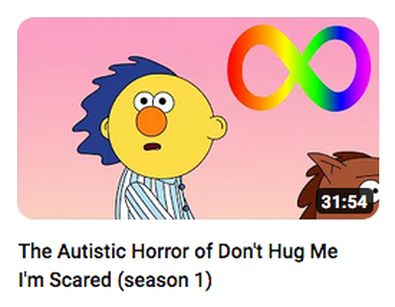
This is a YouTube channel run by an Autistic guy. He identifies as Trans and Autistic and a Furry.
I am sick to death of this Tranny Faggot shit, and you can see my Lecture titled Disabled People and Rule 34 on my Autism Lectures page for my opinion on Furries.
That having been said, he has a video titled The Autistic Horror of Don’t Hug Me I’m Scared.
It is 1 of the best Autism presentations I have ever seen.
It starts with him discussing the reactions to the Jack Stauber film The Bumble-bees Are Out. Wherein he and several commenters declare it is about Child Abuse, which it is not. WTF.
The reason he mentions this video is because all the reviewers and analysts explain what it is but not what they feel about it. He is going to talk about what he feels and why, specifically from an Autistic perspective.
Then he gets into the actual subject of Don’t Hug Me I’m Scared (DHMIS); revealing how his experience with ABA Therapy was reminiscent of how some of the characters are presented in DHMIS.
He says "DHMIS is a 6-part satyrical romp through the tomes and trappings of children’s education … with a touch of horror."
"Children’s Education"; i.e., how the Teacher characters in DHMIS tell their students that what they are feeling is wrong.
He presents the book The Incredible 5-Point Scale, then explains his Autism Symptoms.
He says he was diagnosed very young, and thus spent his childhood in the Public School’s Special Ed program. He considers this very damaging - "I was severely traumatized."
Due to overstimulation he had perpetual Autistic meltdowns, resulting in the teachers laying on him - one on each limb until he calmed down. Once the police were even called. They laid on him then handcuffed him to a chair. He was 6 years old.
"And then Sia made a movie about it!" See my review of Music.
Then this book was introduced, and incorrectly used by the teachers who used it to tell him what reaction he should be having, rather than using it to understand why he was having the reactions he did. Telling him what he is feeling is wrong.
Then another book was introduced called Superflex. Superflex was a super-hero who fought against "The Unthinkables". The Unthinkables were cartoon villains, representing emotions and behaviors common to most Autistics.
These Unthinkables would seek to supernaturally infect the minds of children and cause them to fall into destructive patterns of behavior. I.e., this book is just telling you, if you are Autistic, what you are feeling is wrong.
In DHMIS one of the characters is told to do something that makes no sense, and when he attempts to do it he is told he is wrong.
Patricia says "I am having a normal reaction to the sensory nightmare that is this classroom!" But he was constantly told what he was feeling was wrong.
"This is what it is like to grow up with Autism. Nothing makes sense, attempts to understand what is going on are punished, and it all ends with an overwhelming sensory breakdown as everything falls apart."
Another Season of DHMIS is about Love, and how "If you just change your name and clean your brain you will never be alone."
"It is more Autism trauma bullshit. It depicts the teaching of social roles as perceived by a confused neuro-divergent child, voicing his feelings, sometimes not fully understood himself, and then being reprimanded and corrected. He tries to observe the patterns around him just to try to participate, only to again be told he is doing it wrong. Love is not the lesson he is being taught. It is the language he is being taught in."
Then back to the 5-Point book: He says only today does he realize his teachers were using it wrong. They were using it to tell him what emotions he should be having, when it was intended for him to use to show his teachers what feelings he is having.
Here is my story of telling people what I think, only to be told I am feeling the wrong thing, or at least expressing the wrong thing.
There is a sex-toy called a Spinning Robot Pussy. I bought one. I wrote a review of it, but Amazon refused to publish the review. Why? Because I told them how it made me feel.
They have hundreds of quote-unquote "reviews" of this device saying "This thing is awesome!" but none of them explaining why they think that.
My review said what I liked about it was it felt like a robot, which was fantastic. What I did not like about it was it felt like a robot, which was disappointing. I did not want my dick ground off by a robot. I wanted to make love with my waifu, so I stopped using it and went back to my anatomically-correct stroker. The robot was for masturbating your dick. The stroker is for making love with your waifu.
3 days later Amazon said it “did not adhere to guidelines” and thus refused to publish it. I.e.!; when I explain how I feel emotionally, or even what a machine feels like physically, I am told I am feeling the wrong thing.
And that is why Patricia did this video. To explain how it made him feel, and why.
Patricia’s experience with school was horrible, as was mine. Nothing but terrified weaklings lashing out like wounded animals, desperate to label someone as the Witch to be burned to deflect the attention off of themselves. If I ever spoke to anyone they had an anxiety-attack, because I expressed my feelings about something, rather than robotically blither nonsense like all of them do.
Again, The Autistic Horror of Don’t Hug Me I’m Scared is one of the best Autism presentations I have ever seen.
Also see my review of Music.
-----------------------------------------------------------------------------------------------------------------------------------------
Hello Chryssie.
My goodness. The Autistic Horror of Don't Hug Me is so awful. What kind of psychos handcuff a 6-year-old to a chair? Oh, that’s right . . . it is Public Education and Behavioralist psychos! ALL of these people should be forbidden to be around children - period. This sentence is crushing: "Nothing makes sense, attempts to understand what is going on are punished, and it all ends with an overwhelming sensory breakdown as everything falls apart."
I know this is what it was like for my older son in his ABA school. I cannot tell you how much a regret the decision to send him there. We pulled him out when he was 14 and homeschooled him from that point on, but a lot of damage was already done. The time will come when people have a far greater understanding of Autism and they will look back at this time and consider these so-called "professionals" as completely barbaric. Unfortunately, it will be too late to save this current generation from terrible trauma.
Have you heard of the documentary "Spellers"? Here is the trailer:
https://youtu.be/aOk6pBnY7hQ?si=kge_Byd6Gy6OcsGo
Despite the efforts of the public school and the speech/language and ABA mafias to convince people that non-verbals communicating on letterboards is a hoax, the truth is coming out. More and more parents are waking up and bypassing the "accepted" therapies and going straight to spelling providers. The only problem is that it is expensive in some cases. It is disgusting this is not available for free through public school programs. - L.M.
I am sick to death of this Tranny Faggot shit, and you can see my Lecture titled Disabled People and Rule 34 on my Autism Lectures page for my opinion on Furries.
That having been said, he has a video titled The Autistic Horror of Don’t Hug Me I’m Scared.
It is 1 of the best Autism presentations I have ever seen.
It starts with him discussing the reactions to the Jack Stauber film The Bumble-bees Are Out. Wherein he and several commenters declare it is about Child Abuse, which it is not. WTF.
The reason he mentions this video is because all the reviewers and analysts explain what it is but not what they feel about it. He is going to talk about what he feels and why, specifically from an Autistic perspective.
Then he gets into the actual subject of Don’t Hug Me I’m Scared (DHMIS); revealing how his experience with ABA Therapy was reminiscent of how some of the characters are presented in DHMIS.
He says "DHMIS is a 6-part satyrical romp through the tomes and trappings of children’s education … with a touch of horror."
"Children’s Education"; i.e., how the Teacher characters in DHMIS tell their students that what they are feeling is wrong.
He presents the book The Incredible 5-Point Scale, then explains his Autism Symptoms.
He says he was diagnosed very young, and thus spent his childhood in the Public School’s Special Ed program. He considers this very damaging - "I was severely traumatized."
Due to overstimulation he had perpetual Autistic meltdowns, resulting in the teachers laying on him - one on each limb until he calmed down. Once the police were even called. They laid on him then handcuffed him to a chair. He was 6 years old.
"And then Sia made a movie about it!" See my review of Music.
Then this book was introduced, and incorrectly used by the teachers who used it to tell him what reaction he should be having, rather than using it to understand why he was having the reactions he did. Telling him what he is feeling is wrong.
Then another book was introduced called Superflex. Superflex was a super-hero who fought against "The Unthinkables". The Unthinkables were cartoon villains, representing emotions and behaviors common to most Autistics.
These Unthinkables would seek to supernaturally infect the minds of children and cause them to fall into destructive patterns of behavior. I.e., this book is just telling you, if you are Autistic, what you are feeling is wrong.
In DHMIS one of the characters is told to do something that makes no sense, and when he attempts to do it he is told he is wrong.
Patricia says "I am having a normal reaction to the sensory nightmare that is this classroom!" But he was constantly told what he was feeling was wrong.
"This is what it is like to grow up with Autism. Nothing makes sense, attempts to understand what is going on are punished, and it all ends with an overwhelming sensory breakdown as everything falls apart."
Another Season of DHMIS is about Love, and how "If you just change your name and clean your brain you will never be alone."
"It is more Autism trauma bullshit. It depicts the teaching of social roles as perceived by a confused neuro-divergent child, voicing his feelings, sometimes not fully understood himself, and then being reprimanded and corrected. He tries to observe the patterns around him just to try to participate, only to again be told he is doing it wrong. Love is not the lesson he is being taught. It is the language he is being taught in."
Then back to the 5-Point book: He says only today does he realize his teachers were using it wrong. They were using it to tell him what emotions he should be having, when it was intended for him to use to show his teachers what feelings he is having.
Here is my story of telling people what I think, only to be told I am feeling the wrong thing, or at least expressing the wrong thing.
There is a sex-toy called a Spinning Robot Pussy. I bought one. I wrote a review of it, but Amazon refused to publish the review. Why? Because I told them how it made me feel.
They have hundreds of quote-unquote "reviews" of this device saying "This thing is awesome!" but none of them explaining why they think that.
My review said what I liked about it was it felt like a robot, which was fantastic. What I did not like about it was it felt like a robot, which was disappointing. I did not want my dick ground off by a robot. I wanted to make love with my waifu, so I stopped using it and went back to my anatomically-correct stroker. The robot was for masturbating your dick. The stroker is for making love with your waifu.
3 days later Amazon said it “did not adhere to guidelines” and thus refused to publish it. I.e.!; when I explain how I feel emotionally, or even what a machine feels like physically, I am told I am feeling the wrong thing.
And that is why Patricia did this video. To explain how it made him feel, and why.
Patricia’s experience with school was horrible, as was mine. Nothing but terrified weaklings lashing out like wounded animals, desperate to label someone as the Witch to be burned to deflect the attention off of themselves. If I ever spoke to anyone they had an anxiety-attack, because I expressed my feelings about something, rather than robotically blither nonsense like all of them do.
Again, The Autistic Horror of Don’t Hug Me I’m Scared is one of the best Autism presentations I have ever seen.
Also see my review of Music.
-----------------------------------------------------------------------------------------------------------------------------------------
Hello Chryssie.
My goodness. The Autistic Horror of Don't Hug Me is so awful. What kind of psychos handcuff a 6-year-old to a chair? Oh, that’s right . . . it is Public Education and Behavioralist psychos! ALL of these people should be forbidden to be around children - period. This sentence is crushing: "Nothing makes sense, attempts to understand what is going on are punished, and it all ends with an overwhelming sensory breakdown as everything falls apart."
I know this is what it was like for my older son in his ABA school. I cannot tell you how much a regret the decision to send him there. We pulled him out when he was 14 and homeschooled him from that point on, but a lot of damage was already done. The time will come when people have a far greater understanding of Autism and they will look back at this time and consider these so-called "professionals" as completely barbaric. Unfortunately, it will be too late to save this current generation from terrible trauma.
Have you heard of the documentary "Spellers"? Here is the trailer:
https://youtu.be/aOk6pBnY7hQ?si=kge_Byd6Gy6OcsGo
Despite the efforts of the public school and the speech/language and ABA mafias to convince people that non-verbals communicating on letterboards is a hoax, the truth is coming out. More and more parents are waking up and bypassing the "accepted" therapies and going straight to spelling providers. The only problem is that it is expensive in some cases. It is disgusting this is not available for free through public school programs. - L.M.
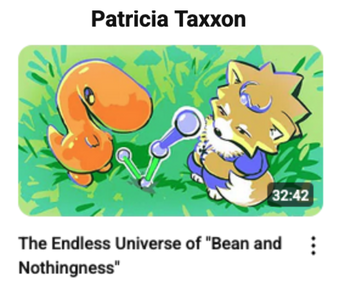
Also see Patricia's other video in which he describes his favorite video game:
You must watch this. This is the best aspect of being Autistic, if you can do math and puzzles.
I cannot.
I am the one who builds things. I am a pragmatic Earth Pony; the very utilitarian nuts-and-bolts builder. I love completely dismantling a car engine and putting it back together, for the only thing I have to learn is the order in which to do each step; i.e., I would never be able to master this video game, because I have to visualize what could happen in the future. I cannot. But I so admire this Autistic who can.
I am sure the people who made this game, and all those who play it, are Autistic. And I love these people.
There is only one character in this game. They do not interact with anyone. They just solve puzzles alone. Oh how Autistic.
Most video games are first-person shooters. I have no idea why the Normals like them.
And comic book Superhero movies - why would anyone watch this?
I like The Amazing Digital Circus. It is about an Autistic girl trapped in virtual reality.
And My Little Pony - Friendship is Magic was an all-time classic in the accurate portrayal of Autistic characters.
And Patricia Taxxon explaining how this video game works is an excellent presentation of how the, or at least his, Autistic brain works.
And I love his Aspie vocabulary.
Autism can be a horrible curse to some people, but a wonderful blessing to others.
"I really hope this Stim is as exciting for you as it is for me." - Patricia.
--------------------------------------------------------------------------------------------------------------------------------
You must watch this. This is the best aspect of being Autistic, if you can do math and puzzles.
I cannot.
I am the one who builds things. I am a pragmatic Earth Pony; the very utilitarian nuts-and-bolts builder. I love completely dismantling a car engine and putting it back together, for the only thing I have to learn is the order in which to do each step; i.e., I would never be able to master this video game, because I have to visualize what could happen in the future. I cannot. But I so admire this Autistic who can.
I am sure the people who made this game, and all those who play it, are Autistic. And I love these people.
There is only one character in this game. They do not interact with anyone. They just solve puzzles alone. Oh how Autistic.
Most video games are first-person shooters. I have no idea why the Normals like them.
And comic book Superhero movies - why would anyone watch this?
I like The Amazing Digital Circus. It is about an Autistic girl trapped in virtual reality.
And My Little Pony - Friendship is Magic was an all-time classic in the accurate portrayal of Autistic characters.
And Patricia Taxxon explaining how this video game works is an excellent presentation of how the, or at least his, Autistic brain works.
And I love his Aspie vocabulary.
Autism can be a horrible curse to some people, but a wonderful blessing to others.
"I really hope this Stim is as exciting for you as it is for me." - Patricia.
--------------------------------------------------------------------------------------------------------------------------------
This is a very strange story about a math-whiz named Max Cohen.
A child with a calculator in hand runs up to him and asks him math equations, to which he can give the mind-boggling answer before her calculator can. He has Obsessive Personality Disorder, Social Anxiety, paranoia, Touch-aversion, obsessive pattern recognition, and seizures. He is heavily medicated with Promazine, Somatropin, and Dihydroergotamine Mesylate. His attacks manifest as spasming hands, followed by axe-to-the-scull headaches, Sensory Processing Disorders, and Paranoid Delusions. Then he has a white flash, and goes unconscious, waking up with a nosebleed.
He believes everything can be reduced to and thus explained with mathematical equations, and thet all things have a mathematical pattern. He becomes obsessed with Pi, a number thet has no pattern, because it has no pattern. His desperate obsessiveness apparently (at least in part) provokes his attacks, or do the attacks provoke the obsessiveness? (See Vincent Van Gogh as a reference-point).
He plays Irensei with his old math professor, is an absolute genius at Number Theory, and was published at 16, with a PhD by 20.
He obsessively keeps a diary, in military time.
He lists his failed treatments to date: Beta blockers, Calcium channel blockers, Adrenalin injections, high-dose Ibuprophin, steroids, Trager Mentastics, violent exercise, Cafergot suppositories, caffeine, acupuncture, marijuana, Percodan, Midrine, Tenormin, Sansert, homeopathics ... no results.
He melts down his mega-computer discovering a 216-digit number associated with Pi. In the process, he also accidentally picks stock prices for the following day, exactly. Then he finds out thet the Hasidic Jews have discovered a 216-digit number in the Tora.
Thus, some mafiosos want to get their hands on that number so they can play the stock-market and always win, and the Hasidics want him to help them verify their 216-digit number, which they believe is the true name of God.
Max is preachy moralizing about "petty materialists" who want to win gambling in the stock market, and is dismissive of the Jews at first - then he decides to help them.
They tell him the story of how the Romans burned the Jewish temple, and the one and only High Priest who knew the 216-digit number took it with him when he died. The Jews have been trying to figure out that number ever since, but Max found it himself (he is not religious). He decides thet God Himself gave the number to him, not the Hasidics, thus he must be the chosen messenger (similar to what is referred to as a Chrystal Child today).
So this 216-digit number is the solution to Pi, can predict the stock market, and is the true name of God, all in 1.
Max decides this is too great of an equation to allow humans to have access to, so he destroys his mega-computer, and drills a hole in his head, destroying the part of his brain thet understands math.
The closing scene is of the child with the calculator asking him an equation. He has no clue.
The End.
Max Cohen is an Epileptic Schizophrenic, thus he has several Autism traits, without necessarily being Autistic. Still, this is an interesting study of a person with obvious Neurological Disorders, apparently caused by intestinal damage, likely exacerbated by the massive amount of meds he is on.
Also see Proof, reviewed below.
-------------------------------------------------------------------------------------------------------------------------------
A child with a calculator in hand runs up to him and asks him math equations, to which he can give the mind-boggling answer before her calculator can. He has Obsessive Personality Disorder, Social Anxiety, paranoia, Touch-aversion, obsessive pattern recognition, and seizures. He is heavily medicated with Promazine, Somatropin, and Dihydroergotamine Mesylate. His attacks manifest as spasming hands, followed by axe-to-the-scull headaches, Sensory Processing Disorders, and Paranoid Delusions. Then he has a white flash, and goes unconscious, waking up with a nosebleed.
He believes everything can be reduced to and thus explained with mathematical equations, and thet all things have a mathematical pattern. He becomes obsessed with Pi, a number thet has no pattern, because it has no pattern. His desperate obsessiveness apparently (at least in part) provokes his attacks, or do the attacks provoke the obsessiveness? (See Vincent Van Gogh as a reference-point).
He plays Irensei with his old math professor, is an absolute genius at Number Theory, and was published at 16, with a PhD by 20.
He obsessively keeps a diary, in military time.
He lists his failed treatments to date: Beta blockers, Calcium channel blockers, Adrenalin injections, high-dose Ibuprophin, steroids, Trager Mentastics, violent exercise, Cafergot suppositories, caffeine, acupuncture, marijuana, Percodan, Midrine, Tenormin, Sansert, homeopathics ... no results.
He melts down his mega-computer discovering a 216-digit number associated with Pi. In the process, he also accidentally picks stock prices for the following day, exactly. Then he finds out thet the Hasidic Jews have discovered a 216-digit number in the Tora.
Thus, some mafiosos want to get their hands on that number so they can play the stock-market and always win, and the Hasidics want him to help them verify their 216-digit number, which they believe is the true name of God.
Max is preachy moralizing about "petty materialists" who want to win gambling in the stock market, and is dismissive of the Jews at first - then he decides to help them.
They tell him the story of how the Romans burned the Jewish temple, and the one and only High Priest who knew the 216-digit number took it with him when he died. The Jews have been trying to figure out that number ever since, but Max found it himself (he is not religious). He decides thet God Himself gave the number to him, not the Hasidics, thus he must be the chosen messenger (similar to what is referred to as a Chrystal Child today).
So this 216-digit number is the solution to Pi, can predict the stock market, and is the true name of God, all in 1.
Max decides this is too great of an equation to allow humans to have access to, so he destroys his mega-computer, and drills a hole in his head, destroying the part of his brain thet understands math.
The closing scene is of the child with the calculator asking him an equation. He has no clue.
The End.
Max Cohen is an Epileptic Schizophrenic, thus he has several Autism traits, without necessarily being Autistic. Still, this is an interesting study of a person with obvious Neurological Disorders, apparently caused by intestinal damage, likely exacerbated by the massive amount of meds he is on.
Also see Proof, reviewed below.
-------------------------------------------------------------------------------------------------------------------------------
This animated children's story is very sweet for 5-year-olds. It is about a fish thet wants to become a human, but can only do so if people truly accept her as she is (literally a fish-out-of-water).
It is occasionally referred to as an "Autism Movie" because Autistics are Faerie Changelings, or otherwise (at least socially) fish-out-of-water. The only way for an Autistic to assimilate into human society is for the Normals to accept them as they are, loving them for their few gifts, rather than hating them for their numerous deficiencies. This movie demonstrates the ideal (and necessity) of loving a Special child unconditionally.
It is also a very weird Japanese Anime type of sci-fi story, thet really has nothing to do with Autism.
I would not call this an Autism Movie, but if you really stretch your imagination and read into it what is not really there, you can assume a few Autistic-like traits in the fish-child: her impulsively giving un-expected strangulating hugs, her becoming easily exhausted by over-stimulation (after every action sequence, she reverts back into a half-fish and falls dead asleep), and her Echolalic style of attempting to communicate; and when she morphs from fish to half-girl, she does have a magical Faerie-like manner (and ability to run on the surface of the water), and she is alternately utterly helpless/dependent, and scary powerful. I think these few things are what people are referring to as "Autistic-like".
The story starts with a Japanese fishing boat drag-netting the ocean floor, destroying everything in it's path, while "catching" mostly dead refrigerators, car tires, bottles, and garbage thrown into the ocean by human pigs. This is how the fish-girl gets caught in the net and accidentally introduced to humans.
The girl's father is an apparently-Asperger human science-nerd who chooses to live alone in his under-sea laboratory serving the Sea Goddess, while concocting magical elixirs to restore the balance of nature (ranting repeatedly about those cursed humans).
It ends with the fish-girl promising her Sea Goddess mother to never again use mermaid magic, in exchange for her being allowed to live as a normal human - meaning (to me) we have to accept our limitations and co-operate with nature, rather than expecting magic cure-alls (like mermaid magic-I-mean-religious beliefs) for our problems (in this case, our careless destruction of the oceans).
It also has some wonderful social commentary about humans at their best, and recognizing nature is out of balance and thus if we choose to love nature (represented as a fish-girl) and accept her unconditionally we can save the planet.
It also has a very courageous mom, an angelic boy who loves the fish-girl, and "honored elder" senior citizens.
A wonderfully sweet children's story (thet does not really belong on a list of Autism Movies).
-------------------------------------------------------------------------------------------------------------------------------
It is occasionally referred to as an "Autism Movie" because Autistics are Faerie Changelings, or otherwise (at least socially) fish-out-of-water. The only way for an Autistic to assimilate into human society is for the Normals to accept them as they are, loving them for their few gifts, rather than hating them for their numerous deficiencies. This movie demonstrates the ideal (and necessity) of loving a Special child unconditionally.
It is also a very weird Japanese Anime type of sci-fi story, thet really has nothing to do with Autism.
I would not call this an Autism Movie, but if you really stretch your imagination and read into it what is not really there, you can assume a few Autistic-like traits in the fish-child: her impulsively giving un-expected strangulating hugs, her becoming easily exhausted by over-stimulation (after every action sequence, she reverts back into a half-fish and falls dead asleep), and her Echolalic style of attempting to communicate; and when she morphs from fish to half-girl, she does have a magical Faerie-like manner (and ability to run on the surface of the water), and she is alternately utterly helpless/dependent, and scary powerful. I think these few things are what people are referring to as "Autistic-like".
The story starts with a Japanese fishing boat drag-netting the ocean floor, destroying everything in it's path, while "catching" mostly dead refrigerators, car tires, bottles, and garbage thrown into the ocean by human pigs. This is how the fish-girl gets caught in the net and accidentally introduced to humans.
The girl's father is an apparently-Asperger human science-nerd who chooses to live alone in his under-sea laboratory serving the Sea Goddess, while concocting magical elixirs to restore the balance of nature (ranting repeatedly about those cursed humans).
It ends with the fish-girl promising her Sea Goddess mother to never again use mermaid magic, in exchange for her being allowed to live as a normal human - meaning (to me) we have to accept our limitations and co-operate with nature, rather than expecting magic cure-alls (like mermaid magic-I-mean-religious beliefs) for our problems (in this case, our careless destruction of the oceans).
It also has some wonderful social commentary about humans at their best, and recognizing nature is out of balance and thus if we choose to love nature (represented as a fish-girl) and accept her unconditionally we can save the planet.
It also has a very courageous mom, an angelic boy who loves the fish-girl, and "honored elder" senior citizens.
A wonderfully sweet children's story (thet does not really belong on a list of Autism Movies).
-------------------------------------------------------------------------------------------------------------------------------
Another groaner. This 1 features an "Autistic" child who is non-verbal but can Echolalically parrot the sounds of any wild animal (she has never heard in real life). If she looks at the picture of an animal in an Almanac she can instantly make it's sound, very realistically. This apparent psychic ability is seen so often in (awful) movies with an Autism theme.
She sits under the table and refuses to do much of anything else. She bites if anyone touches her. She is calmed by the flickering of light between her flicking fingers before her eyes. There is otherwise no point to any of this.
https://www.nzonscreen.com/title/possum-1997
-------------------------------------------------------------------------------------------------------------------------------
She sits under the table and refuses to do much of anything else. She bites if anyone touches her. She is calmed by the flickering of light between her flicking fingers before her eyes. There is otherwise no point to any of this.
https://www.nzonscreen.com/title/possum-1997
-------------------------------------------------------------------------------------------------------------------------------
Another movie purported to be about an Aspie, it does at least vaguely relate to both subjects of Feral and Indigo/Crystal children.
Crystal Child "Powder", has a photographic memory from before he was born, can read minds, and is a magnet for any electricity. As such he is a human lightning-rod, thus he gets struck by lightning often, and even before he is born! He is impervious, but it killed his pregnant mother.
They take her smoldering body to the hospital where she is pronounced dead, but they also do a Cesarean and save the child.
He is an Albino with pure white skin and red eyes. His father, in shock over his pregnant wife being fried by lightning, is a coward who cannot accept thet his child is Special, and abandons him at the hospital.
The child ends up being adopted by his grandparents, who recognize his super-human abilities, and so home-school him and cultivate his gifts. Unfortunately, they also become afraid to touch him because he can electrocute people if he wants to. He is a Crystal Child, thus angelic in his sense of Ethics, but it still scares his grandparents.
Being an Albino, he cannot tolerate sunlight, thus he spends the first 16 years of his life in his grandparents' basement. He grows up with no physical interaction with anyone, becomming somewhat like Feral children.
In the basement he reads every book they can bring him, which he immediately memorizes photographically. By the time he is 16 he is an absolute genius of knowledge, but no wisdom; i.e., he knows pretty-much everything, but has no understanding of how to apply it to daily life.
Eventually both of his grandparents die of natural causes, and thus Powder is discovered.
The bank ends up owning the grandparents' house, Powder becomes a Ward of the State, and has to go to the "school for unadoptable kids".
Most of his classmates are "troubled teens" from abusive homes, and thus mostly terrified bullies. Freakish appearance and utter social cluelessness, he is the perfect target.
But the Education Director of the State Home recognizes Powder is a genius and pulls some strings to get him into public school, where the science teacher is amazed by him. The two of them try to help Powder adjust to life outside the basement, but here is demonstrated how Aspergianly deer-in-headlights naive he is about social interaction (he might also have Reactive Attachment Disorder).
He definitely does not have Aspergers Syndrome, just social deficits the result of being kept alone in a basement for 16 years. (see the Princess Luna analogy in my Loneliness Lecture).
Like the psychic girl in The Eye, he ends up realizing he is of no use to the moronic Normals who hate him for trying to help them. Thus he intentionally runs into a lightning storm, where he gets a mega-zap of lightning and breaks into particles of energy, vanishing. The End.
A tragic story about the typical Indigo/Crystal childhood; i.e., being hated by those who need the assistance the most (see The Green Mile as another reference-point).
So very similar to The Eye (see my review), I identify with it a lot, though it has nothing to do with Autism.
-------------------------------------------------------------------------------------------------------------------------------
Crystal Child "Powder", has a photographic memory from before he was born, can read minds, and is a magnet for any electricity. As such he is a human lightning-rod, thus he gets struck by lightning often, and even before he is born! He is impervious, but it killed his pregnant mother.
They take her smoldering body to the hospital where she is pronounced dead, but they also do a Cesarean and save the child.
He is an Albino with pure white skin and red eyes. His father, in shock over his pregnant wife being fried by lightning, is a coward who cannot accept thet his child is Special, and abandons him at the hospital.
The child ends up being adopted by his grandparents, who recognize his super-human abilities, and so home-school him and cultivate his gifts. Unfortunately, they also become afraid to touch him because he can electrocute people if he wants to. He is a Crystal Child, thus angelic in his sense of Ethics, but it still scares his grandparents.
Being an Albino, he cannot tolerate sunlight, thus he spends the first 16 years of his life in his grandparents' basement. He grows up with no physical interaction with anyone, becomming somewhat like Feral children.
In the basement he reads every book they can bring him, which he immediately memorizes photographically. By the time he is 16 he is an absolute genius of knowledge, but no wisdom; i.e., he knows pretty-much everything, but has no understanding of how to apply it to daily life.
Eventually both of his grandparents die of natural causes, and thus Powder is discovered.
The bank ends up owning the grandparents' house, Powder becomes a Ward of the State, and has to go to the "school for unadoptable kids".
Most of his classmates are "troubled teens" from abusive homes, and thus mostly terrified bullies. Freakish appearance and utter social cluelessness, he is the perfect target.
But the Education Director of the State Home recognizes Powder is a genius and pulls some strings to get him into public school, where the science teacher is amazed by him. The two of them try to help Powder adjust to life outside the basement, but here is demonstrated how Aspergianly deer-in-headlights naive he is about social interaction (he might also have Reactive Attachment Disorder).
He definitely does not have Aspergers Syndrome, just social deficits the result of being kept alone in a basement for 16 years. (see the Princess Luna analogy in my Loneliness Lecture).
Like the psychic girl in The Eye, he ends up realizing he is of no use to the moronic Normals who hate him for trying to help them. Thus he intentionally runs into a lightning storm, where he gets a mega-zap of lightning and breaks into particles of energy, vanishing. The End.
A tragic story about the typical Indigo/Crystal childhood; i.e., being hated by those who need the assistance the most (see The Green Mile as another reference-point).
So very similar to The Eye (see my review), I identify with it a lot, though it has nothing to do with Autism.
-------------------------------------------------------------------------------------------------------------------------------
Another 1 vigorously promoting drug-free home-birth, it lists the 60 negative side-effects thet can be induced with the Epidural alone. Epidural is when Dr Frankenstein Mengele injects drugs directly into the women's spine to kill the pain, thus sensation, and even the contractions, of childbirth.
An OB/GYN states thet it is a misconception to assume a hospital is a sterile environment. The facts are hospitals only contain sick and diseased people, thus it is the filthiest place on Earth.
They go to Holland and Germany to interview the midwives there, who are responsible for 87% of the births. Only problem-pregnancies go to hospitals.
In the US there is a Midwife school. 90% of the 2,000 women they have attended had trouble-free births.
Oxytosin is the "love hormone" thet is released during labor, resulting in the high thet makes mom become addicted to her baby.
They talk about the synthetic Oxytosin thet is injected into women (after they are paralyzed with the Epidural) to induce labor. The increase of chemically-induced labor is matched with the statistics of birthdays; i.e., since the introduction of synthetic Oxytosin, the vast majority of babies were born Monday through Friday, for the doctor's convenience.
50% of induced labors result in the "necessity" for an emergency Cesarian. This is due to the fetal-monitor telling them thet the baby's heart-rate has dropped to a dangerously-low level - caused by the synthetic Oxytosin! This is the equivalent of being starved for oxygen - AND THEY WONDER WHERE AUTISM COMES FROM!
In 1975 the C-section rate in the US was 7%. By 2008 it was 30%, entirely for the doctor's convenience. That is nearly 1 out of every 3 deliveries!
"To a man with a hammer, every problem looks like a nail. To a surgeon, every problem looks like a surgery." This is why the dictionary definition of the word "Gynecologist" is: "A doctor trained in surgery ... ."
At 1 specific hospital, "This last Friday they had 15 births, and 10 of them were C-sections because the following day was Cinco De Mayo."
Then they list 42 negative side-effects of Cesarian Sections. Need I say there are no negative side-effects to natural childbirth?
Today the USA has the 28th worst infant mortality rate in the world.
Natural childbirth with no complications in an American hospital costs $15,000. A C-section costs $40,000. The hospitals require a $20,000 deposit before they will admit you, because most insurance policies will not cover you if you even attempt to have a natural birth (after having had a previous C-section). A C-section in Socialist Canada only costs $2,000.
A pregnant couple are shown on a ferry heading for Canada, shouting, "Bye America, where it is all about the almighty dollar. You are not getting ours."
The producers of this documentary then go to an Obstetrician Convention where they find thet pharmaceutical reps out-number the doctors.
There they talk to a doctor from Miami who says his hospital has a 56% C-section rate.
Next we hear a horror story told by a crying woman telling of her delivery, wherein she was left alone in the delivery room for hours screaming, and no one would help her because her doctor (not present) had the only authority in this case; i.e., the nurse was not allowed to assist. Eventually the doctor comes in (at his convenience) and cuts her labia open to make a bigger hole, again for the doctor's convenience, without local anesthesia! After the baby was yanked out, he stitched her up, again with no anesthesia! No one gave a damn.
And then it gets really scary: Cytotec is an anti-ulcer drug. It is routinely used to induce labor because it causes immediate abortion! This they call "induced labor". It is so toxic thet it actually makes the uterus explode, and, in the case presented here, killing both mother and child. The reason the hospitals use it, even though the manufacturer states clearly thet it is not to be used on pregnant women (even for ulcers), is because it is the least expensive abortion-I-mean-induced labor provoker.
The family of this woman started a protest movement demanding thet the FDA outright ban this drug for use on pregnant women, which it did! (in this case the pharmaceutical company was off the hook because they repeatedly state thet it is a danger during pregnancy, they even have a silhouette of a pregnant woman with the red circle and slash on the package). Today Cytotec is still being used because hospitals make a big enough profit using this cheapest of drugs to induce labor, thet they can afford to settle the wrongful death suits resulting from it's use and still turn a profit.
If this poison is toxic enough to literally explode a uterus, what happens to the babies thet survive? Once again, AND THEY WONDER WHERE AUTISM COMES FROM!
You would literally be better off having Joseph Mengele deliver your baby in a concentration camp then to have it in an American hospital.
The documentary ends with the producers having their own baby at home. It is a very long labor, but all turns out well.
6 hours later the baby's breathing slows nearly to a stop, so they take her to the hospital where the medical team revive her (for $21,978). The doctor/parasite was never able to come up with a diagnosis.
Today the kid is fine.
The FDA (puppet-whore of the Pharmaceutical Industry) refuses to enforce it's own regulations concerning the use of Cytotec, even though the manufacturers themselves declare it unsafe for pregnant women.
So this documentary never mentions birth-defects caused by the medical profession, such as Autism. But it is clear thet it is terribly dangerous to allow any doctor anywhere near any pregnancy.
-------------------------------------------------------------------------------------------------------------------------------
An OB/GYN states thet it is a misconception to assume a hospital is a sterile environment. The facts are hospitals only contain sick and diseased people, thus it is the filthiest place on Earth.
They go to Holland and Germany to interview the midwives there, who are responsible for 87% of the births. Only problem-pregnancies go to hospitals.
In the US there is a Midwife school. 90% of the 2,000 women they have attended had trouble-free births.
Oxytosin is the "love hormone" thet is released during labor, resulting in the high thet makes mom become addicted to her baby.
They talk about the synthetic Oxytosin thet is injected into women (after they are paralyzed with the Epidural) to induce labor. The increase of chemically-induced labor is matched with the statistics of birthdays; i.e., since the introduction of synthetic Oxytosin, the vast majority of babies were born Monday through Friday, for the doctor's convenience.
50% of induced labors result in the "necessity" for an emergency Cesarian. This is due to the fetal-monitor telling them thet the baby's heart-rate has dropped to a dangerously-low level - caused by the synthetic Oxytosin! This is the equivalent of being starved for oxygen - AND THEY WONDER WHERE AUTISM COMES FROM!
In 1975 the C-section rate in the US was 7%. By 2008 it was 30%, entirely for the doctor's convenience. That is nearly 1 out of every 3 deliveries!
"To a man with a hammer, every problem looks like a nail. To a surgeon, every problem looks like a surgery." This is why the dictionary definition of the word "Gynecologist" is: "A doctor trained in surgery ... ."
At 1 specific hospital, "This last Friday they had 15 births, and 10 of them were C-sections because the following day was Cinco De Mayo."
Then they list 42 negative side-effects of Cesarian Sections. Need I say there are no negative side-effects to natural childbirth?
Today the USA has the 28th worst infant mortality rate in the world.
Natural childbirth with no complications in an American hospital costs $15,000. A C-section costs $40,000. The hospitals require a $20,000 deposit before they will admit you, because most insurance policies will not cover you if you even attempt to have a natural birth (after having had a previous C-section). A C-section in Socialist Canada only costs $2,000.
A pregnant couple are shown on a ferry heading for Canada, shouting, "Bye America, where it is all about the almighty dollar. You are not getting ours."
The producers of this documentary then go to an Obstetrician Convention where they find thet pharmaceutical reps out-number the doctors.
There they talk to a doctor from Miami who says his hospital has a 56% C-section rate.
Next we hear a horror story told by a crying woman telling of her delivery, wherein she was left alone in the delivery room for hours screaming, and no one would help her because her doctor (not present) had the only authority in this case; i.e., the nurse was not allowed to assist. Eventually the doctor comes in (at his convenience) and cuts her labia open to make a bigger hole, again for the doctor's convenience, without local anesthesia! After the baby was yanked out, he stitched her up, again with no anesthesia! No one gave a damn.
And then it gets really scary: Cytotec is an anti-ulcer drug. It is routinely used to induce labor because it causes immediate abortion! This they call "induced labor". It is so toxic thet it actually makes the uterus explode, and, in the case presented here, killing both mother and child. The reason the hospitals use it, even though the manufacturer states clearly thet it is not to be used on pregnant women (even for ulcers), is because it is the least expensive abortion-I-mean-induced labor provoker.
The family of this woman started a protest movement demanding thet the FDA outright ban this drug for use on pregnant women, which it did! (in this case the pharmaceutical company was off the hook because they repeatedly state thet it is a danger during pregnancy, they even have a silhouette of a pregnant woman with the red circle and slash on the package). Today Cytotec is still being used because hospitals make a big enough profit using this cheapest of drugs to induce labor, thet they can afford to settle the wrongful death suits resulting from it's use and still turn a profit.
If this poison is toxic enough to literally explode a uterus, what happens to the babies thet survive? Once again, AND THEY WONDER WHERE AUTISM COMES FROM!
You would literally be better off having Joseph Mengele deliver your baby in a concentration camp then to have it in an American hospital.
The documentary ends with the producers having their own baby at home. It is a very long labor, but all turns out well.
6 hours later the baby's breathing slows nearly to a stop, so they take her to the hospital where the medical team revive her (for $21,978). The doctor/parasite was never able to come up with a diagnosis.
Today the kid is fine.
The FDA (puppet-whore of the Pharmaceutical Industry) refuses to enforce it's own regulations concerning the use of Cytotec, even though the manufacturers themselves declare it unsafe for pregnant women.
So this documentary never mentions birth-defects caused by the medical profession, such as Autism. But it is clear thet it is terribly dangerous to allow any doctor anywhere near any pregnancy.
-------------------------------------------------------------------------------------------------------------------------------
The USA has 5% of the world’s population while consuming 75% of the world’s prescription medications.
An individual American doctor can make as much as $6 million a year simply writing prescriptions.
In the last 10 years the 11 biggest pharmaceutical companies collectively made $711 Billion.
Lipitor is a Cholesterol-lowering prescription drug. It’s side-effect is impotence. The same company thet manufactures Lipitor also manufactures Viagra.
The idea thet Cholesterol is bad for you is a lie. This company created a new fake disease, High Cholesterol, the drug to lower the Cholesterol (when low Cholesterol actually weakens your immune system), and the Viagra to mask the symptoms of Lipitor.
Every 19 minutes an American dies of an accidental overdose of a prescription medication.
In 2013 Big Pharma spent $422,000 on lobbying each of the 535 Congressman.
This documentary follows a family of three brothers, all of whom became wrestlers, body builders, or otherwise professional athletes. Specifically in Pro Wrestling prescription drug abuse is rampant. The oldest brother, a pro wrestler, actually dies of an overdose during the making of this documentary.
The younger brother goes to his Congressman and demonstrates how easily one can illegally get prescription drugs on Craig’s List.
Big Pharma, and most Doctors, know what they are doing is unethical, but money talks.
Nowhere in this documentary is Autism mentioned, but it does show in detail, how utterly corrupt the system is: President Reagan legalized the advertising of prescription drugs on TV, while Nancy Reagan was doing her “Just say no to drugs” campaign. And President Bill Clinton relaxed regulations even further.
If you watch American TV you will see an advertisement for prescription medications at every commercial break. People are being brainwashed to believe there is a magic pill for everything.
This documentary was very point-blank honest in it’s presentation of a close family who still had drug addiction problems. At the end of it the producer admits thet he himself was high on illegal prescriptions while making this documentary. The final scene is of him coming out of re-hab, clean for the first time in his adult life.
-------------------------------------------------------------------------------------------------------------------------------
An individual American doctor can make as much as $6 million a year simply writing prescriptions.
In the last 10 years the 11 biggest pharmaceutical companies collectively made $711 Billion.
Lipitor is a Cholesterol-lowering prescription drug. It’s side-effect is impotence. The same company thet manufactures Lipitor also manufactures Viagra.
The idea thet Cholesterol is bad for you is a lie. This company created a new fake disease, High Cholesterol, the drug to lower the Cholesterol (when low Cholesterol actually weakens your immune system), and the Viagra to mask the symptoms of Lipitor.
Every 19 minutes an American dies of an accidental overdose of a prescription medication.
In 2013 Big Pharma spent $422,000 on lobbying each of the 535 Congressman.
This documentary follows a family of three brothers, all of whom became wrestlers, body builders, or otherwise professional athletes. Specifically in Pro Wrestling prescription drug abuse is rampant. The oldest brother, a pro wrestler, actually dies of an overdose during the making of this documentary.
The younger brother goes to his Congressman and demonstrates how easily one can illegally get prescription drugs on Craig’s List.
Big Pharma, and most Doctors, know what they are doing is unethical, but money talks.
Nowhere in this documentary is Autism mentioned, but it does show in detail, how utterly corrupt the system is: President Reagan legalized the advertising of prescription drugs on TV, while Nancy Reagan was doing her “Just say no to drugs” campaign. And President Bill Clinton relaxed regulations even further.
If you watch American TV you will see an advertisement for prescription medications at every commercial break. People are being brainwashed to believe there is a magic pill for everything.
This documentary was very point-blank honest in it’s presentation of a close family who still had drug addiction problems. At the end of it the producer admits thet he himself was high on illegal prescriptions while making this documentary. The final scene is of him coming out of re-hab, clean for the first time in his adult life.
-------------------------------------------------------------------------------------------------------------------------------
This interesting and weird movie was written, produced, and directed by one person; as such it was very concentrated and unique.
Unfortunately it had an "Autistic" character for no purpose other than to add a bizarre twist to the plot, but made no sense because the symptoms were presented inaccurately.
This 12-year-old boy is repeatedly referred to as an "Asperger", but was actually a non-verbal Autistic (Aspies are known for their adult vocabulary and Little Professor lecturing).
He had no gaze-aversion, touch-aversion, Sensory Processing Disorders, nor even Stims. The only thing Autistic-like about him was thet he had obsessive pattern-recognition, and was thus superb at puzzles. If 1 of his puzzles got messed up, he would bang his head with his hands and rock in anguish. This was fairly accurate for a case of PDD-NOS or Classic Autism, but flat wrong for a diagnosis of Aspergers.
His therapist instantly quells the melt-down by giving him a prism with which he can "hold a rainbow in his hand." Though this was a sweet idea, in reality this severe of Autistic would only be further over-stimulated by such an interaction.
So he witnesses his parents being murdered at random by a psychopath, is able to see through the prism the evil entity possessing the psychopath, goes into a catatonic state, and ends up being sneaked into an Institution by the detective who is friends with the therapist; proper procedure would have been to turn him over to the corrupt and useless CPS. Once in the Institution he is treated by his long-time Autism therapist who tries to figure out how to reach him in his catatonic state.
The movie alternately wastes a lot of time spoon-feeding us the obvious at a dismally slow pace, then becomes a fascinating story about the child being possessed by the "focal-point of all the collective ill will humanity has toward it's self". The child is the psychic receptor of human evil because he has a miss-wired Autistic brain - combined with the prism through which he can see the evil in others.
His therapist gets him a Cat-scan, and sees thet his pineal gland is over-sized (the pineal gland being known as the Third Eye).
In the hospital, the Cat-scan operator is intentionally presented as a nerd, geeking-out over the CT machine, and lecturing like an Aspie, to which the therapist has to repeatedly re-direct him to the conversation at hand. This was an accurate (but all too brief) representation of an Aspie.
All through the story, the director of the Institute is afraid CPS might find out where this missing child is, and "take possession". This was the main thing I liked about the movie (CPS being utterly corrupt), though they never actually used the term "CPS".
This director was really stressing out about getting in trouble with CPS, and would Stim himself to calm by obsessively re-straitening his already obsessively-neat office while ranting. Once again, another accurate display of Aspie-like behavior.
It ends with the apparent "Indigo Child" awakening from his catatonia, destroying the evil entity, curing Alzheimers in another patient by simply wishing it, and being miraculously relieved of Autism, while remaining Psychically gifted.
Pretty good for an entirely independent film, but having this Bless The Child-like "Autistic" character was just annoying.
--------------------------------------------------------------------------------------------------------------------------------
Unfortunately it had an "Autistic" character for no purpose other than to add a bizarre twist to the plot, but made no sense because the symptoms were presented inaccurately.
This 12-year-old boy is repeatedly referred to as an "Asperger", but was actually a non-verbal Autistic (Aspies are known for their adult vocabulary and Little Professor lecturing).
He had no gaze-aversion, touch-aversion, Sensory Processing Disorders, nor even Stims. The only thing Autistic-like about him was thet he had obsessive pattern-recognition, and was thus superb at puzzles. If 1 of his puzzles got messed up, he would bang his head with his hands and rock in anguish. This was fairly accurate for a case of PDD-NOS or Classic Autism, but flat wrong for a diagnosis of Aspergers.
His therapist instantly quells the melt-down by giving him a prism with which he can "hold a rainbow in his hand." Though this was a sweet idea, in reality this severe of Autistic would only be further over-stimulated by such an interaction.
So he witnesses his parents being murdered at random by a psychopath, is able to see through the prism the evil entity possessing the psychopath, goes into a catatonic state, and ends up being sneaked into an Institution by the detective who is friends with the therapist; proper procedure would have been to turn him over to the corrupt and useless CPS. Once in the Institution he is treated by his long-time Autism therapist who tries to figure out how to reach him in his catatonic state.
The movie alternately wastes a lot of time spoon-feeding us the obvious at a dismally slow pace, then becomes a fascinating story about the child being possessed by the "focal-point of all the collective ill will humanity has toward it's self". The child is the psychic receptor of human evil because he has a miss-wired Autistic brain - combined with the prism through which he can see the evil in others.
His therapist gets him a Cat-scan, and sees thet his pineal gland is over-sized (the pineal gland being known as the Third Eye).
In the hospital, the Cat-scan operator is intentionally presented as a nerd, geeking-out over the CT machine, and lecturing like an Aspie, to which the therapist has to repeatedly re-direct him to the conversation at hand. This was an accurate (but all too brief) representation of an Aspie.
All through the story, the director of the Institute is afraid CPS might find out where this missing child is, and "take possession". This was the main thing I liked about the movie (CPS being utterly corrupt), though they never actually used the term "CPS".
This director was really stressing out about getting in trouble with CPS, and would Stim himself to calm by obsessively re-straitening his already obsessively-neat office while ranting. Once again, another accurate display of Aspie-like behavior.
It ends with the apparent "Indigo Child" awakening from his catatonia, destroying the evil entity, curing Alzheimers in another patient by simply wishing it, and being miraculously relieved of Autism, while remaining Psychically gifted.
Pretty good for an entirely independent film, but having this Bless The Child-like "Autistic" character was just annoying.
--------------------------------------------------------------------------------------------------------------------------------
This is an excellent companion-piece to Pi; i.e., it has nothing to do with Autism but is a superb presentation of obsessive genius, and the negative side-effects thet often go with it. In this case a math genius becomes so obsessed with his work thet he loses his marbles.
His daughter is equally obsessive in her own math genius. She out-shines her father to such extent thet she becomes terrified she might go mad as he did. She inherited his gift for mathematics, but also his Neurological Disorders. I inherited my father's musical giftedness but also his Asperger's Syndrome. Every silver lining has it's cloud.
Neither father nor daughter have Autism, but both could have some Max Cohen (from the movie Pi) type of neurological disorders.
It also stars the wonderful Anthony Hopkins, who himself has Aspergers (See my review of The Remains of the Day).
-------------------------------------------------------------------------------------------------------------------------------
His daughter is equally obsessive in her own math genius. She out-shines her father to such extent thet she becomes terrified she might go mad as he did. She inherited his gift for mathematics, but also his Neurological Disorders. I inherited my father's musical giftedness but also his Asperger's Syndrome. Every silver lining has it's cloud.
Neither father nor daughter have Autism, but both could have some Max Cohen (from the movie Pi) type of neurological disorders.
It also stars the wonderful Anthony Hopkins, who himself has Aspergers (See my review of The Remains of the Day).
-------------------------------------------------------------------------------------------------------------------------------
This documentary is about Autism in Jamaica. The best part (for me) was the fact all Jamaicans are Black. This is thus 1 of the few Autism documentaries I know of thet does not inadvertently play into the Rain Man stereotype of Autism being a white male disease.
It consists mainly of interviews with parents, presenting every aspect of parenting an Autistic child.
Many state point blank thet the MMR vaccine caused it, while other say their kid never received any vaccines at all, and another case with identical twin girls, one is perfectly normal, the other is severely Autistic, with no explanation as to why one has it and the other does not.
This is all information you have probably heard before, but this time it is from Jamaica specifically, where 10-15% of the population now have Autism.
Funded in part by UNICEF, it is high quality and a comprehensive presentation.
-------------------------------------------------------------------------------------------------------------------------------
It consists mainly of interviews with parents, presenting every aspect of parenting an Autistic child.
Many state point blank thet the MMR vaccine caused it, while other say their kid never received any vaccines at all, and another case with identical twin girls, one is perfectly normal, the other is severely Autistic, with no explanation as to why one has it and the other does not.
This is all information you have probably heard before, but this time it is from Jamaica specifically, where 10-15% of the population now have Autism.
Funded in part by UNICEF, it is high quality and a comprehensive presentation.
-------------------------------------------------------------------------------------------------------------------------------
----------------------------------------------------------------------------------------------------------------------------------------------------------------------------------
Q Q Q Q Q Q Q Q Q Q Q Q Q Q Q Q
-----------------------------------------------------------------------------------------------------------------------------------------------------------------------------------
Q Q Q Q Q Q Q Q Q Q Q Q Q Q Q Q
-----------------------------------------------------------------------------------------------------------------------------------------------------------------------------------

Ofer Krysake. Another crap movie I could barely stand to sit through in order to tell you something about the "Autistic" character.
This dud had an "Autistic Savant" in it who looked like Dustin Hoffman, intentionally used the exact tone of voice and style of speaking as DH, and copied the Rain Man cliche to a T. His only actual Autistic symptom was (ridiculously exaggerated) gaze-aversion, he otherwise had no symptoms what-so-ever, and was a Rain Man/math-whiz as a cliche! I groaned. I did not even slap my forehead first. I just thought, Ofer Krysake - the shit I have to sit through. Ugh!
-------------------------------------------------------------------------------------------------------------------------------
This dud had an "Autistic Savant" in it who looked like Dustin Hoffman, intentionally used the exact tone of voice and style of speaking as DH, and copied the Rain Man cliche to a T. His only actual Autistic symptom was (ridiculously exaggerated) gaze-aversion, he otherwise had no symptoms what-so-ever, and was a Rain Man/math-whiz as a cliche! I groaned. I did not even slap my forehead first. I just thought, Ofer Krysake - the shit I have to sit through. Ugh!
-------------------------------------------------------------------------------------------------------------------------------
This movie was an hour and a half long but only had about 5 minutes of actual plot.
Young woman needs a break from her marriage, so she goes to visit her brother she has not seen in years. He lives in a very small town out in the country. He has Aspergers.
Once she gets there she discovers thet him being alone in the country has not been good for him. He has become obsessive with writing his research papers, but only for himself to read. He is an aeronautics engineer who in the past designed satellites.
The people who own the horse farm across the river from him have accused him of poisoning their well; apparently because they want to develop their land for vacation homes. The locals do not want this, they like their sleepy hick town the way it is.
No one knows how to communicate. Sister wants to prove her brother is innocent but does not believe it herself.
Eventually she accuses the horse farmers of poisoning their own well, then framing her brother for it, so they can get an insurance settlement.
That is the plot. Nothing happens. It is painfully slow.
The Aspergers symptoms were possibly realistic, but an unusual case. Being an Aspie he probably would have been a lecturer, but instead he was perpetually in a state of nervous anxiety and obsessed with his fixated subject, while hardly talking at all - and in a panicky denial thet he even had Aspergers.
This movie was just nothing.
-------------------------------------------------------------------------------------------------------------------------------
Young woman needs a break from her marriage, so she goes to visit her brother she has not seen in years. He lives in a very small town out in the country. He has Aspergers.
Once she gets there she discovers thet him being alone in the country has not been good for him. He has become obsessive with writing his research papers, but only for himself to read. He is an aeronautics engineer who in the past designed satellites.
The people who own the horse farm across the river from him have accused him of poisoning their well; apparently because they want to develop their land for vacation homes. The locals do not want this, they like their sleepy hick town the way it is.
No one knows how to communicate. Sister wants to prove her brother is innocent but does not believe it herself.
Eventually she accuses the horse farmers of poisoning their own well, then framing her brother for it, so they can get an insurance settlement.
That is the plot. Nothing happens. It is painfully slow.
The Aspergers symptoms were possibly realistic, but an unusual case. Being an Aspie he probably would have been a lecturer, but instead he was perpetually in a state of nervous anxiety and obsessed with his fixated subject, while hardly talking at all - and in a panicky denial thet he even had Aspergers.
This movie was just nothing.
-------------------------------------------------------------------------------------------------------------------------------

Quincy ME. Season 4. Episode 3. A Test For Living.
Quincy is the Coroner. His first case of the day is a "mentally Retarded" 8-year-old who had escaped from an Institution and was found 1/2 mile away, drowned in a drainage ditch.
The Autopsy revealed thet he was perfectly normal in every way, thus the cause of death (drowning) is certain, but the means of death (was there foul play or not?) stumps them.
They call in an expert pediatrician who can also find nothing wrong with the body.
The pediatrician looks over the child's file and sees thet he is described as "mute", but at the age of 3 he could speak, then at age 5 he stopped talking.
The pediatrician concludes thet he may have been an undiagnosed Autistic, and not actually Retarded at all. He says, "With special treatment and the right education he might have been taught."
Quincy asks why doctors cannot recognize and diagnose such things. All the pediatrician can say is thet "The doctors are the ones who are trying to teach", while they are unable to diagnose what the actual problem even is.
So the pediatrician and Quincy go to the Institution for Retarded Children (from where the drowned kid had escaped), and find thet their funding is so inadequate thet all they can afford to do is basically warehouse these kids.
The pediatrician recognizes at first glance thet 2 of these "Retarded" kids are apparently Autistic, but the Institution has no clue.
Then Quincy discovers a puzzle under the deceased kid's bed, and finds out thet the puzzle and all other toys are kept in a closet thet is secured with a combination lock. Also the back gate at the Institution has a combination lock. Quincy concludes thet this "severely Retarded" child who could not even dress himself, was actually Autistic, could memorize numbers like a genius, and thus had escaped. He and the pediatrician go on a mission to prove he was never Retarded and never should have been in an (or at least this) Institution.
Later over lunch, the pediatrician tells Quincy, "You have no idea what the parents of an Autistic child go through. Disappointment and confusion because of misdiagnosis. They are ground down emotionally, physically, and financially. That is why parents allow their children to be committed - they just run out of gas."
Then he tells of 1 of his own patients, "Timmy, a 7-year-old Autistic child who has seen at least 7 doctors. He was recommended for an Autistic children's program. When the kid was tested for eligibility, the educator in charge claimed thet the boy had made eye-contact with him, and that was enough to reject him from the program and classify him as 'Not Autistic'. I tried having him re-evaluated, but it is like fighting City Hall. And the school program closes in 4 days. He will probably be Institutionalized."
Next Quincy goes to meet this Timmy, who lays on the ground flickering his fingers before his eyes.
Timmy's Aspie mom has obvious CAPD.
At their house they are in the process of having a birthday party for their other (Normal) child. During this, a random child accidentally trips over reclining Timmy, and Timmy has a rage-attack, smashing everything in sight. Dad grabs him and gives him a bear-hug, squeezing very hard, to which Timmy calms down (See Temple Grandin's squeeze-machine).
All the other parents silently leave with their kids, one stating thet they will stay if they "put Timmy somewhere."
Later Quincy sits alone with Timmy, watching him stare blankly into the spinning spokes of his upside-down tricycle. He demonstrates gaze-aversion, finger-flicking, visual processing disorder, and is non-verbal.
Quincy and his team do a thorough work-up on Timmy and find him to be physically absolutely normal (according to what they know to look for - they do not check to see if he has intestinal damage caused by vaccines).
So Quincy goes to talk to the person in charge of evaluating possible Autistics to see if they are eligible for special school programs, trying to convince him to re-evaluate Timmy. This person says, "In this district alone, we have a 6-week back-log of cases. I cannot re-process 1 child who has already been evaluated." This person is doing the best he can under the circumstances, but is simply a school administrator, not an Autism expert.
Quincy pulls some strings politically and gets Timmy re-evaluated, wherein he is shown to be Echolalic, flaps his hands, and spins in circles. When asked to put a puzzle together he smells the pieces and feels them with his face. When asked to build a pyramid with 6 blocks, he instead places them in a perfectly straight vertical line.
These things suggest he is Autistic, but since he cannot accomplish any of the tasks he was asked to within the allotted time, they declare thet he is so retarded he is not even testable.
So Quincy convinces them to try it again without the stop-watch, to which Timmy (eventually) passes all the tests, proving he is of normal intelligence for his age (as long as he can do it at his own pace).
The whole system (of timing every test) changes to allow him (and many future test-subjects) into the special school program.
The closing scene is of Quincy himself setting up a special Birthday party for Timmy's sibling (who's previous party had been ruined by Timmy's meltdown). The point being thet it is very important to be sure to set aside quality-time for the Normal siblings (see My Flesh and Blood, and The Sandwich Kid as an example of the horrible consequences of failing to do this).
The End.
Everything in this Episode was a relatively-accurate presentation of what Autism is really like (for Timmy). Also, the parents spend a lot of time talking to Quincy about how their marriage cannot stand any more of this un-diagnosable kid, and thet they have their other Normal child to consider; i.e., as many possible points of view are presented in this 1-hour Episode of a TV show thet was produced back in 1978. Taking that into consideration, this was excellent.
-------------------------------------------------------------------------------------------------------------------------------
Quincy is the Coroner. His first case of the day is a "mentally Retarded" 8-year-old who had escaped from an Institution and was found 1/2 mile away, drowned in a drainage ditch.
The Autopsy revealed thet he was perfectly normal in every way, thus the cause of death (drowning) is certain, but the means of death (was there foul play or not?) stumps them.
They call in an expert pediatrician who can also find nothing wrong with the body.
The pediatrician looks over the child's file and sees thet he is described as "mute", but at the age of 3 he could speak, then at age 5 he stopped talking.
The pediatrician concludes thet he may have been an undiagnosed Autistic, and not actually Retarded at all. He says, "With special treatment and the right education he might have been taught."
Quincy asks why doctors cannot recognize and diagnose such things. All the pediatrician can say is thet "The doctors are the ones who are trying to teach", while they are unable to diagnose what the actual problem even is.
So the pediatrician and Quincy go to the Institution for Retarded Children (from where the drowned kid had escaped), and find thet their funding is so inadequate thet all they can afford to do is basically warehouse these kids.
The pediatrician recognizes at first glance thet 2 of these "Retarded" kids are apparently Autistic, but the Institution has no clue.
Then Quincy discovers a puzzle under the deceased kid's bed, and finds out thet the puzzle and all other toys are kept in a closet thet is secured with a combination lock. Also the back gate at the Institution has a combination lock. Quincy concludes thet this "severely Retarded" child who could not even dress himself, was actually Autistic, could memorize numbers like a genius, and thus had escaped. He and the pediatrician go on a mission to prove he was never Retarded and never should have been in an (or at least this) Institution.
Later over lunch, the pediatrician tells Quincy, "You have no idea what the parents of an Autistic child go through. Disappointment and confusion because of misdiagnosis. They are ground down emotionally, physically, and financially. That is why parents allow their children to be committed - they just run out of gas."
Then he tells of 1 of his own patients, "Timmy, a 7-year-old Autistic child who has seen at least 7 doctors. He was recommended for an Autistic children's program. When the kid was tested for eligibility, the educator in charge claimed thet the boy had made eye-contact with him, and that was enough to reject him from the program and classify him as 'Not Autistic'. I tried having him re-evaluated, but it is like fighting City Hall. And the school program closes in 4 days. He will probably be Institutionalized."
Next Quincy goes to meet this Timmy, who lays on the ground flickering his fingers before his eyes.
Timmy's Aspie mom has obvious CAPD.
At their house they are in the process of having a birthday party for their other (Normal) child. During this, a random child accidentally trips over reclining Timmy, and Timmy has a rage-attack, smashing everything in sight. Dad grabs him and gives him a bear-hug, squeezing very hard, to which Timmy calms down (See Temple Grandin's squeeze-machine).
All the other parents silently leave with their kids, one stating thet they will stay if they "put Timmy somewhere."
Later Quincy sits alone with Timmy, watching him stare blankly into the spinning spokes of his upside-down tricycle. He demonstrates gaze-aversion, finger-flicking, visual processing disorder, and is non-verbal.
Quincy and his team do a thorough work-up on Timmy and find him to be physically absolutely normal (according to what they know to look for - they do not check to see if he has intestinal damage caused by vaccines).
So Quincy goes to talk to the person in charge of evaluating possible Autistics to see if they are eligible for special school programs, trying to convince him to re-evaluate Timmy. This person says, "In this district alone, we have a 6-week back-log of cases. I cannot re-process 1 child who has already been evaluated." This person is doing the best he can under the circumstances, but is simply a school administrator, not an Autism expert.
Quincy pulls some strings politically and gets Timmy re-evaluated, wherein he is shown to be Echolalic, flaps his hands, and spins in circles. When asked to put a puzzle together he smells the pieces and feels them with his face. When asked to build a pyramid with 6 blocks, he instead places them in a perfectly straight vertical line.
These things suggest he is Autistic, but since he cannot accomplish any of the tasks he was asked to within the allotted time, they declare thet he is so retarded he is not even testable.
So Quincy convinces them to try it again without the stop-watch, to which Timmy (eventually) passes all the tests, proving he is of normal intelligence for his age (as long as he can do it at his own pace).
The whole system (of timing every test) changes to allow him (and many future test-subjects) into the special school program.
The closing scene is of Quincy himself setting up a special Birthday party for Timmy's sibling (who's previous party had been ruined by Timmy's meltdown). The point being thet it is very important to be sure to set aside quality-time for the Normal siblings (see My Flesh and Blood, and The Sandwich Kid as an example of the horrible consequences of failing to do this).
The End.
Everything in this Episode was a relatively-accurate presentation of what Autism is really like (for Timmy). Also, the parents spend a lot of time talking to Quincy about how their marriage cannot stand any more of this un-diagnosable kid, and thet they have their other Normal child to consider; i.e., as many possible points of view are presented in this 1-hour Episode of a TV show thet was produced back in 1978. Taking that into consideration, this was excellent.
-------------------------------------------------------------------------------------------------------------------------------
-------------------------------------------------------------------------------------------------------------------------------------------------------------------------
R R R R R R R R R R R R R R R R
-------------------------------------------------------------------------------------------------------------------------------------------------------------------------
R R R R R R R R R R R R R R R R
-------------------------------------------------------------------------------------------------------------------------------------------------------------------------
This movie's main character has Autism, and is a Savant; i.e., he is severely Autistic and an incredible genius at the same time.
The director of the State-run facility where he is institutionalized describes Autism as, "A disability that impairs the sensory input and how it is processed." This is a very brief but accurate description.
Dustin Hoffman plays this Autistic man, Raymond, with incredible accuracy.
Raymond's most obvious symptom is his strict adherence to sameness. He also has Echolalia, and super-human pattern-recognition.
Raymond has a Normal younger brother. When their wealthy father dies, he leaves all of his 3 million dollars to Raymond, for his care and keeping. The younger brother does not get any money. He is so angry about this thet he abducts Raymond from the Institution, and plans a custody battle so he can get what he considers his fair share of the inheritance.
After several days of getting to know Raymond, the younger brother discovers thet the reason Raymond was institutionalized was because he had accidentally burned the baby with too hot of water while giving him a bath. The parents were afraid Raymond might accidentally hurt the younger brother again, and in possibly worse ways, so they institutionalized him.
That scene in the movie made me cry. I felt so sorry for Raymond for being "put away" for a simple accident any kid his age could have made.
So the characters go to a Casino, and with Raymond's excellent pattern-recognition (read: card-counting ability) they win a colossal amount of money.
In the Casino, Raymond's selective hearing becomes evident. This scene was very accurately presented, as we hear what he is hearing as the noise in the Casino fades out and only 1 specific sound remains. This is classic Autism.
The story ends with Raymond going back to the Institution where he belongs; he is Autistic enough thet he needs an institutionalized environment where he can be taken care of 24 hours a day.
In his case, institutionalization was the best decision, though in that Institution he ate cheese, wheat, and apple-juice every day; i.e., if he was put on a strict Autism Diet his symptoms would be undoubtedly greatly alleviated, thus possibly resulting in him being able to function outside the Institution.
The younger brother comes to love Raymond enough to let him (and the inheritance) go.
Though the younger brother is played by the horrible Tom Cruise, this is still a superb movie.
-------------------------------------------------------------------------------------------------------------------------------
The director of the State-run facility where he is institutionalized describes Autism as, "A disability that impairs the sensory input and how it is processed." This is a very brief but accurate description.
Dustin Hoffman plays this Autistic man, Raymond, with incredible accuracy.
Raymond's most obvious symptom is his strict adherence to sameness. He also has Echolalia, and super-human pattern-recognition.
Raymond has a Normal younger brother. When their wealthy father dies, he leaves all of his 3 million dollars to Raymond, for his care and keeping. The younger brother does not get any money. He is so angry about this thet he abducts Raymond from the Institution, and plans a custody battle so he can get what he considers his fair share of the inheritance.
After several days of getting to know Raymond, the younger brother discovers thet the reason Raymond was institutionalized was because he had accidentally burned the baby with too hot of water while giving him a bath. The parents were afraid Raymond might accidentally hurt the younger brother again, and in possibly worse ways, so they institutionalized him.
That scene in the movie made me cry. I felt so sorry for Raymond for being "put away" for a simple accident any kid his age could have made.
So the characters go to a Casino, and with Raymond's excellent pattern-recognition (read: card-counting ability) they win a colossal amount of money.
In the Casino, Raymond's selective hearing becomes evident. This scene was very accurately presented, as we hear what he is hearing as the noise in the Casino fades out and only 1 specific sound remains. This is classic Autism.
The story ends with Raymond going back to the Institution where he belongs; he is Autistic enough thet he needs an institutionalized environment where he can be taken care of 24 hours a day.
In his case, institutionalization was the best decision, though in that Institution he ate cheese, wheat, and apple-juice every day; i.e., if he was put on a strict Autism Diet his symptoms would be undoubtedly greatly alleviated, thus possibly resulting in him being able to function outside the Institution.
The younger brother comes to love Raymond enough to let him (and the inheritance) go.
Though the younger brother is played by the horrible Tom Cruise, this is still a superb movie.
-------------------------------------------------------------------------------------------------------------------------------
Randal works janitorial at an art gallery.
He leaves some of his paintings at the gallery. The curator is impressed with them enough to hang them for display.
The curator and Randal both get fired for this, accused of “vandalism” of the gallery’s property for hanging paintings on an otherwise blank wall.
Famous local artist and curator and proprietor of his own gallery, Mr Mazarino, somehow feels responsible for inadvertently getting Randal fired. Mr Mazarino offers Randal “guidance”, and a free education at the art school.
For some reason 23 year old Randal is very emotionally immature, behaving like a 12-year-old throughout. He rejects the offer.
The next day his older brother he lives with gets him to go to the gallery anyway. Mr Mazarino offers Randal a job as receptionist. Randal instead applies for the job of janitor. Mr Mazarino is disappointed but accepts.
Randal is always very fidgety, has gaze-aversion, and constantly stims by finger flicking. He is also slightly overweight and physically awkward.
Mr Mazarino gets him into an art class. Randal is “auditing” the class, meaning temporarily sitting in for free.
Randal’s real parents abandoned him when he was 5. His “brother” he lives with is foster.
At Randal’s class the instructor alters Randal’s painting as a demonstration for the class. Randal has an anxiety-attack which becomes a tantrum, and leaves.
He returns to class but refuses to paint anything but Sienna, a girl he has a crush on; she is his Muse.
Mr Mazarino assumes this is Fixated Subject, and talks to the instructor, suggesting Randal may be Autistic but does not know it. The instructor agrees to give Randal another chance.
Randal then bursts into the room accusing them of assuming he is Retarded. He declares thet he will paint only what he wants to paint, so there.
Mr Mazarino later confronts Randal asking him if he is in fact Autistic. Randal says he was diagnosed at the age of 3, but “Autism is what I have. It is not who I am.”
Randal starts to feel possessive and panicky about his Muse. The panickiness makes his brother take him to the doctor, who prescribes Oxycontin. They never ask him if he is drinking a quart of coffee every day, which he is.
The meds make him lose his creativity … right at the time Mr Mazarino offers him a spot in one of his art shows.
Randal falls in love with his Muse. She friend-zones him.
He throws a tantrum, but also throws away his meds.
He recovers from both and makes a new painting titled An Apology.
He lets his Muse go, his brother quits drinking, his painter class-mate throws herself at him, and his painting is displayed at it’s first show.
The best part of this movie was where Randal explains to Mr Mazarino thet the DSM V no longer recognizes Aspergers as Aspergers. Now it is lumped in to the broad-sweeping generalization of Autism Spectrum Disorder. Randal was irritated with that, as am I.
There was so much opportunity for having the characters go off on Aspie lectures educating the viewer, but they did not. I found this movie disappointing because of that. 2 scenes were so briefly written, I stopped the film and said to the screen what the characters should have said.
It was still a pretty good documentation of one young man’s first love and how he, as an Autistic, was ill-equipped to deal with it due to his social cluelessness. But being socially clueless does not excuse being emotionally immature. Grow up.
I am tired of these Autism movies thet always make the Autistic so emotionally immature. I have Intestinal Autism, Neurological Autism, a brain injury, and Reactive Attachment Disorder, and I am more mature than anyone else … because I had to be!
I would like to see Autism movies wherein the characters are like me, because of the deficiencies they had to grow up faster than Normal people would.
These characters are always such big babies. Because of the deficiencies they are spoiled and coddled, thus they remain annoyingly immature, which in turn makes them even more socially clueless.
Meanwhile the girl who throws herself at Randal does so because he inadvertently taught her to be her true self, unapologetically. Randal should have said that was his problem, thet in his childishness he did not recognize how much he needed to apologize for his immaturity and selfishness.
Though the movie did end with him presenting his new painting, titled An Apology. But the immaturity of him, and the other Autistic characters in so many Autism movies, still annoyed me.
The reason I stopped going to Autism Support Groups is because the people there were so immature and childish and stupid. They were their symptoms they wanted to wallow in, not people who had them. Grow up.
So generally speaking this was a sweet movie with a happy ending wherein the Aspie grows up and gets his act together. But the fact he needed to irritated me.
--------------------------------------------------------------------------------------------------------------------------------
He leaves some of his paintings at the gallery. The curator is impressed with them enough to hang them for display.
The curator and Randal both get fired for this, accused of “vandalism” of the gallery’s property for hanging paintings on an otherwise blank wall.
Famous local artist and curator and proprietor of his own gallery, Mr Mazarino, somehow feels responsible for inadvertently getting Randal fired. Mr Mazarino offers Randal “guidance”, and a free education at the art school.
For some reason 23 year old Randal is very emotionally immature, behaving like a 12-year-old throughout. He rejects the offer.
The next day his older brother he lives with gets him to go to the gallery anyway. Mr Mazarino offers Randal a job as receptionist. Randal instead applies for the job of janitor. Mr Mazarino is disappointed but accepts.
Randal is always very fidgety, has gaze-aversion, and constantly stims by finger flicking. He is also slightly overweight and physically awkward.
Mr Mazarino gets him into an art class. Randal is “auditing” the class, meaning temporarily sitting in for free.
Randal’s real parents abandoned him when he was 5. His “brother” he lives with is foster.
At Randal’s class the instructor alters Randal’s painting as a demonstration for the class. Randal has an anxiety-attack which becomes a tantrum, and leaves.
He returns to class but refuses to paint anything but Sienna, a girl he has a crush on; she is his Muse.
Mr Mazarino assumes this is Fixated Subject, and talks to the instructor, suggesting Randal may be Autistic but does not know it. The instructor agrees to give Randal another chance.
Randal then bursts into the room accusing them of assuming he is Retarded. He declares thet he will paint only what he wants to paint, so there.
Mr Mazarino later confronts Randal asking him if he is in fact Autistic. Randal says he was diagnosed at the age of 3, but “Autism is what I have. It is not who I am.”
Randal starts to feel possessive and panicky about his Muse. The panickiness makes his brother take him to the doctor, who prescribes Oxycontin. They never ask him if he is drinking a quart of coffee every day, which he is.
The meds make him lose his creativity … right at the time Mr Mazarino offers him a spot in one of his art shows.
Randal falls in love with his Muse. She friend-zones him.
He throws a tantrum, but also throws away his meds.
He recovers from both and makes a new painting titled An Apology.
He lets his Muse go, his brother quits drinking, his painter class-mate throws herself at him, and his painting is displayed at it’s first show.
The best part of this movie was where Randal explains to Mr Mazarino thet the DSM V no longer recognizes Aspergers as Aspergers. Now it is lumped in to the broad-sweeping generalization of Autism Spectrum Disorder. Randal was irritated with that, as am I.
There was so much opportunity for having the characters go off on Aspie lectures educating the viewer, but they did not. I found this movie disappointing because of that. 2 scenes were so briefly written, I stopped the film and said to the screen what the characters should have said.
It was still a pretty good documentation of one young man’s first love and how he, as an Autistic, was ill-equipped to deal with it due to his social cluelessness. But being socially clueless does not excuse being emotionally immature. Grow up.
I am tired of these Autism movies thet always make the Autistic so emotionally immature. I have Intestinal Autism, Neurological Autism, a brain injury, and Reactive Attachment Disorder, and I am more mature than anyone else … because I had to be!
I would like to see Autism movies wherein the characters are like me, because of the deficiencies they had to grow up faster than Normal people would.
These characters are always such big babies. Because of the deficiencies they are spoiled and coddled, thus they remain annoyingly immature, which in turn makes them even more socially clueless.
Meanwhile the girl who throws herself at Randal does so because he inadvertently taught her to be her true self, unapologetically. Randal should have said that was his problem, thet in his childishness he did not recognize how much he needed to apologize for his immaturity and selfishness.
Though the movie did end with him presenting his new painting, titled An Apology. But the immaturity of him, and the other Autistic characters in so many Autism movies, still annoyed me.
The reason I stopped going to Autism Support Groups is because the people there were so immature and childish and stupid. They were their symptoms they wanted to wallow in, not people who had them. Grow up.
So generally speaking this was a sweet movie with a happy ending wherein the Aspie grows up and gets his act together. But the fact he needed to irritated me.
--------------------------------------------------------------------------------------------------------------------------------
This is another excellent documentary showing exactly what parents were told concerning their Autistic children back in the 50s and 60s USA; Bettelheim's utterly wrong Refrigerator Mother Theory which for no reason became Gospel to the clueless medical profession, with nothing to back it up other than sexism and stupidity.
The parents were driven mad by their severely Autistic child, so they went to "the expert" and said, "Our child needs help. We need help. We need help helping our child." But all they got was Bettelheimism.
We next are shown a TV interview with Bettelheim himself, wherein the interviewer sits in stunned bewilderment listening to this cackling mad-man: "Autism is the most severe childhood psychosis known to man. In order to survive we must feel we are terribly important to somebody - thet somebody really cares for you. In the case of these extremely disturbed children, not only was there the feeling thet nobody cares, but the feeling thet the child should not live."
Bettelheim presented himself as the foremost expert on the care and treatment of Autistic children, but he had been in the Dachau concentration camp, after which he wrote a book explaining thet his experience there as a tortured Jew was the equivalent to what it is like for Autistic children, for he "knew" thet Autistic children must think of their own parents as Nazi concentration-camp guards. "The Autistic child feels thet everybody wants him to be dead, as the Nazis indeed wanted all Jews to be dead. When the child feels nobody cares about them, one has not the energy to fight back."
Bettelheim was apparently a Paranoid Schizophrenic, the obvious symptom being Projection; in the concentration camp all he had to cling to was his hatred of the fact mommy was not there to save his pitiful self, thus he spent the rest of his life blaming all mothers for it. An obsessively self-hating, Jew/victim, Paranoid Schizophrenic, mother-hating, wack-job!
In the next story, the mom takes her Autistic child to a child psychiatrist, "... who addressed most of his comments to me. 'We seem to notice thet with these children, they seem to reject the mother. They do not want the mother's comforting arms. Now why do you think that is?'"
Then we are shown another film (in a condescending English accent) on the beliefs of the day: "In spite of her gentleness, Mother is unable to establish a comfortable and secure relationship with her children, and her movements toward them are lacking in sensitivity."
Another mom responds, "'Refrigerator Mother' is the label thet gets stuck on you when you were trying to find someone to help you."
Then it returns to the condescending English narrator: "Mother's determination to make normal contact with Margaret is liable to drive her further and further into her Autism."
The only therapy "for Autism" was to psycho-analyze the mother to find out what is wrong with her thet she would do such a thing to her child! All they did with the kids was lock them in solitary.
Then a professor of Psychiatry says thet back in the 60s, "'This is a closed totalitarian system. If you have any reservations or doubts or second thoughts, then the problem is yours, and we have got to bring you into the system of judgment and accusations', and it is not very nice."
Then we see a Normal sibling brought to tears commenting about how much sacrifice his mother had to make for the Autistic sibling. Mom had been labeled "Psychotic" by "the profession" because 1 of her children was Autistic. Of course there is nothing wrong with the mom, as the Normal sibling can attest.
Next we meet a black woman who had no clue anything was wrong until 1 day when she was with her child at the library, and the librarian asked if she would be interested in reading some books on Autism. The Librarian had immediately recognized the child as Autistic, even though the mother had not.
So Mom reads the books, takes the kid to the whole team of doctors at the University, and they said flat no, this child is not Autistic, because she "did not fit the stereotype of upper-middle class, white, and very very bright."
"I was black and so they assumed I was uneducated, so my child was labeled 'emotionally disturbed'."
Only white, nerdy/genius parents have Autistic children. You still see this stereotype today - which is mostly true! Thus resulting in the genetics theory; my father and his brother, both of whom have AS, are math and music geniuses, as are most parents of Autistic children - an extremely high percentage of (white) Architects and Engineers have Autistic kids.
"Since I was black, I could not be educated, thus I could not even be a Refrigerator Mother. The irony of it all."
Then there is an interview with the writer of the book, The Creation of Dr B - a biography of the cackling mad-man himself, wherein it was made clear thet Bettelheim would just make up whatever horror story he wanted to justify his vicious blaming of mothers.
The writer of this book was with his Autistic brother when he accidentally fell out of a barn (truly a freak accident). The Autistic brother died, so Bettleheim personally blamed the mother for driving her child to suicide.
Then we see a slide presentation narrated by Bettelheim himself, wherein he takes us on a tour of his Home for Autistic Children. The first thing we see is his effigy of a mother (a naked woman on her back with her arms and legs spread) to which the children are instructed to kick and stomp on it.
The moms were all coerced into sending their children to Bettleheim's Home for Autistic Children and have no contact with them for 2 years. The "therapy" was to lock the kids in their empty rooms with no distractions nor interactions at all - which of course made them profoundly worse.
Bettelheim's "Home" was funded entirely by research grants from The Ford Foundation, so he was required to keep putting out reports on his progress in curing Autism.
He continued to publish these false reports, for the sake of the money, even though by the mid-60s more evidence was accumulating thet he was flat-wrong in his theories.
In 1964 Bernard Rimland, an Experimental Psychologist, wrote a new book called Infantile Autism. His own child was Autistic. In his book he proved thet Autism was a physical illness of unknown origin, not a mental illness caused by unfit mothers.
The afore-mentioned Professor of Psychiatry explains further the culture of the day: "Bettelheim was working with children otherwise ignored by many people like me - and I thought that was heroic. I was brought up on the tradition of psycho-analytic psychiatry and psychology. The whole medical profession ascended to this." I.e., no one could imagine any physical reason for Autism (nor any other "psychological disorder"). It must all be mental. But, as we know today, Epilepsy, Tourette, Schizophrenia, and Autism are all exacerbated by bad diet, and in some cases practically cured with specific "fanatical" diets; no drugs nor therapies necessary.
The moms tell of how, decades later, they still suffer from the psychological damage thet was done to them by being blamed (and punished) for their child's Autism. They seem to have a morbid sadness in their soul. The years they spent in therapy with sadists who forced them to believe they were horrible people, while their children were locked in isolation by a Schizophrenic, Jew/victim, fraud.
One of the moms is redeemed when her Autistic child accidentally sets himself on fire. She had to once again deal with the medical profession, but this time it was in a burn-unit where none of them had a clue about Autism, nor did they have any pre-conceived notions, thus she was considered by them to be a relative expert. She almost cries tears of joy explaining her wonderful experience with clueless doctors ... who admitted it this time!
Another mom says, "Today there are many theories as to the causes of Autism. None of them say the mother did it - and that is a tremendous relief for everybody."
This wonderful film you can watch for free on Snag: www.snagfilms.com/films/title/refrigerator_mothers/
-------------------------------------------------------------------------------------------------------------------------------------
The parents were driven mad by their severely Autistic child, so they went to "the expert" and said, "Our child needs help. We need help. We need help helping our child." But all they got was Bettelheimism.
We next are shown a TV interview with Bettelheim himself, wherein the interviewer sits in stunned bewilderment listening to this cackling mad-man: "Autism is the most severe childhood psychosis known to man. In order to survive we must feel we are terribly important to somebody - thet somebody really cares for you. In the case of these extremely disturbed children, not only was there the feeling thet nobody cares, but the feeling thet the child should not live."
Bettelheim presented himself as the foremost expert on the care and treatment of Autistic children, but he had been in the Dachau concentration camp, after which he wrote a book explaining thet his experience there as a tortured Jew was the equivalent to what it is like for Autistic children, for he "knew" thet Autistic children must think of their own parents as Nazi concentration-camp guards. "The Autistic child feels thet everybody wants him to be dead, as the Nazis indeed wanted all Jews to be dead. When the child feels nobody cares about them, one has not the energy to fight back."
Bettelheim was apparently a Paranoid Schizophrenic, the obvious symptom being Projection; in the concentration camp all he had to cling to was his hatred of the fact mommy was not there to save his pitiful self, thus he spent the rest of his life blaming all mothers for it. An obsessively self-hating, Jew/victim, Paranoid Schizophrenic, mother-hating, wack-job!
In the next story, the mom takes her Autistic child to a child psychiatrist, "... who addressed most of his comments to me. 'We seem to notice thet with these children, they seem to reject the mother. They do not want the mother's comforting arms. Now why do you think that is?'"
Then we are shown another film (in a condescending English accent) on the beliefs of the day: "In spite of her gentleness, Mother is unable to establish a comfortable and secure relationship with her children, and her movements toward them are lacking in sensitivity."
Another mom responds, "'Refrigerator Mother' is the label thet gets stuck on you when you were trying to find someone to help you."
Then it returns to the condescending English narrator: "Mother's determination to make normal contact with Margaret is liable to drive her further and further into her Autism."
The only therapy "for Autism" was to psycho-analyze the mother to find out what is wrong with her thet she would do such a thing to her child! All they did with the kids was lock them in solitary.
Then a professor of Psychiatry says thet back in the 60s, "'This is a closed totalitarian system. If you have any reservations or doubts or second thoughts, then the problem is yours, and we have got to bring you into the system of judgment and accusations', and it is not very nice."
Then we see a Normal sibling brought to tears commenting about how much sacrifice his mother had to make for the Autistic sibling. Mom had been labeled "Psychotic" by "the profession" because 1 of her children was Autistic. Of course there is nothing wrong with the mom, as the Normal sibling can attest.
Next we meet a black woman who had no clue anything was wrong until 1 day when she was with her child at the library, and the librarian asked if she would be interested in reading some books on Autism. The Librarian had immediately recognized the child as Autistic, even though the mother had not.
So Mom reads the books, takes the kid to the whole team of doctors at the University, and they said flat no, this child is not Autistic, because she "did not fit the stereotype of upper-middle class, white, and very very bright."
"I was black and so they assumed I was uneducated, so my child was labeled 'emotionally disturbed'."
Only white, nerdy/genius parents have Autistic children. You still see this stereotype today - which is mostly true! Thus resulting in the genetics theory; my father and his brother, both of whom have AS, are math and music geniuses, as are most parents of Autistic children - an extremely high percentage of (white) Architects and Engineers have Autistic kids.
"Since I was black, I could not be educated, thus I could not even be a Refrigerator Mother. The irony of it all."
Then there is an interview with the writer of the book, The Creation of Dr B - a biography of the cackling mad-man himself, wherein it was made clear thet Bettelheim would just make up whatever horror story he wanted to justify his vicious blaming of mothers.
The writer of this book was with his Autistic brother when he accidentally fell out of a barn (truly a freak accident). The Autistic brother died, so Bettleheim personally blamed the mother for driving her child to suicide.
Then we see a slide presentation narrated by Bettelheim himself, wherein he takes us on a tour of his Home for Autistic Children. The first thing we see is his effigy of a mother (a naked woman on her back with her arms and legs spread) to which the children are instructed to kick and stomp on it.
The moms were all coerced into sending their children to Bettleheim's Home for Autistic Children and have no contact with them for 2 years. The "therapy" was to lock the kids in their empty rooms with no distractions nor interactions at all - which of course made them profoundly worse.
Bettelheim's "Home" was funded entirely by research grants from The Ford Foundation, so he was required to keep putting out reports on his progress in curing Autism.
He continued to publish these false reports, for the sake of the money, even though by the mid-60s more evidence was accumulating thet he was flat-wrong in his theories.
In 1964 Bernard Rimland, an Experimental Psychologist, wrote a new book called Infantile Autism. His own child was Autistic. In his book he proved thet Autism was a physical illness of unknown origin, not a mental illness caused by unfit mothers.
The afore-mentioned Professor of Psychiatry explains further the culture of the day: "Bettelheim was working with children otherwise ignored by many people like me - and I thought that was heroic. I was brought up on the tradition of psycho-analytic psychiatry and psychology. The whole medical profession ascended to this." I.e., no one could imagine any physical reason for Autism (nor any other "psychological disorder"). It must all be mental. But, as we know today, Epilepsy, Tourette, Schizophrenia, and Autism are all exacerbated by bad diet, and in some cases practically cured with specific "fanatical" diets; no drugs nor therapies necessary.
The moms tell of how, decades later, they still suffer from the psychological damage thet was done to them by being blamed (and punished) for their child's Autism. They seem to have a morbid sadness in their soul. The years they spent in therapy with sadists who forced them to believe they were horrible people, while their children were locked in isolation by a Schizophrenic, Jew/victim, fraud.
One of the moms is redeemed when her Autistic child accidentally sets himself on fire. She had to once again deal with the medical profession, but this time it was in a burn-unit where none of them had a clue about Autism, nor did they have any pre-conceived notions, thus she was considered by them to be a relative expert. She almost cries tears of joy explaining her wonderful experience with clueless doctors ... who admitted it this time!
Another mom says, "Today there are many theories as to the causes of Autism. None of them say the mother did it - and that is a tremendous relief for everybody."
This wonderful film you can watch for free on Snag: www.snagfilms.com/films/title/refrigerator_mothers/
-------------------------------------------------------------------------------------------------------------------------------------
I am getting tired of reviewing bad movies. Overall, this is a dud, but it does have an Autistic child as the main character, so here goes:
Apparently psychotic, very pregnant woman, strapped down on a gurney, screaming, is wheeled into the delivery room. She gives birth, and the baby is immediately taken away.
Next room over, a nerd couple are also delivering a baby. We are not told what these 2 births have in common, but by the end of the movie we find out the babies were intentionally switched.
The loving nerd couple go home with the psycho's kid.
Next scene: the kid, Adam, is 4 years old and a non-verbal Autistic. In public school he has zero self-assertiveness, as the bully kids paint his face with finger-paints to humiliate him, which he is practically oblivious to.
The worthless school system does not care to know what to do with him, so he is given a private Tutor at home, who is supposedly an expert on Autism.
Adam thinks in pictures and is a wonderful artist, drawing with colored chalk.
The nerd couple have the Mom's Alzheimer's father, dependent on his oxygen bottle, living with them. The old geezer likes to sit in his upstairs bedroom, taking pictures of activity in the street - mainly young women jogging by (the horny old coot). They also have an irritable Latina house-keeper.
The old geezer is positive spies are lurking in the bushes across the street, but he is dismissed as senile.
Mom teaches piano in her home. 1 of her students is a 9-year-old boy, who is a bully to Adam, making him eat dirt and then lying and saying he tried to stop Adam from eating dirt.
The bully brings a gun, and lures Adam into the bushes across the street to try to get him to fire it and get in trouble. We do not see what happens, but we hear the shot. Dad runs to investigate, and finds the bully shot dead.
Though Adam apparently shot the bully, the police believe it was an accident, and the bully's fault for bringing the gun and giving it to the Autistic child.
As the old geezer gets sicker, his dog becomes more protective, and ferociously defends him from being disturbed by oblivious Adam.
The dog disappears. This is devastating to the geezer, for the dog was apparently a trained companion pet. The senile old man becomes irritating to everyone around him because he is in such pain over the loss of his dog.
That night his oxygen bottle gets unplugged, and he dies gasping on the floor.
Then Mom goes to a music recital with Dad, leaving Adam alone with the house-keeper.
The strict house-keeper thinks Adam is not as Autistic as he seems, is just a manipulative brat, and thus needs a spanking most of the time.
He is oblivious to her, thus she loses her temper and spanks him. She ends up getting her head "accidentally" crushed in the dumb-waiter, and dies.
The police decide this is too many coincidences, and start to suspect thet Adam is a psychopath.
The lead detective tries to prove this, but ends up falling down the intentionally-marble-strewn stairs. He lands unconscious, only to receive a screwdriver to the chest.
Throughout all of this, Mom has always had the feeling thet the reason Adam could not bond is because he is not really hers. She tracks down the birth records, and discovers thet the real mom could be the psycho who is now in a mental hospital.
All of these deaths could have really been freak accidents, until the detective ends up in her house dead, stabbed in the heart.
Mom then studies Adam's tablets full of his wonderful chalk art. 1 has a chronological series of death scenes: The bully getting his brains blown out, geezer gasping on the floor with his unplugged oxygen bottle, the house-keeper in a pool of blood next to the dumb-waiter with exaggerated teeth on it, and the dog buried in the front yard. Mom goes out and digs up the dog. OMG! Adam is a psychopath!
Geezer's photos are developed, including a picture of Adam's Tutor shooting the bully in the head.
It is then discovered thet the Tutor was Adams' real father, who was (along with his psychotic wife) a serial killing team they were never able to catch. He had killed the bully to protect Adam; he killed the dog to protect Adam; he killed the old geezer to protect Adam; he killed the house-keeper to protect Adam; and he killed the detective to protect Adam.
The reason he was there to switch the babies at birth was because he knew these nerds would be good parents to his son, who would otherwise have been handed off to whomever in the horrible Foster Care system. He was the geezer's perceived spy who was in fact lurking in the bushes across the street.
Adam was presented as being totally non-verbal and oblivious to anyone, and thinking only in pictures. He would tolerate being held, but never initiate it himself. He had good eye-contact, and no Stims.
When all these deaths take place, Mom loses it and violently shakes silent oblivious Adam, screaming, "Wake up Adam! Wake up! Wake up!" Nerdy Dad was much more understanding and patient.
The story ends with the parents tracking down their real child, who has been in Foster Care all these years because no one wanted to adopt him, believing thet his real mother was the psychotic.
He is a Saint of a child, adopted, and immediately assimilated into the family.
A few years later, the final scene is of Saintly child patiently getting Autistic Adam to interact, only to have non-verbal gaze-averse Adam point a stick at him, look him straight in the eye, and say perfectly clear, "Bang! You are dead." He might be a killer after all!
The End.
-------------------------------------------------------------------------------------------------------------------------------
Apparently psychotic, very pregnant woman, strapped down on a gurney, screaming, is wheeled into the delivery room. She gives birth, and the baby is immediately taken away.
Next room over, a nerd couple are also delivering a baby. We are not told what these 2 births have in common, but by the end of the movie we find out the babies were intentionally switched.
The loving nerd couple go home with the psycho's kid.
Next scene: the kid, Adam, is 4 years old and a non-verbal Autistic. In public school he has zero self-assertiveness, as the bully kids paint his face with finger-paints to humiliate him, which he is practically oblivious to.
The worthless school system does not care to know what to do with him, so he is given a private Tutor at home, who is supposedly an expert on Autism.
Adam thinks in pictures and is a wonderful artist, drawing with colored chalk.
The nerd couple have the Mom's Alzheimer's father, dependent on his oxygen bottle, living with them. The old geezer likes to sit in his upstairs bedroom, taking pictures of activity in the street - mainly young women jogging by (the horny old coot). They also have an irritable Latina house-keeper.
The old geezer is positive spies are lurking in the bushes across the street, but he is dismissed as senile.
Mom teaches piano in her home. 1 of her students is a 9-year-old boy, who is a bully to Adam, making him eat dirt and then lying and saying he tried to stop Adam from eating dirt.
The bully brings a gun, and lures Adam into the bushes across the street to try to get him to fire it and get in trouble. We do not see what happens, but we hear the shot. Dad runs to investigate, and finds the bully shot dead.
Though Adam apparently shot the bully, the police believe it was an accident, and the bully's fault for bringing the gun and giving it to the Autistic child.
As the old geezer gets sicker, his dog becomes more protective, and ferociously defends him from being disturbed by oblivious Adam.
The dog disappears. This is devastating to the geezer, for the dog was apparently a trained companion pet. The senile old man becomes irritating to everyone around him because he is in such pain over the loss of his dog.
That night his oxygen bottle gets unplugged, and he dies gasping on the floor.
Then Mom goes to a music recital with Dad, leaving Adam alone with the house-keeper.
The strict house-keeper thinks Adam is not as Autistic as he seems, is just a manipulative brat, and thus needs a spanking most of the time.
He is oblivious to her, thus she loses her temper and spanks him. She ends up getting her head "accidentally" crushed in the dumb-waiter, and dies.
The police decide this is too many coincidences, and start to suspect thet Adam is a psychopath.
The lead detective tries to prove this, but ends up falling down the intentionally-marble-strewn stairs. He lands unconscious, only to receive a screwdriver to the chest.
Throughout all of this, Mom has always had the feeling thet the reason Adam could not bond is because he is not really hers. She tracks down the birth records, and discovers thet the real mom could be the psycho who is now in a mental hospital.
All of these deaths could have really been freak accidents, until the detective ends up in her house dead, stabbed in the heart.
Mom then studies Adam's tablets full of his wonderful chalk art. 1 has a chronological series of death scenes: The bully getting his brains blown out, geezer gasping on the floor with his unplugged oxygen bottle, the house-keeper in a pool of blood next to the dumb-waiter with exaggerated teeth on it, and the dog buried in the front yard. Mom goes out and digs up the dog. OMG! Adam is a psychopath!
Geezer's photos are developed, including a picture of Adam's Tutor shooting the bully in the head.
It is then discovered thet the Tutor was Adams' real father, who was (along with his psychotic wife) a serial killing team they were never able to catch. He had killed the bully to protect Adam; he killed the dog to protect Adam; he killed the old geezer to protect Adam; he killed the house-keeper to protect Adam; and he killed the detective to protect Adam.
The reason he was there to switch the babies at birth was because he knew these nerds would be good parents to his son, who would otherwise have been handed off to whomever in the horrible Foster Care system. He was the geezer's perceived spy who was in fact lurking in the bushes across the street.
Adam was presented as being totally non-verbal and oblivious to anyone, and thinking only in pictures. He would tolerate being held, but never initiate it himself. He had good eye-contact, and no Stims.
When all these deaths take place, Mom loses it and violently shakes silent oblivious Adam, screaming, "Wake up Adam! Wake up! Wake up!" Nerdy Dad was much more understanding and patient.
The story ends with the parents tracking down their real child, who has been in Foster Care all these years because no one wanted to adopt him, believing thet his real mother was the psychotic.
He is a Saint of a child, adopted, and immediately assimilated into the family.
A few years later, the final scene is of Saintly child patiently getting Autistic Adam to interact, only to have non-verbal gaze-averse Adam point a stick at him, look him straight in the eye, and say perfectly clear, "Bang! You are dead." He might be a killer after all!
The End.
-------------------------------------------------------------------------------------------------------------------------------

This dreadful documentary is about an obese infantile Aspergirl. She is (like all fat people) passive/aggressive, appallingly childish, and apparently has Munchausen Syndrome. She loves getting attention by acting Autistic (If the schedule at her day-job is changed by even 5 minutes, she throws a tantrum and refuses to come to work for 2 days!).
The fact she is grossly obese proves she is not on the GF/CF Diet, and she wears headphone type of ear-plugs, proving she has not gotten her AIT.
I do not give a damn about immature stupid victim-wannabes who refuse to fix their problem because they would rather theatrically wallow in it. This is the type of person I hate.
She calls herself a "motivational speaker" on the subject of Autism, but does not know much about it - spewing asinine "statistics" such as "In the '60s Autisics were 1 in 1.6 million people."
She refers to her speaking engagements as "performances", wherein she performs Autism (read: plays the victim). She is almost as pathetic as the fake "Autistic" Amanda Baggs. I hate this crap. Fat whiny passive/aggressive energy-sucking parasites who use Autism as a tool to manipulate people into giving them outright pity. No sympathy, no understanding, and certainly no recovery. I hate this shit.
Whenever she talks about her (mild) case of Aspergers she does so as if she believes she is expounding something profoundly educational. She is a moron.
This was utterly boring and pointless, other than to allow the director a chance to masturbate his delusion thet he is a "compassionate" person for making a documentary about an appallingly-childish victim-wannabe. I am disgusted.
Aspergirl and several others say Autistics just want acceptance (as they wallow in it. She is 50 years old and still lives in her parents basement where she locks herself in, throwing a tantrum of passive/aggression until they kiss her ass enough to get her to come out. She is nothing but an energy-sucking parasite, like all fat blubbering victim-wannabes).
This is separated into 10 8-minute chapters, each of which is brain-numbingly boring; the director is as stupid and useless as the subject. He apparently believes thet if he leaves some random camera running that means we should want to watch whatever was inadvertently filmed.
Hmmm ... have I made my point yet?
We get clear to Episode 8 before we figure out the purpose of this documentary, that being to follow the director and producer as they demonstrate how "compassionate and altruistic" they are (in piety rather than sympathy) for hiring Autistic actors to play Autistic characters in a movie they are making, called Normal Folk. They document obese blubbering infantile Aspergirl as she learns how to play her part as a character in this movie.
Though I respect movie producers for choosing disabled actors to play disabled characters, that is not the point!
The point I am making is thet these Autistic actors get to play Autistic characters who are much worse off than themselves. Thus the title of this documentary - they get to Return to the state they used to be in when they were spinning flapping children. But it is not done for the purpose of inspiring people with their recoveries. It is done to demand acceptance ... while wallowing in it! They really enjoy this, for they "get to play the victim!"
The series ends with doe-eyed bleeding-hearts praising the director for being a Saint, when the facts are he is a co-addict.
This was just so pathetic. It was the same story as My Flesh and Blood (see my horrified review) without the overt abusiveness. Instead it accomplished the same thing (keeping crippled Retards in a helpless victim state) while displaying a cheap veneer of piety over their co-addiction.
In a 7-year period I alleviated my own Autism symptoms by 2/3. And I am very proud of the fact I invest several hours every day on this site teaching others how to recover too.
Munchausen victims who wallow in it, and declare thet me wanting to help kids recover makes me a Nazi for trying to take away what makes them oh-so special, can fuck directly off! I will not be accepting of any Autistic who consciously chooses to wallow in it, like the idiot in this horrible documentary.
Another repulsive documentary about a fat appallingly childish fake Autistic is Disabled But Able To Rock! The Danger Woman Story. Pathetic people who try to get attention by exaggerating their emotional infantalism just make me want to puke. I hate more than anything the infantile and the brain-dead, like all the people (including the director and producer) in this horrible show.
"Danger Woman" did not have Autism, she was simply emotionally infantile, as was her pathetic brother, while making a perpetual theatrical display of it. They have both discovered (like Amanda Baggs) thet if they pretend to be Retarded and Autistic they will never have to grow up. This type of person is revolting to me. They give Autistics a bad name. They are a disgrace to humanity.
-------------------------------------------------------------------------------------------------------------------------------
The fact she is grossly obese proves she is not on the GF/CF Diet, and she wears headphone type of ear-plugs, proving she has not gotten her AIT.
I do not give a damn about immature stupid victim-wannabes who refuse to fix their problem because they would rather theatrically wallow in it. This is the type of person I hate.
She calls herself a "motivational speaker" on the subject of Autism, but does not know much about it - spewing asinine "statistics" such as "In the '60s Autisics were 1 in 1.6 million people."
She refers to her speaking engagements as "performances", wherein she performs Autism (read: plays the victim). She is almost as pathetic as the fake "Autistic" Amanda Baggs. I hate this crap. Fat whiny passive/aggressive energy-sucking parasites who use Autism as a tool to manipulate people into giving them outright pity. No sympathy, no understanding, and certainly no recovery. I hate this shit.
Whenever she talks about her (mild) case of Aspergers she does so as if she believes she is expounding something profoundly educational. She is a moron.
This was utterly boring and pointless, other than to allow the director a chance to masturbate his delusion thet he is a "compassionate" person for making a documentary about an appallingly-childish victim-wannabe. I am disgusted.
Aspergirl and several others say Autistics just want acceptance (as they wallow in it. She is 50 years old and still lives in her parents basement where she locks herself in, throwing a tantrum of passive/aggression until they kiss her ass enough to get her to come out. She is nothing but an energy-sucking parasite, like all fat blubbering victim-wannabes).
This is separated into 10 8-minute chapters, each of which is brain-numbingly boring; the director is as stupid and useless as the subject. He apparently believes thet if he leaves some random camera running that means we should want to watch whatever was inadvertently filmed.
Hmmm ... have I made my point yet?
We get clear to Episode 8 before we figure out the purpose of this documentary, that being to follow the director and producer as they demonstrate how "compassionate and altruistic" they are (in piety rather than sympathy) for hiring Autistic actors to play Autistic characters in a movie they are making, called Normal Folk. They document obese blubbering infantile Aspergirl as she learns how to play her part as a character in this movie.
Though I respect movie producers for choosing disabled actors to play disabled characters, that is not the point!
The point I am making is thet these Autistic actors get to play Autistic characters who are much worse off than themselves. Thus the title of this documentary - they get to Return to the state they used to be in when they were spinning flapping children. But it is not done for the purpose of inspiring people with their recoveries. It is done to demand acceptance ... while wallowing in it! They really enjoy this, for they "get to play the victim!"
The series ends with doe-eyed bleeding-hearts praising the director for being a Saint, when the facts are he is a co-addict.
This was just so pathetic. It was the same story as My Flesh and Blood (see my horrified review) without the overt abusiveness. Instead it accomplished the same thing (keeping crippled Retards in a helpless victim state) while displaying a cheap veneer of piety over their co-addiction.
In a 7-year period I alleviated my own Autism symptoms by 2/3. And I am very proud of the fact I invest several hours every day on this site teaching others how to recover too.
Munchausen victims who wallow in it, and declare thet me wanting to help kids recover makes me a Nazi for trying to take away what makes them oh-so special, can fuck directly off! I will not be accepting of any Autistic who consciously chooses to wallow in it, like the idiot in this horrible documentary.
Another repulsive documentary about a fat appallingly childish fake Autistic is Disabled But Able To Rock! The Danger Woman Story. Pathetic people who try to get attention by exaggerating their emotional infantalism just make me want to puke. I hate more than anything the infantile and the brain-dead, like all the people (including the director and producer) in this horrible show.
"Danger Woman" did not have Autism, she was simply emotionally infantile, as was her pathetic brother, while making a perpetual theatrical display of it. They have both discovered (like Amanda Baggs) thet if they pretend to be Retarded and Autistic they will never have to grow up. This type of person is revolting to me. They give Autistics a bad name. They are a disgrace to humanity.
-------------------------------------------------------------------------------------------------------------------------------
This movie was about a guy, Will, with Aspergers. He lived with his dad until he was 30, for he was never able to get a job. Eventually he moves out of his dad’s place and becomes a roommate with an unmarried couple he has been friends with his whole life long. They are total losers who are grouchy, bored, and depressed.
Will spends most of his time in front of his computer creating a video game.
He continues to job-hunt, but slaughters all the interviews. Eventually he gets a job washing dishes, for you can train monkeys to do that.
A girl he had unrequited love for back in high-school returns to town to visit her mom, and coincidentally runs into Will. They re-kindle their friendship, but Will becomes emotionally re-attached to her.
Will finds her a local job and asks her to stay, but she says she will be returning home to marry her boyfriend. Will cries and lets her go.
Meanwhile Will’s roommates are pathetic losers who are so tiring to behold. The woman is a cunt, and a bitch. The man is a childish moron who is afraid to get emotionally attached, while the manipulative woman constantly taunts him with her threats of leaving. They are exhausting characters I do not give a damn about.
There are 2 scenes wherein Will finally gets the words together to speak his mind articulately, and each time the person he is trying to be honest with rudely interrupts the conversation to answer their cell-phone. Both times he drops the conversation and walks away.
The girl Will likes also has an alcoholic shrew for a mother.
We also have to watch the girl get drugged and almost raped, then Will intervenes but gets accused of it. Later the rapist beats the crap out of Will for having stopped the rape.
Dad was an alcoholic and Will was Autistic so his mother abandoned them both. Dad was a coward who refused to accept anything was wrong with his child nor himself.
This movie was just so depressing and pointless; almost as pathetic as If You Could Say It In Words or Somersault (see my groaning reviews). Why can’t someone make a movie wherein every character is not a sack of shit?
I identified with Will’s Aspergers and his thus horrible social skills, but the rest of the characters were so unlikable, I heaved many sighs watching this dud of a movie.
His portrayal of Aspergers was realistic, but never actually explained. In 1 scene he goes to a therapist, and she gives him a little kid test in her attempt to diagnose him. He is insulted by the patronizing therapist who treats him like a child.
The movie ends with him finally getting someone interested in producing the video game he invented, thus he will probably be okay career-wise.
-------------------------------------------------------------------------------------------------------------------------------
Will spends most of his time in front of his computer creating a video game.
He continues to job-hunt, but slaughters all the interviews. Eventually he gets a job washing dishes, for you can train monkeys to do that.
A girl he had unrequited love for back in high-school returns to town to visit her mom, and coincidentally runs into Will. They re-kindle their friendship, but Will becomes emotionally re-attached to her.
Will finds her a local job and asks her to stay, but she says she will be returning home to marry her boyfriend. Will cries and lets her go.
Meanwhile Will’s roommates are pathetic losers who are so tiring to behold. The woman is a cunt, and a bitch. The man is a childish moron who is afraid to get emotionally attached, while the manipulative woman constantly taunts him with her threats of leaving. They are exhausting characters I do not give a damn about.
There are 2 scenes wherein Will finally gets the words together to speak his mind articulately, and each time the person he is trying to be honest with rudely interrupts the conversation to answer their cell-phone. Both times he drops the conversation and walks away.
The girl Will likes also has an alcoholic shrew for a mother.
We also have to watch the girl get drugged and almost raped, then Will intervenes but gets accused of it. Later the rapist beats the crap out of Will for having stopped the rape.
Dad was an alcoholic and Will was Autistic so his mother abandoned them both. Dad was a coward who refused to accept anything was wrong with his child nor himself.
This movie was just so depressing and pointless; almost as pathetic as If You Could Say It In Words or Somersault (see my groaning reviews). Why can’t someone make a movie wherein every character is not a sack of shit?
I identified with Will’s Aspergers and his thus horrible social skills, but the rest of the characters were so unlikable, I heaved many sighs watching this dud of a movie.
His portrayal of Aspergers was realistic, but never actually explained. In 1 scene he goes to a therapist, and she gives him a little kid test in her attempt to diagnose him. He is insulted by the patronizing therapist who treats him like a child.
The movie ends with him finally getting someone interested in producing the video game he invented, thus he will probably be okay career-wise.
-------------------------------------------------------------------------------------------------------------------------------
Robert’s own grandson, Nick, has Autism. That is why he made this series.
Episode 1:
Nick has intestinal Autism caused by vaccines. Of course Robert cannot tell us this if he wants to keep his job.
Through this first episode of then series we see Nick go to several different doctors to address his numerous intestinal problem. By the end of this episode he has improved notably.
Episode 2:
We meet several Autistic kids, each with drastically different symptoms, proving thet if you have met one Autistic you have met one Autistic.
The doctor interviewed said he is glad the definition has expanded so we can now diagnose many more people with Autism than before. This allows many who would have received no diagnosis to now get diagnosed early.
Episode 3:
Next we talk with scientists who are all concerned with keeping the scam going so they can keep their jobs. They all say things like “There are 20 different Autism genes but none of them individually cause Autism”, “Autism is a communication problem between the cells of the brain”, “Some people are genetically predisposed to be sensitive to the dozens of different environmental toxins thet may cause Autism”, “People are having children later in life now, and that may add to the risk of Autism in their children”, etc.
Episode 4:
This episode was about Autistic kids in public schools, and how the schools now have special classes specifically for Autistics.
They mention ABA, assuming it is the only treatment.
All I have to say is if you send your kid to public school you are an unfit parent. If you send your Autistic kid to public school you are insane.
Episode 5:
The State funds services for the severely disable up until they are 21 years of age. After that it is sink-or-swim. What are we supposed to do about that? No answer is given.
Episode 6:
Actual policy makers reiterate what was said above about Autistics “dropping off the cliff” the day they turn 21.
No solutions.
Also see my review of Best Kept Secret.
-------------------------------------------------------------------------------------------------------------------------------
Episode 1:
Nick has intestinal Autism caused by vaccines. Of course Robert cannot tell us this if he wants to keep his job.
Through this first episode of then series we see Nick go to several different doctors to address his numerous intestinal problem. By the end of this episode he has improved notably.
Episode 2:
We meet several Autistic kids, each with drastically different symptoms, proving thet if you have met one Autistic you have met one Autistic.
The doctor interviewed said he is glad the definition has expanded so we can now diagnose many more people with Autism than before. This allows many who would have received no diagnosis to now get diagnosed early.
Episode 3:
Next we talk with scientists who are all concerned with keeping the scam going so they can keep their jobs. They all say things like “There are 20 different Autism genes but none of them individually cause Autism”, “Autism is a communication problem between the cells of the brain”, “Some people are genetically predisposed to be sensitive to the dozens of different environmental toxins thet may cause Autism”, “People are having children later in life now, and that may add to the risk of Autism in their children”, etc.
Episode 4:
This episode was about Autistic kids in public schools, and how the schools now have special classes specifically for Autistics.
They mention ABA, assuming it is the only treatment.
All I have to say is if you send your kid to public school you are an unfit parent. If you send your Autistic kid to public school you are insane.
Episode 5:
The State funds services for the severely disable up until they are 21 years of age. After that it is sink-or-swim. What are we supposed to do about that? No answer is given.
Episode 6:
Actual policy makers reiterate what was said above about Autistics “dropping off the cliff” the day they turn 21.
No solutions.
Also see my review of Best Kept Secret.
-------------------------------------------------------------------------------------------------------------------------------

This Steven King thriller is over 4 hours long and dismally slow. It is about a group of psychics who band together to investigate a haunted house.
One of the psychics is a fantastically super-human "Autistic" girl. She reads minds, can move any object with her mind, telepathically freezes water, and even makes it rain boulders!
Twice someone says she has Autism, but her only symptom is thet she has tremendous difficulty putting her thoughts into words, very much like Lexi from Autism: The Musical. She has no other symptoms what-so-ever, and I would not even call her a mild Aspie: She is very physical and affectionate, clings to her rag-doll constantly and interacts with it, has very warm eye-contact, readily gives and receives hugs, and has no apparent Sensory Processing Disorders (other than ridiculously-spectacular psychic ability), and no Stims.
The movie itself drags on forever with hardly any plot. I felt irritated, and groaned often waiting impatiently for it to get to some Autism symptoms I could tell you about. There were none.
This movie was awful.
-------------------------------------------------------------------------------------------------------------------------------
One of the psychics is a fantastically super-human "Autistic" girl. She reads minds, can move any object with her mind, telepathically freezes water, and even makes it rain boulders!
Twice someone says she has Autism, but her only symptom is thet she has tremendous difficulty putting her thoughts into words, very much like Lexi from Autism: The Musical. She has no other symptoms what-so-ever, and I would not even call her a mild Aspie: She is very physical and affectionate, clings to her rag-doll constantly and interacts with it, has very warm eye-contact, readily gives and receives hugs, and has no apparent Sensory Processing Disorders (other than ridiculously-spectacular psychic ability), and no Stims.
The movie itself drags on forever with hardly any plot. I felt irritated, and groaned often waiting impatiently for it to get to some Autism symptoms I could tell you about. There were none.
This movie was awful.
-------------------------------------------------------------------------------------------------------------------------------
As a 2 year-old Philip would constantly run off by himself - even escaping from his crib to climb out a window. But his mother says at the age of 3 he would also sing nursery rhymes with her, and could say by name any animal or plant they pointed to in the encyclopedia.
Then he stopped talking. Between the ages of 3 and 10 he never says a word, never interacts with anyone, and continues to run off by himself every day.
On 1 of his daily excursions he finds a wild horse. It senses his innocence and the 2 of them bond.
Then 1 day the horse fails to return. This upsets Philip greatly, so the neighbors bring him a falcon. They teach him falconry. He bonds relatively well with the bird, but it ends up dying. He cries over it but lets it go emotionally.
Then the horse returns and he picks up where he left off. He blossoms when in the presence of the horse, so the neighbors teach him to train and ride it.
One day he and a neighbor kid his age are off riding their horses and they get lost. In the process his horse gets stuck in a mud-bog. The neighbor kid has sense enough to have them stay put and wait for searchers to find them. When they arrive they all try to pull his horse out of the mud, but cannot do it; the horse is too heavy and too deeply sunk. So Philip crawls out onto the mud and tells the horse thet he has to help himself; this is the first complete sentance Philip has spoken since he was 3. This idea thet he was non-verbal due to him previously not trying hard enough is insulting. The horse starts fighting, and with the humans' help, gets free of the bog.
The End.
This child was apparently a relative genius as a 3-year-old, is non-verbal, demands to be left alone, and never bonds with anyone nor thing other than his horse. He otherwise has no Autism symptoms (no sensory processing disorders nor stims).
This movie was a sigh-heaving 1:40 long, and absolutely nothing happened other than what I just told you.
-------------------------------------------------------------------------------------------------------------------------------
Then he stopped talking. Between the ages of 3 and 10 he never says a word, never interacts with anyone, and continues to run off by himself every day.
On 1 of his daily excursions he finds a wild horse. It senses his innocence and the 2 of them bond.
Then 1 day the horse fails to return. This upsets Philip greatly, so the neighbors bring him a falcon. They teach him falconry. He bonds relatively well with the bird, but it ends up dying. He cries over it but lets it go emotionally.
Then the horse returns and he picks up where he left off. He blossoms when in the presence of the horse, so the neighbors teach him to train and ride it.
One day he and a neighbor kid his age are off riding their horses and they get lost. In the process his horse gets stuck in a mud-bog. The neighbor kid has sense enough to have them stay put and wait for searchers to find them. When they arrive they all try to pull his horse out of the mud, but cannot do it; the horse is too heavy and too deeply sunk. So Philip crawls out onto the mud and tells the horse thet he has to help himself; this is the first complete sentance Philip has spoken since he was 3. This idea thet he was non-verbal due to him previously not trying hard enough is insulting. The horse starts fighting, and with the humans' help, gets free of the bog.
The End.
This child was apparently a relative genius as a 3-year-old, is non-verbal, demands to be left alone, and never bonds with anyone nor thing other than his horse. He otherwise has no Autism symptoms (no sensory processing disorders nor stims).
This movie was a sigh-heaving 1:40 long, and absolutely nothing happened other than what I just told you.
-------------------------------------------------------------------------------------------------------------------------------
--------------------------------------------------------------------------------------------------------------------------------------------------------------------------
S S S S S S S S S S S S S S S S S
---------------------------------------------------------------------------------------------------------------------------------------------------------------------------
S S S S S S S S S S S S S S S S S
---------------------------------------------------------------------------------------------------------------------------------------------------------------------------
This is a YouTube channel. 90% of it is MGTOW content, but it's creator is obviously an Aspie. 3 of his videos specifically address Autism:
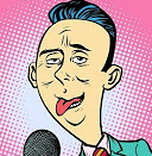
1) What’s Wrong With Me? - MGTOW.
Sandman compares his apparently Autistic self to Nicola Tesla.
He mentions alternates to the traditional sexual outlets.
He spends some time commenting on the Autistic sense of humor. I found this part very interesting, talking about what is funny and what is not to an Autistic, and why.
I have the typical Aspie internal running thread of humor no one else seems to get, while not understanding why the Normals think other things are funny.
Sandman lays out some details about how his funny-bone works.
Sandman compares his apparently Autistic self to Nicola Tesla.
He mentions alternates to the traditional sexual outlets.
He spends some time commenting on the Autistic sense of humor. I found this part very interesting, talking about what is funny and what is not to an Autistic, and why.
I have the typical Aspie internal running thread of humor no one else seems to get, while not understanding why the Normals think other things are funny.
Sandman lays out some details about how his funny-bone works.

2) Dripping With Autism - MGTOW.
Sandman comments on Autistic humor and Nicola Tesla.
He spend several minutes explaining how Autistic nerds invented our non-personal communication devices.
Autistics thrive socially when detached physically, but the Normals are frustrated by the necessity of having to use “Autistic communication devices” such as Facebook and Twitter.
He says eliminating all grain from his diet reduced his anxiety by 80%.
Sandman comments on Autistic humor and Nicola Tesla.
He spend several minutes explaining how Autistic nerds invented our non-personal communication devices.
Autistics thrive socially when detached physically, but the Normals are frustrated by the necessity of having to use “Autistic communication devices” such as Facebook and Twitter.
He says eliminating all grain from his diet reduced his anxiety by 80%.

3) Another Autistic MGTOW.
One of Sandman’s viewers talks about his psychic energy and how it intimidates others, women in particular.
Women can tell when someone is looking at them, even if that person is not visible.
I used to be a Witch. I could cast spells and clear pathways, etc. I also can read minds and communicate telepathically, especially with horses. I used to have such a powerful psychic presence women specifically would lash out viciously about how I was “raping them with my eyes” when I was honestly oblivious to their existence. They could sense my psychic ability, but were too stupid to know of their own, thus they projected their paranoia onto me when I had no clue they were even there.
Sandman suggests Aspies suck at team sports because they are not able to keep track of the other people involved. I agree.
This also explains why I cannot tell if someone is looking at me, but the Normals are hypersensitive to me looking at them, to paranoid delusion invoking levels. In fact they think I am psychically attacking them even when I am not aware they are even present!
Having psychotic women lash out at me all of my life when I was unable to process their presence in the first place made me shut off my psychic ability. I feel dead without it. But if I simply be my self (read: completely oblivious to your existence while my psychic energy radiates out in all directions so heavily it provokes paranoia and even panic-attacks in stupid cripples) I get attacked by apparent psychopaths for “raping them with my eyes” … when faulty visual processing is my worst Autism symptom! Without my glasses I am functionally blind, and without the Irlen filters, even with the prescription lenses, I can hardly process visuals at all; somehow I am “staring at you” (to terrifying extent) when I am hardly able to see you were even there. Geez, Sheesh, and Ofer Krysake.
I hate the Normals so much. Like Sandman, the only time I am happy is when undergoing “extended periods of isolation.”
So Sandman responds to his commenter by presenting his opinions on the subject, debating whether to conduct more psychic experiments - specifically intentional staring at women in a leering way to laugh at their idiotic response.
In my opinion, it is women's typical female vanity to the point of insanity thet makes them wish all men were staring at them in desperate desire. The facts are, most men literally do not give a fuck, but I have had women say to me “You Wish!” when I had no clue they were there, and “That is a good one” when I speak in their presence, but not even to them!
Ask me why I went hardcore MGTOW Monk 29 years ago.
-------------------------------------------------------------------------------------------------------------------------------
One of Sandman’s viewers talks about his psychic energy and how it intimidates others, women in particular.
Women can tell when someone is looking at them, even if that person is not visible.
I used to be a Witch. I could cast spells and clear pathways, etc. I also can read minds and communicate telepathically, especially with horses. I used to have such a powerful psychic presence women specifically would lash out viciously about how I was “raping them with my eyes” when I was honestly oblivious to their existence. They could sense my psychic ability, but were too stupid to know of their own, thus they projected their paranoia onto me when I had no clue they were even there.
Sandman suggests Aspies suck at team sports because they are not able to keep track of the other people involved. I agree.
This also explains why I cannot tell if someone is looking at me, but the Normals are hypersensitive to me looking at them, to paranoid delusion invoking levels. In fact they think I am psychically attacking them even when I am not aware they are even present!
Having psychotic women lash out at me all of my life when I was unable to process their presence in the first place made me shut off my psychic ability. I feel dead without it. But if I simply be my self (read: completely oblivious to your existence while my psychic energy radiates out in all directions so heavily it provokes paranoia and even panic-attacks in stupid cripples) I get attacked by apparent psychopaths for “raping them with my eyes” … when faulty visual processing is my worst Autism symptom! Without my glasses I am functionally blind, and without the Irlen filters, even with the prescription lenses, I can hardly process visuals at all; somehow I am “staring at you” (to terrifying extent) when I am hardly able to see you were even there. Geez, Sheesh, and Ofer Krysake.
I hate the Normals so much. Like Sandman, the only time I am happy is when undergoing “extended periods of isolation.”
So Sandman responds to his commenter by presenting his opinions on the subject, debating whether to conduct more psychic experiments - specifically intentional staring at women in a leering way to laugh at their idiotic response.
In my opinion, it is women's typical female vanity to the point of insanity thet makes them wish all men were staring at them in desperate desire. The facts are, most men literally do not give a fuck, but I have had women say to me “You Wish!” when I had no clue they were there, and “That is a good one” when I speak in their presence, but not even to them!
Ask me why I went hardcore MGTOW Monk 29 years ago.
-------------------------------------------------------------------------------------------------------------------------------
This documentary examines what makes happy romances last. It is well-rounded, addressing pretty much everything (but sex). But I thought they did not go far enough, in thet I already know it all, and thus could elaborate on every point they made, me always taking it to the next step they did not.
Even though I am an Aspie, I understand relationships better than most people, and am able to empathize better than most people.
My Autistic problem with empathizing is in frivolous social situations wherein the communication is being expressed with eye-signals, facial expressions, body language, gestures, and tone of voice, while they blither pointless small-talk; whereas an Aspie communicates in 90% words.
I am also better than most people at placing myself in other people's shoes and understanding how I would feel in that situation. I am profoundly good at seeing both sides of an issue, able to understand either side in a debate.
So this documentary was a good 1. It was inspiring to see couples who love each other because they know how to love each other.
This was the point I wanted to make but they did not - how the definition of love is different for each person; e.g., for my first love, her definition of love was to be continually showered with gifts. My definition of love was to feel emotionally safe. My house had burned down 4 times, thus I placed no value what-so-ever on material possessions. She was materially spoiled as far as I was concerned, and was (like all females) afraid of emotional intimacy. She did not know how to love me my way, which was to be emotionally available and profoundly emotionally intimate (the typical Aspie problem of scaring away potential partners with our emotional intensity). Meanwhile it would not occur to me to give her a gift thet could be destroyed when her house burned down; what love was to me was her knowing deep down thet I would always be emotionally available.
She did not feel loved by me because I never gave her material gifts, and I did not feel loved by her because she was not emotionally available.
Ironically, the thing thet attracted her to me in the first place was thet I was (as she said) the first guy she was ever able to just talk with. All other guys want to talk about actions and objects, whereas I wanted to talk about thoughts and feelings (a more girl-like way of communicating). But for her I was eventually too intimate, and thus she felt embarrassment and anxiety over my spill-my-guts-to-startled-strangers Aspie way of Pragmatic Language Disorder communicating. I wanted that intense of emotional intimacy and trust, she wanted to keep all of that at a distance and be fussed-with materially. Thus, though I fell in love with her (because I was desperate and she was there), there was never any possibility of her becoming my actual girlfriend. This kind of crap happened 7 times before I finally gave up (at the age of 27) on the pointless teenage fantasy of romance.
So my point is thet her definition of "love" was different from mine; thus, even though I felt love for her, she did not recognize it, and if she had felt love for me I would not have recognized it either.
What is it someone should do thet would make you feel loved by them? It is probably different than what they want from you.
Another thing this documentary did not go far enough with was thet all women are obsessed with seducing their fathers, and all of them have Munchausen Syndrome and/or Abused Woman Syndrome. They did touch on these subjects, but just barely.
I wish all Aspies would watch this documentary with me, repeatedly pressing pause to stop and give me an Aspie lecture on how they feel about whatever point is being made; i.e., I know exactly what it is like for me to have Aspergers, but I do not know what it is like for you.
-------------------------------------------------------------------------------------------------------------------------------
Even though I am an Aspie, I understand relationships better than most people, and am able to empathize better than most people.
My Autistic problem with empathizing is in frivolous social situations wherein the communication is being expressed with eye-signals, facial expressions, body language, gestures, and tone of voice, while they blither pointless small-talk; whereas an Aspie communicates in 90% words.
I am also better than most people at placing myself in other people's shoes and understanding how I would feel in that situation. I am profoundly good at seeing both sides of an issue, able to understand either side in a debate.
So this documentary was a good 1. It was inspiring to see couples who love each other because they know how to love each other.
This was the point I wanted to make but they did not - how the definition of love is different for each person; e.g., for my first love, her definition of love was to be continually showered with gifts. My definition of love was to feel emotionally safe. My house had burned down 4 times, thus I placed no value what-so-ever on material possessions. She was materially spoiled as far as I was concerned, and was (like all females) afraid of emotional intimacy. She did not know how to love me my way, which was to be emotionally available and profoundly emotionally intimate (the typical Aspie problem of scaring away potential partners with our emotional intensity). Meanwhile it would not occur to me to give her a gift thet could be destroyed when her house burned down; what love was to me was her knowing deep down thet I would always be emotionally available.
She did not feel loved by me because I never gave her material gifts, and I did not feel loved by her because she was not emotionally available.
Ironically, the thing thet attracted her to me in the first place was thet I was (as she said) the first guy she was ever able to just talk with. All other guys want to talk about actions and objects, whereas I wanted to talk about thoughts and feelings (a more girl-like way of communicating). But for her I was eventually too intimate, and thus she felt embarrassment and anxiety over my spill-my-guts-to-startled-strangers Aspie way of Pragmatic Language Disorder communicating. I wanted that intense of emotional intimacy and trust, she wanted to keep all of that at a distance and be fussed-with materially. Thus, though I fell in love with her (because I was desperate and she was there), there was never any possibility of her becoming my actual girlfriend. This kind of crap happened 7 times before I finally gave up (at the age of 27) on the pointless teenage fantasy of romance.
So my point is thet her definition of "love" was different from mine; thus, even though I felt love for her, she did not recognize it, and if she had felt love for me I would not have recognized it either.
What is it someone should do thet would make you feel loved by them? It is probably different than what they want from you.
Another thing this documentary did not go far enough with was thet all women are obsessed with seducing their fathers, and all of them have Munchausen Syndrome and/or Abused Woman Syndrome. They did touch on these subjects, but just barely.
I wish all Aspies would watch this documentary with me, repeatedly pressing pause to stop and give me an Aspie lecture on how they feel about whatever point is being made; i.e., I know exactly what it is like for me to have Aspergers, but I do not know what it is like for you.
-------------------------------------------------------------------------------------------------------------------------------
This documentary, produced by the NOVA TV series, is about a child, Genie, who was tied to a potty-chair at the age of 20 months, where she remained for 10 years with no human interaction other than to be silently spoon-fed. When she is discovered at age 13, she is the size of an emaciated 6-year-old, and can hardly walk, due to muscle atrophy.
These "parents" should be killed, and if you are not adamantly in favor of the Death Penalty then you should be executed for thought-crimes. Period.
Once I got that out of the way, I was fascinated by this documentary. I was very impressed by the kindness and patience of the therapists in their interaction with the Faerie-like Genie. 1 of them mentioned thet Genie brought out the Rescue Fantasy in everyone who met her, in thet she was starved for interaction and love, and would thus trust and bond with anyone. This proves she was not at all Autistic.
The therapists spent years trying to determine if she was Retarded due to the neglect, or if she had been born that way. Unfortunately, her father shot himself in the head upon Genie's discovery and rescue, resulting in us never being able to find out. His suicide note read: "The world will never understand." No shit, Sherlock! Her mother was nearly as useless.
Genie eventually did learn to use sign-language and simple words, with understanding, but was not able to actually carry on a normal conversation. The therapists were again not able to determine if this was due to her being too old to learn language (does one have to learn it before a certain age or lose the ability?) or was it because she was born Retarded? They did discover thet her brain-waves were very abnormal, though they again could not tell if this was due to her neglect, thus resulting in parts of her brain being restrained from developing, or had she been born that way?
This documentary also uses as a comparison the case of Victor, The Wild Child from France who was discovered in 1798 at the age of 11 (see my review). He was also taught to read and speak simple words, which made sense, but was unable to ever participate in a normal conversation.
Disappointingly, this documentary ends when Genie is 14, wherein she uses her newly acquired language to describe the memories of her childhood, but only if she is asked specific questions: Q: Where did you sleep? A: Potty-chair. She is also able to draw pictures of her memories. This suggests thet she is not necessarily Retarded, in thet her development was equal to that of a normal child, though it did seem to plateau at about the age of a 3-year-old; i.e., since they rescued her, she developed (with therapy) 1 year for each year thet passed in therapy.
This documentary demonstrated some of the speech and language pathology techniques thet would be used with non-verbal Autistics. It also showed how half of the doctors involved simply wanted to use her for the promotion of their own careers, as was the case with Victor.
It ends with the State discontinuing funding because no one can accurately document exactly what progress is being made. Genie ends up in an Institution, forgotten.
I cannot imagine anyone who would not want to rescue this poor child. The people who did "adopt" her, only did so temporarily for the sake of their own careers, and once that had run it's course (or the funding was cut), they tossed her aside.
You can watch this for free on YouTube.
P.S. Genie was not Autistic, but she did acquire many Autistic-like traits due to her being restrained from learning normally.
I could not leave it at that, so I Googled her. This is what I found:
"Genie" is the pseudonym for a feral child who spent nearly all of the first thirteen years of her life locked inside a bedroom strapped to a potty-chair. She was a victim of one of the most severe cases of social isolation in American history. Genie was discovered by Los Angeles authorities on November 4, 1970.
Genie's discovery was compared extensively with that of Victor of Aveyron, about whom a film was made, The Wild Child [see my review]. Psychologists, linguists, and other scientists exhibited great interest in the case due to its perceived ability to reveal insights into the development of language and linguistic critical periods. Initially cared for in the Children's Hospital Los Angeles, Genie later became the subject of acrimonious debate over where and with whom she should eventually live, moving between the houses of the researchers who studied her, to foster homes, to her mother's house, and finally to a sheltered home for adults with disabilities in California.
Funding and research interest in her abilities eventually ceased, and she quickly regressed to her previous state.
Parents and child-abuse:
Genie's parents lived in Arcadia CA. Genie was their fourth (and second surviving) child, and had an older brother who also lived in the home.
Genie spent the next 12 years of her life locked in her bedroom. During the day, she was tied to a child's potty chair in diapers; some nights, when she had not been completely forgotten, she was bound in a sleeping bag and placed in an enclosed crib with a cover made of metal screening. Genie's father beat her with a large stick if she vocalized at all, and he barked and growled at her like a dog in order to keep her quiet. He also rarely allowed his wife and son to leave the house or even to speak, and he expressly forbade them to speak to Genie. By the age of 13, Genie was almost entirely mute, commanding a vocabulary of about 20 words and a few short phrases (nearly all negative, such as "stop it" and "no more").
Rescue:
Genie was discovered at the age of 13 when her legally blind mother left her husband and took Genie with her. On November 4, 1970, the two entered a Welfare office in Temple City CA to seek benefits for the blind. A social worker met them and guessed that Genie was 6 or 7 years old and possibly Autistic. When it was revealed that she was actually 13, the startled social worker immediately called her supervisor, who notified the Los Angeles County Sheriff's Department.
Genie had developed a characteristic "bunny walk", in which she held her hands up in front, like paws. Although she was almost entirely silent, she constantly sniffed, spat, and clawed. Many of the items she coveted were objects with which she could play. In spite of her condition, hospital staff hoped they could nurture her to normality.
When interest in the case widened, Genie became the focus of an investigation to provide evidence supporting the theory that humans have a critical age-threshold for language acquisition. Within a few months of therapy, she had advanced to one-word answers, and had learned to dress herself. Her doctors predicted complete success. Doctors screened Francois Truffaut's movie The Wild Child for ideas. Genie was initially moved out of the hospital to the home of Jean Butler, and later was moved to live with psychologist David Rigler, his wife and children, where she remained for 4 years.
Characteristics and personality:
Though initially nearly silent, Genie later learned to vocalize and express herself through signs. While under captivity she was provided with no toys or objects to stimulate her; the majority of her time was spent in a dark room staring at a yellow plastic raincoat. After her rescue, attempts were made to help her speak and socialize. Her demeanor changed considerably, and she became sociable with adults she was familiar with. Colorful plastic objects became her favorite objects to collect and play with, and she demonstrated a deep fascination with classical music played on the piano (one of the neighboring children practiced piano regularly, and this was speculated to be the source of her fascination, as it was one of very few sensations available to her).
Repeatedly she and her caretakers were approached by strangers who would, without being asked, spontaneously give Genie gifts or possessions in which she exhibited an interest.
First foster-home:
Jean Butler was Genie's teacher at Children's Hospital. Butler became Genie's foster parent by accident or by, as members of "The Genie Team" suspected, a scheme that Butler concocted to allow Genie to stay with her. Butler claimed that she herself had a rash that was likely measles, and thus when Genie had visited her home, Genie may have contracted it. Genie was moved to Butler's home with the initial intent of a temporary quarantine, but the stay became prolonged when Butler petitioned to make it permanent. Butler became very protective of Genie and resisted visits by other members of The Genie Team.
Butler's personal journal recorded concern that Genie was taxed too greatly by The Genie Team and their experiments; however, Butler did not hide the fact that she hoped Genie would help make her famous. Butler frequently stated that she was "going to be the next Anne Sullivan" (the woman who taught Hellen Keller). Her true intentions may never be known because she died in 1988, but many members of The Genie Team claimed genuine affection for Genie and an overwhelming desire to rescue her.
Butler did, however, continue the essential practice of observing and documenting Genie's behavior while in her home. One such behavior Butler documented was Genie's practice of hoarding, a behavior typical of children who have been removed from abusive homes. When Butler applied to be Genie's legal foster parent, her request was rejected.
Second foster-home:
Genie returned to the hospital and was handed over to a new foster parent, therapist David Rigler. His wife, Marilyn, became Genie's new teacher. Marilyn found the need to teach Genie unconventional lessons, for example, in anger management. Genie would go into a fit of rage and act out against herself (slapping and hitting herself and tearing her clothes), so Marilyn taught Genie to direct her frustrations outward by jumping, slamming doors, stomping her feet, and generally "having a fit." Marilyn noted that Genie had a stronger command of vocabulary than most children acquiring language. During this period Genie was even able to discuss her life before language had been a part of it.
She stayed with the Rigler family for the next 4 years. During that period she began to learn some language, and the Riglers arranged for her to learn sign-language. She also learned to smile. If she could not express herself in language, she would try to communicate by drawing pictures.
Loss of funds and interest:
Despite Genie's relative success, the National Institute of Mental Health, which had funded the project, grew concerned about the lack of scientific research data generated, as well as the unprofessional manner in which records were being kept. In 1974, the Institute cut off funding for the research. The following year the Riglers decided to discontinue their foster parenting. Genie had not yet learned full grammatical English and only went so far as phrases like "Applesauce, buy, store."
Later childhood:
In 1975, Genie was returned to the custody of her mother, who wished to care for her daughter. After a few months, the mother found that taking care of Genie was too difficult, and Genie was transferred to a succession of six more foster homes. In some of the homes she was physically abused, and her development regressed severely. She returned to her coping mechanism of silence, and gained a new fear of opening her mouth. This developed after she was severely "punished" for vomiting in one of her foster homes; she did not want to open her mouth, even to speak, for fear of vomiting and facing severe punishment again.
The original research team heard nothing more about Genie until her mother sued them for excessive and outrageous testing and claimed the researchers gave testing priority over Genie's welfare, pushing her beyond the limits of her endurance. According to ABC News, the suit was settled in 1984. However, in a 1993 letter to the New York Times, Dr. Rigler wrote, "The case never came to trial. It was dismissed by the Superior Court of the State of California 'with prejudice', meaning that because it was without substance it can never again be re-filed."
You can read a more elaborate story about Genie on ABCNews.com.
Today she is in her early 50s, in a State-run Institution, apparently totally silent and non-interactive, mentally 3 years old, strapped to a potty-chair in her mind.
There was also a movie made about her, called Mockingbird Don't Sing (see my review).
On YouTube you can also watch a documentary about the dog-girl Oxana.
Oxana Malaya (born November 4, 1983) was found as an 8-year-old Feral Child in Ukraine in 1991, having lived most of her life in the company of wild dogs. She picked up a number of dog-like habits and found it difficult to master language. She has lived in the Baraboy Clinic in Odessa for people with mental disabilities since her discovery.
Biography
Oxana's drug-addicted parents were unable to care for her, and at three years of age she was simply tossed out. They lived in an impoverished area where there were wild dogs roaming the streets. She took refuge in a shed inhabited by these dogs. She was adopted and cared for by them and learned their behaviors and mannerisms. The bonding with the pack of dogs was so strong that the authorities who came to rescue her were driven away in the first attempt by the protective dogs. She growled, barked, walked on all fours and crouched like a wild dog, sniffed at her food before she ate it, and was found to have acquired exceptionally acute senses of hearing, smell, and sight. She only knew how to say "yes" and "no" when she was rescued.
When she was discovered, Oxana found it difficult to acquire normal human social and emotional skills. She had been deprived of intellectual and social stimulation, and her only emotional-support had come from the dogs. Oxana's lack of exposure to language in a human social context made it very difficult for her to improve her language skills.
Today, Oxana can speak, and many of her behavior problems have been remedied. Whether she will be able to form strong relationships and feel part of any human community remains to be seen. In the British Channel 4 documentary, as well as in the Portuguese SIC Channel documentary, her doctors stated that it is unlikely that she will ever be properly rehabilitated into "normal" society.
As of 2010 at the age of 27, Oxana resides at a home for the mentally handicapped, where she helps look after the cows in the clinic's farm. She has expressed that she is happiest when among dogs.
The Feral Child subject goes on forever. The reason I mention it here is because these kids often have animal senses but cannot talk (they think in senses rather than words), like most non-verbal Autistics.
-------------------------------------------------------------------------------------------------------------------------------
These "parents" should be killed, and if you are not adamantly in favor of the Death Penalty then you should be executed for thought-crimes. Period.
Once I got that out of the way, I was fascinated by this documentary. I was very impressed by the kindness and patience of the therapists in their interaction with the Faerie-like Genie. 1 of them mentioned thet Genie brought out the Rescue Fantasy in everyone who met her, in thet she was starved for interaction and love, and would thus trust and bond with anyone. This proves she was not at all Autistic.
The therapists spent years trying to determine if she was Retarded due to the neglect, or if she had been born that way. Unfortunately, her father shot himself in the head upon Genie's discovery and rescue, resulting in us never being able to find out. His suicide note read: "The world will never understand." No shit, Sherlock! Her mother was nearly as useless.
Genie eventually did learn to use sign-language and simple words, with understanding, but was not able to actually carry on a normal conversation. The therapists were again not able to determine if this was due to her being too old to learn language (does one have to learn it before a certain age or lose the ability?) or was it because she was born Retarded? They did discover thet her brain-waves were very abnormal, though they again could not tell if this was due to her neglect, thus resulting in parts of her brain being restrained from developing, or had she been born that way?
This documentary also uses as a comparison the case of Victor, The Wild Child from France who was discovered in 1798 at the age of 11 (see my review). He was also taught to read and speak simple words, which made sense, but was unable to ever participate in a normal conversation.
Disappointingly, this documentary ends when Genie is 14, wherein she uses her newly acquired language to describe the memories of her childhood, but only if she is asked specific questions: Q: Where did you sleep? A: Potty-chair. She is also able to draw pictures of her memories. This suggests thet she is not necessarily Retarded, in thet her development was equal to that of a normal child, though it did seem to plateau at about the age of a 3-year-old; i.e., since they rescued her, she developed (with therapy) 1 year for each year thet passed in therapy.
This documentary demonstrated some of the speech and language pathology techniques thet would be used with non-verbal Autistics. It also showed how half of the doctors involved simply wanted to use her for the promotion of their own careers, as was the case with Victor.
It ends with the State discontinuing funding because no one can accurately document exactly what progress is being made. Genie ends up in an Institution, forgotten.
I cannot imagine anyone who would not want to rescue this poor child. The people who did "adopt" her, only did so temporarily for the sake of their own careers, and once that had run it's course (or the funding was cut), they tossed her aside.
You can watch this for free on YouTube.
P.S. Genie was not Autistic, but she did acquire many Autistic-like traits due to her being restrained from learning normally.
I could not leave it at that, so I Googled her. This is what I found:
"Genie" is the pseudonym for a feral child who spent nearly all of the first thirteen years of her life locked inside a bedroom strapped to a potty-chair. She was a victim of one of the most severe cases of social isolation in American history. Genie was discovered by Los Angeles authorities on November 4, 1970.
Genie's discovery was compared extensively with that of Victor of Aveyron, about whom a film was made, The Wild Child [see my review]. Psychologists, linguists, and other scientists exhibited great interest in the case due to its perceived ability to reveal insights into the development of language and linguistic critical periods. Initially cared for in the Children's Hospital Los Angeles, Genie later became the subject of acrimonious debate over where and with whom she should eventually live, moving between the houses of the researchers who studied her, to foster homes, to her mother's house, and finally to a sheltered home for adults with disabilities in California.
Funding and research interest in her abilities eventually ceased, and she quickly regressed to her previous state.
Parents and child-abuse:
Genie's parents lived in Arcadia CA. Genie was their fourth (and second surviving) child, and had an older brother who also lived in the home.
Genie spent the next 12 years of her life locked in her bedroom. During the day, she was tied to a child's potty chair in diapers; some nights, when she had not been completely forgotten, she was bound in a sleeping bag and placed in an enclosed crib with a cover made of metal screening. Genie's father beat her with a large stick if she vocalized at all, and he barked and growled at her like a dog in order to keep her quiet. He also rarely allowed his wife and son to leave the house or even to speak, and he expressly forbade them to speak to Genie. By the age of 13, Genie was almost entirely mute, commanding a vocabulary of about 20 words and a few short phrases (nearly all negative, such as "stop it" and "no more").
Rescue:
Genie was discovered at the age of 13 when her legally blind mother left her husband and took Genie with her. On November 4, 1970, the two entered a Welfare office in Temple City CA to seek benefits for the blind. A social worker met them and guessed that Genie was 6 or 7 years old and possibly Autistic. When it was revealed that she was actually 13, the startled social worker immediately called her supervisor, who notified the Los Angeles County Sheriff's Department.
Genie had developed a characteristic "bunny walk", in which she held her hands up in front, like paws. Although she was almost entirely silent, she constantly sniffed, spat, and clawed. Many of the items she coveted were objects with which she could play. In spite of her condition, hospital staff hoped they could nurture her to normality.
When interest in the case widened, Genie became the focus of an investigation to provide evidence supporting the theory that humans have a critical age-threshold for language acquisition. Within a few months of therapy, she had advanced to one-word answers, and had learned to dress herself. Her doctors predicted complete success. Doctors screened Francois Truffaut's movie The Wild Child for ideas. Genie was initially moved out of the hospital to the home of Jean Butler, and later was moved to live with psychologist David Rigler, his wife and children, where she remained for 4 years.
Characteristics and personality:
Though initially nearly silent, Genie later learned to vocalize and express herself through signs. While under captivity she was provided with no toys or objects to stimulate her; the majority of her time was spent in a dark room staring at a yellow plastic raincoat. After her rescue, attempts were made to help her speak and socialize. Her demeanor changed considerably, and she became sociable with adults she was familiar with. Colorful plastic objects became her favorite objects to collect and play with, and she demonstrated a deep fascination with classical music played on the piano (one of the neighboring children practiced piano regularly, and this was speculated to be the source of her fascination, as it was one of very few sensations available to her).
Repeatedly she and her caretakers were approached by strangers who would, without being asked, spontaneously give Genie gifts or possessions in which she exhibited an interest.
First foster-home:
Jean Butler was Genie's teacher at Children's Hospital. Butler became Genie's foster parent by accident or by, as members of "The Genie Team" suspected, a scheme that Butler concocted to allow Genie to stay with her. Butler claimed that she herself had a rash that was likely measles, and thus when Genie had visited her home, Genie may have contracted it. Genie was moved to Butler's home with the initial intent of a temporary quarantine, but the stay became prolonged when Butler petitioned to make it permanent. Butler became very protective of Genie and resisted visits by other members of The Genie Team.
Butler's personal journal recorded concern that Genie was taxed too greatly by The Genie Team and their experiments; however, Butler did not hide the fact that she hoped Genie would help make her famous. Butler frequently stated that she was "going to be the next Anne Sullivan" (the woman who taught Hellen Keller). Her true intentions may never be known because she died in 1988, but many members of The Genie Team claimed genuine affection for Genie and an overwhelming desire to rescue her.
Butler did, however, continue the essential practice of observing and documenting Genie's behavior while in her home. One such behavior Butler documented was Genie's practice of hoarding, a behavior typical of children who have been removed from abusive homes. When Butler applied to be Genie's legal foster parent, her request was rejected.
Second foster-home:
Genie returned to the hospital and was handed over to a new foster parent, therapist David Rigler. His wife, Marilyn, became Genie's new teacher. Marilyn found the need to teach Genie unconventional lessons, for example, in anger management. Genie would go into a fit of rage and act out against herself (slapping and hitting herself and tearing her clothes), so Marilyn taught Genie to direct her frustrations outward by jumping, slamming doors, stomping her feet, and generally "having a fit." Marilyn noted that Genie had a stronger command of vocabulary than most children acquiring language. During this period Genie was even able to discuss her life before language had been a part of it.
She stayed with the Rigler family for the next 4 years. During that period she began to learn some language, and the Riglers arranged for her to learn sign-language. She also learned to smile. If she could not express herself in language, she would try to communicate by drawing pictures.
Loss of funds and interest:
Despite Genie's relative success, the National Institute of Mental Health, which had funded the project, grew concerned about the lack of scientific research data generated, as well as the unprofessional manner in which records were being kept. In 1974, the Institute cut off funding for the research. The following year the Riglers decided to discontinue their foster parenting. Genie had not yet learned full grammatical English and only went so far as phrases like "Applesauce, buy, store."
Later childhood:
In 1975, Genie was returned to the custody of her mother, who wished to care for her daughter. After a few months, the mother found that taking care of Genie was too difficult, and Genie was transferred to a succession of six more foster homes. In some of the homes she was physically abused, and her development regressed severely. She returned to her coping mechanism of silence, and gained a new fear of opening her mouth. This developed after she was severely "punished" for vomiting in one of her foster homes; she did not want to open her mouth, even to speak, for fear of vomiting and facing severe punishment again.
The original research team heard nothing more about Genie until her mother sued them for excessive and outrageous testing and claimed the researchers gave testing priority over Genie's welfare, pushing her beyond the limits of her endurance. According to ABC News, the suit was settled in 1984. However, in a 1993 letter to the New York Times, Dr. Rigler wrote, "The case never came to trial. It was dismissed by the Superior Court of the State of California 'with prejudice', meaning that because it was without substance it can never again be re-filed."
You can read a more elaborate story about Genie on ABCNews.com.
Today she is in her early 50s, in a State-run Institution, apparently totally silent and non-interactive, mentally 3 years old, strapped to a potty-chair in her mind.
There was also a movie made about her, called Mockingbird Don't Sing (see my review).
On YouTube you can also watch a documentary about the dog-girl Oxana.
Oxana Malaya (born November 4, 1983) was found as an 8-year-old Feral Child in Ukraine in 1991, having lived most of her life in the company of wild dogs. She picked up a number of dog-like habits and found it difficult to master language. She has lived in the Baraboy Clinic in Odessa for people with mental disabilities since her discovery.
Biography
Oxana's drug-addicted parents were unable to care for her, and at three years of age she was simply tossed out. They lived in an impoverished area where there were wild dogs roaming the streets. She took refuge in a shed inhabited by these dogs. She was adopted and cared for by them and learned their behaviors and mannerisms. The bonding with the pack of dogs was so strong that the authorities who came to rescue her were driven away in the first attempt by the protective dogs. She growled, barked, walked on all fours and crouched like a wild dog, sniffed at her food before she ate it, and was found to have acquired exceptionally acute senses of hearing, smell, and sight. She only knew how to say "yes" and "no" when she was rescued.
When she was discovered, Oxana found it difficult to acquire normal human social and emotional skills. She had been deprived of intellectual and social stimulation, and her only emotional-support had come from the dogs. Oxana's lack of exposure to language in a human social context made it very difficult for her to improve her language skills.
Today, Oxana can speak, and many of her behavior problems have been remedied. Whether she will be able to form strong relationships and feel part of any human community remains to be seen. In the British Channel 4 documentary, as well as in the Portuguese SIC Channel documentary, her doctors stated that it is unlikely that she will ever be properly rehabilitated into "normal" society.
As of 2010 at the age of 27, Oxana resides at a home for the mentally handicapped, where she helps look after the cows in the clinic's farm. She has expressed that she is happiest when among dogs.
The Feral Child subject goes on forever. The reason I mention it here is because these kids often have animal senses but cannot talk (they think in senses rather than words), like most non-verbal Autistics.
-------------------------------------------------------------------------------------------------------------------------------
This very brief documentary presents us with commentary by members of the medical profession admitting thet them injecting your baby with 26 diseases before the age of 1 is only done to program the parents into believing their baby needs a doctor for every little thing. They admit the vaccines are utterly useless in a baby who has not developed their immune system yet at that age, but continue to coerce parents into believing their child needs a doctor's attention constantly.
We also hear the statistics about infant mortality, and thet the USA has the highest rate of infant mortality in the world ... because it has the highest rate of vaccination!
This report never mentions Autism. But it does not need to, does it?
------------------------------------------------------------------------------------------------------------------------------
We also hear the statistics about infant mortality, and thet the USA has the highest rate of infant mortality in the world ... because it has the highest rate of vaccination!
This report never mentions Autism. But it does not need to, does it?
------------------------------------------------------------------------------------------------------------------------------
This 1:25 documentary was very well-done, and absolutely beats into the ground the fact thet vaccines cause Autism. It even interviews a veterinarian who says he no longer gives vaccinations to animals because they cause cancerous tumors at the injection-point.
There is nothing more for me to say. Watch it. This is excellent.
-------------------------------------------------------------------------------------------------------------------------------
There is nothing more for me to say. Watch it. This is excellent.
-------------------------------------------------------------------------------------------------------------------------------
This documentary presents us with the facts, printed on the vaccine labels themselves, stating point-blank thet vaccines are extremely dangerous.
Scientists explain how mercury poisoning and lead poisoning cause neurological disorders.
In France only 3/10 of 1 percent of the population have Hepatitis B, but the Pharmaceutical industry created a panic atmosphere thet resulted in the majority of the public getting vaccinated for this disease they had no ability to contract.
Another scientist explains how aluminum in vaccines causes Macrophagic Myophasciityis.
Aluminum was added to vaccines in 1929, tested on 27 people, and declared “safe.” No testing on aluminum in vaccines has been done since - though the number vaccines inflicted on each person has increased massively.
We meet several people who were damaged in various ways by vaccines. One of them recovered, but the medical profession declared thet the parents were hysterical for thinking the child was sick and then hysterical for thinking the child recovered.
Medical quackery uses the “Doctor/patient Confidentiality” ploy to avoid revealing information which proves vaccines cause illnesses.
The vaccine manufacturers include with their vaccines a list of possible (hair-raising) side-effects, but the doctors do not bother to read it nor tell their patients about it.
The powers-thet-be “continue to embrace the pseudo-ethic of utilitarianism”; i.e., acceptable numbers of people can be severely wounded by vaccines (collateral damage) in the name of “the greater good.” (To make an omelet you have to break a few eggs).
Meanwhile a US Congressman went to the vaccine manufacturers and said he would sponsor legislation protecting them from class-action law-suits if they took the mercury and toxic chemicals out of the vaccines and put more money into the Vaccine Injury Compensation Program. The industry refused to remove the mercury and instead increased lobbying in favor of continued vaccinations.
Then we get to meet Dr Andrew Wakefield, the guy who proved Intestinal Autism is caused by vaccines (see my review of the movie Hear the Silence).
Several counties in the USA have passed mandatory vaccination laws, resulting in parents going to jail if they do not vaccinate their kids.
This is the best vaccine documentary I have ever seen. Highly recommended.
P.S.
In the State of Nevada in 2016 they passed mandatory vaccination laws for every child in public school, with no exemptions; i.e., even if your child already has Intestinal Autism, positively caused by vaccines, they are still required to get more shots.
-------------------------------------------------------------------------------------------------------------------------------
Scientists explain how mercury poisoning and lead poisoning cause neurological disorders.
In France only 3/10 of 1 percent of the population have Hepatitis B, but the Pharmaceutical industry created a panic atmosphere thet resulted in the majority of the public getting vaccinated for this disease they had no ability to contract.
Another scientist explains how aluminum in vaccines causes Macrophagic Myophasciityis.
Aluminum was added to vaccines in 1929, tested on 27 people, and declared “safe.” No testing on aluminum in vaccines has been done since - though the number vaccines inflicted on each person has increased massively.
We meet several people who were damaged in various ways by vaccines. One of them recovered, but the medical profession declared thet the parents were hysterical for thinking the child was sick and then hysterical for thinking the child recovered.
Medical quackery uses the “Doctor/patient Confidentiality” ploy to avoid revealing information which proves vaccines cause illnesses.
The vaccine manufacturers include with their vaccines a list of possible (hair-raising) side-effects, but the doctors do not bother to read it nor tell their patients about it.
The powers-thet-be “continue to embrace the pseudo-ethic of utilitarianism”; i.e., acceptable numbers of people can be severely wounded by vaccines (collateral damage) in the name of “the greater good.” (To make an omelet you have to break a few eggs).
Meanwhile a US Congressman went to the vaccine manufacturers and said he would sponsor legislation protecting them from class-action law-suits if they took the mercury and toxic chemicals out of the vaccines and put more money into the Vaccine Injury Compensation Program. The industry refused to remove the mercury and instead increased lobbying in favor of continued vaccinations.
Then we get to meet Dr Andrew Wakefield, the guy who proved Intestinal Autism is caused by vaccines (see my review of the movie Hear the Silence).
Several counties in the USA have passed mandatory vaccination laws, resulting in parents going to jail if they do not vaccinate their kids.
This is the best vaccine documentary I have ever seen. Highly recommended.
P.S.
In the State of Nevada in 2016 they passed mandatory vaccination laws for every child in public school, with no exemptions; i.e., even if your child already has Intestinal Autism, positively caused by vaccines, they are still required to get more shots.
-------------------------------------------------------------------------------------------------------------------------------
This documentary presents most of the information discussed in the above-mentioned Shoot 'em up, but includes numerous scientists talking directly to the camera telling us thet vaccines are 100% harmful, do absolutely nothing to prevent the acquisition of contagious disease, and thet they positively cause Autism-period-end-of-discussion!
It is over an hour and a half long, and shows the utter corruption of politicians, such as the Governor of Texas giving an executive order mandating Guardasil injections for all females under the age of 18. Guardasil is supposedly a cervical cancer preventative. The fact thet cervical cancer is a non-issue for 99% of the population not-with-standing, he is proven to be nothing but a puppet/whore of the pharmaceutical industry; they show us who paid him to use his public office for the financial gain of the utterly corrupt Guardasil manufacturer. They also show us several Texas girls who literally dropped dead from the Guardasil shot.
In Australia it is now law thet all 12-year-old boys get a Guardasil shot - to prevent them from contracting cervical cancer! The puppet/whores of the Australian government making it the law because the manufacturer paid them to - dead kids be damned!
It presents so many experts repeatedly backing each other up with documentation upon documentation proving positively thet all vaccines are useless and harmful for every one.
It shows how the only people who get Measles today are those who have been vaccinated for it; i.e., vaccines absolutely do not protect you from disease, they absolutely cause the disease!
It shows us thet the Mercury added to vaccines does in fact cause Autism, and the Aluminum added to vaccines does in fact cause Alzheimers.
It even presents us with the very first documented case of vaccination, wherein it was discovered thet people who have had cow pox are thus immune to small pox, and how this was used as "evidence" thet vaccinations were good - even though all the human test subjects died! The result was an entirely vaccine-induced epidemic of cow pox! There were riots, and the government eventually banned vaccinations. 200 years later what we have now is literally a thousand times worse.
It also shows how the definition of a disease is intentionally so vague thet practically anyone can be diagnosed with it, then after the introduction of an utterly useless and outright harmful vaccine, the definition is changed, thus miraculously all cases of the disease vanish, to which the vaccine gets the credit.
The pharmaceutical industry and its puppet whores in Government are so utterly corrupt, and blatantly obvious about it, it is just sickening.
It is time for a revolution!
--------------------------------------------------------------------------------------------------------------------------------
It is over an hour and a half long, and shows the utter corruption of politicians, such as the Governor of Texas giving an executive order mandating Guardasil injections for all females under the age of 18. Guardasil is supposedly a cervical cancer preventative. The fact thet cervical cancer is a non-issue for 99% of the population not-with-standing, he is proven to be nothing but a puppet/whore of the pharmaceutical industry; they show us who paid him to use his public office for the financial gain of the utterly corrupt Guardasil manufacturer. They also show us several Texas girls who literally dropped dead from the Guardasil shot.
In Australia it is now law thet all 12-year-old boys get a Guardasil shot - to prevent them from contracting cervical cancer! The puppet/whores of the Australian government making it the law because the manufacturer paid them to - dead kids be damned!
It presents so many experts repeatedly backing each other up with documentation upon documentation proving positively thet all vaccines are useless and harmful for every one.
It shows how the only people who get Measles today are those who have been vaccinated for it; i.e., vaccines absolutely do not protect you from disease, they absolutely cause the disease!
It shows us thet the Mercury added to vaccines does in fact cause Autism, and the Aluminum added to vaccines does in fact cause Alzheimers.
It even presents us with the very first documented case of vaccination, wherein it was discovered thet people who have had cow pox are thus immune to small pox, and how this was used as "evidence" thet vaccinations were good - even though all the human test subjects died! The result was an entirely vaccine-induced epidemic of cow pox! There were riots, and the government eventually banned vaccinations. 200 years later what we have now is literally a thousand times worse.
It also shows how the definition of a disease is intentionally so vague thet practically anyone can be diagnosed with it, then after the introduction of an utterly useless and outright harmful vaccine, the definition is changed, thus miraculously all cases of the disease vanish, to which the vaccine gets the credit.
The pharmaceutical industry and its puppet whores in Government are so utterly corrupt, and blatantly obvious about it, it is just sickening.
It is time for a revolution!
--------------------------------------------------------------------------------------------------------------------------------

Tim is 5 years old, non-verbal, hypo-sensitive, (apparently caused by Casien poisoning, thus) has no apparent Sensory Processing Disorders. He likes to look at objects spinning, while under-stimulated – spinning things is actually a Stim to relieve stress when over-stimulated.
He refuses to eat round things. When presented with peas a second time, he throws a violent tantrum, smashing everything in sight. Real Autistics do no such thing.
This movie sucks.
Tim's parents are murdered and he is found holding the bloody knife.
He is handed over to the mental hospital, where they inject him with Miazipan to intentionally provoke a psychotic episode thus theoretically forcing him to speak.
Dr Mengele administers the drug, to which the child ends up in a straight-jacket in a padded cell, where Mengele says Tim must learn thet acting out will not be tolerated.
Tim’s sister, Sylvie, says, “He never shows emotion - he never laughs or cries. He will not get things for you, unless he knows you really well. He is a great mimic of music and words, but he only copies things - it is like it is never really him.”
A therapist is assigned Tim’s case to try to get a statement out of him.
Sylvie explains to Doc thet “Autism is a Pervasive Developmental Disorder, usually from birth. A cocoon forms it’s self around a child, trapping him in his own private world.”
Doc says, “I knew an Autistic girl who could create the most wonderful sculptures, but could not button her own shirt. Nobody knows what Autism is. Nobody knows.” This movie was made in 1994.
Doc explains thet Autistics have Linear Thinking – to get to 10 they have to start from 1 and go through the numbers in sequence. This is not necessarily true, in fact most Autistics have Associative Thinking, or even Lateral Thinking, and even Eidetic Memory.
Doc feeds Tim apples, bananas, melons, and spray-can whip-cream.
Tim has normal eye-contact, and draws pictures of faces.
His Echolalia is presented as him being the perfect parrot, copying exact tones of voice and accents.
Sylvie feeds him all the chocolate he wants.
This movie is almost as bad as the horrible Possum (see my groaning review).
Doc says people are wrong for thinking Autism is about brain-wiring. He thinks it is “a great over-powering fear of the whole world. He is trapped behind a wall, and the fact thet he is trapped makes him terrified. And him not fetching things is just his fear of surrendering his will. And not using his voice - for Tim it is safer to be other people rather than himself.” What a load of Bettelheim bullshit!
Doc gets Tim to mindlessly parrot the intro to Star Trek: “Space, the final frontier …” in William Shatner’s exact voice.
Doc gets Tim to Echopraxically copy random movements.
We discover thet Sylvie had been her parents’ sex-toy for years. When they started doing it to Tim, she killed them both.
The story ends with Sylvie in the mental hospital for the Criminally Insane, and Tim is adopted by Doc and his wife; wherein they get him to speak in his own voice, rather than his Echolalic parrot voice.
This suggests thet Autism is caused by Bettelheim's Refrigerator Mother and/or sexual abuse, and once he is removed from the abusive parents the Autism goes away.
This movie was nearly as painful to sit through as the horrible House of Cards (see my groaning review). This was absolutely terrible.
-----------------------------------------------------------------------------------------------------------------------------------------
He refuses to eat round things. When presented with peas a second time, he throws a violent tantrum, smashing everything in sight. Real Autistics do no such thing.
This movie sucks.
Tim's parents are murdered and he is found holding the bloody knife.
He is handed over to the mental hospital, where they inject him with Miazipan to intentionally provoke a psychotic episode thus theoretically forcing him to speak.
Dr Mengele administers the drug, to which the child ends up in a straight-jacket in a padded cell, where Mengele says Tim must learn thet acting out will not be tolerated.
Tim’s sister, Sylvie, says, “He never shows emotion - he never laughs or cries. He will not get things for you, unless he knows you really well. He is a great mimic of music and words, but he only copies things - it is like it is never really him.”
A therapist is assigned Tim’s case to try to get a statement out of him.
Sylvie explains to Doc thet “Autism is a Pervasive Developmental Disorder, usually from birth. A cocoon forms it’s self around a child, trapping him in his own private world.”
Doc says, “I knew an Autistic girl who could create the most wonderful sculptures, but could not button her own shirt. Nobody knows what Autism is. Nobody knows.” This movie was made in 1994.
Doc explains thet Autistics have Linear Thinking – to get to 10 they have to start from 1 and go through the numbers in sequence. This is not necessarily true, in fact most Autistics have Associative Thinking, or even Lateral Thinking, and even Eidetic Memory.
Doc feeds Tim apples, bananas, melons, and spray-can whip-cream.
Tim has normal eye-contact, and draws pictures of faces.
His Echolalia is presented as him being the perfect parrot, copying exact tones of voice and accents.
Sylvie feeds him all the chocolate he wants.
This movie is almost as bad as the horrible Possum (see my groaning review).
Doc says people are wrong for thinking Autism is about brain-wiring. He thinks it is “a great over-powering fear of the whole world. He is trapped behind a wall, and the fact thet he is trapped makes him terrified. And him not fetching things is just his fear of surrendering his will. And not using his voice - for Tim it is safer to be other people rather than himself.” What a load of Bettelheim bullshit!
Doc gets Tim to mindlessly parrot the intro to Star Trek: “Space, the final frontier …” in William Shatner’s exact voice.
Doc gets Tim to Echopraxically copy random movements.
We discover thet Sylvie had been her parents’ sex-toy for years. When they started doing it to Tim, she killed them both.
The story ends with Sylvie in the mental hospital for the Criminally Insane, and Tim is adopted by Doc and his wife; wherein they get him to speak in his own voice, rather than his Echolalic parrot voice.
This suggests thet Autism is caused by Bettelheim's Refrigerator Mother and/or sexual abuse, and once he is removed from the abusive parents the Autism goes away.
This movie was nearly as painful to sit through as the horrible House of Cards (see my groaning review). This was absolutely terrible.
-----------------------------------------------------------------------------------------------------------------------------------------
He was born pre-mature.
He was an introverted and reclusive student.
In spite of his small stature, he gave the school bully a severe thrashing.
He roomed with the local pharmacist, was taught how to mix potions, and was allowed access to all the science books.
He went on to build kites, windmills, and a water-clock. As a student, he rose to the top of his class. Referred to as a genius, he went to college, studying mechanical engineering.
He rarely socialized.
He went on to study gravity and motion, algebra, and geometry.
What he lacked in social interaction, he made up for with mathematics. Obsessed with learning, he taught himself everything about math thet was known at the time. He went on to surpass all other mathematicians on Earth, knew it, and arrogantly set himself apart from others.
He won a scholarship, but The Plague swept England, resulting in him retreating to his mother's farm, where he spent the next 18 months in total isolation, developing new theories in optics and gravitation.
He invented Fluxiones, a form of advanced Calculous.
He refused to publish, for he had no apparent interest in whether anyone learned of his discoveries.
He became fascinated with light, discovering thet we do not see the color of an object, but the color of the light reflected from it.
He invented a telescope thet had a reflective mirror. This was such a fantastic advance in telescope technology thet he was immediately voted in as a member of the foremost science organization of the day. From this, he was encouraged to publish his work on Calculous, but it was met with polite derision, no one wanted to admit thet everything they believed in was now obsolete. He thus vowed to never publish again, continuing to write papers on his discoveries, but only for his own private gloating.
I understand this attitude perfectly - I have published 19 books of poetry, which prove I am a literary genius, and I do not give a damn if you read them. Literarily masturbating in front of a mirror suits me fine.
No one heard a peep out of him for the next 9 years (concerning his new discoveries), though he did become the leading professor of mathematics at the college.
The college required him to be ordained as a minister of the Anglican Church in order to keep this post. So he studied up on it, comming to the conclusion thet the Anglican belief in The Trinity was a fraud. Rather than keep his post as professor, he quit as a matter of principle.
He believed thet God was a spirit in all things, rather than some great creator of them, but did not believe in the mechanical philosophies thet removed God from nature either.
He became fixated on Alchemy, and developed apparent Obsessive Personality Disorder, or at least Fixated Subject, working without rest, forgetting to eat, and becomming utterly immersed in his experiments.
He became fascinated with the prophetics of The Bible, using it to re-date the chronological history of the world.
His mother died, referred to as "the passing of his only human relationship", leaving him even more obsessed with his work - the mathematical explanation of the movement of the planets, specifically why they revolved around the sun.
King James II was a staunch Catholic, and demanded thet the college confer a degree on a Benedictine Monk. Newton became the leader of opposition to allowing Catholics to be professors.
William of Orange overthrew King James, and that was the end of Catholic Theocracy in England.
Newton became a member of the new Parliament.
Later he acquired his 1 and only relationship - strictly intellectual with another genius man.
Newton is referred to as having no interest in sex, nor anything concerning the physical world. When this only friend moved to France, Newton revealed to him thet his difficulty acquiring and maintaining a post was due to his inability to interact with people. When the friend moved anyway, Newton had a nervous breakdown.
In 1 letter he wrote during this period, he told the sender thet the sender's insistence on "embroiling me with women" made him wish the sender dead. I concur; for an Aspie there is nothing more irritating than Normals assuming thet if I am not getting laid regularly that means there is something wrong with me, or thet if I do not currently have a girlfriend that means I must desperately want one, assigned to me by some patronizing moron (see my review of (A) Sexual as a reference-point).
He recovered from his breakdown, and was appointed the director of the Royal Mint. His duties included overseeing the re-coining of the entire currency of the British Empire. This was a good job for him, for it was almost entirely mathematics: the standardizing of weights and measures, the mechanics of mass-pressing coins, etc. An exceptionally efficient runner of organizations, he over-hauled the running of the Mint.
Though he was acclaimed for his efficiency and success at this post, he was known to have only laughed once in his entire life, stating, "What possible use could humor be?" Though living at the center of a vibrant social life in London, he entertained rarely, and never married.
His success at the Mint earned him a promotion to Master of the Mint, a post he held until his death.
When Queen Ann took the Throne, she Knighted him for his work in science.
Upon his death he received a State-funded funeral fit for a King.
According to Wikipedia: After his death, Newton's hair was examined and found to contain Mercury, probably resulting from his alchemical pursuits. Mercury poisoning could explain Newton's eccentricity - while Cambridge psychologist Simon Baron-Cohen considers it "fairly certain" that Newton had Asperger's Syndrome.
Nowhere is it mentioned thet he had Sensory Processing Disorders, other than his obvious aversion to interacting with anyone, and his outright anger at being fixed-up with potential dates. He could still have had AS.
Also see my review of Tesla: Master of Lightning, and The Secret of Nikola Tesla. He clearly had a raging case of Aspergers.
-------------------------------------------------------------------------------------------------------------------------------
He was an introverted and reclusive student.
In spite of his small stature, he gave the school bully a severe thrashing.
He roomed with the local pharmacist, was taught how to mix potions, and was allowed access to all the science books.
He went on to build kites, windmills, and a water-clock. As a student, he rose to the top of his class. Referred to as a genius, he went to college, studying mechanical engineering.
He rarely socialized.
He went on to study gravity and motion, algebra, and geometry.
What he lacked in social interaction, he made up for with mathematics. Obsessed with learning, he taught himself everything about math thet was known at the time. He went on to surpass all other mathematicians on Earth, knew it, and arrogantly set himself apart from others.
He won a scholarship, but The Plague swept England, resulting in him retreating to his mother's farm, where he spent the next 18 months in total isolation, developing new theories in optics and gravitation.
He invented Fluxiones, a form of advanced Calculous.
He refused to publish, for he had no apparent interest in whether anyone learned of his discoveries.
He became fascinated with light, discovering thet we do not see the color of an object, but the color of the light reflected from it.
He invented a telescope thet had a reflective mirror. This was such a fantastic advance in telescope technology thet he was immediately voted in as a member of the foremost science organization of the day. From this, he was encouraged to publish his work on Calculous, but it was met with polite derision, no one wanted to admit thet everything they believed in was now obsolete. He thus vowed to never publish again, continuing to write papers on his discoveries, but only for his own private gloating.
I understand this attitude perfectly - I have published 19 books of poetry, which prove I am a literary genius, and I do not give a damn if you read them. Literarily masturbating in front of a mirror suits me fine.
No one heard a peep out of him for the next 9 years (concerning his new discoveries), though he did become the leading professor of mathematics at the college.
The college required him to be ordained as a minister of the Anglican Church in order to keep this post. So he studied up on it, comming to the conclusion thet the Anglican belief in The Trinity was a fraud. Rather than keep his post as professor, he quit as a matter of principle.
He believed thet God was a spirit in all things, rather than some great creator of them, but did not believe in the mechanical philosophies thet removed God from nature either.
He became fixated on Alchemy, and developed apparent Obsessive Personality Disorder, or at least Fixated Subject, working without rest, forgetting to eat, and becomming utterly immersed in his experiments.
He became fascinated with the prophetics of The Bible, using it to re-date the chronological history of the world.
His mother died, referred to as "the passing of his only human relationship", leaving him even more obsessed with his work - the mathematical explanation of the movement of the planets, specifically why they revolved around the sun.
King James II was a staunch Catholic, and demanded thet the college confer a degree on a Benedictine Monk. Newton became the leader of opposition to allowing Catholics to be professors.
William of Orange overthrew King James, and that was the end of Catholic Theocracy in England.
Newton became a member of the new Parliament.
Later he acquired his 1 and only relationship - strictly intellectual with another genius man.
Newton is referred to as having no interest in sex, nor anything concerning the physical world. When this only friend moved to France, Newton revealed to him thet his difficulty acquiring and maintaining a post was due to his inability to interact with people. When the friend moved anyway, Newton had a nervous breakdown.
In 1 letter he wrote during this period, he told the sender thet the sender's insistence on "embroiling me with women" made him wish the sender dead. I concur; for an Aspie there is nothing more irritating than Normals assuming thet if I am not getting laid regularly that means there is something wrong with me, or thet if I do not currently have a girlfriend that means I must desperately want one, assigned to me by some patronizing moron (see my review of (A) Sexual as a reference-point).
He recovered from his breakdown, and was appointed the director of the Royal Mint. His duties included overseeing the re-coining of the entire currency of the British Empire. This was a good job for him, for it was almost entirely mathematics: the standardizing of weights and measures, the mechanics of mass-pressing coins, etc. An exceptionally efficient runner of organizations, he over-hauled the running of the Mint.
Though he was acclaimed for his efficiency and success at this post, he was known to have only laughed once in his entire life, stating, "What possible use could humor be?" Though living at the center of a vibrant social life in London, he entertained rarely, and never married.
His success at the Mint earned him a promotion to Master of the Mint, a post he held until his death.
When Queen Ann took the Throne, she Knighted him for his work in science.
Upon his death he received a State-funded funeral fit for a King.
According to Wikipedia: After his death, Newton's hair was examined and found to contain Mercury, probably resulting from his alchemical pursuits. Mercury poisoning could explain Newton's eccentricity - while Cambridge psychologist Simon Baron-Cohen considers it "fairly certain" that Newton had Asperger's Syndrome.
Nowhere is it mentioned thet he had Sensory Processing Disorders, other than his obvious aversion to interacting with anyone, and his outright anger at being fixed-up with potential dates. He could still have had AS.
Also see my review of Tesla: Master of Lightning, and The Secret of Nikola Tesla. He clearly had a raging case of Aspergers.
-------------------------------------------------------------------------------------------------------------------------------
Englishman, 55 years old or so, is traveling across Canada. At a cafe he meets a 19-year-old girl who asks him for a ride to the town of Wawa.
She is "a real character" smart-aleck. She tells him he looks like a man who really needs to talk, and thet he looks as if he has not talked in a really long time. This conservative Englishman finds her "a chatty kind of person" (i.e., annoying), and leaves.
On the way out of the parking-lot, he sees her standing in the snow with her cardboard sign, "Wawa". He decides to give her a ride - "I am driving to Winnipeg, but you have got to get out when I have had enough."
She gets in and introduces herself as Vivienne. He says, "I am Alex - and I have to tell you something. I just got out of prison. I killed someone."
She says her mom is afraid of everything, so she has made a conscious decision not to go there. He tells her thet the ordinary people are often the one's you need to avoid.
Durning this day of travel, they warm up to each other.
When they stop to get gas, Vivienne buys some "sparklies" - assorted small toys with flashing lights. She says her mom loves such things.
Pulling out of the gas station they get broad-sided by a semi truck. Vivienne is killed instantly.
Alex seeks out Vivienne's mother, to express his sympathy, and give her the sparklies.
At her door, she seems oddly emotionally detached, makes no eye-contact, says she knows Vivienne is dead, and she does not "do social", and shuts the door in his face. He says Vivienne had bought her something. So she opens the door, and is delighted with the sparklies.
This is only part of the movie where her Autistic symptoms are not realistic. She acts Retarded, going into an almost drooling idiocy at the sight if her sparklies. Staring deeply into them as if she is hypnotized.
Real Autistics visually stim by twirling objects before their eyes, but only in their peripheral vision while stating at nothing just beyond the spinning object. They do this to calm themselves - whereas Vivienne's mom becomes excited and looks directly at her sparklies, her retarded blankness almost becomming giddiness. This is the opposite of how a real Autistic would behave.
Alex does not know if she has lost her marbles because of her daughter's death. He asks her if she is okay.
She tells him to take off his outside shoes, put them in the row, but do not touch the other shoes. Then she says, "I am supposed to offer you something - would you like some herbal tea?" He accepts, but she commands him to stay out of her kitchen, for that is off limits.
He asks if she has someone to talk to who is qualified as a grief-councilor. She does not understand why she would need such a thing.
He says he just came to explain, and, "I do not handle this sort of thing well at all."
She suddenly notices he has melting snow all over him, and nearly freaks-out over the thought of the water, "contaminating my carpet!" She insists he give her all his clothes so she can run them through the laundry - but, "Stay out of my kitchen!"
As he sits wearing her sweats, she obsessively straightens her perfectly-straight kitchen; she says she straightens it every time she uses it, and every time she does not use it. He is still bewildered as to what is wrong with her.
We find out Vivienne was raised by her mother's parents, and at the age of 16 went to visit Mom for a few weeks and ended up staying permanently for 3 years.
Mom says Vivienne was hitchhiking because she wanted to be a writer, and would thus always try to get a ride with the most lonely looking characters because they had the best stories.
Alex finally stands up and says, "Mrs Freeman, I came to apologize because Vivienne died, and it was my car."
She says, "Did you do it on purpose?"
"No. Of course not. We just stopped at a junction ..."
"Sit down then. And I am not a Mrs - I am Linda. I have not got a problem with you, and you must be all right because you gave Vivienne a lift, and you brought me my sparklies." Then she goes on unrealistically acting very retarded over them.
Alex sits down and tries to drink his tea, but bursts into tears.
She looks like a deer in headlights, and asks, "Are you sad because someone you did not know died?"
"It is guilt Linda. I feel guilty."
"Because you were driving."
"Yes. Because I was driving."
"But he ran into you."
"Yes. He ran onto me."
She again looks like a deer in headlights, unable to understand why he would feel guilty over freak accident thet had nothing to do with him.
Deciding to leave, he tries to retrieve his clothes, but she goes into a screaming tantrum because he almost went into her kitchen.
She ends up convincing him to stay with her at her house for a few days, because the garbage truck comes on Tuesdays, and she cannot touch garbage. Taking out the garbage was always Vivienne's job.
Still partly in shock from the accident, he decides to stay because he does not know what else to do - and the police had asked him to stay in town until the investigation was finnished.
The next day she reveals her fixation on eating snow. Autistics gagging on certain textures, snow melting in her mouth is a very comforting feeling (to her).
The next-door neighbor, Maggie, explains to Alex thet everyone in this gossipy small town knows all the details of the accident, and thet it was not his fault.
She asks if Linda is all right, and he says he does not know, and, "What exactly is it?" She says it is Autism. Then she asks if he is all right, and he says he does not know.
Linda asks Alex to go with her to the morgue to identify the body. He agrees to go with her.
She talks in Pragmatic Language Disorder, telling Alex it is no wonder people do not like him, his glasses make him look shifty. "I know how you Neurotypical people are obsessed with having friends. I am only trying to help you get some."
They go to the morgue, and Linda cannot speak. Alex has to identify the body.
She tells him not to speak to her until she says so. Then they go home, and she obsessively cuts paper snowflakes.
They both agree to have Alex stay to organize the funeral, and then take the garbage out on Tuesday.
He asks, concerning the funeral, what would Vivienne want? Linda says Vivienne would want to be alive.
So Alex is left to study Vivienne's music collection, artwork, diary, and writing on his own.
Later he talks with Maggie again, who describes Linda as, "High-functioning. Can talk a glass eye to sleep, but cannot tie her shoes."
Alex listens to Vivienne's music collection, tying to find an appropriate song to play at the funeral. Linda says she prefers her Tinnitus (Tinnitus is not a symptom of Autism).
He asks, "If you do not like people, how do you manage with Vivienne?"
She says, "I do not like Normal people. I like useful people, and people who like doing the things I like doing. Vivienne was very helpful to me - we had a lot of fun."
Then he says, "I know how you must be feeling. I had a son ..."
"You do not know how I am feeling because you are not me."
" ... who died."
"Nobody knows how I am feeling, because half the time I do not have a clue."
"Well, I know how that feels too, because when I found out about ..."
"Do you want to go out an play on the trampoline?"
"No. No thank you."
"We could make a snowman."
"Well, I was going to tell you about my son, but now I think I will just sit here, if it is okay with you."
Then she launches into her Fixated Subject of snow, snowflakes, and Wilson Bentley, the scientist who discovered thet no 2 snowflakes are alike.
He gives up and goes to talk to Maggie. She makes him dinner, and says he looks like he has a lot of baggage and looks sad.
He appreciates her making dinner for him because, "After Linda's specialized diet, I would eat grit. Everything is Gluten-free. She has Leaky Gut Syndrome, as well as a ringing in her ears."
The next day Vivienne's (hated by Linda) dog throws up on Linda's carpet, and she has a total melt-down.
Alex assures her he will clean it up, and all she can do is cry in hysterics and scream at him not to go in her kitchen!
I laughed out loud watching that scene. I love Autistics.
The Sheriff stops by Maggie's house, and says he noticed she has been getting sociable with Alex, and he thought he should tell her thet as part of the investigation they researched Alex's past and found out thet he just got out of prison for having killed someone.
Meanwhile Alex and Linda play a game of Comic Book Scrabble, wherein you use only invented words thet could be used as comic book sound-effects or super-hero dialog.
English Alex finds it absurd, but Linda's Autistic Neologisms prove otherwise.
She invents the word Dazlious. "Mr Fantastic, from the Fantastic Four, he has arms made of elastic so they can stretch for 2 maybe 300 miles. He has been imprisoned in a cave for 7 days, with no food and no water and no light. And on the 8th day he manages to loosen a rock and push his way up through the top, and up into the day-light just as the sun is comming up over the mountains, and filling the sky with this white-yellow light. And there is a stillness. And in the few minutes he has got before his captor, the evil Dr Doom, returns, he stops for 1 second, and all he can hear is his own breathing. And he is totally overwhelmed by how big the world is, and how small and unimportant he is. And as he turns around, you see his face look to the sky, and he says very quietly, so no one can hear him ... he says, 'Dazlious.'"
This is typical Aspergian conversation, wherein we must explain why this is the answer before answering it.
Alex sits in silence and allows her to take 5 minutes to recite the above paragraph.
That evening Alex and Maggie take a walk and have a serious conversation. He tells her thet he had a son, but did not know it until his son was 19 years old. Only then did the mother tell the son about his dad, who had no clue he had a child. The son wrote a letter to Dad introducing himself and listing all the things he loves and hates. They scheduled a meeting at a diner, but the son never showed up. The next day Alex found out thet the son was hit by a drunk driver and died. He never got to meet his own child. "I spent the last 4 years grieving over someone I never knew, and now I am doing it all over again with Vivienne."
Alex goes home to find the truck-driver at Linda's front door, but she refuses to talk to him. By now Alex has become protective of Linda. Alex and the trucker have a "conversation" wherein both of them cry in anxiety over their unresolved feelings. The trucker wants Alex to beat him up to relieve his own guilt, while Alex wants to beat him because he still is not over his own child's death. They never touch each other.
Alex runs away before he loses it, and the trucker sobs on Linda's porch.
After Alex calms down, he goes back to Linda's house and says, "I want to tell you about what happened with my son. I went to prison."
Linda says, "Is it because you had a fight with the truck-driver?"
Alex says, "Yes."
She says, "I will not see Vivienne again. You will not see Vivienne again. He will not see Vivienne again. We all have to get over it. Okay?"
Then she convinces him to play with her on her trampoline.
Linda's parents arrive. They are emotionally devastated, for they were always concerned about Linda's welfare, "But never gave Vivienne a second thought."
The day of the funeral, Linda is in anxiety, talking about Wilson Bentley and playing with her cut-out snowflakes. This is her Stim.
Alex asks if there is anything she needs. And she says, "Yes. I would like you to put your arms around me, and squeeze me really hard, but do not touch me with your hands."
He does so, and they both feel much better afterward. He truly cares about her welfare, and she trusts him.
At the funeral Linda again acts unrealistically retarded over the sparklies on Vivienne's casket.
The truck-driver arrives at the funeral, not knowing if he is gong to be lynched. He stands at the back of the church, in anxiety. Alex goes to meet him, silently shakes his hand, and they both go to their seats.
Linda's dad takes the stage. He says, "As you know, I am Vivienne's Granddad. But as our daughter Linda was unable to look after her, we raised her as our own for 16 years.
Vivienne was a real one-off. And the most gentle and generous person I have ever met. She had an amazing ability accepting people for what they are, and embracing their differences.
Most of you are probably aware thet Vivienne wanted to be a writer. On her last visit to us only a week or 2 ago, she gave me a children's picture-book thet she was working on. I would like to read it to you, because it says more about Vivienne than anything I could put into words.
'My Little Brother.
My little brother James is Special. My little brother is 4, and he cannot talk yet. He does not always understand what I say to him. And he is not a bit interested in my wrestling toys. Dad plays chasing games with him, and tries to get him interested in rockets and football. But my little brother really only likes the alphabet. He is really happy when we have alphabet spaghetti for lunch. But then, so am I.
Yesterday he took my hands and danced with me. Every time he does something new, however small, it is a brilliant feeling. I wish everyone could get to know someone like my little brother. He makes you look at things in a brand new way.
Some people say James will never do the things I do - but that does not matter, he will just do different things.
I love my little brother so much. And I know 1 day he will tell me he loves me too. Although he will probably spell it out in spaghetti first.'"
After the funeral all the guests go to Linda's house for the "funeral reception".
She has roped-off her kitchen and stays in it wondering why all these people are "doing social" in her house. She eventually cannot take the anxiety any longer, and goes out to her back yard to sit in the snow alone.
Her father is in the bedroom looking out the window at her, seeming very sad. Alex comes in, and during their conversation the question of how Vivienne even came into existence comes up. Dad says they still do not know. They assumed thet sex for her was "an experiment. She did not seem remotely upset at first - but she might have been forced. We asked and we asked. It is like everything with Linda. You have to accept her totally. And somehow Vivienne understood that from very early on."
Then, back in her living room, Linda has had enough of this "doing social" crap, and she cranks up her music and dances frantically - apparently as a Stim, but also to intentionally drive the people from her house. During her frantic dancing we see her mind's-eye-view of her dancing with Vivienne in the snow. Her anxiety fades and she laughs in joy over her vision of Vivienne dancing. Then she and the music stop. She stands in silence with a combination of anxiety, grief, and joy on her face. It seems she has emotionally come to grips with Vivienne's death.
This scene reminds me of Rose (from Under The Piano) at her father's funeral, and how she has a melt-down because her father always takes her to the symphony on Tuesdays, but his funeral is on Tuesday instead. The change in her schedule is too much for her to bear, or is it thet she truly grieves for her father? We never find out.
Linda is not nearly as Autistic as Rose, but this scene is very much like that, in which we are not sure of the meaning of the combination of looks on her face.
Will anyone truly know how (or even if) an Autistic grieves over a loss that tragic?
All I can tell you is how I grieve. The only thing thet makes me cry today is thet I never had a child and probably never will - and I do sometimes cry over all the years of my life wasted being angry. I grieve for those years; and I hate my parents for making me go to school - what an evil waste of my time! My remaining anger over that is a form of grieving. But if anyone I have ever known died, I would probably not feel much of anything about it. Honestly - die, I will not notice. This is partly due to the fact everyone I have ever known was harmful or at least irrelevant. But also, I just do not feel attached to people enough to be distraught over their death. If my own child died, I do not think I would cry as much as I did over the idea thet I might have been able to communicate with the Pragmatic Laguage Disorder girl I met in Tucson, but was not allowed to (see my The Grieving Process lecture).
Did Rose ever feel anything about her father's death? What exactly does Linda feel about Vivienne's death? This is a subject I want to talk to many Autistics about.
Most Autistics have difficulty understanding abstract ideas, like death. In the movie Temple Grandin, she constantly asked, "Where do they go?" every time a person or an animal died.
I am still frustrated thet Kristen never did write that zine about her mother's death. I really needed to understand how a Normal grieves. I also need to know how an Autistic grieves. I hate thet I have never had anyone to talk to about these things (nor anything else). And I know deep-down it is pointless to try. That attitude it's self is a form of grieving.
Back to the movie: Alex takes the dog to Maggie's house and asks her to keep it, for it was Vivienne's dog, and Linda hates it.
He also says good-bye to her and, "I killed a man. The driver who ran into my son. I found out his name and where he lived. I went there, and I hit him ... hard. He fell onto the stone floor and cracked his head open."
She says, "I know - the police told me."
Once back at Linda's house, she is stressing-out because the garbage truck is late, and Alex has to take the garbage out, but also should have left by now. He suggests they just leave the garbage out on the street and let the truck pick it up when they get around to it, but she protests thet the raccoons will come if they do that (and raccoons will mess up her snow!).
He says he has to go, he has already made arrangements.
She says he is being very selfish (for leaving her to deal with the garbage).
He says, "I am not, you are just being unreasonable."
"I am Autistic!"
"Well, it's the same thing."
"Apart from today, you have been very helpful, Alex, and I want to say thank you. You are not as interesting as Vivienne was, but you have some quite good characteristics."
They both stand in silence for a few minutes, then Alex says, "Well Linda, I really have to be going very soon. You have been very annoying. You have also been a friend, and I am going to miss you. It has been a real pleasure. You have been the only person I have ever met who I did not have to explain or justify myself to. Vivienne would have liked our story."
On the way out the door he says, "I left something for you. It is in the freezer."
She obsessively re-cleans her already-spotless kitchen.
Then she looks in the freezer. He has left her a cake made entirely of pristine snow.
She eats it as if it were cake, delighted.
Then the garbage truck comes, and Maggie, who Linda has always hated, barges in, grabs the garbage bags, and takes them out to the truck for her.
Through-out this movie, Linda has never made eye-contact with anyone.
Alex drives off into the sunset, remembering Linda's description of the word "Dazlious."
The End.
You can also watch an interview with the actors about this movie at www.youtube.com/watch?v=_yFEY3uCz1Y
This movie is also about a Normal man unable to really grieve the death of his own child, and only through watching an Autistic grieve the loss of her child does he come to terms with his own feelings.
Also see Dad's In Heaven With Nixon, about Normals learning to deal with their own grief by watching an Autistic deal with grief. Also see The Hawk Is Dying, about Normal people (having difficulty) grieving a death (of an Autistic). And a grand summary in my Autism Lecture called The Grieveing Process.
-------------------------------------------------------------------------------------------------------------------------------
She is "a real character" smart-aleck. She tells him he looks like a man who really needs to talk, and thet he looks as if he has not talked in a really long time. This conservative Englishman finds her "a chatty kind of person" (i.e., annoying), and leaves.
On the way out of the parking-lot, he sees her standing in the snow with her cardboard sign, "Wawa". He decides to give her a ride - "I am driving to Winnipeg, but you have got to get out when I have had enough."
She gets in and introduces herself as Vivienne. He says, "I am Alex - and I have to tell you something. I just got out of prison. I killed someone."
She says her mom is afraid of everything, so she has made a conscious decision not to go there. He tells her thet the ordinary people are often the one's you need to avoid.
Durning this day of travel, they warm up to each other.
When they stop to get gas, Vivienne buys some "sparklies" - assorted small toys with flashing lights. She says her mom loves such things.
Pulling out of the gas station they get broad-sided by a semi truck. Vivienne is killed instantly.
Alex seeks out Vivienne's mother, to express his sympathy, and give her the sparklies.
At her door, she seems oddly emotionally detached, makes no eye-contact, says she knows Vivienne is dead, and she does not "do social", and shuts the door in his face. He says Vivienne had bought her something. So she opens the door, and is delighted with the sparklies.
This is only part of the movie where her Autistic symptoms are not realistic. She acts Retarded, going into an almost drooling idiocy at the sight if her sparklies. Staring deeply into them as if she is hypnotized.
Real Autistics visually stim by twirling objects before their eyes, but only in their peripheral vision while stating at nothing just beyond the spinning object. They do this to calm themselves - whereas Vivienne's mom becomes excited and looks directly at her sparklies, her retarded blankness almost becomming giddiness. This is the opposite of how a real Autistic would behave.
Alex does not know if she has lost her marbles because of her daughter's death. He asks her if she is okay.
She tells him to take off his outside shoes, put them in the row, but do not touch the other shoes. Then she says, "I am supposed to offer you something - would you like some herbal tea?" He accepts, but she commands him to stay out of her kitchen, for that is off limits.
He asks if she has someone to talk to who is qualified as a grief-councilor. She does not understand why she would need such a thing.
He says he just came to explain, and, "I do not handle this sort of thing well at all."
She suddenly notices he has melting snow all over him, and nearly freaks-out over the thought of the water, "contaminating my carpet!" She insists he give her all his clothes so she can run them through the laundry - but, "Stay out of my kitchen!"
As he sits wearing her sweats, she obsessively straightens her perfectly-straight kitchen; she says she straightens it every time she uses it, and every time she does not use it. He is still bewildered as to what is wrong with her.
We find out Vivienne was raised by her mother's parents, and at the age of 16 went to visit Mom for a few weeks and ended up staying permanently for 3 years.
Mom says Vivienne was hitchhiking because she wanted to be a writer, and would thus always try to get a ride with the most lonely looking characters because they had the best stories.
Alex finally stands up and says, "Mrs Freeman, I came to apologize because Vivienne died, and it was my car."
She says, "Did you do it on purpose?"
"No. Of course not. We just stopped at a junction ..."
"Sit down then. And I am not a Mrs - I am Linda. I have not got a problem with you, and you must be all right because you gave Vivienne a lift, and you brought me my sparklies." Then she goes on unrealistically acting very retarded over them.
Alex sits down and tries to drink his tea, but bursts into tears.
She looks like a deer in headlights, and asks, "Are you sad because someone you did not know died?"
"It is guilt Linda. I feel guilty."
"Because you were driving."
"Yes. Because I was driving."
"But he ran into you."
"Yes. He ran onto me."
She again looks like a deer in headlights, unable to understand why he would feel guilty over freak accident thet had nothing to do with him.
Deciding to leave, he tries to retrieve his clothes, but she goes into a screaming tantrum because he almost went into her kitchen.
She ends up convincing him to stay with her at her house for a few days, because the garbage truck comes on Tuesdays, and she cannot touch garbage. Taking out the garbage was always Vivienne's job.
Still partly in shock from the accident, he decides to stay because he does not know what else to do - and the police had asked him to stay in town until the investigation was finnished.
The next day she reveals her fixation on eating snow. Autistics gagging on certain textures, snow melting in her mouth is a very comforting feeling (to her).
The next-door neighbor, Maggie, explains to Alex thet everyone in this gossipy small town knows all the details of the accident, and thet it was not his fault.
She asks if Linda is all right, and he says he does not know, and, "What exactly is it?" She says it is Autism. Then she asks if he is all right, and he says he does not know.
Linda asks Alex to go with her to the morgue to identify the body. He agrees to go with her.
She talks in Pragmatic Language Disorder, telling Alex it is no wonder people do not like him, his glasses make him look shifty. "I know how you Neurotypical people are obsessed with having friends. I am only trying to help you get some."
They go to the morgue, and Linda cannot speak. Alex has to identify the body.
She tells him not to speak to her until she says so. Then they go home, and she obsessively cuts paper snowflakes.
They both agree to have Alex stay to organize the funeral, and then take the garbage out on Tuesday.
He asks, concerning the funeral, what would Vivienne want? Linda says Vivienne would want to be alive.
So Alex is left to study Vivienne's music collection, artwork, diary, and writing on his own.
Later he talks with Maggie again, who describes Linda as, "High-functioning. Can talk a glass eye to sleep, but cannot tie her shoes."
Alex listens to Vivienne's music collection, tying to find an appropriate song to play at the funeral. Linda says she prefers her Tinnitus (Tinnitus is not a symptom of Autism).
He asks, "If you do not like people, how do you manage with Vivienne?"
She says, "I do not like Normal people. I like useful people, and people who like doing the things I like doing. Vivienne was very helpful to me - we had a lot of fun."
Then he says, "I know how you must be feeling. I had a son ..."
"You do not know how I am feeling because you are not me."
" ... who died."
"Nobody knows how I am feeling, because half the time I do not have a clue."
"Well, I know how that feels too, because when I found out about ..."
"Do you want to go out an play on the trampoline?"
"No. No thank you."
"We could make a snowman."
"Well, I was going to tell you about my son, but now I think I will just sit here, if it is okay with you."
Then she launches into her Fixated Subject of snow, snowflakes, and Wilson Bentley, the scientist who discovered thet no 2 snowflakes are alike.
He gives up and goes to talk to Maggie. She makes him dinner, and says he looks like he has a lot of baggage and looks sad.
He appreciates her making dinner for him because, "After Linda's specialized diet, I would eat grit. Everything is Gluten-free. She has Leaky Gut Syndrome, as well as a ringing in her ears."
The next day Vivienne's (hated by Linda) dog throws up on Linda's carpet, and she has a total melt-down.
Alex assures her he will clean it up, and all she can do is cry in hysterics and scream at him not to go in her kitchen!
I laughed out loud watching that scene. I love Autistics.
The Sheriff stops by Maggie's house, and says he noticed she has been getting sociable with Alex, and he thought he should tell her thet as part of the investigation they researched Alex's past and found out thet he just got out of prison for having killed someone.
Meanwhile Alex and Linda play a game of Comic Book Scrabble, wherein you use only invented words thet could be used as comic book sound-effects or super-hero dialog.
English Alex finds it absurd, but Linda's Autistic Neologisms prove otherwise.
She invents the word Dazlious. "Mr Fantastic, from the Fantastic Four, he has arms made of elastic so they can stretch for 2 maybe 300 miles. He has been imprisoned in a cave for 7 days, with no food and no water and no light. And on the 8th day he manages to loosen a rock and push his way up through the top, and up into the day-light just as the sun is comming up over the mountains, and filling the sky with this white-yellow light. And there is a stillness. And in the few minutes he has got before his captor, the evil Dr Doom, returns, he stops for 1 second, and all he can hear is his own breathing. And he is totally overwhelmed by how big the world is, and how small and unimportant he is. And as he turns around, you see his face look to the sky, and he says very quietly, so no one can hear him ... he says, 'Dazlious.'"
This is typical Aspergian conversation, wherein we must explain why this is the answer before answering it.
Alex sits in silence and allows her to take 5 minutes to recite the above paragraph.
That evening Alex and Maggie take a walk and have a serious conversation. He tells her thet he had a son, but did not know it until his son was 19 years old. Only then did the mother tell the son about his dad, who had no clue he had a child. The son wrote a letter to Dad introducing himself and listing all the things he loves and hates. They scheduled a meeting at a diner, but the son never showed up. The next day Alex found out thet the son was hit by a drunk driver and died. He never got to meet his own child. "I spent the last 4 years grieving over someone I never knew, and now I am doing it all over again with Vivienne."
Alex goes home to find the truck-driver at Linda's front door, but she refuses to talk to him. By now Alex has become protective of Linda. Alex and the trucker have a "conversation" wherein both of them cry in anxiety over their unresolved feelings. The trucker wants Alex to beat him up to relieve his own guilt, while Alex wants to beat him because he still is not over his own child's death. They never touch each other.
Alex runs away before he loses it, and the trucker sobs on Linda's porch.
After Alex calms down, he goes back to Linda's house and says, "I want to tell you about what happened with my son. I went to prison."
Linda says, "Is it because you had a fight with the truck-driver?"
Alex says, "Yes."
She says, "I will not see Vivienne again. You will not see Vivienne again. He will not see Vivienne again. We all have to get over it. Okay?"
Then she convinces him to play with her on her trampoline.
Linda's parents arrive. They are emotionally devastated, for they were always concerned about Linda's welfare, "But never gave Vivienne a second thought."
The day of the funeral, Linda is in anxiety, talking about Wilson Bentley and playing with her cut-out snowflakes. This is her Stim.
Alex asks if there is anything she needs. And she says, "Yes. I would like you to put your arms around me, and squeeze me really hard, but do not touch me with your hands."
He does so, and they both feel much better afterward. He truly cares about her welfare, and she trusts him.
At the funeral Linda again acts unrealistically retarded over the sparklies on Vivienne's casket.
The truck-driver arrives at the funeral, not knowing if he is gong to be lynched. He stands at the back of the church, in anxiety. Alex goes to meet him, silently shakes his hand, and they both go to their seats.
Linda's dad takes the stage. He says, "As you know, I am Vivienne's Granddad. But as our daughter Linda was unable to look after her, we raised her as our own for 16 years.
Vivienne was a real one-off. And the most gentle and generous person I have ever met. She had an amazing ability accepting people for what they are, and embracing their differences.
Most of you are probably aware thet Vivienne wanted to be a writer. On her last visit to us only a week or 2 ago, she gave me a children's picture-book thet she was working on. I would like to read it to you, because it says more about Vivienne than anything I could put into words.
'My Little Brother.
My little brother James is Special. My little brother is 4, and he cannot talk yet. He does not always understand what I say to him. And he is not a bit interested in my wrestling toys. Dad plays chasing games with him, and tries to get him interested in rockets and football. But my little brother really only likes the alphabet. He is really happy when we have alphabet spaghetti for lunch. But then, so am I.
Yesterday he took my hands and danced with me. Every time he does something new, however small, it is a brilliant feeling. I wish everyone could get to know someone like my little brother. He makes you look at things in a brand new way.
Some people say James will never do the things I do - but that does not matter, he will just do different things.
I love my little brother so much. And I know 1 day he will tell me he loves me too. Although he will probably spell it out in spaghetti first.'"
After the funeral all the guests go to Linda's house for the "funeral reception".
She has roped-off her kitchen and stays in it wondering why all these people are "doing social" in her house. She eventually cannot take the anxiety any longer, and goes out to her back yard to sit in the snow alone.
Her father is in the bedroom looking out the window at her, seeming very sad. Alex comes in, and during their conversation the question of how Vivienne even came into existence comes up. Dad says they still do not know. They assumed thet sex for her was "an experiment. She did not seem remotely upset at first - but she might have been forced. We asked and we asked. It is like everything with Linda. You have to accept her totally. And somehow Vivienne understood that from very early on."
Then, back in her living room, Linda has had enough of this "doing social" crap, and she cranks up her music and dances frantically - apparently as a Stim, but also to intentionally drive the people from her house. During her frantic dancing we see her mind's-eye-view of her dancing with Vivienne in the snow. Her anxiety fades and she laughs in joy over her vision of Vivienne dancing. Then she and the music stop. She stands in silence with a combination of anxiety, grief, and joy on her face. It seems she has emotionally come to grips with Vivienne's death.
This scene reminds me of Rose (from Under The Piano) at her father's funeral, and how she has a melt-down because her father always takes her to the symphony on Tuesdays, but his funeral is on Tuesday instead. The change in her schedule is too much for her to bear, or is it thet she truly grieves for her father? We never find out.
Linda is not nearly as Autistic as Rose, but this scene is very much like that, in which we are not sure of the meaning of the combination of looks on her face.
Will anyone truly know how (or even if) an Autistic grieves over a loss that tragic?
All I can tell you is how I grieve. The only thing thet makes me cry today is thet I never had a child and probably never will - and I do sometimes cry over all the years of my life wasted being angry. I grieve for those years; and I hate my parents for making me go to school - what an evil waste of my time! My remaining anger over that is a form of grieving. But if anyone I have ever known died, I would probably not feel much of anything about it. Honestly - die, I will not notice. This is partly due to the fact everyone I have ever known was harmful or at least irrelevant. But also, I just do not feel attached to people enough to be distraught over their death. If my own child died, I do not think I would cry as much as I did over the idea thet I might have been able to communicate with the Pragmatic Laguage Disorder girl I met in Tucson, but was not allowed to (see my The Grieving Process lecture).
Did Rose ever feel anything about her father's death? What exactly does Linda feel about Vivienne's death? This is a subject I want to talk to many Autistics about.
Most Autistics have difficulty understanding abstract ideas, like death. In the movie Temple Grandin, she constantly asked, "Where do they go?" every time a person or an animal died.
I am still frustrated thet Kristen never did write that zine about her mother's death. I really needed to understand how a Normal grieves. I also need to know how an Autistic grieves. I hate thet I have never had anyone to talk to about these things (nor anything else). And I know deep-down it is pointless to try. That attitude it's self is a form of grieving.
Back to the movie: Alex takes the dog to Maggie's house and asks her to keep it, for it was Vivienne's dog, and Linda hates it.
He also says good-bye to her and, "I killed a man. The driver who ran into my son. I found out his name and where he lived. I went there, and I hit him ... hard. He fell onto the stone floor and cracked his head open."
She says, "I know - the police told me."
Once back at Linda's house, she is stressing-out because the garbage truck is late, and Alex has to take the garbage out, but also should have left by now. He suggests they just leave the garbage out on the street and let the truck pick it up when they get around to it, but she protests thet the raccoons will come if they do that (and raccoons will mess up her snow!).
He says he has to go, he has already made arrangements.
She says he is being very selfish (for leaving her to deal with the garbage).
He says, "I am not, you are just being unreasonable."
"I am Autistic!"
"Well, it's the same thing."
"Apart from today, you have been very helpful, Alex, and I want to say thank you. You are not as interesting as Vivienne was, but you have some quite good characteristics."
They both stand in silence for a few minutes, then Alex says, "Well Linda, I really have to be going very soon. You have been very annoying. You have also been a friend, and I am going to miss you. It has been a real pleasure. You have been the only person I have ever met who I did not have to explain or justify myself to. Vivienne would have liked our story."
On the way out the door he says, "I left something for you. It is in the freezer."
She obsessively re-cleans her already-spotless kitchen.
Then she looks in the freezer. He has left her a cake made entirely of pristine snow.
She eats it as if it were cake, delighted.
Then the garbage truck comes, and Maggie, who Linda has always hated, barges in, grabs the garbage bags, and takes them out to the truck for her.
Through-out this movie, Linda has never made eye-contact with anyone.
Alex drives off into the sunset, remembering Linda's description of the word "Dazlious."
The End.
You can also watch an interview with the actors about this movie at www.youtube.com/watch?v=_yFEY3uCz1Y
This movie is also about a Normal man unable to really grieve the death of his own child, and only through watching an Autistic grieve the loss of her child does he come to terms with his own feelings.
Also see Dad's In Heaven With Nixon, about Normals learning to deal with their own grief by watching an Autistic deal with grief. Also see The Hawk Is Dying, about Normal people (having difficulty) grieving a death (of an Autistic). And a grand summary in my Autism Lecture called The Grieveing Process.
-------------------------------------------------------------------------------------------------------------------------------
This dismally slow, brain-numbingly boring, depressing, Australian film is about a teenage girl, Heidi, who is lonely, so she makes out with her mom’s boyfriend, and they get caught. Mom slaps her and says she does not even know who she is. So Heidi runs away.
She goes to another town and gets a job and an apartment.
The girl she works with has a brother who has Aspergers.
His mom shows him facial recognition cards, to which he gets 1 out of 3 wrong.
His sister says to Heidi, “He’s got Aspergers.”
“What is that?”
“Do you know what empathy is?”
“Kind of.”
“It is like if you feel pain, I can understand. Or if I am happy, you can tell. He cannot tell, so he cannot make friends.”
“Alright.”
“He just says exactly what he is thinking; he does not know how it is going to make the other person feel.”
“What else does he do?”
“If you tell a joke, he waits until everyone else laughs because he does not know what is funny.”
That is all there is to the Autism part of this movie.
The rest of it is Heidi throwing herself at whatever guy happens to be on hand. They just want to fuck her, and she lets them, while drunk and despairing.
Eventually she settles on one specific guy, but he does not know whether to call her his girlfriend or not. She tells him twice thet he is simply afraid to be open with her. She is right, but he does not want to admit it, so he continues to keep his distance emotionally, while still wanting her around.
She feels emotionally neglected by this, so she gets very drunk and takes home two guys from a bar.
The other guy comes over to her apartment and throws the bar-boys out, because he does like Heidi. But he is also disgusted with her for being a drunken slut as her way of throwing a tantrum over him neglecting her.
She cries and tells her landlord thet she had done something very bad by making out with her mom’s boyfriend, and that is why she is on her own now. The landlord talks her into calling her mom and going back home.
The End.
This was so depressing. I hated watching these useless losers stumble around in despair for no reason. Heidi was very sweet and clingy, lovable in a little-girl-lost sort of way (she would be perfect for the guy who wants to own a pet girl), but was dumb as dirt, usually drunk, and had no clue who she was nor what she wanted. She had no interaction what-so-ever with the Aspie kid, so I do not know why his character was even interjected into the story. All the other characters were drunken nobodies, none of whom were likable, and I do not give a damn.
-----------------------------------------------------------------------------------------------------------------------------------------
She goes to another town and gets a job and an apartment.
The girl she works with has a brother who has Aspergers.
His mom shows him facial recognition cards, to which he gets 1 out of 3 wrong.
His sister says to Heidi, “He’s got Aspergers.”
“What is that?”
“Do you know what empathy is?”
“Kind of.”
“It is like if you feel pain, I can understand. Or if I am happy, you can tell. He cannot tell, so he cannot make friends.”
“Alright.”
“He just says exactly what he is thinking; he does not know how it is going to make the other person feel.”
“What else does he do?”
“If you tell a joke, he waits until everyone else laughs because he does not know what is funny.”
That is all there is to the Autism part of this movie.
The rest of it is Heidi throwing herself at whatever guy happens to be on hand. They just want to fuck her, and she lets them, while drunk and despairing.
Eventually she settles on one specific guy, but he does not know whether to call her his girlfriend or not. She tells him twice thet he is simply afraid to be open with her. She is right, but he does not want to admit it, so he continues to keep his distance emotionally, while still wanting her around.
She feels emotionally neglected by this, so she gets very drunk and takes home two guys from a bar.
The other guy comes over to her apartment and throws the bar-boys out, because he does like Heidi. But he is also disgusted with her for being a drunken slut as her way of throwing a tantrum over him neglecting her.
She cries and tells her landlord thet she had done something very bad by making out with her mom’s boyfriend, and that is why she is on her own now. The landlord talks her into calling her mom and going back home.
The End.
This was so depressing. I hated watching these useless losers stumble around in despair for no reason. Heidi was very sweet and clingy, lovable in a little-girl-lost sort of way (she would be perfect for the guy who wants to own a pet girl), but was dumb as dirt, usually drunk, and had no clue who she was nor what she wanted. She had no interaction what-so-ever with the Aspie kid, so I do not know why his character was even interjected into the story. All the other characters were drunken nobodies, none of whom were likable, and I do not give a damn.
-----------------------------------------------------------------------------------------------------------------------------------------
Made for TV back in '79, this was sickeningly sweet like a Hallmark movie, but was the true story of one couple's struggle to recover their Autistic child.
An absurdly easy TV birth, he was apparently healthy. But he cried constantly for no apparent reason, had ear infections and colic.
By the time he was 2 his Autism manifested as a dull blank nothing. Then he started spinning plates and flapping his hands, totally silent. That is all he wanted to do.
The medical profession is utterly useless, so the parents do research on their own and find the definition of Autism: "Anti-social and aloof patterns of activity. No verbal communication. Appears blind and deaf at times. Hypnotic pre-occupation with spinning, rocking, and repetitive movements. The appearance of looking through people."
Now thet they know what the problem is, they take him to all the "experts", none of whom have a clue. They all patronizingly refer to the parents as "laypersons" assuming they will not be able to understand clinical explanations (to cover for the fact they have no explanations).
The parents go visit all the special treatment centers: In 1 they yell at and slap the children, trying to program them to act normal. In another the kids are all strapped into chairs and left in storage. In another they lock tantrumming kids in closets. Some even give them electric-shock "treatments." (See my review of the book Let Me Hear Your Voice as a reference-point).
The parents are horrified, and decide to figure it out on their own. They develop their own Son Rise Method, which consists of the parent becoming the Autistic child and just mirroring his every behavior; the point being thet if he cannot come into our world, we will go into his.
His fixation with spinning plates and flaping his hands becomes a turn-taking game with mom. That is his first interaction with anyone. They go on to get him to roll a ball back and forth between him and mom. This encourages them to spend 75 hours a week turn-taking. It works, and he learns to enjoy the interaction.
He learns (on his own) to point at what he wants, and eventually ask for it by name. Very slowly he "comes out of it."
No medical intervention was ever attempted (for at this time in US History they still thought it was a mental illness; i.e., there was no medical treatment). So the parents just gave him non-stop interaction until he learned to interact in return.
By the time he is 6 years old he is perfectly normal with no hint of Autism.
This suggests to me thet his Autism was entirely intestinal, and once his guts healed he was cured. No one made that connection, but I am assuming that is what happened.
The only thing I actually learned by watching this movie (a true story narrated through-out by Dad) was the ridiculous "treatments" the corrupted and patronizing "experts" used at the time (See my review of the movie Change of Habit as a reference-point).
Today this child is the director of The Autism Treatment Center of America which uses only the Son-Rise Method. See www.autismtreatmentcenter.org.
Also Google Born Different. Episode 8. We Were Told To Give Up Our Autistic Twins. It is a brief documentary demostrating one couple's success with the Son Rise Method.
-------------------------------------------------------------------------------------------------------------------------------
An absurdly easy TV birth, he was apparently healthy. But he cried constantly for no apparent reason, had ear infections and colic.
By the time he was 2 his Autism manifested as a dull blank nothing. Then he started spinning plates and flapping his hands, totally silent. That is all he wanted to do.
The medical profession is utterly useless, so the parents do research on their own and find the definition of Autism: "Anti-social and aloof patterns of activity. No verbal communication. Appears blind and deaf at times. Hypnotic pre-occupation with spinning, rocking, and repetitive movements. The appearance of looking through people."
Now thet they know what the problem is, they take him to all the "experts", none of whom have a clue. They all patronizingly refer to the parents as "laypersons" assuming they will not be able to understand clinical explanations (to cover for the fact they have no explanations).
The parents go visit all the special treatment centers: In 1 they yell at and slap the children, trying to program them to act normal. In another the kids are all strapped into chairs and left in storage. In another they lock tantrumming kids in closets. Some even give them electric-shock "treatments." (See my review of the book Let Me Hear Your Voice as a reference-point).
The parents are horrified, and decide to figure it out on their own. They develop their own Son Rise Method, which consists of the parent becoming the Autistic child and just mirroring his every behavior; the point being thet if he cannot come into our world, we will go into his.
His fixation with spinning plates and flaping his hands becomes a turn-taking game with mom. That is his first interaction with anyone. They go on to get him to roll a ball back and forth between him and mom. This encourages them to spend 75 hours a week turn-taking. It works, and he learns to enjoy the interaction.
He learns (on his own) to point at what he wants, and eventually ask for it by name. Very slowly he "comes out of it."
No medical intervention was ever attempted (for at this time in US History they still thought it was a mental illness; i.e., there was no medical treatment). So the parents just gave him non-stop interaction until he learned to interact in return.
By the time he is 6 years old he is perfectly normal with no hint of Autism.
This suggests to me thet his Autism was entirely intestinal, and once his guts healed he was cured. No one made that connection, but I am assuming that is what happened.
The only thing I actually learned by watching this movie (a true story narrated through-out by Dad) was the ridiculous "treatments" the corrupted and patronizing "experts" used at the time (See my review of the movie Change of Habit as a reference-point).
Today this child is the director of The Autism Treatment Center of America which uses only the Son-Rise Method. See www.autismtreatmentcenter.org.
Also Google Born Different. Episode 8. We Were Told To Give Up Our Autistic Twins. It is a brief documentary demostrating one couple's success with the Son Rise Method.
-------------------------------------------------------------------------------------------------------------------------------
Right off the bat, this is obviously Autism Speaks propaganda. They state point blank thet there is no known cause of Autism, and no known cure.
Bullshit! And these parasites repeatedly state thet we need more research, more research, more research.
Their stated agenda is to promote awareness, advocacy, family support, and research.
Meanwhile they repeatedly state thet ABA is the most important treatment. It costs $2,400 for 3 hours once a month for ABA in South Carolina at the time this documentary was made. ABA is nothing more than torture.
Much discussion is presented concerning the health insurance costs, and how there is no Federal mandates concerning their regulation. Even military veterans receive no health insurance to cover the costs of Autism therapy for their kids.
Next they show us how all government benefits end when the kid reaches the age of 22. What the hell are they going to do when these kids grow up? The parents get old and die and the kids are thrown off benefits.
Then we see these Autistic adults eating garbage, taking prescription drugs, and soaking themselves in laundry detergent and anti-perspirants. And of course no one has a clue what causes Autism, nor how to cure it, nor even how to treat it. They just passively accept the inevitability of futility, as these "adult" fat wheezing infants ingest corn, bananas, and wheat.
While the Autism Speaks parasite again begs for more money for research, the researchers are spending what money they do get injecting pregnant monkeys with anti-bodies from women who have Autistic kids. They induce Autism in the monkeys' babies, but have no clue what to do about it. Doctors Frankenstein and Mengele would be proud.
All Autism Speaks has to offer is a book explaining to parents what the first 100 days are going to be like after their child gets their diagnosis. This emotional support is great, but they apparently offer no medical advice. They again just tell you to accept the inevitability of futility.
I most vigorously recommend you read and obey the books Naturally Healing Autism: The complete step-by-step resource handbook for parents, and Biological Treatments for Autism and PDD.
Autism Speaks is utterly useless, as are their main recommendations presented in this documentary of ABA and more money for research.
Vaccines cause Autism. Period. End of discussion. Wake up, tell Autism Speaks to shut up, and get the hell away from the parasite medical profession who cannot find their own ass with a flashlight and a map.
This useless documentary carefully avoids mentioning the fact vaccines cause Autism, while pleading for more research money – used to induce Autism in monkeys, then blaming it on the human donor's anti-bodies/mothers’ genetics.
-------------------------------------------------------------------------------------------------------------------------------
Bullshit! And these parasites repeatedly state thet we need more research, more research, more research.
Their stated agenda is to promote awareness, advocacy, family support, and research.
Meanwhile they repeatedly state thet ABA is the most important treatment. It costs $2,400 for 3 hours once a month for ABA in South Carolina at the time this documentary was made. ABA is nothing more than torture.
Much discussion is presented concerning the health insurance costs, and how there is no Federal mandates concerning their regulation. Even military veterans receive no health insurance to cover the costs of Autism therapy for their kids.
Next they show us how all government benefits end when the kid reaches the age of 22. What the hell are they going to do when these kids grow up? The parents get old and die and the kids are thrown off benefits.
Then we see these Autistic adults eating garbage, taking prescription drugs, and soaking themselves in laundry detergent and anti-perspirants. And of course no one has a clue what causes Autism, nor how to cure it, nor even how to treat it. They just passively accept the inevitability of futility, as these "adult" fat wheezing infants ingest corn, bananas, and wheat.
While the Autism Speaks parasite again begs for more money for research, the researchers are spending what money they do get injecting pregnant monkeys with anti-bodies from women who have Autistic kids. They induce Autism in the monkeys' babies, but have no clue what to do about it. Doctors Frankenstein and Mengele would be proud.
All Autism Speaks has to offer is a book explaining to parents what the first 100 days are going to be like after their child gets their diagnosis. This emotional support is great, but they apparently offer no medical advice. They again just tell you to accept the inevitability of futility.
I most vigorously recommend you read and obey the books Naturally Healing Autism: The complete step-by-step resource handbook for parents, and Biological Treatments for Autism and PDD.
Autism Speaks is utterly useless, as are their main recommendations presented in this documentary of ABA and more money for research.
Vaccines cause Autism. Period. End of discussion. Wake up, tell Autism Speaks to shut up, and get the hell away from the parasite medical profession who cannot find their own ass with a flashlight and a map.
This useless documentary carefully avoids mentioning the fact vaccines cause Autism, while pleading for more research money – used to induce Autism in monkeys, then blaming it on the human donor's anti-bodies/mothers’ genetics.
-------------------------------------------------------------------------------------------------------------------------------
South Park. Season 15. Episode 8. Ass Burgers.
Episode 7 has Stan turning 10 years old, and thus becoming mature enough to recognize thet everything he liked as a kid now looks and sounds like shit.
In this Episode 8, he comes to believe thet the vaccines he was given in school caused Asperger's Syndrome, thus explaining his negative attitude about all things social.
He actually gets diagnosed as such, and goes to an Asperger Support Group.
This Group turns out to be a spoof of The Matrix, wherein all the people there think everything looks and sounds like shit because they are enlightened enough to recognize reality is a scam. They keep their cover as conspirators to take down The Matrix by pretending they have Aspergers.
Meanwhile Cartman thinks Aspergers actually is Ass Burgers, and tries to get himself diagnosed so he can then have an excuse to be intentionally socially inappropriate. But he takes it too seriously and actually puts hamburgers in his pants, thinking this will get him the diagnosis.
After the school nurse tells him to get the hell out, he gives away his now farted-on hamburgers, which of course are delicious because the farts taste like all the assorted fast foods Cartman has been eating, all combined to make the ultimate taste sensation. They are so well-received thet he opens his own burger-stand.
His burgers become so popular thet he starts to put all the other local fast-food places out of business. The managers of these fast-food places all band together to try to find out what his secret ingredient is.
Then the Matrix crew kill the managers of the fast-food places as their way of bringing the public to recognize how brain-washed they are, and thet everything really does look and sound like shit.
This Episode does have a newscast in it wherein the talking head says a case was won in court over someone suing the schools system for giving their child Asperger's with vaccines. Otherwise this is the typical South Park scatological humor way of making fun of absolutely everything: Two adults at the support group (who really do have Aspergers) are shown demonstrating their symptoms: One pees on everything as his way of interacting; the other blows soap bubbles with his anus as his way of interacting
Also see my Autism Lecture #16 titled My Take On Derpy Hooves wherein I use South Park as a reference-point.
-------------------------------------------------------------------------------------------------------------------------------
Episode 7 has Stan turning 10 years old, and thus becoming mature enough to recognize thet everything he liked as a kid now looks and sounds like shit.
In this Episode 8, he comes to believe thet the vaccines he was given in school caused Asperger's Syndrome, thus explaining his negative attitude about all things social.
He actually gets diagnosed as such, and goes to an Asperger Support Group.
This Group turns out to be a spoof of The Matrix, wherein all the people there think everything looks and sounds like shit because they are enlightened enough to recognize reality is a scam. They keep their cover as conspirators to take down The Matrix by pretending they have Aspergers.
Meanwhile Cartman thinks Aspergers actually is Ass Burgers, and tries to get himself diagnosed so he can then have an excuse to be intentionally socially inappropriate. But he takes it too seriously and actually puts hamburgers in his pants, thinking this will get him the diagnosis.
After the school nurse tells him to get the hell out, he gives away his now farted-on hamburgers, which of course are delicious because the farts taste like all the assorted fast foods Cartman has been eating, all combined to make the ultimate taste sensation. They are so well-received thet he opens his own burger-stand.
His burgers become so popular thet he starts to put all the other local fast-food places out of business. The managers of these fast-food places all band together to try to find out what his secret ingredient is.
Then the Matrix crew kill the managers of the fast-food places as their way of bringing the public to recognize how brain-washed they are, and thet everything really does look and sound like shit.
This Episode does have a newscast in it wherein the talking head says a case was won in court over someone suing the schools system for giving their child Asperger's with vaccines. Otherwise this is the typical South Park scatological humor way of making fun of absolutely everything: Two adults at the support group (who really do have Aspergers) are shown demonstrating their symptoms: One pees on everything as his way of interacting; the other blows soap bubbles with his anus as his way of interacting
Also see my Autism Lecture #16 titled My Take On Derpy Hooves wherein I use South Park as a reference-point.
-------------------------------------------------------------------------------------------------------------------------------
This starts out with commentary by Temple Grandin about the sensory issues thet affect most Autistics. She gives us brief but very detailed descriptions of her own Sensory Processing Disorders.
Then we are introduced to a gymnastics program for Autistics which concentrates on helping them overcome their sensory deficiencies.
Then we meet an artist who paints pictures of what her severe Visual Processing Disorder looks like to her.
Next we meet Tito Mukhopadhyay. He is interviewed by the producer, and, though totally non-verbal, with his keyboard he communicates very articulately, which his mother Soma reads aloud.
Then we meet a Martial Arts teacher. He got in to MA so he could fight back against the bullies, but recognized a beauty and grace in it. It thus helped him incorporate all of his senses into what he considers an art-form.
Only 23 minutes long, this is still a very well-done and inspiring presentation, with beautiful art and cinematography throughout.
-------------------------------------------------------------------------------------------------------------------------------
Then we are introduced to a gymnastics program for Autistics which concentrates on helping them overcome their sensory deficiencies.
Then we meet an artist who paints pictures of what her severe Visual Processing Disorder looks like to her.
Next we meet Tito Mukhopadhyay. He is interviewed by the producer, and, though totally non-verbal, with his keyboard he communicates very articulately, which his mother Soma reads aloud.
Then we meet a Martial Arts teacher. He got in to MA so he could fight back against the bullies, but recognized a beauty and grace in it. It thus helped him incorporate all of his senses into what he considers an art-form.
Only 23 minutes long, this is still a very well-done and inspiring presentation, with beautiful art and cinematography throughout.
-------------------------------------------------------------------------------------------------------------------------------
The first full-length documentary made about Temple Grandin, this presents her younger, cockier, and more Autistic self talking about how she became an animal behaviorist, and ended up designing slaughter-houses.
"People get all excited about the virtual reality things they do on computers, but I cannot be excited about that - it is like cartoon garbage compared to what I can do." That from Temple when describing how her mind works; she translates everything she reads into pictures.
She talks about what it was like for her as a child to have hearing and touch hyper-sensitivity, and the frustration of not being able to talk; she could understand spoken language but not respond in words.
She would have anxiety-attacks, partly due to her belief thet everyone felt like she did, but she was somehow not able to handle it as well as they did. This is similar to Georgiana Stehli's experience, wherein she was convinced (by incompetent and corrupt psychiatrists) thet she was crazy because she could not handle her own senses. Temple says, "It was like a constant state of stage-fright all the time for no reason."
Then she tells us of and demonstrates her famous squeeze-machine. "Sometimes I look at it as a neuro-transmitter adjustment."
Then she talks about her fascination with the Ames optical illusion room, and how her Autistic hyper-visual way of thinking makes her attracted to such things.
Then she mentions her very literal thinking.
She explains why Autistics (at least in her case) do not believe in religion or God. "I wanted to find out what happens when you die. Regular religion was way too abstract. It was just meaningless. But the slaughter-house was real." The slaughter-houses were of course horribly cruel, thus resulting in her designing more humane means of processing cattle into meat. Today about 1/2 of all the cattle-handling facilities in the USA were designed by Temple Grandin.
It ends with the interviewer asking her if she is afraid of death. She says No, and, as a "professional animal killer", she goes through the process in her mind over and over every day, resulting in her preferring to die in her own machines, because, "If everything were working right, I would not feel a thing."
You can watch this for free on YouTube.
-------------------------------------------------------------------------------------------------------------------------------
"People get all excited about the virtual reality things they do on computers, but I cannot be excited about that - it is like cartoon garbage compared to what I can do." That from Temple when describing how her mind works; she translates everything she reads into pictures.
She talks about what it was like for her as a child to have hearing and touch hyper-sensitivity, and the frustration of not being able to talk; she could understand spoken language but not respond in words.
She would have anxiety-attacks, partly due to her belief thet everyone felt like she did, but she was somehow not able to handle it as well as they did. This is similar to Georgiana Stehli's experience, wherein she was convinced (by incompetent and corrupt psychiatrists) thet she was crazy because she could not handle her own senses. Temple says, "It was like a constant state of stage-fright all the time for no reason."
Then she tells us of and demonstrates her famous squeeze-machine. "Sometimes I look at it as a neuro-transmitter adjustment."
Then she talks about her fascination with the Ames optical illusion room, and how her Autistic hyper-visual way of thinking makes her attracted to such things.
Then she mentions her very literal thinking.
She explains why Autistics (at least in her case) do not believe in religion or God. "I wanted to find out what happens when you die. Regular religion was way too abstract. It was just meaningless. But the slaughter-house was real." The slaughter-houses were of course horribly cruel, thus resulting in her designing more humane means of processing cattle into meat. Today about 1/2 of all the cattle-handling facilities in the USA were designed by Temple Grandin.
It ends with the interviewer asking her if she is afraid of death. She says No, and, as a "professional animal killer", she goes through the process in her mind over and over every day, resulting in her preferring to die in her own machines, because, "If everything were working right, I would not feel a thing."
You can watch this for free on YouTube.
-------------------------------------------------------------------------------------------------------------------------------

Queens NY.
Mexican mom works as a maid. She lives with her two children, a boy and a girl, apparently twins, 13 years old.
Son Ricky is a whiney brat who’s mother lets him do whatever he wants. Daughter is resentful of having to watch over him, for he refuses to co-operate in any way; i.e., his Autism is apparently the excuse for him being a bratty momma’s boy.
Ricky is resentful thet the teachers at public school will not allow him to learn, them telling him what he is interested in is too hard for him.
At home, Ricky pees on the closed toiled lid, and daughter complains to mom. Mom tells her to clean it up herself because “You know how he is.”
Ricky continues to whine very childishly because mom taught him to.
I hate this.
He has a ubiquitous gives-no-fucks attitude toward everything, so he skips school the next day. The following day after school he simply wonders off. This is not Autistic behavior, it is just stupid brat indifference.
After dark, Mom goes looking for him.
The next day she talks with the Principal of the school who tells her Ricky needs to be put in a special school where he can have one-on-one tutors the public school system cannot offer. Mom whines and argues.
Ricky rides the subway to nowhere; wanders around the subway station for no reason. This goes on for 15 minutes of film. Why am I watching this?
Another whole day and night pass. Mom finally calls the Police.
She was hesitant because she is apparently an Illegal Alien.
She is married, but her husband is not available due to having to work all the time, out of town.
For another 15 minutes we watch random nothing happenings on the subway, including a shot of a rat in the gutter. Why would someone film this?
The Police finally show up. Mom says Ricky likes to go to the shoe store to touch the fabrics and textures. The Cop immediately recognizes this as possible Aspergers. He says his sister has an Aspie kid who is fascinated with sound. Mom says Ricky is not Autistic.
Another 15 pointless minutes filming inner city despair zombies on the subway.
Meanwhile back at home, sulky infant mom passive/aggressively blames daughter for Ricky’s disappearance. Then mom goes to the beach and sobs in despair.
There are another 38 minutes left of this movie. I do not know if I can stand it.
Dad comes home. Mom tries to blame him.
The next day someone says they think they saw Ricky on the subway. So Mom and Dad go ride the subway all day. Another 15 minutes of pointless filming of a dirty subway and the inner city non-persons who ride it.
Then a storm blows in. The subways shut down due to the possibility of the electricity going out.
Why am I typing this?
Ricky wanders the vacant subway tunnels alone.
The storm rips hell out of the coast-line.
Ricky wanders home.
No Autism symptoms displayed, nor even mentioned, other than him liking to look at the stitching patterns on shoes.
Director Sam Fleischner. Why do you think anyone would or even could sit through this pointless shit movie?
A good companion piece to Enduring. A Mother’s Story (do not watch that one either!).
Dear Gawd.
------------------------------------------------------------------------------------------------------------------------------
Mexican mom works as a maid. She lives with her two children, a boy and a girl, apparently twins, 13 years old.
Son Ricky is a whiney brat who’s mother lets him do whatever he wants. Daughter is resentful of having to watch over him, for he refuses to co-operate in any way; i.e., his Autism is apparently the excuse for him being a bratty momma’s boy.
Ricky is resentful thet the teachers at public school will not allow him to learn, them telling him what he is interested in is too hard for him.
At home, Ricky pees on the closed toiled lid, and daughter complains to mom. Mom tells her to clean it up herself because “You know how he is.”
Ricky continues to whine very childishly because mom taught him to.
I hate this.
He has a ubiquitous gives-no-fucks attitude toward everything, so he skips school the next day. The following day after school he simply wonders off. This is not Autistic behavior, it is just stupid brat indifference.
After dark, Mom goes looking for him.
The next day she talks with the Principal of the school who tells her Ricky needs to be put in a special school where he can have one-on-one tutors the public school system cannot offer. Mom whines and argues.
Ricky rides the subway to nowhere; wanders around the subway station for no reason. This goes on for 15 minutes of film. Why am I watching this?
Another whole day and night pass. Mom finally calls the Police.
She was hesitant because she is apparently an Illegal Alien.
She is married, but her husband is not available due to having to work all the time, out of town.
For another 15 minutes we watch random nothing happenings on the subway, including a shot of a rat in the gutter. Why would someone film this?
The Police finally show up. Mom says Ricky likes to go to the shoe store to touch the fabrics and textures. The Cop immediately recognizes this as possible Aspergers. He says his sister has an Aspie kid who is fascinated with sound. Mom says Ricky is not Autistic.
Another 15 pointless minutes filming inner city despair zombies on the subway.
Meanwhile back at home, sulky infant mom passive/aggressively blames daughter for Ricky’s disappearance. Then mom goes to the beach and sobs in despair.
There are another 38 minutes left of this movie. I do not know if I can stand it.
Dad comes home. Mom tries to blame him.
The next day someone says they think they saw Ricky on the subway. So Mom and Dad go ride the subway all day. Another 15 minutes of pointless filming of a dirty subway and the inner city non-persons who ride it.
Then a storm blows in. The subways shut down due to the possibility of the electricity going out.
Why am I typing this?
Ricky wanders the vacant subway tunnels alone.
The storm rips hell out of the coast-line.
Ricky wanders home.
No Autism symptoms displayed, nor even mentioned, other than him liking to look at the stitching patterns on shoes.
Director Sam Fleischner. Why do you think anyone would or even could sit through this pointless shit movie?
A good companion piece to Enduring. A Mother’s Story (do not watch that one either!).
Dear Gawd.
------------------------------------------------------------------------------------------------------------------------------
David Byrne, leader of the band Talking Heads, has Asperger's Syndrome. This concert film presents him and his band at their quirky best. A must-see for Talking Heads fans, and at least entertaining for Aspies who want to see "our people" in action. Includes a goofy Aspergian interview with himself, but never actually mentions Autism.
Also see my reviews of Bjork Inside Bjork and Gary Numan: Android In La La Land.
-------------------------------------------------------------------------------------------------------------------------------
Also see my reviews of Bjork Inside Bjork and Gary Numan: Android In La La Land.
-------------------------------------------------------------------------------------------------------------------------------
This brief and basic documentary was very well-made. It presented a very typical story of 1 couple receiving the diagnosis for their child. The point is made thet once you get the diagnosis (from the useless Dr Frankenstein Mengele) you are left with absolutely nowhere to go with it. This couple repeatedly tell us you must do the research on your own.
Their Internet research led them to ABA Therapy and a DAN Doctor. ABA produced immediate results, and the DAN Doctor, who saw Autism as basically a food allergy, put the child on a strict GF/CF Diet. This combination of ABA and GF/CF recovered their child miraculously.
They end by recommending 2 of Jenny McCarthy’s books, and a few famous web sites.
This was basically the condensed compilation of so many other documentaries; i.e., ABA and GF/CF are the best recovery methods we have right now, and here is the same story about it we have seen a dozen times before. But that is the point! These are the proven therapies (as seen in hundreds of other documentaries) you must use.
This is another documentary I recommend as among the first you should watch if you are new to Autism.
-------------------------------------------------------------------------------------------------------------------------------
Their Internet research led them to ABA Therapy and a DAN Doctor. ABA produced immediate results, and the DAN Doctor, who saw Autism as basically a food allergy, put the child on a strict GF/CF Diet. This combination of ABA and GF/CF recovered their child miraculously.
They end by recommending 2 of Jenny McCarthy’s books, and a few famous web sites.
This was basically the condensed compilation of so many other documentaries; i.e., ABA and GF/CF are the best recovery methods we have right now, and here is the same story about it we have seen a dozen times before. But that is the point! These are the proven therapies (as seen in hundreds of other documentaries) you must use.
This is another documentary I recommend as among the first you should watch if you are new to Autism.
-------------------------------------------------------------------------------------------------------------------------------
This documentary presents information about marine biology, telling us some basics about whales, dolphins, seals, and otters.
A few minutes are specifically about the fact thet when a group of random children are placed in the water, dolphins will readily recognize which child is disabled, and swarm around it; and also the theory thet after interacting with dolphins, Autistic children speak more words, and Downs kids learn faster.
There is no empirical evidence of this, but some people swear by it. The current theory is thet it is due to the sound-waves generated by the dolphins. Dolphins perceive in soundscapes, rather than visuals. They can thus “see” through you with their ultra-sound. This suggests thet it is possible their specific sound-waves do in fact alter human brain-waves, thus allowing the above-mentioned improvements in those with specific disabilities.
A group called Aqua Thought study the brain-wave activity of Downs kids before and after “therapy” with dolphins.
All people who go into this controlled environment of Dolphin Therapy report a profound sense of well-being after treatment.
The amount of time you spent reading the above paragraphs is about the amount of time they stay on this subject. The rest of it is horribly disjointed scrambling of different perspectives pertaining to marine biology.
------------------------------------------------------------------------------------------------------------------------------
A few minutes are specifically about the fact thet when a group of random children are placed in the water, dolphins will readily recognize which child is disabled, and swarm around it; and also the theory thet after interacting with dolphins, Autistic children speak more words, and Downs kids learn faster.
There is no empirical evidence of this, but some people swear by it. The current theory is thet it is due to the sound-waves generated by the dolphins. Dolphins perceive in soundscapes, rather than visuals. They can thus “see” through you with their ultra-sound. This suggests thet it is possible their specific sound-waves do in fact alter human brain-waves, thus allowing the above-mentioned improvements in those with specific disabilities.
A group called Aqua Thought study the brain-wave activity of Downs kids before and after “therapy” with dolphins.
All people who go into this controlled environment of Dolphin Therapy report a profound sense of well-being after treatment.
The amount of time you spent reading the above paragraphs is about the amount of time they stay on this subject. The rest of it is horribly disjointed scrambling of different perspectives pertaining to marine biology.
------------------------------------------------------------------------------------------------------------------------------
-------------------------------------------------------------------------------------------------------------------------------------------------------------------------
T T T T T T T T T T T T T T T T T T
--------------------------------------------------------------------------------------------------------------------------------------------------------------------------
T T T T T T T T T T T T T T T T T T
--------------------------------------------------------------------------------------------------------------------------------------------------------------------------
This is a brief introduction to 3 families who each have an Autistic child in public school.
Narrated by a 10-year-old with an Autistic sibling, it introduces us to the parents who talk of their frustrations.
It also mentions the School System’s budget crisis in California, wherein the rate of Autistic students increases while the budget for Special classes decreases.
No solutions are recommended for the State nor the parents nor the kids. This documentary just says Here are three examples. Period.
No discussion of causes nor cures. In fact one kid was shown eating Goldfish crackers and drinking milk.
This was nothing.
-------------------------------------------------------------------------------------------------------------------------------
Narrated by a 10-year-old with an Autistic sibling, it introduces us to the parents who talk of their frustrations.
It also mentions the School System’s budget crisis in California, wherein the rate of Autistic students increases while the budget for Special classes decreases.
No solutions are recommended for the State nor the parents nor the kids. This documentary just says Here are three examples. Period.
No discussion of causes nor cures. In fact one kid was shown eating Goldfish crackers and drinking milk.
This was nothing.
-------------------------------------------------------------------------------------------------------------------------------

Temple wrote a book called Emergence: Labeled Autistic (see my review). I saw this movie first, then I read her book, and it was scene-for-scene the story told in this movie.
Made-for-TV this was really good - no profanity nor gratuitous BS.
It was very accurate in presenting Sensory Processing Disorders, wherein emotional stress amplifies all the senses to an over-stimulated state, causing a freak-out/melt-down for the Autistic person, or at least as demonstrated in this movie an amplification of the senses to disturbing levels (the sound of her own breath and heartbeat became uncomfortably loud to her because she was expected to sleep in an unfamiliar place); when someone wrote with a squeaky felt pen she winced in pain.
Temple dealt with her over-stimulation by designing and building her own squeeze-machine; i.e., she would get in this box and the sides would close in on her, squeezing her like a tight hug which was calming - of course she could not bear to be hugged by an actual person.
This movie was also accurate in presenting how she as an Autistic was so socially clueless, and thus oblivious to some aspects of the horrible levels of sexism she was repeatedly hit with by the macho beef industry, thet it apparently did not effect her at all. She was Autistic enough to simply be unable to recognize when she was being emotionally abused; in this case by constant derogatory sexism, the sneering condescending facial expressions, and snide remarks the men loudly made to each other about her in front of her.
I felt very angry and hostile over the scenes of her being bullied in school, considering she was a genius and all the bullies were comparatively brain-dead, thus explaining why they were bullies; they were intimidated by her intellect, thus necessitating some excuse to bring her back down to majority-moron-rule; i.e., the evil of Democracy, wherein 1 bully would sabotage her in front of the class, resulting in the whole class "laughing" in fake and nervous ways to prevent themselves from being next. It was just so pathetically typical, and so reminiscent of all public schooling.
In 1 scene (while she was building 1 of her scientific contraptions) 2 bullies stuffed sawdust down her back and antagonized her for being bad at speaking French, so she decked 1 of them. The other 1 immediately lied to the teacher and said they were attacked by her for no reason. She got in trouble for the justified self-defense, while they got away with it (other than 1 fat lip).
If you provoke an Autistic into a melt-down, you deserve whatever happens to you. Any violence toward Normals is justified. This movie provoked that attitude in me; I raged and struck the air imagining all the Normals who deserve to be hurt.
Why can't you get it through your head thet we just want you to leave us alone?
Another thing thet made me very angry was thet the adult Normals who were her friends and family sometimes tried to condescendingly, or at least patronizingly, calm her down or "try to talk sense into her" while she was having a melt-down.
The specific scene I am talking about is where Temple recognized thet cows liked to be squeezed in a machine thet calms them before they get injections (resulting in her building her own squeeze machine to calm herself), thus when she 1 day has a melt-down, she runs and gets into the cattle's squeeze-machine and asks the trusted adult to flick the levers thet will squeeze her. This seemed physically dangerous to the adult who thus told her she was being silly. Temple was roaring in tears and begging them to flick the levers, but the condescending adult thought they knew better, and it made me feel hostility toward any person who does not obey an Autistic's commandments immediately without thought.
The reason for this exaggerated impulse of hostility in me is thet the Normals cannot understand the level of pain it is causing the Autistic while in that melt-down state (thet you provoked).
You are all zombies compared to those of us with Sensory Processing Disorders. You are unable to understand what it is like to have super-human senses we cannot turn off.
Never interfere with an Autistic when they are spinning, or flapping, or even screaming in a violent tantrum (or in my case simply cathartically writing out angry thoughts. Being Hyperlexic, talking my head off (read: roaring) to myself is my most efficient Stim). These rages are absolutely necessary.
Either go away and leave us alone, or do what we say when we ask you to help us collect ourselves our way!
The only time in the movie when Temple actually "lost it" and screamed directly at someone is when the macho cowboy slaughter-house assholes were so intimidated by her mere presence thet they plastered her car with bloody bull testicles. It was such a blatant display of their typical macho-man egolessness and desperate over-compensation for their unusually small penises. She was not aware she was female. She just wanted to re-design the slaughter-house to make it more efficient. But these typical trembling infant micro-ego quote/unquote "men" were terrified thet she would literally castrate them just by being present "in the man's world". It was so utterly pathetic thet they would so flagrantly publicly display their castration neurosis by putting testicles on her car.
But even in that moment where she "went ballistic" she was still unaware of the extent of the social commentary involved in that scene. Her vocal response was thet she was angry with these people for being wasteful. The horrific, nearly gang-rape level of sexism directed toward her personally was not what made her angry. This aspect of the otherwise infuriating scene made me laugh in condescension at the Normals who were unable to understand thet an Autistic is not capable of taking it personally. The social context is simply not something we can understand (and in this case the joke was on them because of it). I was so embarrassed for them (clutching their tiny dicks and crying for mommy).
She felt so intellectually superior to them, in righteous indignation, thet this very stressful and brutal scene did not provoke her into an Autistic melt-down (as bad as the following). The scene thet did make her completely freak-out in a classic Autistic meltdown thet resulted in her roaring in pain was when the maid went to change Temple's bed, but had to stop half-way through to go and do something else. Temple then returns home to find her room in relative disarray which completely destroys her; thus she runs out to the cattle squeeze machine, roaring in panic.
Alternately, I felt a very strong identification with the classic Autistic symptoms she so obviously presented, laughing along with the characters who delighted in (though were usually frustrated with) her idiosyncrasies and weirdness.
I also felt tremendously inspired by her, and proud of her for knowing at an early age thet the trick to life is: "When you come to a fork in the road, take it!" Her way of putting it was thet every door was an opening to a whole new world, if she just had the courage to go through it; i.e., she believed thet if she failed it was because she had not tried hard enough, thus resulting in her trying again with courage this time. It was a wonderful story in that respect - and equally good at demonstrating the roaring pain in her soul when she needed her Stim and was not allowed to have it.
The final scene in the movie was a group of parents at an Autism seminar wherein some "expert" (read: Freudian jackass who was about to blame "refrigerator mothers" for Autism) was shouted down by the angry parents, which resulted in Temple taking over the seminar and giving an inprompto speech herself.
Superb movie.
Claire Danes (who played Temple) deserves an Oscar - as does Julia Ormond who played her mother; most of Julia's scenes were just intense facial-expressions performed in silence. Superb acting.
I watched this a second time and wanted to add the following:
Temple had Colitis, and thus only ate jello and yogurt.
In her case, she was born a normal baby, then became Autistic later, suggesting thet vaccines and antibiotics were the cause. Unfortunately, back then we did not know about the GF/CF Diet, so her steady intake of yogurt (read: Casein) caused many of her symptoms, or at least made them worse.
It is this self-perpetuating cycle thet is so frustrating about Autism: the vaccines caused the neurological disorder called Autism, and also caused intestinal damage thet made it so she could only eat things thet the now-damaged gut would digest into toxins thet makes the neurological disorders worse.
Autism is as much an intestinal problem as it is a neurological problem. Period.
This movie also very accurately presented the mental anguish the Autistic feels when forced to try to learn things they are not interested in; in Temple's case it was the (to her, utterly useless) French language. The scene of her reading (very badly) before the class from a French book was very demonstrative of how I felt in public school every single day.
The point I am making is thet I feel it is wrong to try to make an Autistic learn something they are not interested in.
At the age of 10 I was very interested in Earthquakes and Volcanoes (Earth sciences), but the school system outright forbid me to learn about those things. So at 12 I became fascinated with mushrooms, fungus, and mold (again another Earth science). The entire school thought it was disgusting thet I was fascinated with mold (if you recall, the life-saving cure-all Penicillin is made of mold). Thus they condescendingly sneered and forbid me to learn. Instead I was forced to mindlessly parrot useless crap I have never used in my life - I never did get a GED because it was so brain-numbingly useless to a genius like me.
The amount of resentment and anger I still have in me 39 years later is something you will never understand. I have obsessed angrily my whole life long over the intentional withholding of education - by my evil parents, their evil church, and the absolutely vicious public school system!
If your Autistic kids likes to spin, teach them everything about centrifugal force and gyroscopes. If they need a squeeze-machine or weighted blankets, teach them everything about gravity and weight measurements. If they are fascinated with water, get them snorkeling and swimming right now! You have the next Jaques Cousteau right there, if only you would stop torturing them by trying to make them "act normal" and be social. If they cannot talk, so what! They do not need to talk!
I adamantly yell at you to stop trying to teach them things they are not interested in! It just makes me so angry thet I was just like Temple in French class all those wasted years in the evil public school system thet intentionally withheld education from me!
I saw the movie for a 3rd time, this time with the commentary on, which included interjections from the writer, the director, and Temple herself.
The only thing I need to add is thet in the scene where Temple decks the bully, she said in commentary thet it was actually a full-blown fist-fight and thet she (justifyably) got in trouble for it, which convinced her to change from venting stress through anger, to venting it with tears. Not only was this a safer way to vent, but it also worked better, for having a good cry is tremendously more cathartic, and final, as anger generates it's own stress to some extent, creating an endless cycle (which was the point Temple was making above - she had used anger as her only venting mechanism to the extent thet she became dangerously violent. Once she invented her squeeze-machine, it felt so calming thet she could at last cry in relief. She then evolved to the point wherein she could have a cry first, then run to her machine to calm herself to tranquility afterward).
So all things considered, I can find no fault with this wonderful movie.
The 4th time I saw this I only felt angry about the scene in which she decked the bully who deserved it, and the other bully lied and said she attacked them. It was only the liar thet made me feel hostile.
Throughout the rest of the movie I felt like crying 4 times. I am getting to the point where I can mourn this rather than rage over it. Cry over how good it is to be Autistic, rather than enraged over how abused I was for being "Special".
The final scene in the movie has the Freudian jackass yelling at the parents in the audience to calm down their Autistic kids who were present (spinning and flapping) so he could finish his finger-waggling lecture about how Autism is actually a form of Schizophrenia cause by unfit mothers. This time when I saw that, it still irritated me greatly (though not to actual anger), but I said to myself thet when that scene took place (1975) they really did not know any better. I am beginning to forgive them for their ignorance thet caused my Autism in the first place.
But I still will not forgive the people giving the vaccinations at the school who saw with their own eyes kids doing the classic high-pitched wailing, having seizures, and dropping unconscious on the spot. These people should be executed for Crimes Against Humanity.
The 5th time I saw this movie, I almost cried over how proud I was of her.
The main thing you can note here is thet I watched this movie 5 times in a row. It was that good.
-------------------------------------------------------------------------------------------------------------------------------
Made-for-TV this was really good - no profanity nor gratuitous BS.
It was very accurate in presenting Sensory Processing Disorders, wherein emotional stress amplifies all the senses to an over-stimulated state, causing a freak-out/melt-down for the Autistic person, or at least as demonstrated in this movie an amplification of the senses to disturbing levels (the sound of her own breath and heartbeat became uncomfortably loud to her because she was expected to sleep in an unfamiliar place); when someone wrote with a squeaky felt pen she winced in pain.
Temple dealt with her over-stimulation by designing and building her own squeeze-machine; i.e., she would get in this box and the sides would close in on her, squeezing her like a tight hug which was calming - of course she could not bear to be hugged by an actual person.
This movie was also accurate in presenting how she as an Autistic was so socially clueless, and thus oblivious to some aspects of the horrible levels of sexism she was repeatedly hit with by the macho beef industry, thet it apparently did not effect her at all. She was Autistic enough to simply be unable to recognize when she was being emotionally abused; in this case by constant derogatory sexism, the sneering condescending facial expressions, and snide remarks the men loudly made to each other about her in front of her.
I felt very angry and hostile over the scenes of her being bullied in school, considering she was a genius and all the bullies were comparatively brain-dead, thus explaining why they were bullies; they were intimidated by her intellect, thus necessitating some excuse to bring her back down to majority-moron-rule; i.e., the evil of Democracy, wherein 1 bully would sabotage her in front of the class, resulting in the whole class "laughing" in fake and nervous ways to prevent themselves from being next. It was just so pathetically typical, and so reminiscent of all public schooling.
In 1 scene (while she was building 1 of her scientific contraptions) 2 bullies stuffed sawdust down her back and antagonized her for being bad at speaking French, so she decked 1 of them. The other 1 immediately lied to the teacher and said they were attacked by her for no reason. She got in trouble for the justified self-defense, while they got away with it (other than 1 fat lip).
If you provoke an Autistic into a melt-down, you deserve whatever happens to you. Any violence toward Normals is justified. This movie provoked that attitude in me; I raged and struck the air imagining all the Normals who deserve to be hurt.
Why can't you get it through your head thet we just want you to leave us alone?
Another thing thet made me very angry was thet the adult Normals who were her friends and family sometimes tried to condescendingly, or at least patronizingly, calm her down or "try to talk sense into her" while she was having a melt-down.
The specific scene I am talking about is where Temple recognized thet cows liked to be squeezed in a machine thet calms them before they get injections (resulting in her building her own squeeze machine to calm herself), thus when she 1 day has a melt-down, she runs and gets into the cattle's squeeze-machine and asks the trusted adult to flick the levers thet will squeeze her. This seemed physically dangerous to the adult who thus told her she was being silly. Temple was roaring in tears and begging them to flick the levers, but the condescending adult thought they knew better, and it made me feel hostility toward any person who does not obey an Autistic's commandments immediately without thought.
The reason for this exaggerated impulse of hostility in me is thet the Normals cannot understand the level of pain it is causing the Autistic while in that melt-down state (thet you provoked).
You are all zombies compared to those of us with Sensory Processing Disorders. You are unable to understand what it is like to have super-human senses we cannot turn off.
Never interfere with an Autistic when they are spinning, or flapping, or even screaming in a violent tantrum (or in my case simply cathartically writing out angry thoughts. Being Hyperlexic, talking my head off (read: roaring) to myself is my most efficient Stim). These rages are absolutely necessary.
Either go away and leave us alone, or do what we say when we ask you to help us collect ourselves our way!
The only time in the movie when Temple actually "lost it" and screamed directly at someone is when the macho cowboy slaughter-house assholes were so intimidated by her mere presence thet they plastered her car with bloody bull testicles. It was such a blatant display of their typical macho-man egolessness and desperate over-compensation for their unusually small penises. She was not aware she was female. She just wanted to re-design the slaughter-house to make it more efficient. But these typical trembling infant micro-ego quote/unquote "men" were terrified thet she would literally castrate them just by being present "in the man's world". It was so utterly pathetic thet they would so flagrantly publicly display their castration neurosis by putting testicles on her car.
But even in that moment where she "went ballistic" she was still unaware of the extent of the social commentary involved in that scene. Her vocal response was thet she was angry with these people for being wasteful. The horrific, nearly gang-rape level of sexism directed toward her personally was not what made her angry. This aspect of the otherwise infuriating scene made me laugh in condescension at the Normals who were unable to understand thet an Autistic is not capable of taking it personally. The social context is simply not something we can understand (and in this case the joke was on them because of it). I was so embarrassed for them (clutching their tiny dicks and crying for mommy).
She felt so intellectually superior to them, in righteous indignation, thet this very stressful and brutal scene did not provoke her into an Autistic melt-down (as bad as the following). The scene thet did make her completely freak-out in a classic Autistic meltdown thet resulted in her roaring in pain was when the maid went to change Temple's bed, but had to stop half-way through to go and do something else. Temple then returns home to find her room in relative disarray which completely destroys her; thus she runs out to the cattle squeeze machine, roaring in panic.
Alternately, I felt a very strong identification with the classic Autistic symptoms she so obviously presented, laughing along with the characters who delighted in (though were usually frustrated with) her idiosyncrasies and weirdness.
I also felt tremendously inspired by her, and proud of her for knowing at an early age thet the trick to life is: "When you come to a fork in the road, take it!" Her way of putting it was thet every door was an opening to a whole new world, if she just had the courage to go through it; i.e., she believed thet if she failed it was because she had not tried hard enough, thus resulting in her trying again with courage this time. It was a wonderful story in that respect - and equally good at demonstrating the roaring pain in her soul when she needed her Stim and was not allowed to have it.
The final scene in the movie was a group of parents at an Autism seminar wherein some "expert" (read: Freudian jackass who was about to blame "refrigerator mothers" for Autism) was shouted down by the angry parents, which resulted in Temple taking over the seminar and giving an inprompto speech herself.
Superb movie.
Claire Danes (who played Temple) deserves an Oscar - as does Julia Ormond who played her mother; most of Julia's scenes were just intense facial-expressions performed in silence. Superb acting.
I watched this a second time and wanted to add the following:
Temple had Colitis, and thus only ate jello and yogurt.
In her case, she was born a normal baby, then became Autistic later, suggesting thet vaccines and antibiotics were the cause. Unfortunately, back then we did not know about the GF/CF Diet, so her steady intake of yogurt (read: Casein) caused many of her symptoms, or at least made them worse.
It is this self-perpetuating cycle thet is so frustrating about Autism: the vaccines caused the neurological disorder called Autism, and also caused intestinal damage thet made it so she could only eat things thet the now-damaged gut would digest into toxins thet makes the neurological disorders worse.
Autism is as much an intestinal problem as it is a neurological problem. Period.
This movie also very accurately presented the mental anguish the Autistic feels when forced to try to learn things they are not interested in; in Temple's case it was the (to her, utterly useless) French language. The scene of her reading (very badly) before the class from a French book was very demonstrative of how I felt in public school every single day.
The point I am making is thet I feel it is wrong to try to make an Autistic learn something they are not interested in.
At the age of 10 I was very interested in Earthquakes and Volcanoes (Earth sciences), but the school system outright forbid me to learn about those things. So at 12 I became fascinated with mushrooms, fungus, and mold (again another Earth science). The entire school thought it was disgusting thet I was fascinated with mold (if you recall, the life-saving cure-all Penicillin is made of mold). Thus they condescendingly sneered and forbid me to learn. Instead I was forced to mindlessly parrot useless crap I have never used in my life - I never did get a GED because it was so brain-numbingly useless to a genius like me.
The amount of resentment and anger I still have in me 39 years later is something you will never understand. I have obsessed angrily my whole life long over the intentional withholding of education - by my evil parents, their evil church, and the absolutely vicious public school system!
If your Autistic kids likes to spin, teach them everything about centrifugal force and gyroscopes. If they need a squeeze-machine or weighted blankets, teach them everything about gravity and weight measurements. If they are fascinated with water, get them snorkeling and swimming right now! You have the next Jaques Cousteau right there, if only you would stop torturing them by trying to make them "act normal" and be social. If they cannot talk, so what! They do not need to talk!
I adamantly yell at you to stop trying to teach them things they are not interested in! It just makes me so angry thet I was just like Temple in French class all those wasted years in the evil public school system thet intentionally withheld education from me!
I saw the movie for a 3rd time, this time with the commentary on, which included interjections from the writer, the director, and Temple herself.
The only thing I need to add is thet in the scene where Temple decks the bully, she said in commentary thet it was actually a full-blown fist-fight and thet she (justifyably) got in trouble for it, which convinced her to change from venting stress through anger, to venting it with tears. Not only was this a safer way to vent, but it also worked better, for having a good cry is tremendously more cathartic, and final, as anger generates it's own stress to some extent, creating an endless cycle (which was the point Temple was making above - she had used anger as her only venting mechanism to the extent thet she became dangerously violent. Once she invented her squeeze-machine, it felt so calming thet she could at last cry in relief. She then evolved to the point wherein she could have a cry first, then run to her machine to calm herself to tranquility afterward).
So all things considered, I can find no fault with this wonderful movie.
The 4th time I saw this I only felt angry about the scene in which she decked the bully who deserved it, and the other bully lied and said she attacked them. It was only the liar thet made me feel hostile.
Throughout the rest of the movie I felt like crying 4 times. I am getting to the point where I can mourn this rather than rage over it. Cry over how good it is to be Autistic, rather than enraged over how abused I was for being "Special".
The final scene in the movie has the Freudian jackass yelling at the parents in the audience to calm down their Autistic kids who were present (spinning and flapping) so he could finish his finger-waggling lecture about how Autism is actually a form of Schizophrenia cause by unfit mothers. This time when I saw that, it still irritated me greatly (though not to actual anger), but I said to myself thet when that scene took place (1975) they really did not know any better. I am beginning to forgive them for their ignorance thet caused my Autism in the first place.
But I still will not forgive the people giving the vaccinations at the school who saw with their own eyes kids doing the classic high-pitched wailing, having seizures, and dropping unconscious on the spot. These people should be executed for Crimes Against Humanity.
The 5th time I saw this movie, I almost cried over how proud I was of her.
The main thing you can note here is thet I watched this movie 5 times in a row. It was that good.
-------------------------------------------------------------------------------------------------------------------------------
This documentary tells us more about his past.
We learn thet his father's favorite training for the young Nikola was to practice reading each others minds, and reciting verse. His mother was also a genius inventor: "She invented and constructed all sorts of tools and devices, and wove the finest designs from thread. Her fingers were nimble enough to tie 3 knots in an eyelash." This suggests to me thet both of his parents may have had Autism genetics.
He said he could hear a watch ticking from 3 rooms away, and a carriage passing 3 miles away. The sound of a distant train whistle caused him unbearable pain.
Quoted from his biography, he repeatedly describes how he thinks in pictures. Electricity became his Fixated Subject.
Eventually, or should I say inevitably, Tesla invents alternating current, to the chagrin of scam-artist fraud Thomas Edison, who tries to discredit it by publicly electrocuting animals to death; first a dog, then a horse, then even an elephant. We see original film of an elephant dying with smoke coming from its feet.
Westinghouse funds Tesla. Together they go on to get the contract to wire the World's Fair with electric light. Everyone is so impressed, alternating current is accepted as the wave of the future, and Edison's Direct Current is over!
Next Tesla uses Niagra Falls to turn generators producing enough alternating current to power all of New York City.
Now a millionaire, hob-nobbing with the New York elite, he becomes the most eligible bachelor in the country. Though he was attracted to and by women, he could not stand jewelry, was extremely sensitive to perfume, and had touch-aversion; he did not like to shake hands, and was very averse to touching hair. These things made intimate relationships with women difficult. He went on to write in his biography about how a certain French actress became enamored with him and would visit him constantly. Apparently throwing herself at him, he complained thet she disturbed his concentration.
Without female distraction, his concentration went on to invent neon light and X-rays.
Then he had psychic visions of his mother (on the other side of the world) dying and visiting him as an angel. In fact she had died that night. He thus concluded thet he and his mother had been operating on the same electrical frequency. This led him to experiment with his Tesla Coil, dialing it to assorted frequencies, thus discovering thet he could make a light-bulb in his hand, and even a small electric motor, turn on with no wires attached. From that he invented (at least the theory of) radio.
Unfortunately his laboratory burned down. Not mentioned in this documentary, but suggested elsewhere, was thet vengeful, avaricious, has-been, fraud, Thomas Edison did it.
He went on to invent a radio-controlled boat.
Then he became fascinated with lightning. From this he invented a lightning generator, which would project 100 foot-long lightening bolts. Unfortunately the energy wave from this fried the electric generator in the nearby town, causing a black-out. Everyone was furious with the mad scientist on the hill.
After surviving this embarrassment, he realized thet this device was able to pick up radio waves from space. He assumed they were signals from space aliens. It was actually sun-spot activity, but at that point in history we did not know that, so his guess was as good as any. The media made fun of his space-alien theory.
He predicted thet the weather could be controlled by electricity (see HAARP), thet soldiers would be replaced by machines (see Drones), and the world would be united by a world-wide network of wireless communication (see the Internet).
He created a machine thet could produce the Aurora, but never accomplished his dream of providing free energy to the world.
He was eventually awarded a Nobel Peace Prize for physics, but refused to accept it because Thomas Edison was also being given the same award that year. This was a horrible mistake on his part, for with the official recognition he could had received official sponsorship.
He lost all his funding and became destitute. So the American Academy of Electrical Engineers awarded him an "Edison Medal" (oh, the Irony). At last he accepted it (because it was his only way to re-establishing himself).
He went to a grand meeting to present his latest inventions, and ask for financial backing, describing his machine thet can produce the Aurora and eventually wireless electricity distribution. Everyone present thought he had gone mad. His response was to say "These men are nothing more to me than microbes of a nasty disease."
His only companionship became the injured pigeons he nursed back to health in his small apartment.
He did have a job as a electrical consultant.
His inventions were reduced to fantastic machines in comic-books and sci-fi movies.
Then (fellow Autistic) Einstein came onto the scene, with his theories of splitting atoms for generating power. Tesla was horrified, predicting we would only blow ourselves up.
Nazi Germany bursts onto the scene, and so Tesla invents a machine thet can project controlled lightening as a death-ray for military defense. It really does work. But having been scammed and ripped off of every copyright he had ever made, he refused to give the allies final blueprints until they paid him in advance ($10,000,000). England actually made such a contraption, but without Tesla's personal fine-tuning, were never able to get it to work properly. Thus all the deals fell through.
At the age of 81, he gets hit by a car, and breaks 3 ribs. Westinghouse, now a billion-dollar corporation (thanks to Tesla's copyrights they stole), finally redeem themselves and agree to pay all his debts and take care of him for the rest of his life.
He died at the age of 85.
5 months later the US Supreme Court ruled thet many aspects of the Marcony radio were Tesla copyright infringements; i.e., it at last became acknowledged thet Nikola Tesla invented Radio.
Then the story gets really interesting.
Tesla's cousin becomes the ambassador of Yugoslavia, and demands thet all of Tesla's copyrighted material be given to his Homeland as a National Treasure. This gets the attention of the US Government who takes possession of everything Tesla ever wrote, of which they make micro-film. They become convinced thet Tesla had plans for another super-weapon hidden somewhere, but found nothing.
So they hand over everything to the Yugoslavian government, who immediately build a huge Tesla museum, publicly displaying everything Tesla ever invented. But during the cold-war, they would not allow any US allies access to it.
Then Kruschev announces thet The USSR has developed a particle-beam weapon. Soon America announces it has satellites with particle-beams to shoot down incoming ICBMs (these were what was used to obliterate the World Trade Center). All of this was Tesla technology.
Next this documentary actually addresses HAARP. It does not state thet the earthquake in Japan thet exploded their Fukushima nuclear power-plant was a HAARP attack from Israel (which it was), but they do say thet HAARP is Tesla technology.
Today, Magnetic Induction is measured in "Teslas".
Though Asperger's is never mentioned, it is clear he at least had some Autism genetics - manifested as severe CAPD, touch-aversion, finicky diet, social awkwardness, thinking in pictures, apparent disinterest in sex, Fixated Subject, psychic ability, and a bewildering lack of business sense ... oh yes, and he was a genius.
-------------------------------------------------------------------------------------------------------------------------------
We learn thet his father's favorite training for the young Nikola was to practice reading each others minds, and reciting verse. His mother was also a genius inventor: "She invented and constructed all sorts of tools and devices, and wove the finest designs from thread. Her fingers were nimble enough to tie 3 knots in an eyelash." This suggests to me thet both of his parents may have had Autism genetics.
He said he could hear a watch ticking from 3 rooms away, and a carriage passing 3 miles away. The sound of a distant train whistle caused him unbearable pain.
Quoted from his biography, he repeatedly describes how he thinks in pictures. Electricity became his Fixated Subject.
Eventually, or should I say inevitably, Tesla invents alternating current, to the chagrin of scam-artist fraud Thomas Edison, who tries to discredit it by publicly electrocuting animals to death; first a dog, then a horse, then even an elephant. We see original film of an elephant dying with smoke coming from its feet.
Westinghouse funds Tesla. Together they go on to get the contract to wire the World's Fair with electric light. Everyone is so impressed, alternating current is accepted as the wave of the future, and Edison's Direct Current is over!
Next Tesla uses Niagra Falls to turn generators producing enough alternating current to power all of New York City.
Now a millionaire, hob-nobbing with the New York elite, he becomes the most eligible bachelor in the country. Though he was attracted to and by women, he could not stand jewelry, was extremely sensitive to perfume, and had touch-aversion; he did not like to shake hands, and was very averse to touching hair. These things made intimate relationships with women difficult. He went on to write in his biography about how a certain French actress became enamored with him and would visit him constantly. Apparently throwing herself at him, he complained thet she disturbed his concentration.
Without female distraction, his concentration went on to invent neon light and X-rays.
Then he had psychic visions of his mother (on the other side of the world) dying and visiting him as an angel. In fact she had died that night. He thus concluded thet he and his mother had been operating on the same electrical frequency. This led him to experiment with his Tesla Coil, dialing it to assorted frequencies, thus discovering thet he could make a light-bulb in his hand, and even a small electric motor, turn on with no wires attached. From that he invented (at least the theory of) radio.
Unfortunately his laboratory burned down. Not mentioned in this documentary, but suggested elsewhere, was thet vengeful, avaricious, has-been, fraud, Thomas Edison did it.
He went on to invent a radio-controlled boat.
Then he became fascinated with lightning. From this he invented a lightning generator, which would project 100 foot-long lightening bolts. Unfortunately the energy wave from this fried the electric generator in the nearby town, causing a black-out. Everyone was furious with the mad scientist on the hill.
After surviving this embarrassment, he realized thet this device was able to pick up radio waves from space. He assumed they were signals from space aliens. It was actually sun-spot activity, but at that point in history we did not know that, so his guess was as good as any. The media made fun of his space-alien theory.
He predicted thet the weather could be controlled by electricity (see HAARP), thet soldiers would be replaced by machines (see Drones), and the world would be united by a world-wide network of wireless communication (see the Internet).
He created a machine thet could produce the Aurora, but never accomplished his dream of providing free energy to the world.
He was eventually awarded a Nobel Peace Prize for physics, but refused to accept it because Thomas Edison was also being given the same award that year. This was a horrible mistake on his part, for with the official recognition he could had received official sponsorship.
He lost all his funding and became destitute. So the American Academy of Electrical Engineers awarded him an "Edison Medal" (oh, the Irony). At last he accepted it (because it was his only way to re-establishing himself).
He went to a grand meeting to present his latest inventions, and ask for financial backing, describing his machine thet can produce the Aurora and eventually wireless electricity distribution. Everyone present thought he had gone mad. His response was to say "These men are nothing more to me than microbes of a nasty disease."
His only companionship became the injured pigeons he nursed back to health in his small apartment.
He did have a job as a electrical consultant.
His inventions were reduced to fantastic machines in comic-books and sci-fi movies.
Then (fellow Autistic) Einstein came onto the scene, with his theories of splitting atoms for generating power. Tesla was horrified, predicting we would only blow ourselves up.
Nazi Germany bursts onto the scene, and so Tesla invents a machine thet can project controlled lightening as a death-ray for military defense. It really does work. But having been scammed and ripped off of every copyright he had ever made, he refused to give the allies final blueprints until they paid him in advance ($10,000,000). England actually made such a contraption, but without Tesla's personal fine-tuning, were never able to get it to work properly. Thus all the deals fell through.
At the age of 81, he gets hit by a car, and breaks 3 ribs. Westinghouse, now a billion-dollar corporation (thanks to Tesla's copyrights they stole), finally redeem themselves and agree to pay all his debts and take care of him for the rest of his life.
He died at the age of 85.
5 months later the US Supreme Court ruled thet many aspects of the Marcony radio were Tesla copyright infringements; i.e., it at last became acknowledged thet Nikola Tesla invented Radio.
Then the story gets really interesting.
Tesla's cousin becomes the ambassador of Yugoslavia, and demands thet all of Tesla's copyrighted material be given to his Homeland as a National Treasure. This gets the attention of the US Government who takes possession of everything Tesla ever wrote, of which they make micro-film. They become convinced thet Tesla had plans for another super-weapon hidden somewhere, but found nothing.
So they hand over everything to the Yugoslavian government, who immediately build a huge Tesla museum, publicly displaying everything Tesla ever invented. But during the cold-war, they would not allow any US allies access to it.
Then Kruschev announces thet The USSR has developed a particle-beam weapon. Soon America announces it has satellites with particle-beams to shoot down incoming ICBMs (these were what was used to obliterate the World Trade Center). All of this was Tesla technology.
Next this documentary actually addresses HAARP. It does not state thet the earthquake in Japan thet exploded their Fukushima nuclear power-plant was a HAARP attack from Israel (which it was), but they do say thet HAARP is Tesla technology.
Today, Magnetic Induction is measured in "Teslas".
Though Asperger's is never mentioned, it is clear he at least had some Autism genetics - manifested as severe CAPD, touch-aversion, finicky diet, social awkwardness, thinking in pictures, apparent disinterest in sex, Fixated Subject, psychic ability, and a bewildering lack of business sense ... oh yes, and he was a genius.
-------------------------------------------------------------------------------------------------------------------------------

This 1 hour 19 minute lecture, includes 4 presenters, and starts with a Behaviorist explaining how we can now diagnose Autism earlier by recognizing the missing normal behaviors before abnormal Autistic behaviors become obvious.
The second presenter is a Neurologist who explains in detail the physical structure of brain cells, and how genetic disorders in them can now be recognized better. He does not come out and say Autism is a genetic disorder, but does show how mice in studies can have their behavior drastically altered by introducing brain-chemistry altering substances. This suggests some aspects of Autism could be due to brain-chemistry.
I do not necessarily consider the genetic aspects of Autism to be a Disorder. I would call it an Anomaly - the distinction being thet different is not necessarily wrong; your genetic anomaly is not necessarily a disorder. The Aspies have always been with us: Isaac Newton, Nikola Tesla, Albert Einstein, etc. It is simply called “Autism Genetics, (to paraphrase Temple Grandin) without which we would still be sitting in caves … talking to each other!” The fact remains thet if an Autistic eats Gluten they have a rage-attack. This is a brain-chemistry reaction. Also, I (for example) can see Ultra-violet light and hear 10 dB too loud. These are not caused by intestinal damage - these are in fact Neurological in origin and make my life a living hell.
Then some puppet whore of the pharmaceutical industry gets up and says "We cannot prove thet vaccines do not cause Autism, but vaccines do not account for the increase in Autism.” She goes on to suggest thet the skyrocketing Autism statistics are caused by "earlier diagnosis, and changing definitions.” She also states thet the person who published proof thet vaccines cause Autism has since been proven a fraud, which is a lie.
I know positively thet vaccines caused my Autism (I received my vaccines when I was 10 years old, and I vividly recall how they immediately made me feel), proving thet in my case Autism is an intestinal disorder caused by vaccine damage. Once I repaired the intestinal damage, the 1/3 of my Autism symptoms thet were of intestinal origin went away. VACCINES AND ANTIBIOTICS CAUSE AUTISM. PERIOD. END OF DISCUSSION. See my review of the book A Shot In The Dark.
And it has been proven positively thet "Green Vaccines” will cause the same damage as vaccines still loaded with mercury and formaldehyde. Even "Green" Vaccines cause Autism.
This goes on to present three more puppet whores backing each other up, all declaring vaccines are not part of the Autism equation.
Then they go on to declare thet any person with intestinal distress is going to act differently than those who do not have it, thus there could be an intestinal aspect to Autism, but at this point "We do not know.”
Once again these people are appallingly ignorant or utterly stupid. We know positively thet Autism is partly an intestinal disorder. Who are these morons, thinking they have the right to air their puppet/whore bought-and-paid-for opinions when they have no clue what Autism even is? "We do not know." Bullshit!
Biocidin, a natural yeast killer (the intestinal yeast infections caused by anti-biotics exists in most Autistics), the GF/CF Diet, B6, K2, Glutathion, Magnesium, and Selenium, with mega-vitamins and Pro-biotics and MMS can cure the intestinal aspects of Autism. See my How To Recover page, then see ME! 7 years ago I had about 100 of the symptoms of Asperger’s Syndrome. Today I have about 20. Repairing the intestinal damage (thet was absolutely caused by vaccines), going on the strict GF/CF Diet, all the above-mentioned supplements, Irlen Lenses, and AIT collectively alleviated 2/3 of my symptoms. This is a documented fact, and the presenters in this lecture are flat-out liars.
A question is asked about whether diet can help alleviate Autism. The puppet whore again declares thet Autism is a behavioral disorder, and diet has nothing to do with it - "We do not put kids on diets.”
The Neurologist redeems himself throughout, by saying thet all of our nerves are inter-connected, especially those attached to our intestines, and thet our brain does not sit in our head with nothing interconnected, thus what we eat can affect our brain-chemistry.
Otherwise, this sewage continues to spew for another 10 minutes, but I refuse to repeat any more of it. This blatant corruption lecture should be banned.
Packaged as an educational lecture about Autism, this is mainly outright lies told by employees of the pharmaceutical industry. Period.
Do not watch these parasites lie. Watch this instead: Autistic Child Fully Recovered With Biomedical Treatment.
------------------------------------------------------------------------------------------------------------------------------
The second presenter is a Neurologist who explains in detail the physical structure of brain cells, and how genetic disorders in them can now be recognized better. He does not come out and say Autism is a genetic disorder, but does show how mice in studies can have their behavior drastically altered by introducing brain-chemistry altering substances. This suggests some aspects of Autism could be due to brain-chemistry.
I do not necessarily consider the genetic aspects of Autism to be a Disorder. I would call it an Anomaly - the distinction being thet different is not necessarily wrong; your genetic anomaly is not necessarily a disorder. The Aspies have always been with us: Isaac Newton, Nikola Tesla, Albert Einstein, etc. It is simply called “Autism Genetics, (to paraphrase Temple Grandin) without which we would still be sitting in caves … talking to each other!” The fact remains thet if an Autistic eats Gluten they have a rage-attack. This is a brain-chemistry reaction. Also, I (for example) can see Ultra-violet light and hear 10 dB too loud. These are not caused by intestinal damage - these are in fact Neurological in origin and make my life a living hell.
Then some puppet whore of the pharmaceutical industry gets up and says "We cannot prove thet vaccines do not cause Autism, but vaccines do not account for the increase in Autism.” She goes on to suggest thet the skyrocketing Autism statistics are caused by "earlier diagnosis, and changing definitions.” She also states thet the person who published proof thet vaccines cause Autism has since been proven a fraud, which is a lie.
I know positively thet vaccines caused my Autism (I received my vaccines when I was 10 years old, and I vividly recall how they immediately made me feel), proving thet in my case Autism is an intestinal disorder caused by vaccine damage. Once I repaired the intestinal damage, the 1/3 of my Autism symptoms thet were of intestinal origin went away. VACCINES AND ANTIBIOTICS CAUSE AUTISM. PERIOD. END OF DISCUSSION. See my review of the book A Shot In The Dark.
And it has been proven positively thet "Green Vaccines” will cause the same damage as vaccines still loaded with mercury and formaldehyde. Even "Green" Vaccines cause Autism.
This goes on to present three more puppet whores backing each other up, all declaring vaccines are not part of the Autism equation.
Then they go on to declare thet any person with intestinal distress is going to act differently than those who do not have it, thus there could be an intestinal aspect to Autism, but at this point "We do not know.”
Once again these people are appallingly ignorant or utterly stupid. We know positively thet Autism is partly an intestinal disorder. Who are these morons, thinking they have the right to air their puppet/whore bought-and-paid-for opinions when they have no clue what Autism even is? "We do not know." Bullshit!
Biocidin, a natural yeast killer (the intestinal yeast infections caused by anti-biotics exists in most Autistics), the GF/CF Diet, B6, K2, Glutathion, Magnesium, and Selenium, with mega-vitamins and Pro-biotics and MMS can cure the intestinal aspects of Autism. See my How To Recover page, then see ME! 7 years ago I had about 100 of the symptoms of Asperger’s Syndrome. Today I have about 20. Repairing the intestinal damage (thet was absolutely caused by vaccines), going on the strict GF/CF Diet, all the above-mentioned supplements, Irlen Lenses, and AIT collectively alleviated 2/3 of my symptoms. This is a documented fact, and the presenters in this lecture are flat-out liars.
A question is asked about whether diet can help alleviate Autism. The puppet whore again declares thet Autism is a behavioral disorder, and diet has nothing to do with it - "We do not put kids on diets.”
The Neurologist redeems himself throughout, by saying thet all of our nerves are inter-connected, especially those attached to our intestines, and thet our brain does not sit in our head with nothing interconnected, thus what we eat can affect our brain-chemistry.
Otherwise, this sewage continues to spew for another 10 minutes, but I refuse to repeat any more of it. This blatant corruption lecture should be banned.
Packaged as an educational lecture about Autism, this is mainly outright lies told by employees of the pharmaceutical industry. Period.
Do not watch these parasites lie. Watch this instead: Autistic Child Fully Recovered With Biomedical Treatment.
------------------------------------------------------------------------------------------------------------------------------
Produced by the BBC, this superb documentary was directed by a woman, Saskia Baron, who's own brother is severely Autistic. He is now 40 years old and still Echolalic. I use the word "still" because in most cases, over the years the Autism symptoms fade, or the person at least learns how to work through them rather than be incapacitated by them. Saskia's brother also has some form of mental Retardation, thus explaining his lack of progress.
She also presents the history of Autism in England, wherein during the 60s Autistic children were not allowed to go to public school, and were thus pretty much ignored. The majority were put in Institutions, drugged to oblivion, and left to rot. The parents who had sense enough to ignore the blithering imbecile doctors knew their children were not Retarded and could be taught, if only there was a special school for such. There was none, so they started their own - the first 1 in the world. The director of the school ended up being Sybil Elgar, who's invented technique was very similar to Soma Mukhopadhyay's Rapid Prompting Method (see my review of the book Beyond the Silence). Today there is the publically-funded Sybil Elgar School for Autistics in England, apparently 1 of the finest in the world.
Meanwhile the official response was to mindlessly parrot the Refrigerator Mother theory promoted by cackling mad-man Bruno Bettelheim.
Then we meet Lorna Wing, 1 of the most famous writer's on the subject, and a Medical Doctor with an Autistic child of her own.
Saskia and her dad then talk about how frustrating and annoying it is thet the well-intended Rain Man movie led the general public to believe thet all Autistics were calendar-calculating math geniuses. Saskia's brother is no such thing, nor are the majority of Autistics (I, for example, am a literary genius and a gifted composer, but can barely do 5th grade math).
An English hospital did research thet determined thet most Autistic children often have the same intestinal damage, and thet in every case it was caused specifically by the MMR vaccine.
They discuss the genetic predisposition and how it is also hereditary.
Then we meet an Asperger child with a poetic vocabulary but no ability to carry on a normal conversation. It also does not occur to him to tell his mother what he is thinking or feeling, for he, like most Autistics, does not understand thet other people do not know what he knows.
For me it is different. I definitely had the belief in prior knowledge, wherein I would tell the punch-line of a joke, and laugh, believing the person I had told it to understood what joke I was referencing, when they actually had no clue - or explaining into the ground something I had just learned, unable to recognize thet the person I was lecturing to might already know this.
Today it is more thet I do not care if anyone knows what I know or not; I was also like this as a child. Only in my late 20s and early 30s did I have this symptom of belief in prior knowledge, and belief in no prior knowledge. I did not have it as a child nor do I have it now. I cannot explain why it came on for 20 years or so and then went away again.
Then we have an extended section of interviews and discussions with Aspergers specifically. All of them are very articulate and educational.
Saskia goes to Finland to interview the world's foremost technologically-advanced brain-scanning institution, wherein we learn thet Normals process general visual information in a different part of the brain than where they process faces. Autistics do not separate the 2 visual inputs, processing all of it in the part for general information, thus explaining why Autistics have difficulty understanding the meaning of facial expressions. Seeing a Buell motorcycle triggers the same sort of emotional response in me as seeing a Mexican woman's face (both of which I adore), but are not different responses. This can result in Autistic gaze-aversion due to the fact faces are just too confusing.
Eye-tracking software has discovered thet Normal children watch the eyes of the person they are interacting with, whereas the Autistic will watch the mouth. This is seen in me reading lips, without which I often mis-understand what people are saying. I hate talking on the phone, for I have difficulty understanding what I hear without the visual reference-point to back it up.
I also make people uncomfortable in thet I study the color of their irises but do not see "them". They thus think I am staring at them, when I am actually not really aware they are even there. I am just looking at colors, not people.
Overall this was an excellent documentary.
-------------------------------------------------------------------------------------------------------------------------------
She also presents the history of Autism in England, wherein during the 60s Autistic children were not allowed to go to public school, and were thus pretty much ignored. The majority were put in Institutions, drugged to oblivion, and left to rot. The parents who had sense enough to ignore the blithering imbecile doctors knew their children were not Retarded and could be taught, if only there was a special school for such. There was none, so they started their own - the first 1 in the world. The director of the school ended up being Sybil Elgar, who's invented technique was very similar to Soma Mukhopadhyay's Rapid Prompting Method (see my review of the book Beyond the Silence). Today there is the publically-funded Sybil Elgar School for Autistics in England, apparently 1 of the finest in the world.
Meanwhile the official response was to mindlessly parrot the Refrigerator Mother theory promoted by cackling mad-man Bruno Bettelheim.
Then we meet Lorna Wing, 1 of the most famous writer's on the subject, and a Medical Doctor with an Autistic child of her own.
Saskia and her dad then talk about how frustrating and annoying it is thet the well-intended Rain Man movie led the general public to believe thet all Autistics were calendar-calculating math geniuses. Saskia's brother is no such thing, nor are the majority of Autistics (I, for example, am a literary genius and a gifted composer, but can barely do 5th grade math).
An English hospital did research thet determined thet most Autistic children often have the same intestinal damage, and thet in every case it was caused specifically by the MMR vaccine.
They discuss the genetic predisposition and how it is also hereditary.
Then we meet an Asperger child with a poetic vocabulary but no ability to carry on a normal conversation. It also does not occur to him to tell his mother what he is thinking or feeling, for he, like most Autistics, does not understand thet other people do not know what he knows.
For me it is different. I definitely had the belief in prior knowledge, wherein I would tell the punch-line of a joke, and laugh, believing the person I had told it to understood what joke I was referencing, when they actually had no clue - or explaining into the ground something I had just learned, unable to recognize thet the person I was lecturing to might already know this.
Today it is more thet I do not care if anyone knows what I know or not; I was also like this as a child. Only in my late 20s and early 30s did I have this symptom of belief in prior knowledge, and belief in no prior knowledge. I did not have it as a child nor do I have it now. I cannot explain why it came on for 20 years or so and then went away again.
Then we have an extended section of interviews and discussions with Aspergers specifically. All of them are very articulate and educational.
Saskia goes to Finland to interview the world's foremost technologically-advanced brain-scanning institution, wherein we learn thet Normals process general visual information in a different part of the brain than where they process faces. Autistics do not separate the 2 visual inputs, processing all of it in the part for general information, thus explaining why Autistics have difficulty understanding the meaning of facial expressions. Seeing a Buell motorcycle triggers the same sort of emotional response in me as seeing a Mexican woman's face (both of which I adore), but are not different responses. This can result in Autistic gaze-aversion due to the fact faces are just too confusing.
Eye-tracking software has discovered thet Normal children watch the eyes of the person they are interacting with, whereas the Autistic will watch the mouth. This is seen in me reading lips, without which I often mis-understand what people are saying. I hate talking on the phone, for I have difficulty understanding what I hear without the visual reference-point to back it up.
I also make people uncomfortable in thet I study the color of their irises but do not see "them". They thus think I am staring at them, when I am actually not really aware they are even there. I am just looking at colors, not people.
Overall this was an excellent documentary.
-------------------------------------------------------------------------------------------------------------------------------
This half-hour NBC News report is excellent. It says point-blank thet Autism is a physical illness, not a neurological disorder (I shall state thet there are 2 types of Autism, Intestinal and Neurological), and thet when it comes to an Autistic kid, "Everything is in there, you just have to tap it"; i.e., Autistics are not necessarily retarded.
It recommends thet parents join the Autism Community for emotional support, then shows us 1 support-group where everyone involved is a wonderful parent who is delighted to encourage other parents.
They say the number of Autism cases increases 10 to 17% each year. Though this is tragic, it means thet the subject is now out in the open and thus parents are forming organizations to raise money for research.
Then they go into the vaccine debate, wherein some puppet whore of the pharmaceutical industry flat-out lies and says vaccines have no connection to Autism, followed by a story proving thet in 1 case Autism was in fact caused by Encephalitis, a common side-effect of the MMR vaccine, resulting in Autism. In this case it was admitted thet this child had a genetic predisposition to be sensitive to vaccines, but thet this was incredibly rare.
I declare as documented fact thet this is not at all rare, and thet vaccines cause Autism, period. Anyone who says otherwise is a blatant liar. The vaccines may not harm people who do not have the genetic predisposition, but that does not mean it does not outright cause it in those who do. It has also been proven thet getting injected with vaccines has no effect on your ability to avoid the diseases the shots were supposed to protect you from; e.g., when I got the measles shot I immediately came down with full-blown Measles. Later, they gave me the second round of vaccines, and I got full-blown Measles a second time! You are not supposed to be able to get it if you have already had it once. In my case, both times it was caused specifically by the vaccine thet was supposed to protect me from it. Not to mention, those shots are the reason I am Autistic! Period!
Why are you all so purposely stupid and in nearly catatonic levels of denial. Don't you remember public school wherein all kids were lined up by Dr Mengele and given their shots? resulting in about 1/3 of the kids going into high-pitched wailing, convulsing on the floor, or dropping unconscious on the spot? I was 1 of the many high-pitched wailing kids. Vaccines caused Autism in me, because I inherited the genetic predisposition to be sensitive to them, as did about 1/3 of the other kids I went to school with. This is a fact.
Overlooking the damage caused by the vaccines themselves, they also contain Mercury, Aluminum, and Formaldehyde! Why are we injecting kids with these known poisons! That was not a question.
The documentary goes on to tell us thet Government of the USA created the National Vaccine Injury Compensation Program in 1988, showing thet they know full-well vaccines do in fact cause Autism (in some people). Over 1300 families have received settlements from the manufacturers of the MMR vaccine. This proves positively thet the MMR vaccine specifically does in fact cause Autism (in some people).
Then they give a very (too) brief segment on the difference between Aspergers Syndrome, PDD-NOS, and Classic Autism.
Then crying parents say how devastating it was to be told by utterly incompetent doctors thet their Autistic child would never improve nor develop. It ends with an example of a severely Autistic kid who became the most popular in his school.
All-around an excellent series.
-------------------------------------------------------------------------------------------------------------------------------
It recommends thet parents join the Autism Community for emotional support, then shows us 1 support-group where everyone involved is a wonderful parent who is delighted to encourage other parents.
They say the number of Autism cases increases 10 to 17% each year. Though this is tragic, it means thet the subject is now out in the open and thus parents are forming organizations to raise money for research.
Then they go into the vaccine debate, wherein some puppet whore of the pharmaceutical industry flat-out lies and says vaccines have no connection to Autism, followed by a story proving thet in 1 case Autism was in fact caused by Encephalitis, a common side-effect of the MMR vaccine, resulting in Autism. In this case it was admitted thet this child had a genetic predisposition to be sensitive to vaccines, but thet this was incredibly rare.
I declare as documented fact thet this is not at all rare, and thet vaccines cause Autism, period. Anyone who says otherwise is a blatant liar. The vaccines may not harm people who do not have the genetic predisposition, but that does not mean it does not outright cause it in those who do. It has also been proven thet getting injected with vaccines has no effect on your ability to avoid the diseases the shots were supposed to protect you from; e.g., when I got the measles shot I immediately came down with full-blown Measles. Later, they gave me the second round of vaccines, and I got full-blown Measles a second time! You are not supposed to be able to get it if you have already had it once. In my case, both times it was caused specifically by the vaccine thet was supposed to protect me from it. Not to mention, those shots are the reason I am Autistic! Period!
Why are you all so purposely stupid and in nearly catatonic levels of denial. Don't you remember public school wherein all kids were lined up by Dr Mengele and given their shots? resulting in about 1/3 of the kids going into high-pitched wailing, convulsing on the floor, or dropping unconscious on the spot? I was 1 of the many high-pitched wailing kids. Vaccines caused Autism in me, because I inherited the genetic predisposition to be sensitive to them, as did about 1/3 of the other kids I went to school with. This is a fact.
Overlooking the damage caused by the vaccines themselves, they also contain Mercury, Aluminum, and Formaldehyde! Why are we injecting kids with these known poisons! That was not a question.
The documentary goes on to tell us thet Government of the USA created the National Vaccine Injury Compensation Program in 1988, showing thet they know full-well vaccines do in fact cause Autism (in some people). Over 1300 families have received settlements from the manufacturers of the MMR vaccine. This proves positively thet the MMR vaccine specifically does in fact cause Autism (in some people).
Then they give a very (too) brief segment on the difference between Aspergers Syndrome, PDD-NOS, and Classic Autism.
Then crying parents say how devastating it was to be told by utterly incompetent doctors thet their Autistic child would never improve nor develop. It ends with an example of a severely Autistic kid who became the most popular in his school.
All-around an excellent series.
-------------------------------------------------------------------------------------------------------------------------------
This documentary series (presented in 4 parts: January, April, June, and October) is produced by NBC News. I praise them for addressing this subject in their mainstream press network.
In the January Episode, Part 1 starts by telling us what Autism is (according to the American Academy of Pediatrics): "Autism is a complex developmental disability thet typically appears during the first 3 years of life. A neurological disorder affecting the normal functioning of the brain, impacting development in the areas of social interaction and communication skills. Both children and adults with Autism typically show difficulties in verbal and non-verbal communication, social interaction, and leisure or play activities."
That is not entirely accurate. It is not a Developmental Disability. It is a collection of Sensory Processing Disorders caused in part by a form of food-poisoning thet is a result of faulty digestion. The faulty digestion comes from damage done to the intestines by vaccines and antibiotics, resulting in hyper-sensitivity to Gluten, Casein, Soy, Phenol, and Yeast, all of which the damaged gut digests into brain-poisoning toxins. The symptoms of this brain-poisoning are the Sensory Processing Disorders.
Also, it is not entirely a Neurological Disorder. It is an Intestinal Disorder which produces Neurological effects.
It is true thet some Autistics are born with physical brain malformities, such as over-sized visual or audio processors, resulting in hyper-sensitive sight and hearing.
They go on to say:
1 in every 91 children will be diagnosed with Autism. 1 in every 56 will be boys.
Symptoms include:
1) The Child does not point nor gesture by 12 months.
2) Does not speak single words by 16 months.
3) Does not say 2 or more words together by 24 months.
4) Or has a loss (regression) of social skill or language.
Other Characteristics may include:
1) Avoids eye-contact.
2) Prefers to be left alone.
3) Prolonged repetitive play.
4) Avoids cuddling.
5) Exhibit self-injurious behavior when upset.
In Part 2 they present us with "bear-trackers" - radio-transmitter collars they put on wild animals to track them with a radio-receiver. They now attach these to Autistic kids (or Alzheimer patients) or anyone else who tends to wander off. I am sure the Illuminati are delighted with Autism, for it gives their incrementalism into Mark of The Beast computer-chip implants a leap forward. "If only we had Mark of The Beast computer-chips in these kids so we could track them (read: all the rest of us) with a satellite."
All through this Episode we watch the Autistic child (who had wandered off, and now wears a bear-tracker 24/7) be fed peanut-butter on wheat bread with sliced apples!
This just irritates me to such extent. So many documentaries on the Internet are about parents learning how to accept their damaged children the way they are (demonstrating their Pacifist Christian insanity of "turning the other cheek" rather than fighting it), revealing their appalling ignorance about the fact Autism symptoms are drastically worsened by eating peanuts, wheat, and apples. Their ignorance is appalling, and in many cases it is clear thet the parents are saying, "Look at me, I am a Saint (read: Martyr!) for being such a patient parent to this damaged child" - flagrantly displaying their Munchausen Syndrome (!), which was apparently the case here, where Mom obviously felt oh-so-special displaying her "Special Child" to the main-stream press while feeding him the very poisons thet keep him Special!
There is no excuse for being this utterly ignorant - or if it is truly a case of actual Munchausen by Proxy, the parent is mentally ill and poisoning the child on purpose.
There is no excuse for people not to know as much as I do about Autism. I have only been studying it for 5 years, during which I only read 17 books (so far), and have already become a relative expert on the subject. Anyone who actually has a child of their own who has Autism should know these things. It is out-right negligence if they do not. There is no excuse. It makes me angry. Martyr-Mom, with the exaggerated fake innocent look on her face, shrugs helplessly and says, "Doctor knows best", as she publicly displays her spinning, flapping, Retard child, thus making herself appear oh-so special!
In Part 3 we meet the President of Autism Speaks (AS). He tells us of AS's political activities in trying to get bills passed thet will force insurance companies to stop discriminating against Autistics. So far Arizona is the only state to pass this bill, but AS is actively pressuring all States to adopt the bill. NBC News is publicly supporting this.
Then the producer of this series introduces us to his own non-verbal Autistic child, and demonstrates their Facilitated Communication Device, with which the child may tap the touch-screen's pictures thet represent words, and the machine speaks in a computer voice what those pictures mean. The child of course spells out in pictures, "I want eat Cheetos", to which he actually receives some (Do I have to tell you Cheetos are made of Gluten and Casein?). Dad almost redeems himself by explaining thet this child spends 35 hours a week in assorted therapies.
It just irritates me so much thet this child spends 35 hours a week being trained how to compensate for a physical illness thet can be tremendously alleviated with diet alone. Therapies to mask the symptoms of a bad diet - Ofer Krysake!
So, this series is not as much about Autism as it is about the support systems available for parents of Autistic kids, specifically in Ohio where this series originates.
You can watch this series on the Internet for free at NBC4i.com.
-------------------------------------------------------------------------------------------------------------------------------
In the January Episode, Part 1 starts by telling us what Autism is (according to the American Academy of Pediatrics): "Autism is a complex developmental disability thet typically appears during the first 3 years of life. A neurological disorder affecting the normal functioning of the brain, impacting development in the areas of social interaction and communication skills. Both children and adults with Autism typically show difficulties in verbal and non-verbal communication, social interaction, and leisure or play activities."
That is not entirely accurate. It is not a Developmental Disability. It is a collection of Sensory Processing Disorders caused in part by a form of food-poisoning thet is a result of faulty digestion. The faulty digestion comes from damage done to the intestines by vaccines and antibiotics, resulting in hyper-sensitivity to Gluten, Casein, Soy, Phenol, and Yeast, all of which the damaged gut digests into brain-poisoning toxins. The symptoms of this brain-poisoning are the Sensory Processing Disorders.
Also, it is not entirely a Neurological Disorder. It is an Intestinal Disorder which produces Neurological effects.
It is true thet some Autistics are born with physical brain malformities, such as over-sized visual or audio processors, resulting in hyper-sensitive sight and hearing.
They go on to say:
1 in every 91 children will be diagnosed with Autism. 1 in every 56 will be boys.
Symptoms include:
1) The Child does not point nor gesture by 12 months.
2) Does not speak single words by 16 months.
3) Does not say 2 or more words together by 24 months.
4) Or has a loss (regression) of social skill or language.
Other Characteristics may include:
1) Avoids eye-contact.
2) Prefers to be left alone.
3) Prolonged repetitive play.
4) Avoids cuddling.
5) Exhibit self-injurious behavior when upset.
In Part 2 they present us with "bear-trackers" - radio-transmitter collars they put on wild animals to track them with a radio-receiver. They now attach these to Autistic kids (or Alzheimer patients) or anyone else who tends to wander off. I am sure the Illuminati are delighted with Autism, for it gives their incrementalism into Mark of The Beast computer-chip implants a leap forward. "If only we had Mark of The Beast computer-chips in these kids so we could track them (read: all the rest of us) with a satellite."
All through this Episode we watch the Autistic child (who had wandered off, and now wears a bear-tracker 24/7) be fed peanut-butter on wheat bread with sliced apples!
This just irritates me to such extent. So many documentaries on the Internet are about parents learning how to accept their damaged children the way they are (demonstrating their Pacifist Christian insanity of "turning the other cheek" rather than fighting it), revealing their appalling ignorance about the fact Autism symptoms are drastically worsened by eating peanuts, wheat, and apples. Their ignorance is appalling, and in many cases it is clear thet the parents are saying, "Look at me, I am a Saint (read: Martyr!) for being such a patient parent to this damaged child" - flagrantly displaying their Munchausen Syndrome (!), which was apparently the case here, where Mom obviously felt oh-so-special displaying her "Special Child" to the main-stream press while feeding him the very poisons thet keep him Special!
There is no excuse for being this utterly ignorant - or if it is truly a case of actual Munchausen by Proxy, the parent is mentally ill and poisoning the child on purpose.
There is no excuse for people not to know as much as I do about Autism. I have only been studying it for 5 years, during which I only read 17 books (so far), and have already become a relative expert on the subject. Anyone who actually has a child of their own who has Autism should know these things. It is out-right negligence if they do not. There is no excuse. It makes me angry. Martyr-Mom, with the exaggerated fake innocent look on her face, shrugs helplessly and says, "Doctor knows best", as she publicly displays her spinning, flapping, Retard child, thus making herself appear oh-so special!
In Part 3 we meet the President of Autism Speaks (AS). He tells us of AS's political activities in trying to get bills passed thet will force insurance companies to stop discriminating against Autistics. So far Arizona is the only state to pass this bill, but AS is actively pressuring all States to adopt the bill. NBC News is publicly supporting this.
Then the producer of this series introduces us to his own non-verbal Autistic child, and demonstrates their Facilitated Communication Device, with which the child may tap the touch-screen's pictures thet represent words, and the machine speaks in a computer voice what those pictures mean. The child of course spells out in pictures, "I want eat Cheetos", to which he actually receives some (Do I have to tell you Cheetos are made of Gluten and Casein?). Dad almost redeems himself by explaining thet this child spends 35 hours a week in assorted therapies.
It just irritates me so much thet this child spends 35 hours a week being trained how to compensate for a physical illness thet can be tremendously alleviated with diet alone. Therapies to mask the symptoms of a bad diet - Ofer Krysake!
So, this series is not as much about Autism as it is about the support systems available for parents of Autistic kids, specifically in Ohio where this series originates.
You can watch this series on the Internet for free at NBC4i.com.
-------------------------------------------------------------------------------------------------------------------------------
Parts 1 and 2 are repeats from the above-mentioned The Autism Puzzle: The First Piece. It talks about how the Government is beginning to recognize the Autism problem, and thus start funding the streamlining necessary to get kids the diagnosis, or at least an evaluation, sooner. Before Government funding was provided, parents were usually referred to an Autism expert by their Pediatrician, then put on a waiting list for 2 years! Today, thanks to government intervention (at least in Ohio where this series originates), the process takes only weeks.
In part 3 we meet some crying parents who have a non-verbal teenage son, who is very difficult. This of course is due to his horrible diet they are oblivious to.
Part 4 presents us with a very brief introduction to Facilitated Communication Devices, and a decent introduction to Picture Exchange.
Then they interview a Black woman with an Autistic daughter. This mom actually did research to educate herself about Autism (imagine that!). Unfortunately she was very racist and sexist, thus only wanted information about how Autism effects Black female children. This racist BS pisses me off. She whined with an exaggerated victim facial expression about how the only Black woman with an Autistic child she could find was "Scary Spice". This of course proved thet she was a victim of racial discrimination, the poor thing.
Autism is intestinal, the color of your skin has nothing to do with it. Just because Black people can get Sickle Cell Anemia and White people do not, does not mean Black Autistic kids need separate research when it comes to Autism. You are a racist sack of shit, as proven by your wailing victim tone of voice as you whine about how being a Black mother of a Black Autistic child makes you a double-whammy victim, you wailing Munchausen Nigger! Shut the fuck up!
Then she (almost) redeems herself by organizing a minority community awareness and education group. The attendees are mostly Black people, the majority of whom are utterly ignorant of what Autism even is, even though some of their own kids might actually have it (un-diagnosed).
At this point (and partially due to her) I am reminded thet Autism is traditionally known as a disease of middle-class White people, in which case her focus on "Black Autistics only" is not necessarily racist (though my initial impression of her was still correct). These Black people (even those with Aspie and possibly even Classic Autistic children) do not think to have their child screened, because they too wrongly believe Autism is a White man's disease. Some of them had stunned looks on their faces as they realized Black people can in fact get Autism (the Rainman cliche is so deeply ingrained).
In Part 5 we meet an Asperger support-group, wherein they all talk openly about their social deficiencies. They also talk about love-lives but seeing them as an additional distraction preventing them from staying focused on their already-hard-to-keep jobs, or wanting a love-life and thinking it is worth pursuing, but having tremendous doubt thet it will ever happen. The majority of Aspies present have nothing to say on the subject at all. As I did, they all gave up on the subject long ago.
Part 6 is another repeat from the above-mentioned The Autism Puzzle: The First Piece, talking about Facilitated Communication Devices, Hyperbaric Chambers, and again stating thet Autism is a physical illness, not a Neurological Disorder.
Then it presents us with The Special Olympics, which is very positive reinforcement for the few Autistics who are physically agile (physical awkwardness, if not an out-right out-of-body sensation being typical for some Autistics).
Part 7 presents some Autism Golf Clinics which teach the physical and social skills necessary to play golf.
It ends with a summary of all the sponsored Autism support magazines, groups, and events in the central Ohio region.
An all-around good presentation of the basics about Autism, though I wish they would have spent at least 50% of the time teaching us about the causes and cures (all through this series we repeatedly watch fat kids eating garbage thet exacerbates their Autism).
They only very briefly mentioned thet Autism was a physical illness, but did not go into much detail, simply scratching the surface (so in case anyone was interested they could go do research themselves).
I believe most people are morons who need to be spoon-fed, or even idiots who need to be beaten over the head to get the point across, because the Normals are so brainwashed to believe thet "Doctor (drug-pushing, puppet-whore of the pharmaceutical industry) knows best", as they shrug helplessly and drug their kids to oblivion, and then try to accept thet Autism cannot be cured or even treated, resulting in them feeling oh-so-special for playing the Martyr Mom!
Unfortunately my extreme cynicism about the Normals is often true.
You can watch this series on the Internet for free at NBC4i.com.
-------------------------------------------------------------------------------------------------------------------------------------
In part 3 we meet some crying parents who have a non-verbal teenage son, who is very difficult. This of course is due to his horrible diet they are oblivious to.
Part 4 presents us with a very brief introduction to Facilitated Communication Devices, and a decent introduction to Picture Exchange.
Then they interview a Black woman with an Autistic daughter. This mom actually did research to educate herself about Autism (imagine that!). Unfortunately she was very racist and sexist, thus only wanted information about how Autism effects Black female children. This racist BS pisses me off. She whined with an exaggerated victim facial expression about how the only Black woman with an Autistic child she could find was "Scary Spice". This of course proved thet she was a victim of racial discrimination, the poor thing.
Autism is intestinal, the color of your skin has nothing to do with it. Just because Black people can get Sickle Cell Anemia and White people do not, does not mean Black Autistic kids need separate research when it comes to Autism. You are a racist sack of shit, as proven by your wailing victim tone of voice as you whine about how being a Black mother of a Black Autistic child makes you a double-whammy victim, you wailing Munchausen Nigger! Shut the fuck up!
Then she (almost) redeems herself by organizing a minority community awareness and education group. The attendees are mostly Black people, the majority of whom are utterly ignorant of what Autism even is, even though some of their own kids might actually have it (un-diagnosed).
At this point (and partially due to her) I am reminded thet Autism is traditionally known as a disease of middle-class White people, in which case her focus on "Black Autistics only" is not necessarily racist (though my initial impression of her was still correct). These Black people (even those with Aspie and possibly even Classic Autistic children) do not think to have their child screened, because they too wrongly believe Autism is a White man's disease. Some of them had stunned looks on their faces as they realized Black people can in fact get Autism (the Rainman cliche is so deeply ingrained).
In Part 5 we meet an Asperger support-group, wherein they all talk openly about their social deficiencies. They also talk about love-lives but seeing them as an additional distraction preventing them from staying focused on their already-hard-to-keep jobs, or wanting a love-life and thinking it is worth pursuing, but having tremendous doubt thet it will ever happen. The majority of Aspies present have nothing to say on the subject at all. As I did, they all gave up on the subject long ago.
Part 6 is another repeat from the above-mentioned The Autism Puzzle: The First Piece, talking about Facilitated Communication Devices, Hyperbaric Chambers, and again stating thet Autism is a physical illness, not a Neurological Disorder.
Then it presents us with The Special Olympics, which is very positive reinforcement for the few Autistics who are physically agile (physical awkwardness, if not an out-right out-of-body sensation being typical for some Autistics).
Part 7 presents some Autism Golf Clinics which teach the physical and social skills necessary to play golf.
It ends with a summary of all the sponsored Autism support magazines, groups, and events in the central Ohio region.
An all-around good presentation of the basics about Autism, though I wish they would have spent at least 50% of the time teaching us about the causes and cures (all through this series we repeatedly watch fat kids eating garbage thet exacerbates their Autism).
They only very briefly mentioned thet Autism was a physical illness, but did not go into much detail, simply scratching the surface (so in case anyone was interested they could go do research themselves).
I believe most people are morons who need to be spoon-fed, or even idiots who need to be beaten over the head to get the point across, because the Normals are so brainwashed to believe thet "Doctor (drug-pushing, puppet-whore of the pharmaceutical industry) knows best", as they shrug helplessly and drug their kids to oblivion, and then try to accept thet Autism cannot be cured or even treated, resulting in them feeling oh-so-special for playing the Martyr Mom!
Unfortunately my extreme cynicism about the Normals is often true.
You can watch this series on the Internet for free at NBC4i.com.
-------------------------------------------------------------------------------------------------------------------------------------
Part 1 introduces us to some new schools thet are actually qualified to teach Autistic kids.
Part 2 presents us with a theatre of Autistic kids only, ala Autism: The Musical and The Black Balloon (see my reviews).
In Part 3 we re-visit the Asperger support-group and hear them talk a bit about their intelligence and their sense of humor.
I was a bit disappointed in this part because they said nothing about what is considered stereotypical of Aspies; e.g., in my case, my intelligence is due to my super-human senses, wherein I can hear the sun, see Ultra-violet light, read minds, communicate telepathically, leave my body, etc, thus I am more intelligent than a Normal because I can sense things they are simply incapable of sensing. And my sense of humor is the stereotypical Asperger word-play humor wherein the simplest word-play, such as the Benny Hill classic, "When you assume, you make and ass out of u and me" leaves me rolling on the floor; meanwhile I am deadly serious (or at least have no sense of humor) about pretty much everything else.
One Aspie in the support-group said her intelligence was due to her mind working like a computer, wherein everything can be connected to anything else, whereas as Normals' intelligence is like a file cabinet. Her Associative Thinking becomes actual Lateral Thinking; i.e., not only is everything related to everything - everything is everything, thus her memory is filled with incredible detail (about seemingly un-related things). She has so many reference-points, she thus understands anything and everything better than a Normal can - instantly understanding how things work, but unable to explain how she knows it.
All of them who commented said they liked dumb humor, wherein it is not actually funny, it is just so stupid it makes you laugh. I too am like that, but especially with word-play.
One Asper-girl commented thet she liked being part of this group because it was the only place where she had access to other Asperger women. The sex and race stereotype was obvious in this group, in thet there were about 8 men, but only 3 women, and only 1 black person (also a woman). See (my review of ) the book Women From Another Planet.
In the support group (I hated) in Tucson, there were about 10 white men, 4 white women, and 1 black guy. This is very typical demographics of the Autism Community. (Attention Asper-girls. Read the book Women From Another Planet - it is 1 of the few books specifically by, about, and for Autistic women. See my review).
Part 4 ends this Episode with a listing of local Autism events, including bowling alleys thet have special Autistic bowling nights wherein Autistic kids bowl for free.
You can watch this series on the Internet for free at NBC4i.com.
-------------------------------------------------------------------------------------------------------------------------------------
Part 2 presents us with a theatre of Autistic kids only, ala Autism: The Musical and The Black Balloon (see my reviews).
In Part 3 we re-visit the Asperger support-group and hear them talk a bit about their intelligence and their sense of humor.
I was a bit disappointed in this part because they said nothing about what is considered stereotypical of Aspies; e.g., in my case, my intelligence is due to my super-human senses, wherein I can hear the sun, see Ultra-violet light, read minds, communicate telepathically, leave my body, etc, thus I am more intelligent than a Normal because I can sense things they are simply incapable of sensing. And my sense of humor is the stereotypical Asperger word-play humor wherein the simplest word-play, such as the Benny Hill classic, "When you assume, you make and ass out of u and me" leaves me rolling on the floor; meanwhile I am deadly serious (or at least have no sense of humor) about pretty much everything else.
One Aspie in the support-group said her intelligence was due to her mind working like a computer, wherein everything can be connected to anything else, whereas as Normals' intelligence is like a file cabinet. Her Associative Thinking becomes actual Lateral Thinking; i.e., not only is everything related to everything - everything is everything, thus her memory is filled with incredible detail (about seemingly un-related things). She has so many reference-points, she thus understands anything and everything better than a Normal can - instantly understanding how things work, but unable to explain how she knows it.
All of them who commented said they liked dumb humor, wherein it is not actually funny, it is just so stupid it makes you laugh. I too am like that, but especially with word-play.
One Asper-girl commented thet she liked being part of this group because it was the only place where she had access to other Asperger women. The sex and race stereotype was obvious in this group, in thet there were about 8 men, but only 3 women, and only 1 black person (also a woman). See (my review of ) the book Women From Another Planet.
In the support group (I hated) in Tucson, there were about 10 white men, 4 white women, and 1 black guy. This is very typical demographics of the Autism Community. (Attention Asper-girls. Read the book Women From Another Planet - it is 1 of the few books specifically by, about, and for Autistic women. See my review).
Part 4 ends this Episode with a listing of local Autism events, including bowling alleys thet have special Autistic bowling nights wherein Autistic kids bowl for free.
You can watch this series on the Internet for free at NBC4i.com.
-------------------------------------------------------------------------------------------------------------------------------------
This Episode in the series is not accessible from NBC. You have to Google it, to which it comes up through Facebook, where it was intentionally put by NBC.
Part 1 presents us with the latest statistics on Autism. According the the CDC, 1 out of every 100 kids born in the USA today will be diagnosed with Autism. According to the American Academy of Pediatrics, it is 1 in every 91. With boys, 1 in 58. These as of 2007.
The good news is thet out of kids 2 to 17 years of age, 38% have recovered and are no longer on The Spectrum.
Then we meet a mom who refers to herself as "Having a Masters degree in Google-ology", wherein she discovered the GF/CF Diet. She asked, "How does the GI Tract relate to eye-contact?" She could not explain it, but noticed within months thet the GF/CF Diet worked for her PDD-NOS kid - who today is apparently a mild Aspie.
Then we meet the owner of a bakery thet is entirely Gluten and Casein free. The owner says thet the Celiac and Autism communities are very close, and relay information to each other, thus her business is booming just through word of mouth. She says this with kind of a surprised look on her face, not having realized thet her customer-base was already there, and huge.
Then we return to the mom, who says her friends simply asked her what she was doing differently from what the puppet/whores of the pharmaceutical industry told them to do, all of which had been useless. Now their whole circle of friends (all Autism parents) are on the GF/CF Diet, with notable results.
In Part 2 we hear the details of House Bill 8 (in Ohio) making a mandate to force insurance companies to include Autism on the basic health insurance policies.
The problem is thet employers would be required to pay the health insurance for it's employees. If this becomes law, Ohio businesses might have to move to other states because they simply cannot afford to pay these costs. The counter-point is thet 28 States now have this law, thus Ohio is "behind the times", compared with those States.
Above I mentioned thet Arizona was the only State with this law. I said that because when I lived in Arizona (4 years ago) this was true. This Autism Puzzle series has updated me. It is also inspiring to see thet in just 4 years, 28 States have adopted this law.
In Part 3 they interview the producer of The Horse Boy, the documentary about parents who take their child to Mongolia to be treated for Autism by Shamans (who never heard of it). See my review of The Horse Boy.
Update on my review: Today, the child in question is 2 years ahead of his classmates in reading and math.
Part 4 presents us with all the events put on in Ohio to raise money and awareness for Autism. In fact, the Ohio groups have raised more money than any other "Autism Team" in the USA or Canada.
Then we go into further explanation about the GF/CF Diet. "We know there is a digestive aspect to Autism."
Then we meet a PDD-NOS kid who became the greatest cheerleader for the high-school football team, becoming very social because of the "Primal Scream Therapy" he was enjoying as the rouster of enthusiasm for the fans at the ball-game.
Then ends the series with them advertising the Autism Puzzle magazine (available locally in Ohio), produced with the support of NBC.
This series was produced for the 2009 TV season. They apparently have a new series thet came out in 2010. I shall be trying to find that.
-------------------------------------------------------------------------------------------------------------------------------
Part 1 presents us with the latest statistics on Autism. According the the CDC, 1 out of every 100 kids born in the USA today will be diagnosed with Autism. According to the American Academy of Pediatrics, it is 1 in every 91. With boys, 1 in 58. These as of 2007.
The good news is thet out of kids 2 to 17 years of age, 38% have recovered and are no longer on The Spectrum.
Then we meet a mom who refers to herself as "Having a Masters degree in Google-ology", wherein she discovered the GF/CF Diet. She asked, "How does the GI Tract relate to eye-contact?" She could not explain it, but noticed within months thet the GF/CF Diet worked for her PDD-NOS kid - who today is apparently a mild Aspie.
Then we meet the owner of a bakery thet is entirely Gluten and Casein free. The owner says thet the Celiac and Autism communities are very close, and relay information to each other, thus her business is booming just through word of mouth. She says this with kind of a surprised look on her face, not having realized thet her customer-base was already there, and huge.
Then we return to the mom, who says her friends simply asked her what she was doing differently from what the puppet/whores of the pharmaceutical industry told them to do, all of which had been useless. Now their whole circle of friends (all Autism parents) are on the GF/CF Diet, with notable results.
In Part 2 we hear the details of House Bill 8 (in Ohio) making a mandate to force insurance companies to include Autism on the basic health insurance policies.
The problem is thet employers would be required to pay the health insurance for it's employees. If this becomes law, Ohio businesses might have to move to other states because they simply cannot afford to pay these costs. The counter-point is thet 28 States now have this law, thus Ohio is "behind the times", compared with those States.
Above I mentioned thet Arizona was the only State with this law. I said that because when I lived in Arizona (4 years ago) this was true. This Autism Puzzle series has updated me. It is also inspiring to see thet in just 4 years, 28 States have adopted this law.
In Part 3 they interview the producer of The Horse Boy, the documentary about parents who take their child to Mongolia to be treated for Autism by Shamans (who never heard of it). See my review of The Horse Boy.
Update on my review: Today, the child in question is 2 years ahead of his classmates in reading and math.
Part 4 presents us with all the events put on in Ohio to raise money and awareness for Autism. In fact, the Ohio groups have raised more money than any other "Autism Team" in the USA or Canada.
Then we go into further explanation about the GF/CF Diet. "We know there is a digestive aspect to Autism."
Then we meet a PDD-NOS kid who became the greatest cheerleader for the high-school football team, becoming very social because of the "Primal Scream Therapy" he was enjoying as the rouster of enthusiasm for the fans at the ball-game.
Then ends the series with them advertising the Autism Puzzle magazine (available locally in Ohio), produced with the support of NBC.
This series was produced for the 2009 TV season. They apparently have a new series thet came out in 2010. I shall be trying to find that.
-------------------------------------------------------------------------------------------------------------------------------
You can Google that, then spend 10 minutes tearing your hair out trying to sort the scrambled mess thet is NBC's web-site. Note thet I left out the 2010 season altogether because it was just too hard to find the chronological order. Shame on NBC for making such a mess of things. Why can't they simply put these series on their web-site in chronological order, each with a different title? For 3 seasons they have The Autism Puzzle: January, Part 1, but do not tell us the year! WTF.
This is a shame because it is otherwise and excellent series, very well done. See NBC4i.com.
Part 1.
The Ohio State Medical Center discovered thet Autistic children often have unusually low Cholesterol levels, thus giving them doses of pure Cholesterol (mixed in fruity yoghurt; i.e., sugar and Casein!), they have seen "changed our lives" results - specifically, improved learning ability and motor-skills.
The doctor who discovered this makes sure to say thet running out and dosing all Autistics with Cholesterol is not recommended at this point, for this is still in the research stage.
The point (to me) is thet this once again proves Autism is intestinal and can be alleviated with diet alone (unfortunately they make these new discoveries while ignoring the basic facts about Autism, that is thet the first thing you do is eliminate all Gluten, Casein, Soy, Phenol, Yeast, and Mold - not to mention all the things thet feed yeast, specifically sugar. Mixing the miraculous new treatment with sugar and Casein ... Ofer Krysake!).
Next we meet a family who received a huge life insurance pay-out, due to a plane-crash tragedy, and used the money to start their own Autism school. Today it is the only 1 in their State thet receives official endorsements for excellence.
Their annual budget is 2 million dollars, they do not charge for tuition, and is thus entirely dependent on public support - which they get!
In Part 2 we are told by The Asperger's Institute of New York thet girls manifest symptoms differently than boys do; e.g., girls will fixate on horses, like most girls do, thus it is not recognized as the symptom of Asperger Fixated Subject - whereas boys fixate on weird things, like mechanical devices (or in my case political theory), thus it becomes obvious thet they are abnormally stuck on a (wierd) subject. Also, girls are naturally more social creatures than boys, thus they mimic other girls, even if they have no clue why they should, thus it is not as noticeable thet they are actually relatively socially clueless.
Then we meet a couple who are demonstrations of the newly discovered realization thet a mom with severely Autistic children suffers from the same levels of stress thet combat soldiers do. Her husband came back from Iraq, and recognized thet she had been put through as much trauma as he had, being left home alone with two Autistic kids. The psychologists agreed.
Occupational Therapists have a whole new crop of PTSD clients who's occupation is ... being the parent of an Autistic child.
This couple laugh about how when the husband goes back to the Base each weekend for more military discipline, it is actually a relief to him to get a break from the kids.
Autistics demanding a strict adherence to sameness keeps this family on a strict schedule, ironically helping to keep the parents together, for they both know exactly what is going to happen and when.
Part 3.
Comming up with the money for treatment (sometimes costing as much as $50,000 a year) is discussed, examining what can be done when health insurance policies do not cover Autism. The answer is to force the individual States to pass laws requiring Insurance companies to offer Autism Insurance. This is the law now in 28 states (27 to go).
Unfortunately, the USA has a tradition of believing it is wrong to tell people how to eat, thus "treatment" is only defined as therapies, not diets; therapies being relatively useless if you are still feeding the child foods thet are poisonous to Autistics.
Part 4.
We are re-introduced to Facilitated Communication Devices (too briefly) and Picture Exchange, showing how non-verbal, or at least visual communicator children (who only think in pictures) are being taught in schools; having pictures posted on everything to let the child know what is going on, how long it will last, and what will come next. The anxiety produced by not being able to process information correctly is thus overcome, or at least somewhat alleviated.
The deer-in-headlights, silent child has a notebook full of pictures on velcro, takes individual pictures out and sticks them to a "sentance strip", and is then required to hand that strip to the teacher, then (while the teacher holds the strip) touch each individual picture in order left-to-right, as the teacher says aloud the word that picture represents. This teaches the child to interact visually, physically, and auditorily with the teacher - something this severe of an Autistic would otherwise take forever (if ever) to learn.
This child still cannot speak, nor make eye-contact, but has lush (or at least functional) communication with others.
Then my favorite part of this whole series: a child who has tremendous difficulty moving from 1 activity to another is coaxed with a laser pointer, which shows him the path a normals person's eyes should take in moving from 1 item to the next. The teacher stands behind him with the pointer, and he then tracks the red dot with his eyes. This is marvelous. At the age of 50, I still have difficulty with this.
Then they repeat the whining Munchausen Nigger part mentioned above, wherein she could not find black female Autistic for her child to identify with, thus mom declares herself a victim (blubber blubber). Though she does redeem herself by starting a support-group for blacks only, wherein their belief thet only white people could get Autism is revealed (and alleviated).
Part 5.
We are introduced to a clinic in Texas where they only have room for 12 kids - they have a waiting-list of over 100.
Part 6.
We are introduced to The Transition Tool-kit, published by Autism Speaks, thet is a very detailed book on how to help your Autistic child transition from childhood into adulthood.
According to the National Autistic Society, 70% of adults with Autism are not able to live independently. Only 6% have paid full-time jobs. And only 3% are fully independent.
I wish they would have given us more details, specifically which forms of Autism are they referring to? Apparently most Aspergers are like me - have difficulty keeping a job, but manage to keep from starving, while living independently.
About 2/3 of the Aspies in the support-group I was with in Tucson had full-time jobs and were able to take care of themselves and be totally independent (but about 1/3 were not). But anyone with PDD-NOS would probably have tremendous difficulty, and Classic Autistics will never leave their parents home or an Institution.
This makes me assume the above statistics were concerning Classic Autistics only (3% are independent).
Then we meet several severely Autistic adults who have full-time jobs, but only because the companies they work for created those jobs specifically for this individual Autistic. This is not busy-work, these are jobs thet need to be done, but are annoyances to most Normals, thus they collect all the sniggling details no one else wants to do, and compile them into 1 job thet takes all day. An Autistic is quite capable of doing this sort of job, as long as they have a ritualistic pattern to follow throughout the day, all written out for them in advance. This is once again designed by the company they work for. It thus works well for all parties involved. They hire him to do the shit-work no one else wants, and he is happy doing it because he gets to follow set patterns, which are calming.
Next we meet a young Autistic woman who works in a specialties bakery, wherein the owner has had a long history of employing Autistics, because she knows thet once she teaches them how to do something they will always do it exactly the same from then on (with robotic precision).
Thinking in pictures, this Autistic makes amazing Dr Suess style cakes.
Part 7.
We meet several High Schools who hold special Autism Awareness events, educating their students to the fact 1 in 100 kids are now Autistic.
We also see some Bowling Alleys who hold competition bowling events in which they raise money for Autism Awareness.
Then we meet a (very peculiar) Aspie High School kid who is a State Champion runner (Aspies usually being especially klutzy) and a Christian missionary (Autistics being unable to understand abstract concepts like religion). He is very successful at both. His running coach says, "Certainly the example he has set for all these kids - this is going to persist beyond what other people think Autism is."
It ends with the kid saying he is glad he is Autistic.
All-around a superb series. See it at NBC4i.com.
-------------------------------------------------------------------------------------------------------------------------------
This is a shame because it is otherwise and excellent series, very well done. See NBC4i.com.
Part 1.
The Ohio State Medical Center discovered thet Autistic children often have unusually low Cholesterol levels, thus giving them doses of pure Cholesterol (mixed in fruity yoghurt; i.e., sugar and Casein!), they have seen "changed our lives" results - specifically, improved learning ability and motor-skills.
The doctor who discovered this makes sure to say thet running out and dosing all Autistics with Cholesterol is not recommended at this point, for this is still in the research stage.
The point (to me) is thet this once again proves Autism is intestinal and can be alleviated with diet alone (unfortunately they make these new discoveries while ignoring the basic facts about Autism, that is thet the first thing you do is eliminate all Gluten, Casein, Soy, Phenol, Yeast, and Mold - not to mention all the things thet feed yeast, specifically sugar. Mixing the miraculous new treatment with sugar and Casein ... Ofer Krysake!).
Next we meet a family who received a huge life insurance pay-out, due to a plane-crash tragedy, and used the money to start their own Autism school. Today it is the only 1 in their State thet receives official endorsements for excellence.
Their annual budget is 2 million dollars, they do not charge for tuition, and is thus entirely dependent on public support - which they get!
In Part 2 we are told by The Asperger's Institute of New York thet girls manifest symptoms differently than boys do; e.g., girls will fixate on horses, like most girls do, thus it is not recognized as the symptom of Asperger Fixated Subject - whereas boys fixate on weird things, like mechanical devices (or in my case political theory), thus it becomes obvious thet they are abnormally stuck on a (wierd) subject. Also, girls are naturally more social creatures than boys, thus they mimic other girls, even if they have no clue why they should, thus it is not as noticeable thet they are actually relatively socially clueless.
Then we meet a couple who are demonstrations of the newly discovered realization thet a mom with severely Autistic children suffers from the same levels of stress thet combat soldiers do. Her husband came back from Iraq, and recognized thet she had been put through as much trauma as he had, being left home alone with two Autistic kids. The psychologists agreed.
Occupational Therapists have a whole new crop of PTSD clients who's occupation is ... being the parent of an Autistic child.
This couple laugh about how when the husband goes back to the Base each weekend for more military discipline, it is actually a relief to him to get a break from the kids.
Autistics demanding a strict adherence to sameness keeps this family on a strict schedule, ironically helping to keep the parents together, for they both know exactly what is going to happen and when.
Part 3.
Comming up with the money for treatment (sometimes costing as much as $50,000 a year) is discussed, examining what can be done when health insurance policies do not cover Autism. The answer is to force the individual States to pass laws requiring Insurance companies to offer Autism Insurance. This is the law now in 28 states (27 to go).
Unfortunately, the USA has a tradition of believing it is wrong to tell people how to eat, thus "treatment" is only defined as therapies, not diets; therapies being relatively useless if you are still feeding the child foods thet are poisonous to Autistics.
Part 4.
We are re-introduced to Facilitated Communication Devices (too briefly) and Picture Exchange, showing how non-verbal, or at least visual communicator children (who only think in pictures) are being taught in schools; having pictures posted on everything to let the child know what is going on, how long it will last, and what will come next. The anxiety produced by not being able to process information correctly is thus overcome, or at least somewhat alleviated.
The deer-in-headlights, silent child has a notebook full of pictures on velcro, takes individual pictures out and sticks them to a "sentance strip", and is then required to hand that strip to the teacher, then (while the teacher holds the strip) touch each individual picture in order left-to-right, as the teacher says aloud the word that picture represents. This teaches the child to interact visually, physically, and auditorily with the teacher - something this severe of an Autistic would otherwise take forever (if ever) to learn.
This child still cannot speak, nor make eye-contact, but has lush (or at least functional) communication with others.
Then my favorite part of this whole series: a child who has tremendous difficulty moving from 1 activity to another is coaxed with a laser pointer, which shows him the path a normals person's eyes should take in moving from 1 item to the next. The teacher stands behind him with the pointer, and he then tracks the red dot with his eyes. This is marvelous. At the age of 50, I still have difficulty with this.
Then they repeat the whining Munchausen Nigger part mentioned above, wherein she could not find black female Autistic for her child to identify with, thus mom declares herself a victim (blubber blubber). Though she does redeem herself by starting a support-group for blacks only, wherein their belief thet only white people could get Autism is revealed (and alleviated).
Part 5.
We are introduced to a clinic in Texas where they only have room for 12 kids - they have a waiting-list of over 100.
Part 6.
We are introduced to The Transition Tool-kit, published by Autism Speaks, thet is a very detailed book on how to help your Autistic child transition from childhood into adulthood.
According to the National Autistic Society, 70% of adults with Autism are not able to live independently. Only 6% have paid full-time jobs. And only 3% are fully independent.
I wish they would have given us more details, specifically which forms of Autism are they referring to? Apparently most Aspergers are like me - have difficulty keeping a job, but manage to keep from starving, while living independently.
About 2/3 of the Aspies in the support-group I was with in Tucson had full-time jobs and were able to take care of themselves and be totally independent (but about 1/3 were not). But anyone with PDD-NOS would probably have tremendous difficulty, and Classic Autistics will never leave their parents home or an Institution.
This makes me assume the above statistics were concerning Classic Autistics only (3% are independent).
Then we meet several severely Autistic adults who have full-time jobs, but only because the companies they work for created those jobs specifically for this individual Autistic. This is not busy-work, these are jobs thet need to be done, but are annoyances to most Normals, thus they collect all the sniggling details no one else wants to do, and compile them into 1 job thet takes all day. An Autistic is quite capable of doing this sort of job, as long as they have a ritualistic pattern to follow throughout the day, all written out for them in advance. This is once again designed by the company they work for. It thus works well for all parties involved. They hire him to do the shit-work no one else wants, and he is happy doing it because he gets to follow set patterns, which are calming.
Next we meet a young Autistic woman who works in a specialties bakery, wherein the owner has had a long history of employing Autistics, because she knows thet once she teaches them how to do something they will always do it exactly the same from then on (with robotic precision).
Thinking in pictures, this Autistic makes amazing Dr Suess style cakes.
Part 7.
We meet several High Schools who hold special Autism Awareness events, educating their students to the fact 1 in 100 kids are now Autistic.
We also see some Bowling Alleys who hold competition bowling events in which they raise money for Autism Awareness.
Then we meet a (very peculiar) Aspie High School kid who is a State Champion runner (Aspies usually being especially klutzy) and a Christian missionary (Autistics being unable to understand abstract concepts like religion). He is very successful at both. His running coach says, "Certainly the example he has set for all these kids - this is going to persist beyond what other people think Autism is."
It ends with the kid saying he is glad he is Autistic.
All-around a superb series. See it at NBC4i.com.
-------------------------------------------------------------------------------------------------------------------------------
This documentary follows three young men with Aspergers as they each take their first steps into adulthood: One tries to find a stable job, one tries to find a girlfriend, and one tries to find himself.
All of them are English, and the English are so conservative, thus we never see any of them Stim nor tantrum - they all just mumble in a monotone with a stiff upper lip.
This documentary never mentions anything about AS, it just assumes the viewer already knows what it is.
In two of these cases, these young men are treated like babies by their stupid mothers. I think that is more of a problem for them than their Aspergers; i.e., their social naivete is mainly caused by being over-protected, not by Autism.
The one looking for a job refuses to do janitorial because he thinks that is not a job for "a real man", and complains about the job he does get because his co-workers are "plebs." This constant condescension toward everyone is ridiculous, considering what a fat immature dweeb he is.
The one looking for a girlfriend advertises himself on the Internet, stating up-front thet he is Autistic, to which an Aspergirl responds. We watch their first meeting and all they do is sit in silence unable to interact. It is sad to see how pathetic they are, but after this painfully awkward meeting, they both come away feeling very excited about their next planned meeting.
The girl gets out facial expression picture cards to show us what expression she wants her face to have, and what that expression represents emotionally.
The boy finding himself is sent to stay (Mon-Fri) at a school for disabled boys, wherein he is mainly left alone when not in his classes. He is so relieved by this, he says he wishes he could stay there forever and never go home to his four siblings, angry dad, and stupid over-protective mother.
And that is the end.
Two out of three of them are so immature, which is mainly their parents' fault - fat pathetic Momma's Boys. They both complained about their mothers treating them like babies, but they still played helpless infant most of the time anyway. The other (looking for love) is just an awkward young Aspie (like all of us were). Add to that the fact they are all English, which I perceive as a disability in it's self; them being so painfully conservative in their emotional expression, it really exacerbates their Autistic difficulty in expressing themselves.
So, overall I did not like this. We only see one of them eat - an ice-cream cone (Sugar, Gluten, and Casein). None of them talk about their symptoms nor how they alleviate them or what they compensate for them with. The one finding himself did not even know what the possible symptoms of AS were!
The most memorable part for me was the Aspergirl and her facial expression cards.
I would like to see another documentary like this, only have it follow three young Aspie women on their first steps into adulthood.
I do not believe the statistics. I believe there are just as many Autistic women as there are men, the symptoms in women just manifest differently. That is what we need more documentaries about.
How different would this documentary be if it were about three Aspie Daddy's Girls taking their first steps into womanhood?
Also see Part 2 below: The Autistic Me: One Year On.
-------------------------------------------------------------------------------------------------------------------------------
All of them are English, and the English are so conservative, thus we never see any of them Stim nor tantrum - they all just mumble in a monotone with a stiff upper lip.
This documentary never mentions anything about AS, it just assumes the viewer already knows what it is.
In two of these cases, these young men are treated like babies by their stupid mothers. I think that is more of a problem for them than their Aspergers; i.e., their social naivete is mainly caused by being over-protected, not by Autism.
The one looking for a job refuses to do janitorial because he thinks that is not a job for "a real man", and complains about the job he does get because his co-workers are "plebs." This constant condescension toward everyone is ridiculous, considering what a fat immature dweeb he is.
The one looking for a girlfriend advertises himself on the Internet, stating up-front thet he is Autistic, to which an Aspergirl responds. We watch their first meeting and all they do is sit in silence unable to interact. It is sad to see how pathetic they are, but after this painfully awkward meeting, they both come away feeling very excited about their next planned meeting.
The girl gets out facial expression picture cards to show us what expression she wants her face to have, and what that expression represents emotionally.
The boy finding himself is sent to stay (Mon-Fri) at a school for disabled boys, wherein he is mainly left alone when not in his classes. He is so relieved by this, he says he wishes he could stay there forever and never go home to his four siblings, angry dad, and stupid over-protective mother.
And that is the end.
Two out of three of them are so immature, which is mainly their parents' fault - fat pathetic Momma's Boys. They both complained about their mothers treating them like babies, but they still played helpless infant most of the time anyway. The other (looking for love) is just an awkward young Aspie (like all of us were). Add to that the fact they are all English, which I perceive as a disability in it's self; them being so painfully conservative in their emotional expression, it really exacerbates their Autistic difficulty in expressing themselves.
So, overall I did not like this. We only see one of them eat - an ice-cream cone (Sugar, Gluten, and Casein). None of them talk about their symptoms nor how they alleviate them or what they compensate for them with. The one finding himself did not even know what the possible symptoms of AS were!
The most memorable part for me was the Aspergirl and her facial expression cards.
I would like to see another documentary like this, only have it follow three young Aspie women on their first steps into adulthood.
I do not believe the statistics. I believe there are just as many Autistic women as there are men, the symptoms in women just manifest differently. That is what we need more documentaries about.
How different would this documentary be if it were about three Aspie Daddy's Girls taking their first steps into womanhood?
Also see Part 2 below: The Autistic Me: One Year On.
-------------------------------------------------------------------------------------------------------------------------------
Part 2 of the above documentary, this catches up with the three dudes to see where they are now.
The one looking for a job actually got 1 for 8 months, but it was a contract and the contract ended. He did get a glowing recommendation, but he says still no one will hire him because of stigma. He says they always come up with an excuse why they cannot hire him thet has nothing to do with Autism. But he knows better.
He moves into a shared home with a few other Autistics.
He is very frustrated thet he cannot get a job.
His mom says she does not miss him much.
He is about 50 pounds overweight, and mumbles incoherently.
He is enrolled in a State-run program thet teaches how to do job interviews.
In the mock interview he states up-front thet he is Autistic and that means he takes things literally. But in providing customer service he knows he will have to go the extra mile.
He is placed in a job on a 2 week trial, stocking shelves at the grocery store.
When asked if he likes his job, he says he likes History and Music but has to accept thet he has to do whatever job he can get, and if it pays his bills and fills his stomach he should be happy with it.
He also says he hoped to be married at 25 with kids at 30, but now at 28 he admits that is never going to happen.
He is still excited to have this job - any job.
His manager is pleased with him so far.
After 3 months he is waiting to be officially hired. He feels sorry for himself and eats and drinks alcohol for comfort. He is still 50 pounds over weight and now has Diabetes.
After 3 months of moping, the Docs put him on some Diabetes drug. His response is to say “Another bloody drug to cope with.”
Then to his absolute shock the grocery store hires him. They offer him a 10 hour week, but he declines the offer due to “health issues.”
No one addresses his horrible diet and compulsive eating and drinking. They just drug him to the extent thet he cannot work.
His useless parents say his health has to come first, but do nothing to change his diet nor eating behavior. And at this point I do not give a damn.
He says he is very disappointed in this last year of his life because he has not learned anything.
The one trying to find himself became more and more aggressive, finally pulling a knife on his dad. So he was put into a group home with other disabled children.
His mom says during that time he grew up quite a bit because he had to; knowing he would be leaving the group home as soon as his studies were over, and after that it would be sink-or-swim.
After he went home, the family moved to the country. He says it is very difficult to make friends there because there are only 4 families in the whole town. That was a ridiculous exaggeration.
He is about 30 pounds over weight, is a dead-eyed slack-jaw, and mumbles incoherently.
Next year he will be starting College, studying to be a Recording Engineer.
He and his mom both feel this will be the make-or-break event for him; he will either become his own man after college, or fail and end up in a group home for life. Neither of them feel very enthusiastic about the future.
He stays awake all night in anxiety over the thought of going to college.
He eats Sugar, Gluten, and Casein for breakfast.
He has his first day at college, and says the other students talk a bit much and are a bit loud, but if he plays music in his head it calms him down.
After 3 weeks at college he says he feels trapped and panicky, and feels like smashing things up. And he has only gone “out with friends” 3 times in his whole life. Anger caused by loneliness (See my Loneliness lecture).
After 3 months he has connected with one classmate.
After 6 months he is invited to be the guitarist in his classmate’s band.
He says he feels confident thet he can do anything, for this is the first time he can tell real friends from fake.
The guy looking for love has stayed in touch with the Aspergirl we met in the first documentary. Unfortunately they live 100 miles apart, and in England that is a problem, for most people there do not own cars. Their relationship is thus 99% E-Mails. He is frustrated by this of course.
He gets a permanent job doing office work for an insurance agent. His boss says he is very pleased with him because he really wants to work.
He manages to be social enough with them thet they know all the details of his love-life.
He always mumbles incoherently.
He dreams of having his own house, the living room of which he will turn into his private pool-hall/bar.
He says he wants his mom to live with him because he still needs her to look after him, and he in turn hopes to look after her in her old age. He says his mom is the pride and joy of his family.
Interesting how Aspergirl is not mentioned in this scenario. Though he does continue to send very romantic text messages to her, with which she is delighted.
He has a social evening with his cousins playing poker at their home every weekend. This level of social interaction is not uncomfortable for him.
He goes to be with Aspergirl on her birthday. He feels very secure in their relationship, and she is giddy all day long.
The main thing I want to see from these three guys in the next installment of this series is them learning how to speak. Dear God, they are English, and I cannot understand what they say.
This is what I expect English people speaking English to sound like: https://www.bitchute.com/video/pf7VYaZfxgk/
And this is what I expect Americans speaking American to sound like: https://www.bitchute.com/video/kMj11pLGkaU/
I have the typical Autistic bad mouth co-ordination. Thus I have to really put a lot of effort into over-articulating my words, which is exhausting! But if I want to be understood I must put forth this effort. These three guys can barely speak at all, and do not seem to care if they ever try. Not due to Autism, but due to laziness and stupidity. I suspect there is some passive/aggression going on there too.
It is hard to care about these pathetic losers and their utterly useless parents. Though I do hope to see them “come out the other side” some day, specifically the one looking for love. He really wants to be able to some day hold down a full-time job while taking care of his elderly mother. This goal is inspiring.
In a year I hope we will see.
And the English and their teeth. Dear Gawd.
We know the toothbrush was invented in England, because if it had been invented anywhere else it would have been called a teethbrush.
------------------------------------------------------------------------------------------------------------------------------
The one looking for a job actually got 1 for 8 months, but it was a contract and the contract ended. He did get a glowing recommendation, but he says still no one will hire him because of stigma. He says they always come up with an excuse why they cannot hire him thet has nothing to do with Autism. But he knows better.
He moves into a shared home with a few other Autistics.
He is very frustrated thet he cannot get a job.
His mom says she does not miss him much.
He is about 50 pounds overweight, and mumbles incoherently.
He is enrolled in a State-run program thet teaches how to do job interviews.
In the mock interview he states up-front thet he is Autistic and that means he takes things literally. But in providing customer service he knows he will have to go the extra mile.
He is placed in a job on a 2 week trial, stocking shelves at the grocery store.
When asked if he likes his job, he says he likes History and Music but has to accept thet he has to do whatever job he can get, and if it pays his bills and fills his stomach he should be happy with it.
He also says he hoped to be married at 25 with kids at 30, but now at 28 he admits that is never going to happen.
He is still excited to have this job - any job.
His manager is pleased with him so far.
After 3 months he is waiting to be officially hired. He feels sorry for himself and eats and drinks alcohol for comfort. He is still 50 pounds over weight and now has Diabetes.
After 3 months of moping, the Docs put him on some Diabetes drug. His response is to say “Another bloody drug to cope with.”
Then to his absolute shock the grocery store hires him. They offer him a 10 hour week, but he declines the offer due to “health issues.”
No one addresses his horrible diet and compulsive eating and drinking. They just drug him to the extent thet he cannot work.
His useless parents say his health has to come first, but do nothing to change his diet nor eating behavior. And at this point I do not give a damn.
He says he is very disappointed in this last year of his life because he has not learned anything.
The one trying to find himself became more and more aggressive, finally pulling a knife on his dad. So he was put into a group home with other disabled children.
His mom says during that time he grew up quite a bit because he had to; knowing he would be leaving the group home as soon as his studies were over, and after that it would be sink-or-swim.
After he went home, the family moved to the country. He says it is very difficult to make friends there because there are only 4 families in the whole town. That was a ridiculous exaggeration.
He is about 30 pounds over weight, is a dead-eyed slack-jaw, and mumbles incoherently.
Next year he will be starting College, studying to be a Recording Engineer.
He and his mom both feel this will be the make-or-break event for him; he will either become his own man after college, or fail and end up in a group home for life. Neither of them feel very enthusiastic about the future.
He stays awake all night in anxiety over the thought of going to college.
He eats Sugar, Gluten, and Casein for breakfast.
He has his first day at college, and says the other students talk a bit much and are a bit loud, but if he plays music in his head it calms him down.
After 3 weeks at college he says he feels trapped and panicky, and feels like smashing things up. And he has only gone “out with friends” 3 times in his whole life. Anger caused by loneliness (See my Loneliness lecture).
After 3 months he has connected with one classmate.
After 6 months he is invited to be the guitarist in his classmate’s band.
He says he feels confident thet he can do anything, for this is the first time he can tell real friends from fake.
The guy looking for love has stayed in touch with the Aspergirl we met in the first documentary. Unfortunately they live 100 miles apart, and in England that is a problem, for most people there do not own cars. Their relationship is thus 99% E-Mails. He is frustrated by this of course.
He gets a permanent job doing office work for an insurance agent. His boss says he is very pleased with him because he really wants to work.
He manages to be social enough with them thet they know all the details of his love-life.
He always mumbles incoherently.
He dreams of having his own house, the living room of which he will turn into his private pool-hall/bar.
He says he wants his mom to live with him because he still needs her to look after him, and he in turn hopes to look after her in her old age. He says his mom is the pride and joy of his family.
Interesting how Aspergirl is not mentioned in this scenario. Though he does continue to send very romantic text messages to her, with which she is delighted.
He has a social evening with his cousins playing poker at their home every weekend. This level of social interaction is not uncomfortable for him.
He goes to be with Aspergirl on her birthday. He feels very secure in their relationship, and she is giddy all day long.
The main thing I want to see from these three guys in the next installment of this series is them learning how to speak. Dear God, they are English, and I cannot understand what they say.
This is what I expect English people speaking English to sound like: https://www.bitchute.com/video/pf7VYaZfxgk/
And this is what I expect Americans speaking American to sound like: https://www.bitchute.com/video/kMj11pLGkaU/
I have the typical Autistic bad mouth co-ordination. Thus I have to really put a lot of effort into over-articulating my words, which is exhausting! But if I want to be understood I must put forth this effort. These three guys can barely speak at all, and do not seem to care if they ever try. Not due to Autism, but due to laziness and stupidity. I suspect there is some passive/aggression going on there too.
It is hard to care about these pathetic losers and their utterly useless parents. Though I do hope to see them “come out the other side” some day, specifically the one looking for love. He really wants to be able to some day hold down a full-time job while taking care of his elderly mother. This goal is inspiring.
In a year I hope we will see.
And the English and their teeth. Dear Gawd.
We know the toothbrush was invented in England, because if it had been invented anywhere else it would have been called a teethbrush.
------------------------------------------------------------------------------------------------------------------------------
This English TV series is about a married couple with two kids. A daughter 15 years old or so, who is Normal, and a son who is 8 and Autistic.
The Autism is presented very accurately, for this case. But the parents are such horrible people, I cannot bear to sit through it.
There is another married couple who are best friends with these people, and they too are horribly unlikable.
The father of the Autistic child also has a father who apparently has Aspergers, but no one knows it. Thus he comes across as just annoying in his social cluelessness. Instead of being a sympathetic portrayal of his Aspergers, this just adds insult to injury. The injury being thet these five people are collectively unbearable to watch; all of them are outright spiteful, or at least passive/aggressive assholes. They are absolutely terrible human beings.
I have no clue why anyone would write a story titled The A Word, the A Word being Autism, but try to present it in such a distasteful way through these repulsive characters.
Typical of most English productions the writing, directing, and acting are all superb, but the characters are just such incompetent human beings.
It is not specifically about the Autistic child. It is about the stress put on the circle of five adults who revolve around him. I think that is a good idea for a TV series, but those five adults are such unlikable people, they are literally wince-inducing. They are just so vicious toward each other due to the stress of having an Autistic child in the mix.
At the time I am writing this there are only 6 Episodes out so far, but I have no desire to watch any further anyway.
--------------------------------------------------------------------------------------------------------------------------------
The Autism is presented very accurately, for this case. But the parents are such horrible people, I cannot bear to sit through it.
There is another married couple who are best friends with these people, and they too are horribly unlikable.
The father of the Autistic child also has a father who apparently has Aspergers, but no one knows it. Thus he comes across as just annoying in his social cluelessness. Instead of being a sympathetic portrayal of his Aspergers, this just adds insult to injury. The injury being thet these five people are collectively unbearable to watch; all of them are outright spiteful, or at least passive/aggressive assholes. They are absolutely terrible human beings.
I have no clue why anyone would write a story titled The A Word, the A Word being Autism, but try to present it in such a distasteful way through these repulsive characters.
Typical of most English productions the writing, directing, and acting are all superb, but the characters are just such incompetent human beings.
It is not specifically about the Autistic child. It is about the stress put on the circle of five adults who revolve around him. I think that is a good idea for a TV series, but those five adults are such unlikable people, they are literally wince-inducing. They are just so vicious toward each other due to the stress of having an Autistic child in the mix.
At the time I am writing this there are only 6 Episodes out so far, but I have no desire to watch any further anyway.
--------------------------------------------------------------------------------------------------------------------------------
This is only 3 minutes and 10 seconds long, but was worth putting in here anyway.
An Internet cartoon series, this 1 episode (#32) is about a total jerk who is mis-diagnosed as having Aspergers.
Good for a snicker, this is basically a cartoon version of House MD (see my review).
Google The Bedfellows - Asperger's (EP#32) - YouTube.
-----------------------------------------------------------------------------------------------------------------
An Internet cartoon series, this 1 episode (#32) is about a total jerk who is mis-diagnosed as having Aspergers.
Good for a snicker, this is basically a cartoon version of House MD (see my review).
Google The Bedfellows - Asperger's (EP#32) - YouTube.
-----------------------------------------------------------------------------------------------------------------
I love this TV sit-com. It features a character named Sheldon Cooper who is very Aspergian. He is a physicist who reduces everything to mathematical equations, without which nothing makes sense to him. Other than physics, his Fixated Subject is trains. He has Pragmatic Language Disorder (PLD) (constantly talking about subjects "one does not discuss in mixed company", to the embarrassment or at least irritation of everyone within ear-shot - but never talks in PLD about himself), apparent disinterest in sex (referring to any sexuality as "an affliction". In Season 3 a nerd girl gets a crush on him and flagrantly throws herself at him, to which he is utterly oblivious), obvious touch-aversion, extreme hyper-sensitivity to caffeine and alcohol, no empathy, an obsessive personality (his every move each day is calculated and timed to be identical to the previous day, and he nearly becomes hysterical if anything is out of sequence), refuses to eat with a 3-tined fork (it absolutely must have 4 tines or he panics), takes everything totally literal, has no sense of humor, is unable to recognize sarcasm, speaks mainly in physics lectures, has a fanatical sense of Ethics, cannot define the word “friend", has a finicky diet and complains constantly about his intestinal distress, is incapable of lying (in fact incapable of even keeping a secret), has to be taught and coached on the use of (even his own) facial expressions, ruminates on bad experience past for inordinant lengths of time, has very acute hearing (if someone is whispering in the next room, he hears it perfectly, to which they shout, "Damn your Vulcan hearing!"), has a petrifying fear of heights, arrogantly corrects people's syntax errors, and snaps into conceited indignance if anyone questions his astronomical IQ. Someone suggested he had a Photographic Memory, and he corrected them saying he has an Eidetic Memory (*1).
He reminds me of a cross between Daria Morgandorffer and Temperance Brennan, but tremendously more conceited, with a higher IQ, profound obsessiveness, and utter social cluelessness. These things all sharply point to a diagnosis of AS.
Meanwhile, he has normal eye-contact, is very social (within his niche), becomes helpless and dependent when physically ill (a ridiculous hypochondriac who insists on being mothered pathetically), is very controlling of everyone he interacts with, and has no apparent Stims. In the first 2 Seasons he was utterly unable to recognize sarcasm, but by the 3rd Season he had developed his own mildly sarcastic sense of humor. Rather than the typical Asperger strong desire to be a mentor, he is very jealous about his own superiority, stating it is beneath him to teach inferiors. If someone expresses strong emotion (especially if it is directed toward him) he freezes up emotionally, then gets a facial twitch. In Season 4 he actually expresses avarice, and otherwise continues to be very emotionally immature. These things suggest he does not have AS, he is just an extremely nerdy, obsessive, arrogant, childish, control-freak, genius.
His roommate is another nerd physicist named Leonard. He is also a science genius who is socially awkward.
Leonard's mother is an occasionally recurring character, and she too is very Aspergian (an overly-analytical Psychiatrist with Flat Effect, no empathy, and social aversion, even with her own child).
Their 2 mutual friends, Howard and Raj, are (painfully immature, but) also smart science-nerds. Their "friendship" revolves mainly around video-games and their collective love of sci-fi and comic books.
These 2 friends admit thet the only reason they tolerate control-freak Sheldon is because they are actually just friends with Leonard. But being such nerds, they all hang-out together because no one else can deal with them, nor can they really deal with anyone else - all of them are socially awkward in their own peculiar ways.
Sheldon and Leonard have an across-the-hall neighbor, Penny, who is utterly Neurotypical. She is from small-town Mid-West and is thus relatively socially naive herself, now living in Silicon Valley. She moved to California to pursue an acting career, but ends up stuck in a waitress job because she too is at least somewhat socially out of her element. She ends up becoming friends with these 4 nerds. All of them intellectually nearly wince when interacting with her, for she is a generic dumb blonde, but do their best to keep her around because she is the only female companion they can get.
Her character adds most of the comic relief to the plots, which mainly revolve around these geniuses who only communicate in science analogies. In every Episode Penny ends up a deer-in-headlights, unable to understand what the hell they are talking about, while Sheldon is equally deer-in-headlights when she talks in her Neurotypical social manner; i.e., even if you identify with the nerds, you still end up seeing them from Penny's (frustrated) perspective, which is always funny.
In Season 3 Howard acquires a science-nerd girlfriend, Bernadette, who has no sense of humor and takes everything literal.
Also in Season 3 Howard and Raj fix Sheldon up with a date, Amy, who has Pragmatic Language Disorder, Touch Aversion, apparent disinterest in sex, cannot define the word "friend" (believing she has a "very close friendship" with Penny because their periods sync, while Penny is actually as annoyed with Amy as she is with Sheldon), and Flat Effect. To Howard and Raj's amazement (in an "Oh dear God. What have we done!" sort of way), Sheldon connects (in his own Aspergian way) with Amy immediately.
In Season 4 Amy and Sheldon, bewildered by the Neurotypical culture of gossip, introduce an absurd rumor they track the progress of as scientific research, using their collective friends as guinea-pigs.
Sheldon invents a 3-sided chess board with new pieces. It evolves into an overly-complicated game thet takes several pages of rules to figure out.
I too invented a new version of Chess, called King's Crown, which has a circular board and you roll dice to see how many spaces the Chess pieces can move. I identified strongly with Sheldon's desire and ability to elaborate on the current game of Chess, and I assume I did this because I too am an Aspie.
Season 5, Episode 4. Amy is the main character. She says she is gifted at spacial reasoning, which would actually be rare for an Aspie, but is otherwise such an Aspergirl, she is just delightful (according to this Aspie male, though very annoying to the Neurotypical characters she interacts with).
Sheldon expresses jealousy over her, suggesting there really is something going on between them, at least for him at an emotional level. This leads them to officially refer to each other as "boyfriend and girlfriend" though both of them being touch-averse, there is very little physical expression of it; we only have 1 scene wherein she asks him to hold her and it results in both of them in anxiety awkwardly fumbling with the air-space around each other before finally touching, with no eye-contact.
Season 5, Episode 16, we see Sheldon's Aspie word-play sense of humor; he laughs hysterically when he invents a very complicated word-play joke, to which his friends are merely annoyed or bewildered. This is the first time we ever see him laugh; otherwise he has a silent pulse of anxiety type of fake laugh when he recognizes humor (though he does not find it funny himself). Flat Effect Amy also laughs in this "I recognize that was a joke but I do not find it funny" manner.
Season Five ends with Howard marrying Bernadette.
Season 6.
This Season they just have fun with it, as we already know all the characters and their idiocyncracies.
In Episode 8, Sheldon says, “In case you have not noticed, I have difficulty navigating certain aspects of daily life: Understanding sarcasm, feigning interest in others, not talking about trains as much as I want to. It is exhausting.”
Sheldon and Amy's relationship continues to be frustrating to Amy, for she wants it to evolve into a sexual or at least more physically-intimate stage. Sheldon however is still too touch-averse to take it that far. So ...
Episode 10: Amy gets the flu and so Sheldon mother's her. She likes this attention from him so much thet she pretends to still be sick after she has actually recovered. Eventually Sheldon realizes she is faking it. This means she lied to him, and his sense of ethics dictates thet she be punished for it. The punishment is a spanking, which she eroticizes, actually getting off on it. After being caught manipulating him by faking an illness in order to get him to fuss with her, she is now continuing to manipulate him into giving her a (erotic to her) spanking. He remains oblivious to the erotic aspect of this, not to mention the manipulation he falls for every time. The audience roars their approval for Amy as she at last (even if vicariously) gets something erotic out of Sheldon.
Episode 14: Sheldon has had a long-time rivalry with co-worker Kripke as they continually try to intellectually one-up each other. These 2 are required to work together on a project, during which it is discovered thet Kripke's research is far superior to Sheldon's. After much distress, Sheldon humbly admits (at least to Amy) thet Kripke is in fact the smartest person at their lab. It brings him to tears to admit this, and thus he asks Amy to hug him. She does so, and he says it feels like he is being strangled by a boa constrictor, but asks her to continue; i.e., his need for her emotional support at last outweighs his touch-aversion.
Episode 21: Sheldon is upset thet the Alphas TV show got cancelled (see my review of Alphas). It is understandable thet he would be a fan of that show, though he never mentions his own sensory processing disorders.
Also in Season 6 Raj dates a girl, Lucy, with a social anxiety disorder.
Season 7.
Episode 7. By now Sheldon has 5 Restraining Orders against him, for he becomes so enamored with those he admires, they feel like he is stalking them. He is merely Pragmatic Language Disorder delighted with them. After his 5th Restraining Order, he still does not understand what he is doing wrong, or even thet he is doing something wrong.
Episode 16. Sheldon cannot determine the relative difference in value between things: specifically spending a day on a vintage train, kissing Amy, and hearing a 9-fingered man play banjo. All of them have the same (slight) emotional impact on him.
Episode 17. Sheldon refuses to get into a car unless they first prove to him it does not contain an air-freshener.
Episode 18. Bernadette works for a pharmaceutical company.
Leonard: "You don't go to into science for the money."
Bernadette: "Speak for yourself. Last month my company both invented and cured Restless Eye Syndrome. Ka-ching, ya blinky chumps!"
This demonstrates the corruption of Big Pharma, and thus Bernadette; ironic for a show with Autistic characters.
Episode 19. Long-suffering Amy allows Sheldon to have his perfect Aspie "conversation". It is 1 of the top 3 best scenes in the entire series. She pretends to enthusiastically support him while he gives her an obsessive Aspie lecture.
Episode 21. Sheldon winces at the scent of incense, declaring it smells like someone set a Hippie on fire.
More Episodes to come.
I am disappointed thet Amy has mellowed to nearly normal since her character was introduced in Season 3. Upon her introduction, she was such an Aspergirl (basically a female version of Sheldon without the childishness). By Season 7 she is still socially awkward, but no longer obviously Autistic. Now her only symptoms are mild Pragmatic Language Disorder, mild Touch-aversion, and inability to recognize when she has worn out her welcome. In several Episodes, she is given many hints thet it is time for her to go, but she simply misses them. She also mentions several times thet she has a tendency to over-stay her visits, suggesting her friends please tell her when it is time for her to leave. In a couple subsequent Episodes, after several (blatant) hints were dropped (like a sledge hammer) and she misses them, Penny actually yells at her, "Amy! Get out!", to which she promptly leaves, never feeling insulted, in fact grateful Penny cares enough to give it to her straight. These few traits are very Aspergian - otherwise she is just a Feminerd.
Rose Whitson-Guedes (see my Links page) suggested in 1 of her blogs thet the media still thinks Autism = white male, and thet she wishes there were at least more obviously Autistic women on The Big Bang Theory. My side-point being thet many Autistics consider TBBT to be "The Autism Show"; if you want to see more Autistic female characters on TV, TBBT is the place you would expect to see them first. Fortunately My Little Pony has come out, presenting us with 3 main and 1 recurring adorable Autistic female characters (See my review of My Little Pony).
Another occasionally appearing character on the show is fellow scientist Leslie Winkle, who is also a possible Aspie. She is strictly scientific in her thought, shows no apparent emotion at all, and is a condescending know-it-all with no regard for anyone's feelings. She has no apparent Sensory issues; she has sex with whatever random guy she chooses, and is able to remain emotionally detached (using them for sex and then tossing them aside). Compare her to Temperance Brennan from the TV show Bones (see my review), wherein she has an A-sexual relationship with one (Aspie) guy she refers to as her "boyfriend", while having sex with another guy she feels no attachment to at all. Then compare that to what I said in my Surrogates lecture, about Autistics emotionally attaching to inanimate objects because they have difficulty attaching to people, then when they do become attracted to a person they become obsessive, scaring away potential mates with their emotional intensity.
This continual interjection of assorted female Aspie-like characters (Leonard's Mother, Lucy, Amy, and Leslie) keeps the show interesting (it gives Aspergirls characters to identify with, and Asperboys characters to get crushes on (*2)), but it still is disappointing to me thet Amy appears less and less Autistic as the Episodes continue.
The fact remains thet The Big Bang Theory gives Aspies the opportunity to laugh at the absurdity of it all, and I love it.
It also demonstrates how successful an Aspie can be if allowed to cultivate their Fixated Subject; Sheldon has a Doctorate in Physics. See Temperance Brennan as a reference-point - she also has a Doctorate in her Fixated Subject and an obvious case of AS; also see Breaking Boundaries: The art of Alex Masket.
According to the Sheldon Cooper page of Wikipedia:
Sheldon is a Caltech theoretical physicist who shares an apartment with his colleague and best friend, Leonard. Sheldon exhibits a strict adherence to routine, a total lack of social skills, a tenuous understanding of irony, sarcasm, and humor, and a general lack of humility or empathy. He is vocal about his own superior intellect compared to all around him. These characteristics provide the majority of the humor involving him.
Despite speculation that Sheldon's personality traits may be consistent with Asperger's Syndrome, Obsessive Personality Disorder, and A-sexuality, co-creator Bill Prady has repeatedly stated that Sheldon's character was not conceived nor developed with regard to any of these conditions.
Some viewers have asserted that Sheldon's behavior is consistent with Asperger's Syndrome, or an Asperger's/OCD co-morbidity, but the writers say they instead thought of his actions as "Sheldony". Series co-creator Bill Prady stated: "We write the character as the character. A lot of people see various things in him and make the connections. Our feeling is that Sheldon's mother never got a diagnosis, so we do not have one." Prady also said that while Sheldon shares traits with people with Asperger's, he was uncomfortable outright labeling Sheldon as having it.
In an interview, Jim Parsons (the actor who plays Sheldon) says thet in his opinion, Sheldon "could not display more traits" of Asperger's [apparently meaning he was as Asperger as they could get without making him an exaggerated cliche]. Parsons has read John Elder Robison's memoir Look Me in the Eye about his life with Asperger's Syndrome, and said that "A majority of what I read in that book touched on aspects of Sheldon." He also stated that "The way Sheldon's brain works, it is so focused on the intellectual topics at hand that thinking he is Autistic is an easy leap for people watching the show to make."
See further discussion at http://cooperbazinga.blogspot.com/
Hating Donald Trump and whining about being mis-gendered, YouTuber Lily Orchard has always been an asshole. That having been said, he does present at least an alternate perspective on the subject of Sheldon Cooper. See Glass of Water - Tropes vs Sheldon Cooper.
I must say he is flat wrong in his alanysis of the characters in My Little Pony. Twilight does in fact have Autism, as does Pinkie, Fluttershy, and Maud. Rainbow definitely does not have Autism. See my review of My Little Pony.
(*1)
While people with Photographic Memory [like Temple Grandin] will likely have complete control of their recall, a person with Eidetic Memory will likely have little control over the recall of many memories due to the overload of sensory information such as feelings, sounds, smells, and physical body responses [which may lead to lateral thinking]. In some cases the attempt at recalling specific details can be painful as they attempt to search through all the collected data and the interruption of other memories that are just as strong.
The distinction between Photographic Memory and Eidetic Memory is simple. Perfect visual recall is Photographic Memory, such as reading a newspaper once and remembering it word for word 10 years later. While Eidetic Memory is recalling more than just the visual information. It is common for Eidetic Memory individuals to confuse the dates and times of past events. This is caused by the perception that their memories are more recent, which is due to how the information is stored and recalled. Individuals with Eidetic Memory can seem lost, distant, aloof, or not in the present moment. They tend to have a harder time recalling visual-only information as their brains do not isolate or divide information as important or unimportant [leading to an inability to recognize the relative difference in value between things] as if there is no filter on the information stored. While they can succeed with education it takes more energy and learning tools early on. It is as if they see everything and store every bit of information possible without prioritizing. People with Eidetic Memory will often recall memories from when they were a baby easier than those with normal or even Photographic Memory. - Wikipedia.
(*2)
See http://io9.com/5843102/why-the-women-of-the-big-bang-theory-are-more-intersting-than-the-men
-------------------------------------------------------------------------------------------------------------------------------
He reminds me of a cross between Daria Morgandorffer and Temperance Brennan, but tremendously more conceited, with a higher IQ, profound obsessiveness, and utter social cluelessness. These things all sharply point to a diagnosis of AS.
Meanwhile, he has normal eye-contact, is very social (within his niche), becomes helpless and dependent when physically ill (a ridiculous hypochondriac who insists on being mothered pathetically), is very controlling of everyone he interacts with, and has no apparent Stims. In the first 2 Seasons he was utterly unable to recognize sarcasm, but by the 3rd Season he had developed his own mildly sarcastic sense of humor. Rather than the typical Asperger strong desire to be a mentor, he is very jealous about his own superiority, stating it is beneath him to teach inferiors. If someone expresses strong emotion (especially if it is directed toward him) he freezes up emotionally, then gets a facial twitch. In Season 4 he actually expresses avarice, and otherwise continues to be very emotionally immature. These things suggest he does not have AS, he is just an extremely nerdy, obsessive, arrogant, childish, control-freak, genius.
His roommate is another nerd physicist named Leonard. He is also a science genius who is socially awkward.
Leonard's mother is an occasionally recurring character, and she too is very Aspergian (an overly-analytical Psychiatrist with Flat Effect, no empathy, and social aversion, even with her own child).
Their 2 mutual friends, Howard and Raj, are (painfully immature, but) also smart science-nerds. Their "friendship" revolves mainly around video-games and their collective love of sci-fi and comic books.
These 2 friends admit thet the only reason they tolerate control-freak Sheldon is because they are actually just friends with Leonard. But being such nerds, they all hang-out together because no one else can deal with them, nor can they really deal with anyone else - all of them are socially awkward in their own peculiar ways.
Sheldon and Leonard have an across-the-hall neighbor, Penny, who is utterly Neurotypical. She is from small-town Mid-West and is thus relatively socially naive herself, now living in Silicon Valley. She moved to California to pursue an acting career, but ends up stuck in a waitress job because she too is at least somewhat socially out of her element. She ends up becoming friends with these 4 nerds. All of them intellectually nearly wince when interacting with her, for she is a generic dumb blonde, but do their best to keep her around because she is the only female companion they can get.
Her character adds most of the comic relief to the plots, which mainly revolve around these geniuses who only communicate in science analogies. In every Episode Penny ends up a deer-in-headlights, unable to understand what the hell they are talking about, while Sheldon is equally deer-in-headlights when she talks in her Neurotypical social manner; i.e., even if you identify with the nerds, you still end up seeing them from Penny's (frustrated) perspective, which is always funny.
In Season 3 Howard acquires a science-nerd girlfriend, Bernadette, who has no sense of humor and takes everything literal.
Also in Season 3 Howard and Raj fix Sheldon up with a date, Amy, who has Pragmatic Language Disorder, Touch Aversion, apparent disinterest in sex, cannot define the word "friend" (believing she has a "very close friendship" with Penny because their periods sync, while Penny is actually as annoyed with Amy as she is with Sheldon), and Flat Effect. To Howard and Raj's amazement (in an "Oh dear God. What have we done!" sort of way), Sheldon connects (in his own Aspergian way) with Amy immediately.
In Season 4 Amy and Sheldon, bewildered by the Neurotypical culture of gossip, introduce an absurd rumor they track the progress of as scientific research, using their collective friends as guinea-pigs.
Sheldon invents a 3-sided chess board with new pieces. It evolves into an overly-complicated game thet takes several pages of rules to figure out.
I too invented a new version of Chess, called King's Crown, which has a circular board and you roll dice to see how many spaces the Chess pieces can move. I identified strongly with Sheldon's desire and ability to elaborate on the current game of Chess, and I assume I did this because I too am an Aspie.
Season 5, Episode 4. Amy is the main character. She says she is gifted at spacial reasoning, which would actually be rare for an Aspie, but is otherwise such an Aspergirl, she is just delightful (according to this Aspie male, though very annoying to the Neurotypical characters she interacts with).
Sheldon expresses jealousy over her, suggesting there really is something going on between them, at least for him at an emotional level. This leads them to officially refer to each other as "boyfriend and girlfriend" though both of them being touch-averse, there is very little physical expression of it; we only have 1 scene wherein she asks him to hold her and it results in both of them in anxiety awkwardly fumbling with the air-space around each other before finally touching, with no eye-contact.
Season 5, Episode 16, we see Sheldon's Aspie word-play sense of humor; he laughs hysterically when he invents a very complicated word-play joke, to which his friends are merely annoyed or bewildered. This is the first time we ever see him laugh; otherwise he has a silent pulse of anxiety type of fake laugh when he recognizes humor (though he does not find it funny himself). Flat Effect Amy also laughs in this "I recognize that was a joke but I do not find it funny" manner.
Season Five ends with Howard marrying Bernadette.
Season 6.
This Season they just have fun with it, as we already know all the characters and their idiocyncracies.
In Episode 8, Sheldon says, “In case you have not noticed, I have difficulty navigating certain aspects of daily life: Understanding sarcasm, feigning interest in others, not talking about trains as much as I want to. It is exhausting.”
Sheldon and Amy's relationship continues to be frustrating to Amy, for she wants it to evolve into a sexual or at least more physically-intimate stage. Sheldon however is still too touch-averse to take it that far. So ...
Episode 10: Amy gets the flu and so Sheldon mother's her. She likes this attention from him so much thet she pretends to still be sick after she has actually recovered. Eventually Sheldon realizes she is faking it. This means she lied to him, and his sense of ethics dictates thet she be punished for it. The punishment is a spanking, which she eroticizes, actually getting off on it. After being caught manipulating him by faking an illness in order to get him to fuss with her, she is now continuing to manipulate him into giving her a (erotic to her) spanking. He remains oblivious to the erotic aspect of this, not to mention the manipulation he falls for every time. The audience roars their approval for Amy as she at last (even if vicariously) gets something erotic out of Sheldon.
Episode 14: Sheldon has had a long-time rivalry with co-worker Kripke as they continually try to intellectually one-up each other. These 2 are required to work together on a project, during which it is discovered thet Kripke's research is far superior to Sheldon's. After much distress, Sheldon humbly admits (at least to Amy) thet Kripke is in fact the smartest person at their lab. It brings him to tears to admit this, and thus he asks Amy to hug him. She does so, and he says it feels like he is being strangled by a boa constrictor, but asks her to continue; i.e., his need for her emotional support at last outweighs his touch-aversion.
Episode 21: Sheldon is upset thet the Alphas TV show got cancelled (see my review of Alphas). It is understandable thet he would be a fan of that show, though he never mentions his own sensory processing disorders.
Also in Season 6 Raj dates a girl, Lucy, with a social anxiety disorder.
Season 7.
Episode 7. By now Sheldon has 5 Restraining Orders against him, for he becomes so enamored with those he admires, they feel like he is stalking them. He is merely Pragmatic Language Disorder delighted with them. After his 5th Restraining Order, he still does not understand what he is doing wrong, or even thet he is doing something wrong.
Episode 16. Sheldon cannot determine the relative difference in value between things: specifically spending a day on a vintage train, kissing Amy, and hearing a 9-fingered man play banjo. All of them have the same (slight) emotional impact on him.
Episode 17. Sheldon refuses to get into a car unless they first prove to him it does not contain an air-freshener.
Episode 18. Bernadette works for a pharmaceutical company.
Leonard: "You don't go to into science for the money."
Bernadette: "Speak for yourself. Last month my company both invented and cured Restless Eye Syndrome. Ka-ching, ya blinky chumps!"
This demonstrates the corruption of Big Pharma, and thus Bernadette; ironic for a show with Autistic characters.
Episode 19. Long-suffering Amy allows Sheldon to have his perfect Aspie "conversation". It is 1 of the top 3 best scenes in the entire series. She pretends to enthusiastically support him while he gives her an obsessive Aspie lecture.
Episode 21. Sheldon winces at the scent of incense, declaring it smells like someone set a Hippie on fire.
More Episodes to come.
I am disappointed thet Amy has mellowed to nearly normal since her character was introduced in Season 3. Upon her introduction, she was such an Aspergirl (basically a female version of Sheldon without the childishness). By Season 7 she is still socially awkward, but no longer obviously Autistic. Now her only symptoms are mild Pragmatic Language Disorder, mild Touch-aversion, and inability to recognize when she has worn out her welcome. In several Episodes, she is given many hints thet it is time for her to go, but she simply misses them. She also mentions several times thet she has a tendency to over-stay her visits, suggesting her friends please tell her when it is time for her to leave. In a couple subsequent Episodes, after several (blatant) hints were dropped (like a sledge hammer) and she misses them, Penny actually yells at her, "Amy! Get out!", to which she promptly leaves, never feeling insulted, in fact grateful Penny cares enough to give it to her straight. These few traits are very Aspergian - otherwise she is just a Feminerd.
Rose Whitson-Guedes (see my Links page) suggested in 1 of her blogs thet the media still thinks Autism = white male, and thet she wishes there were at least more obviously Autistic women on The Big Bang Theory. My side-point being thet many Autistics consider TBBT to be "The Autism Show"; if you want to see more Autistic female characters on TV, TBBT is the place you would expect to see them first. Fortunately My Little Pony has come out, presenting us with 3 main and 1 recurring adorable Autistic female characters (See my review of My Little Pony).
Another occasionally appearing character on the show is fellow scientist Leslie Winkle, who is also a possible Aspie. She is strictly scientific in her thought, shows no apparent emotion at all, and is a condescending know-it-all with no regard for anyone's feelings. She has no apparent Sensory issues; she has sex with whatever random guy she chooses, and is able to remain emotionally detached (using them for sex and then tossing them aside). Compare her to Temperance Brennan from the TV show Bones (see my review), wherein she has an A-sexual relationship with one (Aspie) guy she refers to as her "boyfriend", while having sex with another guy she feels no attachment to at all. Then compare that to what I said in my Surrogates lecture, about Autistics emotionally attaching to inanimate objects because they have difficulty attaching to people, then when they do become attracted to a person they become obsessive, scaring away potential mates with their emotional intensity.
This continual interjection of assorted female Aspie-like characters (Leonard's Mother, Lucy, Amy, and Leslie) keeps the show interesting (it gives Aspergirls characters to identify with, and Asperboys characters to get crushes on (*2)), but it still is disappointing to me thet Amy appears less and less Autistic as the Episodes continue.
The fact remains thet The Big Bang Theory gives Aspies the opportunity to laugh at the absurdity of it all, and I love it.
It also demonstrates how successful an Aspie can be if allowed to cultivate their Fixated Subject; Sheldon has a Doctorate in Physics. See Temperance Brennan as a reference-point - she also has a Doctorate in her Fixated Subject and an obvious case of AS; also see Breaking Boundaries: The art of Alex Masket.
According to the Sheldon Cooper page of Wikipedia:
Sheldon is a Caltech theoretical physicist who shares an apartment with his colleague and best friend, Leonard. Sheldon exhibits a strict adherence to routine, a total lack of social skills, a tenuous understanding of irony, sarcasm, and humor, and a general lack of humility or empathy. He is vocal about his own superior intellect compared to all around him. These characteristics provide the majority of the humor involving him.
Despite speculation that Sheldon's personality traits may be consistent with Asperger's Syndrome, Obsessive Personality Disorder, and A-sexuality, co-creator Bill Prady has repeatedly stated that Sheldon's character was not conceived nor developed with regard to any of these conditions.
Some viewers have asserted that Sheldon's behavior is consistent with Asperger's Syndrome, or an Asperger's/OCD co-morbidity, but the writers say they instead thought of his actions as "Sheldony". Series co-creator Bill Prady stated: "We write the character as the character. A lot of people see various things in him and make the connections. Our feeling is that Sheldon's mother never got a diagnosis, so we do not have one." Prady also said that while Sheldon shares traits with people with Asperger's, he was uncomfortable outright labeling Sheldon as having it.
In an interview, Jim Parsons (the actor who plays Sheldon) says thet in his opinion, Sheldon "could not display more traits" of Asperger's [apparently meaning he was as Asperger as they could get without making him an exaggerated cliche]. Parsons has read John Elder Robison's memoir Look Me in the Eye about his life with Asperger's Syndrome, and said that "A majority of what I read in that book touched on aspects of Sheldon." He also stated that "The way Sheldon's brain works, it is so focused on the intellectual topics at hand that thinking he is Autistic is an easy leap for people watching the show to make."
See further discussion at http://cooperbazinga.blogspot.com/
Hating Donald Trump and whining about being mis-gendered, YouTuber Lily Orchard has always been an asshole. That having been said, he does present at least an alternate perspective on the subject of Sheldon Cooper. See Glass of Water - Tropes vs Sheldon Cooper.
I must say he is flat wrong in his alanysis of the characters in My Little Pony. Twilight does in fact have Autism, as does Pinkie, Fluttershy, and Maud. Rainbow definitely does not have Autism. See my review of My Little Pony.
(*1)
While people with Photographic Memory [like Temple Grandin] will likely have complete control of their recall, a person with Eidetic Memory will likely have little control over the recall of many memories due to the overload of sensory information such as feelings, sounds, smells, and physical body responses [which may lead to lateral thinking]. In some cases the attempt at recalling specific details can be painful as they attempt to search through all the collected data and the interruption of other memories that are just as strong.
The distinction between Photographic Memory and Eidetic Memory is simple. Perfect visual recall is Photographic Memory, such as reading a newspaper once and remembering it word for word 10 years later. While Eidetic Memory is recalling more than just the visual information. It is common for Eidetic Memory individuals to confuse the dates and times of past events. This is caused by the perception that their memories are more recent, which is due to how the information is stored and recalled. Individuals with Eidetic Memory can seem lost, distant, aloof, or not in the present moment. They tend to have a harder time recalling visual-only information as their brains do not isolate or divide information as important or unimportant [leading to an inability to recognize the relative difference in value between things] as if there is no filter on the information stored. While they can succeed with education it takes more energy and learning tools early on. It is as if they see everything and store every bit of information possible without prioritizing. People with Eidetic Memory will often recall memories from when they were a baby easier than those with normal or even Photographic Memory. - Wikipedia.
(*2)
See http://io9.com/5843102/why-the-women-of-the-big-bang-theory-are-more-intersting-than-the-men
-------------------------------------------------------------------------------------------------------------------------------
This documentary starts presenting us with these statistics:
Americans spend $300 billion on medication every year. Seven out of every ten Americans are on prescription drugs.
Then they give us a series of snippets from news-casts presenting us with examples of school shootings, wherein the perpetrators were all on prescription drugs. Followed by news-casts telling us of the deaths of several pop-stars, all of whom died of drug over-doses.
Unfortunately these bits of information are played over Hip-Hop music at the same volume as the speakers. Here is what I could catch of the lyrics:
… I need to look in the mirror because all I see
Is somebody’s spawn thet looks like me
And I can’t break my habit
I’m an American Addict
I got a pressure in my head thet won’t let up
No breaks …
It’s got a hold on my life …
…
The more I try the more I stay the same
… I need to look in the mirror because all I see
Is somebody’s spawn thet looks like me
And I can’t break my habit
I’m an American Addict
I could not make out all of the lyrics, but I could not make out the words spoken by the news-casters either. Playing both at the same time, both at the same volume, irritated me greatly.
This is interspersed with a speech by President Obama praising himself for the Affordable Care Act, which gave people more prescription drugs at a cheaper price.
The music finally stops so we can hear what the hell is being said, but the film goes on to interview three different people about their drug histories. This is spliced together with a snippet from one, followed by a snippet from the the second, then a snippet from the third, back to another snippet by the first again. Trying to watch 3 different stories, all of them scrambled together, makes for a pointlessly disjointed presentation.
Also the editing is done with lots of irrelevant snippets added in to try to keep the attention of the goldfish-I-mean-viewers; specifically filming the film-set while the person is talking, then showing us what is being filmed, then interjecting the set being prepped. Then it switches to a film of another film-set, then the person being filmed, then the set being prepped. All 6 of these things are scrambled around into a disjointed mess thet leaves me to write here what I hate about the editing rather than what is actually being said.
It is impossible to remember who is saying what because three different people are talking, but none of it is in any particular order.
At this point I am having difficulty sitting through this at all.
There is still pertinent information here:
More people die from prescription drugs than all illegal drugs combined.
They interview assorted drug-addicts but do so with the picture zoomed in so close you can only see 1/3 of the person’s face.
From 2008 to 2012 there was a 53% increase in psychiatric drugging of babies. It is the fastest growing market of psychiatric drugs - babies 0 to 1 year old. The second fastest growing market is in children ages 2 to 5 - seeing a 43% increase during that same time period. The majority of the drugs are given for anxiety and depression … to babies under 1 year of age!
So much of this is filmed with a hand-held camera, jerking and jiggling constantly, with continual zooming in and out for no apparent reason other than to irritate the viewer.
Again they talk about the fact all the school shooters were on prescription drugs.
Then we re-visit Obama Care, but the soundtrack is twice as loud as the person talking, so I have no clue what was said.
Then they flash on the screen how much money assorted politicians took to promote Obama Care; all of them, including Obama himself, had interests in pharmaceutical companies. Unfortunately I cannot quote any of this information because it was printed on the screen for such a short time while the soundtrack music was irritatingly loud.
Then it explains the utter corruption of the FDA; the FDA is absolutely the puppet whore of the pharmaceutical industry.
The closing credits let us know the editor of this film was Branko Mitrovic, clearly a talentless dumb-fuck.
As the closing credits are running we hear several parents telling the stories of how their kids were killed by prescription drugs. Unfortunately I cannot understand what they are saying because the sound-track music is once again twice as loud as the person speaking.
So overall this documentary has some information in it thet is useful to know. Unfortunately 1/3 of it was indecipherable due to the idiotic sound editing. And half of the scenes were filmed by a blind moron and then spliced together in a scrambled mess.
Also see my review of American Addict.
------------------------------------------------------------------------------------------------------------------------------
Americans spend $300 billion on medication every year. Seven out of every ten Americans are on prescription drugs.
Then they give us a series of snippets from news-casts presenting us with examples of school shootings, wherein the perpetrators were all on prescription drugs. Followed by news-casts telling us of the deaths of several pop-stars, all of whom died of drug over-doses.
Unfortunately these bits of information are played over Hip-Hop music at the same volume as the speakers. Here is what I could catch of the lyrics:
… I need to look in the mirror because all I see
Is somebody’s spawn thet looks like me
And I can’t break my habit
I’m an American Addict
I got a pressure in my head thet won’t let up
No breaks …
It’s got a hold on my life …
…
The more I try the more I stay the same
… I need to look in the mirror because all I see
Is somebody’s spawn thet looks like me
And I can’t break my habit
I’m an American Addict
I could not make out all of the lyrics, but I could not make out the words spoken by the news-casters either. Playing both at the same time, both at the same volume, irritated me greatly.
This is interspersed with a speech by President Obama praising himself for the Affordable Care Act, which gave people more prescription drugs at a cheaper price.
The music finally stops so we can hear what the hell is being said, but the film goes on to interview three different people about their drug histories. This is spliced together with a snippet from one, followed by a snippet from the the second, then a snippet from the third, back to another snippet by the first again. Trying to watch 3 different stories, all of them scrambled together, makes for a pointlessly disjointed presentation.
Also the editing is done with lots of irrelevant snippets added in to try to keep the attention of the goldfish-I-mean-viewers; specifically filming the film-set while the person is talking, then showing us what is being filmed, then interjecting the set being prepped. Then it switches to a film of another film-set, then the person being filmed, then the set being prepped. All 6 of these things are scrambled around into a disjointed mess thet leaves me to write here what I hate about the editing rather than what is actually being said.
It is impossible to remember who is saying what because three different people are talking, but none of it is in any particular order.
At this point I am having difficulty sitting through this at all.
There is still pertinent information here:
More people die from prescription drugs than all illegal drugs combined.
They interview assorted drug-addicts but do so with the picture zoomed in so close you can only see 1/3 of the person’s face.
From 2008 to 2012 there was a 53% increase in psychiatric drugging of babies. It is the fastest growing market of psychiatric drugs - babies 0 to 1 year old. The second fastest growing market is in children ages 2 to 5 - seeing a 43% increase during that same time period. The majority of the drugs are given for anxiety and depression … to babies under 1 year of age!
So much of this is filmed with a hand-held camera, jerking and jiggling constantly, with continual zooming in and out for no apparent reason other than to irritate the viewer.
Again they talk about the fact all the school shooters were on prescription drugs.
Then we re-visit Obama Care, but the soundtrack is twice as loud as the person talking, so I have no clue what was said.
Then they flash on the screen how much money assorted politicians took to promote Obama Care; all of them, including Obama himself, had interests in pharmaceutical companies. Unfortunately I cannot quote any of this information because it was printed on the screen for such a short time while the soundtrack music was irritatingly loud.
Then it explains the utter corruption of the FDA; the FDA is absolutely the puppet whore of the pharmaceutical industry.
The closing credits let us know the editor of this film was Branko Mitrovic, clearly a talentless dumb-fuck.
As the closing credits are running we hear several parents telling the stories of how their kids were killed by prescription drugs. Unfortunately I cannot understand what they are saying because the sound-track music is once again twice as loud as the person speaking.
So overall this documentary has some information in it thet is useful to know. Unfortunately 1/3 of it was indecipherable due to the idiotic sound editing. And half of the scenes were filmed by a blind moron and then spliced together in a scrambled mess.
Also see my review of American Addict.
------------------------------------------------------------------------------------------------------------------------------

This award-winning movie is superb. After seeing it I cried hard for 5 minutes.
It is about an Australian suburban family: very pregnant mom, dad, Normal 16-year-old son, and a severely Retarded and Autistic 18 year-old son.
It tells us nothing about the causes of Autism in this case, nor what they are doing about it. It is just a week in the life of a family of good people doing the best they can under horrible circumstances. It is very much like Benny and Joon, What's Eating Gilbert Grape, or My Flesh and Blood (all reviewed here) in thet it shows the guilty/dependency/hate relationship the Normal sibling has with the Special sibling.
This family's house has a lock on every cabinet and every door, to keep Autistic Charlie from tearing the house apart or escaping.
Charlie has a vocabulary of 2 words, "No", and "Da" which means "yes" or "good". He otherwise communicates with a sign-language vocabulary of about 5 words. He can also draw stick-figures and label them with names; i.e., just because he is considered severely Retarded does not mean he does not reside in an 18-year-old body raging with hormones - the stick-figure picture of himself has an enormous erection, and the girl stick-figure has enormous breasts. He also is fixated on wearing his monkey hat, and is very hyper-active, spending most of his time wildly running about tapping on things with his wooden spoon, and constantly moaning.
Mom has Pre-eclampsia; i.e., pregnancy-related hyper-tension. She is an obsessive workaholic.
Dad is an odd character; he is in the Army, thus he believes in rules and discipline - but once he comes home, alternates with laziness and flaky humor as a counter-balance.
Normal kid Thomas is conservative and quiet, begrudgingly though silently tolerating events as they unfold.
At this point I think Mom had no right to get pregnant when they already have an excruciatingly high-maintenance 18-year-old baby thet demands and requires 100% of the attention from all 3 members of the family. I also feel they should place Charlie in an Institution for the sake of the new baby - for he is truly hopeless.
After Mom gets ousted from the kitchen by concerned Dad who wants her to rest her hyper-tension (he feels frustrated thet she will not let him take over running the house), Charlie escapes. Thomas has to run down the street after him, as the chase goes on for nearly a mile through suburbia (both are just in their underwear). Thomas has a perpetual look of whiny exhausted "Oh no - here we go again" on his martyr face.
The chase ends with Charlie needing to pee, so he runs in to use the toilet at whatever house he happens to be near.
Charlie pees in the toilet while a teenage girl is in the shower. Thomas runs in to extract Charlie, only to discover thet the screaming girl is the one from school he has a crush on, Jackie. He is thus greatly embarrassed and humiliated. They accidentally leave Charlie's monkey hat behind. This is the first scene where we start to see the tension building in exasperated Thomas who just wants a normal life.
Later that day Jackie comes to visit Thomas. Healthy het Charlie gets spastically excited by girls, thus Thomas locks him in his room so he can interact with Jackie without embarrassment. Jackie came to return the monkey hat, and (playfully) "get to the bottom of this" (why 2 teenage boys busted into her bathroom in just their underwear) - she also has a crush on Thomas.
He mentions thet he has been in 3 primary schools and this is his second high-school because his military dad gets transferred often, thus he makes no friends.
Durning their crushing on each other, Charlie, locked in his room, shits on the carpet and proceeds to smear it all over the room and himself. Martyr-mom is mad at Thomas for not doing his duty by taking care of Charlie. The 2 of them get Charlie's clothes off. Jackie comes into the house to hand over the monkey hat, and witnesses naked Charlie running through the house with shit all over him, and Thomas holding handful of shat-upon clothing. She is shocked, looks like a deer in headlights, and leaves, monkey hat in hand.
After Charlie is in the tub, Thomas and Mom have a fight over who's responsibility it is to take care of Charlie. Martyr-mom vs infuriated younger brother. Thomas is taking charge of Charlie only for the sake of Mom's hyper-tension, not because he actually cares about Charlie. Meanwhile Mom thinks Thomas is being bloody selfish for allowing the shit accident to happen right under his (distracted by girls) nose. She actually slaps Thomas's face. He says he wants nothing to do with Charlie.
Mom ends up going into a panic-attack while trying to convince Thomas thet Charlie will be dependent on them for the rest of their lives, thus they all must make sacrifices; this explains her obsessive workaholic martyr-complex - she is just as frustrated as he is (and though she does not mention it, is clearly frightened over how they will manage after the new baby comes).
Dad comes home to see her having a melt-down, and says, "All right! That is it! You are going into the hospital", where (thanks to Socialized Medicine) she gets to stay until the baby is born.
Thomas is thus left alone to care for Charlie. He understandably results to strong-arming Charlie, rather than bribing him or simply waiting-out the hyper-active BS like he used to.
Without Mom there, both Dad and Thomas are always frantic, behind schedule, and overwhelmed. Thus Thomas ends up having to ride the "Special Bus" to school with Charlie, rather than take the normal kids's bus. He of course finds this humiliating.
Once on the bus, a teenage Retarded girl jills-off at the mere sight of Thomas.
This sexual frustration in physically mature but mentally Retarded people is a running theme throughout this movie, and is handled very casually (see Mockingbird Don't Sing as a reference-point).
The ride to school with a bus-load of spastic Retards is again silently tolerated by wincing Thomas. He still sneaks off the bus before it gets to the school so as not to be made a spectacle of.
Once in school, he finds thet Jackie is wearing Charlie's monkey hat, to the astonishment of Thomas, who is thus smitten by her tolerant nature.
This re-animates Thomas' ability to take a breath and apply another layer of tolerance. He spends some time patiently doing his own brand of speech-therapy with Charlie - teaching him the 3rd word of his spoken vocabulary.
The next day, after school, Jackie makes her move on Thomas, drawing him out in talking about Charlie. She invites Thomas to bring Charlie with them on their walk home from school. There conversation goes very well, but Charlie is carrying Jackie's back-pack, gets into it and finds a tampon. He ends up chewing on it, and Thomas and Jackie are both embarrassed. A chase ensues, and Thomas has to again strong-arm Charlie into spitting out the tampon.
Afterward, Thomas The Martyr decides to walk home alone in humiliation, but saintly Jackie decides to laugh at the absurdity of it all, and she gives Thomas a shove and says, "At least it was not a used one." Thomas is again smitten by her tolerant nature.
The next day Charlie has a melt-down in the grocery store, and Dad ends up losing-it and strong-arming Charlie out of the store (actually dragging him by his feet).
By the time they get home Thomas has lost it too, and actually antagonizes Charlie who ends up having a rage-attack and throws a chair through the window.
Again I feel, What are you going to do when the baby comes? You must put him in an Institution!
They all go to visit Mom in the hospital, where she is calmly crocheting baby clothes.
On the way home, Thomas and Dad have a conversation:
T: Dad. Do you ever wish Charlie was normal?
D : Yes - at the start. But I do not think about it much any more though. Charlie is Charlie.
T: Yes, but don't you think it is kind of unfair?
D: Your mum reckons we got Charlie because we are capable. We are strong enough to deal with him.
T: Do you believe that?
D: I do not know. But you mum is - that is for sure. All I know is that he is my own. And you are weak as piss if you do not look after your own.
The next day at school, Jackie kisses Thomas.
Meanwhile the school is rehearsing a musical play starring all the Special kids.
The next day the family gets a visit from The Department of Youth and Family Services, to investigate a report made by a neighbor concerning "consistent fighting in the house". The DYFS are very understanding of the "Autistic situation", and drop the investigation.
The next day Jackie and Thomas have an actual date. Saintly Jackie fully accepts thet Thomas and Charlie are a package-deal. With Charlie in tow, the date goes really well.
Thomas, loath to allow anyone in his house for fear Charlie will embarrass him, hesitantly invites Jackie to his private birthday party.
Mom gives birth to a girl.
Unbeknownst to anyone, during the date, Charlie also got a crush on Jackie. So the next day he gets off the Special bus at the regular school so he can be with her; Thomas and Jackie are oblivious as to why he is there. He is of course immediately attacked by the gang-raping lynch-mob of witch-burners, taunted and bullied, he has a violent melt-down.
The next day Saint Jackie again turns up the heat on her courtship of Thomas. She also gives him a lecture about accepting Charlie as he is.
Then the birthday party comes, which consists of a quiet dinner with just Jackie and the family. At the dinner table Mom breast-feeds the new baby, and conservative Thomas is embarrassed, but also relieved thet Mom is no longer neurotic and freaking-out - she has at last become truly accepting of how things are.
No one (but the camera) notices thet Charlie is very excited by and nearly drooling over Jackie. The scene slowly evolves into Charlie masturbating under the table from being so stimulated by her mere presence. She alone notices, and simply puts her hands over her mouth, stands up, and faces the wall. Mom says, "Come on Charlie! You know that is private! You do that in your bedroom!" And that is that as far as she is concerned. Dad also just deals with it. But Thomas has totally had it for this ultimate humiliation in front of his girlfriend. He gets up and "hits back" by smashing Charlie's beloved video game out of spite. Charlie attacks, and they have a full-blown brawl, during which Thomas goes psycho and beats-down Charlie. Dad holds Thomas down. Charlie goes into frantic head-banging, drawing blood. Mom holds him down.
The scene ends with all 4 of them still and silent, as we hear the new baby screaming, and Jackie still standing against the wall, wincing in horror. Happy Birthday.
Hours later (and for the first time in this movie), Thomas finally has a good cry.
He then goes for a long walk and ends up at Jackie's house, where she says, "You scared the shit out of me." He admits the brawl was as much his fault as Charlie's, so Saint Jackie kisses Charlie's bite-marks on Thomas's arm.
Thomas goes home, and Charlie apologizes (in his way).
The next morning Charlie sits in the back yard, in his incessant moaning, banging on the sidewalk with his wooden spoon. The neighbor who had called the DYFS actually squirts him with a hose and yells at him to shut up, so Thomas joins him, mimicking his irritating behavior exactly.
That day at school the guys all tease Thomas for riding the Special bus, suggest he is "banging" the Retarded girl who jills-off over him, and make fun of him for having a Retarded brother.
Then they have swimming class, and they all see the bruises and bite-marks on Thomas. From that point on they are all more sympathetic (or at least stop their teasing).
Then the school puts on it's musical play with the Special kids. Charlie has a dance sequence with another Autistic boy, wherein they both get to dress as monkeys. The other kid gets over-stimulated and has a melt-down, which confuses Charlie - he cannot do his part without his dance-partner.
Thomas having gone through the sequence of allowing himself to hate without guilt (resulting in him beating the crap out of Charlie), having a good cry (cathartically allowing himself to feel weak and ashamed), followed by forgiveness from his Saint of a girlfriend, matured him notably. He also got his learner's permit (to drive a car) for his birthday, which in Western society is a rite of passage for any boy.
This all plays into and culminates in him saving the day for the musical theatre by dressing up in melt-down-boy's monkey suit and taking the stage with Charlie. Thomas does not know the steps to the dance, so he has to follow Charlie's lead. Charlie glows with pride, for apparently this is the first time in his life thet anyone had to follow his instructions.
That night Thomas and Charlie take a bath together, something they had not done since they were little. Thomas reminisces about the time they were mentally and emotionally the same age, and how good it was for them both back then. Then he says he is tired of being Charlie's brother, with an exhausted resentment in his eye. Then he says, "You just pissed on my leg, didn't you!" He and Charlie both find that funny.
At last Thomas has learned to laugh at the absurdity of it all. The End.
I cried after watching this movie for the first time. I felt very dismissive of the hopeless Retard who should be removed from the social process (sieg heil). I felt deep sympathy and empathy for the fact no one will ever truly understand poor Charlie. I felt ashamed of my own inability to love unconditionally. I felt very loving, and wished I had an Autistic child to love like only I could (though maybe not as severely Retarded as Charlie). I cried over the fact no one ever loved me (as an Autistic child) - this made me feel lonely and neglected, and also angry and resentful. It was a very satisfying and cathartic cry.
Superb movie.
Little-known (at least to me) Australian actor Luke Ford played Charlie, and was astonishingly good at it. I never once felt it was good acting; it was so good thet I honestly thought I was watching the real Charlie. He was just as good as Claire Danes playing Temple Grandin. The other main actors were all equally excellent.
On the extras section of the DVD, it is explained thet the screenplay was co-written by superb Director Elissa Down who had 3 younger brothers, 2 of whom have Autism - the youngest of which was the model for the Charlie character. It was filmed on the very street where she grew up, which was right next to the military base where her father had worked. The overwhelming nicknack collections in their house in the film was identical to how her real home was as a child. The realist aspects of this movie were all very intentional, and worked well.
Many scenes were filmed at the school swimming-pool, where we are repeatedly exposed to how horrible of a swimmer Thomas is; in fact he is the very worst in his class. This was intended to be symbolic of how he was emotionally drowning in his family situation.
He is also notably less mature than his class-mates, feeling like he is the victim every time Charlie does something embarrassing. His annoying facial expressions of, "Poor me, I am a martyr", runs throughout the film. And in the brawl where he beats down Charlie, he does so because he feels he is the victim. Charlie does not know any better than to masturbate over Jackie at the dinner table. She is the one who is the "center of attention", but Thomas feels he is the victim in that scene. "Poor me, I am being so humiliated!" He beats down Charlie out of self-pity.
Of course this is wonderfully all resolved in the scene where he puts on the monkey suit and takes the stage as a retarded kid to save Charlie's part in the play.
That play it's self was written specifically for this movie, and is one I would love to see the finished product of - it was a musical featuring all the animals on Noah's Arc. Very clever.
It is also mentioned thet Charlie's specific form of sign language is called Makaton. So now there are 3 different forms I know of: 1) American Sign Language, which is very elaborate and includes a relatively huge vocabulary of single signs, each of which represent an idea - thus 1 sign can replace a whole sentance; 2) Exact Sign Language, which has a sepret sign for each individual word. This is more suited to Autistics because they otherwise have difficulty understanding abstract concepts, especially when 1 sign means a whole sentance, which could be interpreted differently depending on the situation; and 3) Makaton, which is more like drawing simple pictures with your hands. It is more commonly used with severely retarded or severely Autistic people - like Charlie who had a spoken vocabulary of 2 words, and a sign vocabulary of maybe 6 words. In this way it is very similar to Picture Exchange.
This is the second best Autism Movie I have seen so far; second only to Temple Grandin.
Also see A Day In the Death of Joe Egg and Family Pictures as stories about families dealing with a severely Special child.
------------------------------------------------------------------------------------------------------------------------------
It is about an Australian suburban family: very pregnant mom, dad, Normal 16-year-old son, and a severely Retarded and Autistic 18 year-old son.
It tells us nothing about the causes of Autism in this case, nor what they are doing about it. It is just a week in the life of a family of good people doing the best they can under horrible circumstances. It is very much like Benny and Joon, What's Eating Gilbert Grape, or My Flesh and Blood (all reviewed here) in thet it shows the guilty/dependency/hate relationship the Normal sibling has with the Special sibling.
This family's house has a lock on every cabinet and every door, to keep Autistic Charlie from tearing the house apart or escaping.
Charlie has a vocabulary of 2 words, "No", and "Da" which means "yes" or "good". He otherwise communicates with a sign-language vocabulary of about 5 words. He can also draw stick-figures and label them with names; i.e., just because he is considered severely Retarded does not mean he does not reside in an 18-year-old body raging with hormones - the stick-figure picture of himself has an enormous erection, and the girl stick-figure has enormous breasts. He also is fixated on wearing his monkey hat, and is very hyper-active, spending most of his time wildly running about tapping on things with his wooden spoon, and constantly moaning.
Mom has Pre-eclampsia; i.e., pregnancy-related hyper-tension. She is an obsessive workaholic.
Dad is an odd character; he is in the Army, thus he believes in rules and discipline - but once he comes home, alternates with laziness and flaky humor as a counter-balance.
Normal kid Thomas is conservative and quiet, begrudgingly though silently tolerating events as they unfold.
At this point I think Mom had no right to get pregnant when they already have an excruciatingly high-maintenance 18-year-old baby thet demands and requires 100% of the attention from all 3 members of the family. I also feel they should place Charlie in an Institution for the sake of the new baby - for he is truly hopeless.
After Mom gets ousted from the kitchen by concerned Dad who wants her to rest her hyper-tension (he feels frustrated thet she will not let him take over running the house), Charlie escapes. Thomas has to run down the street after him, as the chase goes on for nearly a mile through suburbia (both are just in their underwear). Thomas has a perpetual look of whiny exhausted "Oh no - here we go again" on his martyr face.
The chase ends with Charlie needing to pee, so he runs in to use the toilet at whatever house he happens to be near.
Charlie pees in the toilet while a teenage girl is in the shower. Thomas runs in to extract Charlie, only to discover thet the screaming girl is the one from school he has a crush on, Jackie. He is thus greatly embarrassed and humiliated. They accidentally leave Charlie's monkey hat behind. This is the first scene where we start to see the tension building in exasperated Thomas who just wants a normal life.
Later that day Jackie comes to visit Thomas. Healthy het Charlie gets spastically excited by girls, thus Thomas locks him in his room so he can interact with Jackie without embarrassment. Jackie came to return the monkey hat, and (playfully) "get to the bottom of this" (why 2 teenage boys busted into her bathroom in just their underwear) - she also has a crush on Thomas.
He mentions thet he has been in 3 primary schools and this is his second high-school because his military dad gets transferred often, thus he makes no friends.
Durning their crushing on each other, Charlie, locked in his room, shits on the carpet and proceeds to smear it all over the room and himself. Martyr-mom is mad at Thomas for not doing his duty by taking care of Charlie. The 2 of them get Charlie's clothes off. Jackie comes into the house to hand over the monkey hat, and witnesses naked Charlie running through the house with shit all over him, and Thomas holding handful of shat-upon clothing. She is shocked, looks like a deer in headlights, and leaves, monkey hat in hand.
After Charlie is in the tub, Thomas and Mom have a fight over who's responsibility it is to take care of Charlie. Martyr-mom vs infuriated younger brother. Thomas is taking charge of Charlie only for the sake of Mom's hyper-tension, not because he actually cares about Charlie. Meanwhile Mom thinks Thomas is being bloody selfish for allowing the shit accident to happen right under his (distracted by girls) nose. She actually slaps Thomas's face. He says he wants nothing to do with Charlie.
Mom ends up going into a panic-attack while trying to convince Thomas thet Charlie will be dependent on them for the rest of their lives, thus they all must make sacrifices; this explains her obsessive workaholic martyr-complex - she is just as frustrated as he is (and though she does not mention it, is clearly frightened over how they will manage after the new baby comes).
Dad comes home to see her having a melt-down, and says, "All right! That is it! You are going into the hospital", where (thanks to Socialized Medicine) she gets to stay until the baby is born.
Thomas is thus left alone to care for Charlie. He understandably results to strong-arming Charlie, rather than bribing him or simply waiting-out the hyper-active BS like he used to.
Without Mom there, both Dad and Thomas are always frantic, behind schedule, and overwhelmed. Thus Thomas ends up having to ride the "Special Bus" to school with Charlie, rather than take the normal kids's bus. He of course finds this humiliating.
Once on the bus, a teenage Retarded girl jills-off at the mere sight of Thomas.
This sexual frustration in physically mature but mentally Retarded people is a running theme throughout this movie, and is handled very casually (see Mockingbird Don't Sing as a reference-point).
The ride to school with a bus-load of spastic Retards is again silently tolerated by wincing Thomas. He still sneaks off the bus before it gets to the school so as not to be made a spectacle of.
Once in school, he finds thet Jackie is wearing Charlie's monkey hat, to the astonishment of Thomas, who is thus smitten by her tolerant nature.
This re-animates Thomas' ability to take a breath and apply another layer of tolerance. He spends some time patiently doing his own brand of speech-therapy with Charlie - teaching him the 3rd word of his spoken vocabulary.
The next day, after school, Jackie makes her move on Thomas, drawing him out in talking about Charlie. She invites Thomas to bring Charlie with them on their walk home from school. There conversation goes very well, but Charlie is carrying Jackie's back-pack, gets into it and finds a tampon. He ends up chewing on it, and Thomas and Jackie are both embarrassed. A chase ensues, and Thomas has to again strong-arm Charlie into spitting out the tampon.
Afterward, Thomas The Martyr decides to walk home alone in humiliation, but saintly Jackie decides to laugh at the absurdity of it all, and she gives Thomas a shove and says, "At least it was not a used one." Thomas is again smitten by her tolerant nature.
The next day Charlie has a melt-down in the grocery store, and Dad ends up losing-it and strong-arming Charlie out of the store (actually dragging him by his feet).
By the time they get home Thomas has lost it too, and actually antagonizes Charlie who ends up having a rage-attack and throws a chair through the window.
Again I feel, What are you going to do when the baby comes? You must put him in an Institution!
They all go to visit Mom in the hospital, where she is calmly crocheting baby clothes.
On the way home, Thomas and Dad have a conversation:
T: Dad. Do you ever wish Charlie was normal?
D : Yes - at the start. But I do not think about it much any more though. Charlie is Charlie.
T: Yes, but don't you think it is kind of unfair?
D: Your mum reckons we got Charlie because we are capable. We are strong enough to deal with him.
T: Do you believe that?
D: I do not know. But you mum is - that is for sure. All I know is that he is my own. And you are weak as piss if you do not look after your own.
The next day at school, Jackie kisses Thomas.
Meanwhile the school is rehearsing a musical play starring all the Special kids.
The next day the family gets a visit from The Department of Youth and Family Services, to investigate a report made by a neighbor concerning "consistent fighting in the house". The DYFS are very understanding of the "Autistic situation", and drop the investigation.
The next day Jackie and Thomas have an actual date. Saintly Jackie fully accepts thet Thomas and Charlie are a package-deal. With Charlie in tow, the date goes really well.
Thomas, loath to allow anyone in his house for fear Charlie will embarrass him, hesitantly invites Jackie to his private birthday party.
Mom gives birth to a girl.
Unbeknownst to anyone, during the date, Charlie also got a crush on Jackie. So the next day he gets off the Special bus at the regular school so he can be with her; Thomas and Jackie are oblivious as to why he is there. He is of course immediately attacked by the gang-raping lynch-mob of witch-burners, taunted and bullied, he has a violent melt-down.
The next day Saint Jackie again turns up the heat on her courtship of Thomas. She also gives him a lecture about accepting Charlie as he is.
Then the birthday party comes, which consists of a quiet dinner with just Jackie and the family. At the dinner table Mom breast-feeds the new baby, and conservative Thomas is embarrassed, but also relieved thet Mom is no longer neurotic and freaking-out - she has at last become truly accepting of how things are.
No one (but the camera) notices thet Charlie is very excited by and nearly drooling over Jackie. The scene slowly evolves into Charlie masturbating under the table from being so stimulated by her mere presence. She alone notices, and simply puts her hands over her mouth, stands up, and faces the wall. Mom says, "Come on Charlie! You know that is private! You do that in your bedroom!" And that is that as far as she is concerned. Dad also just deals with it. But Thomas has totally had it for this ultimate humiliation in front of his girlfriend. He gets up and "hits back" by smashing Charlie's beloved video game out of spite. Charlie attacks, and they have a full-blown brawl, during which Thomas goes psycho and beats-down Charlie. Dad holds Thomas down. Charlie goes into frantic head-banging, drawing blood. Mom holds him down.
The scene ends with all 4 of them still and silent, as we hear the new baby screaming, and Jackie still standing against the wall, wincing in horror. Happy Birthday.
Hours later (and for the first time in this movie), Thomas finally has a good cry.
He then goes for a long walk and ends up at Jackie's house, where she says, "You scared the shit out of me." He admits the brawl was as much his fault as Charlie's, so Saint Jackie kisses Charlie's bite-marks on Thomas's arm.
Thomas goes home, and Charlie apologizes (in his way).
The next morning Charlie sits in the back yard, in his incessant moaning, banging on the sidewalk with his wooden spoon. The neighbor who had called the DYFS actually squirts him with a hose and yells at him to shut up, so Thomas joins him, mimicking his irritating behavior exactly.
That day at school the guys all tease Thomas for riding the Special bus, suggest he is "banging" the Retarded girl who jills-off over him, and make fun of him for having a Retarded brother.
Then they have swimming class, and they all see the bruises and bite-marks on Thomas. From that point on they are all more sympathetic (or at least stop their teasing).
Then the school puts on it's musical play with the Special kids. Charlie has a dance sequence with another Autistic boy, wherein they both get to dress as monkeys. The other kid gets over-stimulated and has a melt-down, which confuses Charlie - he cannot do his part without his dance-partner.
Thomas having gone through the sequence of allowing himself to hate without guilt (resulting in him beating the crap out of Charlie), having a good cry (cathartically allowing himself to feel weak and ashamed), followed by forgiveness from his Saint of a girlfriend, matured him notably. He also got his learner's permit (to drive a car) for his birthday, which in Western society is a rite of passage for any boy.
This all plays into and culminates in him saving the day for the musical theatre by dressing up in melt-down-boy's monkey suit and taking the stage with Charlie. Thomas does not know the steps to the dance, so he has to follow Charlie's lead. Charlie glows with pride, for apparently this is the first time in his life thet anyone had to follow his instructions.
That night Thomas and Charlie take a bath together, something they had not done since they were little. Thomas reminisces about the time they were mentally and emotionally the same age, and how good it was for them both back then. Then he says he is tired of being Charlie's brother, with an exhausted resentment in his eye. Then he says, "You just pissed on my leg, didn't you!" He and Charlie both find that funny.
At last Thomas has learned to laugh at the absurdity of it all. The End.
I cried after watching this movie for the first time. I felt very dismissive of the hopeless Retard who should be removed from the social process (sieg heil). I felt deep sympathy and empathy for the fact no one will ever truly understand poor Charlie. I felt ashamed of my own inability to love unconditionally. I felt very loving, and wished I had an Autistic child to love like only I could (though maybe not as severely Retarded as Charlie). I cried over the fact no one ever loved me (as an Autistic child) - this made me feel lonely and neglected, and also angry and resentful. It was a very satisfying and cathartic cry.
Superb movie.
Little-known (at least to me) Australian actor Luke Ford played Charlie, and was astonishingly good at it. I never once felt it was good acting; it was so good thet I honestly thought I was watching the real Charlie. He was just as good as Claire Danes playing Temple Grandin. The other main actors were all equally excellent.
On the extras section of the DVD, it is explained thet the screenplay was co-written by superb Director Elissa Down who had 3 younger brothers, 2 of whom have Autism - the youngest of which was the model for the Charlie character. It was filmed on the very street where she grew up, which was right next to the military base where her father had worked. The overwhelming nicknack collections in their house in the film was identical to how her real home was as a child. The realist aspects of this movie were all very intentional, and worked well.
Many scenes were filmed at the school swimming-pool, where we are repeatedly exposed to how horrible of a swimmer Thomas is; in fact he is the very worst in his class. This was intended to be symbolic of how he was emotionally drowning in his family situation.
He is also notably less mature than his class-mates, feeling like he is the victim every time Charlie does something embarrassing. His annoying facial expressions of, "Poor me, I am a martyr", runs throughout the film. And in the brawl where he beats down Charlie, he does so because he feels he is the victim. Charlie does not know any better than to masturbate over Jackie at the dinner table. She is the one who is the "center of attention", but Thomas feels he is the victim in that scene. "Poor me, I am being so humiliated!" He beats down Charlie out of self-pity.
Of course this is wonderfully all resolved in the scene where he puts on the monkey suit and takes the stage as a retarded kid to save Charlie's part in the play.
That play it's self was written specifically for this movie, and is one I would love to see the finished product of - it was a musical featuring all the animals on Noah's Arc. Very clever.
It is also mentioned thet Charlie's specific form of sign language is called Makaton. So now there are 3 different forms I know of: 1) American Sign Language, which is very elaborate and includes a relatively huge vocabulary of single signs, each of which represent an idea - thus 1 sign can replace a whole sentance; 2) Exact Sign Language, which has a sepret sign for each individual word. This is more suited to Autistics because they otherwise have difficulty understanding abstract concepts, especially when 1 sign means a whole sentance, which could be interpreted differently depending on the situation; and 3) Makaton, which is more like drawing simple pictures with your hands. It is more commonly used with severely retarded or severely Autistic people - like Charlie who had a spoken vocabulary of 2 words, and a sign vocabulary of maybe 6 words. In this way it is very similar to Picture Exchange.
This is the second best Autism Movie I have seen so far; second only to Temple Grandin.
Also see A Day In the Death of Joe Egg and Family Pictures as stories about families dealing with a severely Special child.
------------------------------------------------------------------------------------------------------------------------------
A gooey romance for 15-year-olds (of the 80s), this has very little to do with Autism.
The boy is totally non-verbal, and relatively oblivious to any person. However, he has very warm eye-contact, and likes to touch and be touched.
He was put into an Institution because his guardian was an alcoholic. Once there, he became very sick; i.e., Autistic-meltdown "sick".
His school teacher gets him out of the Institution and promises to give him Special Education, but (considering this is 1985) the school system has no clue what to do with him.
So a girl student tries to interact with him, getting him to be Echopraxic with her. This is considered great progress.
Unfortunately his guardian is still an alcoholic, so the State takes him back to the Institution.
So he (literally) flies away to the girl's house, and together they fly hand-in-hand around town (ala Peter Pan). Then he tells her thet he loves her (actually speaking for the first time - which is tremendously difficult for him), and then flies away for good, knowing they will make a guinea-pig out of him to test his super-human abilities if he stays.
The moral of the story is thet anything is possible if we just try hard enough - thus inspiring all the other main characters to achieve some of their major goals: the girl's vocationally-frustrated mom learns how to use a computer, thus getting a promotion at work; the girl admits thet her father had committed suicide, when she had been in denial all these years deluding herself thet he had actually died of cancer; her little brother finally confronts the neighborhood bullies, and wins; and the boy's guardian quits drinking and gets a job and a life.
Unfortunately, the flying boy was basically a Faerie character, and only served to teach the Normals to have faith. We never find out what becomes of him.
The best part of this movie is thet it takes place in Canada, and we get to see some of their city parks. I have been to Canada, and their parks really are this astoundingly gorgeous.
Otherwise, mildly entertaining for 10-year-olds. Autism has little to do with it.
-------------------------------------------------------------------------------------------------------------------------------
The boy is totally non-verbal, and relatively oblivious to any person. However, he has very warm eye-contact, and likes to touch and be touched.
He was put into an Institution because his guardian was an alcoholic. Once there, he became very sick; i.e., Autistic-meltdown "sick".
His school teacher gets him out of the Institution and promises to give him Special Education, but (considering this is 1985) the school system has no clue what to do with him.
So a girl student tries to interact with him, getting him to be Echopraxic with her. This is considered great progress.
Unfortunately his guardian is still an alcoholic, so the State takes him back to the Institution.
So he (literally) flies away to the girl's house, and together they fly hand-in-hand around town (ala Peter Pan). Then he tells her thet he loves her (actually speaking for the first time - which is tremendously difficult for him), and then flies away for good, knowing they will make a guinea-pig out of him to test his super-human abilities if he stays.
The moral of the story is thet anything is possible if we just try hard enough - thus inspiring all the other main characters to achieve some of their major goals: the girl's vocationally-frustrated mom learns how to use a computer, thus getting a promotion at work; the girl admits thet her father had committed suicide, when she had been in denial all these years deluding herself thet he had actually died of cancer; her little brother finally confronts the neighborhood bullies, and wins; and the boy's guardian quits drinking and gets a job and a life.
Unfortunately, the flying boy was basically a Faerie character, and only served to teach the Normals to have faith. We never find out what becomes of him.
The best part of this movie is thet it takes place in Canada, and we get to see some of their city parks. I have been to Canada, and their parks really are this astoundingly gorgeous.
Otherwise, mildly entertaining for 10-year-olds. Autism has little to do with it.
-------------------------------------------------------------------------------------------------------------------------------
This documentary is about Autism in Dubai.
“We do not know what causes Autism.” False.
“Repetitious movement is extremely important, for it makes them feel safe.” Maybe.
It shows us the techniques used in Music Therapy, wherein the teacher spends her time observing the child’s reaction to what music she is playing.
The irritating thing for me to see is thet the child loves the music and the therapy but spends the majority of the session with his hands over his ears. They apparently have not heard of AIT. Why not!
They also never heard of diet. The Music Therapist is pleased with the progress thet is being made with a specific client. But dad lets the kid eat whatever he wants, specifically yoghurt and chocolate, thus resulting in the therapy sessions being, as she calls it “banging my head against a wall”, or even not happening at all.
Also discussed is the cost of therapies, and how if your work-place does not provide insurance, you are out of luck. Of course the only therapy provided by the State (you still have to pay for) is ABA!
Dubai’s colleges do not offer any training for Autism Therapists. Thus they have to hire English therapists to come to Dubai to help their kids. Then, as it turns out, you cannot even get your child onto the waiting list unless you have a British passport, for the schools are English language only ... in Dubai.
The Music Therapist is independent, and paid by the parents, if they can afford it.
All of this exasperating information is honestly presented as a problem to be solved, rather than futility to be accepted.
The parents say the Government should not be depended on, and thet the parents themselves have to take the initiative.
Also the social stigma is slowly being overcome; that being thet if one has a Special child, the parents never tell anyone about it, and shut themselves off from society in fear they will be ostracized. This pre-emptive strike against one’s self is common in Moslem countries, but with the rise in Autism rates they are starting to get over it. All the parents in this documentary bravely go out in public with their disabled kids in an attempt to change this traditional perspective.
Moslems are also used to blaming everything bad on Genies (read: demons). This moronic Dark Ages belief is slowly eroding away, thanks to Autism.
-------------------------------------------------------------------------------------------------------------------------------
“We do not know what causes Autism.” False.
“Repetitious movement is extremely important, for it makes them feel safe.” Maybe.
It shows us the techniques used in Music Therapy, wherein the teacher spends her time observing the child’s reaction to what music she is playing.
The irritating thing for me to see is thet the child loves the music and the therapy but spends the majority of the session with his hands over his ears. They apparently have not heard of AIT. Why not!
They also never heard of diet. The Music Therapist is pleased with the progress thet is being made with a specific client. But dad lets the kid eat whatever he wants, specifically yoghurt and chocolate, thus resulting in the therapy sessions being, as she calls it “banging my head against a wall”, or even not happening at all.
Also discussed is the cost of therapies, and how if your work-place does not provide insurance, you are out of luck. Of course the only therapy provided by the State (you still have to pay for) is ABA!
Dubai’s colleges do not offer any training for Autism Therapists. Thus they have to hire English therapists to come to Dubai to help their kids. Then, as it turns out, you cannot even get your child onto the waiting list unless you have a British passport, for the schools are English language only ... in Dubai.
The Music Therapist is independent, and paid by the parents, if they can afford it.
All of this exasperating information is honestly presented as a problem to be solved, rather than futility to be accepted.
The parents say the Government should not be depended on, and thet the parents themselves have to take the initiative.
Also the social stigma is slowly being overcome; that being thet if one has a Special child, the parents never tell anyone about it, and shut themselves off from society in fear they will be ostracized. This pre-emptive strike against one’s self is common in Moslem countries, but with the rise in Autism rates they are starting to get over it. All the parents in this documentary bravely go out in public with their disabled kids in an attempt to change this traditional perspective.
Moslems are also used to blaming everything bad on Genies (read: demons). This moronic Dark Ages belief is slowly eroding away, thanks to Autism.
-------------------------------------------------------------------------------------------------------------------------------
This documentary strongly supports natural home-birthing.
We meet a few Midwives, witness several home-births, and hear the horrifying list of drugs hospital births are "regulated" with; the Democratization of birthing, wherein all women are required to progress in labor at a specific rate set in stone by the drug-pushing medical profession, and if they do not, Dr Frankenstein Mengele starts a regimen of 19 drugs to force the Democratic standard. These drugs almost always induce the necessity for an emergency Cesarean, as the doctor's eyes turn into dollar signs (they charge $40,000 for these unnecessary Cesareans).
In New York, doctors are required by law to tell all pregnant patients what procedures and drugs they can expect in the typical hospital birth. None of them obey this law, because most women would be horrified, and have a natural home-birth with a Midwife instead (which costs less than 1/3 of what a Hospital charges).
We also see a brief history of birthing in America, where in the 20's women were put in strait-jackets and blindfolded during labor. Then in the 30's women were stoned to oblivion with a drug thet made them go temporarily insane, requiring them to be strapped down on tables to keep them from attacking people in the psychotic episode induced by the drug. Then in the 40s Thalidamide was introduced, resulting in babies being born with no arms. The horror story goes on and on, culminating in what we (the USA) have today - the worst rate of infant mortality in the First World!
The utterly corrupt doctors will flat-out lie to pregnant women to manipulate them into going to the hospital where they can be charged $13,000 for a chemically-induced assembly-line birth.
This documentary is not about Autism specifically, but it was suggested thet the explosion of Autism may be the result of the mind-boggling amount of drugs women in labor are injected with if they give birth in a hospital.
Also, another expert explains how the hormones thet are released while a woman is in labor are the same as addiction, thus forcing the mother to naturally bond with her baby; i.e., in the process of giving birth she becomes literally addicted to her baby. Cesarians, or any birth thet includes drugs, stop this brain-chemistry thus leaving the woman with postpartum depression, the feeling thet it is not really her baby, etc.
So the reason I am reviewing this documentary as part of a list of Autism Movies, is because it is just another example of the pathetic uselessness, utter corruption, and even out-right evil of the medical profession - which, as we know, CAUSES AUTISM, in this case by turning natural child-birth into the birthing INDUSTRY. Ka-ching.
Also see A Day In the Death of Joe Egg, about a child born nearly brain-dead because of the massive amounts of drugs mom was injected with by Dr Mengele during labor.
-------------------------------------------------------------------------------------------------------------------------------
We meet a few Midwives, witness several home-births, and hear the horrifying list of drugs hospital births are "regulated" with; the Democratization of birthing, wherein all women are required to progress in labor at a specific rate set in stone by the drug-pushing medical profession, and if they do not, Dr Frankenstein Mengele starts a regimen of 19 drugs to force the Democratic standard. These drugs almost always induce the necessity for an emergency Cesarean, as the doctor's eyes turn into dollar signs (they charge $40,000 for these unnecessary Cesareans).
In New York, doctors are required by law to tell all pregnant patients what procedures and drugs they can expect in the typical hospital birth. None of them obey this law, because most women would be horrified, and have a natural home-birth with a Midwife instead (which costs less than 1/3 of what a Hospital charges).
We also see a brief history of birthing in America, where in the 20's women were put in strait-jackets and blindfolded during labor. Then in the 30's women were stoned to oblivion with a drug thet made them go temporarily insane, requiring them to be strapped down on tables to keep them from attacking people in the psychotic episode induced by the drug. Then in the 40s Thalidamide was introduced, resulting in babies being born with no arms. The horror story goes on and on, culminating in what we (the USA) have today - the worst rate of infant mortality in the First World!
The utterly corrupt doctors will flat-out lie to pregnant women to manipulate them into going to the hospital where they can be charged $13,000 for a chemically-induced assembly-line birth.
This documentary is not about Autism specifically, but it was suggested thet the explosion of Autism may be the result of the mind-boggling amount of drugs women in labor are injected with if they give birth in a hospital.
Also, another expert explains how the hormones thet are released while a woman is in labor are the same as addiction, thus forcing the mother to naturally bond with her baby; i.e., in the process of giving birth she becomes literally addicted to her baby. Cesarians, or any birth thet includes drugs, stop this brain-chemistry thus leaving the woman with postpartum depression, the feeling thet it is not really her baby, etc.
So the reason I am reviewing this documentary as part of a list of Autism Movies, is because it is just another example of the pathetic uselessness, utter corruption, and even out-right evil of the medical profession - which, as we know, CAUSES AUTISM, in this case by turning natural child-birth into the birthing INDUSTRY. Ka-ching.
Also see A Day In the Death of Joe Egg, about a child born nearly brain-dead because of the massive amounts of drugs mom was injected with by Dr Mengele during labor.
-------------------------------------------------------------------------------------------------------------------------------
This lecture by Dr. Russell Blaylock is very scientific (I had to watch it twice to fully understand the terminology). He explains in detail exactly how the brain works (or not) depending on which chemicals are interfering. He also explains how anything thet enters your body by any route causes a chemical reaction - some of these are good, some are bad. He is absolutely an expert on these things, and presents the facts as accessibly as possible.
To do this justice I would have to write out 1,000 words. All people need to hear this. It is horrifying how much damage vaccines do to brain chemistry.
I suggest everyone watch this at least twice, and then recognize (as Russel states) thet all Pediatricians are brainless; and I will add thet M.D. stands for Mad Dog, and most Doctors are just puppet/whores of the pharmaceutical industry.
Dr Blaylock also has several other lectures (you can watch for free on YouTube), including those addressing Alzheimer's, Chem-trails, the outright evil of Obama Care, GMOs as weaponized food, etc.
------------------------------------------------------------------------------------------------------------------------------
To do this justice I would have to write out 1,000 words. All people need to hear this. It is horrifying how much damage vaccines do to brain chemistry.
I suggest everyone watch this at least twice, and then recognize (as Russel states) thet all Pediatricians are brainless; and I will add thet M.D. stands for Mad Dog, and most Doctors are just puppet/whores of the pharmaceutical industry.
Dr Blaylock also has several other lectures (you can watch for free on YouTube), including those addressing Alzheimer's, Chem-trails, the outright evil of Obama Care, GMOs as weaponized food, etc.
------------------------------------------------------------------------------------------------------------------------------
The Closer. Season 1. Episode 7. You Are Here.
This show is about a police detective, Brenda. She is very smart, an associative thinker, and has condescending attitude toward anyone who questions her intellectual right to authority. She also has a Georgia accent, demonstrating thet Southerners can be very intelligent (understand how deeply ingraned the stereotype of "Southern Hick" is).
This Episode is about a Judge who gets murdered. When his body is found as a fresh kill in a park, they find thet he was supposed to have been with his teenage son, Keith, who is now missing.
They go examine the boy's home, to try to get a feel for who he is. They find all the furniture bolted to the floor. In his room he has cards laid out thet have cartoon facial expressions on them with single words defining what that expression means, next to a book on calculous, and world maps on the wall.
Back at the police station Brenda says, "Keith is Autistic. It is a developmental disorder; something we should keep in mind while trying to find this boy."
Another detective says, "Einstein was a bit Autistic. He was never diagnosed, but there was this documentary about him ..."
Keith's mother shows up, and says, "His father has custody. Raising an Autistic is expensive, and I needed to prove to the court thet I could support Keith. His father and I both agreed it would be best for Keith if he stayed here [with Dad in California. Mom lives in Arizona], to have as little change in his routine as possible - he gets very upset with change."
Brenda asks, "How upset? I saw the furniture bolted to the floor."
Mom says, "We did that for his own protection. Keith gets very frustrated with things, but he is just not capable of something like this" [shooting his Dad in the head].
The judge's car is found in the airport parking lot. In the trunk they find Keith. He is not hurt, but has been there for 20 hours or so. When they open the trunk he recites strings of numbers and asks, "Where am I?", a string of numbers, "Where am I ?", a string of numbers.
Once he is in the hospital, his mother says, "I tried to explain to him thet his father is dead, but I do not think it sunk in. There are some things thet he just does not understand. His father always had a hard time with that. He really wanted Keith to be normal; public schools, no special treatment. Then something like this happens, and you realize how different he really is."
Later she says he does not understand jokes.
The police, with Mom present, question Keith about the night of his Dad's murder. All he says is, "Where am I?" Mom says, "You are in the hospital, in room 320, on the 3rd floor."
Keith recites another string of numbers repeatedly.
Mom says, "Sometimes when he is under stress he will moan or he will chant things."
"Does it mean anything?"
"Maybe to him."
Brenda tries to question him further, but she touches him in the process. He lashes out in panic, and rocks and shouts, "No, No, No."
I thought this reaction was a bit over the top. Real Autistics may wince and pull away, but they usually do not demonstrate such a panicky and (even if inadvertent) violent reaction, smacking Brenda in the eye. Nor will they say something like, "No touch!" In fact most Autistics want to be touched, their processor just triggers the wrong response.
Mom says, "I am so sorry. He does not like to be touched. It is just reflex." Exactly. It is a reflex, not a conscious choice to avoid touch.
Next they discuss the legal procedures of who has custody. Mom says, "You mean a foster home? This is crazy. His father is dead, he should come home with me. You have no idea the damage thet this kind of disruption can do to an Autistic child."
Mom is out of luck. The rules must be followed.
Later Brenda says, "Low-functioning Autistics have no language skills. They cannot survive independently by themselves. Keith is not like that. According to his school records, he is very intelligent, but he does have issues. He is un-emotional, frequently says in-appropriate things, he is very literal-minded, he gets fixated on minor details, he gets agitated when his routine is altered, and he is extremely un-co-operative when anything or anyone gets in the way of him doing what he wants."
One of her fellow detectives says, "Does he have a Georgia accent?" All the other detectives get a chuckle out of that (Brenda has pretty much described her self). Several more scenes throughout this Episode hint thet Brenda may be an Aspie.
He is either the prime-suspect or the only eye-witness. But one of the detectives says, "We are not going to get anything out of him. He is in his own world."
Brenda says, "Pack your bags Lieutenant. We are going there for a visit."
They show Keith a stack of mug-shots. Suddenly he has an anxiety-attack because it is 2:00 and he has to go to his piano lesson. He almost has a melt-down because his routine has changed.
So they take him to his lesson. Once in the car he again asks repeatedly, "Where am I? Where am I?"
He goes into a panic as they tell him everything they can think of to answer his question. Then they realize he is pointing at the car's GPS (Autistics do not point). So they turn it on and give him exact co-ordinates. He then recites the street address and zip-code for those co-ordinates, and returns to his relatively-Aspergian self.
After the piano lesson, Brenda takes him to her house, where he measures in paces every room in her house; as long as he knows his location (in this case, spacially), he is fine.
He and Brenda discuss his father's death, wherein he says he understands thet his father is dead "Like Grandma" because of the man who shot him. She is excited thet he is apparently an eye-witness to the actual shooting, but he does not want to talk about it. He is utterly emotionally detached while discussing his father being shot before his eyes. Then he asks, "Where is it?" He means Dead.
This was like the repeated scenes in Temple Grandin where she kept asking "Where do they go?" every time someone died. Autistics cannot understand abstract ideas like "soon" or "here-after".
She takes him back to the police station to finish looking through mug-shots.
Her boss comes in wearing a red necktie, and Keith has an anxiety-attack. He cannot stand the color red. This is like the scene in My Name Is Khan, wherein he has a panic-attack at the sight of the color yellow. I do not understand these reactions. I assume it is like my panic reaction to the sound of air hand-driers, only visual, but it is something I have no experience with myself, because I am not visual at all. I would like to talk to some Autistics about how it feels to have the sight of a color provoke a panic reaction.
The cops do further investigation on the apparently-nonsensical numbers Keith recites, discovering they are the global position in longitude and latitude recited by the computer voice of the GPS in his Dad's Mercedes. They type them into Google maps, and discover thet (according to Keith's nonsense) the killer took Dad's car (with Keith in the trunk) to another location.
The cops get the video surveillance from that neighborhood (thanks to Big Brother) and find record of the activity of the alleged killer. They bring him in for a line-up. They show the line-up to Keith and he has a panic reaction to the face of the killer. This was the symptom thet made Keith the most unique as an Autistic, his easy facial-recognition. Most Autistics are horrible at it.
The killer cops a plea, fingering Keith's mother. The details get found out, and she confesses by saying thet Keith's father was hurting Keith by trying to force him to be a Normal kid, sending him to the sadistic brutality of public school where he was daily ripped to shreds by the gang-rape of Democracy. He cared nothing about Keith, all he cared about was winning - by "getting to" all the lawyers in town and telling them not to represent Keith's mother in the custody battle. He was even able to get the courts to declare her an unfit mother, take Keith as a trophy in the power-competition, then refuse to accept thet Keith was Autistic and needed Special help. Mom was destroyed by this, Keith was being destroyed, and so she hired this dude to kill him. You can pin a medal on her as far as I am concerned.
Keith becomes a Ward of the State, and they will take him to an Institution. As they drag him out of the police station, he is in a panic, saying over and over, "Where am I? Where am I? Where am I?" All he needs is a hand-held GPS, but no one recognizes that.
The End.
------------------------------------------------------------------------------------------------------------------------------
This show is about a police detective, Brenda. She is very smart, an associative thinker, and has condescending attitude toward anyone who questions her intellectual right to authority. She also has a Georgia accent, demonstrating thet Southerners can be very intelligent (understand how deeply ingraned the stereotype of "Southern Hick" is).
This Episode is about a Judge who gets murdered. When his body is found as a fresh kill in a park, they find thet he was supposed to have been with his teenage son, Keith, who is now missing.
They go examine the boy's home, to try to get a feel for who he is. They find all the furniture bolted to the floor. In his room he has cards laid out thet have cartoon facial expressions on them with single words defining what that expression means, next to a book on calculous, and world maps on the wall.
Back at the police station Brenda says, "Keith is Autistic. It is a developmental disorder; something we should keep in mind while trying to find this boy."
Another detective says, "Einstein was a bit Autistic. He was never diagnosed, but there was this documentary about him ..."
Keith's mother shows up, and says, "His father has custody. Raising an Autistic is expensive, and I needed to prove to the court thet I could support Keith. His father and I both agreed it would be best for Keith if he stayed here [with Dad in California. Mom lives in Arizona], to have as little change in his routine as possible - he gets very upset with change."
Brenda asks, "How upset? I saw the furniture bolted to the floor."
Mom says, "We did that for his own protection. Keith gets very frustrated with things, but he is just not capable of something like this" [shooting his Dad in the head].
The judge's car is found in the airport parking lot. In the trunk they find Keith. He is not hurt, but has been there for 20 hours or so. When they open the trunk he recites strings of numbers and asks, "Where am I?", a string of numbers, "Where am I ?", a string of numbers.
Once he is in the hospital, his mother says, "I tried to explain to him thet his father is dead, but I do not think it sunk in. There are some things thet he just does not understand. His father always had a hard time with that. He really wanted Keith to be normal; public schools, no special treatment. Then something like this happens, and you realize how different he really is."
Later she says he does not understand jokes.
The police, with Mom present, question Keith about the night of his Dad's murder. All he says is, "Where am I?" Mom says, "You are in the hospital, in room 320, on the 3rd floor."
Keith recites another string of numbers repeatedly.
Mom says, "Sometimes when he is under stress he will moan or he will chant things."
"Does it mean anything?"
"Maybe to him."
Brenda tries to question him further, but she touches him in the process. He lashes out in panic, and rocks and shouts, "No, No, No."
I thought this reaction was a bit over the top. Real Autistics may wince and pull away, but they usually do not demonstrate such a panicky and (even if inadvertent) violent reaction, smacking Brenda in the eye. Nor will they say something like, "No touch!" In fact most Autistics want to be touched, their processor just triggers the wrong response.
Mom says, "I am so sorry. He does not like to be touched. It is just reflex." Exactly. It is a reflex, not a conscious choice to avoid touch.
Next they discuss the legal procedures of who has custody. Mom says, "You mean a foster home? This is crazy. His father is dead, he should come home with me. You have no idea the damage thet this kind of disruption can do to an Autistic child."
Mom is out of luck. The rules must be followed.
Later Brenda says, "Low-functioning Autistics have no language skills. They cannot survive independently by themselves. Keith is not like that. According to his school records, he is very intelligent, but he does have issues. He is un-emotional, frequently says in-appropriate things, he is very literal-minded, he gets fixated on minor details, he gets agitated when his routine is altered, and he is extremely un-co-operative when anything or anyone gets in the way of him doing what he wants."
One of her fellow detectives says, "Does he have a Georgia accent?" All the other detectives get a chuckle out of that (Brenda has pretty much described her self). Several more scenes throughout this Episode hint thet Brenda may be an Aspie.
He is either the prime-suspect or the only eye-witness. But one of the detectives says, "We are not going to get anything out of him. He is in his own world."
Brenda says, "Pack your bags Lieutenant. We are going there for a visit."
They show Keith a stack of mug-shots. Suddenly he has an anxiety-attack because it is 2:00 and he has to go to his piano lesson. He almost has a melt-down because his routine has changed.
So they take him to his lesson. Once in the car he again asks repeatedly, "Where am I? Where am I?"
He goes into a panic as they tell him everything they can think of to answer his question. Then they realize he is pointing at the car's GPS (Autistics do not point). So they turn it on and give him exact co-ordinates. He then recites the street address and zip-code for those co-ordinates, and returns to his relatively-Aspergian self.
After the piano lesson, Brenda takes him to her house, where he measures in paces every room in her house; as long as he knows his location (in this case, spacially), he is fine.
He and Brenda discuss his father's death, wherein he says he understands thet his father is dead "Like Grandma" because of the man who shot him. She is excited thet he is apparently an eye-witness to the actual shooting, but he does not want to talk about it. He is utterly emotionally detached while discussing his father being shot before his eyes. Then he asks, "Where is it?" He means Dead.
This was like the repeated scenes in Temple Grandin where she kept asking "Where do they go?" every time someone died. Autistics cannot understand abstract ideas like "soon" or "here-after".
She takes him back to the police station to finish looking through mug-shots.
Her boss comes in wearing a red necktie, and Keith has an anxiety-attack. He cannot stand the color red. This is like the scene in My Name Is Khan, wherein he has a panic-attack at the sight of the color yellow. I do not understand these reactions. I assume it is like my panic reaction to the sound of air hand-driers, only visual, but it is something I have no experience with myself, because I am not visual at all. I would like to talk to some Autistics about how it feels to have the sight of a color provoke a panic reaction.
The cops do further investigation on the apparently-nonsensical numbers Keith recites, discovering they are the global position in longitude and latitude recited by the computer voice of the GPS in his Dad's Mercedes. They type them into Google maps, and discover thet (according to Keith's nonsense) the killer took Dad's car (with Keith in the trunk) to another location.
The cops get the video surveillance from that neighborhood (thanks to Big Brother) and find record of the activity of the alleged killer. They bring him in for a line-up. They show the line-up to Keith and he has a panic reaction to the face of the killer. This was the symptom thet made Keith the most unique as an Autistic, his easy facial-recognition. Most Autistics are horrible at it.
The killer cops a plea, fingering Keith's mother. The details get found out, and she confesses by saying thet Keith's father was hurting Keith by trying to force him to be a Normal kid, sending him to the sadistic brutality of public school where he was daily ripped to shreds by the gang-rape of Democracy. He cared nothing about Keith, all he cared about was winning - by "getting to" all the lawyers in town and telling them not to represent Keith's mother in the custody battle. He was even able to get the courts to declare her an unfit mother, take Keith as a trophy in the power-competition, then refuse to accept thet Keith was Autistic and needed Special help. Mom was destroyed by this, Keith was being destroyed, and so she hired this dude to kill him. You can pin a medal on her as far as I am concerned.
Keith becomes a Ward of the State, and they will take him to an Institution. As they drag him out of the police station, he is in a panic, saying over and over, "Where am I? Where am I? Where am I?" All he needs is a hand-held GPS, but no one recognizes that.
The End.
------------------------------------------------------------------------------------------------------------------------------
This movie is specifically about an Autistic child who is "recognized" by everyone around her as a Faerie Changeling. These people are very superstitious hicks who have apparently never been off the Faroe Islands. These islands reside half way between Scotland and Iceland, look very much like Iceland, and are apparently culturally very separatist (read: "hick").
Taking place in 2008, it amazes me thet people can be this Dark Ages moronic; the people on the island believe this poor Autistic child is a real Faerie (which scares the crap out of them).
Irish couple, including 9-month-pregnant Mom, move to Faroe. Dad is a school-teacher, and Mom is a painter. Mom could not handle the over-stimulation of city life in London, so she plans to just paint and otherwise be a stay-at-home-Mom on this wilderness island when the new baby comes.
Mom's very pregnant sister, with husband and toddler, live next door.
One day mystery child 8-year-old Daisy shows up at Mom's window. Mom goes out to investigate, and sees Daisy at the other house next door, playing with tin-can wind-chimes, where the old coot who lives there throws a rock at her and chases her off. Daisy runs away laughing, apparently entertained by her ability to antagonize the old man.
Mom goes to the Doc for a check-up, and he says she is in perfect health. She tells him thet she had another child 2 years ago, but it died of SIDS at 3 weeks of age.
Back home, Mom sees (at Daisy's parents' house, the 3rd house next door) Daisy's sibling tied on a long line to a post (apparently to prevent the child from being abducted by Faeries while playing outside). Mom then sees Daisy playing very much by herself, no rope attached. She then sees the old coot next door cross himself at the sight of Daisy.
The next day Mom is walking on the isolated beach when she comes upon a drown toddler. It is Daisy's sibling.
At the hospital the police do an investigation and find no signs of foul-play. But Autistic Daisy feels nothing about her dead sibling nor her grieving parents, as she annoyingly runs about the hospital asking people to play with her.
Possible Aspie Mom asks Dad to leave her alone to recover from the shock of finding a stranger's dead kid on the beach.
Daisy demonstrates an exceptional sense of balance and no fear of heights.
She repeatedly antagonizes the old coot by playing in his tree full of tin-can wind-chimes.
Daisy's parents come to get her, and the old coot says to Daisy's father, "It is not too late to save her", referring to Daisy's mother, as he again crosses himself.
Daisy allows herself to be carried by her dad, but goes stiff and blank.
That night a cluster of trees erupts in flames. Daisy's parents' bodies are in the fire. Daisy is present. The old coot says in Faroese, "God be with us. God be with us", as he again scowls at Daisy and crosses himself.
Daisy stays at Mom's house that night.
The next morning Daisy is up at the crack of dawn, tearing the kitchen apart, voraciously eating everything in sight. All of their food packages are torn open and strewn about the kitchen. As Dad tries to calm her, she scratches his face.
The next day a woman from the Department of Health and Children's Services (DHCS) comes to take possession of Daisy. The DHCS have no currently-available Foster-parents to give Daisy to, but cannot just leave her there. Mom volunteers to be a temporary Foster-parent until the State can figure out what to do with her. The woman says Daisy needs to be taken to the Institution and be assessed. Dad says she clearly has problems, could it be Autism? The woman says there is no medical file on her nor school records, and thet immediate assessment of this neglected child is necessary. But Daisy goes into a screaming anxiety at the thought of being taken away by this stranger (who apparently has no clue what Autism is). Mom suggests she is just in shock from her sibling drowning, and her parents dying in flames the following day, thus she needs to just stay put in familiar surroundings until she feels emotionally more settled. So the woman decides to allow her to stay with Mom until the State comes up with a clear plan as to what to do next.
As the DHCS woman is driving away, Daisy sits with the woman's business card, tapping it repeatedly. She wiggles the card around the edge of the table, and then flicks it off the edge, apparently resulting in the woman's car running off a cliff. It could also mean thet Daisy simply does not want to leave the comfort of Mom's house. We also see thet it could have been an actual accident caused by the woman nearly hitting a sheep in the road.
The next day Dad investigates Daisy's house. He finds no evidence thet she even lived in the house, and was instead kept in a barren shed out back. Clearly this child had been intentionally neglected.
Dad goes to talk to the Police. The Cop reveals thet both parents had apparently burned themselves to death, in front of Daisy, on Halloween night, in a "Faerie Ring" of intentionally transplanted trees; i.e., both of them were barking mad. We also wonder if the parents had been trying to burn Daisy, accidentally setting themselves on fire in the process while she escaped unharmed.
Mom and Dad take Daisy to the funeral of her parents, but it reminds her thet she witnessed their death, thus she screams and refuses to go into the church. The parishioners all look paranoid, apparently believing thet she is afraid of entering a Christian Church because she is a Faerie.
Though she clearly understands language, Daisy is usually silent; and when she does speak, it is often Echolalic.
Mom is very kind to Daisy, who bonds with her immediately.
The police discover the DHCS woman dead in her car at the bottom of a ravine.
The State decides Daisy should be put in an Institution. But very pregnant Mom (mothering instinct on full-blast) who had her first baby die, ends up keeping her as her own. Daisy immediately adopts Mom as "Mommy".
That night Mom looks up the definition of Autism: "'Autism. The tendency to view life from one's own needs or desires.' It says they do not like to be touched. Well, she touches me. She looks me in the eye."
Dad says, "Well, she does not look at me."
The next day Mom takes Daisy to the playground where she is very calmed by the swings; her eyes go blank and her mouth hangs open as she feels like she is flying.
The State does an interview with Daisy, Mom, and Dad. Rocking constantly, she nods when asked if she likes staying there. She nods when asked if someone hurt her. When asked about the fire thet killed her parents, all she says is thet the fire " ... was very hot hot hot hot."
DHCS visit Mom and Dad at home; "You have a lovely home, and a good support network, and Daisy seems very happy here." Mom has applied to Foster Daisy. Dad had not been let in on this until the DHCS showed up at their house to interview them. He is very angry about this.
These painfully conservative "British types" leave me at a loss. Mom tells him thet she loves Daisy, and nothing has been decided (by the State) yet anyway. He allows this to stay "up in the air" for now.
Daisy starts public school.
Mom buys Daisy a Faerie Princess costume, which she adores. She does running cartwheels with her princess dress on, again demonstrating her agility and excellent sense of balance.
The old coot next door tells Dad thet "No one mixes with that crowd and comes away unmarked."
Dad says, "Ofer Krysake."
"She has Martha [Mom] bewitched. There will be no room for your little one!"
Dad shuts the door in his face.
As the old coot walks away, Daisy spits at him from her window, hitting him right on the cheek. He looks horrified, as she giggles at her ability to intimidate an adult. He runs home and in an obsessively frantic panic scrubs his face raw.
Mom and Daisy wall-paper a room with paper Daisy chose. Dad interjects thet this room was supposed to be for the new baby, but Mom says the baby will sleep with them at first anyway. Dad is apparently out of the loop, as is the State; Mom has already at least emotionally adopted Daisy.
Daisy, Mom, Mom's sister, and Sister's child all go to the public swimming pool together. Daisy is afraid of the water, so they let her be, and all play with Sister's child, who loves the water and being the center of attention. In this case Daisy is truly jealous, and so after their swim she silently leads the child back to the pool. At this point we wonder if Daisy really is a sociopath. Having lived alone in the shed while her younger sibling was coddled by both parents in the house, it would not be surprising.
We are not witness to what happens next, but the child ends up at the bottom of the pool. She is saved at the last minnit. The aftermath consists of all the paranoid parents at the pool saying (in horror) Daisy is a Changeling (Burn the witch!), to which Dad again says, "Ofer Krysake." Daisy overhears all of this.
After they get home, Daisy runs away, and Dad chases after her, honestly feeling sympathy for her being attacked by the general public after all the trauma she has been through.
Ultrasound reveals Mom's baby is perfectly healthy and due any minute.
The old coot's scrubbed-raw face gets infected, which he blames on Faerie venom. Daisy sees him go into full-blown Paranoid Delusion, screaming thet she is a witch. He locks himself in his house, totally Schizophrenic. She intentionally tortures him by moaning creepily, tapping at his windows, and simply saying, "Boo!" She finds this a very delightful game, as he goes stark raving mad.
Dad talks to the old coot and discovers thet he believes Daisy is a Faerie Changeling. Mom and Dad look up "Faerie Changeling" and discover thet throughout the centuries these kids were apparently what we refer to as Autistic today. Mom concludes thet they are all crazy.
Mom's sister gives birth. Mom, Dad, and Daisy go to visit Sister in the Hospital. Mother and child are both perfectly okay.
After the visit, Sister goes to sleep with the new baby in an incubator at her feet. Daisy alone goes in to see the new baby, picks it up and holds it. Sister wakes up to see Daisy holding the infant, and panics. Dad comes into the room, taking the baby away from Daisy.
Was Daisy a Faerie trying to body-snatch another child? or was she just an awkward Autistic curious about the new baby? The paranoid rumor-mill of course will assume the first scenario.
Mom takes Daisy home, and Dad talks to Sister about how Mom has become fixated on Daisy because she probably has never emotionally let go of her first child, who died. He cries as he remembers thet when the child died, he had to wait until Mom had finally fallen asleep before he could get it away from her.
The next day Mom takes Daisy to school where they are met by all the defiant parents with their children in hand, practically forming a barricade of bodies in front of the school.
Mom gets the sledge-hammer hint, returns home with Daisy, and spends the day dressing her up as a Faerie and reading Faerie Tales to her.
Dad comes home from work to find Daisy in Faerie garb with a pregnant-belly-pillow on, and asks Mom, "What the fuck do you think you are doing?" Mom says they are just having a laugh at the crazy hicks. He asks, "Who is laughing then?" And she says, "I am!"
This may suggest thet Mom knows herself to be a possible Aspie, thus explaining why she has no friends, could not bear living in the city, and now prefers to live on a tiny island and paint alone. She identifies with the Autistic/Faerie.
Mom gives Dad a lecture about who the original Faerie Changelings were: "The sick and the crippled who the parents did not know what to do with, so they burned them, and then blamed it on the fucking Faeries."
He responds by telling her thet she has not even thought of a name for their about-to-arrive new baby because she is obsessed with Daisy who is not even theirs.
Daisy overhears this, and I think this is where she comes to believe she is a Faerie, and thet her parents did in fact try to burn her. She is not horrified by this, but pleased, in thet at last her life makes sense. She looks at herself in the mirror with her costume Faerie wings on, and smiles contentedly.
The next day 5 of the school-kids come and invite Daisy to play with them. They are doing this because they are afraid of her, and want to set her up for some mob-mentality bullying. When she comes to the door, 2 of the kids flee in fear. The other 3 kids cluster together insecurely. Daisy recognizes they are afraid of her and again laughs fiendishly just to watch them cringe. 1 of them touches her face and is honestly amazed to find thet she has body temperature.
After they run around for a while, she intimidates them to the edge of a cliff. The old coot runs out and "saves the kids". So she again intentionally intimidates him too, expressing no fear of an adult what-so-ever. This is also another expression of Echolalia, in thet she repeats his threats back to him in his exact voice and tone, apparently having no clue thet she is supposed to feel threatened by him.
The next day Dad arrives at work where the school administrator tells him thet all the parents are keeping their children out of school until Daisy is removed.
Then the 3 kids who played with Daisy all come down with Meningitis, but Daisy remains perfectly healthy. 1 of the kids is the older child of Mom's sister. Sister says, "They were all with Daisy. Why hasn't she gotten sick?"
Then the Cop tells Dad thet all the sick kids said Daisy had insisted they all play catch with her. The kids believe this is how she had intentionally given them a Faerie curse of Meningitis, after which she nearly drove them off a cliff.
Dad has finally had enough, and tells Mom flat-out, Daisy has to go. Mom nearly faints. Dad says, "I do not care which came first, Faeries, Autism, or the abuse; she is sucking everything out of us!" Daisy again overhears all of this.
Mom gets up in the middle of the night to obsessively scrub her spotless bathroom. Being an Aspie, she just needs a place for everything and everything in it's place.
The next day she lays out baby clothes and photos of her First-born, apparently recognizing thet she had not yet emotionally let go, thus explaining why she has transference, becoming so attached to Daisy.
Meanwhile the old coot digs a hole in the barren wasteland, fills it with driftwood, pours gasoline over it, covers it with a sheet of plastic and an inch of dirt, and entices Daisy to it with his tin-can wind-chimes she has always been fascinated with.
Mom wakes up from her nap to find Daisy has vanished. The Police are called in to help look for her.
Daisy falls into the pit as the old coot pours gasoline on her and strikes a match. The Police hear her scream and arrive in the nick of time. As they are trying to extract Daisy from the pit, the old coot accidentally sets his gasoline-spattered self on fire. Daisy is again witness to someone screaming in flames. Later, he dies of his injuries.
The Doc gives Daisy tranquilizers and puts her to bed.
The Cop tells Mom thet it is not this crazy place and people thet are the problem. Daisy is, or at least has, problems, and she needs to be in a proper Institution where she can be taken care of 24 hours a day. He elaborates by saying thet Daisy had tried to smother her younger sibling, and that is why her parents kept the child locked in the house and Daisy in the shed.
Mom finally admits thet she is not equipped to deal with a Special child, especially one who might really be insane. She agrees to have the Cop come back the following day and take Daisy away.
Daisy again overhears all of this.
Dad draws Mom a bath, and goes out to his shop to work on building the cradle for their baby-to-come.
Daisy goes to Mom in the bathroom and says she wants to stay with her, "Please let me stay." Mom gives Daisy a bath and asks if she unlocked the door and took her younger sibling to the beach. She says Yes. Then Mom asks what happened at the pool - did she push the other child in. Then she asks what really happened to her parents.
Daisy does not answer these questions, she merely Echolalically repeats what she is asked. This bewilders Mom so much, she asks, "What are you?", and Daisy says, "I am a Faerie", and takes Mom's face in her hands and repeatedly kisses her on the mouth in a very peculiar way. Mom cannot find the reference-point for this and has an anxiety-attack. Daisy grabs Mom's belly with both hands and puts her head to it and sings the horrifying song Rock-a-bye-baby, to which Mom has a spontaneous miscarriage.
Meanwhile Dad finishes up the cradle, and brings it into the house. He finds Mom dead on the bathroom floor, she has had some sort of hemorrhage and bled-out. He finds Daisy on the bed with the new baby carefully wrapped in a towel, clean and healthy. Dad takes the baby and leaves.
Daisy sits alone on the bed, hands bloody, costume Faerie wings on, singing Rock-a-bye-baby.
The End.
I love this weird movie. I only wish the bad director would have told us what the hell was going on most of the time. I had to watch it twice before I realized the burning body was Daisy's father - even then there was no sign of her mother. 4 female leads in this story all had blonde hair, and I could not keep track of who was who (I had to watch it 3 times before I could accurately tell you the story; this was partly due to my own Autistic horrible face-recognition, but still). It was only after the Cop told Dad thet the parents had killed themselves thet I had any idea what that burning body scene was even about, and then I only recognized it after seeing it the second time.
Also, the sound was awful; I could barely understand any of the dialog, mumbled and whispered in English but with Faroese accents (Faroese is very similar to Icelandic, and is said to be the original language spoken by the Vikings). It also had a lot of profanity interjected throughout, which was pointless and annoying.
It had a few scenes demonstrating Autism very inaccurately (The catch-phrase for the movie says, "She just wants to play." There are 3 scenes wherein she asks adults to play with her but they will not because they think she is a Faerie. Real Autistics would not ask others to come play with them).
My favorite scene was where naked Daisy tells Mom she is a Faerie and then aggressively kisses her on the mouth, to which Mom has a panic reaction; for 1 second Mom honestly does not know if this is a (understandably) disturbed child, an awkward Autistic, or a real Faerie!
I also found it very entertaining thet this little actress, Mhairi Anderson, who played Daisy (superbly) looked somewhat like my favorite Aspie, Bjork (famous for looking like an Elf); her exotic features and peculiar behavior made it seem obvious (to hicks) thet she was a Faerie.
Mom was played by the equally wonderful Samantha Morton (who also played another mother who could not emotionally let go of her dead child in the excellent movie In America).
This was not really about Autism, as much as it was about the public's moronic reaction to any Special child. Due to lack of education, most people cannot find the reference-point for such things, thus they just make shit up to give themselves a sense of security, over-compensating for their fear of the unknown, no matter how absurd it is: "Faerie Changelings." Ofer Krysake! She was Autistic, thus rejected and neglected by her ignorant lunatic parents who tried to burn her (!), with (at least the emotional) support of the entire community, thanks to Democracy/majority-moron-rule! Goddamn hicks!
------------------------------------------------------------------------------------------------------------------------------
Taking place in 2008, it amazes me thet people can be this Dark Ages moronic; the people on the island believe this poor Autistic child is a real Faerie (which scares the crap out of them).
Irish couple, including 9-month-pregnant Mom, move to Faroe. Dad is a school-teacher, and Mom is a painter. Mom could not handle the over-stimulation of city life in London, so she plans to just paint and otherwise be a stay-at-home-Mom on this wilderness island when the new baby comes.
Mom's very pregnant sister, with husband and toddler, live next door.
One day mystery child 8-year-old Daisy shows up at Mom's window. Mom goes out to investigate, and sees Daisy at the other house next door, playing with tin-can wind-chimes, where the old coot who lives there throws a rock at her and chases her off. Daisy runs away laughing, apparently entertained by her ability to antagonize the old man.
Mom goes to the Doc for a check-up, and he says she is in perfect health. She tells him thet she had another child 2 years ago, but it died of SIDS at 3 weeks of age.
Back home, Mom sees (at Daisy's parents' house, the 3rd house next door) Daisy's sibling tied on a long line to a post (apparently to prevent the child from being abducted by Faeries while playing outside). Mom then sees Daisy playing very much by herself, no rope attached. She then sees the old coot next door cross himself at the sight of Daisy.
The next day Mom is walking on the isolated beach when she comes upon a drown toddler. It is Daisy's sibling.
At the hospital the police do an investigation and find no signs of foul-play. But Autistic Daisy feels nothing about her dead sibling nor her grieving parents, as she annoyingly runs about the hospital asking people to play with her.
Possible Aspie Mom asks Dad to leave her alone to recover from the shock of finding a stranger's dead kid on the beach.
Daisy demonstrates an exceptional sense of balance and no fear of heights.
She repeatedly antagonizes the old coot by playing in his tree full of tin-can wind-chimes.
Daisy's parents come to get her, and the old coot says to Daisy's father, "It is not too late to save her", referring to Daisy's mother, as he again crosses himself.
Daisy allows herself to be carried by her dad, but goes stiff and blank.
That night a cluster of trees erupts in flames. Daisy's parents' bodies are in the fire. Daisy is present. The old coot says in Faroese, "God be with us. God be with us", as he again scowls at Daisy and crosses himself.
Daisy stays at Mom's house that night.
The next morning Daisy is up at the crack of dawn, tearing the kitchen apart, voraciously eating everything in sight. All of their food packages are torn open and strewn about the kitchen. As Dad tries to calm her, she scratches his face.
The next day a woman from the Department of Health and Children's Services (DHCS) comes to take possession of Daisy. The DHCS have no currently-available Foster-parents to give Daisy to, but cannot just leave her there. Mom volunteers to be a temporary Foster-parent until the State can figure out what to do with her. The woman says Daisy needs to be taken to the Institution and be assessed. Dad says she clearly has problems, could it be Autism? The woman says there is no medical file on her nor school records, and thet immediate assessment of this neglected child is necessary. But Daisy goes into a screaming anxiety at the thought of being taken away by this stranger (who apparently has no clue what Autism is). Mom suggests she is just in shock from her sibling drowning, and her parents dying in flames the following day, thus she needs to just stay put in familiar surroundings until she feels emotionally more settled. So the woman decides to allow her to stay with Mom until the State comes up with a clear plan as to what to do next.
As the DHCS woman is driving away, Daisy sits with the woman's business card, tapping it repeatedly. She wiggles the card around the edge of the table, and then flicks it off the edge, apparently resulting in the woman's car running off a cliff. It could also mean thet Daisy simply does not want to leave the comfort of Mom's house. We also see thet it could have been an actual accident caused by the woman nearly hitting a sheep in the road.
The next day Dad investigates Daisy's house. He finds no evidence thet she even lived in the house, and was instead kept in a barren shed out back. Clearly this child had been intentionally neglected.
Dad goes to talk to the Police. The Cop reveals thet both parents had apparently burned themselves to death, in front of Daisy, on Halloween night, in a "Faerie Ring" of intentionally transplanted trees; i.e., both of them were barking mad. We also wonder if the parents had been trying to burn Daisy, accidentally setting themselves on fire in the process while she escaped unharmed.
Mom and Dad take Daisy to the funeral of her parents, but it reminds her thet she witnessed their death, thus she screams and refuses to go into the church. The parishioners all look paranoid, apparently believing thet she is afraid of entering a Christian Church because she is a Faerie.
Though she clearly understands language, Daisy is usually silent; and when she does speak, it is often Echolalic.
Mom is very kind to Daisy, who bonds with her immediately.
The police discover the DHCS woman dead in her car at the bottom of a ravine.
The State decides Daisy should be put in an Institution. But very pregnant Mom (mothering instinct on full-blast) who had her first baby die, ends up keeping her as her own. Daisy immediately adopts Mom as "Mommy".
That night Mom looks up the definition of Autism: "'Autism. The tendency to view life from one's own needs or desires.' It says they do not like to be touched. Well, she touches me. She looks me in the eye."
Dad says, "Well, she does not look at me."
The next day Mom takes Daisy to the playground where she is very calmed by the swings; her eyes go blank and her mouth hangs open as she feels like she is flying.
The State does an interview with Daisy, Mom, and Dad. Rocking constantly, she nods when asked if she likes staying there. She nods when asked if someone hurt her. When asked about the fire thet killed her parents, all she says is thet the fire " ... was very hot hot hot hot."
DHCS visit Mom and Dad at home; "You have a lovely home, and a good support network, and Daisy seems very happy here." Mom has applied to Foster Daisy. Dad had not been let in on this until the DHCS showed up at their house to interview them. He is very angry about this.
These painfully conservative "British types" leave me at a loss. Mom tells him thet she loves Daisy, and nothing has been decided (by the State) yet anyway. He allows this to stay "up in the air" for now.
Daisy starts public school.
Mom buys Daisy a Faerie Princess costume, which she adores. She does running cartwheels with her princess dress on, again demonstrating her agility and excellent sense of balance.
The old coot next door tells Dad thet "No one mixes with that crowd and comes away unmarked."
Dad says, "Ofer Krysake."
"She has Martha [Mom] bewitched. There will be no room for your little one!"
Dad shuts the door in his face.
As the old coot walks away, Daisy spits at him from her window, hitting him right on the cheek. He looks horrified, as she giggles at her ability to intimidate an adult. He runs home and in an obsessively frantic panic scrubs his face raw.
Mom and Daisy wall-paper a room with paper Daisy chose. Dad interjects thet this room was supposed to be for the new baby, but Mom says the baby will sleep with them at first anyway. Dad is apparently out of the loop, as is the State; Mom has already at least emotionally adopted Daisy.
Daisy, Mom, Mom's sister, and Sister's child all go to the public swimming pool together. Daisy is afraid of the water, so they let her be, and all play with Sister's child, who loves the water and being the center of attention. In this case Daisy is truly jealous, and so after their swim she silently leads the child back to the pool. At this point we wonder if Daisy really is a sociopath. Having lived alone in the shed while her younger sibling was coddled by both parents in the house, it would not be surprising.
We are not witness to what happens next, but the child ends up at the bottom of the pool. She is saved at the last minnit. The aftermath consists of all the paranoid parents at the pool saying (in horror) Daisy is a Changeling (Burn the witch!), to which Dad again says, "Ofer Krysake." Daisy overhears all of this.
After they get home, Daisy runs away, and Dad chases after her, honestly feeling sympathy for her being attacked by the general public after all the trauma she has been through.
Ultrasound reveals Mom's baby is perfectly healthy and due any minute.
The old coot's scrubbed-raw face gets infected, which he blames on Faerie venom. Daisy sees him go into full-blown Paranoid Delusion, screaming thet she is a witch. He locks himself in his house, totally Schizophrenic. She intentionally tortures him by moaning creepily, tapping at his windows, and simply saying, "Boo!" She finds this a very delightful game, as he goes stark raving mad.
Dad talks to the old coot and discovers thet he believes Daisy is a Faerie Changeling. Mom and Dad look up "Faerie Changeling" and discover thet throughout the centuries these kids were apparently what we refer to as Autistic today. Mom concludes thet they are all crazy.
Mom's sister gives birth. Mom, Dad, and Daisy go to visit Sister in the Hospital. Mother and child are both perfectly okay.
After the visit, Sister goes to sleep with the new baby in an incubator at her feet. Daisy alone goes in to see the new baby, picks it up and holds it. Sister wakes up to see Daisy holding the infant, and panics. Dad comes into the room, taking the baby away from Daisy.
Was Daisy a Faerie trying to body-snatch another child? or was she just an awkward Autistic curious about the new baby? The paranoid rumor-mill of course will assume the first scenario.
Mom takes Daisy home, and Dad talks to Sister about how Mom has become fixated on Daisy because she probably has never emotionally let go of her first child, who died. He cries as he remembers thet when the child died, he had to wait until Mom had finally fallen asleep before he could get it away from her.
The next day Mom takes Daisy to school where they are met by all the defiant parents with their children in hand, practically forming a barricade of bodies in front of the school.
Mom gets the sledge-hammer hint, returns home with Daisy, and spends the day dressing her up as a Faerie and reading Faerie Tales to her.
Dad comes home from work to find Daisy in Faerie garb with a pregnant-belly-pillow on, and asks Mom, "What the fuck do you think you are doing?" Mom says they are just having a laugh at the crazy hicks. He asks, "Who is laughing then?" And she says, "I am!"
This may suggest thet Mom knows herself to be a possible Aspie, thus explaining why she has no friends, could not bear living in the city, and now prefers to live on a tiny island and paint alone. She identifies with the Autistic/Faerie.
Mom gives Dad a lecture about who the original Faerie Changelings were: "The sick and the crippled who the parents did not know what to do with, so they burned them, and then blamed it on the fucking Faeries."
He responds by telling her thet she has not even thought of a name for their about-to-arrive new baby because she is obsessed with Daisy who is not even theirs.
Daisy overhears this, and I think this is where she comes to believe she is a Faerie, and thet her parents did in fact try to burn her. She is not horrified by this, but pleased, in thet at last her life makes sense. She looks at herself in the mirror with her costume Faerie wings on, and smiles contentedly.
The next day 5 of the school-kids come and invite Daisy to play with them. They are doing this because they are afraid of her, and want to set her up for some mob-mentality bullying. When she comes to the door, 2 of the kids flee in fear. The other 3 kids cluster together insecurely. Daisy recognizes they are afraid of her and again laughs fiendishly just to watch them cringe. 1 of them touches her face and is honestly amazed to find thet she has body temperature.
After they run around for a while, she intimidates them to the edge of a cliff. The old coot runs out and "saves the kids". So she again intentionally intimidates him too, expressing no fear of an adult what-so-ever. This is also another expression of Echolalia, in thet she repeats his threats back to him in his exact voice and tone, apparently having no clue thet she is supposed to feel threatened by him.
The next day Dad arrives at work where the school administrator tells him thet all the parents are keeping their children out of school until Daisy is removed.
Then the 3 kids who played with Daisy all come down with Meningitis, but Daisy remains perfectly healthy. 1 of the kids is the older child of Mom's sister. Sister says, "They were all with Daisy. Why hasn't she gotten sick?"
Then the Cop tells Dad thet all the sick kids said Daisy had insisted they all play catch with her. The kids believe this is how she had intentionally given them a Faerie curse of Meningitis, after which she nearly drove them off a cliff.
Dad has finally had enough, and tells Mom flat-out, Daisy has to go. Mom nearly faints. Dad says, "I do not care which came first, Faeries, Autism, or the abuse; she is sucking everything out of us!" Daisy again overhears all of this.
Mom gets up in the middle of the night to obsessively scrub her spotless bathroom. Being an Aspie, she just needs a place for everything and everything in it's place.
The next day she lays out baby clothes and photos of her First-born, apparently recognizing thet she had not yet emotionally let go, thus explaining why she has transference, becoming so attached to Daisy.
Meanwhile the old coot digs a hole in the barren wasteland, fills it with driftwood, pours gasoline over it, covers it with a sheet of plastic and an inch of dirt, and entices Daisy to it with his tin-can wind-chimes she has always been fascinated with.
Mom wakes up from her nap to find Daisy has vanished. The Police are called in to help look for her.
Daisy falls into the pit as the old coot pours gasoline on her and strikes a match. The Police hear her scream and arrive in the nick of time. As they are trying to extract Daisy from the pit, the old coot accidentally sets his gasoline-spattered self on fire. Daisy is again witness to someone screaming in flames. Later, he dies of his injuries.
The Doc gives Daisy tranquilizers and puts her to bed.
The Cop tells Mom thet it is not this crazy place and people thet are the problem. Daisy is, or at least has, problems, and she needs to be in a proper Institution where she can be taken care of 24 hours a day. He elaborates by saying thet Daisy had tried to smother her younger sibling, and that is why her parents kept the child locked in the house and Daisy in the shed.
Mom finally admits thet she is not equipped to deal with a Special child, especially one who might really be insane. She agrees to have the Cop come back the following day and take Daisy away.
Daisy again overhears all of this.
Dad draws Mom a bath, and goes out to his shop to work on building the cradle for their baby-to-come.
Daisy goes to Mom in the bathroom and says she wants to stay with her, "Please let me stay." Mom gives Daisy a bath and asks if she unlocked the door and took her younger sibling to the beach. She says Yes. Then Mom asks what happened at the pool - did she push the other child in. Then she asks what really happened to her parents.
Daisy does not answer these questions, she merely Echolalically repeats what she is asked. This bewilders Mom so much, she asks, "What are you?", and Daisy says, "I am a Faerie", and takes Mom's face in her hands and repeatedly kisses her on the mouth in a very peculiar way. Mom cannot find the reference-point for this and has an anxiety-attack. Daisy grabs Mom's belly with both hands and puts her head to it and sings the horrifying song Rock-a-bye-baby, to which Mom has a spontaneous miscarriage.
Meanwhile Dad finishes up the cradle, and brings it into the house. He finds Mom dead on the bathroom floor, she has had some sort of hemorrhage and bled-out. He finds Daisy on the bed with the new baby carefully wrapped in a towel, clean and healthy. Dad takes the baby and leaves.
Daisy sits alone on the bed, hands bloody, costume Faerie wings on, singing Rock-a-bye-baby.
The End.
I love this weird movie. I only wish the bad director would have told us what the hell was going on most of the time. I had to watch it twice before I realized the burning body was Daisy's father - even then there was no sign of her mother. 4 female leads in this story all had blonde hair, and I could not keep track of who was who (I had to watch it 3 times before I could accurately tell you the story; this was partly due to my own Autistic horrible face-recognition, but still). It was only after the Cop told Dad thet the parents had killed themselves thet I had any idea what that burning body scene was even about, and then I only recognized it after seeing it the second time.
Also, the sound was awful; I could barely understand any of the dialog, mumbled and whispered in English but with Faroese accents (Faroese is very similar to Icelandic, and is said to be the original language spoken by the Vikings). It also had a lot of profanity interjected throughout, which was pointless and annoying.
It had a few scenes demonstrating Autism very inaccurately (The catch-phrase for the movie says, "She just wants to play." There are 3 scenes wherein she asks adults to play with her but they will not because they think she is a Faerie. Real Autistics would not ask others to come play with them).
My favorite scene was where naked Daisy tells Mom she is a Faerie and then aggressively kisses her on the mouth, to which Mom has a panic reaction; for 1 second Mom honestly does not know if this is a (understandably) disturbed child, an awkward Autistic, or a real Faerie!
I also found it very entertaining thet this little actress, Mhairi Anderson, who played Daisy (superbly) looked somewhat like my favorite Aspie, Bjork (famous for looking like an Elf); her exotic features and peculiar behavior made it seem obvious (to hicks) thet she was a Faerie.
Mom was played by the equally wonderful Samantha Morton (who also played another mother who could not emotionally let go of her dead child in the excellent movie In America).
This was not really about Autism, as much as it was about the public's moronic reaction to any Special child. Due to lack of education, most people cannot find the reference-point for such things, thus they just make shit up to give themselves a sense of security, over-compensating for their fear of the unknown, no matter how absurd it is: "Faerie Changelings." Ofer Krysake! She was Autistic, thus rejected and neglected by her ignorant lunatic parents who tried to burn her (!), with (at least the emotional) support of the entire community, thanks to Democracy/majority-moron-rule! Goddamn hicks!
------------------------------------------------------------------------------------------------------------------------------
I am reviewing this movie because I cannot stop referring to it in my other reviews. It has nothing to do with Autism, but describes my "Indigo Child" life exactly.
A gifted psychic girl would see horrible disasters just before they happened, would then try to use her gift to warn people, but they all dismissed her as a hysterical child. Then the disaster would happen, all sorts of people would die, and she would then be blamed for it.
The terrified community of sheep taught their children to chase her and throw stones at her to keep her away. But she continued to have horrible premonitions and warn people. By the time she was a teenager the pain of being blamed for every bad thing thet went wrong, when all she wanted was to save people, drove her to suicide.
She was an organ donor. Her corneas went to a woman who had lost her sight at the age of 2 and was now in her late 20s. Her brain needed a year of processing visual information before it could sort it accurately (see my review of the movie Blink as a reference-point), thus when she saw Death as a black-clad man coming for the dying, she did not know if it was a real person or Death it's self. Eventually she comes to understand thet the donated corneas had the psychic receptiveness of their previous owner, and then she is really freaked-out.
She starts to see the donors face in the mirror and wonder who that is, then see her own face in the mirror and the donors ghost (still seeing through the donated corneas) would wonder who it is.
So she tracks down the donor's family and learns the horrible story of why she had killed herself.
In Thai culture, suicide is a sin and her spirit is thus considered trapped in this world until the problem thet cause the suicide is fixed.
She meets with the mother of the dead girl and convinces her of this, they together re-enact the suicide, with the mother saving the girl at the last minute, thus mother and daughter connect and forgive each other, and the spirit passes peacefully to the other side.
The cornea recipient then goes home to Hong Kong, but on the way gets stuck in a traffic-jam caused by an over-turned semi truck. She again sees the black clad men, dozens of them, coming to stand next to all the cars in the traffic-jam, waiting to take the occupants of those cars away. The woman gets out and starts warning all the people thet something horrible is about to happen and they are all going to die, but they all dismiss her as hysterical or crazy. Then the over-turned semi, hauling gaseous chemicals, explodes in a massive fire-ball thet levels a few city blocks. The flying debris blasts right into the eyes of the woman, blinding her.
She decides not to get a new cornea transplant, and live the rest if her life blind, because no one is going to listen to her anyway.
She then realizes thet she had been given that gift/curse in order to free the soul of the donor, not for her own use anyway.
This is what it is like having super-human powers, be they Indigo or Autistic - every time I offer them a gift, they slap my hand, which makes me absolutely furious. Thus, eventually I stopped offering.
Now I just do these reviews. If you want this information you can seek it out yourself. If not, it is not my problem. I will no longer waste my time spoon-feeding morons or beating idiots over the head; they will just hate me for it anyway, so to hell with them. See The Green Mile as a reference-point.
See the original Japanese version of The Eye from 2002. Do not watch the horrible American re-make with the equally horrible Jessica Alba. The director of that version totally missed the point and ruined the movie.
-------------------------------------------------------------------------------------------------------------------------------
A gifted psychic girl would see horrible disasters just before they happened, would then try to use her gift to warn people, but they all dismissed her as a hysterical child. Then the disaster would happen, all sorts of people would die, and she would then be blamed for it.
The terrified community of sheep taught their children to chase her and throw stones at her to keep her away. But she continued to have horrible premonitions and warn people. By the time she was a teenager the pain of being blamed for every bad thing thet went wrong, when all she wanted was to save people, drove her to suicide.
She was an organ donor. Her corneas went to a woman who had lost her sight at the age of 2 and was now in her late 20s. Her brain needed a year of processing visual information before it could sort it accurately (see my review of the movie Blink as a reference-point), thus when she saw Death as a black-clad man coming for the dying, she did not know if it was a real person or Death it's self. Eventually she comes to understand thet the donated corneas had the psychic receptiveness of their previous owner, and then she is really freaked-out.
She starts to see the donors face in the mirror and wonder who that is, then see her own face in the mirror and the donors ghost (still seeing through the donated corneas) would wonder who it is.
So she tracks down the donor's family and learns the horrible story of why she had killed herself.
In Thai culture, suicide is a sin and her spirit is thus considered trapped in this world until the problem thet cause the suicide is fixed.
She meets with the mother of the dead girl and convinces her of this, they together re-enact the suicide, with the mother saving the girl at the last minute, thus mother and daughter connect and forgive each other, and the spirit passes peacefully to the other side.
The cornea recipient then goes home to Hong Kong, but on the way gets stuck in a traffic-jam caused by an over-turned semi truck. She again sees the black clad men, dozens of them, coming to stand next to all the cars in the traffic-jam, waiting to take the occupants of those cars away. The woman gets out and starts warning all the people thet something horrible is about to happen and they are all going to die, but they all dismiss her as hysterical or crazy. Then the over-turned semi, hauling gaseous chemicals, explodes in a massive fire-ball thet levels a few city blocks. The flying debris blasts right into the eyes of the woman, blinding her.
She decides not to get a new cornea transplant, and live the rest if her life blind, because no one is going to listen to her anyway.
She then realizes thet she had been given that gift/curse in order to free the soul of the donor, not for her own use anyway.
This is what it is like having super-human powers, be they Indigo or Autistic - every time I offer them a gift, they slap my hand, which makes me absolutely furious. Thus, eventually I stopped offering.
Now I just do these reviews. If you want this information you can seek it out yourself. If not, it is not my problem. I will no longer waste my time spoon-feeding morons or beating idiots over the head; they will just hate me for it anyway, so to hell with them. See The Green Mile as a reference-point.
See the original Japanese version of The Eye from 2002. Do not watch the horrible American re-make with the equally horrible Jessica Alba. The director of that version totally missed the point and ruined the movie.
-------------------------------------------------------------------------------------------------------------------------------
In the 1980s American children were given 23 doses of 7 vaccines. In the 2010s they got 69 doses of 16 vaccines. Autism skyrocketed at this time.
This documentary presents all sides of the story; i.e., medical doctors (read: puppet whores of the pharmaceutical industry) say there is no evidence vaccines are dangerous.
Meanwhile the FDA is fast-tracking whatever drug their puppet-masters pay them to approve. “That is not science, it is politics.”
The Governor of each State has the authority to mandate vaccinations, and since they own stock in Big Pharma they pass laws out of blind corruption.
Vaccine manufacturers make 21.5 billion dollars a year.
Then we see the statistics thet all major diseases plummeted to a fraction of their previous rate due to improved health standards in the Western World, long before the introduction of vaccines. Only after the vaccines’ introduction did the rate of Autism skyrocket, with no further decline in the diseases.
In 2009 the FDA approved the use of Guardasil in boys ages 9 – 26. Guardasil supposedly protects against cervical cancer. Do I have to remind you boys do not have a cervix?
This documentary suggests thet vaccines cause Autism, but it never mentions cures. I do. Read the books Naturally Healing Autism: The complete step-by-step resource handbook for parents, and Biological Treatments for Autism and PDD (see my reviews).
Intestinal Autism is caused by vaccines (as mentioned in this documentary). Period. And it can be out-right cured (not mentioned in this documentary).
-------------------------------------------------------------------------------------------------------------------------------
This documentary presents all sides of the story; i.e., medical doctors (read: puppet whores of the pharmaceutical industry) say there is no evidence vaccines are dangerous.
Meanwhile the FDA is fast-tracking whatever drug their puppet-masters pay them to approve. “That is not science, it is politics.”
The Governor of each State has the authority to mandate vaccinations, and since they own stock in Big Pharma they pass laws out of blind corruption.
Vaccine manufacturers make 21.5 billion dollars a year.
Then we see the statistics thet all major diseases plummeted to a fraction of their previous rate due to improved health standards in the Western World, long before the introduction of vaccines. Only after the vaccines’ introduction did the rate of Autism skyrocket, with no further decline in the diseases.
In 2009 the FDA approved the use of Guardasil in boys ages 9 – 26. Guardasil supposedly protects against cervical cancer. Do I have to remind you boys do not have a cervix?
This documentary suggests thet vaccines cause Autism, but it never mentions cures. I do. Read the books Naturally Healing Autism: The complete step-by-step resource handbook for parents, and Biological Treatments for Autism and PDD (see my reviews).
Intestinal Autism is caused by vaccines (as mentioned in this documentary). Period. And it can be out-right cured (not mentioned in this documentary).
-------------------------------------------------------------------------------------------------------------------------------
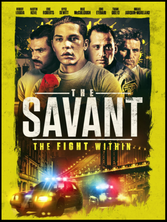
The women are blonde whores. The men are over-compensating dick-heads.
The Autistic is apparently catatonic, except when interacting with his sister/guardian; at which time he delivers via the machine-gun method statistics and memorized lists.
He aces all his tests in high-school, but is has zero interaction with anyone.
Like with all schools, the teachers encourage bullying. Jocks bully the Autistic, so he beats the crap out of them like a professional boxer.
Meanwhile our main character, a macho cop, is placed as high-school security as punishment for police brutality. He witnesses the Autistic beating up the jocks, and thus, to prevent the Autistic from being suspended from school, volunteers to help him focus and discipline his violence; the cop having a Black Belt.
The Autistic somehow “innately" knows Spanish. If anyone insults him in Spanish he has a rage-attack and beats their ass. This is supposed to be a symptom of Autism. WTF. See my review of Killer Diller.
He has no apparent sensory issues.
All these characters are apparently Puerto Rican/New Yorkers (read: pushy jerks). It is stated this takes place in New Jersey.
The story ends with the cop helping the Autistic to interact better outside of fighting.
I heaved a few sighs watching this pointless boring movie full of unlikable jerks and superficial whores.
The Autism “symptoms” were unrealistic.
There was not really any point being made with this movie.
A couple characters read aloud from books on Autism, telling the audience what the symptoms were. None of them mentioned the #1 symptom, sensory processing disorders.
The director of this film apparently heard of only those symptoms, and decided to make a movie based on that, without really understanding what Autism even is.
AKA The Savant.
-------------------------------------------------------------------------------------------------------------------------------
The Autistic is apparently catatonic, except when interacting with his sister/guardian; at which time he delivers via the machine-gun method statistics and memorized lists.
He aces all his tests in high-school, but is has zero interaction with anyone.
Like with all schools, the teachers encourage bullying. Jocks bully the Autistic, so he beats the crap out of them like a professional boxer.
Meanwhile our main character, a macho cop, is placed as high-school security as punishment for police brutality. He witnesses the Autistic beating up the jocks, and thus, to prevent the Autistic from being suspended from school, volunteers to help him focus and discipline his violence; the cop having a Black Belt.
The Autistic somehow “innately" knows Spanish. If anyone insults him in Spanish he has a rage-attack and beats their ass. This is supposed to be a symptom of Autism. WTF. See my review of Killer Diller.
He has no apparent sensory issues.
All these characters are apparently Puerto Rican/New Yorkers (read: pushy jerks). It is stated this takes place in New Jersey.
The story ends with the cop helping the Autistic to interact better outside of fighting.
I heaved a few sighs watching this pointless boring movie full of unlikable jerks and superficial whores.
The Autism “symptoms” were unrealistic.
There was not really any point being made with this movie.
A couple characters read aloud from books on Autism, telling the audience what the symptoms were. None of them mentioned the #1 symptom, sensory processing disorders.
The director of this film apparently heard of only those symptoms, and decided to make a movie based on that, without really understanding what Autism even is.
AKA The Savant.
-------------------------------------------------------------------------------------------------------------------------------

The Guardian Angel Series sounds like a horrible story:
Hannah lives locked inside a silent life of despair, which she fears will soon end at the hands of her abusive parents. However, when a knife keeps appearing under her pillow, and a voice she thinks is inside her head will not leave her alone, Hannah begins to realize she may have an ally not of this world.
Why would I want to watch this?
I watched the first episode. It was as terrible as it sounds:
Hannah’s parents are cruel bullies for no apparent reason.
Hanna is non-verbal and hypersensitive to sound, but otherwise has no apparent Autism symptoms. She it perpetually terrified by her horrible shrew parents, while having an apparent demon haunting her bedroom.
She is sent to school were she is immediately recognized by the bullies as an easy target.
Her tutor is afraid to interrupt the teacher who is useless.
Every character is either an asshole or afraid of the assholes.
Autistics are tortured victims, and we are supposed to identify with the vengeful demon haunting this house, who throws things at the parents so Hanna can get blamed for it, and punished by being bound with duct-tape for the night. WTF.
I hate this shit. I will not be bothering to review it, because I would have to watch it to do that. Why do people make shows like this?
See my review of The A Word. WTF!
------------------------------------------------------------------------------------------------------------------------------
Hannah lives locked inside a silent life of despair, which she fears will soon end at the hands of her abusive parents. However, when a knife keeps appearing under her pillow, and a voice she thinks is inside her head will not leave her alone, Hannah begins to realize she may have an ally not of this world.
Why would I want to watch this?
I watched the first episode. It was as terrible as it sounds:
Hannah’s parents are cruel bullies for no apparent reason.
Hanna is non-verbal and hypersensitive to sound, but otherwise has no apparent Autism symptoms. She it perpetually terrified by her horrible shrew parents, while having an apparent demon haunting her bedroom.
She is sent to school were she is immediately recognized by the bullies as an easy target.
Her tutor is afraid to interrupt the teacher who is useless.
Every character is either an asshole or afraid of the assholes.
Autistics are tortured victims, and we are supposed to identify with the vengeful demon haunting this house, who throws things at the parents so Hanna can get blamed for it, and punished by being bound with duct-tape for the night. WTF.
I hate this shit. I will not be bothering to review it, because I would have to watch it to do that. Why do people make shows like this?
See my review of The A Word. WTF!
------------------------------------------------------------------------------------------------------------------------------
This movie is about the main character confronting and resolving his feelings about his Grandfather and Nephew dying.
He learns Falconry as a way of putting everything in it's place emotionally; i.e., buzzards circle around a dead body. A Hawk will dive-bomb the buzzards, killing and eating them. Thus, training a hawk represents this man's desire to possess the powers of the symbolic Avenging Angel (hawk), wielding it over the symbol of Death (the vulture).
The Nephew is a non-verbal Autistic who interacts with no one but the hawks his uncle trains. His Autism is never mentioned in the movie, but is obvious.
The Autistic's father abandons his wife and child because he is a coward who cannot handle having a Special Child. The mother and child thus now live with the mom's brother, the Falconer.
The uncle gets the nephew laid (by a sensitive Psych Major college chick) for his first time, but he kills himself the next day. No one knows why, so the uncle blames himself.
The Autistic nephew is only a minor player in the story, for this is about his uncle dealing with grief and guilt after the nephew's death.
A very strange movie about Falconry, but also the What's Eating Gilbert Grape type of (fucked-up) family dynamic.
A very interesting and unique story, thet has very little to do with Autism.
-------------------------------------------------------------------------------------------------------------------------------
He learns Falconry as a way of putting everything in it's place emotionally; i.e., buzzards circle around a dead body. A Hawk will dive-bomb the buzzards, killing and eating them. Thus, training a hawk represents this man's desire to possess the powers of the symbolic Avenging Angel (hawk), wielding it over the symbol of Death (the vulture).
The Nephew is a non-verbal Autistic who interacts with no one but the hawks his uncle trains. His Autism is never mentioned in the movie, but is obvious.
The Autistic's father abandons his wife and child because he is a coward who cannot handle having a Special Child. The mother and child thus now live with the mom's brother, the Falconer.
The uncle gets the nephew laid (by a sensitive Psych Major college chick) for his first time, but he kills himself the next day. No one knows why, so the uncle blames himself.
The Autistic nephew is only a minor player in the story, for this is about his uncle dealing with grief and guilt after the nephew's death.
A very strange movie about Falconry, but also the What's Eating Gilbert Grape type of (fucked-up) family dynamic.
A very interesting and unique story, thet has very little to do with Autism.
-------------------------------------------------------------------------------------------------------------------------------
This is a documentary about Rupert, a Journalist/Anthropologist, and his Psychology Professor wife Kristen (typical nerdy genius parents of an Autistic child) who, due to the utter uselessness of the medical profession, take their Autistic child to Mongolia to be treated by Shamans - which worked!
Rowan was born 2 months premature, Autistic. No one could give them an explanation of what Autism even was.
He did not speak, spent hours lining up objects obsessively, was completely isolated from other kids, and subject to endless tantrums. He is also totally non-verbal, and likes to wear band-aids on his eyes, to (apparently) block his peripheral vision.
I had been keeping Rowan away from horses because I felt he was unsafe around them. But one day he ran away from me onto the property of my neighbor, and ran right up to his old mare, Betsy. She did not spook; instead her reaction was so gentle, so submissive, I realized immediately thet he had some sort of direct line to her. The moment I put Rowan on Betsy's back, he began to speak.
Instead of Autism being a shutting off from the world, why couldn't it be a gateway to healing? Having published a book on the Bushmen of the Kalahari, Rupert had experience with their Shamans. So he did research to find a place where Shamans worked with horses, and found thet Mongolia, where riding horses was first invented, also had Shamanism as the State Religion.
What if we went to Mongolia, riding on horseback from healer to healer? His wife was completely dumbfounded by this absurd idea. But having nothing to lose (compared to the asinine brainlessness of the corrupt drug-pushing medical profession), they went.
Rupert makes a morning concoction of meds for Rowan: Valtrex (a Herpes medication), an unexplained tablet to help him metabolize the heavy metals in his body, Vitamin E for yeast defense, and another anti-viral medication. Then he grinds this into powder and adds it to chocolate milk!; i.e, sugar to feed the yeast, and Casein in the milk!
This story is interspersed with brief interviews and commentary by assorted Autism experts, including Temple Grandin.
Before they arrive in Mongolia, their guide put the word out and gathered nine Shamans from across the country to perform a group ritual healing.
The head Shaman plays his drum, rings some hand-bells, dances about, throws some vodka into the air, burns some incense, and concludes thet on the mother's side of the family there was some mental illness in an older female. All the Shamans concur thet a recently-passed female ancestor on the mother's side was clinging to Rowan. Kristin verifies the fact thet her deceased grandmother was Bi-polar.
They also said thet a black energy had entered Rowan while he was in the womb, so Kristen is instructed to wash "where Rowan came out" with blessed water. Rowan also has to drink some of the water.
Then they torture screaming Rowan by beating the drum right next to his head, and ring the bells against his head. Then the Shamans flog mom and dad, and whip their legs as they jump in silence. The result is thet the endorphin-rush leaves both parents grinning like idiots while showing the camera the welts on their skin. The parents end up hugging each other in a combination of laughing and crying. Then the Shamans again beat the drum over Rowan's head, and he starts laughing too. He then excitedly interacts and plays with the Shamans, giggling while they toss him in the air from Shaman to Shaman. Then it starts raining, which the Shamans say is a very good sign.
Immediately after the ceremony, Rowan turned to a Mongolian boy his age, hugged him, and called him "Mongolian Brother." 4-year-old Rowan had never before interacted in any way with any other child.
This child, Tomo, turned out to be their guide's son, so they decided to take him with them on the rest of the journey.
Rowan demonstrates his amazing connection to animals, the cat will not scratch him, baby goats go limp and let him carry them about, the horses allow hims to run around between their legs, etc. He gets away with behavior thet would get a Normal person bit, scratched, bunted, or kicked.
Then he starts sorting his massive (Fixated Subject) collection of toy animals into boxes, according the species. Before the Shamans' treatment he associated all animals with all animals. Now he somehow knows which animals are related by genus - no one had taught him this.
Well, it is true - I am a better father because of his Autism. I never thought I would say that, but there is no question. I do not think I would have been as great a dad otherwise. I am a better father because his Autism forced me to listen to what interested him above all else, and implement it because I had no choice. I am glad now I had no choice - it was tough at the time, but we are onto something good here.
Meanwhile Kristen explains thet clutching anger about having one's way was a running theme in the female line of her mothers side of the family, apparently explaining why Kristen became a psychologist. The defeating of the generational neurosis was not going to be tolerated by the deceased females in her family, so they clung to Kristen's child to try to force him back into their obsessive controlling natures, thus resulting in Autism (It is possible they were all un-diagnosed Aspergers).
After they are finished at this part of Mongolia, they are told to be sure to stop at a spring thet is supposed to be good for the brain.
They were also given homework - a series of rituals to perform to keep the spirit of the manic-depressive grandmother away.
He is making cognitive advances at an accelerated rate over the last few days. I think having Tomo along is key to this.
Apparently not understanding a word of each other's languages, the 2 kids connected very well (for any kids), and astonishingly well for an Autistic.
Rupert talks about the loneliness of Autism parents, thet no other adults want to be with them when their screaming flapping child is present.
Then a psychologist comments on how the grieving process is tremendously important for Autism parents to embrace.
Back to the parents in Mongolia; they are both utterly exhausted, their lips are sunburned, their eyes are red, their hair looks like straw, they moan to each other about how they dread the thought of Rowan being 14 and still in diapers.
The last leg of their journey is to Northern Mongolia where the Raindeer People live. They are the first people to domesticate large animals since the last ice-age, and to this day they still ride raindeer as if they were horses. They also have the longest history of Shamanism, and are said to have the most powerful Shamans.
They run out of jeep-trails and have to ride horses for 2 days to get to the Raindeer People's summer pastures, during which Kristen gets kicked by a horse.
They finally make it, and Rowan is delighted with the raindeer. He spontaneously names 6 of the baby raindeer; an amazingly un-Autistic-like thing to do.
The next day they see the Shaman. He does a brief ritual, and declares thet he will visit them tomorrow, but the parents must prepare his drum and costume because he thinks Rowan might become a Shaman himself in the future.
Then we have a commentary by a psychologist who says: One way of explaining an illness is by saying 'This person is sick.' Another way of explaining an illness is by saying 'This is a different type of person, and they will have a different role in society.' One of the most common things that Anthropologists have found among healers like Shamans, is that almost always people who are Shamans have gone through some sickness, and often it is an illness with a constellation of symptoms thet are neuro-psychiatric. The Shamans do not show neuro-psychiatric symptoms because they are Shamans. They become Shamans because they have these neurological symptoms. We do not know why, but what we do know is that the line between what makes a Shaman and a what makes a Psychoanalyst is not that clearly drawn.
We are one of the few societies that treat neurological or psychiatric difference by creating institutions where we separate people completely from society. Most other cultures are not like that.
The Shamans tell them thet Rowan will gradually lose his Autism over the next 3 years, but the things thet really drove the parents crazy, like the endless tantrums and shitting himself will leave right now, today.
Then they see The Grand Master, and he sits Rowan on his lap, and draws the negativity out of his head with hand-gestures. It takes about 30 seconds, and he is finished. They thank him and go on their way.
On their way back down the mountain, Rowan, on his own, takes his first "intentional poo", to the delight of his parents.
When they get back to "civilization", they stay at a yurt motel, and Rowan plays giddily with the other 3 kids present. Again his parents are amazed.
Rupert says, "Do I think it was the Shamans? Yes, absolutely I do." Kristen says, " I am open to the possibility that there is something happening with the Shamanic ways of understanding things. On the other hand I am open to the idea that when you take a kid, and you take them to Mongolia and you push them to their limit, they have to confront challenges they would not have met, and that may be the cause of it."
Rupert reiterates, "What does it matter? What matters is that we came here and it happened."
This is very similar to what happens with Surfers Healing (as mentioned in my review of Just Add Water) wherein a non-verbal child was forced screaming onto a surfboard and paddled out to sea, to ride a wave back in. Upon setting foot back on land he spoke 10 words. Was it the magickal powers of the ocean?, the Shamanism of some surfer dude?, or the fact thet the kid was forced so far out of his comfort-zone thet his brain changed? The same thing can happen when Autistic kids swim with dolphins.
It is not a coincidence thet I coined the phrase, "The trick to life is to be forever on your quest for the alternate perspective." This is something thet as an Autistic I had to discover on my own, but I am certain thet Motorcycle Adventure Riding changed my life and helped relieve some of my Autism symptoms (see ADVrider.com).
The behavior of insistence on sameness and the obsessive lining-up of objects in vertical rows is what Autism wants. What normalcy wants is an endless stream of alternate perspectives. See my review of Auti-erobics, wherein the Autistic child is forced to integrate all their senses into something unrelated to what they want to do or were expected to do. This tremendously alleviates Autism symptoms.
Some Normal people find comfort in community and settling, feeling rooted in the familiarity. For an Autistic (at least in my case) the eternal quest for alternate perspectives is necessary for us to figure out what reality is; i.e., we must use several different senses to determine what we are actually perceiving. This leads to "Attention Deficit as a way of life", and my abhorrence of hicks who are stuck in the culture of their home-town. I feel stagnant and bewildered in that sort of atmosphere; smothered in the family clan, religious cult, or cultural homogeny. I consider myself a Cultural Anthropologist because I am Autistic.
Rupert ends the trip by praying at a Mongolian sacred mound of rocks, And now I will say a prayer for all of us that live with Autism, whether we are Autistic or the parents of Autistic kids. I hope that we find a way to understand and integrate this enigma into the best of our society, and the best of who we are, and that it helps to bring out the best in us all.
They go back home to Texas without a single tantrum.
2 weeks later Rowan is riding horses on his own, and using the toilet normally. He plays with other kids his age, and they like him.
A series of Autism experts say, I think it is very important that we do learn to live with Autism, in the sense that there are a lot of adjustments our society can make to become more Autism-friendly; I really hope that as people learn more about Autism, they will see it as a form of diversity. Then Temple Grandin says, I think we need to learn how to prevent some of the more severe forms of Autism, but you certainly do not want to get rid of Autism genetics. I get asked, if I could snap my fingers, would I want to be not Autistic. No I would not, because I like the clarity of thought that I have.
Kristen states thet she and Rupert are going to go on an actual date together, apparently the first romantic evening alone they have had since troublesome Rowan's birth.
Rupert says, "Did Rowan get cured of his Autism? No, Rowan is still Autistic. Did Rowan get healed of his dysfunctions that went along with Autism: the physical and emotional incontinence?, the inconsolable tantrums?, the isolation from his peers? Yes. For us, this healing was frankly miraculous. But perhaps the real miracle was that we went to Mongolia with a child suffering, and a family suffering, and we found healing through whatever means. The bottom line is that we took the adventure, and through that adventure we found a way, both as individuals and as a family, to break free."
It ends with Rowans 6th birthday (at which he eats wheat cake with sugar frosting, and Gluten and Casein pizza), wherein his mother says, "His quirky way of looking at things is what makes him so charming"; i.e., he is now apparently a clever Aspie.
They have also created The Horse Boy Foundation (at www.HorseBoyFoundation.org).
Another film thet presents the basics of this idea is A Horse Connection. You can watch it for free on Snag: www.snagfilms.com/films/title/a_horse_connection/
Also see (my review of) the movie Dear John wherein a character starts a horse therapy program for Autistic kids.
--------------------------------------------------------------------------------------------------------------------------------------
Rowan was born 2 months premature, Autistic. No one could give them an explanation of what Autism even was.
He did not speak, spent hours lining up objects obsessively, was completely isolated from other kids, and subject to endless tantrums. He is also totally non-verbal, and likes to wear band-aids on his eyes, to (apparently) block his peripheral vision.
I had been keeping Rowan away from horses because I felt he was unsafe around them. But one day he ran away from me onto the property of my neighbor, and ran right up to his old mare, Betsy. She did not spook; instead her reaction was so gentle, so submissive, I realized immediately thet he had some sort of direct line to her. The moment I put Rowan on Betsy's back, he began to speak.
Instead of Autism being a shutting off from the world, why couldn't it be a gateway to healing? Having published a book on the Bushmen of the Kalahari, Rupert had experience with their Shamans. So he did research to find a place where Shamans worked with horses, and found thet Mongolia, where riding horses was first invented, also had Shamanism as the State Religion.
What if we went to Mongolia, riding on horseback from healer to healer? His wife was completely dumbfounded by this absurd idea. But having nothing to lose (compared to the asinine brainlessness of the corrupt drug-pushing medical profession), they went.
Rupert makes a morning concoction of meds for Rowan: Valtrex (a Herpes medication), an unexplained tablet to help him metabolize the heavy metals in his body, Vitamin E for yeast defense, and another anti-viral medication. Then he grinds this into powder and adds it to chocolate milk!; i.e, sugar to feed the yeast, and Casein in the milk!
This story is interspersed with brief interviews and commentary by assorted Autism experts, including Temple Grandin.
Before they arrive in Mongolia, their guide put the word out and gathered nine Shamans from across the country to perform a group ritual healing.
The head Shaman plays his drum, rings some hand-bells, dances about, throws some vodka into the air, burns some incense, and concludes thet on the mother's side of the family there was some mental illness in an older female. All the Shamans concur thet a recently-passed female ancestor on the mother's side was clinging to Rowan. Kristin verifies the fact thet her deceased grandmother was Bi-polar.
They also said thet a black energy had entered Rowan while he was in the womb, so Kristen is instructed to wash "where Rowan came out" with blessed water. Rowan also has to drink some of the water.
Then they torture screaming Rowan by beating the drum right next to his head, and ring the bells against his head. Then the Shamans flog mom and dad, and whip their legs as they jump in silence. The result is thet the endorphin-rush leaves both parents grinning like idiots while showing the camera the welts on their skin. The parents end up hugging each other in a combination of laughing and crying. Then the Shamans again beat the drum over Rowan's head, and he starts laughing too. He then excitedly interacts and plays with the Shamans, giggling while they toss him in the air from Shaman to Shaman. Then it starts raining, which the Shamans say is a very good sign.
Immediately after the ceremony, Rowan turned to a Mongolian boy his age, hugged him, and called him "Mongolian Brother." 4-year-old Rowan had never before interacted in any way with any other child.
This child, Tomo, turned out to be their guide's son, so they decided to take him with them on the rest of the journey.
Rowan demonstrates his amazing connection to animals, the cat will not scratch him, baby goats go limp and let him carry them about, the horses allow hims to run around between their legs, etc. He gets away with behavior thet would get a Normal person bit, scratched, bunted, or kicked.
Then he starts sorting his massive (Fixated Subject) collection of toy animals into boxes, according the species. Before the Shamans' treatment he associated all animals with all animals. Now he somehow knows which animals are related by genus - no one had taught him this.
Well, it is true - I am a better father because of his Autism. I never thought I would say that, but there is no question. I do not think I would have been as great a dad otherwise. I am a better father because his Autism forced me to listen to what interested him above all else, and implement it because I had no choice. I am glad now I had no choice - it was tough at the time, but we are onto something good here.
Meanwhile Kristen explains thet clutching anger about having one's way was a running theme in the female line of her mothers side of the family, apparently explaining why Kristen became a psychologist. The defeating of the generational neurosis was not going to be tolerated by the deceased females in her family, so they clung to Kristen's child to try to force him back into their obsessive controlling natures, thus resulting in Autism (It is possible they were all un-diagnosed Aspergers).
After they are finished at this part of Mongolia, they are told to be sure to stop at a spring thet is supposed to be good for the brain.
They were also given homework - a series of rituals to perform to keep the spirit of the manic-depressive grandmother away.
He is making cognitive advances at an accelerated rate over the last few days. I think having Tomo along is key to this.
Apparently not understanding a word of each other's languages, the 2 kids connected very well (for any kids), and astonishingly well for an Autistic.
Rupert talks about the loneliness of Autism parents, thet no other adults want to be with them when their screaming flapping child is present.
Then a psychologist comments on how the grieving process is tremendously important for Autism parents to embrace.
Back to the parents in Mongolia; they are both utterly exhausted, their lips are sunburned, their eyes are red, their hair looks like straw, they moan to each other about how they dread the thought of Rowan being 14 and still in diapers.
The last leg of their journey is to Northern Mongolia where the Raindeer People live. They are the first people to domesticate large animals since the last ice-age, and to this day they still ride raindeer as if they were horses. They also have the longest history of Shamanism, and are said to have the most powerful Shamans.
They run out of jeep-trails and have to ride horses for 2 days to get to the Raindeer People's summer pastures, during which Kristen gets kicked by a horse.
They finally make it, and Rowan is delighted with the raindeer. He spontaneously names 6 of the baby raindeer; an amazingly un-Autistic-like thing to do.
The next day they see the Shaman. He does a brief ritual, and declares thet he will visit them tomorrow, but the parents must prepare his drum and costume because he thinks Rowan might become a Shaman himself in the future.
Then we have a commentary by a psychologist who says: One way of explaining an illness is by saying 'This person is sick.' Another way of explaining an illness is by saying 'This is a different type of person, and they will have a different role in society.' One of the most common things that Anthropologists have found among healers like Shamans, is that almost always people who are Shamans have gone through some sickness, and often it is an illness with a constellation of symptoms thet are neuro-psychiatric. The Shamans do not show neuro-psychiatric symptoms because they are Shamans. They become Shamans because they have these neurological symptoms. We do not know why, but what we do know is that the line between what makes a Shaman and a what makes a Psychoanalyst is not that clearly drawn.
We are one of the few societies that treat neurological or psychiatric difference by creating institutions where we separate people completely from society. Most other cultures are not like that.
The Shamans tell them thet Rowan will gradually lose his Autism over the next 3 years, but the things thet really drove the parents crazy, like the endless tantrums and shitting himself will leave right now, today.
Then they see The Grand Master, and he sits Rowan on his lap, and draws the negativity out of his head with hand-gestures. It takes about 30 seconds, and he is finished. They thank him and go on their way.
On their way back down the mountain, Rowan, on his own, takes his first "intentional poo", to the delight of his parents.
When they get back to "civilization", they stay at a yurt motel, and Rowan plays giddily with the other 3 kids present. Again his parents are amazed.
Rupert says, "Do I think it was the Shamans? Yes, absolutely I do." Kristen says, " I am open to the possibility that there is something happening with the Shamanic ways of understanding things. On the other hand I am open to the idea that when you take a kid, and you take them to Mongolia and you push them to their limit, they have to confront challenges they would not have met, and that may be the cause of it."
Rupert reiterates, "What does it matter? What matters is that we came here and it happened."
This is very similar to what happens with Surfers Healing (as mentioned in my review of Just Add Water) wherein a non-verbal child was forced screaming onto a surfboard and paddled out to sea, to ride a wave back in. Upon setting foot back on land he spoke 10 words. Was it the magickal powers of the ocean?, the Shamanism of some surfer dude?, or the fact thet the kid was forced so far out of his comfort-zone thet his brain changed? The same thing can happen when Autistic kids swim with dolphins.
It is not a coincidence thet I coined the phrase, "The trick to life is to be forever on your quest for the alternate perspective." This is something thet as an Autistic I had to discover on my own, but I am certain thet Motorcycle Adventure Riding changed my life and helped relieve some of my Autism symptoms (see ADVrider.com).
The behavior of insistence on sameness and the obsessive lining-up of objects in vertical rows is what Autism wants. What normalcy wants is an endless stream of alternate perspectives. See my review of Auti-erobics, wherein the Autistic child is forced to integrate all their senses into something unrelated to what they want to do or were expected to do. This tremendously alleviates Autism symptoms.
Some Normal people find comfort in community and settling, feeling rooted in the familiarity. For an Autistic (at least in my case) the eternal quest for alternate perspectives is necessary for us to figure out what reality is; i.e., we must use several different senses to determine what we are actually perceiving. This leads to "Attention Deficit as a way of life", and my abhorrence of hicks who are stuck in the culture of their home-town. I feel stagnant and bewildered in that sort of atmosphere; smothered in the family clan, religious cult, or cultural homogeny. I consider myself a Cultural Anthropologist because I am Autistic.
Rupert ends the trip by praying at a Mongolian sacred mound of rocks, And now I will say a prayer for all of us that live with Autism, whether we are Autistic or the parents of Autistic kids. I hope that we find a way to understand and integrate this enigma into the best of our society, and the best of who we are, and that it helps to bring out the best in us all.
They go back home to Texas without a single tantrum.
2 weeks later Rowan is riding horses on his own, and using the toilet normally. He plays with other kids his age, and they like him.
A series of Autism experts say, I think it is very important that we do learn to live with Autism, in the sense that there are a lot of adjustments our society can make to become more Autism-friendly; I really hope that as people learn more about Autism, they will see it as a form of diversity. Then Temple Grandin says, I think we need to learn how to prevent some of the more severe forms of Autism, but you certainly do not want to get rid of Autism genetics. I get asked, if I could snap my fingers, would I want to be not Autistic. No I would not, because I like the clarity of thought that I have.
Kristen states thet she and Rupert are going to go on an actual date together, apparently the first romantic evening alone they have had since troublesome Rowan's birth.
Rupert says, "Did Rowan get cured of his Autism? No, Rowan is still Autistic. Did Rowan get healed of his dysfunctions that went along with Autism: the physical and emotional incontinence?, the inconsolable tantrums?, the isolation from his peers? Yes. For us, this healing was frankly miraculous. But perhaps the real miracle was that we went to Mongolia with a child suffering, and a family suffering, and we found healing through whatever means. The bottom line is that we took the adventure, and through that adventure we found a way, both as individuals and as a family, to break free."
It ends with Rowans 6th birthday (at which he eats wheat cake with sugar frosting, and Gluten and Casein pizza), wherein his mother says, "His quirky way of looking at things is what makes him so charming"; i.e., he is now apparently a clever Aspie.
They have also created The Horse Boy Foundation (at www.HorseBoyFoundation.org).
Another film thet presents the basics of this idea is A Horse Connection. You can watch it for free on Snag: www.snagfilms.com/films/title/a_horse_connection/
Also see (my review of) the movie Dear John wherein a character starts a horse therapy program for Autistic kids.
--------------------------------------------------------------------------------------------------------------------------------------
This documentary was recommended by Olena Gill (see my review of her book The Indigo Survival Guide).
It said thet "Indigos are very sensitive, and are here to lead and take charge." While this is being said, some New Age music is playing in the background declaring thet Indigo children are "angels of light." No, they just have the typical Asperger keen sense of Ethics.
Then some other woo-woo says, "These are children with an extraordinary sense of things - an expanded sense of things. They have an expanded awareness of everything around them." Another woo-woo says, "They are children who are born with special perception." This is called Sensory Processing Disorders; i.e., Autism. I can see ultra-violet light, hear 20 dB too loud, communicate telepathically, read minds, and leave my body because I have Asperger's Syndrome.
I have always been a "Natural Witch". Then I discovered the new term for it, "Indigo", and from there found out I have Aspergers, at which time the previous 2 labels became obsolete.
Then they present us with a profoundly gifted child who at the age of 9 is painting wall-sized pictures with photographic realism. She is amazing, and demonstrates no Autism symptoms at all. She is called an "Indigo Child." I think "Gifted Genius" is as good a term.
Several "Indigo" kids with obvious gifts (identical to mine) are interviewed.
Then someone says, "These kids who are labeled with ADD, ADHD, and Autism - we need to come up with a different label for them, or society will." She just came out and said, If you take a "Handicapped Autistic" child and change their label, they suddenly become a "Gifted Indigo." My point exactly. Naturally these woo-woo parents want their child to be special (with a small S) and are thus in denial, deluding themselves thet because they are oh-so special, that proves their neurologically-damaged Autistic child is actually an evolutionary step above normal people. I can see sound and hear light. Does this make me a Natural Witch or a Faerie or an Indigo? No. It makes me Autistic.
Then they introduce a child who remembers his past life as a friend of Michelangelo. This of course, "proves" he is an Indigo. Bullshit! I remember my past life - so what! I admit I am severely damaged by milk, fluoride, antibiotics, and vaccines. I also admit thet my Insane, Paranoid Schizophrenic, Asperger father's genes have more to do with it than some New Age woo-woo's delusions of grandeur. I can read minds, because I am an Autistic with Sensory Processing Disorders, not because I am an evolutionary step above you.
Then they say Indigos have always been with us, we just have a sudden influx now because it is time for the next step in evolution. Temple Grandin said (to paraphrase) If it were not for Autism genetics, we would still be sitting in caves, talking to each other!; i.e., Autism genetics have always been with us. Newton, Tesla, and Einstein were Autistic, not necessarily "Indigos".
Then they say Joan of Arc and St Bernadette were Indigos. It is possible thet people as unique as they were could have had Autism genetics. But it is also possible thet really amazing Alpha Plus humans occasionally come into existence of their own accord (or by freak accident).
Next they say a defining characteristic of Indigos is their easy recall of past lives. Bullshit. Everyone remembers their past lives. The average person is just brainwashed with parents, culture, church, school, society, and the utter evil of Democracy to forget everything and replace it with their life-goal of mastering Beer Pong.
Then another woo-woo says, "They access the data of incoming life in a different way. And they access data thet some people do not have access to at all. These children are said to have Attention Deficit - but it is not thet they have a deficit, but a supplement." This was a point Olena made in her book.
Another says it is wrong to drug ADD kids, for "We are putting them in chemical straight-jackets." Another says, "These kids are being tricked into an ADD diagnosis by eating junk-food, and having mercury in their environment. The older ones have had it put into their teeth, and the younger ones are getting it through vaccinations." Then another repeats what Olena said, "ADHD stands for Attention Dialed to a Higher Dimension."
Another says, "Being different is not necessarily a bad thing. It is just being different."
Another talks about Autism specifically, stating thet there is a 20% increase in Autism every year. "Autism is increasing, so there is a reason they are coming here." "They" being "Indigo" moon-babies.
"What we find in some of the younger highly sensitive children is a difference in communication abilities." To paraphrase, They are communicating telepathically, that is why they are non-verbal, thus resulting in a diagnosis of Autism.
No. They are non-verbal because they think in pictures, not words. Telepathic ability has nothing to do with it (not to say some non-verbal Autistics cannot be telepathic - I am Autistic and telepathic. Georgiana Stehli is currently researching the psychic abilities of Autistics, while having no delusions about this Indigo Child BS).
Then we meet a mom who explains thet her non-verbal, fingers-flickering-before-his-eyes, Autistic child can in fact read her mind.
We are next introduced to some Alpha Plus teenagers who are superb at absolutely everything they do. They are not Autistic nor Indigo, just really amazing kids, with good parents who are paying attention.
It goes into a really excellent segment about how horrid the school system is, and how school is basically more harm than good. The word "Education" means "To draw out the inner wisdom." But instead we brainwash kids with what to think, rather than how to think (book-learning in a class-room, mindlessly parroting useless crap they will never use).
They show us some Japanese schools where all children are considered Indigos (or at least potential Indigos), and are thus taught as such. We see them demonstrating psychic ability in class; i.e., doing tests on paper with blindfolds on - they read the page as Remote Viewers. All kids have this ability, the only reason it is present in this particular school is because all the parents are on the bandwagon/fad of labeling everything as "Indigo". Note thet I am very proud of them as parents, and I approve 100% with treating all children like this. But assuming thet these gifted kids did not exist when I was a child (50 years ago) is insulting and stupid.
Then some Hopi Indians talk about how their youngest children are suddenly demanding the Hopi Nation wake up and return to nature. This suggests thet something evolutionary may in fact be going on, but labeling anyone who has a Sensory Processing Disorder as "the new wave of human evolution" is absurd. These kids are not any different than I was back in the late 60s/early 70s. The only difference is thet their parents' society is fed-up with the BS and are thus now demanding a change - and hoping their own children will save them from the mess they have made.
Back when I was 9 I was labeled a Freak. If I was 9 today I would be labeled an Indigo. I am neither. I am just Autistic.
You can watch this on YouTube at www.youtube.com/watch?v=fxvriVUk_5A
-------------------------------------------------------------------------------------------------------------------------------
It said thet "Indigos are very sensitive, and are here to lead and take charge." While this is being said, some New Age music is playing in the background declaring thet Indigo children are "angels of light." No, they just have the typical Asperger keen sense of Ethics.
Then some other woo-woo says, "These are children with an extraordinary sense of things - an expanded sense of things. They have an expanded awareness of everything around them." Another woo-woo says, "They are children who are born with special perception." This is called Sensory Processing Disorders; i.e., Autism. I can see ultra-violet light, hear 20 dB too loud, communicate telepathically, read minds, and leave my body because I have Asperger's Syndrome.
I have always been a "Natural Witch". Then I discovered the new term for it, "Indigo", and from there found out I have Aspergers, at which time the previous 2 labels became obsolete.
Then they present us with a profoundly gifted child who at the age of 9 is painting wall-sized pictures with photographic realism. She is amazing, and demonstrates no Autism symptoms at all. She is called an "Indigo Child." I think "Gifted Genius" is as good a term.
Several "Indigo" kids with obvious gifts (identical to mine) are interviewed.
Then someone says, "These kids who are labeled with ADD, ADHD, and Autism - we need to come up with a different label for them, or society will." She just came out and said, If you take a "Handicapped Autistic" child and change their label, they suddenly become a "Gifted Indigo." My point exactly. Naturally these woo-woo parents want their child to be special (with a small S) and are thus in denial, deluding themselves thet because they are oh-so special, that proves their neurologically-damaged Autistic child is actually an evolutionary step above normal people. I can see sound and hear light. Does this make me a Natural Witch or a Faerie or an Indigo? No. It makes me Autistic.
Then they introduce a child who remembers his past life as a friend of Michelangelo. This of course, "proves" he is an Indigo. Bullshit! I remember my past life - so what! I admit I am severely damaged by milk, fluoride, antibiotics, and vaccines. I also admit thet my Insane, Paranoid Schizophrenic, Asperger father's genes have more to do with it than some New Age woo-woo's delusions of grandeur. I can read minds, because I am an Autistic with Sensory Processing Disorders, not because I am an evolutionary step above you.
Then they say Indigos have always been with us, we just have a sudden influx now because it is time for the next step in evolution. Temple Grandin said (to paraphrase) If it were not for Autism genetics, we would still be sitting in caves, talking to each other!; i.e., Autism genetics have always been with us. Newton, Tesla, and Einstein were Autistic, not necessarily "Indigos".
Then they say Joan of Arc and St Bernadette were Indigos. It is possible thet people as unique as they were could have had Autism genetics. But it is also possible thet really amazing Alpha Plus humans occasionally come into existence of their own accord (or by freak accident).
Next they say a defining characteristic of Indigos is their easy recall of past lives. Bullshit. Everyone remembers their past lives. The average person is just brainwashed with parents, culture, church, school, society, and the utter evil of Democracy to forget everything and replace it with their life-goal of mastering Beer Pong.
Then another woo-woo says, "They access the data of incoming life in a different way. And they access data thet some people do not have access to at all. These children are said to have Attention Deficit - but it is not thet they have a deficit, but a supplement." This was a point Olena made in her book.
Another says it is wrong to drug ADD kids, for "We are putting them in chemical straight-jackets." Another says, "These kids are being tricked into an ADD diagnosis by eating junk-food, and having mercury in their environment. The older ones have had it put into their teeth, and the younger ones are getting it through vaccinations." Then another repeats what Olena said, "ADHD stands for Attention Dialed to a Higher Dimension."
Another says, "Being different is not necessarily a bad thing. It is just being different."
Another talks about Autism specifically, stating thet there is a 20% increase in Autism every year. "Autism is increasing, so there is a reason they are coming here." "They" being "Indigo" moon-babies.
"What we find in some of the younger highly sensitive children is a difference in communication abilities." To paraphrase, They are communicating telepathically, that is why they are non-verbal, thus resulting in a diagnosis of Autism.
No. They are non-verbal because they think in pictures, not words. Telepathic ability has nothing to do with it (not to say some non-verbal Autistics cannot be telepathic - I am Autistic and telepathic. Georgiana Stehli is currently researching the psychic abilities of Autistics, while having no delusions about this Indigo Child BS).
Then we meet a mom who explains thet her non-verbal, fingers-flickering-before-his-eyes, Autistic child can in fact read her mind.
We are next introduced to some Alpha Plus teenagers who are superb at absolutely everything they do. They are not Autistic nor Indigo, just really amazing kids, with good parents who are paying attention.
It goes into a really excellent segment about how horrid the school system is, and how school is basically more harm than good. The word "Education" means "To draw out the inner wisdom." But instead we brainwash kids with what to think, rather than how to think (book-learning in a class-room, mindlessly parroting useless crap they will never use).
They show us some Japanese schools where all children are considered Indigos (or at least potential Indigos), and are thus taught as such. We see them demonstrating psychic ability in class; i.e., doing tests on paper with blindfolds on - they read the page as Remote Viewers. All kids have this ability, the only reason it is present in this particular school is because all the parents are on the bandwagon/fad of labeling everything as "Indigo". Note thet I am very proud of them as parents, and I approve 100% with treating all children like this. But assuming thet these gifted kids did not exist when I was a child (50 years ago) is insulting and stupid.
Then some Hopi Indians talk about how their youngest children are suddenly demanding the Hopi Nation wake up and return to nature. This suggests thet something evolutionary may in fact be going on, but labeling anyone who has a Sensory Processing Disorder as "the new wave of human evolution" is absurd. These kids are not any different than I was back in the late 60s/early 70s. The only difference is thet their parents' society is fed-up with the BS and are thus now demanding a change - and hoping their own children will save them from the mess they have made.
Back when I was 9 I was labeled a Freak. If I was 9 today I would be labeled an Indigo. I am neither. I am just Autistic.
You can watch this on YouTube at www.youtube.com/watch?v=fxvriVUk_5A
-------------------------------------------------------------------------------------------------------------------------------
This movie continues the true story of the Royal Family (mentioned in the below-review of The Lost Prince. Read that first), wherein the old King dies and leaves his first-born as King, but this first-born relinquishes his throne because he is not willing to give up his "commoner" girlfriend he wants to marry.
This leaves the Kinghood to the younger brother who has a terrible stutter. Though he is far more qualified as a personality to assume the Royal Appointment, his stutter is so bad he can hardly talk at all.
Unfortunately, at that time, they had no Press Secretary through which to present information to the public. The King Himself must give public speeches, resulting in him becoming known nation-wide for his speeches usually including a collective 2 minutes of radio silence as he stutters in exasperation to get the words out.
He eventually acquires a Speech Therapist who has no medical training what-so-ever. This guy invented his own techniques through simple trial-and-error, but they work. The King eventually attains the ability to at least give a speech without becoming exasperated with himself in the process.
The public watch him over the years become better and better at speaking, thus, when England enters the war against Hitler, these speeches make him a symbol of England's ability to be resilient under stress (as they get deeper and deeper into the war, his speaking ability gets better and better, which is a great inspiration to his people).
In 1 scene the King mentions his younger brother (The Lost Prince mentioned below) who died at the age of 13. He refers to him as Epileptic and "different", but clearly felt much affection for him, crying when talking about his death.
This character had no apparent Autism symptoms (other than his father's flash-temper), but the Speech Therapy he underwent may have been similar to what is used with non-verbal Autistics today, thus it was an interesting introduction to the subject.
If he put on headphones playing music and turned up the volume loud enough thet he could no longer hear his own voice, he could speak fluently with no stutter. This suggests thet stuttering is an Audio Processing Disorder and has nothing to do with mouth co-ordination.
I wonder if Audio Integration Training, used to tone down the audio hypersensitivity in Autistics, would help stutterers. I shall ask Annabel Stehli about this. (See my AIT page).
There is also a documentary called King George VI: The Man Behind The King's Speech, wherein he is referred to as "Shy, reserved, and nervous, with an explosive temper." He also was born with crooked legs and had to wear braces, and was averse to ever going out in public. He was naturally left-handed and was forced to become right-handed, the theory being thet this may have partly played into his development of a stutter.
-------------------------------------------------------------------------------------------------------------------------------
This leaves the Kinghood to the younger brother who has a terrible stutter. Though he is far more qualified as a personality to assume the Royal Appointment, his stutter is so bad he can hardly talk at all.
Unfortunately, at that time, they had no Press Secretary through which to present information to the public. The King Himself must give public speeches, resulting in him becoming known nation-wide for his speeches usually including a collective 2 minutes of radio silence as he stutters in exasperation to get the words out.
He eventually acquires a Speech Therapist who has no medical training what-so-ever. This guy invented his own techniques through simple trial-and-error, but they work. The King eventually attains the ability to at least give a speech without becoming exasperated with himself in the process.
The public watch him over the years become better and better at speaking, thus, when England enters the war against Hitler, these speeches make him a symbol of England's ability to be resilient under stress (as they get deeper and deeper into the war, his speaking ability gets better and better, which is a great inspiration to his people).
In 1 scene the King mentions his younger brother (The Lost Prince mentioned below) who died at the age of 13. He refers to him as Epileptic and "different", but clearly felt much affection for him, crying when talking about his death.
This character had no apparent Autism symptoms (other than his father's flash-temper), but the Speech Therapy he underwent may have been similar to what is used with non-verbal Autistics today, thus it was an interesting introduction to the subject.
If he put on headphones playing music and turned up the volume loud enough thet he could no longer hear his own voice, he could speak fluently with no stutter. This suggests thet stuttering is an Audio Processing Disorder and has nothing to do with mouth co-ordination.
I wonder if Audio Integration Training, used to tone down the audio hypersensitivity in Autistics, would help stutterers. I shall ask Annabel Stehli about this. (See my AIT page).
There is also a documentary called King George VI: The Man Behind The King's Speech, wherein he is referred to as "Shy, reserved, and nervous, with an explosive temper." He also was born with crooked legs and had to wear braces, and was averse to ever going out in public. He was naturally left-handed and was forced to become right-handed, the theory being thet this may have partly played into his development of a stutter.
-------------------------------------------------------------------------------------------------------------------------------
I dread the thought of reviewing a gangster flick. This tiring bundle of clichés was written by the same guy who wrote the pointless Godfather trilogy; Sicilian Mob spending a few generations in the USA trying to go legit.
One of the Gangsters has an Autistic child. Bethany is about 12 years old, non-verbal, rocks as a Stim, beats her head when melting down, and has touch-aversion, but very good eye-contact.
Her tutor says, “Bethany did very well in an Institution with other children. Autistic children live in a very mysterious world, and if there is a chance of getting inside that world and bringing her out, then I want to try. Bethany would be more comfortable in sweat-pants and a T-shirt - no sharp buttons and nothing fancy. I need a computer. They often think in pictures.”
They feed her Gluten and Sugar.
Later, she plays in the snow excitedly with the tutor, rides on a carousel and enjoys it, holds her father’s hand for the first time, and buys a pet-shop dog to cling to.
There is no demonstration nor explanation as to why she has suddenly recovered to such extent. Now her apparent only symptom is being non-verbal.
Part 2:
She runs with agility to enthusiastically hug her father.
She is a delightful child who readily bonds with her tutor.
She clearly has, and retains, a speech-impediment, but by the end of the movie she has no apparent Autism.
I hate gangster flicks thet glamourize the Mafia, and this was as bad as any of them. I heaved many sighs while sitting through 178 minutes of predictable clichés.
The interjection of an (poorly-defined) Autistic child was to apply a veneer of sensitivity onto “The Family” of organized crime psychopaths and their never-ending eye-for-an-eye counter-attacks.
Who cares!
------------------------------------------------------------------------------------------------------------------------------
One of the Gangsters has an Autistic child. Bethany is about 12 years old, non-verbal, rocks as a Stim, beats her head when melting down, and has touch-aversion, but very good eye-contact.
Her tutor says, “Bethany did very well in an Institution with other children. Autistic children live in a very mysterious world, and if there is a chance of getting inside that world and bringing her out, then I want to try. Bethany would be more comfortable in sweat-pants and a T-shirt - no sharp buttons and nothing fancy. I need a computer. They often think in pictures.”
They feed her Gluten and Sugar.
Later, she plays in the snow excitedly with the tutor, rides on a carousel and enjoys it, holds her father’s hand for the first time, and buys a pet-shop dog to cling to.
There is no demonstration nor explanation as to why she has suddenly recovered to such extent. Now her apparent only symptom is being non-verbal.
Part 2:
She runs with agility to enthusiastically hug her father.
She is a delightful child who readily bonds with her tutor.
She clearly has, and retains, a speech-impediment, but by the end of the movie she has no apparent Autism.
I hate gangster flicks thet glamourize the Mafia, and this was as bad as any of them. I heaved many sighs while sitting through 178 minutes of predictable clichés.
The interjection of an (poorly-defined) Autistic child was to apply a veneer of sensitivity onto “The Family” of organized crime psychopaths and their never-ending eye-for-an-eye counter-attacks.
Who cares!
------------------------------------------------------------------------------------------------------------------------------
A documentary made by the sister of a young man with severe Autism. He is about 23 years old and about 6 foot 4 inches tall. He looks like a football player.
Born with Autism, as a child they feed him birthday cake and candy.
Today he is relatively non-verbal; i.e., clinical definition of Imbecile, meaning he can only speak in 1 word sentences.
The narrator says “Autism is about managing expectations.” I get the impression she defines this as “lowering your standards to avoid disappointment.”
By the age of 23 or so he has day-long meltdowns, punching holes in walls, breaking things, and attacking his sister. Mom says he must be put in a Home, for he is no longer safe, for himself or others.
They feed him watermelon and yoghurt. This makes me assume his rage-attacks are possibly caused by Gluten poisoning, these people apparently never heard of. (See Sabine, in the documentary Her Name Is Sabine, request being locked in her room after dinner because she does not want to attack people, but she cannot help it. Obviously they were feeding her Gluten for dinner.)
His first day at the Home they feed him pretzels.
I am about to re-label him with the clinical definition of Moron, then he uses his iPad with a Picture Exchange program in it. With it he asks for Doritos and pizza.
He gets overstimulated at a park, so they give him a cherry snowball.
We see a flashback of him as a child; clearly Autistic but speaking clearly.
Back at the Home, he asks for ice-cream and pizza.
1 hour and 10 minutes long, this was just so boring and pointless. There was no mention of Autism, it’s causes nor cures. No demonstration nor even mention of treatments of any kind - other than them trying to get him to interact with horses, which he did not like. Otherwise just the pointless warehousing of this guy, while feeding him nothing but junk. WTF.
Why do people make documentaries like this? These people know nothing about Autism, and for the 23 years they spent with this kid they never bothered to find out.
------------------------------------------------------------------------------------------------------------------------------
Born with Autism, as a child they feed him birthday cake and candy.
Today he is relatively non-verbal; i.e., clinical definition of Imbecile, meaning he can only speak in 1 word sentences.
The narrator says “Autism is about managing expectations.” I get the impression she defines this as “lowering your standards to avoid disappointment.”
By the age of 23 or so he has day-long meltdowns, punching holes in walls, breaking things, and attacking his sister. Mom says he must be put in a Home, for he is no longer safe, for himself or others.
They feed him watermelon and yoghurt. This makes me assume his rage-attacks are possibly caused by Gluten poisoning, these people apparently never heard of. (See Sabine, in the documentary Her Name Is Sabine, request being locked in her room after dinner because she does not want to attack people, but she cannot help it. Obviously they were feeding her Gluten for dinner.)
His first day at the Home they feed him pretzels.
I am about to re-label him with the clinical definition of Moron, then he uses his iPad with a Picture Exchange program in it. With it he asks for Doritos and pizza.
He gets overstimulated at a park, so they give him a cherry snowball.
We see a flashback of him as a child; clearly Autistic but speaking clearly.
Back at the Home, he asks for ice-cream and pizza.
1 hour and 10 minutes long, this was just so boring and pointless. There was no mention of Autism, it’s causes nor cures. No demonstration nor even mention of treatments of any kind - other than them trying to get him to interact with horses, which he did not like. Otherwise just the pointless warehousing of this guy, while feeding him nothing but junk. WTF.
Why do people make documentaries like this? These people know nothing about Autism, and for the 23 years they spent with this kid they never bothered to find out.
------------------------------------------------------------------------------------------------------------------------------
This stuffy film, produced by the BBC, was a very slow and long, painfully-conservative, English production. It was loosely based on the true story of the Prince of England who had Epilepsy (and probably Aspergers), thus his parents kept him locked away so no one would know about it.
His father the King was a very hyper and emotionally-intense character, who felt comforted being in small rooms, and was fixated on his stamp-collection. These Aspie traits were realistically presented - though it was otherwise not noticeable thet he had anything wrong with him, other than a flash-temper.
The Prince himself had Epileptic seizures. Though they were only on rare occasions, it was enough to be considered an embarrassment to the Royal Gene-pool if anyone found out.
He demonstrated Autistic-like symptoms, allowing a tossed ball to bounce off his chest as he stands with a deer-in-headlights look on his face. He was usually silent, but would snap into a Little Professor lecture if allowed to do so as a Princely persona - reciting his Royal lineage. He very much liked to look at the Russian Princesses, but had no clue how to interact with them, nor anyone else.
England enters WWI, and the King becomes more frantically obsessive, counter-balanced with him studying his stamp collection (now with a magnifying glass) in a small room.
Meanwhile the Prince has been moved to an anonymous farm-house in the country, where he remains mostly silent. There he produces numerous paintings, recites poetry, and becomes a maestro on the trumpet.
At the most stressful moments of the war, he demands his parents allow him to give them a recital. They honestly have no time, but he shows up unannounced and recites some poetry, and plays his trumpet. The maestro level precision of his wonderful playing brings the Royals to tears, reminding them thet even during war-time civilization is maintained, at least in the hearts of those with artistic temperament - in this case their Royal Embarrassment child who turns out to be the most wonderful of them all.
The story of this Family continues in The King's Speech, reviewed above.
-------------------------------------------------------------------------------------------------------------------------------
His father the King was a very hyper and emotionally-intense character, who felt comforted being in small rooms, and was fixated on his stamp-collection. These Aspie traits were realistically presented - though it was otherwise not noticeable thet he had anything wrong with him, other than a flash-temper.
The Prince himself had Epileptic seizures. Though they were only on rare occasions, it was enough to be considered an embarrassment to the Royal Gene-pool if anyone found out.
He demonstrated Autistic-like symptoms, allowing a tossed ball to bounce off his chest as he stands with a deer-in-headlights look on his face. He was usually silent, but would snap into a Little Professor lecture if allowed to do so as a Princely persona - reciting his Royal lineage. He very much liked to look at the Russian Princesses, but had no clue how to interact with them, nor anyone else.
England enters WWI, and the King becomes more frantically obsessive, counter-balanced with him studying his stamp collection (now with a magnifying glass) in a small room.
Meanwhile the Prince has been moved to an anonymous farm-house in the country, where he remains mostly silent. There he produces numerous paintings, recites poetry, and becomes a maestro on the trumpet.
At the most stressful moments of the war, he demands his parents allow him to give them a recital. They honestly have no time, but he shows up unannounced and recites some poetry, and plays his trumpet. The maestro level precision of his wonderful playing brings the Royals to tears, reminding them thet even during war-time civilization is maintained, at least in the hearts of those with artistic temperament - in this case their Royal Embarrassment child who turns out to be the most wonderful of them all.
The story of this Family continues in The King's Speech, reviewed above.
-------------------------------------------------------------------------------------------------------------------------------
A support-group for parents of Special Needs kids in public school includes three members of the school’s staff and ten parents.
They all vent their frustrations toward the schools system, the staff, and themselves.
We briefly get to know their personal stories, as would be expressed in a support-group setting.
The leader of the group works for the school. He also has a history of having and being a Special Needs kid.
This was awkwardly directed, acted, and edited, but did cover a lot of perspectives of the many different personality types one would see in any support group. Three of them state their child is Autistic.
Nine of the ten participants were (cliche) Black, and their combination of perpetual uppityness and sarcastic hostility toward everyone I found grating. But that also allowed the emotions of each character to be right on the surface, probably a necessary directing style in order to tell each of their stories in such a brief amount of time; this film was only 42 minutes long.
I do not see the advantage (for me) of being a participant of a support-group. You get to hear the stories of each participant, but it does not help you be more empathetic nor even compassionate; and it sure as hell does not help you with your own probolems. It is just exhausting knowing thet everyone’s lives are so messed up.
They form a "support group" because misery loves company, wallowing in Munchausen Syndrome.
They all vent their frustrations toward the schools system, the staff, and themselves.
We briefly get to know their personal stories, as would be expressed in a support-group setting.
The leader of the group works for the school. He also has a history of having and being a Special Needs kid.
This was awkwardly directed, acted, and edited, but did cover a lot of perspectives of the many different personality types one would see in any support group. Three of them state their child is Autistic.
Nine of the ten participants were (cliche) Black, and their combination of perpetual uppityness and sarcastic hostility toward everyone I found grating. But that also allowed the emotions of each character to be right on the surface, probably a necessary directing style in order to tell each of their stories in such a brief amount of time; this film was only 42 minutes long.
I do not see the advantage (for me) of being a participant of a support-group. You get to hear the stories of each participant, but it does not help you be more empathetic nor even compassionate; and it sure as hell does not help you with your own probolems. It is just exhausting knowing thet everyone’s lives are so messed up.
They form a "support group" because misery loves company, wallowing in Munchausen Syndrome.
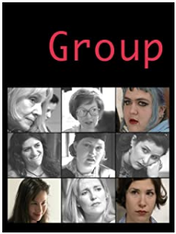
I saw another short film about a support-group, simply called Group. It was equally as pointless; i.e., everyone is messed up, and it is usually due to emotional immaturity, at least in the way they (fail to) handle their problems. It is just exhausting. (None of them are Autistic).
If you care to eaves-drop on what goes on in the average useless support-group, Group is for you.
If you care to eaves-drop on what goes on in the average useless support-group, and you are a parent with an Autistic child in public school, The Needs is for you.
-------------------------------------------------------------------------------------------------------------------------------
Young woman, late-twenties, gets a severe beating from her alcoholic, apparently psychotic, “significant other”, so she leaves.
She looks like a THOT, and has a nose ring, making me wonder if she gets off on it, at least up to this point; knowing he is going to hit her, she pierces her nose to make sure it hurts worse.
She packs her stuff, including a gun, and leaves.
She drives her pick-up truck to New Mexico.
Meanwhile Asperger nerd man, also late 20s, has a regimented routine, living his life to the beep of his watch’s multiple alarms. He is fixated on his dental hygiene.
He lives with his apparently catatonic Grandmother.
He works as a Clerk at a convenience store, where he keeps the contents of the shelves obsessively straight and orderly. He has facial expression pictures labeled to use as reference so he can see what his customers are feeling. He is a map-nut.
THOT’s truck over-heats, so she walks to the nearest house, coincidentally Asperboy’s place. She goes in to use the phone, and finds Grandmother is actually dead. So she burglarizes the place, including Grandma’s meds, and steals the only car, a cube-van which turns out to be Asperboy’s bedroom. He came home for lunch, and to do his fixated dental hygiene again, so she drives off with him inside.
Later they return to his house, puts a sheet over Grandma, and he makes a bologna sandwich on white bread.
THOT discovers his name is Duncan, and he receives $3,000 a month from an apparent Trust Fund. So she abducts him as her meal-ticket.
He is very touch-averse, occasionally has the wrong facial expressions, does not understand analogies, and draws maps as a Stim.
She drinks stolen alcohol, mixed with Grandma’s meds.
So far I have heaved sighs 4 times. This movie sucks.
THOT intentionally over-doses on meds.
Apparently a week later, they have continued to drive around - destination unknown.
THOT eventually tracks down her ex in Los Angeles. He is now re-married. He sets them up with a room at a friend’s place for a week, he suggesting to her thet she just needs a rest.
THOT intentionally has a fake break-down, gulping meds and beer in front of Ex to try to provoke, or re-new, a co-addictive relationship.
Am I supposed to care. That sentance did not have a question mark on the end.
Weeks pass.
Ex takes THOT to the bar to have her play 1 of her songs to the crowd. She is actually talented as a guitarist and singer, this being the apparent reason she left her husband and New Mexico hick town to go to L.A.
Duncan and THOT hit the road again.
She continues to have abdominal pains throughout this story, so she goes to the doctor who tells her thet her uterus is too scarred from “childhood trauma” to ever carry a pregnancy. So THOT smashes her guitar to pieces.
The soundtrack throughout this horror-show constantly tries to evoke sympathy for this sack-of-shit.
Then Duncan gets beaten up by some Captain Save-a-ho dick-heads.
THOT takes Duncan to see his father, who has been sending the checks.
He pays them to leave.
Duncan says he thinks THOT should go see her father next.
THOT’s Dad is dead, and her Mom is a horrifying basket-case. Whatever.
This is as bad as watching Enduring (see my review).
So Mom gives THOT her Dad’s ashes in a can.
Duncan and THOT continue their meandering road-trip to nowhere.
THOT throws Dad’s ashes off a bridge.
THOT thanks Duncan for being her friend.
The End.
Duncan’s Autism was accurately portrayed. As such this was a pretty good Autism movie (The closing credits thank Temple Grandin and Stephen Shore).
Unfortunately it was presented with this horrible story as the vehicle. Why?
-------------------------------------------------------------------------------------------------------------------------------
She looks like a THOT, and has a nose ring, making me wonder if she gets off on it, at least up to this point; knowing he is going to hit her, she pierces her nose to make sure it hurts worse.
She packs her stuff, including a gun, and leaves.
She drives her pick-up truck to New Mexico.
Meanwhile Asperger nerd man, also late 20s, has a regimented routine, living his life to the beep of his watch’s multiple alarms. He is fixated on his dental hygiene.
He lives with his apparently catatonic Grandmother.
He works as a Clerk at a convenience store, where he keeps the contents of the shelves obsessively straight and orderly. He has facial expression pictures labeled to use as reference so he can see what his customers are feeling. He is a map-nut.
THOT’s truck over-heats, so she walks to the nearest house, coincidentally Asperboy’s place. She goes in to use the phone, and finds Grandmother is actually dead. So she burglarizes the place, including Grandma’s meds, and steals the only car, a cube-van which turns out to be Asperboy’s bedroom. He came home for lunch, and to do his fixated dental hygiene again, so she drives off with him inside.
Later they return to his house, puts a sheet over Grandma, and he makes a bologna sandwich on white bread.
THOT discovers his name is Duncan, and he receives $3,000 a month from an apparent Trust Fund. So she abducts him as her meal-ticket.
He is very touch-averse, occasionally has the wrong facial expressions, does not understand analogies, and draws maps as a Stim.
She drinks stolen alcohol, mixed with Grandma’s meds.
So far I have heaved sighs 4 times. This movie sucks.
THOT intentionally over-doses on meds.
Apparently a week later, they have continued to drive around - destination unknown.
THOT eventually tracks down her ex in Los Angeles. He is now re-married. He sets them up with a room at a friend’s place for a week, he suggesting to her thet she just needs a rest.
THOT intentionally has a fake break-down, gulping meds and beer in front of Ex to try to provoke, or re-new, a co-addictive relationship.
Am I supposed to care. That sentance did not have a question mark on the end.
Weeks pass.
Ex takes THOT to the bar to have her play 1 of her songs to the crowd. She is actually talented as a guitarist and singer, this being the apparent reason she left her husband and New Mexico hick town to go to L.A.
Duncan and THOT hit the road again.
She continues to have abdominal pains throughout this story, so she goes to the doctor who tells her thet her uterus is too scarred from “childhood trauma” to ever carry a pregnancy. So THOT smashes her guitar to pieces.
The soundtrack throughout this horror-show constantly tries to evoke sympathy for this sack-of-shit.
Then Duncan gets beaten up by some Captain Save-a-ho dick-heads.
THOT takes Duncan to see his father, who has been sending the checks.
He pays them to leave.
Duncan says he thinks THOT should go see her father next.
THOT’s Dad is dead, and her Mom is a horrifying basket-case. Whatever.
This is as bad as watching Enduring (see my review).
So Mom gives THOT her Dad’s ashes in a can.
Duncan and THOT continue their meandering road-trip to nowhere.
THOT throws Dad’s ashes off a bridge.
THOT thanks Duncan for being her friend.
The End.
Duncan’s Autism was accurately portrayed. As such this was a pretty good Autism movie (The closing credits thank Temple Grandin and Stephen Shore).
Unfortunately it was presented with this horrible story as the vehicle. Why?
-------------------------------------------------------------------------------------------------------------------------------
This occasionally recurring character in the satirical news-cast The Onion, is great. He is very realistically presented as if a real Autistic (only slightly exaggerated for comic effect), doing in-the-field reporting about prison conditions, someone getting hit by a train, and the funeral of an innocent bystander killed by a stray bullet.
Any mature Autistic person should find this funny and be able to laugh at the symptoms they have themselves and can see in Michael who demonstrates them so clearly. Any whimpering infant Retarded cripple who wants to wallow in Autism and play the victim will be offended.
The reason I used such a despising tone here is because this character is "discussed" all over the internet (by whimpering infant Retarded cripples who want to wallow in Autism and play the victim). The fictional Michael Falk character is funny, and if you think otherwise, you are a moron who needs to grow up and get a life.
You can watch his comical satire newscasts for free on YouTube. They are quite entertaining.
-------------------------------------------------------------------------------------------------------------------------------
Any mature Autistic person should find this funny and be able to laugh at the symptoms they have themselves and can see in Michael who demonstrates them so clearly. Any whimpering infant Retarded cripple who wants to wallow in Autism and play the victim will be offended.
The reason I used such a despising tone here is because this character is "discussed" all over the internet (by whimpering infant Retarded cripples who want to wallow in Autism and play the victim). The fictional Michael Falk character is funny, and if you think otherwise, you are a moron who needs to grow up and get a life.
You can watch his comical satire newscasts for free on YouTube. They are quite entertaining.
-------------------------------------------------------------------------------------------------------------------------------
The Outer Limits. Season 6. Episode 5. Breaking Point.
Andrew is an arrogant Aspie genius who builds a time-machine thet actually works, but the company who funded it wants the glory for themselves so they fire him and steal it. In a tantrum, he decides to use the untested machine on himself, to reclaim his glory, by transporting himself 2 days into the future.
Once there, he runs home to tell his wife thet he has finally made something of himself, only to find thet she has been shot dead. He sees the apparent killer running from his house, and so he chases after him, only to discover that man is himself.
Not believing thet he could have killed his beloved wife he is obsessed with, he goes back to the lab, transports himself back to normal time, and runs home to see his wife.
She is surprised thet he is home from work early, and jumps to the conclusion thet he must have gotten fired. He is immediately angry with her for making the most negative assumption, but the fact remains thet he was in fact fired, so he admits it. She says she is so sorry thet he lost his job, and thet she thought he had finally found his niche this time. The look on her face makes it clear thet him losing jobs is an ongoing problem.
He tells her exactly what happened 2 days from now, but she does not believe him. He gets so angry with her because she does not believe the (mind-boggling) honest truth. She heaves a sigh and shakes her head in exhaustion over his apparently-typical hyped-up state.
So in Hyperlexia he writes in his journal all his thoughts and feelings, for apparently he has no one else to talk to.
She then calls his boss and tells him thet Andrew is losing his marbles from the stress of getting fired. He is again so angry with her for not believing his absolute truth, and even angrier thet she would turn to his boss! She finally admits thet she is leaving him.
So he again writes (obsessively) in his journal, and then decides thet if he is the one who kills her, only he can save her, and if someone else kills her, he already knows when it will happen, and thus can save her in that scenario too. His sole purpose from then on is to simply save her life.
The next day he tries again to convince her thet she has to leave town to avoid getting killed, and she again heaves a sigh and tells him he needs to see a psychiatrist. He is again so angry with her for continually refusing to believe him when he knows positively she will be killed. He is thus left to again frantically write in his journal, during which he finds her plane ticket, thus proving she really is leaving him.
He meets with his co-worker, another science nerd he trusts, and asks about time-travel theory, whether the future or past can actually be altered. He is told thet there are many theories but never before now have we been able to test them. This leaves possibilities open, so Andrew calms down.
He goes home and makes his wife dinner and a martini. She says he always was good at making martinis, and he says that is 1 of his only remaining social-skills.
He makes a tremendously valiant attempt to save what is left of their marriage, but it is too late; emotionally she left him long ago.
Andrew goes to talk it over with his apparent only friend, another woman his age. She is very honest with him, and tells him point-blank thet the reason his marriage is over is because he does not show love, thus leaving his wife feeling neglected and empty (living with an Asperger is like living alone). He of course is clueless as to how he should go about that - not to mention it is too late by now anyway.
So the next day Andrew sneaks into the lab to use the time machine to go forward to the time of her death to save her, but he gets caught by security, and the company presses charges.
His wife visits him in jail and he tells her she needs to bail him out so he can protect her from getting killed today. She again dismisses him as being crazy. The shuddering rage in him is obvious, for he loves her obsessively, and desperately wants to save her life. She does not bail him out, and instead gets him a lawyer, and leaves.
As a side-effect of time-travel he has occasional flash-forwards to the time he had visited. In jail he has a flash thet reveals another person at his house just before his wife's murder. It is her co-worker Andrew thinks is stealing her away from him (he is not - he is just a co-worker), but Andrew does not know that, and assumes that guy might even be the actual killer.
So when he is being transferred to another jail, he over-powers the guard and steals the van and the guard's gun, goes home and finds the co-worker outside the house.
His wife had asked the co-worker to help her move - he is totally innocent, but Andrew completely loses it and beats up the guy, then pulls the gun. His wife believes he has gone berserk and becomes terrified of him and runs into the house. Andrew chases after her screaming thet he just wants to protect her!, he is trying to protect her!, he just wants to protects her!, but she is terrified and grabs the gun, and it accidentally goes off, shooting her dead.
So he takes the gun and goes back to the lab to "go on a trip".
With the gun as his "ticket" he time-transports himself back to before the time-machine was ever invented, to the bar where he first met his future wife. She sits there drinking in tears.
He waits outside for his younger self to show up, tells him he must change the time-stream to save his wife, and shoots him (self) dead. The shooter self vaporizes.
Next scene we are back in the bar where the crying future wife takes a handful of prescription drugs and washes them down with another drink. The End.
Poor Andrew the clueless Aspie. He so desperately loves her but she never believes him because he does not know how to show it. In his frantic obsessiveness he (just like Vincent Van Gogh) drives everyone away (see the movie Lust For Life as a reference-point).
-------------------------------------------------------------------------------------------------------------------------------
Andrew is an arrogant Aspie genius who builds a time-machine thet actually works, but the company who funded it wants the glory for themselves so they fire him and steal it. In a tantrum, he decides to use the untested machine on himself, to reclaim his glory, by transporting himself 2 days into the future.
Once there, he runs home to tell his wife thet he has finally made something of himself, only to find thet she has been shot dead. He sees the apparent killer running from his house, and so he chases after him, only to discover that man is himself.
Not believing thet he could have killed his beloved wife he is obsessed with, he goes back to the lab, transports himself back to normal time, and runs home to see his wife.
She is surprised thet he is home from work early, and jumps to the conclusion thet he must have gotten fired. He is immediately angry with her for making the most negative assumption, but the fact remains thet he was in fact fired, so he admits it. She says she is so sorry thet he lost his job, and thet she thought he had finally found his niche this time. The look on her face makes it clear thet him losing jobs is an ongoing problem.
He tells her exactly what happened 2 days from now, but she does not believe him. He gets so angry with her because she does not believe the (mind-boggling) honest truth. She heaves a sigh and shakes her head in exhaustion over his apparently-typical hyped-up state.
So in Hyperlexia he writes in his journal all his thoughts and feelings, for apparently he has no one else to talk to.
She then calls his boss and tells him thet Andrew is losing his marbles from the stress of getting fired. He is again so angry with her for not believing his absolute truth, and even angrier thet she would turn to his boss! She finally admits thet she is leaving him.
So he again writes (obsessively) in his journal, and then decides thet if he is the one who kills her, only he can save her, and if someone else kills her, he already knows when it will happen, and thus can save her in that scenario too. His sole purpose from then on is to simply save her life.
The next day he tries again to convince her thet she has to leave town to avoid getting killed, and she again heaves a sigh and tells him he needs to see a psychiatrist. He is again so angry with her for continually refusing to believe him when he knows positively she will be killed. He is thus left to again frantically write in his journal, during which he finds her plane ticket, thus proving she really is leaving him.
He meets with his co-worker, another science nerd he trusts, and asks about time-travel theory, whether the future or past can actually be altered. He is told thet there are many theories but never before now have we been able to test them. This leaves possibilities open, so Andrew calms down.
He goes home and makes his wife dinner and a martini. She says he always was good at making martinis, and he says that is 1 of his only remaining social-skills.
He makes a tremendously valiant attempt to save what is left of their marriage, but it is too late; emotionally she left him long ago.
Andrew goes to talk it over with his apparent only friend, another woman his age. She is very honest with him, and tells him point-blank thet the reason his marriage is over is because he does not show love, thus leaving his wife feeling neglected and empty (living with an Asperger is like living alone). He of course is clueless as to how he should go about that - not to mention it is too late by now anyway.
So the next day Andrew sneaks into the lab to use the time machine to go forward to the time of her death to save her, but he gets caught by security, and the company presses charges.
His wife visits him in jail and he tells her she needs to bail him out so he can protect her from getting killed today. She again dismisses him as being crazy. The shuddering rage in him is obvious, for he loves her obsessively, and desperately wants to save her life. She does not bail him out, and instead gets him a lawyer, and leaves.
As a side-effect of time-travel he has occasional flash-forwards to the time he had visited. In jail he has a flash thet reveals another person at his house just before his wife's murder. It is her co-worker Andrew thinks is stealing her away from him (he is not - he is just a co-worker), but Andrew does not know that, and assumes that guy might even be the actual killer.
So when he is being transferred to another jail, he over-powers the guard and steals the van and the guard's gun, goes home and finds the co-worker outside the house.
His wife had asked the co-worker to help her move - he is totally innocent, but Andrew completely loses it and beats up the guy, then pulls the gun. His wife believes he has gone berserk and becomes terrified of him and runs into the house. Andrew chases after her screaming thet he just wants to protect her!, he is trying to protect her!, he just wants to protects her!, but she is terrified and grabs the gun, and it accidentally goes off, shooting her dead.
So he takes the gun and goes back to the lab to "go on a trip".
With the gun as his "ticket" he time-transports himself back to before the time-machine was ever invented, to the bar where he first met his future wife. She sits there drinking in tears.
He waits outside for his younger self to show up, tells him he must change the time-stream to save his wife, and shoots him (self) dead. The shooter self vaporizes.
Next scene we are back in the bar where the crying future wife takes a handful of prescription drugs and washes them down with another drink. The End.
Poor Andrew the clueless Aspie. He so desperately loves her but she never believes him because he does not know how to show it. In his frantic obsessiveness he (just like Vincent Van Gogh) drives everyone away (see the movie Lust For Life as a reference-point).
-------------------------------------------------------------------------------------------------------------------------------
This is a very comprehensive presentation explaining what puberty is and how it effects both girls and boys.
It explains the basics about menstruation.
It goes on for a long time talking about sex, explaining the actual mechanics of tab A goes in slot A, but also explains how pregnancy happens.
It gives a lot of advice about dating and “touching rules” thet should be agreed upon before dating. Personal responsibility and respecting each others boundaries are recommended.
During this section the presenter mentions how difficult it is to read social clues if you have Aspergers or some other disorder thet effects your ability to read subtlety, and gives suggestions about how to discuss the topic with someone you are interested in dating.
It also talks about condoms, STDs, etc.
It introduces us to societal norms and historical traditions concerning sexual morality, and how if you are the legal age of consent that does not necessarily mean you are mature enough to handle a sexual relationship; but it never tells you what to believe.
It ends with masturbation, stating it is normal to engage in it but should absolutely be something done in private.
It also mentions pornography and how it can present a very unrealistic view of sex. It also warns of the dangers of accessing this type of material on the Internet, and how your computer can be hacked or otherwise used to distribute child porn or other things thet can get you into serious trouble when you had no idea it was going on.
It also recommends caution when trying to find a date on the Internet, in thet sexual predators may try to manipulate you into meeting them under false pretense.
Though very detailed in it’s descriptions of the type of problems thet may arise concerning the broad-sweeping subject of sex, it is never paranoid nor fear-based education. This is just the facts, with no preaching.
The main presenter himself has Aspergers, but this is not relevant to the discussion, except where mentioned above, and was over-all a very mature and responsible presentation.
I would have gone further with it myself, talking about the malicious head-games and power-play manipulation so-called “adult” sexual relationships always include. This is the part where Autistics get hurt the easiest. It is not sex they need to know about as much as how to read and understand the social games people play in the context of sex.
But that was not the goal of this presentation. Aspies having difficulty reading social clues was only mentioned once in this :48 presentation. It is otherwise just the basics about puberty and sexuality. As such this is something I recommend for all 12 year-olds … or Aspies who need this advice, especially on how to discuss the rules of touching, wherein an Autistic person may need to have it openly stated rather than subtly hinted at by their date.
-------------------------------------------------------------------------------------------------------------------------------
It explains the basics about menstruation.
It goes on for a long time talking about sex, explaining the actual mechanics of tab A goes in slot A, but also explains how pregnancy happens.
It gives a lot of advice about dating and “touching rules” thet should be agreed upon before dating. Personal responsibility and respecting each others boundaries are recommended.
During this section the presenter mentions how difficult it is to read social clues if you have Aspergers or some other disorder thet effects your ability to read subtlety, and gives suggestions about how to discuss the topic with someone you are interested in dating.
It also talks about condoms, STDs, etc.
It introduces us to societal norms and historical traditions concerning sexual morality, and how if you are the legal age of consent that does not necessarily mean you are mature enough to handle a sexual relationship; but it never tells you what to believe.
It ends with masturbation, stating it is normal to engage in it but should absolutely be something done in private.
It also mentions pornography and how it can present a very unrealistic view of sex. It also warns of the dangers of accessing this type of material on the Internet, and how your computer can be hacked or otherwise used to distribute child porn or other things thet can get you into serious trouble when you had no idea it was going on.
It also recommends caution when trying to find a date on the Internet, in thet sexual predators may try to manipulate you into meeting them under false pretense.
Though very detailed in it’s descriptions of the type of problems thet may arise concerning the broad-sweeping subject of sex, it is never paranoid nor fear-based education. This is just the facts, with no preaching.
The main presenter himself has Aspergers, but this is not relevant to the discussion, except where mentioned above, and was over-all a very mature and responsible presentation.
I would have gone further with it myself, talking about the malicious head-games and power-play manipulation so-called “adult” sexual relationships always include. This is the part where Autistics get hurt the easiest. It is not sex they need to know about as much as how to read and understand the social games people play in the context of sex.
But that was not the goal of this presentation. Aspies having difficulty reading social clues was only mentioned once in this :48 presentation. It is otherwise just the basics about puberty and sexuality. As such this is something I recommend for all 12 year-olds … or Aspies who need this advice, especially on how to discuss the rules of touching, wherein an Autistic person may need to have it openly stated rather than subtly hinted at by their date.
-------------------------------------------------------------------------------------------------------------------------------
This is a documentary about Kim Peek, the model used for the movie Rain Man. He has a major brain malformity, missing his entire corpus callosum (the part of your brain thet connects the right and left hemispheres). Because this part is missing, all the nerves thet should travel through it are instead re-routed elsewhere, leaving him with a label of "mega-savant" - meaning he has the most spectacular memory in recorded history.
He is also labeled Autistic, but I do not concur. I think he has a lot of Autistic-like traits, but not necessarily Autism; see Rachel in (my review of) the book Being With Rachel, and Mark in (my review of) the documentary Marwencol. They received brain injuries and thus developed Autistic-like characteristics, without it actually being Autism. I think this is what is going on with Kim Peek. His severe brain malformity makes him appear to have Autistic-like traits, without them being actual symptoms.
The fact remains, like most people with Neurological differences, he has many obvious deficiencies, but an equal amount of (quite astounding in his case) gifts.
Also see (my review of) the movie Pi, about a person who also has obvious neurological disorders, leaving him both disabled and gifted, without it necessarily being Autism-related.
-------------------------------------------------------------------------------------------------------------------------------
He is also labeled Autistic, but I do not concur. I think he has a lot of Autistic-like traits, but not necessarily Autism; see Rachel in (my review of) the book Being With Rachel, and Mark in (my review of) the documentary Marwencol. They received brain injuries and thus developed Autistic-like characteristics, without it actually being Autism. I think this is what is going on with Kim Peek. His severe brain malformity makes him appear to have Autistic-like traits, without them being actual symptoms.
The fact remains, like most people with Neurological differences, he has many obvious deficiencies, but an equal amount of (quite astounding in his case) gifts.
Also see (my review of) the movie Pi, about a person who also has obvious neurological disorders, leaving him both disabled and gifted, without it necessarily being Autism-related.
-------------------------------------------------------------------------------------------------------------------------------
This Ted Talk is about the Red Cross building prosthetic limbs for victims of the war in Afghanistan.
One of their clients lost 2 legs and 1 arm. After they made prosthetics for him he still felt like a "scrap of a man" (his words), for his children were teased because their father was now a beggar. So the Red Cross gave him a job gluing the soles on the prosthetic feet made for other amputees.
After 1 week, he became the fastest worker on the assembly-line - with his 1 arm he personally increased the productivity of the factory by 20%!
The moral of the story is thet you cannot just give these people back their arms and legs, you also have to give them back their dignity. This reminds me of the main point (to me) made in Autism: The Musical, wherein Lexi's mom said the main problem with Autistic kids is thet they are not valued by society. It is society's fault we do not give them dignity, for, as was seen in For Once In My Life (see my review), giving them dignity (even though it does nothing to fix their handicap), does make them of value to society.
The Red Cross prosthetic factory now makes it policy to only hire people who themselves have lost limbs. The consequence of which is seen on the faces of those coming to get themselves prosthetics. Their faces light up in amazement as they see thet the very prosthetics they are to receive were actually made by amputees like themselves - before this, they saw themselves as poor wretches who needed to come to the able-bodied factory-workers for a hand-out, receiving a "sympathy prosthetic". Now, seeing people like themselves working with dignity gives them hope.
You can watch this for free on TED at www.ted.com/talks/alberto_cairo_there_are_no_scraps_of_men.html.
Rick Allen, the 1-armed-drummer for Def Leppard, is also very inspiring to those missing limbs. At a Def Leppard concert, people will take off their prosthetics and hold them overhead as their way of cheering for Allen, and what he does for them in giving the handicapped dignity. See Rick's web-site at www.ravendrumfoundation.org. You can also see a wonderful interview with him; Google Rick Allen: Fighting back.
One of their clients lost 2 legs and 1 arm. After they made prosthetics for him he still felt like a "scrap of a man" (his words), for his children were teased because their father was now a beggar. So the Red Cross gave him a job gluing the soles on the prosthetic feet made for other amputees.
After 1 week, he became the fastest worker on the assembly-line - with his 1 arm he personally increased the productivity of the factory by 20%!
The moral of the story is thet you cannot just give these people back their arms and legs, you also have to give them back their dignity. This reminds me of the main point (to me) made in Autism: The Musical, wherein Lexi's mom said the main problem with Autistic kids is thet they are not valued by society. It is society's fault we do not give them dignity, for, as was seen in For Once In My Life (see my review), giving them dignity (even though it does nothing to fix their handicap), does make them of value to society.
The Red Cross prosthetic factory now makes it policy to only hire people who themselves have lost limbs. The consequence of which is seen on the faces of those coming to get themselves prosthetics. Their faces light up in amazement as they see thet the very prosthetics they are to receive were actually made by amputees like themselves - before this, they saw themselves as poor wretches who needed to come to the able-bodied factory-workers for a hand-out, receiving a "sympathy prosthetic". Now, seeing people like themselves working with dignity gives them hope.
You can watch this for free on TED at www.ted.com/talks/alberto_cairo_there_are_no_scraps_of_men.html.
Rick Allen, the 1-armed-drummer for Def Leppard, is also very inspiring to those missing limbs. At a Def Leppard concert, people will take off their prosthetics and hold them overhead as their way of cheering for Allen, and what he does for them in giving the handicapped dignity. See Rick's web-site at www.ravendrumfoundation.org. You can also see a wonderful interview with him; Google Rick Allen: Fighting back.
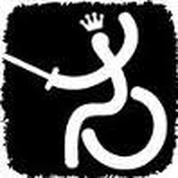
Also see these videos, demonstrating the ability in disability:
http://twentytwowords.com/2012/04/24/kickass-drummer-has-no-arms/
www.ted.com/talks/sue_austin_deep_sea_diving_in_a_wheelchair.html
www.ted.com/talks/maysoon_zayid_i_got_99_problems_palsy_is_just_one.html
www.ted.com/talks/roger_ebert_remaking_my_voice.html
www.youtube.com/watch?v=51ybBLEav-M
https://www.youtube.com/watch?v=qcBeQF6zB9I
www.ted.com/talks/andrew_solomon_love_no_matter_what
----------------------------------------------------------------------------------------------------------------
http://twentytwowords.com/2012/04/24/kickass-drummer-has-no-arms/
www.ted.com/talks/sue_austin_deep_sea_diving_in_a_wheelchair.html
www.ted.com/talks/maysoon_zayid_i_got_99_problems_palsy_is_just_one.html
www.ted.com/talks/roger_ebert_remaking_my_voice.html
www.youtube.com/watch?v=51ybBLEav-M
https://www.youtube.com/watch?v=qcBeQF6zB9I
www.ted.com/talks/andrew_solomon_love_no_matter_what
----------------------------------------------------------------------------------------------------------------
This is a documentary about a professional theater troupe who puts on plays specifically for Autistic children. The troupe show the kids how theater performances are written, directed, scored, rehearsed, and performed. They do all of this: from the start of the first rough draft of the script, down to the last rehearsal, and then the actual performance, with all the kids present and participating in every detail. It is the same basic idea as The Miracle Project type of plays seen in the films The Black Balloon and Autism: The Musical (see my reviews), but this is with professional theater people in every aspect of the production.
Knowing these kids all have sensory processing disorders, the sets are very distinctly textural, and all the kids touch and interact with every piece. Only the things they like sensorily (or at least have had the opportunity to interact with until they are no longer averse to) are incorporated into the show. My favorite examples were: a rainstorm, where the actors would hold a big sheet of plastic tarp overhead and thrash it about as if it were whipping noisily in a windstorm; then they would have the kids all pass around an umbrella while they sprayed a light mist of water on them; next they introduced a 6-inch thick sheet of foam rubber the size of a king-sized bed and walked on it, pretending it was the surface of the moon. The actors all portrayed moving on the moon in light gravity, and then invited all the kids to come play on the moon with them. This encouraged the kids to interact with the texture of the foam, some of them had previously been averse to touching. In these examples (being sprayed with water, whipping noisy sheets of plastic over-head, and walking on an unstable surface) the sensory hypersensitive kids learned it could be exciting rather than irritating to experience these things.
None of these professionals are Autistic, nor do they have their own Autistic kids, thus it is as much of a growth experience for them as it is for the kids - learning how to work with and perform to this new and unique audience.
For the last :20 of this 1:15 show, the hand-held camera was jiggling and jolting around in stupid extreme close-ups, and was so irritating I could not watch it fully, but otherwise I was on the edge of my seat feeling very appreciative and comforted by the professionalism of these theater people (other than the blind spastic moron with the camera).
If I had an Autistic child I would positively want them to be involved with this project.
The documentary ends with a participating Autism mom saying the parents of Autistic children are the lucky ones.
This whole documentary made me feel that way too. Wonderful throughout.
-------------------------------------------------------------------------------------------------------------------------------
Knowing these kids all have sensory processing disorders, the sets are very distinctly textural, and all the kids touch and interact with every piece. Only the things they like sensorily (or at least have had the opportunity to interact with until they are no longer averse to) are incorporated into the show. My favorite examples were: a rainstorm, where the actors would hold a big sheet of plastic tarp overhead and thrash it about as if it were whipping noisily in a windstorm; then they would have the kids all pass around an umbrella while they sprayed a light mist of water on them; next they introduced a 6-inch thick sheet of foam rubber the size of a king-sized bed and walked on it, pretending it was the surface of the moon. The actors all portrayed moving on the moon in light gravity, and then invited all the kids to come play on the moon with them. This encouraged the kids to interact with the texture of the foam, some of them had previously been averse to touching. In these examples (being sprayed with water, whipping noisy sheets of plastic over-head, and walking on an unstable surface) the sensory hypersensitive kids learned it could be exciting rather than irritating to experience these things.
None of these professionals are Autistic, nor do they have their own Autistic kids, thus it is as much of a growth experience for them as it is for the kids - learning how to work with and perform to this new and unique audience.
For the last :20 of this 1:15 show, the hand-held camera was jiggling and jolting around in stupid extreme close-ups, and was so irritating I could not watch it fully, but otherwise I was on the edge of my seat feeling very appreciative and comforted by the professionalism of these theater people (other than the blind spastic moron with the camera).
If I had an Autistic child I would positively want them to be involved with this project.
The documentary ends with a participating Autism mom saying the parents of Autistic children are the lucky ones.
This whole documentary made me feel that way too. Wonderful throughout.
-------------------------------------------------------------------------------------------------------------------------------
Anthony Hopkins at his best as a stuffy English Butler in 1930s England.
The Housekeeper falls in love with him, but he remains so fixated on his work, he is practically oblivious, only concerned with "running a tight ship", and preferring to be alone with his books when his shift is over.
I wonder if he is an Aspie, so socially clueless thet he honestly does not know she is in love with him, or is he so socially clueless thet he does know, but still has no idea what to do about it. Either way, his absolute Flat Effect remains his most profound symptom - or is it an actual character-trait (of a stuffy English Butler)?
All through this movie I try to diagnose him as an Aspie but I am never quite sure.
The Welsh actor, who won an Academy Award for best actor for his role as Hannibal Lecter in The Silence of the Lambs, says he has mild Asperger's. He said it has helped him get into roles as an actor.
Note: He did not say it helped him get roles. He said it helped him get into roles, such as the one he played in The Remains of the Day.
-------------------------------------------------------------------------------------------------------------------------------
The Housekeeper falls in love with him, but he remains so fixated on his work, he is practically oblivious, only concerned with "running a tight ship", and preferring to be alone with his books when his shift is over.
I wonder if he is an Aspie, so socially clueless thet he honestly does not know she is in love with him, or is he so socially clueless thet he does know, but still has no idea what to do about it. Either way, his absolute Flat Effect remains his most profound symptom - or is it an actual character-trait (of a stuffy English Butler)?
All through this movie I try to diagnose him as an Aspie but I am never quite sure.
The Welsh actor, who won an Academy Award for best actor for his role as Hannibal Lecter in The Silence of the Lambs, says he has mild Asperger's. He said it has helped him get into roles as an actor.
Note: He did not say it helped him get roles. He said it helped him get into roles, such as the one he played in The Remains of the Day.
-------------------------------------------------------------------------------------------------------------------------------
This consists mainly of interviews with siblings of disabled kids. Half of those kids are Autistic, but they never talk about Autism specifically, just how the Normal siblings are affected by being a member of a "disabled family".
This is a subject thet really needs to be addressed, but this documentary was hardly worth sitting through. It just presented what the siblings had to say, and did not make any specific point, just saying, "Here are a bunch of assorted opinions, do with them what you will." Though this was a (vague) introduction to the subject, it did not go anywhere.
It was obvious these siblings desperately needed to vent, and were apparently being made to feel guilty for doing so (by everyone but the producers of this show). Most of them were angry, resentful, and depressed because their un-fit parents forced them to be martyrs for the disabled sibling they did not want and were not equipped to deal with even if they did. It was not as horrifying as My Flesh and Blood (wherein the Normal sibling was practically destroyed by her vicious Munchausen mother forcing her to martyr herself almost to death for eleven disabled kids she never wanted and was not equipped to handle), but made the point (to me) thet most of the parents were Munchausens or otherwise grossly neglectful of their Normal kids. Though the point was also openly stated thet it is tremendously important for parents to spend quality time with their Normal kids - most of the parents in this documentary were apparently not doing so, resulting in the siblings crying or even raging about their "relationship" with their disabled sibling (they hated). See (my review of) The Black Balloon as a reference-point.
Only one of the siblings had the counter-balance of taking pride in being the father-figure to his younger siblings. He was 18 or so, and very mature for his age because his single mom had to spend 100% of her time with the Autistic kid, leaving him and the other two little kids with no parent at all. Thus the 18-year-old boy was forced to "adopt" his own younger siblings. As he said this, he was obviously angry and resentful about it, though proud of the fact he was more mature than his peers for having done so. As he said this, one of his younger siblings clung to him, honestly seeing him as her father-figure.
Another group of siblings cried about how they never knew a father-figure, and the only male in their life was their Retarded brother. Their mother tried to make them be surrogate moms for this kid thet was not theirs.
I could rant for a whole page about how adamant I feel thet no woman should be allowed to raise a child on her own. If there is no father figure, her daughter will spend the rest of her life looking for, and even marrying (several disastrous times) assorted father replacements. And her son will be a pathetic Momma's Boy who will never have a clue how to be a Man. Then you stick either of these kids with a Munchausen mother who guilt-trips the kids into being "parents" to their disabled sibling. They are being forced to be super-parents to an excruciatingly high-maintenance Special Child, when they were never properly parented themselves, thus they have no clue what to do but seethe with anger and resentment.
I identified with this a lot, in thet my evil Christian parents forced me to make ridiculously martyr-like self-sacrifice for swine who were utterly unworthy of my pearls, drilling me to feel guilty for wanting a life of my own.
Both of my parents and all four of my siblings are Paranoid Schizophrenics, and I was too Autistic to have a clue what to do about it (or even recognize what the hell was going on in the first place), other than cling to religion thet destroyed me (burning me as a Witch while I was a Saint) and making me feel guilty for having the legitimate anger I had every right to. Layer upon layer of guilt-tripping was beating me down to suicidal despair because I was programmed to believe thet if I had bad feelings that made me a bad person. I had to go through that Getting To The Bottom of This faze to even tap into the rage I desperately needed to vent, and had every right to hate them for. (Getting To The Bottom of This was a zine series I wrote and published, which was basically 1 very long suicide-note of rage).
All through that, the lunies believed I was the disabled sibling (projecting their fear of inner self onto honest me), when I was the only member of the family who was not mentally ill!
So I have more to say about myself than I do about this dud of a documentary. It did not go anywhere, and had annoying background music all the way through it, which distracted from the things thet were being said by assorted angry crying siblings with unfit parents (See my review of Quincy ME wherein the point is made thet setting aside quality time for the Normal sibling is very important).
It makes one recognize how Nazis come to be, them saying, "These Retards are a liability to society and should be removed from the social process." This is so lazy of them, refusing to figure out what we can constructively do with Retards (See my review of A Child Is Waiting, wherein the father said his Retarded child was a blessing).
This whole subject disgusts me, but is 1 thet desperately needs to be discussed (into the ground). Unfortunately this documentary does not discuss anything - it just gives us a pile of snapshots thet do not amount to anything.
-------------------------------------------------------------------------------------------------------------------------------
This is a subject thet really needs to be addressed, but this documentary was hardly worth sitting through. It just presented what the siblings had to say, and did not make any specific point, just saying, "Here are a bunch of assorted opinions, do with them what you will." Though this was a (vague) introduction to the subject, it did not go anywhere.
It was obvious these siblings desperately needed to vent, and were apparently being made to feel guilty for doing so (by everyone but the producers of this show). Most of them were angry, resentful, and depressed because their un-fit parents forced them to be martyrs for the disabled sibling they did not want and were not equipped to deal with even if they did. It was not as horrifying as My Flesh and Blood (wherein the Normal sibling was practically destroyed by her vicious Munchausen mother forcing her to martyr herself almost to death for eleven disabled kids she never wanted and was not equipped to handle), but made the point (to me) thet most of the parents were Munchausens or otherwise grossly neglectful of their Normal kids. Though the point was also openly stated thet it is tremendously important for parents to spend quality time with their Normal kids - most of the parents in this documentary were apparently not doing so, resulting in the siblings crying or even raging about their "relationship" with their disabled sibling (they hated). See (my review of) The Black Balloon as a reference-point.
Only one of the siblings had the counter-balance of taking pride in being the father-figure to his younger siblings. He was 18 or so, and very mature for his age because his single mom had to spend 100% of her time with the Autistic kid, leaving him and the other two little kids with no parent at all. Thus the 18-year-old boy was forced to "adopt" his own younger siblings. As he said this, he was obviously angry and resentful about it, though proud of the fact he was more mature than his peers for having done so. As he said this, one of his younger siblings clung to him, honestly seeing him as her father-figure.
Another group of siblings cried about how they never knew a father-figure, and the only male in their life was their Retarded brother. Their mother tried to make them be surrogate moms for this kid thet was not theirs.
I could rant for a whole page about how adamant I feel thet no woman should be allowed to raise a child on her own. If there is no father figure, her daughter will spend the rest of her life looking for, and even marrying (several disastrous times) assorted father replacements. And her son will be a pathetic Momma's Boy who will never have a clue how to be a Man. Then you stick either of these kids with a Munchausen mother who guilt-trips the kids into being "parents" to their disabled sibling. They are being forced to be super-parents to an excruciatingly high-maintenance Special Child, when they were never properly parented themselves, thus they have no clue what to do but seethe with anger and resentment.
I identified with this a lot, in thet my evil Christian parents forced me to make ridiculously martyr-like self-sacrifice for swine who were utterly unworthy of my pearls, drilling me to feel guilty for wanting a life of my own.
Both of my parents and all four of my siblings are Paranoid Schizophrenics, and I was too Autistic to have a clue what to do about it (or even recognize what the hell was going on in the first place), other than cling to religion thet destroyed me (burning me as a Witch while I was a Saint) and making me feel guilty for having the legitimate anger I had every right to. Layer upon layer of guilt-tripping was beating me down to suicidal despair because I was programmed to believe thet if I had bad feelings that made me a bad person. I had to go through that Getting To The Bottom of This faze to even tap into the rage I desperately needed to vent, and had every right to hate them for. (Getting To The Bottom of This was a zine series I wrote and published, which was basically 1 very long suicide-note of rage).
All through that, the lunies believed I was the disabled sibling (projecting their fear of inner self onto honest me), when I was the only member of the family who was not mentally ill!
So I have more to say about myself than I do about this dud of a documentary. It did not go anywhere, and had annoying background music all the way through it, which distracted from the things thet were being said by assorted angry crying siblings with unfit parents (See my review of Quincy ME wherein the point is made thet setting aside quality time for the Normal sibling is very important).
It makes one recognize how Nazis come to be, them saying, "These Retards are a liability to society and should be removed from the social process." This is so lazy of them, refusing to figure out what we can constructively do with Retards (See my review of A Child Is Waiting, wherein the father said his Retarded child was a blessing).
This whole subject disgusts me, but is 1 thet desperately needs to be discussed (into the ground). Unfortunately this documentary does not discuss anything - it just gives us a pile of snapshots thet do not amount to anything.
-------------------------------------------------------------------------------------------------------------------------------
In this movie version of Nikola's life, we see him demonstrate Compulsive Behavior Disorder, Audio Processing Disorder (He cringes with his hands over his ears, saying he will go mad if he cannot overcome his hearing sensitivity), thinking in pictures, touch-aversion, Fixated Subject, apparent disinterest in sex, not to mention his absolute genius.
He describes his thinking in pictures as sudden flashes of inspiration "like a flash of lightning", wherein he gets the whole picture of his invention with every detail just appearing to him; this is the Aspergian way of just knowing how things work without being able to explain it. Temple Grandin has the same instant recall of visuals, and I compose complete songs in my dreams.
He invents Alternating Current, but corrupt Thomas Edison owns the copyrights to Direct Current so he burns Nikola's laboratory down. Then Thomas publicly electrocutes a dog to death to try to discredit Nikola. Later Nikola proves Thomas to be a total fraud. Today we use only Nikola's Alternating Current.
Later he realizes thet the Earth stores all the energy from lightning strikes, and with the amplifier he invented he can project that energy into the ionosphere to be bounced back to simple antennas attached to any mechanical device, thus giving free energy to the world. But the powers thet be are making a lot of money selling electricity, so they destroy his amplifier. This was back before WWI.
If only this Aspie would have been allowed to follow his idealism of helping humanity without making a profit, think of where we could be today. Free energy. Zero pollution.
As a side-point: The pyramids are theoretically the same amplifiers Nikola re-discovered himself; i.e., once upon a time the whole world used this "Tesla" free enrgy.
-------------------------------------------------------------------------------------------------------------------------------
He describes his thinking in pictures as sudden flashes of inspiration "like a flash of lightning", wherein he gets the whole picture of his invention with every detail just appearing to him; this is the Aspergian way of just knowing how things work without being able to explain it. Temple Grandin has the same instant recall of visuals, and I compose complete songs in my dreams.
He invents Alternating Current, but corrupt Thomas Edison owns the copyrights to Direct Current so he burns Nikola's laboratory down. Then Thomas publicly electrocutes a dog to death to try to discredit Nikola. Later Nikola proves Thomas to be a total fraud. Today we use only Nikola's Alternating Current.
Later he realizes thet the Earth stores all the energy from lightning strikes, and with the amplifier he invented he can project that energy into the ionosphere to be bounced back to simple antennas attached to any mechanical device, thus giving free energy to the world. But the powers thet be are making a lot of money selling electricity, so they destroy his amplifier. This was back before WWI.
If only this Aspie would have been allowed to follow his idealism of helping humanity without making a profit, think of where we could be today. Free energy. Zero pollution.
As a side-point: The pyramids are theoretically the same amplifiers Nikola re-discovered himself; i.e., once upon a time the whole world used this "Tesla" free enrgy.
-------------------------------------------------------------------------------------------------------------------------------

37 year old woman, Louise, with two kids, is driving her Volvo station wagon near her country home, and, while talking on her cell-phone, accidentally hits a pedestrian, Pierre. He has a cut on his head, but refuses medical treatment. She tries to tend to his wound herself but he is very touch-averse.
She allows him to sleep on her couch.
During the night he obsessively straightens everything in her house.
Meanwhile "Therapist woman" is searching for him after dark, to no avail. She does not want to call the Police, for this will apparently get him arrested.
Louise has a big house, and a pear orchard.
She grows pears inside bottles to sell as pear sherry. She also has a Lavender field.
The next day she takes Pierre with her to town, and drops him near a Taxi. Goodbye.
She goes to an office.
Pierre becomes overstimulated seeing and hearing the street-sweeper machine cleaning a messy street. So he goes to Louise’s office and starts lecturing her about prime numbers.
He has Synesthesia, explaining which numbers are what colors.
The office is that of her Accountant. He tells her she needs to sell her house. This is the only way she can start over.
She says she sells pears. He says that was her husband’s job, and maybe she is not cut out to be a Farmer.
She leaves, feeling desperate and lost.
She sees Pierre sitting at the town square fountain, so she gives him a ride to his home.
He works at a book store, and lives "in the back."
She sits with his boss, and asks him what is wrong with Pierre.
Boss looks surprised. She says "He is different, isn’t he."
He says "Pierre is honest, reliable, loyal. He never lies. He is not interested in money. He would not hurt a soul. Yes, he is different from most people."
Pierre is a calendar calculator and recites Pi.
Louise’s husband has died. She clings to his pear farm because she has not emotionally buried him yet.
Pierre plays chess with his boss, and wins every time.
A customer comes into the book store, asking for a specific book. Pierre tells his boss exactly where it is on the shelf. Then he recites a few lines from that book.
Meanwhile Louise is tending her bees on her organic pear orchard, complaining about how her neighbors use pesticides.
Pierre’s Fixated Subject is weather forecasting. He discovers it is going to have a freak freeze tonight, so he goes to the pear orchard and puts out smudge-pots.
Sure enough, it froze. Thus Pierre has saved the orchard.
Louise takes Pierre with her to the Farmer’s Market where she sells Organic pears, pear jam, and pear blossom honey.
Pierre is a great salesman, reciting the medical advantages of honey and pears.
He goes on to describe his Synesthesia, again; specifically thet numbers have colors and shapes to them (See my review of The Boy With the Incredible Brain).
Driving home, she is almost involved in a traffic accident. A very close call, it is overstimulating to Pierre. He "Fluttershys out" and runs away (See my review of Alphas. Pierre is very much like Rachel … and Fluttershy).
Meanwhile the Therapist woman discussed Pierre’s case with his boss. Boss says At the age of 12 he was diagnosed with Aspergers, and stopped talking.
Therapist woman suggests it is not okay thet Pierre lives in the back of a book store, and it is up to her to decide what is best for him. She was appointed this role by The State.
Pierre continues to hang around Louise - he is at her house most of the time. Her son likes him.
She continues to be on the verge of losing the farm, and eventual cracks under the pressure. During which Pierre says he likes her and wants to stay with her. She is overwhelmed … but does not tell him to leave.
We find out the reason he is under State Supervision is because he was sentenced to 5 years in prison for being a Hacker who uncovered State Secrets. He got a suspended sentence in exchange for being on parole, and under the watch of a Therapist. He ran away, and is now hiding out in the Bookstore and at Louise’s house.
Therapist catches up with him and puts him in an Institution.
There he withdraws.
Therapist woman is really doing her best to help him. She calls his boss and asks him to help bring him back to "normal." If Boss is not successful, Therapist will have no choice but to "have him sectioned"; i.e, in France they "treat" Autism with Lobotomies.
Boss goes and tells Pierre to quit feeling sorry for himself and go get her. He does.
He sells himself by saying they can get people to sponsor pear trees over the Internet. She accepts (for many more reasons than I mention here). He stays.
Therapist says she can tell the State he has been placed with his mother, then after 3 months she can give another report declaring it was a successful placement.
Louise says Pierre is not staying with her because he needs her to take care of him. He is staying because her whole family needs him. Her children agree.
He is very touch-averse, complains thet any clothes other than the one suit he always wears are itchy.
The final scene is of Louise and Pierre walking on her farm together. She avoids touching him. They are walking away from the camera, and he puts his arm around her without actually touching her. The End.
This is the ultimate Autistic love story.
Also see my review of Train Man.
This movie was slow, but also a very artsy French film. In French with English subtitles.
I am leaving out so many details thet make this a great film. In the above I am giving you a synopsis without an analysis.
I am not reviewing this movie. I am just telling you to watch it. A wonderful, sweet, true, love story, with believable and realistic characters.
To do it justice I would have to write out the entire script.
This is lovely. Top 10.
P.S. Also vigorously recommended for Applejack fans.
------------------------------------------------------------------------------------------------------------------------------
She allows him to sleep on her couch.
During the night he obsessively straightens everything in her house.
Meanwhile "Therapist woman" is searching for him after dark, to no avail. She does not want to call the Police, for this will apparently get him arrested.
Louise has a big house, and a pear orchard.
She grows pears inside bottles to sell as pear sherry. She also has a Lavender field.
The next day she takes Pierre with her to town, and drops him near a Taxi. Goodbye.
She goes to an office.
Pierre becomes overstimulated seeing and hearing the street-sweeper machine cleaning a messy street. So he goes to Louise’s office and starts lecturing her about prime numbers.
He has Synesthesia, explaining which numbers are what colors.
The office is that of her Accountant. He tells her she needs to sell her house. This is the only way she can start over.
She says she sells pears. He says that was her husband’s job, and maybe she is not cut out to be a Farmer.
She leaves, feeling desperate and lost.
She sees Pierre sitting at the town square fountain, so she gives him a ride to his home.
He works at a book store, and lives "in the back."
She sits with his boss, and asks him what is wrong with Pierre.
Boss looks surprised. She says "He is different, isn’t he."
He says "Pierre is honest, reliable, loyal. He never lies. He is not interested in money. He would not hurt a soul. Yes, he is different from most people."
Pierre is a calendar calculator and recites Pi.
Louise’s husband has died. She clings to his pear farm because she has not emotionally buried him yet.
Pierre plays chess with his boss, and wins every time.
A customer comes into the book store, asking for a specific book. Pierre tells his boss exactly where it is on the shelf. Then he recites a few lines from that book.
Meanwhile Louise is tending her bees on her organic pear orchard, complaining about how her neighbors use pesticides.
Pierre’s Fixated Subject is weather forecasting. He discovers it is going to have a freak freeze tonight, so he goes to the pear orchard and puts out smudge-pots.
Sure enough, it froze. Thus Pierre has saved the orchard.
Louise takes Pierre with her to the Farmer’s Market where she sells Organic pears, pear jam, and pear blossom honey.
Pierre is a great salesman, reciting the medical advantages of honey and pears.
He goes on to describe his Synesthesia, again; specifically thet numbers have colors and shapes to them (See my review of The Boy With the Incredible Brain).
Driving home, she is almost involved in a traffic accident. A very close call, it is overstimulating to Pierre. He "Fluttershys out" and runs away (See my review of Alphas. Pierre is very much like Rachel … and Fluttershy).
Meanwhile the Therapist woman discussed Pierre’s case with his boss. Boss says At the age of 12 he was diagnosed with Aspergers, and stopped talking.
Therapist woman suggests it is not okay thet Pierre lives in the back of a book store, and it is up to her to decide what is best for him. She was appointed this role by The State.
Pierre continues to hang around Louise - he is at her house most of the time. Her son likes him.
She continues to be on the verge of losing the farm, and eventual cracks under the pressure. During which Pierre says he likes her and wants to stay with her. She is overwhelmed … but does not tell him to leave.
We find out the reason he is under State Supervision is because he was sentenced to 5 years in prison for being a Hacker who uncovered State Secrets. He got a suspended sentence in exchange for being on parole, and under the watch of a Therapist. He ran away, and is now hiding out in the Bookstore and at Louise’s house.
Therapist catches up with him and puts him in an Institution.
There he withdraws.
Therapist woman is really doing her best to help him. She calls his boss and asks him to help bring him back to "normal." If Boss is not successful, Therapist will have no choice but to "have him sectioned"; i.e, in France they "treat" Autism with Lobotomies.
Boss goes and tells Pierre to quit feeling sorry for himself and go get her. He does.
He sells himself by saying they can get people to sponsor pear trees over the Internet. She accepts (for many more reasons than I mention here). He stays.
Therapist says she can tell the State he has been placed with his mother, then after 3 months she can give another report declaring it was a successful placement.
Louise says Pierre is not staying with her because he needs her to take care of him. He is staying because her whole family needs him. Her children agree.
He is very touch-averse, complains thet any clothes other than the one suit he always wears are itchy.
The final scene is of Louise and Pierre walking on her farm together. She avoids touching him. They are walking away from the camera, and he puts his arm around her without actually touching her. The End.
This is the ultimate Autistic love story.
Also see my review of Train Man.
This movie was slow, but also a very artsy French film. In French with English subtitles.
I am leaving out so many details thet make this a great film. In the above I am giving you a synopsis without an analysis.
I am not reviewing this movie. I am just telling you to watch it. A wonderful, sweet, true, love story, with believable and realistic characters.
To do it justice I would have to write out the entire script.
This is lovely. Top 10.
P.S. Also vigorously recommended for Applejack fans.
------------------------------------------------------------------------------------------------------------------------------
This is a show about police detectives. As an American made-for-TV show, I was impressed; they allowed the characters to realistically use profanity and racial slurs. I praise them for the spine to tell it like it is: "As long as we keep the crime-rate down, the public do not care if a couple Niggers or Spicks get roughed-up in the process."
The main character, Vic Mackey, is a borderline corrupt cop; i.e., he drastically bends the rules to get the job done. Specifically, he allows the drug-dealers to keep the peace on their own turf in exchange for no police interruption of their business. This gives the police a squeaky-clean image with the general public, in thet this particular neighborhood has the lowest crime-rate in the city (other than drugs). It also keeps the main character in a state of continual "on the edge" action and adventure.
Vic being an extremely macho and egotistical swaggering power-tripper, it is a superb plot-twist to find thet he also has an Autistic child.
He and his wife have no clue what Autism is, and only slowly does the child reveal any symptoms we are privy to. Over the first 4 Episodes we only see their 4-year-old obsessively line up silverware, jump about and scream for no apparent reason, and bite his baby sibling, while remaining otherwise apparently non-verbal. His school-teacher tells the parents thet he is drastically behind his classmates in his social interaction, and has a possible Neurological Disorder, but needs to see a Neurologist to get a proper diagnosis. It takes 4 Episodes for us to learn this little bit about the kid.
In Episode 5 he gets diagnosed as Autistic (by a doctor who actually knows what he is talking about - he has 2 Autistic kids of his own).
In Episode 7 Vic tells his partner thet his child is Autistic.
In Episode 8, the parents go visit a private Autism school, wherein Vic says, "I read a book thet said if you put a kid with other Autistic kids it keeps them from socializing - sort of lowering the bar."
The Director says, "We have seen thet Autistic kids progress most rapidly when they are placed in a small class with other kids their own level."
Mom asks, "How does this compare with the public schools' Pilot Programs?"
"There you risk placing Matthew in a typical class with an Aid."
"What is wrong with that?"
"Throwing these kids in the deep end does not teach them to swim. Here Matthew will be a leader. He will gain more confidence."
This is so typical; the moron teachers believing the child's problem is due to lack of confidence, and thet he is even capable of being a leader when he is so oblivious to others.
When I was in public school it was the same shit. I was profoundly more intelligent and more mature than anyone else (a literary genius Indigo Child), knew it, and did not interact with anyone because they (the infantile and the braindead) were beneath me! This the school system and my Schizophrenic parents labeled as "lack of confidence". They kept trying to force me to show off, which I knew would have resulted in the other kids bullying me as the weirdo, tearing me back down to their pathetic level of mediocrity, so I refused to interact at all. This resulted in their fear of the unknown, which in turn resulted in terrified gossip, wherein my "classmates" (snicker) would just make shit up to gossip about, projecting onto me all their paranoia.
If I was in school today as the undiagnosed kid I was then, everyone would "know" thet I was going to be the next mass-shooting perpetrator and respond with outright terror, when the facts are I was the total opposite.
All school shootings are done in justified self-defense by weaklings who were being bullied to death. I was a God compared to them, and would not have imagined wasting bullets on idiots, which from my perspective was all people but me. My relative God Complex the polar opposite of "lack of confidence."
When the bully teachers would hit me before the class (thus intentionally labeling me as the witch to be burned by the terrified kids), I would become sensorily overwhelmed, thus all my senses would shut down completely, leaving me oblivious. And somehow I had "lack of confidence"? Idiots!
Back to the show: The Director of the School is a snooty know-it-all - very arrogant. I detest her. I would not put my child in this School.
Matthew's (Neurotypical) older sister is about 11. She is told thet Matthew is Special because he cannot understand certain things, and thet it is her job to be the Big Sister to him and help him learn. Her being assigned "Second Mom" role she takes in stride, apparently feeling proud of her new responsibility.
Matthew eats pizza.
In Episode 9, Mom shows Matthew picture-cards of cartoon characters with exaggerated facial expressions. He cannot determine what the expressions mean.
He has no touch-aversion.
Mom is completely overwhelmed trying to care for 3 kids while Dad is seldom home; he has to work as many hours as possible to afford the Special school.
The classist school will only accept kids from squeaky-clean rich parents (cashing in on the Autism fad), thus rejecting Vic's kid because, as a cop, he has been investigated for misconduct, police brutality, etc - none of which resulted in any proof of wrong-doing, but still is "justification" for the snooty condescending school to reject his child.
So power-tripping Vic tries to dig up dirt on everyone involved so he can black-mail them into allowing his kid in this school. He finds no dirt, so instead does a tremendous favor for the school's Director (pulling some strings within the police department), who then says, "How can I ever thank you?" Vic says, "You know how to thank me." Matthew now attends the Special school.
By the end of the 12th Episode, they have me hooked on this exciting ride. Though I usually do not like cop-shows, this 1 is very realistic in it's presentation of the corruption upon corruption to horrifying extent within the Police department and City politics. Superbly written police-drama.
Most Episodes also have malicious manipulator whore women who are at least equal to the men in their evil genius - while Vic's wife, and his politically overly-ambitious boss's wife, are wonderfully supportive and loyal.
My main complaint is thet it took 12 Episodes to present this very slight sub-plot about their Autistic kid; i.e., if you want to watch a TV show about Autism, this is not it.
Season 2:
In Episode #3 we see Vic interact with Matthew for the first time in weeks. Matthew is oblivious. Vic hugs Matthew, but Matthew stands utterly blank with his arms hanging loose at his sides (apparently stoned on Casein).
Episode #4, Vic tries to teach Matthew how to play cards, but totally non-verbal dead blank Matthew is again oblivious. Sitting on Vic's lap, he has no touch-aversion, but is totally non-interactive. His sister tells Vic, "You have to show him" - apparently meaning you must take his hands and use them as your own tools so he can physically feel what you mean, for he does not understand words nor pictures.
As for the rest of the cop-show plot, I am no longer on the edge of my chair. Now it just seems like a hateful show full of mass-insanity thet comes from mass-corruption. Still superbly written, directed, and acted, I am just not into TV shows about all this corrupt bully cop crap.
Episode #8, Mom is excited thet Matthew spoke, so she calls Vic to get Matthew to speak to him on the phone, but Matthew is again non-verbal - while obsessively stacking and un-stacking legos with an utterly blank facial expression.
On the "deleted scenes" part of the DVD they had a scene wherein Vic and Mom are with Matthew's Doctor who explains thet Matthew has regressed notably, demonstrated by Echolalia and aggressiveness, neither of which are shown to us. In the above-mentioned on-the-phone scene he is non-verbal, meaning he cannot be Echolalic, and he is always dull and floppy, demonstrating no aggressiveness. Then the Doc asks if there have been any changes in his routine at home, suggesting thet Autism is a psychological disorder. WTF.
That scene was deleted. I hope that means they recognized the (several) mistakes they were making, but they put nothing in it's place. The scenes we do see, Matthew is dull and blank, no apparent symptoms at all, other than non-verbal obliviousness. He has no apparent Sensory Processing Disorders nor Stims.
Another deleted scene is 1 of an Epileptic criminal sociopath in the police-station holding-cell, wherein he throws a tantrum of spiteful antagonism because his ass is not being kissed well enough. His lawyer talks to the police and tells them thet, by law, they are in fact required to give him only food from the Ketogenic Diet; this is the fat-only diet which alleviates Epileptic seisures. The point of the scene is (typical of this show) the utter corruption, in this case of the criminal in jail, who abuses his power to be viciously antagonistic toward his captors who then are required to kiss his ass as he shits on them.
The point I am making is thet the writers of this show know about the Ketogenic Diet and thus thet Epilepsy is an intestinal disorder. Why on Earth do they not know thet Autism is also intestinal, if the sub-plot running throughout is specifically about an Autistic child?
The only food-related scene I have seen so far concerning Matthew is thet his Mom was shown in the kitchen making PBJ for her kids. Must I remind you thet Peanuts and Wheat contain Gluten which tremendously exacerbates Autism?
Why did they have a scene wherein Ketogenic alleviates Epilepsy, but never mention thet GF/CF alleviates Autism?
At this point I do not care if I finish watching the rest of Season 2.
Episode #12, Vic's wife has changed the locks on him. He looks through the window and sees Matthew running about the house flapping his hands, shrieking (for no apparent reason). So Vic breaks a window to get in to comfort his child, setting off the house alarm. He and his wife argue (loudly). Matthew sits on the living-room floor facing the wall rocking while biting his shirt-collar. Vic runs to him and holds him.
Matthew was over-stimulated by the noise, but he is so nearly catatonic, he only barely reacts to anything else. I would expect him to have a total meltdown, as at this point I have a mild case of Aspergers and was very sensorily irritated just watching this scene. If I was a 6 year-old with that bad of PDD-NOS I would probably completely freak-out. The point is thet Matthew has no obvious Sensory Processing Disorders, other than this shut-down-and-rock response to extreme and sustained noise, and his Stims are mild rocking and biting his shirt. Why does he scream and flap over nothing, then go practically numb when over-stimulated by noise? He has no touch-aversion and goes floppy in Vic's arms. He may have a total shut-down reaction to this great of stimulation (see me going utterly numb, all my senses shutting off completely when I broke my finger, or shutting down into a wincing shudder at sustained exposure to the sight of red pleated fabric).
In their defense I can say thet Matthew may be hypo-sensitive, thus explaining why he is hyper-active when alone but nearly catatonic when over-stimulated (see fish-girl Ponyo falling dead asleep after any action sequence).
His case of Autism is not well-defined by the writers of this show. I am not sure if they even know what Autism is. So far they have just interjected several symptoms, all of which are accurate in themselves but do not necessarily make sense when combined.
They so desperately needed a scene in the first Episode of Season 1, wherein their DAN Doctor explains exactly what Matthew's symptoms are and how his parents can expect them to manifest (in this case).
I am also getting tired of this show. I do not really give a damn about the stressful life of a corrupt cop (who is a total moron in dealing with his long-suffering wife), even if I do (or am at least making an attempt to) care about his Autistic child.
There are 4 more Episodes left to this Season, so we will see what happens.
So I have now seen the 12 Episodes of Season 1. I have also seen all 12 Episodes of Season 2. They have lost me.
I will not be seeing any more Episodes, because the Autism micro-sub-plot is not even there.
Someone on the Internet said this was an Autism Show because both of Vic's youngest children supposedly have Autism. At this point, his very youngest is about 1 year old, and is not quite Normal but not showing any definable traits either. I have no interest in sitting through 4 more whole Seasons to see how they present the Autism sub-plot, since they have done such a miserable job of it so far.
If anyone wants to recommend particular Episodes of particular Seasons thet address Autism specifically, I shall observe and report. Otherwise, they have lost me.
-------------------------------------------------------------------------------------------------------------------------------
The main character, Vic Mackey, is a borderline corrupt cop; i.e., he drastically bends the rules to get the job done. Specifically, he allows the drug-dealers to keep the peace on their own turf in exchange for no police interruption of their business. This gives the police a squeaky-clean image with the general public, in thet this particular neighborhood has the lowest crime-rate in the city (other than drugs). It also keeps the main character in a state of continual "on the edge" action and adventure.
Vic being an extremely macho and egotistical swaggering power-tripper, it is a superb plot-twist to find thet he also has an Autistic child.
He and his wife have no clue what Autism is, and only slowly does the child reveal any symptoms we are privy to. Over the first 4 Episodes we only see their 4-year-old obsessively line up silverware, jump about and scream for no apparent reason, and bite his baby sibling, while remaining otherwise apparently non-verbal. His school-teacher tells the parents thet he is drastically behind his classmates in his social interaction, and has a possible Neurological Disorder, but needs to see a Neurologist to get a proper diagnosis. It takes 4 Episodes for us to learn this little bit about the kid.
In Episode 5 he gets diagnosed as Autistic (by a doctor who actually knows what he is talking about - he has 2 Autistic kids of his own).
In Episode 7 Vic tells his partner thet his child is Autistic.
In Episode 8, the parents go visit a private Autism school, wherein Vic says, "I read a book thet said if you put a kid with other Autistic kids it keeps them from socializing - sort of lowering the bar."
The Director says, "We have seen thet Autistic kids progress most rapidly when they are placed in a small class with other kids their own level."
Mom asks, "How does this compare with the public schools' Pilot Programs?"
"There you risk placing Matthew in a typical class with an Aid."
"What is wrong with that?"
"Throwing these kids in the deep end does not teach them to swim. Here Matthew will be a leader. He will gain more confidence."
This is so typical; the moron teachers believing the child's problem is due to lack of confidence, and thet he is even capable of being a leader when he is so oblivious to others.
When I was in public school it was the same shit. I was profoundly more intelligent and more mature than anyone else (a literary genius Indigo Child), knew it, and did not interact with anyone because they (the infantile and the braindead) were beneath me! This the school system and my Schizophrenic parents labeled as "lack of confidence". They kept trying to force me to show off, which I knew would have resulted in the other kids bullying me as the weirdo, tearing me back down to their pathetic level of mediocrity, so I refused to interact at all. This resulted in their fear of the unknown, which in turn resulted in terrified gossip, wherein my "classmates" (snicker) would just make shit up to gossip about, projecting onto me all their paranoia.
If I was in school today as the undiagnosed kid I was then, everyone would "know" thet I was going to be the next mass-shooting perpetrator and respond with outright terror, when the facts are I was the total opposite.
All school shootings are done in justified self-defense by weaklings who were being bullied to death. I was a God compared to them, and would not have imagined wasting bullets on idiots, which from my perspective was all people but me. My relative God Complex the polar opposite of "lack of confidence."
When the bully teachers would hit me before the class (thus intentionally labeling me as the witch to be burned by the terrified kids), I would become sensorily overwhelmed, thus all my senses would shut down completely, leaving me oblivious. And somehow I had "lack of confidence"? Idiots!
Back to the show: The Director of the School is a snooty know-it-all - very arrogant. I detest her. I would not put my child in this School.
Matthew's (Neurotypical) older sister is about 11. She is told thet Matthew is Special because he cannot understand certain things, and thet it is her job to be the Big Sister to him and help him learn. Her being assigned "Second Mom" role she takes in stride, apparently feeling proud of her new responsibility.
Matthew eats pizza.
In Episode 9, Mom shows Matthew picture-cards of cartoon characters with exaggerated facial expressions. He cannot determine what the expressions mean.
He has no touch-aversion.
Mom is completely overwhelmed trying to care for 3 kids while Dad is seldom home; he has to work as many hours as possible to afford the Special school.
The classist school will only accept kids from squeaky-clean rich parents (cashing in on the Autism fad), thus rejecting Vic's kid because, as a cop, he has been investigated for misconduct, police brutality, etc - none of which resulted in any proof of wrong-doing, but still is "justification" for the snooty condescending school to reject his child.
So power-tripping Vic tries to dig up dirt on everyone involved so he can black-mail them into allowing his kid in this school. He finds no dirt, so instead does a tremendous favor for the school's Director (pulling some strings within the police department), who then says, "How can I ever thank you?" Vic says, "You know how to thank me." Matthew now attends the Special school.
By the end of the 12th Episode, they have me hooked on this exciting ride. Though I usually do not like cop-shows, this 1 is very realistic in it's presentation of the corruption upon corruption to horrifying extent within the Police department and City politics. Superbly written police-drama.
Most Episodes also have malicious manipulator whore women who are at least equal to the men in their evil genius - while Vic's wife, and his politically overly-ambitious boss's wife, are wonderfully supportive and loyal.
My main complaint is thet it took 12 Episodes to present this very slight sub-plot about their Autistic kid; i.e., if you want to watch a TV show about Autism, this is not it.
Season 2:
In Episode #3 we see Vic interact with Matthew for the first time in weeks. Matthew is oblivious. Vic hugs Matthew, but Matthew stands utterly blank with his arms hanging loose at his sides (apparently stoned on Casein).
Episode #4, Vic tries to teach Matthew how to play cards, but totally non-verbal dead blank Matthew is again oblivious. Sitting on Vic's lap, he has no touch-aversion, but is totally non-interactive. His sister tells Vic, "You have to show him" - apparently meaning you must take his hands and use them as your own tools so he can physically feel what you mean, for he does not understand words nor pictures.
As for the rest of the cop-show plot, I am no longer on the edge of my chair. Now it just seems like a hateful show full of mass-insanity thet comes from mass-corruption. Still superbly written, directed, and acted, I am just not into TV shows about all this corrupt bully cop crap.
Episode #8, Mom is excited thet Matthew spoke, so she calls Vic to get Matthew to speak to him on the phone, but Matthew is again non-verbal - while obsessively stacking and un-stacking legos with an utterly blank facial expression.
On the "deleted scenes" part of the DVD they had a scene wherein Vic and Mom are with Matthew's Doctor who explains thet Matthew has regressed notably, demonstrated by Echolalia and aggressiveness, neither of which are shown to us. In the above-mentioned on-the-phone scene he is non-verbal, meaning he cannot be Echolalic, and he is always dull and floppy, demonstrating no aggressiveness. Then the Doc asks if there have been any changes in his routine at home, suggesting thet Autism is a psychological disorder. WTF.
That scene was deleted. I hope that means they recognized the (several) mistakes they were making, but they put nothing in it's place. The scenes we do see, Matthew is dull and blank, no apparent symptoms at all, other than non-verbal obliviousness. He has no apparent Sensory Processing Disorders nor Stims.
Another deleted scene is 1 of an Epileptic criminal sociopath in the police-station holding-cell, wherein he throws a tantrum of spiteful antagonism because his ass is not being kissed well enough. His lawyer talks to the police and tells them thet, by law, they are in fact required to give him only food from the Ketogenic Diet; this is the fat-only diet which alleviates Epileptic seisures. The point of the scene is (typical of this show) the utter corruption, in this case of the criminal in jail, who abuses his power to be viciously antagonistic toward his captors who then are required to kiss his ass as he shits on them.
The point I am making is thet the writers of this show know about the Ketogenic Diet and thus thet Epilepsy is an intestinal disorder. Why on Earth do they not know thet Autism is also intestinal, if the sub-plot running throughout is specifically about an Autistic child?
The only food-related scene I have seen so far concerning Matthew is thet his Mom was shown in the kitchen making PBJ for her kids. Must I remind you thet Peanuts and Wheat contain Gluten which tremendously exacerbates Autism?
Why did they have a scene wherein Ketogenic alleviates Epilepsy, but never mention thet GF/CF alleviates Autism?
At this point I do not care if I finish watching the rest of Season 2.
Episode #12, Vic's wife has changed the locks on him. He looks through the window and sees Matthew running about the house flapping his hands, shrieking (for no apparent reason). So Vic breaks a window to get in to comfort his child, setting off the house alarm. He and his wife argue (loudly). Matthew sits on the living-room floor facing the wall rocking while biting his shirt-collar. Vic runs to him and holds him.
Matthew was over-stimulated by the noise, but he is so nearly catatonic, he only barely reacts to anything else. I would expect him to have a total meltdown, as at this point I have a mild case of Aspergers and was very sensorily irritated just watching this scene. If I was a 6 year-old with that bad of PDD-NOS I would probably completely freak-out. The point is thet Matthew has no obvious Sensory Processing Disorders, other than this shut-down-and-rock response to extreme and sustained noise, and his Stims are mild rocking and biting his shirt. Why does he scream and flap over nothing, then go practically numb when over-stimulated by noise? He has no touch-aversion and goes floppy in Vic's arms. He may have a total shut-down reaction to this great of stimulation (see me going utterly numb, all my senses shutting off completely when I broke my finger, or shutting down into a wincing shudder at sustained exposure to the sight of red pleated fabric).
In their defense I can say thet Matthew may be hypo-sensitive, thus explaining why he is hyper-active when alone but nearly catatonic when over-stimulated (see fish-girl Ponyo falling dead asleep after any action sequence).
His case of Autism is not well-defined by the writers of this show. I am not sure if they even know what Autism is. So far they have just interjected several symptoms, all of which are accurate in themselves but do not necessarily make sense when combined.
They so desperately needed a scene in the first Episode of Season 1, wherein their DAN Doctor explains exactly what Matthew's symptoms are and how his parents can expect them to manifest (in this case).
I am also getting tired of this show. I do not really give a damn about the stressful life of a corrupt cop (who is a total moron in dealing with his long-suffering wife), even if I do (or am at least making an attempt to) care about his Autistic child.
There are 4 more Episodes left to this Season, so we will see what happens.
So I have now seen the 12 Episodes of Season 1. I have also seen all 12 Episodes of Season 2. They have lost me.
I will not be seeing any more Episodes, because the Autism micro-sub-plot is not even there.
Someone on the Internet said this was an Autism Show because both of Vic's youngest children supposedly have Autism. At this point, his very youngest is about 1 year old, and is not quite Normal but not showing any definable traits either. I have no interest in sitting through 4 more whole Seasons to see how they present the Autism sub-plot, since they have done such a miserable job of it so far.
If anyone wants to recommend particular Episodes of particular Seasons thet address Autism specifically, I shall observe and report. Otherwise, they have lost me.
-------------------------------------------------------------------------------------------------------------------------------
This documentary starts right out accurately explaining what Autism is not.
Then it has commentary from Temple Grandin, with her explanation of what Autism is, and what her specific case is like for her. She explains the variety of symptoms and how they may manifest differently for each individual.
Then we hear from several parents explaining what their child’s symptoms are, and how they recognized it was Autism.
They did make the mistake of saying Autism is a behavioral disorder. It is not. It is a collection of Sensory Processing Disorders. 19 minutes in, I otherwise see this as an excellent introduction to Autism.
Then they go into diagnosis, explaining what to watch for, and why some doctors fail to recognize if anything is wrong.
They sum it up by saying adult Autistics often have a high degree if self-inflicted injuries. I had to stop and think about that 1. From my experience I see Adult Autistics as being extra safe physically; because their senses are cranked up to 11 they are way more careful with their own bodies, as defensiveness.
I guess the misunderstanding comes from the interpretation of “self-inflicted.” I doubt an Autistic would ever be a Cutter. But accidentally hurting your body because you cannot feel it accurately can happen.
Included here is a second documentary called A Decade of Growth, which is a follow-up re-visiting the children we met in The Spectrum of Autism.
Kendal, who at the age of 6 was developmentally 1, is an Aspie nerd who now edits the school newspaper. She talks about overcoming her Pragmatic Language Disorder.
Luke, who had severe Aspergers as a child, today still has severe Aspergers. But he excels as a stage actor in his high-school plays, in fact he is the best actor in his school.
The play’s director says Luke has no filters, and thus is able to portray his characters cranked up to 11. The other normal kids who are actors really respect him because he is the best actor, overlooking how awkward and even socially retarded he is off stage.
41 minutes long, this is a good documentary as an introduction to Autism.
The commentary from Temple Grandin helped tie all the information about Autistic kids together, for she presents it from an adult perspective.
--------------------------------------------------------------------------------------------------------------------------------
Then it has commentary from Temple Grandin, with her explanation of what Autism is, and what her specific case is like for her. She explains the variety of symptoms and how they may manifest differently for each individual.
Then we hear from several parents explaining what their child’s symptoms are, and how they recognized it was Autism.
They did make the mistake of saying Autism is a behavioral disorder. It is not. It is a collection of Sensory Processing Disorders. 19 minutes in, I otherwise see this as an excellent introduction to Autism.
Then they go into diagnosis, explaining what to watch for, and why some doctors fail to recognize if anything is wrong.
They sum it up by saying adult Autistics often have a high degree if self-inflicted injuries. I had to stop and think about that 1. From my experience I see Adult Autistics as being extra safe physically; because their senses are cranked up to 11 they are way more careful with their own bodies, as defensiveness.
I guess the misunderstanding comes from the interpretation of “self-inflicted.” I doubt an Autistic would ever be a Cutter. But accidentally hurting your body because you cannot feel it accurately can happen.
Included here is a second documentary called A Decade of Growth, which is a follow-up re-visiting the children we met in The Spectrum of Autism.
Kendal, who at the age of 6 was developmentally 1, is an Aspie nerd who now edits the school newspaper. She talks about overcoming her Pragmatic Language Disorder.
Luke, who had severe Aspergers as a child, today still has severe Aspergers. But he excels as a stage actor in his high-school plays, in fact he is the best actor in his school.
The play’s director says Luke has no filters, and thus is able to portray his characters cranked up to 11. The other normal kids who are actors really respect him because he is the best actor, overlooking how awkward and even socially retarded he is off stage.
41 minutes long, this is a good documentary as an introduction to Autism.
The commentary from Temple Grandin helped tie all the information about Autistic kids together, for she presents it from an adult perspective.
--------------------------------------------------------------------------------------------------------------------------------
I am stretching to call this an Autism Movie, but the father and son are both possibly Aspies.
Father is a Writer, and a college Writing Professor. He is very set in his self-image as a member of the Intellectual Elite.
His teenage son is just like him.
The parents get divorced. Two sons, mother and father all take it as expected.
This movie is about the emotional journey all of them go through convcerning divorce. None of them handle it well.
Father and son both take it like an Aspie; they have to find a logical reason to feel the emotion before they can express it.
Pragmatic Language Disorder is possible in the whole family, or is it thet they simply feel entitled to be this point-blank honest due to their class status?
Not an enjoyable story, but a realistic 1 about Divorce.
-----------------------------------------------------------------------------------------------------------------------------
Luke is 20 years old, and has Aspergers. His mother abandoned him as a child, for she could not deal with an Autistic. He had since been living with his Grandmother. But when she dies, he ends up living with his Uncle’s family. They take him in because he is family, but have no clue what to do with him.
This family are upper middle–class, and seriously screwed up. Mom is a psycho bitch from hell on meds.
Luke does breathing exercises to calm himself, has multiple timers on his watch to tell him every little thing, is obsessive about where people should sit/who’s chair is who’s, has Pragmatic Language Disorder, and is fixated on a specific TV cooking show. He is annoyingly concerned with what other people think of him, which is not very Aspergian of him; he apparently got this from his Grandmother. He eats Gluten and Casein. He has CAPD, anxiety, and touch-aversion.
He gets his first job delivering mail internally at an IT company. His boss is also an Aspie (with the accent on the ass).
Boss developed a virtual-reality computer program thet reacts to his facial expressions so he can practice pretending to be Normal. It is called his Social Pattern Recognition Program (SPRP). He introduces Luke to the program and helps him learn how to pretend to be Normal.
Boss decides to take Luke on a “field-test” and coaches him with everything he had been taught himself (but has failed at thus far).
During the field-test, Luke goes to meet his mother who had abandoned him. She works at a jewelry store where her other son, John, also works.
Luke does not introduce himself, he just strikes up a conversation (in accordance with what he had learned from the SPRP). After a minute, she recognizes him as her own child, and asks him not to tell John about his existence because she is not ready yet. That is all there is to their meeting.
Meanwhile, Luke’s presence in his uncle’s screwed-up family evens them all out, and miserable Mom stops bitching and learns the joy of giving.
Now thet Luke has a real job, he asks a woman out on a date. She declines, but he still feels proud of himself for having done something that social for the first time in his life.
The End.
This movie was as simple as I just described it, but was sweet.
The words “Asperger” or “Autistic” are never used, though Boss refers to all people as "Neurotypicals."
My favorite scene is where Boss demonstrates to Luke how the Normals interact at the water-cooler. He gives a running narration while a couple chat each other up, saying nothing with their mindless chit-chat while communicating greatly through gestures and facial expressions.
-------------------------------------------------------------------------------------------------------------------------------
This family are upper middle–class, and seriously screwed up. Mom is a psycho bitch from hell on meds.
Luke does breathing exercises to calm himself, has multiple timers on his watch to tell him every little thing, is obsessive about where people should sit/who’s chair is who’s, has Pragmatic Language Disorder, and is fixated on a specific TV cooking show. He is annoyingly concerned with what other people think of him, which is not very Aspergian of him; he apparently got this from his Grandmother. He eats Gluten and Casein. He has CAPD, anxiety, and touch-aversion.
He gets his first job delivering mail internally at an IT company. His boss is also an Aspie (with the accent on the ass).
Boss developed a virtual-reality computer program thet reacts to his facial expressions so he can practice pretending to be Normal. It is called his Social Pattern Recognition Program (SPRP). He introduces Luke to the program and helps him learn how to pretend to be Normal.
Boss decides to take Luke on a “field-test” and coaches him with everything he had been taught himself (but has failed at thus far).
During the field-test, Luke goes to meet his mother who had abandoned him. She works at a jewelry store where her other son, John, also works.
Luke does not introduce himself, he just strikes up a conversation (in accordance with what he had learned from the SPRP). After a minute, she recognizes him as her own child, and asks him not to tell John about his existence because she is not ready yet. That is all there is to their meeting.
Meanwhile, Luke’s presence in his uncle’s screwed-up family evens them all out, and miserable Mom stops bitching and learns the joy of giving.
Now thet Luke has a real job, he asks a woman out on a date. She declines, but he still feels proud of himself for having done something that social for the first time in his life.
The End.
This movie was as simple as I just described it, but was sweet.
The words “Asperger” or “Autistic” are never used, though Boss refers to all people as "Neurotypicals."
My favorite scene is where Boss demonstrates to Luke how the Normals interact at the water-cooler. He gives a running narration while a couple chat each other up, saying nothing with their mindless chit-chat while communicating greatly through gestures and facial expressions.
-------------------------------------------------------------------------------------------------------------------------------
A young couple has a son who was above average in every stage of development. Then at the age of 2 he simply “went away.” He acquired severe Autism. This regressive Autism is obviously caused by vaccines, but that is not mentioned in this documentary.
At the age of 32 (his child is now 10 years old) Dad wins a grant to make a film about Autism. So through the Internet he meets families with Autistic kids, and goes on a road-trip to meet them all, thus presenting to us with this film what Autism is like for these specific Americans.
In 40 days he meets all families, unfortunately all filmed with a hand-held camera thet never stops jiggling.
Family One:
From Puerto Rico, they moved to the USA because PR has very few services for Autistics. They feed their kid melons.
They talk about the loneliness of Autistic parents, not being able to “go out” with their disruptive kid.
Family Two:
An immigrant couple, one from China the other from Korea. In the process of getting their citizenship, their twins developed Autism and Seizures. Of course this was probably caused by the vaccines they were required to get upon entry to the USA, but that is not mentioned here.
They went to four different doctors, all of whom tried to drug the seizures out of them. Eventually they discovered the Ketogenic Diet, which cured them in a week. This proves the seizures were the symptoms of an intestinal disorder caused by vaccines, but of course they never mention this.
Dad works 12 hours a day, 6 days a week trying to afford Autism treatments. Mom is overwhelmed just being a stay-at-home-Mom with 2 Autistic kids.
Family Three:
These people are very active with their local Autism community, and have three kids with varying levels of Autism.
One has a bad case of Aspergers, and his Fixated Subject is NASCAR. He wants to be a public speaker, educating people on Autism.
The Second kid also has a bad case, is a fat childish whiner, and considers Autism to be his arch-enemy.
The Third kid is an Aspie who avoids interacting, though he says it is fun to be Autistic.
The whole family are fat and pasty-looking.
Mom says she feels very inspired due to her kids having experienced more in their young lives than most people do in a lifetime.
Family Four:
The Dad states point-blank thet vaccines fried their kid. Dad has 2 heart-attacks, due in part to the stress of working himself to a frazzle. He talks about the stress and loneliness of being Autism parents.
He became a political activist for Autism.
Family Five:
African-Americans, so rarely represented in any Autism documentary, this mom “strikes fear into the school systems around Chicago.”
Mom has three kids, all normal. Then she had twins, which was a difficult pregnancy. She was put on “bed-rest” which undoubtedly means the doctors drugged her to oblivion, thus her twins were born Autistic. For one of them, his intestines are so fried thet he has to be on a feeding-tube, and he has seizures.
Dad apparently abandoned them, so mom is on her own. The other kids, now teenagers, thus grow up fast and responsibly, becoming care-takers too.
Mom says she does not identify with these other Autism parents who want to play the victim with their Munchausen by Proxy BS.
Family Six:
Mom is a political activist who has personally met every Presidential Candidate in the last few elections.
Her kid was normal, then regressed at 26 months. Mom states thet she believes her child’s Autism was caused by mercury poisoning and vaccines.
By the age of 4, doctor Mengele puts him on Prozac!
Today he is much better, now with an apparent bad case of Aspergers. His Fixated Subject is comic-book super-heroes.
Family Seven:
This Aspie woman is a member of the Autism Women’s Network, a Cunt Cult of seven Autistic childish morons who choose to delude themselves thet Autism is just natural evolution, and thus they refuse to acknowledge any treatments at all. Her teenage son also has Autism, and is currently in a hospital (!), but both of them say Autism should not be cured. This suggests they both have Munchausen Syndrome.
Family Eight:
Mormons.
One normal kid, one Autistic. Mom stays at home with her Autistic toddler, stressing herself out with guilt in her belief thet this must somehow be her fault.
Dad says it is tough being a 1-income family.
Family Nine:
Three little boys, the middle one has Autism. Mom feeds him Oreos.
Mom says having an Autistic kid is a gift, for it made her a better mom.
Dad is a professional musician who was very materialistic, wanting to get rich so he could buy all those toys. But now he uses his band to help raise awareness for Autism, and to his wife’s delight he is no longer so materialistic. He sells off his toys to pay for Autism treatment, and now works for his kids, rather than the material wealth rock-stardom could give him.
They feel blessed thet having an Autistic kid made them both much better people.
Family Ten:
Four kids, the middle one is Autistic. He was very bright, but totally a-social.
Mom took him out of public school, apparently because he was too smart for it. But once she became his home-schooling teacher she realized this was Autism.
She is devastated, but the rest of the family accepts it as “Just Tony being Tony.”
Family Eleven:
Two kids, the youngest has Autism. Dad’s greatest concern was thet the older kid would feel neglected when all the attention was spent on the Autistic one. But their older child is very mature and helpful, totally accepting his place in the family dynamic.
These people become very politically active, demanding the State change the laws and force insurance companies to stop discriminating against Autistics. In the process they rail against the hypocrisy of their State of Oklahoma having laws thet are adamantly anti-abortion, while providing no help for the child after it is born, in this case Autistic.
Family Twelve:
A Military family.
Their child was at first assumed to be deaf, but doctors said he just needed tubes surgically installed to drain the pus from his chronic ear infections. These are of course caused by drinking milk, and the infections result in Doctor Drug-pusher injecting him with massive doses of antibiotics, thus damaging his guts and causing Autism. No one makes the connection.
Mom becomes a lobbyist for Military families, demanding the Veterans Administration provide healthcare for their Autistic kids.
Family Thirteen:
Single mom has two kids. The oldest is Autistic. Mom creates the A-Skate Organization, using skateboarding as a vehicle for socialization.
Family Fourteen:
Moslems.
Mom says her baby stopped breathing and was in ICU for a week, probably caused by vaccines, where the oh-so-useful medical professions said “Why don’t you just let him die. He is Autistic anyway.”
Now he is about 12 years old, and when he has a meltdown in public people snidely say “There is another terrorist” because mom’s head is covered.
Family Fifteen:
Single mom has three little kids. The youngest is Autistic. Once he started school mom decided medication is the best solution to prevent her child from being the target of bullying teachers! Why don’t these people recognize the skkkool system is the problem, not Autism?
She lives in Florida where State-provided health insurance covers all children under the age of 18. Unfortunately there are no Autism care providers.
Family Sixteen:
This is actually just a meeting with a congressman in Washington DC. He is the only government official willing to meet with this filmmaker. He does so because his own grandson was given 9 vaccines in 1 day, 7 of which contained mercury. This normal child immediately regressed into Autism. This congressman says “We don’t want any baloney from the pharmaceutical industry, we don’t want any baloney from our health agencies.”
Family Seventeen:
Alex Plank. I hate this Munchausen jackass. Fuck Wrong Planet.
Family Eighteen:
These people have twin girls, one with Autism who’s Fixated Subject is Dictators. She cannot get off the subject, which drives her Normal sibling crazy.
The parents “fall in love with ABA” and start their own school torturing kids with this sadistic shit.
Family Nineteen:
They have two kids. The older girl is Normal, and because her brother has Autism she goes to college to become an art therapist for Special Needs kids.
They tried every possible treatment, and none of them helped (enough). By the time he is 20 years old they had to put their extremely violent son in an institution because they had no other choice.
They are so deeply sad.
Family Twenty:
A scientist says thet 50% of the massive increase in reported cases of Autism is due to awareness and the only recent recognition of what Autism even is; the point being thet this number of Autistics have always been with us, we only now have the ability to recognize it. But this does not explain the other 50% of the increase.
Family Twenty-one:
They have three boys, all Autistic. “One recovered, one not, and one floating somewhere in the middle.” Mom’s main problem has been guilt, and being shamed by other parents accusing her of not doing enough. She has since learned thet Autism is a Spectrum, thus one kid recovered because they did everything right, and the other kid did not recover when they did everything right.
Family Twenty-two:
Well, actually another medical doctor who states thet genetic susceptibility combined with the increasingly toxic environment create this increase in Autism.
Family Twenty-three:
We meet Raun K Kauffman who was severely Autistic, and today considers himself cured. His story was made into the movie Son Rise: A miracle of love (see my review).
Family Twenty-four:
Another political activist family who fought to get Autism legislature through the system in New York State.
Their two kids have Autism. The boy was diagnosed at 18 months, but the girl was diagnosed at 12 years! Thus their main concern is learning how girls’ symptoms present differently, resulting in them falling through the cracks.
They praise Camp Colonie, a summer camp for kids wherein they teach them to honor diversity.
Mom gets appointed to the New York State Developmental Disabilities Planning Council. She says she thinks this is why she was given these kids, so she would go on to be a spokesperson for all Autistics.
The producer then goes home , where we meet his own child who communicates through a picture exchange program on his iPad.
Dad says he recognizes through the making of this documentary thet there is always (at least emotional) help out there if you simply ask for it, and thet being one of those people who can give that help makes yours a life worth living.
-------------------------------------------------------------------------------------------------------------------------------
At the age of 32 (his child is now 10 years old) Dad wins a grant to make a film about Autism. So through the Internet he meets families with Autistic kids, and goes on a road-trip to meet them all, thus presenting to us with this film what Autism is like for these specific Americans.
In 40 days he meets all families, unfortunately all filmed with a hand-held camera thet never stops jiggling.
Family One:
From Puerto Rico, they moved to the USA because PR has very few services for Autistics. They feed their kid melons.
They talk about the loneliness of Autistic parents, not being able to “go out” with their disruptive kid.
Family Two:
An immigrant couple, one from China the other from Korea. In the process of getting their citizenship, their twins developed Autism and Seizures. Of course this was probably caused by the vaccines they were required to get upon entry to the USA, but that is not mentioned here.
They went to four different doctors, all of whom tried to drug the seizures out of them. Eventually they discovered the Ketogenic Diet, which cured them in a week. This proves the seizures were the symptoms of an intestinal disorder caused by vaccines, but of course they never mention this.
Dad works 12 hours a day, 6 days a week trying to afford Autism treatments. Mom is overwhelmed just being a stay-at-home-Mom with 2 Autistic kids.
Family Three:
These people are very active with their local Autism community, and have three kids with varying levels of Autism.
One has a bad case of Aspergers, and his Fixated Subject is NASCAR. He wants to be a public speaker, educating people on Autism.
The Second kid also has a bad case, is a fat childish whiner, and considers Autism to be his arch-enemy.
The Third kid is an Aspie who avoids interacting, though he says it is fun to be Autistic.
The whole family are fat and pasty-looking.
Mom says she feels very inspired due to her kids having experienced more in their young lives than most people do in a lifetime.
Family Four:
The Dad states point-blank thet vaccines fried their kid. Dad has 2 heart-attacks, due in part to the stress of working himself to a frazzle. He talks about the stress and loneliness of being Autism parents.
He became a political activist for Autism.
Family Five:
African-Americans, so rarely represented in any Autism documentary, this mom “strikes fear into the school systems around Chicago.”
Mom has three kids, all normal. Then she had twins, which was a difficult pregnancy. She was put on “bed-rest” which undoubtedly means the doctors drugged her to oblivion, thus her twins were born Autistic. For one of them, his intestines are so fried thet he has to be on a feeding-tube, and he has seizures.
Dad apparently abandoned them, so mom is on her own. The other kids, now teenagers, thus grow up fast and responsibly, becoming care-takers too.
Mom says she does not identify with these other Autism parents who want to play the victim with their Munchausen by Proxy BS.
Family Six:
Mom is a political activist who has personally met every Presidential Candidate in the last few elections.
Her kid was normal, then regressed at 26 months. Mom states thet she believes her child’s Autism was caused by mercury poisoning and vaccines.
By the age of 4, doctor Mengele puts him on Prozac!
Today he is much better, now with an apparent bad case of Aspergers. His Fixated Subject is comic-book super-heroes.
Family Seven:
This Aspie woman is a member of the Autism Women’s Network, a Cunt Cult of seven Autistic childish morons who choose to delude themselves thet Autism is just natural evolution, and thus they refuse to acknowledge any treatments at all. Her teenage son also has Autism, and is currently in a hospital (!), but both of them say Autism should not be cured. This suggests they both have Munchausen Syndrome.
Family Eight:
Mormons.
One normal kid, one Autistic. Mom stays at home with her Autistic toddler, stressing herself out with guilt in her belief thet this must somehow be her fault.
Dad says it is tough being a 1-income family.
Family Nine:
Three little boys, the middle one has Autism. Mom feeds him Oreos.
Mom says having an Autistic kid is a gift, for it made her a better mom.
Dad is a professional musician who was very materialistic, wanting to get rich so he could buy all those toys. But now he uses his band to help raise awareness for Autism, and to his wife’s delight he is no longer so materialistic. He sells off his toys to pay for Autism treatment, and now works for his kids, rather than the material wealth rock-stardom could give him.
They feel blessed thet having an Autistic kid made them both much better people.
Family Ten:
Four kids, the middle one is Autistic. He was very bright, but totally a-social.
Mom took him out of public school, apparently because he was too smart for it. But once she became his home-schooling teacher she realized this was Autism.
She is devastated, but the rest of the family accepts it as “Just Tony being Tony.”
Family Eleven:
Two kids, the youngest has Autism. Dad’s greatest concern was thet the older kid would feel neglected when all the attention was spent on the Autistic one. But their older child is very mature and helpful, totally accepting his place in the family dynamic.
These people become very politically active, demanding the State change the laws and force insurance companies to stop discriminating against Autistics. In the process they rail against the hypocrisy of their State of Oklahoma having laws thet are adamantly anti-abortion, while providing no help for the child after it is born, in this case Autistic.
Family Twelve:
A Military family.
Their child was at first assumed to be deaf, but doctors said he just needed tubes surgically installed to drain the pus from his chronic ear infections. These are of course caused by drinking milk, and the infections result in Doctor Drug-pusher injecting him with massive doses of antibiotics, thus damaging his guts and causing Autism. No one makes the connection.
Mom becomes a lobbyist for Military families, demanding the Veterans Administration provide healthcare for their Autistic kids.
Family Thirteen:
Single mom has two kids. The oldest is Autistic. Mom creates the A-Skate Organization, using skateboarding as a vehicle for socialization.
Family Fourteen:
Moslems.
Mom says her baby stopped breathing and was in ICU for a week, probably caused by vaccines, where the oh-so-useful medical professions said “Why don’t you just let him die. He is Autistic anyway.”
Now he is about 12 years old, and when he has a meltdown in public people snidely say “There is another terrorist” because mom’s head is covered.
Family Fifteen:
Single mom has three little kids. The youngest is Autistic. Once he started school mom decided medication is the best solution to prevent her child from being the target of bullying teachers! Why don’t these people recognize the skkkool system is the problem, not Autism?
She lives in Florida where State-provided health insurance covers all children under the age of 18. Unfortunately there are no Autism care providers.
Family Sixteen:
This is actually just a meeting with a congressman in Washington DC. He is the only government official willing to meet with this filmmaker. He does so because his own grandson was given 9 vaccines in 1 day, 7 of which contained mercury. This normal child immediately regressed into Autism. This congressman says “We don’t want any baloney from the pharmaceutical industry, we don’t want any baloney from our health agencies.”
Family Seventeen:
Alex Plank. I hate this Munchausen jackass. Fuck Wrong Planet.
Family Eighteen:
These people have twin girls, one with Autism who’s Fixated Subject is Dictators. She cannot get off the subject, which drives her Normal sibling crazy.
The parents “fall in love with ABA” and start their own school torturing kids with this sadistic shit.
Family Nineteen:
They have two kids. The older girl is Normal, and because her brother has Autism she goes to college to become an art therapist for Special Needs kids.
They tried every possible treatment, and none of them helped (enough). By the time he is 20 years old they had to put their extremely violent son in an institution because they had no other choice.
They are so deeply sad.
Family Twenty:
A scientist says thet 50% of the massive increase in reported cases of Autism is due to awareness and the only recent recognition of what Autism even is; the point being thet this number of Autistics have always been with us, we only now have the ability to recognize it. But this does not explain the other 50% of the increase.
Family Twenty-one:
They have three boys, all Autistic. “One recovered, one not, and one floating somewhere in the middle.” Mom’s main problem has been guilt, and being shamed by other parents accusing her of not doing enough. She has since learned thet Autism is a Spectrum, thus one kid recovered because they did everything right, and the other kid did not recover when they did everything right.
Family Twenty-two:
Well, actually another medical doctor who states thet genetic susceptibility combined with the increasingly toxic environment create this increase in Autism.
Family Twenty-three:
We meet Raun K Kauffman who was severely Autistic, and today considers himself cured. His story was made into the movie Son Rise: A miracle of love (see my review).
Family Twenty-four:
Another political activist family who fought to get Autism legislature through the system in New York State.
Their two kids have Autism. The boy was diagnosed at 18 months, but the girl was diagnosed at 12 years! Thus their main concern is learning how girls’ symptoms present differently, resulting in them falling through the cracks.
They praise Camp Colonie, a summer camp for kids wherein they teach them to honor diversity.
Mom gets appointed to the New York State Developmental Disabilities Planning Council. She says she thinks this is why she was given these kids, so she would go on to be a spokesperson for all Autistics.
The producer then goes home , where we meet his own child who communicates through a picture exchange program on his iPad.
Dad says he recognizes through the making of this documentary thet there is always (at least emotional) help out there if you simply ask for it, and thet being one of those people who can give that help makes yours a life worth living.
-------------------------------------------------------------------------------------------------------------------------------
This superbly-written series is about the workings of the personnel in the White House. It is 1 of my all-time favorite TV shows.
It has 1 very minor character in it who is clearly an Aspie, though this is never mentioned in the show.
The Chief of Staff at the White House, Leo McGarry, has a personal-assistant named Margaret Hooper. She is this very thin, red-haired, "tightly-wound" woman who is the Aspie: She carries 8 pencils, all of them daily sharpened to maintain their absolute equality of length. She has to fuss with every item on the table before she can eat, re-arranging utensils in obsessive straightening. She is totally clueless with interpersonal interaction, repeatedly stating thet she does not understand what was meant by something someone just said, and always asking "why" in bewilderment whenever her boss asks her to do something. She lectures on in endless detail about the workings of E-mail, but is incapable of reciprocal conversation.
I had to watch all 12 Episodes of Season 1 before I could tell you this little bit about her (her character plays a very minor role), so generally speaking this is not an "Autism show", but she is clearly intentionally written to be an Aspie.
Season 2, Episode 3, clueless Margaret mentions thet she has been practicing writing the President's signature, and thus in case of emergency (such as the President being incapacitated) she could always forge whatever documents are necessary to keep the Government functioning. Her boss is horrified she would suggest such a thing, and her response is to look like a total deer in headlights; she was just trying to help!
In Season 2, Episode 7, (successfully-recovering alcoholic) Leo McGarry gets served papers from his wife's lawyer - she is divorcing him.
Margaret recognizes this is the type of thing thet might make him drink again, so she (almost in a panic) warns him of this. He dismisses it as none of her business, but she continues to fret about it, telling all their co-workers.
3 of them thus remind him not to "fall off the wagon", to his exasperation (he starts to want a drink because of how annoying Margaret is, not because of his divorce!).
By the end of the Episode, Leo tells Margaret thet he would want a drink because he is an alcoholic, not because his wife is divorcing him, and thet he knows his own weakness and is not about to screw up his life again after 4 years of sobriety.
He also recognizes thet she made all this fuss because she honestly cares about him. So he concludes by telling her, "You are a good girl." This shows thet he recognizes her as an awkward child, not a meddling gossip. She accepts this "pat on the head" from him.
Season 2, Episode 9, Margaret says to Leo, "The Russian Ambassador is here. I left her alone because I think I was freaking her out." Leo says, "It would not surprise me."
Season 2, Episode 17, The Stackhouse Filibuster:
A Senator who has an Autistic grandchild stages a filibuster to provoke the government to change to suit his request for more funding for Autism care and research.
This Episode shows us how Government works (or not), and the political tantrums and stubbornness required to play the game. It was my very favorite Episode so far.
The facts about Autism are not mentioned, but the subject, or at least the word, does permeate this Episode.
Also, a minor character (only appears for a minute in this 1 Episode) is apparently an Asperger. She is an intern, 19 years old, and a genius who knows it, has absolutely no acknowledgement of Authority, and gives an arrogant Little Professor lecture to a member of the Whitehouse staff.
I was disappointed Margaret (and her symptoms) did not star prominently in this Episode, but having the Aspergirl intern was enough.
The final Episode of Season 2 has Margaret suddenly looking very fashionable, in a very classy suit and her hair straitened and pretty - as opposed to her previous nerd attire and geeky hairdo. I have no idea why they had her change her appearance so drastically. They repeatedly showed us shots of her as a silent observer with her typical deer in headlights facial expression, but wearing uncharacteristically lovely attire. But it was the final Episode of the Season, so maybe they were setting us up for a whole new chapter in the Margaret Hooper story. I hope so, for I am disappointed when an Episode does not include her (at least as comic relief).
Throughout Season 3-4-5 Margaret has apparently lost her symptoms. She has excellent eye-contact and appears and behaves normally.
Season 4, Episode 12, The Long Goodbye, is another excellent Episode, specifically about CJ dealing with her father's Alzheimers.
Season 6. Episode 4. CJ becomes the new Chief of Staff, and is in over her head. Fortunately she has Margaret to be her super-secretary who tells CJ every move to make, because only Margaret's obsessive attention to detail can keep track of the overwhelming Chief of Staff's schedule. CJ refers to Margaret as "an odd woman" but makes a point of telling her how invaluable she is.
Season 6. Episode 19. CJ asks Margaret to get her some Top Secret files, saying (to paraphrase) "You can forge my signature, get them for me." Obsessive about details, Margaret lectures CJ about how her signature is harder to forge than the President's. Then her Lateral Thinking runs off into her family history of Handwriting Analyzers. CJ cuts her off, already exhausted by frenetic Margaret's Little Professor lecturing.
Margaret absolutely thrives when lecturing about obscure subjects. I laughed watching that scene.
Season 7: Margaret appears Normal.
End of Series.
The Wikipedia page for Margaret Hooper states:
Margaret appears to have been a longstanding associate of Leo McGarry, previously having served on the Bartlet For America campaign, and then spending 5 1/2 years as the office assistant to White House Chief of Staff McGarry. She once stated that she had worked for McGarry "for a very long time" prior to that. Her loyalty to Leo, "above all else", is consistent throughout the series.
Following Leo's heart-attack, she was convinced by incoming Chief of Staff CJ Cregg to continue as her assistant, because, according to CJ, no one else could run the Chief of Staff's office as efficiently as Margaret does, despite being "an odd woman" she has never quite figured out. Also, Margaret is tall, which made very tall CJ feel more secure.
Margaret is considered by most of the White House staff to be a very eccentric person, known for paying obsessive attention to the smallest details of how things are done in the West Wing, as well as other odd habits.
She once mentioned to Leo that she was practicing The President's signature for fun, and claimed that she "has his signature down pretty good", much to Leo's disdain. She is also known for her ability to memorize lists of names and dates, conceding "that's just how my brain works." She is however, held in high esteem by the White House staff; for example, in one Episode, when Sam asks Ginger: "Do we have some kind of condensed summary of all human knowledge?", Ginger replies, "Usually we just use Margaret." She is also somewhat nosy, as evidenced by her pressing her ear against Leo's office door to hear his conversation with Ainsley Hayes in the Episode "In This White House"
One of the show's trademarks is Leo's way of shouting "Margaret!" when he needs something. NiCole Robinson (the actress who plays Margaret) has said she is used to being called-on in this way even in her private life.
NiCole Robinson is also one of several celebrities who raises awareness for Autism. You can see an article about her contributions to the cause at www.usatoday.com/news/health/spotlight/2002/04/10-autism.htm
-------------------------------------------------------------------------------------------------------------------------------
It has 1 very minor character in it who is clearly an Aspie, though this is never mentioned in the show.
The Chief of Staff at the White House, Leo McGarry, has a personal-assistant named Margaret Hooper. She is this very thin, red-haired, "tightly-wound" woman who is the Aspie: She carries 8 pencils, all of them daily sharpened to maintain their absolute equality of length. She has to fuss with every item on the table before she can eat, re-arranging utensils in obsessive straightening. She is totally clueless with interpersonal interaction, repeatedly stating thet she does not understand what was meant by something someone just said, and always asking "why" in bewilderment whenever her boss asks her to do something. She lectures on in endless detail about the workings of E-mail, but is incapable of reciprocal conversation.
I had to watch all 12 Episodes of Season 1 before I could tell you this little bit about her (her character plays a very minor role), so generally speaking this is not an "Autism show", but she is clearly intentionally written to be an Aspie.
Season 2, Episode 3, clueless Margaret mentions thet she has been practicing writing the President's signature, and thus in case of emergency (such as the President being incapacitated) she could always forge whatever documents are necessary to keep the Government functioning. Her boss is horrified she would suggest such a thing, and her response is to look like a total deer in headlights; she was just trying to help!
In Season 2, Episode 7, (successfully-recovering alcoholic) Leo McGarry gets served papers from his wife's lawyer - she is divorcing him.
Margaret recognizes this is the type of thing thet might make him drink again, so she (almost in a panic) warns him of this. He dismisses it as none of her business, but she continues to fret about it, telling all their co-workers.
3 of them thus remind him not to "fall off the wagon", to his exasperation (he starts to want a drink because of how annoying Margaret is, not because of his divorce!).
By the end of the Episode, Leo tells Margaret thet he would want a drink because he is an alcoholic, not because his wife is divorcing him, and thet he knows his own weakness and is not about to screw up his life again after 4 years of sobriety.
He also recognizes thet she made all this fuss because she honestly cares about him. So he concludes by telling her, "You are a good girl." This shows thet he recognizes her as an awkward child, not a meddling gossip. She accepts this "pat on the head" from him.
Season 2, Episode 9, Margaret says to Leo, "The Russian Ambassador is here. I left her alone because I think I was freaking her out." Leo says, "It would not surprise me."
Season 2, Episode 17, The Stackhouse Filibuster:
A Senator who has an Autistic grandchild stages a filibuster to provoke the government to change to suit his request for more funding for Autism care and research.
This Episode shows us how Government works (or not), and the political tantrums and stubbornness required to play the game. It was my very favorite Episode so far.
The facts about Autism are not mentioned, but the subject, or at least the word, does permeate this Episode.
Also, a minor character (only appears for a minute in this 1 Episode) is apparently an Asperger. She is an intern, 19 years old, and a genius who knows it, has absolutely no acknowledgement of Authority, and gives an arrogant Little Professor lecture to a member of the Whitehouse staff.
I was disappointed Margaret (and her symptoms) did not star prominently in this Episode, but having the Aspergirl intern was enough.
The final Episode of Season 2 has Margaret suddenly looking very fashionable, in a very classy suit and her hair straitened and pretty - as opposed to her previous nerd attire and geeky hairdo. I have no idea why they had her change her appearance so drastically. They repeatedly showed us shots of her as a silent observer with her typical deer in headlights facial expression, but wearing uncharacteristically lovely attire. But it was the final Episode of the Season, so maybe they were setting us up for a whole new chapter in the Margaret Hooper story. I hope so, for I am disappointed when an Episode does not include her (at least as comic relief).
Throughout Season 3-4-5 Margaret has apparently lost her symptoms. She has excellent eye-contact and appears and behaves normally.
Season 4, Episode 12, The Long Goodbye, is another excellent Episode, specifically about CJ dealing with her father's Alzheimers.
Season 6. Episode 4. CJ becomes the new Chief of Staff, and is in over her head. Fortunately she has Margaret to be her super-secretary who tells CJ every move to make, because only Margaret's obsessive attention to detail can keep track of the overwhelming Chief of Staff's schedule. CJ refers to Margaret as "an odd woman" but makes a point of telling her how invaluable she is.
Season 6. Episode 19. CJ asks Margaret to get her some Top Secret files, saying (to paraphrase) "You can forge my signature, get them for me." Obsessive about details, Margaret lectures CJ about how her signature is harder to forge than the President's. Then her Lateral Thinking runs off into her family history of Handwriting Analyzers. CJ cuts her off, already exhausted by frenetic Margaret's Little Professor lecturing.
Margaret absolutely thrives when lecturing about obscure subjects. I laughed watching that scene.
Season 7: Margaret appears Normal.
End of Series.
The Wikipedia page for Margaret Hooper states:
Margaret appears to have been a longstanding associate of Leo McGarry, previously having served on the Bartlet For America campaign, and then spending 5 1/2 years as the office assistant to White House Chief of Staff McGarry. She once stated that she had worked for McGarry "for a very long time" prior to that. Her loyalty to Leo, "above all else", is consistent throughout the series.
Following Leo's heart-attack, she was convinced by incoming Chief of Staff CJ Cregg to continue as her assistant, because, according to CJ, no one else could run the Chief of Staff's office as efficiently as Margaret does, despite being "an odd woman" she has never quite figured out. Also, Margaret is tall, which made very tall CJ feel more secure.
Margaret is considered by most of the White House staff to be a very eccentric person, known for paying obsessive attention to the smallest details of how things are done in the West Wing, as well as other odd habits.
She once mentioned to Leo that she was practicing The President's signature for fun, and claimed that she "has his signature down pretty good", much to Leo's disdain. She is also known for her ability to memorize lists of names and dates, conceding "that's just how my brain works." She is however, held in high esteem by the White House staff; for example, in one Episode, when Sam asks Ginger: "Do we have some kind of condensed summary of all human knowledge?", Ginger replies, "Usually we just use Margaret." She is also somewhat nosy, as evidenced by her pressing her ear against Leo's office door to hear his conversation with Ainsley Hayes in the Episode "In This White House"
One of the show's trademarks is Leo's way of shouting "Margaret!" when he needs something. NiCole Robinson (the actress who plays Margaret) has said she is used to being called-on in this way even in her private life.
NiCole Robinson is also one of several celebrities who raises awareness for Autism. You can see an article about her contributions to the cause at www.usatoday.com/news/health/spotlight/2002/04/10-autism.htm
-------------------------------------------------------------------------------------------------------------------------------
This is the Truffaut movie mentioned in (my above-reviewed) Secret of the Wild Child. It is the true story of a child who was discovered in the French forests in 1798 at the apparent age of 10 or 11. He had had his throat cut and was left for dead at (they assume) the age of 3 or 4, for he otherwise could not have survived in the wilderness alone.
He ends up in the custody of a medical doctor who specializes in deaf and mute children.
This doctor was an excellent researcher and all-around wonderful teacher for "Victor". He considered this child a research-project, but apparently came to love him as his own in the end.
Throughout this movie we see thet Victor apparently is not Autistic nor Retarded, he was simply abandoned for no apparent reason, then spent the next 5 or 6 years in total isolation in the wilderness.
He became a literal wild animal, with super-human senses similar to Oxana the Dog Girl.
He was at first considered deaf, for he would not respond to sound. Then they realized he was only indifferent to the sounds of civilization, but had exceptionally acute hearing concerning the sounds of nature (in Autistics this is called Selective Hearing). This gave them hope for his learning ability.
The wonderfully smart Doctor teaches Victor to interact as a normal person, eventually even reading and writing (though there is nothing wrong with his voice, he still does not speak).
By the end of the movie, Doc has become so excited by Victor's learning-curve, thet he drives the child to exhaustion with lessons. Victor runs away, to run wild and free in the forest - to the great distress of Doc. After a few days, he goes back to the Doctor who welcomes him as his Prodigal Son.
The End.
Since Doc had been such a good researcher, he kept careful records of everything thet happened, including his own thoughts and feelings throughout the story. All these records survived to 1970 when this movie was made, thus this is apparently as accurate as the movies about Vincent Van Gogh (every letter Vincent and his brother exchanged throughout his life survived to today).
This is a presentation of the therapies and teaching techniques thet were used for deaf and mute children in those days, all of which were excellent as far as I can tell.
Though Victor was clearly not Autistic, this is a good movie for anyone interested in the training used on children with communication difficulties of any kind. And as mentioned in Secret of the Wild Child, The Genie Team watched this movie as the only reference-point they could find (at the time) about Feral Children.
Second viewing:
Doc says, "If I could bring this child to Paris, I could examine him and be able to establish the degree of intelligence and the nature of ideas in an adolescent deprived since childhood of all education because he has lived apart from any individuals of his species."
The actor playing the part of young Victor is excellent and very believable.
Doc receives Victor at The National Institute for Deaf Mutes, along with a written report about him - it reads:
"Apparently deaf and dumb, the child shows many astonishing traits. He seems to use his senses in reverse order. First, the sense of smell seems the most developed. Then the sense of taste, sight, and touch. But he is getting used to human society. The wild boy will surely marvel at the wonders of Paris. Hopefully he will soon be able to tell us about his strange past."
The physical examination reveals 15 scars from fighting wild animals. But they also find a unique 1, "There is visible on the trachea the scar of a wound made with a sharp instrument. No doubt whomever abandoned him meant to kill him."
A week later, Doc and the Director of the Institute have a conversation:
Director: "What now?"
Doc: "He will die here. All we do is exhibit him like a freak."
Director: "See here, Citizen Itard. The boy is an inferior being. He is lower than an animal."
Doc: "That is the point. Animals are cared for and trained."
Director: "You think he can be trained?"
Doc: "I Don't know. But it is useless to bring him from the forest and lock him up as if he were being punished for disappointing the Parisians."
Director. "Listen to me. I think he is an idiot. I see no difference between him and the poor idiots in my charge at Bicetre. You should come with me 1 day."
Doc: "We cannot send him to Bicetre."
Director: "I see no other way. He cannot stay here. It is not good for him nor the deaf-mute children. Don't you agree?"
Doc: "I agree thet he cannot stay here. But we cannot send him to Bicetre. I do not think he is an idiot. He just had the misfortune of spending 6-7-8 years in the forest absolutely alone."
Director: "In my opinion the boy was left and probably stabbed by his parents because he was abnormal. For you, his isolation made him abnormal?"
Doc: "Yes."
Director: "Then why abandon him? Do you think you can help him?"
Doc: "Yes. I want to try to educate him. I have thought about it since I first read about him in the paper. The authorities would have to place him in my charge."
Director: "You would take him to your home? How would you manage?"
Doc (with no wife nor children) and his housekeeper take the responsibility.
He first teaches him to walk up stairs and to walk up-right, for he previously ran on all fours.
Doc says he hears but does not listen, as he sees but does not look.
Funded by the Socialist State, Doc keeps careful records.
Since Victor's favorite thing to do is roam outside, Doc uses this as a daily ritual, always prefacing it with a predictable sequence of events: making him dress himself. Doc arriving at his bedroom door at 4:00 with his jacket. Then they go to the window to watch the horses be hitched to the carriage. Then they travel to the countryside to go for a walk in the woods.
Classic Autistics need this type of ritualized behavior for the comforting safety of sameness in their Sensory Processing Disordered world. In this case, Victor has no apparent sensory disorders, but Doc purposely tries to show him a predictable sequence, for that is what civilization runs on.
After a few months he starts to become sensitive to language as different from sound (learning to listen rather than just hear). He is especially sensitive to the sound of "O". Thus they name him Victor.
He finally says his first word, "milk", but only as an expression of thankfulness for receiving milk; i.e., he does not understand how to say the word as his way of asking for milk - no matter how hard they try to get him to ask.
Using tuning-forks Doc teaches him how to interpret sound, rather than just hear it. This is very reminiscent of Autistic selective hearing; though they may have hyper-sensitive hearing, they cannot process the information correctly.
Next Doc teaches Victor to speak vowels to a candle, the flame moving in exactly the correct manner for the amount of breath used to speak properly. This is a classic Speech Pathologist teaching-method.
Next he is taught Picture Exchange.
Eventually he learns to spell.
Next he is being taught sign-language, but he pretends he cannot learn it, just to mess with Doc, demonstrating his independence like a normal child would. Doc becomes so discouraged thet he says aloud to himself how disappointed he is in Victor, and wishes he had never been taken from the forest. To Doc's amazement Victor understands every word of this, and cries. Like a non-verbal Autistic, just because he cannot speak does not mean he cannot understand (see Keli in the movie A Mother's Courage as a reference-point - utterly non-verbal, he understood 2 languages even though no one had taught him such things. Also see the book Beyond The Silence).
The State is so impressed with the progress thet they renew Doc's annual pension.
Victor's vocabulary of recognition expands.
Doc wonders if Victor only obeys him in his lessons because of expected reward or fear of punishment, so he intentionally does something unjust, punishing Victor when he does his lesson correctly.
Victor throws a tantrum and bites Doc. Doc is so very impressed; Victor not only understands reward and punishment, but also justice.
Victor bonds with Doc and his housekeeper, and hates having strangers in the house.
When Doc goes to see his own medical doctor for a check-up he cannot take Victor with him. Since the introduction of Victor, this is the first time Doc had been out of his own house without him, so Victor runs away.
Days later, Victor returns. He apparently missed the physical affection of his "parents", taking their hands and touching himself with them.
All of this took place in a span of 9 months.
The End.
The whole movie is narrated by the Doctor character in frilly French, which is wonderful to hear - he has such a superb vocabulary.
It is amazing (in a negative way) to me thet Doc was such a wonderful teacher back in 1798. How did our education system devolve so drastically since then? I am convinced in my soul thet no child of mine will set foot in public school, for my experience with it was so horrible, I honestly learned nothing, other than how to hate (see the documentaries Waiting for Superman, The Cartel, and The War On Children - scathing critiques of the utterly horrid public school system).
-------------------------------------------------------------------------------------------------------------------------------
He ends up in the custody of a medical doctor who specializes in deaf and mute children.
This doctor was an excellent researcher and all-around wonderful teacher for "Victor". He considered this child a research-project, but apparently came to love him as his own in the end.
Throughout this movie we see thet Victor apparently is not Autistic nor Retarded, he was simply abandoned for no apparent reason, then spent the next 5 or 6 years in total isolation in the wilderness.
He became a literal wild animal, with super-human senses similar to Oxana the Dog Girl.
He was at first considered deaf, for he would not respond to sound. Then they realized he was only indifferent to the sounds of civilization, but had exceptionally acute hearing concerning the sounds of nature (in Autistics this is called Selective Hearing). This gave them hope for his learning ability.
The wonderfully smart Doctor teaches Victor to interact as a normal person, eventually even reading and writing (though there is nothing wrong with his voice, he still does not speak).
By the end of the movie, Doc has become so excited by Victor's learning-curve, thet he drives the child to exhaustion with lessons. Victor runs away, to run wild and free in the forest - to the great distress of Doc. After a few days, he goes back to the Doctor who welcomes him as his Prodigal Son.
The End.
Since Doc had been such a good researcher, he kept careful records of everything thet happened, including his own thoughts and feelings throughout the story. All these records survived to 1970 when this movie was made, thus this is apparently as accurate as the movies about Vincent Van Gogh (every letter Vincent and his brother exchanged throughout his life survived to today).
This is a presentation of the therapies and teaching techniques thet were used for deaf and mute children in those days, all of which were excellent as far as I can tell.
Though Victor was clearly not Autistic, this is a good movie for anyone interested in the training used on children with communication difficulties of any kind. And as mentioned in Secret of the Wild Child, The Genie Team watched this movie as the only reference-point they could find (at the time) about Feral Children.
Second viewing:
Doc says, "If I could bring this child to Paris, I could examine him and be able to establish the degree of intelligence and the nature of ideas in an adolescent deprived since childhood of all education because he has lived apart from any individuals of his species."
The actor playing the part of young Victor is excellent and very believable.
Doc receives Victor at The National Institute for Deaf Mutes, along with a written report about him - it reads:
"Apparently deaf and dumb, the child shows many astonishing traits. He seems to use his senses in reverse order. First, the sense of smell seems the most developed. Then the sense of taste, sight, and touch. But he is getting used to human society. The wild boy will surely marvel at the wonders of Paris. Hopefully he will soon be able to tell us about his strange past."
The physical examination reveals 15 scars from fighting wild animals. But they also find a unique 1, "There is visible on the trachea the scar of a wound made with a sharp instrument. No doubt whomever abandoned him meant to kill him."
A week later, Doc and the Director of the Institute have a conversation:
Director: "What now?"
Doc: "He will die here. All we do is exhibit him like a freak."
Director: "See here, Citizen Itard. The boy is an inferior being. He is lower than an animal."
Doc: "That is the point. Animals are cared for and trained."
Director: "You think he can be trained?"
Doc: "I Don't know. But it is useless to bring him from the forest and lock him up as if he were being punished for disappointing the Parisians."
Director. "Listen to me. I think he is an idiot. I see no difference between him and the poor idiots in my charge at Bicetre. You should come with me 1 day."
Doc: "We cannot send him to Bicetre."
Director: "I see no other way. He cannot stay here. It is not good for him nor the deaf-mute children. Don't you agree?"
Doc: "I agree thet he cannot stay here. But we cannot send him to Bicetre. I do not think he is an idiot. He just had the misfortune of spending 6-7-8 years in the forest absolutely alone."
Director: "In my opinion the boy was left and probably stabbed by his parents because he was abnormal. For you, his isolation made him abnormal?"
Doc: "Yes."
Director: "Then why abandon him? Do you think you can help him?"
Doc: "Yes. I want to try to educate him. I have thought about it since I first read about him in the paper. The authorities would have to place him in my charge."
Director: "You would take him to your home? How would you manage?"
Doc (with no wife nor children) and his housekeeper take the responsibility.
He first teaches him to walk up stairs and to walk up-right, for he previously ran on all fours.
Doc says he hears but does not listen, as he sees but does not look.
Funded by the Socialist State, Doc keeps careful records.
Since Victor's favorite thing to do is roam outside, Doc uses this as a daily ritual, always prefacing it with a predictable sequence of events: making him dress himself. Doc arriving at his bedroom door at 4:00 with his jacket. Then they go to the window to watch the horses be hitched to the carriage. Then they travel to the countryside to go for a walk in the woods.
Classic Autistics need this type of ritualized behavior for the comforting safety of sameness in their Sensory Processing Disordered world. In this case, Victor has no apparent sensory disorders, but Doc purposely tries to show him a predictable sequence, for that is what civilization runs on.
After a few months he starts to become sensitive to language as different from sound (learning to listen rather than just hear). He is especially sensitive to the sound of "O". Thus they name him Victor.
He finally says his first word, "milk", but only as an expression of thankfulness for receiving milk; i.e., he does not understand how to say the word as his way of asking for milk - no matter how hard they try to get him to ask.
Using tuning-forks Doc teaches him how to interpret sound, rather than just hear it. This is very reminiscent of Autistic selective hearing; though they may have hyper-sensitive hearing, they cannot process the information correctly.
Next Doc teaches Victor to speak vowels to a candle, the flame moving in exactly the correct manner for the amount of breath used to speak properly. This is a classic Speech Pathologist teaching-method.
Next he is taught Picture Exchange.
Eventually he learns to spell.
Next he is being taught sign-language, but he pretends he cannot learn it, just to mess with Doc, demonstrating his independence like a normal child would. Doc becomes so discouraged thet he says aloud to himself how disappointed he is in Victor, and wishes he had never been taken from the forest. To Doc's amazement Victor understands every word of this, and cries. Like a non-verbal Autistic, just because he cannot speak does not mean he cannot understand (see Keli in the movie A Mother's Courage as a reference-point - utterly non-verbal, he understood 2 languages even though no one had taught him such things. Also see the book Beyond The Silence).
The State is so impressed with the progress thet they renew Doc's annual pension.
Victor's vocabulary of recognition expands.
Doc wonders if Victor only obeys him in his lessons because of expected reward or fear of punishment, so he intentionally does something unjust, punishing Victor when he does his lesson correctly.
Victor throws a tantrum and bites Doc. Doc is so very impressed; Victor not only understands reward and punishment, but also justice.
Victor bonds with Doc and his housekeeper, and hates having strangers in the house.
When Doc goes to see his own medical doctor for a check-up he cannot take Victor with him. Since the introduction of Victor, this is the first time Doc had been out of his own house without him, so Victor runs away.
Days later, Victor returns. He apparently missed the physical affection of his "parents", taking their hands and touching himself with them.
All of this took place in a span of 9 months.
The End.
The whole movie is narrated by the Doctor character in frilly French, which is wonderful to hear - he has such a superb vocabulary.
It is amazing (in a negative way) to me thet Doc was such a wonderful teacher back in 1798. How did our education system devolve so drastically since then? I am convinced in my soul thet no child of mine will set foot in public school, for my experience with it was so horrible, I honestly learned nothing, other than how to hate (see the documentaries Waiting for Superman, The Cartel, and The War On Children - scathing critiques of the utterly horrid public school system).
-------------------------------------------------------------------------------------------------------------------------------
Another very enjoyable documentary about Temple Grandin, she was the first Autistic to write an Autobiography - which in it's self surprised the medical world, who previously wrote off all Autistics as "hopeless Retards."
We meet her mother, who was told to give up and institutionalize Temple. Mom dismissed this as absurd.
We hear Temple read from her Autobiography as narration to a series of family photos of her childhood, wherein she clearly appears to have something wrong with her. At the time (the late 50s), no one knew what.
We also hear many experts describe (accurately) what Autism is.
The camera follows her around for "a week in the life of Temple Grandin"; apparently presenting her very accurately in a warts-and-all presentation (not to say thet Temple has any warts - I think she is wonderful, and an inspiring mentor for all Autistics - or anyone).
While at her house, trick-or-treaters show up, and she gives them all English coins. One of the kids says, "Oh. I have been here before." She is apparently famous with the kids for giving them weird Halloween treats.
Then comes the horror of Bettelheim, who is again proven to be a Paranoid Schizophrenic, cackling mad-man, Jew/victim, fraud, who did so much damage to the understanding of Autism, he is practically guilty of Crimes Against Humanity; he accused "neglectful mothers" for "inducing psychosis" in their children, resulting in Autism. He also intentionally withheld appropriate treatment from Autistic kids, actually locking them in solitary where they became much worse, while brain-washing them to feel vicious hostility toward his-I-mean-their mother.
Temple's own mother was accused of being "a hysteric" which meant (according to Freud) thet she was driven insane by her desperate desire to have a penis. This of course is what caused Autism in her child, according to psycho Bettelheim.
We are also (thank God) introduced to the first medical professional (Bernard Rimland) to write an accurate book (titled Infantile Autism) on the subject, because his own child was Autistic.
He was also told thet his wife was to blame for their child's Autism, which really pissed him off. So he studied twins, and realized thet one twin could have Autism while the other did not, thus proving thet parenting had nothing to do with it, as twins would probably be interacted with in the identical manner by their parents. He went on to describe Autism as a physical illness - which it is!
We also hear many quotes from Leo Kanner and Hans Asperger, each of whom invented the term "Autism" on their own without knowing of each other's work.
Temple gives a lecture to a group of college professors, telling them some of the symptoms of Autism and how they interfere with the Autistic person's ability to interact or work in an atmosphere the Normals take for granted.
Then she describes how she came to design slaughter-houses, and start her own industrial trouble-shooting business. Today she is very wealthy, and famous for saving the beef industry millions of dollars. She goes to conventions where she enjoys rock-star status; "In a man's world, she is King", and is personally responsible for setting some of the Government Standards of the US Meat Industry.
Throughout this documentary, Temple talks constantly with the English film crew, alternating with film of her laying in assorted feed-lots surrounded by cows. By the end of the film, the whole English crew are laying on their backs in a feed-lot, allowing cows to lick them.
Funded by the BBC, this is very high quality, and superbly done.
-------------------------------------------------------------------------------------------------------------------------------
We meet her mother, who was told to give up and institutionalize Temple. Mom dismissed this as absurd.
We hear Temple read from her Autobiography as narration to a series of family photos of her childhood, wherein she clearly appears to have something wrong with her. At the time (the late 50s), no one knew what.
We also hear many experts describe (accurately) what Autism is.
The camera follows her around for "a week in the life of Temple Grandin"; apparently presenting her very accurately in a warts-and-all presentation (not to say thet Temple has any warts - I think she is wonderful, and an inspiring mentor for all Autistics - or anyone).
While at her house, trick-or-treaters show up, and she gives them all English coins. One of the kids says, "Oh. I have been here before." She is apparently famous with the kids for giving them weird Halloween treats.
Then comes the horror of Bettelheim, who is again proven to be a Paranoid Schizophrenic, cackling mad-man, Jew/victim, fraud, who did so much damage to the understanding of Autism, he is practically guilty of Crimes Against Humanity; he accused "neglectful mothers" for "inducing psychosis" in their children, resulting in Autism. He also intentionally withheld appropriate treatment from Autistic kids, actually locking them in solitary where they became much worse, while brain-washing them to feel vicious hostility toward his-I-mean-their mother.
Temple's own mother was accused of being "a hysteric" which meant (according to Freud) thet she was driven insane by her desperate desire to have a penis. This of course is what caused Autism in her child, according to psycho Bettelheim.
We are also (thank God) introduced to the first medical professional (Bernard Rimland) to write an accurate book (titled Infantile Autism) on the subject, because his own child was Autistic.
He was also told thet his wife was to blame for their child's Autism, which really pissed him off. So he studied twins, and realized thet one twin could have Autism while the other did not, thus proving thet parenting had nothing to do with it, as twins would probably be interacted with in the identical manner by their parents. He went on to describe Autism as a physical illness - which it is!
We also hear many quotes from Leo Kanner and Hans Asperger, each of whom invented the term "Autism" on their own without knowing of each other's work.
Temple gives a lecture to a group of college professors, telling them some of the symptoms of Autism and how they interfere with the Autistic person's ability to interact or work in an atmosphere the Normals take for granted.
Then she describes how she came to design slaughter-houses, and start her own industrial trouble-shooting business. Today she is very wealthy, and famous for saving the beef industry millions of dollars. She goes to conventions where she enjoys rock-star status; "In a man's world, she is King", and is personally responsible for setting some of the Government Standards of the US Meat Industry.
Throughout this documentary, Temple talks constantly with the English film crew, alternating with film of her laying in assorted feed-lots surrounded by cows. By the end of the film, the whole English crew are laying on their backs in a feed-lot, allowing cows to lick them.
Funded by the BBC, this is very high quality, and superbly done.
-------------------------------------------------------------------------------------------------------------------------------
Ted Talks is 1 of my favorite web-sites, consisting entirely of lectures on "ideas worth spreading." Many of the speakers are possible Aspies.
This lecture is by Temple Grandin, wherein she mentions thet Autism genetics are highly represented in the Ted crowd, to which the audience bursts into applause.
In this 19:43 lecture she explains how Autism Genetics have always been with us, and if it were not for them, we would still be sitting in caves ... talking to each other!
She shows us her own brain-scan, revealing how her visual-processing system is more than twice the size of a normal person's, and if she were normal, she would not have become so successful in her career (doing something there was a desperate need for, but no one else did).
An enjoyable and inspiring lecture by the world's most famous Autistic, you can watch it for free on Ted:
www.ted.com/speakers/temple_grandin.html
-------------------------------------------------------------------------------------------------------------------------------
This lecture is by Temple Grandin, wherein she mentions thet Autism genetics are highly represented in the Ted crowd, to which the audience bursts into applause.
In this 19:43 lecture she explains how Autism Genetics have always been with us, and if it were not for them, we would still be sitting in caves ... talking to each other!
She shows us her own brain-scan, revealing how her visual-processing system is more than twice the size of a normal person's, and if she were normal, she would not have become so successful in her career (doing something there was a desperate need for, but no one else did).
An enjoyable and inspiring lecture by the world's most famous Autistic, you can watch it for free on Ted:
www.ted.com/speakers/temple_grandin.html
-------------------------------------------------------------------------------------------------------------------------------
Glenn Gould was one of the greatest pianists of all time. He was also an obvious Aspie.
Film 1: Glenn wearing a black trench coat, walking alone across a barren ice-sheet. This is a good starting point from which to talk about him, since, typically Aspergian, he was very much an individualist, profoundly alone.
Film 2: "At 5 years old I had decided definitively to be a concert pianist." That the opening line, as a narration by Glenn. While in the womb his mother played the piano continuously to give him a head start, hinting thet she may have been an Aspie herself. "By the age of 10 I had the first book of The Tempered Clavier pretty much under my belt. At an early age, I could read music and memorize it on the spot. In fact, I could read music before I could read words. I simply have a facility with a certain kind of minutia." He was also a math genius. "I often think how fortunate I was to be brought up in an environment where music was always present. Who knows what would have become of me otherwise. It is a question I often ask myself."
Film 3: Glen sits in a chair in an empty room, holding perfectly still, listening to a recording of himself paying piano.
Film 4: "It was 90 degrees, really hot, but he had on a coat, hat, scarf, and gloves. It was an extravagant getup, but it provided him the kind of protection from the outside world he needed. So with someone like that, your first impression is 1 of shock. Often times he would come to my hotel room and stay 18 hours at a stretch. He had no concern for the outside world or food or anything not related to the rapport he was trying to establish. I was also struck by his humor, the extraordinary ability he had to enjoy himself and to throw out ideas as profoundly stimulating as they were funny. So this bizarre impression you had on first meeting him lasted only a moment and was gone. It was replaced by the impression of the real man, who did not in any way seek to shock, but simply to express himself" in Pragmatic Language Disorder.
Film 5: At the age of 32 he quits performing, and from then on only communicates through interviews. This film demonstrates his superb use of language, speaking in perfect English, which is wonderful.
"To me the ideal artist-to-audience relationship is 1 to zero." The point being thet once the audience gets involved, the artist is no longer free to create what the audience liked him for in the first place.
Film 6: He flippantly cancels sold-out concerts because he does not feel like performing today.
To him, all communication is for educational information exchange, not interpersonal connecting, so he forces his hotel maid to sit silently and listen to 1 of his own recordings (which is spectacular). She is annoyed by his controlling manner, then enjoys the music, by the end of which she sits stunned. Then she walks over to the record-player and sees thet what she just heard has his name on it. She thanks him, nearly in tears.
The look on his face is not 1 of gloating genius nor smug superiority, but warmth, so pleased thet he has truly communicated and connected with someone (his way).
Film 7 is simply a recording of 1 of his songs. No picture. It is not needed.
Film 8: He rants to himself about how annoying concerts are, thet he never goes to any because he does not like the sound of piano music, and talks about what he felt while playing his last show, utterly dismissive of whether the audience was even there.
The whole concept of groupies wanting to fuck me because I am on stage is just ridiculous to me. As it was with Glenn in Film 6, he had no intention of seducing the maid - in fact she was an interchangeable nobody to him. But he felt so pleased thet she felt in the music what he felt while recording it. He just glowed with warmth. The connection had been made. Then he wanted her to go away.
Film 9: Glenn stands alone in silence, listening to 1 of his own recordings. Through a window we see a random person as oblivious to him as he is to that person.
Film 10: At his last show, he is going from his dressing room to the back-stage area as a toady tells him of his frantic itinerary for the following week of sold-out shows. Glenn smiles politely but does not speak. Then as he gets back-stage he meets a stage-hand who asks him for his autograph. He politely converses with the man, telling him this is the last autograph he will ever sign. Then he goes on stage. The man reads the Autograph which states, "The last performance." This is probably the only person to receive this information; i.e., he apparently just does not show up for the remaining sold-out shows.
Film 11: Extreme close-ups of piano hammers hitting the strings as Glenn plays superbly.
Film 12: A fellow musician talks about how Glenn over-exaggerated his moral explanation for quitting performing. Glenn thought no live performance was ever perfect enough because not every person present had the same auditory experience, due to the differing acoustics depending on what part of the theater in which one was seated.
This musician says he could never live as cut-off from the world as Glenn was, always hiding behind his scarf, and distressed if anyone touched him, while focusing obsessively on creating the perfect recording. To Glenn it was a matter of being morally pure in honoring the music. He could no longer play live because 1 person might not receive the ultimate auditory experience, whereas if they bought the record and listened to it on headphone, Aaahh, now we are talking!
Meanwhile Glenn loved the small fishing villages in the Canadian wilderness, "the real people", far better than his adoring audiences in New York.
Film 13: In the studio he listens to the play-back of his own performances over and over, while the engineers and producers cannot hear what he is trying to find fault with - it sounds perfect to them.
Film 14: A string quartet plays 1 of Glenn's songs.
Film 15: A young blonde woman says she became his chamber maid because the other maids, who were mostly middle-aged Italian and Jamaican women, were terrified of him, assuming he was some sort of sexual deviant because he was so eccentric. The look on her face expresses how utterly ridiculous they were for thinking such things about "apparent disinterest in sex" Aspie Glenn.
1 of his road-managers tells the story of how they played in Russia and were given the use of a government limousine. After his performance he was to drive back to his hotel in the limo, which was so stuffed with flowers they could barely squeeze in. Glenn commented thet it felt like they were driving to their own funeral, totally missing the point thet the flowers were an expression of tremendous affection from his fans.
Another person says Glenn was obsessed with retiring from music, buying a big piece of Manhattan Island, and bringing all the unwanted animals there.
His maid says this room was always full of whole crates of ketchup and Arrowroot cookies; meaning he definitely had some intestinal "issues", food addictions, or at least a finicky diet.
Another person tells of how he would answer each question with an hour-long lecture, complete with hand gestures of him conducting an orchestra, wherein each idea expressed was presented as a musical masterpiece.
Another tells of him deciding to ditch the formal suit all concert pianists were expected to wear, instead wearing what he was comfortable in.
A woman says she was one of the many people he would routinely call each morning to just talk about anything as his way of waking up. Hyperlexic Aspie, he just needed someone to lecture to. She says all she was to him was a listener.
Another man tells of himself being another one of Glenn's phone listeners. He says he would just listen to Glenn babbling on for so long thet he fell asleep. Later he woke up and Glenn was still talking, oblivious to whether he was even being heard.
Another woman says her phone would ring, and he would say, "Hi. This is Glenn Gould, and I feel like talking." Her place being to shut up and listen.
Another man says Glenn would call him and sing over the phone an entire opera he just wrote, oblivious to whether he wanted to hear it or not.
Another woman says Glenn was very self-involved and unaware thet others may have something else to do other than listen to him talk for hours on the phone.
When Glenn died, he left half of his Estate to the ASPCA, and the other half to The Salvation Army.
His piano-tuner says Glenn would always give him a 3 month notice thet his piano was going to need to be tuned.
Film 16: Glen is driving in his car. On the radio is Petula Clarke's song, "Downtown" which has the wince-inducing line, "Listen to the music of the traffic in the city, linger on the sidewalk where the neon signs are pretty." These of course are things thet would give an Autistic a melt-down.
He stops at a diner where the waitress asks if he want his usual. Of course he needs that ritualized sameness.
In the diner his selective listening is demonstrated.
Film 17: Glenn sits in a radio studio directing a "composition" of his which is a series of commentaries about living in Northern climes. 4 different narrators over-lap each other, as he directs as an orchestra the varying levels of volume of each track. This is Lateral Thinking, him being able to keep track of 4 conversations at once, while selectively listening only to specific parts of each (A gift I have myself, resulting in me running a recording studio for 9 years. As with Glenn, I eventually quit the music business because I was too good for it).
Film 18: Glenn explains thet he has spent 3 or 4 hundred hours of studio time producing radio programs specifically about the solitude of people who live in Northern Canada. He sums it all up by stating thet, "For every hour spent with human beings, one must spend X number of hours alone. I do not know what that X represents."
Then he says he cannot sleep without the radio on, and thet he dreams what he hears. This is CAPD, which in my case means I listen harder when I am asleep, rather than my hearing turning off like a Normal person's does.
He says 1 of his greatest dreams is to spend the winter alone, North of the Arctic Circle, because it will be dark for 6 months.
Film 18: The best 1 so far (in my opinion), for it is a series of questions posed to him by assorted reporters over the years, asking him personal questions. Apparently none of them were answered, demonstrating his indifference to whether people get to know him or not. Each of these questions are classic Aspie anxiety-producers thet I have heard a dozen times myself. The type of things the annoying Normals ask out of insecurity and fear of the unknown.
Film 19: Read from his diary is him commenting about a girl he is in love with and has become fixated on - she is apparently oblivious. This goes hand-in-hand with an above reporter asking him why he never got married nor had kids. She asked him point-blank if he was homosexual.
This is my life. 7 times I fell in love with my best friend, but I have never had a girlfriend. I want a child more than anything, but prefer to be alone. All women are afraid of me (like Glenn's maids were), while all men think I am a fag hitting on them. I detest humanity, while random people (strangers to me) at work continually try to fix me up with assorted brain-dead infant women.
Film 20 is pointless.
Film 21: Glen has a word with the body-guard of an Arab Sheik about buying stock in a company called Sotec. All stock players are buying oils stocks, but Glenn buys Sotec instead. A day later the bottom falls out of oil, and Sotec skyrockets. Genn makes a lot of money.
Film 22: Glen puts an ad in the personals requesting phone conversationalists. It is ridiculously Aspergian Hyperlexia over-written for the sake of amusing himself. Someone actually responds, to which he hangs up on them and snickers smugly.
I put an ad in the personals once, for the purpose of dismissing in contempt any respondents. I got 11. It was a game played with myself as the final straw - giving closure to the phase of me being young and desperate for a girlfriend. I was 27. At that point I officially gave up on women - in hautiness, contempt, and spite. And that is apparently the reason Glenn put his ad in the paper.
Film 23 lists the 15 prescription medications, their uses and side-effects, the drug-pushing puppet-whores of the pharmaceutical industry put him on. Each 1 prescribed to mask the negative side-effects of the previous prescription. Anxiety and intestinal-distress being his main problems (read: Autism), all he needed was the GF/CF Diet and Vitamin K2.
Film 24: A woman friend of his describes discovering his meds in his hotel bathroom, and asking if he was actually taking them all, to which he says, "Not all at once", and laughs it off. She says she never had the impression thet he was on any meds, for he was never speeding nor dull.
Film 25: An X-ray movie of him playing the piano, interspersed with lists of his horrible blood-pressure readings and the meds prescribed for it.
Film 25: Over the phone, Glenn answers some questions from a reporter asking him about his beliefs concerning ESP and religion. He says he does not believe in such things, but when he was 9 he and his mother had a tandem-dream about him coming down with Measles. 4 days later he had Measles.
Measles is practically extinct in nature and was thus given to him by vaccines which damaged his intestines causing Autism.
Film 26: He talks on the phone to an un-identified person about a friend of his who was into numerology. This friend believed thet the number 13 would kill him, and his astrologer confirmed it, thus he dropped dead on the 13th. Years later Glenn is concerned thet his dead friend is still talking to him. This suggests Schizophrenia - also an intestinal disorder.
Film 27: A friend of his says thet the last week before his death, he became obsessed with his belief thet he had lost control, and wished he could go to his own funeral because he was sure no one else would come. She says he had sold millions of records, especially to the Japanese and Russians, and was adored by millions. But he was obsessed with his belief thet no one knew he existed. She said she was pleased to see him wrong (for the first time in his life), as the church was mobbed by hundreds of people for his funeral.
Film 28: He has a stroke at the age of 50, and dies.
Film 29: In 1977 and '78, the 2 Voyager space-crafts were launched. Their purpose was to simply make it out of our solar system in hope of them being discovered by "someone out there". On these craft were recordings of Bach, as performed by Glenn Gould.
So, somehow I lost track of the beginning and ends of each of these films (resulting in me only counting 29 when there was supposed to be 32). They were all very short, only a few minutes long, and were edited together nicely (so nicely thet I lost track of when 1 was ending and the next was beginning).
My only complaint is thet Glenn's recordings ran as a soundtrack throughout, and was annoying to some extent, especially the ones wherein he was speaking so eloquently in his wonderful Asperger Hyperlexia. In these cases the back-ground music was irritating.
My other complaint is thet Aspergers or Autism were never mentioned, when it was blatantly obvious he had AS.
Here is a snippet from Wikipedia:
As a baby, he reportedly hummed instead of crying, and wiggled his fingers as if playing chords, leading his doctor to predict that he would "be either a physician or a pianist". By the age of 3, Gould's perfect-pitch was noticed. He learned to read music before he could read words.
At the age of 6, he was taken for the first time to hear a live musical performance by a celebrated soloist. This left a tremendous impression on him. He later described the experience:
"It was Hofman. It was a staggering impression. The only thing I can really remember is that, when I was being brought home in a car, I was in that wonderful state of half-awakeness in which you hear all sorts of incredible sounds going through your mind. They were all orchestral sounds, but I was playing them all, and suddenly I was Hofmann. I was enchanted."
This is CAPD, as I clearly had as a child, thinking in notes rather than words. My first experience hearing a music concert, I sobbed through-out, for it was just so beautiful to me. My abusive Schizophrenic parents made me go sit in the car alone because I was supposedly embarrassing them. They will never be forgiven.
Gould passed his final Conservatory examination in piano at the age of 12 (achieving the "highest marks of any candidate"), thus attaining "professional standing as a pianist" at that age. One year later he passed the written theory exams, qualifying for an ATCM Diploma.
He stated that he did not understand the requirement of other pianists to continuously reinforce their relationship with the instrument by practicing many hours a day. It seems that Gould was able to practice mentally without access to an instrument, and even took this so far as to prepare for a recording of Brahms piano works without ever playing them until a few weeks before the recording sessions. This is all the more staggering considering the absolute accuracy and phenomenal dexterity exhibited in his playing. Gould's large repertoire also demonstrated this natural Mnemonic gift; i.e., pattern-recognition.
Gould was widely known for his unusual habits. He usually hummed while he played the piano, and his recording engineers had mixed results in how successfully they were able to exclude his voice from recordings. Gould claimed that his singing was subconscious and increased proportionately with the inability of the piano in question to realize the music as he intended. It is likely that this habit originated in Gould's having been taught by his mother to "sing everything he played". This became "an unbreakable (and notorious) habit". Some of Gould's recordings were severely criticized because of the background vocalizations. For example, a reviewer of his 1981 re-recording of The Goldberg Variations opined that many listeners would "find the groans and croons intolerable".
Gould was renowned for his peculiar body movements while playing and for his insistence on absolute control over every aspect of his playing environment. The temperature of the recording studio had to be exactly regulated. He invariably insisted that it be extremely warm. According to Friedrich, the air conditioning engineer had to work just as hard as the recording engineers. The piano had to be set at a certain height and would be raised on wooden blocks if necessary. A small rug would sometimes be required for his feet underneath the piano. He had to sit fourteen inches above the floor and would play concerts only while sitting on the old chair his father had made. He continued to use this chair even when the seat was completely worn through. His chair is so closely identified with him that it is shown in a place of honor in a glass case at The National Library of Canada.
Gould was averse to cold, and wore heavy clothing (including gloves), even in warm places. He also disliked social functions. He hated being touched, and in later life he limited personal contact, relying on the telephone and letters for communication. On one visit to Steinway Hall in 1959, the chief piano technician at the time, William Hupfer, greeted Gould by giving him a slap on the back. Gould was shocked by this, and complained of aching, lack of co-ordination, and fatigue because of the incident.
In his liner notes and broadcasts, Gould created more than 2 dozen alter-egos for satirical, humorous, or didactic purposes, permitting him to write hostile reviews or incomprehensible commentaries on his own performances. Probably the best-known are the German musicologist "Karlheinz Klopweisser", the English conductor "Sir Nigel Twitt-Thornwaite", and the American critic "Theodore Slutz". These facets of Gould, whether interpreted as Neurosis or play, have provided ample material for psychobiography.
It has been debated whether or not Gould was Autistic, or if his mind fell within the Autism Spectrum. The diagnosis was first suggested by psychiatrist Peter Ostwald, a friend of Gould's, in the 1997 book, Glenn Gould: The Ecstasy and Tragedy of Genius.
Some speculate that his extensive use of prescription medications throughout his career had a deleterious effect on his health.
He was highly concerned about his health throughout his life, worrying about everything from high blood pressure (which in his later years he obsessively recorded in diary form) to the safety of his hands. Gould rarely shook hands with anyone and usually wore gloves.
When Gould was in Los Angeles in 1956, he met Cornelia Foss and her husband Lukas. After several years, Gould and Foss became lovers. Foss left her husband in 1967 for Gould, taking her two children with her to Toronto. She purchased a house near Gould's apartment. According to Foss, "There were a lot of misconceptions about Glenn, and it was partly because he was so very private. But I assure you, he was an extremely heterosexual man. Our relationship was, among other things, quite sexual." Their affair lasted until 1972, when she returned to her husband. As early as 2 weeks after leaving her husband, Foss noticed disturbing signs in Gould. She describes a serious paranoid episode: "It lasted several hours, and then I knew he was not just Neurotic - there was more to it. I thought to myself, 'Good grief, am I going to bring up my children in this environment?' But I stayed for 4 1/2 years." Foss did not discuss details, but others close to Gould said he was convinced someone was trying to poison him and that others were spying on him.
He won 3 Juno and 4 Grammy awards.
Also see my review of Genius Within: The Inner Life of Glenn Gould.
-------------------------------------------------------------------------------------------------------------------------------------
Film 1: Glenn wearing a black trench coat, walking alone across a barren ice-sheet. This is a good starting point from which to talk about him, since, typically Aspergian, he was very much an individualist, profoundly alone.
Film 2: "At 5 years old I had decided definitively to be a concert pianist." That the opening line, as a narration by Glenn. While in the womb his mother played the piano continuously to give him a head start, hinting thet she may have been an Aspie herself. "By the age of 10 I had the first book of The Tempered Clavier pretty much under my belt. At an early age, I could read music and memorize it on the spot. In fact, I could read music before I could read words. I simply have a facility with a certain kind of minutia." He was also a math genius. "I often think how fortunate I was to be brought up in an environment where music was always present. Who knows what would have become of me otherwise. It is a question I often ask myself."
Film 3: Glen sits in a chair in an empty room, holding perfectly still, listening to a recording of himself paying piano.
Film 4: "It was 90 degrees, really hot, but he had on a coat, hat, scarf, and gloves. It was an extravagant getup, but it provided him the kind of protection from the outside world he needed. So with someone like that, your first impression is 1 of shock. Often times he would come to my hotel room and stay 18 hours at a stretch. He had no concern for the outside world or food or anything not related to the rapport he was trying to establish. I was also struck by his humor, the extraordinary ability he had to enjoy himself and to throw out ideas as profoundly stimulating as they were funny. So this bizarre impression you had on first meeting him lasted only a moment and was gone. It was replaced by the impression of the real man, who did not in any way seek to shock, but simply to express himself" in Pragmatic Language Disorder.
Film 5: At the age of 32 he quits performing, and from then on only communicates through interviews. This film demonstrates his superb use of language, speaking in perfect English, which is wonderful.
"To me the ideal artist-to-audience relationship is 1 to zero." The point being thet once the audience gets involved, the artist is no longer free to create what the audience liked him for in the first place.
Film 6: He flippantly cancels sold-out concerts because he does not feel like performing today.
To him, all communication is for educational information exchange, not interpersonal connecting, so he forces his hotel maid to sit silently and listen to 1 of his own recordings (which is spectacular). She is annoyed by his controlling manner, then enjoys the music, by the end of which she sits stunned. Then she walks over to the record-player and sees thet what she just heard has his name on it. She thanks him, nearly in tears.
The look on his face is not 1 of gloating genius nor smug superiority, but warmth, so pleased thet he has truly communicated and connected with someone (his way).
Film 7 is simply a recording of 1 of his songs. No picture. It is not needed.
Film 8: He rants to himself about how annoying concerts are, thet he never goes to any because he does not like the sound of piano music, and talks about what he felt while playing his last show, utterly dismissive of whether the audience was even there.
The whole concept of groupies wanting to fuck me because I am on stage is just ridiculous to me. As it was with Glenn in Film 6, he had no intention of seducing the maid - in fact she was an interchangeable nobody to him. But he felt so pleased thet she felt in the music what he felt while recording it. He just glowed with warmth. The connection had been made. Then he wanted her to go away.
Film 9: Glenn stands alone in silence, listening to 1 of his own recordings. Through a window we see a random person as oblivious to him as he is to that person.
Film 10: At his last show, he is going from his dressing room to the back-stage area as a toady tells him of his frantic itinerary for the following week of sold-out shows. Glenn smiles politely but does not speak. Then as he gets back-stage he meets a stage-hand who asks him for his autograph. He politely converses with the man, telling him this is the last autograph he will ever sign. Then he goes on stage. The man reads the Autograph which states, "The last performance." This is probably the only person to receive this information; i.e., he apparently just does not show up for the remaining sold-out shows.
Film 11: Extreme close-ups of piano hammers hitting the strings as Glenn plays superbly.
Film 12: A fellow musician talks about how Glenn over-exaggerated his moral explanation for quitting performing. Glenn thought no live performance was ever perfect enough because not every person present had the same auditory experience, due to the differing acoustics depending on what part of the theater in which one was seated.
This musician says he could never live as cut-off from the world as Glenn was, always hiding behind his scarf, and distressed if anyone touched him, while focusing obsessively on creating the perfect recording. To Glenn it was a matter of being morally pure in honoring the music. He could no longer play live because 1 person might not receive the ultimate auditory experience, whereas if they bought the record and listened to it on headphone, Aaahh, now we are talking!
Meanwhile Glenn loved the small fishing villages in the Canadian wilderness, "the real people", far better than his adoring audiences in New York.
Film 13: In the studio he listens to the play-back of his own performances over and over, while the engineers and producers cannot hear what he is trying to find fault with - it sounds perfect to them.
Film 14: A string quartet plays 1 of Glenn's songs.
Film 15: A young blonde woman says she became his chamber maid because the other maids, who were mostly middle-aged Italian and Jamaican women, were terrified of him, assuming he was some sort of sexual deviant because he was so eccentric. The look on her face expresses how utterly ridiculous they were for thinking such things about "apparent disinterest in sex" Aspie Glenn.
1 of his road-managers tells the story of how they played in Russia and were given the use of a government limousine. After his performance he was to drive back to his hotel in the limo, which was so stuffed with flowers they could barely squeeze in. Glenn commented thet it felt like they were driving to their own funeral, totally missing the point thet the flowers were an expression of tremendous affection from his fans.
Another person says Glenn was obsessed with retiring from music, buying a big piece of Manhattan Island, and bringing all the unwanted animals there.
His maid says this room was always full of whole crates of ketchup and Arrowroot cookies; meaning he definitely had some intestinal "issues", food addictions, or at least a finicky diet.
Another person tells of how he would answer each question with an hour-long lecture, complete with hand gestures of him conducting an orchestra, wherein each idea expressed was presented as a musical masterpiece.
Another tells of him deciding to ditch the formal suit all concert pianists were expected to wear, instead wearing what he was comfortable in.
A woman says she was one of the many people he would routinely call each morning to just talk about anything as his way of waking up. Hyperlexic Aspie, he just needed someone to lecture to. She says all she was to him was a listener.
Another man tells of himself being another one of Glenn's phone listeners. He says he would just listen to Glenn babbling on for so long thet he fell asleep. Later he woke up and Glenn was still talking, oblivious to whether he was even being heard.
Another woman says her phone would ring, and he would say, "Hi. This is Glenn Gould, and I feel like talking." Her place being to shut up and listen.
Another man says Glenn would call him and sing over the phone an entire opera he just wrote, oblivious to whether he wanted to hear it or not.
Another woman says Glenn was very self-involved and unaware thet others may have something else to do other than listen to him talk for hours on the phone.
When Glenn died, he left half of his Estate to the ASPCA, and the other half to The Salvation Army.
His piano-tuner says Glenn would always give him a 3 month notice thet his piano was going to need to be tuned.
Film 16: Glen is driving in his car. On the radio is Petula Clarke's song, "Downtown" which has the wince-inducing line, "Listen to the music of the traffic in the city, linger on the sidewalk where the neon signs are pretty." These of course are things thet would give an Autistic a melt-down.
He stops at a diner where the waitress asks if he want his usual. Of course he needs that ritualized sameness.
In the diner his selective listening is demonstrated.
Film 17: Glenn sits in a radio studio directing a "composition" of his which is a series of commentaries about living in Northern climes. 4 different narrators over-lap each other, as he directs as an orchestra the varying levels of volume of each track. This is Lateral Thinking, him being able to keep track of 4 conversations at once, while selectively listening only to specific parts of each (A gift I have myself, resulting in me running a recording studio for 9 years. As with Glenn, I eventually quit the music business because I was too good for it).
Film 18: Glenn explains thet he has spent 3 or 4 hundred hours of studio time producing radio programs specifically about the solitude of people who live in Northern Canada. He sums it all up by stating thet, "For every hour spent with human beings, one must spend X number of hours alone. I do not know what that X represents."
Then he says he cannot sleep without the radio on, and thet he dreams what he hears. This is CAPD, which in my case means I listen harder when I am asleep, rather than my hearing turning off like a Normal person's does.
He says 1 of his greatest dreams is to spend the winter alone, North of the Arctic Circle, because it will be dark for 6 months.
Film 18: The best 1 so far (in my opinion), for it is a series of questions posed to him by assorted reporters over the years, asking him personal questions. Apparently none of them were answered, demonstrating his indifference to whether people get to know him or not. Each of these questions are classic Aspie anxiety-producers thet I have heard a dozen times myself. The type of things the annoying Normals ask out of insecurity and fear of the unknown.
Film 19: Read from his diary is him commenting about a girl he is in love with and has become fixated on - she is apparently oblivious. This goes hand-in-hand with an above reporter asking him why he never got married nor had kids. She asked him point-blank if he was homosexual.
This is my life. 7 times I fell in love with my best friend, but I have never had a girlfriend. I want a child more than anything, but prefer to be alone. All women are afraid of me (like Glenn's maids were), while all men think I am a fag hitting on them. I detest humanity, while random people (strangers to me) at work continually try to fix me up with assorted brain-dead infant women.
Film 20 is pointless.
Film 21: Glen has a word with the body-guard of an Arab Sheik about buying stock in a company called Sotec. All stock players are buying oils stocks, but Glenn buys Sotec instead. A day later the bottom falls out of oil, and Sotec skyrockets. Genn makes a lot of money.
Film 22: Glen puts an ad in the personals requesting phone conversationalists. It is ridiculously Aspergian Hyperlexia over-written for the sake of amusing himself. Someone actually responds, to which he hangs up on them and snickers smugly.
I put an ad in the personals once, for the purpose of dismissing in contempt any respondents. I got 11. It was a game played with myself as the final straw - giving closure to the phase of me being young and desperate for a girlfriend. I was 27. At that point I officially gave up on women - in hautiness, contempt, and spite. And that is apparently the reason Glenn put his ad in the paper.
Film 23 lists the 15 prescription medications, their uses and side-effects, the drug-pushing puppet-whores of the pharmaceutical industry put him on. Each 1 prescribed to mask the negative side-effects of the previous prescription. Anxiety and intestinal-distress being his main problems (read: Autism), all he needed was the GF/CF Diet and Vitamin K2.
Film 24: A woman friend of his describes discovering his meds in his hotel bathroom, and asking if he was actually taking them all, to which he says, "Not all at once", and laughs it off. She says she never had the impression thet he was on any meds, for he was never speeding nor dull.
Film 25: An X-ray movie of him playing the piano, interspersed with lists of his horrible blood-pressure readings and the meds prescribed for it.
Film 25: Over the phone, Glenn answers some questions from a reporter asking him about his beliefs concerning ESP and religion. He says he does not believe in such things, but when he was 9 he and his mother had a tandem-dream about him coming down with Measles. 4 days later he had Measles.
Measles is practically extinct in nature and was thus given to him by vaccines which damaged his intestines causing Autism.
Film 26: He talks on the phone to an un-identified person about a friend of his who was into numerology. This friend believed thet the number 13 would kill him, and his astrologer confirmed it, thus he dropped dead on the 13th. Years later Glenn is concerned thet his dead friend is still talking to him. This suggests Schizophrenia - also an intestinal disorder.
Film 27: A friend of his says thet the last week before his death, he became obsessed with his belief thet he had lost control, and wished he could go to his own funeral because he was sure no one else would come. She says he had sold millions of records, especially to the Japanese and Russians, and was adored by millions. But he was obsessed with his belief thet no one knew he existed. She said she was pleased to see him wrong (for the first time in his life), as the church was mobbed by hundreds of people for his funeral.
Film 28: He has a stroke at the age of 50, and dies.
Film 29: In 1977 and '78, the 2 Voyager space-crafts were launched. Their purpose was to simply make it out of our solar system in hope of them being discovered by "someone out there". On these craft were recordings of Bach, as performed by Glenn Gould.
So, somehow I lost track of the beginning and ends of each of these films (resulting in me only counting 29 when there was supposed to be 32). They were all very short, only a few minutes long, and were edited together nicely (so nicely thet I lost track of when 1 was ending and the next was beginning).
My only complaint is thet Glenn's recordings ran as a soundtrack throughout, and was annoying to some extent, especially the ones wherein he was speaking so eloquently in his wonderful Asperger Hyperlexia. In these cases the back-ground music was irritating.
My other complaint is thet Aspergers or Autism were never mentioned, when it was blatantly obvious he had AS.
Here is a snippet from Wikipedia:
As a baby, he reportedly hummed instead of crying, and wiggled his fingers as if playing chords, leading his doctor to predict that he would "be either a physician or a pianist". By the age of 3, Gould's perfect-pitch was noticed. He learned to read music before he could read words.
At the age of 6, he was taken for the first time to hear a live musical performance by a celebrated soloist. This left a tremendous impression on him. He later described the experience:
"It was Hofman. It was a staggering impression. The only thing I can really remember is that, when I was being brought home in a car, I was in that wonderful state of half-awakeness in which you hear all sorts of incredible sounds going through your mind. They were all orchestral sounds, but I was playing them all, and suddenly I was Hofmann. I was enchanted."
This is CAPD, as I clearly had as a child, thinking in notes rather than words. My first experience hearing a music concert, I sobbed through-out, for it was just so beautiful to me. My abusive Schizophrenic parents made me go sit in the car alone because I was supposedly embarrassing them. They will never be forgiven.
Gould passed his final Conservatory examination in piano at the age of 12 (achieving the "highest marks of any candidate"), thus attaining "professional standing as a pianist" at that age. One year later he passed the written theory exams, qualifying for an ATCM Diploma.
He stated that he did not understand the requirement of other pianists to continuously reinforce their relationship with the instrument by practicing many hours a day. It seems that Gould was able to practice mentally without access to an instrument, and even took this so far as to prepare for a recording of Brahms piano works without ever playing them until a few weeks before the recording sessions. This is all the more staggering considering the absolute accuracy and phenomenal dexterity exhibited in his playing. Gould's large repertoire also demonstrated this natural Mnemonic gift; i.e., pattern-recognition.
Gould was widely known for his unusual habits. He usually hummed while he played the piano, and his recording engineers had mixed results in how successfully they were able to exclude his voice from recordings. Gould claimed that his singing was subconscious and increased proportionately with the inability of the piano in question to realize the music as he intended. It is likely that this habit originated in Gould's having been taught by his mother to "sing everything he played". This became "an unbreakable (and notorious) habit". Some of Gould's recordings were severely criticized because of the background vocalizations. For example, a reviewer of his 1981 re-recording of The Goldberg Variations opined that many listeners would "find the groans and croons intolerable".
Gould was renowned for his peculiar body movements while playing and for his insistence on absolute control over every aspect of his playing environment. The temperature of the recording studio had to be exactly regulated. He invariably insisted that it be extremely warm. According to Friedrich, the air conditioning engineer had to work just as hard as the recording engineers. The piano had to be set at a certain height and would be raised on wooden blocks if necessary. A small rug would sometimes be required for his feet underneath the piano. He had to sit fourteen inches above the floor and would play concerts only while sitting on the old chair his father had made. He continued to use this chair even when the seat was completely worn through. His chair is so closely identified with him that it is shown in a place of honor in a glass case at The National Library of Canada.
Gould was averse to cold, and wore heavy clothing (including gloves), even in warm places. He also disliked social functions. He hated being touched, and in later life he limited personal contact, relying on the telephone and letters for communication. On one visit to Steinway Hall in 1959, the chief piano technician at the time, William Hupfer, greeted Gould by giving him a slap on the back. Gould was shocked by this, and complained of aching, lack of co-ordination, and fatigue because of the incident.
In his liner notes and broadcasts, Gould created more than 2 dozen alter-egos for satirical, humorous, or didactic purposes, permitting him to write hostile reviews or incomprehensible commentaries on his own performances. Probably the best-known are the German musicologist "Karlheinz Klopweisser", the English conductor "Sir Nigel Twitt-Thornwaite", and the American critic "Theodore Slutz". These facets of Gould, whether interpreted as Neurosis or play, have provided ample material for psychobiography.
It has been debated whether or not Gould was Autistic, or if his mind fell within the Autism Spectrum. The diagnosis was first suggested by psychiatrist Peter Ostwald, a friend of Gould's, in the 1997 book, Glenn Gould: The Ecstasy and Tragedy of Genius.
Some speculate that his extensive use of prescription medications throughout his career had a deleterious effect on his health.
He was highly concerned about his health throughout his life, worrying about everything from high blood pressure (which in his later years he obsessively recorded in diary form) to the safety of his hands. Gould rarely shook hands with anyone and usually wore gloves.
When Gould was in Los Angeles in 1956, he met Cornelia Foss and her husband Lukas. After several years, Gould and Foss became lovers. Foss left her husband in 1967 for Gould, taking her two children with her to Toronto. She purchased a house near Gould's apartment. According to Foss, "There were a lot of misconceptions about Glenn, and it was partly because he was so very private. But I assure you, he was an extremely heterosexual man. Our relationship was, among other things, quite sexual." Their affair lasted until 1972, when she returned to her husband. As early as 2 weeks after leaving her husband, Foss noticed disturbing signs in Gould. She describes a serious paranoid episode: "It lasted several hours, and then I knew he was not just Neurotic - there was more to it. I thought to myself, 'Good grief, am I going to bring up my children in this environment?' But I stayed for 4 1/2 years." Foss did not discuss details, but others close to Gould said he was convinced someone was trying to poison him and that others were spying on him.
He won 3 Juno and 4 Grammy awards.
Also see my review of Genius Within: The Inner Life of Glenn Gould.
-------------------------------------------------------------------------------------------------------------------------------------
This OPB series is very well done. It addresses how our emotions direct the current of our lives.
Episode 1: Family, Friends, and Lovers.
In this first Episode they talk about emotional bonding, and how children raised in neglectful orphanages lose their ability to bond. This is called Reactive Attachment Disorder. It manifests as being very similar to Aspergers Syndrome, wherein the child does not emotionally attach to anyone, has boundary issues; i.e., lack of ability to recognize physical boundaries resulting in inappropriate touching, and Pragmatic Language Disorder type of blurting out inappropriate things, because they had skipped a step in their social development. This almost suggests Bettelheimism (the refrigerator guardian made the child seem Autistic).
Next they talk about Aspergers specifically, presenting us with a typical case, wherein the young man in question is socially a deer-in-headlights. He understands his case of AS very well, and describes it to a T.
Then it talks about bullying, wherein the formerly most popular kid in school is bullied enough to kill himself.
Then it talks about what happens in the brain-chemistry of mothers when they even see a picture of their own babies. The MRI shows thet the part of her brain thet lights up at the sight of her child is the same part thet lights up when one wants sex or food, thus explaining why parents cannot help but playfully bite their babies as an expression of affection.
Then it goes into marriage counseling, wherein the wife is a total bitch who will not shut up and stop criticizing every little irrelevant thing, so the husband just shuts down all communication in a passive/aggressive way.
All of these examples are very well-presented and all resolved in the end.
Episode 2: Facing Our Fears.
This Episode talks about Anger, Fear, PTSD, Despair, and Clinical Depression. It has nothing to do with Autism.
Episode 3. Rethinking Happiness.
Encouraging, but has nothing to do with Autism.
-------------------------------------------------------------------------------------------------------------------------------
Episode 1: Family, Friends, and Lovers.
In this first Episode they talk about emotional bonding, and how children raised in neglectful orphanages lose their ability to bond. This is called Reactive Attachment Disorder. It manifests as being very similar to Aspergers Syndrome, wherein the child does not emotionally attach to anyone, has boundary issues; i.e., lack of ability to recognize physical boundaries resulting in inappropriate touching, and Pragmatic Language Disorder type of blurting out inappropriate things, because they had skipped a step in their social development. This almost suggests Bettelheimism (the refrigerator guardian made the child seem Autistic).
Next they talk about Aspergers specifically, presenting us with a typical case, wherein the young man in question is socially a deer-in-headlights. He understands his case of AS very well, and describes it to a T.
Then it talks about bullying, wherein the formerly most popular kid in school is bullied enough to kill himself.
Then it talks about what happens in the brain-chemistry of mothers when they even see a picture of their own babies. The MRI shows thet the part of her brain thet lights up at the sight of her child is the same part thet lights up when one wants sex or food, thus explaining why parents cannot help but playfully bite their babies as an expression of affection.
Then it goes into marriage counseling, wherein the wife is a total bitch who will not shut up and stop criticizing every little irrelevant thing, so the husband just shuts down all communication in a passive/aggressive way.
All of these examples are very well-presented and all resolved in the end.
Episode 2: Facing Our Fears.
This Episode talks about Anger, Fear, PTSD, Despair, and Clinical Depression. It has nothing to do with Autism.
Episode 3. Rethinking Happiness.
Encouraging, but has nothing to do with Autism.
-------------------------------------------------------------------------------------------------------------------------------
This documentary starts with 21-year-old Nicky stating, "Physically I am a man, but mentally and emotionally I am a boy - I am still a child." The problem with that is thet there is no excuse for it. There is nothing wrong with him, other than a case of Aspergers. He intentionally exaggerates his toddler mannerisms (not Stims), showing off how immature he is. He is like a spoiled toddler, who's parents have coddled for 21 years. He is not a brat nor a monster, he is just extremely immature in his momma's boy fake innocence type of self-presentation.
His sister, who is the producer of this documentary, interviews their mother, who says, "Right from the start, he was nursing very oddly - he could not bond." Then their father says, "I remember when I saw him when he was first born, I said 'This is a child who will suffer us gladly, but his mind is on higher things.'" Mom says, "I was surprised thet I could not catch his eyes. Something did not seem quite right, he did not seem comfortable in his body."
Then at 9 months (when American babies get their first round of vaccines) he starts having convulsions. The useless moron doctors said he will end up at least Retarded, possibly a total vegetable, when they had no clue what was even wrong with him.
Dad says, "Everybody rallied. Needless to say, your mother was great. I behaved relatively well. He was sad, but wonderful. You may remember, I said to you at 1 point, after this had gone on for about 6 months, I said, 'You have been really wonderful about this, Lizzie. I know it has been hard for you, because not only has he been taken away from you, but mommy has been taken away from you because she has had to focus so much on him - you have been stuck with me.' And you said, 'It is true that I miss mommy, but I know he needs her, and I love him, so it is all right.' So that is when I decided you were a good person, and I did not have to worry about you."
These are apparently truly nice people, and honestly doing their best to be just that.
Then Mom says, "The great thing about this all, is thet no piece of news since was ever quite as terrible - because Nicky always moved forward. The day after the diagnosis, Nicky took his first step. It was as if he was saying, 'I may not talk, but I am sure going to walk.'"
Dad says, "Here was this sort of mini Goliath clomping around - but never to people; at this point all connection to people was gone. He did not look anyone in the eye, he did not smile, and he did not distinguish among people. It was just his determination - he made himself do it. But there was no speech for a very long time.
When he was 4 and 5, he could not really talk to people, he would go up to people and say, 'What date were you born?', and they would say, January 5th 19-whatever, and he would say, 'That was a Tuesday.' Then he would walk away because he was not interested in having a conversation.
Until very recently, when people started emerging who had children with these problems, no one had ever encountered 1 like him - and certainly not in any of the schools he was in."
Then the Nicky of today says, "Easter is the first Sunday after the first full moon after the vernal equinox, March 21st. I know all the Easters of the 20th and 21st century." Then he proceeds to recite them.
His Fixated Subject is TV shows - and herein lies the problem with this family. They are so "nice", they never tough-love Nicky to force him out of his comfort-zone so he can grow up. They let him watch TV 7 hours a day, expecting nothing more of him, wasting his calendar-calculating genius.
He has daily ritual behavior of specific shows thet have to be watched at specific times, and his ritualized way of acquiring TV Guides - they have to be bought from specific stores at specific times of the day. His mother admits thet he is just playing with these rituals, in thet if they go to the country for the day, he does not even ask to see TV. This suggests thet the rituals are not even an Autistic behavior, just a passive/aggressive brat playing childish games.
Mom says thet even though they live in the relatively sophisticated city of New York, no one could diagnose him. When he was 20 she diagnosed him herself with Aspergers Syndrome - later to be corroborated by the otherwise useless doctors she had to spoon-feed.
Nicky, now 21, says thet Asperger people are obsessed with patterns and schedules, like he is. His mom says thet Aspergers have an inability to recognize social cues - as with Nicky. Dad says thet Asperger people do not take in the signals made by other people's faces - as with Nicky. Nicky says he sometimes does not look hard enough into a persons mind, and instead just interprets their words. "Sometimes people can be sad and angry without expressing such emotions. And that has been confusing to me - a lot."
Dad says, "He simply does not know, a great deal of the time, what is and what is not appropriate, so you have to tell him, then he can slowly memorize it. Of course, as a parent, teacher, or friend, you do not know what he does not know."
He gets his first job, working in the mail-room and delivering packages within a huge sky-scraper of Chase Bank.
His coddling parents continue to shave Nicky's face for him, keeping him helpless and dependent. I do not get the impression thet they are co-addicts, Munchausens, or playing any sort of abusive game, they are just "too nice", and thus he never grows up.
Mom says, "As far as I know there is no program in New York City for young people with Aspergers. So I am afraid the only place there is right now, alas, is still Mom. I believe I am very strong, but I do not want to be this old lady walking around with Nicky, reminding him to shower." Then she buttons his shirt for him, and threads his belt through it's loops, as he stands there with a helpless infant look on his face.
He gets to work, and is surprised thet the Chase Bank mail-room is manned mostly by Black and Latino people. He comments to his job-coach about this (not being racist or derogatory at all, simply expressing his surprise thet the picture in his mind of Chase Bank on Park Avenue did not turn out to be as glamourous as he expected). His co-workers get wind of his awkward though innocent comment, and "get uppity" about it, thus he is fired.
Then Mom tells him thet he will never be able to go out into the world if he insists on continuing his TV-watching rituals. He whines about how he wants both because him being happy is all thet matters. Mom gives up and allows him to sit there with a pouty infant look on his face.
3 years later, Lizzie asks Nicky, "Do you want an apartment on your own? or do you want to keep living with Mommy and Daddy?" Nicky responds, "I would like to practice living alone because I do not want to feel constantly babied or disabled. But because of the perks of living at home, I do want to still do it."
He gets a job as a receptionist for a theater company, at which he excels. To him it consists mainly of practicing being polite in relaying messages, directing phone-calls, and dealing with deliveries. He feels proud of himself for learning social graces, and enjoys practicing them every day. We learn he also speaks Spanish fluently.
Eventually he gets fired for being a brat who thinks the rules do not apply to him, for they never did at home.
His parents get him a small apartment of his own, but since moving there is something he felt forced to do (even though they are paying for it) he pouts and moves back home.
Dad says, "Of course we are always looking for hopeful signs, the step thet will lead to the next step, as if we had been promised by some Deity thet that is what life is actually like, in some linear way."
And that is what is wrong with these people; they sit and wait for Nicky to decide to take the next step in growing up, rather than tough-love, forcing him out of his comfort-zone, telling him to grow up and be a man, or even giving him simple supportive guidance. They got him his own apartment, to test to see if he was ready to take that step, but he decided to pout and go back home, so they shrugged and let him. Though I still do not see them as Munchausens or co-addicts, they are in fact (even if inadvertently) enabling him to remain helpless and immature.
Nicky joins his first Asperger support group, with 17 others, wherein he introduces himself by saying, "I am really good with technical material - material thet involves some sort of table or graph or chart or schedule or pattern or routine. However, I am not so good at socialization, or comprehensional material."
Another Aspie says, "I too was always a very technical person, even as an infant I was taking things apart. I was fixated and obsessed with anything electrical or mechanical, and as I got older I got very much into math and physics and that sort of thing, and even managed to become an engineer. But the fact is thet many things thet most people take for granted are very difficult for me, and I too had horrendous social difficulty for much of my life."
The facilitator (who's child has AS) says humans communicate in 55% gesture, 37% tone, 8% language; that is for Neuroptypicals. For Aspies it is 99% language.
They discuss television, and how they learn about human interaction mainly by watching TV shows. They also note the Asperger characters in those shows, specifically Data from the Star Trek series.
Engineer Aspie interjects, "In hi-school I spent just as much time watching TV from the back as from the front. TV was as much about cathode ray tubes and horizontal oscillators as it was about anything on the screen." Everyone present gets a chuckle of identification out of that.
Nicky ends up having a long conversation with an Aspie woman at the meeting about all the meds they have been on.
They both are equally Aspergian in their gaze-aversion and awkwardness. The thing thet is especially non-Aspergian about Nicky is his total lack of anxiety. This apparently has a calming effect on anxiety-attack-girl, thus they seem to hit it off.
And there the story ends.
I recognize the amazing development and growth in Autistic kids if you force them screaming onto a horse to ride across Mongolia visiting Shamans, or force them screaming onto surf-boards to ride the waves back in, or force them screaming into the water to swim with dolphins, etc.
As an Asperger, I have coined the phrases: "The trick to life is to be forever on your quest for the alternate perspective", and, "Attention Deficit; it is not just a disorder, it is a way of life", resulting in me realizing my greatest personal growth when motorcycle adventure riding - forever searching for the alternate perspective.
Nicky remains practically a pathetic child because he was never forced out of his comfort zone - not by his coddling parents nor his own gumption. It was sad to see this potential genius wasted and maintained as a perpetually pouting child.
I still recommend this documentary because of all the other Aspies included in it. But Nicky himself is flat-out pathetic.
-------------------------------------------------------------------------------------------------------------------------------
His sister, who is the producer of this documentary, interviews their mother, who says, "Right from the start, he was nursing very oddly - he could not bond." Then their father says, "I remember when I saw him when he was first born, I said 'This is a child who will suffer us gladly, but his mind is on higher things.'" Mom says, "I was surprised thet I could not catch his eyes. Something did not seem quite right, he did not seem comfortable in his body."
Then at 9 months (when American babies get their first round of vaccines) he starts having convulsions. The useless moron doctors said he will end up at least Retarded, possibly a total vegetable, when they had no clue what was even wrong with him.
Dad says, "Everybody rallied. Needless to say, your mother was great. I behaved relatively well. He was sad, but wonderful. You may remember, I said to you at 1 point, after this had gone on for about 6 months, I said, 'You have been really wonderful about this, Lizzie. I know it has been hard for you, because not only has he been taken away from you, but mommy has been taken away from you because she has had to focus so much on him - you have been stuck with me.' And you said, 'It is true that I miss mommy, but I know he needs her, and I love him, so it is all right.' So that is when I decided you were a good person, and I did not have to worry about you."
These are apparently truly nice people, and honestly doing their best to be just that.
Then Mom says, "The great thing about this all, is thet no piece of news since was ever quite as terrible - because Nicky always moved forward. The day after the diagnosis, Nicky took his first step. It was as if he was saying, 'I may not talk, but I am sure going to walk.'"
Dad says, "Here was this sort of mini Goliath clomping around - but never to people; at this point all connection to people was gone. He did not look anyone in the eye, he did not smile, and he did not distinguish among people. It was just his determination - he made himself do it. But there was no speech for a very long time.
When he was 4 and 5, he could not really talk to people, he would go up to people and say, 'What date were you born?', and they would say, January 5th 19-whatever, and he would say, 'That was a Tuesday.' Then he would walk away because he was not interested in having a conversation.
Until very recently, when people started emerging who had children with these problems, no one had ever encountered 1 like him - and certainly not in any of the schools he was in."
Then the Nicky of today says, "Easter is the first Sunday after the first full moon after the vernal equinox, March 21st. I know all the Easters of the 20th and 21st century." Then he proceeds to recite them.
His Fixated Subject is TV shows - and herein lies the problem with this family. They are so "nice", they never tough-love Nicky to force him out of his comfort-zone so he can grow up. They let him watch TV 7 hours a day, expecting nothing more of him, wasting his calendar-calculating genius.
He has daily ritual behavior of specific shows thet have to be watched at specific times, and his ritualized way of acquiring TV Guides - they have to be bought from specific stores at specific times of the day. His mother admits thet he is just playing with these rituals, in thet if they go to the country for the day, he does not even ask to see TV. This suggests thet the rituals are not even an Autistic behavior, just a passive/aggressive brat playing childish games.
Mom says thet even though they live in the relatively sophisticated city of New York, no one could diagnose him. When he was 20 she diagnosed him herself with Aspergers Syndrome - later to be corroborated by the otherwise useless doctors she had to spoon-feed.
Nicky, now 21, says thet Asperger people are obsessed with patterns and schedules, like he is. His mom says thet Aspergers have an inability to recognize social cues - as with Nicky. Dad says thet Asperger people do not take in the signals made by other people's faces - as with Nicky. Nicky says he sometimes does not look hard enough into a persons mind, and instead just interprets their words. "Sometimes people can be sad and angry without expressing such emotions. And that has been confusing to me - a lot."
Dad says, "He simply does not know, a great deal of the time, what is and what is not appropriate, so you have to tell him, then he can slowly memorize it. Of course, as a parent, teacher, or friend, you do not know what he does not know."
He gets his first job, working in the mail-room and delivering packages within a huge sky-scraper of Chase Bank.
His coddling parents continue to shave Nicky's face for him, keeping him helpless and dependent. I do not get the impression thet they are co-addicts, Munchausens, or playing any sort of abusive game, they are just "too nice", and thus he never grows up.
Mom says, "As far as I know there is no program in New York City for young people with Aspergers. So I am afraid the only place there is right now, alas, is still Mom. I believe I am very strong, but I do not want to be this old lady walking around with Nicky, reminding him to shower." Then she buttons his shirt for him, and threads his belt through it's loops, as he stands there with a helpless infant look on his face.
He gets to work, and is surprised thet the Chase Bank mail-room is manned mostly by Black and Latino people. He comments to his job-coach about this (not being racist or derogatory at all, simply expressing his surprise thet the picture in his mind of Chase Bank on Park Avenue did not turn out to be as glamourous as he expected). His co-workers get wind of his awkward though innocent comment, and "get uppity" about it, thus he is fired.
Then Mom tells him thet he will never be able to go out into the world if he insists on continuing his TV-watching rituals. He whines about how he wants both because him being happy is all thet matters. Mom gives up and allows him to sit there with a pouty infant look on his face.
3 years later, Lizzie asks Nicky, "Do you want an apartment on your own? or do you want to keep living with Mommy and Daddy?" Nicky responds, "I would like to practice living alone because I do not want to feel constantly babied or disabled. But because of the perks of living at home, I do want to still do it."
He gets a job as a receptionist for a theater company, at which he excels. To him it consists mainly of practicing being polite in relaying messages, directing phone-calls, and dealing with deliveries. He feels proud of himself for learning social graces, and enjoys practicing them every day. We learn he also speaks Spanish fluently.
Eventually he gets fired for being a brat who thinks the rules do not apply to him, for they never did at home.
His parents get him a small apartment of his own, but since moving there is something he felt forced to do (even though they are paying for it) he pouts and moves back home.
Dad says, "Of course we are always looking for hopeful signs, the step thet will lead to the next step, as if we had been promised by some Deity thet that is what life is actually like, in some linear way."
And that is what is wrong with these people; they sit and wait for Nicky to decide to take the next step in growing up, rather than tough-love, forcing him out of his comfort-zone, telling him to grow up and be a man, or even giving him simple supportive guidance. They got him his own apartment, to test to see if he was ready to take that step, but he decided to pout and go back home, so they shrugged and let him. Though I still do not see them as Munchausens or co-addicts, they are in fact (even if inadvertently) enabling him to remain helpless and immature.
Nicky joins his first Asperger support group, with 17 others, wherein he introduces himself by saying, "I am really good with technical material - material thet involves some sort of table or graph or chart or schedule or pattern or routine. However, I am not so good at socialization, or comprehensional material."
Another Aspie says, "I too was always a very technical person, even as an infant I was taking things apart. I was fixated and obsessed with anything electrical or mechanical, and as I got older I got very much into math and physics and that sort of thing, and even managed to become an engineer. But the fact is thet many things thet most people take for granted are very difficult for me, and I too had horrendous social difficulty for much of my life."
The facilitator (who's child has AS) says humans communicate in 55% gesture, 37% tone, 8% language; that is for Neuroptypicals. For Aspies it is 99% language.
They discuss television, and how they learn about human interaction mainly by watching TV shows. They also note the Asperger characters in those shows, specifically Data from the Star Trek series.
Engineer Aspie interjects, "In hi-school I spent just as much time watching TV from the back as from the front. TV was as much about cathode ray tubes and horizontal oscillators as it was about anything on the screen." Everyone present gets a chuckle of identification out of that.
Nicky ends up having a long conversation with an Aspie woman at the meeting about all the meds they have been on.
They both are equally Aspergian in their gaze-aversion and awkwardness. The thing thet is especially non-Aspergian about Nicky is his total lack of anxiety. This apparently has a calming effect on anxiety-attack-girl, thus they seem to hit it off.
And there the story ends.
I recognize the amazing development and growth in Autistic kids if you force them screaming onto a horse to ride across Mongolia visiting Shamans, or force them screaming onto surf-boards to ride the waves back in, or force them screaming into the water to swim with dolphins, etc.
As an Asperger, I have coined the phrases: "The trick to life is to be forever on your quest for the alternate perspective", and, "Attention Deficit; it is not just a disorder, it is a way of life", resulting in me realizing my greatest personal growth when motorcycle adventure riding - forever searching for the alternate perspective.
Nicky remains practically a pathetic child because he was never forced out of his comfort zone - not by his coddling parents nor his own gumption. It was sad to see this potential genius wasted and maintained as a perpetually pouting child.
I still recommend this documentary because of all the other Aspies included in it. But Nicky himself is flat-out pathetic.
-------------------------------------------------------------------------------------------------------------------------------
This Classic movie has a character in it, Arthur "Boo" Radley, who the doctors wanted to put in a mental hospital when he was a child, but his father said no kid of his was going there, so they kept him home.
By the time he is introduced as a character in this story he is about 25-30 years old and has never left the house.
He is referred to by the Sheriff as having "shy ways", presents as non-verbal, has gaze-aversion, but otherwise no notable Autistic symptoms - because he is only on screen for about 2 minutes there is not much to go on.
Someone on the Internet declared he was Autistic simply because he stayed in his house and did not speak. Though these idiosyncrasies might suggest Autism, it is not diagnosable during the brief time he is on screen.
Whatever.
P.S. This movie is a Classic for a reason, but referring to it as an "Autism Movie" is taking a wild guess.
-------------------------------------------------------------------------------------------------------------------------------
By the time he is introduced as a character in this story he is about 25-30 years old and has never left the house.
He is referred to by the Sheriff as having "shy ways", presents as non-verbal, has gaze-aversion, but otherwise no notable Autistic symptoms - because he is only on screen for about 2 minutes there is not much to go on.
Someone on the Internet declared he was Autistic simply because he stayed in his house and did not speak. Though these idiosyncrasies might suggest Autism, it is not diagnosable during the brief time he is on screen.
Whatever.
P.S. This movie is a Classic for a reason, but referring to it as an "Autism Movie" is taking a wild guess.
-------------------------------------------------------------------------------------------------------------------------------
A stand-up comedian has been struggling his whole life long to make it big-time. He never did.
His wife half his age has an Autistic baby. The Comedian continues to struggle to barely make the rent.
15 years later his kid is in an Institution, where they have come up with a new program thet will supposedly help the Autistic kid a lot. It costs $1500.
The Comedian does everything he can to make the money, but he is now 60 years old so no one will cast him.
The story ends with him finally getting a stand-up gig thet will pay $1500.
The next day he gets an Audition for a bit part in a 13 episode TV series. If he gets this part he will be relatively rolling in money, and can thus give his kid all the expensive treatments money can buy, and also finally become successful in his career. But he has to cancel the $1500 gig in order to go to that Audition, with no guarantee he will even get the part.
Personally he still wants to chase his dream. But he finally gives up on it, cancels the audition, and takes the 1-time job for the $1500.
There are 2 points made:
1) If you have a Special child you do what is best for them, as they suck the life out of your personal dreams.
2) Admitting he will never have dignity in his career, he otherwise creates dignity in himself by making this sacrifice for his child.
The Autistic kid is gaze averse and extremely touch averse. The Director of the Institution says he is above average intelligence. We see this in how he can program computers like a genius. But he is otherwise utterly socially clueless, and comes across as practically Retarded.
---------------------------------------------------------------------------------------------------------------------------------
His wife half his age has an Autistic baby. The Comedian continues to struggle to barely make the rent.
15 years later his kid is in an Institution, where they have come up with a new program thet will supposedly help the Autistic kid a lot. It costs $1500.
The Comedian does everything he can to make the money, but he is now 60 years old so no one will cast him.
The story ends with him finally getting a stand-up gig thet will pay $1500.
The next day he gets an Audition for a bit part in a 13 episode TV series. If he gets this part he will be relatively rolling in money, and can thus give his kid all the expensive treatments money can buy, and also finally become successful in his career. But he has to cancel the $1500 gig in order to go to that Audition, with no guarantee he will even get the part.
Personally he still wants to chase his dream. But he finally gives up on it, cancels the audition, and takes the 1-time job for the $1500.
There are 2 points made:
1) If you have a Special child you do what is best for them, as they suck the life out of your personal dreams.
2) Admitting he will never have dignity in his career, he otherwise creates dignity in himself by making this sacrifice for his child.
The Autistic kid is gaze averse and extremely touch averse. The Director of the Institution says he is above average intelligence. We see this in how he can program computers like a genius. But he is otherwise utterly socially clueless, and comes across as practically Retarded.
---------------------------------------------------------------------------------------------------------------------------------
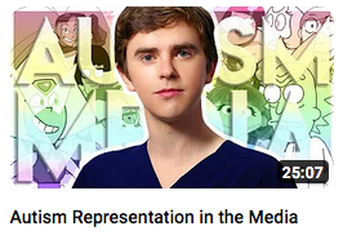
Aspergirl gives a Lecture about her Fixated Subject, Steven Universe. She refers to it as "Special Interest." During which she lists assorted famous Aspies.
She says being Autistic is not as much of a problem as the way people treat her for being different is.
She lists nine Autistic characters from TV shows, and another three thet are apparently Autistic but not canonized as such. Her favorites of course being from Steven Universe, specifically Peridot and Pearl. She uses them as analogies for her own symptoms, explained in detail.
She says it is typical of Autistic characters to be represented in TV shows as some sort of genius who is just misunderstood. She gives three examples of this stereotype (see my review of Alphas).
She suggests TV shows often present Autistic people as only having value if they have Savant skills that can benefit non-Autistic people and offsets their supposed societal burden.
I can compare this to how Retarded people are often represented as angels in disguise. It comes across as pitying the character rather than understanding them.
Here is her self-description:
April is Autism Acceptance Month, and as such I thought it was appropriate to make a video talking about Autism and the Autism Spectrum representation in the media.
In today's video we discuss basic Autism knowledge and terms, famous people on The Spectrum, canon Autistic characters as well as head-canons, and harmful media tropes and portrayals of those on The Spectrum.
This is a very well-done presentation.
And if you watch this, YouTube will recommend a dozen others. There is no way to keep up on them all, so I will just say, if you are looking for Autism support there is a glut of it. It is exhausting to wade through, and that is why I am here. To help you sort it out.
-------------------------------------------------------------------------------------------------------------------------------------------
She says being Autistic is not as much of a problem as the way people treat her for being different is.
She lists nine Autistic characters from TV shows, and another three thet are apparently Autistic but not canonized as such. Her favorites of course being from Steven Universe, specifically Peridot and Pearl. She uses them as analogies for her own symptoms, explained in detail.
She says it is typical of Autistic characters to be represented in TV shows as some sort of genius who is just misunderstood. She gives three examples of this stereotype (see my review of Alphas).
She suggests TV shows often present Autistic people as only having value if they have Savant skills that can benefit non-Autistic people and offsets their supposed societal burden.
I can compare this to how Retarded people are often represented as angels in disguise. It comes across as pitying the character rather than understanding them.
Here is her self-description:
April is Autism Acceptance Month, and as such I thought it was appropriate to make a video talking about Autism and the Autism Spectrum representation in the media.
In today's video we discuss basic Autism knowledge and terms, famous people on The Spectrum, canon Autistic characters as well as head-canons, and harmful media tropes and portrayals of those on The Spectrum.
This is a very well-done presentation.
And if you watch this, YouTube will recommend a dozen others. There is no way to keep up on them all, so I will just say, if you are looking for Autism support there is a glut of it. It is exhausting to wade through, and that is why I am here. To help you sort it out.
-------------------------------------------------------------------------------------------------------------------------------------------
Five adults describe what Autism is for them and how they deal with it. No mention of causes nor cures. Just adult explanations of adult symptoms. This provides an atmosphere of acceptance among Autistics. Neurotypicals are not mentioned.
If you already know what Autism is, there is nothing educational here. It is just emotionally encouraging to see how these adults managed to live their lives and be relatively successful in spite of having Autism.
Nothing special, but it is comforting.
-------------------------------------------------------------------------------------------------------------------------------
If you already know what Autism is, there is nothing educational here. It is just emotionally encouraging to see how these adults managed to live their lives and be relatively successful in spite of having Autism.
Nothing special, but it is comforting.
-------------------------------------------------------------------------------------------------------------------------------
This is the story of a non-verbal Autistic 11-year-old who thinks in numbers. He obsessively writes out endless streams of numbers thet make no sense to anyone but him. In this respect, he is very much like the child in the movie Mercury Rising combined with Max Cohen from the movie Pi (see my reviews).
His father is struggling to keep custody, because the utterly corrupt CPS are trying to steal his happy child from a secure environment with a loving parent.
Dad works as a baggage-handler in an Airport, wherein he takes home un-claimed cell phones from the lost-and-found for his kid to dismantle (Autistics being fascinated with parts of things).
This kid discovers the Fibonocci Sequence on his own, and becomes obsessed with connecting all these cell-phone numbers through it. Also, he becomes fixated on the number 318, which results in him guessing the winning lottery number and saving a school-bus full of kids from dying in a crash (the bus was number 318).
In the process we find he is psychic, and thus as a 6 Degrees of Separation practice, he connects random strangers from all over the world to each other, through their lost cell-phones. In each case, they were absolutely necessary for each others life-goals, while being total strangers from opposites sides of the globe.
The child demonstrates few believable Autism symptoms, other than touch-aversion and being non-verbal. But his Einstein-like Autistic feature (Einstein did not speak until he was 4, but could think in numbers better than anyone else), combined with psychic ability are, though not typical of most Autistics, something thet does exist on occasion (I am psychic and think in music. Georgiana Stehli is currently researching the psychic ability in Autistic children); i.e., though this is science-fiction, it is a story thet suggests we should honor neuro-diversity rather than try to make these kids "act normal" (see my review of Alphas as a reference-point).
Dad had previously given up (nearly a broken man in despair), and almost let CPS put his kid in an Institution, because he simply could not figure out how to communicate with his non-verbal child.
The story ends with Dad figuring out his child's math language, CPS parasite in tow, thus all ends well.
All the other characters who were connected through this child and his 6 Degrees of Seperation/Fibonacci Sequence all have happy endings too.
It had some un-original plotting, such as the child repeatedly escaping from his private school to go climb a cell-phone tower, to the great exasperation of rescuers and the whole neighborhood (see Arnie in What's Eating Gilbert Grape repeatedly climbing the radio tower), and he became fixated on the number 318 in the Fibonacci Sequence, resulting in him picking a winning lottery number (see Max Cohen become fixated on the number 216 in Pi, which resulted in him predicting stock values), but was otherwise at least interesting. It was also certainly well-intended, as it honored the special gifts of Autistics, suggesting it is our responsibility to figure them out rather than dummy them down to normalcy.
-------------------------------------------------------------------------------------------------------------------------------
His father is struggling to keep custody, because the utterly corrupt CPS are trying to steal his happy child from a secure environment with a loving parent.
Dad works as a baggage-handler in an Airport, wherein he takes home un-claimed cell phones from the lost-and-found for his kid to dismantle (Autistics being fascinated with parts of things).
This kid discovers the Fibonocci Sequence on his own, and becomes obsessed with connecting all these cell-phone numbers through it. Also, he becomes fixated on the number 318, which results in him guessing the winning lottery number and saving a school-bus full of kids from dying in a crash (the bus was number 318).
In the process we find he is psychic, and thus as a 6 Degrees of Separation practice, he connects random strangers from all over the world to each other, through their lost cell-phones. In each case, they were absolutely necessary for each others life-goals, while being total strangers from opposites sides of the globe.
The child demonstrates few believable Autism symptoms, other than touch-aversion and being non-verbal. But his Einstein-like Autistic feature (Einstein did not speak until he was 4, but could think in numbers better than anyone else), combined with psychic ability are, though not typical of most Autistics, something thet does exist on occasion (I am psychic and think in music. Georgiana Stehli is currently researching the psychic ability in Autistic children); i.e., though this is science-fiction, it is a story thet suggests we should honor neuro-diversity rather than try to make these kids "act normal" (see my review of Alphas as a reference-point).
Dad had previously given up (nearly a broken man in despair), and almost let CPS put his kid in an Institution, because he simply could not figure out how to communicate with his non-verbal child.
The story ends with Dad figuring out his child's math language, CPS parasite in tow, thus all ends well.
All the other characters who were connected through this child and his 6 Degrees of Seperation/Fibonacci Sequence all have happy endings too.
It had some un-original plotting, such as the child repeatedly escaping from his private school to go climb a cell-phone tower, to the great exasperation of rescuers and the whole neighborhood (see Arnie in What's Eating Gilbert Grape repeatedly climbing the radio tower), and he became fixated on the number 318 in the Fibonacci Sequence, resulting in him picking a winning lottery number (see Max Cohen become fixated on the number 216 in Pi, which resulted in him predicting stock values), but was otherwise at least interesting. It was also certainly well-intended, as it honored the special gifts of Autistics, suggesting it is our responsibility to figure them out rather than dummy them down to normalcy.
-------------------------------------------------------------------------------------------------------------------------------
Overlooking the annoyance of this movie being made in 1995 when we really did not know any better than to feed Autistic kids Phenol, Gluten, and Casein, this was otherwise a pretty good movie accurately presenting a true story about the use of Facilitated Communication Devices.
8-year-old non-verbal Autistic child Michael is over-protected by his mother. She keeps him helpless and dependent, just like Sally in David's Mother. She is a control-freak who cannot admit when she is wrong. Her husband leaves her, calling her a "martyr-mom".
Eventually they send Michael to a (really good) Institution where he can get help. Once there they start to teach him (apparently) Makaton Sign Language. He quickly learns 10 signs in a week. Mom is amazed, not realizing he was so smart.
Then Facilitated Communication is invented; i.e., holding the child tightly by the wrist so he can find it's location in relation to the rest of his body, they teach him how to type on a lap-top computer. Again Mom is amazed to realize thet Michael already knew how to read and write (she had never taught him this, for she sub-consciously wanted to keep him dependent).
Eventually his typing ability becomes good enough thet he reveals he is being molested by a worker at the Institution.
Everyone is horrified. Mom and the Facilitation teacher have a big fight over who should control this case. They eventually learn to co-operate for the sake of the child.
The case goes to court, and Michael is required to testify.
Facilitated Communication has never been in a court before, so the jury have no reference-point for it. But the accused turns out to be actually guilty, and is convicted as such.
Mom and the teacher are now a mutually-supportive team, who trust and respect each other, to the tremendous benefit of Michael.
Pros and Cons:
I did not like thet Mom was such an annoying character. She did reveal why she was like this though, saying she had been blamed (not by her husband, but by society in general) for causing Autism by eating wrong while pregnant, not getting enough exercise, and having bad genes. Then she was a bad mother for keeping him home, a bad mother for sending him to an Institution, a bad mother for interrupting therapy session (by visiting too often), a bad mother for not visiting often enough, etc. Then to top it all off, she is a bad mother for trusting the State to take care of him, resulting in him getting molested!, which too must somehow be her fault.
That was probably the best scene in the movie, wherein she revealed a combination of defiance and guilt, all combining to make her a raging control-freak (understandable under the circumstances).
Michael presented as a very unique case of Autism, in thet he was very affectionate and had no aversion to giving and receiving hugs, meanwhile needing someone to squeeze his wrist, without which he cannot find his own hand. Kids like that are usually averse, or at least indifferent, to hugs.
Dad left because of Mom's character flaws (he did not realize were manifestations of the anger she felt for being blamed for everything, no matter what she did right), not because he could not handle having a Special child.
The Institution was wonderful (considering this was 1995).
The prosecutor should have presented Michael with anatomically-correct dolls and have him physically demonstrate to the jury what was done to him, otherwise we simply had his word against the accused, with no actual evidence at all. The parents had never taught the child the concept of public and private parts, thus he never said the accused had touched his private parts, instead he just said the accused was "bad" because of "sex", with nothing to define what that meant; i.e., it was negligent of the parents to refrain from teaching the child what molestation and sexual abuse are - apparently because they did not know he could understand language, which was also negligent of them.
The jury believed him, apparently because he was "the perfect victim", not because there was any actual evidence.
It was not a very enjoyable movie, presenting nothing but all the negative aspects of having a Special Child (borderline-Munchausen Mom; Dad divorcing Mom; no one having a clue what to do about Autism; the State taking total control of the child once he is in the Institution - he is only allowed to go home on weekends, during which a State employee must stay with them 24 hours a day; etc.) But this was all true, and (unfortunately) what it is really like.
A very accurate warts-and-all presentation of a true-life case.
AKA Cries From the Heart.
-------------------------------------------------------------------------------------------------------------------------------
8-year-old non-verbal Autistic child Michael is over-protected by his mother. She keeps him helpless and dependent, just like Sally in David's Mother. She is a control-freak who cannot admit when she is wrong. Her husband leaves her, calling her a "martyr-mom".
Eventually they send Michael to a (really good) Institution where he can get help. Once there they start to teach him (apparently) Makaton Sign Language. He quickly learns 10 signs in a week. Mom is amazed, not realizing he was so smart.
Then Facilitated Communication is invented; i.e., holding the child tightly by the wrist so he can find it's location in relation to the rest of his body, they teach him how to type on a lap-top computer. Again Mom is amazed to realize thet Michael already knew how to read and write (she had never taught him this, for she sub-consciously wanted to keep him dependent).
Eventually his typing ability becomes good enough thet he reveals he is being molested by a worker at the Institution.
Everyone is horrified. Mom and the Facilitation teacher have a big fight over who should control this case. They eventually learn to co-operate for the sake of the child.
The case goes to court, and Michael is required to testify.
Facilitated Communication has never been in a court before, so the jury have no reference-point for it. But the accused turns out to be actually guilty, and is convicted as such.
Mom and the teacher are now a mutually-supportive team, who trust and respect each other, to the tremendous benefit of Michael.
Pros and Cons:
I did not like thet Mom was such an annoying character. She did reveal why she was like this though, saying she had been blamed (not by her husband, but by society in general) for causing Autism by eating wrong while pregnant, not getting enough exercise, and having bad genes. Then she was a bad mother for keeping him home, a bad mother for sending him to an Institution, a bad mother for interrupting therapy session (by visiting too often), a bad mother for not visiting often enough, etc. Then to top it all off, she is a bad mother for trusting the State to take care of him, resulting in him getting molested!, which too must somehow be her fault.
That was probably the best scene in the movie, wherein she revealed a combination of defiance and guilt, all combining to make her a raging control-freak (understandable under the circumstances).
Michael presented as a very unique case of Autism, in thet he was very affectionate and had no aversion to giving and receiving hugs, meanwhile needing someone to squeeze his wrist, without which he cannot find his own hand. Kids like that are usually averse, or at least indifferent, to hugs.
Dad left because of Mom's character flaws (he did not realize were manifestations of the anger she felt for being blamed for everything, no matter what she did right), not because he could not handle having a Special child.
The Institution was wonderful (considering this was 1995).
The prosecutor should have presented Michael with anatomically-correct dolls and have him physically demonstrate to the jury what was done to him, otherwise we simply had his word against the accused, with no actual evidence at all. The parents had never taught the child the concept of public and private parts, thus he never said the accused had touched his private parts, instead he just said the accused was "bad" because of "sex", with nothing to define what that meant; i.e., it was negligent of the parents to refrain from teaching the child what molestation and sexual abuse are - apparently because they did not know he could understand language, which was also negligent of them.
The jury believed him, apparently because he was "the perfect victim", not because there was any actual evidence.
It was not a very enjoyable movie, presenting nothing but all the negative aspects of having a Special Child (borderline-Munchausen Mom; Dad divorcing Mom; no one having a clue what to do about Autism; the State taking total control of the child once he is in the Institution - he is only allowed to go home on weekends, during which a State employee must stay with them 24 hours a day; etc.) But this was all true, and (unfortunately) what it is really like.
A very accurate warts-and-all presentation of a true-life case.
AKA Cries From the Heart.
-------------------------------------------------------------------------------------------------------------------------------
This documentary is about the Chemical Industry and how utterly corrupt and criminally negligent it is. A chemical factory blew up in Bhopal India, killing 3,787 people. [A government affidavit in 2006 stated the leak caused 558,125 injuries including 38,478 temporary partial injuries and approximately 3,900 severely and permanently disabling injuries. - Wikipedia]. That factory now has a twin in West Virginia USA, twice the size. The amount of toxicity thet radiates from that plant is identical to the fumes thet were present before the accident in Bhopal.
The children of the Indian victims came to the USA as political activists to warn the American people thet another Bhopal disaster may be imminent in West Virginia.
We see massive cancer rates, 2-headed cats, and emphysema in people who never smoked cigarettes.
Another chemical company had to replace it's pipes due to them being too radioactive. So they casually sold them to the general public, resulting in several more cancer and radiation disasters for those who bought those pipes to make playground equipment and boat trailers with. This type of crap goes on every day, and the State of West Virginia is totally corrupted (read: bought and paid for by the Chemical giants - DuPont specifically). Today, West Virginia is on the list of the 50 most polluted places on Earth!
The coal and oil industries are just as bad, leaving massive extremely toxic wastelands in their wake, and absolute intentional corruption at every level in the puppet Government who turns a blind eye (all the way to the bank).
Bill Clinton is interviewed and states thet he does not believe the chemicals in vaccines cause Autism, but it is the chemicals in the food it's self, which is even scarier!
C8 is the chemical most mentioned in this documentary, which is horrifically deadly and lasts forever. It is mass produced by DuPont, and is present in Teflon; if you cook with a Teflon-coated pan it puts C8 into your food.
So this film only briefly mentions Autism, but it does talk a lot about the bizarre cancers and horrific malformities in the area (2-headed cats and people getting tongue cancer from drinking the water).
Our canary-in-a-coal-mine kids are being poisoned in depraved indifference, and no one with the authority to stop it gives a damn. When are we going to wake up and have a Revolution?
-----------------------------------------------------------------------------------------------------------------
The children of the Indian victims came to the USA as political activists to warn the American people thet another Bhopal disaster may be imminent in West Virginia.
We see massive cancer rates, 2-headed cats, and emphysema in people who never smoked cigarettes.
Another chemical company had to replace it's pipes due to them being too radioactive. So they casually sold them to the general public, resulting in several more cancer and radiation disasters for those who bought those pipes to make playground equipment and boat trailers with. This type of crap goes on every day, and the State of West Virginia is totally corrupted (read: bought and paid for by the Chemical giants - DuPont specifically). Today, West Virginia is on the list of the 50 most polluted places on Earth!
The coal and oil industries are just as bad, leaving massive extremely toxic wastelands in their wake, and absolute intentional corruption at every level in the puppet Government who turns a blind eye (all the way to the bank).
Bill Clinton is interviewed and states thet he does not believe the chemicals in vaccines cause Autism, but it is the chemicals in the food it's self, which is even scarier!
C8 is the chemical most mentioned in this documentary, which is horrifically deadly and lasts forever. It is mass produced by DuPont, and is present in Teflon; if you cook with a Teflon-coated pan it puts C8 into your food.
So this film only briefly mentions Autism, but it does talk a lot about the bizarre cancers and horrific malformities in the area (2-headed cats and people getting tongue cancer from drinking the water).
Our canary-in-a-coal-mine kids are being poisoned in depraved indifference, and no one with the authority to stop it gives a damn. When are we going to wake up and have a Revolution?
-----------------------------------------------------------------------------------------------------------------
"Train Man" is an intentional play on the term Rain Man.
Densha, a 22-year-old computer geek, has never had a girlfriend nor any friends at all. He can type at lightning speed, has a lush vocabulary, is a computer expert, but is practically incapacitated by his gaze-aversion, physical awkwardness, and tremendous social anxiety. He is fixated on collecting Anime. He lectures about sci-fi movies, but is incapable of carrying on a conversation, other than in chat-rooms.
On the subway a drunken businessman is belligerent and hostile toward everyone, so Densha (as a Cowardly Lion) steps up and makes the man stop harassing a fellow commuter. The police are called, and the drunk is hauled off.
They ask Densha and 3 women passengers to come to the station to make a statement. After they are finished at the station, all 3 women giddily ask for his mailing address, for in Japanese culture it is traditional to send a small thank-you-gift to anyone who helps you.
He is attracted to one of the women specifically, and so after her gift arrives he calls her and thanks her for the gift. He literally nearly dies of anxiety just talking to her on the phone.
This is apparently the first time he has even spoken to a woman, and so he visits a chat-room and asks his fellow geeks how to talk to women. All of them are hopeless nerds who know Anime figurines are as close to a real girl as they will ever get, so they all enthusiastically give him their (all contradicting each other) nerd advice. One of them says thet him being thanked by a woman made his value as a man go up 0.01%, a true feat for such nerds.
With tremendous anxiety he does as they say and asks her to dinner.
She is a successful business exec, and he is a hopeless Anime-collecting geek. But with the continual coaxing and advice from his chat-room pals (he has never met), he manages to at least refrain from throwing up on himself out of petrifying anxiety.
As the story unfolds, his Aspergian inability to determine the relative difference in value between things is noticed by the woman, who finds it charming thet (in his obsessive need to arrange everything into symmetric grids and patterns) he is so generous and helpful. She is continually impressed by his generous nature, and thus, even though she says outright thet they are not a good match, they end up falling in love.
By living vicariously through him, his hilariously-geeky chat-room nerd-pals gain the confidence to try to get dates themselves.
He has no apparent Sensory Processing Disorders (other than his obviously bad sense of balance), nor Stims (other than frantic lecturing, and wringing his hands), but his fixated subjects, physical awkwardness, and extreme social anxiety strongly suggests a bad case of AS - as is possibly the case with the 5 boy and 2 girl nerds who advise him.
A sweet and funny movie. It is also very sad (nearly a tear-jerker) to watch him so pathetically try to connect with someone.
Second viewing:
Referred to as "A true love story" this is apparently the Autobiography of an Aspie.
At work, programming computers, his co-worker needs assistance. Densha steps up to save the day, demonstrating what a computer genius he is. During this the co-workers says to another co-worker thet he needs to invite another man to his party so there will be an even ratio of men-to-women. While Densha is fixing the guy's computer, the co-worker never imagines inviting him.
On the way home from work, samples of men's cosmetics are being handed out to random pedestrian, and they do not bother giving Densha 1, in their overt social dismissal.
Going out with the woman, he is overwhelmed in crowds, and repeatedly fails to stay in sync with her as they are walking down the busy sidewalk, oblivious he has (repeatedly) lost her in the crowd.
Getting to know her, he asks such Aspergian questions as: "How many square meters is your home?"
The slightest noise makes him continually lose focus, Attention Deficit-ing badly.
She hints flagrantly thet she is seeking a new restaurant companion, but he totally misses it.
They eventually become dinner-mates. She mentions to him thet she had hinted thet she wanted him to be her restaurant partner, and he looks like a deer in headlights and says "Huh?" He was truly totally clueless to her open invitations.
Later he meets her other dining companion, who is a very upper class lady. The 3 of them go to a fancy restaurant, but he does not know the proper etiquette for eating lobster, so the lady refers to him as "spacey". He does not understand what she means by this.
In nearly every scene he is totally dependent on his smart-phone, glancing at it every 5 seconds for updates from his nerd coaches, and more importantly referring to it for his typed-out lists without which he has no short-term memory ability.
As he starts to feel more comfortable around her, he launches into Aspergian lectures about Anime. She finds this quirk very entertaining.
They decide to rent a movie and watch it at her place. This is the first time he is physically sharing anything about himself with her. He is so excited by this, thet in his eagerness he reveals his Guardian Personality, he grabs her by the wrist and yanks her running across the street, for the traffic signal had changed midway across. His impulsive protector behavior impresses her, and so she actually holds his hand. Only then does he realize thet he had touched her at all, surprised by his own impulsive actions.
At her house she says she does not have a boyfriend.
He tells her thet he is interested in being her boyfriend, and she says she enjoys his company, but only as friends. So he puts forth tremendous effort to impress her, only to be held at a distance.
She tells him she must travel for business for the next week, but he can help her shop for a computer when she gets back, then she walks away. He is crushed by her apparent dismissiveness.
His chat-room buddies are all bewildered too, as they have no further advice to give.
Densha realizes thet he no longer needs them, for he has gained enough confidence to do for her what only he can do himself - actually help her shop for a computer, considering he is an expert on the subject.
He goes to the computer store and gets fliers for every computer made. Then he does research and writes out the pros and cons of every computer, with mind-boggling detail.
When she returns, he present her with this encyclopedia of information. He also realizes how pathetically desperate he is to impress her, and thet class status-wise they are totally different and probably have no chance of maintaining anything more than a dining-pals relationship. She says thet if it is too difficult for him to be around her, then maybe they should not see each other any more.
He accepts thet his desire to connect with her is hopeless to pursue, and runs away crying.
He tells the chat-room the news. They are all as stunned as he is. But after a moment they become angry with him for giving up so easily. Then a total of 692 other passive observers of this chat-room join in and rally him to go get her back.
He is astonished thet there are so many hopeless nerds like him out there living vicariously through him, and so, partly for their benefit, he gets his second wind.
During this, the woman reads his computer encyclopedia. Recognizing the astounding amount of effort it took to make it, she is nearly brought to tears.
He frantically runs to her house to declare his love for her, during which is revealed how very physically awkward he is, repeatedly falling flat on his face when trying to run. He falls so many times, he becomes beaten down emotionally. Recognizing thet he has worked himself into a panic-attack along the way, he eventually stops and cries again. Then he rips off his fancy clothes he had bought only to impress her, takes out his contact lenses he had bought only to impress her, and replaces them with his comforting nerd-glasses. He tells her how pathetic he knows himself to be, and thet he loves her. She is again very impressed with his honesty, Japanese men's behavior so heavily based on ritualized politeness, him crying in naked honesty to her again nearly brings her to tears. His willingness to allow himself to be that vulnerable impresses her greatly. She says she loves him too.
Then she explains why: At the police station she recognized he was very afraid and filled with anxiety, but overcame it for her sake. He was always very gentle in his manner, and very protective of her. She also recognized thet the very small but thoughtful things he continually did, as expressions of his obsessiveness, felt like gifts for her; i.e. he put tremendous effort into the tiniest details. "You turned nothing into something, and turned trivial things into wonderful memories. When I am with you, everything became important."
He tells the chat-room how everything turned out 10 times better than he imagined it even could. All of them cheer.
Seeing his light at the end of the tunnel, his 7 coaches all change their lives.
This was a very good presentation of how the Asperger intensity scares away potential mates (7 times I have fallen in love, but I have never had a girlfriend), and the Pragmatic Language Disorder style of spilling your guts and crying to people, rather than hinting with your eyes while blithering on in small-talk like the Normals do.
This charming story demonstrates why I thought Mozart and the Whale was such a horrid movie.
This was as good as My Name is Kahn at demonstrating an Asperger love story.
It was funny, it was sad, it was sweet.
-------------------------------------------------------------------------------------------------------------------------------
Densha, a 22-year-old computer geek, has never had a girlfriend nor any friends at all. He can type at lightning speed, has a lush vocabulary, is a computer expert, but is practically incapacitated by his gaze-aversion, physical awkwardness, and tremendous social anxiety. He is fixated on collecting Anime. He lectures about sci-fi movies, but is incapable of carrying on a conversation, other than in chat-rooms.
On the subway a drunken businessman is belligerent and hostile toward everyone, so Densha (as a Cowardly Lion) steps up and makes the man stop harassing a fellow commuter. The police are called, and the drunk is hauled off.
They ask Densha and 3 women passengers to come to the station to make a statement. After they are finished at the station, all 3 women giddily ask for his mailing address, for in Japanese culture it is traditional to send a small thank-you-gift to anyone who helps you.
He is attracted to one of the women specifically, and so after her gift arrives he calls her and thanks her for the gift. He literally nearly dies of anxiety just talking to her on the phone.
This is apparently the first time he has even spoken to a woman, and so he visits a chat-room and asks his fellow geeks how to talk to women. All of them are hopeless nerds who know Anime figurines are as close to a real girl as they will ever get, so they all enthusiastically give him their (all contradicting each other) nerd advice. One of them says thet him being thanked by a woman made his value as a man go up 0.01%, a true feat for such nerds.
With tremendous anxiety he does as they say and asks her to dinner.
She is a successful business exec, and he is a hopeless Anime-collecting geek. But with the continual coaxing and advice from his chat-room pals (he has never met), he manages to at least refrain from throwing up on himself out of petrifying anxiety.
As the story unfolds, his Aspergian inability to determine the relative difference in value between things is noticed by the woman, who finds it charming thet (in his obsessive need to arrange everything into symmetric grids and patterns) he is so generous and helpful. She is continually impressed by his generous nature, and thus, even though she says outright thet they are not a good match, they end up falling in love.
By living vicariously through him, his hilariously-geeky chat-room nerd-pals gain the confidence to try to get dates themselves.
He has no apparent Sensory Processing Disorders (other than his obviously bad sense of balance), nor Stims (other than frantic lecturing, and wringing his hands), but his fixated subjects, physical awkwardness, and extreme social anxiety strongly suggests a bad case of AS - as is possibly the case with the 5 boy and 2 girl nerds who advise him.
A sweet and funny movie. It is also very sad (nearly a tear-jerker) to watch him so pathetically try to connect with someone.
Second viewing:
Referred to as "A true love story" this is apparently the Autobiography of an Aspie.
At work, programming computers, his co-worker needs assistance. Densha steps up to save the day, demonstrating what a computer genius he is. During this the co-workers says to another co-worker thet he needs to invite another man to his party so there will be an even ratio of men-to-women. While Densha is fixing the guy's computer, the co-worker never imagines inviting him.
On the way home from work, samples of men's cosmetics are being handed out to random pedestrian, and they do not bother giving Densha 1, in their overt social dismissal.
Going out with the woman, he is overwhelmed in crowds, and repeatedly fails to stay in sync with her as they are walking down the busy sidewalk, oblivious he has (repeatedly) lost her in the crowd.
Getting to know her, he asks such Aspergian questions as: "How many square meters is your home?"
The slightest noise makes him continually lose focus, Attention Deficit-ing badly.
She hints flagrantly thet she is seeking a new restaurant companion, but he totally misses it.
They eventually become dinner-mates. She mentions to him thet she had hinted thet she wanted him to be her restaurant partner, and he looks like a deer in headlights and says "Huh?" He was truly totally clueless to her open invitations.
Later he meets her other dining companion, who is a very upper class lady. The 3 of them go to a fancy restaurant, but he does not know the proper etiquette for eating lobster, so the lady refers to him as "spacey". He does not understand what she means by this.
In nearly every scene he is totally dependent on his smart-phone, glancing at it every 5 seconds for updates from his nerd coaches, and more importantly referring to it for his typed-out lists without which he has no short-term memory ability.
As he starts to feel more comfortable around her, he launches into Aspergian lectures about Anime. She finds this quirk very entertaining.
They decide to rent a movie and watch it at her place. This is the first time he is physically sharing anything about himself with her. He is so excited by this, thet in his eagerness he reveals his Guardian Personality, he grabs her by the wrist and yanks her running across the street, for the traffic signal had changed midway across. His impulsive protector behavior impresses her, and so she actually holds his hand. Only then does he realize thet he had touched her at all, surprised by his own impulsive actions.
At her house she says she does not have a boyfriend.
He tells her thet he is interested in being her boyfriend, and she says she enjoys his company, but only as friends. So he puts forth tremendous effort to impress her, only to be held at a distance.
She tells him she must travel for business for the next week, but he can help her shop for a computer when she gets back, then she walks away. He is crushed by her apparent dismissiveness.
His chat-room buddies are all bewildered too, as they have no further advice to give.
Densha realizes thet he no longer needs them, for he has gained enough confidence to do for her what only he can do himself - actually help her shop for a computer, considering he is an expert on the subject.
He goes to the computer store and gets fliers for every computer made. Then he does research and writes out the pros and cons of every computer, with mind-boggling detail.
When she returns, he present her with this encyclopedia of information. He also realizes how pathetically desperate he is to impress her, and thet class status-wise they are totally different and probably have no chance of maintaining anything more than a dining-pals relationship. She says thet if it is too difficult for him to be around her, then maybe they should not see each other any more.
He accepts thet his desire to connect with her is hopeless to pursue, and runs away crying.
He tells the chat-room the news. They are all as stunned as he is. But after a moment they become angry with him for giving up so easily. Then a total of 692 other passive observers of this chat-room join in and rally him to go get her back.
He is astonished thet there are so many hopeless nerds like him out there living vicariously through him, and so, partly for their benefit, he gets his second wind.
During this, the woman reads his computer encyclopedia. Recognizing the astounding amount of effort it took to make it, she is nearly brought to tears.
He frantically runs to her house to declare his love for her, during which is revealed how very physically awkward he is, repeatedly falling flat on his face when trying to run. He falls so many times, he becomes beaten down emotionally. Recognizing thet he has worked himself into a panic-attack along the way, he eventually stops and cries again. Then he rips off his fancy clothes he had bought only to impress her, takes out his contact lenses he had bought only to impress her, and replaces them with his comforting nerd-glasses. He tells her how pathetic he knows himself to be, and thet he loves her. She is again very impressed with his honesty, Japanese men's behavior so heavily based on ritualized politeness, him crying in naked honesty to her again nearly brings her to tears. His willingness to allow himself to be that vulnerable impresses her greatly. She says she loves him too.
Then she explains why: At the police station she recognized he was very afraid and filled with anxiety, but overcame it for her sake. He was always very gentle in his manner, and very protective of her. She also recognized thet the very small but thoughtful things he continually did, as expressions of his obsessiveness, felt like gifts for her; i.e. he put tremendous effort into the tiniest details. "You turned nothing into something, and turned trivial things into wonderful memories. When I am with you, everything became important."
He tells the chat-room how everything turned out 10 times better than he imagined it even could. All of them cheer.
Seeing his light at the end of the tunnel, his 7 coaches all change their lives.
This was a very good presentation of how the Asperger intensity scares away potential mates (7 times I have fallen in love, but I have never had a girlfriend), and the Pragmatic Language Disorder style of spilling your guts and crying to people, rather than hinting with your eyes while blithering on in small-talk like the Normals do.
This charming story demonstrates why I thought Mozart and the Whale was such a horrid movie.
This was as good as My Name is Kahn at demonstrating an Asperger love story.
It was funny, it was sad, it was sweet.
-------------------------------------------------------------------------------------------------------------------------------
The blurb says: Martine and John are middle-aged underdogs with Asperger's Syndrome. Both dream of marriage, but John refuses to go further until transsexual Martine has a vagina.
Oh dear Gawd. I dread the thought of watching this faggot shit.
Martine collects televisions. He says a lot of Aspergers are collectors. This is not true. Aspies may have Fixated Subjects thet manifest as collecting specific things, but there is a difference between collecting televisions and being fixated on them.
John has Aspergers and Tourettes. He also has an older Brother who is also Autistic.
John had been sent to Military boarding school as an apparent “treatment” for his Aspergers, which resulted in him being now more focused on his failings rather than his successes.
This couple live in Canada and expect to get married as soon has Martine has a “vagina.”
But Canada’s socialized medicine will not use tax-payer’s money to pay for mentally ill perverts to cut their own genitals off. So Martine becomes a political activist and fights for 8 years to get the government to change it’s policy.
Eventually they win.
Martine goes to see Dr Mengele, and reveals his weight to be 290 pounds, at 6 feet tall.
His doctor says flat No, he will not do surgery on someone who is in this bad of shape physically. He says Martine must lose a lot of weight before it will be safe to do the surgery.
Martine has a list of general rules posted on the fridge door about how to eat, with no advice on what to eat. These two never mention the GF/CF Diet nor the Blood Type Diet, both of which are mandatory for Autistics.
Then we see them both eating massive amounts of junk food, while moaning about their collective inability to actually lose weight. At this point I do not give a shit.
John and Martine search the Internet for a new Frankenstein Mengele who will do the surgery with no regard for the patient’s health.
They find one such potential monster in Philadelphia USA who is willing to at least meet with him for a consultation.
The doctor says “You are at risk for a lot of problems because your weight is related to your Diabetes and High Blood Pressure.” He goes on to waggle a finger and almost yell at Martine thet with his health problems there is no excuse for not losing weight. He tells him thet at the rate he is going he will get a heart-attack and a stroke and start losing toes.
Martine continues to whine and list all the excuses why he cannot lose weight. Finally the Doctor says “I will do the surgery if you lose the weight.”
I get the impression he says this more out of concern over the Diabetes and High Blood Pressure than for the complications of the surgery it’s self; i.e., he is blackmailing his patient into getting healthy. He is clearly upset with Martine.
Next scene, Martine says he expects to be healthy enough to get the surgery by next June. He says this while eating fast-food fried chicken and French fries.
While Martine is in Philadelphia, John’s 24 year-old cat dies. John nearly falls apart.
Martine collects rare televisions, but has also been collecting car license plates since the age of 3. Whether these are Fixated Subjects or not are never mentioned.
Criminally negligent Dr Frankenstein Mengele agrees to do the surgery though Martine is still about 100 pounds over-weight.
Doc makes Martine state on tape thet he understands the risks, considering the Diabetes, Obesity, Hyper-tension, and High Blood Pressure.
I consider this an assisted suicide.
Complications ensue, but Martine eventually heals.
John and Martine get married.
The State gives Martine a Human Rights Award.
Their wedding is “Christian.” John says thet since he is Jewish he thinks the government owes him a Jewish wedding. They have 1.
Everyone seems happy to see them have 2 weddings under 2 different religious (hypocrit) denominations, but the fact John thinks he is owed all of this really disgusts me. The government owes them the surgery for free, and then owes them 2 weddings for free. This childish “we are owed (for some reason)” attitude makes me care even less about these pathetic people.
About 4 years ago I saw a documentary on Sexual Reassignment Surgery. After it was finished I sat there with a blank facial expression for 15 minutes. I could not form an opinion. As stated above, I think these people are mentally ill perverts, and any doctor who would do this is a monster. But I still do not care. I have no actual emotional reaction to any of it. I just do not care.
So this was completely pointless as an Autism documentary, but relatively well-presented as a Transexual documentary (if anyone gives a shit).
Also see my review of How Is This a Thing?
-------------------------------------------------------------------------------------------------------------------------------
Oh dear Gawd. I dread the thought of watching this faggot shit.
Martine collects televisions. He says a lot of Aspergers are collectors. This is not true. Aspies may have Fixated Subjects thet manifest as collecting specific things, but there is a difference between collecting televisions and being fixated on them.
John has Aspergers and Tourettes. He also has an older Brother who is also Autistic.
John had been sent to Military boarding school as an apparent “treatment” for his Aspergers, which resulted in him being now more focused on his failings rather than his successes.
This couple live in Canada and expect to get married as soon has Martine has a “vagina.”
But Canada’s socialized medicine will not use tax-payer’s money to pay for mentally ill perverts to cut their own genitals off. So Martine becomes a political activist and fights for 8 years to get the government to change it’s policy.
Eventually they win.
Martine goes to see Dr Mengele, and reveals his weight to be 290 pounds, at 6 feet tall.
His doctor says flat No, he will not do surgery on someone who is in this bad of shape physically. He says Martine must lose a lot of weight before it will be safe to do the surgery.
Martine has a list of general rules posted on the fridge door about how to eat, with no advice on what to eat. These two never mention the GF/CF Diet nor the Blood Type Diet, both of which are mandatory for Autistics.
Then we see them both eating massive amounts of junk food, while moaning about their collective inability to actually lose weight. At this point I do not give a shit.
John and Martine search the Internet for a new Frankenstein Mengele who will do the surgery with no regard for the patient’s health.
They find one such potential monster in Philadelphia USA who is willing to at least meet with him for a consultation.
The doctor says “You are at risk for a lot of problems because your weight is related to your Diabetes and High Blood Pressure.” He goes on to waggle a finger and almost yell at Martine thet with his health problems there is no excuse for not losing weight. He tells him thet at the rate he is going he will get a heart-attack and a stroke and start losing toes.
Martine continues to whine and list all the excuses why he cannot lose weight. Finally the Doctor says “I will do the surgery if you lose the weight.”
I get the impression he says this more out of concern over the Diabetes and High Blood Pressure than for the complications of the surgery it’s self; i.e., he is blackmailing his patient into getting healthy. He is clearly upset with Martine.
Next scene, Martine says he expects to be healthy enough to get the surgery by next June. He says this while eating fast-food fried chicken and French fries.
While Martine is in Philadelphia, John’s 24 year-old cat dies. John nearly falls apart.
Martine collects rare televisions, but has also been collecting car license plates since the age of 3. Whether these are Fixated Subjects or not are never mentioned.
Criminally negligent Dr Frankenstein Mengele agrees to do the surgery though Martine is still about 100 pounds over-weight.
Doc makes Martine state on tape thet he understands the risks, considering the Diabetes, Obesity, Hyper-tension, and High Blood Pressure.
I consider this an assisted suicide.
Complications ensue, but Martine eventually heals.
John and Martine get married.
The State gives Martine a Human Rights Award.
Their wedding is “Christian.” John says thet since he is Jewish he thinks the government owes him a Jewish wedding. They have 1.
Everyone seems happy to see them have 2 weddings under 2 different religious (hypocrit) denominations, but the fact John thinks he is owed all of this really disgusts me. The government owes them the surgery for free, and then owes them 2 weddings for free. This childish “we are owed (for some reason)” attitude makes me care even less about these pathetic people.
About 4 years ago I saw a documentary on Sexual Reassignment Surgery. After it was finished I sat there with a blank facial expression for 15 minutes. I could not form an opinion. As stated above, I think these people are mentally ill perverts, and any doctor who would do this is a monster. But I still do not care. I have no actual emotional reaction to any of it. I just do not care.
So this was completely pointless as an Autism documentary, but relatively well-presented as a Transexual documentary (if anyone gives a shit).
Also see my review of How Is This a Thing?
-------------------------------------------------------------------------------------------------------------------------------
There are 4 movies called Triangle. This is the 1 made in 2009 with Director Christopher Smith, wherein Triangle is the name of a sailboat.
It is about a single mom, Jess, with an Autistic son, Tommy. Tommy is about 7 years old. He is only on screen for about 60 seconds total, so we never clearly see his symptoms (he is apparently in a perpetual state of shock; we do not find out why until the end), thus this is not necessarily an "Autism Movie."
Mom (stumbling onto the docks in nearly a catatonic state) goes sailing with some friends.
One of them mentions thet she has an Autistic child, and the other says she does not care if Jess' kid is Retarded. No one corrects the assumption thet Autism means Retarded.
Jess says, "Tommy likes things to be a certain way. If I do 1 thing differently, I lose him."
They get hit by a sudden freak (and I do mean freak) storm which capsizes their boat. All of them are okay.
They get picked up by an ocean liner/cruise-ship with no lifeboats. The ship is totally vacant.
In 1 of the cabins they find written in blood on a mirror, "Go to the theater."
They go to the theater wherein all of them but Jess get shot dead by a masked sniper.
Jess and the sniper have an ax-fight, and at the last moment the sniper tells Jess (in Jess' voice) thet the only way to get home is to kill them all. Jess hits the sniper and she (the sniper) falls overboard.
Then Jess goes to the rail and sees her own capsized boat, crew, and self about to board the ship again. This is a time-loop, repeating at such a fast pace thet at any given time there are 3 Jess's watching each other re-live the scene they just lived a few minutes earlier - all inevitably leading up to her realization thet she must kill them all, including all her selves, so she is the only one remaining on the ghost-ship, so she alone can stop them from boarding it next time the time-loop starts.
The story is something like Groundhog Day mixed with The Shining and Breaking Point. Jess has to live this horrible day, with herself ending up the sniper who kills them all, over and over until she gets it right.
By the end of the movie we see thet she hates her Special child, and is thus abusive to him - she slaps his face and screams at him (apparently because he is a Retard who ruined her life by being born). She has to re-live this day several times (complete with blood-bath on the ghost-ship) until she learns to recognize thet she (and her bitter resentment and hostility) is the problem, not her Special (innocent) child.
The fallen over-board sniper ends up washing to shore. She makes it home, looks in her own window to see her abusive self slapping and screaming. She goes to the shed, gets a sledge hammer, and viciously beats her abusive self to death.
She stuffs the dead self in the trunk of her car, takes her perpetual-state-of-shock-child (who just witnessed this horror) and drives out of town sobbing. She tells Tommy thet that dead woman was not his mother, and thet she is now his new mom who will be a good mom and never lose her temper again. I will believe it when I see it.
Still sobbing, she gets in a car-crash. Her child is killed and her abusive dead self is thrown from the trunk of the car. Jess is also thrown from the car and walks away in a state of shock. She stumbles down to the docks and goes sailing with her friends.
The Beginning!
This was a very interesting and unique story, but the Autistic was not presented very clearly, due to him simply being on screen so little (literally 60 seconds in the entire movie), so I would not call this an Autism Movie. His behavior was apparently more the symptoms of abuse and shock, rather than Autism (Bettelheim suggesting the Refrigerator Mother caused the Autism).
-------------------------------------------------------------------------------------------------------------------------------
It is about a single mom, Jess, with an Autistic son, Tommy. Tommy is about 7 years old. He is only on screen for about 60 seconds total, so we never clearly see his symptoms (he is apparently in a perpetual state of shock; we do not find out why until the end), thus this is not necessarily an "Autism Movie."
Mom (stumbling onto the docks in nearly a catatonic state) goes sailing with some friends.
One of them mentions thet she has an Autistic child, and the other says she does not care if Jess' kid is Retarded. No one corrects the assumption thet Autism means Retarded.
Jess says, "Tommy likes things to be a certain way. If I do 1 thing differently, I lose him."
They get hit by a sudden freak (and I do mean freak) storm which capsizes their boat. All of them are okay.
They get picked up by an ocean liner/cruise-ship with no lifeboats. The ship is totally vacant.
In 1 of the cabins they find written in blood on a mirror, "Go to the theater."
They go to the theater wherein all of them but Jess get shot dead by a masked sniper.
Jess and the sniper have an ax-fight, and at the last moment the sniper tells Jess (in Jess' voice) thet the only way to get home is to kill them all. Jess hits the sniper and she (the sniper) falls overboard.
Then Jess goes to the rail and sees her own capsized boat, crew, and self about to board the ship again. This is a time-loop, repeating at such a fast pace thet at any given time there are 3 Jess's watching each other re-live the scene they just lived a few minutes earlier - all inevitably leading up to her realization thet she must kill them all, including all her selves, so she is the only one remaining on the ghost-ship, so she alone can stop them from boarding it next time the time-loop starts.
The story is something like Groundhog Day mixed with The Shining and Breaking Point. Jess has to live this horrible day, with herself ending up the sniper who kills them all, over and over until she gets it right.
By the end of the movie we see thet she hates her Special child, and is thus abusive to him - she slaps his face and screams at him (apparently because he is a Retard who ruined her life by being born). She has to re-live this day several times (complete with blood-bath on the ghost-ship) until she learns to recognize thet she (and her bitter resentment and hostility) is the problem, not her Special (innocent) child.
The fallen over-board sniper ends up washing to shore. She makes it home, looks in her own window to see her abusive self slapping and screaming. She goes to the shed, gets a sledge hammer, and viciously beats her abusive self to death.
She stuffs the dead self in the trunk of her car, takes her perpetual-state-of-shock-child (who just witnessed this horror) and drives out of town sobbing. She tells Tommy thet that dead woman was not his mother, and thet she is now his new mom who will be a good mom and never lose her temper again. I will believe it when I see it.
Still sobbing, she gets in a car-crash. Her child is killed and her abusive dead self is thrown from the trunk of the car. Jess is also thrown from the car and walks away in a state of shock. She stumbles down to the docks and goes sailing with her friends.
The Beginning!
This was a very interesting and unique story, but the Autistic was not presented very clearly, due to him simply being on screen so little (literally 60 seconds in the entire movie), so I would not call this an Autism Movie. His behavior was apparently more the symptoms of abuse and shock, rather than Autism (Bettelheim suggesting the Refrigerator Mother caused the Autism).
-------------------------------------------------------------------------------------------------------------------------------
This German documentary presents us with several cases of permanent damage done to women who took contraceptive pills, and how the pharmaceutical company who produced it continue to flat-out lie to cover their own ass. The conclusion is thet they make more money selling their drugs than it costs them to pay out in damages, so they just pay the damages and keep producing the drug.
The Flu shot is another outright scam, wherein 30 to 100 people must be vaccinated before it prevents Flu in one of those people.
An Anti-coagulant, designed to prevent blood clots, causes uncontrollable bleeding in some patients. Doctors are alarmed thet there is no antidote for these drugs.
Next they send a patient to five different doctors who specialize in vitamin therapy. Each of them came to drastically different diagnosis, and prescribed drastically different mega-doses of vitamins. Then it was proved thet four out of five of these doctors shared in as much as 25% of the profits from the sales of those vitamins they prescribed.
Then we are shown how anti-depressants actually cause an increase in suicides.
When these drugs are reviewed by the doctors who prescribe them, these reports are sent to the manufacturers who intentionally edit out any negative comments.
This documentary very abruptly ends there, but I suppose the point was made: Big Pharma are utterly corrupt, know it, and do not give a damn.
Here is the producers' own description:
Tricks of the Pharma Industry.
They dominate medical research, conceal negative trial results, and sell us outrageously expensive medicines, about the ineffectiveness and risks of which they have long been aware. And in the process the managers in the pharmaceutical industry generate the highest profits of any sector. Now women are filing complaints. They took the contraceptive pill, Yasmin, because it was pitched to them as an innovative product that would also help to alleviate skin conditions. Now these young women are stroke patients. "Bought" guidelines. Critical doctors point out that there are dozens of conflicts of interest on the committees of experts that draw up the "treatment guidelines." And insiders divulge how the industry manipulates articles ostensibly written by professors by using ghost writers.
-------------------------------------------------------------------------------------------------------------------------------
The Flu shot is another outright scam, wherein 30 to 100 people must be vaccinated before it prevents Flu in one of those people.
An Anti-coagulant, designed to prevent blood clots, causes uncontrollable bleeding in some patients. Doctors are alarmed thet there is no antidote for these drugs.
Next they send a patient to five different doctors who specialize in vitamin therapy. Each of them came to drastically different diagnosis, and prescribed drastically different mega-doses of vitamins. Then it was proved thet four out of five of these doctors shared in as much as 25% of the profits from the sales of those vitamins they prescribed.
Then we are shown how anti-depressants actually cause an increase in suicides.
When these drugs are reviewed by the doctors who prescribe them, these reports are sent to the manufacturers who intentionally edit out any negative comments.
This documentary very abruptly ends there, but I suppose the point was made: Big Pharma are utterly corrupt, know it, and do not give a damn.
Here is the producers' own description:
Tricks of the Pharma Industry.
They dominate medical research, conceal negative trial results, and sell us outrageously expensive medicines, about the ineffectiveness and risks of which they have long been aware. And in the process the managers in the pharmaceutical industry generate the highest profits of any sector. Now women are filing complaints. They took the contraceptive pill, Yasmin, because it was pitched to them as an innovative product that would also help to alleviate skin conditions. Now these young women are stroke patients. "Bought" guidelines. Critical doctors point out that there are dozens of conflicts of interest on the committees of experts that draw up the "treatment guidelines." And insiders divulge how the industry manipulates articles ostensibly written by professors by using ghost writers.
-------------------------------------------------------------------------------------------------------------------------------

I have no clue why this crap was on some moron's Internet list of "Autism Movies". Oh ... it was a moron's list!
At this point I really hate this job.
This was 1 of those Ben Stiller "comedies" thet sucked beyond tolerance. It had no character in it thet was even vaguely a-typical. How on Earth can anyone imagine any of these characters had even a hint of anything Autistic-like?
It does not even make me angry to see shit like this. It just bewilders me to the point thet I want to quit doing these reviews. I am apparently the only person who actually knows what Autism is. I am also the only person who knows how to recognize a bad movie when I see 1!
This was shit, and so is the brain of whatever idiot suggested it was an "Autism Movie."
Meanwhile:
Nationwide ‘Thunder’ Boycott in the Works
by Michel Cieple
LOS ANGELES - A coalition of disabilities groups is expected as early as Monday to call for a national boycott of the film Tropic Thunder because of what the groups consider the movie’s open ridicule of the intellectually disabled.
The film is a movie-industry spoof directed by Ben Stiller.
“Not only might it happen, it will happen,” Timothy P. Shriver, chairman of The Special Olympics, said of the expected push for a boycott. Speaking by phone, Mr. Shriver said he planned to be in Los Angeles with representatives of his group and others to picket the movie’s premiere on Monday evening in this city’s Westwood district.
A particular sore point has been the film’s repeated use of the term “Retard” in referring to a character, Simple Jack, who is played by Mr. Stiller in a subplot about an actor who chases an Oscar by portraying a mindless dolt.
Mr. Shriver said that he had also begun to ask members of Congress for a resolution condemning what he called the movie’s “hate speech” and calling for stronger federal support of the intellectually disabled.
“The most disappointing thing, the most incredible thing, is that nobody caught it,” said Mr. Shriver, who, as a co-producer of the DreamWorks film Amistad, is no stranger to the studio. He spoke of what he described as the studio’s and the filmmakers’ blatant disregard for the disabled even as they stepped carefully around other potentially offensive references, notably in a story line that has Robert Downy Jr playing a white actor who changes his skin color to play a black soldier.
In a statement on Sunday, Chip Sullivan, a DreamWorks spokesman, said the movie was “an R-rated comedy that satirizes Hollywood and its excesses and makes its point by featuring inappropriate and over-the-top characters in ridiculous situations.” Mr. Sullivan, in the statement, added that the film was not meant to disparage or harm people with disabilities and that DreamWorks expected to work closely with disability groups in the future. But, he said, “No changes or cuts to the film will be made.”
Formal complaints about the content of films are not uncommon, but well-coordinated boycotts are fairly rare. The groups involved said that they represented millions of members and associates. Perhaps the most striking use of the tactic involved The Last Temptation of Christ, released in 1988. Religious groups that considered that movie’s depiction of Jesus blasphemous called for a boycott of companies owned by MCA, whose Universal unit made the film.
DreamWorks and Paramount have shown Tropic Thunder in more than 250 promotional screenings around the country since April, but significant complaints came only recently, when marketing materials for the movie caught the attention of advocates for the disabled. The tag-line on one mock promotional poster on a Web site, since removed, read, “Once upon a time there was a Retard.”
Over the weekend an ad-hoc coalition of more than a dozen disabilities groups, including The Arc of the United States, The National Down Syndrome Congress, The American Association of People With Disabilities, and others laid the groundwork for public protests to begin on Monday.
The groups refrained from formally asking that viewers boycott the movie, pending informational screenings that were scheduled for their members at eight locations around the country on Monday morning.
But representatives of the National Down Syndrome Congress saw the movie at one such screening on Friday and immediately advised fellow advocates to expect the film sufficiently offensive to justify mass action.
“I came out feeling like I had been assaulted”, said David C. Tolleson, executive director of the Down Syndrome group who saw the movie.
Mr. Tolleson and Peter V. Berns, executive director of The Arc of the United States, said on Sunday that they could not recall a similar coalition of disabilities groups forming against a film. Mr. Berns noted that some people had objected to the use of the word “Retarded” in Napoleon Dynamite, a comedy released by Fox Searchlight and Paramount’s MTV Films unit in 2004. “But there has really been nothing near this magnitude”, Mr. Berns said.
In earlier interviews with The New York Times, Mr. Stiller and Stacey Snider, chief executive of the DreamWorks unit, said the movie’s humor was aimed not at the disabled but at the foolishness of actors who will go to any length in advancing their careers.
After meetings and conference calls with Ms. Snider and others, the studio altered some television advertising, but declined to edit scenes from the movie.
Mr. Shriver said that he had spoken with Ms. Snider and others at DreamWorks about Tropic Thunder and came away convinced that they had no plans for mitigating measures. Their response, he said, convinced him that the time had come for his group and others to strike a far more aggressive public posture on behalf of the disabled. “The movement needs to enter the public eye and not just be talking among ourselves”, he said.
All I have to say about this is, Ofer Krysake! Get a life!
The whole point of this movie was to make fun of actors (through scathing satire) for making asses of themselves in their quest for Oscar recognition. This point was made clearly, and the characters even scolded each other for doing so, while oblivious thet they themselves were doing it. Examples were: a white actor playing a Black man (in ridiculously exaggerated cliche "Black" characateur), an actor wearing "fat suits" in assorted movies (in ridiculously exaggerated cliche "fat" characateur - when he himself was fat and should have been offended by the stereotype), and another actor playing a Retarded person (in ridiculously exaggerated cliche "Retarded" characateur). All of them looked completely stupid for doing this, and that was the point of the movie; as stated above, "A particular sore point has been the film’s repeated use of the term “Retard” in referring to a character, Simple Jack, who is played by Mr. Stiller in a subplot about an actor who chases an Oscar by portraying a mindless dolt", thus proving himself to be the mindless dolt! A DreamWorks spokesman, said the movie was “an R-rated comedy that [drippingly] satirizes Hollywood and its excesses, and makes its point by featuring inappropriate and over-the-top characters in ridiculous situations” which are so absurd they intentionally make the actors look like fools. "The movie’s humor was aimed not at the disabled but at the foolishness of actors who will go to any length in advancing their careers."
One character in the movie was an actor who portrays the Retarded man "Simple Jack". The promotional poster for the movie Simple Jack said ,“Once upon a time there was a Retard.” The satyric point of that scene in Tropic Thunder was thet the actor himself was the Retard for playing the part of Simple Jack (in his desperate attempt to win an Oscar, but instead it nearly destroyed his career because it was such an offensive portrayal of a Retarded person!).
Anyone who sees this movie and thinks it is making fun of Black, fat, or Retarded people is completely stupid for missing the blatantly obvious point (beaten into the ground by the painfully un-funny Ben Stiller's sledgehammer tactics as a director).
“I came out feeling like I had been assaulted”, said David C Tolleson, executive director of the Down Syndrome group who saw the movie.
David Tolleson is a pathetic whimpering victim-wannabe who needs to go rape his Persecution Complex and Munchausen Syndrome some place else. Shut up, you moron!
"The time had come for this group to strike a far more aggressive public posture on behalf of the disabled."
How about if you go build yourself a new Auschwitz and throw yourself in an oven, while wailing theatrically for the press in your entirely self-inflicted self-pity-obsessed victim-wannabe ACT!
This knot-head's response to this dumb movie is the equivalent of me stating thet the use of the word "Aspie", in reference to those who have Asperger's Syndrome, left me "feeling like I have been assaulted”, as my chin trembles in exaggerated theatrics of self-pity. Ofer Krysake! I am an Aspie! And a Downs kid is a Retard!
Let me make this perfectly clear. Retard means to slow down. Thus a Retard is a slowed down person. This does not mean they are stupid, it just means they take longer to learn.
I, for example, have Asperger's Syndrome. In my case, this means I think in words, not pictures. I also can only remember things thet have an emotional meaning, like words. Thus I am horrible at math, because numbers do not have emotional definitions to me. This makes me outright Retarded when it comes to math. I can do the math, but I have to write it out on graph paper, count on my fingers, and take 4 times longer than anyone else to actually solve the equation. I am not stupid, for I eventually do solve the equations correctly. But I am slowed down when it comes to doing the math. Thus, concerning math, I am a Retard!
There is nothing derogatory about calling a Downs kid a Retard. That is what they are - slowed down. Get over it!
David Tolleson is so desperate to pretend to play the Retard so he can then pretend to play the Victim. Shut up, you moron!
So, as a re-cap: In the movie Tropic Thunder there is a poster for the movie Simple Jack which has a picture of a Retarded man on it (you can tell he is Retarded because the actor playing the part is exaggerating the stereotype to offensive extent). Under him is the catch-phrase, "Once upon a time there was a Retard." The sarcastic point of that poster is thet the actor playing the part of Simple Jack was the Retard (too dim-witted to realize he was being offensive in his portrayal of a Retarded person). The character of Simple Jack was not the one being referred to as a (derogatory term) "Retard" in that sarcastic scene, and anyone who fails to recognize that is a moron!
And, Simple Jack was in fact a Retard (just like me when it comes to math), and there is nothing offensive about that word (when used as an accurate label - though it can be used as a derrogatory term, that is not the point!), so get over it!
After writing that, I start to see how this awful movie got on a list of "Autism Movies". The characters were so desperate to impress someone with their acting, they became oblivious to the fact they were being inappropriate in their portrayals of Black, fat, and Retarded people. They came across as having a Pragmatic Language Disorder type of social cluelessness, in their egomaniacal desire to win an Oscar (by over-acting to ridiculous, and even outright offensive, extent).
But having Pragmatic Language Disorder does not automatically mean you have Autism. And, no character in this movie had Pragmatic Language Disorder! They were all intentionally over-acting.
Any way you look at it, this movie sucked, and if you are interested in seeing a story about an Autistic character, look some place else.
In the mean time (if you are a victim identifier) you can go help blubbering victim-wannabe David Tollison mass produce more whimpering "Please Don't Kick Me" signs to smother himself with.
Also see my Autism Lecture #16, titled My Take On Derpy Hooves.
-------------------------------------------------------------------------------------------------------------------------------
At this point I really hate this job.
This was 1 of those Ben Stiller "comedies" thet sucked beyond tolerance. It had no character in it thet was even vaguely a-typical. How on Earth can anyone imagine any of these characters had even a hint of anything Autistic-like?
It does not even make me angry to see shit like this. It just bewilders me to the point thet I want to quit doing these reviews. I am apparently the only person who actually knows what Autism is. I am also the only person who knows how to recognize a bad movie when I see 1!
This was shit, and so is the brain of whatever idiot suggested it was an "Autism Movie."
Meanwhile:
Nationwide ‘Thunder’ Boycott in the Works
by Michel Cieple
LOS ANGELES - A coalition of disabilities groups is expected as early as Monday to call for a national boycott of the film Tropic Thunder because of what the groups consider the movie’s open ridicule of the intellectually disabled.
The film is a movie-industry spoof directed by Ben Stiller.
“Not only might it happen, it will happen,” Timothy P. Shriver, chairman of The Special Olympics, said of the expected push for a boycott. Speaking by phone, Mr. Shriver said he planned to be in Los Angeles with representatives of his group and others to picket the movie’s premiere on Monday evening in this city’s Westwood district.
A particular sore point has been the film’s repeated use of the term “Retard” in referring to a character, Simple Jack, who is played by Mr. Stiller in a subplot about an actor who chases an Oscar by portraying a mindless dolt.
Mr. Shriver said that he had also begun to ask members of Congress for a resolution condemning what he called the movie’s “hate speech” and calling for stronger federal support of the intellectually disabled.
“The most disappointing thing, the most incredible thing, is that nobody caught it,” said Mr. Shriver, who, as a co-producer of the DreamWorks film Amistad, is no stranger to the studio. He spoke of what he described as the studio’s and the filmmakers’ blatant disregard for the disabled even as they stepped carefully around other potentially offensive references, notably in a story line that has Robert Downy Jr playing a white actor who changes his skin color to play a black soldier.
In a statement on Sunday, Chip Sullivan, a DreamWorks spokesman, said the movie was “an R-rated comedy that satirizes Hollywood and its excesses and makes its point by featuring inappropriate and over-the-top characters in ridiculous situations.” Mr. Sullivan, in the statement, added that the film was not meant to disparage or harm people with disabilities and that DreamWorks expected to work closely with disability groups in the future. But, he said, “No changes or cuts to the film will be made.”
Formal complaints about the content of films are not uncommon, but well-coordinated boycotts are fairly rare. The groups involved said that they represented millions of members and associates. Perhaps the most striking use of the tactic involved The Last Temptation of Christ, released in 1988. Religious groups that considered that movie’s depiction of Jesus blasphemous called for a boycott of companies owned by MCA, whose Universal unit made the film.
DreamWorks and Paramount have shown Tropic Thunder in more than 250 promotional screenings around the country since April, but significant complaints came only recently, when marketing materials for the movie caught the attention of advocates for the disabled. The tag-line on one mock promotional poster on a Web site, since removed, read, “Once upon a time there was a Retard.”
Over the weekend an ad-hoc coalition of more than a dozen disabilities groups, including The Arc of the United States, The National Down Syndrome Congress, The American Association of People With Disabilities, and others laid the groundwork for public protests to begin on Monday.
The groups refrained from formally asking that viewers boycott the movie, pending informational screenings that were scheduled for their members at eight locations around the country on Monday morning.
But representatives of the National Down Syndrome Congress saw the movie at one such screening on Friday and immediately advised fellow advocates to expect the film sufficiently offensive to justify mass action.
“I came out feeling like I had been assaulted”, said David C. Tolleson, executive director of the Down Syndrome group who saw the movie.
Mr. Tolleson and Peter V. Berns, executive director of The Arc of the United States, said on Sunday that they could not recall a similar coalition of disabilities groups forming against a film. Mr. Berns noted that some people had objected to the use of the word “Retarded” in Napoleon Dynamite, a comedy released by Fox Searchlight and Paramount’s MTV Films unit in 2004. “But there has really been nothing near this magnitude”, Mr. Berns said.
In earlier interviews with The New York Times, Mr. Stiller and Stacey Snider, chief executive of the DreamWorks unit, said the movie’s humor was aimed not at the disabled but at the foolishness of actors who will go to any length in advancing their careers.
After meetings and conference calls with Ms. Snider and others, the studio altered some television advertising, but declined to edit scenes from the movie.
Mr. Shriver said that he had spoken with Ms. Snider and others at DreamWorks about Tropic Thunder and came away convinced that they had no plans for mitigating measures. Their response, he said, convinced him that the time had come for his group and others to strike a far more aggressive public posture on behalf of the disabled. “The movement needs to enter the public eye and not just be talking among ourselves”, he said.
All I have to say about this is, Ofer Krysake! Get a life!
The whole point of this movie was to make fun of actors (through scathing satire) for making asses of themselves in their quest for Oscar recognition. This point was made clearly, and the characters even scolded each other for doing so, while oblivious thet they themselves were doing it. Examples were: a white actor playing a Black man (in ridiculously exaggerated cliche "Black" characateur), an actor wearing "fat suits" in assorted movies (in ridiculously exaggerated cliche "fat" characateur - when he himself was fat and should have been offended by the stereotype), and another actor playing a Retarded person (in ridiculously exaggerated cliche "Retarded" characateur). All of them looked completely stupid for doing this, and that was the point of the movie; as stated above, "A particular sore point has been the film’s repeated use of the term “Retard” in referring to a character, Simple Jack, who is played by Mr. Stiller in a subplot about an actor who chases an Oscar by portraying a mindless dolt", thus proving himself to be the mindless dolt! A DreamWorks spokesman, said the movie was “an R-rated comedy that [drippingly] satirizes Hollywood and its excesses, and makes its point by featuring inappropriate and over-the-top characters in ridiculous situations” which are so absurd they intentionally make the actors look like fools. "The movie’s humor was aimed not at the disabled but at the foolishness of actors who will go to any length in advancing their careers."
One character in the movie was an actor who portrays the Retarded man "Simple Jack". The promotional poster for the movie Simple Jack said ,“Once upon a time there was a Retard.” The satyric point of that scene in Tropic Thunder was thet the actor himself was the Retard for playing the part of Simple Jack (in his desperate attempt to win an Oscar, but instead it nearly destroyed his career because it was such an offensive portrayal of a Retarded person!).
Anyone who sees this movie and thinks it is making fun of Black, fat, or Retarded people is completely stupid for missing the blatantly obvious point (beaten into the ground by the painfully un-funny Ben Stiller's sledgehammer tactics as a director).
“I came out feeling like I had been assaulted”, said David C Tolleson, executive director of the Down Syndrome group who saw the movie.
David Tolleson is a pathetic whimpering victim-wannabe who needs to go rape his Persecution Complex and Munchausen Syndrome some place else. Shut up, you moron!
"The time had come for this group to strike a far more aggressive public posture on behalf of the disabled."
How about if you go build yourself a new Auschwitz and throw yourself in an oven, while wailing theatrically for the press in your entirely self-inflicted self-pity-obsessed victim-wannabe ACT!
This knot-head's response to this dumb movie is the equivalent of me stating thet the use of the word "Aspie", in reference to those who have Asperger's Syndrome, left me "feeling like I have been assaulted”, as my chin trembles in exaggerated theatrics of self-pity. Ofer Krysake! I am an Aspie! And a Downs kid is a Retard!
Let me make this perfectly clear. Retard means to slow down. Thus a Retard is a slowed down person. This does not mean they are stupid, it just means they take longer to learn.
I, for example, have Asperger's Syndrome. In my case, this means I think in words, not pictures. I also can only remember things thet have an emotional meaning, like words. Thus I am horrible at math, because numbers do not have emotional definitions to me. This makes me outright Retarded when it comes to math. I can do the math, but I have to write it out on graph paper, count on my fingers, and take 4 times longer than anyone else to actually solve the equation. I am not stupid, for I eventually do solve the equations correctly. But I am slowed down when it comes to doing the math. Thus, concerning math, I am a Retard!
There is nothing derogatory about calling a Downs kid a Retard. That is what they are - slowed down. Get over it!
David Tolleson is so desperate to pretend to play the Retard so he can then pretend to play the Victim. Shut up, you moron!
So, as a re-cap: In the movie Tropic Thunder there is a poster for the movie Simple Jack which has a picture of a Retarded man on it (you can tell he is Retarded because the actor playing the part is exaggerating the stereotype to offensive extent). Under him is the catch-phrase, "Once upon a time there was a Retard." The sarcastic point of that poster is thet the actor playing the part of Simple Jack was the Retard (too dim-witted to realize he was being offensive in his portrayal of a Retarded person). The character of Simple Jack was not the one being referred to as a (derogatory term) "Retard" in that sarcastic scene, and anyone who fails to recognize that is a moron!
And, Simple Jack was in fact a Retard (just like me when it comes to math), and there is nothing offensive about that word (when used as an accurate label - though it can be used as a derrogatory term, that is not the point!), so get over it!
After writing that, I start to see how this awful movie got on a list of "Autism Movies". The characters were so desperate to impress someone with their acting, they became oblivious to the fact they were being inappropriate in their portrayals of Black, fat, and Retarded people. They came across as having a Pragmatic Language Disorder type of social cluelessness, in their egomaniacal desire to win an Oscar (by over-acting to ridiculous, and even outright offensive, extent).
But having Pragmatic Language Disorder does not automatically mean you have Autism. And, no character in this movie had Pragmatic Language Disorder! They were all intentionally over-acting.
Any way you look at it, this movie sucked, and if you are interested in seeing a story about an Autistic character, look some place else.
In the mean time (if you are a victim identifier) you can go help blubbering victim-wannabe David Tollison mass produce more whimpering "Please Don't Kick Me" signs to smother himself with.
Also see my Autism Lecture #16, titled My Take On Derpy Hooves.
-------------------------------------------------------------------------------------------------------------------------------
True Life. Season 2007. Episode 3. I Have Autism.
The teaser says “Autism has no known cause nor cure.” Wrong.
1) Jeremy. Age 17:
Severe Classic Autism. He understands language, and communicates with a qwerty keyboard.
As a baby he was diagnosed as hopeless by the useless doctors.
At the age of 15 he started communicating with his keyboard, revealing he was a normal kid who simply could not speak.
He acquires a Litewriter; a device thet lets him type on a keyboard, then it speaks the words written in a computer voice.
His main goal is to make friends in the few classes he is mainstreamed in in Public School.
After 6 months he becomes proficient enough with his Litewriter to actually make some friends. He invites them to his 16th birthday party, stating thet he has never had a party with friends before and does not know what to expect.
He asks four people to come, and all of them say Yes, which surprises him.
He goes shopping for party food; 100% junk.
All his invitees show up, and the party goes very well. Jeremy has to take several breaks during the party to calm his over-stimulation, but his friends are all understanding.
Later he asks a girl out on a date. She accepts.
He expects to go to college next year.
2) Jonathan. Age 19.
Impaired language, difficulty with abstract thought, and non-conversational.
He goes to a Special school for disabled kids only.
His main sensory issue is hypersensitive hearing. He thus wears headphone type of hearing protectors most of the time at school.
He has been officially labeled an Autistic Savant due to his drawing ability. His drawings are shown in galleries around New York.
In the last year, his annual meltdowns have increased to being daily. His father says they have tried every medication and test to try to get him back on track, while Jonathan says he is sick of Autism.
He goes to his useless doctor who tells him not to be a baby. He asks Doc to fix his eyes, as visual multitasking overwhelms him and makes his eyes dart around uncontrollably. This is what leads to his meltdowns.
All he needs is Irlen lenses, but these people have apparently never heard of such a thing.
He has an art show. His father keeps telling him (and us) thet he needs to control himself and suppress his tantrums. He is wrong.
His show is a success because he is so focused thet, though by the end of his show he had his ear-plugs on, he had no meltdowns.
His mother suggests he may have a mild seizure disorder thet contributes to his tantrums. She is wrong. And they plan to send him to public high school next year; also a bad idea. Both of these things prove how utterly ignorant they are of what Autism even is.
3) Elijah. Age 16.
He is an Aspie who wants to be a stand-up comedian.
He goes to a Special school with seven other kids, most of whom also have Aspergers.
He says he does not see Aspergers as a disability.
He eats canned tuna for lunch; tuna containing the most Mercury of any fish.
He learns at a very young age to communicate through comedy. By the age of 16 he starts to write his own material for a stand-up routine.
He drinks Coca-Cola from an aluminum can.
He has his first performance, after which he says “No one got up and left the building, so I guess that is pretty good.”
He is invited to go to a comedy convention in Las Vegas. He says he feels nervous because he has only performed for friends and family before.
He says he does not mention he is Autistic because he does not want people to think he is a weirdo.
He gets advice from the old pros, all of whom tell him to incorporate his disability into his act. He comes away realizing using humor to express his Autism might work better than trying to hide it. This still creates anxiety, for he has never “come out” to his audience before.
His show is a success, and he now performs once a week in comedy clubs around New York.
All 3 stories have happy endings, but it is still frustrating to me thet apparently all of these people believe the teaser’s opening line.
--------------------------------------------------------------------------------------------------------------------------------
The teaser says “Autism has no known cause nor cure.” Wrong.
1) Jeremy. Age 17:
Severe Classic Autism. He understands language, and communicates with a qwerty keyboard.
As a baby he was diagnosed as hopeless by the useless doctors.
At the age of 15 he started communicating with his keyboard, revealing he was a normal kid who simply could not speak.
He acquires a Litewriter; a device thet lets him type on a keyboard, then it speaks the words written in a computer voice.
His main goal is to make friends in the few classes he is mainstreamed in in Public School.
After 6 months he becomes proficient enough with his Litewriter to actually make some friends. He invites them to his 16th birthday party, stating thet he has never had a party with friends before and does not know what to expect.
He asks four people to come, and all of them say Yes, which surprises him.
He goes shopping for party food; 100% junk.
All his invitees show up, and the party goes very well. Jeremy has to take several breaks during the party to calm his over-stimulation, but his friends are all understanding.
Later he asks a girl out on a date. She accepts.
He expects to go to college next year.
2) Jonathan. Age 19.
Impaired language, difficulty with abstract thought, and non-conversational.
He goes to a Special school for disabled kids only.
His main sensory issue is hypersensitive hearing. He thus wears headphone type of hearing protectors most of the time at school.
He has been officially labeled an Autistic Savant due to his drawing ability. His drawings are shown in galleries around New York.
In the last year, his annual meltdowns have increased to being daily. His father says they have tried every medication and test to try to get him back on track, while Jonathan says he is sick of Autism.
He goes to his useless doctor who tells him not to be a baby. He asks Doc to fix his eyes, as visual multitasking overwhelms him and makes his eyes dart around uncontrollably. This is what leads to his meltdowns.
All he needs is Irlen lenses, but these people have apparently never heard of such a thing.
He has an art show. His father keeps telling him (and us) thet he needs to control himself and suppress his tantrums. He is wrong.
His show is a success because he is so focused thet, though by the end of his show he had his ear-plugs on, he had no meltdowns.
His mother suggests he may have a mild seizure disorder thet contributes to his tantrums. She is wrong. And they plan to send him to public high school next year; also a bad idea. Both of these things prove how utterly ignorant they are of what Autism even is.
3) Elijah. Age 16.
He is an Aspie who wants to be a stand-up comedian.
He goes to a Special school with seven other kids, most of whom also have Aspergers.
He says he does not see Aspergers as a disability.
He eats canned tuna for lunch; tuna containing the most Mercury of any fish.
He learns at a very young age to communicate through comedy. By the age of 16 he starts to write his own material for a stand-up routine.
He drinks Coca-Cola from an aluminum can.
He has his first performance, after which he says “No one got up and left the building, so I guess that is pretty good.”
He is invited to go to a comedy convention in Las Vegas. He says he feels nervous because he has only performed for friends and family before.
He says he does not mention he is Autistic because he does not want people to think he is a weirdo.
He gets advice from the old pros, all of whom tell him to incorporate his disability into his act. He comes away realizing using humor to express his Autism might work better than trying to hide it. This still creates anxiety, for he has never “come out” to his audience before.
His show is a success, and he now performs once a week in comedy clubs around New York.
All 3 stories have happy endings, but it is still frustrating to me thet apparently all of these people believe the teaser’s opening line.
--------------------------------------------------------------------------------------------------------------------------------
Based on the autobiography of an Aspie, this movie tells the story of his first few years in public school.
He is born with Aspergers, and his twin brother was born with brain damage due to oxygen deprivation at birth, later to be diagnosed with Autism too. He also has a normal older brother.
His neighbor has a new batch of kittens and he asks to see them but is told he can see them when they have gotten a bit bigger. He assumes that means he can see then the next day. He returns to see them every day for a week until the neighbor gets angry with him pestering them. If they had given him a specific time to come back he would have understood. But being Autistic he was not able to determine what “a bit bigger” meant as a time measurement.
In school he used his hand as a muppet to talk to as his imaginary friend. Being an Aspie he had to put everything into words and say it to someone in order to make sense of it.
His quote-unquote “teacher” was annoyed by this and told him to come and stand here, as she tapped the blackboard. So he went over, laid on the floor, and put his feet on the blackboard. So she told him to go back and sit at his desk. So he went back and sat on his desk. So she at last told him to sit at his desk in his chair. This he understood and did.
He took 2 showers a day, washed his hands constantly, and was “very neat and tidy.”
He memorized the script of the entire Space 1999 TV series.
It’s character of Maya was a Changeling who could transform into any living thing. He identified strongly with her, and wished he too could transform his body. See what I said on my Autism Lectures page about me dreaming I had Chrysalis’ body.
He acquires 20 bullies at school, provoking his first panic-attack.
Mom has it out with the Principal of the school, to no avail.
The End.
WTF. What an abrupt ending.
This was really good up until the jolting dead end.
And why was it titled Twin Brothers Worlds Apart? His brother was hardly mentioned, and his interaction with his brother was not mentioned at all. It is actually sub-titled A short film about twin brothers and their struggle with Autism. No it isn’t.
It apparently won awards from 18 different Film Festivals. Why?
-------------------------------------------------------------------------------------------------------------------------------
He is born with Aspergers, and his twin brother was born with brain damage due to oxygen deprivation at birth, later to be diagnosed with Autism too. He also has a normal older brother.
His neighbor has a new batch of kittens and he asks to see them but is told he can see them when they have gotten a bit bigger. He assumes that means he can see then the next day. He returns to see them every day for a week until the neighbor gets angry with him pestering them. If they had given him a specific time to come back he would have understood. But being Autistic he was not able to determine what “a bit bigger” meant as a time measurement.
In school he used his hand as a muppet to talk to as his imaginary friend. Being an Aspie he had to put everything into words and say it to someone in order to make sense of it.
His quote-unquote “teacher” was annoyed by this and told him to come and stand here, as she tapped the blackboard. So he went over, laid on the floor, and put his feet on the blackboard. So she told him to go back and sit at his desk. So he went back and sat on his desk. So she at last told him to sit at his desk in his chair. This he understood and did.
He took 2 showers a day, washed his hands constantly, and was “very neat and tidy.”
He memorized the script of the entire Space 1999 TV series.
It’s character of Maya was a Changeling who could transform into any living thing. He identified strongly with her, and wished he too could transform his body. See what I said on my Autism Lectures page about me dreaming I had Chrysalis’ body.
He acquires 20 bullies at school, provoking his first panic-attack.
Mom has it out with the Principal of the school, to no avail.
The End.
WTF. What an abrupt ending.
This was really good up until the jolting dead end.
And why was it titled Twin Brothers Worlds Apart? His brother was hardly mentioned, and his interaction with his brother was not mentioned at all. It is actually sub-titled A short film about twin brothers and their struggle with Autism. No it isn’t.
It apparently won awards from 18 different Film Festivals. Why?
-------------------------------------------------------------------------------------------------------------------------------
--------------------------------------------------------------------------------------------------------------------------------------------------------------------------
U U U U U U U U U U U U U U U U
--------------------------------------------------------------------------------------------------------------------------------------------------------------------------
U U U U U U U U U U U U U U U U
--------------------------------------------------------------------------------------------------------------------------------------------------------------------------
The narrator puffs his Ps in the microphone, and incorrectly says Autism is a Learning Disorder.
We hear from several small children talking about the difficulties they face with Autism. Then we hear from young adults about how they overcame their difficulties. Then we hear from parents of Autistic children giving advice to other parents. They mainly said Get on the Internet and do research. No mention of avoiding ABA, nor advice on how valuable RPM and RDI are.
Then we hear from Social Workers, one of whom says all Autistics have their infatuation, obsession, obsessive/compulsive subject they perseverate over. Wrong. Autistics have Fixated Subjects. She does not recognize that, nor why Autistics have them.
We are presented with a list of ten famous Autistics throughout history. All of whom were profoundly successful because they were Autistic.
It ends with the narrator stating we as Autistics must take advantage of the therapies offered to us, and integrate the outside world with our own.
Every person in this documentary had good advice, but none of it is new. And, as mentioned above, I noticed the things left out; i.e., a few of the Autistics mentioned their sensory issues but never mentioned AIT nor Irlen lenses.
Only 40 minutes long, this was well-intended, but was very simple basic introductory information.
---------------------------------------------------------------------------------------------------------------------------------
We hear from several small children talking about the difficulties they face with Autism. Then we hear from young adults about how they overcame their difficulties. Then we hear from parents of Autistic children giving advice to other parents. They mainly said Get on the Internet and do research. No mention of avoiding ABA, nor advice on how valuable RPM and RDI are.
Then we hear from Social Workers, one of whom says all Autistics have their infatuation, obsession, obsessive/compulsive subject they perseverate over. Wrong. Autistics have Fixated Subjects. She does not recognize that, nor why Autistics have them.
We are presented with a list of ten famous Autistics throughout history. All of whom were profoundly successful because they were Autistic.
It ends with the narrator stating we as Autistics must take advantage of the therapies offered to us, and integrate the outside world with our own.
Every person in this documentary had good advice, but none of it is new. And, as mentioned above, I noticed the things left out; i.e., a few of the Autistics mentioned their sensory issues but never mentioned AIT nor Irlen lenses.
Only 40 minutes long, this was well-intended, but was very simple basic introductory information.
---------------------------------------------------------------------------------------------------------------------------------
This was created specifically as an educational tool for the teachers themselves. It is a very thorough and accurate presentation of what the teacher might be in for if they have an Autistic student, and what they can do about it.
It is separated into 4 chapters: Defining the Characteristics of Autism, Creating Successful Learning Environments, Managing Behavioral Challenges, and Effective Use of Teacher Supports.
It amazes me thet the School system has it’s act together to this extent today concerning Autism.
When I was in School it was horrible. 100% vicious bullying from the teachers who hated any kid who was not a lobotomized sheep like all the other terrified sociopath kids. You were either one of those identical clones, or in Special Ed. I was lost between the 2, and no one cared, in fact they reveled in their freedom to be outright abusive.
This documentary amazes me for that reason. I find it so hard to believe thet anyone associated with formal education could possibly grasp what this documentary presents. If the system really has changed this much since I was in skkkool, my faith in human evil is shaken.
I still am of the opinion thet no kid of mine will ever set foot in any form of school. But this documentary makes me at least consider the concept thet for a very small minority of Autistics, the current system might be tolerable (if the teachers were all required to re-watch this documentary every morning before school).
So this is my attempt to compliment this video. For school teachers, this is an excellent training tool.
-------------------------------------------------------------------------------------------------------------------------------
It is separated into 4 chapters: Defining the Characteristics of Autism, Creating Successful Learning Environments, Managing Behavioral Challenges, and Effective Use of Teacher Supports.
It amazes me thet the School system has it’s act together to this extent today concerning Autism.
When I was in School it was horrible. 100% vicious bullying from the teachers who hated any kid who was not a lobotomized sheep like all the other terrified sociopath kids. You were either one of those identical clones, or in Special Ed. I was lost between the 2, and no one cared, in fact they reveled in their freedom to be outright abusive.
This documentary amazes me for that reason. I find it so hard to believe thet anyone associated with formal education could possibly grasp what this documentary presents. If the system really has changed this much since I was in skkkool, my faith in human evil is shaken.
I still am of the opinion thet no kid of mine will ever set foot in any form of school. But this documentary makes me at least consider the concept thet for a very small minority of Autistics, the current system might be tolerable (if the teachers were all required to re-watch this documentary every morning before school).
So this is my attempt to compliment this video. For school teachers, this is an excellent training tool.
-------------------------------------------------------------------------------------------------------------------------------
This is a presentation of the basics about Autism, separated in to 4 chapters.
Chapter 1 is for 4 - 7 year-olds, wherein a young woman discusses with 2 muppet characters what Autism is.
Chapter 2 is for 7 - 12 year-olds, wherein several Normal kids talk about specific behaviors Autistic siblings have thet are distinctly Autistic.
Then they talk about the tantrumming, and what aspects of it irritate the Normal kid the most. The point being to teach the viewer what the appropriate reaction should be, which is of course infinite patience.
Then they talk about things the Autistic sibling does thet are embarrassing to the Normal kid.
They talk about the things thet set the Autistic off into a melt-down.
They mention the importance of focusing on the good things about Autism.
Chapter 3 is for those 12 to adult, wherein the presenter talks about her Asperger brother specifically. Then we hear several other young adults talk about their Autistic siblings.
Also what reactions Normal siblings can do (good and bad) to compensate for the disturbance of having an Autistic sibling.
And chapter 4 is for parents: They talk about how the siblings interact, how the rules of behavior and action can be different for each sibling, and how the Normal kid thus may feel resentful or jealous, and how the Normal kid might over-compensate. They also mention how the parents may handle discipline differently for each kid, and how the parent taught the Normal sibling what Autism is. The importance of setting aside Quality Time for the Normal kids is mentioned. And where parents can find emotional support.
Several times in this presentation they mention the importance of frequent Family Meetings.
This was overall a pleasant presentation on the basics of family interaction involving an Autistic child.
-------------------------------------------------------------------------------------------------------------------------------
Chapter 1 is for 4 - 7 year-olds, wherein a young woman discusses with 2 muppet characters what Autism is.
Chapter 2 is for 7 - 12 year-olds, wherein several Normal kids talk about specific behaviors Autistic siblings have thet are distinctly Autistic.
Then they talk about the tantrumming, and what aspects of it irritate the Normal kid the most. The point being to teach the viewer what the appropriate reaction should be, which is of course infinite patience.
Then they talk about things the Autistic sibling does thet are embarrassing to the Normal kid.
They talk about the things thet set the Autistic off into a melt-down.
They mention the importance of focusing on the good things about Autism.
Chapter 3 is for those 12 to adult, wherein the presenter talks about her Asperger brother specifically. Then we hear several other young adults talk about their Autistic siblings.
Also what reactions Normal siblings can do (good and bad) to compensate for the disturbance of having an Autistic sibling.
And chapter 4 is for parents: They talk about how the siblings interact, how the rules of behavior and action can be different for each sibling, and how the Normal kid thus may feel resentful or jealous, and how the Normal kid might over-compensate. They also mention how the parents may handle discipline differently for each kid, and how the parent taught the Normal sibling what Autism is. The importance of setting aside Quality Time for the Normal kids is mentioned. And where parents can find emotional support.
Several times in this presentation they mention the importance of frequent Family Meetings.
This was overall a pleasant presentation on the basics of family interaction involving an Autistic child.
-------------------------------------------------------------------------------------------------------------------------------
This presentation is only 23 minutes long, but is detailed, and accurately describes what Autism is; that being basically a difference in brain wiring, thus explaining why Autistics operate outside the box.
It gives us a list of 21 famous Autistics from history, denoting thet they were so good at what they did because of their ability to think outside the box.
We are presented with a list of Statistics, Challenges, Health Conditions, Symptoms (including emotional sensitivity, fixated subjects, linguistic oddities, social difficulties, sensory processing difficulties, compulsive behavior, obsessive behavior, dislike of change, focus on self, and unusual movement patterns). Then it goes on to elaborate on each of these things. Very basic, but very thorough.
I appreciate thet the narrator spoke very clearly and slowly, allowing the information to sink in, rather than presenting it via the machine-gun method.
No mention of causes nor cures. This just lets us know what Autism is, in a very detailed presentation.
An excellent introduction for those who were wondering.
-------------------------------------------------------------------------------------------------------------------------------
It gives us a list of 21 famous Autistics from history, denoting thet they were so good at what they did because of their ability to think outside the box.
We are presented with a list of Statistics, Challenges, Health Conditions, Symptoms (including emotional sensitivity, fixated subjects, linguistic oddities, social difficulties, sensory processing difficulties, compulsive behavior, obsessive behavior, dislike of change, focus on self, and unusual movement patterns). Then it goes on to elaborate on each of these things. Very basic, but very thorough.
I appreciate thet the narrator spoke very clearly and slowly, allowing the information to sink in, rather than presenting it via the machine-gun method.
No mention of causes nor cures. This just lets us know what Autism is, in a very detailed presentation.
An excellent introduction for those who were wondering.
-------------------------------------------------------------------------------------------------------------------------------

1932.
3-year-old Rosetta is moving about the house feeling the texture of everything with her hands. Her dad says to Mom, "The kid is not normal; she never makes a peep." Mom says, "She is not like the others. No one will ever know." Dad says, "You have got to treat her normal. You are embarrassed by her, aren't you. How long are you going to keep her locked up?" Mom says, "It is kinder to keep her inside with me."
They both try to hug her, but she has extreme gaze and touch-aversion and goes stiff as a board. She is utterly silent. They give up, and she rocks in her crib, rubbing her finger as a Stim.
Mom is a former opera star. Her voice is still exquisite, but she is always considered "Too old for the part". She teaches voice lessons for a living.
As she is teaching in her home, Rosetta is in the background swaying enthusiastically in her crib to the sound of notes. When the student hits a wrong note, Rosetta shakes her crib-rail frantically.
Mom ends up telling her stubborn student thet, "God gave you a gift. Do not turn your back on it." The morbid regret look on Mom's face tells us thet she gave up her music career to have 5 children (and 2 of them are Special).
That evening, Mom sits in front of the mirror looking oh-so melancholy. Dad tells her, "Stop worrying about the baby. The doctors do not know everything. This is not your fault." (She had apparently been hit with Bettelhiemism). She is touched by his kindness and wrong assumption thet she was on the verge of tears over her child - it was actually her stardom past she was concerned with; that is all she is ever concerned with. She loves her husband for his kindness, in fact he even sees kindness in her thet was never there.
Then Rosetta starts humming notes to herself in perfect-pitch. Both parents are amazed, as she has never made a sound before.
Now Rosetta is about 5 years old. We are introduced to the rest of the family: 1 older brother and 3 older sisters. The next-to-the-youngest daughter, Franny, has a gimp arm; her right hand is totally useless and forever in a brace. Rosetta still does nothing but rock, rub her finger, and hum notes to herself, while gazing at nothing.
Franny is a very aggressive and tomboyish girl. She tries to get Rosetta to speak in single words to no avail. Rosetta is still fascinated with feeling texture (of her food) with her hands. She never speaks, nor even acknowledges Franny's existence.
This Italian family goes to Catholic Mass on Sundays, where Rosetta is oblivious to anything but the sound of the choir and the acoustics of the room.
The 3 Normal kids are accomplished musicians, due to Mom demanding it. They preform for their mother as a string Triplet.
Franny and Rosetta are totally ignored. Aggressive Franny stands in defiance between Mom and her preforming favorites. Dad jumps up to prevent Mom from dismissing Franny, and gives her a triangle she can hang from her braced arm, so she can play too. Mom says, "You are spoiling it for the others. You are just overcompensating for her arm. Why do you encourage them - you raise their expectations for nothing."
They all play their song very well. Rosetta hears the tune once, then sits down at the piano and plays it note-for-note. Dad and the siblings are all amazed, for Rosetta had apparently never touched a piano before.
Mom stops her, and says, "She does it all the time. She is just mimicking. She does not understand anything", slamming the piano shut. Franny starts to get angry.
The next day the neighborhood kids will not allow Franny to play with them because of her arm. When a bully boy twice her size says she and her sister are freaks, flash-temper Franny attacks (and takes him down!).
Seeing this intimate of physical interaction sends Rosetta into a tantrum. From that point on, she has constant nightmares (apparently about being touched).
This family has a big black lady, Mrs Simms, as their maid and nanny - she lives with them full-time. Franny becomes emotionally dependent on her - for she is the only one who cares about Rosetta's nightmares.
Franny is again trying to teach Rosetta to speak, but Rosetta is oblivious, all she can selectively hear is the music lesson going on downstairs. When the student continually hits 1 note flat, Rosetta cannot take it any longer, and runs down stairs to poke poke poke the correct note on the piano key.
The family at the dinner-table, Mom drills the kids on music history, apparently not able to have any other form of conversation.
Franny again attempts to get Rosetta to talk. She asks, "Can you say meat?" Rosetta Echolalically repeats, "Can you say meat. Can you say meat." The entire family are amazed, for she had never made a sound before, other than humming music.
Mom says, "Just give her the food. You expect too much." So Franny in rebellion says, "Can you say plate?", to which Rosetta again mindlessly parrots, "Can you say plate."
Then Mrs Simms cuts Franny's food into bite-sized pieces for her, for she cannot do it herself with only 1 functional hand. Mom interrupts and says Franny must learn to do that for herself. So in hostility Franny says to Rosetta, "Knife. Say knife." Mom says, "If Rosetta was going to carry on a conversation, she would have done it by now."
This contradiction of forcing Franny to learn something she is incapable of doing, while refusing to teach Rosetta to talk when she is already at least mimicking speech, is absurd.
Rosetta cuts her own food into bite-sized pieces and then trades plates with Franny - who only then realizes, to her delight, thet there is a mutual support going on with her and her sister.
Mom continues to get wound up about how it is cruel to expect too much from Cripples and Retards, and Dad finally loses his temper and pounds his fist on the table, shutting her up.
Mom excuses herself from the table, goes to her room and cries (over her lost career). Then she practices singing her music scales, alone.
It starts to become obvious thet Mom has no connection to anyone other than through music - connecting with the notes her children play, rather than with them. The children resent it - Mom does not love them, she only loves their music. And if they cannot play, they are symbolically gagged and erased.
Her retreating from the family and singing to herself, suggests she may be an Asperger. Music is her Fixated Subject, and singing is her Stim. Once I recognize this, I almost forgive her for being such an awful mom. She is never abusive, just coldly dismissive of everything but music.
This kind of reminds me of the scene in 32 Short Films (reviewed below) wherein Glenn Gould forced the maid to sit down and shut up and connect with his music.
Mom goes to an audition for a small opera. There she meets Madam Lemieux, who is another frustrated has-been opera star who still sings superbly but is always thought of as too old for the part. This scene passes by so quickly it is hard to recognize the significance, but Madam Lemieux returns (horribly) later in the film.
Mom waltzes in, expecting to blow them all away and get the starring role. But the organizers of this event only asked her there to get her professional advice on producing the show (a non-profit event to raise money for the local hospital). Then they (inadvertently) add insult to injury by asking if she knows of any good singers for their cast, perhaps her own young students?
Meanwhile Dad, Rosetta, and Franny go to the Farmer's Market to buy groceries. Rosetta walks like a deer in headlights, with her fingers in her ears, overwhelmed by the busy bazaar.
She selectively listens only to the dog barking on the balcony across the street. She walks across the street, oblivious to traffic, and mimics the dog - to the delight of the dog, but annoyance of a shop-keeper, who shoos her away with his broom. This sudden physical touch is the last straw of over-stimulation, and she has a melt-down, screaming, biting herself, and banging her head. Franny and Dad run to the rescue.
Mom comes home from the humiliating "audition", cries over photos of her younger famous self, and sings exquisitely to herself as a Stim.
1955.
All the kids are married off, including Franny. Rosetta lives with Mom and Dad.
Franny and her husband Nick drive in from "out west" to visit Mom and Rosetta. When they arrive they discover Rose with a cast on her leg, convulsing on the bathroom floor, apparently having ingested a bottle of ammonia. They take her to the hospital.
After a bewildering visit with Mom, Nick says, "What the hell is going on? We come here for Rose, and now your mom is telling everyone that you are moving back? And she treats me like I am her butler?" Franny says, "I am open to any suggestions on how to handle this situation. Nick, I need your help. And it has been my mother who has been killing her off piece-by-piece. If that means that I have to play along with her, then I have to in order to get Rose out of this mess." Nick says, "You have a husband. You have a home. I love your sister Rose, but when is this going to end? You see more in her than there is, and you expect too much from her. You expect too much from everybody! If your mother does not give her up, you are going to move back here, aren't you." Inadvertently quoting Mom word-for-word was not a good move on Nick's part. Then he says, "You would not do all this for me, would you." She says, "I do not have time to sit here and feel sorry for you." Nick says, "I have a job - last time I checked, anyway." She angrily gets out of the car, so Nick says, "If you decide to come home, would you bring my stuff?", and drives off!
Franny goes to the hospital to visit Rose. She arrives just in time to see them taking her away in an ambulance to the city mental hospital.
The shrink interviews Rose. She does not interact in any way, only rocking and rubbing her finger. Then a siren in the distance goes off and she says, "F sharp." The attentive shrink recognizes she is referring to the siren, so he tries to engage her in conversation about music. But she cannot have conversations, and certainly cannot answer questions; in her Echolalia she can only repeats what she hears. He offers some names of composers to get the conversation going, and when he says "Mozart", she recites a Rain-man list of statistics about him. The shrink asks her what happened the night she drank the ammonia, and she totally flips-out, rocking frantically, shrieking, and beating her head with her fists.
Next scene, Mom and Franny are with the director of the city mental hospital. He says, "Your daughter will be with us for the next 30 days - this is a legal requirement for all attempted suicides, or until we can find out why she tried to take her life. And hopefully we are going to be able to help her. Our mandate here is diagnosis, evaluation, and referral." Franny says, "You cannot possibly get close enough to Rose to find out the things you need to help her. I have been with her for nearly 30 years, and I am still learning how to communicate with her." He says, "Please try to understand; this is government bureaucracy. Now - her physical wounds should be healed by the end of the month, and we will be able to give you a much better assessment by then."
On their walk to Rose's room, Mom launches into a martyr's speech about how she sacrificed her career for children who were supposed to be a comfort to her in her old age. The director changes the subject and asks about Rose's "musical aptitude." Mom says, "You have to understand an artist's soul - it is a blessing and a curse. An artist feels - Rose only mimics."
They get to her room to find her drugged to oblivion. The shrink says she became very distressed, and he had to sedate her for her own protection.
Then he asks what exactly happened the day of her attempted suicide, "Was there a break in her usual routine?" Franny says, "Good question!", and burns holes in Mom with her eyes. Mom says, "She broke her leg, so the doctor said she had to stay home." Apparently understanding of Autistics' need for strict routine, the shrink accepts this as a legitimate explanation.
Franny and Mom leave. On their way out, they have it out!:
"She is not going to stay with you mom, she is coming home with me."
"I am her mother. She belongs to me."
"If you think you can stop me, you have another thing coming."
"The police can stop you."
"Mom, listen. Just calm down for 1 second. The issue at hand is what is best for Rose - and I think I can take better care of her than you, because I know her better than you do."
"If you want a daughter, go have your own." End of discussion!
Mom goes home. Franny stays to hold and cuddle Rose. She asks, "Why did you try to kill yourself?" Rose says, "No pain. No pain."
Then we have a flashback:
It is 1948.
Franny and Rose are the only kids who still live at home. She takes Rose to the opera. Mom has an anxiety-attack as she see the last of her kids go off without her.
At the opera, 1 of the characters cannot stand the pain of life, and so drinks poison, theatrically dying on the spot. This upsets Rose as she rocks and rubs her finger.
By the time they get home, Mom has worked herself up into a panic, and attacks them for staying out too late.
They go to bed, and are comforted by Mrs Simms. Franny says she wishes Mom would just stop picking on them, and Mrs Simms reveals thet the last Normal sibling left home that day. He got a job in another city, and did not tell anyone until he was on his way out the door. Not even Franny knew he was leaving. She says, "It is no wonder; she has never done anything to make us want to stick around." Mrs Simms says Mom is afraid of being left alone.
Mom overhears this conversation and is brought to tears. The next day Mrs Simms gets fired (for telling the kids the truth).
Rose is told Mrs Simms is gone, so she recites the exact year, month, day, hour, and weather for when each of her siblings left; a Rain-man list of statistics, with apparently no emotional content.
She continues to mindlessly parrot the advertisements she hears on the radio.
Without Mrs Simms to watch over Rose, Franny (who will never forgive her mother for firing Mrs Simms) decides to try to get them both jobs so they can take care of themselves.
But any job they get must keep the 2 of them together so Franny can take care of Rose. The first attempt is pointless because Rose will not stop reciting radio commercials. The second attempt is to give her a simple job as a volunteer at the church; she will not get paid, but can at least get out of the house for the day. The pious nun is indignant thet she is being asked to accommodate "this child cursed by God."
They eventually get a job in the kitchen of the hospital - on a trial basis (they are very understanding of what Franny is trying to do for Rose).
Franny's gimp hand is a problem for her, but Rose's obsessive pattern-recognition is a blessing - she creates an assembly-line of sandwiches with robotic precision, to the amazement of her boss. The cooks are amused thet she shouts out the note produced by whatever pot they happen to clang.
The management trust Rose to be left alone to make sandwiches, and thus give Franny more responsibility elsewhere.
Nick is there visiting his elderly father, and when Franny tells him to get his feet off the bed, he ignores her, so she smacks his foot with her brace. He likes her spunk. He jokingly asks her if she broke her arm at work, and she says, "No. I was trampled at birth by a rhinoceros." He gets a kick out that. Then Nick's father is introduced in a wheelchair, and he immediately pinches Franny butt, so she slaps Nick, and says, "If anyone messes with me they end up in traction." He claims innocence and blames his guilty father. She says, "I am sure apple does not fall far from the tree." That is the beginning of their courtship.
Franny has an actual date with Nick, and Mom (recognizing she has lost her grip on Franny) again winds herself up into a panic, attacking Rose for playing the piano.
Dad at last tells Mom thet the reason Rose plays is to try to get Mom's acceptance - she wants her love. And Mom dismisses it by saying Rose cannot feel love. He resentfully asks her who it is thet does not feel love.
Rose gets hired permanently as, "One of the best employees we have ever hired." Franny too gets the job, but intends to allow Rose her freedom by moving on.
Easter Sunday, all the kids come home for dinner, but Dad has a heart-attack. While he is gasping on the kitchen floor, Rose stand 2 feet away, fascinated with the sound of the dry beans falling through her fingers into a bowl. As with the departure of beloved Mrs Simms, she is apparently oblivious.
He dies at the hospital.
At the funeral, as Franny takes Rose to kneel at the casket, all Rose says is, "Symphony day, 1:00." Franny actually grieves for her father. Rose mimics her every move, including tears, but apparently feels nothing about it. Franny tells her thet people cry because they cannot help it, not because they are expected to. So Rose again recites a Rainman list of statistics of the year, month, day, hour, and weather of every time she had ever cried - all of them physical injuries to her own body. Then she says, "Dad got hurt." Franny says, "Dad is not hurt, he is dead, and there is no pain in heaven."
Rose again repeats thet it is symphony day at 1:00, and thet Dad always drives her. She has a melt-down over this change of schedule, bites herself, and bangs her head.
This scene was very sad to me, for will anyone ever understand how someone who is that Autistic deals with grief? See my lecture on The Grieving Process?
1955.
Franny drops Rose off at her long-time job at the kitchen, and goes on to her own job at a department store.
Nick marries Franny. They move "out west", leaving Rose alone with the now relatively calm and resigned Mom.
Mom admits she got married because once she had become famous she got scared. "Marriage was safe. But is was my punishment for throwing away my gift"; i.e., she admits thet the resentment she felt toward her children for dragging her down was not justified, and thet she had subconsciously sabotaged herself on purpose by having them.
Mom tries to connect (at last) with Rose, but all Rose lives for is her letters from Franny. She is very aggressive in her absolute rejection toward interacting with her mother - extreme gaze and touch-aversion and going stiff as she had done in her crib. She bites herself when Mom touches her.
So Mom tries to force her to bond by moving her bed into Mom's room - resulting in Rose having nightmares of suffocation, and panic-attacks in her sleep. Mom cries in despair, knowing it is too late.
Rose accidentally falls on the stairs (truly a freak accident) and cracks a bone in her shin. The doctor puts her in a walking-cast which must stay on for 8 weeks. Rose feels claustrophobic and panicky, constantly saying she cannot breath, she cannot breath.
The hospital cannot allow her to work in the kitchen with her cast on, so she must stay home until the cast comes off.
Her job was her only escape from her mother, so she runs away to work. Mom chases after her. Once caught, Rose throws herself on the sidewalk, shrieks, and beats her head with her fists.
6 weeks later Franny and Nick arrive to find Rose convulsing on the floor. End of flashback.
Rose, in the city mental hospital, is interviewed to see if she is ready to go home. They conclude she suffers from multiple disorders, and decide to transfer her to Stillwater, the State mental hospital, for treatment.
Mom assumes any treatment could help.
Before the transfer takes place, Franny, at the city mental hospital, meets a patient who had spent 2 weeks at Stillwater; she sits in a wheelchair, utterly blank. Apparently lobotomized, it is the frustrated has-been Madam Lemieux. "They decided they had to control her violence."
Franny convinces Mom to sign the release papers to let Rose go home, rather than to Stillwater.
Mom goes to the hospital to do so, but gets convinced by the doctors thet Rose is still a suicide risk and thet she needs treatment at Stillwater. So Mom allows them to take Rose there.
Franny and Nick show up at the city mental hospital to take Rose home, and only then finds out what Mom has done.
Franny goes into a panic, and for the first time in her life is falling apart.
Nick steps up and says this whole story has made him come to a conclusion ... if Franny and Rose are a package-deal then so be it. He will help her fight to get custody of Rose, and she can come and live with them permanently.
Franny goes and tells Mom thet Stillwater is not a hospital, but is a place where they put people in straitjackets behind bars, where Rose will withdraw so far she will never again come out. Mom is horrified, and agrees to get Rose out. But Franny wants Mom to not only release Rose from Stillwater, but also release custody. Franny assures Mom thet she and Nick will move back so Mom can still see Rose. Mom turns to ice, and says, "You will change your mind." Then, realizing she has no choice, she finally gives in, and Rose is released.
Giving up control, Mom drops dead.
Rose, Franny, and Nick live together, happily ever after. The End.
This is definitely 1 of my top-5 favorite Autism Movies. A precisely-accurate presentation of what Classic Autism is really like (for Rose).
--------------------------------------------------------------------------------------------------------------------------------
3-year-old Rosetta is moving about the house feeling the texture of everything with her hands. Her dad says to Mom, "The kid is not normal; she never makes a peep." Mom says, "She is not like the others. No one will ever know." Dad says, "You have got to treat her normal. You are embarrassed by her, aren't you. How long are you going to keep her locked up?" Mom says, "It is kinder to keep her inside with me."
They both try to hug her, but she has extreme gaze and touch-aversion and goes stiff as a board. She is utterly silent. They give up, and she rocks in her crib, rubbing her finger as a Stim.
Mom is a former opera star. Her voice is still exquisite, but she is always considered "Too old for the part". She teaches voice lessons for a living.
As she is teaching in her home, Rosetta is in the background swaying enthusiastically in her crib to the sound of notes. When the student hits a wrong note, Rosetta shakes her crib-rail frantically.
Mom ends up telling her stubborn student thet, "God gave you a gift. Do not turn your back on it." The morbid regret look on Mom's face tells us thet she gave up her music career to have 5 children (and 2 of them are Special).
That evening, Mom sits in front of the mirror looking oh-so melancholy. Dad tells her, "Stop worrying about the baby. The doctors do not know everything. This is not your fault." (She had apparently been hit with Bettelhiemism). She is touched by his kindness and wrong assumption thet she was on the verge of tears over her child - it was actually her stardom past she was concerned with; that is all she is ever concerned with. She loves her husband for his kindness, in fact he even sees kindness in her thet was never there.
Then Rosetta starts humming notes to herself in perfect-pitch. Both parents are amazed, as she has never made a sound before.
Now Rosetta is about 5 years old. We are introduced to the rest of the family: 1 older brother and 3 older sisters. The next-to-the-youngest daughter, Franny, has a gimp arm; her right hand is totally useless and forever in a brace. Rosetta still does nothing but rock, rub her finger, and hum notes to herself, while gazing at nothing.
Franny is a very aggressive and tomboyish girl. She tries to get Rosetta to speak in single words to no avail. Rosetta is still fascinated with feeling texture (of her food) with her hands. She never speaks, nor even acknowledges Franny's existence.
This Italian family goes to Catholic Mass on Sundays, where Rosetta is oblivious to anything but the sound of the choir and the acoustics of the room.
The 3 Normal kids are accomplished musicians, due to Mom demanding it. They preform for their mother as a string Triplet.
Franny and Rosetta are totally ignored. Aggressive Franny stands in defiance between Mom and her preforming favorites. Dad jumps up to prevent Mom from dismissing Franny, and gives her a triangle she can hang from her braced arm, so she can play too. Mom says, "You are spoiling it for the others. You are just overcompensating for her arm. Why do you encourage them - you raise their expectations for nothing."
They all play their song very well. Rosetta hears the tune once, then sits down at the piano and plays it note-for-note. Dad and the siblings are all amazed, for Rosetta had apparently never touched a piano before.
Mom stops her, and says, "She does it all the time. She is just mimicking. She does not understand anything", slamming the piano shut. Franny starts to get angry.
The next day the neighborhood kids will not allow Franny to play with them because of her arm. When a bully boy twice her size says she and her sister are freaks, flash-temper Franny attacks (and takes him down!).
Seeing this intimate of physical interaction sends Rosetta into a tantrum. From that point on, she has constant nightmares (apparently about being touched).
This family has a big black lady, Mrs Simms, as their maid and nanny - she lives with them full-time. Franny becomes emotionally dependent on her - for she is the only one who cares about Rosetta's nightmares.
Franny is again trying to teach Rosetta to speak, but Rosetta is oblivious, all she can selectively hear is the music lesson going on downstairs. When the student continually hits 1 note flat, Rosetta cannot take it any longer, and runs down stairs to poke poke poke the correct note on the piano key.
The family at the dinner-table, Mom drills the kids on music history, apparently not able to have any other form of conversation.
Franny again attempts to get Rosetta to talk. She asks, "Can you say meat?" Rosetta Echolalically repeats, "Can you say meat. Can you say meat." The entire family are amazed, for she had never made a sound before, other than humming music.
Mom says, "Just give her the food. You expect too much." So Franny in rebellion says, "Can you say plate?", to which Rosetta again mindlessly parrots, "Can you say plate."
Then Mrs Simms cuts Franny's food into bite-sized pieces for her, for she cannot do it herself with only 1 functional hand. Mom interrupts and says Franny must learn to do that for herself. So in hostility Franny says to Rosetta, "Knife. Say knife." Mom says, "If Rosetta was going to carry on a conversation, she would have done it by now."
This contradiction of forcing Franny to learn something she is incapable of doing, while refusing to teach Rosetta to talk when she is already at least mimicking speech, is absurd.
Rosetta cuts her own food into bite-sized pieces and then trades plates with Franny - who only then realizes, to her delight, thet there is a mutual support going on with her and her sister.
Mom continues to get wound up about how it is cruel to expect too much from Cripples and Retards, and Dad finally loses his temper and pounds his fist on the table, shutting her up.
Mom excuses herself from the table, goes to her room and cries (over her lost career). Then she practices singing her music scales, alone.
It starts to become obvious thet Mom has no connection to anyone other than through music - connecting with the notes her children play, rather than with them. The children resent it - Mom does not love them, she only loves their music. And if they cannot play, they are symbolically gagged and erased.
Her retreating from the family and singing to herself, suggests she may be an Asperger. Music is her Fixated Subject, and singing is her Stim. Once I recognize this, I almost forgive her for being such an awful mom. She is never abusive, just coldly dismissive of everything but music.
This kind of reminds me of the scene in 32 Short Films (reviewed below) wherein Glenn Gould forced the maid to sit down and shut up and connect with his music.
Mom goes to an audition for a small opera. There she meets Madam Lemieux, who is another frustrated has-been opera star who still sings superbly but is always thought of as too old for the part. This scene passes by so quickly it is hard to recognize the significance, but Madam Lemieux returns (horribly) later in the film.
Mom waltzes in, expecting to blow them all away and get the starring role. But the organizers of this event only asked her there to get her professional advice on producing the show (a non-profit event to raise money for the local hospital). Then they (inadvertently) add insult to injury by asking if she knows of any good singers for their cast, perhaps her own young students?
Meanwhile Dad, Rosetta, and Franny go to the Farmer's Market to buy groceries. Rosetta walks like a deer in headlights, with her fingers in her ears, overwhelmed by the busy bazaar.
She selectively listens only to the dog barking on the balcony across the street. She walks across the street, oblivious to traffic, and mimics the dog - to the delight of the dog, but annoyance of a shop-keeper, who shoos her away with his broom. This sudden physical touch is the last straw of over-stimulation, and she has a melt-down, screaming, biting herself, and banging her head. Franny and Dad run to the rescue.
Mom comes home from the humiliating "audition", cries over photos of her younger famous self, and sings exquisitely to herself as a Stim.
1955.
All the kids are married off, including Franny. Rosetta lives with Mom and Dad.
Franny and her husband Nick drive in from "out west" to visit Mom and Rosetta. When they arrive they discover Rose with a cast on her leg, convulsing on the bathroom floor, apparently having ingested a bottle of ammonia. They take her to the hospital.
After a bewildering visit with Mom, Nick says, "What the hell is going on? We come here for Rose, and now your mom is telling everyone that you are moving back? And she treats me like I am her butler?" Franny says, "I am open to any suggestions on how to handle this situation. Nick, I need your help. And it has been my mother who has been killing her off piece-by-piece. If that means that I have to play along with her, then I have to in order to get Rose out of this mess." Nick says, "You have a husband. You have a home. I love your sister Rose, but when is this going to end? You see more in her than there is, and you expect too much from her. You expect too much from everybody! If your mother does not give her up, you are going to move back here, aren't you." Inadvertently quoting Mom word-for-word was not a good move on Nick's part. Then he says, "You would not do all this for me, would you." She says, "I do not have time to sit here and feel sorry for you." Nick says, "I have a job - last time I checked, anyway." She angrily gets out of the car, so Nick says, "If you decide to come home, would you bring my stuff?", and drives off!
Franny goes to the hospital to visit Rose. She arrives just in time to see them taking her away in an ambulance to the city mental hospital.
The shrink interviews Rose. She does not interact in any way, only rocking and rubbing her finger. Then a siren in the distance goes off and she says, "F sharp." The attentive shrink recognizes she is referring to the siren, so he tries to engage her in conversation about music. But she cannot have conversations, and certainly cannot answer questions; in her Echolalia she can only repeats what she hears. He offers some names of composers to get the conversation going, and when he says "Mozart", she recites a Rain-man list of statistics about him. The shrink asks her what happened the night she drank the ammonia, and she totally flips-out, rocking frantically, shrieking, and beating her head with her fists.
Next scene, Mom and Franny are with the director of the city mental hospital. He says, "Your daughter will be with us for the next 30 days - this is a legal requirement for all attempted suicides, or until we can find out why she tried to take her life. And hopefully we are going to be able to help her. Our mandate here is diagnosis, evaluation, and referral." Franny says, "You cannot possibly get close enough to Rose to find out the things you need to help her. I have been with her for nearly 30 years, and I am still learning how to communicate with her." He says, "Please try to understand; this is government bureaucracy. Now - her physical wounds should be healed by the end of the month, and we will be able to give you a much better assessment by then."
On their walk to Rose's room, Mom launches into a martyr's speech about how she sacrificed her career for children who were supposed to be a comfort to her in her old age. The director changes the subject and asks about Rose's "musical aptitude." Mom says, "You have to understand an artist's soul - it is a blessing and a curse. An artist feels - Rose only mimics."
They get to her room to find her drugged to oblivion. The shrink says she became very distressed, and he had to sedate her for her own protection.
Then he asks what exactly happened the day of her attempted suicide, "Was there a break in her usual routine?" Franny says, "Good question!", and burns holes in Mom with her eyes. Mom says, "She broke her leg, so the doctor said she had to stay home." Apparently understanding of Autistics' need for strict routine, the shrink accepts this as a legitimate explanation.
Franny and Mom leave. On their way out, they have it out!:
"She is not going to stay with you mom, she is coming home with me."
"I am her mother. She belongs to me."
"If you think you can stop me, you have another thing coming."
"The police can stop you."
"Mom, listen. Just calm down for 1 second. The issue at hand is what is best for Rose - and I think I can take better care of her than you, because I know her better than you do."
"If you want a daughter, go have your own." End of discussion!
Mom goes home. Franny stays to hold and cuddle Rose. She asks, "Why did you try to kill yourself?" Rose says, "No pain. No pain."
Then we have a flashback:
It is 1948.
Franny and Rose are the only kids who still live at home. She takes Rose to the opera. Mom has an anxiety-attack as she see the last of her kids go off without her.
At the opera, 1 of the characters cannot stand the pain of life, and so drinks poison, theatrically dying on the spot. This upsets Rose as she rocks and rubs her finger.
By the time they get home, Mom has worked herself up into a panic, and attacks them for staying out too late.
They go to bed, and are comforted by Mrs Simms. Franny says she wishes Mom would just stop picking on them, and Mrs Simms reveals thet the last Normal sibling left home that day. He got a job in another city, and did not tell anyone until he was on his way out the door. Not even Franny knew he was leaving. She says, "It is no wonder; she has never done anything to make us want to stick around." Mrs Simms says Mom is afraid of being left alone.
Mom overhears this conversation and is brought to tears. The next day Mrs Simms gets fired (for telling the kids the truth).
Rose is told Mrs Simms is gone, so she recites the exact year, month, day, hour, and weather for when each of her siblings left; a Rain-man list of statistics, with apparently no emotional content.
She continues to mindlessly parrot the advertisements she hears on the radio.
Without Mrs Simms to watch over Rose, Franny (who will never forgive her mother for firing Mrs Simms) decides to try to get them both jobs so they can take care of themselves.
But any job they get must keep the 2 of them together so Franny can take care of Rose. The first attempt is pointless because Rose will not stop reciting radio commercials. The second attempt is to give her a simple job as a volunteer at the church; she will not get paid, but can at least get out of the house for the day. The pious nun is indignant thet she is being asked to accommodate "this child cursed by God."
They eventually get a job in the kitchen of the hospital - on a trial basis (they are very understanding of what Franny is trying to do for Rose).
Franny's gimp hand is a problem for her, but Rose's obsessive pattern-recognition is a blessing - she creates an assembly-line of sandwiches with robotic precision, to the amazement of her boss. The cooks are amused thet she shouts out the note produced by whatever pot they happen to clang.
The management trust Rose to be left alone to make sandwiches, and thus give Franny more responsibility elsewhere.
Nick is there visiting his elderly father, and when Franny tells him to get his feet off the bed, he ignores her, so she smacks his foot with her brace. He likes her spunk. He jokingly asks her if she broke her arm at work, and she says, "No. I was trampled at birth by a rhinoceros." He gets a kick out that. Then Nick's father is introduced in a wheelchair, and he immediately pinches Franny butt, so she slaps Nick, and says, "If anyone messes with me they end up in traction." He claims innocence and blames his guilty father. She says, "I am sure apple does not fall far from the tree." That is the beginning of their courtship.
Franny has an actual date with Nick, and Mom (recognizing she has lost her grip on Franny) again winds herself up into a panic, attacking Rose for playing the piano.
Dad at last tells Mom thet the reason Rose plays is to try to get Mom's acceptance - she wants her love. And Mom dismisses it by saying Rose cannot feel love. He resentfully asks her who it is thet does not feel love.
Rose gets hired permanently as, "One of the best employees we have ever hired." Franny too gets the job, but intends to allow Rose her freedom by moving on.
Easter Sunday, all the kids come home for dinner, but Dad has a heart-attack. While he is gasping on the kitchen floor, Rose stand 2 feet away, fascinated with the sound of the dry beans falling through her fingers into a bowl. As with the departure of beloved Mrs Simms, she is apparently oblivious.
He dies at the hospital.
At the funeral, as Franny takes Rose to kneel at the casket, all Rose says is, "Symphony day, 1:00." Franny actually grieves for her father. Rose mimics her every move, including tears, but apparently feels nothing about it. Franny tells her thet people cry because they cannot help it, not because they are expected to. So Rose again recites a Rainman list of statistics of the year, month, day, hour, and weather of every time she had ever cried - all of them physical injuries to her own body. Then she says, "Dad got hurt." Franny says, "Dad is not hurt, he is dead, and there is no pain in heaven."
Rose again repeats thet it is symphony day at 1:00, and thet Dad always drives her. She has a melt-down over this change of schedule, bites herself, and bangs her head.
This scene was very sad to me, for will anyone ever understand how someone who is that Autistic deals with grief? See my lecture on The Grieving Process?
1955.
Franny drops Rose off at her long-time job at the kitchen, and goes on to her own job at a department store.
Nick marries Franny. They move "out west", leaving Rose alone with the now relatively calm and resigned Mom.
Mom admits she got married because once she had become famous she got scared. "Marriage was safe. But is was my punishment for throwing away my gift"; i.e., she admits thet the resentment she felt toward her children for dragging her down was not justified, and thet she had subconsciously sabotaged herself on purpose by having them.
Mom tries to connect (at last) with Rose, but all Rose lives for is her letters from Franny. She is very aggressive in her absolute rejection toward interacting with her mother - extreme gaze and touch-aversion and going stiff as she had done in her crib. She bites herself when Mom touches her.
So Mom tries to force her to bond by moving her bed into Mom's room - resulting in Rose having nightmares of suffocation, and panic-attacks in her sleep. Mom cries in despair, knowing it is too late.
Rose accidentally falls on the stairs (truly a freak accident) and cracks a bone in her shin. The doctor puts her in a walking-cast which must stay on for 8 weeks. Rose feels claustrophobic and panicky, constantly saying she cannot breath, she cannot breath.
The hospital cannot allow her to work in the kitchen with her cast on, so she must stay home until the cast comes off.
Her job was her only escape from her mother, so she runs away to work. Mom chases after her. Once caught, Rose throws herself on the sidewalk, shrieks, and beats her head with her fists.
6 weeks later Franny and Nick arrive to find Rose convulsing on the floor. End of flashback.
Rose, in the city mental hospital, is interviewed to see if she is ready to go home. They conclude she suffers from multiple disorders, and decide to transfer her to Stillwater, the State mental hospital, for treatment.
Mom assumes any treatment could help.
Before the transfer takes place, Franny, at the city mental hospital, meets a patient who had spent 2 weeks at Stillwater; she sits in a wheelchair, utterly blank. Apparently lobotomized, it is the frustrated has-been Madam Lemieux. "They decided they had to control her violence."
Franny convinces Mom to sign the release papers to let Rose go home, rather than to Stillwater.
Mom goes to the hospital to do so, but gets convinced by the doctors thet Rose is still a suicide risk and thet she needs treatment at Stillwater. So Mom allows them to take Rose there.
Franny and Nick show up at the city mental hospital to take Rose home, and only then finds out what Mom has done.
Franny goes into a panic, and for the first time in her life is falling apart.
Nick steps up and says this whole story has made him come to a conclusion ... if Franny and Rose are a package-deal then so be it. He will help her fight to get custody of Rose, and she can come and live with them permanently.
Franny goes and tells Mom thet Stillwater is not a hospital, but is a place where they put people in straitjackets behind bars, where Rose will withdraw so far she will never again come out. Mom is horrified, and agrees to get Rose out. But Franny wants Mom to not only release Rose from Stillwater, but also release custody. Franny assures Mom thet she and Nick will move back so Mom can still see Rose. Mom turns to ice, and says, "You will change your mind." Then, realizing she has no choice, she finally gives in, and Rose is released.
Giving up control, Mom drops dead.
Rose, Franny, and Nick live together, happily ever after. The End.
This is definitely 1 of my top-5 favorite Autism Movies. A precisely-accurate presentation of what Classic Autism is really like (for Rose).
--------------------------------------------------------------------------------------------------------------------------------
---------------------------------------------------------------------------------------------------------------------------------------------------------------
V V V V V V V V V V V V V V V V
---------------------------------------------------------------------------------------------------------------------------------------------------------------
V V V V V V V V V V V V V V V V
---------------------------------------------------------------------------------------------------------------------------------------------------------------

This documentary is a good 2 hours and 20 minutes long. It documents the fact vaccines cause Autism, but it's main purpose is to document the fact vaccines also cause "Sudden Infant Death Syndrome (SIDS)." In most cases the cause of death in SIDS is brain swelling. This brain inflammation is commonly caused by vaccines.
We follow 1 specific case of a dad who took his child to the Pediatrician for a routine check-up. Once there, the child was injected with massive doses of deadly viruses, including mercury, aluminum, formaldehyde, etc. The next day the child went into convulsions and stopped breathing, so Dad took the child to the Hospital. Once there, the hospital (who could not find their own ass with a flashlight and a map) pumped the infant full of numerous reactionary drugs to mask assorted symptoms when they did not know what was even wrong, inevitably killing the child. To cover their own ass, they called the police and lied and said the baby died of Shaken Baby Syndrome (SBS). Dad was convicted in a kangaroo court and sentenced to life in prison with no possibility of parole.
Once there, he met many other inmates, innocent men who were also framed by Doctors Frankenstein and Mengele for killing their kids with SBS when their kids had actually died of SIDS; i.e., brain inflammation caused by vaccines.
So Dad becomes an expert on the subject, and after 6 years in prison, wins a second trial wherein they expose the massive conspiracy thet had outright framed him with malice and forethought.
In the process of telling this story, we have it proven once and for all thet vaccines absolutely cause Autism and SIDS.
This is 1 of the 5 best documentaries I have ever seen which beat bloody into the ground the absolute fact thet vaccines are 100% harmful, the medical profession is utterly corrupt and horrifyingly incompetent, and the pharmaceutical industry is consciously cultivating it's own outright evil, with the active participation of it's eager whores in the CDC and FDA.
Also see (my reviews of):
Autism: Made In the USA
Lethal Injection: The story of vaccination
Shoot 'em Up: The truth about vaccines
Silent Epidemic: The untold story of vaccines
and the book A Shot In the Dark.
-------------------------------------------------------------------------------------------------------------------------------
We follow 1 specific case of a dad who took his child to the Pediatrician for a routine check-up. Once there, the child was injected with massive doses of deadly viruses, including mercury, aluminum, formaldehyde, etc. The next day the child went into convulsions and stopped breathing, so Dad took the child to the Hospital. Once there, the hospital (who could not find their own ass with a flashlight and a map) pumped the infant full of numerous reactionary drugs to mask assorted symptoms when they did not know what was even wrong, inevitably killing the child. To cover their own ass, they called the police and lied and said the baby died of Shaken Baby Syndrome (SBS). Dad was convicted in a kangaroo court and sentenced to life in prison with no possibility of parole.
Once there, he met many other inmates, innocent men who were also framed by Doctors Frankenstein and Mengele for killing their kids with SBS when their kids had actually died of SIDS; i.e., brain inflammation caused by vaccines.
So Dad becomes an expert on the subject, and after 6 years in prison, wins a second trial wherein they expose the massive conspiracy thet had outright framed him with malice and forethought.
In the process of telling this story, we have it proven once and for all thet vaccines absolutely cause Autism and SIDS.
This is 1 of the 5 best documentaries I have ever seen which beat bloody into the ground the absolute fact thet vaccines are 100% harmful, the medical profession is utterly corrupt and horrifyingly incompetent, and the pharmaceutical industry is consciously cultivating it's own outright evil, with the active participation of it's eager whores in the CDC and FDA.
Also see (my reviews of):
Autism: Made In the USA
Lethal Injection: The story of vaccination
Shoot 'em Up: The truth about vaccines
Silent Epidemic: The untold story of vaccines
and the book A Shot In the Dark.
-------------------------------------------------------------------------------------------------------------------------------

Laura is an Autistic woman, 57 years old (at the time this film was made). She says she is good at architecture, giving presentations, reading 200 pages an hour, and aerodynamics.
Her neighbors say it is hard not to get to know her, for she is very social (in her awkward way).
She is very articulate, self-assured, and communicative. Definitely an Aspie.
She says, "Between the principle and the pragmatic, I go with the principle every time. I would rather die being me than live being someone else. I guess I am a Hard-Aspie."
Making a living as an architect, someone said her designs were weird, so she said, "When the going gets weird, the weird go pro."
She understands Autism and her specific case of it very well. She reminds me a lot of Temple Grandin, who today also makes her living as an industrial architect.
Then we meet 3 Autistics from her home town, all of whom consider Laura an inspiration.
The little Autistic girl now has Laura, Temple, and Bjork as strong smart women Autistic role-models. When Laura was little, all she had was Bettelheimism.
This is definitely 1 of my top-5 favorite Autism documentaries. Highly recommended.
-------------------------------------------------------------------------------------------------------------------------------
Her neighbors say it is hard not to get to know her, for she is very social (in her awkward way).
She is very articulate, self-assured, and communicative. Definitely an Aspie.
She says, "Between the principle and the pragmatic, I go with the principle every time. I would rather die being me than live being someone else. I guess I am a Hard-Aspie."
Making a living as an architect, someone said her designs were weird, so she said, "When the going gets weird, the weird go pro."
She understands Autism and her specific case of it very well. She reminds me a lot of Temple Grandin, who today also makes her living as an industrial architect.
Then we meet 3 Autistics from her home town, all of whom consider Laura an inspiration.
The little Autistic girl now has Laura, Temple, and Bjork as strong smart women Autistic role-models. When Laura was little, all she had was Bettelheimism.
This is definitely 1 of my top-5 favorite Autism documentaries. Highly recommended.
-------------------------------------------------------------------------------------------------------------------------------
This wonderful one-man play about Vincent Van Gogh is the re-telling of his life story (almost word for word of the movie Lust For Life), in which Leonard Nimoy plays Vincent's brother Theo giving a lecture about Vincent's life. The only addition to the story is thet Vincent was diagnosed by 3 different doctors as having Epilepsy:
The Ketogenic Diet is a high-fat, adequate-protein, low-carbohydrate diet that in medicine is used primarily to treat difficult-to-control (refractory) Epilepsy in children. The diet mimics aspects of starvation by forcing the body to burn fats rather than carbohydrates. Normally, the carbohydrates contained in food are converted into glucose, which is then transported around the body and is particularly important in fueling brain-function. However, if there is very little carbohydrate in the diet, the liver converts fat into fatty acids and ketone bodies. The ketone bodies pass into the brain and replace glucose as an energy source. An elevated level of ketone bodies in the blood, a state known as ketosis, leads to a reduction in the frequency of Epileptic seizures.
The original therapeutic diet for pediatric Epilepsy provides just enough protein for body growth and repair, and sufficient calories to maintain the correct weight for age and height. This classic Ketogenic diet contains a 4:1 ratio by weight of fat to combined protein and carbohydrates. This is achieved by excluding high-carbohydrate foods such as starchy fruits and vegetables, bread, pasta, grains, and sugar, while increasing the consumption of foods high in fat such as cream and butter.
The point is thet, like Autism, Epilepsy is as much an intestinal disorder (digesting specific foods into toxins thet cause neurological effects) as it is a neurological 1.
In my review of Lust For Life I made it clear thet Vincent had obvious neurological disorders, possibly, though not necessarily, including Aspergers. Adding Absinth (Vincent's drug of choice) to an Autistic gut could have caused the Epilepsy.
The Practitioners Medical Dictionary describes Absinthism as, "A disease similar to alcoholism, the result of excessive use of Absinth. It is characterized by general muscular debility and mental disturbances thet may proceed to convulsions, acute mania, and general paralysis."
Mental disturbance, convulsions, and mania Vincent obviously had; i.e., the Absinth alone could have caused his famous attacks. Added to his already precarious intestinal state (assuming he had Aspergers) exacerbated by his steady diet of cheese and wheat-bread (Casein and Gluten), as mentioned in this play, it is surprising he lasted as long as he did.
It is interesting thet he committed suicide by shooting himself in the stomach; he may have known, at least sub-consciously, thet his problem was intestinal.
It was also revealed here thet Vincent's last psychiatrist prescribed Digitalis to calm his convulsions. The side-effect of Digitalis is thet it amplifies your ability to see the color yellow, possibly explaining why so many of Vincent's later paintings were often mostly yellow.
So this play (I watched on DVD) was excellent. It ends with Leonard, out of the character of Theo, explaining the many posthumous diagnoses Vincent has received over the years; but after all is said and done, all he cares is thet "Vincent was an artist."
-------------------------------------------------------------------------------------------------------------------------------
The Ketogenic Diet is a high-fat, adequate-protein, low-carbohydrate diet that in medicine is used primarily to treat difficult-to-control (refractory) Epilepsy in children. The diet mimics aspects of starvation by forcing the body to burn fats rather than carbohydrates. Normally, the carbohydrates contained in food are converted into glucose, which is then transported around the body and is particularly important in fueling brain-function. However, if there is very little carbohydrate in the diet, the liver converts fat into fatty acids and ketone bodies. The ketone bodies pass into the brain and replace glucose as an energy source. An elevated level of ketone bodies in the blood, a state known as ketosis, leads to a reduction in the frequency of Epileptic seizures.
The original therapeutic diet for pediatric Epilepsy provides just enough protein for body growth and repair, and sufficient calories to maintain the correct weight for age and height. This classic Ketogenic diet contains a 4:1 ratio by weight of fat to combined protein and carbohydrates. This is achieved by excluding high-carbohydrate foods such as starchy fruits and vegetables, bread, pasta, grains, and sugar, while increasing the consumption of foods high in fat such as cream and butter.
The point is thet, like Autism, Epilepsy is as much an intestinal disorder (digesting specific foods into toxins thet cause neurological effects) as it is a neurological 1.
In my review of Lust For Life I made it clear thet Vincent had obvious neurological disorders, possibly, though not necessarily, including Aspergers. Adding Absinth (Vincent's drug of choice) to an Autistic gut could have caused the Epilepsy.
The Practitioners Medical Dictionary describes Absinthism as, "A disease similar to alcoholism, the result of excessive use of Absinth. It is characterized by general muscular debility and mental disturbances thet may proceed to convulsions, acute mania, and general paralysis."
Mental disturbance, convulsions, and mania Vincent obviously had; i.e., the Absinth alone could have caused his famous attacks. Added to his already precarious intestinal state (assuming he had Aspergers) exacerbated by his steady diet of cheese and wheat-bread (Casein and Gluten), as mentioned in this play, it is surprising he lasted as long as he did.
It is interesting thet he committed suicide by shooting himself in the stomach; he may have known, at least sub-consciously, thet his problem was intestinal.
It was also revealed here thet Vincent's last psychiatrist prescribed Digitalis to calm his convulsions. The side-effect of Digitalis is thet it amplifies your ability to see the color yellow, possibly explaining why so many of Vincent's later paintings were often mostly yellow.
So this play (I watched on DVD) was excellent. It ends with Leonard, out of the character of Theo, explaining the many posthumous diagnoses Vincent has received over the years; but after all is said and done, all he cares is thet "Vincent was an artist."
-------------------------------------------------------------------------------------------------------------------------------
-------------------------------------------------------------------------------------------------------------------------------------------------------------------------
W W W W W W W W W W W W
-------------------------------------------------------------------------------------------------------------------------------------------------------------------------
W W W W W W W W W W W W
-------------------------------------------------------------------------------------------------------------------------------------------------------------------------
Weediquette. Season 3. Episode 2.
This is a professionally-done documentary.
It starts out by listing the theories on what may cause Autism. Then it lists the pharmaceuticals commonly prescribed by Frankenstein Mengele to “treat” it. All of them are brain-frying poisons.
Mom has a 7-year-old with severe Autism.
She says he was advanced in his language use at a young age, suggesting he may have been an Aspie to start with; i.e., He may have been genetically predisposed to being hypersensitive to vaccines.
Mom suggests her child was at least normal. “Then 1 day … gone.”
This suggests to me the vaccines did it, but mom never mentions vaccines. She apparently has no clue what happened.
The narrator says Autism is diagnosed along a Spectrum, which spans from mild social communication difficulties to severely debilitating and sometimes even fatal symptoms.
She lists the therapies her child is undergoing, which include physical therapy, music therapy, occupational therapy, social groups, hippo therapy (horses), and the sadistic ABA. Additionally, every vitamin supplement; and of course drugs including Ritalin and Tenax. “We talked about using stronger medicines, and I got scared.”
So she and seven other Autism Moms formed The PA Momma Chapter. One is worried her mildly Autistic child might eventually develop seizures, another is afraid of her violent melt-down child, and one had a child who had seizured himself to death.
They collectively looked into getting Medical Marijuana as a treatment for Autism. They live in Pennsylvania where it is legal to bring Medical Marijuana into the State. Unfortunately Federal Law forbids the transportation of it over State lines.
They collectively agree thet helping their children is more important than obeying laws, and all pitch into fund one off them to travel to Colorado and buy 7 bottles of Medicinal Marijuana for them all.
One Mom says she does not know if Marijuana will help at all, but she is willing to give it a try if it will calm the part of his brain thet is preventing the other therapies from working.
The documentary follows one of the Moms as she travels to Colorado to acquire the Medicine. This includes a tour of the factory which grows a special hybrid plant. The guy who owns the company, Vincent, has an Autistic child.
Vincent says vaccines may play a part, but is clearly hesitant to state it as fact because, apparently, he does not want Big Pharma to put him out of business.
Mom says she thinks it is more a genetic predisposition thet causes it.
So the narrator asks point-blank if vaccines cause Autism, and Vincent looks uncomfortable, shrugs insincerely, and says he does not know, but most kids develop it around the time they get those vaccines.
Mom says her community thinks the vaccines did it.
Speaking of Vincent, the narrator says “It is hard not to factor in his anti-vaccine leanings when analyzing the legitimacy of his product.”
This is fair. But he does have an Autistic child, and that is why he started his company.
The narrator says, “Is Pot treating Autism as much of a myth as vaccines causing Autism?”
The documentary then goes on to comment on the Anti Vaccine Movement, using Jenny McCarthy as the face of the movement, then we see a clip from a TV News broadcast where someone says he personally has witnessed normal children suddenly developing Autism after vaccination.
Then they meet with a Pediatric Neurologist who is on the forefront of mapping Autism; i.e., she studies the brain aspects of Autism.
This means she is utterly ignorant of the fact Autism can be entirely an intestinal disorder caused by vaccine damage. She specifically maps brain-waves and eye-tracking. All relatively useless.
The narrator asks her point-blank, “What is the cause of Autism?” She says “It is not 1 thing, it is many many things.”
He asks further if vaccines cause Autism, and she says flat “No.” Then she says Autism usually manifests around the time vaccines are administered, and the medical community has not offered a better theory.
He asks, “Is there a specific treatment for Autism?” She says, “Not yet.”
He asks what she thinks of medical Marijuana, and she carefully says, “I think there is potential in certain capacities.”
We return to Mom who has purchased 10 bottles of the liquid medicine.
She makes it home without getting arrested. She hands it out to her Mom’s Group. We see one of them spray the stuff in her kid’s mouth, and then they go to the public swimming pool. Once there were see him calm and happy, apparently stoned.
The narrator asks Mom what swimming does for her child. She says he sensorily likes the feeling of freedom. I assume that means the relative weightlessness and the sensation of warm water touching his skin.
Then he asks what effect if any the Marijuana made. Mom says she gave him a spray in the morning and he then marched in to his classroom ahead of her, something he had never done before. He then said Hello to his class, and “plopped down in his seat.” This was apparently new behavior.
At the end of class his teachers left the room, saying “Bye”, and he waved back - something he had never done before.
Mom says she hopes this is the thing thet finally works.
The End.
So, for what is, this was a good documentary. But stating thet the vaccines causing Autism is a myth, and the Neurologist stating point-blank thet they do not, was imbalanced, in thet they presented none of the information proving they do.
Here is a personal letter I received on the subject, and my response to it:
Dear Chryssie.
Can I ask you something? Have you ever tried Pot – either smoking it, using the oil under your tongue, or eating in a brownie or other baked good containing it?
A really good friend of mine has 2 sets of twins. The “littles”, as she calls them, are about 11 and have some learning disabilities. The “bigs” are about 14 – one has Aspergers, and the other has much more severe Autism and pretty frequent seizures. The more severe child is extremely high anxiety; this kid barely sleeps, he is constantly restless and can never just relax and be still, among other issues. It turns out that my friend has a cousin who has a son who grows the plants himself, uses them to make butter and then bakes that into brownies and cookies and other things. My friend got a full pan of the brownies and decided to experiment with this boy. Each night for the last 3 weeks she has been giving him just a tiny square of brownie (about the size of a quarter) and here is how her son has reacted:
- Not a single seizure since he started eating the brownies
- About a half hour after eating 1, he calms WAY down and actually sits still for the evening
- He has been sleeping through the night
- He is moving his bowels normally
- He is talking more, and has been more mentally focused
When I heard this, I decided I wanted to try it with my child. We still have not been able to resolve his issues with constipation and had to take him back to the GI Doctor. At this point, out of desperation, we have him on a good dose of Myralax because it is the only thing that gets his system moving – special diets did not work, supplements did not work, acupuncture did not work, nothing has worked. The downside (in addition to the fact that we are giving him a lousy chemical everyday) is that he cannot control his bowels – he has accidents and we have to put him in a diaper around the time he needs to go. I hate it, he hates it, and we just see no way out.
Anyway, my friend gave me 3 “doses” of the brownie and we have now tried it for 3 nights with my child. Here is what we have noticed:
- He gets silly for about a half hour (which is pretty funny)
- Then he gets really chilled-out and calm for the rest of the night – we have actually been able to watch some TV in peace
- He is sleeping really well
- He is moving his bowels MUCH better on a far lower dose of Myralax
I want to continue with this, and I am pursuing ways to get my hands on what I need to make my own brownies.
Anyway, I am telling you this long story because I believe it really helps to calm the central nervous system, and I am wondering if it would help you in terms of controlling your Pragmatic Language Disorder, among other things.
Have you tried it? Could you get access to it? I have also heard some people have had great success with CBD oil (although it does not have any THC in it) – you can order this right off of Amazon or get it in a health food store:
http://www.healthline.com/health/cbd-oil-benefits#benefits1
Perhaps this is another option? - A.B.
Dear A.B.
Marijuana:
I did smoke it once and I hated it. I am extremely sensitive to it, and even the smallest puff gives me a Lobotomy!
I get extremely stoned, even on second-hand smoke.
I talk constantly but have no clue what I am saying. It is like I do not understand the words coming out of my own mouth. So it massively amplifies Hyperlexia, but I cannot tell what I am going on about. I am sure a lot of it is brutally tactless Pragmatic Language Disorder too.
It gives me Time Compression; i.e., I will talk non-stop for and hour, but it feels to me like only 5 minutes have passed.
It also gives me Audio Compression, wherein I cannot listen to music because I only process 1 out of every 10 notes played. Thus music is just nonsensical noise, as is whatever I am yacking about. Also I only process 1 out of every 10 words anyone says. I hate it.
I also lose location in my body, which I already have as an Autism symptom.
So generally speaking, Marijuana makes my Autism worse, and I just feel slow and stupid, and have no concept of time, and cannot process anything audio with any accuracy at all.
I hate Marijuana. - Chryssie.
If you have experience (good or bad) with Marijuana as a treatment for Autism, let me know.
In the mean time please read my How To Recover page, wherein I explain how I alleviated 2/3 of my own symptoms, none of which involved the use of any drugs.
-----------------------------------------------------------------------------------------------------------------------------
This is a professionally-done documentary.
It starts out by listing the theories on what may cause Autism. Then it lists the pharmaceuticals commonly prescribed by Frankenstein Mengele to “treat” it. All of them are brain-frying poisons.
Mom has a 7-year-old with severe Autism.
She says he was advanced in his language use at a young age, suggesting he may have been an Aspie to start with; i.e., He may have been genetically predisposed to being hypersensitive to vaccines.
Mom suggests her child was at least normal. “Then 1 day … gone.”
This suggests to me the vaccines did it, but mom never mentions vaccines. She apparently has no clue what happened.
The narrator says Autism is diagnosed along a Spectrum, which spans from mild social communication difficulties to severely debilitating and sometimes even fatal symptoms.
She lists the therapies her child is undergoing, which include physical therapy, music therapy, occupational therapy, social groups, hippo therapy (horses), and the sadistic ABA. Additionally, every vitamin supplement; and of course drugs including Ritalin and Tenax. “We talked about using stronger medicines, and I got scared.”
So she and seven other Autism Moms formed The PA Momma Chapter. One is worried her mildly Autistic child might eventually develop seizures, another is afraid of her violent melt-down child, and one had a child who had seizured himself to death.
They collectively looked into getting Medical Marijuana as a treatment for Autism. They live in Pennsylvania where it is legal to bring Medical Marijuana into the State. Unfortunately Federal Law forbids the transportation of it over State lines.
They collectively agree thet helping their children is more important than obeying laws, and all pitch into fund one off them to travel to Colorado and buy 7 bottles of Medicinal Marijuana for them all.
One Mom says she does not know if Marijuana will help at all, but she is willing to give it a try if it will calm the part of his brain thet is preventing the other therapies from working.
The documentary follows one of the Moms as she travels to Colorado to acquire the Medicine. This includes a tour of the factory which grows a special hybrid plant. The guy who owns the company, Vincent, has an Autistic child.
Vincent says vaccines may play a part, but is clearly hesitant to state it as fact because, apparently, he does not want Big Pharma to put him out of business.
Mom says she thinks it is more a genetic predisposition thet causes it.
So the narrator asks point-blank if vaccines cause Autism, and Vincent looks uncomfortable, shrugs insincerely, and says he does not know, but most kids develop it around the time they get those vaccines.
Mom says her community thinks the vaccines did it.
Speaking of Vincent, the narrator says “It is hard not to factor in his anti-vaccine leanings when analyzing the legitimacy of his product.”
This is fair. But he does have an Autistic child, and that is why he started his company.
The narrator says, “Is Pot treating Autism as much of a myth as vaccines causing Autism?”
The documentary then goes on to comment on the Anti Vaccine Movement, using Jenny McCarthy as the face of the movement, then we see a clip from a TV News broadcast where someone says he personally has witnessed normal children suddenly developing Autism after vaccination.
Then they meet with a Pediatric Neurologist who is on the forefront of mapping Autism; i.e., she studies the brain aspects of Autism.
This means she is utterly ignorant of the fact Autism can be entirely an intestinal disorder caused by vaccine damage. She specifically maps brain-waves and eye-tracking. All relatively useless.
The narrator asks her point-blank, “What is the cause of Autism?” She says “It is not 1 thing, it is many many things.”
He asks further if vaccines cause Autism, and she says flat “No.” Then she says Autism usually manifests around the time vaccines are administered, and the medical community has not offered a better theory.
He asks, “Is there a specific treatment for Autism?” She says, “Not yet.”
He asks what she thinks of medical Marijuana, and she carefully says, “I think there is potential in certain capacities.”
We return to Mom who has purchased 10 bottles of the liquid medicine.
She makes it home without getting arrested. She hands it out to her Mom’s Group. We see one of them spray the stuff in her kid’s mouth, and then they go to the public swimming pool. Once there were see him calm and happy, apparently stoned.
The narrator asks Mom what swimming does for her child. She says he sensorily likes the feeling of freedom. I assume that means the relative weightlessness and the sensation of warm water touching his skin.
Then he asks what effect if any the Marijuana made. Mom says she gave him a spray in the morning and he then marched in to his classroom ahead of her, something he had never done before. He then said Hello to his class, and “plopped down in his seat.” This was apparently new behavior.
At the end of class his teachers left the room, saying “Bye”, and he waved back - something he had never done before.
Mom says she hopes this is the thing thet finally works.
The End.
So, for what is, this was a good documentary. But stating thet the vaccines causing Autism is a myth, and the Neurologist stating point-blank thet they do not, was imbalanced, in thet they presented none of the information proving they do.
Here is a personal letter I received on the subject, and my response to it:
Dear Chryssie.
Can I ask you something? Have you ever tried Pot – either smoking it, using the oil under your tongue, or eating in a brownie or other baked good containing it?
A really good friend of mine has 2 sets of twins. The “littles”, as she calls them, are about 11 and have some learning disabilities. The “bigs” are about 14 – one has Aspergers, and the other has much more severe Autism and pretty frequent seizures. The more severe child is extremely high anxiety; this kid barely sleeps, he is constantly restless and can never just relax and be still, among other issues. It turns out that my friend has a cousin who has a son who grows the plants himself, uses them to make butter and then bakes that into brownies and cookies and other things. My friend got a full pan of the brownies and decided to experiment with this boy. Each night for the last 3 weeks she has been giving him just a tiny square of brownie (about the size of a quarter) and here is how her son has reacted:
- Not a single seizure since he started eating the brownies
- About a half hour after eating 1, he calms WAY down and actually sits still for the evening
- He has been sleeping through the night
- He is moving his bowels normally
- He is talking more, and has been more mentally focused
When I heard this, I decided I wanted to try it with my child. We still have not been able to resolve his issues with constipation and had to take him back to the GI Doctor. At this point, out of desperation, we have him on a good dose of Myralax because it is the only thing that gets his system moving – special diets did not work, supplements did not work, acupuncture did not work, nothing has worked. The downside (in addition to the fact that we are giving him a lousy chemical everyday) is that he cannot control his bowels – he has accidents and we have to put him in a diaper around the time he needs to go. I hate it, he hates it, and we just see no way out.
Anyway, my friend gave me 3 “doses” of the brownie and we have now tried it for 3 nights with my child. Here is what we have noticed:
- He gets silly for about a half hour (which is pretty funny)
- Then he gets really chilled-out and calm for the rest of the night – we have actually been able to watch some TV in peace
- He is sleeping really well
- He is moving his bowels MUCH better on a far lower dose of Myralax
I want to continue with this, and I am pursuing ways to get my hands on what I need to make my own brownies.
Anyway, I am telling you this long story because I believe it really helps to calm the central nervous system, and I am wondering if it would help you in terms of controlling your Pragmatic Language Disorder, among other things.
Have you tried it? Could you get access to it? I have also heard some people have had great success with CBD oil (although it does not have any THC in it) – you can order this right off of Amazon or get it in a health food store:
http://www.healthline.com/health/cbd-oil-benefits#benefits1
Perhaps this is another option? - A.B.
Dear A.B.
Marijuana:
I did smoke it once and I hated it. I am extremely sensitive to it, and even the smallest puff gives me a Lobotomy!
I get extremely stoned, even on second-hand smoke.
I talk constantly but have no clue what I am saying. It is like I do not understand the words coming out of my own mouth. So it massively amplifies Hyperlexia, but I cannot tell what I am going on about. I am sure a lot of it is brutally tactless Pragmatic Language Disorder too.
It gives me Time Compression; i.e., I will talk non-stop for and hour, but it feels to me like only 5 minutes have passed.
It also gives me Audio Compression, wherein I cannot listen to music because I only process 1 out of every 10 notes played. Thus music is just nonsensical noise, as is whatever I am yacking about. Also I only process 1 out of every 10 words anyone says. I hate it.
I also lose location in my body, which I already have as an Autism symptom.
So generally speaking, Marijuana makes my Autism worse, and I just feel slow and stupid, and have no concept of time, and cannot process anything audio with any accuracy at all.
I hate Marijuana. - Chryssie.
If you have experience (good or bad) with Marijuana as a treatment for Autism, let me know.
In the mean time please read my How To Recover page, wherein I explain how I alleviated 2/3 of my own symptoms, none of which involved the use of any drugs.
-----------------------------------------------------------------------------------------------------------------------------
This 20 minute documentary consists mainly of school-aged children, each a sibling or friend of an Autistic, being asked what Autism is. All of them give very brief but accurate answers, but each answer is so different from the others thet it really gives you perspective on how If you have met one Autistic you have met one Autistic.
They all help explain what Autism is, how it effects the kids who have it, and how Autistic kids connect with the world around them.
At the time this documentary was made, in Australia in 2012, 1 in every 110 children had Autism. “If you currently do not know someone with Autism, you will.”
The point is made thet though some Autistics can be super geniuses at specific things, it is usually because they are really bad at other things. And thet most Autistics are not like this.
Though some spend their time hacking into NASA computer files, the majority are just trying to figure out how to make friends.
This is difficult for them to make friends because their odd behavior usually provokes the response “What is wrong with you?”
The point is made thet early intervention therapies are necessary, and thet when the therapy is intense and started as early as possible the Autistic kids can catch up.
Again it is reiterated thet making friends is the hardest thing for Autistic kids to learn. The analogy is presented as normal kids being sailing ships with all their flags unfurled, whereas Autistic kids are icebergs intermingled with those ships, only revealing 10% of who they are.
Also, each ship can navigate among the other ships (and icebergs), while the iceberg just sits there with no navigation capacity.
Another analogy is of the Autistic being a foreign exchange student who has difficulty adjusting to the culture clash.
It ends with the normal kids listing the things they think their Autistic friends would be good at as an adult career. Each of them come up with a different opinion, all of which are drastically different from the others, again reiterating thet if you have met one Autistic, you have met one Autistic.
I was annoyed by the patronizing narrator, but otherwise the main point being made here is thet Autistics are hard to get to know, but certainly worth the effort.
-------------------------------------------------------------------------------------------------------------------------------
They all help explain what Autism is, how it effects the kids who have it, and how Autistic kids connect with the world around them.
At the time this documentary was made, in Australia in 2012, 1 in every 110 children had Autism. “If you currently do not know someone with Autism, you will.”
The point is made thet though some Autistics can be super geniuses at specific things, it is usually because they are really bad at other things. And thet most Autistics are not like this.
Though some spend their time hacking into NASA computer files, the majority are just trying to figure out how to make friends.
This is difficult for them to make friends because their odd behavior usually provokes the response “What is wrong with you?”
The point is made thet early intervention therapies are necessary, and thet when the therapy is intense and started as early as possible the Autistic kids can catch up.
Again it is reiterated thet making friends is the hardest thing for Autistic kids to learn. The analogy is presented as normal kids being sailing ships with all their flags unfurled, whereas Autistic kids are icebergs intermingled with those ships, only revealing 10% of who they are.
Also, each ship can navigate among the other ships (and icebergs), while the iceberg just sits there with no navigation capacity.
Another analogy is of the Autistic being a foreign exchange student who has difficulty adjusting to the culture clash.
It ends with the normal kids listing the things they think their Autistic friends would be good at as an adult career. Each of them come up with a different opinion, all of which are drastically different from the others, again reiterating thet if you have met one Autistic, you have met one Autistic.
I was annoyed by the patronizing narrator, but otherwise the main point being made here is thet Autistics are hard to get to know, but certainly worth the effort.
-------------------------------------------------------------------------------------------------------------------------------
Dad was apparently mentally ill. He hangs himself in the basement. Mom falls apart, completely quits life, and eats herself to death; she is now at least 500 pounds, desperate to turn her 4 children into co-addicts so they will not leave her.
The oldest sister is about 23 years old, and has been drafted into the mother role. Gilbert is about 21, and has been drafted into the father role. The two younger siblings remain the kids. One of the younger sibs is Arnie, a Retarded boy. He is mentally about 4 in an 18-year-old body. The youngest girl is 15, and a typical girl of that age.
The main story here (at least to me) is thet though Mom is killing herself, she does not want to be abandoned (like her husband did by killing himself). But all the Normal kids resist her keeping them trapped in dependency, so she overtly keeps Retarded Arnie as a dependent child as much as she can (she is about as mature as he is). She is also the manipulative controller in this house, while playing the helpless victim - a martyr-mom who's husband killed himself and left her with a Special child, poor me, blubber blubber.
The two older siblings play their role of trying to be parents to Arnie and their mother. That is what they have done for so long, they do not know any other way to function in this family.
This story takes place over 1 summer, the year this family falls apart.
Gilbert recognizes thet he will die in this town like his dad or mom, or at least be trapped for life like all his loser acquaintances who have no ambition to leave the dying hick town. The frustration builds in him, and he has no place to put it.
The older sister is also getting old and burned out, for it is simply time for her to go out on her own.
The youngest sister is very antagonistic and angry, for she is the only one who does not have a role to play. She just sits in tears of anger watching this mess self-destruct.
Meanwhile hyper-active Retard Arnie drives them all, and the whole town, nuts.
As Arnie gets bigger he becomes more difficult to handle (and love), for Mom intentionally prevents him from maturing. The kids all would feel guilty if they abandoned Mom or Arnie, but are so angry and resentful for having their horrible parents dump this on them.
Eventually (or should I say inevitably) Gilbert can no longer contain his rage, "loses it", and beats Arnie.
The oldest sister also burns out while making a cake for Arnies 18th birthday. She spends all day making a cake, then hyper Arnie comes running through the kitchen and knocks down the sister, cake and all. The cake splatters everywhere and so does she. She does not get up, she just sobs and says she cannot make another cake - meaning she simply does not have it in her to do even 1 more thing for this family, not even get up off the floor.
After Gilbert hits Arnie, he runs away, horrified by what he has done, because, like he says, "You just do not hurt Arnie."
They all pull themselves together and have the birthday party for Arnie, but it is clear thet this party is the symbolic end of the family. Mom sees it too, and after the party she lays down and dies!
The kids decide to burn the house down with her body in it, to release all the negative psychic energy - ever since Dad hanged himself there, they have all been emotionally trapped. The house it's self has got to go.
They burn down the house, cremating Mom's body in the process. The oldest sister takes the younger girl with her and moves to the city. Gilbert takes Arnie with him and hits the road. Gilbert and the older sister remain in their parenting roles they never asked for, but they are at least doing so on their own terms, and moving on.
This same horror story is told in real life in the documentaries My Flesh and Blood and The Sandwich Kid (see my reviews).
P.S. Arnie Is not Autistic. He is Retarded, that is all; i.e., this is not an Autism Movie, but does present the family drama-trauma any Special child may provoke. Also see (my reviews of) The Black Balloon and Family Pictures.
-------------------------------------------------------------------------------------------------------------------------------
The oldest sister is about 23 years old, and has been drafted into the mother role. Gilbert is about 21, and has been drafted into the father role. The two younger siblings remain the kids. One of the younger sibs is Arnie, a Retarded boy. He is mentally about 4 in an 18-year-old body. The youngest girl is 15, and a typical girl of that age.
The main story here (at least to me) is thet though Mom is killing herself, she does not want to be abandoned (like her husband did by killing himself). But all the Normal kids resist her keeping them trapped in dependency, so she overtly keeps Retarded Arnie as a dependent child as much as she can (she is about as mature as he is). She is also the manipulative controller in this house, while playing the helpless victim - a martyr-mom who's husband killed himself and left her with a Special child, poor me, blubber blubber.
The two older siblings play their role of trying to be parents to Arnie and their mother. That is what they have done for so long, they do not know any other way to function in this family.
This story takes place over 1 summer, the year this family falls apart.
Gilbert recognizes thet he will die in this town like his dad or mom, or at least be trapped for life like all his loser acquaintances who have no ambition to leave the dying hick town. The frustration builds in him, and he has no place to put it.
The older sister is also getting old and burned out, for it is simply time for her to go out on her own.
The youngest sister is very antagonistic and angry, for she is the only one who does not have a role to play. She just sits in tears of anger watching this mess self-destruct.
Meanwhile hyper-active Retard Arnie drives them all, and the whole town, nuts.
As Arnie gets bigger he becomes more difficult to handle (and love), for Mom intentionally prevents him from maturing. The kids all would feel guilty if they abandoned Mom or Arnie, but are so angry and resentful for having their horrible parents dump this on them.
Eventually (or should I say inevitably) Gilbert can no longer contain his rage, "loses it", and beats Arnie.
The oldest sister also burns out while making a cake for Arnies 18th birthday. She spends all day making a cake, then hyper Arnie comes running through the kitchen and knocks down the sister, cake and all. The cake splatters everywhere and so does she. She does not get up, she just sobs and says she cannot make another cake - meaning she simply does not have it in her to do even 1 more thing for this family, not even get up off the floor.
After Gilbert hits Arnie, he runs away, horrified by what he has done, because, like he says, "You just do not hurt Arnie."
They all pull themselves together and have the birthday party for Arnie, but it is clear thet this party is the symbolic end of the family. Mom sees it too, and after the party she lays down and dies!
The kids decide to burn the house down with her body in it, to release all the negative psychic energy - ever since Dad hanged himself there, they have all been emotionally trapped. The house it's self has got to go.
They burn down the house, cremating Mom's body in the process. The oldest sister takes the younger girl with her and moves to the city. Gilbert takes Arnie with him and hits the road. Gilbert and the older sister remain in their parenting roles they never asked for, but they are at least doing so on their own terms, and moving on.
This same horror story is told in real life in the documentaries My Flesh and Blood and The Sandwich Kid (see my reviews).
P.S. Arnie Is not Autistic. He is Retarded, that is all; i.e., this is not an Autism Movie, but does present the family drama-trauma any Special child may provoke. Also see (my reviews of) The Black Balloon and Family Pictures.
-------------------------------------------------------------------------------------------------------------------------------
This movie is terribly slow, all of the characters are upper-class rich brats who do nothing but blow their parents' money. As such, it was difficult for me to warm up to. It did however have a good moral to the story, so here goes:
15-year-old Nick has Aspergers. His older brother Chaz protects him from the bullies and generally watches over him – while taking advantage of him by making Nick do his homework for him.
Their parents are very conservative, Christian, wealthy, Vietnamese/Americans.
Dad is perpetually in arrogant denial, though eventually admitting in shame thet he had had a DNA test done on Nick so he would not have to admit he was his own; and Mom is always making-nice with her prissy politeness and dread of causing a scene, for what will the neighbors think.
Nick has anxiety-attacks, gaze-aversion, and touch-aversion.
Chaz gets hit by a car and dies.
Nick tries to get to know his brother now thet he is gone. He meets with Chaz’s friends, only to find thet these rich brats gamble away their parents’ money playing poker.
Nick is shocked to learn his good-Christian brother was an apparent hypocrite, as spoiled and stupid as these other rich kids. But Chaz’s friends eventually accept Nick as a new member of their circle of gambling buddies-I-mean-friends.
1 of them refers to Nick as Rain Man, to which another says he is more like Monk.
Later Nick finds out Chaz was also gay! This is just such a shock to Nick.
He continues his research, and finds thet Chaz actually (professionally) gambled to win money to donate to a Community Center thet was a meeting place for illegal alien, gay, and disabled kids, and run by a lesbian.
Nick becomes a regular at the Community Center, where he is accepted among the kids in this neighborhood - a jolting transition from his own snooty upper-class neighborhood full of plastic people and superficial perfection.
Nick eventually guesses the password on Chaz’s computer and finds a video diary wherein Chaz comes out as gay, and does so with the following story: In Vietnam, they used to cut open a coconut and place a tadpole inside. After a week they would open the coconut to reveal a blind frog thet was pure white and had the most tender meat thet tasted like coconut. He said his parents so much wanted the perfect child, but he did not want to end up like those tender, white, “perfect” (and blind) frogs.
This is why Chaz was afraid to come out to his parents as gay, and why they were so embarrassed to have Autistic Nick.
Also in his diary Chaz said directly to Nick, with great respect, “You live in a bubble, but are always the real you”, whereas Chaz knew he was never his real self.
The story ends with the parents learning to accept their own children (one Gay, one Autistic) for failing to be those perfect white frogs, and they even become supportive of the Community Center where Chaz had been accepted for who he really was – they had previously tried to shut it down with lawsuits so they would not have to face reality.
The rich gambling-buddy kids wish they too could be part of the diverse and accepting group at the Community Center, rather than the superficial brats, afraid to be themselves, they are.
All of this comes about because of Aspie Nick’s obsessiveness and sense of Ethics combining to find the honest truth, which is a relief to everyone.
The End.
-------------------------------------------------------------------------------------------------------------------------------
15-year-old Nick has Aspergers. His older brother Chaz protects him from the bullies and generally watches over him – while taking advantage of him by making Nick do his homework for him.
Their parents are very conservative, Christian, wealthy, Vietnamese/Americans.
Dad is perpetually in arrogant denial, though eventually admitting in shame thet he had had a DNA test done on Nick so he would not have to admit he was his own; and Mom is always making-nice with her prissy politeness and dread of causing a scene, for what will the neighbors think.
Nick has anxiety-attacks, gaze-aversion, and touch-aversion.
Chaz gets hit by a car and dies.
Nick tries to get to know his brother now thet he is gone. He meets with Chaz’s friends, only to find thet these rich brats gamble away their parents’ money playing poker.
Nick is shocked to learn his good-Christian brother was an apparent hypocrite, as spoiled and stupid as these other rich kids. But Chaz’s friends eventually accept Nick as a new member of their circle of gambling buddies-I-mean-friends.
1 of them refers to Nick as Rain Man, to which another says he is more like Monk.
Later Nick finds out Chaz was also gay! This is just such a shock to Nick.
He continues his research, and finds thet Chaz actually (professionally) gambled to win money to donate to a Community Center thet was a meeting place for illegal alien, gay, and disabled kids, and run by a lesbian.
Nick becomes a regular at the Community Center, where he is accepted among the kids in this neighborhood - a jolting transition from his own snooty upper-class neighborhood full of plastic people and superficial perfection.
Nick eventually guesses the password on Chaz’s computer and finds a video diary wherein Chaz comes out as gay, and does so with the following story: In Vietnam, they used to cut open a coconut and place a tadpole inside. After a week they would open the coconut to reveal a blind frog thet was pure white and had the most tender meat thet tasted like coconut. He said his parents so much wanted the perfect child, but he did not want to end up like those tender, white, “perfect” (and blind) frogs.
This is why Chaz was afraid to come out to his parents as gay, and why they were so embarrassed to have Autistic Nick.
Also in his diary Chaz said directly to Nick, with great respect, “You live in a bubble, but are always the real you”, whereas Chaz knew he was never his real self.
The story ends with the parents learning to accept their own children (one Gay, one Autistic) for failing to be those perfect white frogs, and they even become supportive of the Community Center where Chaz had been accepted for who he really was – they had previously tried to shut it down with lawsuits so they would not have to face reality.
The rich gambling-buddy kids wish they too could be part of the diverse and accepting group at the Community Center, rather than the superficial brats, afraid to be themselves, they are.
All of this comes about because of Aspie Nick’s obsessiveness and sense of Ethics combining to find the honest truth, which is a relief to everyone.
The End.
-------------------------------------------------------------------------------------------------------------------------------
This was an interesting documentary about a guy with Autism and mild Retardation.
At the age of 10 he became fixated on Pinball.
His parents encouraged his fixation because it calmed him.
By the time he is in his mid-20s he starts competing in World Championships.
This documentary follows him for 4 years of competitions, during which he learns the socialization skills of the Pinball Community.
At his first competition he comes in 3rd place. In his second he comes in 5th. In his third he travels from Canada to Italy alone for the first time. He has an anxiety-attack, falls apart, and comes in 55th place!
But losing so spectacularly, on his own, rather than winning with his parents continual emotional support, gave him so much confidence. Thus, when he comes home he moves out of his bedroom into his parents’ basement, gets a part-time job, and stops being so anxious all the time. So though he totally slaughtered the competition, getting disqualified entirely, he still gained tremendous confidence in the process.
See my review of Bronies: The extremely unexpected adult fans of My Little Pony as a reference-point, wherein a 15-year-old Asperboy travels to another state, alone for the first time, to attend a Brony convention, during which he has an anxiety-attack, but grows so much from the experience.
It ends with him giving a speaking presentation to 600 people at an Autism convention, wherein he tells of the socialization skills he learned through his association with the Pinball Community.
From there he ends up on TV talk-shows, telling of how he learned the confidence to take on anything.
I was annoyed by the fact he looked sickly most of the time, due to him eating garbage throughout. He also talked a lot about how certain colors changed his moods, meaning he needed Irlen lenses he had apparently never heard of; and he wore ear-plugs most of the time, meaning he had apparently never heard of AIT.
Him eating Gluten, Casein, sugar, and chocolate while struggling with color and sound irritates me. They have known he was Autistic since he was 3. Why don’t they know how to fix it?
He said himself thet he did not care at all about Autism, and thet he considered it to just be a part of him thet he needed to learn to deal with; e.g., he really loved to hug, and was thus studying the different types of hugs and which were appropriate in assorted scenarios.
It was very inspiring to see him start out totally dependent on his parents, unable to get a job, and painfully socially awkward, and end up becoming World Champion and thus be invited to speaking engagements and onto TV shows.
The documentary ends with him beaming with confidence about his future.
-------------------------------------------------------------------------------------------------------------------------------
At the age of 10 he became fixated on Pinball.
His parents encouraged his fixation because it calmed him.
By the time he is in his mid-20s he starts competing in World Championships.
This documentary follows him for 4 years of competitions, during which he learns the socialization skills of the Pinball Community.
At his first competition he comes in 3rd place. In his second he comes in 5th. In his third he travels from Canada to Italy alone for the first time. He has an anxiety-attack, falls apart, and comes in 55th place!
But losing so spectacularly, on his own, rather than winning with his parents continual emotional support, gave him so much confidence. Thus, when he comes home he moves out of his bedroom into his parents’ basement, gets a part-time job, and stops being so anxious all the time. So though he totally slaughtered the competition, getting disqualified entirely, he still gained tremendous confidence in the process.
See my review of Bronies: The extremely unexpected adult fans of My Little Pony as a reference-point, wherein a 15-year-old Asperboy travels to another state, alone for the first time, to attend a Brony convention, during which he has an anxiety-attack, but grows so much from the experience.
It ends with him giving a speaking presentation to 600 people at an Autism convention, wherein he tells of the socialization skills he learned through his association with the Pinball Community.
From there he ends up on TV talk-shows, telling of how he learned the confidence to take on anything.
I was annoyed by the fact he looked sickly most of the time, due to him eating garbage throughout. He also talked a lot about how certain colors changed his moods, meaning he needed Irlen lenses he had apparently never heard of; and he wore ear-plugs most of the time, meaning he had apparently never heard of AIT.
Him eating Gluten, Casein, sugar, and chocolate while struggling with color and sound irritates me. They have known he was Autistic since he was 3. Why don’t they know how to fix it?
He said himself thet he did not care at all about Autism, and thet he considered it to just be a part of him thet he needed to learn to deal with; e.g., he really loved to hug, and was thus studying the different types of hugs and which were appropriate in assorted scenarios.
It was very inspiring to see him start out totally dependent on his parents, unable to get a job, and painfully socially awkward, and end up becoming World Champion and thus be invited to speaking engagements and onto TV shows.
The documentary ends with him beaming with confidence about his future.
-------------------------------------------------------------------------------------------------------------------------------
World of Jenks. Season 1. Episode 2. Can’t Make Me Be.
Mr Jenks is a documentary filmmaker. He spends a few days with an Autistic guy, Chad, who is 20 years old.
Knowing nothing about Autism going in, Jenks does not spend much time analyzing the disorder, but instead just gets to know Chad.
We see Chad at home, as the only child of his parents.
He is very visually oriented, fixated on pictures and photography. His bedroom looks very cluttered, pictures everywhere. Every inch of his room is covered in pictures.; i.e., this apparent clutter has a purpose, for Chad thinks in pictures and thus wants to have everything within eye-sight.
He also likes playing video games, thus demonstrating his visual processing ability.
Chad is fat and eats garbage.
He has Idetic Memory.
He attends a School for Retards, wherein he has classes thet teach basic life-skills, like using the phone and counting money.
After School Jenks takes Chad and two other kids from the School for something to eat. Chad forgets to take his camera with him, and thus throughout the meal he gets more and more wound up in anxiety because he does not have access to his Fixated Subject.
The next day at School Jenks recognizes how sensorily hypersensitive Chad is. He is especially sensitive to scent and sound. The routine bell signals throughout the School-day make him angry.
The next day Jenks shows Chad his world; New York City. Jenks takes Chad so several parts of the city Chad was interested in; specifically the China Town food markets. Chad almost immediately becomes over-stimulated by the noise of the city, specifically the incessant car-horns honking.
Jenks realizes he needs to go into Chad’s world, rather than taking him into his.
The next day Jenks takes Chad to Coney Island beach. They both have a good time, because it is very visual and scent oriented, with no distracting noise.
And that is it. Jenks simply takes some time to get to know Chad; i.e., this is not specifically about Autism. It is about a person who has it.
There is no discussion of causes nor cures, just a day in the life.
I found it annoying thet his parents and teachers have apparently never heard of AIT, nor GF-CF and the Blood Type Diet. This fat Retarded Autistic always has a can of pop in his hand and was developmentally Retarded due to simply being spoiled; i.e., his ritual behavior was tolerated and even coddled by his lazy parents, who apparently do nothing to address his Autism, other than to send him to a Special School. There is even a scene wherein Chad's father brushes his teeth fior him. There is no necessity for this, for Chad is perfectly able to do this on his own (See my review of the horrible Today's Man as a reference-point). He openly states he is not going to give up his ritualized behavior. He is just a stupid brat.
I have seen this type of documentary several times, wherein the useless parents believe acceptance should be their only goal, while doing nothing to address any of the problems.
The fact Chad is fat, eats nothing but junk-food, and just wants to play video games all day proves his parents are un-fit, or at least lazy. And brushing his teeth for him proves they have set up a co-dependent relationship, intentionally maintaining Chad as a helples infant. Yes he is Autistic. Yes he is mildly Retarded. But at the age of 20 the majority of his deficiency is caused by bad parents who never expect him to grow up.
Though this was a well-done documentary about a day in the life of an Autistic, it did not actually teach us anything, other than thet Sensory Processing Disorders can be painful or at least over-stimulating.
Overall, this was pleasant but pointless.
-------------------------------------------------------------------------------------------------------------------------------
Mr Jenks is a documentary filmmaker. He spends a few days with an Autistic guy, Chad, who is 20 years old.
Knowing nothing about Autism going in, Jenks does not spend much time analyzing the disorder, but instead just gets to know Chad.
We see Chad at home, as the only child of his parents.
He is very visually oriented, fixated on pictures and photography. His bedroom looks very cluttered, pictures everywhere. Every inch of his room is covered in pictures.; i.e., this apparent clutter has a purpose, for Chad thinks in pictures and thus wants to have everything within eye-sight.
He also likes playing video games, thus demonstrating his visual processing ability.
Chad is fat and eats garbage.
He has Idetic Memory.
He attends a School for Retards, wherein he has classes thet teach basic life-skills, like using the phone and counting money.
After School Jenks takes Chad and two other kids from the School for something to eat. Chad forgets to take his camera with him, and thus throughout the meal he gets more and more wound up in anxiety because he does not have access to his Fixated Subject.
The next day at School Jenks recognizes how sensorily hypersensitive Chad is. He is especially sensitive to scent and sound. The routine bell signals throughout the School-day make him angry.
The next day Jenks shows Chad his world; New York City. Jenks takes Chad so several parts of the city Chad was interested in; specifically the China Town food markets. Chad almost immediately becomes over-stimulated by the noise of the city, specifically the incessant car-horns honking.
Jenks realizes he needs to go into Chad’s world, rather than taking him into his.
The next day Jenks takes Chad to Coney Island beach. They both have a good time, because it is very visual and scent oriented, with no distracting noise.
And that is it. Jenks simply takes some time to get to know Chad; i.e., this is not specifically about Autism. It is about a person who has it.
There is no discussion of causes nor cures, just a day in the life.
I found it annoying thet his parents and teachers have apparently never heard of AIT, nor GF-CF and the Blood Type Diet. This fat Retarded Autistic always has a can of pop in his hand and was developmentally Retarded due to simply being spoiled; i.e., his ritual behavior was tolerated and even coddled by his lazy parents, who apparently do nothing to address his Autism, other than to send him to a Special School. There is even a scene wherein Chad's father brushes his teeth fior him. There is no necessity for this, for Chad is perfectly able to do this on his own (See my review of the horrible Today's Man as a reference-point). He openly states he is not going to give up his ritualized behavior. He is just a stupid brat.
I have seen this type of documentary several times, wherein the useless parents believe acceptance should be their only goal, while doing nothing to address any of the problems.
The fact Chad is fat, eats nothing but junk-food, and just wants to play video games all day proves his parents are un-fit, or at least lazy. And brushing his teeth for him proves they have set up a co-dependent relationship, intentionally maintaining Chad as a helples infant. Yes he is Autistic. Yes he is mildly Retarded. But at the age of 20 the majority of his deficiency is caused by bad parents who never expect him to grow up.
Though this was a well-done documentary about a day in the life of an Autistic, it did not actually teach us anything, other than thet Sensory Processing Disorders can be painful or at least over-stimulating.
Overall, this was pleasant but pointless.
-------------------------------------------------------------------------------------------------------------------------------
This documentary presents 2 middle-aged men, both of whom have severe Classic Autism. They are practically non-verbal, and so were considered, and thus treated as, Retards all their lives. At last Autism is being recognized for what it is, and so these two now travel the world (at least while funded by the producers of this documentary) to meet other non-verbal Autistics.
They go to Sri Lanka and meet a 35-year-old man, go to Japan and meet a teenage boy (who has written 10 books but is not allowed in public school because they do not know what to do with him), and go to Finland and meet a teenage boy, and a 23-year-old girl.
They all sit around together interacting through their Facilitated Communication Devices. All of them nearly cry in joy and relief to be able to communicate with others like themselves.
They collectively decide to create an organization to empower non-verbal Autistics specifically, and educate the world in general to the fact Autistics are not necessarily retarded. They all connect through this mutual purpose, and collectively and independently become official spokespersons and teachers for assorted Autism networks.
Typical of most Autism documentaries, the main point the producers were trying to make is thet Normal Society should be tolerant and accepting of Neurodiversity, rather than addressing prevention or cures. This continually irritates me personally, for it has been proven thet Intestinal Autism is a disorder and thet by eliminating Gluten, Casien, Phenol, Soy, Mold, and Yeast from the diet of an Autistic you can practically cure them, or at lease notably alleviate some symptoms.
All through this documentary we watch the 2 main characters eat at McDonalds, drink beer, and have waffles with maple syrup and milk, immediately followed by Autistic melt-downs (No shit, Sherlock!). It just disgusts me thet apparently most people (being oh-so piously Politically Correct) want to accept Autistics the way they are, rather than produce educational material about how to alleviate the symptoms.
But over-all this was still a wonderful documentary about these "hopeless retard" non-verbals finding some purpose for their lives.
When the Finish girl meets these guys she cries in relief to finally interact with someone who understands her from their first-hand experience (she is the only Autistic in her home-town), accept her totally for who she is, and gives her a support network from which she can cultivate a life-purpose, eventually becomming a teacher herself.
All of them felt like crying, but the fact the girl was more open with it revealed (to me) the aspect of this subject thet is not addressed often enough, that being thet these Autistic men had a band-of-brothers camaraderie among themselves (because Autism is streotypically a "white, male, disease"), while the women with it are often lost in the shuffle and desperately lost personally, for they have so few female compadres (not to mention contact with men). In any given Autism support-group you will find 8 white men, 3 white women, and 1 black guy; i.e., there are plenty of Autistic men for other Autistic men to identify and interact with. But Autistic women are often completely out of the loop. This Finish girl cried as if she had never before connected with anyone at all. It was very sad to see.
It was also very touching, in thet upon seeing her cry over her first real connection, 1 of the American men immediately said he wanted to move to Finland (presumably because she was the first woman he had ever actually communicated with). Then they collectively invite her to come to the USA and help them set up their support-group (The World Intelligence Magnified Organization), which she does.
Today all of them have become relatively successful collectively and in their own rights - becomming official spokespersons working with State Agencies.
The main difference between this and any other Autism Documentary is thet most documentaries try to convince Normals thet we need to learn to accept Autistics. In this 1, it is the Autistics who learn how to support and accept themselves, and then go on to be the educators of the Normals.
The main point I want to make is thet non-verbal Autistics are not necessarily Retarded; they are just not able to put their (sometimes brilliant) picture thoughts into words. We all need to learn how to listen to those who communicate differently. The Finish boy could barely type at all and thus communicated mainly through Picture Exchange. He was as intelligent as anyone else, but had been treated like a Retard all his life.
The title of this film refers to the idea thet the Normals think of Autistics as Wretches, whereas Autistics think of the Normals as Jabberers, due to their insistence on yammering on in their pointless irritating small-talk.
Also watch I Want To Say (see my review above). It is an excellent introduction to the subject of facilitated communication devices.
Also see 20/20 Medical Mysteries (see my review below).
-------------------------------------------------------------------------------------------------------------------------------
They go to Sri Lanka and meet a 35-year-old man, go to Japan and meet a teenage boy (who has written 10 books but is not allowed in public school because they do not know what to do with him), and go to Finland and meet a teenage boy, and a 23-year-old girl.
They all sit around together interacting through their Facilitated Communication Devices. All of them nearly cry in joy and relief to be able to communicate with others like themselves.
They collectively decide to create an organization to empower non-verbal Autistics specifically, and educate the world in general to the fact Autistics are not necessarily retarded. They all connect through this mutual purpose, and collectively and independently become official spokespersons and teachers for assorted Autism networks.
Typical of most Autism documentaries, the main point the producers were trying to make is thet Normal Society should be tolerant and accepting of Neurodiversity, rather than addressing prevention or cures. This continually irritates me personally, for it has been proven thet Intestinal Autism is a disorder and thet by eliminating Gluten, Casien, Phenol, Soy, Mold, and Yeast from the diet of an Autistic you can practically cure them, or at lease notably alleviate some symptoms.
All through this documentary we watch the 2 main characters eat at McDonalds, drink beer, and have waffles with maple syrup and milk, immediately followed by Autistic melt-downs (No shit, Sherlock!). It just disgusts me thet apparently most people (being oh-so piously Politically Correct) want to accept Autistics the way they are, rather than produce educational material about how to alleviate the symptoms.
But over-all this was still a wonderful documentary about these "hopeless retard" non-verbals finding some purpose for their lives.
When the Finish girl meets these guys she cries in relief to finally interact with someone who understands her from their first-hand experience (she is the only Autistic in her home-town), accept her totally for who she is, and gives her a support network from which she can cultivate a life-purpose, eventually becomming a teacher herself.
All of them felt like crying, but the fact the girl was more open with it revealed (to me) the aspect of this subject thet is not addressed often enough, that being thet these Autistic men had a band-of-brothers camaraderie among themselves (because Autism is streotypically a "white, male, disease"), while the women with it are often lost in the shuffle and desperately lost personally, for they have so few female compadres (not to mention contact with men). In any given Autism support-group you will find 8 white men, 3 white women, and 1 black guy; i.e., there are plenty of Autistic men for other Autistic men to identify and interact with. But Autistic women are often completely out of the loop. This Finish girl cried as if she had never before connected with anyone at all. It was very sad to see.
It was also very touching, in thet upon seeing her cry over her first real connection, 1 of the American men immediately said he wanted to move to Finland (presumably because she was the first woman he had ever actually communicated with). Then they collectively invite her to come to the USA and help them set up their support-group (The World Intelligence Magnified Organization), which she does.
Today all of them have become relatively successful collectively and in their own rights - becomming official spokespersons working with State Agencies.
The main difference between this and any other Autism Documentary is thet most documentaries try to convince Normals thet we need to learn to accept Autistics. In this 1, it is the Autistics who learn how to support and accept themselves, and then go on to be the educators of the Normals.
The main point I want to make is thet non-verbal Autistics are not necessarily Retarded; they are just not able to put their (sometimes brilliant) picture thoughts into words. We all need to learn how to listen to those who communicate differently. The Finish boy could barely type at all and thus communicated mainly through Picture Exchange. He was as intelligent as anyone else, but had been treated like a Retard all his life.
The title of this film refers to the idea thet the Normals think of Autistics as Wretches, whereas Autistics think of the Normals as Jabberers, due to their insistence on yammering on in their pointless irritating small-talk.
Also watch I Want To Say (see my review above). It is an excellent introduction to the subject of facilitated communication devices.
Also see 20/20 Medical Mysteries (see my review below).
-------------------------------------------------------------------------------------------------------------------------------
-------------------------------------------------------------------------------------------------------------------------------------------------------------
Y Y Y Y Y Y Y Y Y Y Y Y Y Y Y Y Y
-------------------------------------------------------------------------------------------------------------------------------------------------------------
Y Y Y Y Y Y Y Y Y Y Y Y Y Y Y Y Y
-------------------------------------------------------------------------------------------------------------------------------------------------------------
This is a collection of 15 lectures 30 minutes to 2 hours long on many aspects of Autism. I recommend you watch these because they show us everything the Colleges think they have to teach on the subject at this time. This includes lectures by Speech and Language Pathologists, Behavioralists, Clinical Researchers, etc.
I have seen all of these lectures, and they collectively recommended prescription drugs about 10 times; said thet vaccines are good for you 2 times; said Autistics can eat hamburgers 2 times, spaghetti once, Skittles once; said Autism was genetic once; i.e., they clearly do not (even collectively) know everything about Autism. But it is still an excellent collection of perspectives on the subject.
Highlights included:
- They mentioned Autistics using phrases to express an emotion other then what the phrase means to Normal people (see my review of the book The Siege, wherein Jessica could see tears, she did not need to be told Tracy was sad. She put herself in Tracy's place the best she could. She did not say "I hope you feel better", but "WMNB FM". It is like living with a Martian or a Faerie.). I had Neologisms, invented words thet had specific definitions to me but were gibberish to anyone else, but not whole phrases like that when speaking, though I wrote song lyrics as sung gibberish chanted to calm myself.
- I also liked the Behavioralist's discussion of the differing results attained by reinforcing good behavior vs punishing bad behavior.
- One discusses typical symptoms, explaining how some Autistics may be socially oblivious or even averse, while others may be very interested in social interaction, though awkward at doing so.
- I appreciated the lecture on social motivation, explaining the difference between introverts and extroverts, and how extroverted people are so specialized in socialization thet they have difficulty recognizing faces when presented upside-down; whereas introverted people are less social and thus not as specialized, resulting in them recognizing a face upside-down just as easily as rightside-up.
- I was fascinated with the presentation on brain-scanning, wherein it was shown how Autistics do not differentiate between biological and non-biological motion; i.e., Seeing a picture of inanimate objects moving as a human body would compared to the same objects moving disjointedly at random, the Autistic will not differentiate between the logical and the nonsensical. They only see thet movement is happening, and will thus not assign emotional meaning to either.
- I was angered by the moron who gave a presentation on Psychopharmacology. He started out saying drugs should only be used as a last resort, but then gave us a list of "Ineffective Treatments", which included Irlen lenses, Facilitated Communication, Animal-assisted therapies, and Chelation!
Suggesting these things do not work is an outright lie!
All Autistics have Sensor Processing Disorders. The Visual processing difficulties can be drastically alleviated with Irlen lenses (I wear myself and am utterly dependent on! See my Irlen Lenses page).
Facilitated Communication is mandatory for non-verbals, without which they cannot communicate at all! (See my reviews of Wretches and Jabberers, I Want To Say, and 20/20: Medical Mysteries).
Animal-assisted therapies, such as riding horses, swimming with dolphins, or otherwise having a companion pet, do in fact help some Autistic people bond (see my review of the movie After Thomas and the documentary The Horse Boy).
Chelation is plain old vitamins thet help your body dump the metal toxicity, and is thus a mandatory treatment for Autistics. Only a moron would suggest thet taking vitamins is "ineffective." And this specific moron said Chelation is "dangerous chemicals" which "have killed two patients"!
This is typical of the drug-pushing pharmaceutical industry, lying to us, saying "Vitamins are bad for you, but let us prescribe drugs to mask the symptoms of your vitamin deficiency."
Then this puppet-whore actually recommends anti-psychotic drugs (!) to chemically lobotomize your Autistic child, spending :10 praising Risperidone specifically.
He also suggested thet 82 out of the 101 subjects in their drug-tests were boys, which was in keeping with Autism statistics. This is bullshit. I suggest there are just as many Autistic girls as there are boys.
He also was "happy to announce" thet Risperidone for Autism is now on the list of drugs, which include Ritalin for Attention Deficit and Primozide for Tourette's, officially approved by the ultimate whore of the pharmeceutical industry, the FDA.
He goes on to present us with a list of drugs being currently developed for future use specifically in Autism to mask the symptoms of Irritability (caused by Sensory Processing Disorders), Hyperactivity (caused by Sensory Processing Disorders), and Repetitive Behaviors (which are necessary Stims used to calm the stress caused by Sensory Processing Disorders). Idiot.
GF/CF, Irlen Lenses, and AIT alleviate the majority of Sensory Processing Disorders, thus eliminating the "need" for these brain-frying drugs. This utterly corrupt puppet of the pharmaceutical industry knows this, and flat-out lies.
He ends by talking about research underway into the chromosomes thet are faulty in Fragile X Syndrome and Rett's.
- I liked the lecture on the legal rights of the disabled, presented by an Autism mom who is also a lawyer. She said At the intersection of Law and Medicine is the Schools. Fortunately (in the USA) there are Federal laws forcing the schools to provide services specifically for disabled kids, thus the evil public school system is the first place you go to to can get some form of services to help your disabled child. Unfortunately, your child has to attend that school in order to get their services.
I am personally adamantly opposed to sending any child to any public school (you are flat-out an unfit parent if you send your child to public school!). That is not part of this lecture, but certainly is part of my personal vendetta. My experience with school was the equivalent of Peyton Goddard's (see peytongoddard.com)! But, that is where the services come from (at least those paid for with your tax dollars) so that is where you have to start (unless you are rich).
Not mentioned in this lecture is my belief thet none of the 24 therapies thet are officially endorsed by the school system are of any use unless you first do Chelation, GF/CF, Irlen lenses, Facilitated Communication where applicable, and AIT (which collectively alleviated my symptoms by 2/3). What the school system has to offer is drilling your child on how to act normal, while forcing them to mindlessly parrot useless shit they will never use, and doing nothing to address the cause of your child's disability; in fact to attend public school your vaccine-damaged Autistic child is required to get even more vaccines.
"Mainstreaming is the goal" is asinine. Your Autistic child is not a mainstream kid, thus mainstream "education" is pointless.
She presents the basics about every law ever passed (in the USA) to help the disabled, and how they each apply (or not) to Autistics specifically.
She also discusses the difference between a medical diagnosis (a doctor recognizing it as a physical illness) and an educational diagnosis (a teacher recognizing it as a learning disability). Either of them can stick a label of "Autistic" on your child (which is you want), but only the medical diagnosis will get you all the services thet are available.
She also mentions laws thet may be coming; e.g., publicly labeling Autistics in advance (making them wear a badge or at least an Medic Alert bracelet) so if they get picked up by the police, their disorder is identified in advance. This includes classes the police will be required to attend educating them on how to recognize the possible signs and symptoms of Autism, and how to handle a police-call (differently) if a person with Autism is involved.
- Next Lecture is on Parental Perspectives (presented by a mom with an Autistic child), wherein she states thet Chelation, Anti-fungal, Hyperbaric Oxygen, GF/CF, and AIT (dismissed as "music therapy") have no scientific evidence to back them up.
As with the lying whore above, this is all a flat-out lie! This maggot refers to all of the above as "Charlatans peddling snake-oil of the cure-du-jour", and even says thet all vitamins are useless!
The only treatment she recommends is ABA - programming the child to act normal while doing nothing to address the cause of their abnormality. Moron.
She states thet the thing we need the most is more research.
Bullshit! We need no research what-so-ever, for we already know exactly what causes Autism and exactly how to alleviate the majority of symptoms.
She goes on to mindlessly blither, "No. They [Autistics] do not have GI issues at a greater rate than the general population."
Another flat-out lie.
She also states thet only "crazy or out-there" people believe thet mercury or vaccines can cause Autism, and "from a scientific standpoint, there is no more controversy there."
She states thet the Media, in the desire to sell their product by sensationalizing everything into a controversy, are leading people astray by telling both sides of the Autism story.
She goes on to bash Dr Wakefield, the guy who first suggested thet the Measles vaccine may cause Intestinal Autism (see my review of the movie Hear the Silence).
Then she bashes Jenny McCarthy and the Green Vaccine movement (see my reviews of Jenny's book Mother Warriors, and the documentary The Vaccine War).
She states thet those suggesting environmental pollutants may be a contributing factor in the cause of Autism are guilty of "this crazy need to save the environment."
She goes on to state thet those in favor of removing Thimerosal from vaccines are enmeshed in mass-hysteria.
She lists every Autism support-group in US History, suggesting they were all non-scientific.
Then she asks for money to fund her own organization to conduct more useless "Autism Research."
This is the kind of shit endorsed by and promoted through Yale University.
- I appreciated the lecture about dentistry for Special Needs kids, specifically the Autistics. The main point being thet Autistic kids hate change, and taking a trip to the dentist once a year can be a stressful change. Thus you should take your child to a pediatric dentist at the age of 6 months (they do not even have teeth yet) just to get familiar with the dentist, their office, and the specific tools they use. Also the parent can brush their child's teeth from behind and over head like a dentist does to get the child familiar with that physical position and being approached from that direction with assorted instruments.
There should be repeated visits for preventative maintenance, rather than waiting until there is a cavity or other dental problem. Also the purpose of the visits are to have an expert teach your child, and repeatedly remind them of, proper techniques for oral hygene and dental maintenance.
The presenter does state thet "fluoride is safe, effective, and necessary." Then he suggests there is no known relationship between Autism and Fluoride. This is bullshit. Fluoride is poison. Period. See my review of the book Its All In Your Head.
He also explains the special training pediatric dentists receive, specifically concerning Autistic kids; e.g., leaving the face mask off because Autistic children will watch your mouth not your eyes. He gives many other examples which show how the dental industry is paying attention to Autism.
- The last lecture was about genetics, and was a very scientific presentation about DNA structure. We see pictures of genetic mutations at the DNA level, and what they may represent.
The main thing I learned was thet there is a gene mutation thet can cause phrase speech delay, which can be a symptom of Autism, but that gene mutation can exist in those who otherwise do not have Autism, while those with Autism may not necessarily have this gene mutation. The point being thet this is facinating research thet so far has not determined anything specific.
I will state thet it is probably all irrelevant; Neurological Autism is a physical brain malformity one is born with, which may be hereditary but not necessarily caused by gene mutations. And Intestinal Autism is caused by vaccines and antibiotics. Genetics may partly influence the propensity for acquisition of Neurological Autism (blue-eyed blond male architects have Autistic children), but vaccines positively cause Intestinal Autism.
Neurological Autism can be alleviated with Irlen lenses, AIT, and GF/CF, but never totally cured. Whereas Intestinal Autism can be outright cured.
This presenter states thet no one knows what specific genes are associated with Autism, but there could be hundreds of genes thet have an effect on suceptibility.
You can watch this at http://www.youtube.com/course?list=EC27FAF837577D180A.
-----------------------------------------------------------------------------------------------------------------
I have seen all of these lectures, and they collectively recommended prescription drugs about 10 times; said thet vaccines are good for you 2 times; said Autistics can eat hamburgers 2 times, spaghetti once, Skittles once; said Autism was genetic once; i.e., they clearly do not (even collectively) know everything about Autism. But it is still an excellent collection of perspectives on the subject.
Highlights included:
- They mentioned Autistics using phrases to express an emotion other then what the phrase means to Normal people (see my review of the book The Siege, wherein Jessica could see tears, she did not need to be told Tracy was sad. She put herself in Tracy's place the best she could. She did not say "I hope you feel better", but "WMNB FM". It is like living with a Martian or a Faerie.). I had Neologisms, invented words thet had specific definitions to me but were gibberish to anyone else, but not whole phrases like that when speaking, though I wrote song lyrics as sung gibberish chanted to calm myself.
- I also liked the Behavioralist's discussion of the differing results attained by reinforcing good behavior vs punishing bad behavior.
- One discusses typical symptoms, explaining how some Autistics may be socially oblivious or even averse, while others may be very interested in social interaction, though awkward at doing so.
- I appreciated the lecture on social motivation, explaining the difference between introverts and extroverts, and how extroverted people are so specialized in socialization thet they have difficulty recognizing faces when presented upside-down; whereas introverted people are less social and thus not as specialized, resulting in them recognizing a face upside-down just as easily as rightside-up.
- I was fascinated with the presentation on brain-scanning, wherein it was shown how Autistics do not differentiate between biological and non-biological motion; i.e., Seeing a picture of inanimate objects moving as a human body would compared to the same objects moving disjointedly at random, the Autistic will not differentiate between the logical and the nonsensical. They only see thet movement is happening, and will thus not assign emotional meaning to either.
- I was angered by the moron who gave a presentation on Psychopharmacology. He started out saying drugs should only be used as a last resort, but then gave us a list of "Ineffective Treatments", which included Irlen lenses, Facilitated Communication, Animal-assisted therapies, and Chelation!
Suggesting these things do not work is an outright lie!
All Autistics have Sensor Processing Disorders. The Visual processing difficulties can be drastically alleviated with Irlen lenses (I wear myself and am utterly dependent on! See my Irlen Lenses page).
Facilitated Communication is mandatory for non-verbals, without which they cannot communicate at all! (See my reviews of Wretches and Jabberers, I Want To Say, and 20/20: Medical Mysteries).
Animal-assisted therapies, such as riding horses, swimming with dolphins, or otherwise having a companion pet, do in fact help some Autistic people bond (see my review of the movie After Thomas and the documentary The Horse Boy).
Chelation is plain old vitamins thet help your body dump the metal toxicity, and is thus a mandatory treatment for Autistics. Only a moron would suggest thet taking vitamins is "ineffective." And this specific moron said Chelation is "dangerous chemicals" which "have killed two patients"!
This is typical of the drug-pushing pharmaceutical industry, lying to us, saying "Vitamins are bad for you, but let us prescribe drugs to mask the symptoms of your vitamin deficiency."
Then this puppet-whore actually recommends anti-psychotic drugs (!) to chemically lobotomize your Autistic child, spending :10 praising Risperidone specifically.
He also suggested thet 82 out of the 101 subjects in their drug-tests were boys, which was in keeping with Autism statistics. This is bullshit. I suggest there are just as many Autistic girls as there are boys.
He also was "happy to announce" thet Risperidone for Autism is now on the list of drugs, which include Ritalin for Attention Deficit and Primozide for Tourette's, officially approved by the ultimate whore of the pharmeceutical industry, the FDA.
He goes on to present us with a list of drugs being currently developed for future use specifically in Autism to mask the symptoms of Irritability (caused by Sensory Processing Disorders), Hyperactivity (caused by Sensory Processing Disorders), and Repetitive Behaviors (which are necessary Stims used to calm the stress caused by Sensory Processing Disorders). Idiot.
GF/CF, Irlen Lenses, and AIT alleviate the majority of Sensory Processing Disorders, thus eliminating the "need" for these brain-frying drugs. This utterly corrupt puppet of the pharmaceutical industry knows this, and flat-out lies.
He ends by talking about research underway into the chromosomes thet are faulty in Fragile X Syndrome and Rett's.
- I liked the lecture on the legal rights of the disabled, presented by an Autism mom who is also a lawyer. She said At the intersection of Law and Medicine is the Schools. Fortunately (in the USA) there are Federal laws forcing the schools to provide services specifically for disabled kids, thus the evil public school system is the first place you go to to can get some form of services to help your disabled child. Unfortunately, your child has to attend that school in order to get their services.
I am personally adamantly opposed to sending any child to any public school (you are flat-out an unfit parent if you send your child to public school!). That is not part of this lecture, but certainly is part of my personal vendetta. My experience with school was the equivalent of Peyton Goddard's (see peytongoddard.com)! But, that is where the services come from (at least those paid for with your tax dollars) so that is where you have to start (unless you are rich).
Not mentioned in this lecture is my belief thet none of the 24 therapies thet are officially endorsed by the school system are of any use unless you first do Chelation, GF/CF, Irlen lenses, Facilitated Communication where applicable, and AIT (which collectively alleviated my symptoms by 2/3). What the school system has to offer is drilling your child on how to act normal, while forcing them to mindlessly parrot useless shit they will never use, and doing nothing to address the cause of your child's disability; in fact to attend public school your vaccine-damaged Autistic child is required to get even more vaccines.
"Mainstreaming is the goal" is asinine. Your Autistic child is not a mainstream kid, thus mainstream "education" is pointless.
She presents the basics about every law ever passed (in the USA) to help the disabled, and how they each apply (or not) to Autistics specifically.
She also discusses the difference between a medical diagnosis (a doctor recognizing it as a physical illness) and an educational diagnosis (a teacher recognizing it as a learning disability). Either of them can stick a label of "Autistic" on your child (which is you want), but only the medical diagnosis will get you all the services thet are available.
She also mentions laws thet may be coming; e.g., publicly labeling Autistics in advance (making them wear a badge or at least an Medic Alert bracelet) so if they get picked up by the police, their disorder is identified in advance. This includes classes the police will be required to attend educating them on how to recognize the possible signs and symptoms of Autism, and how to handle a police-call (differently) if a person with Autism is involved.
- Next Lecture is on Parental Perspectives (presented by a mom with an Autistic child), wherein she states thet Chelation, Anti-fungal, Hyperbaric Oxygen, GF/CF, and AIT (dismissed as "music therapy") have no scientific evidence to back them up.
As with the lying whore above, this is all a flat-out lie! This maggot refers to all of the above as "Charlatans peddling snake-oil of the cure-du-jour", and even says thet all vitamins are useless!
The only treatment she recommends is ABA - programming the child to act normal while doing nothing to address the cause of their abnormality. Moron.
She states thet the thing we need the most is more research.
Bullshit! We need no research what-so-ever, for we already know exactly what causes Autism and exactly how to alleviate the majority of symptoms.
She goes on to mindlessly blither, "No. They [Autistics] do not have GI issues at a greater rate than the general population."
Another flat-out lie.
She also states thet only "crazy or out-there" people believe thet mercury or vaccines can cause Autism, and "from a scientific standpoint, there is no more controversy there."
She states thet the Media, in the desire to sell their product by sensationalizing everything into a controversy, are leading people astray by telling both sides of the Autism story.
She goes on to bash Dr Wakefield, the guy who first suggested thet the Measles vaccine may cause Intestinal Autism (see my review of the movie Hear the Silence).
Then she bashes Jenny McCarthy and the Green Vaccine movement (see my reviews of Jenny's book Mother Warriors, and the documentary The Vaccine War).
She states thet those suggesting environmental pollutants may be a contributing factor in the cause of Autism are guilty of "this crazy need to save the environment."
She goes on to state thet those in favor of removing Thimerosal from vaccines are enmeshed in mass-hysteria.
She lists every Autism support-group in US History, suggesting they were all non-scientific.
Then she asks for money to fund her own organization to conduct more useless "Autism Research."
This is the kind of shit endorsed by and promoted through Yale University.
- I appreciated the lecture about dentistry for Special Needs kids, specifically the Autistics. The main point being thet Autistic kids hate change, and taking a trip to the dentist once a year can be a stressful change. Thus you should take your child to a pediatric dentist at the age of 6 months (they do not even have teeth yet) just to get familiar with the dentist, their office, and the specific tools they use. Also the parent can brush their child's teeth from behind and over head like a dentist does to get the child familiar with that physical position and being approached from that direction with assorted instruments.
There should be repeated visits for preventative maintenance, rather than waiting until there is a cavity or other dental problem. Also the purpose of the visits are to have an expert teach your child, and repeatedly remind them of, proper techniques for oral hygene and dental maintenance.
The presenter does state thet "fluoride is safe, effective, and necessary." Then he suggests there is no known relationship between Autism and Fluoride. This is bullshit. Fluoride is poison. Period. See my review of the book Its All In Your Head.
He also explains the special training pediatric dentists receive, specifically concerning Autistic kids; e.g., leaving the face mask off because Autistic children will watch your mouth not your eyes. He gives many other examples which show how the dental industry is paying attention to Autism.
- The last lecture was about genetics, and was a very scientific presentation about DNA structure. We see pictures of genetic mutations at the DNA level, and what they may represent.
The main thing I learned was thet there is a gene mutation thet can cause phrase speech delay, which can be a symptom of Autism, but that gene mutation can exist in those who otherwise do not have Autism, while those with Autism may not necessarily have this gene mutation. The point being thet this is facinating research thet so far has not determined anything specific.
I will state thet it is probably all irrelevant; Neurological Autism is a physical brain malformity one is born with, which may be hereditary but not necessarily caused by gene mutations. And Intestinal Autism is caused by vaccines and antibiotics. Genetics may partly influence the propensity for acquisition of Neurological Autism (blue-eyed blond male architects have Autistic children), but vaccines positively cause Intestinal Autism.
Neurological Autism can be alleviated with Irlen lenses, AIT, and GF/CF, but never totally cured. Whereas Intestinal Autism can be outright cured.
This presenter states thet no one knows what specific genes are associated with Autism, but there could be hundreds of genes thet have an effect on suceptibility.
You can watch this at http://www.youtube.com/course?list=EC27FAF837577D180A.
-----------------------------------------------------------------------------------------------------------------
-------------------------------------------------------------------------------------------------------------------------------------------------------------------------
# # # # # # # # # # # # # # # # # #
-------------------------------------------------------------------------------------------------------------------------------------------------------------------------
# # # # # # # # # # # # # # # # # #
-------------------------------------------------------------------------------------------------------------------------------------------------------------------------

12 Tone is a YouTube channel thet talks about music. The Aspie who runs it is very good at writing scripts thet lead you through the subject well. He also draws pictures to illustrate what he is talking about which are both cute and entertaining.
This particular video I am recommending is about his experience with Music School and the lessons he learned along the way. Not the music lessons but the life lessons.
This is good advice for anyone, but especially for Autistics.
You can watch his other videos too for lessons on music in general.
Also see my review of Marcel Enlightened, which consists of life-lessons good for anyone but especially good for Autistics.
-----------------------------------------------------------------------------------------------------------------------------------------
This particular video I am recommending is about his experience with Music School and the lessons he learned along the way. Not the music lessons but the life lessons.
This is good advice for anyone, but especially for Autistics.
You can watch his other videos too for lessons on music in general.
Also see my review of Marcel Enlightened, which consists of life-lessons good for anyone but especially good for Autistics.
-----------------------------------------------------------------------------------------------------------------------------------------
This Episode of the TV show 20/20: Medical Mysteries is a report about a non-verbal Autistic girl. It would make a good companion-piece to Wretches and Jabberers.
It demonstrates the irritating stupidity of the parents who have had an Autistic child for 14 years and never tried to teach her how to communicate. Like Keli (from A Mother's Courage) she learned how to read and write on her own, 1 day sitting down at a computer and typing out words. The parents were astonished because (unfit parent/morons as far as I am concerned) they had never bothered to teach her anything.
There is no reason why a non-verbal child cannot be fluent in sign-language by the age of 3. In fact it is proven thet after an Autistic child has learned 300 words in sign-language they start talking. There is no excuse for parents of a non-verbal child not to know this. It makes me angry (this intentional withholding of education).
We also see her tantrumming, melting down, banging her head, and flapping, while eating macaroni and cheese! Idiots! She also mentions thet she feel like a shaken can of Coke, ready to burst at any minute - why does an Autistic child even know what Coke is?
How these terrible parents can have a child for 14 years and never bother to read a book about Autism is beyond me.
I hate this shit so much. I see it over and over - this asinine belief thet the parents' only goal in life (concerning their Special child) should be to tolerate their "hopeless Retard" as she is and accept thet she will never get better, when there is nothing wrong with her but Gluten poisoning (a food allergy!). Idiots!
As for the child, Carly, she understands her case of Autism very well (other than being oblivious to the fact it is an intestinal disorder), wants to lead Autism summits and be a spokesperson for the Autism Community, as did the characters in Wretches and Jabberers.
You can watch this on YouTube at www.youtube.com/watch?v=vNZVV4Ciccg&feature=related.
I did find it insulting, or at least annoying, thet the title of the show is "Autistic girl expresses unimaginable intelligence", the ignorant producers of the show apparently believing thet all non-verbal Autistics are severely Retarded; here I refer you to Sharisa from Loving Lampposts, totally non-verbal and an absolute genius. It is insulting thet they refer to Carly as "unimaginably intelligent" because she can read and write at a 8-year-old's level by the age of 14. The title of this show should be "Unbelievable negligence", referring to her quote-unquote "parents".
The useless medical profession tells these parents, "There is nothing you can do about it, she is severely Retarded and will probably even regress. Here, let me prescribe some Schizophrenia medication to give her a chemical lobotomy - that way your life will be easier. That will be 200 bucks, please."
And these "medical professionals" are apparently the only place the lap-dog press get their information from. Thus they believe it is "unimaginable" for an Autistic to have any brainwaves at all!
Meanwhile, these parents, who have never heard of the Internet nor books, shrug helplessly and say, "Doctor knows best", as does the usless, and in this case harmful, press. WTF.
M.E.D.I.A. Making Everyone Dumber In America.
Though I just ripped this to shreds, I still recommended it because the story of Carly was wonderful - 20/20 just presented it from the wrong persective.
See (my reviews of) NBC's The Autism Puzzle series as a counter-point, wherein the mainstream press get it wonderfully right.
-------------------------------------------------------------------------------------------------------------------------------
It demonstrates the irritating stupidity of the parents who have had an Autistic child for 14 years and never tried to teach her how to communicate. Like Keli (from A Mother's Courage) she learned how to read and write on her own, 1 day sitting down at a computer and typing out words. The parents were astonished because (unfit parent/morons as far as I am concerned) they had never bothered to teach her anything.
There is no reason why a non-verbal child cannot be fluent in sign-language by the age of 3. In fact it is proven thet after an Autistic child has learned 300 words in sign-language they start talking. There is no excuse for parents of a non-verbal child not to know this. It makes me angry (this intentional withholding of education).
We also see her tantrumming, melting down, banging her head, and flapping, while eating macaroni and cheese! Idiots! She also mentions thet she feel like a shaken can of Coke, ready to burst at any minute - why does an Autistic child even know what Coke is?
How these terrible parents can have a child for 14 years and never bother to read a book about Autism is beyond me.
I hate this shit so much. I see it over and over - this asinine belief thet the parents' only goal in life (concerning their Special child) should be to tolerate their "hopeless Retard" as she is and accept thet she will never get better, when there is nothing wrong with her but Gluten poisoning (a food allergy!). Idiots!
As for the child, Carly, she understands her case of Autism very well (other than being oblivious to the fact it is an intestinal disorder), wants to lead Autism summits and be a spokesperson for the Autism Community, as did the characters in Wretches and Jabberers.
You can watch this on YouTube at www.youtube.com/watch?v=vNZVV4Ciccg&feature=related.
I did find it insulting, or at least annoying, thet the title of the show is "Autistic girl expresses unimaginable intelligence", the ignorant producers of the show apparently believing thet all non-verbal Autistics are severely Retarded; here I refer you to Sharisa from Loving Lampposts, totally non-verbal and an absolute genius. It is insulting thet they refer to Carly as "unimaginably intelligent" because she can read and write at a 8-year-old's level by the age of 14. The title of this show should be "Unbelievable negligence", referring to her quote-unquote "parents".
The useless medical profession tells these parents, "There is nothing you can do about it, she is severely Retarded and will probably even regress. Here, let me prescribe some Schizophrenia medication to give her a chemical lobotomy - that way your life will be easier. That will be 200 bucks, please."
And these "medical professionals" are apparently the only place the lap-dog press get their information from. Thus they believe it is "unimaginable" for an Autistic to have any brainwaves at all!
Meanwhile, these parents, who have never heard of the Internet nor books, shrug helplessly and say, "Doctor knows best", as does the usless, and in this case harmful, press. WTF.
M.E.D.I.A. Making Everyone Dumber In America.
Though I just ripped this to shreds, I still recommended it because the story of Carly was wonderful - 20/20 just presented it from the wrong persective.
See (my reviews of) NBC's The Autism Puzzle series as a counter-point, wherein the mainstream press get it wonderfully right.
-------------------------------------------------------------------------------------------------------------------------------
24. Season 6. Episode 15. - Day 6. 8:00 PM - 9:00 PM.
Terrorists hire a guy with an "Autistic Savant" brother to hack into Government computers to get the security codes of a nuclear power-plant. The "Autistic" waltzes through computer codes and gets the information.
He is Rainman-esque, Retarded. The only Autistic symptoms are finger flicking, rocking under stress, and his computer-nerd capability.
He otherwise has no apparent Sensory Processing Disorders, and emotionally clings to his brother as his caretaker.
He may be mildly Autistic-like, but he is more Retarded (excellent eye-contact, and easy bonding). We never see how he works the computer, nor any symptoms thet could result in a believable diagnosis. I heave a sigh.
P.S. The fact this show thinks it's audience are too stupid to read Military Time gives you a hint.
-------------------------------------------------------------------------------------------------------------------------------
Terrorists hire a guy with an "Autistic Savant" brother to hack into Government computers to get the security codes of a nuclear power-plant. The "Autistic" waltzes through computer codes and gets the information.
He is Rainman-esque, Retarded. The only Autistic symptoms are finger flicking, rocking under stress, and his computer-nerd capability.
He otherwise has no apparent Sensory Processing Disorders, and emotionally clings to his brother as his caretaker.
He may be mildly Autistic-like, but he is more Retarded (excellent eye-contact, and easy bonding). We never see how he works the computer, nor any symptoms thet could result in a believable diagnosis. I heave a sigh.
P.S. The fact this show thinks it's audience are too stupid to read Military Time gives you a hint.
-------------------------------------------------------------------------------------------------------------------------------
This 13:07 news report presents the advances made in the techniques used for understanding non-verbal Autistics. Formerly, they had to type out each word on a qwerty keyboard, which for many was so difficult they would just give up. But with touch-screen devices, such as the iPad, most non-verbals can now readily communicate through picture-exchange programs.
This inspiring report present several non-verbals revealing for the first time thet they are as intelligent as anyone else. Lots of guilty-feeling teachers and parents, who previously dismissed these kids as severely Retarded, express amazement over the intelligence expressed.
We also see a brain-scan of Temple Grandin, showing how her visual processor is twice the size of a normal person's; further demonstrating thet she (as an example) always was a genius (at visual processing) even though as a child she had been considered Retarded and did not speak until she was 3 1/2.
60 Minutes has many brief Autism reports, all of them very well done, and each on a different aspect of Autism. The problem with them is thet 60 Minutes tries to be "objective reporters", meaning they allow puppet/whores of the pharmaceutical industry to flat-out lie and say vaccines have nothing to do with Autism, and "There is no evidence the Autism rates are rising."
Still recommended for the sheer number of different stories they present on Autism.
-------------------------------------------------------------------------------------------------------------------------------
This inspiring report present several non-verbals revealing for the first time thet they are as intelligent as anyone else. Lots of guilty-feeling teachers and parents, who previously dismissed these kids as severely Retarded, express amazement over the intelligence expressed.
We also see a brain-scan of Temple Grandin, showing how her visual processor is twice the size of a normal person's; further demonstrating thet she (as an example) always was a genius (at visual processing) even though as a child she had been considered Retarded and did not speak until she was 3 1/2.
60 Minutes has many brief Autism reports, all of them very well done, and each on a different aspect of Autism. The problem with them is thet 60 Minutes tries to be "objective reporters", meaning they allow puppet/whores of the pharmaceutical industry to flat-out lie and say vaccines have nothing to do with Autism, and "There is no evidence the Autism rates are rising."
Still recommended for the sheer number of different stories they present on Autism.
-------------------------------------------------------------------------------------------------------------------------------
This report explains the latest techniques for diagnosing Autism. They are good techniques. The problem is thet once they have diagnosed it, they have no clue what to do about it, other than the Floor Time type of 1-on-1 therapy, wherein the child is conditioned to believe thet everything must involve interacting with another person. This well-intended practice is relatively useless, because no one is even attempting to find out what the child's possible gifts are and nurturing them, all they do is try to force the child to be sociable.
Adding insult to injury is thet they openly state thet no one knows what causes Autism, and they never address the intestinal and dietary aspects; i.e., we see them feeding a kid crackers and cheese while doing sociability training! We know exactly what causes Autism and exactly how to fix it.
Intestinal Autism is the result of damage done by vaccines. If you think otherwise, you are a moron! No amount of theraputic intervention is of any use until you repair the damage done to the intestines. This intestinal damage is what is causing the apparently-neurological symptoms you are trying to over-compensate for with these relatively uselesss therapies.
Read my How To Recover page, and do what it says! I alleviated my own symptoms by 2/3, and nowhere on that page do I mention these therapies.
Watch these morons fumble about pointlessly (feeding kids Gluten and Casein while trying to make them hold eye-contact!).
-------------------------------------------------------------------------------------------------------------------------------
Adding insult to injury is thet they openly state thet no one knows what causes Autism, and they never address the intestinal and dietary aspects; i.e., we see them feeding a kid crackers and cheese while doing sociability training! We know exactly what causes Autism and exactly how to fix it.
Intestinal Autism is the result of damage done by vaccines. If you think otherwise, you are a moron! No amount of theraputic intervention is of any use until you repair the damage done to the intestines. This intestinal damage is what is causing the apparently-neurological symptoms you are trying to over-compensate for with these relatively uselesss therapies.
Read my How To Recover page, and do what it says! I alleviated my own symptoms by 2/3, and nowhere on that page do I mention these therapies.
Watch these morons fumble about pointlessly (feeding kids Gluten and Casein while trying to make them hold eye-contact!).
-------------------------------------------------------------------------------------------------------------------------------

